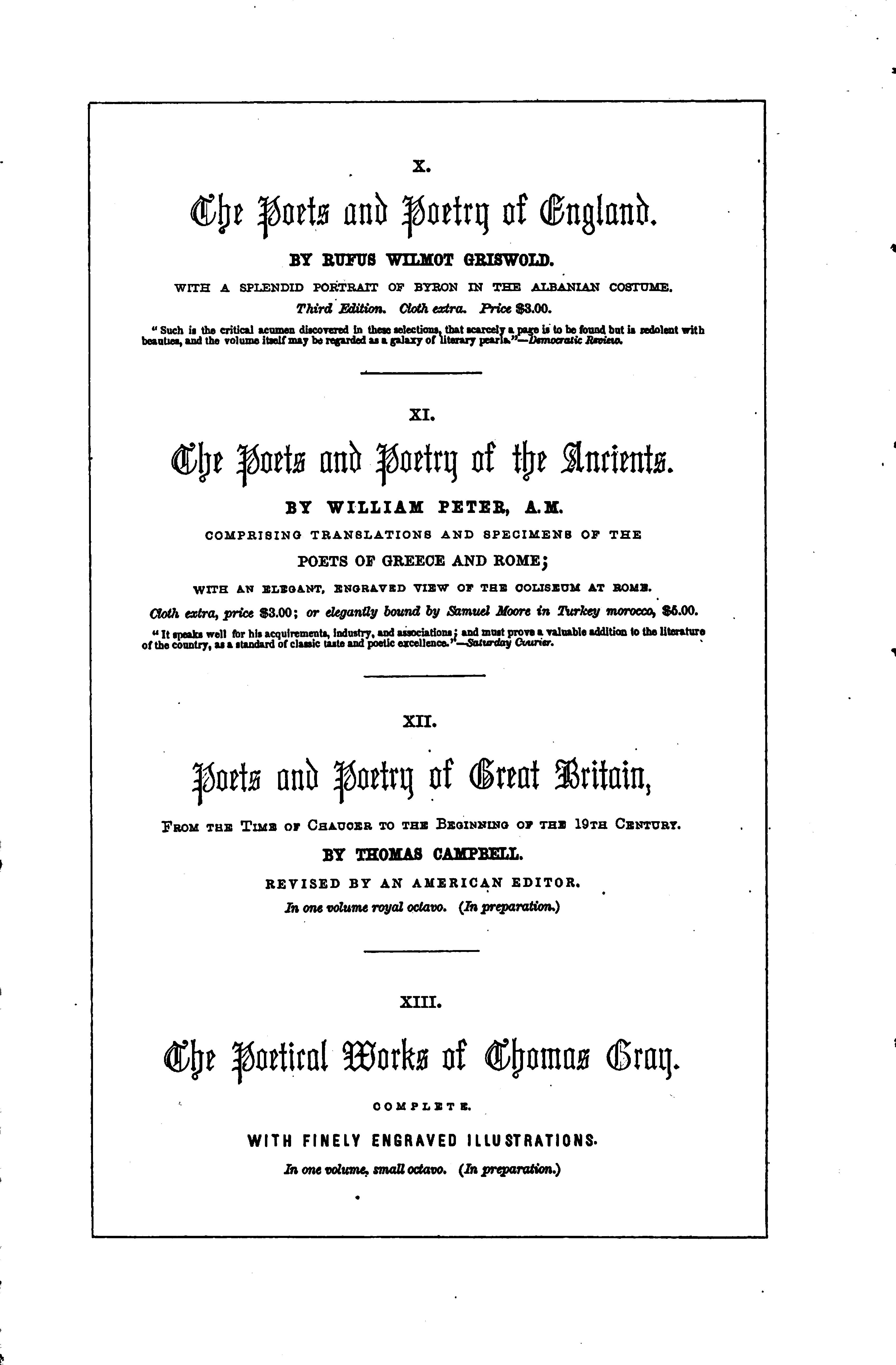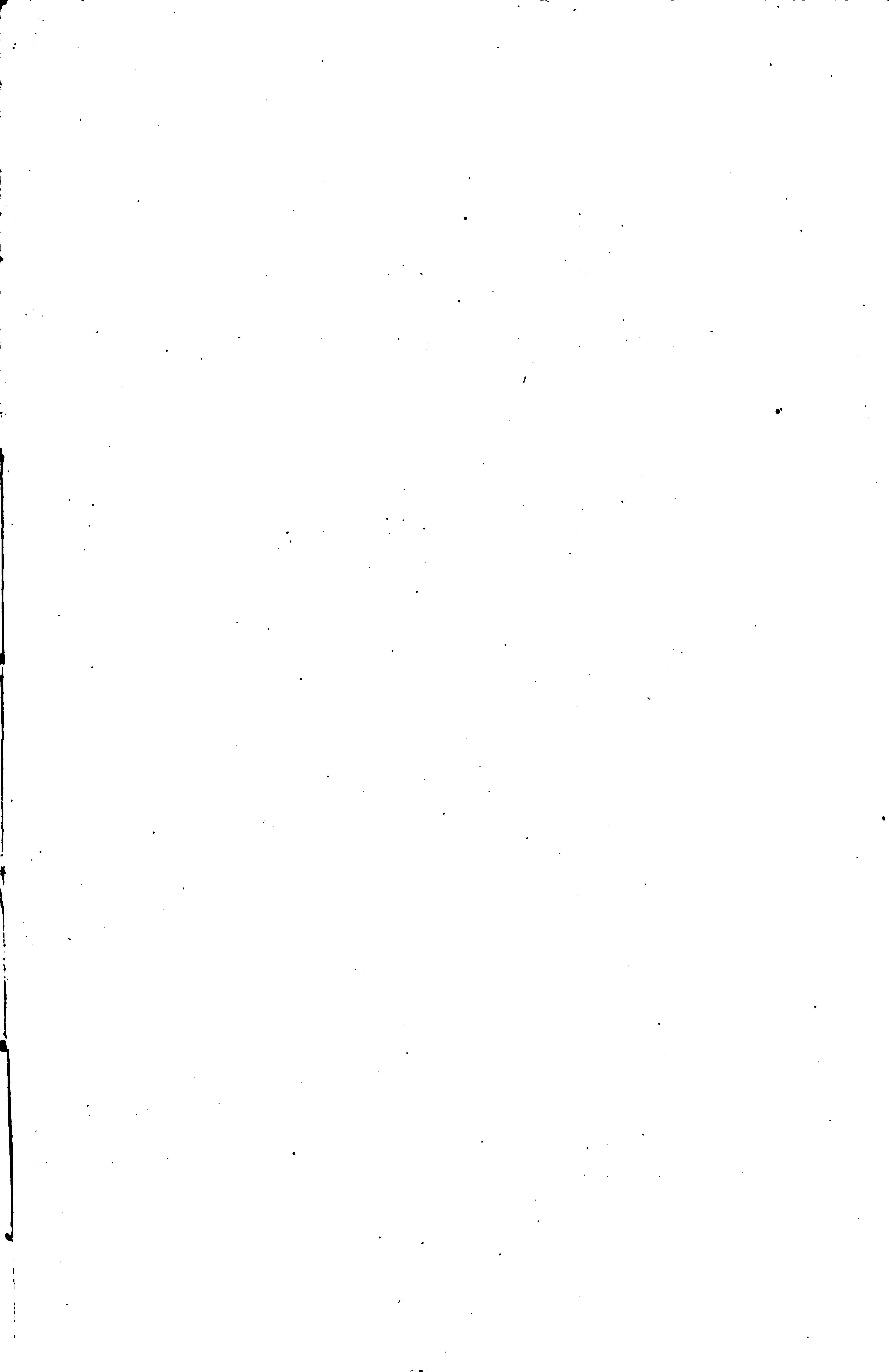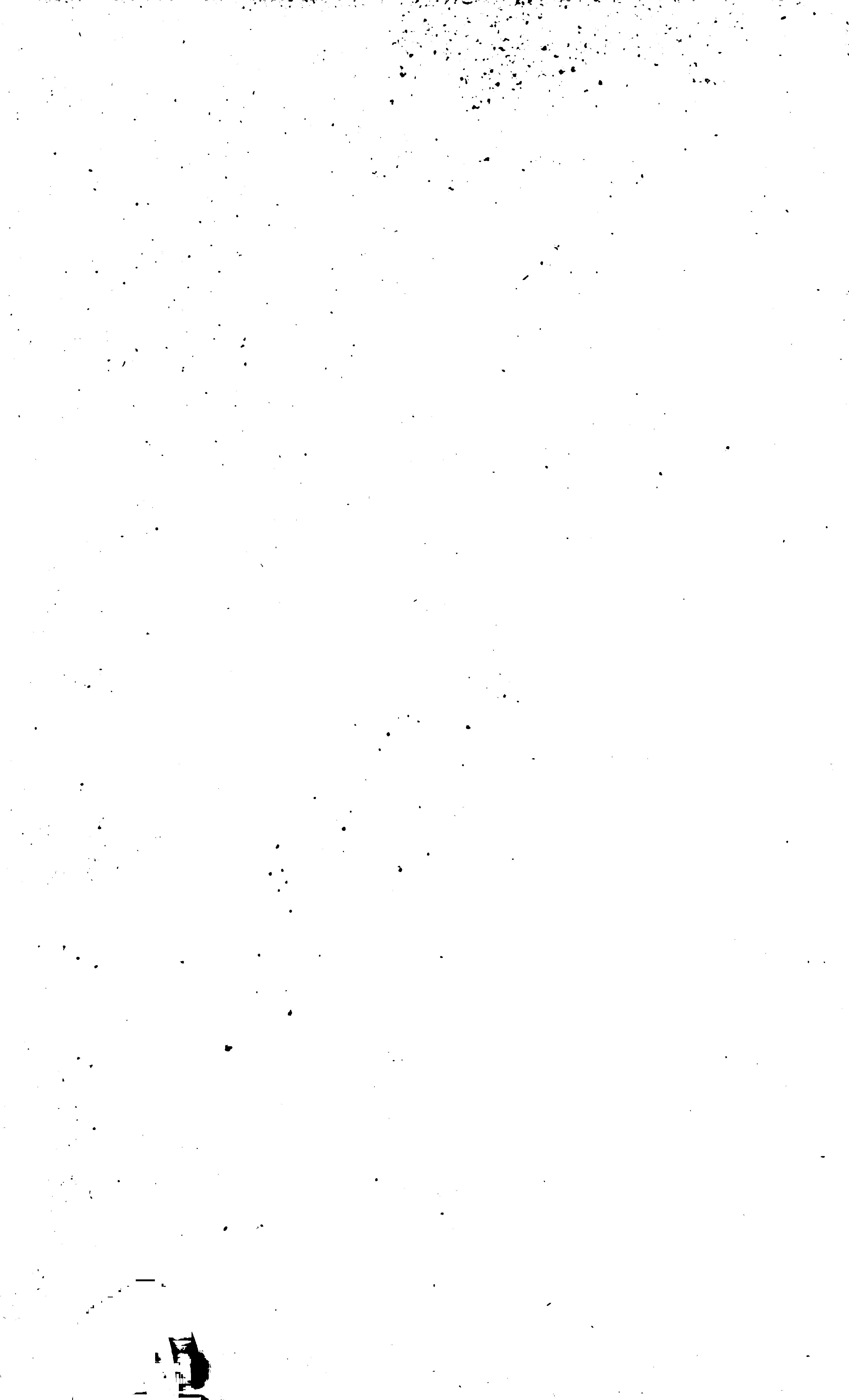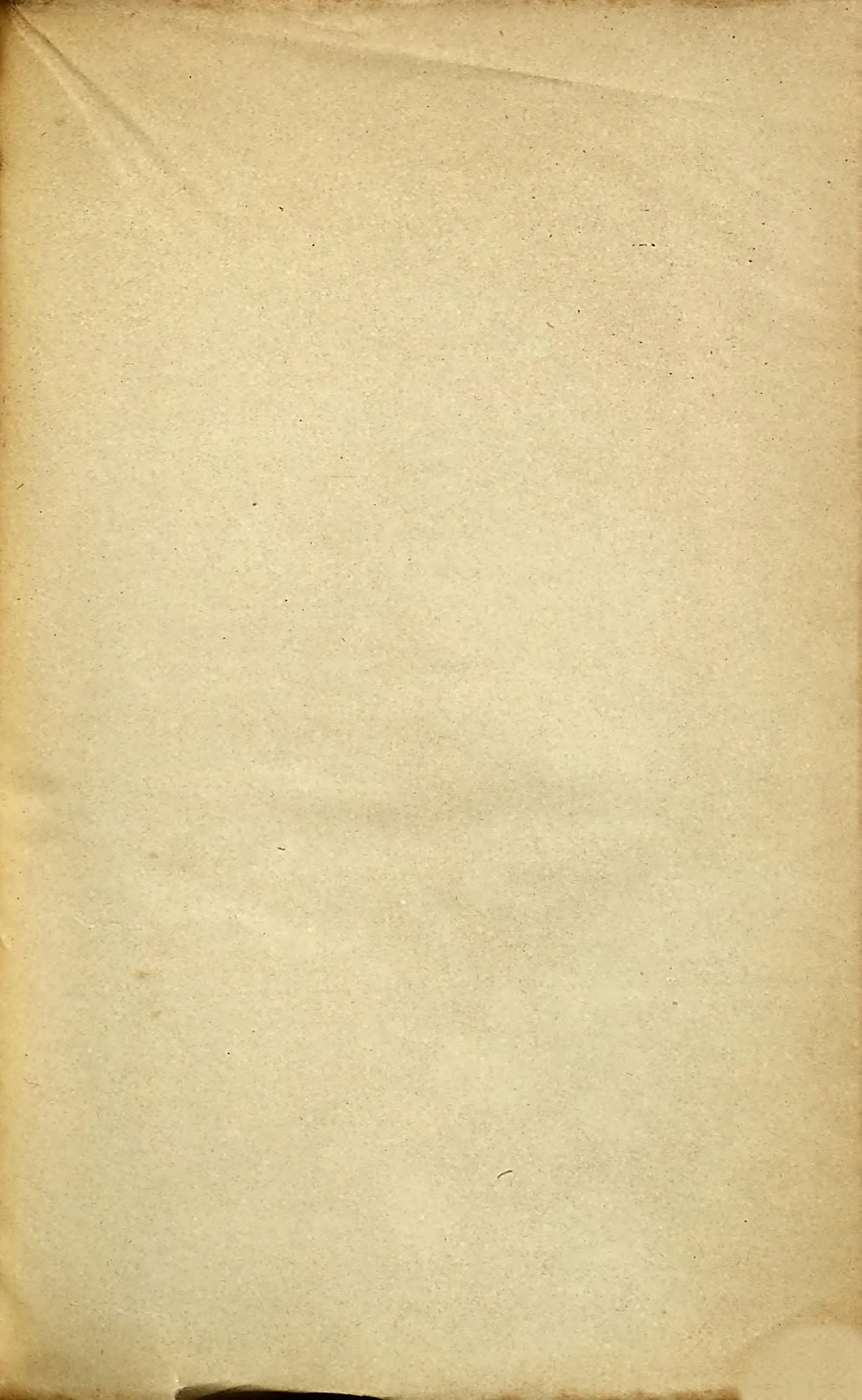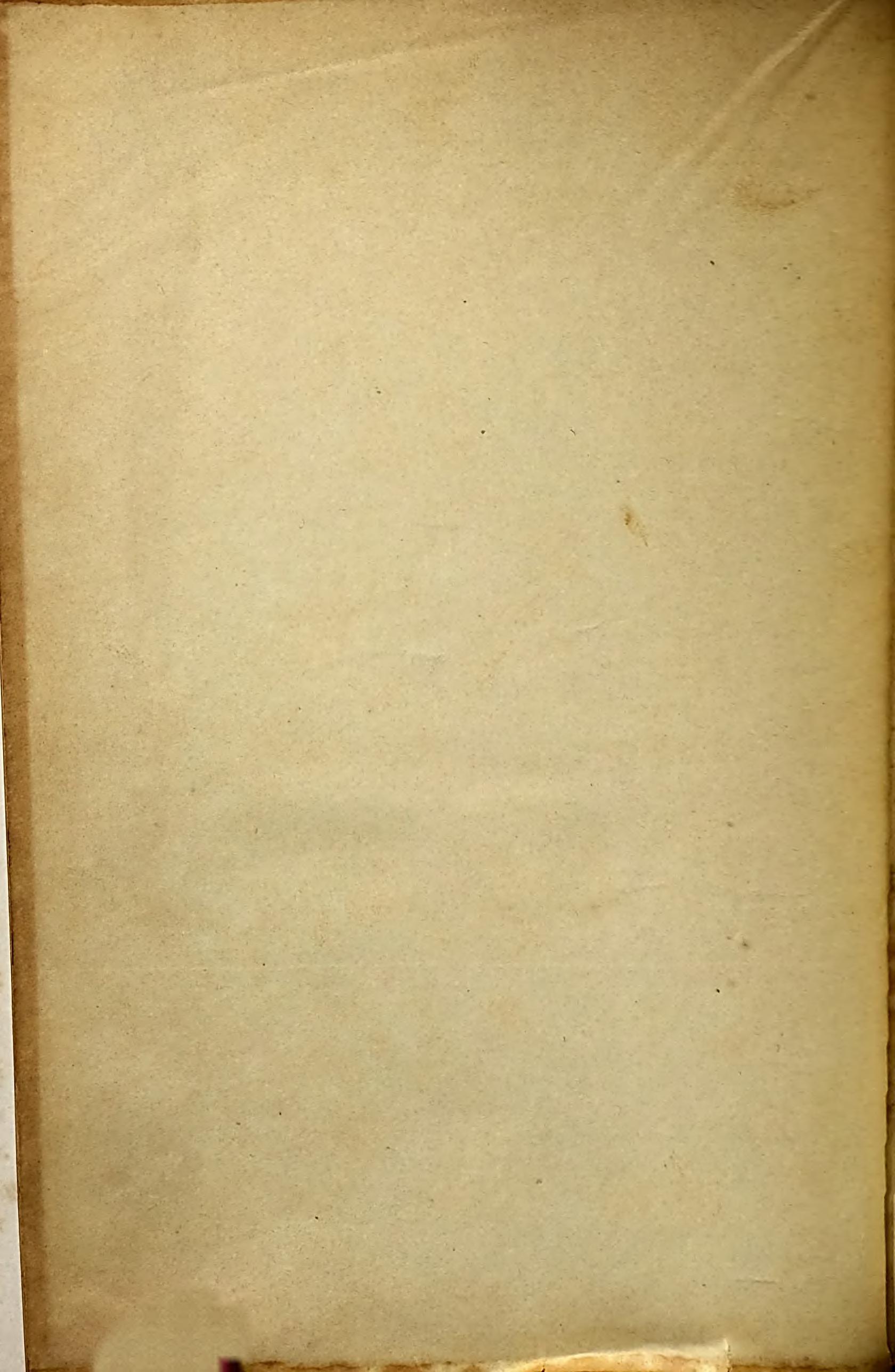https://books.google.com



https://books.google.com


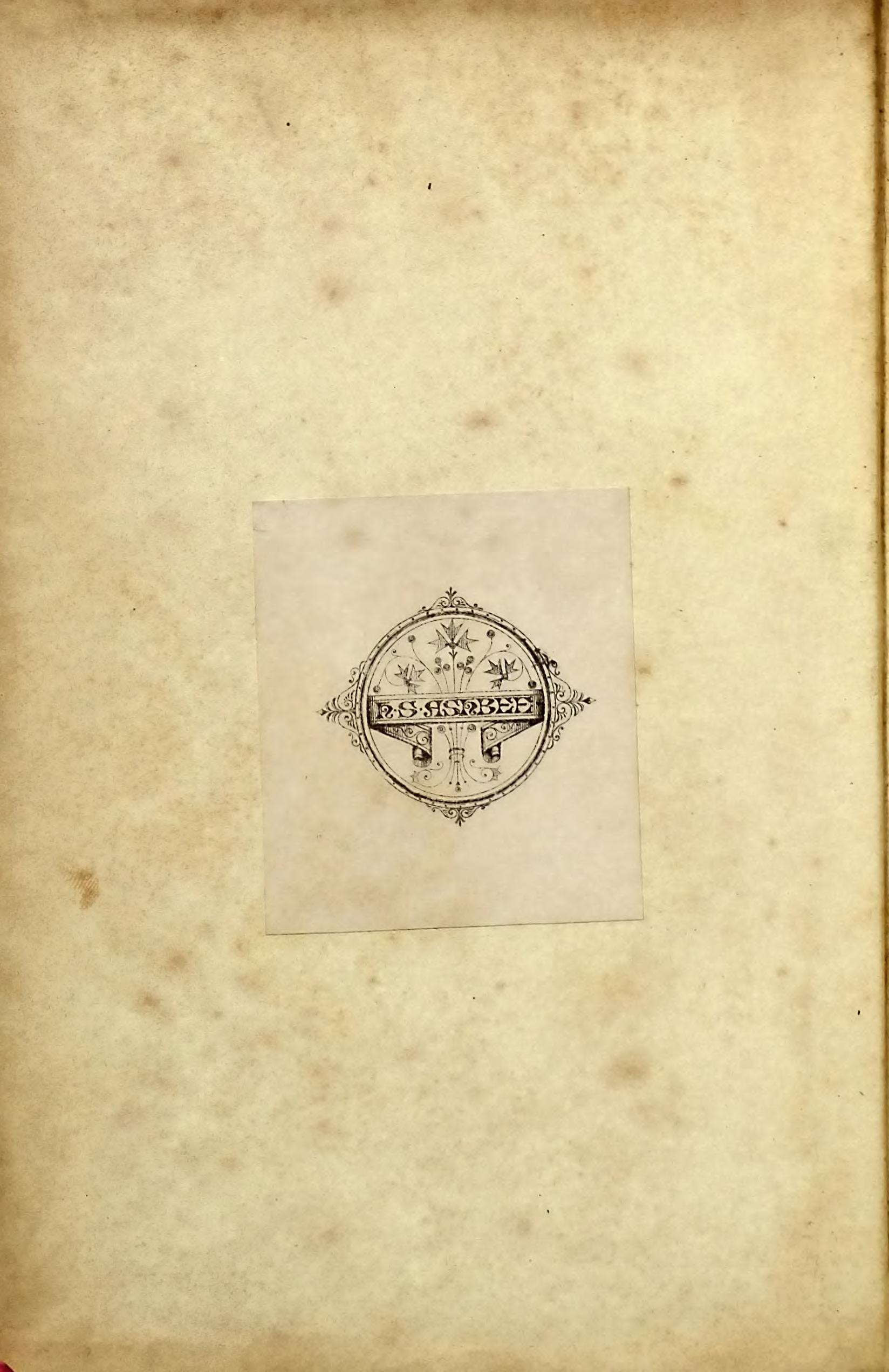

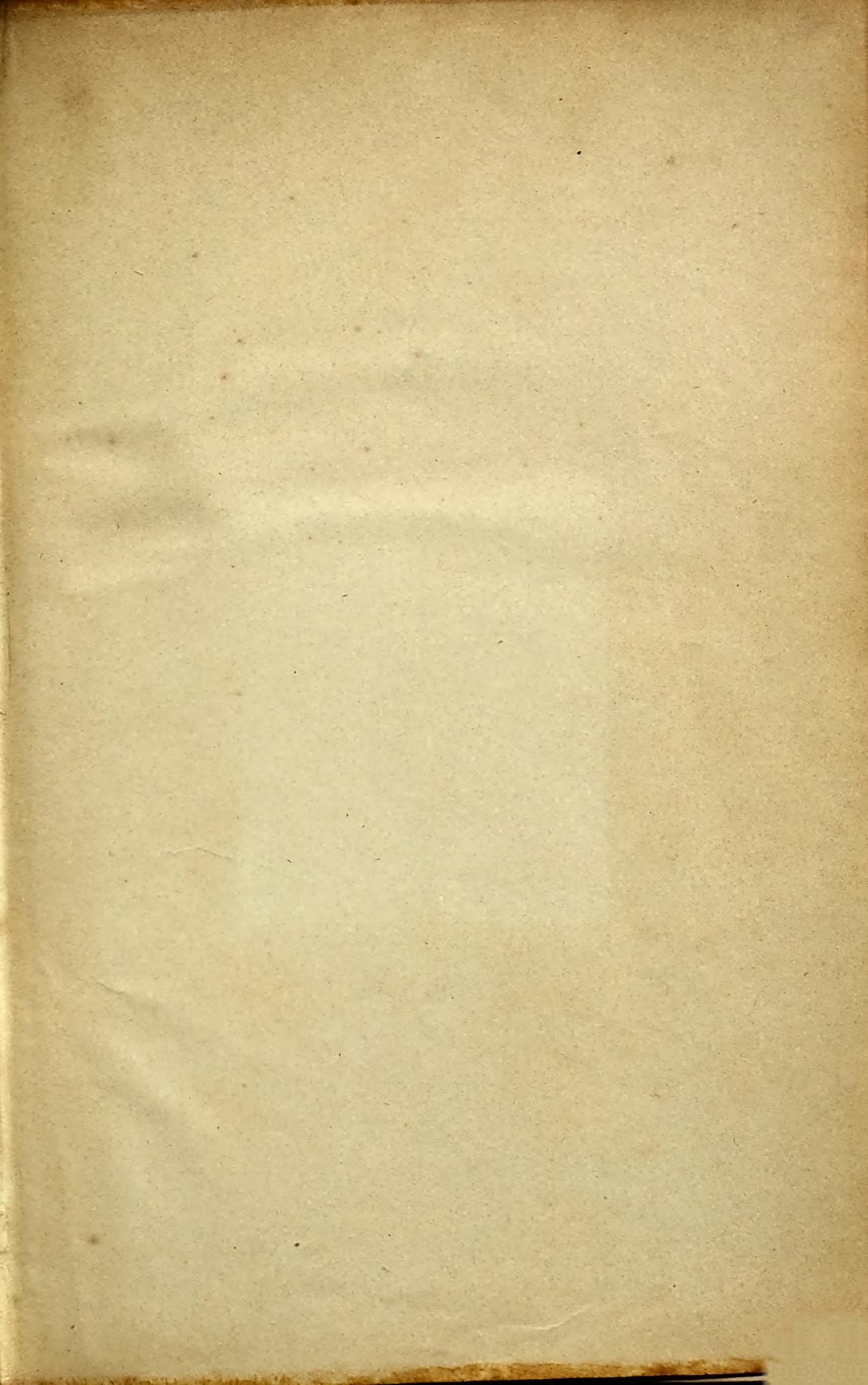

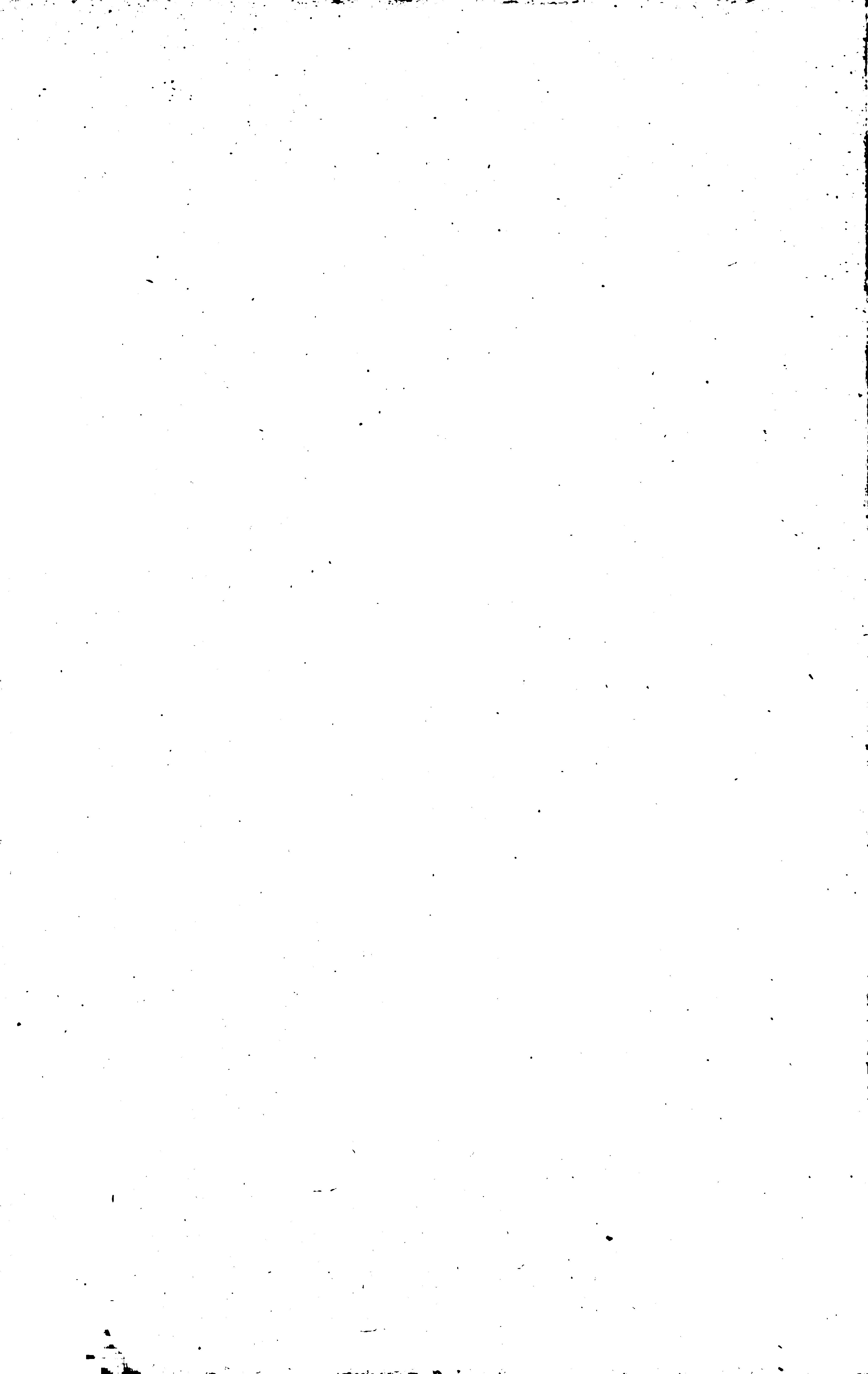

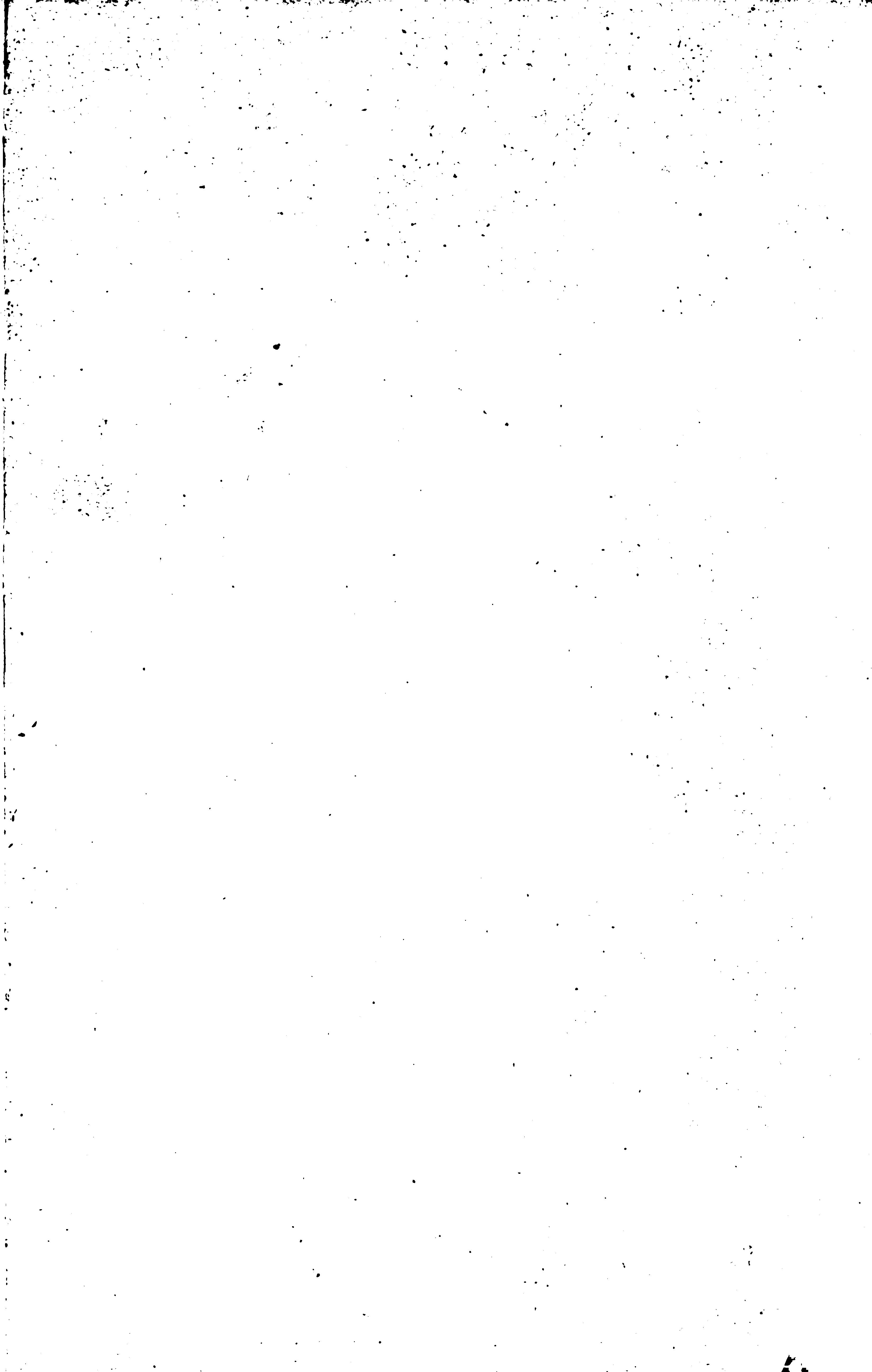

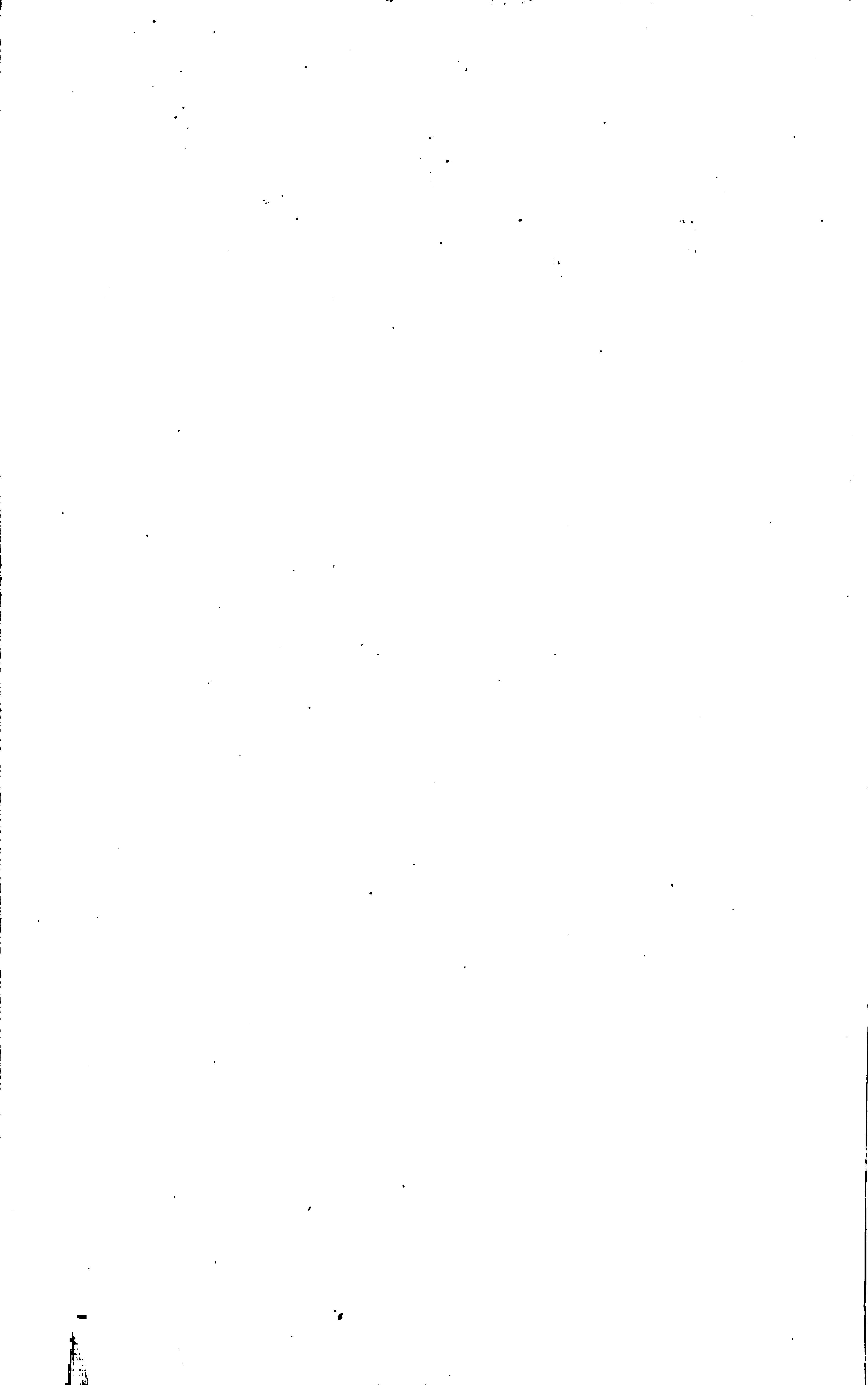

11687.6.27 .
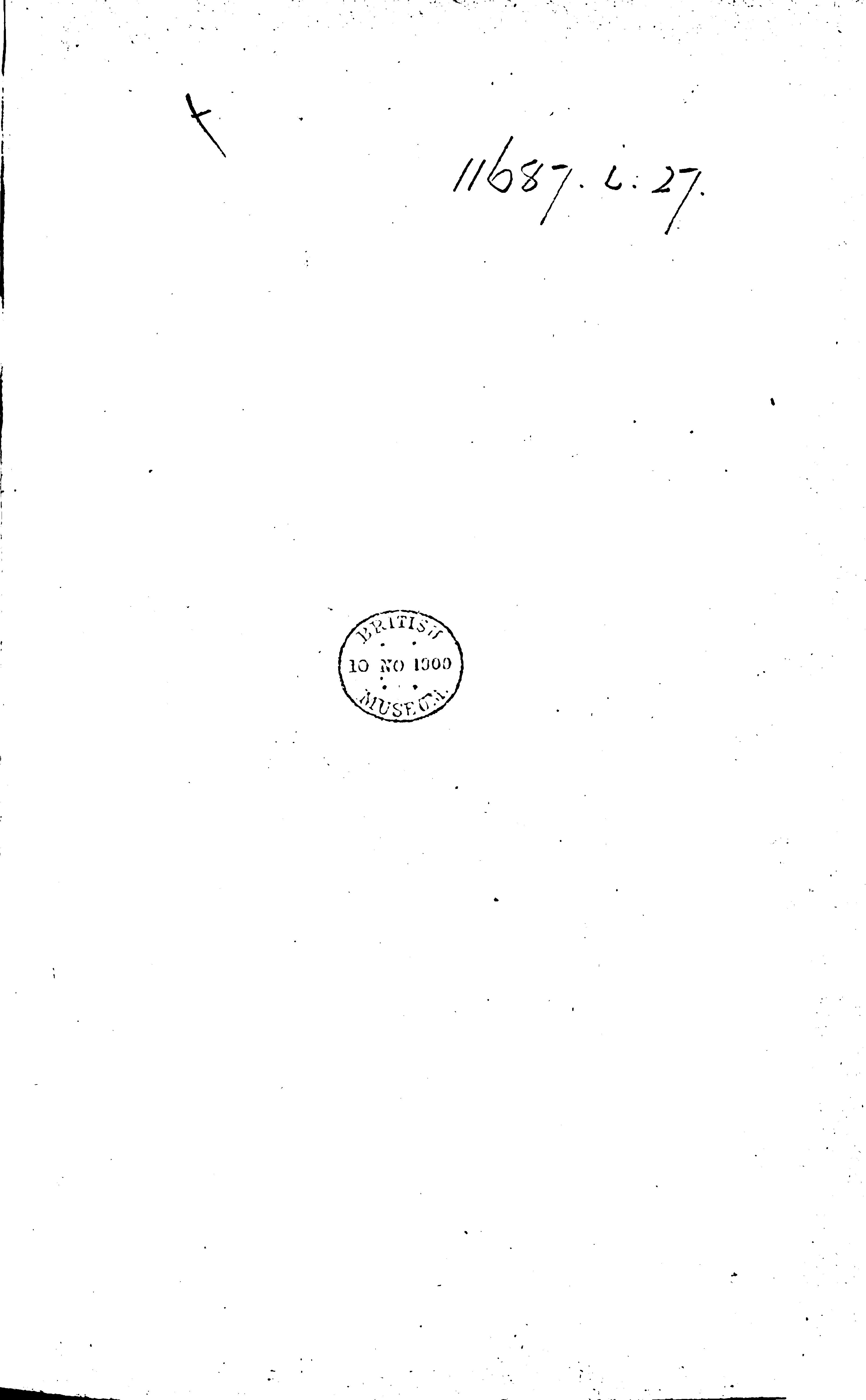

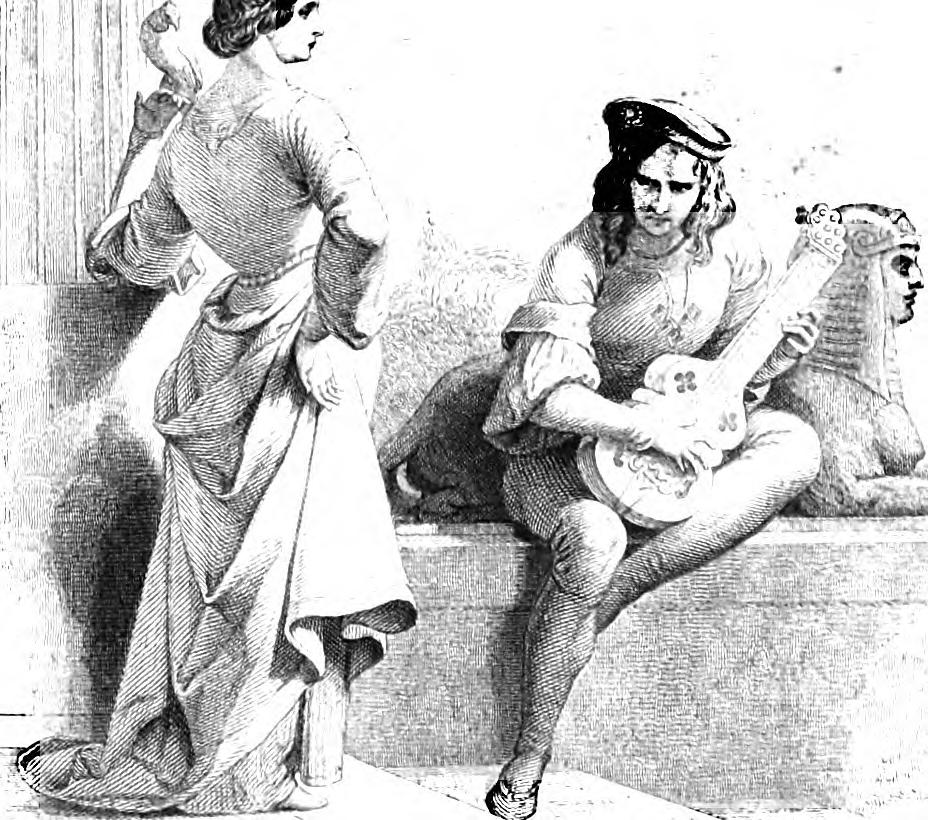
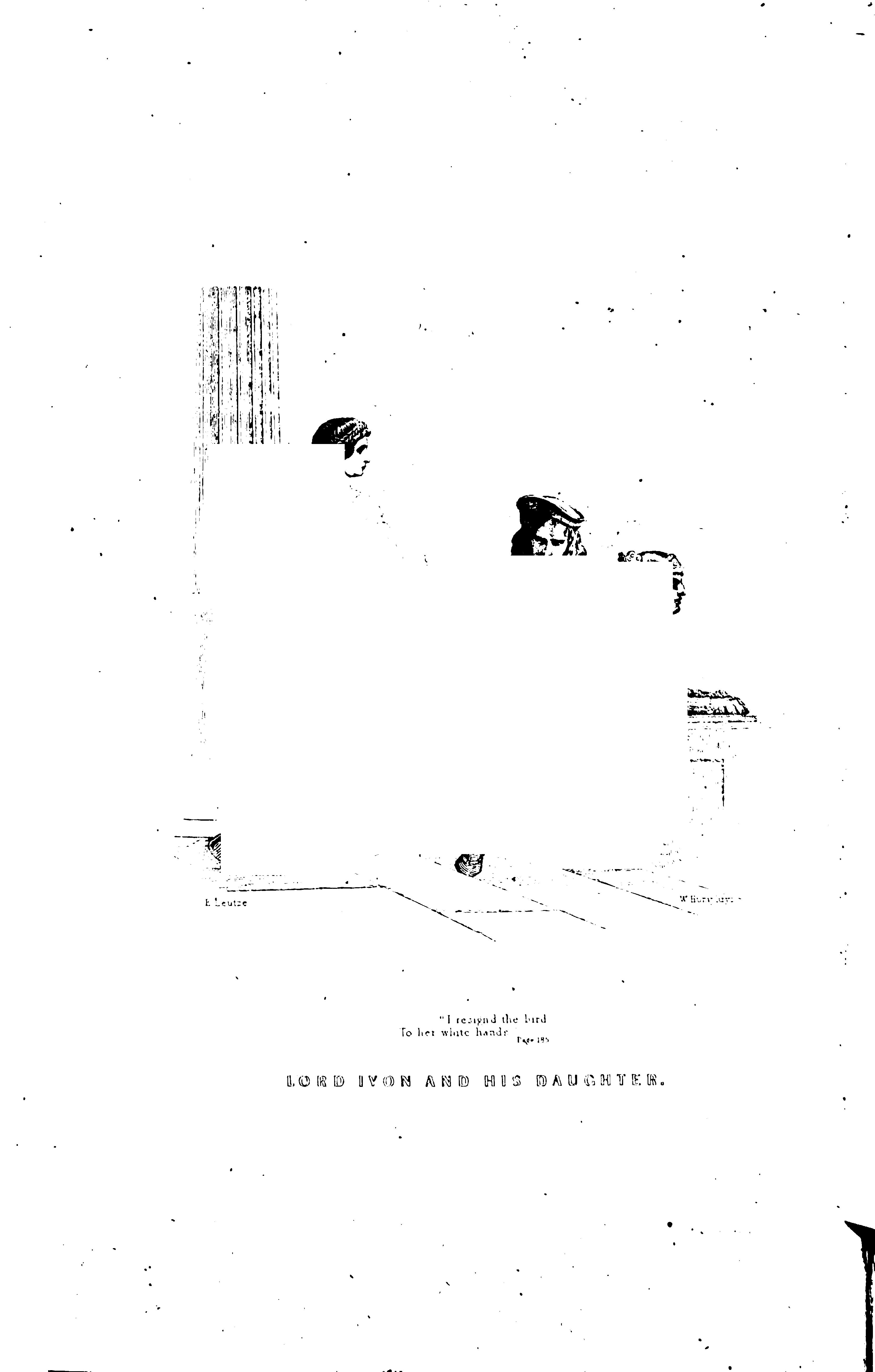
 ELeutze
Iresigndthe bird To her white hands Page185
LORD IVON AND HIS DAUGHTER. WHumpluys
ELeutze
Iresigndthe bird To her white hands Page185
LORD IVON AND HIS DAUGHTER. WHumpluys
SUCCESSORTOE CAREY!
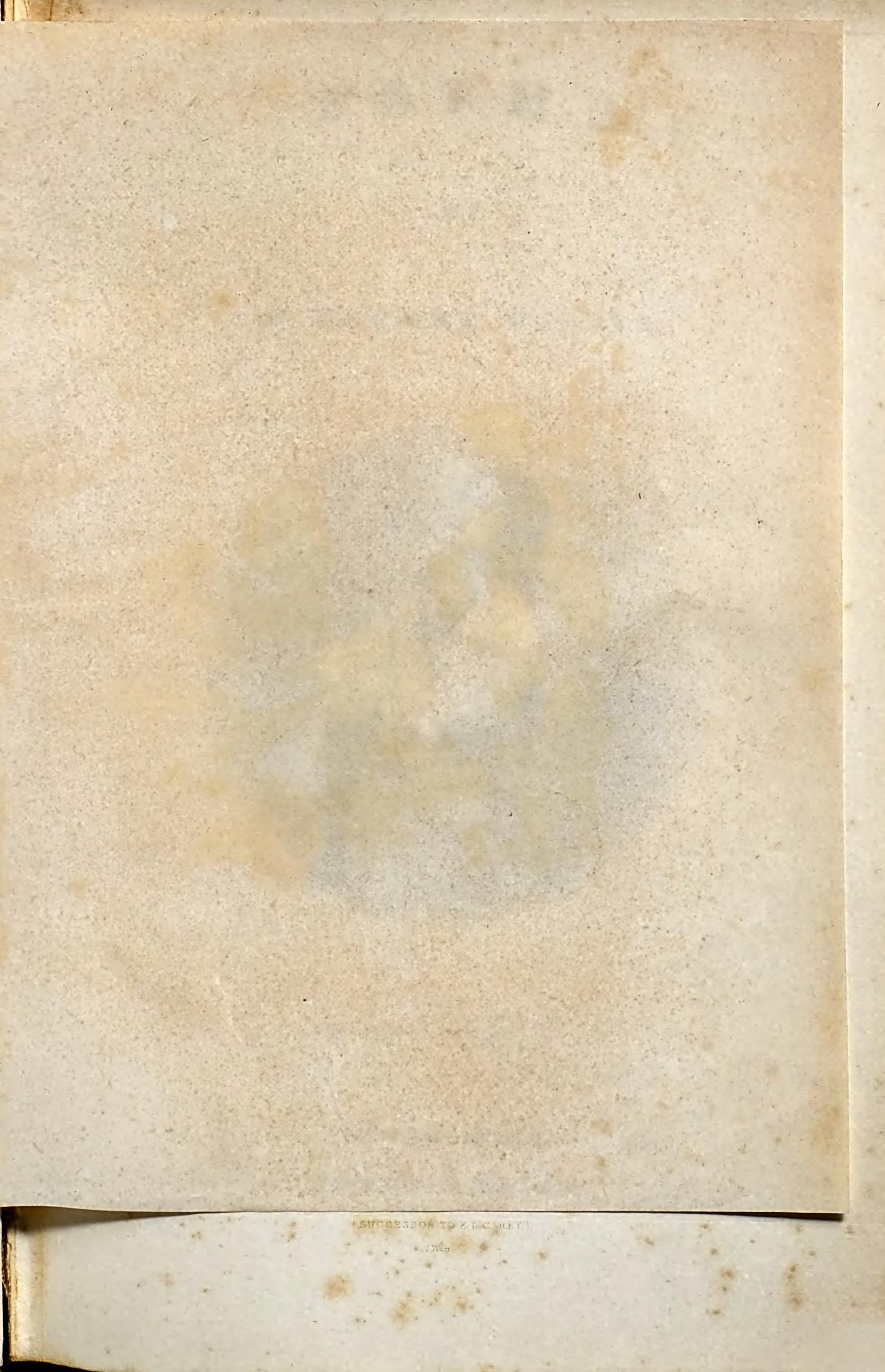

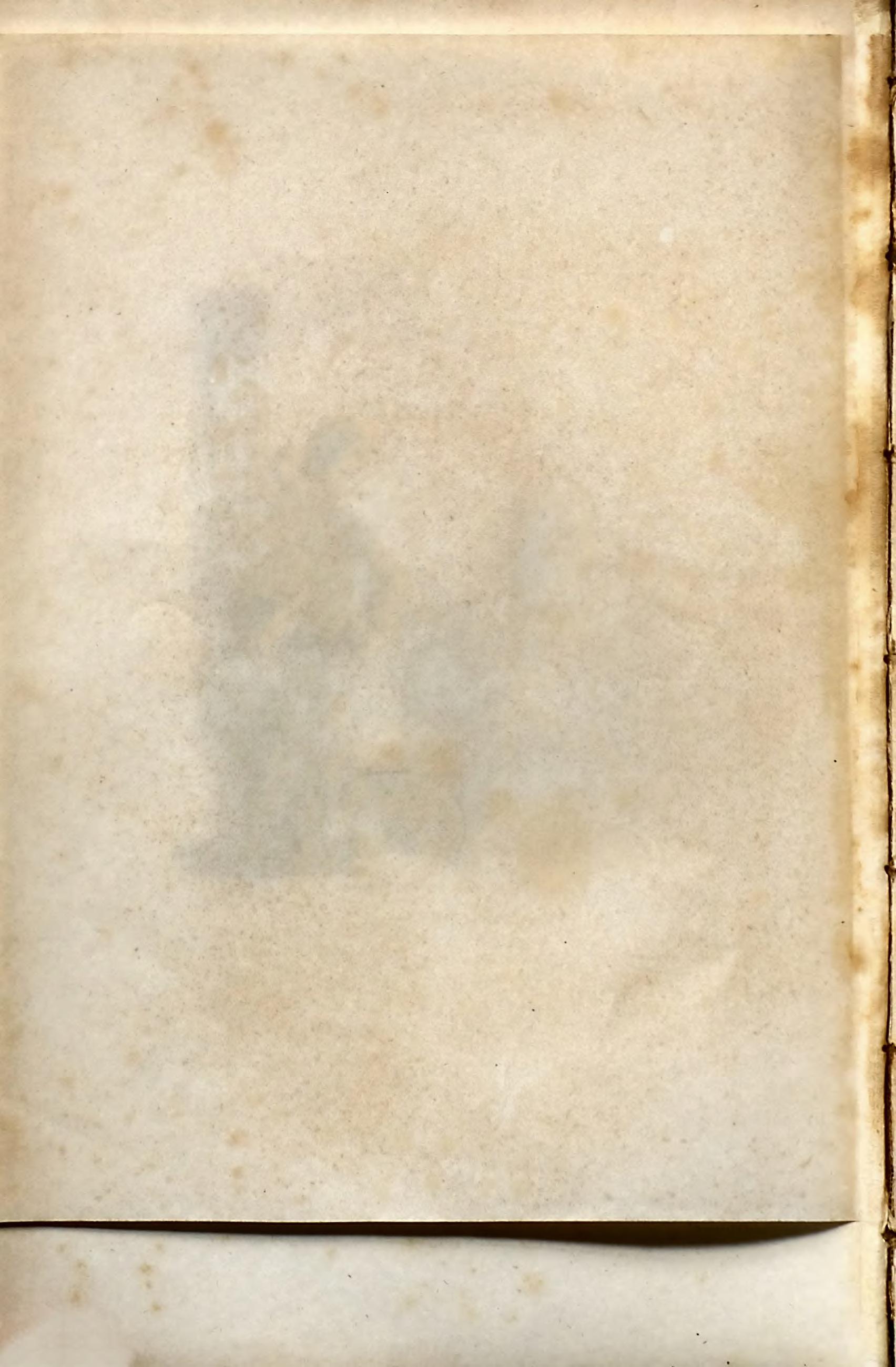

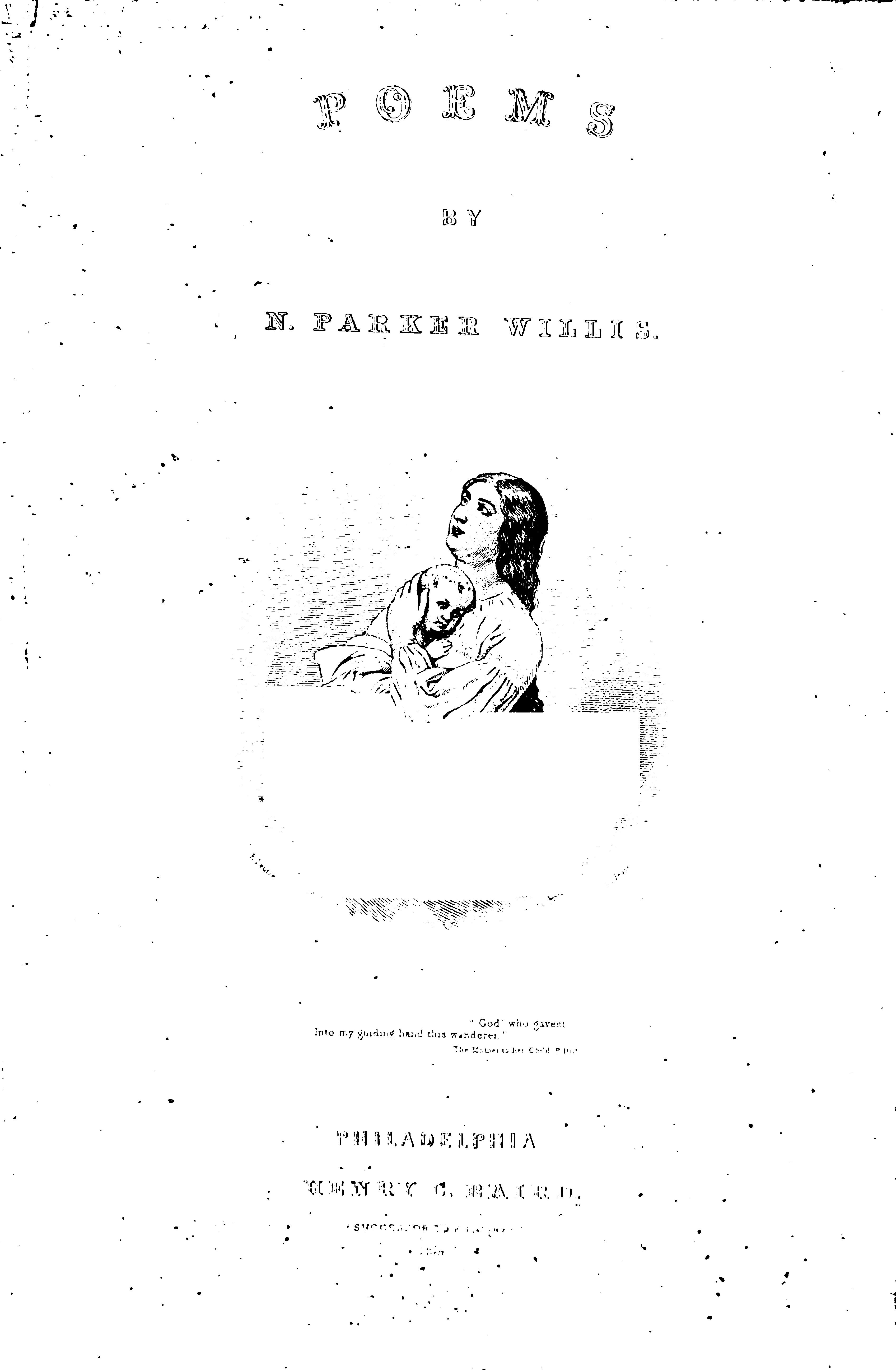
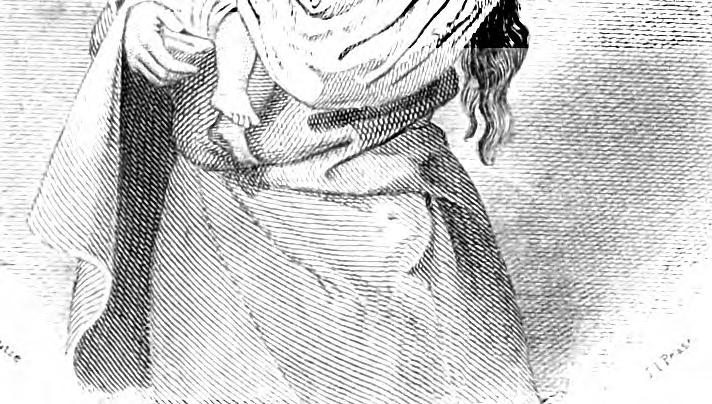
"God whogavest Into myguidinghandthiswanderer " TheMothertoherChild P102
 Kleute
71Pras
Kleute
71Pras
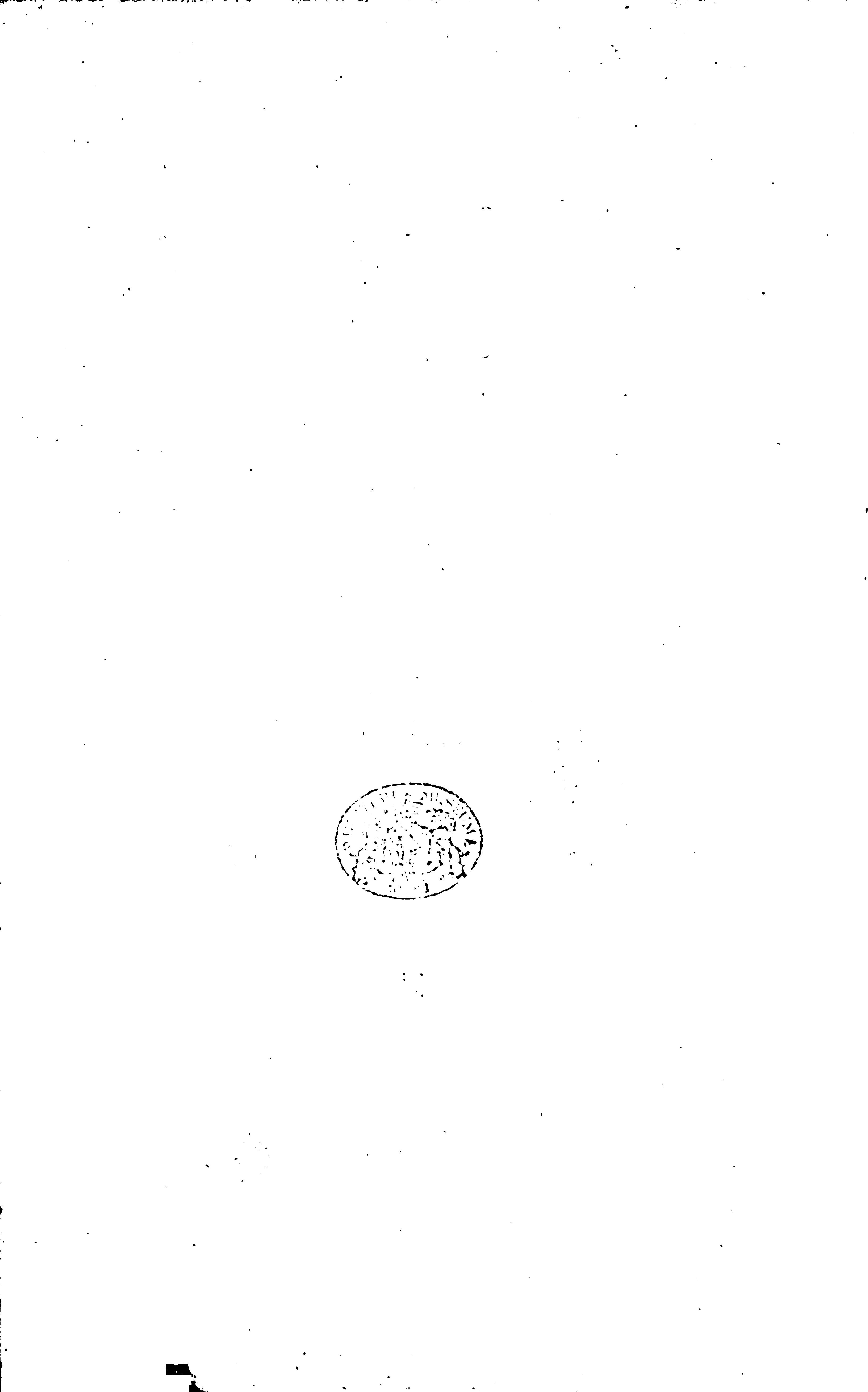

ILLUSTRATED BY E. LEUTZE. "Blending, Poorly, yet truly, strivings gain'd or lost, As onein whom two natures keep contending." Fifth Edition.
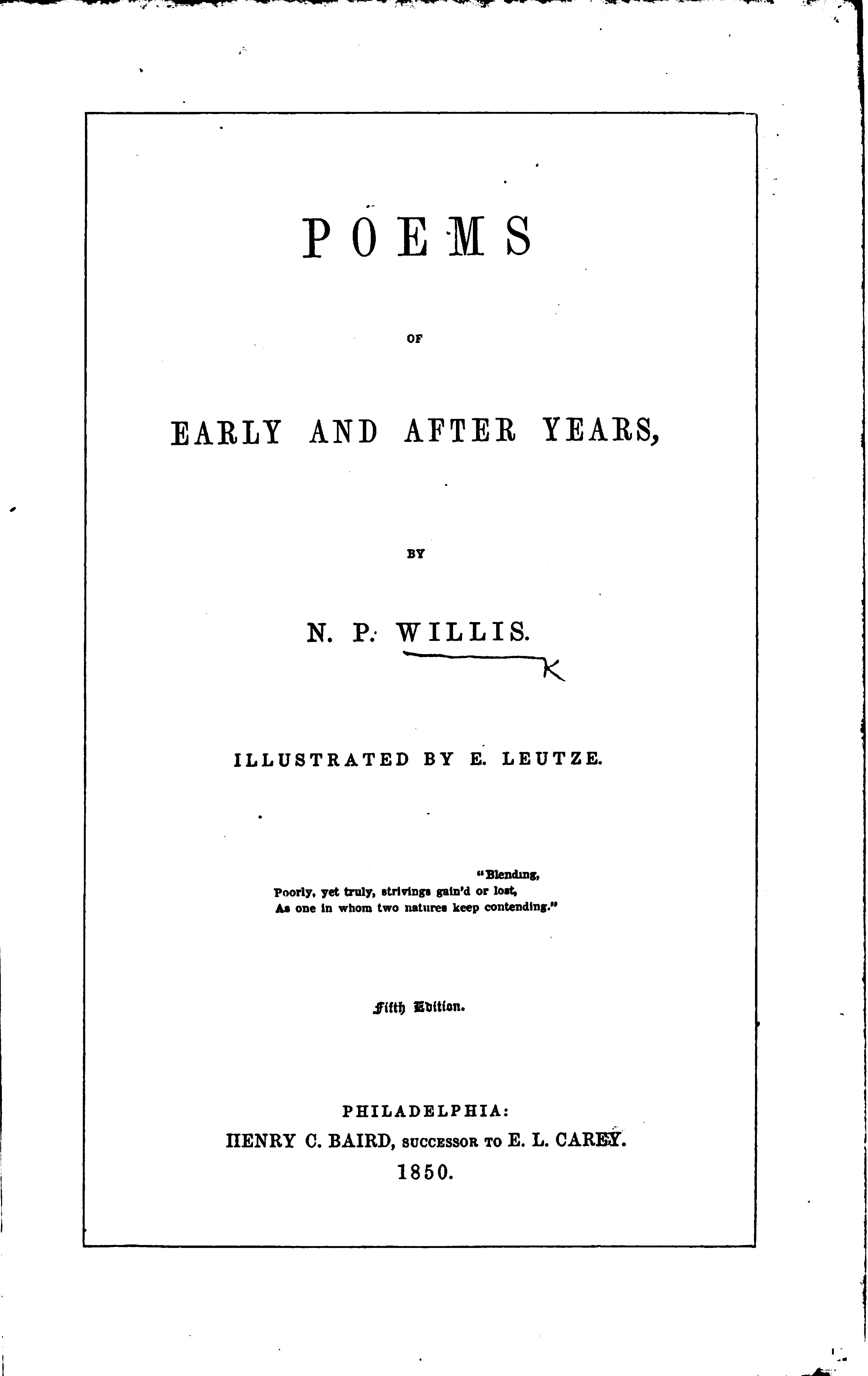

ENTERED ACCORDING TO ACT OF CONGRESS, IN THE YEAR 1847, BY CAREY & HART, IN THE CLERK'S OFFICE OF THE DISTRICT COURT OF THE EASTERN DISTRICT OF PENNSYLVANIA.
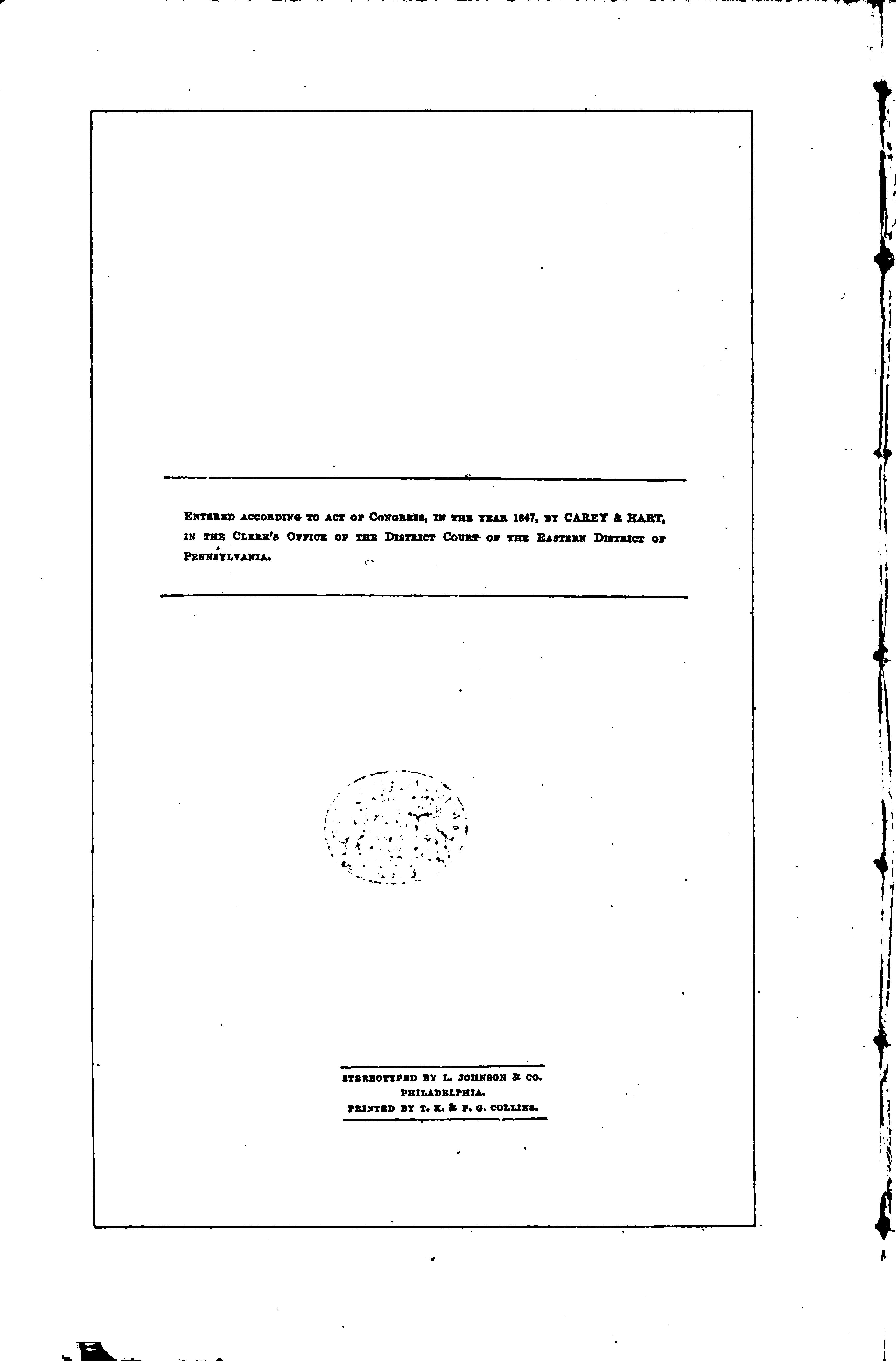
STEREOTYPED BY L. JOHNSON & CO. PHILADELPHIA. PRINTED BY T.X.& P.G.COLLINS.

THESE VOIC'D VIBRATIONS OF THE LINK BETWEEN THEM ARE AFFECTIONATELY INSCRIBED.
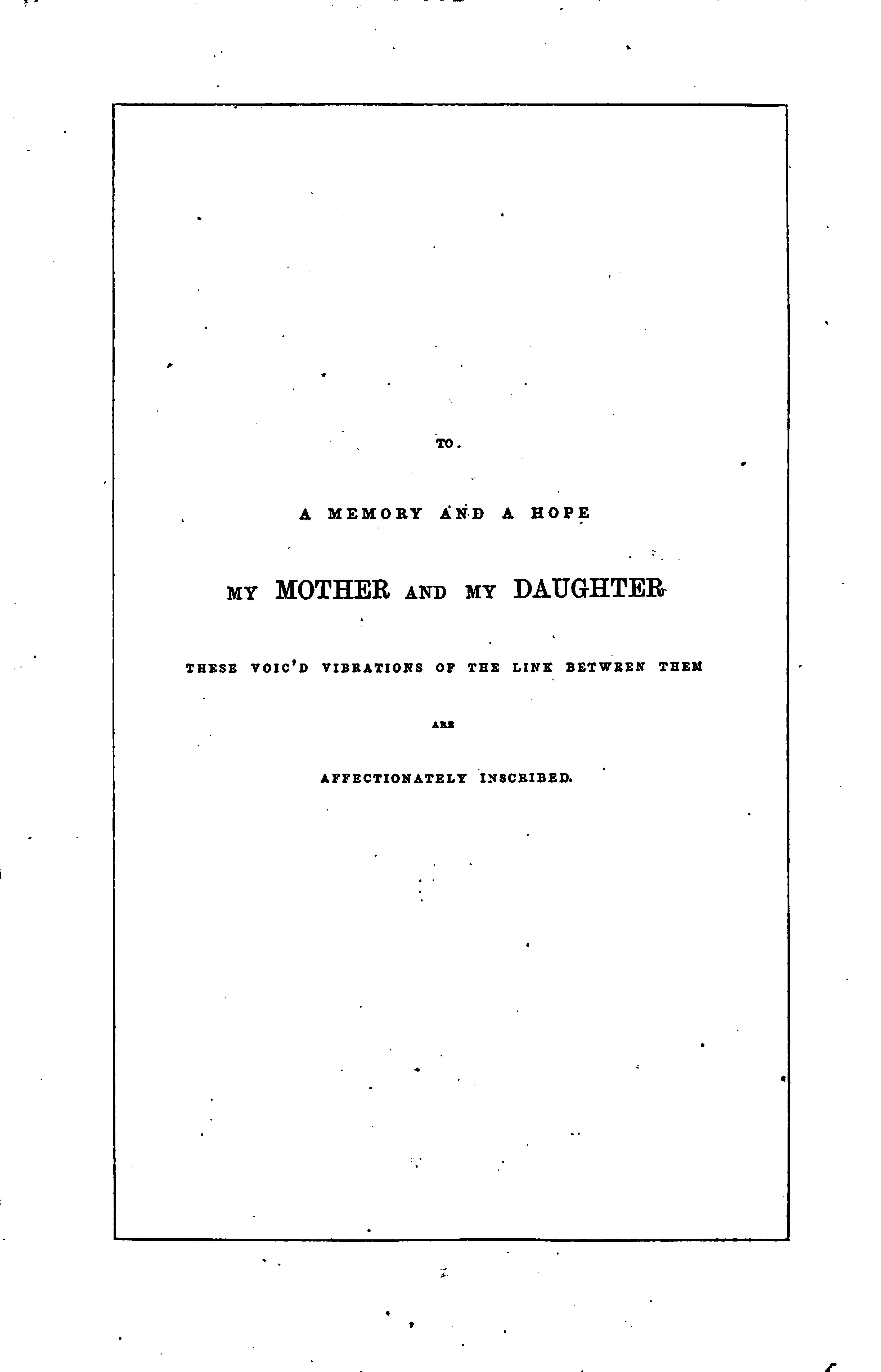

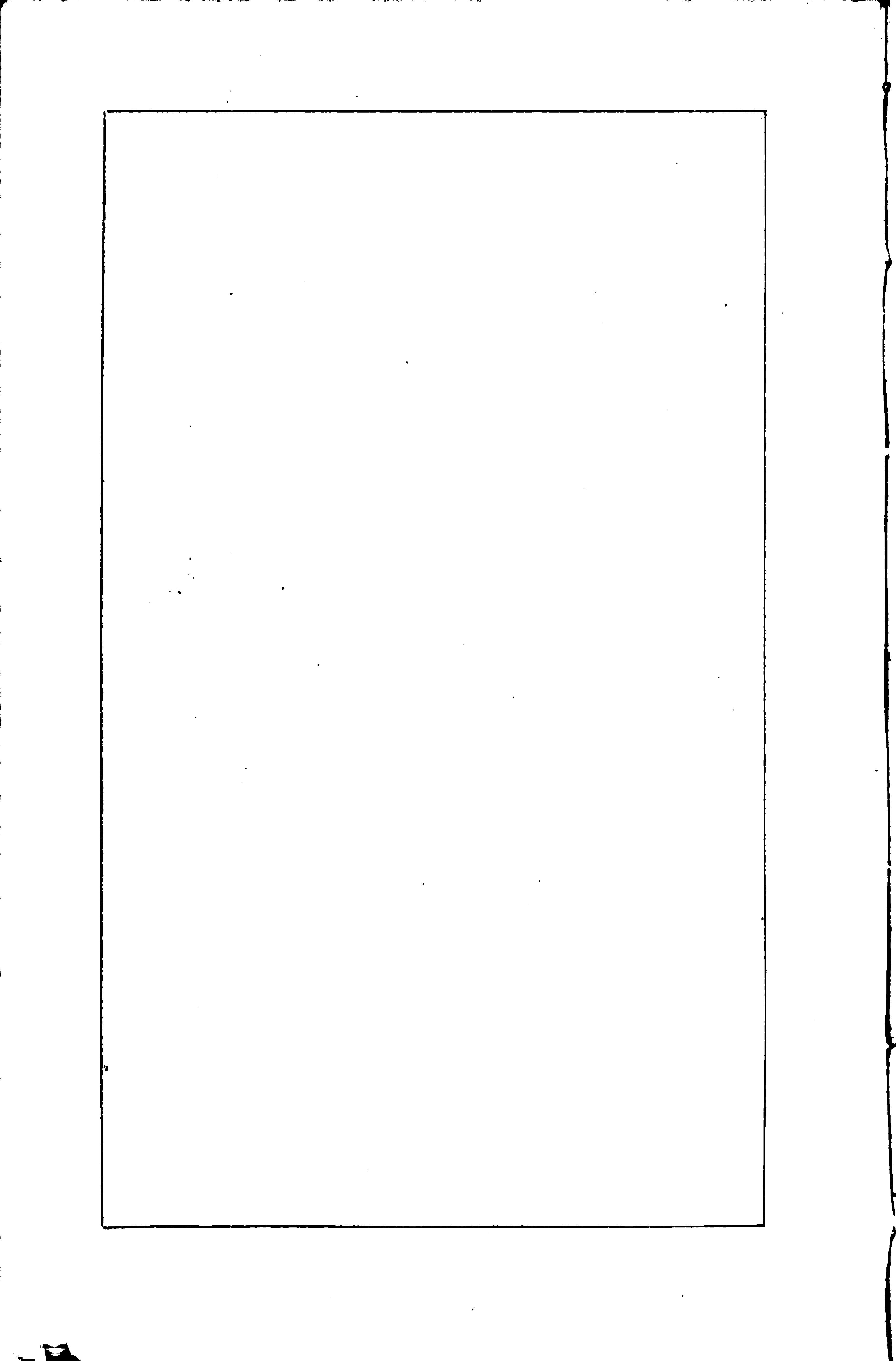

In the present edition of his poetical works, doubtless the most ornamental and correct shape in which they will ever be offered to the public, the author has embodied poems never before printed ; has restored several which were overlooked in the editions of late years ; has, for the first time, critically re-read and corrected the entire collection ; and has thus assembled, he believes, in their final and best form, all of his writings in verse (his plays excepted) which he can venture to think worthy of preservation. In his corrections, (he should remark, perhaps,) he has confined himself tothe removal of inaccuracies of sense and metaphor ; many of the poems, though popular on account of the feeling which embalms them, having been written in a stage
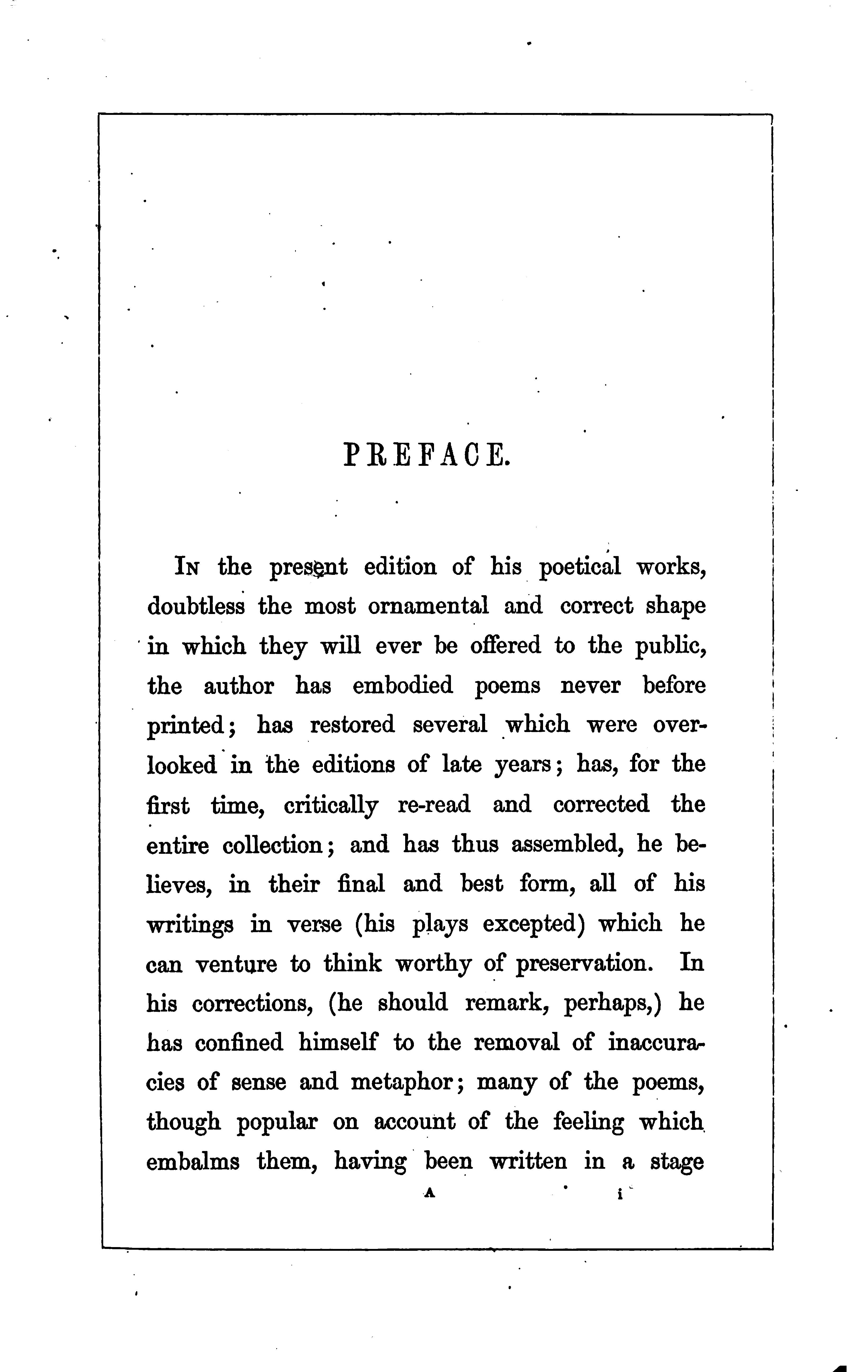

of immature taste, and being incapable of elevation to a high critical standard without a remodelling which would effectually destroy them. Some poems have been restored which had been rejected from other collections, and some left which the author would prefer to have rejected now; the frequent choice of these, for selected miscellanies, and other unmistakeable signs of their popularity, overruling even the possibility of suppressing them.
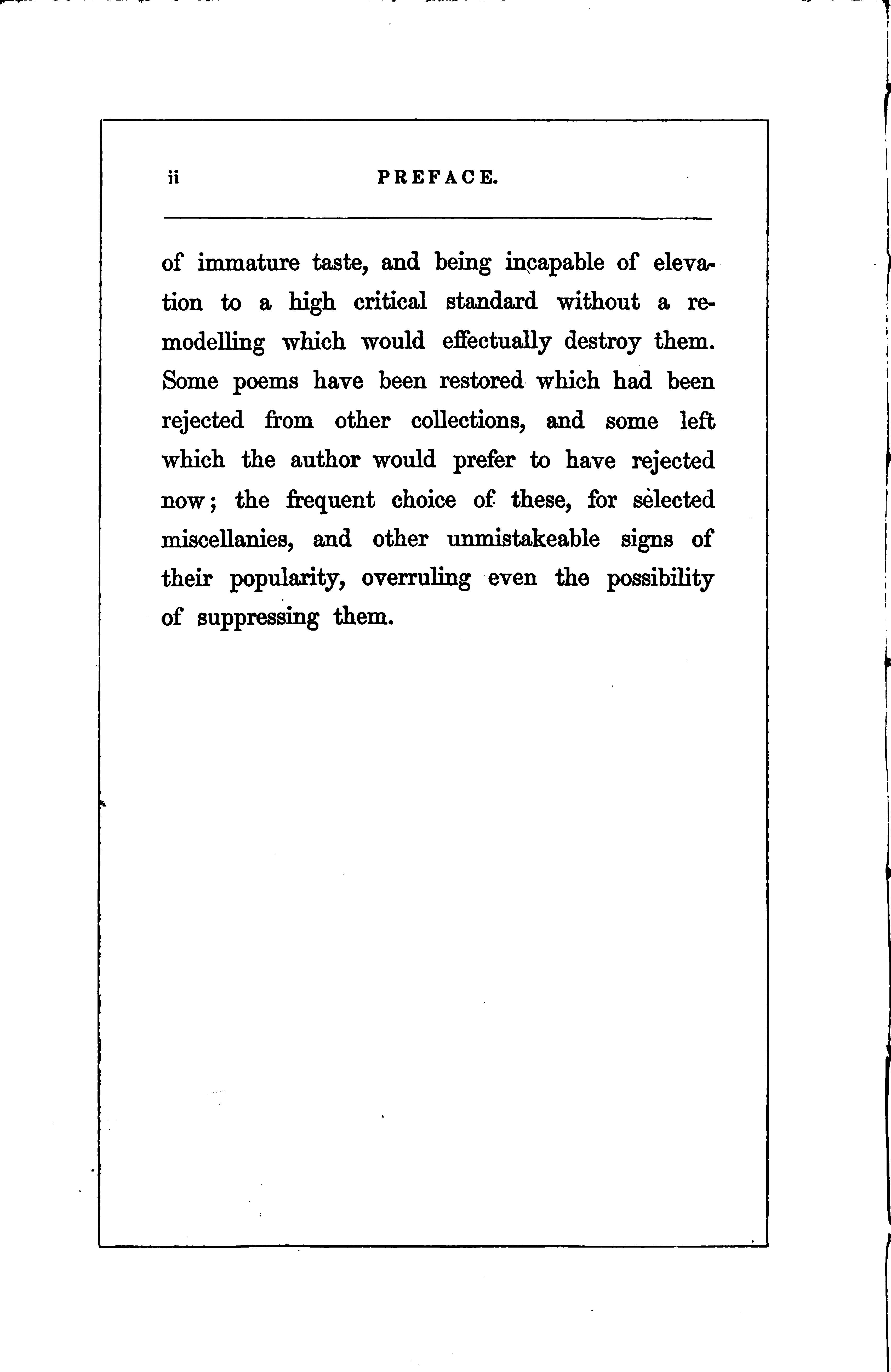

The Healing of the Daughter of Jairus
The Leper
David's Grief for his Child .
The Sacrifice of Abraham
The Shunammite
Jephthah's Daughter
Absalom .
Christ's Entrance into Jerusalem
Baptism of Christ .
Scene in Gethsemane .
The Widow of Nain
Hagar in the Wilderness .
Rizpah with her Sons, (the day before they were hanged on Gibeah)
Lazarus and Mary .
Thoughts while Making the Grave ofa New-born Child .
On the Departure of Rev. Mr. White from his Parish Birth-day Verses
To my Mother from the Apennines
Lines on leaving Europe .
A True Incident
The Motherto her Child .
AThought over a Cradle
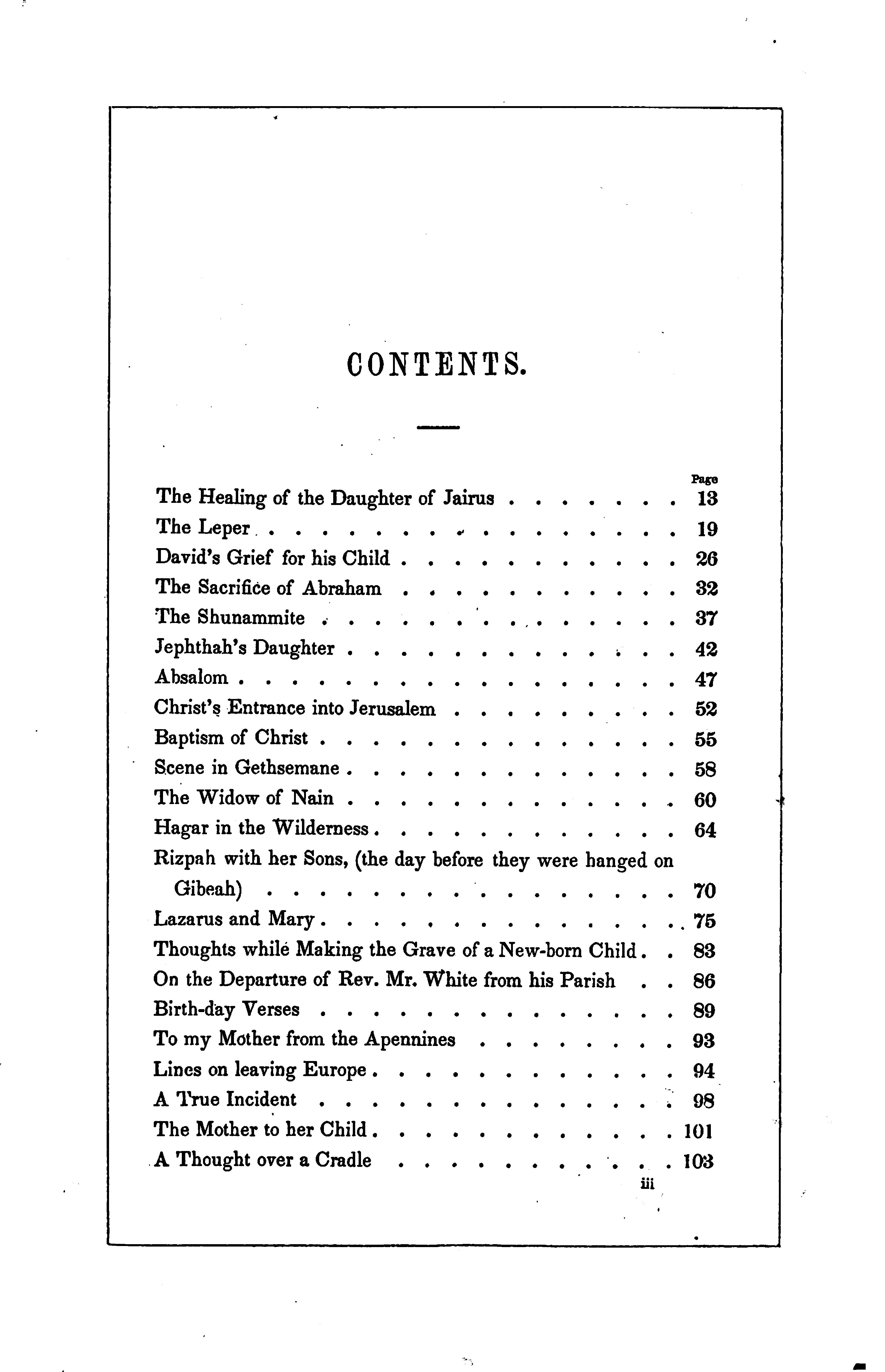

Revery at Glenmary
Thirty-five
On the Picture of a " Child tired of Play"
A Child's First Impression of a Star
On Witnessing a Baptism
To a City Pigeon
The Belfry Pigeon
Saturday Afternoon
The Sabbath ·
Dedication Hymn
The Dying Alchymist
Parrhasius ·
The Scholar of Thebet Ben Khorat
The Wife's Appeal
Melanie
Lord
The Confessional
Florence Gray .
The Pity ofthe Park Fountain "Chamber Scene"
To a Stolen Ring
To Her who has Hopes for Me .
The Death of Harrison
"She was not There"
Fail Me not Thou .
Spirit Whispers ·
To M , from Abroad . .
Thoughts at the Close of a Ball
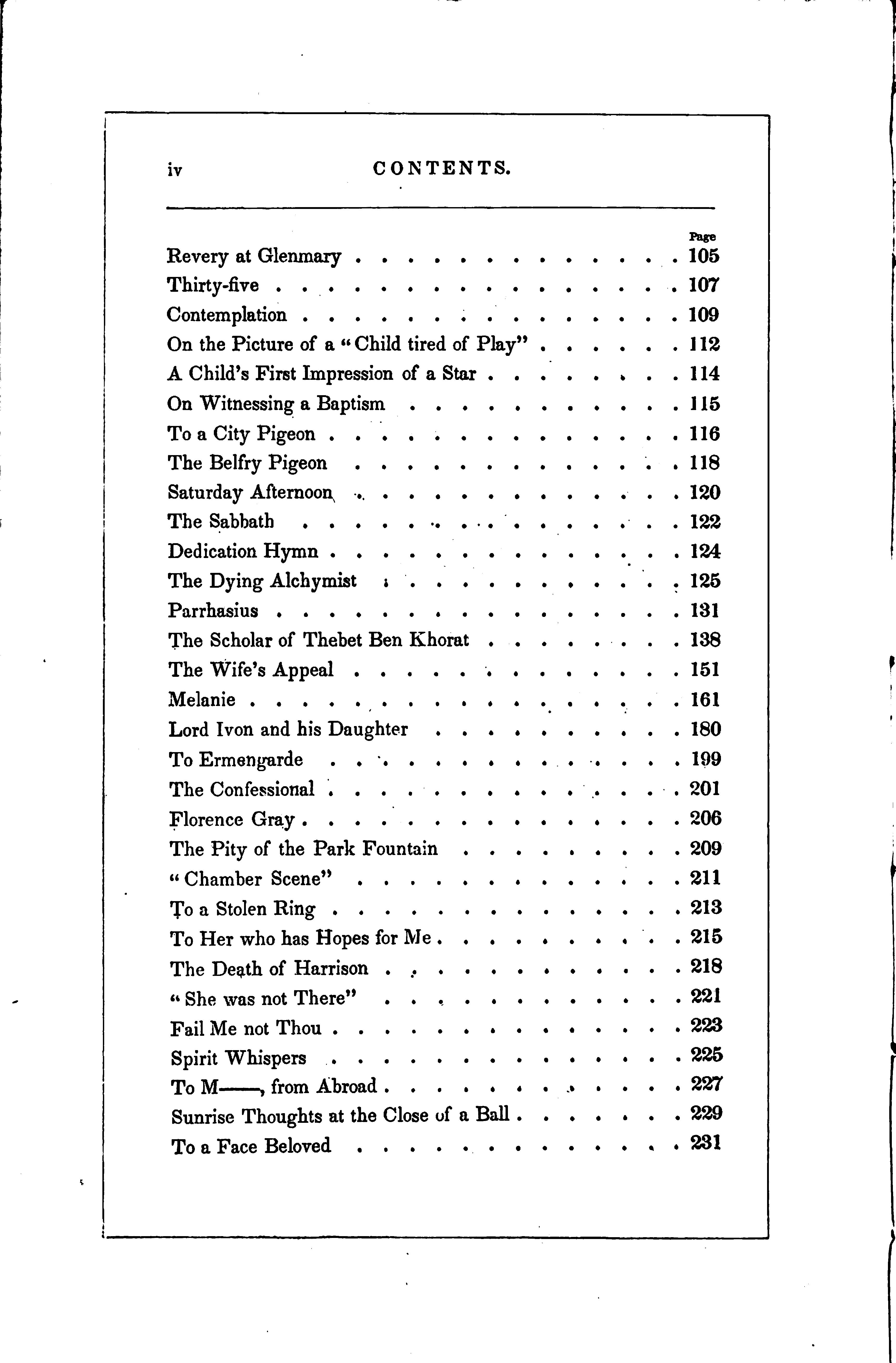

aPoem delivered at the Departure of the Senior Class of Yale College, in 1827
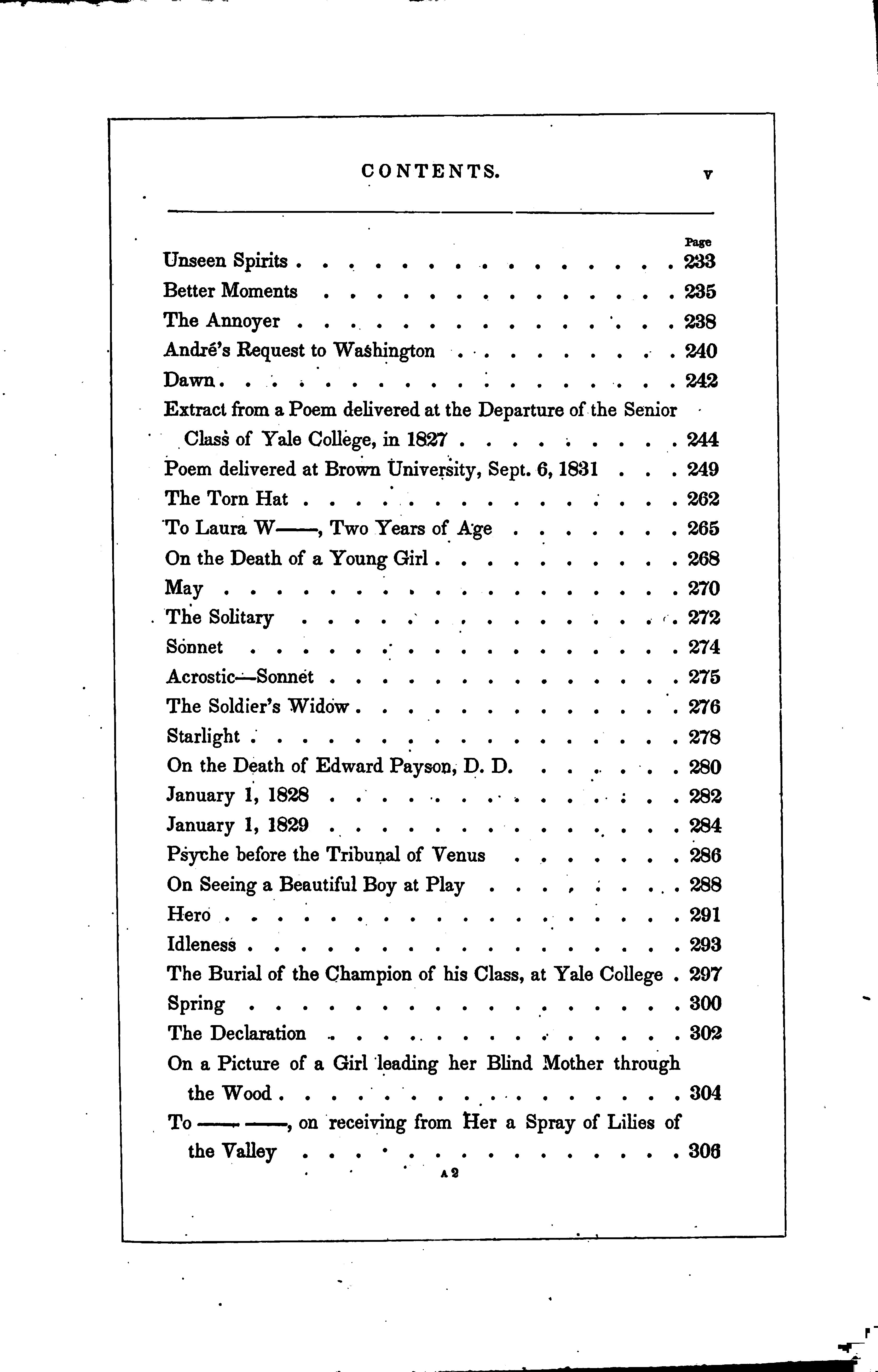

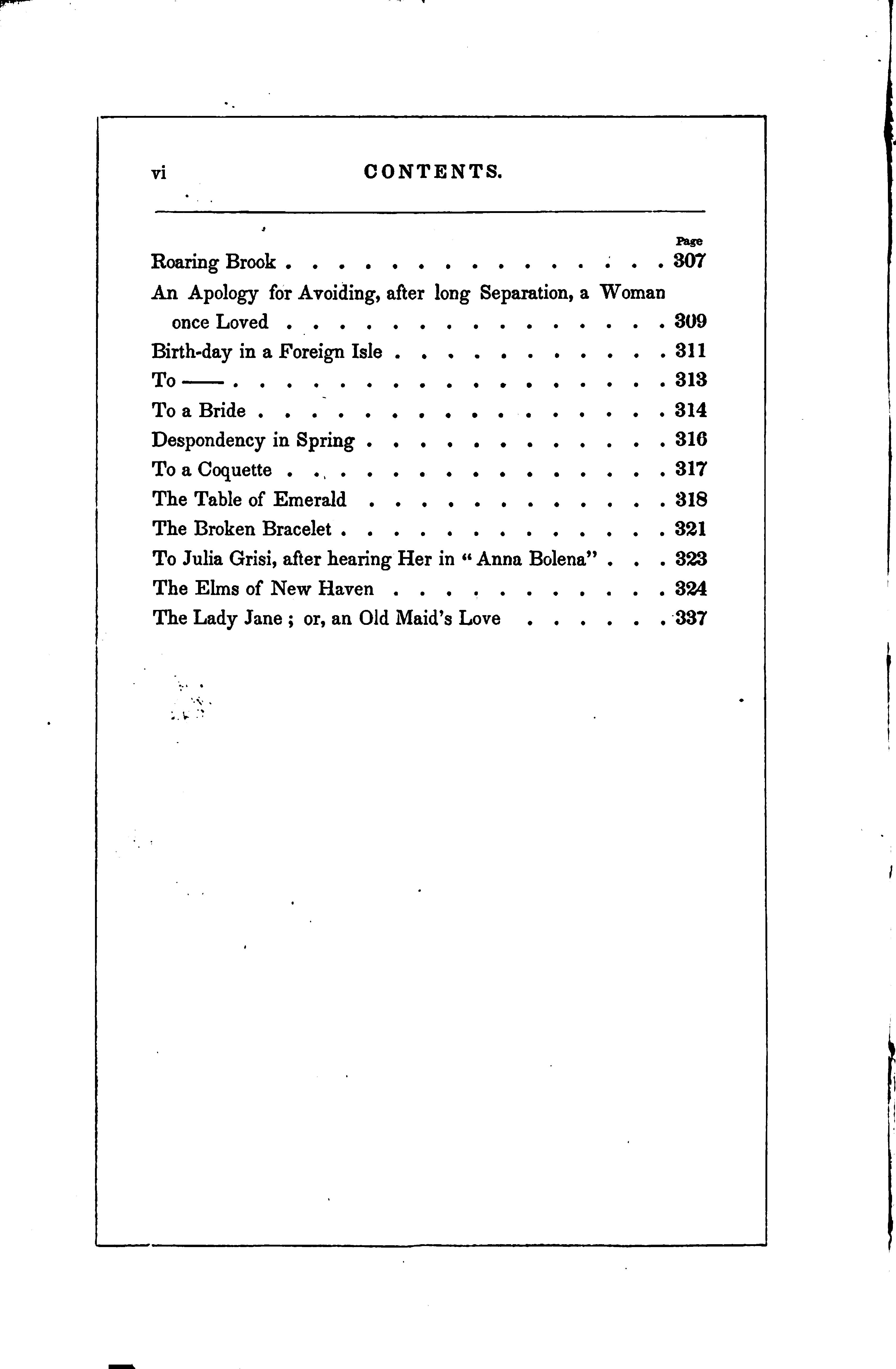

DESIGNED BY LEUTZE.
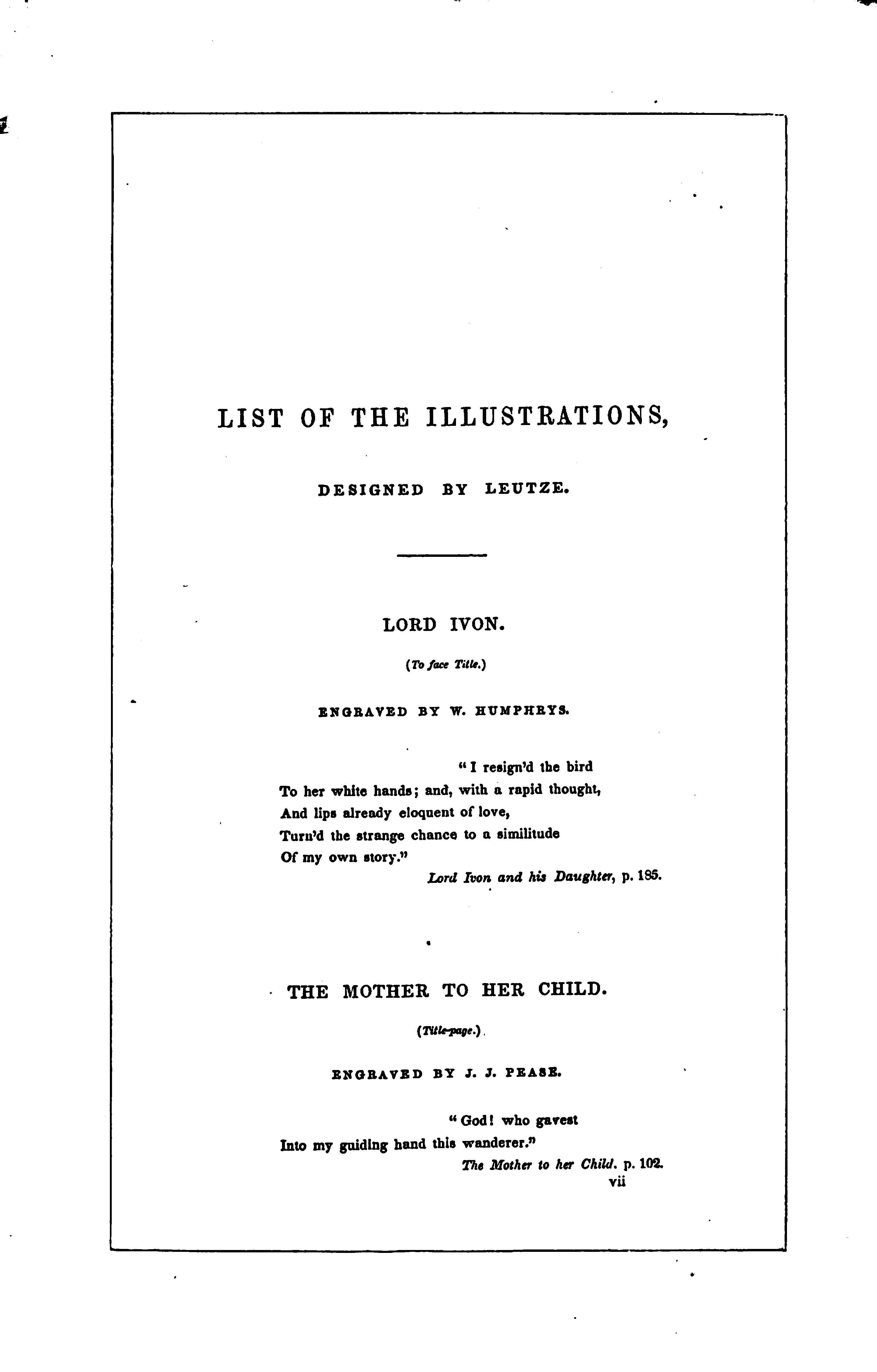
LORD IVON.
(Toface Title.)
ENGRAVED BY W. HUMPHRYS.
"I resign'd the bird To her white hands; and, with a rapid thought, And lips already eloquent oflove, Turn'd the strange chance to a similitude Ofmy own story."
Lord Ivon and his Daughter, p.185.
THE MOTHER TO HER CHILD.
(Title-page.),
ENGRAVED BY J. J. PEASE.
"God! who gavest Into my guiding hand this wanderer."
The Motherto her Child. p. 102. vii

PORTRAIT OF THE AUTHOR.
ENGRAVED BY CHENEY FROM A PAINTING BY LAWRENCE.
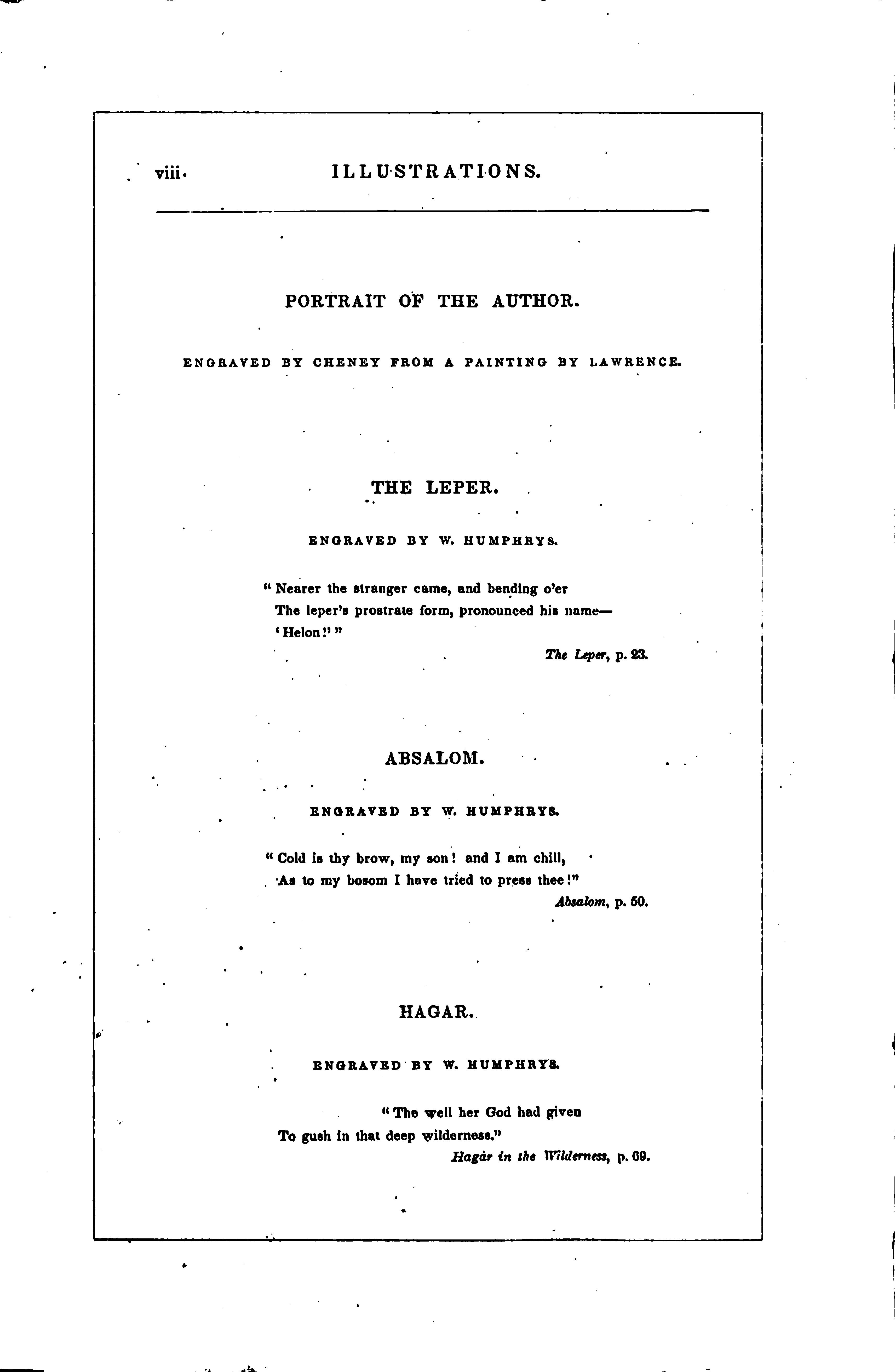
THE LEPER.
ENGRAVED BY W. HUMPHRYS.
"Nearer the stranger came, and bending o'er The leper's prostrate form, pronounced his name'Helon!""
The Leper, p. 23.
ENGRAVED BY W. HUMPHRYS.
"Cold is thy brow, my son! and I am chill, As to my bosom I have tried to press thee!" HAGAR.
ENGRAVED BY W. HUMPHRYS. Absalom, p.50.
"The well her God had given To gush in that deep wilderness," Hagarinthe Wilderness, p.69.

ENGRAVED BY W. HUMPHRYS.
"He raised himself Upon his wasted arm, and stirr'd the coals With difficult energy."
The Dying Alchymist, p. 125.
ENGRAVED BY W. HUMPHRYS.
"I'd rack thee though I knew Athousand lives were perishing in thine."
Parrhasius, p. 134.
THE WIFE'S APPEAL.
ENGRAVED BY W. HUMPHRYS.
"I have told o'er thy powers In secret, as a miser tells his gold."
MELANIE. The Wife's Appeal, p. 166.
ENGRAVED BY W. E. TUCKER. *
"And sang old songs, and gather'd flowers, And passionately bless'd once more life's thrilling hours." Melanie, p.166.
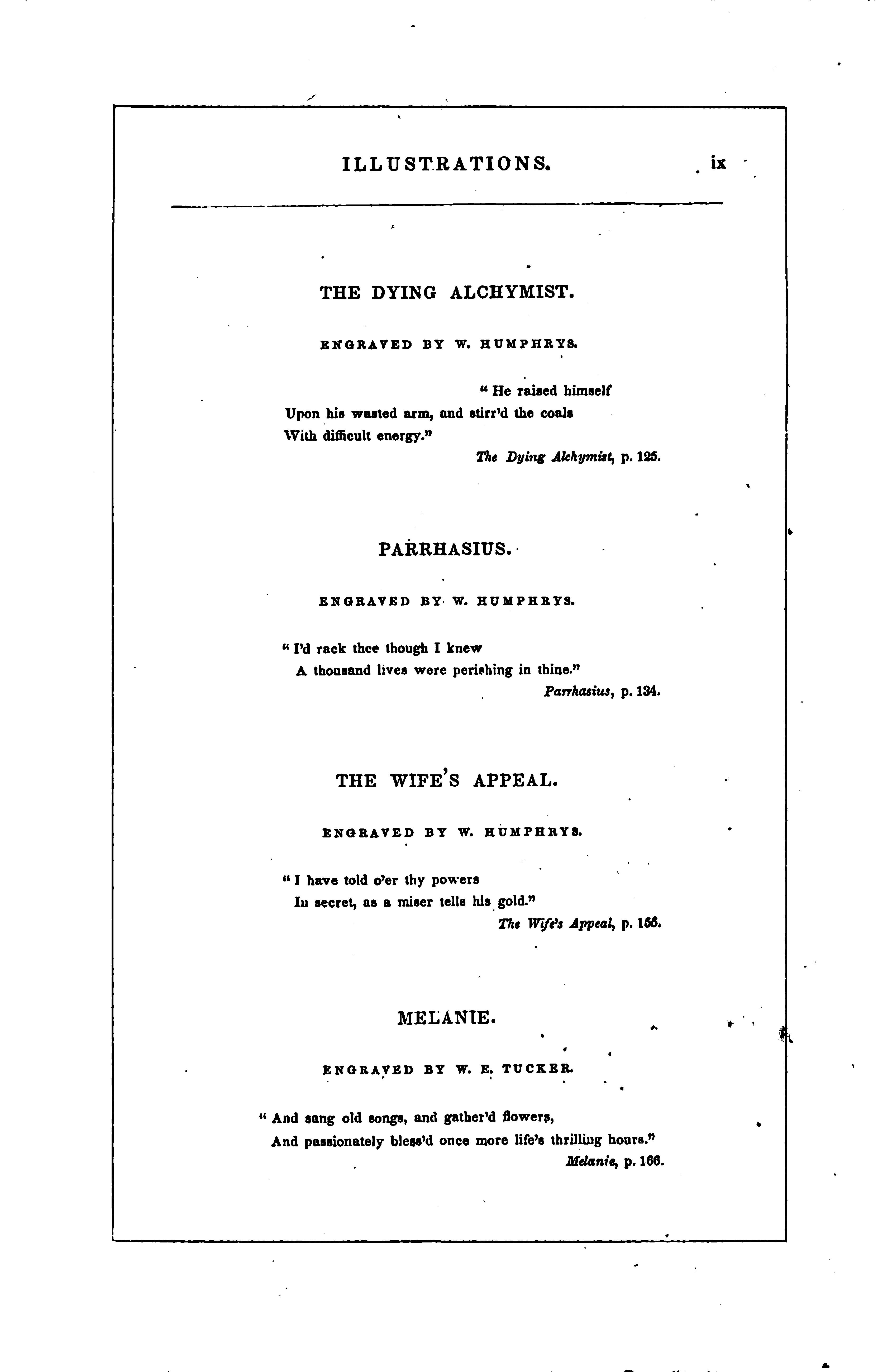

ENGRAVED BY W. HUMPHRYS.
"It is his son! The bridegroom is thy blood-thybrother!"
Melanie, p.179.
ENGRAVED BY W. HUMPHRYS.
"But Iwas poor, with all my bright renown, And lowly born; and she-the Lady Clare!"
Lord Iron and his Daughter, p. 190.
LORD IVON.
ENGRAVED BY W. HUMPHRYS.
"She rose at last, And, oh! so sweetly pale! And thou, my child! My heartmisgave me as I look'd upon thee."
Lord Ivon and his Daughter, p. 197.
ENGRAVED BY W. HUMPHRYS.
"In Vallombrosa's holy shade Where nobles born the friars be."
The Confessional, p.203.
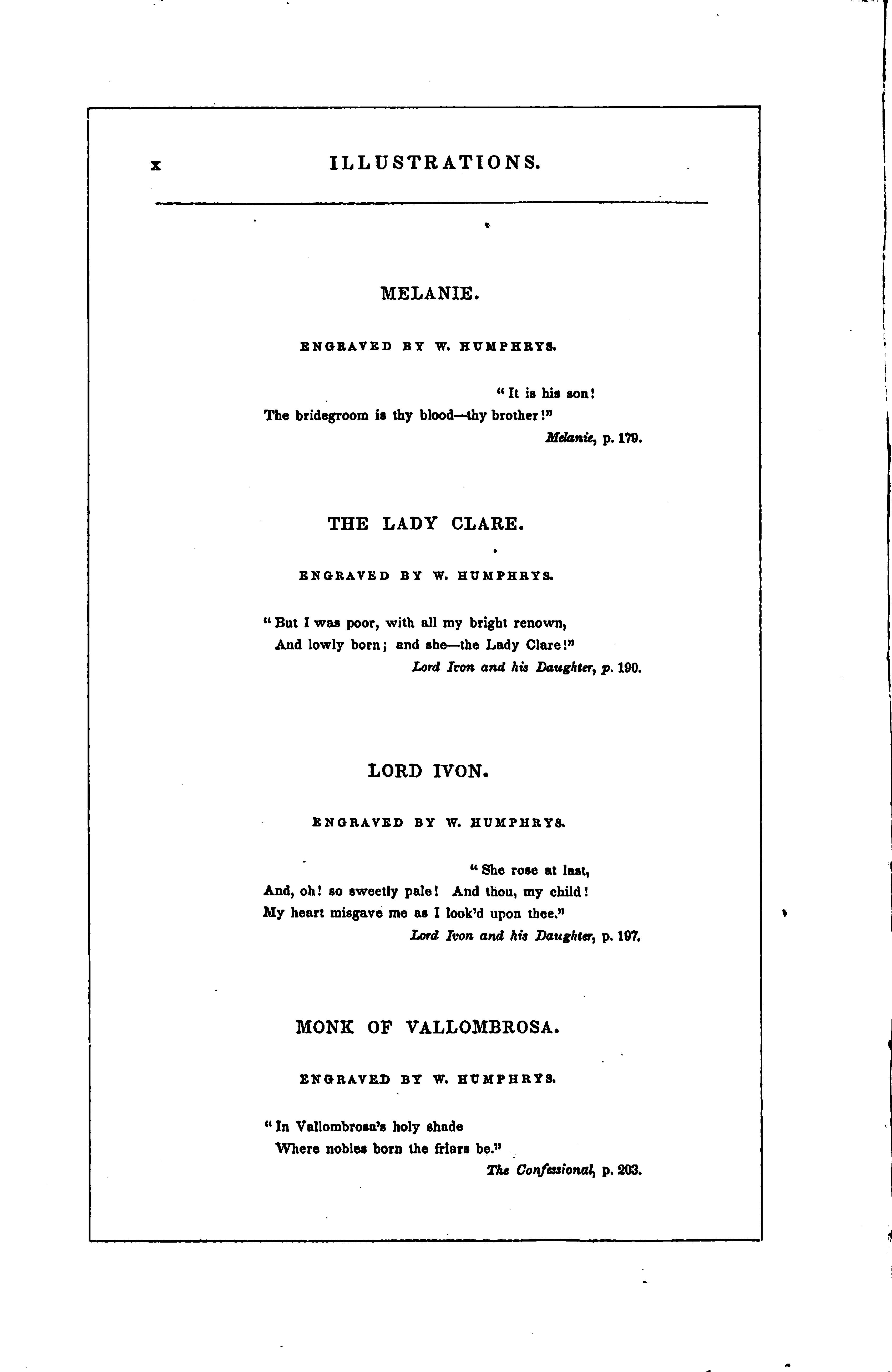

ENGRAVED BY W. E. TUCKER.
"In such a depth ofwilderness The only thinking one."
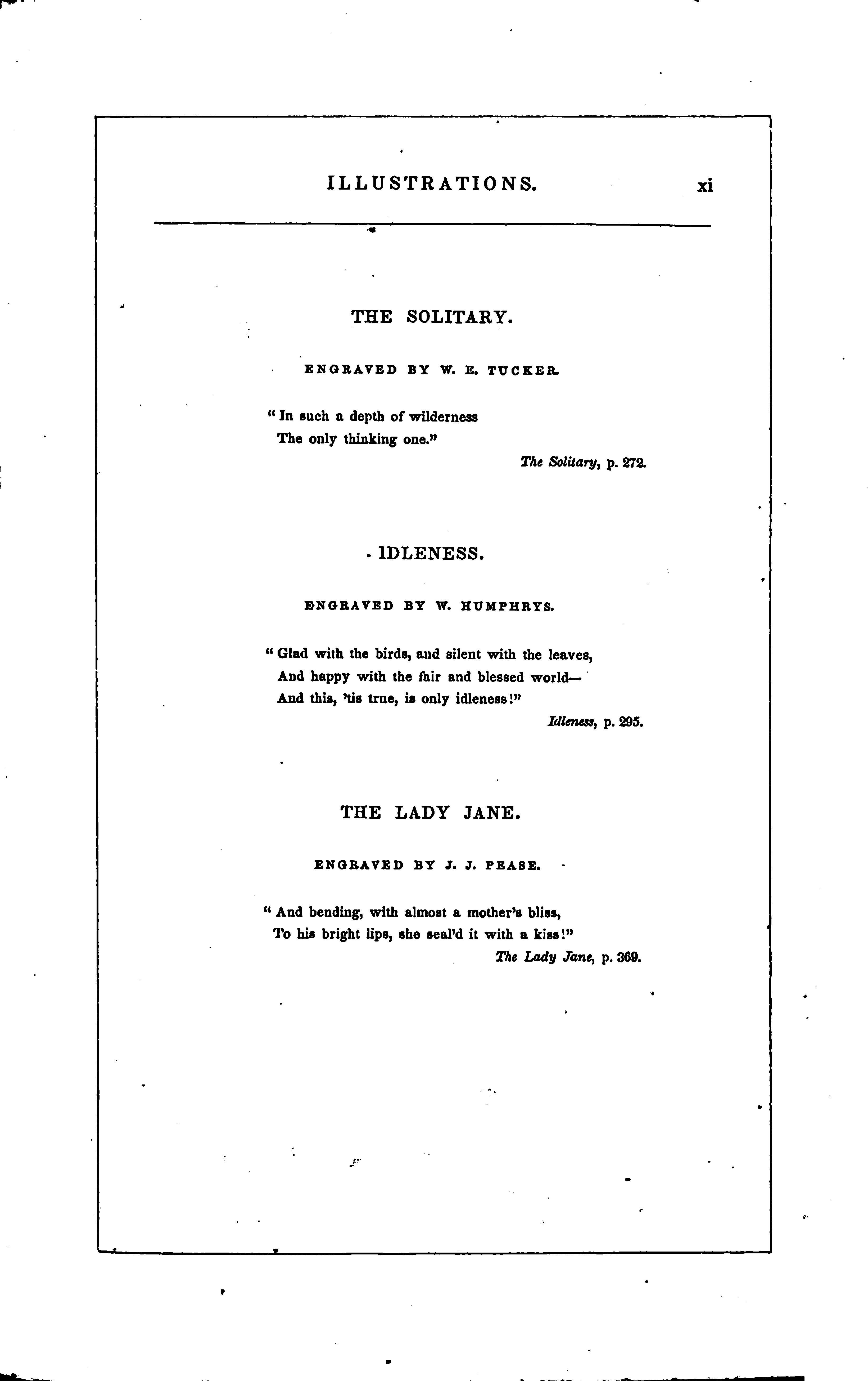
The Solitary, p.272.
. IDLENESS.
ENGRAVED BY W. HUMPHRYS.
"Glad withthe birds, and silent with the leaves, And happy with the fair and blessed worldAnd this, 'tis true, is only idleness!"
Idleness, p.295.
THE LADY JANE.
ENGRAVED BY J. J. PEASE.
"And bending, with almost a mother's bliss, To his bright lips, she seal'd it with a kiss!"
The Lady Jane, p.369.

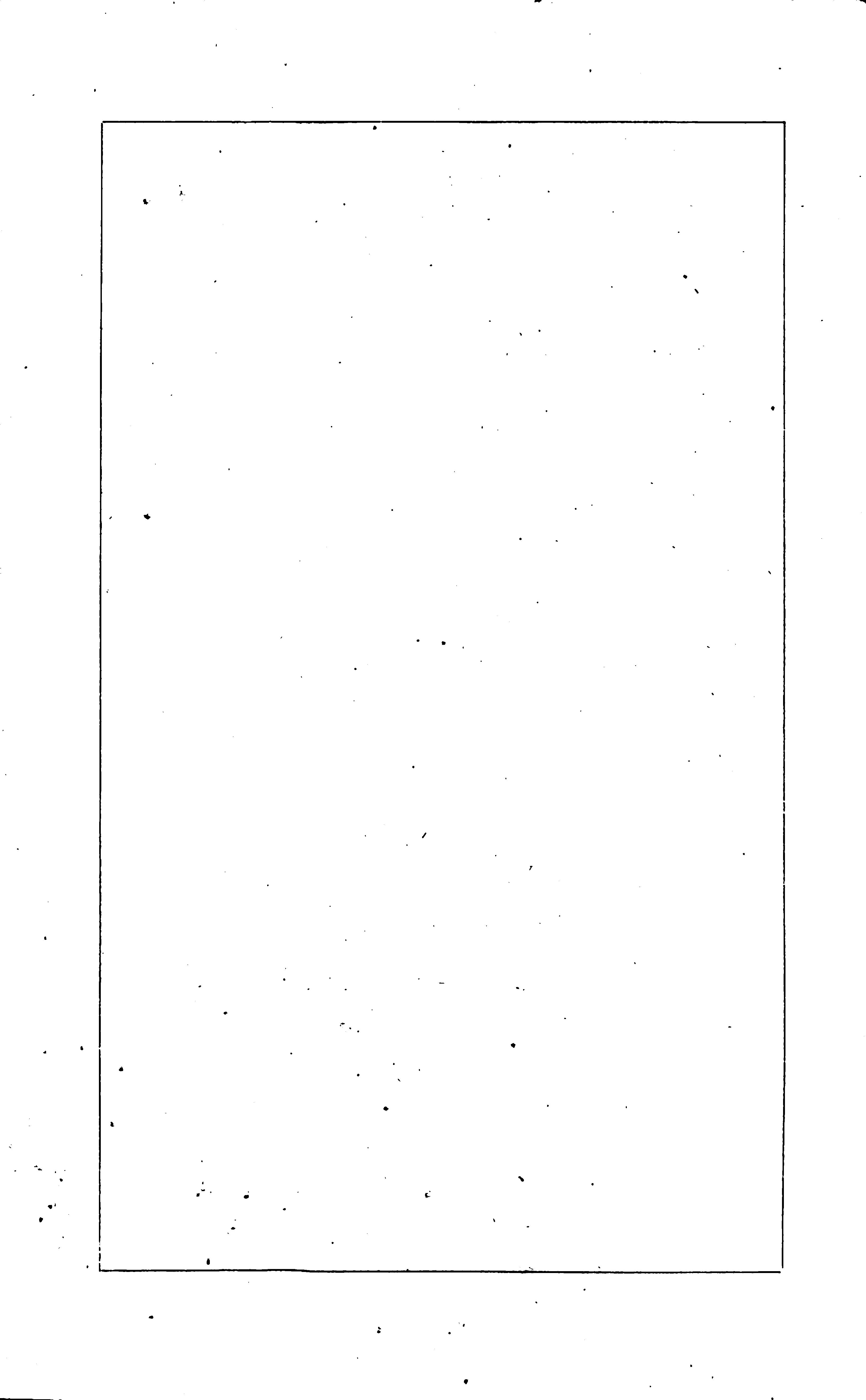

10 NO 1900
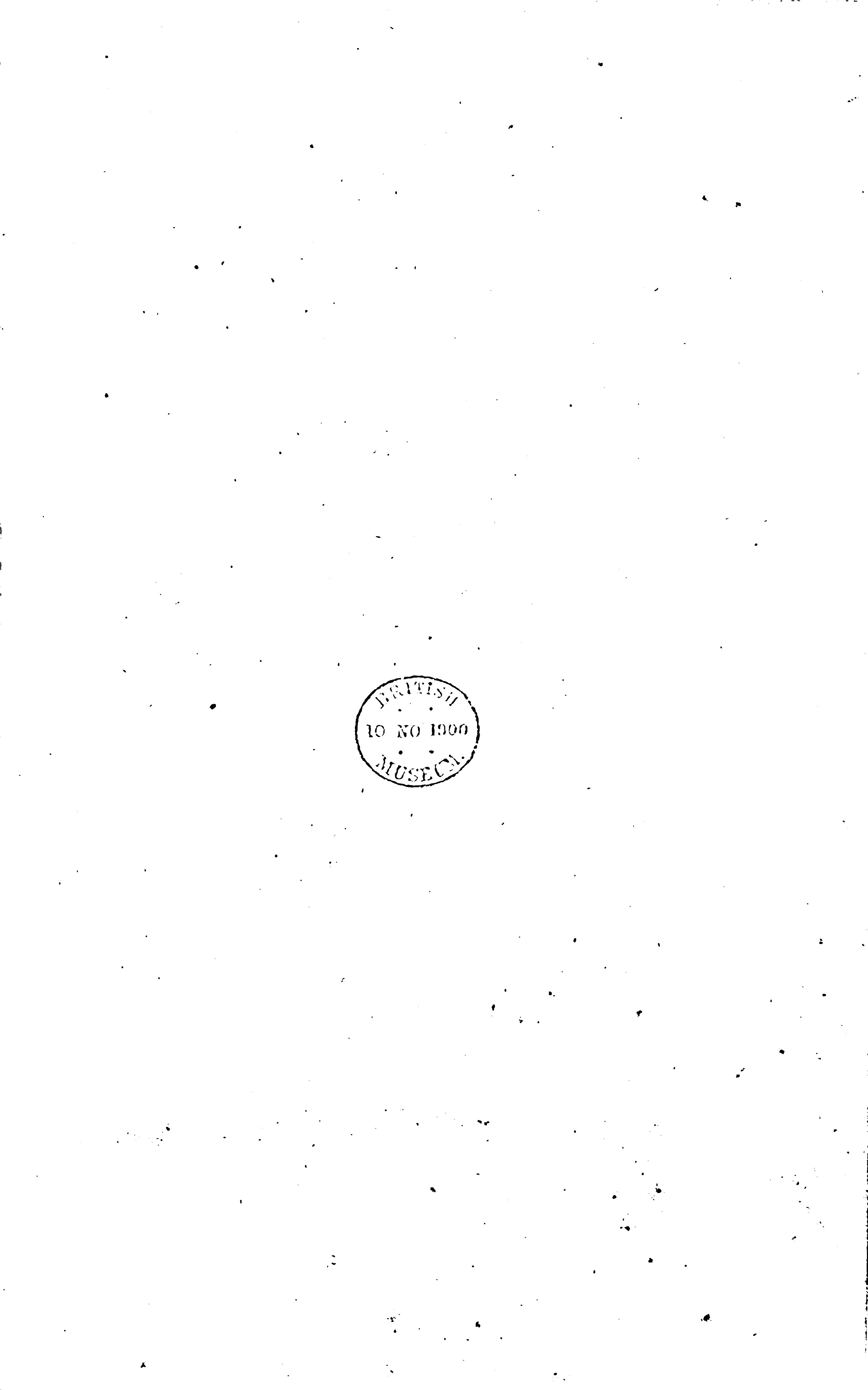

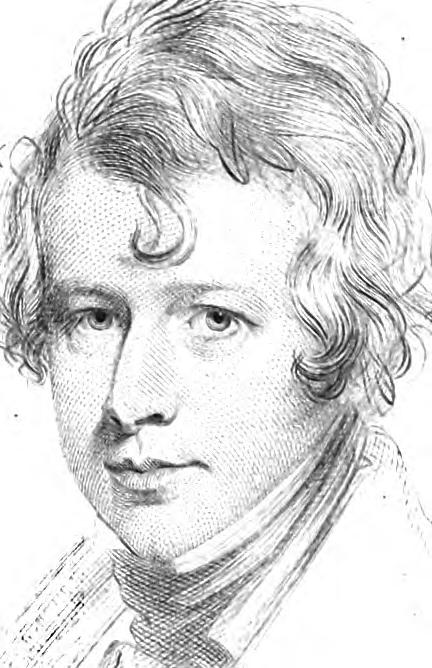
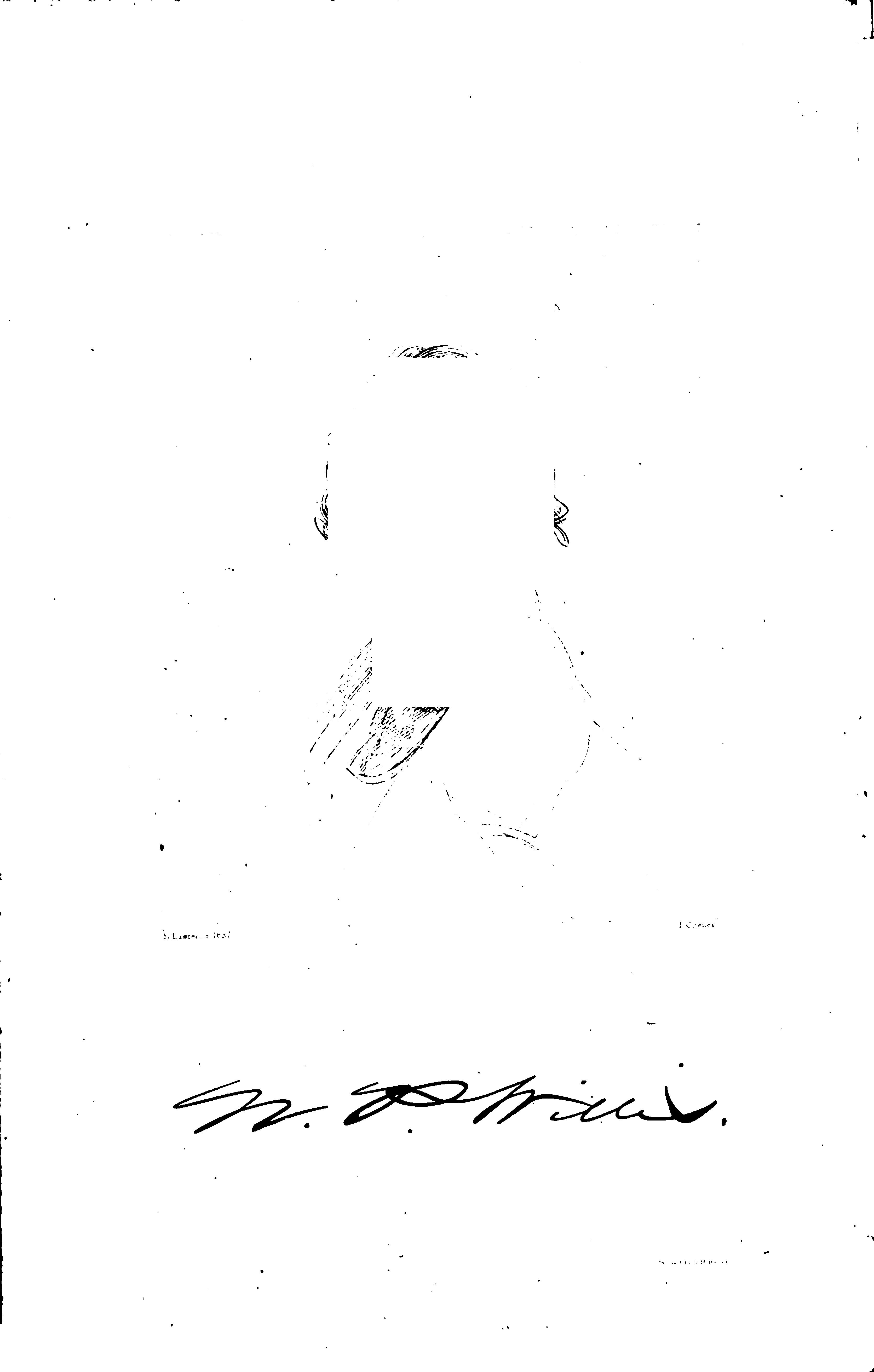
 SLawrence1837
J.Cheney
SLawrence1837
J.Cheney
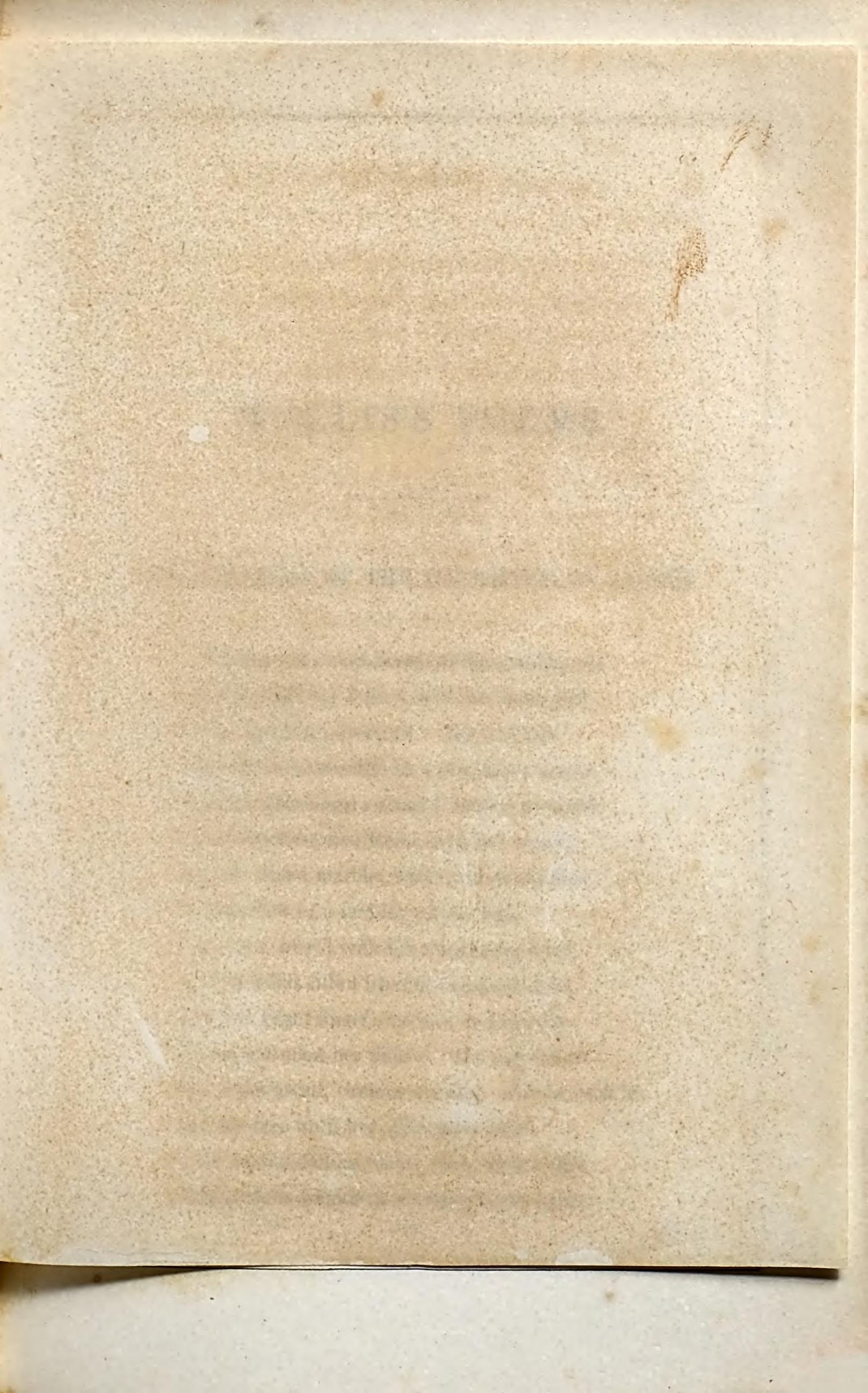

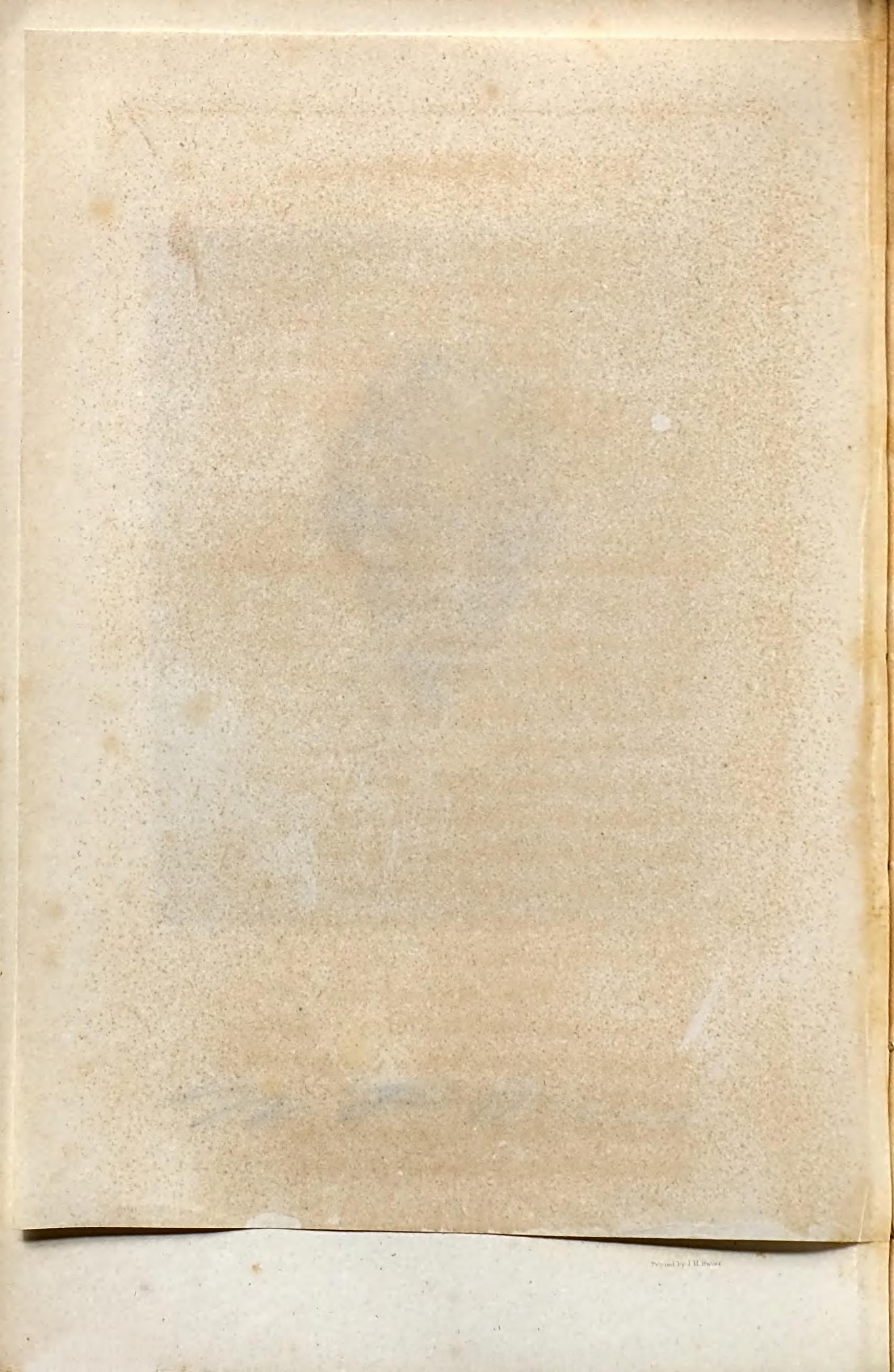
 TryIte
TryIte
FRESHLY the cool breath ofthe coming eve
Stole through the lattice, and the dying girl Felt it upon her forehead. She had lain
Since the hot noontide in a breathless tranceHer thin pale fingers clasp'd within the hand Ofthe heart-broken Ruler, and her breast, Like the dead marble, white and motionless. The shadow ofa leaflay on her lips, And, as it stirr'd with the awakening wind, The dark lids lifted from her languid eyes,
And her slight fingers moved, and heavily She turn'd upon her pillow. He was thereThe same loved, tireless watcher, and she look'd Into his face until her sight grew dim
With the fast-falling tears; and, with a sigh Oftremulous weakness murmuring his name,
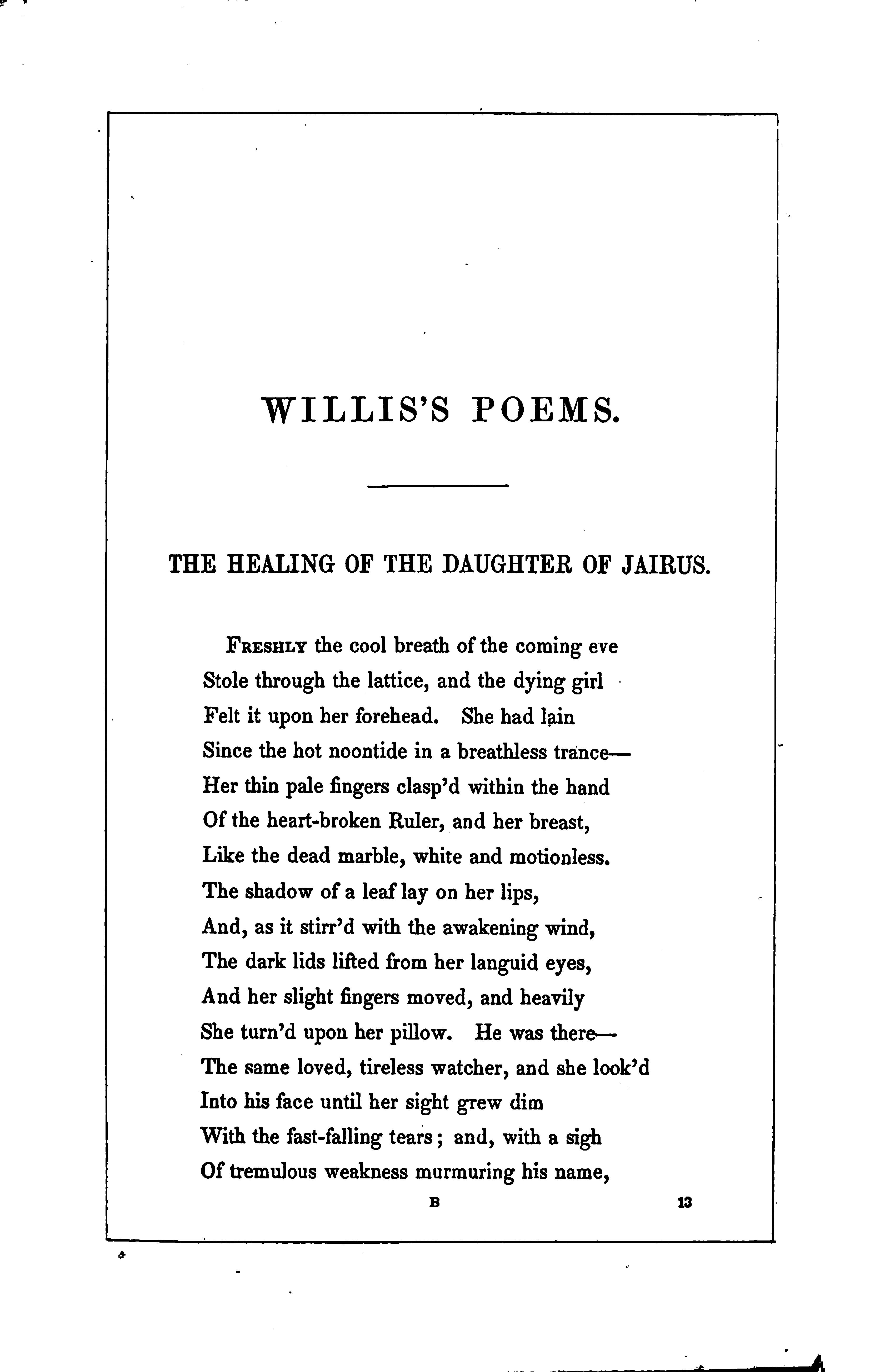

She gently drew his hand upon her lips, And kiss'd it as she wept. The old man sunk Upon his knees, and in the drapery Ofthe rich curtains buried up his face; And when the twilight fell, the silken folds Stirr'd with his prayer, but the slight hand he held Had ceased its pressure ; and he could not hear, In the dead utter silence, that a breath Came through her nostrils; and her temples gave To his nice touch no pulse ; and at her mouth He held the lightest curl that on her neck Lay with a mocking beauty, and his gaze. Ached with its deathly stillness.
It was nightAnd, softly, o'er the Sea ofGalilee, Danced the breeze-ridden ripples to the shore, Tipp'd with the silver sparkles of the moon. The breaking waves play'd low.upon the beach Their constant music, but the air beside Was still as starlight, and the Saviour's voice, In its rich cadences unearthly sweet, Seem'd like some just-born harmony in the air, Waked bythe power of wisdom.. On a rock, With the broad moonlight falling on his brow, He stood and taught the people. Athis feet Lay his small scrip, and pilgrim's scallop-shell,
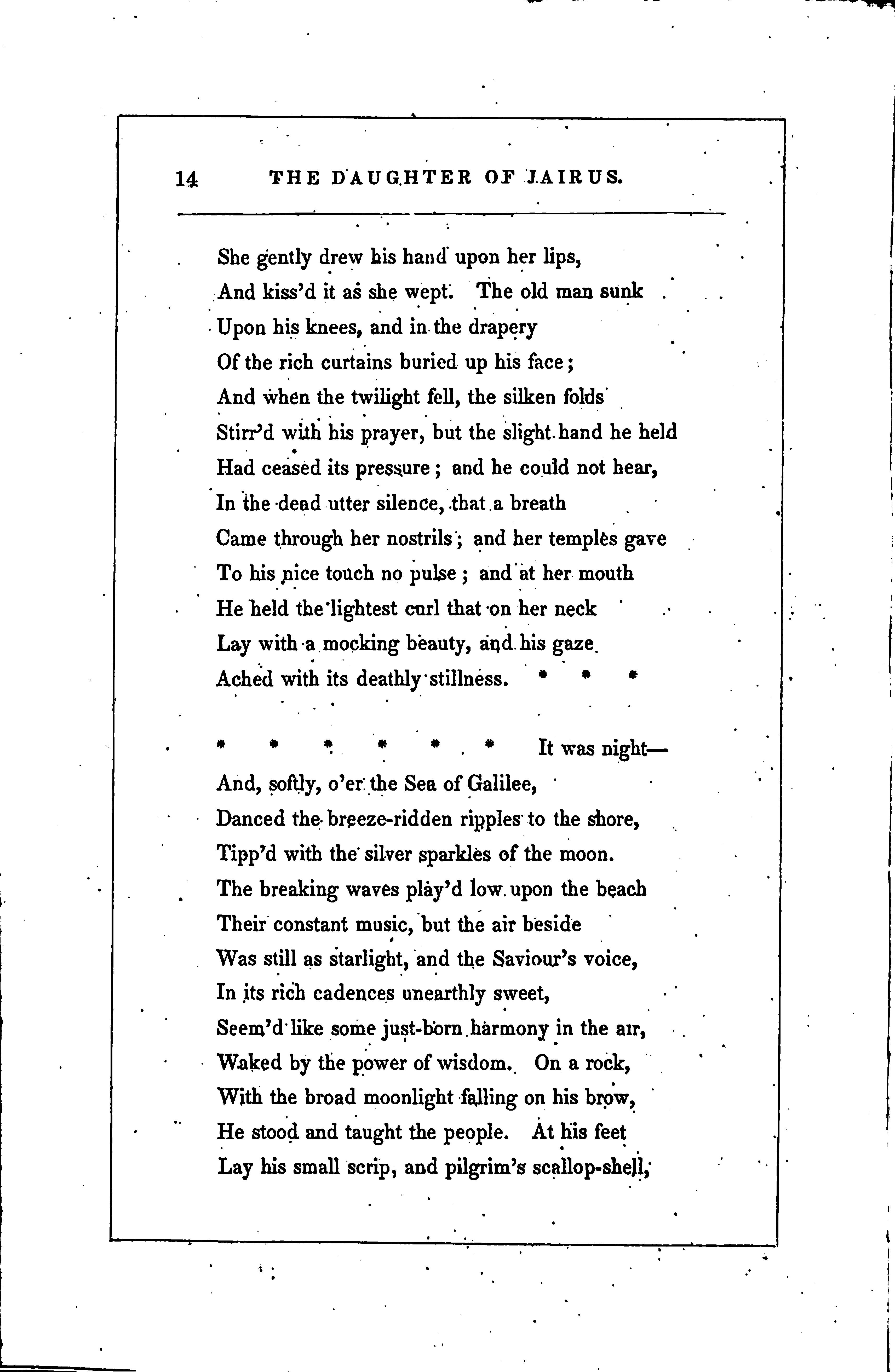

And staff-for they had waited by the sea
Till he came o'er from Gadarene, and pray'd For his wont teachings as he came to land. His hair was parted meekly on his brow, And the long curls from off his shoulders fell, As he lean'd forward earnestly, and still . The same calm cadence, passionless and deepAnd in his looks the same mild majesty And in his mien the sadness mix'd with power- .. Fill'd them with love and wonder. Suddenly, As on his words entrancedly they hung, The crowd divided, and among them stood . JAIRUS THE RULER. With his flowing robe Gather'd in haste about his loins, he came,
And fix'd his eyes on Jesus.. Closer drew The twelve disciples to their Master's side ; And silently the people shrunk away, And left the haughty Ruler in the midst Alone. A moment longer on the face Ofthe meek Nazarene he kept his gaze, And, as the twelve look'd on him, by the light. Of the clear moon they saw a glistening tear Steal to his silver beard ; and, drawing nigh Unto the Saviour's feet, he took the hem
Of his coarse mantle, and with trembling hands . Press'd it upon his lids, and murmur'd low, "Master! my daughter!"
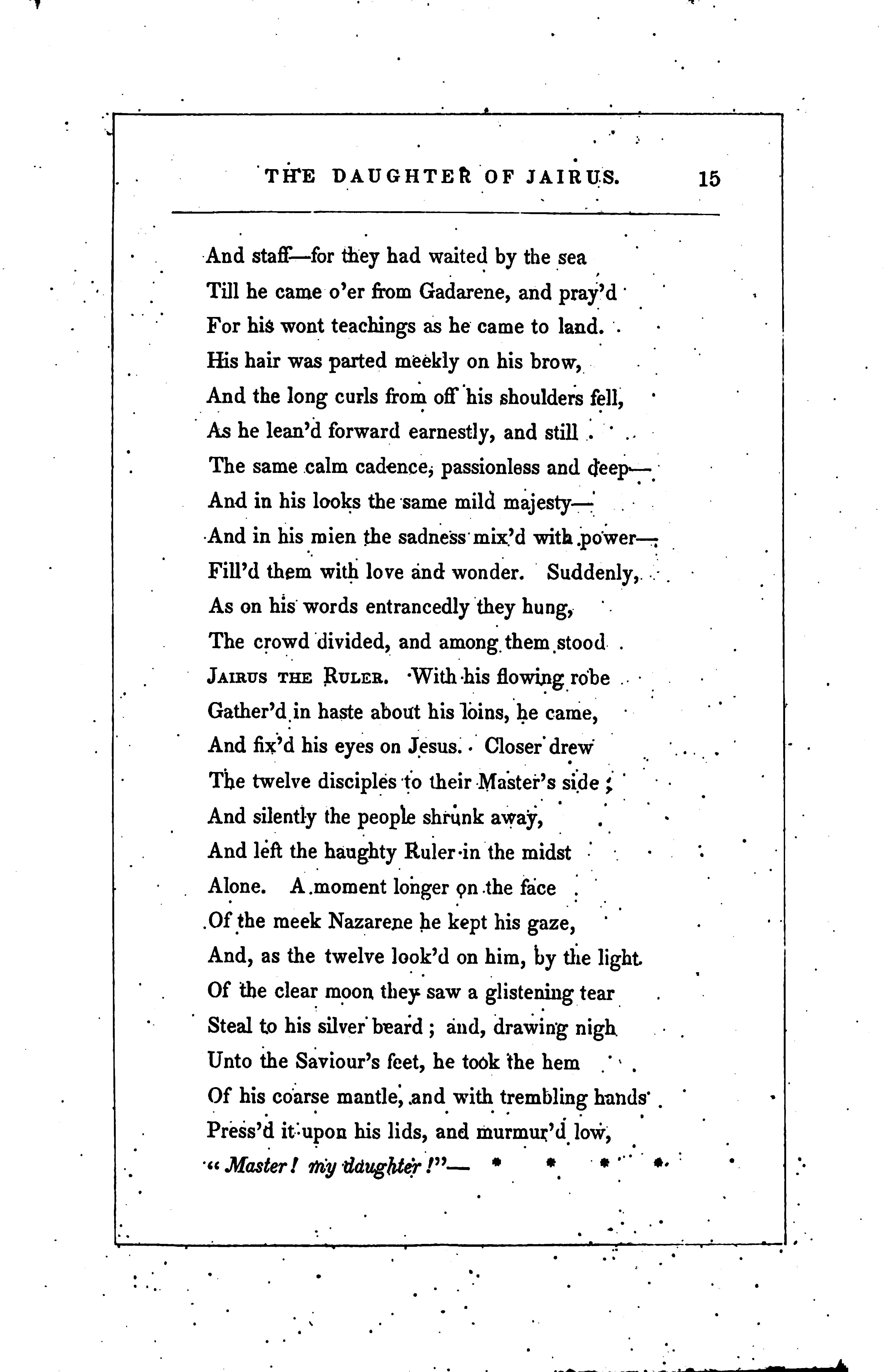

The same silvery light,
That shone upon the lone rock by the sea, Slept on the Ruler's lofty capitals, As at the door he stood, and welcomed in Jesus and his disciples. All was still. The echoing vestibule gave back the slide Oftheir loose sandals, and the arrowy beam
Of moonlight, slanting to the marble floor, Lay like a spell of silence inthe rooms, As Jairus led them on. With hushing steps
He trod the winding stair ; but ere he touch'd The latchet, from within a whisper came, "Troublethe Master not-for she is dead!" And his faint hand fell nerveless at his side, And his steps falter'd, and his broken voice Choked in its utterance ; but a gentle hand Was laid upon his arm, and in his ear
The Saviour's voice sank thrillingly and low, " She is not dead; but sleepeth."
They pass'd in.
The spice-lamps in the alabaster urns
Burn'd dimly, and the white and fragrant smoke Curl'd indolently on the chamber walls.
The silken curtains slumber'd in their folds
Not even a tassel stirring in the airAnd as the Saviour stood beside the bed,
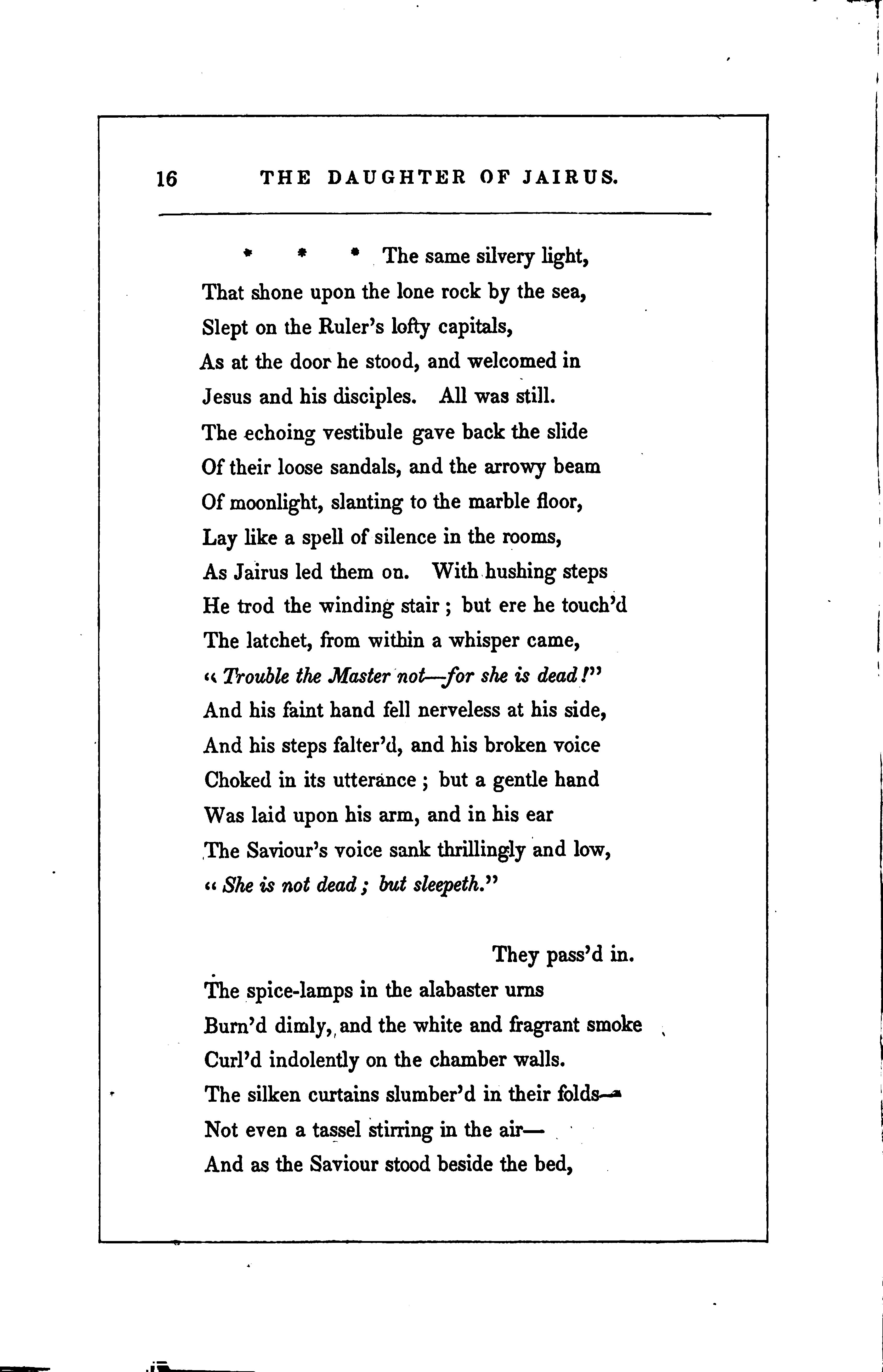

And pray'd inaudibly, the Ruler heard . The quickening division ofhis breath As he grew earnest inwardly. There came A gradual brightness o'er his calm, sad face ; And, drawing nearer to the bed, he moved The silken curtains silently apart, And look'd upon the maiden.
Like a form
Ofmatchless sculpture in her sleep she lay The linen vesture folded on her breast, And over it her white transparent hands, The blood still rosy in their tapering nails. A line ofpearl ran through her parted lips, And in her nostrils, spiritually thin, The breathing curve was mockingly like life ; And round beneath the faintly tinted skin Ranthe light branches ofthe azure veins ; And on her cheek the jet lash overlay, Matching the arches pencill'd on her brow. Her hair had been unbound, and falling loose Upon her pillow, hid her small round ears In curls ofglossy blackness, and about Her polish'd neck, scarce touching it, they hung, Like airy shadows floating as they slept. 'Twas heavenly beautiful. The Saviour raised Her hand from off her bosom, and spread out
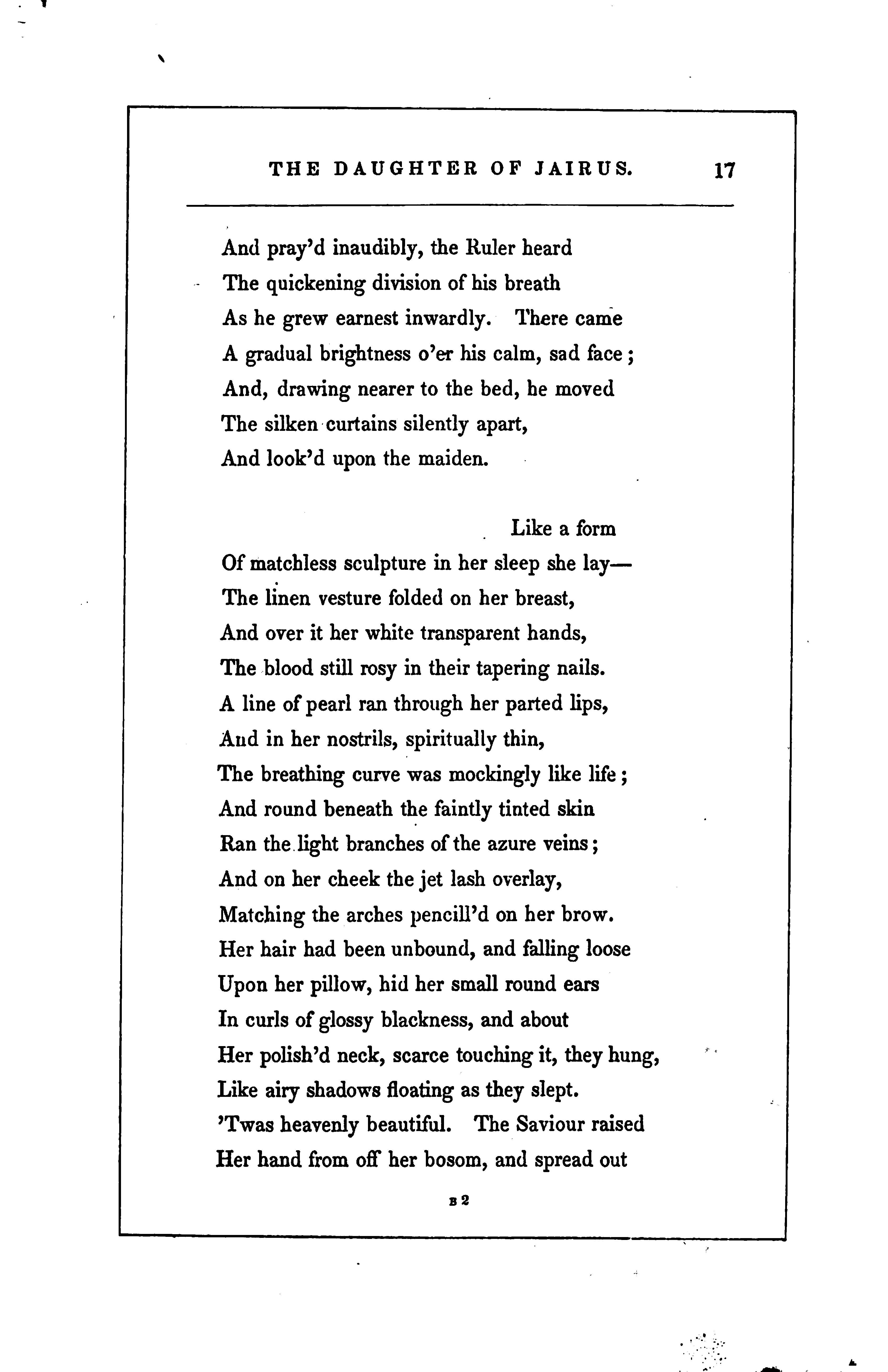

The snowy fingers in his palm, and said, "Maiden! Arise!"--and suddenly a flush
Shot o'er her forehead, and along her lips
And through her cheek the rallied colour ran ;
And the still outline ofher graceful form
Stirr'd inthe linen vesture ; and she clasp'd
The Saviour's hand, and fixing her dark eyes
Full on his beaming countenance AROSE !
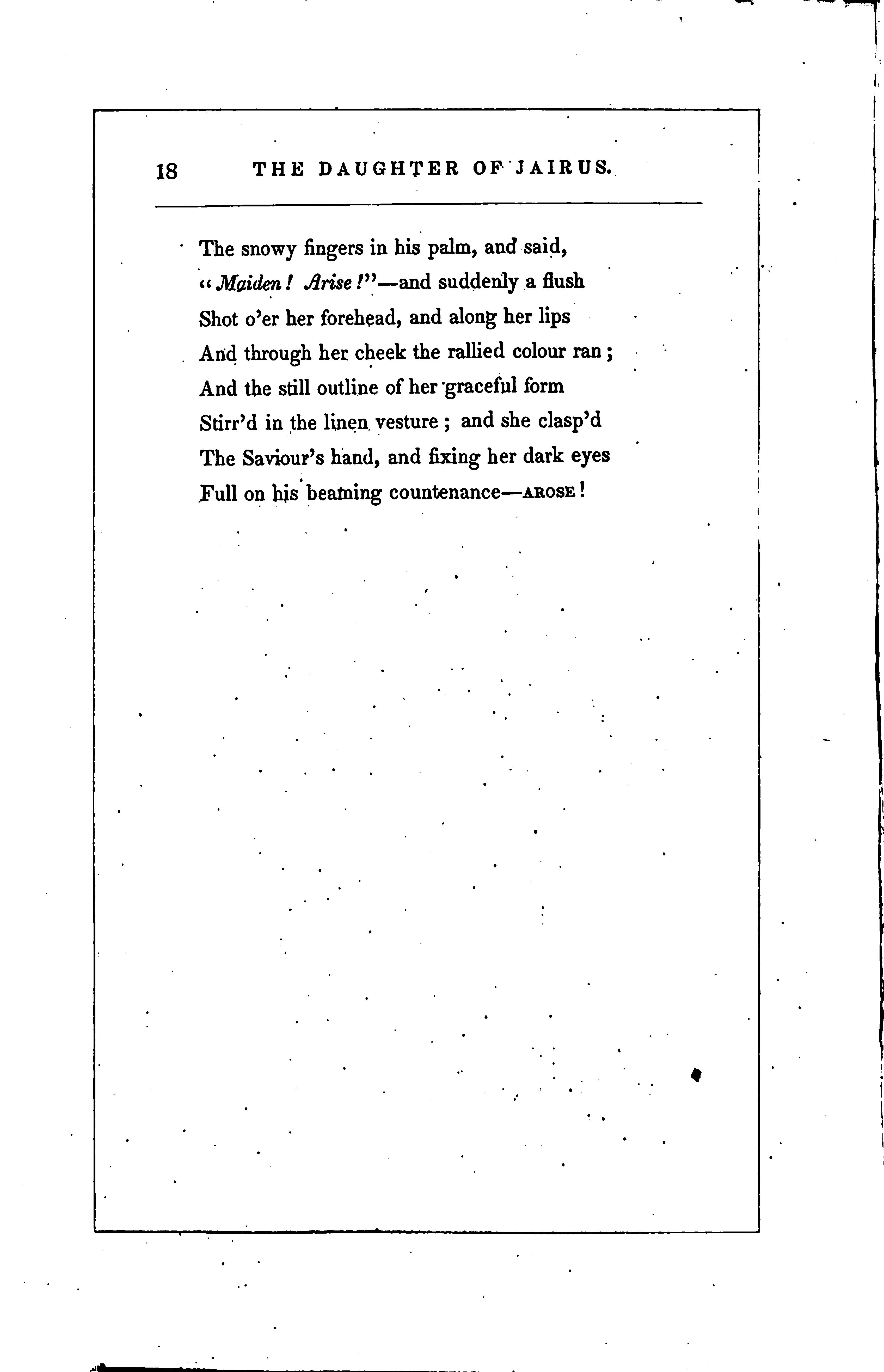

"ROOM for the leper ! Room!" And, as he came, The cry pass'd on Room for the leper! Room !?"
Sunrise was slanting on the city gates
Rosy and beautiful, and from the hills
The early risen poor were coming in, Duly and cheerfully to their toil, and up Rose the sharp hammer's clink, and the far hum
Ofmoving wheels and multitudes astir, And all that in a city murmur swellsUnheard but by the watcher's weary ear, Aching with night's dull silence, or the sick Hailing the welcome light and sounds that chase.
The death-like images ofthe dark away.
"Room for the leper!" And aside they stood Matron, and child, and pitiless manhood-all Who met him on his way and let him pass. And onward through the open gate he came, A leper with the ashes on his brow, Sackcloth about his loins, and on his lip
A covering, stepping painfully and slow, And with a difficult utteranee, like one
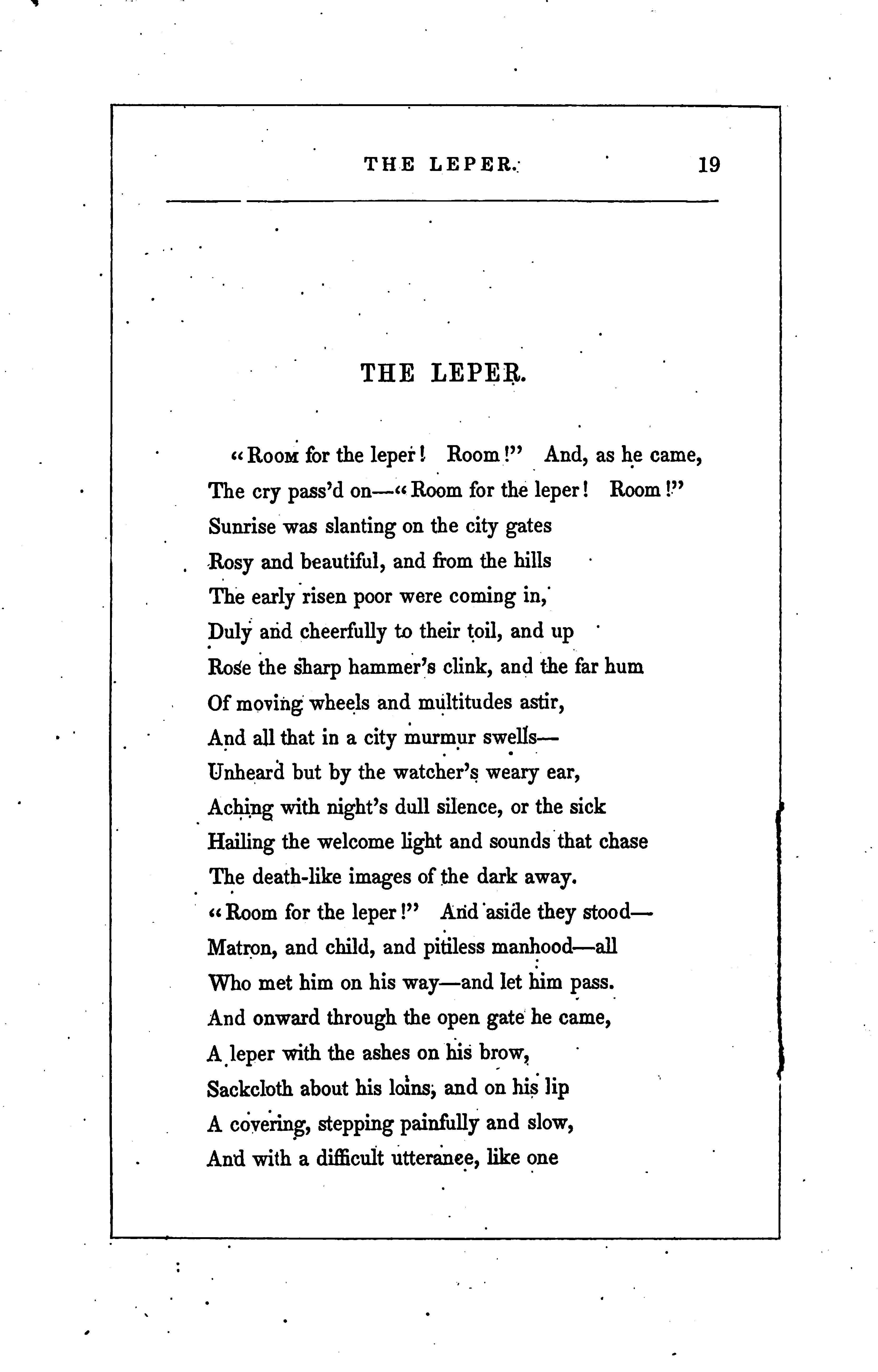

Whose heart is with an iron nerve put down, Crying, "Unclean ! unclean!"
'Twas nowthe first
OftheJudean autumn, and the leaves,
Whose shadows lay so still upon his path, Had put their beauty forth beneath the eye
OfJudah's palmiest noble. He was young, And eminently beautiful, and life
Mantled in eloquent fulness on his lip, And sparkled in his glance ; and in his mien
There was a gracious pride that every eye
Follow'd with benisons-and this was he! With the soft airs of summer there had come
A torpor on his frame, which not the speed
Of his best barb, nor music, nor the blast
Ofthe bold huntsman's horn, nor aught that stirs
The spiritto its bent, might drive away.
The blood beat not as wont within his veins ; Dimness crept o'er his eye ; a drowsy sloth
Fetter'd his limbs like palsy, and his mien,
With all its loftiness, seem'd struck with eld. Even his voice was changed ; a languid moan
Taking the place of the clear silver key ; And brain and sense grewfaint, as ifthe light And very air were steep'd in sluggishness. He strove with it awhile, as manhood will,
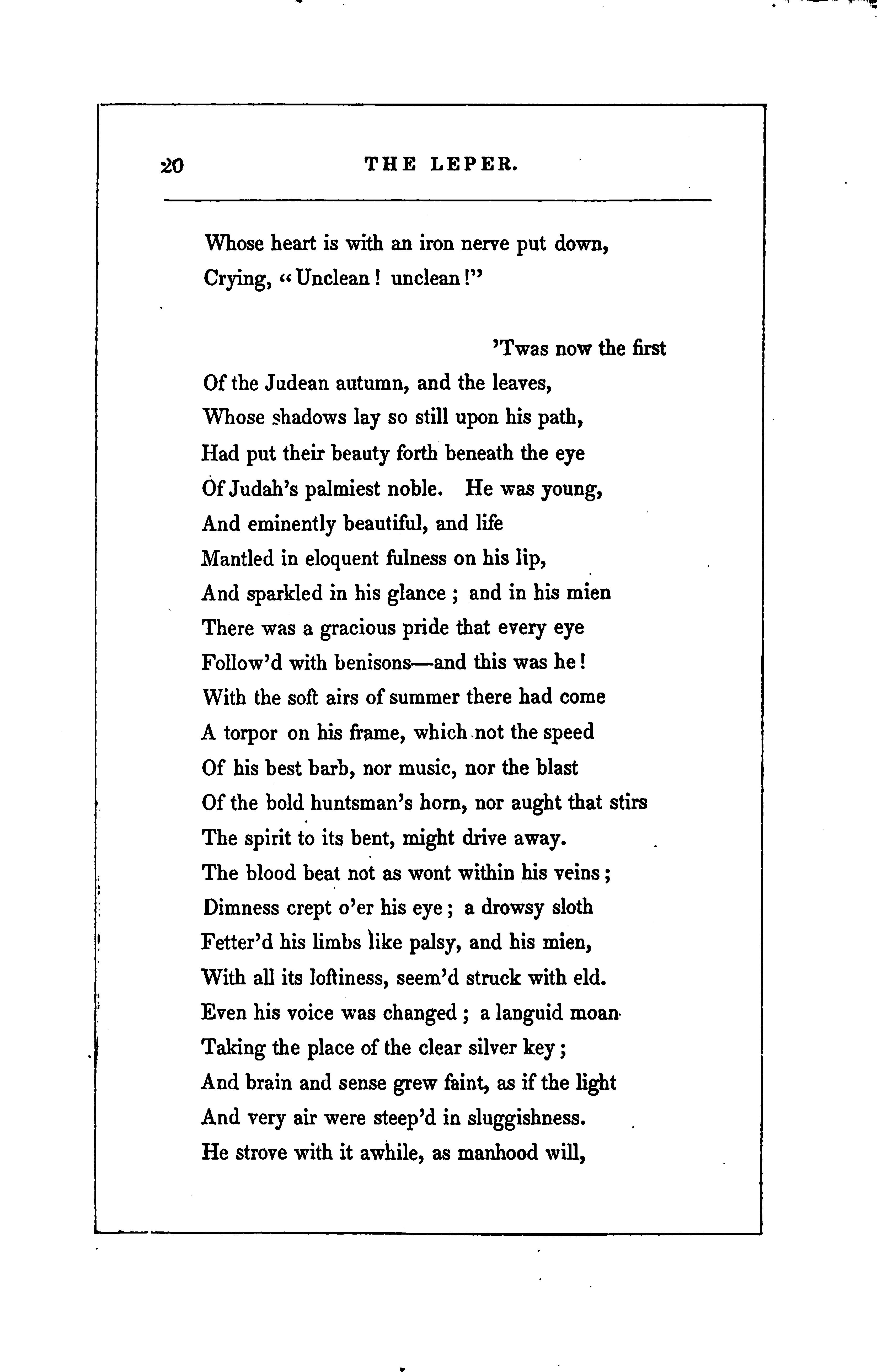

Ever too proud for weakness, till the rein
Slacken'd within his grasp, and in its poise
The arrowyjereed like an aspen shook.
Day after day, he lay as if in sleep.
His skin grew dry and bloodless, and white scales, Circled with livid purple, cover'd him. And then his nails grew black, and fell away
From the dull flesh about them, and the hues
Deepen'd beneath the hard unmoisten'd scales,
And from their edges grew the rank white hair, -And Helon was a leper!
Day was breaking, When at the altar ofthe temple stoo
The holy priest ofGod. The incense lamp
Burn'd with a struggling light, and a low chant
Swell'd through the hollow arches ofthe roof
Like an articulate wail, and there, alone,
Wasted to ghastly thinness, Helon knelt.
The echoes ofthe melancholy strain
Died in the distant aisles, and he rose up,
Struggling with weakness, and bow'd down his head
Unto the sprinkled ashes, and put off
His costly raiment for the leper's garb: And with the sackcloth round him, and his lip
Hid in a loathsome covering, stood still,
Waitingto hear his doom:-
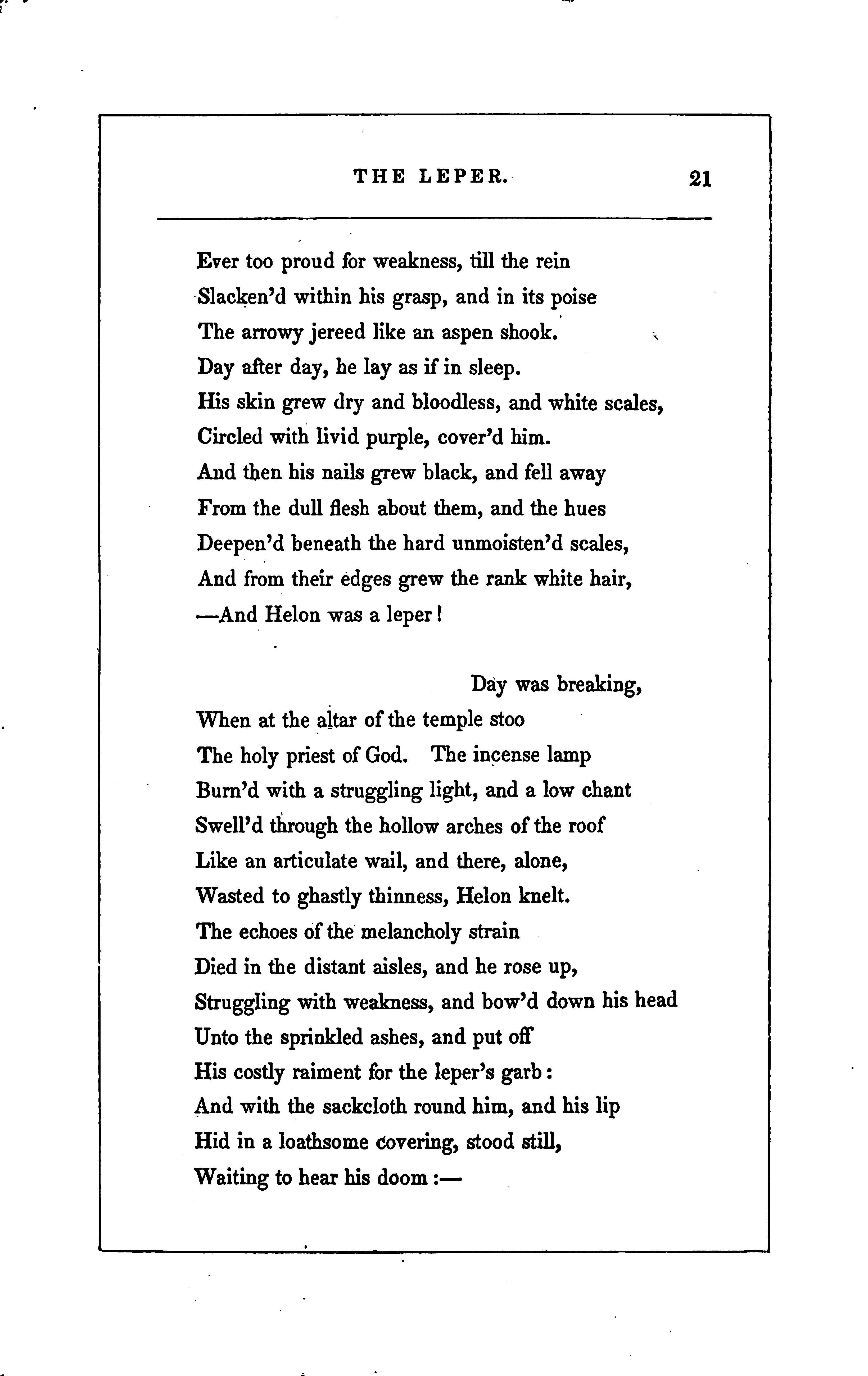

Depart! depart, O child
Of Israel, from the temple ofthy God ! For He has smote thee with His chastening rod; And to the desert-wild, From all thou lov'st away, thy feet must flee, That from thy plague His people may be free.
Depart and come not near The busy mart, the crowded city, more; Nor set thy foot a human threshold o'er ; And stay thou not to hear Voices that call thee in the way; and fly From all whoin the wilderness pass by.
Wet not thy burning lip
In streams that to a human dwelling glide; Nor rest thee where the covert fountains hide ; Nor kneel thee down to dip
The water where the pilgrim bends to drink; By desert well or river's grassy brink ;
And pass thou not between The weary traveller and the cooling breeze ; And lie not down to sleep beneath the trees Where human tracks are seen ; Nor milkthe goat that browseth on the plain, Nor pluck the standing corn, or yellow grain.
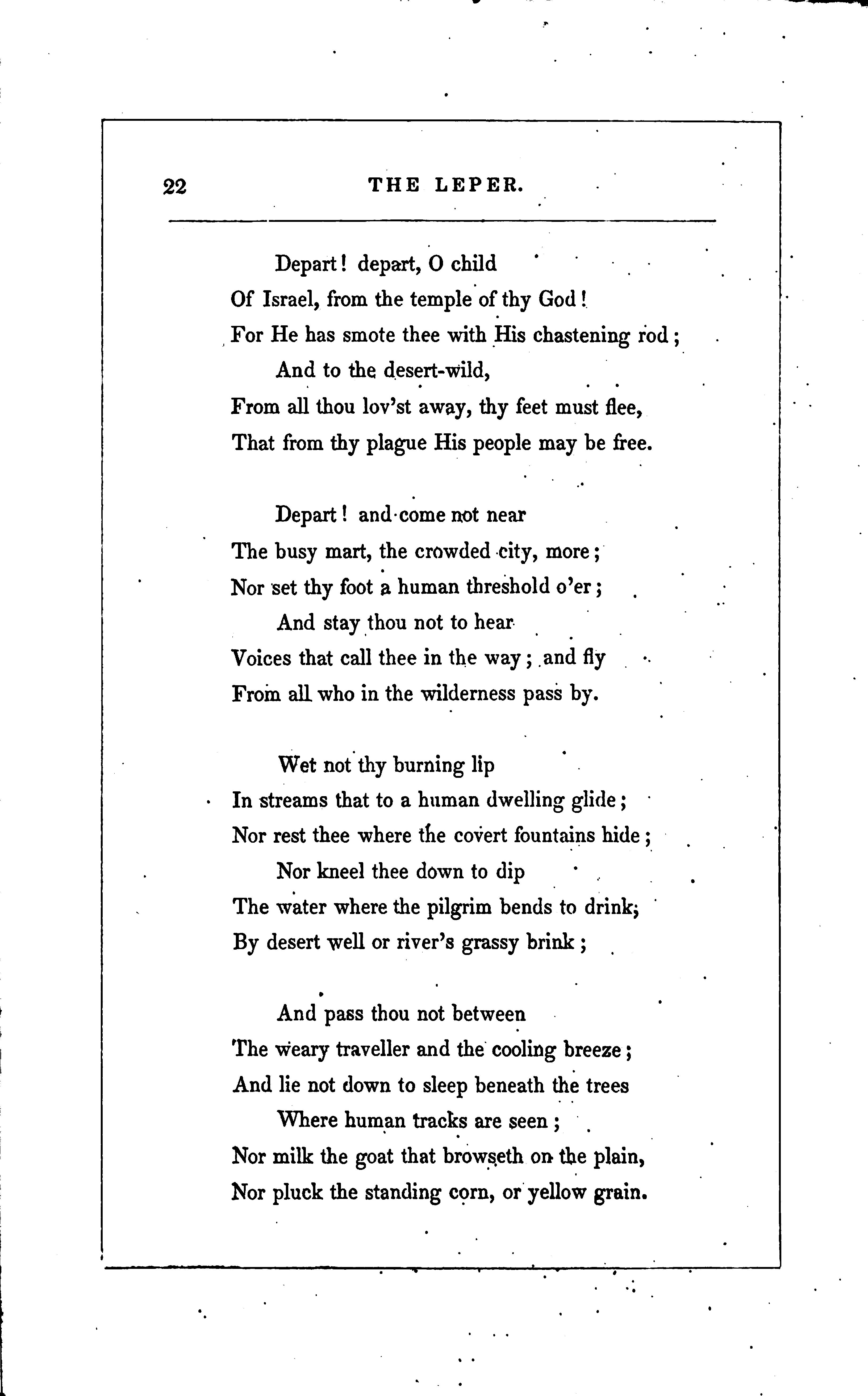

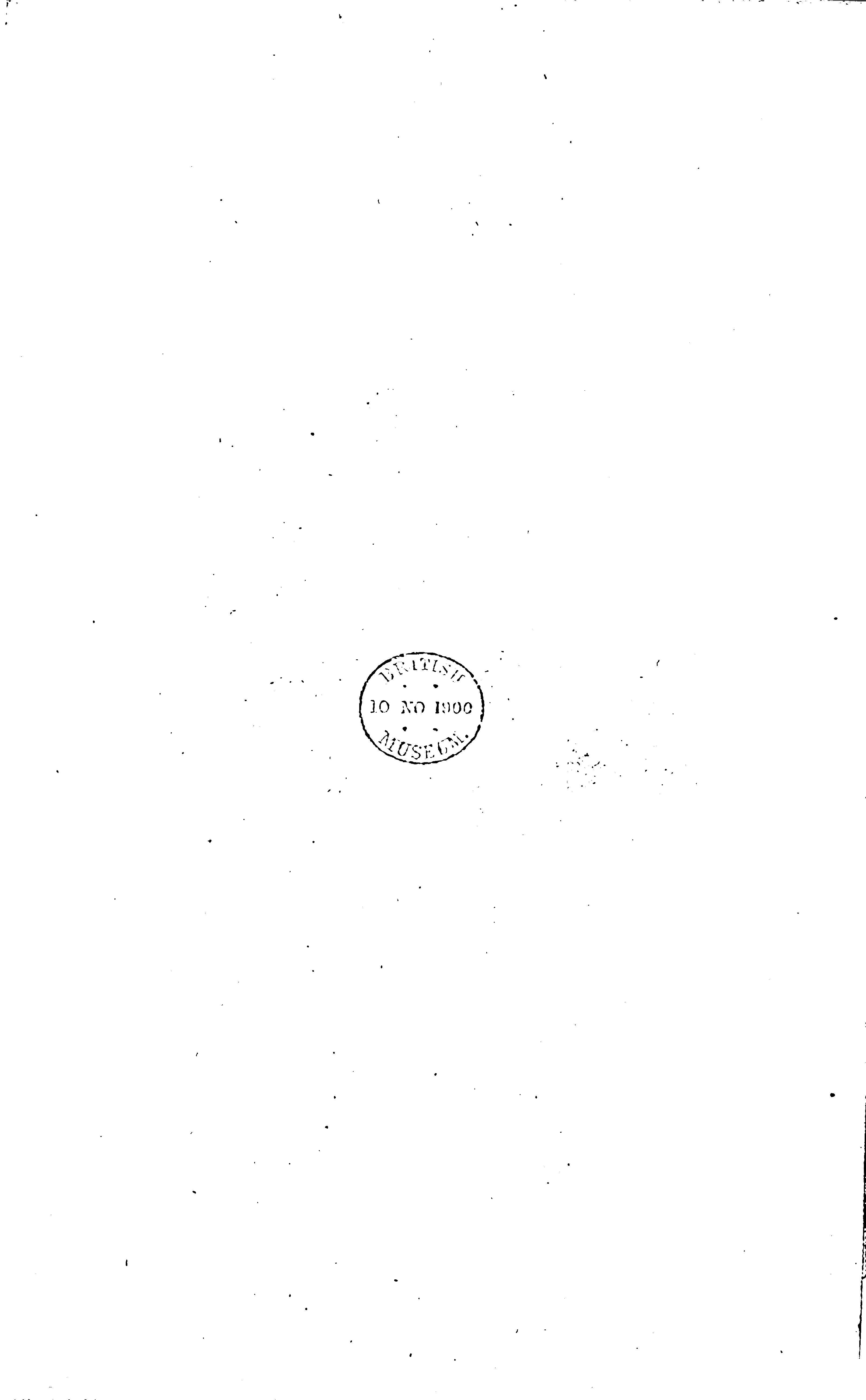

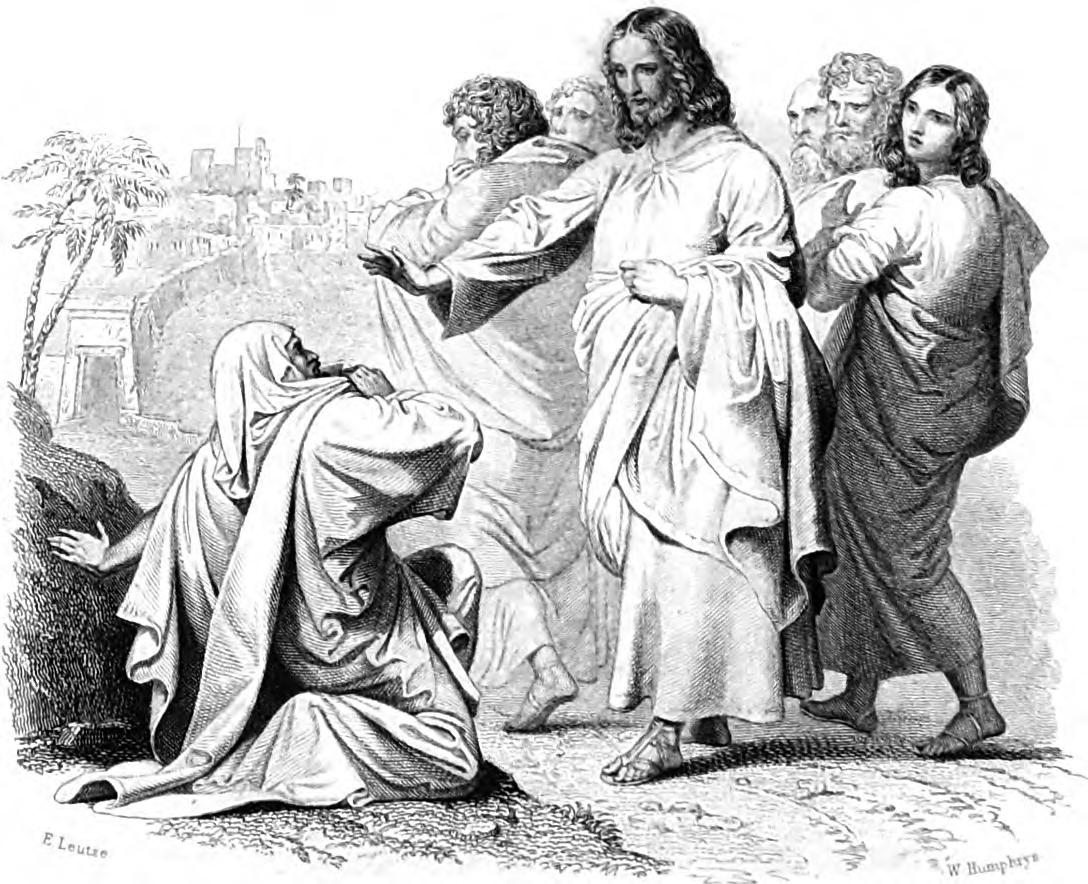
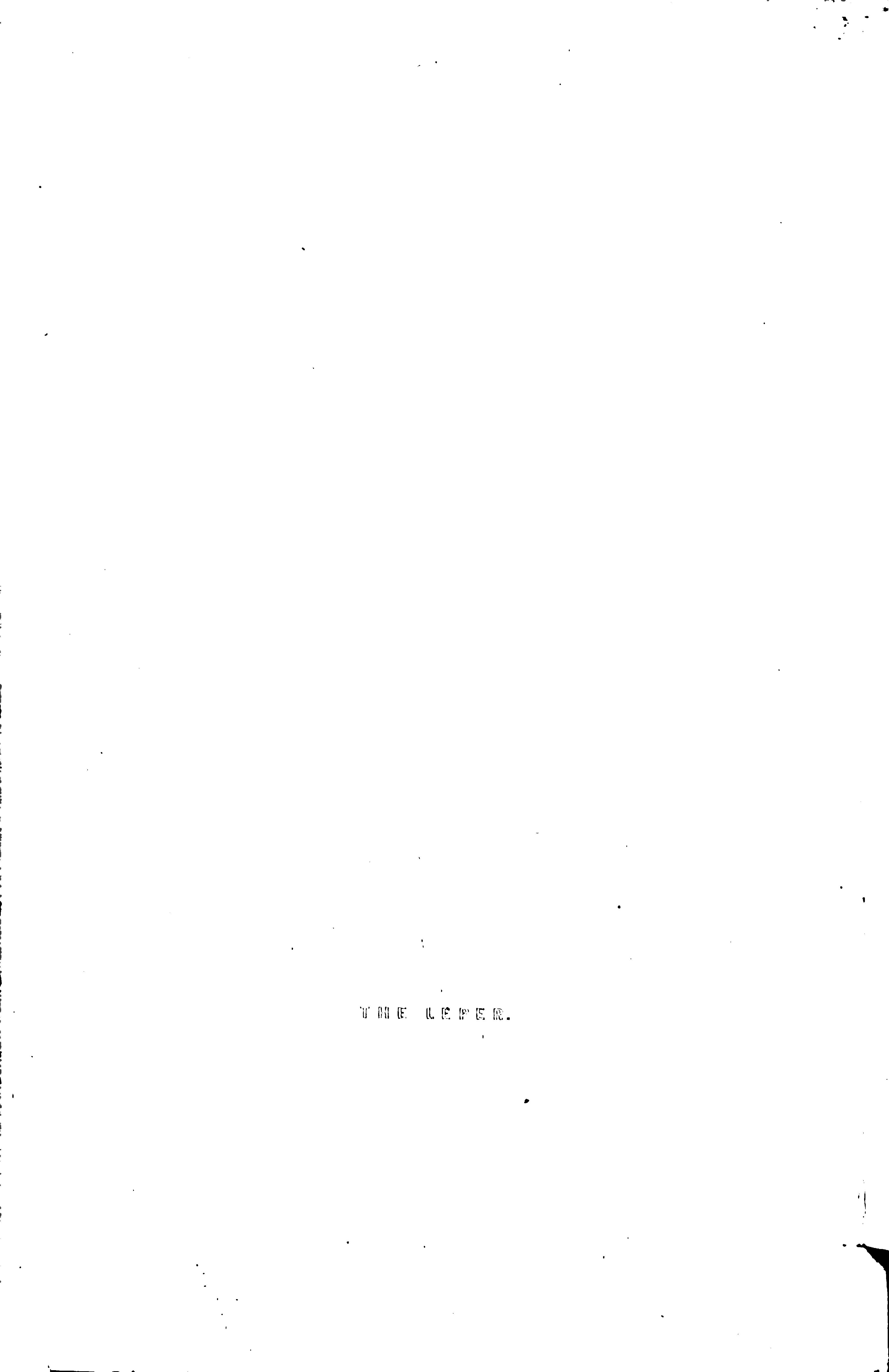
 ELeutre
THE LEPER. WHumphrys
ELeutre
THE LEPER. WHumphrys
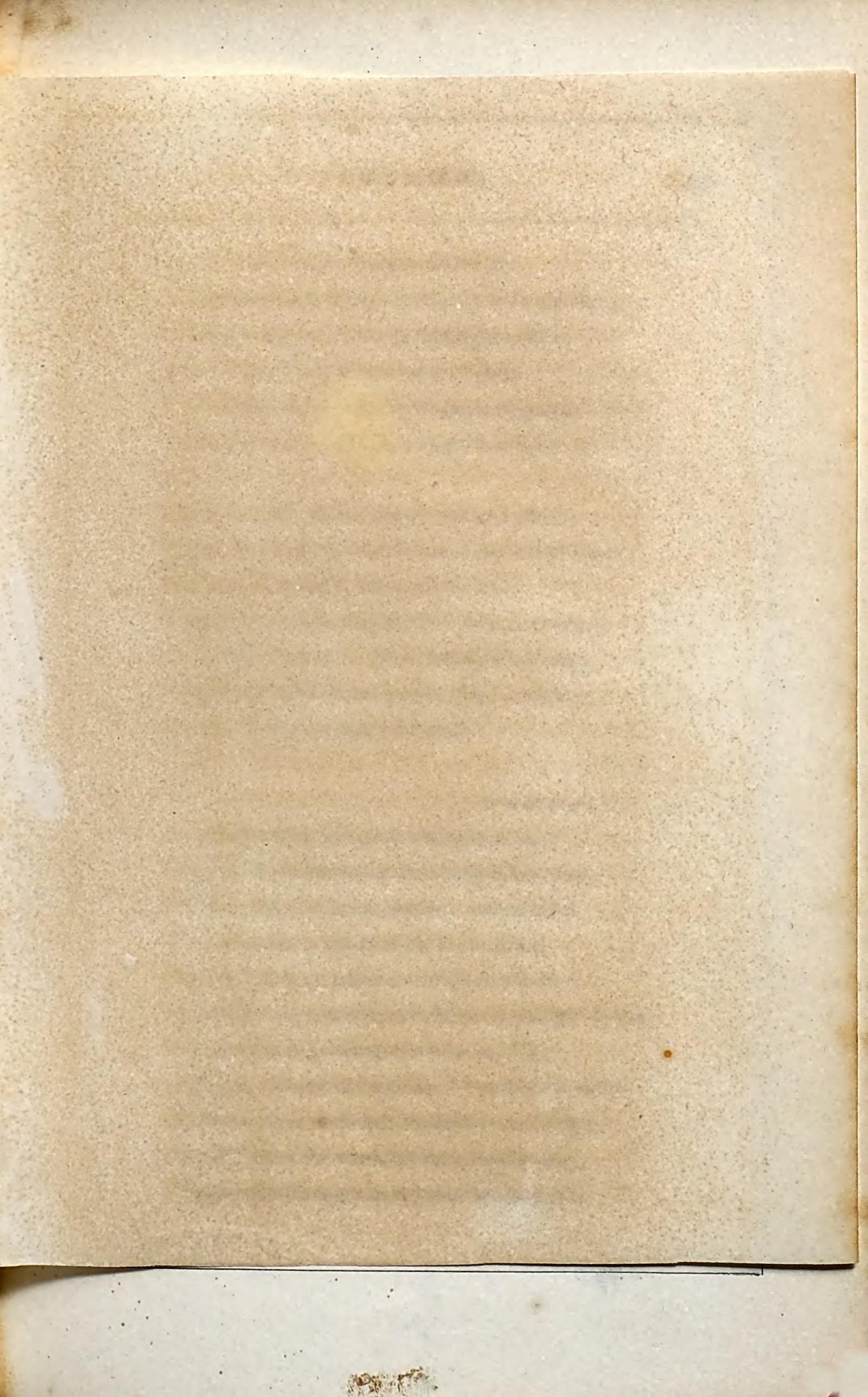

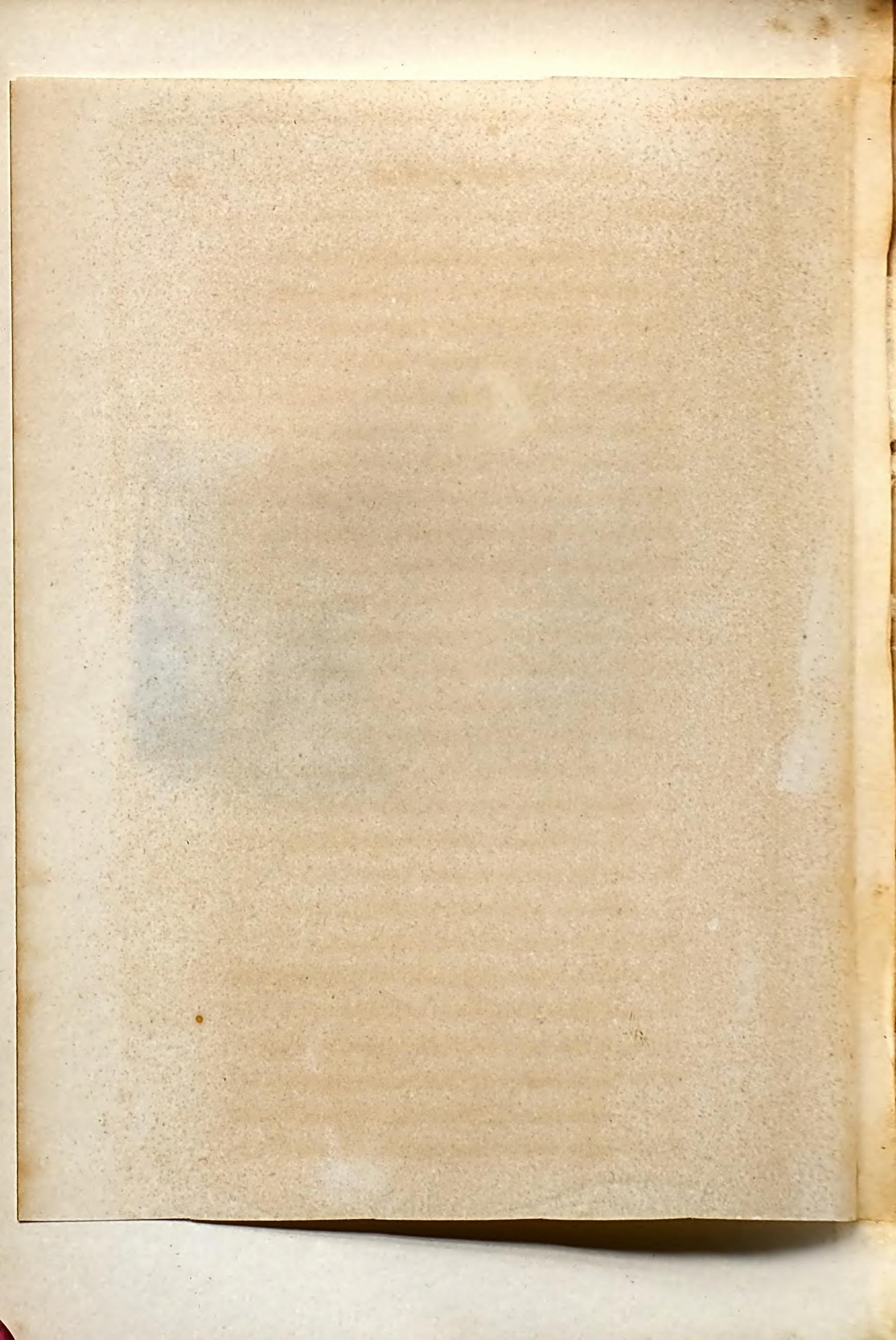

And now depart ! and when Thyheart is heavy, and thine eyes are dim, Lift up thy prayer beseechingly to Him Who, from the tribes ofmen, Selected thee to feel His chastening rod. Depart! O leper ! and forget not God!
And he went forth-alone ! not one ofall
The many whom he loved, nor she whose name Was woven in the fibres ofthe heart
Breaking within him now, to come and speak Comfort untohim. Yea-he went his way, Sick, and heart-broken, and alone-to die! For God had cursed the leper!
It was noon, And Helon knelt beside a stagnant pool
In the lone wilderness, and bathed his brow, Hot withthe burning leprosy, and touch'd The loathsome water to his fever'd lips, Praying that he might be so blest-tó die !
Footsteps approach'd, and, with no strength to flee, He drewthe covering closer on his lip, Crying, "Unclean ! unclean !" and in the folds
Ofthe coarse sackcloth shrouding up his face, He fell upon the earth till they should pass. Nearerthe Stranger came; and bending o'er
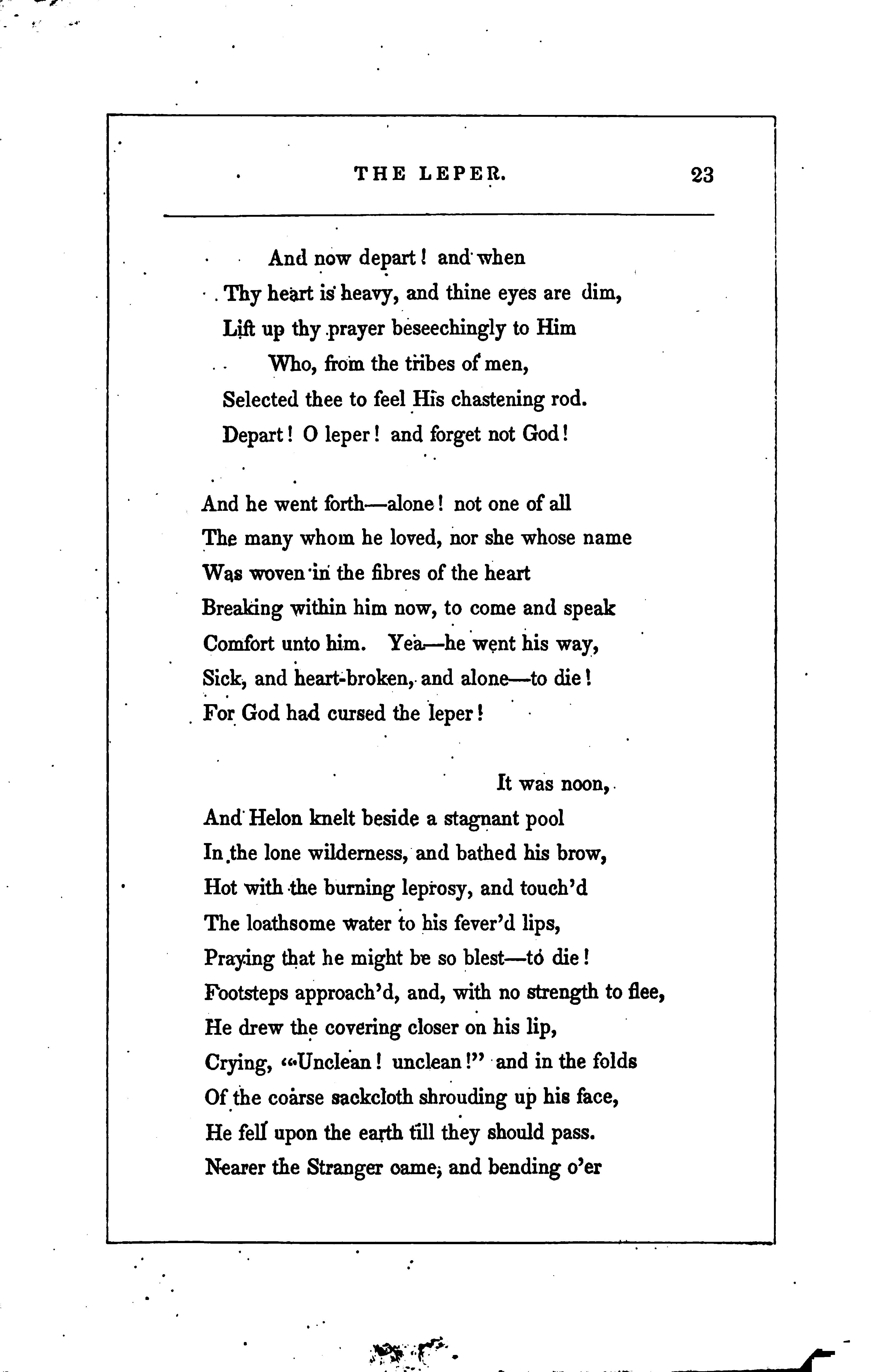

The leper's prostrate form, pronounced his name "Helon !" The voice was like the master-tone
Of a rich instrument-most strangely sweet ; And the dull pulses ofdisease awoke, And for a moment beat beneath the hot And leprous scales with a restoring thrill. " Helon ! arise !" and he forgot his curse, And rose and stood before Him.
Love and awe
Mingled in the regard of Helon's eye
As he beheld the Stranger. He was not In costly raiment clad, nor on His brow
The symbol of a princely lineage wore; Nofollowers at His back, nor in His hand Buckler, or sword, or spear, yet in his mien Command sat throned serene, and if He smiled,
Akingly condescension graced His lips, The lion would have crouch'd to in his lair. His garb was simple, and His sandals worn ; His stature modell'd with a perfect grace ; His countenance the impress of a God, Touch'd with the open innocence of a child; His eye was blue and calm, as is the sky In the serenest noon ; His hair unshorn Fell to His shoulders ; and His curling beard
The fulness of perfected manhood bore.


He look'd on Helon earnestly awhile,
As if His heart were moved, and, stooping down, He took a little water in His hand
And lav'd the sufferer's brow, and said, "Be clean !"
And lo ! the scales fell from him, and his blood Coursed with delicious coolness through his veins,
And his dry palms grew moist, and his lips
The dewy softness ofan infant's stole. His leprosy was cleansed, and he fell down
Prostrate at Jesus' feet and worshipp'd Him.
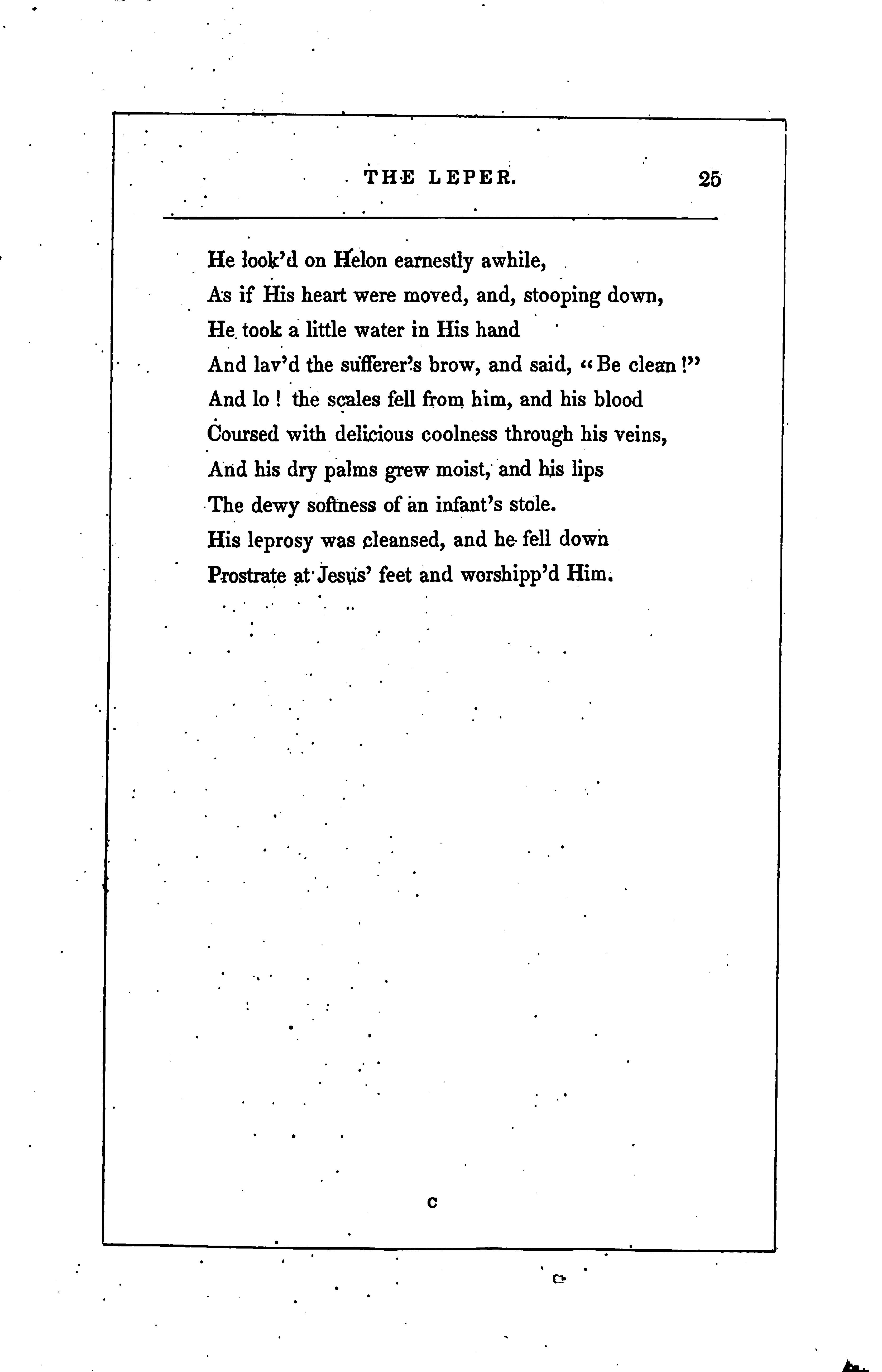

DAVID'S GRIEF FOR HIS CHILD.
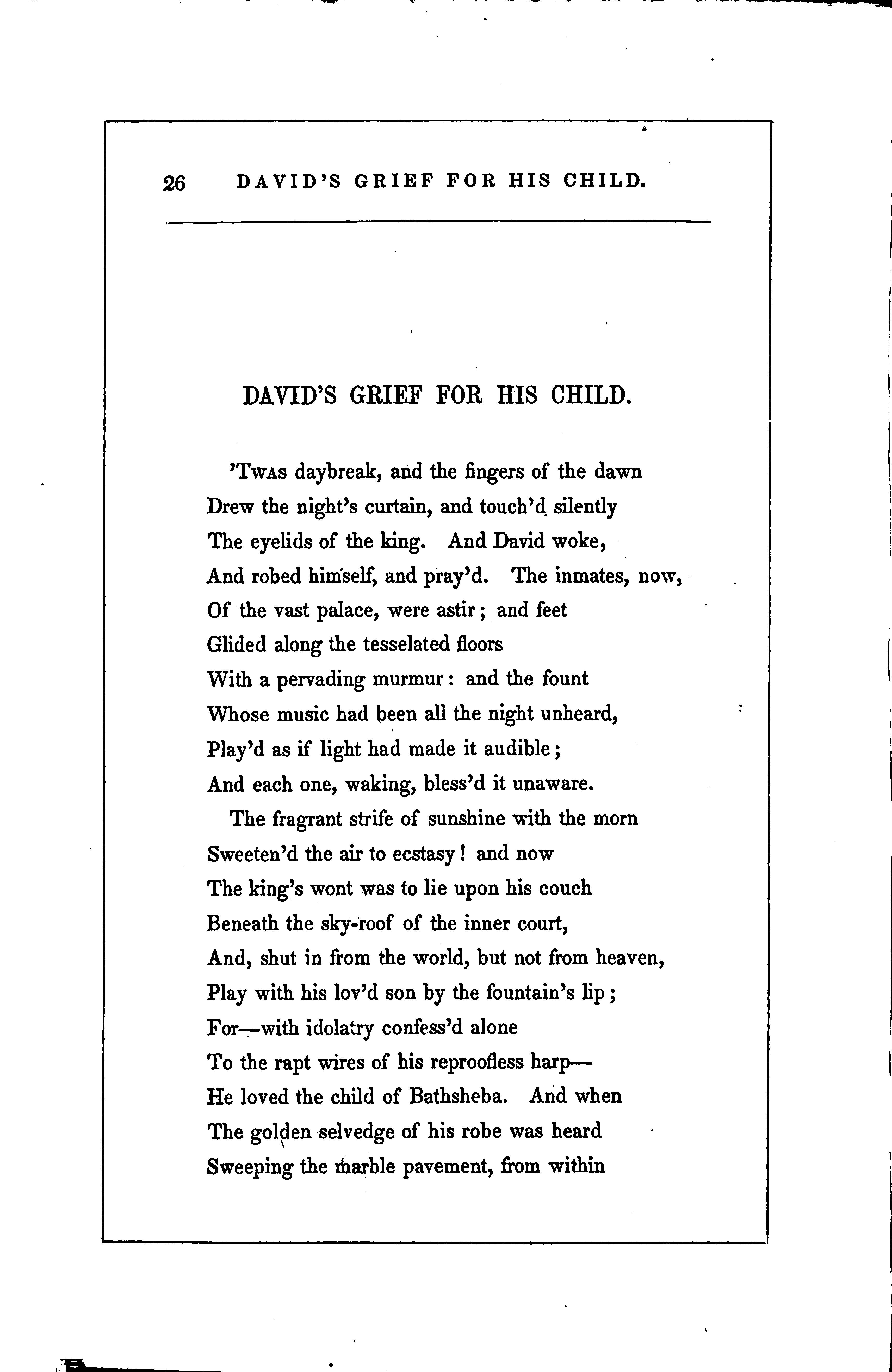
'Twas daybreak, and the fingers of the dawn
Drewthe night's curtain, and touch'd silently
The eyelids of the king. And David woke, And robed himself, and pray'd. The inmates, now,
Of the vast palace, were astir ; and feet
Glided along the tesselated floors
With a pervading murmur : and the fount Whose music had been all the night unheard,
Play'd as if light had made it audible ; And each one, waking, bless'd it unaware.
The fragrant strife of sunshine with the morn
Sweeten'd the air to ecstasy ! and now
The king's wont was to lie upon his couch
Beneath the sky-roof of the inner court, And, shut in from the world, but not from heaven,
Play with his lov'd son by the fountain's lip ; For-with idolatry confess'd alone
To the rapt wires of his reproofless harp-
He loved the child of Bathsheba. And when
The golden selvedge of his robe was heard Sweepingthe marble pavement, from within

Broke forth a child's laugh suddenly, and words Articulate, perhaps, to his heart only
Pleading to come to him. They brought the boyAn infant cherub, leaping as if used To hover with that motion upon wings, And marvellously beautiful! His brow Had the inspired up-lift of the king's, And kingly was his infantine regard ; But his ripe mouth was of the ravishing mould Of Bathsheba's-the hue and type of love, Rosy and passionate-and oh, the moist Unfathomable blue ofhis large eyes
Gave out its light as twilight shows a star, And drew the heart of the beholder in! And this was like his mother.
Moved with unutter'd blessings, and awhile He closed the lids upon his moisten'd eyes, And, with the round cheek of the nestling boy Press'd to his bosom, sat as if afraid That but the lifting of his lids might jar The heart-cup's over-fulness. Unobserved, A servant of the outer court had knelt
Waiting before him; and a cloud the while Had rapidly spread o'er the summer heaven ; And, as the chill of the withdrawing sun
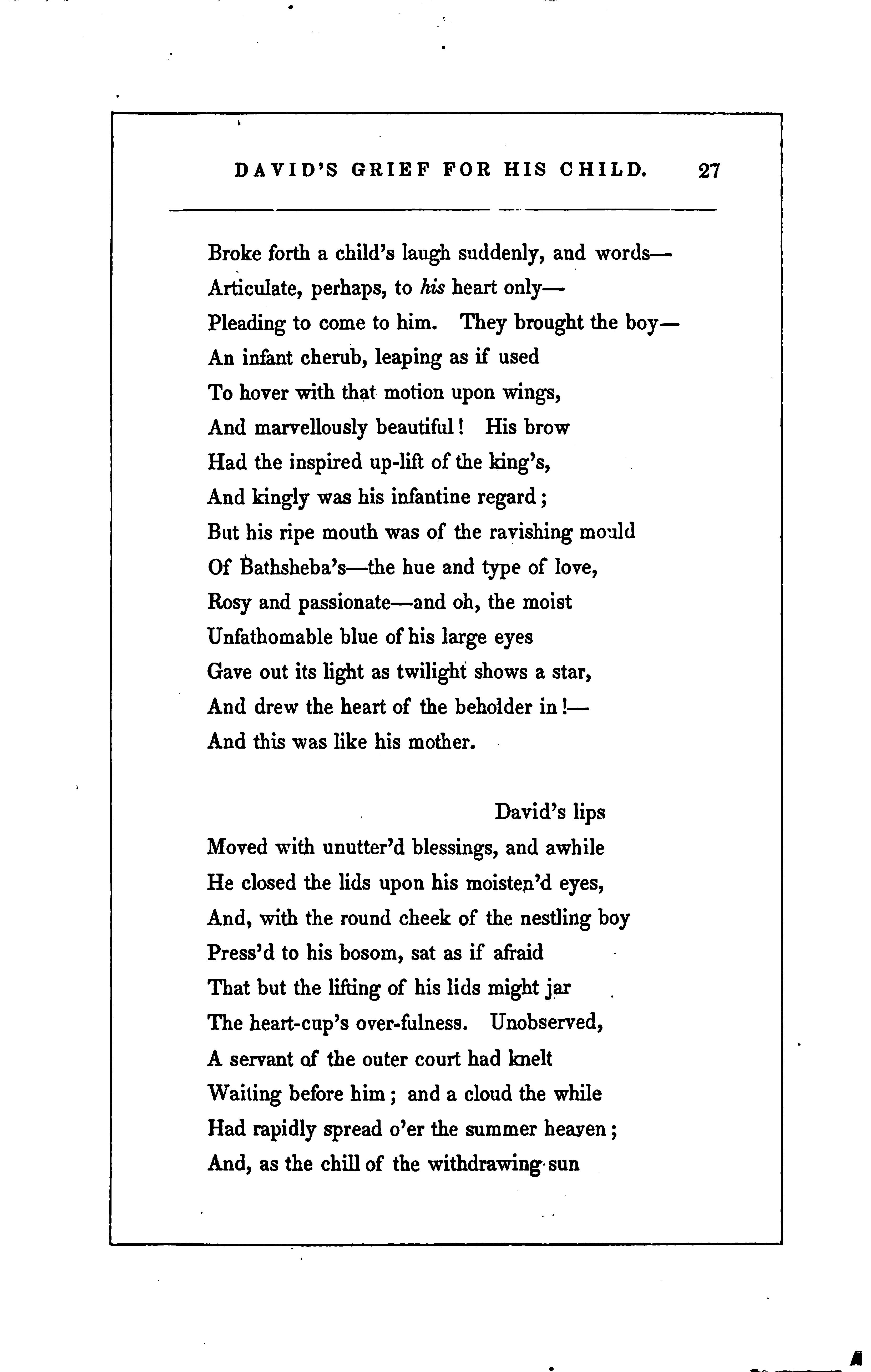

Fell on the king, he lifted up his eyes
And frown'd upon the servant; for that hour Was hallow'd to his heart and his fair child, And none might seek him. And the king arose, And with a troubled countenance.look'd up To the fast-gathering darkness ; and, behold, The servant bow'd himself to earth, and said, " Nathan the prophet cometh from the Lord!" And David's lips grew white, and with a clasp. Which wrung a murmur from the frighted child, He drew him to his breast, and cover'd'him
With the long foldings of his robe, and said, "I will come forth. Go now!" And lingeringly, With kisses on the fair uplifted brow, And mingled words of tenderness and prayer Breaking in tremulous accents from his lips, He gave to them the child, and bow'd his head Upon his breast with agony. And So, To hearthe errand of the man of God,. He fearfully went forth.
It was the morning of the seventh day. A hush was in the palace, for all éyes Had woke before the morn ; and they who drew The curtains to let in the welcome light, Moved in their chambers with unslipper'd feet, And listen'd breathlessly.. And still no 'stir!
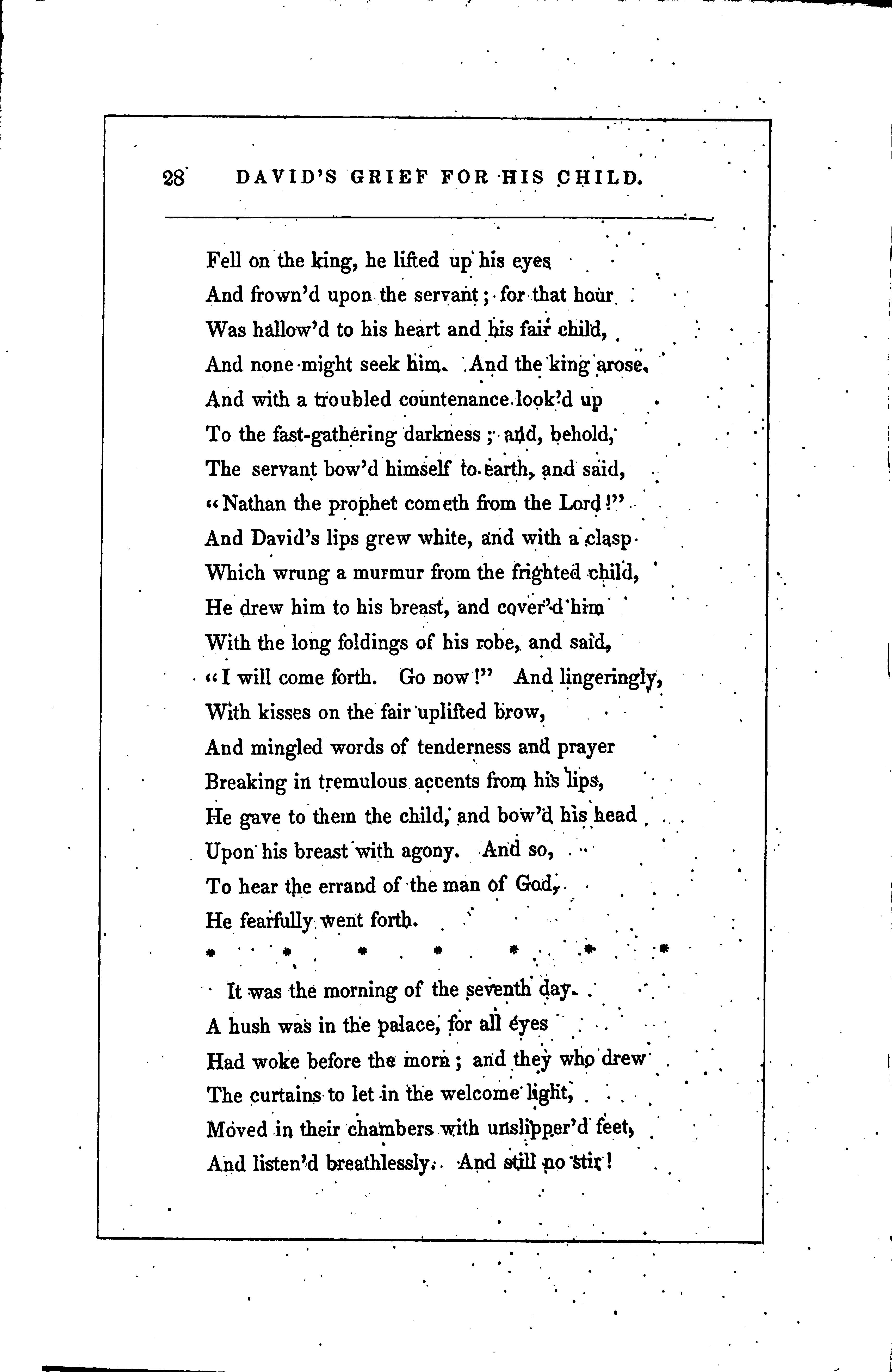

The servants who kept watch without the door
Sat motionless ; the purple casement-shades From the low windows had been roll'd away,
To give the child air ; and the flickering light
That, all the night, within the spacious court, Had drawn the watcher's eyes to one spot only, Paled with the sunrise and fled in.
And hush'd
With more than stillness was the room where lay
The king's son on his mother's breast. His locks
Slept at the lips of Bathsheba unstirr'd
So fearfully, with heart and pulse kept down, She watch'd his breathless slumber. The low moan
That from his lips all night broke fitfully, Had silenced with the daybreak ; and a smileOr something that would fain have been a smile-
Play'd in his parted mouth ; and though his lids
Hid not the blue of his unconscious eyes, His senses seem'd all peacefully asleep, And Bathsheba in silence bless'd the morn-
That brought back hope to her ! But when the king Heard not the voice of the complaining child Nor breath from out the room-nor foot astir-
But morning there-so welcomeless and stillHe groan'd and turn'd upon his face. The nights Had wasted, and the mornings come; and days c2
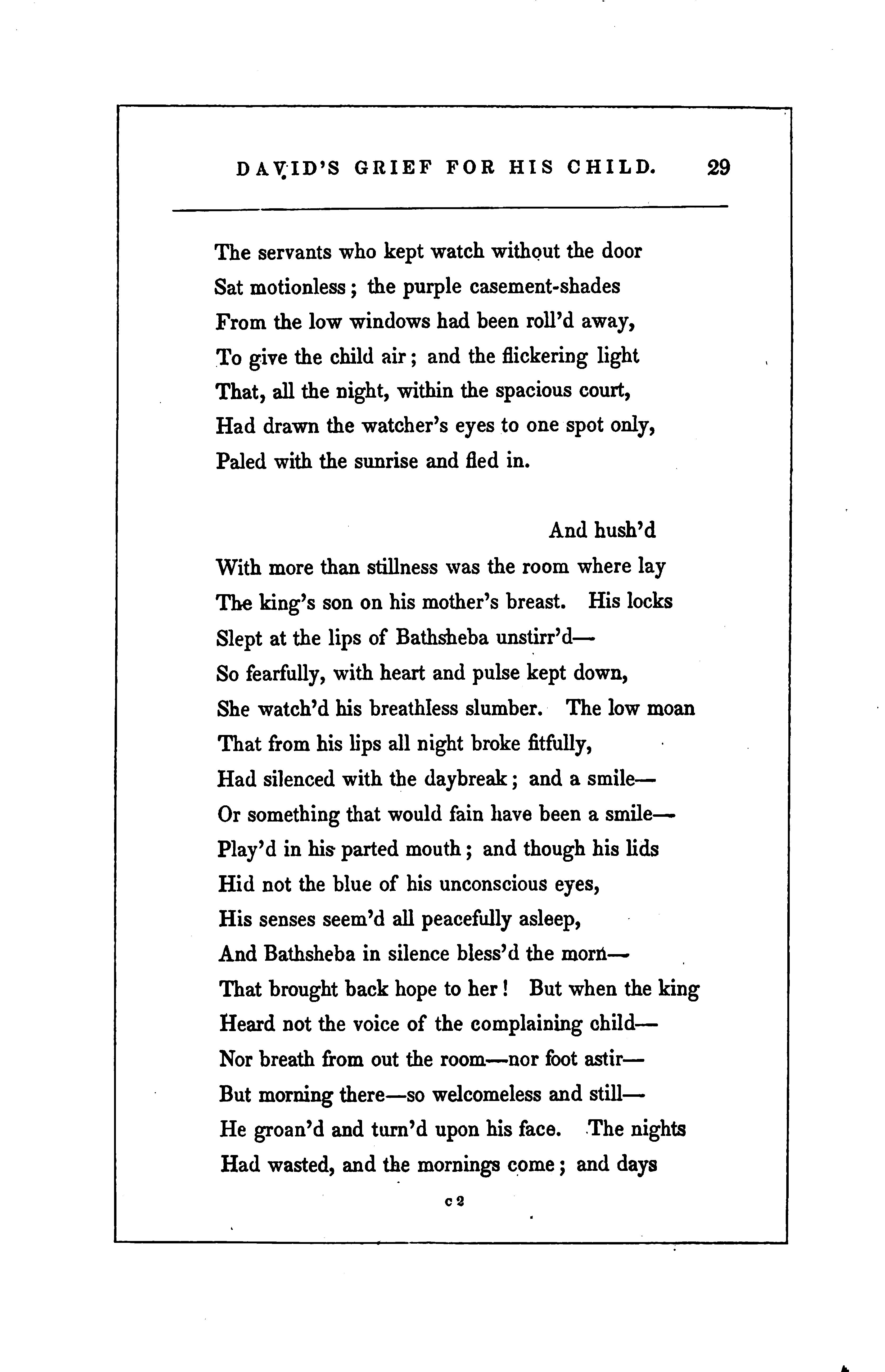

Crept through the sky, unnumber'd by the king, · Since the child sicken'd ; and, without the door; Upon the bare earth prostrate, he had lain Listening only to the moans that brought Their inarticulate tidings, and the voice Of Bathsheba, whose pity and caress, In loving utterance all broke with tears, Spoke as his heart would speak if he were there, And fill'd his prayer with agony.
Oh God!
To thy bright mercy-seat the way is far! ·
How failthe weak words while the heart keeps on !
And when the spirit, mournfully, at last, Kneels at thy throne, how cold-how distantlyThe comforting of friends falls onthe earThe anguish they would speak to, gone to Thee!
But suddenly the watchers at the door
Rose up, and they who minister'd within Crept to the threshold and look'd earnestly Where the king lay. And still, while Bathsheba Held the unmoving child upon her knees, The curtains were let down, and all came forth, And, gathering with fearful looks apart, Whisper'd together.
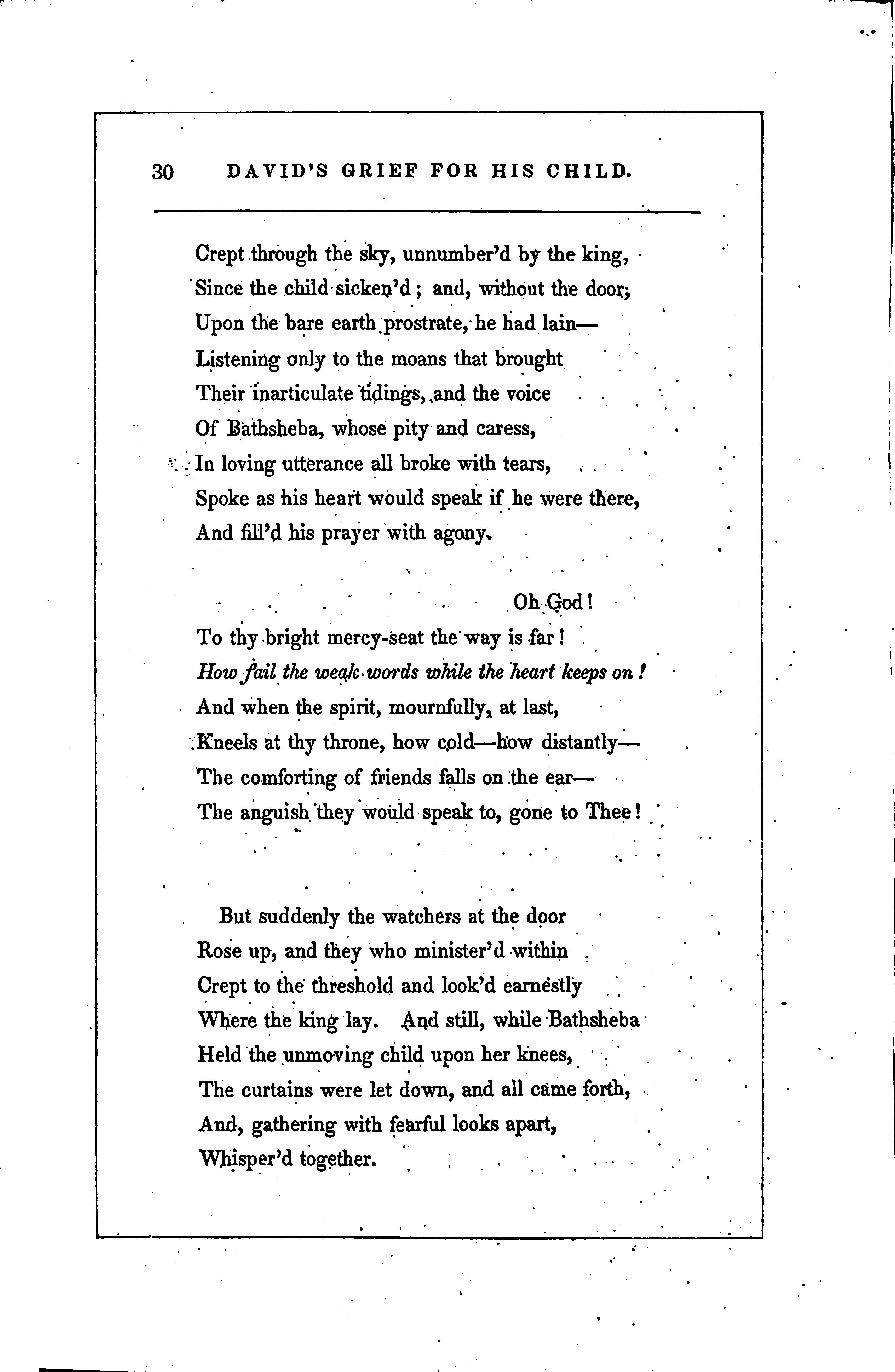

And the king arose
And gazed on them a moment, and with voice Of quick, uncertain utterance, he ask'd, Is the child dead?" They answer'd, "He is dead !"
But when they look'd to see him fall again Upon his face, and rend himself and weep For, while the child was sick, his agony
Would bear no comforters, and they had thought His heartstrings with the tidings must give way . Behold! his face grew calm, and, with his robe Gather'd together like his kingly wont, He silently went in.
And David came, Robed and anointed; forth, and to the house Of God went up to pray. And he return'd, And they set bread before him, and he ate ; And whenthey marvell'd, he said, " Wherefore mourn? The child is dead, andI shallgo to him Buthe will not return to me."..
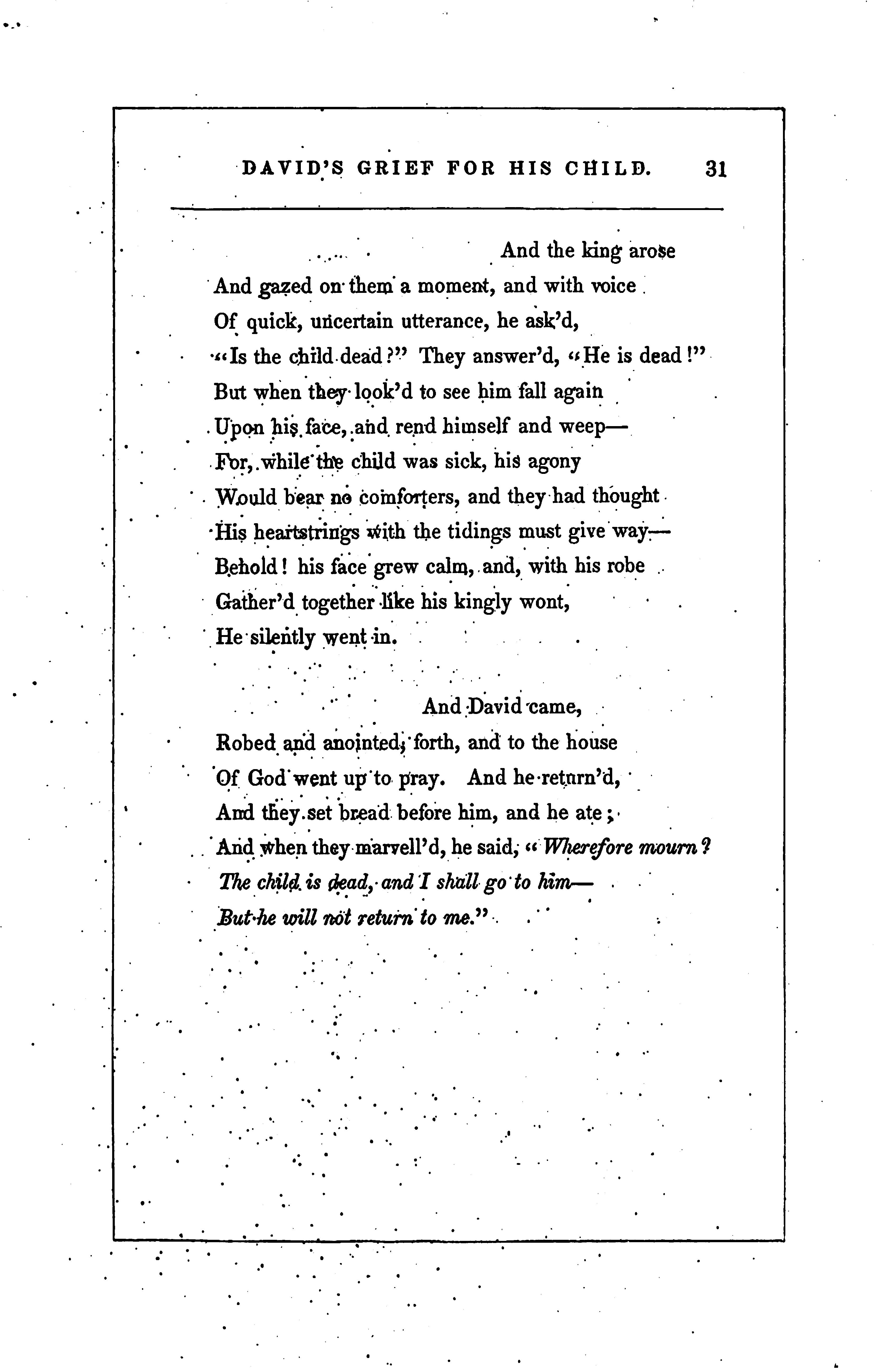

MORN breaketh in the east. The purple clouds
Are putting on their gold and violet,
To look the meeter for the sun's bright coming.
Sleep is upon the waters and the wind ; And nature, from the wavy forest-leaf
To her majestic master, sleeps. As yet There is no mist uponthe deep blue sky, And the clear dew is on the blushing bosoms Of crimson roses in a holy rest.
How hallow'd is the hour of morning ! meetAy, beautifully meet-for the pure prayer.
The patriarch standeth at his tented door, With his white locks uncover'd. "Tis his wont
To gaze upon that gorgeous Orient ;
And at that hour the awful majesty
Of man who talketh often with his God, Is wont to come again, and clothe his brow
As at his fourscore strength. But now he seemeth
To be forgetful of his vigorous frame, And boweth to his staff as at the hour Of noontide sultriness. And that bright sun-
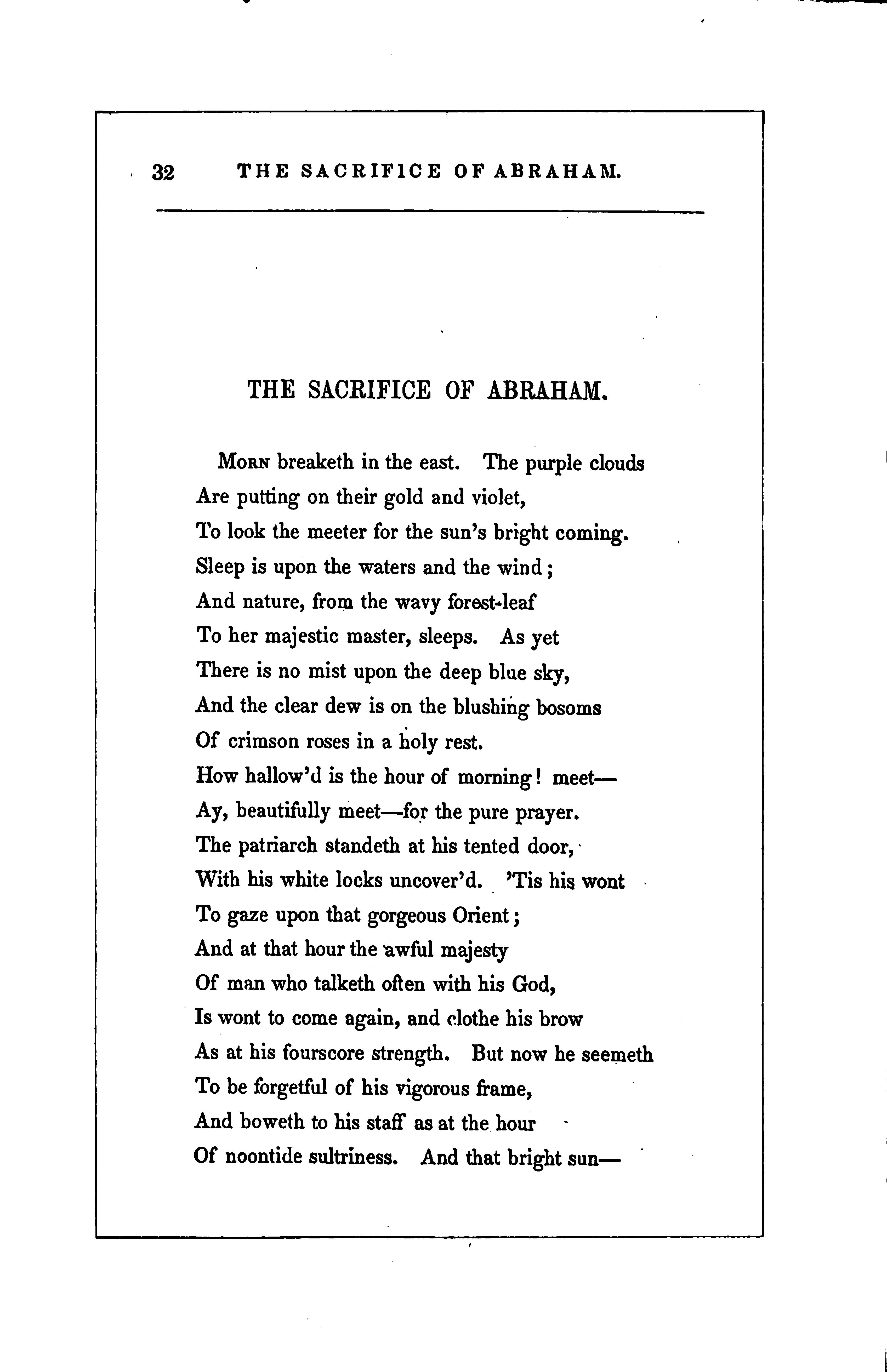

He looketh at its pencill'd messengers, Coming in golden raiment, as if all Were but a-graven scroll of fearfulness. Ah, he is waiting till it herald in The hourto sacrifice his much-loved son!
Light poureth on the world. And Sarah stands
Watching the steps of Abraham and her child Along the dewy sides of the far hills, And praying that her sunny boy faint not. Would she have watch'd their path so suently, If she had known that he was going up, E'en in his fair-hair'd beauty, to be slain As a white lamb for sacrifice ? They trod Together onward, patriarch and childThe bright sun throwing backthe old man's shade. In straight and fair proportions, as of one Whose years were freshly number'd. He stood up, Tall in his vigorous strength ; and, like a tree Rooted in Lebanon, his frame bent not. His thin white hairs had yielded to the wind, And left his brow uncover'd; and his face, Impress'd with the stern majesty of grief Nerved to a solemn duty, now stood forth Like a rent rock, submissive, yet sublime... But the young boy-he of the laughing eye And ruby lip the pride of life was on him.
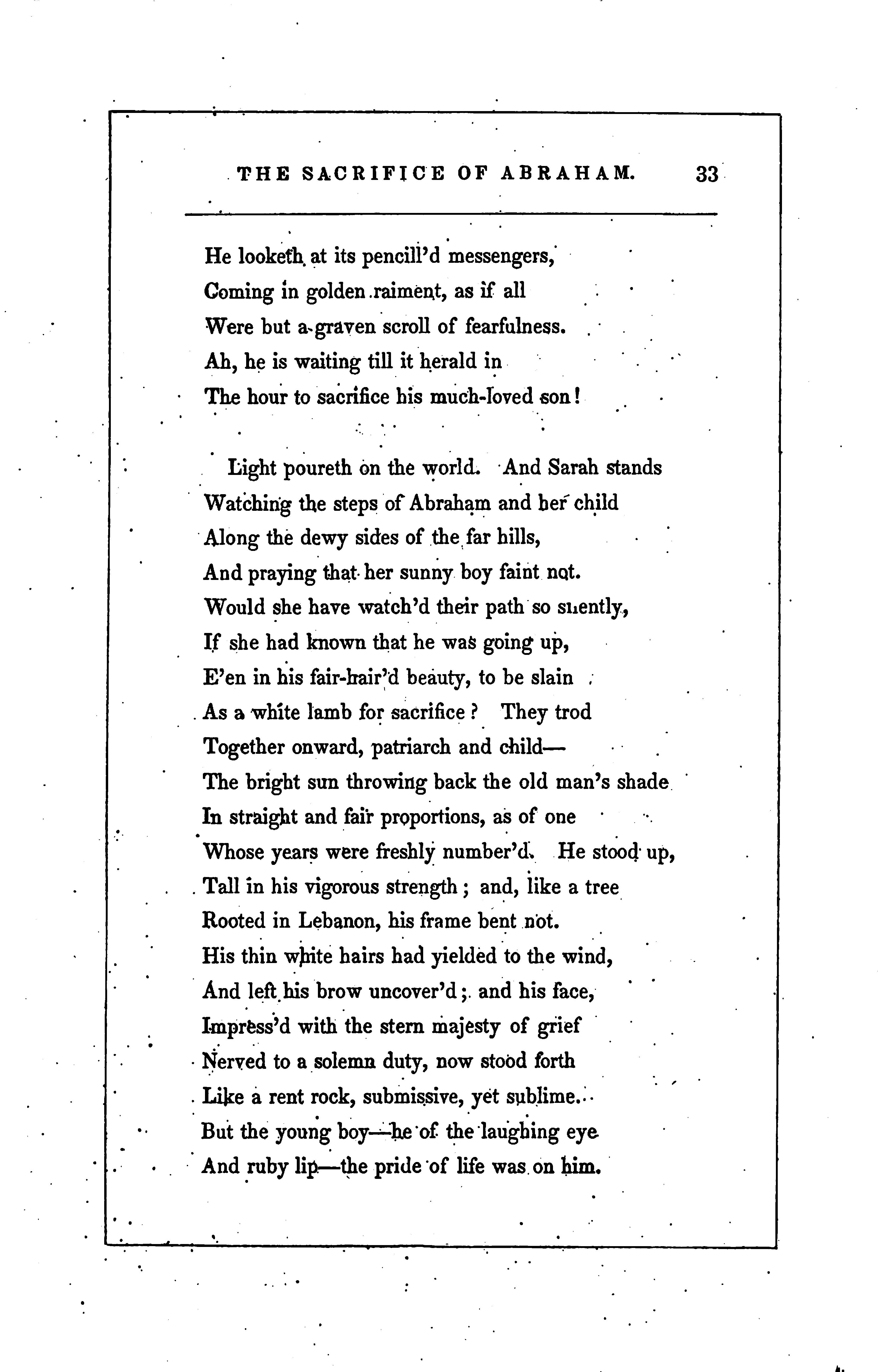

He seemed to drink the morning. Sun and dew, And the aroma of the spicy trees, And all that giveth the delicious East Its fitness for an Eden, stole like light Into his spirit, ravishing his thoughts
With love and beauty. Every thing he met, Buoyant or beautiful, the lightest wing
Of bird or insect, or the palest dye
Of the fresh flowers, won him from his path ; And joyously broke forth his tiny shout, As he flung back his silken hair, and sprung Away to some green spot or clustering vine,
To pluck his infant trophies. Every tree And fragrant shrub was a new hiding-place ; And he would crouch till the old man came by, Then bound before him with his childish laugh, Stealing a look behind him playfully, To see if he had made his father smile.
The sun rode on in heaven. The dew stole up From the fresh daughters of the earth, and heat Came like a sleep upon the delicate leaves, And bent them with the blossoms to their dreams.
Still trod the patriarch on, with that same step Firm and unfaltering ; turning not aside
To seek the olive shades, or lave their lips
In the sweet waters of the Syrian wells,
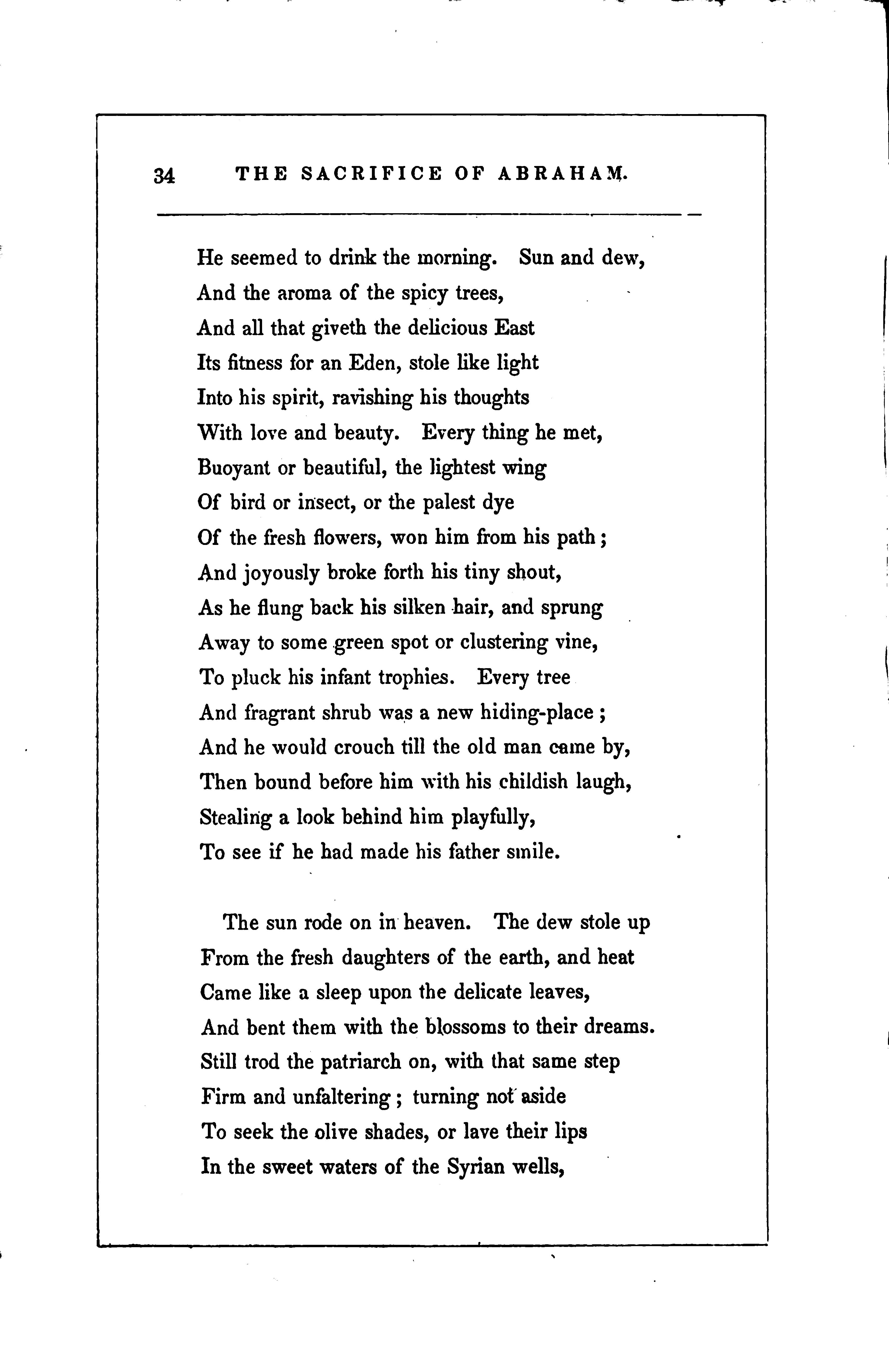

Whose gush hath so much music. Weariness
Stole on the gentle boy, and he forgot Totoss his sunny hair from off his brow, And spring for the fresh flowers and light wings
As in the early morning ; but he kept Close by his father's side, and bent his head
Upon his bosom like a drooping bud, Lifting it not, save now and then to steal
Alook up to the face whose sternness awed His childishness to silence.
It was noonAnd Abraham on Moriah bow'd himself, And buried up his face, and pray'd for strength. He could not look upon his son, and pray; But, with his hand upon the clustering curls
Of the fair, kneeling boy, he pray'd that God Would nerve him for that hour.
He rose and laid The wood uponthe altar. All was done. He stood a moment and a deep, quick flush Pass'd o'er his countenance ; and then he nerved His spirit with a bitter strength, and spoke"Isaac ! my only son!"-The boy look'd up :"Whereis the lamb, my father?" -Oh the tones, The sweet familiar voice of a loved child !What would its music seem at such an hour!
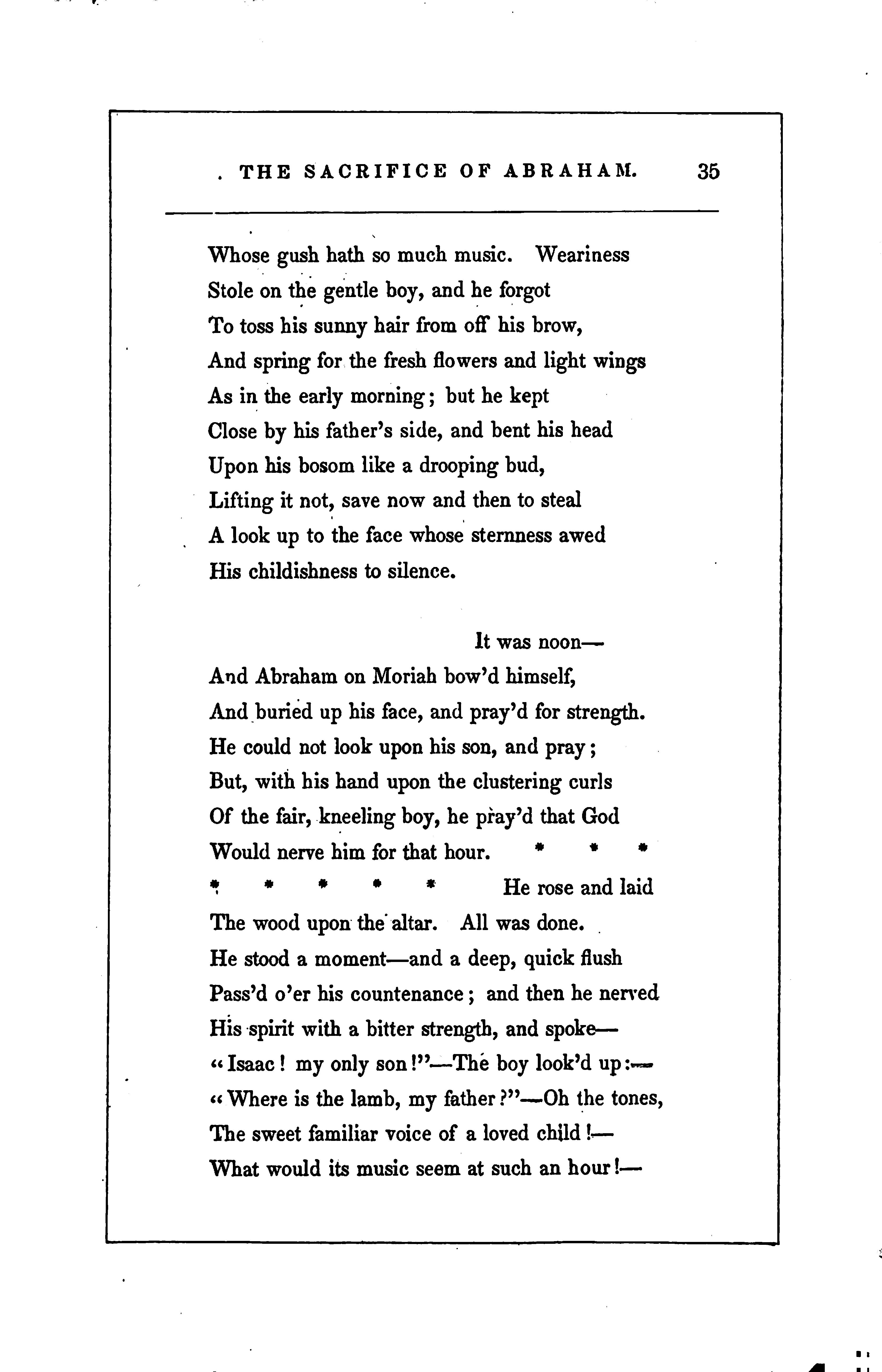

It was the last deep struggle. Abraham held His loved, his beautiful, his only son, And lifted up his arm, and call'd on GodAnd lo! God's angel stay'd him and he fell Upon his face, and wept.
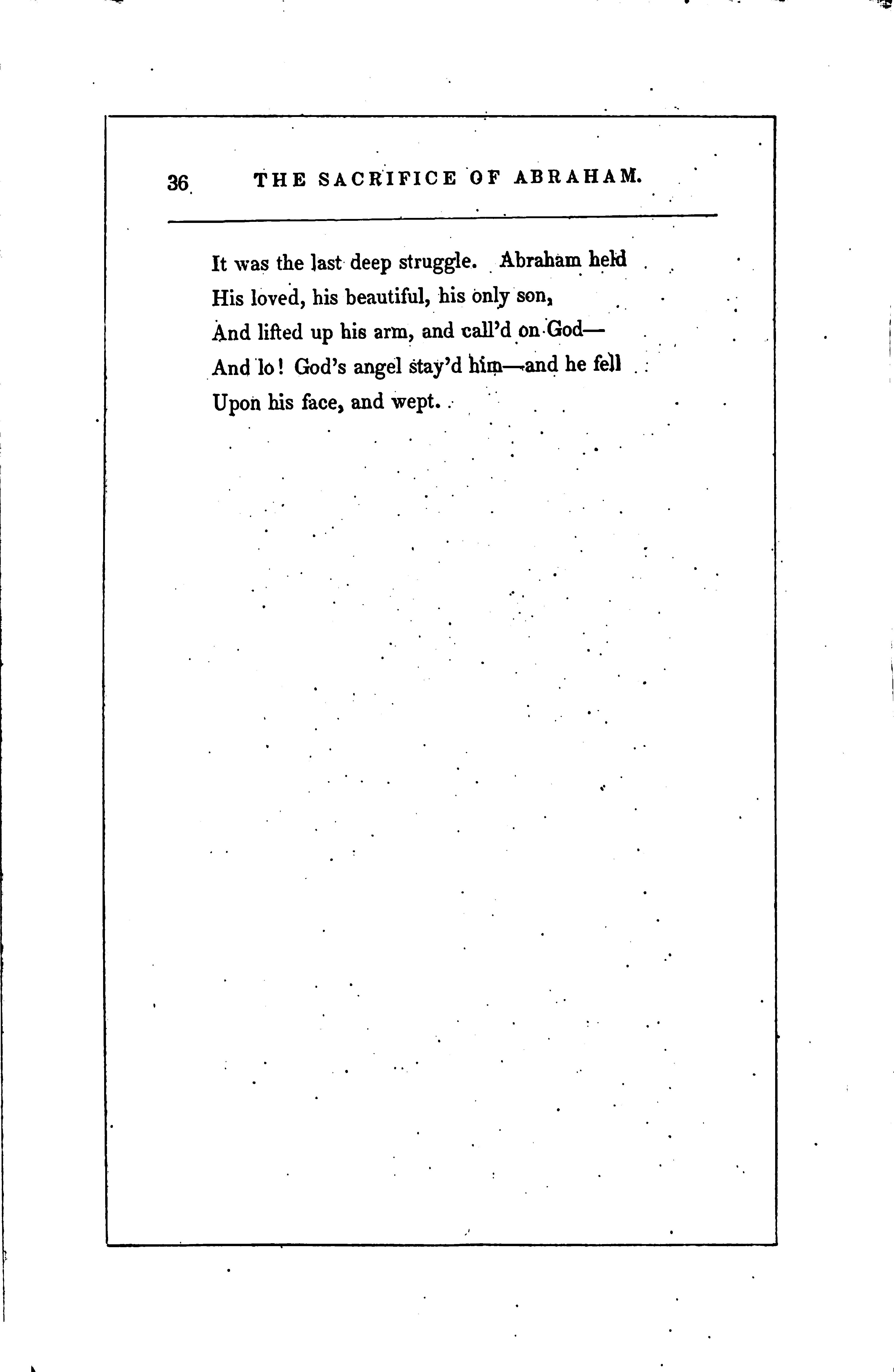

It was a sultry day of summer-time.
The sun pour'd down upon the ripen'd grain With quivering heat, and the suspended leaver Hung motionless. The cattle on the hills Stood still, and the divided flock were all Laying their nostrils to the cooling roots, And the sky look'd like silver, and it seem'd As if the air had fainted, and the pulse Of nature had run down and ceased to beat.
"Haste thee, my child !" the Syrian mother said, "Thy father is athirst ;" and, from the depths Of the cool well under the leaning tree, She drew refreshing water, and with thoughts Of God's sweet goodness stirring at her heart, She bless'd her beautiful boy, and to his way Committed him. And he went lightly on, With his soft hands press'd closely to the cool Stone vessel, and his little naked feet
Lifted with watchful care ; and o'er the hills, And through the light green hollows where the lambs
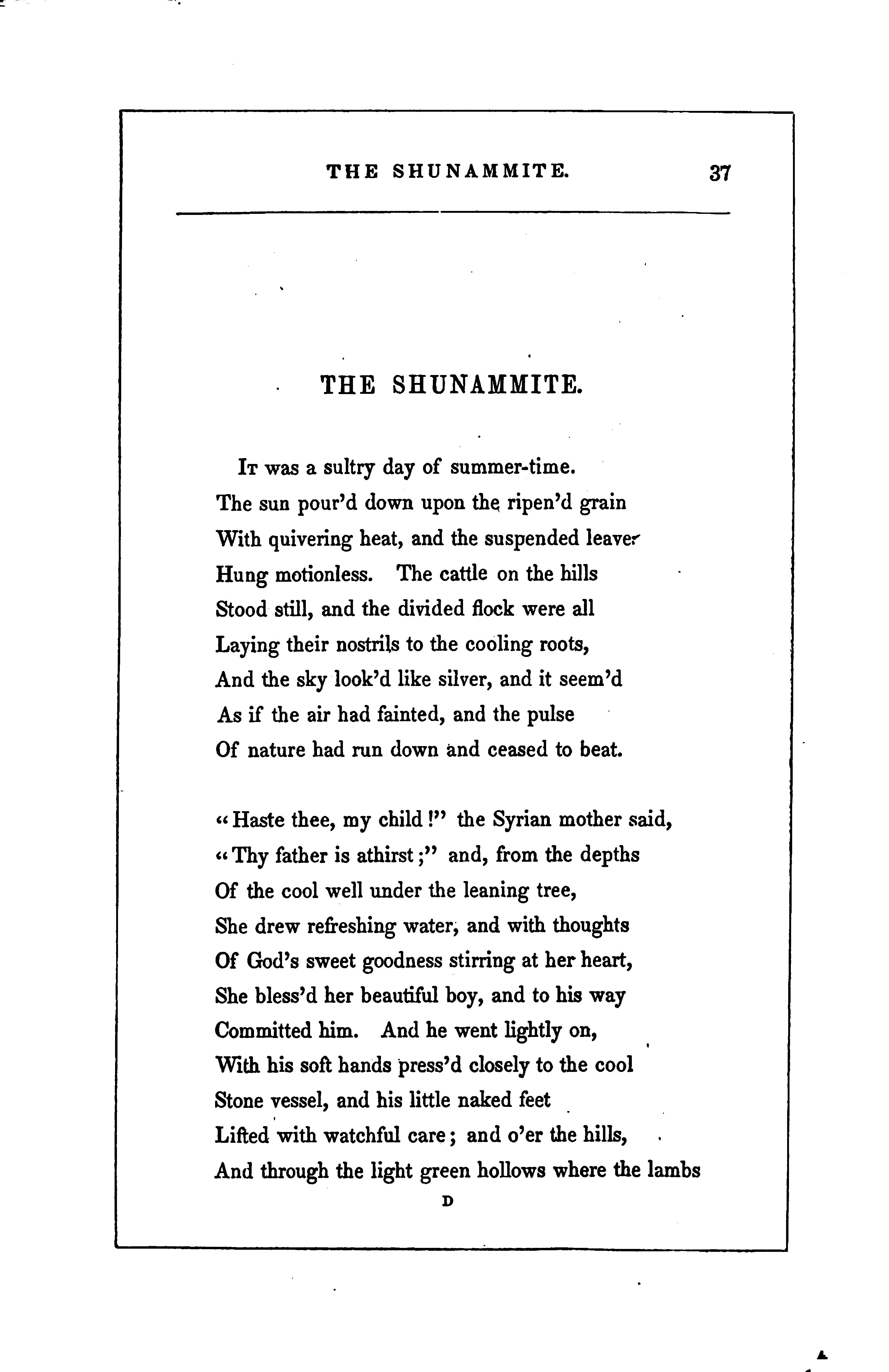

Go for the tender grass, he kept his way, Wiling its distance with his simple thoughts, Till, in the wilderness of sheaves, with brows Throbbing with heat, he set his burthen down.
Childhood is restless ever, and the boy Stay'd not within the shadow of the tree,
But with a joyous industry went forth Into the reaper's places, and bound up
His tiny sheaves, and plaited cunningly
The pliant withs out of the shining strawCheering their labour on, till they forgot
The heat and weariness of their stooping toil
In the beguiling of his playful mirth.
Presently he was silent, and his eye
Closed as with dizzy pain, and with his hand
Press'd hard upon his forehead, and his breast
Heaving with the suppression of a cry, He utter'd a faint murmur, and fell back Upon the loosen'd sheaf, insensible.
They bore him to his mother, and he lay Upon her knees till noon-and then he died!
She had watch'd every breath, and kept her hand
Soft on his forehead, and gazed in upon The dreamy languor of his listless eye, And she had laid back all his sunny curls
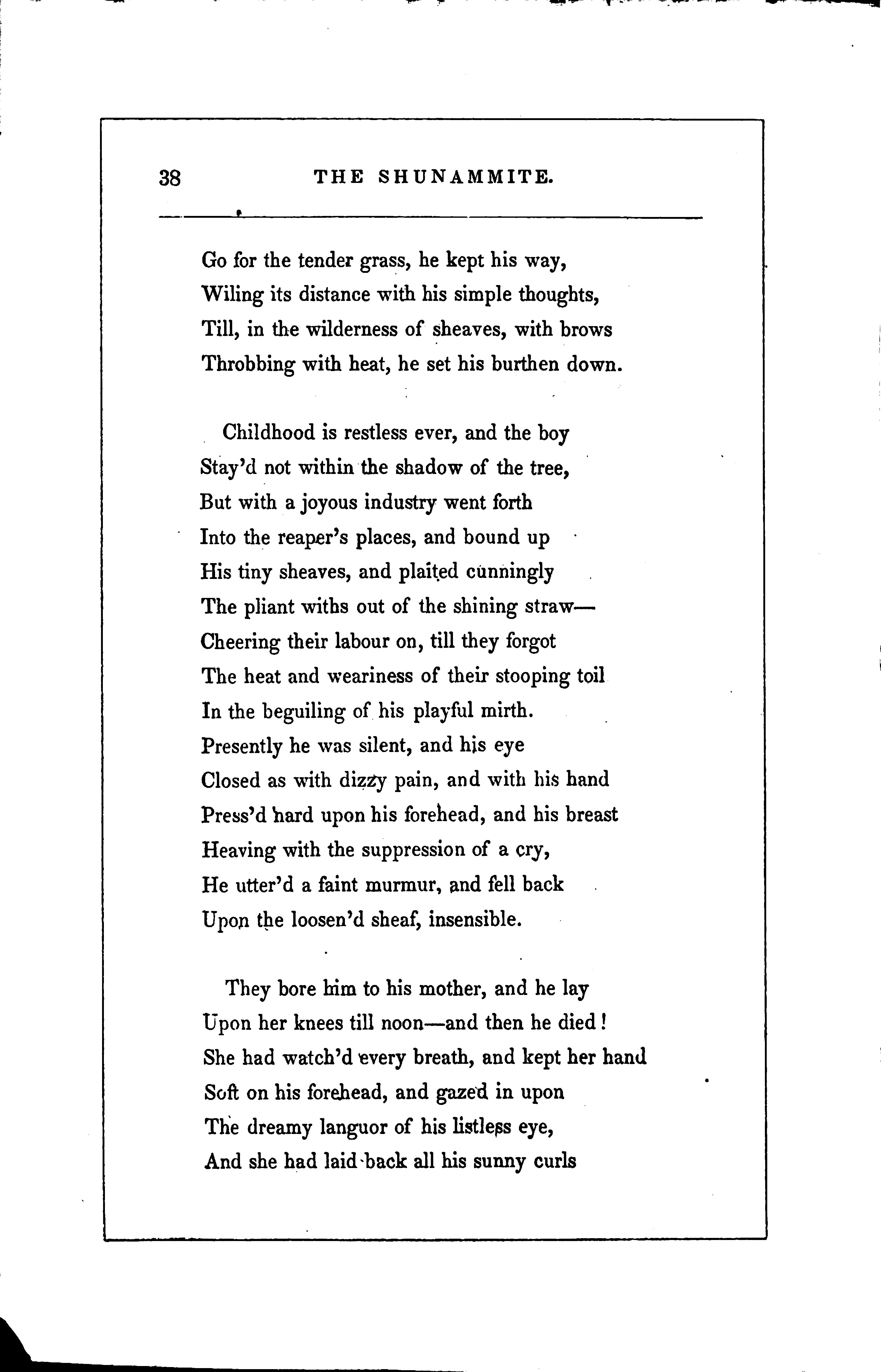

And kiss'd his delicate lip, and lifted him Into her bosom, till her heart grew strongHis beauty was so unlike death ! She lean'd
Over him now, that she might catch the low Sweet music of his breath, that she had learn'd To love when he was slumbering at her side In his unconscious infancy-
66 -So still!
'Tis a soft sleep ! How beautiful he lies, With his fair forehead, and the rosy veins
Playing so freshly in his sunny cheek ! How could they say that he would die! Oh God! I could not lose him! I have treasured all His childhood in my heart, and even now,
As he has slept, my memory . has been there, Counting like treasures all his winning ways His unforgotten sweetness :-
"-Yet so still!Howlike this breathless slumber is to death ! I could believe that in that bosom now There were no pulse-it beats so languidly!
I cannot see it stir; but his red lip ! Death would not be so very beautiful!
And that half smile-would death have left thatthere ?
-And should I not have felt that he would die?
And have I not wept over him?-and pray'd Morning and night for him? and could he die?
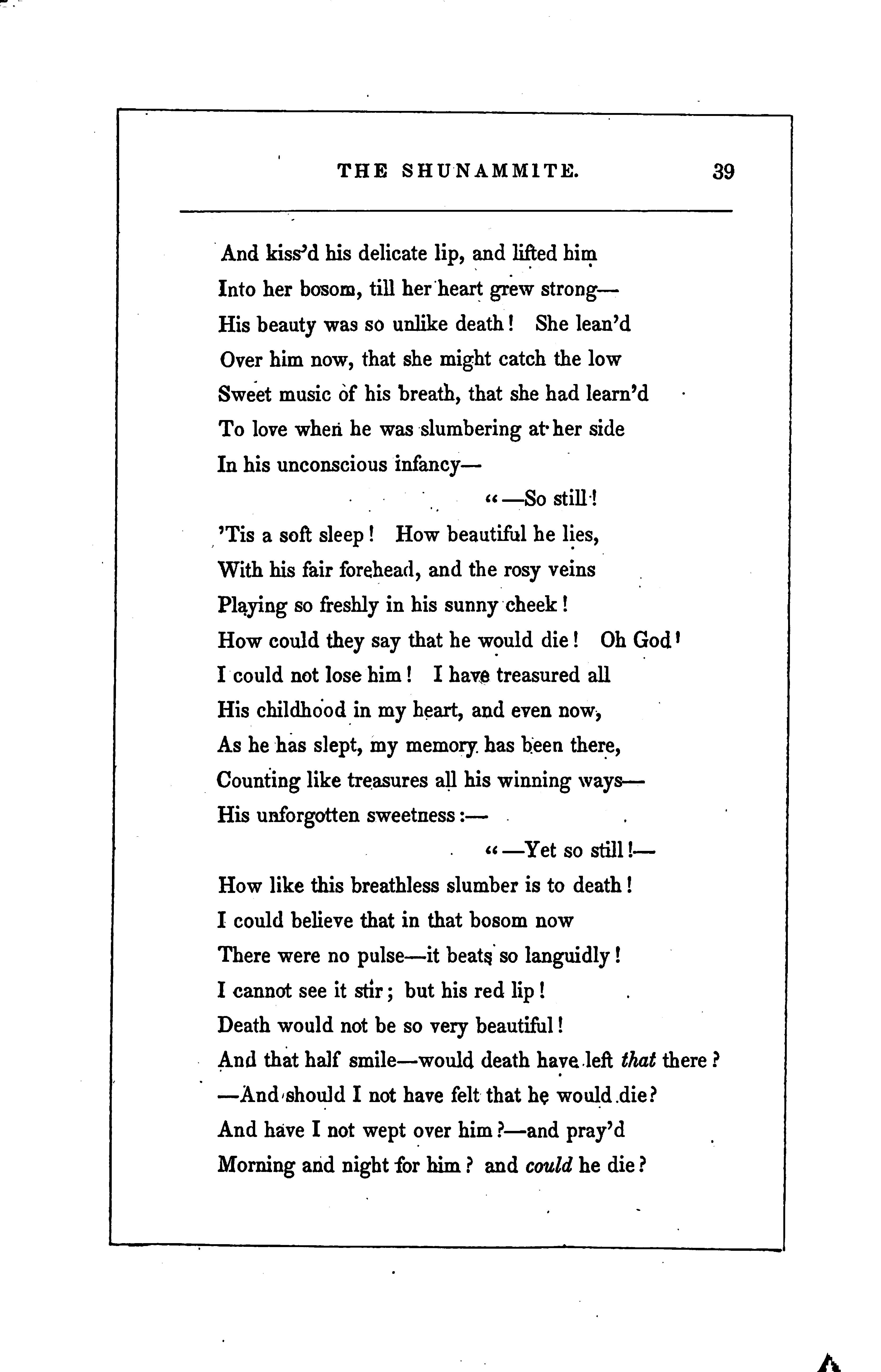

-No-God will keep him! He will be my pride
Many long years to come, and his fair hair Will darken like his father's, and his eye
Be of a deeper blue when he is grown ; And he will be so tall, and I shall look With such a pride upon him!-He to die !" And the fond mother lifted his soft curls, And smiled, as if 'twere mockery to think That such fair things could perish.-
-Suddenly
Her hand shrunk from him, and the colour fled From her fix'd lip, and her supporting knees
1 Were shook beneath her child. Her hand had touch'd His forehead, as she dallied with his hairAnd it was cold-like clay! Slow, very slow, Camethe misgiving that her child was dead. She sat a moment, and her eyes were closed
In a dumb prayer for strength, and then she took His little hand and press'd it earnestlyAnd put her lip to his-and look'd again Fearfully on him ; and, then bending low, She whisper'd in his ear, "My son !-myson!" And as the echo died, and not a sound Broke on the stillness, and he lay there stillMotionless on her knee-the truth would come !
And with a sharp, quick cry, as if her heart Were crush'd, she lifted him and held him close
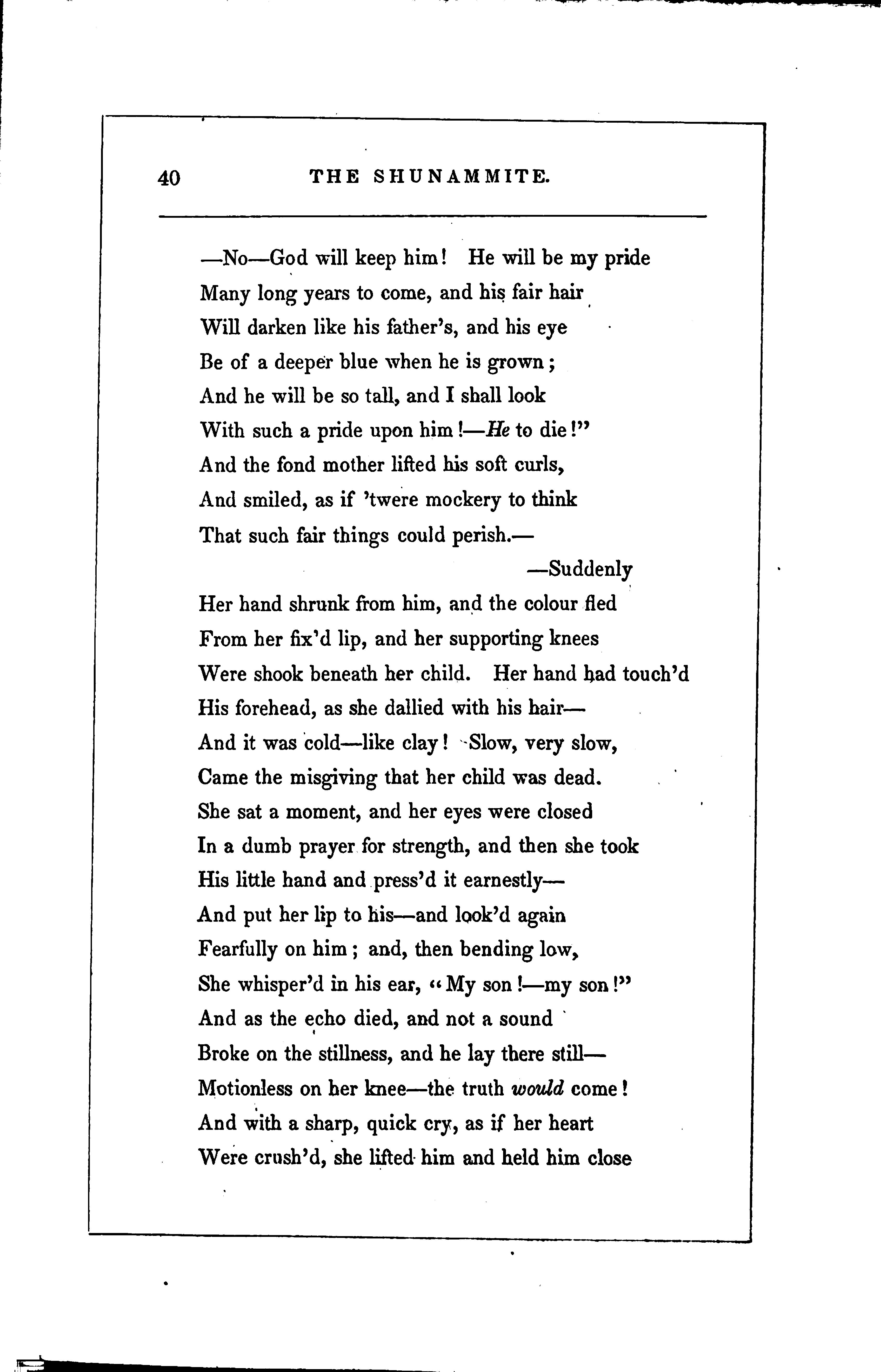

Into her bosom-with a mother's thoughtAs if death had no power to touch him there !
The man of God came forth, and led the child
Unto his mother, and went on his way. And he was there-her beautiful-her own Living and smiling on her with his arms.
Folded about her neck, and his warm breath Breathing upon her lips, and in her ear
The music of his gentle voice once more!
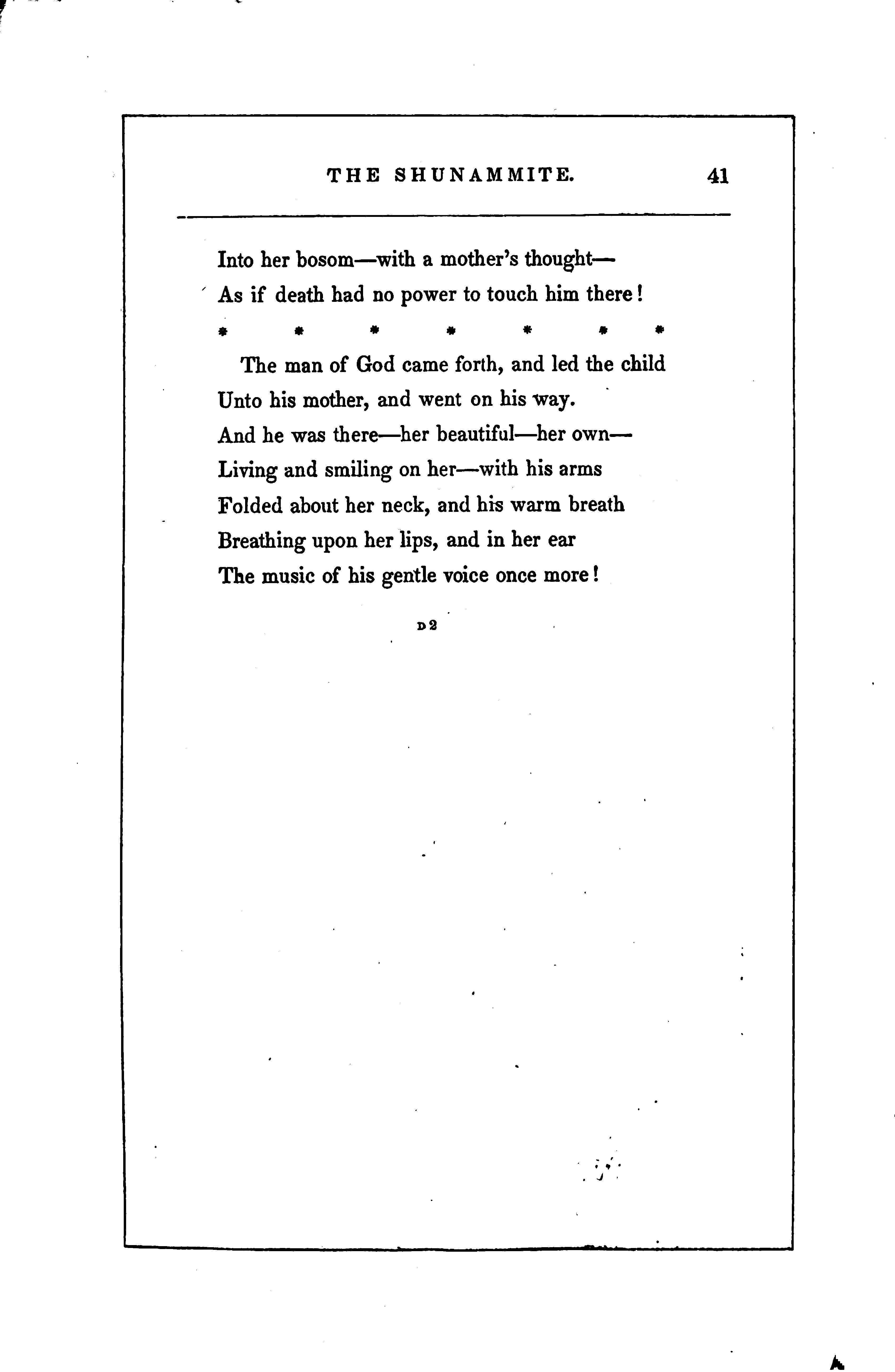


SHE stood before her father's gorgeous tent,
To listen for his coming. Her loose hair Was resting on her shoulders, like a cloud
Floating around a statue, and the wind, Just swaying her light robe, reveal'd a shape Praxiteles might worship. She had clasp'd Her hands upon her bosom, and had raised Her beautiful, dark, Jewish eyes to heaven, Tillthe long lashes lay upon her brow. Her lip was slightly parted, like the cleft
Of a pomegranate blossom ; and her neck, Just where the cheek was melting to its curve
With the unearthly beauty sometimes there, Was shaded, as if light had fallen off, Its surface was so polish'd. She was stilling Her light, quick breath, to hear ; and the white rose Scarce moved upon her bosom, as it swell'd, Like nothing but a lovely wave of light
To meet the arching of her queenly neck. Her countenance was radiant with love. She look'd like one to die for it a being

Whose whole existence was the pouring out . Of rich and deep affections.
Onward came
The leaden tramp of thousands. Clarion notes Rang sharply on the ear at intervals ; And the low, mingled din of mighty hosts Returning from the battle, pour'd from far, Like the deep murmur of a restless sea. They came, as earthly conquerors always come, With blood and splendor, revelry and wo. The stately horse treads proudly-he hath trod The brow of death, as well. The chariot-wheels Of warriors roll magnificently onTheir weight hath crush'd the fallen. Man is there Majestic, lordly man-with his sublime And elevated brow, and godlike frame ; Lifting his crest in triumph-for his heel Hath trod the dying like a wine-press down!
The mighty Jephthah led his warriors on Through Mizpeh's streets. His helm was proudly set, And his stern lip curl'd slightly, as if praise Were for the hero's scorn. His step was firm, But free as India's leopard; and his mail, Whose shekels none in Israel might bear, Was like a cedar's tassel on his frame.
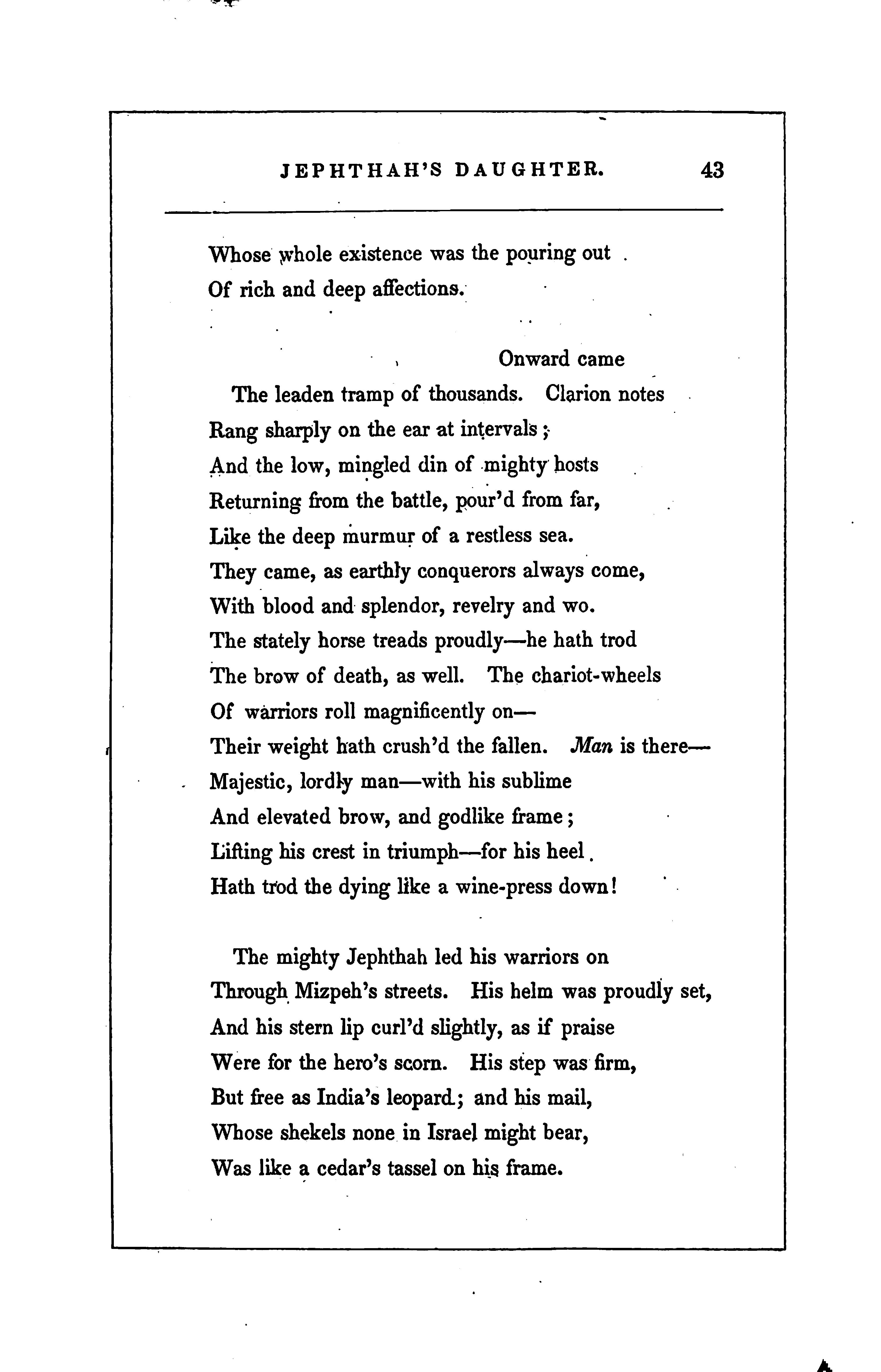

His crest was Judah's kingliest ; and the look
Of his dark, lofty eye, and bended brow, Might quell the lion. He led on ; but thoughts Seem'd gathering round which troubled him. The veins Grew visible upon his swarthy brow, And his proud lip was press'd as if with pain. He trod less firmly; and his restless eye
Glanced forward frequently, as if some ill He dared not meet, were there. His home was near; And men were thronging, with that strange delight They have in human passions, to observe The struggle of his feelings with his pride. He gazed intensely forward. The tall firs Before his door were motionless. The leaves
Of the sweet aloe, and the clustering vines Which half conceal'd his threshold, met his eye
Unchanged and beautiful ; and one by one, The balsam, with its sweet-distilling stems, And the Circassian rose, and all the crowd Of silent and familiar things, stole up, Like the recover'd passages of dreams. He strode on rapidly. A moment more, And he had reach'd his home ; when lo ! there sprang
One with a bounding footstep, and a brow
Of light, to meet him. Oh how beautiful!Her proud eye flashing like a sun-lit gemAnd her luxuriant hair!-'twas like the sweep
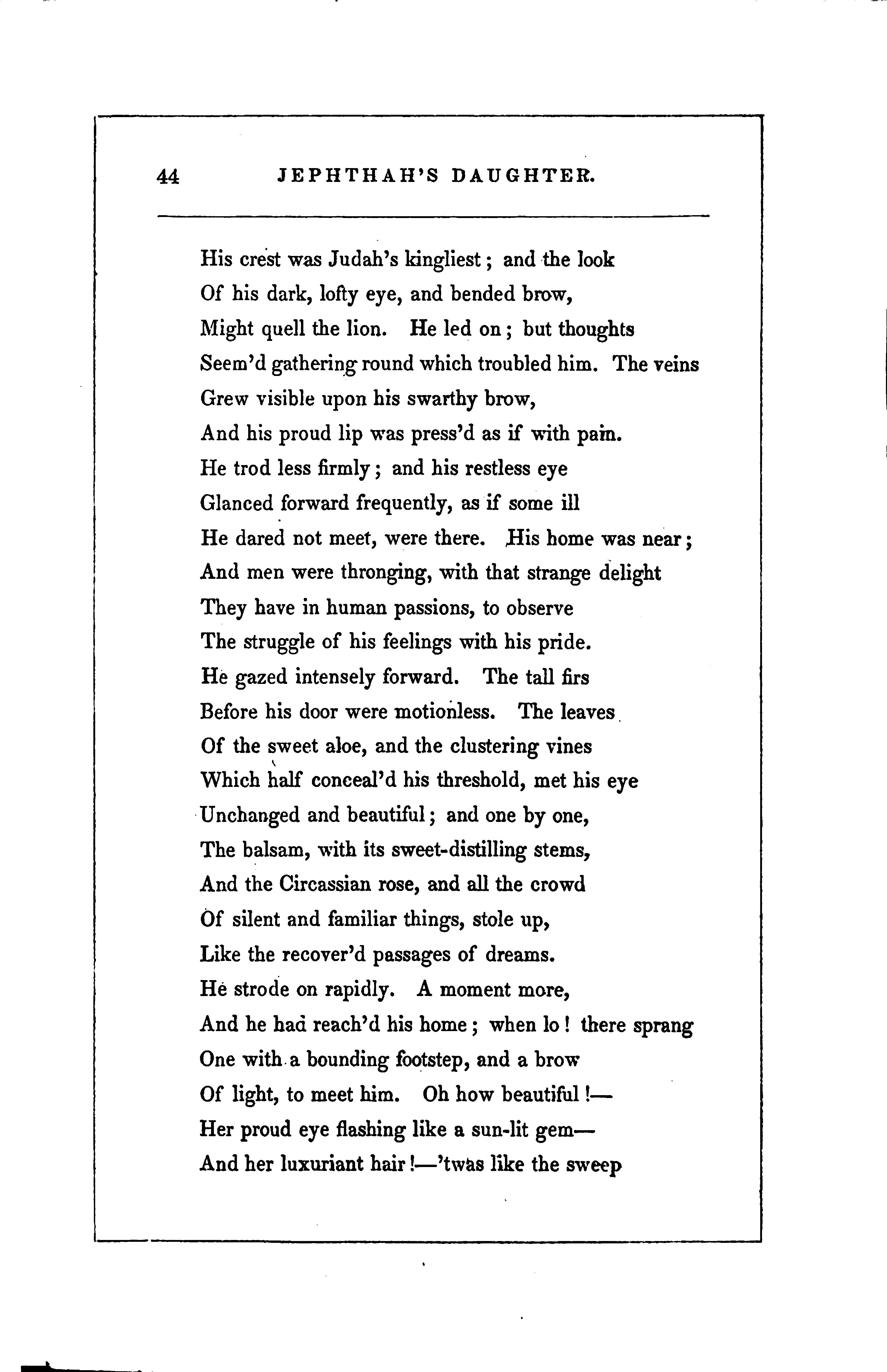

Of a dark wing in visions. He stood still,
As ifthe sight had wither'd him. She threw Her arms about his neck-he heeded not. She call'd him " Father" but he answer'd not. She stood and gazed upon him. Was he wroth? There was no anger in that blood-shot eye. Had sickness seized him? She unclasp'd his helm, And laid her white hand gently on his brow, And the large veins felt stiff and hard, like cords. The touch aroused him. He raised up his hands, And spoke the name of God, in agony. She knew that he was stricken, then ; and rush'd Again into his arms ; and, with a flood Of tears she could not bridle, sobb'd a prayer That he would breathe his agony in words. He told her and a momentary flush Shot o'er her countenance ; and then the soul Of Jephthah's daughter waken'd ; and she stood Calmly and nobly up, and said 'twas wellAnd she would die. * *
The sun had wellnigh set. The fire was on the altar; and the priest
Of the High God was there. A pallid man Was stretching out his trembling hands to heaven, As if he would have pray'd, but had no wordsAnd she who was to die, the calmest one
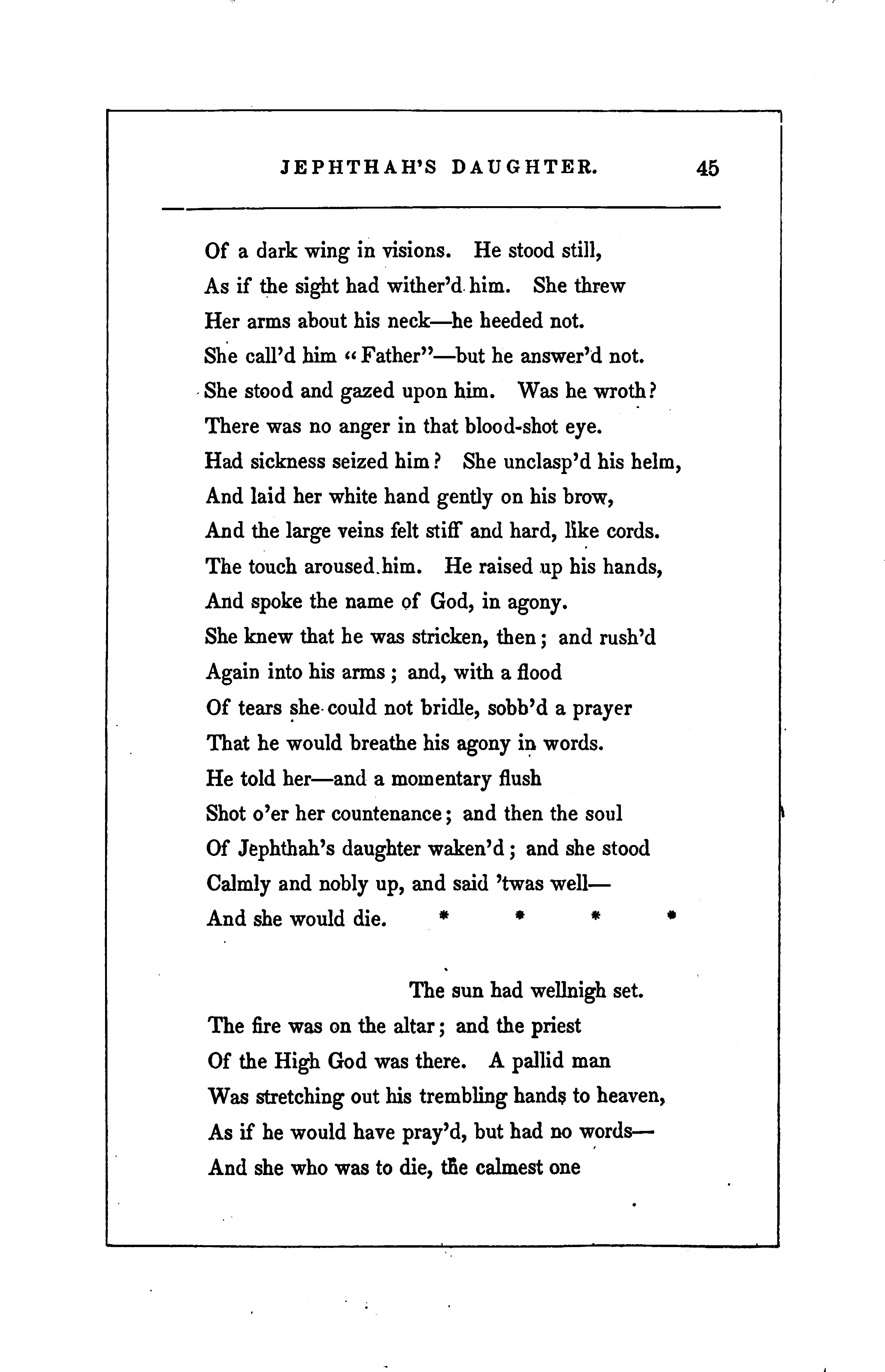

In Israel at that hour, stood up alone, And waited for the sun to set. Her face Was pale, but very beautiful ; her lip Had a more delicate outline, and the tint Was deeper ; but her countenance was like The majesty of angels.
The sun setAnd she was dead-but not by violence.
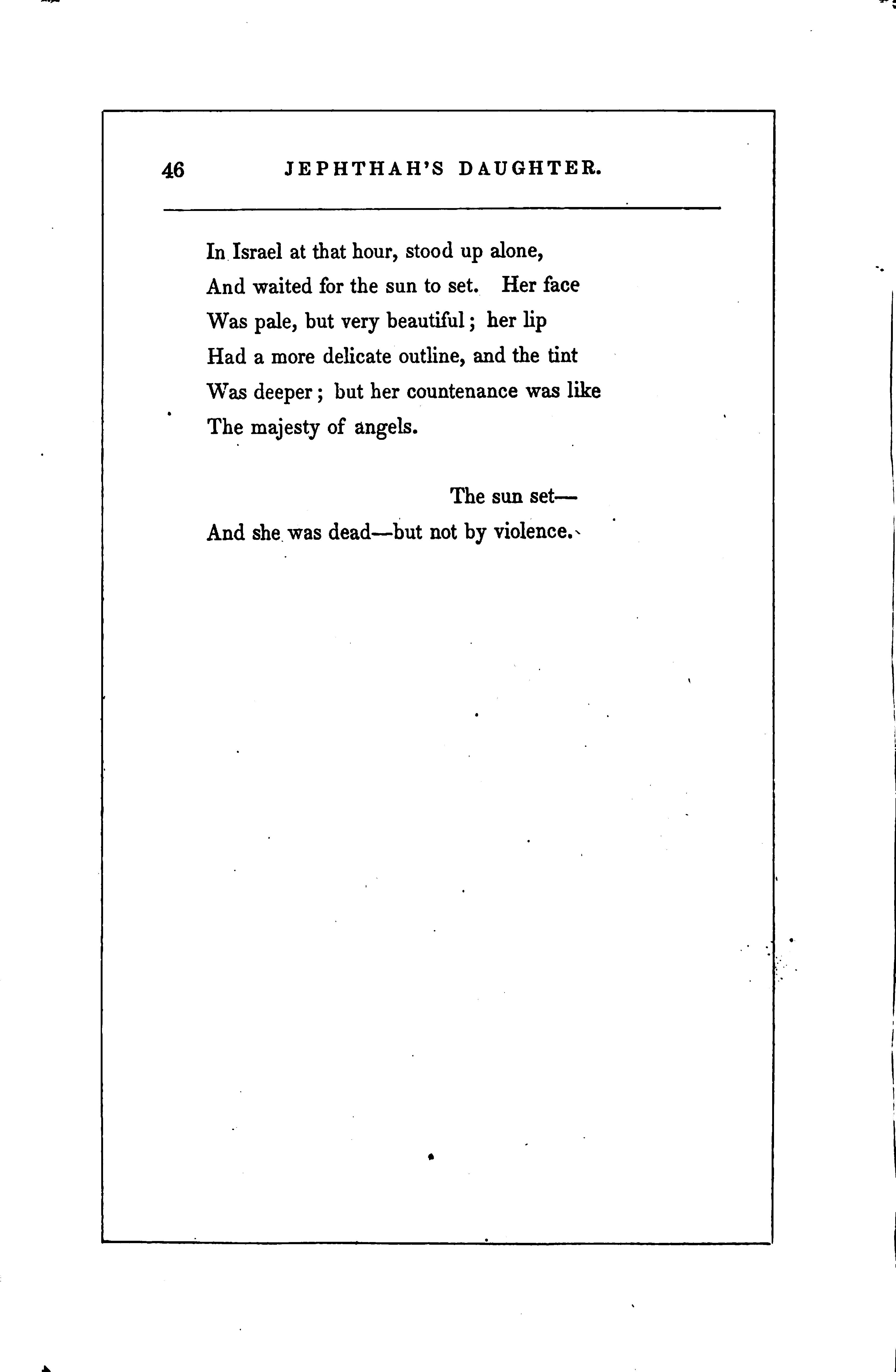

THE waters slept. Night's silvery veil hung low On Jordan's bosom, and the eddies curl'd Their glassy rings beneath it, like the still, Unbroken beating of the sleeper's pulse. The reeds bent down the stream ; the willow leaves, With a soft cheek upon the lulling tide, Forgot the lifting winds ; and the long stems, Whose flowers the water, like a gentle nurse, Bears on its bosom, quietly gave way, And lean'd, in graceful attitudes, to rest. How strikingly the course of nature tells, By its lightheed of human suffering, That it was fashion'd for a happier world !
King David's limbs were weary. He had fled From far Jerusalem; and nowhe stood, With his faint people, for a little rest Upon the shore of Jordan. The light wind Of morn was stirring, and he bared his brow To its refreshing breath; for he had worn
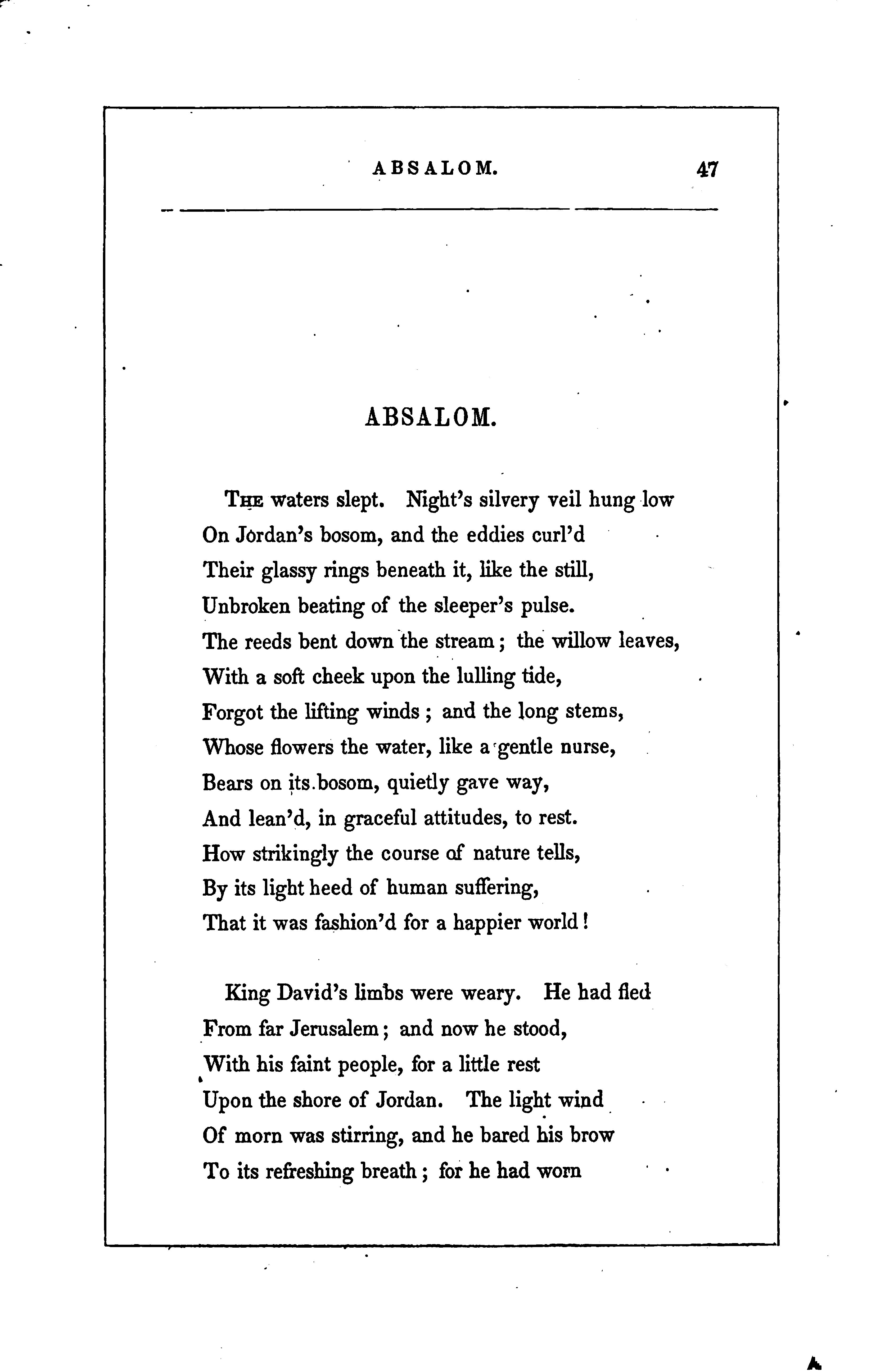

The mourner's covering, and he had not felt
That he could see his people until now. They gather'd round him on the fresh green bank, And spoke their kindly words ; and, as the sun in heaven, he knelt among them there, Roseup
And bow'd his head upon his hands to pray. Oh! whenthe heart is full-when bitterthoughts
Come crowdingthickly up for utterance, Andthe poorcommon words of courtesy
Are such an empty mockery-how much
Theburstingheart may pour itself in prayer! He pray'dforIsrael and his voice went up
Strongly and fervently. He pray'd for those Whoselove hadbeen his shield-and his deep tones Grew tremulous. But, oh! for Absalom-
Forhis estranged, misguided Absalom-
The proud, bright being, who had burst away
In all his princely beauty, to defy
The heart that cherish'd him-for him he pour'd, In agonythat would not be controll'd, Strong supplication, and forgave him there,
Before his God, for his deep sinfulness.
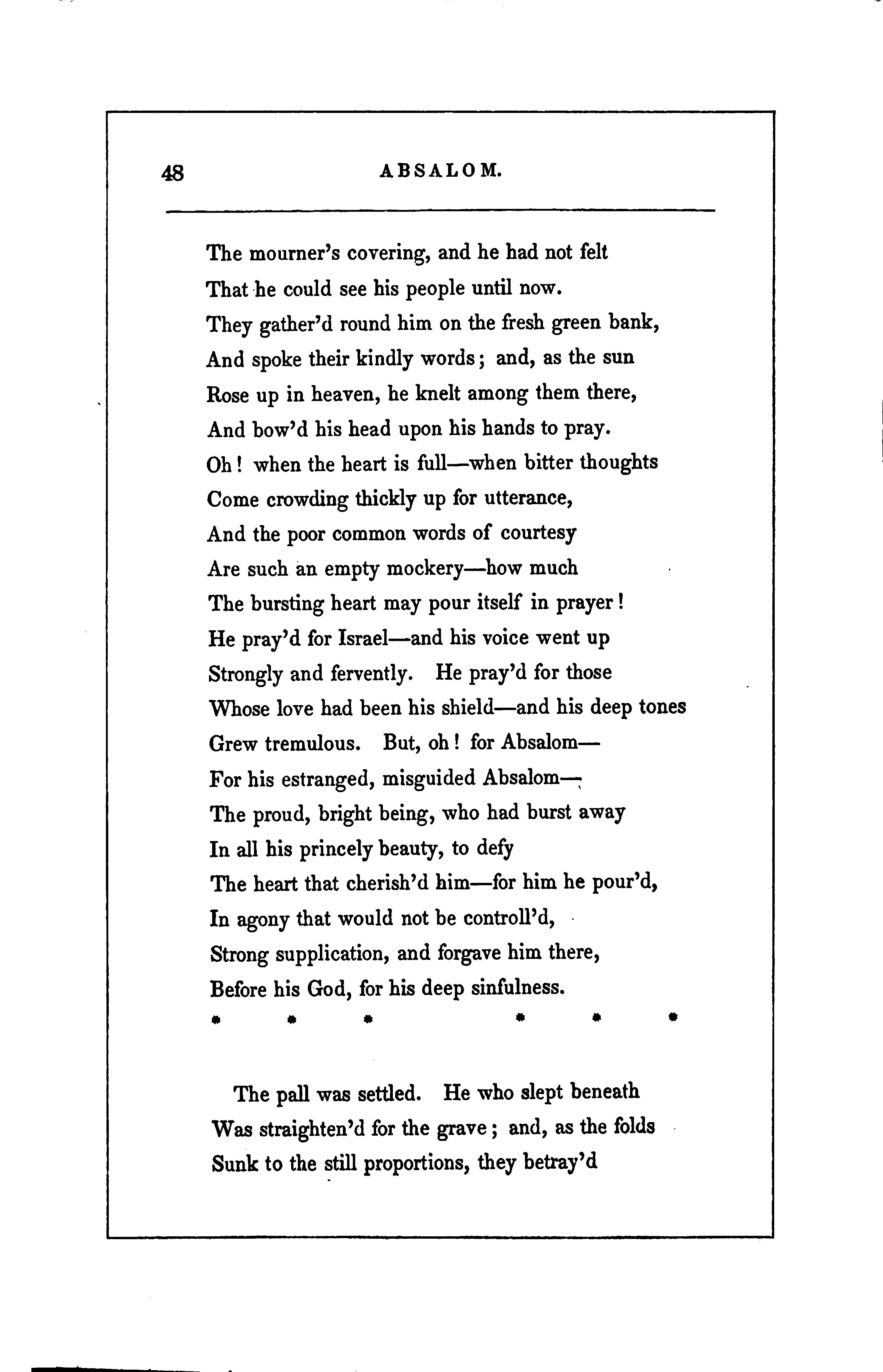
The pall was settled. He who slept beneath Was straighten'd for the grave ; and, as the folds
Sunk to the still proportions, they betray'd

The matchless symmetry of Absalom. His hair was yet unshorn, and silken curls. Were floating round the tassels as they sway'd
To the admitted air, as glossy now
As when, in hours of gentle dalliance, bathing The snowy fingers of Judea's daughters. His helm was at his feet;. his banner, soil'd
With trailing through Jerusalem, was laid, Reversed, beside him; and the jewell'd hilt, Whose diamonds lit the passage of his blade, Rested, like mockery, on his cover'd brow.
The soldiers of the king,trod to and fro,.
Clad in the garb of battle; and their chief, · The mighty Joab, stood.beside the bier, And gazed upon the dark pall steadfastly,
As if he fear'd the slumberer might stir.
A slow step startled him. He grasp'd his blade
As if a trumpet rang; but the bent form .
Of David enter'd, and he gave command, In a lowtone, to his few followers, And left him with his dead. The king stood still Till the last echo died ; then, throwing off The sackcloth from his brow, and laying back
The pall from the still features of his child, He bow'd his head upon him, and broke forth
In the resistless eloquence of wo :
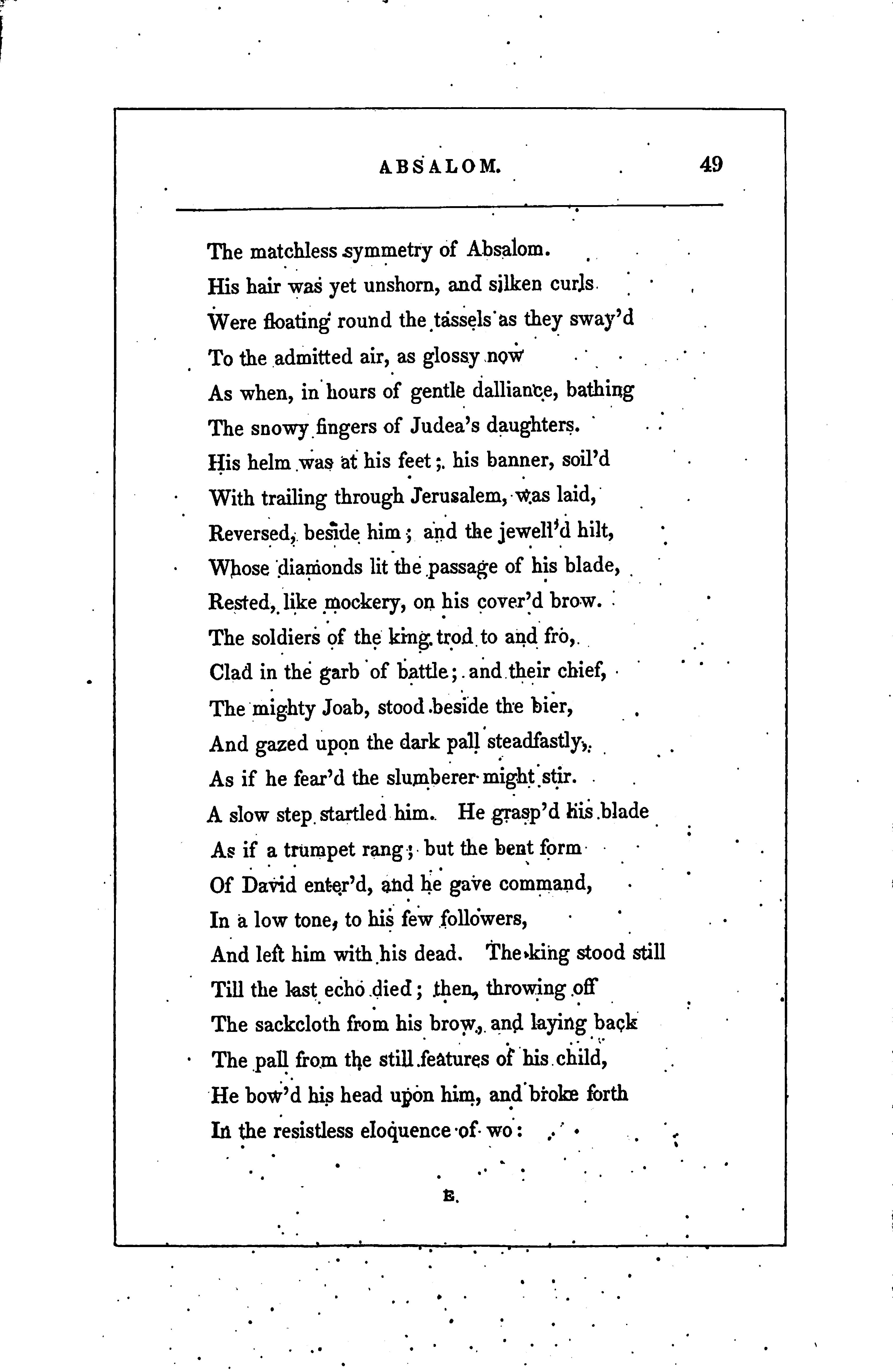

" Alas! my noble boy! that thou shouldst die! Thou, who wert made so beautifully fair! That death should settle in thy glorious eye, And leave his stillness in this clustering hair! How could he mark thee for the silent tomb! My proud boy, Absalom !
"Cold is thy brow, my son ! and I am chill, As to my bosom I have tried to press thee! How was I wont to feel my pulses thrill, Like a rich harp-string, yearning to caress thee, And hear thy sweet Myfather!' from these dumb And cold lips, Absalom !
"But death is on thee. I shall hear the gush Of music, and the voices of the young; And life will pass me inthe mantling blush, And the dark tresses to the soft winds flung ; But thou no more, with thy sweet voice, shalt come To meet me, Absalom!
"And oh! when I am stricken, and my heart, Like a bruised reed, is waiting to be broken, Howwill its love for thee, as I depart,
Yearn for thine ear to drink its last deep token! It were so sweet, amid death's gathering gloom, To see thee, Absalom!
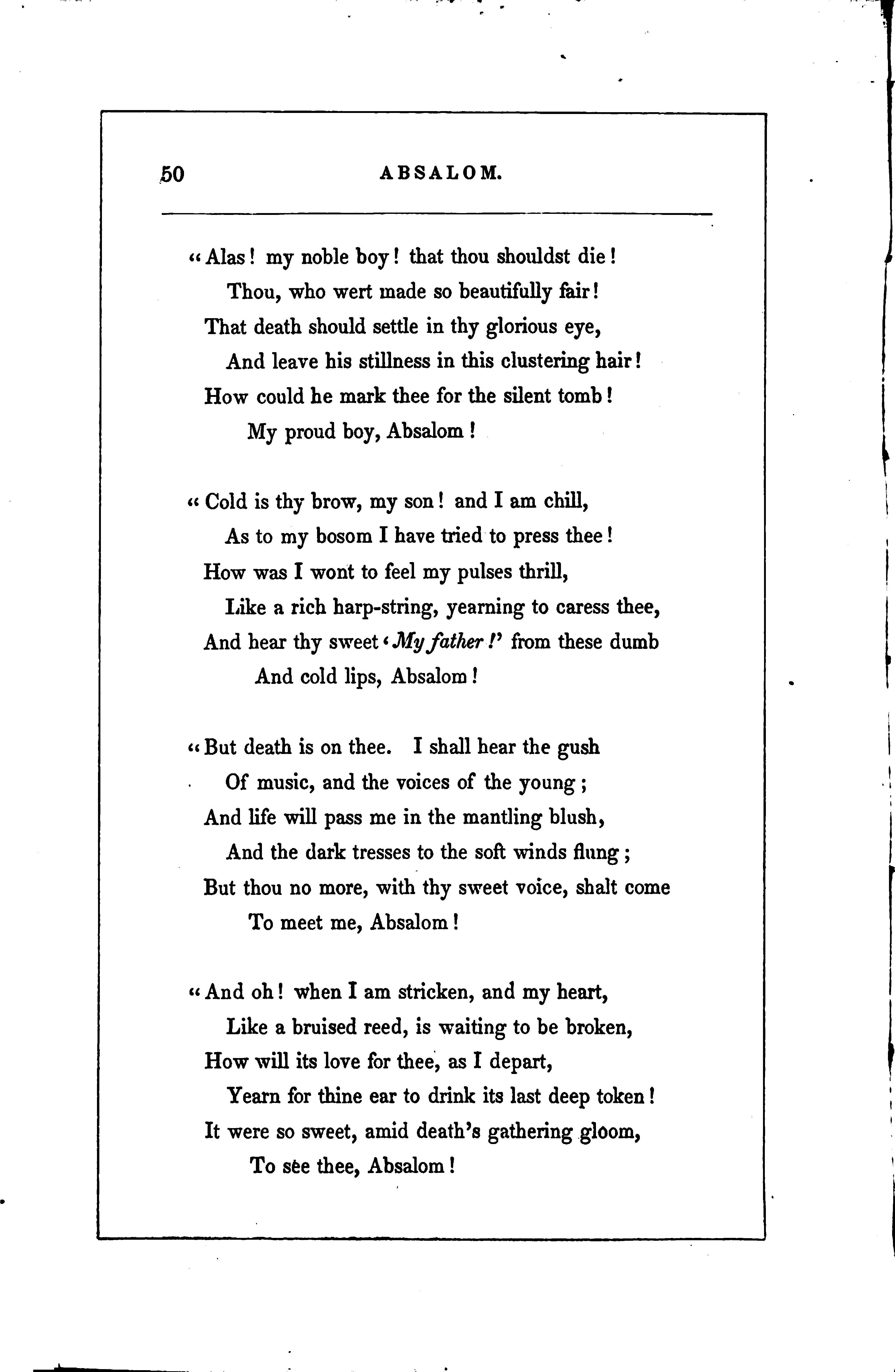

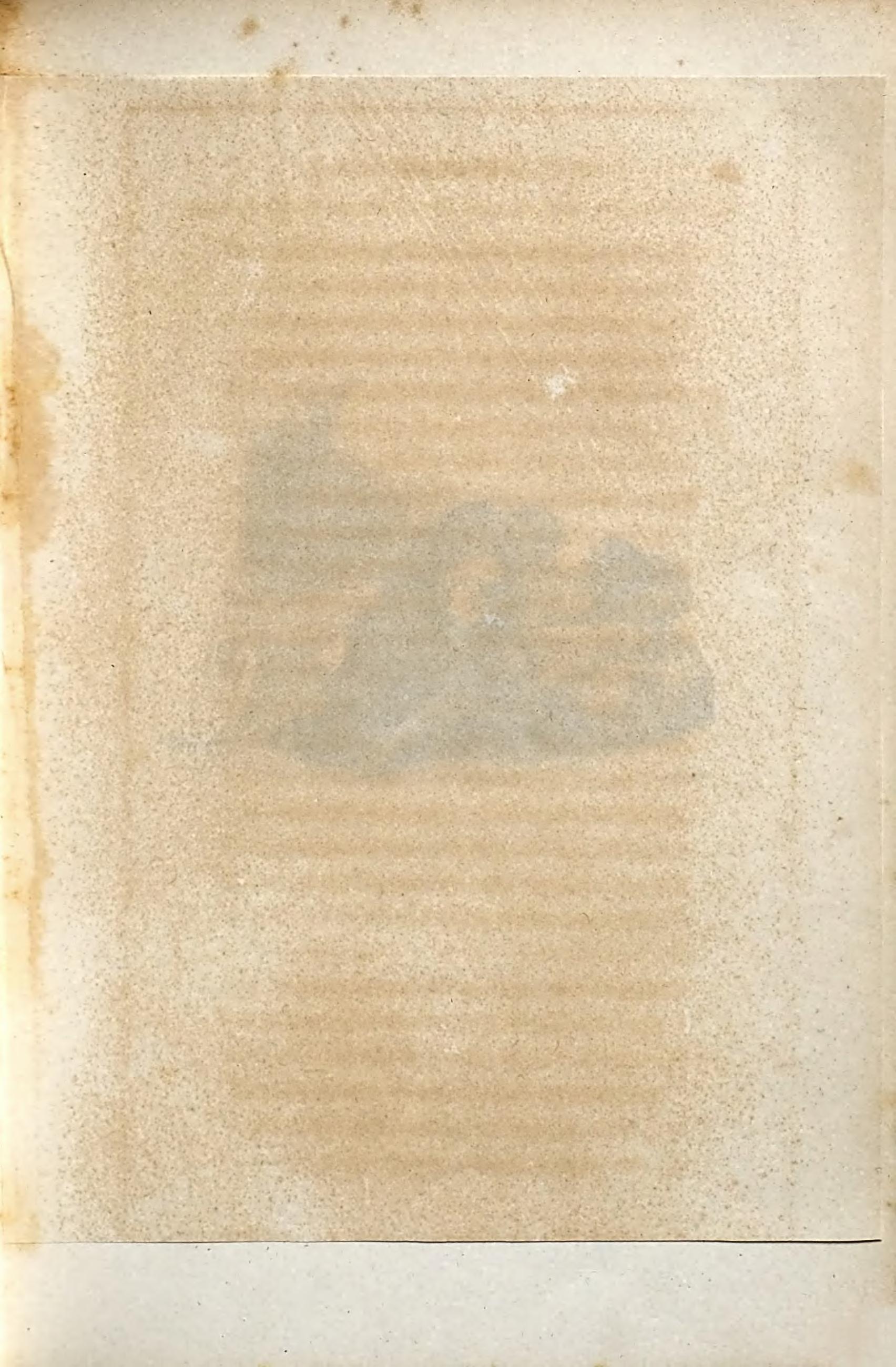

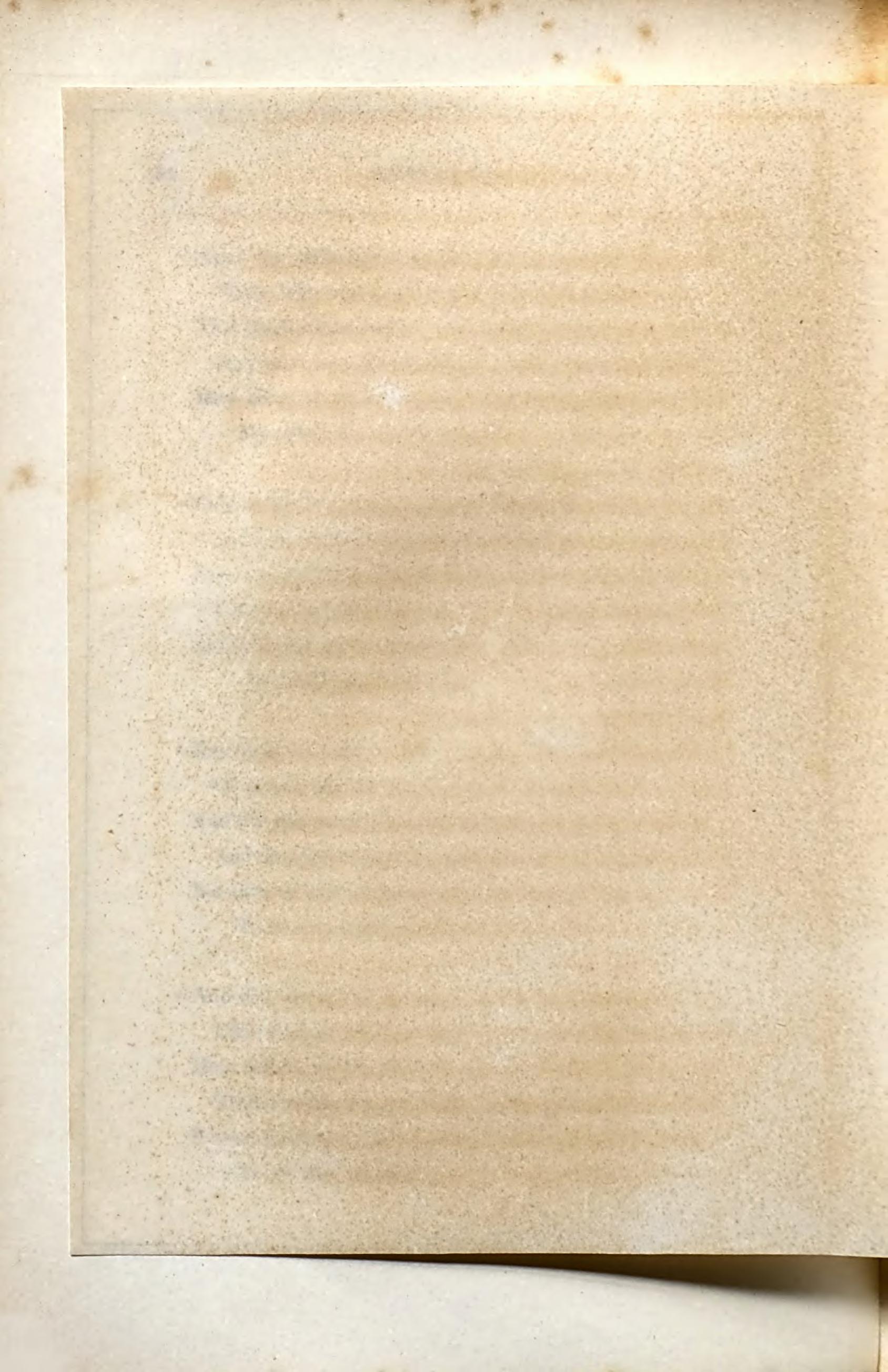

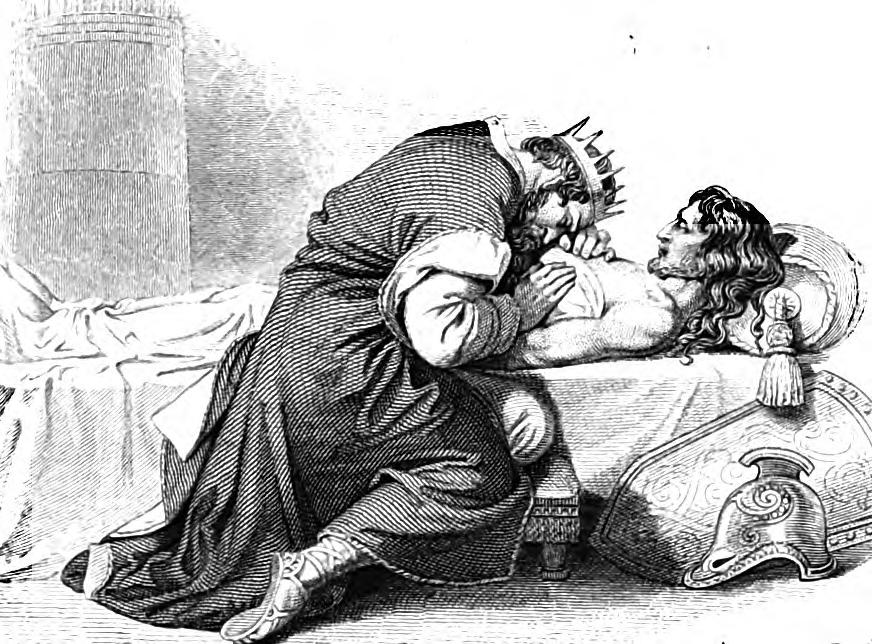
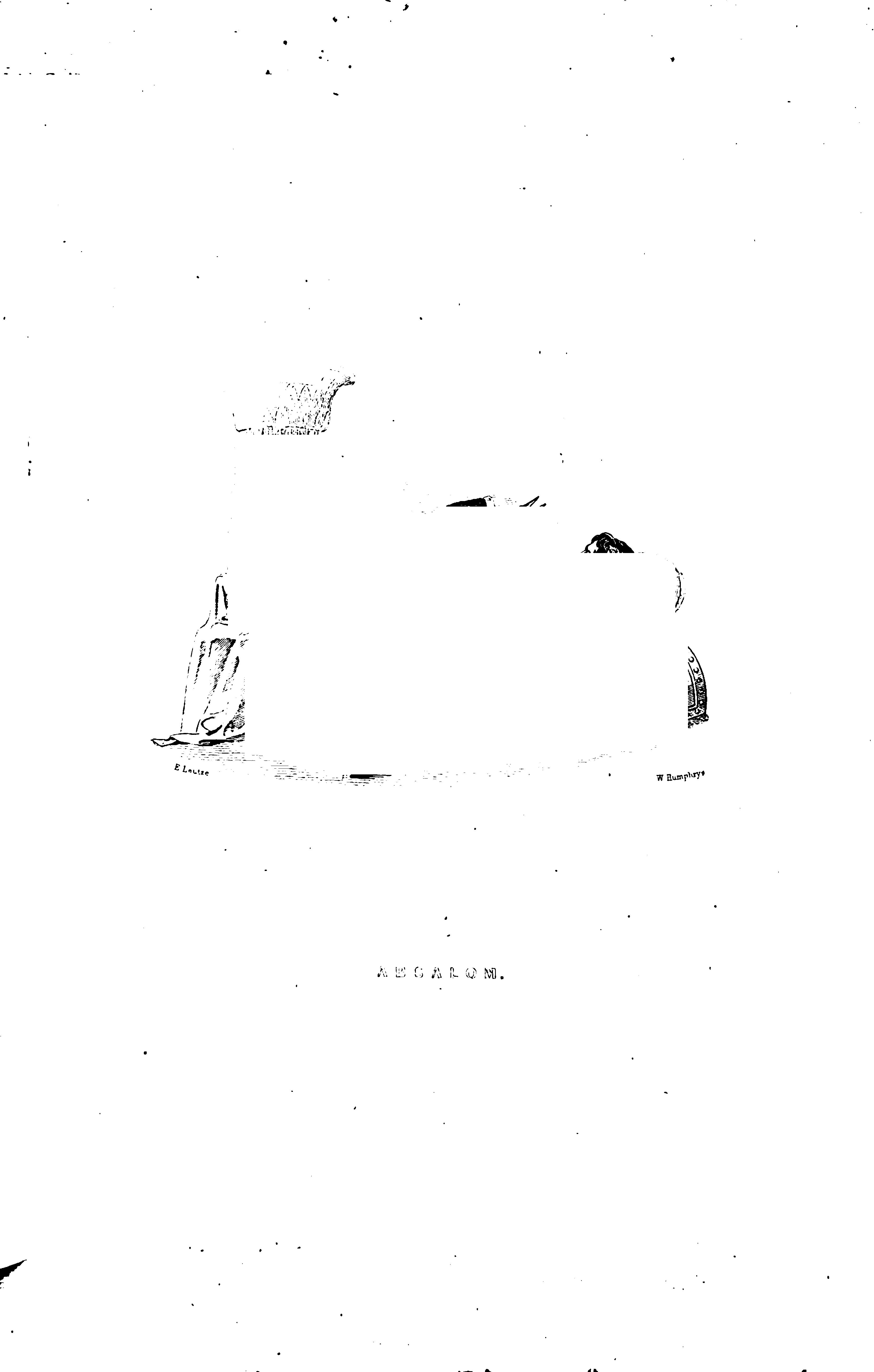
 ELeutze
ELeutze
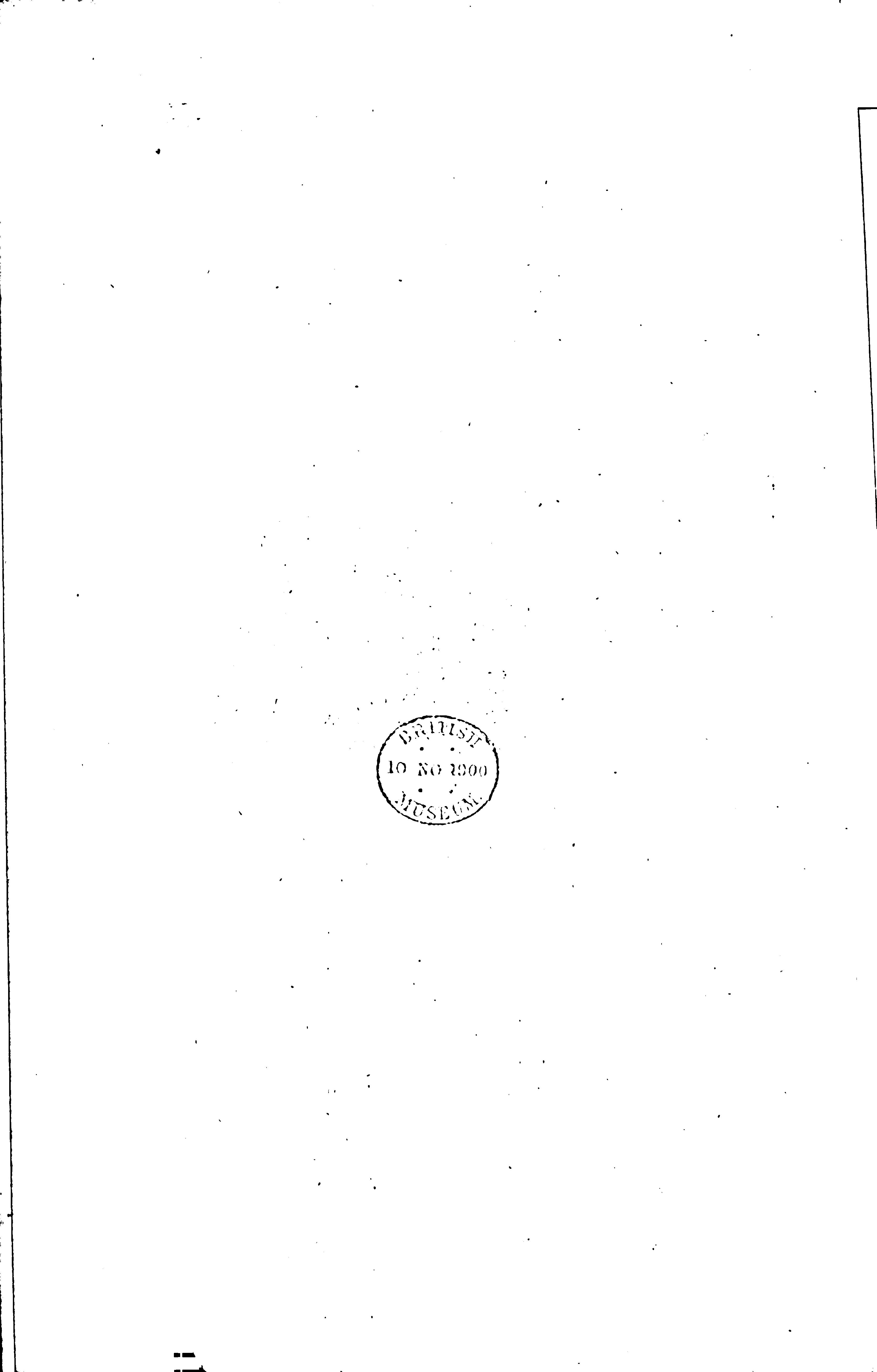

" And now, farewell ! 'Tis hard to give thee up, With death so like a gentle slumber on thee ; And thy dark sin !-Oh ! I could drink the cup, If from this wo its bitterness had won thee.
May God have call'd thee, like a wanderer, home, My lost boy, Absalom !"
He cover'd up his face, and bow'd himself
A moment on his child : then, giving him
A look of melting tenderness, he clasp'd His hands convulsively, as if in prayer ; And, as if strength were given him of God, He rose up calmly, and composed the pall Firmly and decently-and left him there
As if his rest had been a breathing sleep.
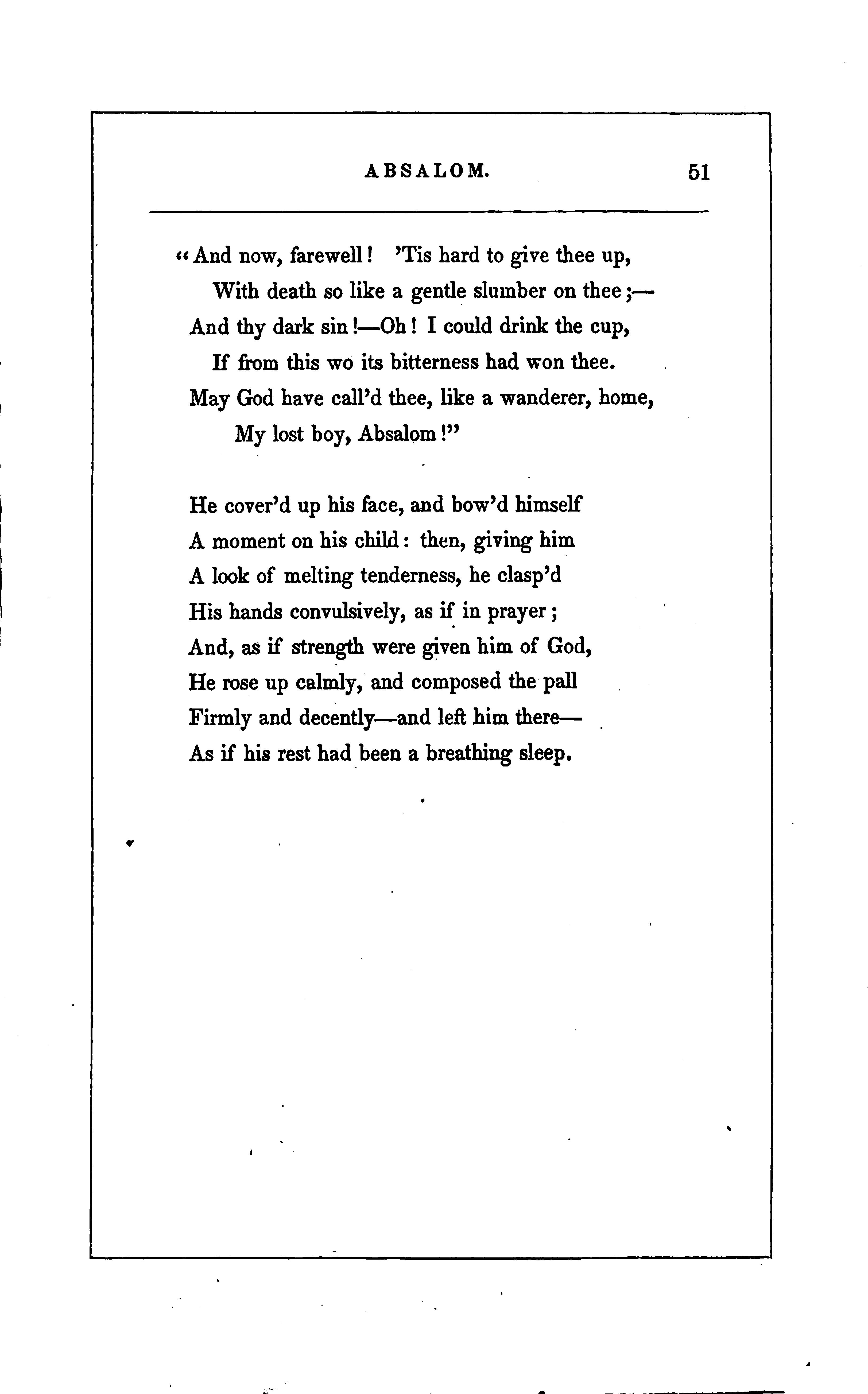

52 CHRIST'S ENTRANCE INTO JERUSALEM.
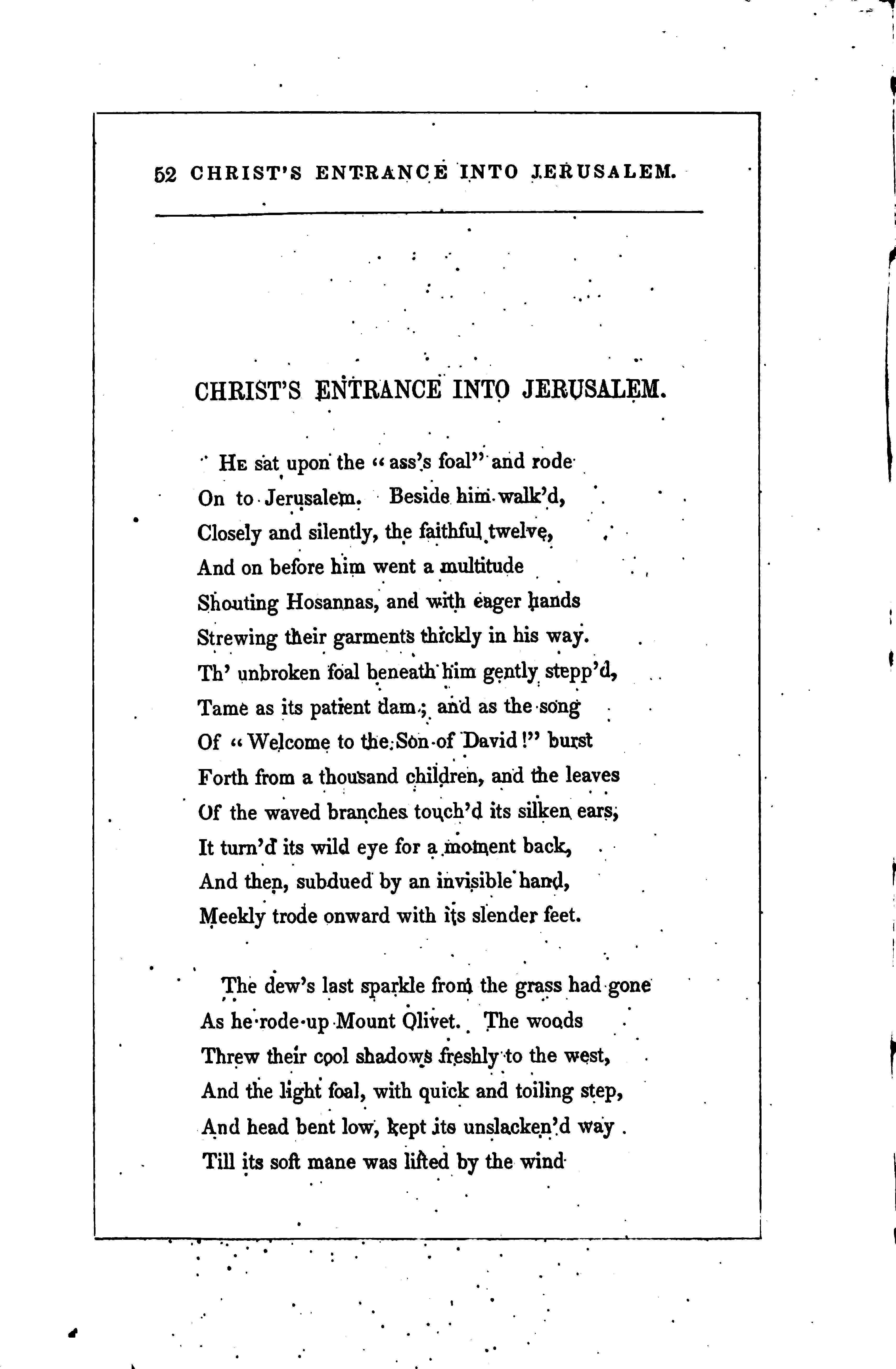
CHRIST'S ENTRANCE INTO JERUSALEM.
He sat upon the " ass's foal" and rode
On to Jerusalem. Beside him walk'd, Closely and silently, the faithful twelve, And on before him went a multitude
Shouting Hosannas, and with eager hands
Strewing their garments thickly in his way.
Th' unbroken foal beneath him gently stepp'd, :
Tame as its patient dam; and as the song Of Welcome to the Son of David!" burst
Forth from a thousand children, and the leaves
Of the waved branches touch'd its silken ears,
It turn d its wild eye for a moment back,
And then, subdued by an invisible hand, Meekly trode onward with its slender feet.
The dew's last sparkle from the grass had gone
As he rode-up Mount Olivet. The woods
Threwtheir cool shadows freshly to the west,
And the light foal, with quick and toiling step, And head bent low, kept its unslacken'd way
Till its soft mane was lifted by the wind

Sent o'er the mount from Jordan. As he reach'd
The summit's breezy pitch, the Saviour raised His calm blue eye-there stood Jerusalem ! Eagerly he bent forward, and beneath His mantle's passive folds, a bolder line Than the wont slightness of his perfect limbs
Betray'd the swelling fulness of his heart. There stood Jerusalem! Howfair she look'dThe silver sun on all her palaces, And her fair daughters 'mid the golden spires Tending their terrace flowers, and Kedron's stream
Lacing the meadows with its silver band, And wreathing its mist-mantle on the sky With the morn's exhalations. There she stoodJerusalem-the city of his love, Chosen from all the earth ; JerusalemThat knew him not-and had rejected him ; Jerusalem-for whom he came to die! The shouts redoubled from a thousand lips
At the fair sight ; the children leap'd and sang Louder Hosannas ; the clear air was fill'd
With odour from the trampled olive-leavesBut Jesus wept." The loved disciple saw His Master's tears, and closer to his side He came with yearning looks, and on his neck
The Saviour leant with heavenly tenderness, And mourn'd- How oft; Jerusalem! would I E2
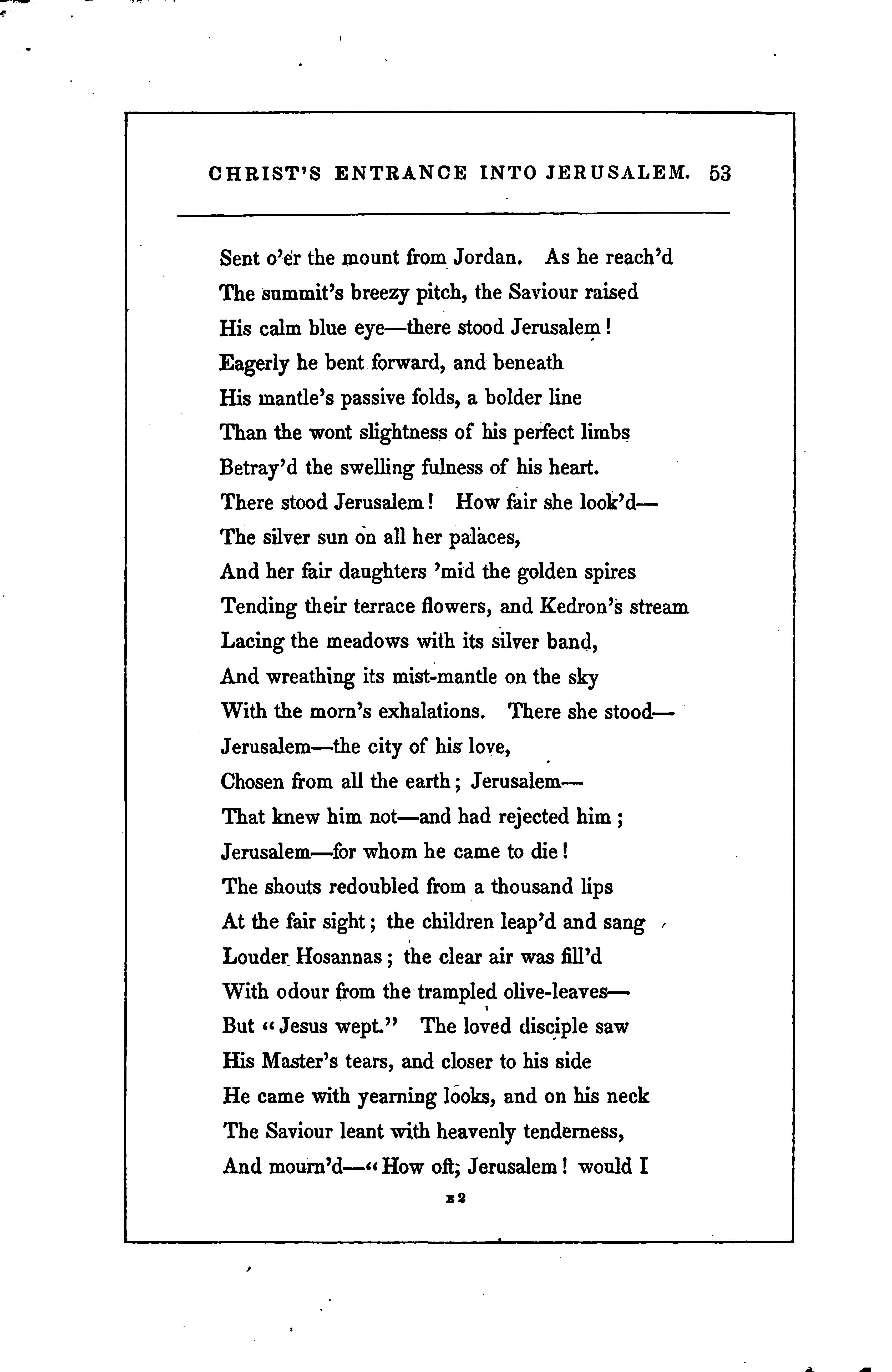

Have gather'd you, as gathereth a hen : Her brood beneath her wings-but ye would not !"
He thought not of the death that he should die He thought not of the thorns he knew must pierce His forehead of the buffet onthe cheekThe scourge, the mocking homage,the foul scorn ! Gethsemane stood out beneath his eye
Clear inthe morning sun, and there, he knew, While they who " could not watch with him one hour" Were sleeping, he should sweat great drops of blood, Praying the cup might pass." And Golgotha Stood bare and desert by the city wall, And in its midst, to his prophetic eye, Rose the rough cross, and its keen agonies ' Were number'd all the nails were in his feetTh' insulting sponge was pressing on his lipsThe blood and water gushing from his side-
The dizzy faintness swimming in his brainAnd, while his own disciples fled in fear, A world's death-agonies.all mix'd in his ! . Ay!-he forgot all this. He only saw Jerusalem, the chosen the loved-the lost!.
He only felt that forher sake his life . : Was vainly given, and, in his pitying love, The sufferings that would clothe the heavens in black Were quite forgotten. Was there ever love, In earth or heaven, equal unto this?
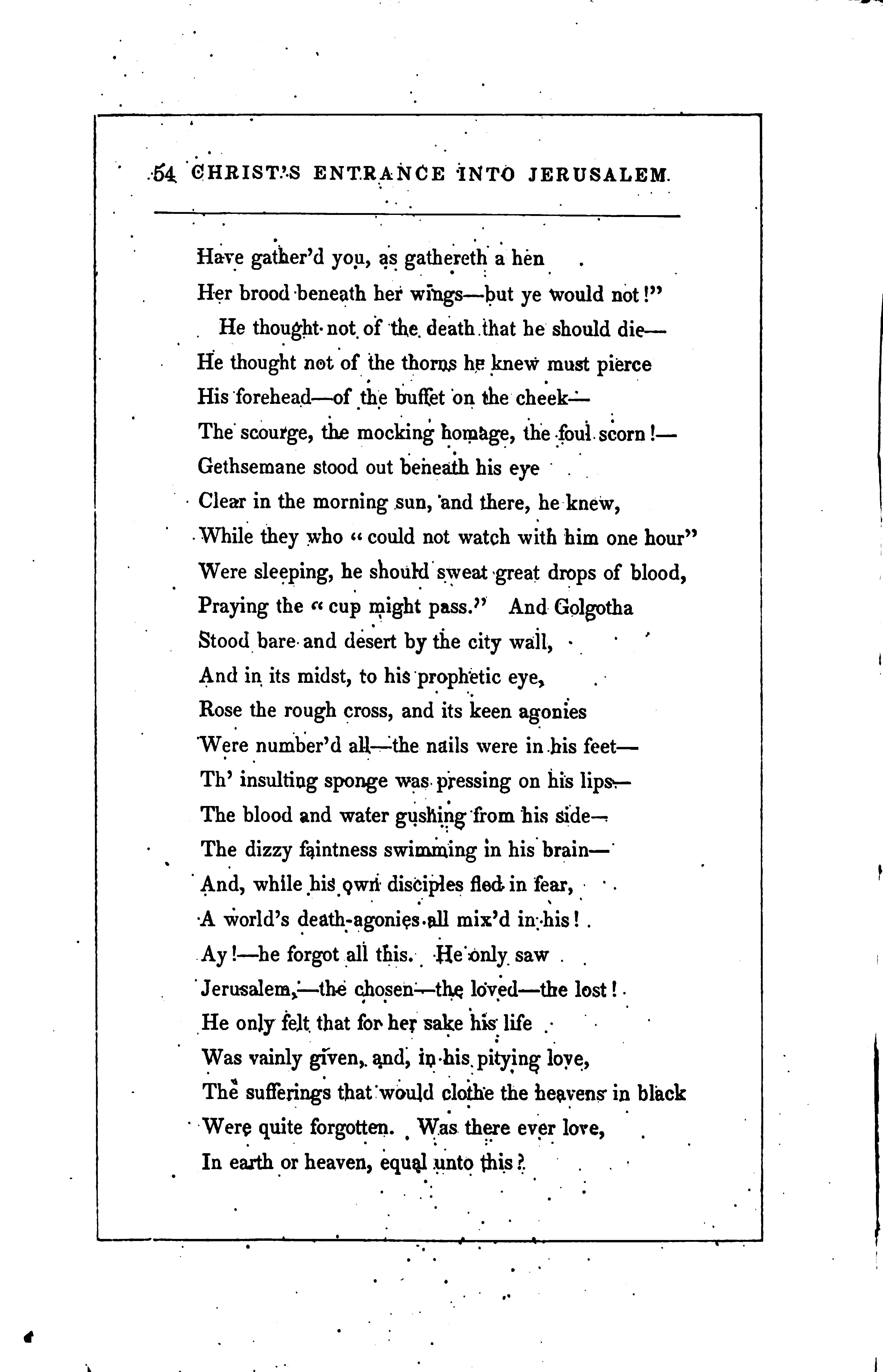

It was a green spot in the wilderness, Touch'd bythe river Jordan. The dark pine Never had dropp'd its tassels on the moss Tufting the leaning bank, nor onthe grass Of the broad circle stretching evenly To the straight larches, had a heavier foot Than the wild heron's trodden. Softly in Through a long aisle of willows, dim and cool, Stole the clear waters with their muffled feet, And, hushing as they spread into the light, Circled the edges of the pebbled tank Slowly, then rippled through the woods away. Hither had come th' Apostle of the wild, Winding the river's course. 'Twas near the flush Of eve, and, with a multitude around, Who from the cities had come out to hear, He stood breast-high amid the running stream, Baptizing as the Spirit gave him power. His simple raiment was of camel's hair, A leathern girdle close about his loins, His beard unshorn, and for his daily meat
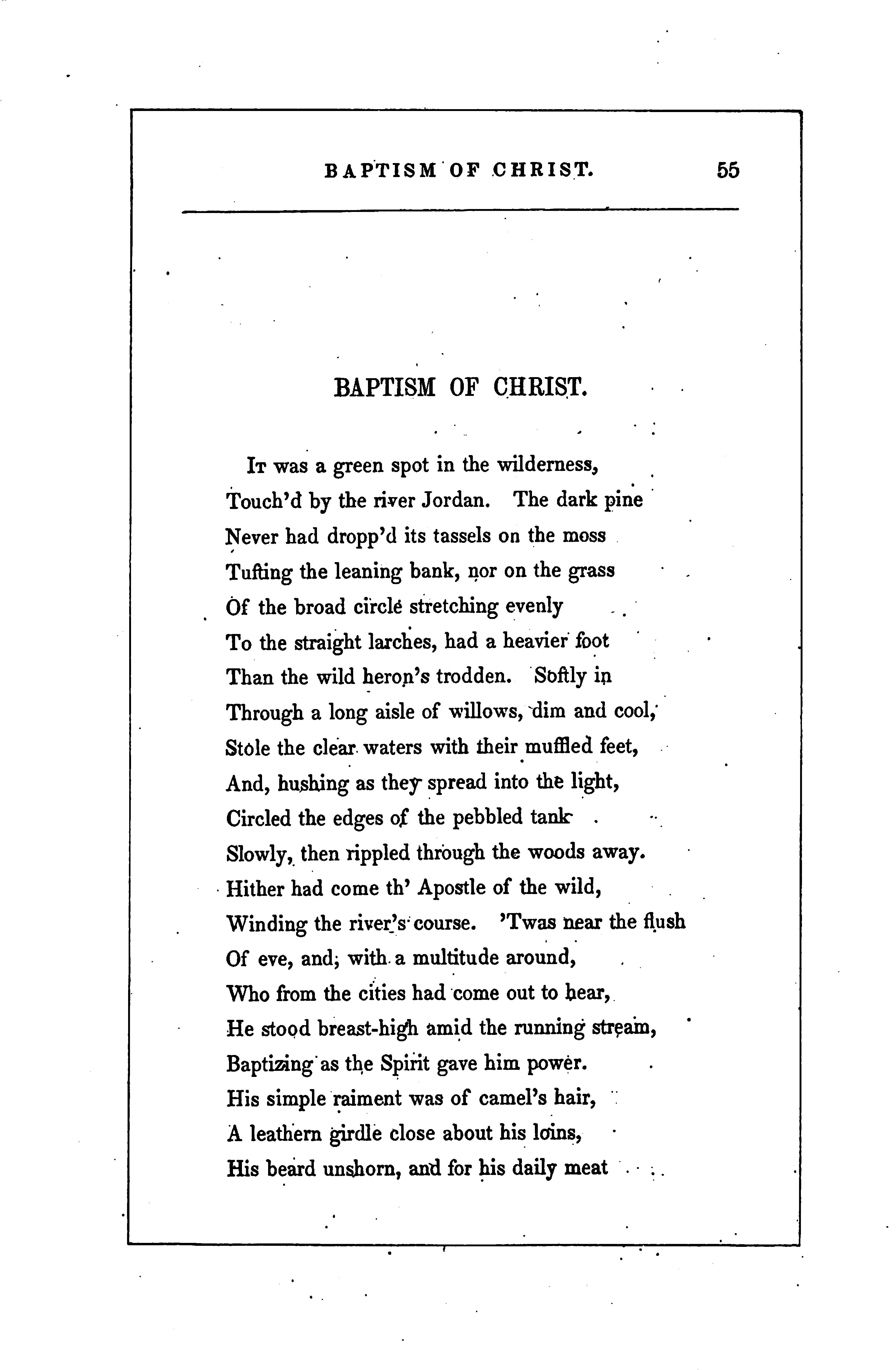

The locust and wild honey of the wood ; But like the face of Moses on the mount
Shone his rapt countenance, and in his eye
Burn'd the mild fire of love ; and as he spoke The ear lean'd to him, and persuasion swift To the chain'd spirit of the listener stole.
Silent upon
the green and sloping bank
The people sat, and while the leaves were shook
With the birds dropping early totheir nests, And the gray eve came on, within their hearts
They mused if he were Christ. The rippling stream Still turn'd its silver courses from his breast
As he divined theirthought. "Ibut baptize,"
He said, with water; but there cometh One, The latchet of whose shoes I may not dare Ev'n to unloose. He will baptize with fire´ And withthe Holy Ghost." And lo! while yet The words were on his lips, he raised his eyes, And onthe bank stood Jesus. He had laid His raiment off, and with his loins alone
Girt with a mantle, and his perfect limbs, In their angelic slightness, meek and bare, He waited to go in. ButJohn forbade, And hurried to his feet and stay'd him there, And said, " Nay, Master! I have need of thine, Notthouofmine !" And Jesus, with a smile
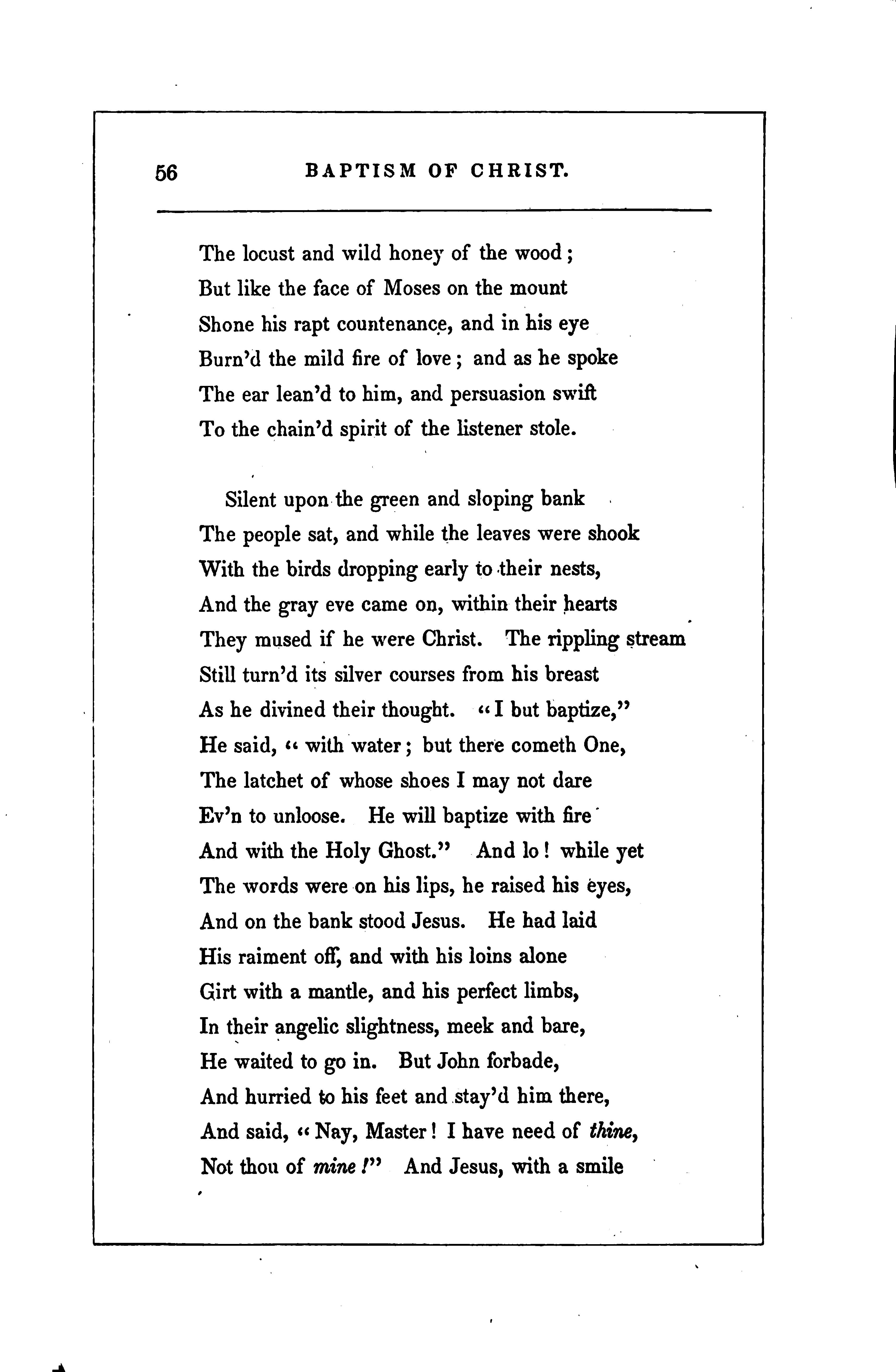

Of heavenly sadness, met his earnest looks, And answer'd, « Suffer it to be so now; For thus it doth become me to fulfil All righteousness." And, leaning to the stream, He took around him the Apostle's arm, And drew him gently to the midst. The wood Was thick with the dim twilight as they came Up from the water. With his clasped hands Laid on his breast, th' Apostle silently Follow'd his Master's steps-when lo ! a light, Bright as the tenfold glory of the sun, Yet lambent as the softly burning stars, Envelop'd them, and fromthe heavens away Parted the dim blue ether like a veil ; And as a voice, fearful exceedingly, Broke from the midst; " THIS IS MY MUCH LOVED SON IN WHOM I AM WELL PLEASED,"" a snów-white dove, Floating upon its wings, descended through ; And shedding a swift music from its plumes, Circled, and flutter'd to the Saviour's breast.
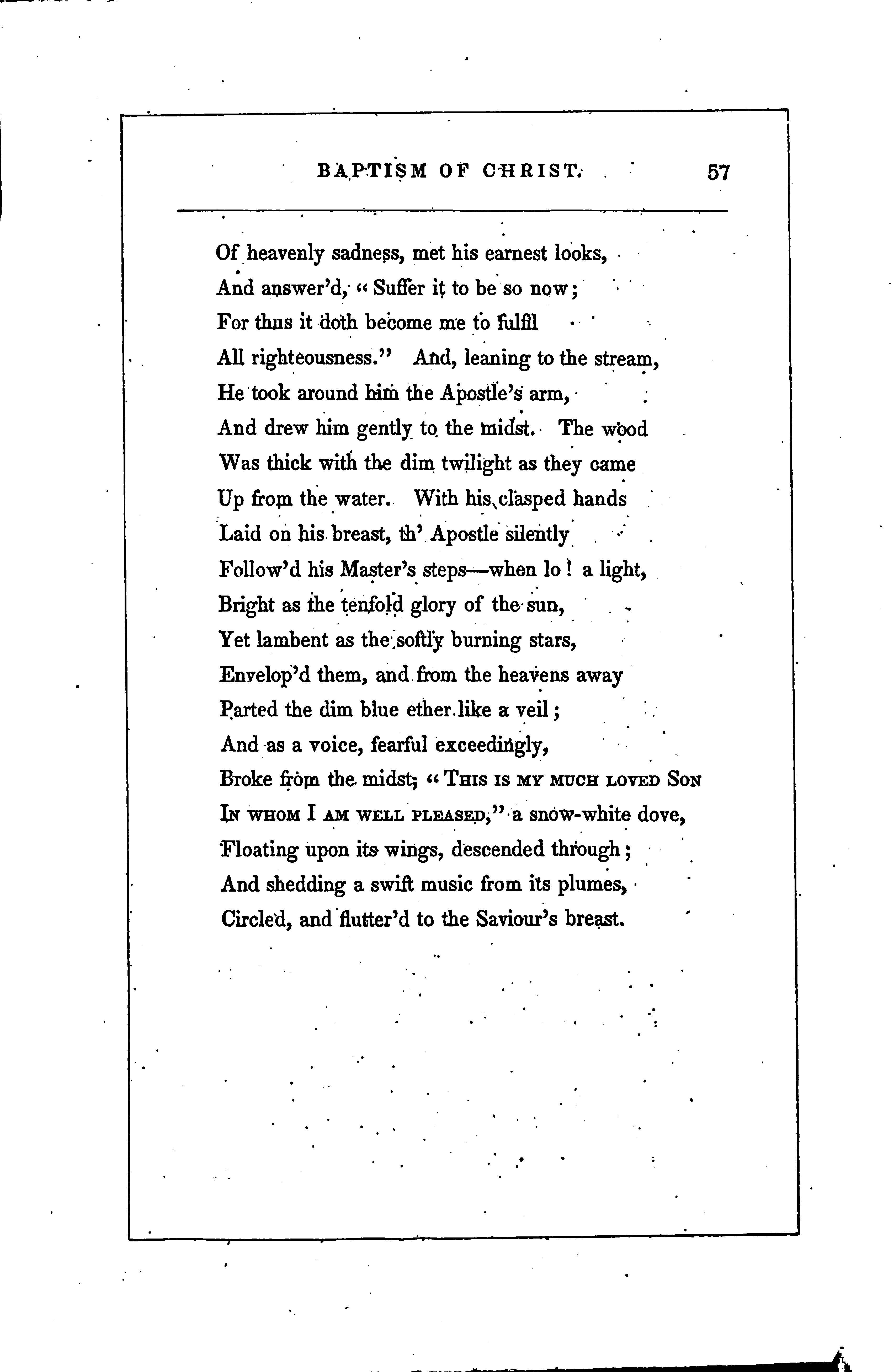

THE moon was shining yet. The Orient's brow, Set with the morning-star, was not yet dim ; And the deep silence which subdues the breath
Like a strong feeling, hung upon the world
As sleep uponthe pulses of a child. 'Twas the last watch of night. Gethsemane, With its bathed leaves of silver, seem'd dissolved In visible stillness ; and as Jesus' voice, With its bewildering sweetness, met the ear
Of his disciples, it vibrated on
Like the first whisper in a silent world. They came on slowly. Heaviness oppress'd The Saviour's heart, and when the kindnesses
Of his deep love were pour'd, he felt the need Of near communion, for his gift of strength Was wasted by the spirit's weariness. He left them there, and went a little on,
And in the depth of that hush'd silentness, Alone with God, he fell upon his face, And as his heart was broken with the rush
Of his surpassing agony, and death, Wrung to him from a dying universe, Was mightier than the Son of man could bear,
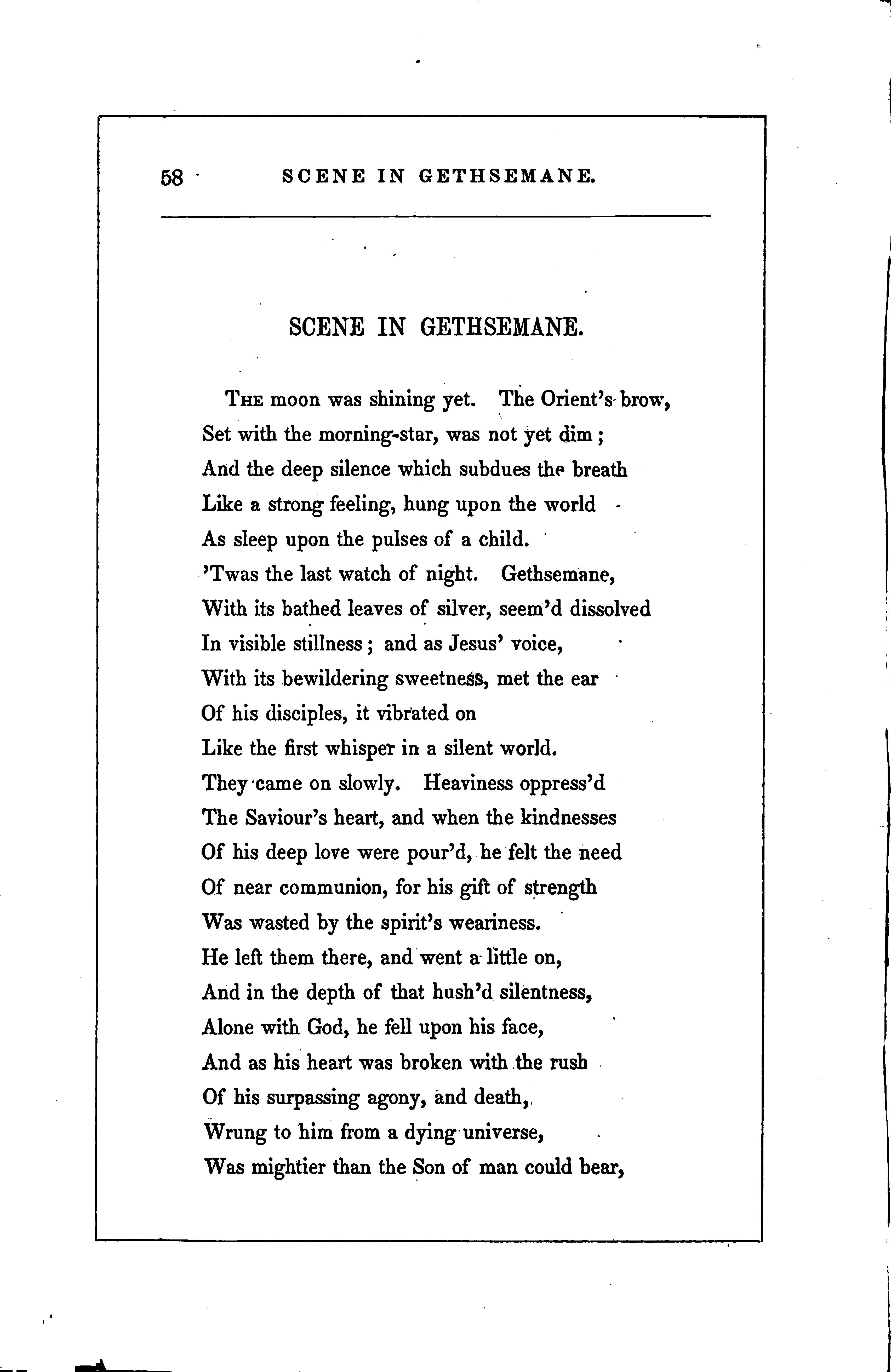

He gave his sorrows way-and in the deep Prostration of his soul, breathed out the prayer, "Father, if it be possible with thee, Let this cup pass from me." Oh, how a word, Like the forced drop before the fountain breaks, Stilleth the press of human agony! The Saviour felt its quiet in his soul ; And though his strength was weakness, and the light Which led him on till now was sorely dim, He breathed a new submission- Not my will, But thine be done, oh Father!" As he spoke, Voices were heard in heaven, and music stole Out from the chambers of the vaulted sky As if the stars were swept like instruments. No. cloud was visible, but radiant wings Were coming with a silvery rush to earth, And as the Saviour rose, a glorious one, With an illumined forehead, and the light Whose fountain is the mystery of God Encalm'd within his eye, bow'd down to him, And nerved him with a ministry of strength. It was enough ; and with his godlike brow Re-written of his Father's messenger, With meekness, whose divinity is more Than power and glory, he return'd again To his disciples, and awaked their sleep, For he that should betray him was at hand."
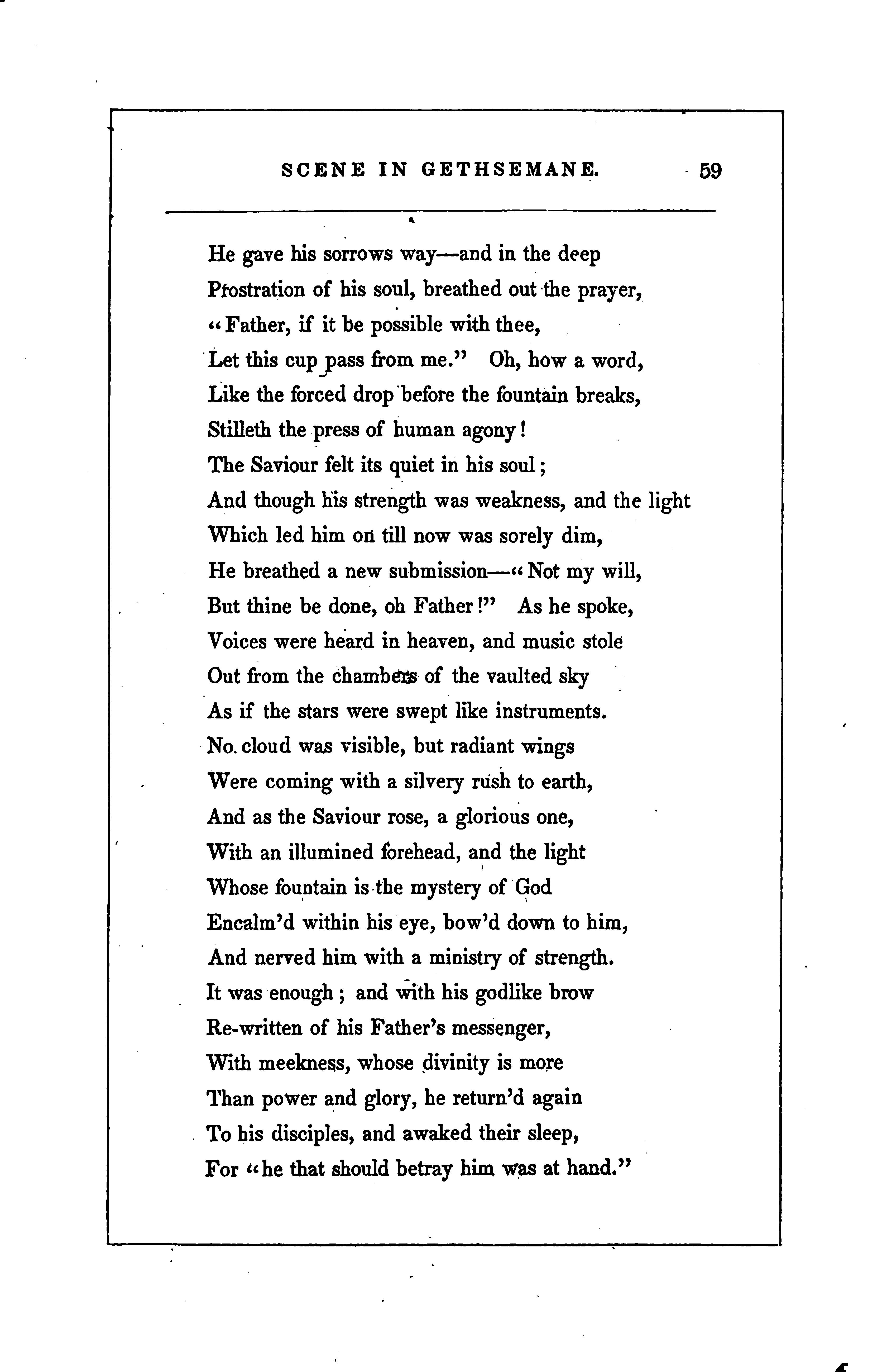

THE Roman sentinel stood.helm'd and tall
Beside the gate of Nain. The busy tread . Of comers to the city mart was done, For it was almost noon, and a dead heat
Quiver'd upon the fine and sleeping dust, And the cold snake crept panting from the wall, And bask'd his scaly circles in the sun. Upon his spearthe soldier lean'd, and kept His idle watch, and, as his drowsy dream Was broken bythe solitary foot Of some poor mendicant, he raised his head
To curse him for a tributary Jew, And slumberously dozed on.
'Twas nowhigh noon.
The dull, low murmur of a funeral . Went through the city-the sad sound of feet Unmix'd with voices-and the sentinel
Shook off his slumber, and gazed earnestly Up the wide streets along whose paved way The silent throng crept slowly. They came on,
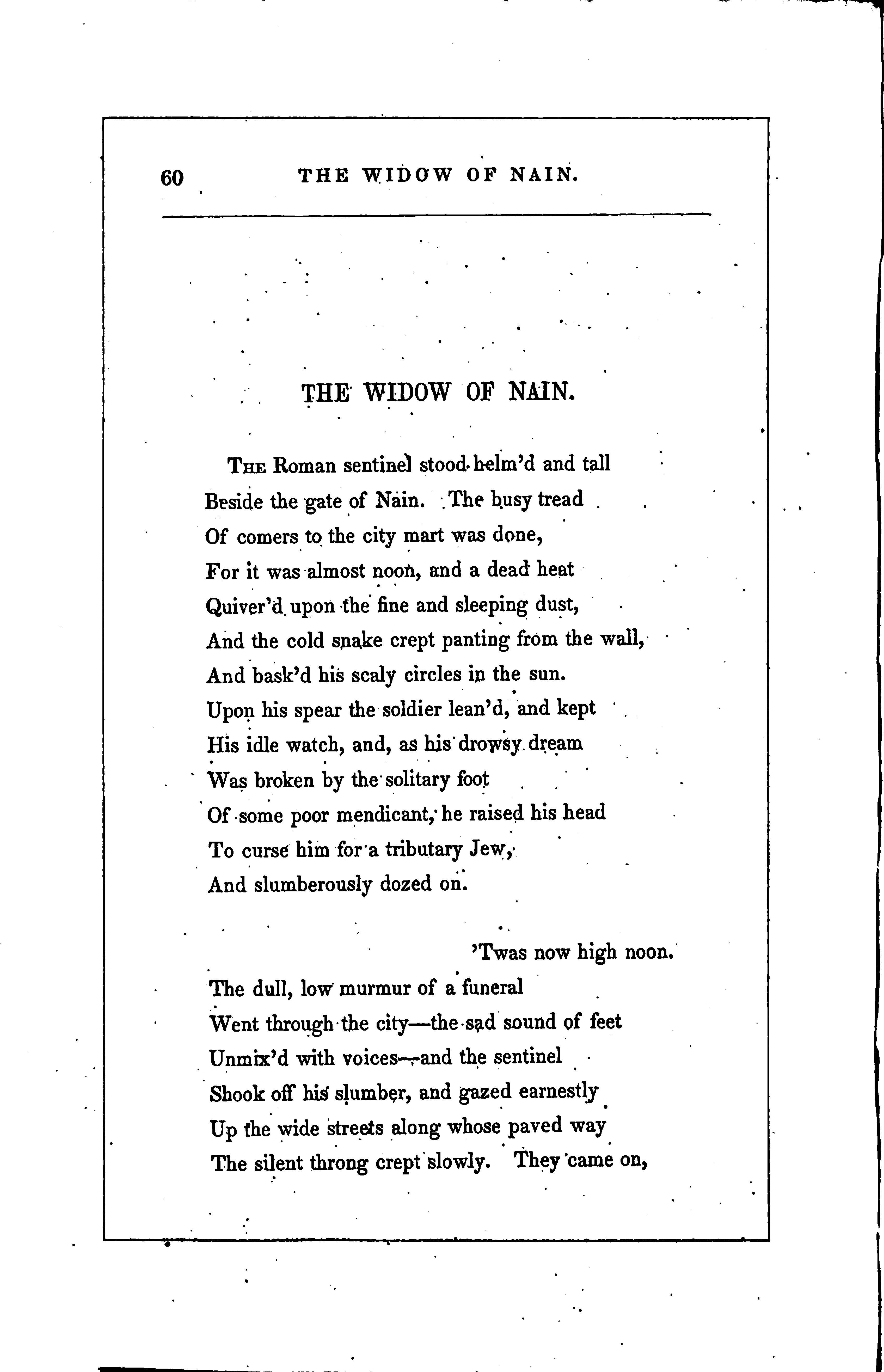

Bearing a body heavily on its bier,
And by the crowd that in the burning sun Walk'd with forgetful sadness, 'twas of one Mourn'd with uncommon sorrow. The broad gate
Swung on its hinges, and the Roman bent His spear-point downwards as the bearers pass'd, Bending beneath their burden. There was oneOnly one mourner. Close behind the bier, Crumpling the pall up in her wither'd hands, Follow'd an aged woman. Her short steps
Falter'd with weakness, and a broken moan Fell from her lips, thicken'd convulsively
As her heart bled afresh. The pitying crowd Follow'd apart, but no one spoke to her. She had no kinsmen. She had lived aloneA widow with one son. He was her allThe only tie she had in the wide world And he was dead. They could not comfort her.
Jesus drew near to Nain as from the gate
The funeral came forth. His lips were pale With the noon's sultry heat. The beaded sweat Stood thickly on his brow, and on the worn And simple latchets of his sandals lay, Thick, the white dust of travel. He had come Since sunrise from Capernaum, staying not To wet his lips by green Bethsaida's pool,
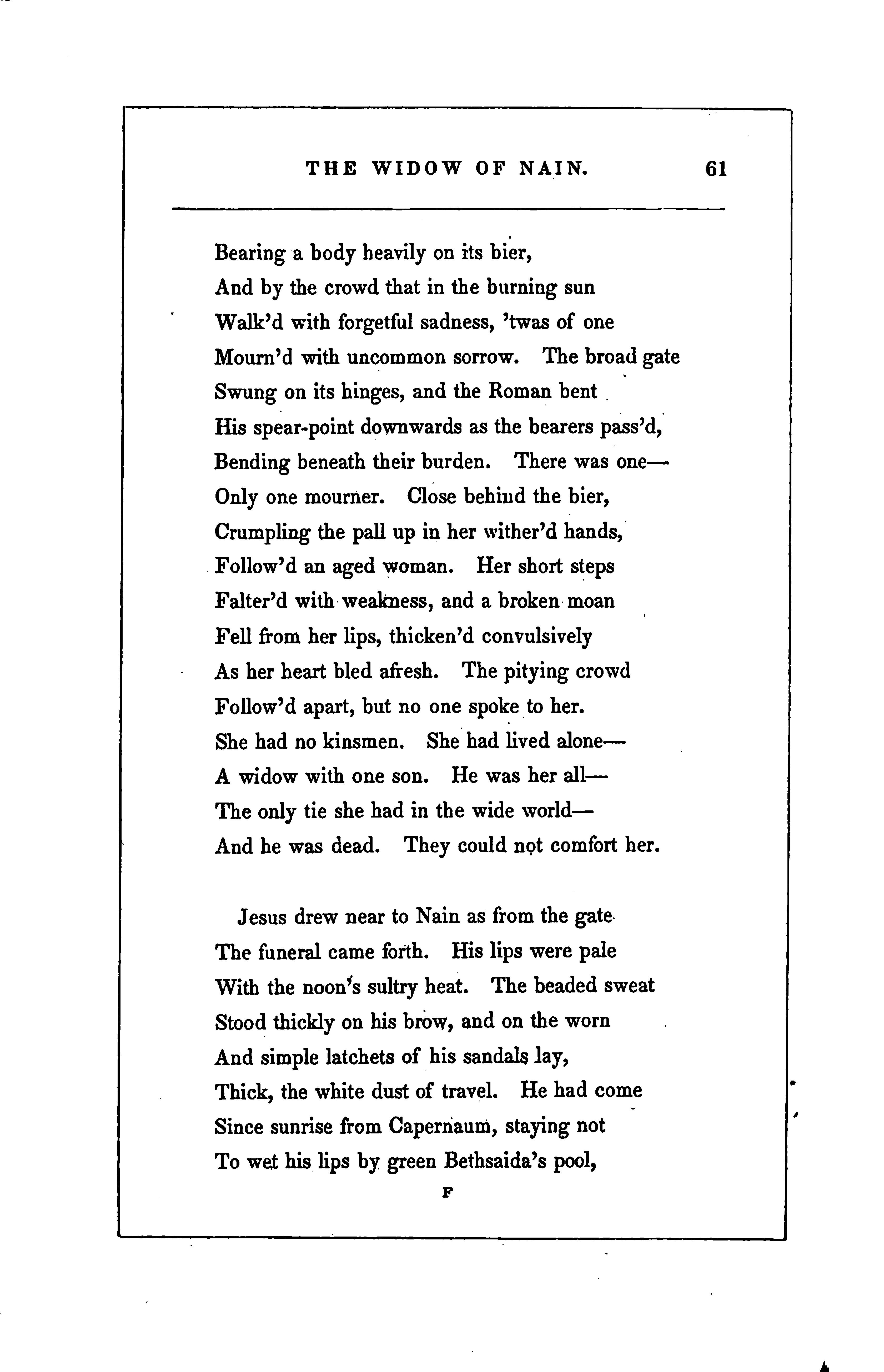

Nor wash his feet in Kishon's silver springs, Nor turn him southward upon Tabor's side To catch Gilboa's light and spicy breeze. · Genesareth stood cool upon the East, Fast bythe Sea of Galilee, and there The weary traveller might bide till eve ; And on the alders of Bethulia's plains
The grapes of Palestine hung ripe and wild ; Yet turn'd he not aside, but, gazing on, From every swelling mount, he saw afar, Amid the hills, the humble spires of Nain, The place of his next errand ; and the path : Touch'd not Bethulia, and a league away Upon the East lay pleasant.Galilee.
Forth from the city-gate the pitying crowd
Follow'd the stricken mourner. They came near The place of burial, and, with straining hands,. Closer upon her breast she clasp'd the pall, And with a gasping sob, quick as a child's, And an inquiring wildness flashing through
The thin gray lashes of her fever'd eyes, She came where Jesus stood beside the way. He look'd upon her, and.his heart was moved.
"Weep not !" he said ; and as they stay'd the bier, And at his bidding laid it at his feet, He gently drewthe pall from 'out her grasp,
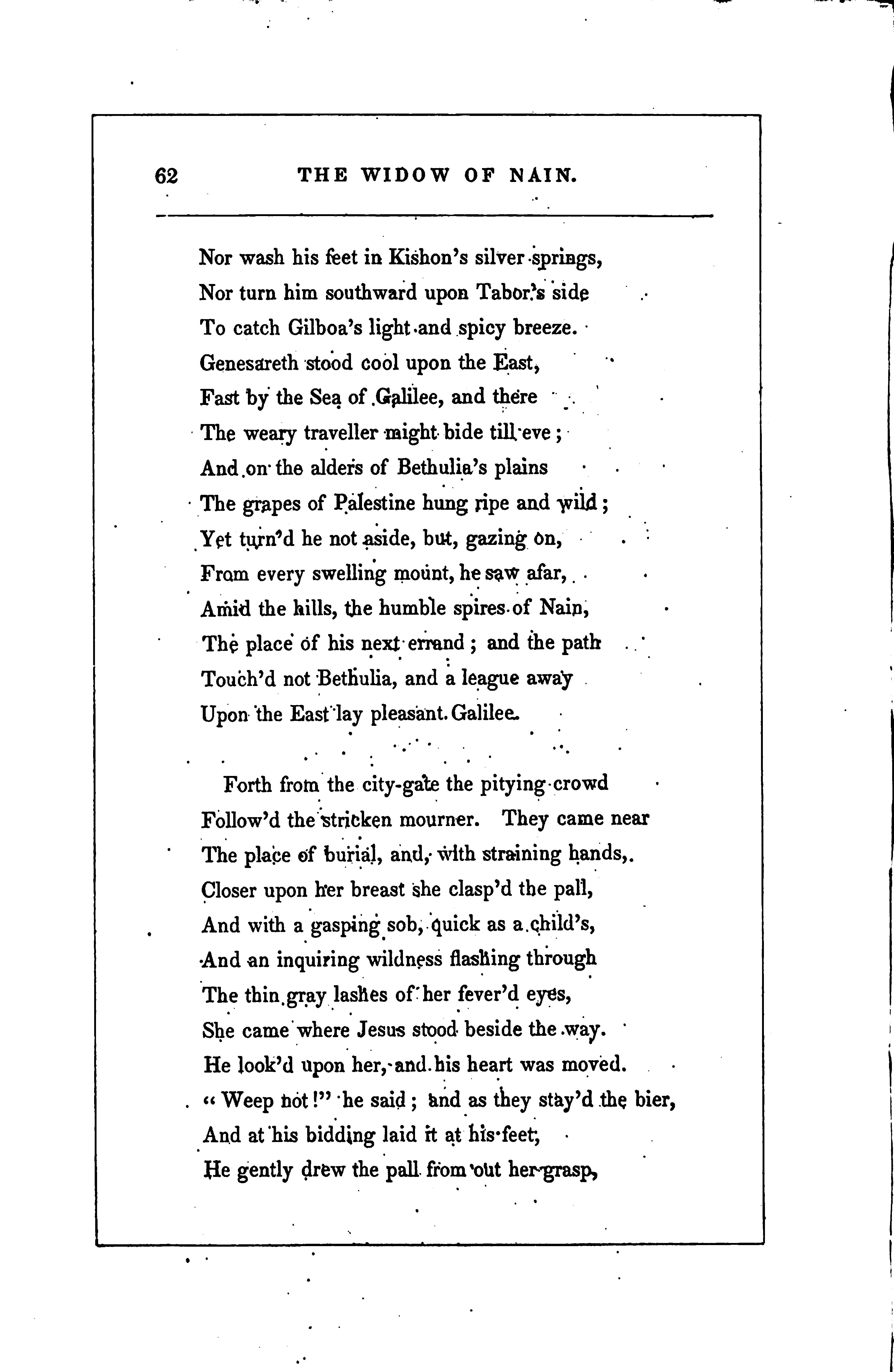

And laid it back in silence from the dead. With troubled wonder the mute throng drew near, And gazed on his calm looks. A minute's space He stood and pray'd. Then, taking the cold hand, He said, "Arise !" And instantly the breast Heaved in its cerements, and a sudden flush Ran through the lines of the divided lips, And with a murmur of his mother's name, He trembled and sat upright in his shroud. And, while the mourner hung upon his neck; Jesus went calmly onhis way to Nain.
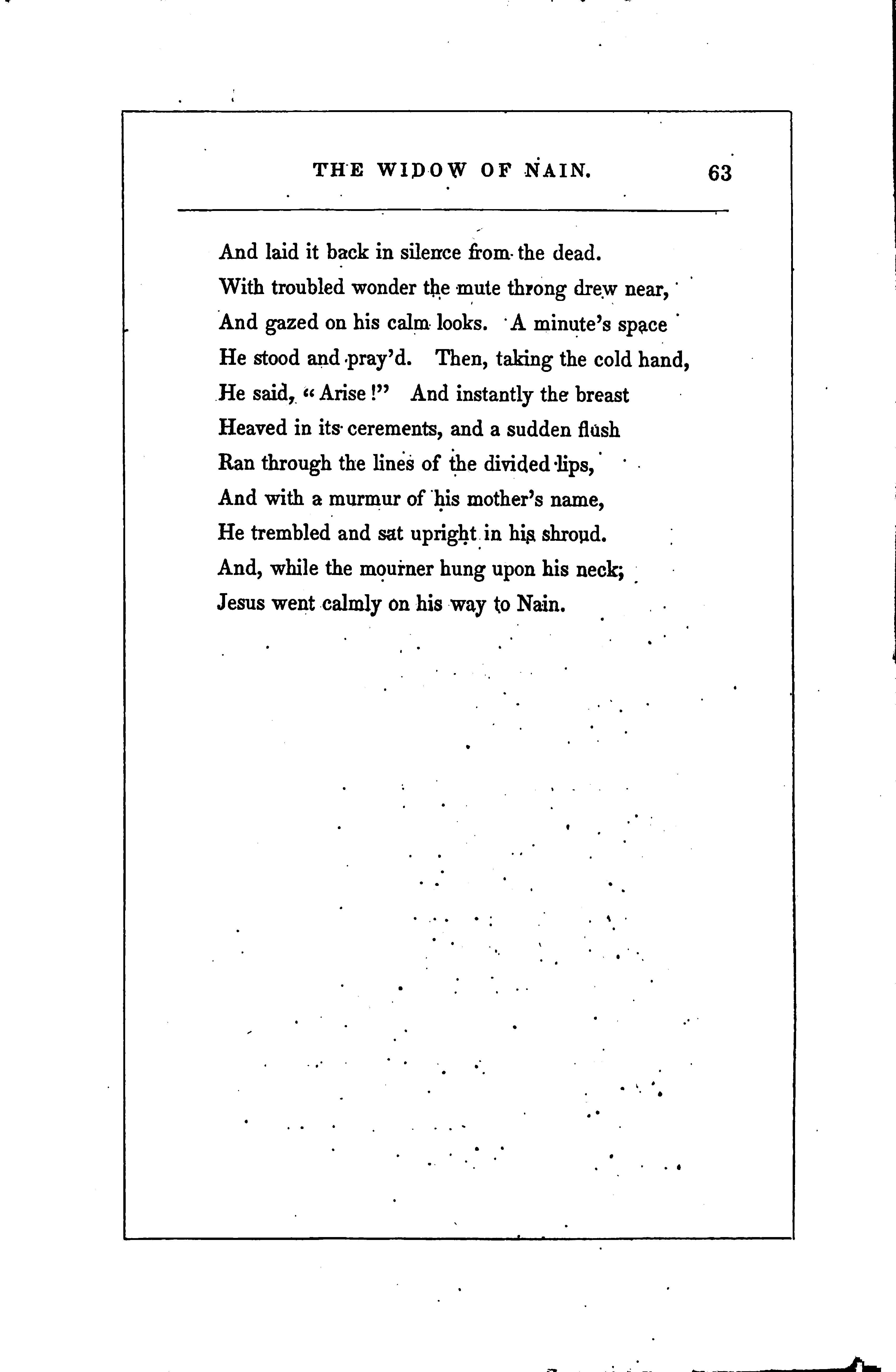

THE morning broke. Light stole upon the clouds With a strange beauty. Earth received again Its garment of a thousand dyes ; and leaves, And delicate blossoms, and the painted flowers, And every thing that bendeth to the dew, And stirreth with the daylight, lifted up Its beauty to the breath of that sweet morn.
All things are dark to sorrow ; and the light, And loveliness, and fragrant air were sad To the dejected Hagar. The moist earth Was pouring odours from its spicy pores, And the young birds were singing as if life Were a new thing to them ; but music came Upon her ear like discord, and she felt That pang ofthe unreasonable heart, That, bleeding amid things it loved so well, Would have some sign of sadness as they pass. She stood at Abraham's tent. Her lips were press'd Till the blood started; and the wandering veins Of her transparent forehead were swell'd out, As if her pride would burst them. Her dark eye
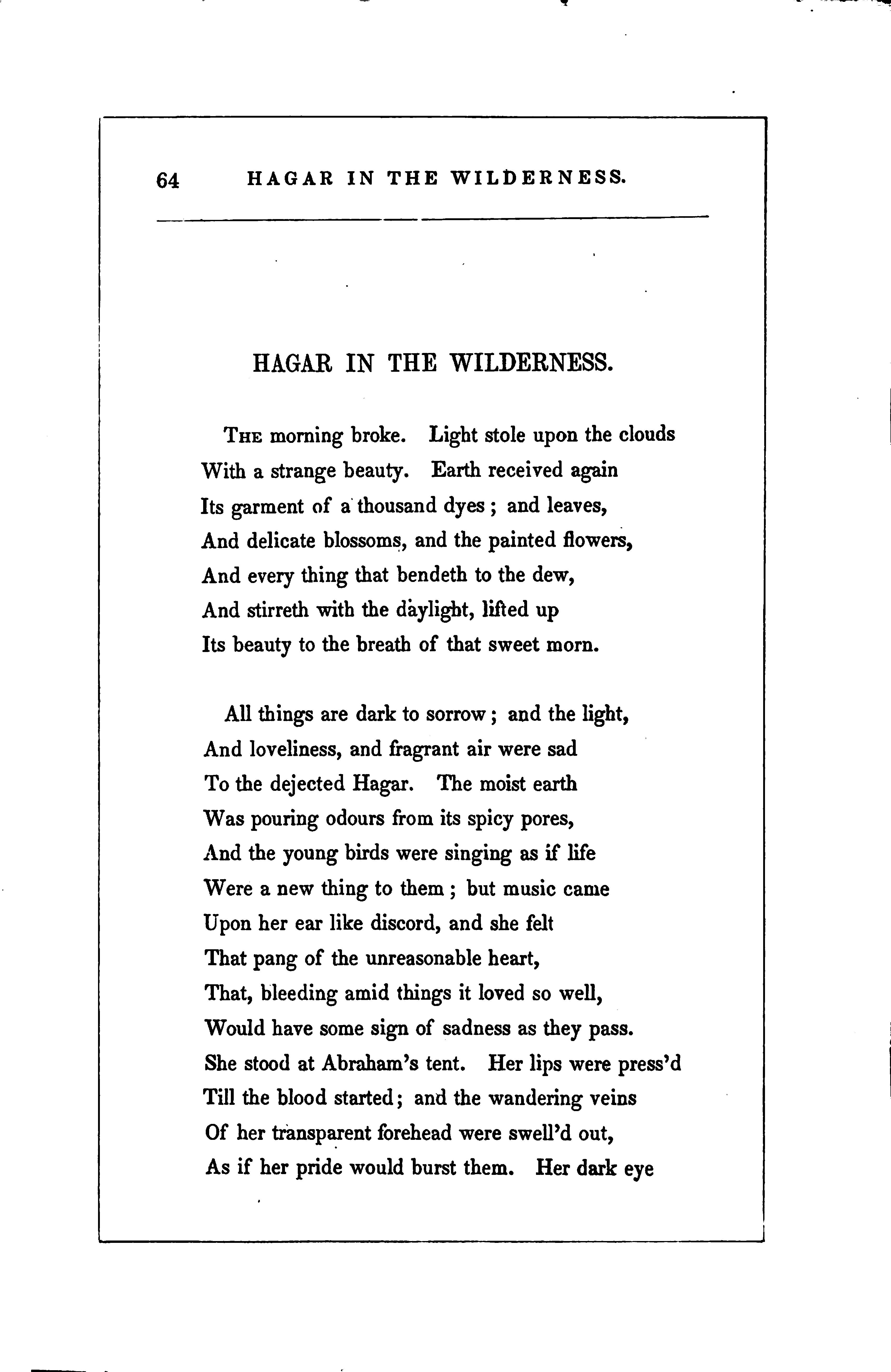

Was clear and tearless, and the light of heaven, Which made its language legible, shot back,. From her long lashes, as it had been flame. Her noble boy stood by her, with his hand Clasp'd in her own, and his round, delicate feet, Scarce train'd to balance on the tented floor, Sandall'd forjourneying. He had look'd up Into his mother's face until he caught The spirit there, and his young heart was swelling Beneath his dimpled bosom, and his form Straighten'd up proudly in his tiny wrath, As if his light proportions would have swell'd, Had they but match'd his spirit, to the man.
Why bends the patriarch as he cometh. now Upon his staff so wearily? His beard . Is low upon his breast, and his high brow, So written.with the converse of his God, Beareth the swollen vein of agony. His lip is quivering, and his wonted step Of vigour is not there ; and, though the morn Is passing fair and beautiful, he breathes Its freshness as it were a pestilence.
He gave to her the water and the bread, But spoke no word, and trusted not himself To look upon her face, but laid his hand F2
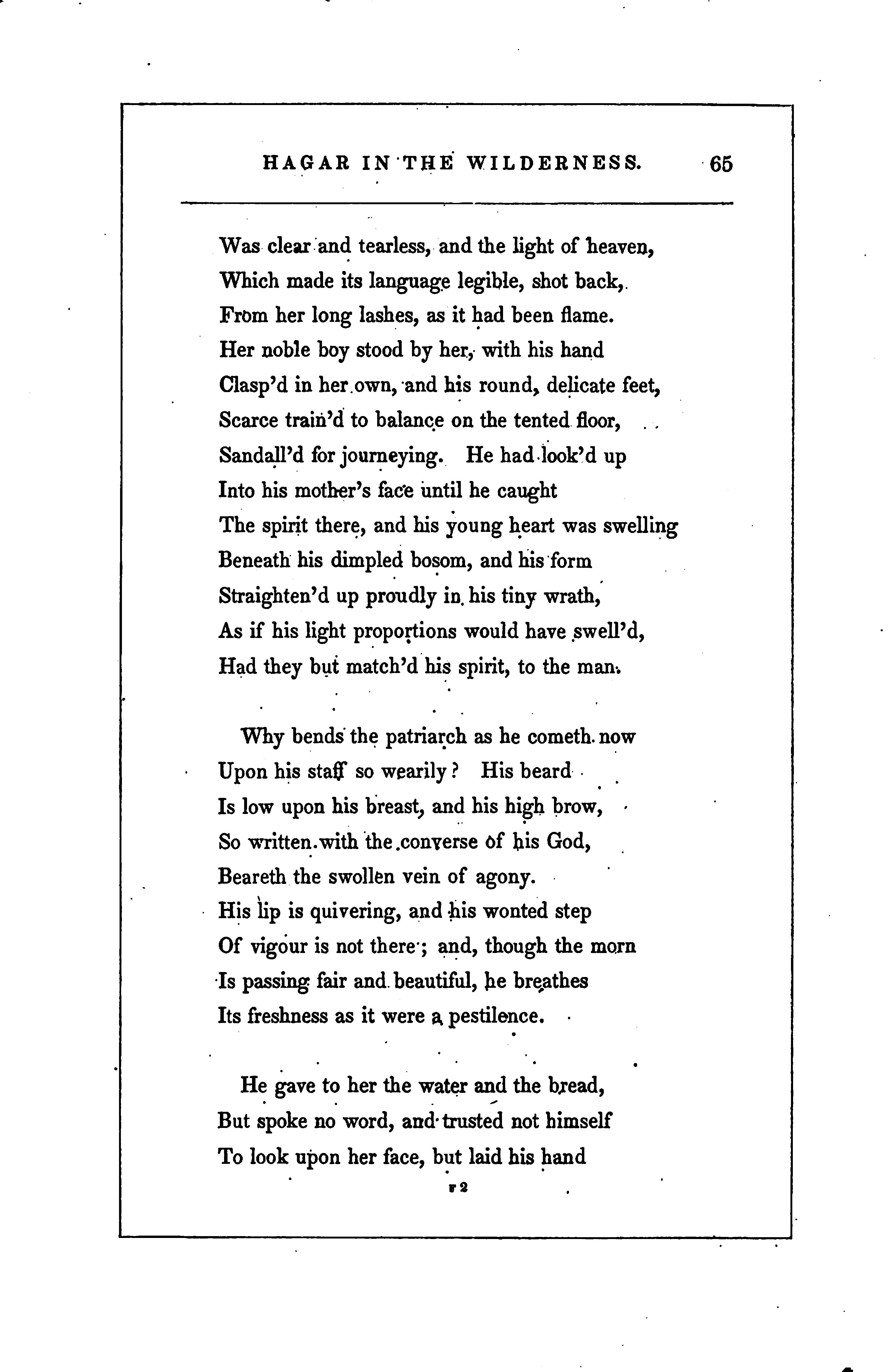

In silent blessing on the fair-hair'd boy, And left her to her lot of loneliness.
Should Hagar weep ? May slighted woman turn, And, as a vine the oak hath shaken off, Bend lightly to her leaning trust again?
O no! by all her loveliness-by all That makes life poetry and beauty, no ! Make her a slave ; steal from her rosy cheek
By needless jealousies ; let the last star Leave her a watcher by your couch of pain ; Wrong her by petulance, suspicion, all That makes her cup a bitterness yet give One evidence of love, and earth has not An emblem of devotedness like hers.
But oh! estrange her once-it boots not howBy wrong or silence-any thing that tells A change has come upon your tenderness, And there is not a feeling out of heaven Her pride o'ermastereth not.
She went her way with a strong step and slowHer press'd lip arch'd, and her clear eye undimm'd, As if it were a diamond, and her form
Borne proudly up, as if her heart breathed through. Her child kept on in silence, though she press'd His hand till it was pain'd ; for he had read
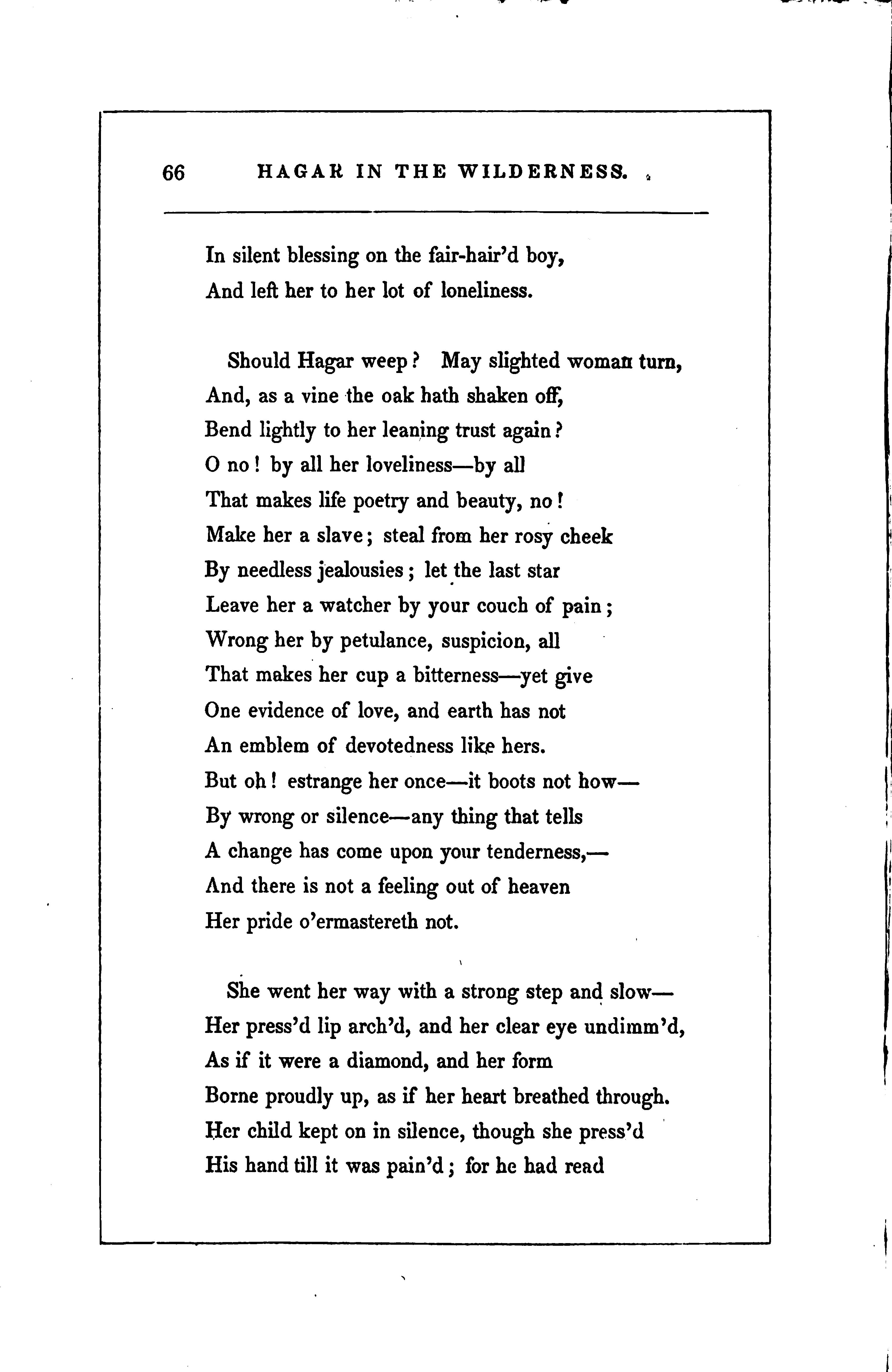

The dark look of his mother, and the seed Of a stern nation had been breathed upon.
The morning pass'd, and Asia's sun rode up In the clear heaven, and every beam was heat. The cattle of the hills were in the shade, And the bright plumage of the Orient lay On beating bosoms in her spicy trees. It was an hour of rest ! but Hagar found No shelter in the wilderness, and on She kept her weary way, until the boy Hung down his head, and open'd his parch'd lips For water; but she could not give it him. She laid him down beneath the sultry sky,For it was better than the close, hot breath Of the thick pines, and tried to comfort him ; But he was sore athirst, and his blue eyes Were dim and blood-shot, and he could not know Why God denied him water in the wild. She sat a little longer, and he grew Ghastly and faint, as if he would have died. It was too much for her. She lifted him, And bore him further on, and laid his head Beneath the shadow of a desert shrub ; And, shrouding up her face, she went away, And sat to watch, where he could see her not, Till he should die; and, watching him, she mourn'd :-
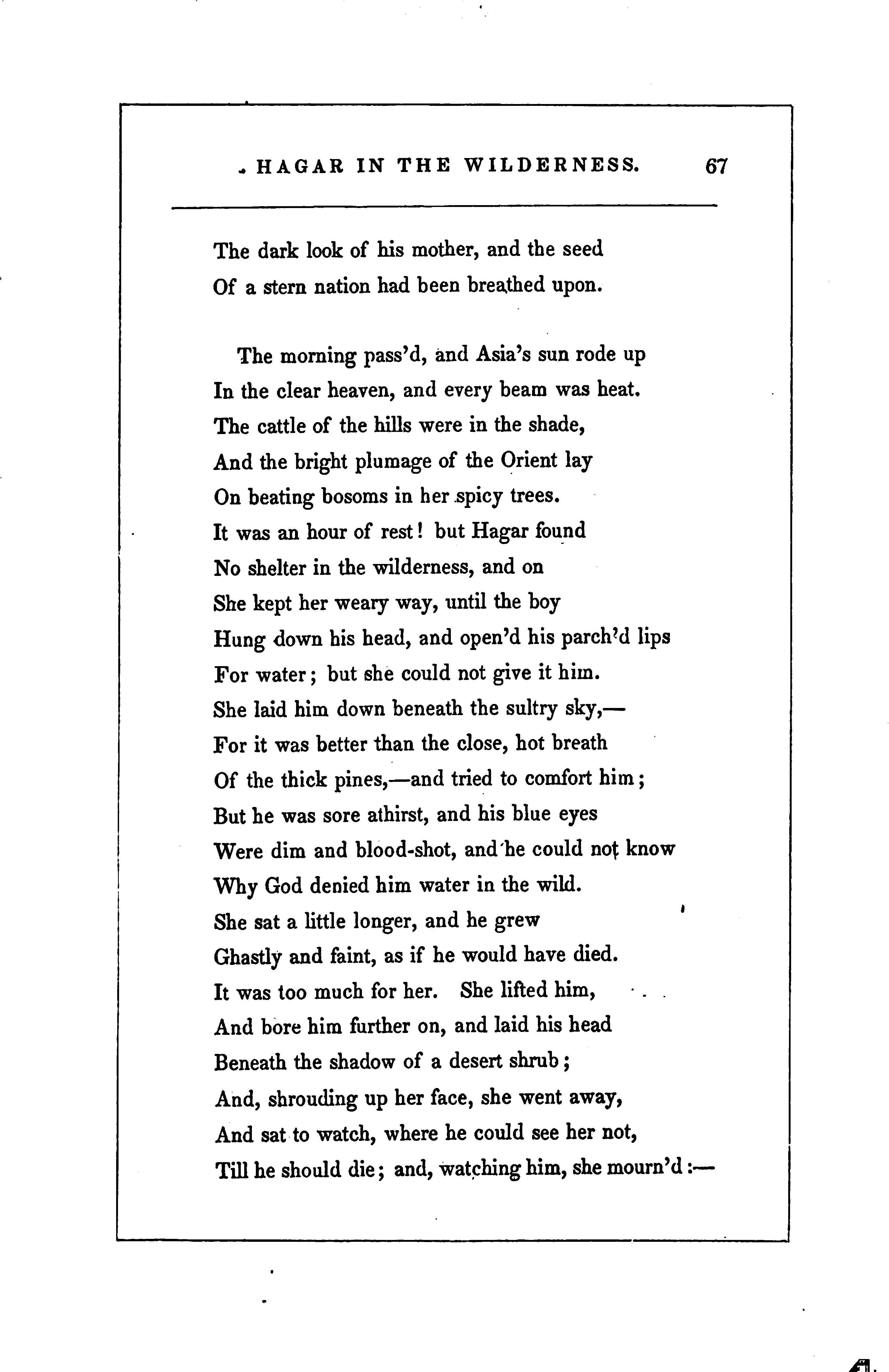

"God stay thee in thine agony, my boy ! I cannot see thee die ; I cannot brook Upon thy brow to look, And see death settle on my cradle joy. How have I drunk the light of thy blue eye! And could I see thee die?
"I did not dream of this when thou wast straying, Like an unbound gazelle, among the flowers ; Or wiling the soft hours,
By the rich gush of water-sources playing, Then sinking weary to thy smiling sleep, So beautiful and deep.
"Oh no! and when I watch'd by thee the while, And sawthy bright lip curling in thy dream, And thought of the dark stream
In my own land of Egypt, the far Nile, How pray'd I that my father's land might be A heritage for thee!
"And now the grave for its cold breast hath won thee! And thy white, delicate limbs the earth will press ; And oh! my last caress
Must feel thee cold, for a chill hand is on thee. How can I leave my boy, so pillow'd there Upon his clustering hair!"
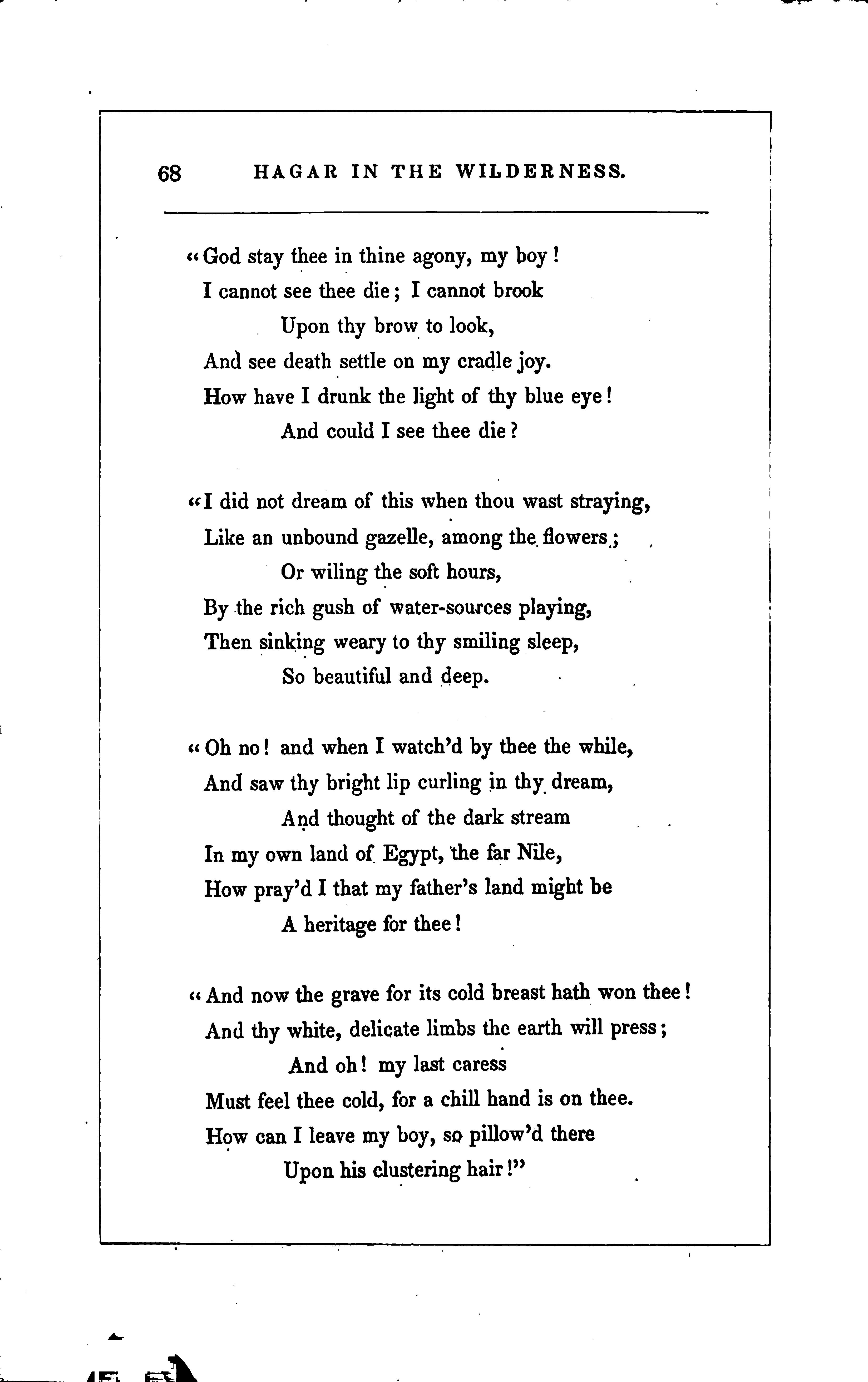

10 NO 1900
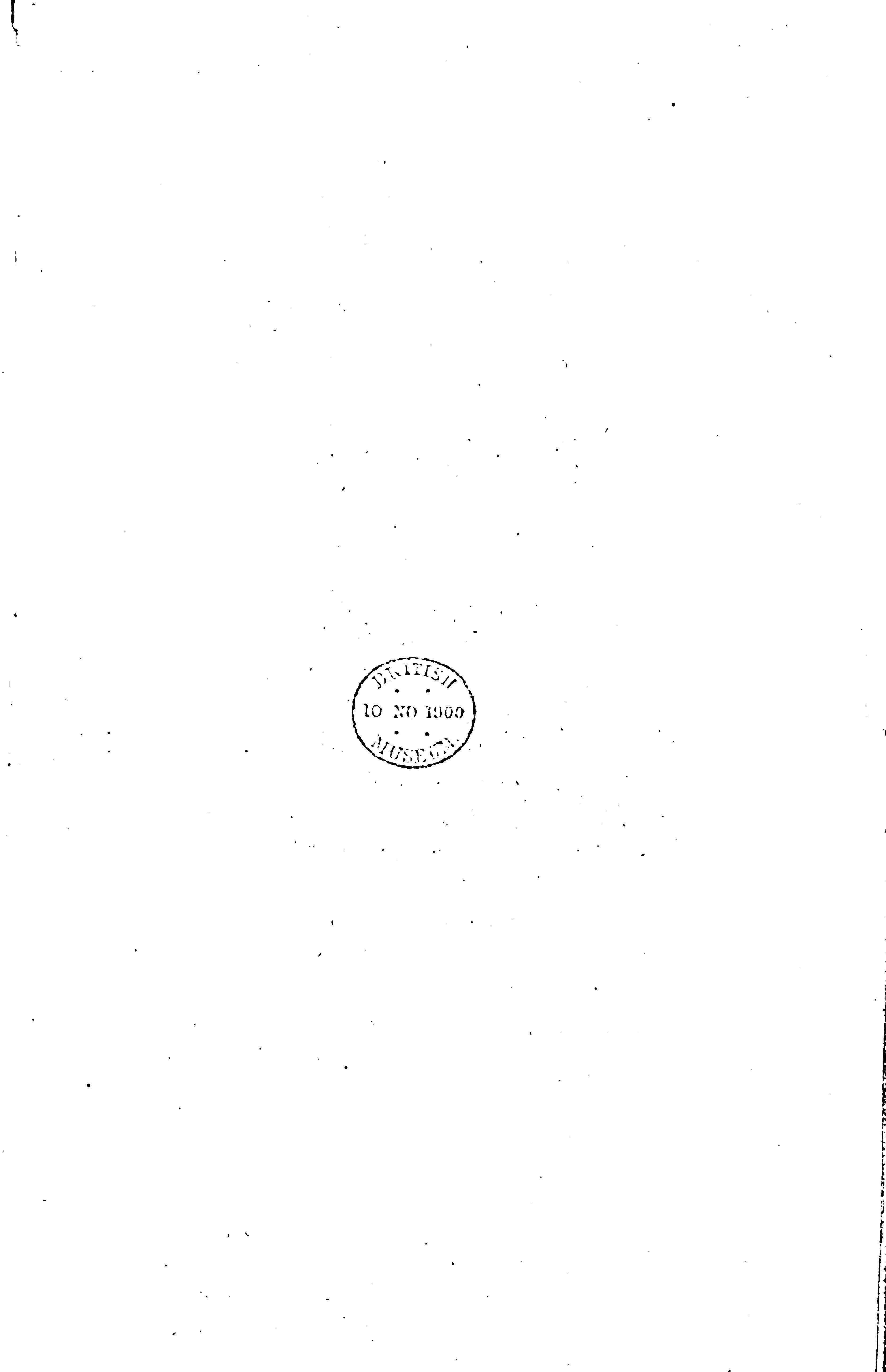

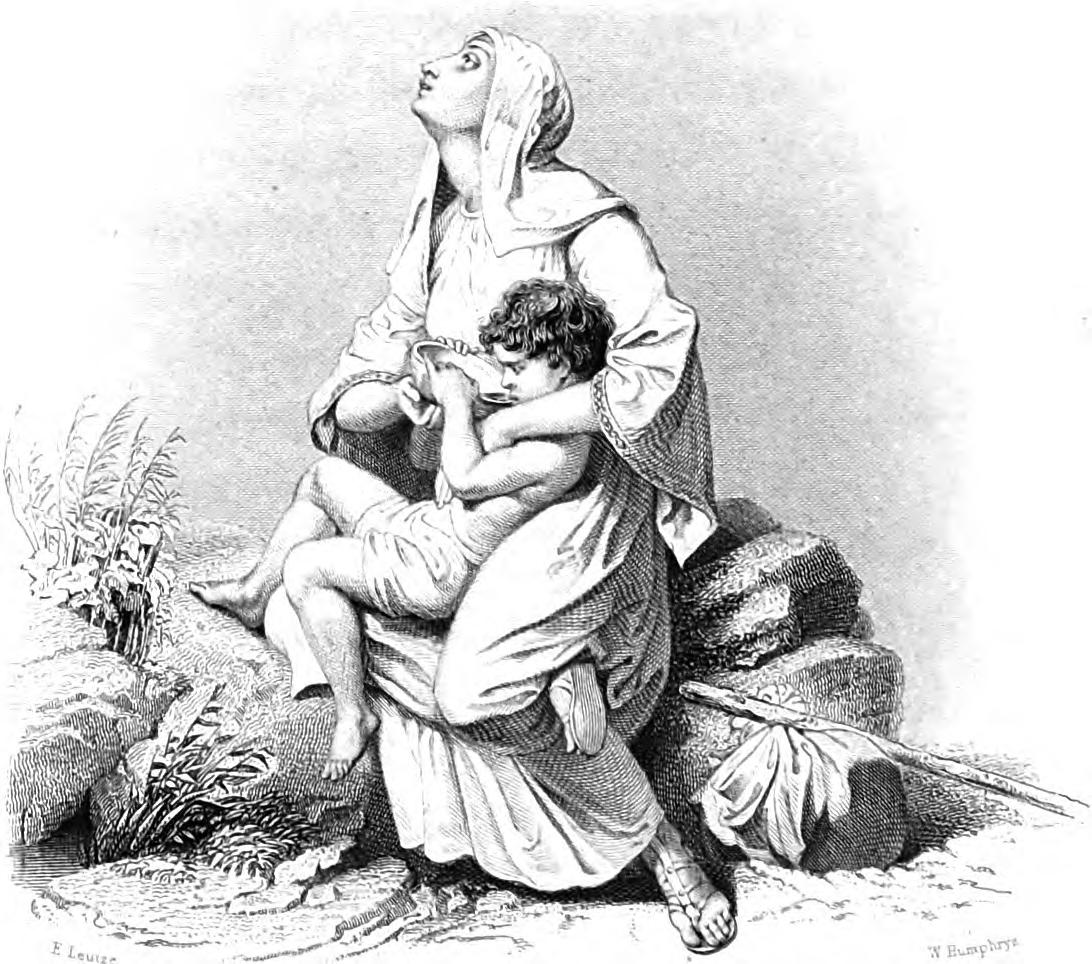

 ELeutze
HAGAR.
ELeutze
HAGAR.
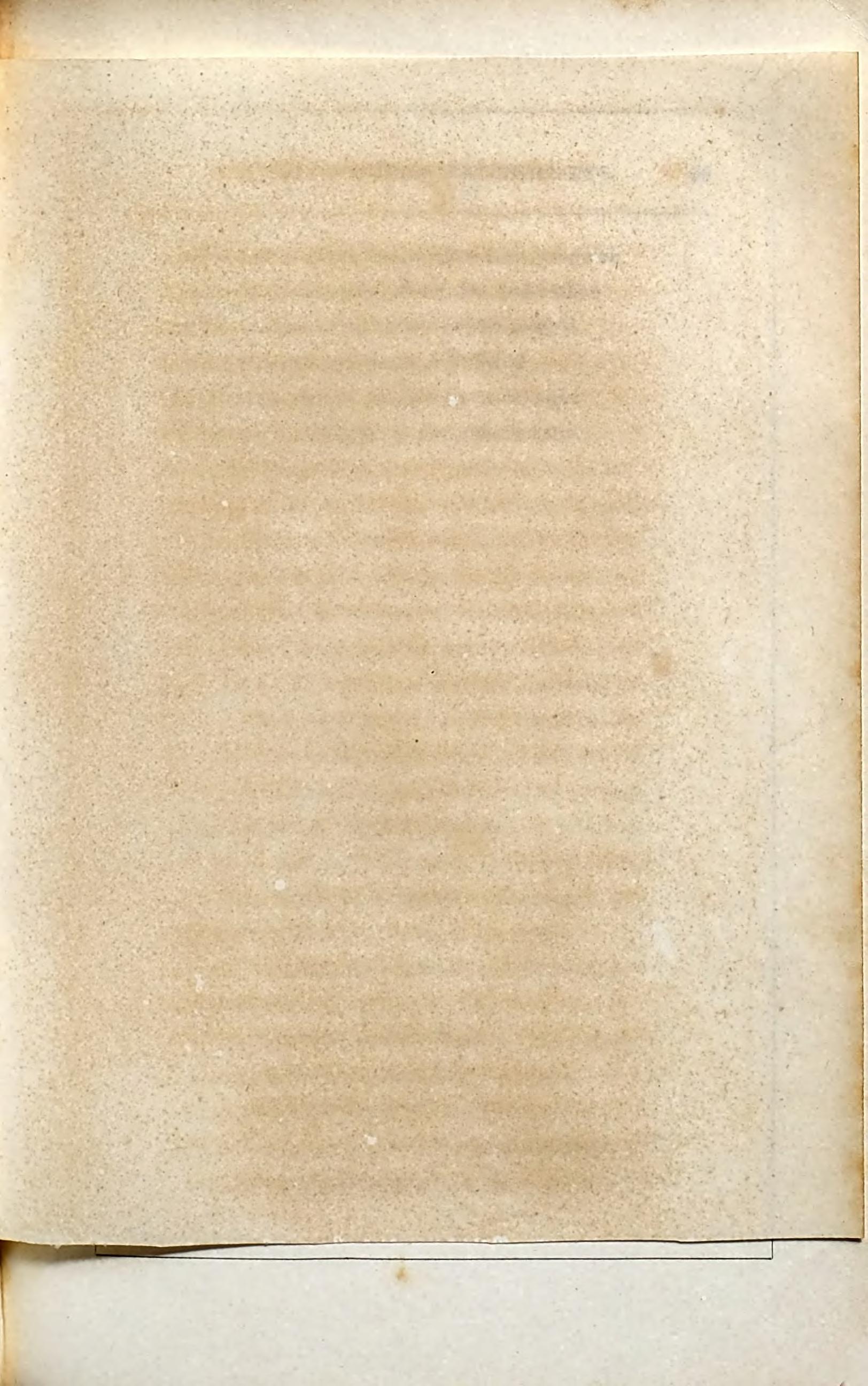

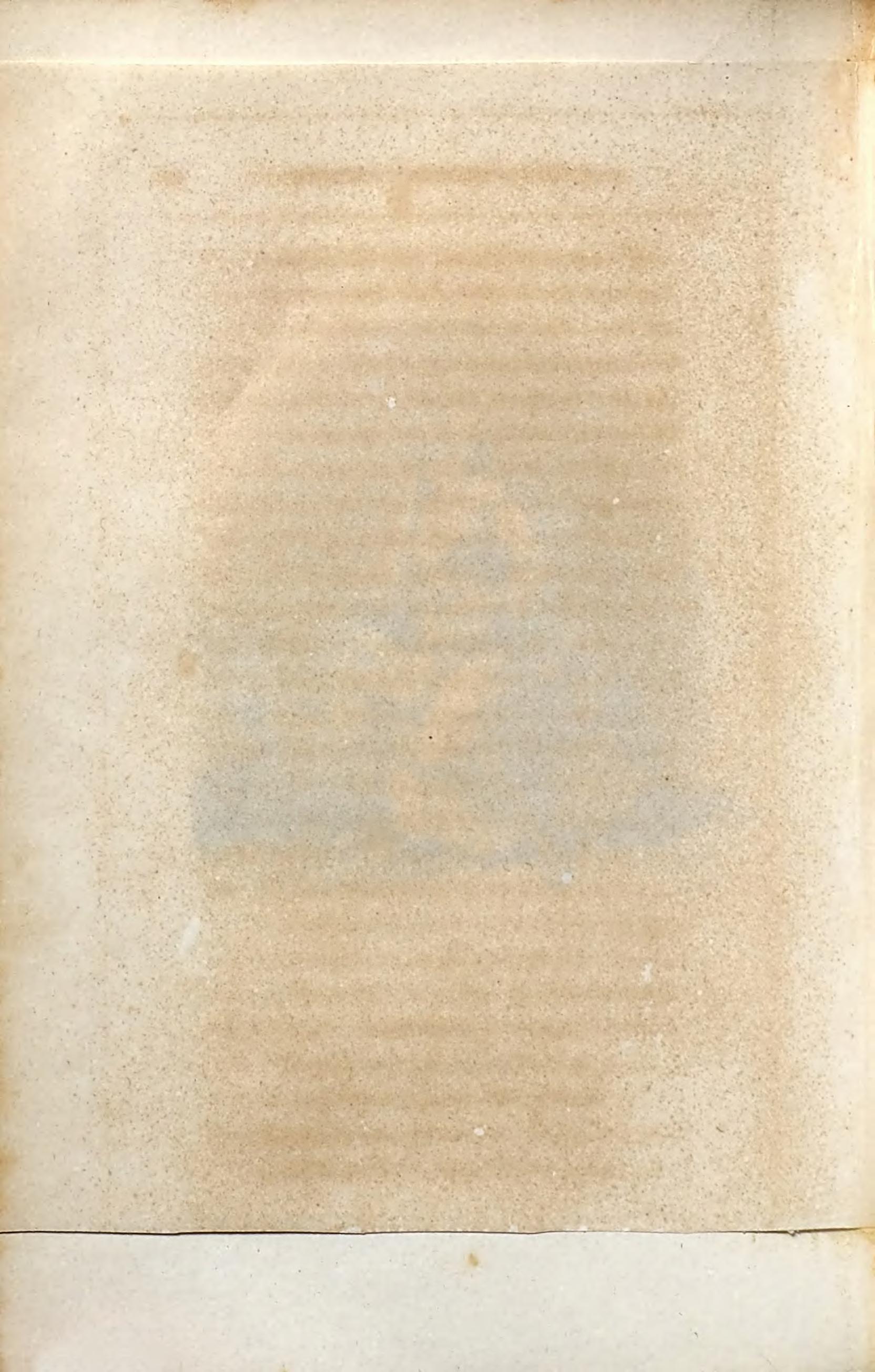

She stood beside the well her God had given To gush in that deep wilderness, and bathed The forehead of her child until he laugh'd
In his reviving happiness, and lisp'd His infant thought of gladness at the sight Of the cool plashing of his mother's hand.
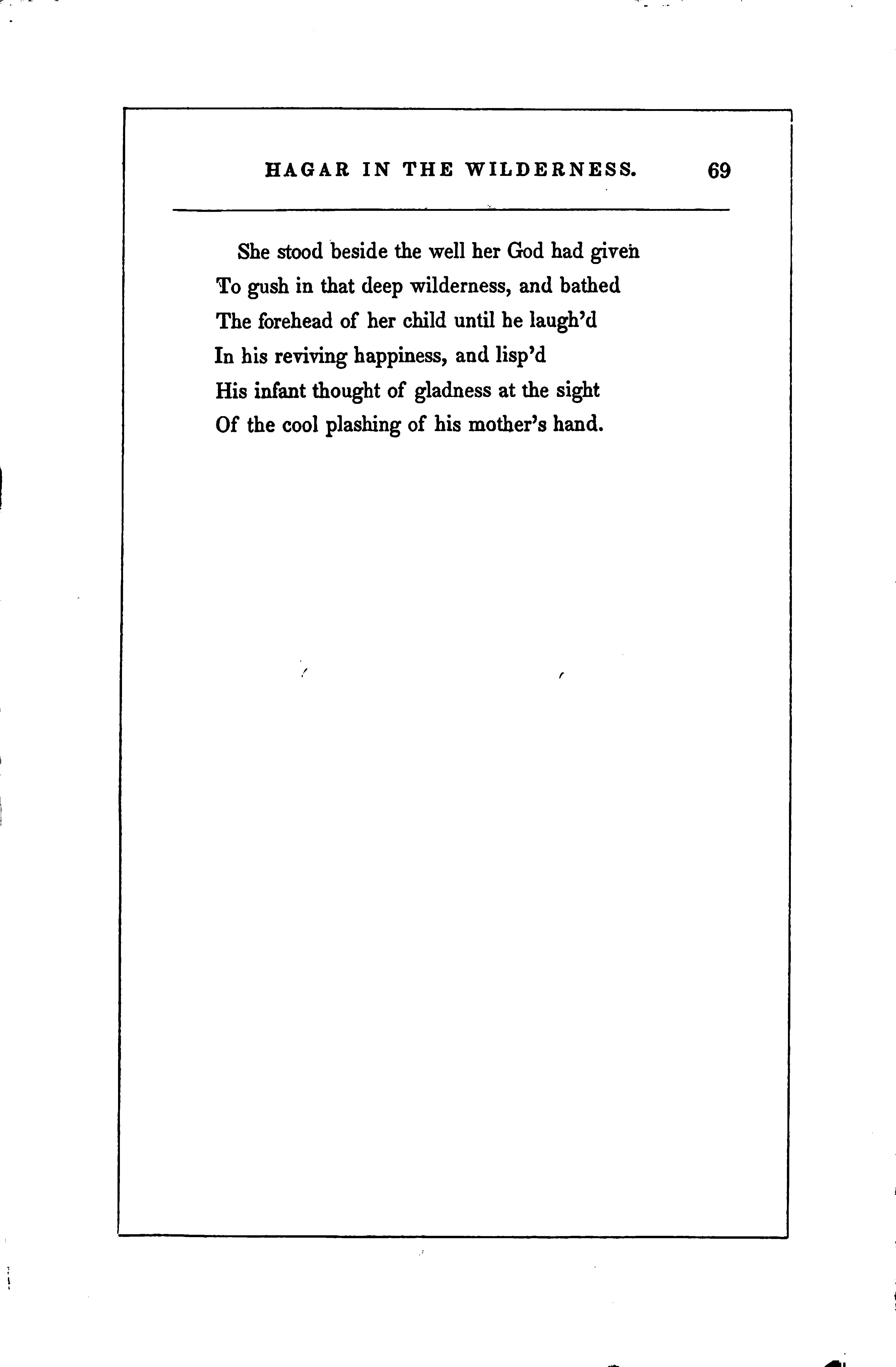

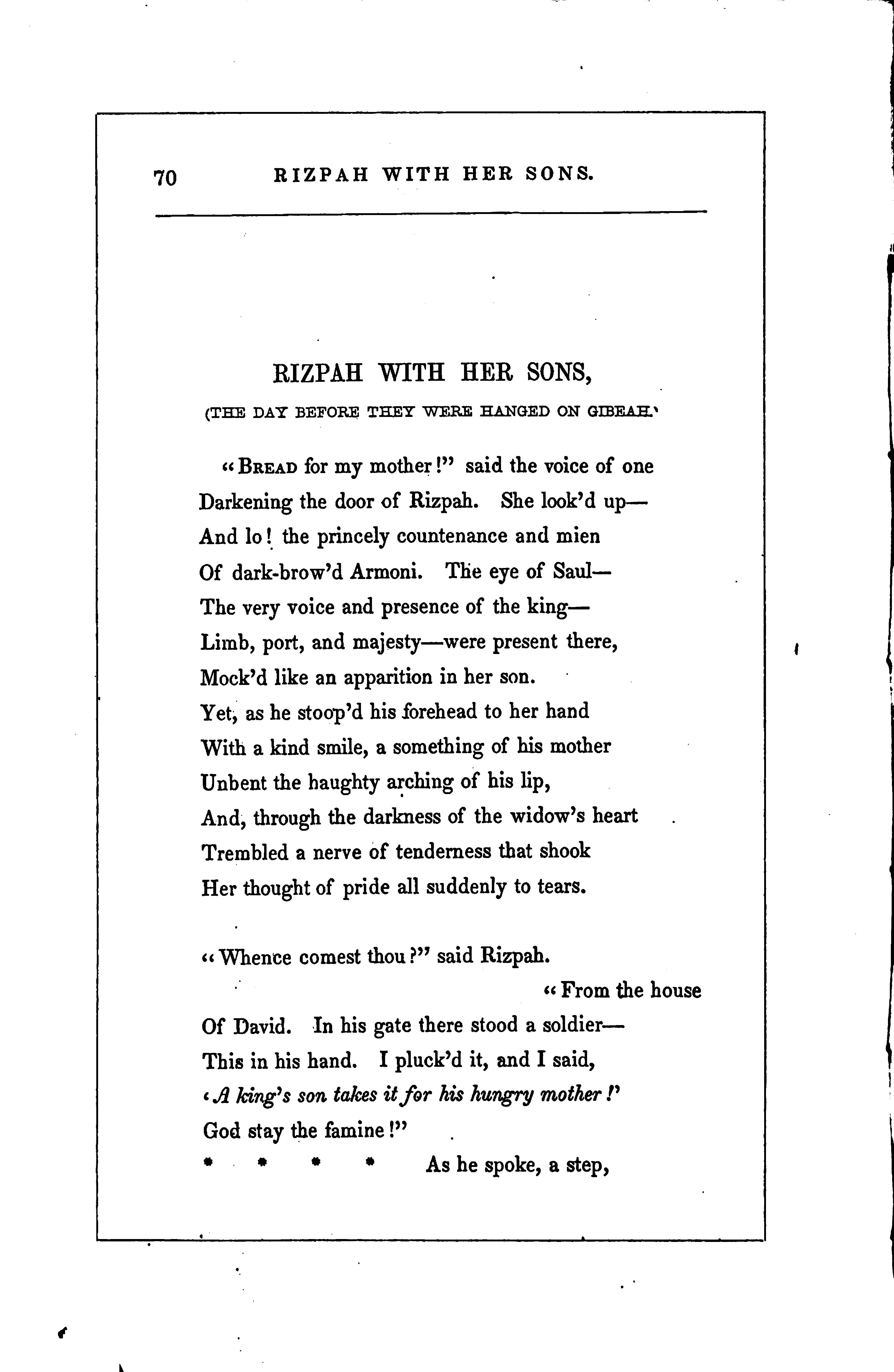
RIZPAH WITH HER SONS,
(THE DAY BEFORE THEY WERE HANGED ON GIBEAH
"BREAD for my mother!" said the voice of one
Darkening the door of Rizpah. She look'd up And lo! the princely countenance and mien Of dark-brow'd Armoni. The eye of SaulThe very voice and presence of the kingLimb, port, and majesty were present there, Mock'd like an apparition in her son. Yet, as he stoop'd his forehead to her hand
With a kind smile, a something of his mother
Unbent the haughty arching of his lip, And, through the darkness of the widow's heart
Trembled a nerve of tenderness that shook Her thought of pride all suddenly to tears.
"Whence comest thou ?" said Rizpah.
"From the house
Of David. In his gate there stood a soldierThis in his hand. I pluck'd it, and I said, Aking'ssontakes itfor his hungry mother!" God staythe famine !"
As he spoke, a step,

Light as an antelope's, the threshold press'd; And like a beam of light into the room
Enter'd Mephibosheth. What bird of heaven
Or creature ofthe wild-what flower of earth
Was like this fairest ofthe sons of Saul !
The violet's cup was harsh to his blue eye.
Less agile was the fierce barb's fiery step. His voice drew hearts to him. His smile was like The incarnation of some blessed dreamIts joyousness so sunn'd the gazer's eye!
Fair were his locks. His snowy teeth divided
A bow of Love, drawn with a scarlet thread.
His cheek was like the moist heart of the rose; And, but for nostrils of that breathing fire
That turns the lion back, and limbs as lithe
As is the velvet muscle of the pard, Mephibosheth had been too fair for man.
As if he were a vision that would fade, Rizpah gazed on him. Never, to her eye,
Grew his bright form familiar ; but, like stars,
That seem'd each night new lit in a new heaven, He was each morn's sweet gift to her. She loved Her firstborn, as a mother loves her child, Tenderly, fondly. But for him-the lastWhat had she done for heaven to be his mother !
Her heart rose in her throat to hear his voice ;
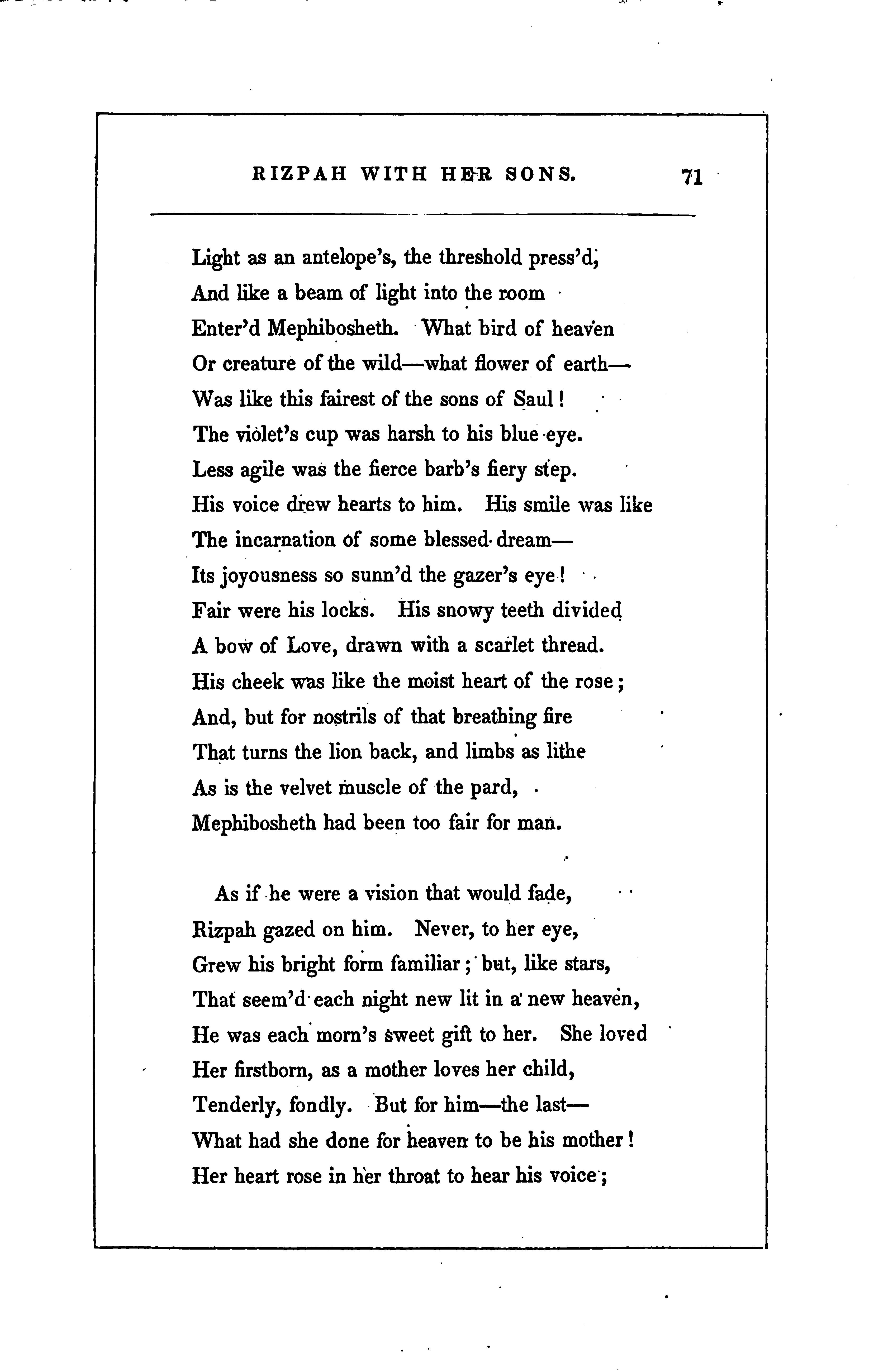

She look'd at him forever through her tears ; Her utterance, when she spoke to him, sank down, As if the lightest thought of him had lain In an unfathom'd cavern of her soul. The morning light was part of him, to herWhat broke the day for, but to show his beauty? The hours but measured time till he should come ; Too tardy sang the bird when he was gone ; She would have shut the flowers-and call'd the star Back to the mountain-top- and bade the sun.
Pause at eve's golden door-to wait for him! Was this a heart gone wild ? or is the love Of mothers like a madness? Such as this Is many a poor one in her humble home, Who silently and sweetly sits alone, Pouring her life all out upon her child. What cares she that he does not feel how close Her heart beats after his-that all unseen Are the fond thoughts that follow him by day, And watch his sleep like angels ? And, when moved By some sore needed providence, he stops
In his wild path and lifts a thought to heaven, What cares the mother that he does not see
The link between the blessing and her prayer?
He who once wept with Mary-angels keeping Their unthank'd watch-are a foreshadowing
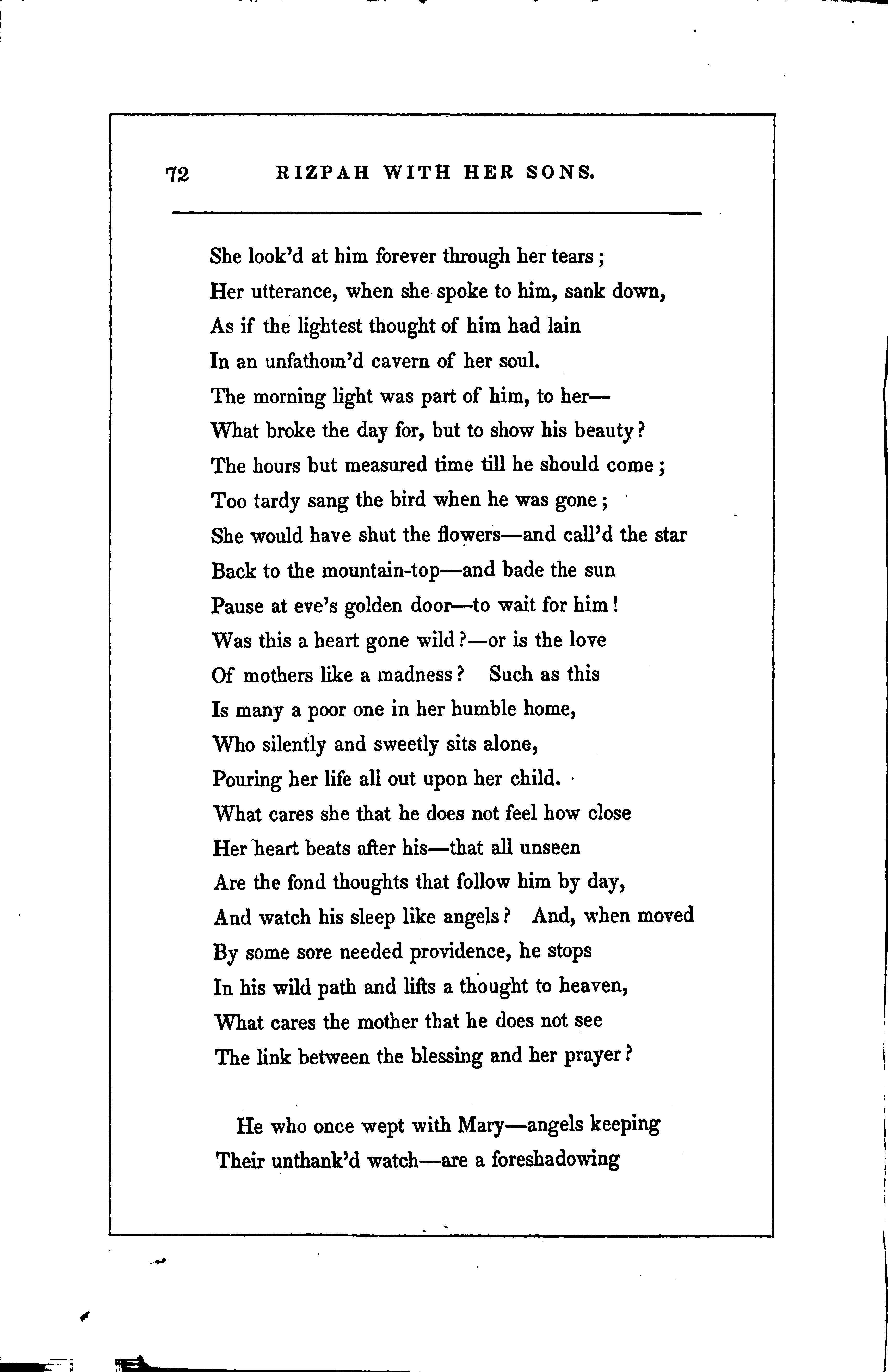

Of what love is in heaven. We may believe. That we shall know each other's forms hereafter, And, inthe bright fields of the better land, Call the lost dead to us. Oh conscious heart!
That in the lone paths of this shadowy world Hast bless'd all light, however dimly shining, That broke upon the darkness of thy way-
Numberthy lamps of love, and tell me, now,.
How many canst thou re-light at the stars
And blush not at their burning? One-one only-
Lit while your pulses by one heart kept time, And fed with faithful fondness to your grave- ·
(Though sometimeswith a hand stretch'd backfrom heaven,)
Steadfast through all things-near, when most forgot-
And with its finger of unerring truth
Pointing the lost way in thy darkest hour
One lamp-thy mother's love-amid the stars
Shall lift its pure flame changeless, and, before The throne of God, burn through eternityHoly-as it was lit and lent thee here.
The hand in salutation gently raised
To the bow'd forehead of the princely boy, Linger'd amid his locks. "I sold," he said, "My Libyan barb for but a cake of meal-
Lo! this my mother! As I pass'd the street, I hid itin my mantle, for there stand
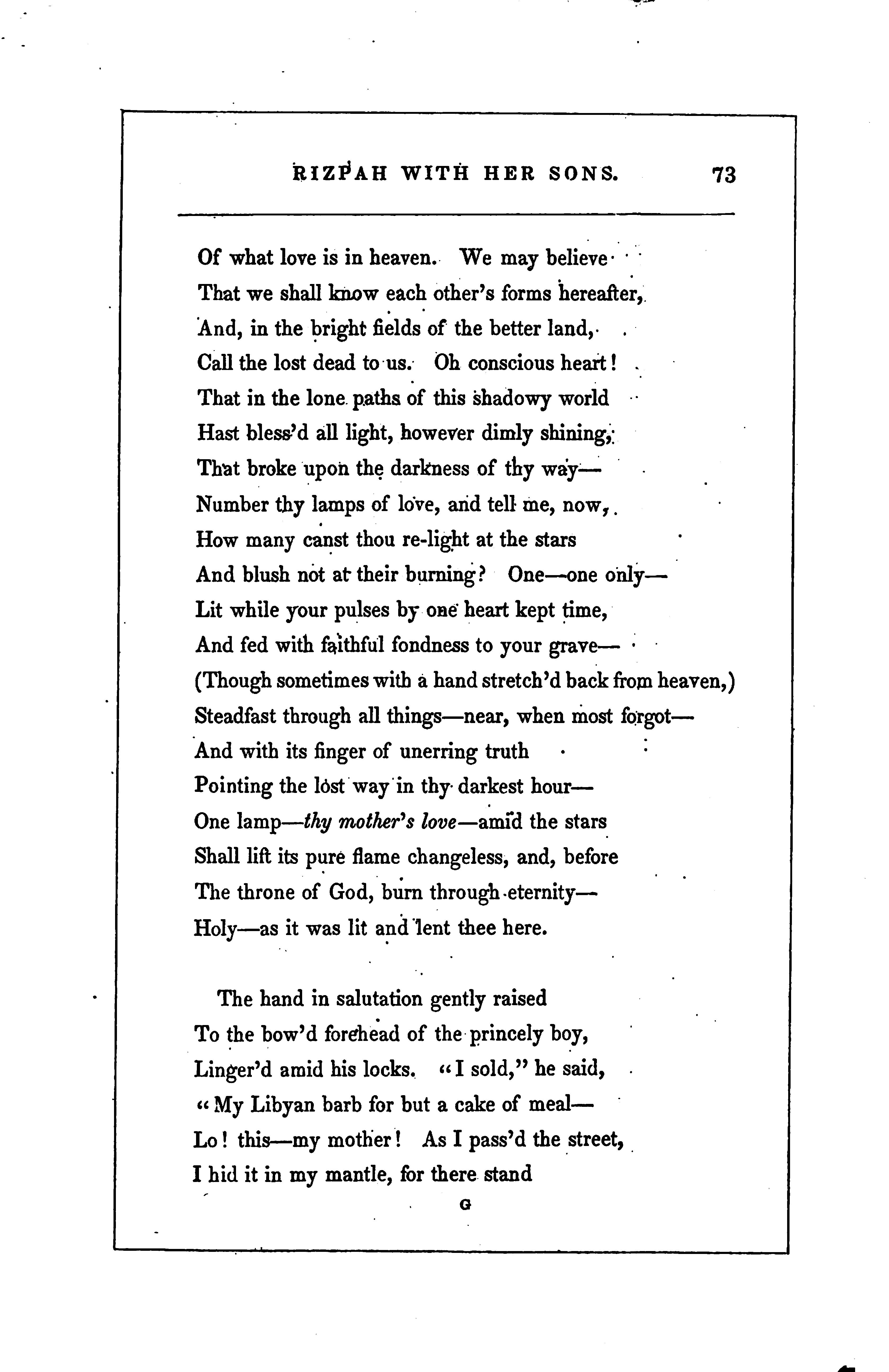

Famishing mothers, with their starving babes,
At every threshold ; and wild, desperate men
Prowl, with the eyes of tigers, up and down,
Watching to rob those who, from house to house, Beg for the dying. Fear not thou, my mother!
Thy sons will be Elijah's ravens to thee!" [UNFINISHED.]
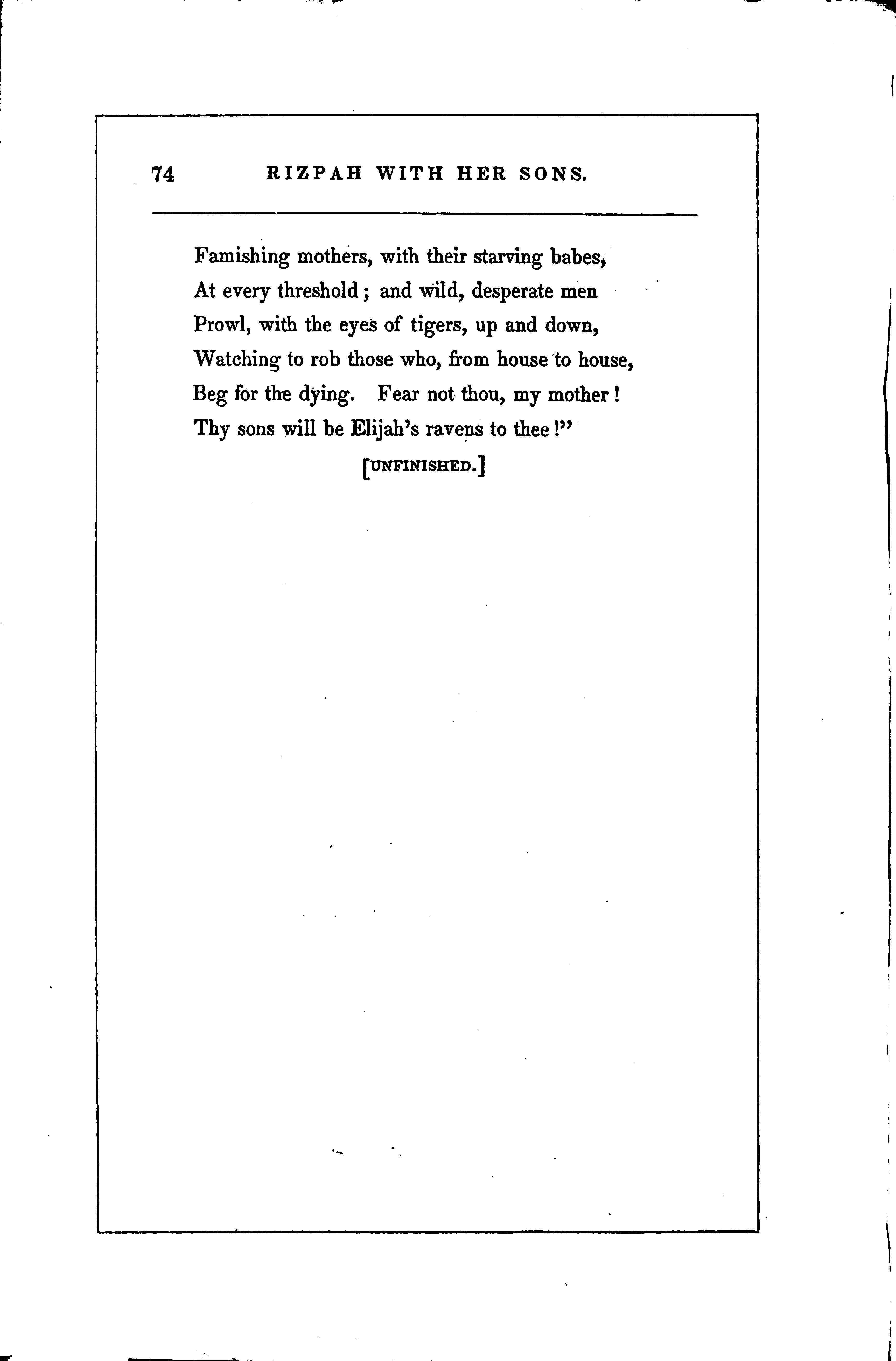

JESUS was there but yesterday. The prints
Of his departing feet were at the door ; His " Peace be with you !" was yet audible In the rapt porch of Mary's charmed ear ; And, in the low rooms, 'twas as if the air, Hush'd with his going forth, had been the breath Of angels left on watch- so conscious still The place seem'd of his presence ! Yet, within, The family by Jesus loved were weeping, For Lazarus lay dead.
And Mary sat
By the pale sleeper. He was young to die. The countenance whereon the Saviour dwelt
With his benignant smile-the soft fair lines
Breathing of hope-were still all eloquent, Like life well mock'd in marble. That the voice, Gone from those pallid lips, was heard in heaven, Toned with unearthly sweetness-that the light, Quench'd in the closing of those stirless lids, Was veiling before God its timid fire,
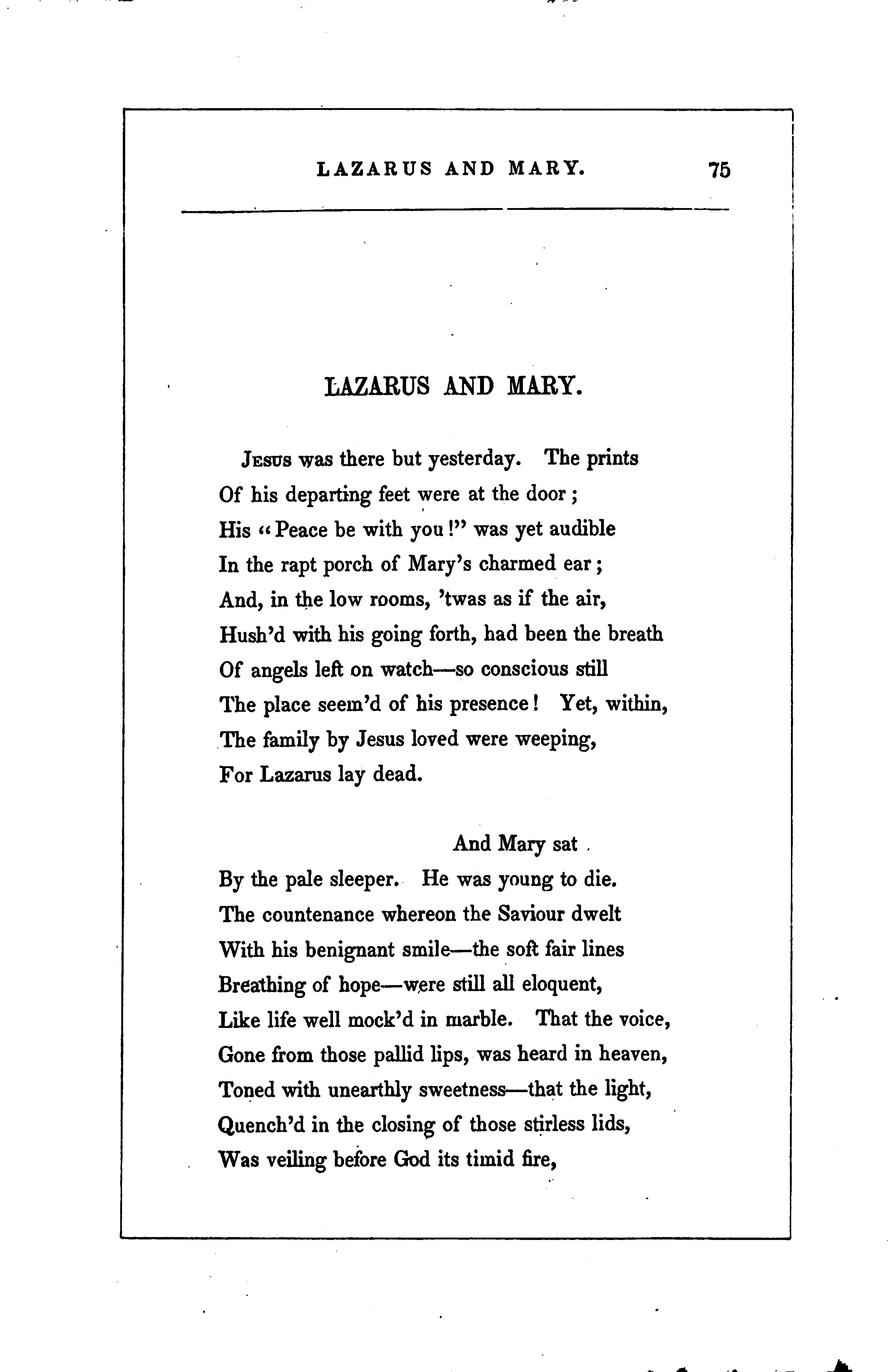

New-lit, and brightening like a star at eve
That Lazarus, her brother, was in bliss, Not with this cold clay sleeping-Mary knew. Her heaviness of heart was not for him! But close had been the tie by Death divided. The intertwining locks of that bright hair
That wiped the feet of Jesus-the fair hands
Clasp'd in her breathless wonder while He taught Scarce to one pulse thrill'd more in unison, Than with one soul this sister and her brother
Had lock'd their lives together. In this love, Hallow'd from stain, the woman's heart of Mary Was, with its rich affections, all bound up. Of an unblemish'd beauty, as became
An office by archangels fill'd till now, She walk'd with a celestial halo clad ; And while, to the Apostles' eyes, it seem'd She but fulfill'd her errand out of heavenSharing her low roof with the Son of GodShe was a woman, fond and mortal still ; And the deep fervour, lost to passion's fire, Breathed through the sister's tenderness. In vain
Knew Mary, gazing on that face of clay, That it was not her brother. He was there-
Swathed in that linen vesture forthe graveThe same loved one in all his comelinessAnd with himto the grave her heart must go.
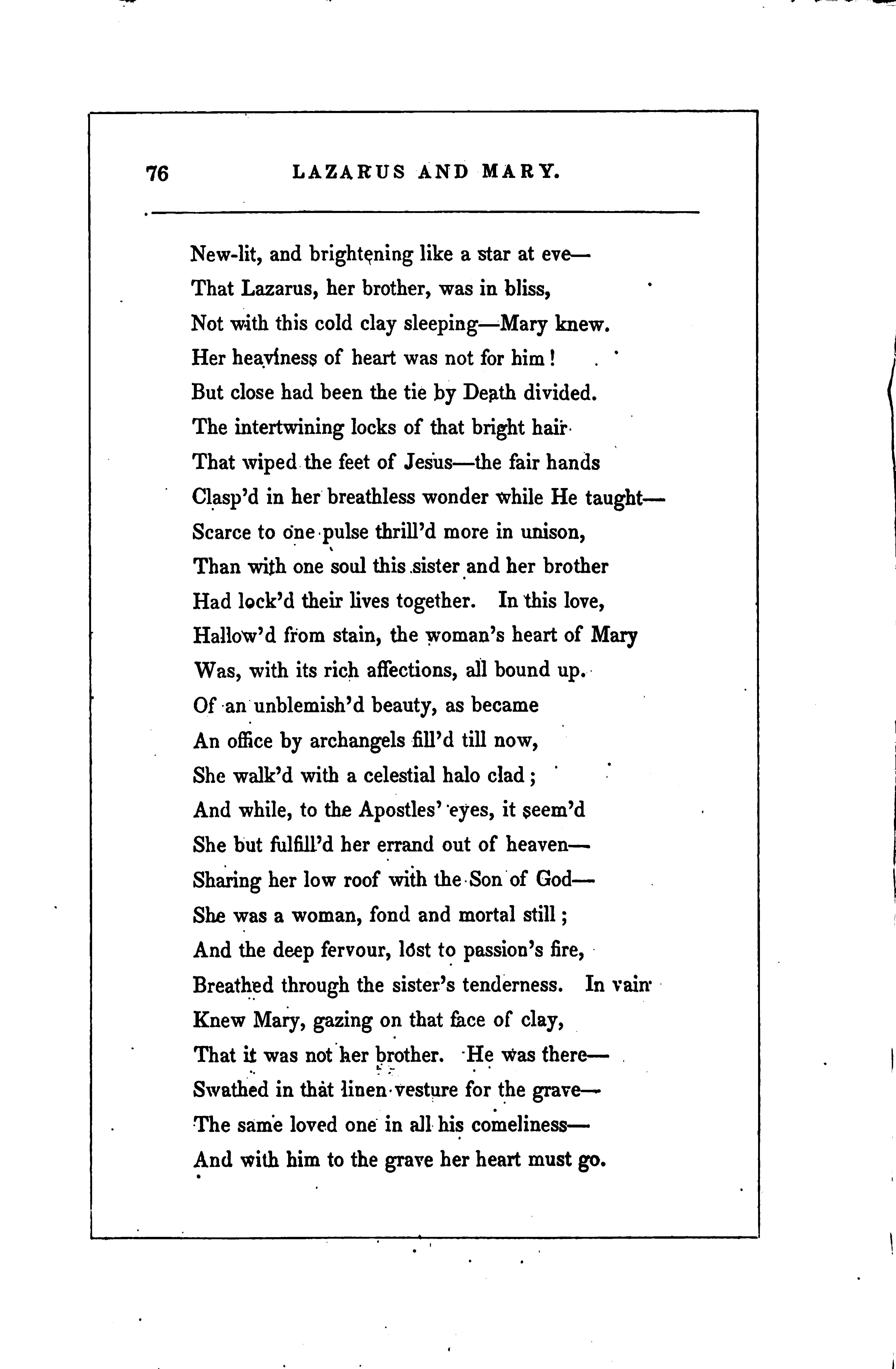

What though he talk'd of her to angels? nay-Hover'd in spirit near her? 'twas that arm, Palsied in death, whose fond caress she knew! It was that lip of marble with whose kiss, Morning and eve, love hemm'd the sweet day in. This was the form by the Judean maids Praised for its palm-like stature, as he walk'd With her by Kedron in the eventideThe dead was Lazarus !.
The burial was over, and the night Fell upon Bethany-and morn-and noon. And comforters and mourners went their way-But death stay'd on ! .They had been oft alone, When Lazarus had follow'd Christ to hear His teachings in Jerusalem ; but this Was morethan solitude. The silence now Was void of expectation. Something felt . Always before, and loved without a name, Joy from the air, hope from the opening door, Welcome and life from off the very walls,Seem'd gone ; and in the chamber where he lay There was a fearful and unbreathing hush, Stiller than night's last hour. So fell on Mary The shadows all have known, whose bleeding hearts Seem'd thetorn gate through which the lov'd, departed, k Broke from this world away. The parting soul 2
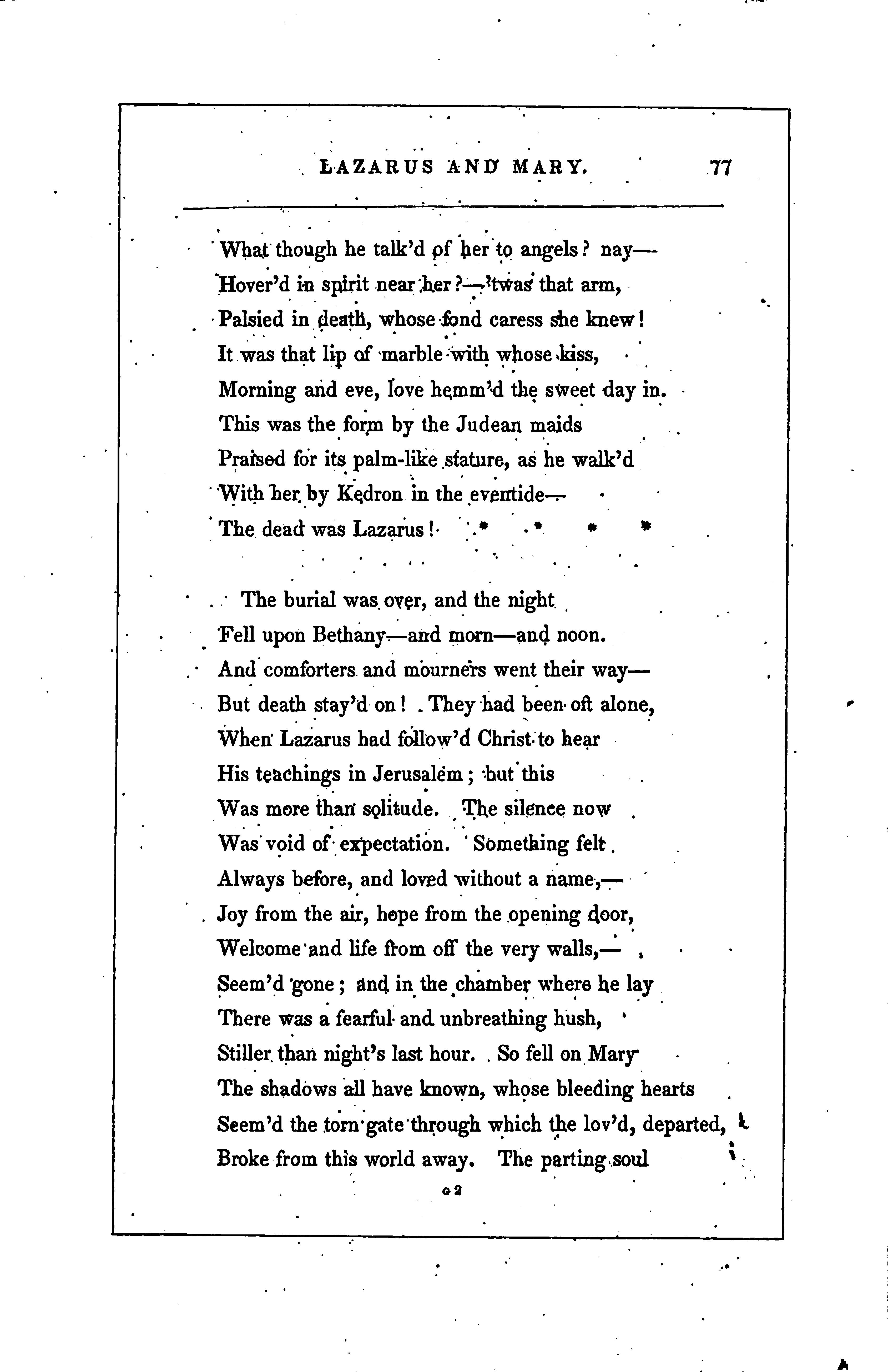

Spreads wing betwixt the mourner and the sky!
As if its path lay, from the tie last broken, Straight through the cheering gateway of the sun ; And, to the eye strain'd after, 'tis a cloud That bars the light from all things.
Now as Christ
Drew near to Bethany, the Jews went forth With Martha, mourning Lazarus. But Mary Sat in the house. She knew the hour was nigh When He would go again, as He had said, Unto his Father ; and she felt that He, Who loved her brother Lazarus in life, Had chose the hour, to bring him home through Death, In no unkind forgetfulness. Alone She could lift up the bitter prayer to heaven, "Thy will be done, O God !" but that dear brother Had fill'd the cup and broke the bread for Christ ; And ever, at the morn, when she had knelt And wash'd those holy feet, came Lazarus To bind His sandals on, and follow forth With dropp'd eyes, like an angel, sad and fairIntent upon the Master's need alone. Indissolubly link'd were they ! And now, To goto meet Him-Lazarus not thereAnd, to His greeting, answer, " It is well And, without tears, (since grief would weigh on Him Whose soul was over-sorrowful,) to kneel
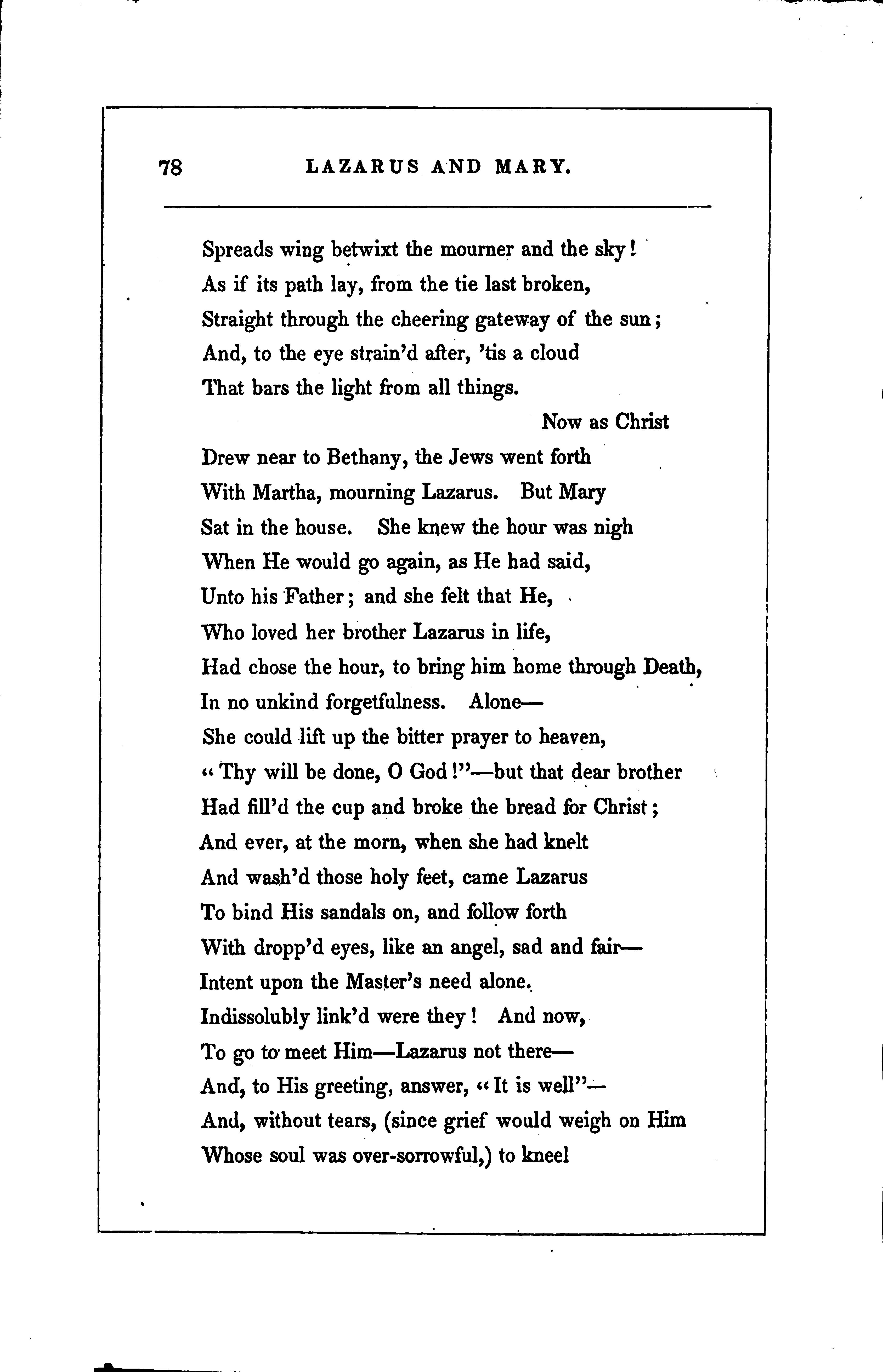

And minister alone-her heart gave way! She cover'd up her face, and turn'd again To wait within for Jesus. But once more Came Martha, saying, " Lo ! the Lord is here And calleth for thee, Mary!" Then arose The mourner from the ground, whereon she sate Shrouded in sackcloth ; and bound quickly up The golden locks of her dishevell d hair ; And o'er her ashygarments drew a veilHiding the eyes she could not trust. And still, As she made ready to go forth, a calm As in a dream fell on her.
At afount
Hard bythe sepulchre, without the wall, Jesus awaited Mary. Seated near Were the way-worn disciples in the shade ; But, ofHimself forgetful, Jesus lean'd Upon his staff, and watch'd where she should come To whose one sorrow-but a sparrow's fallingThe pity that redeem'd a world could bleed! And as she came, with that uncertain step,Eager, yet weak,-her hands upon her breast,And they who follow'd her all fallen back To leave her with her sacred grief alone,The heart of Christ was troubled. She drew near, And the disciples rose up from the fount,
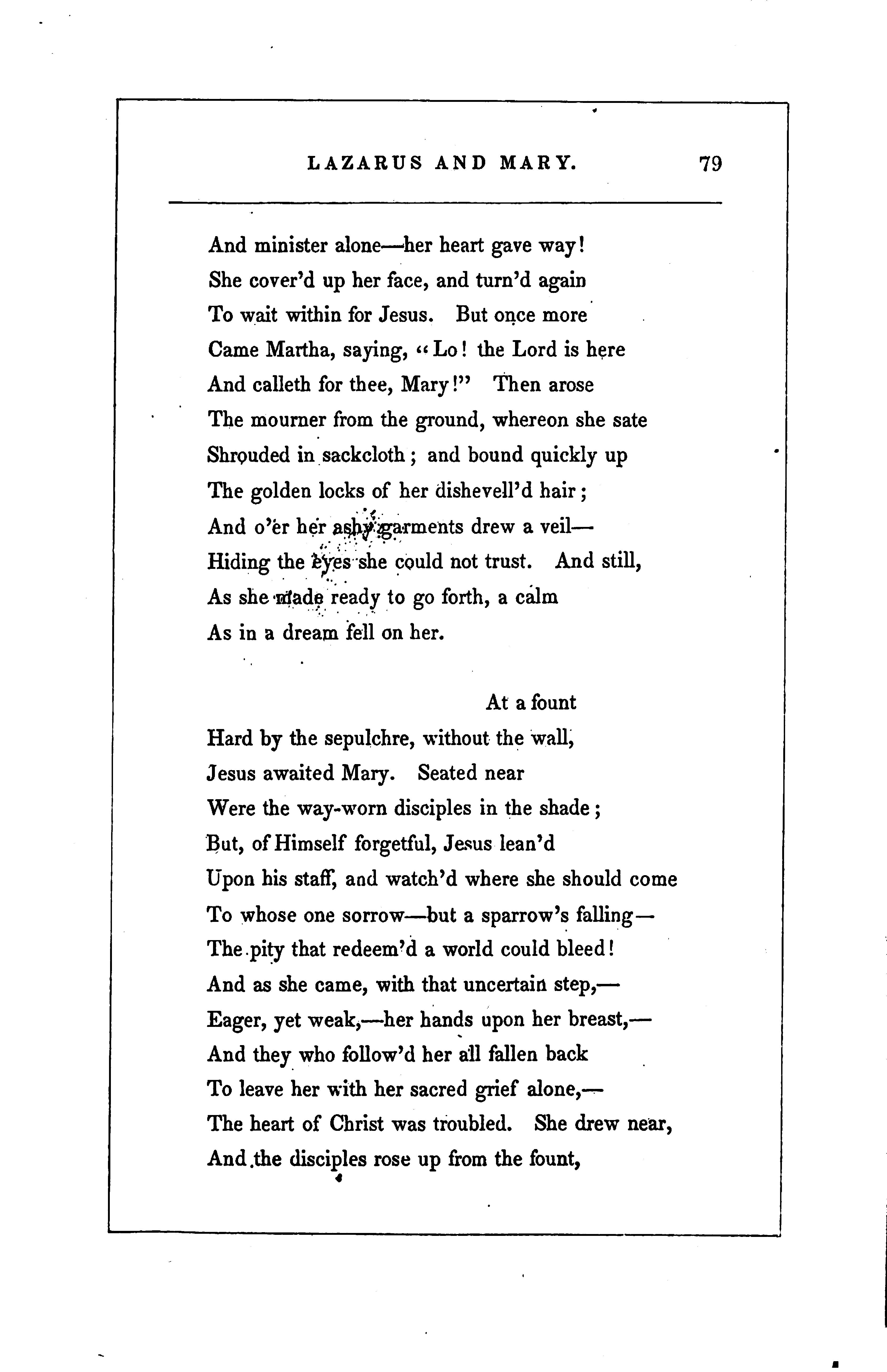

Moved by her look of wo, and gather'd round ; And Mary-for a moment-ere she look'd
Upon the Saviour, stay'd her faltering feet,And straighten'd her veil'd form, and tighter drew Her clasp upon the folds across her breast; Then, with a vain strife to control her tears, She stagger'd to their midst, and at His feet Fell prostrate, saying, " Lord! hadst thou been here, My brother had not died !" The Saviour groan'd In spirit, and stoop'd tenderly, and raised The mourner from the ground, and in a voice Broke in its utterance like her own, He said, Where have ye laidhim ?" Thenthe Jews who came, Following Mary, answer'd through their tears, " Lord! come and see !" But lo ! the mighty heart
That in Gethsemane sweat drops of blood, Taking for usthe cup that might not passThe heart whose breaking cord upon the cross
Made the earth tremble, and the sun afraid To look upon his agony-the heart
Of a lost world's Redeemer-overflow'd, Touch'dby a mourner's sorrow ! Jesus wept.
Calm'd by those pitying tears, and fondly brooding
Upon the thought that Christ so loved her brother, Stood,Mary there ; but that lost burthen now. Lay on His heart, who pitied her ; and Christ,
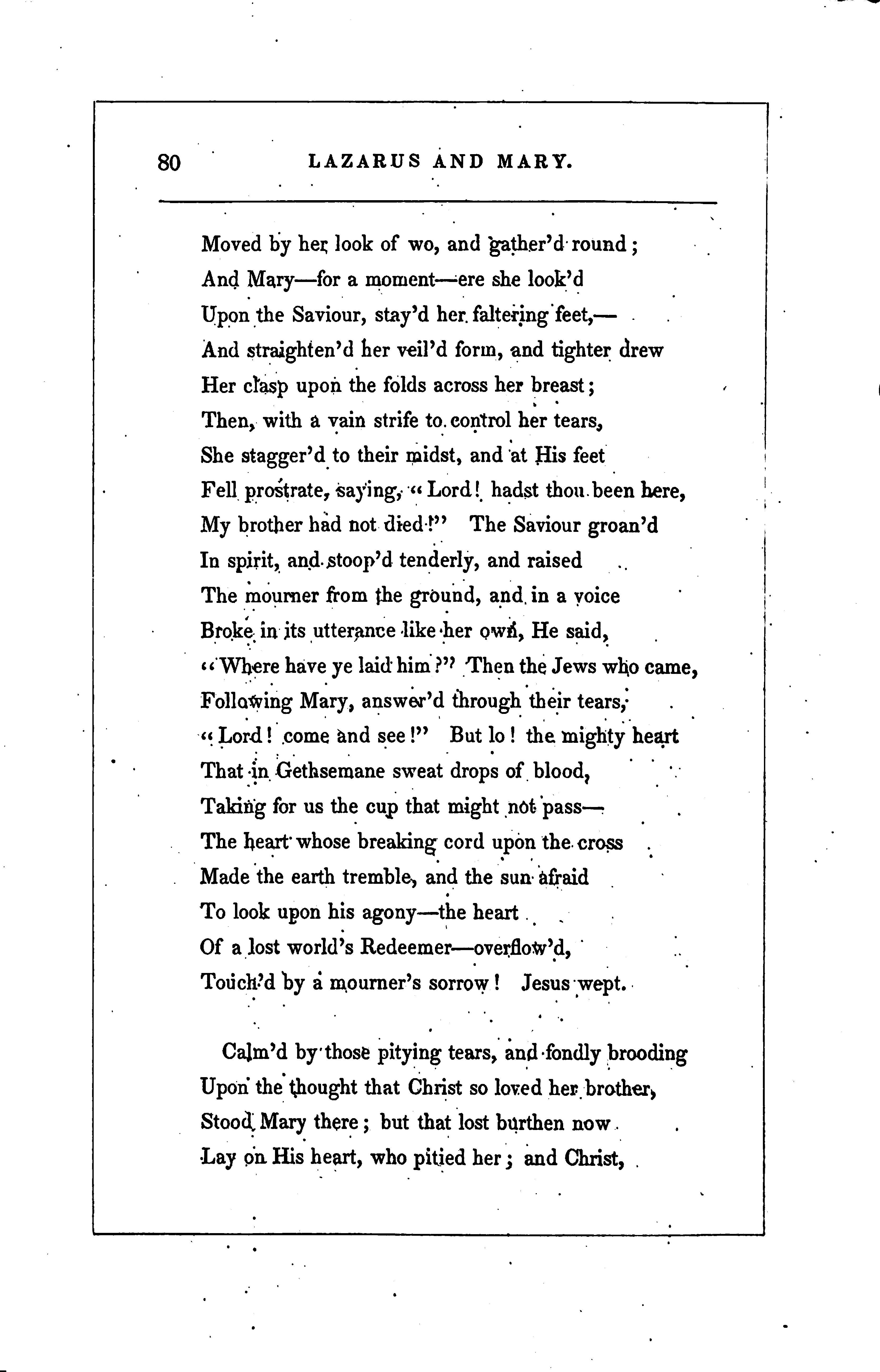

Following slow, and groaning in Himself, Came to the sepulchre. It was a cave, And a stone lay upon it. Jesus said, "Take ye away the stone !? Then lifted He His moisten'd eyes to heaven, and while the Jews And the disciples bent their heads in awe, And trembling Mary sank upon her knees, The Son of God pray'd audibly.
He ceased, And for a minute's space there was a hush, '
As if th' angelic watchers of the world Had stay'd the pulses of all breathing things, To listen to that prayer. The face of Christ Shone as He stood, and over Him there came Command, as 'twere the living face of God, And with a loud voice, He cried, " Lazarus ! · Come forth !" And instantly, bound hand and foot, And borne by unseen angels from the cave, He that was dead stood with them. Atthe word Of Jesus, the fear-stricken Jews unloosed
The bands from off the foldings of his shroud ; And Mary, with her dark veil thrown aside, Ran to him swiftly, and cried,." LAZARUS!
MY BROTHER, LAZARUS !" and tore away . The napkin she had bound about his head . And touch'd the warm lips with her fearful hand-
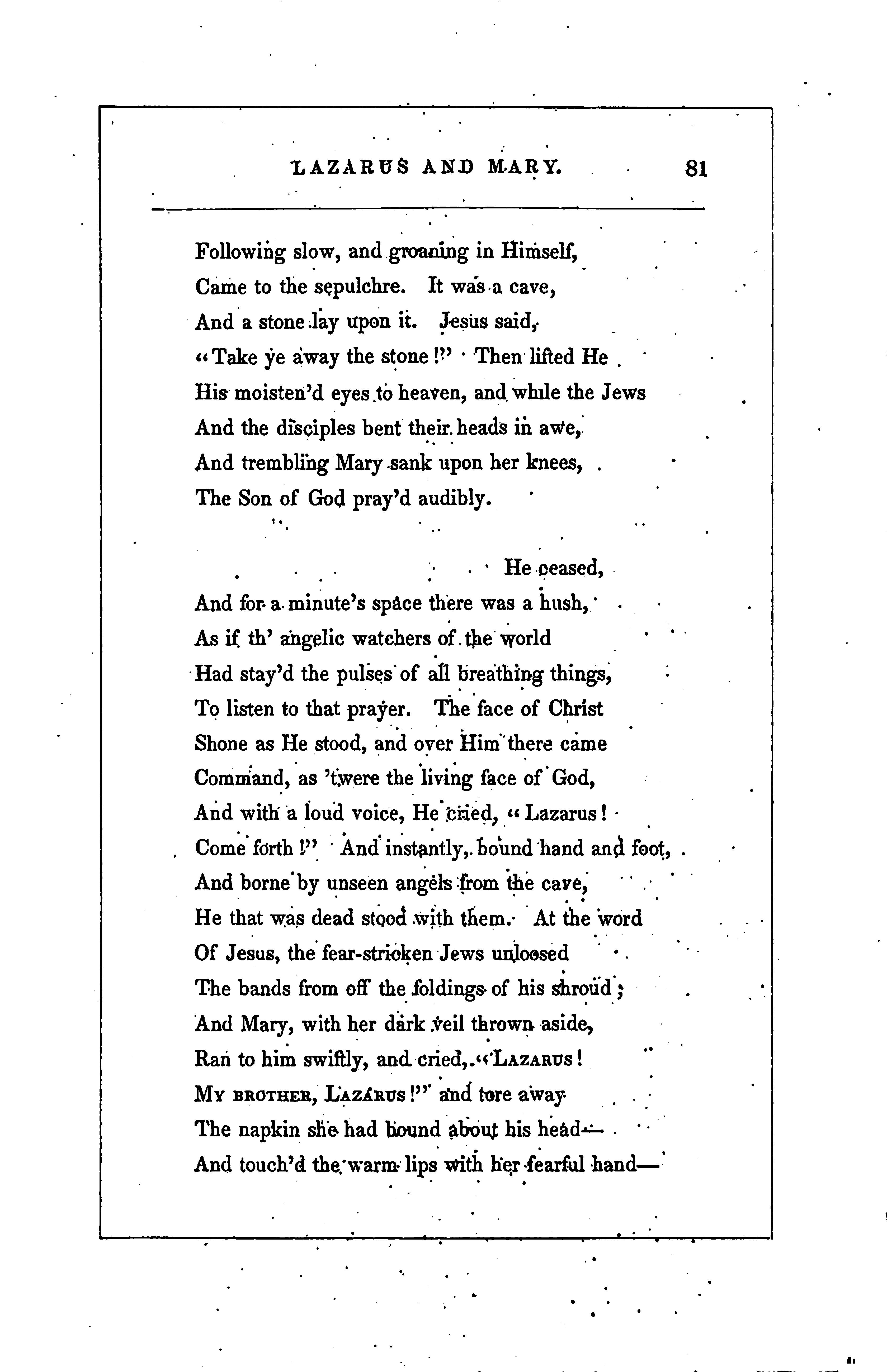

And on his neck fell weeping. And while all Lay on their faces prostrate, Lazarus Took Mary bythe hand, and they knelt down And worshipp'd Him who loved them.
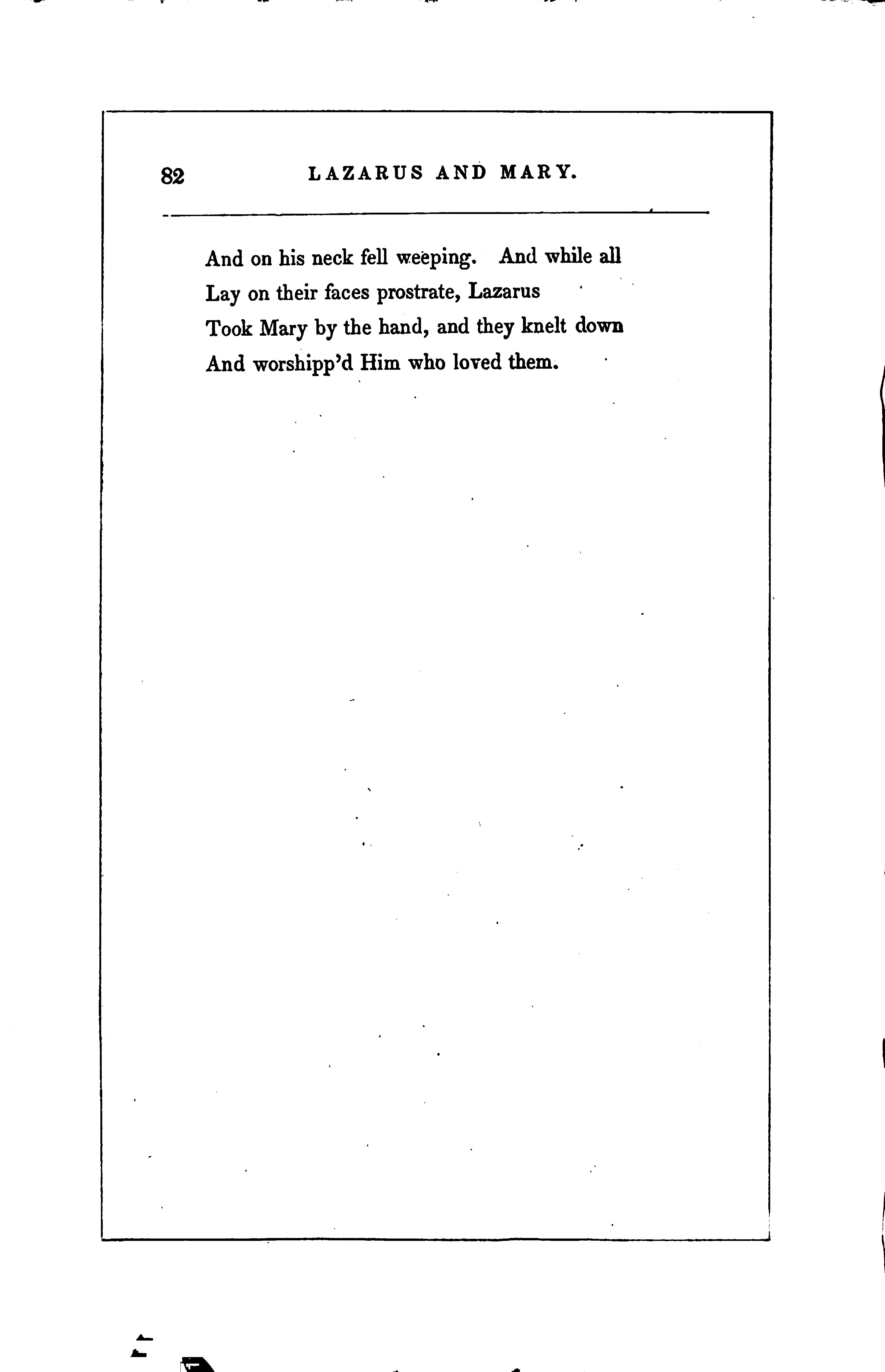

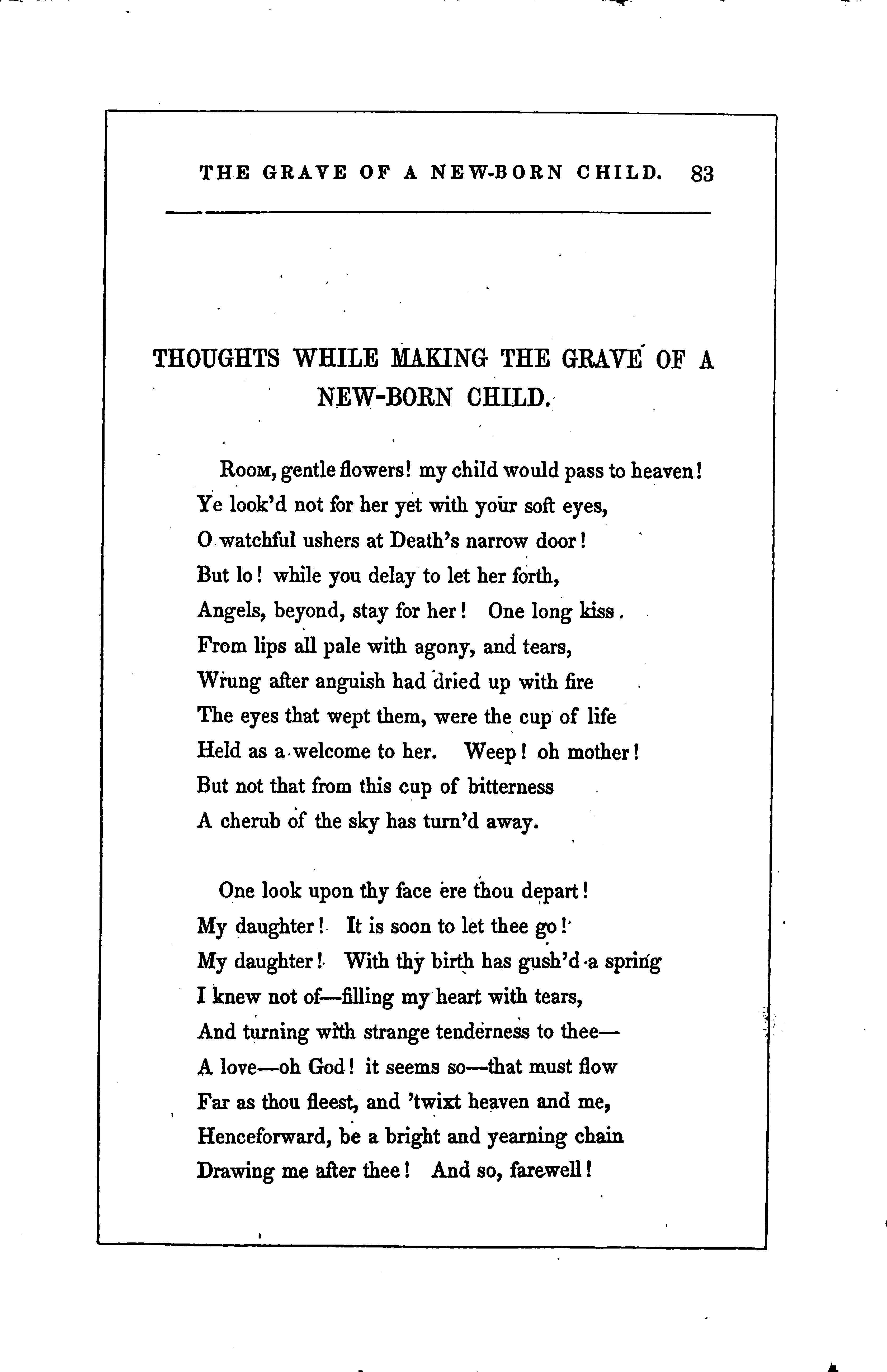
ROOM,gentle flowers! my child would pass to heaven!
Ye look'd not for her yet with your soft eyes, O watchful ushers at Death's narrow door!
But lo! while you delay to let her forth, Angels, beyond, stay for her ! One long kiss . From lips all pale with agony, and tears, Wrung after anguish had dried up with fire
The eyes that wept them, were the cup of life
Held as a welcome to her. Weep! oh mother!
But not that from this cup of bitterness
A cherub of the sky has turn'd away.
One look upon thy face ere thou depart!
My daughter! It is soon to let thee go!
My daughter!
I knew not of With thy birth has gush'd a spring filling my heart with tears, And turning with strange tenderness to thee-
A love-oh God! it seems so-that must flow
Far as thou fleest, and 'twixt heaven and me, Henceforward, be a bright and yearning chain
Drawing me after thee ! And so, farewell!

'Tis a harsh world, in which affection knows No place to treasure up its loved and lost But the foul grave! Thou, who so.late wast sleeping Warm inthe close fold of a mother's heart, Scarce from her breast a single pulse receiving. But it was sent thee with some tender thought, How can I leave thee-here! Alas for man!
The herb in its humility mayfall And waste into the bright and genial air, While we-by hands that minister'd in life Nothing but love to us-are thrust away The earth flung in upon our just cold bosoms, And the warm sunshine trodden out forever!
Yet have I chosen for thy grave, my child, A bank where I' hay lain in summer hours, And thought how little it would seem like death. To sleep amid such loveliness. The brook, Tripping with laughter down the rocky steps That lead up to thy bed, would still trip on, Breaking the dread hush ofthe mourners gone ; The birds are never silent that build here, Trying to sing down the more vocal waters : The slope is beautiful with moss and flowers, : And far below, seen under arching leaves, Glitters the warm sun on the village spire, Pointing the living afterthee: And this
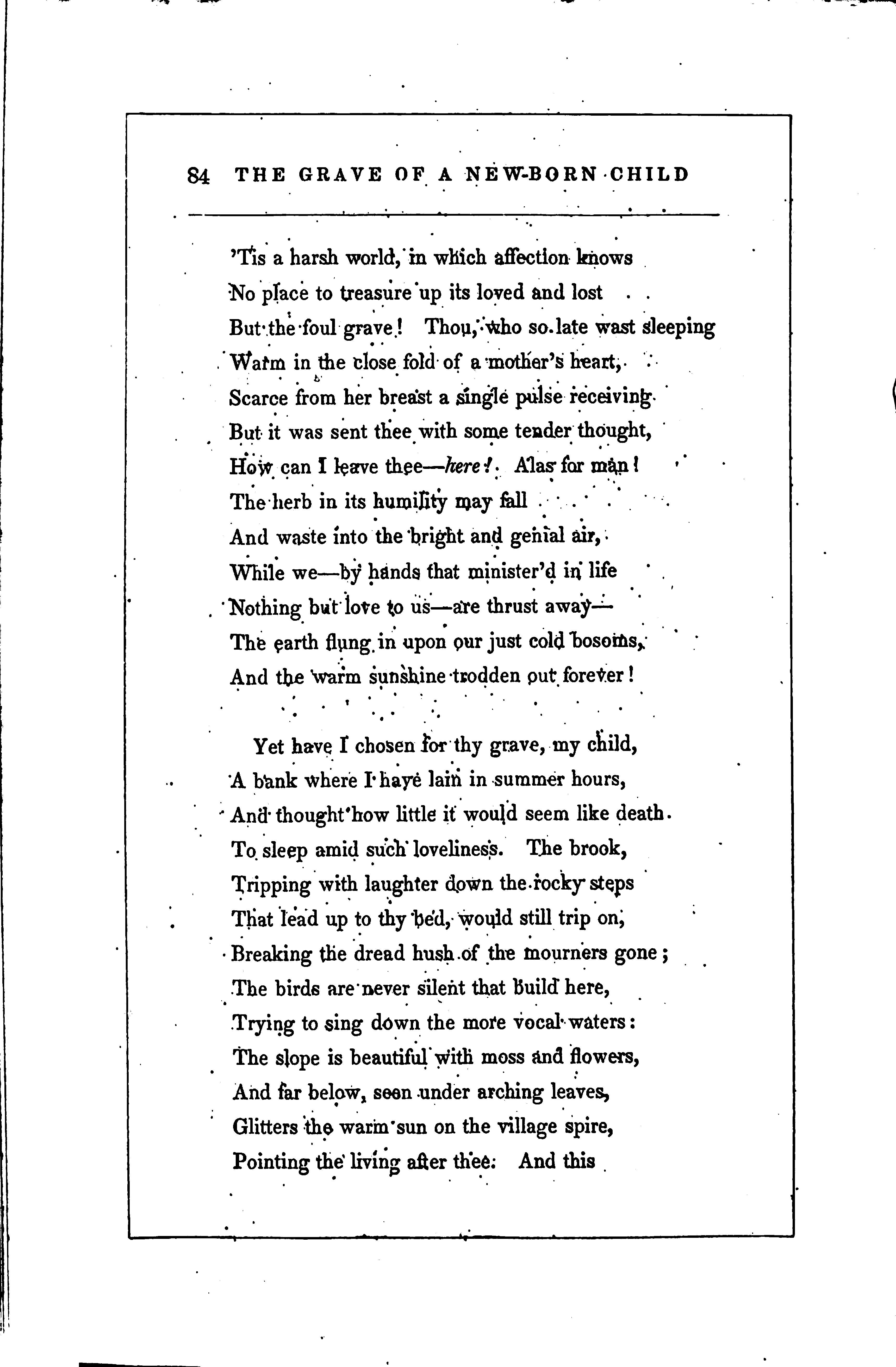

Seems like a comfort ; and, replacing now
The flowers that have made room for thee, I go.
To whisperthe same peace to her who liesRobb'd of her child and lonely. 'Tis the work Of many a dark hour, and of many a prayer, To bringthe heart back from an infant gone. Hope must give o'er, and busy fancy blot
The images from all the silent rooms, And every sight and sound familiar to her Undo its sweetest link-and so at last
The fountain-that, once struck, must flow for everWill hide and waste in silence. When the smile.
Steals to her pallid lip again, and Spring Wakens the buds above thee, we will come,
And, standing by thy music-haunted grave, Look on each other cheerfully, and say:-
A child that we have loved is gone to heaven, Andbythisgate offlowers shepass'd away!
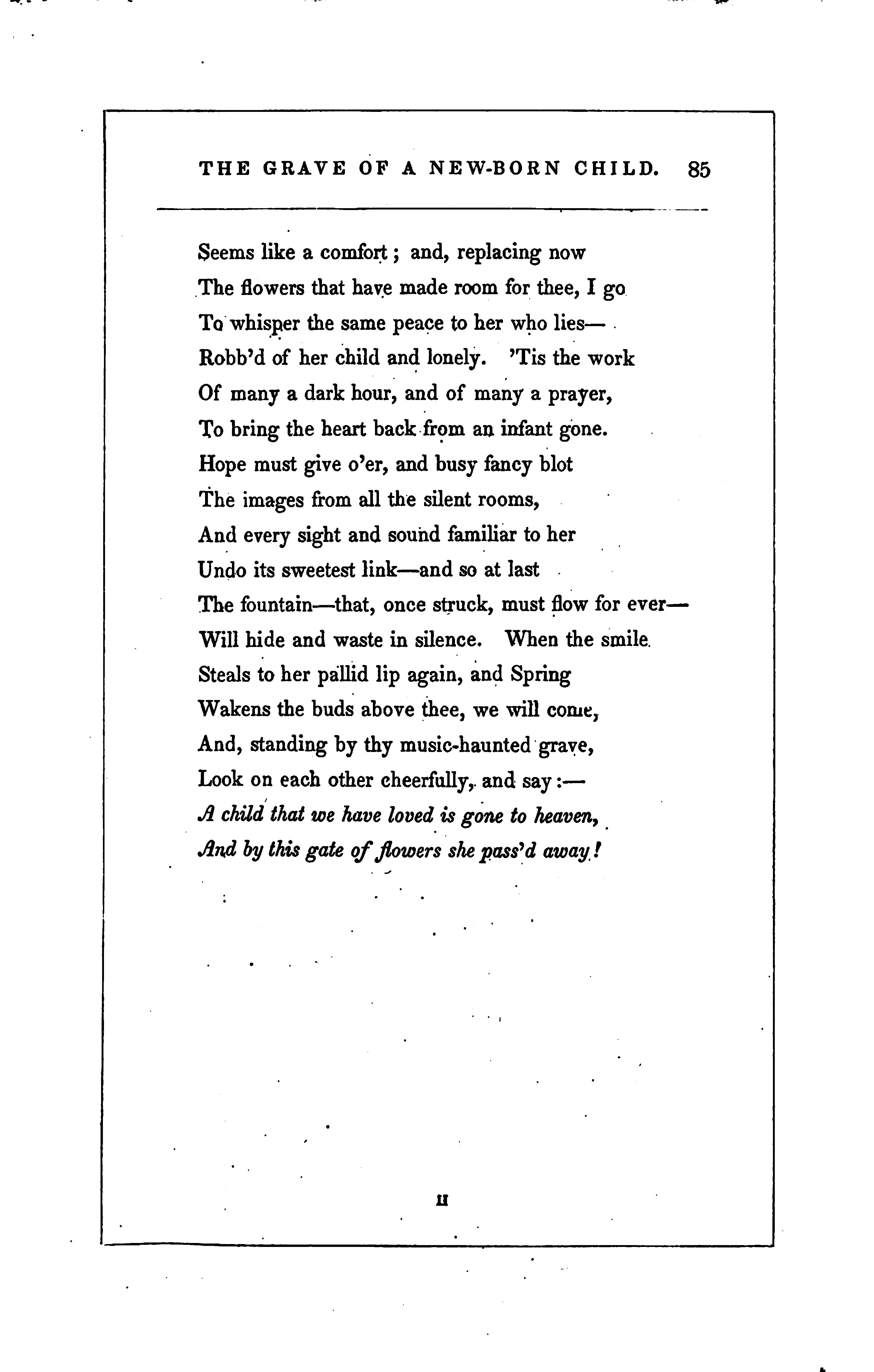

FROM HIS PARISH, WHENCHOSENPRESIDENTOFWABASHCOLLEGE.
LEAVE us not, man of prayer ! Like Paul, hast thou " Served God with all humility of mind,"
Dwelling among us, and " with many tears," "Fromhouse to house," "bynight and day not ceasing," Hast pleaded thy blest errand. Leave us not! Leave us not now! The Sabbath-bell, so long Link'd with thy voice-the prelude to thy prayerThe call to us from heaven to come with thee Intothe house of God, and, from thy lips, Hear what had fall'n upon thy heart-will sound Lonely and mournfully when thou art gone! Our prayers are in thy words-our hope in Christ Warm'd onthy lips our darkling thoughts of God Follow'd thy loved call upward ; and so knit
Is all our worship with those outspread hands, And the imploring voice, which, well we knew, Sank inthe ear of Jesus-that, with thee, The angel's ladder seems removed from sight, And we astray in darkness ! Leave us not!
Leave not the dead! They have lain calmly down---
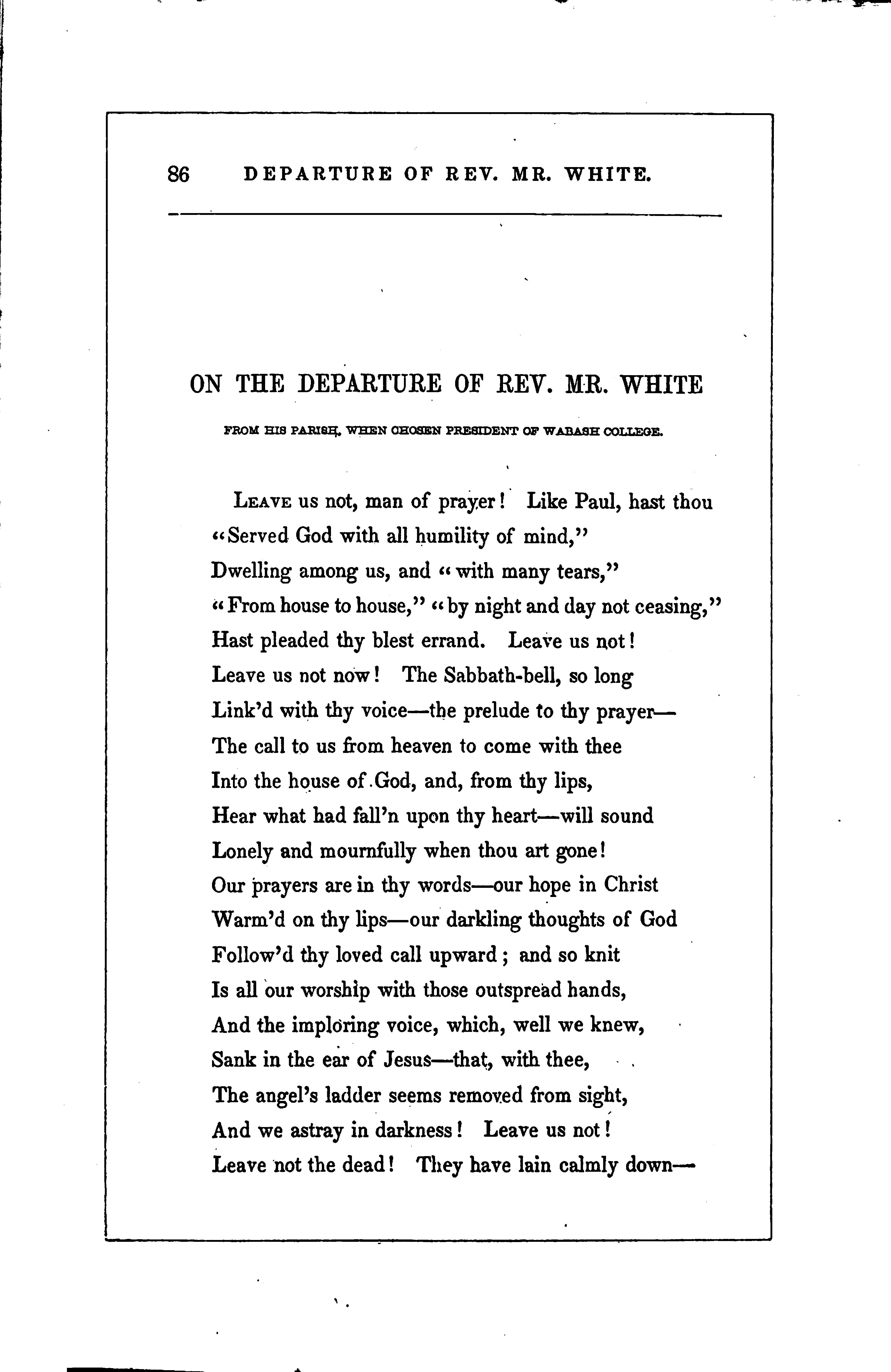

Thy comfort in their ears-believing well
That when thine own more holy work was done, Thou wouldst lie down beside them, and be near When the last trump shall summon, to fold up Thy flock affrighted, and, with that same voice . Whose whisper'd promises could sweeten death, Take up once more the interrupted strain, And wait Christ's coming, saying, " Here am I, And those whom thou hast given me!" Leave not The old, who, 'mid the gathering shadows, cling To their accustom'd staff, and know not how To lose thee, and so near the darkest hour! Leave not the penitent, whose soul may be Deaf to the strange voice, but awake to thine ! Leave not the mourner thou hast sooth'd-the heart Turns to its comforter again ! Leave not The child thou hast baptized ! another's care May not keep bright, upon the mother's heart, The covenant seal ; the infant's ear has caught Words it has strangely ponder'd, from thy lips, And the remember'd tone may find again, And quicken for the harvest, the first seed Sown for eternity! Leave notthe child !
Yet if thou wilt-if, « bound in spirit," thou Must go, and we shall see thy face no more, "The will of God be done !" We do not say
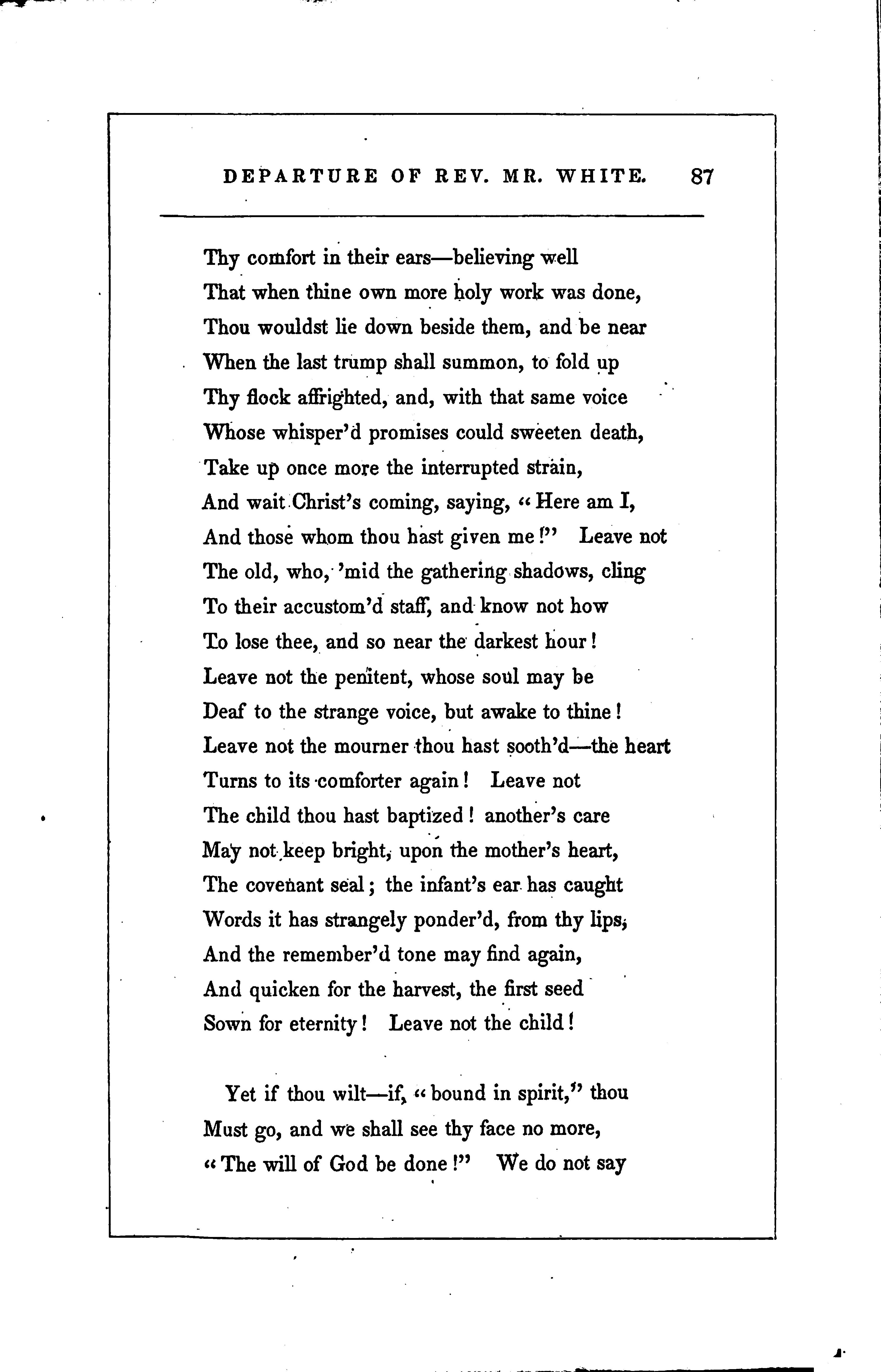

Remember us-thou wilt-in love and prayer! And thou wilt be remember'd-by the dead, When the last trump awakes them-bythe old, When, ofthe " silver cord" whose strengththou know'st, The last thread fails-by the bereaved and stricken, When the dark cloud, wherein thou found'st a spot Broke bythe light of mercy, lowers again
By the sad mother, pleading for her child, In murmurs difficult, since thou art goneBy all thou leavest, when the Sabbath-bell Brings us together, and the closing hymn Hushes our hearts to pray, and thy loved voice, That all our wants had grown to, (only thus, "Twould seem, articulate to God,) falls not Upon our listening ears-remember'd thusRemember'd well-in all our holiest hours Will be the faithful shepherd we have lost! And ever with one prayer, for which our love Will find the pleading words, that in the light Of heaven we may behold his face once more!
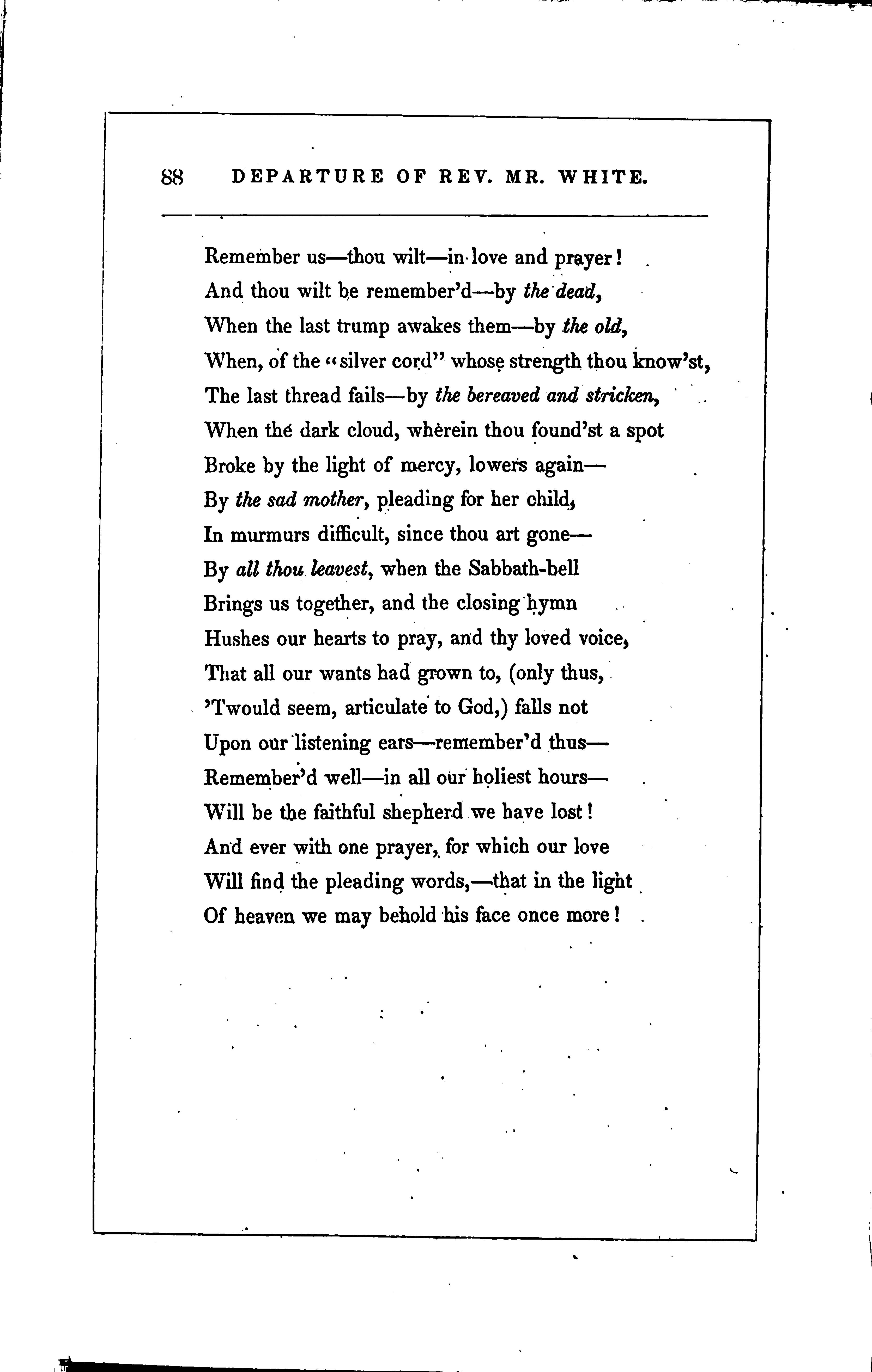

BIRTH-DAY VERSES. 89
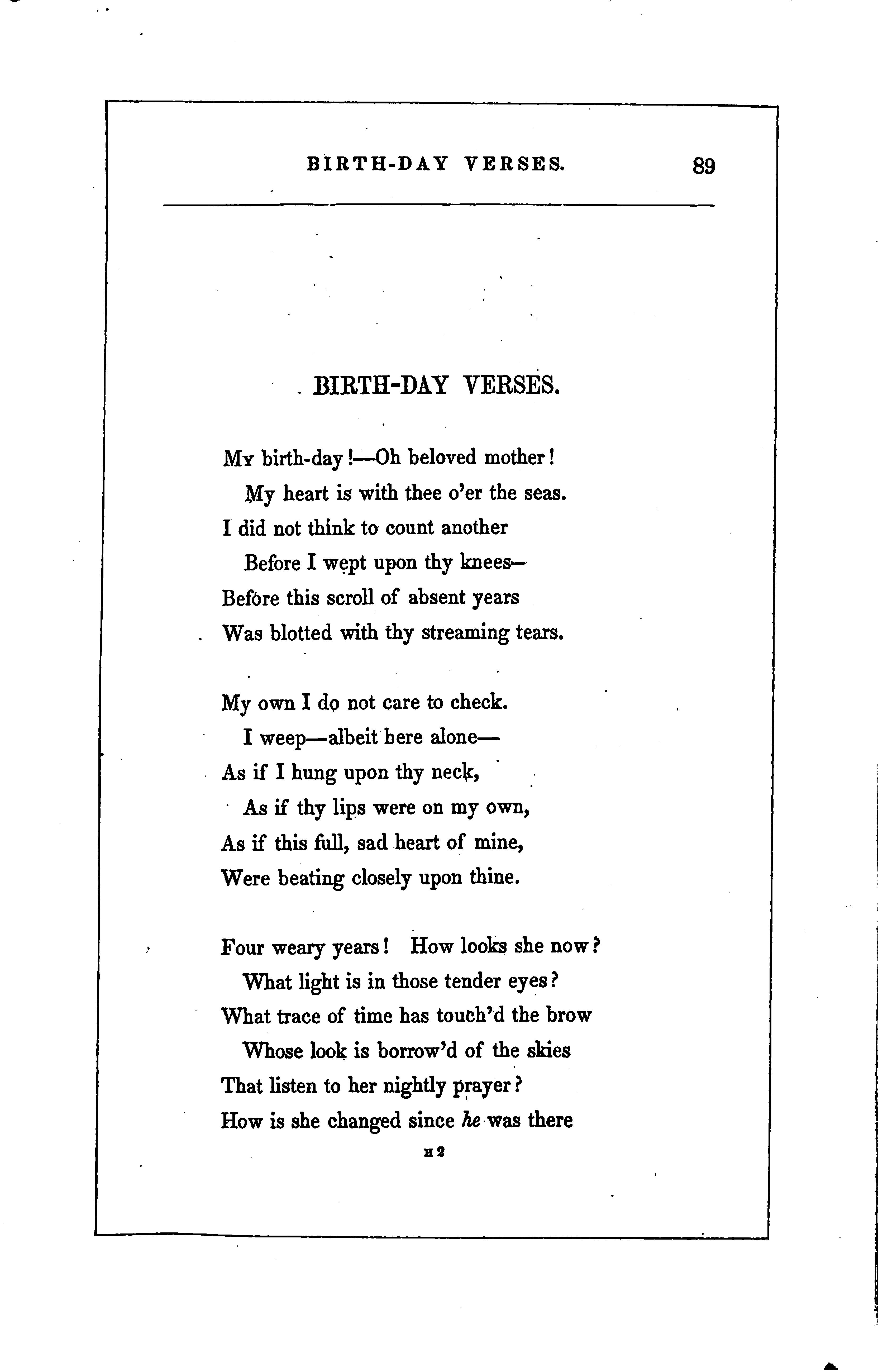
BIRTH-DAY VERSES.
My birth-day !-Oh beloved mother !
My heart is with thee o'er the seas. I did not think to count another
Before I wept upon thy kneesBefore this scroll of absent years Was blotted with thy streaming tears.
My own I do not care to check. I weep-albeit bere alone
As if I hung upon thy neck,
As if thy lips were on my own,
As if this full, sad heart of mine, Were beating closely upon thine.
Four weary years ! How looks she now?
What light is in those tender eyes? What trace of time has touch'd the brow
Whose look is borrow'd of the skies
That listen to her nightly prayer? How is she changed since he was there

BIRTH DAY VERSES.
Who sleeps upon her heart alway
Whose name upon her lips is worn For whom the night seems made to prayFor whom she wakes to pray at morn
Whose sight is dim, whose heart-strings stir, Who weeps these tears-to think of her!
I know not if my mother's eyes Would find me changed in slighter things ; I've wander'd beneath many skies, And tasted of some bitter springs; And many leaves, once fair and gay, From youth's full flower have dropp'd away But, as these looser leaves depart, The lessen'd flower gets near the core, And, when deserted quite, the heart Takes closer what was dear of yoreAnd yearns to those who loved it first-
The sunshine and the dewbywhich its bud was nursed.
Dear mother! dost thou love me yet? Am I remember'd in my home? Whenthose I love forjoy are met, Does some one wish that I would come? Thou dost-I am beloved of these! But, as the schoolboy numbers o'er
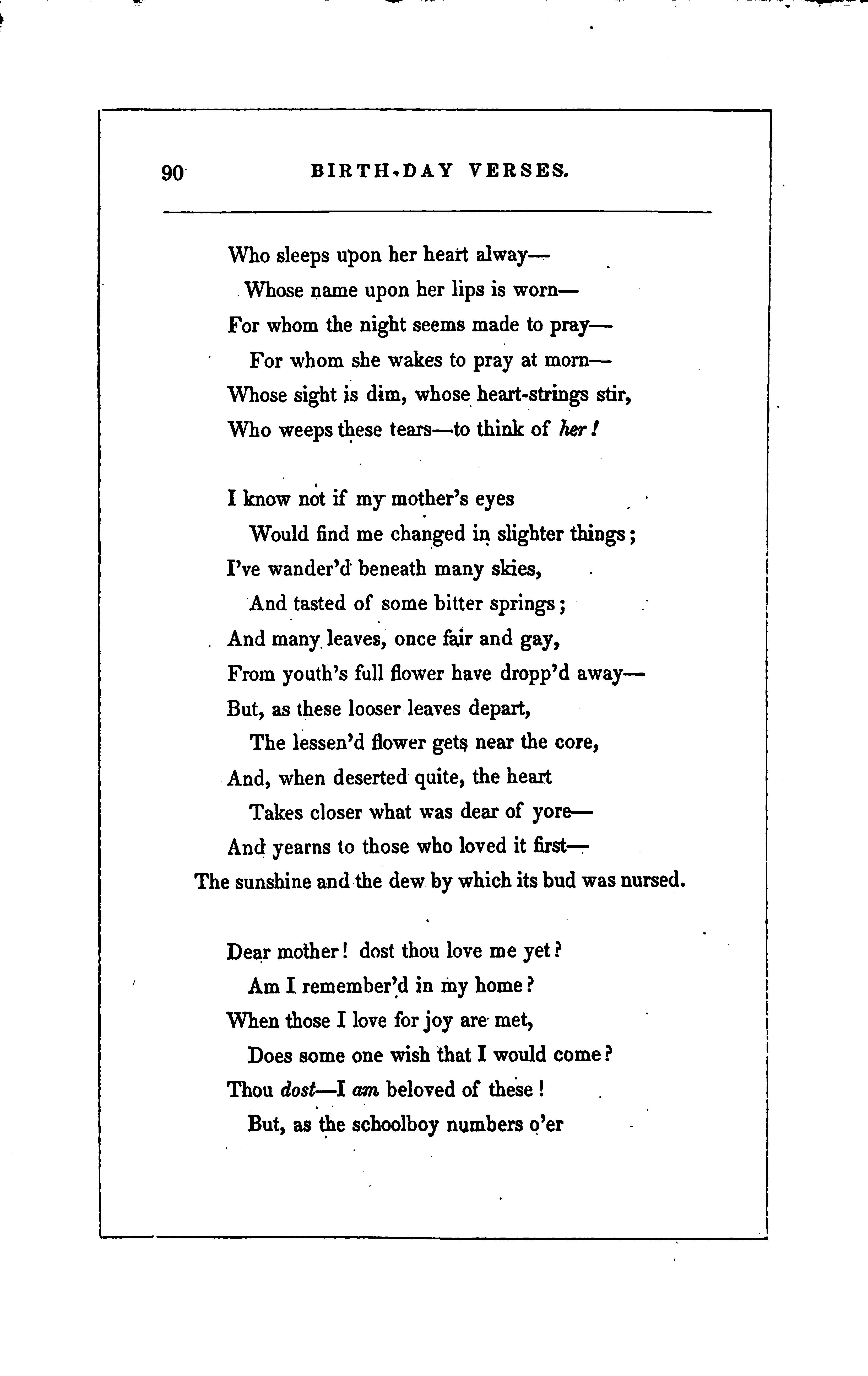

Night after night the Pleiades, And finds the stars he found beforeAs turns the maiden oft her token As counts the miser aye his goldSo, till life's silver cord is broken, Would I of thy fond love be told. Myheart is full, mine eyes are wetDear mother! dost thou love thy long-lost wanderer yet?
Oh! when the hour to meet again Creeps on-and, speeding o'er the sea, My heart takes up its lengthen'd chain, And, link by link, draws nearer thee When land is hail'd, and, from the shore, Comes off the blessed breath of home, With fragrance from my mother's door Of flowers forgotten when I comeWhen port is gain'd, and slowly now, The old familiar paths are pass'd, And, entering unconscious howI gaze upon thy face at last, And runto thee, all faint and weak, And feel thy tears upon my cheekOh! if my heart break not withjoy, The light of heaven will fairer seem; And I shall grow once more a boy : And, mother!-'twill be like a dream
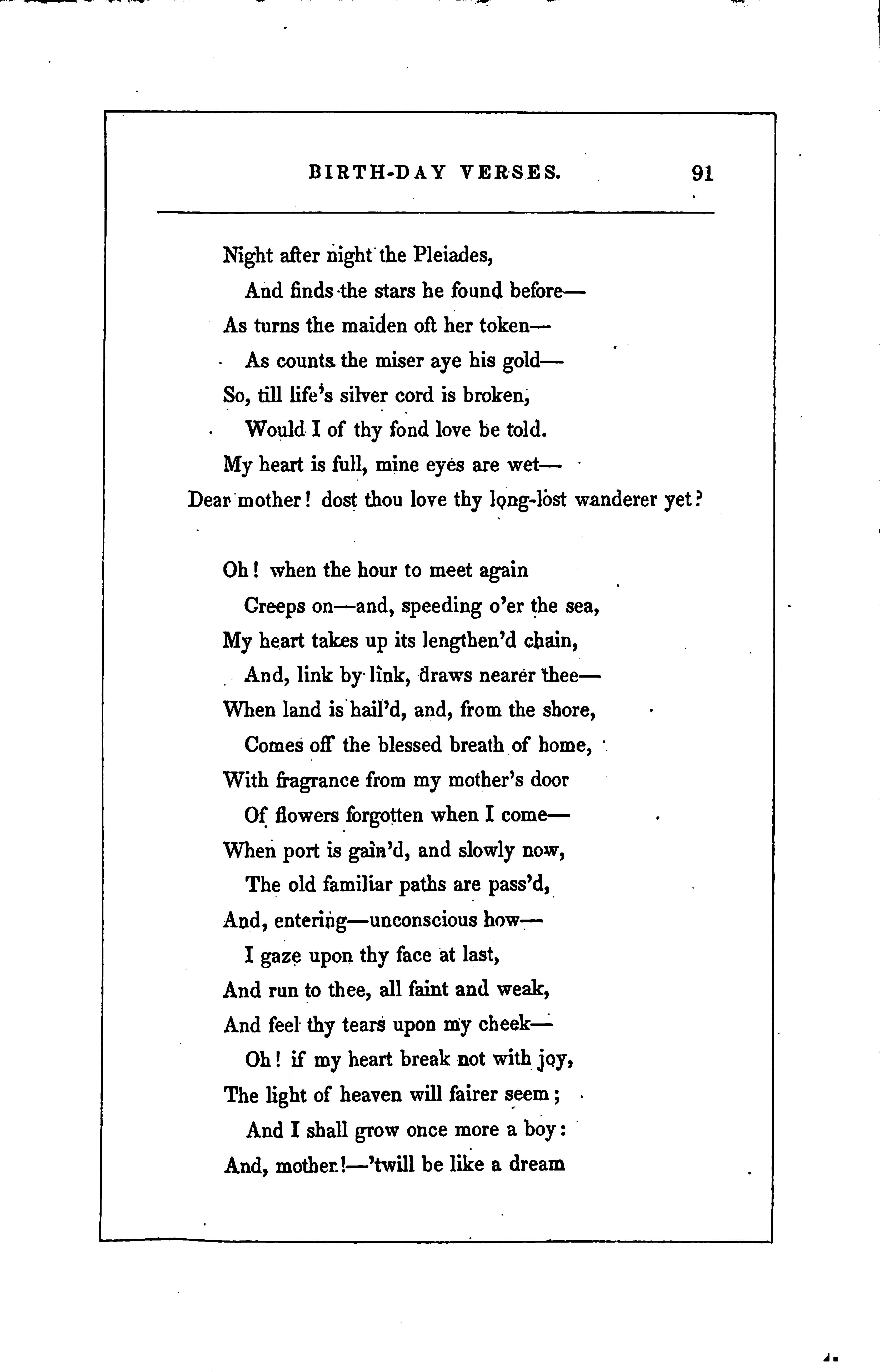

That we were parted thus for years ; And once that we have dried our tears, How will the days seem long and bright To meet thee always with the morn, And hear thy blessing every nightThy dearest," thy "first-born!"And be no more, as now, in a strange land, forlorn!
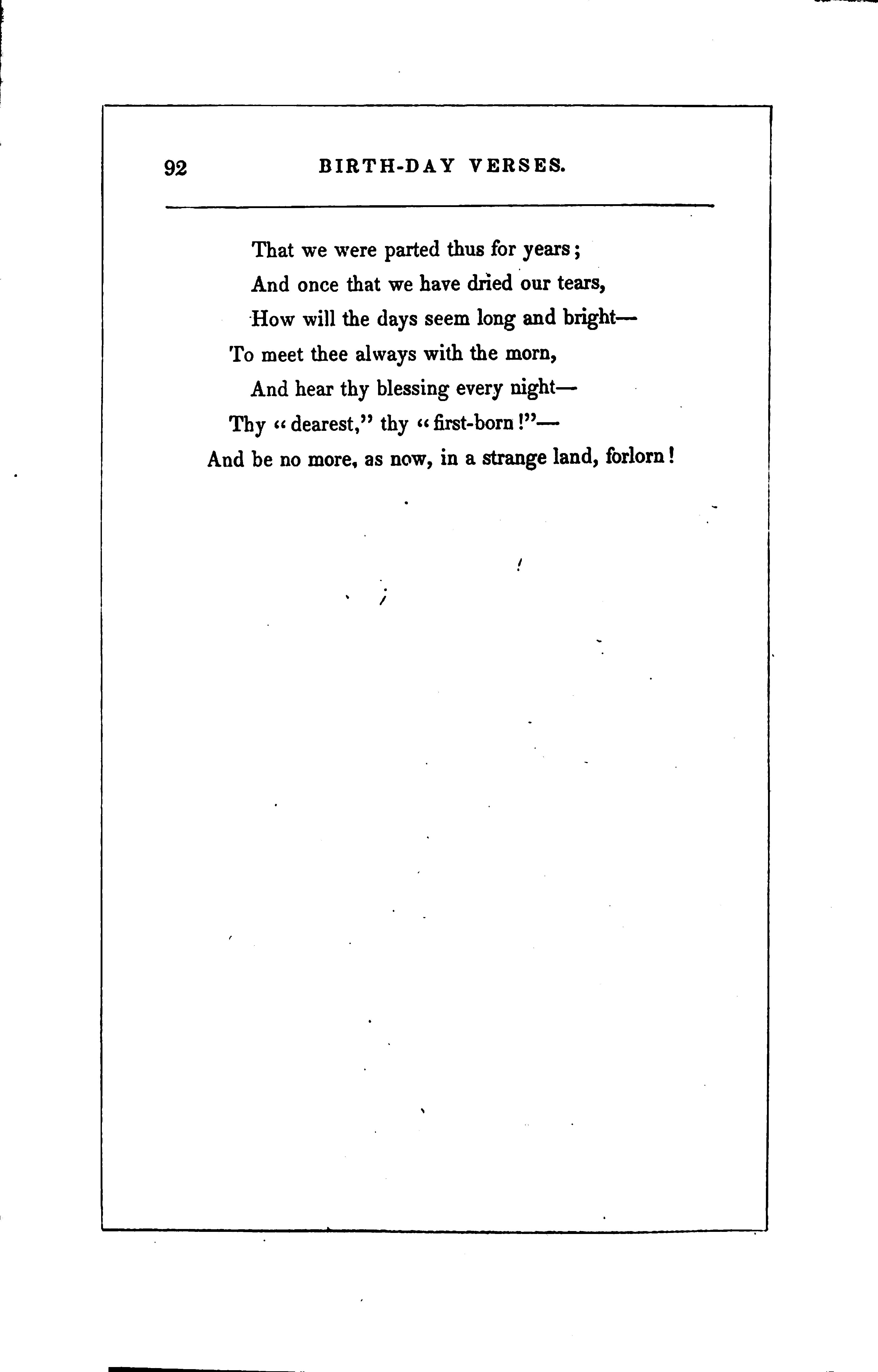

'Tis midnight the lone mountains onThe East is fleck'd with cloudy bars, And, gliding through them one by one, The moon walks up her path of starsThe light upon her placid brow Received from fountains unseen now.
And happiness is mine to-night, Thus springing from an unseen fount ; And breast and brain are warm with light, With midnight round me on the mount-Its rays, like thine, fair Dian, flow From far that Western star below.
Dear mother! in thy love Ilive ; The life thou gav'st flows yet from theeAnd, sun-like, thou hast power to give Life tothe earth, air, sea, for me! Though wandering, as this moon above, I'm dark without thy constant love.
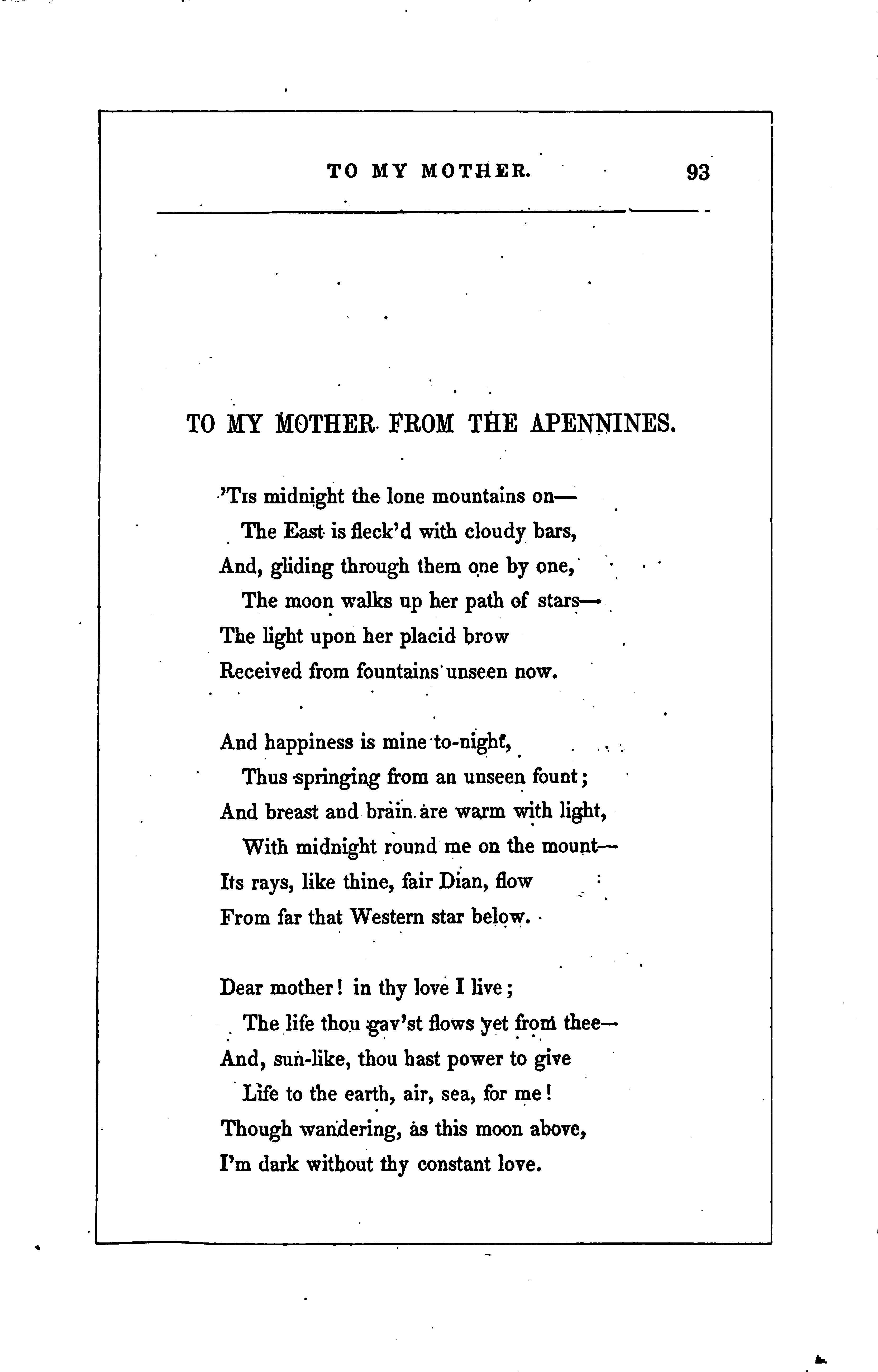

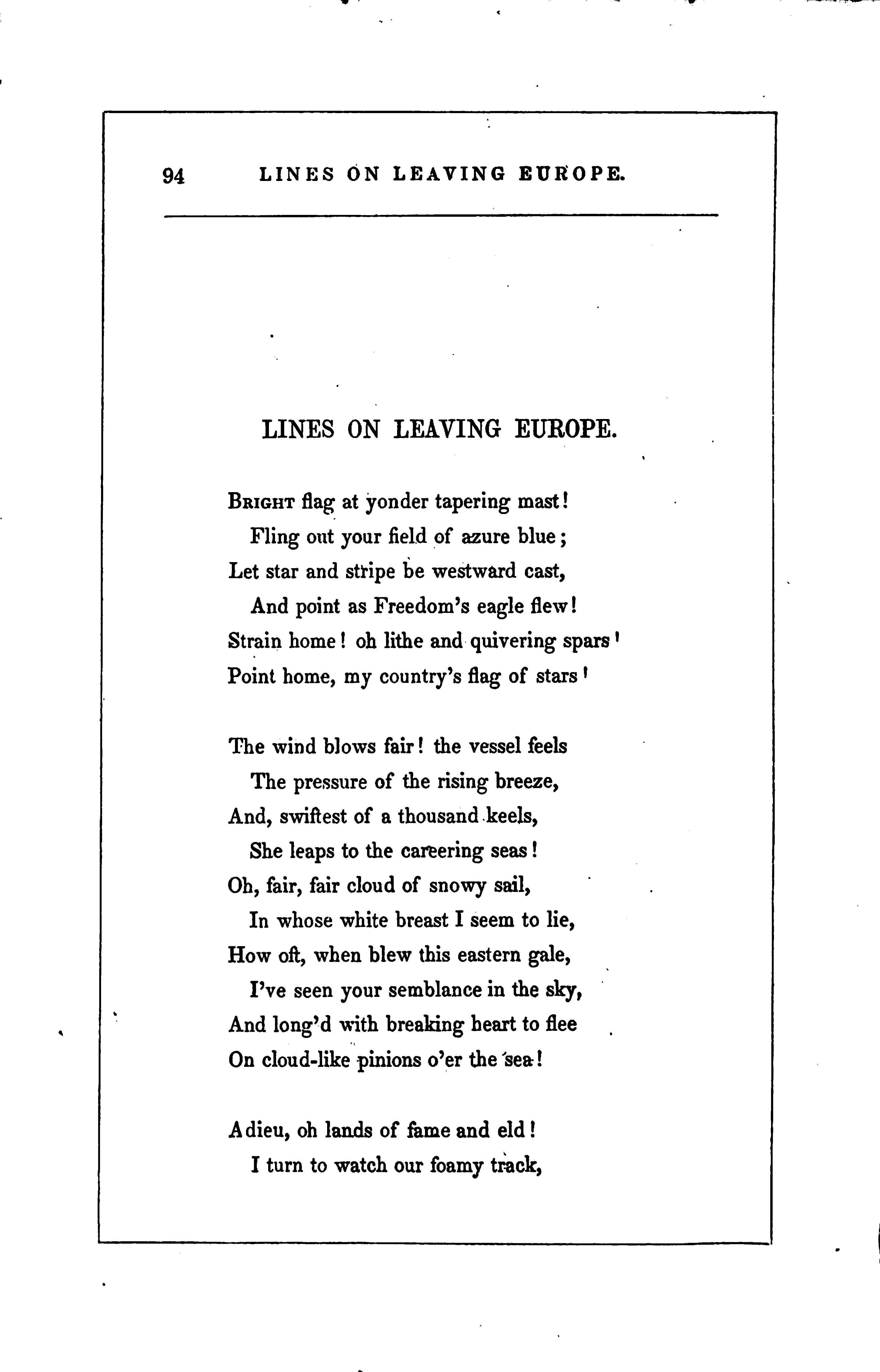
BRIGHT flag at yonder tapering mast! Fling out your field of azure blue; Let star and stripe be westward cast, And point as Freedom's eagle flew! Strain home ! oh lithe and quivering spars Point home, my country's flag of stars '
The wind blows fair! the vessel feels The pressure of the rising breeze, And, swiftest of a thousand keels, She leaps to the careering seas ! Oh, fair, fair cloud of snowy sail, In whose white breast I seem to lie, How oft, when blew this eastern gale, I've seen your semblance in the sky, And long'd with breaking heart to flee
On cloud-like pinions o'er the sea!
Adieu, oh lands of fame and eld!
I turn to watch our foamy track,

And thoughts with which I first beheld
Yon clouded line, come hurrying back ; My lips are dry with vague desire-
My cheek once more is hot withjoy My pulse, my brain, my soul on fire !
Oh, what has changed that traveller-boy!
As leaves the ship this dying foam, His visions fade behind his weary heart speeds home !
Adieu, oh soft and southern shore, Where dwelt the stars long miss'd in heavenThose forms of beauty seen no more,
Yet once to Art's rapt vision given !
Oh, still th' enamour'd sun delays,
And pries through fount and crumbling fane, To winto his adoring gaze
Those children of the sky again !
Irradiate beauty, such as never
That light on other earth hath shone, Hath made this land her home for ever ; And could I live for this alone-
Were not my birthright brighter far
Than such voluptuous slaves' can beHeld not the West one glorious star
New-born and blazing for the freeSoar'd not to heaven our eagle yet Rome, with her Helot sons, should teach me to forget!
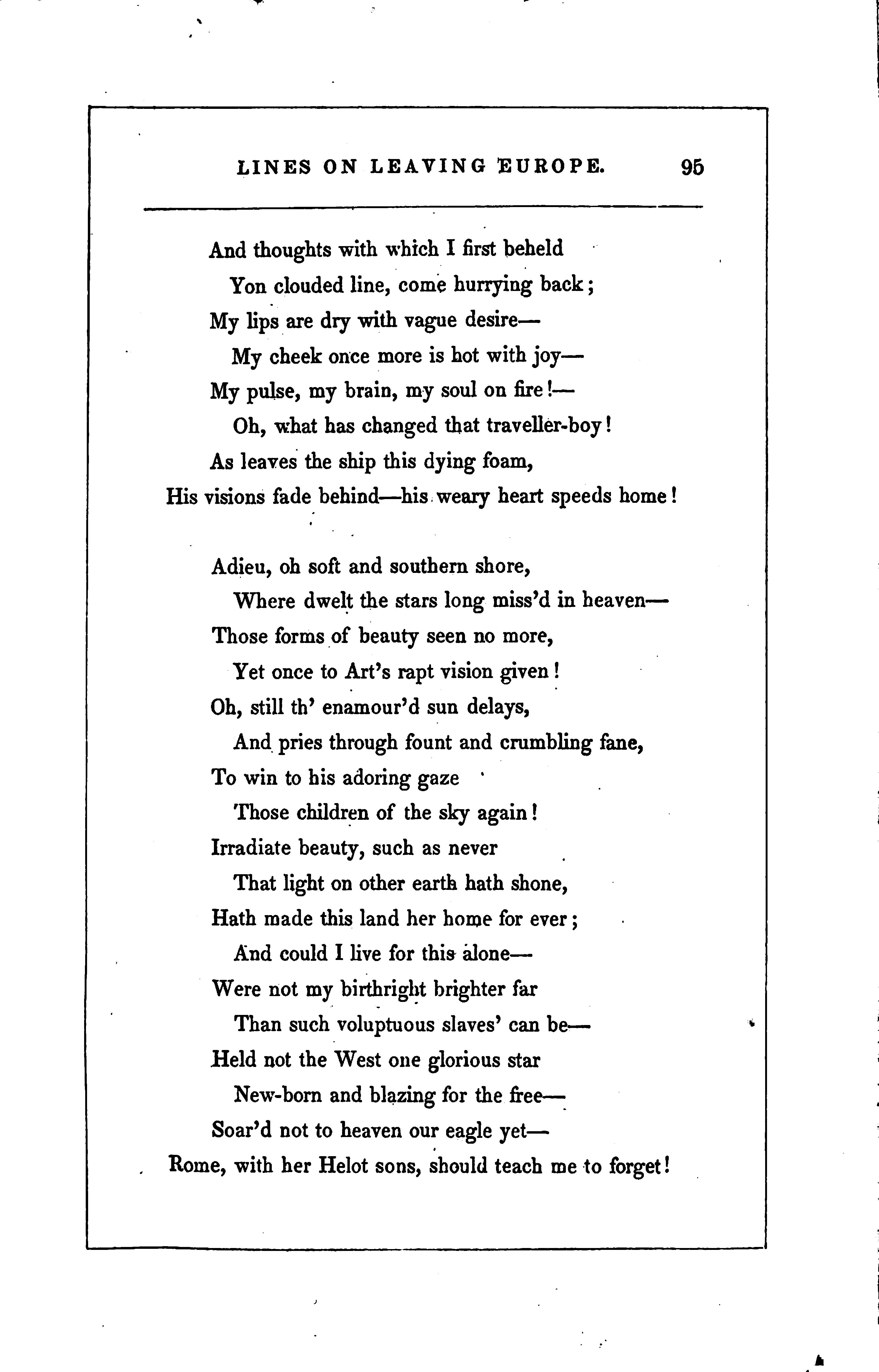

Adieu, oh fatherland! I see Your white cliffs on th' horizon's rim, And though to freer skies I flee, My heart swells, and my eyes are dim!
As knows the dove the task you give her, When loosed upon a foreign shoreAs spreads the rain-drop in the river
In which it may have flow'd beforeTo England, over vale and mountain, My fancy flew from climes more fairMy blood, that knew its parent fountain, Ran warm and fast in England's air.
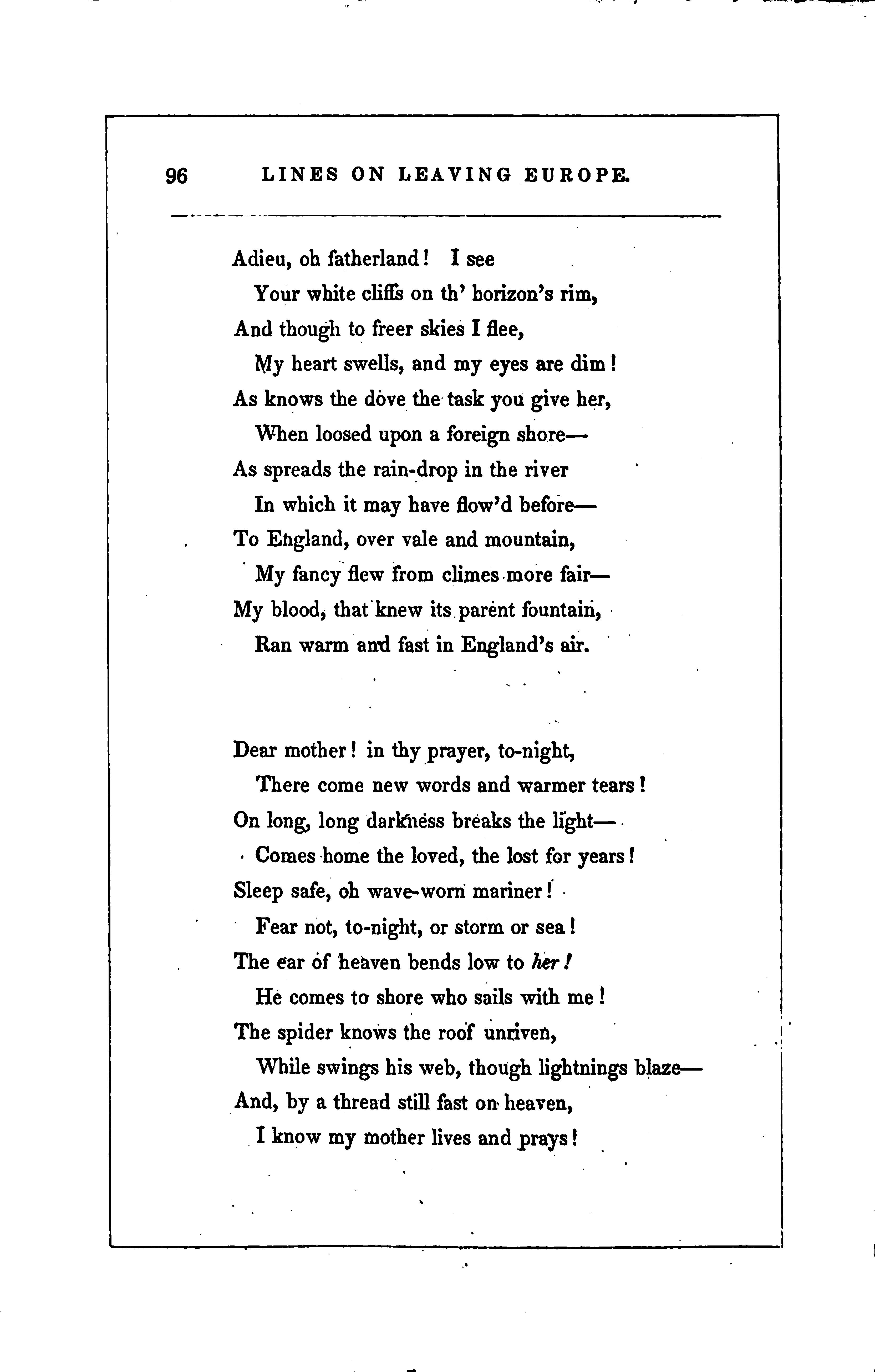
Dear mother! in thy prayer, to-night, There come new words and warmer tears !
On long, long darkness breaks the light Comes home the loved, the lost for years!
Sleep safe, oh wave-worn mariner!
Fear not, to-night, or storm or sea ! The ear of heaven bends low to her! He comes to shore who sails with me!
The spider knows the roof unriven, While swings his web, though lightnings blaze And, by a thread still fast on heaven, I know my mother lives and prays!

Dear mother! when our lips can speakWhen first our tears will let us see When I can gaze upon thy cheek, And thou, with thy dear eyes, on me
"Twill be a pastime little sad
To trace what weight Time's heavy fingers Upon each other's forms have hadFor all may flee, so feeling lingers ! But there's a change, beloved mother ! To stir far deeper thoughts of thine'; I come but with me comes another
To share the heart once only mine ! Thou, on whose thoughts, when sad and lonely, One star arose in memory's heavenThou, who hast watch'd one treasure onlyWater'd one flower with tears at evenRoom in thy heart! The hearth she left s darken'd to lend light to ours!
There are bright flowers of care bereft, And hearts-that languish more thanflowers!
She was their light-their very air Room, mother! in thy heart! place for her in thy prayer!
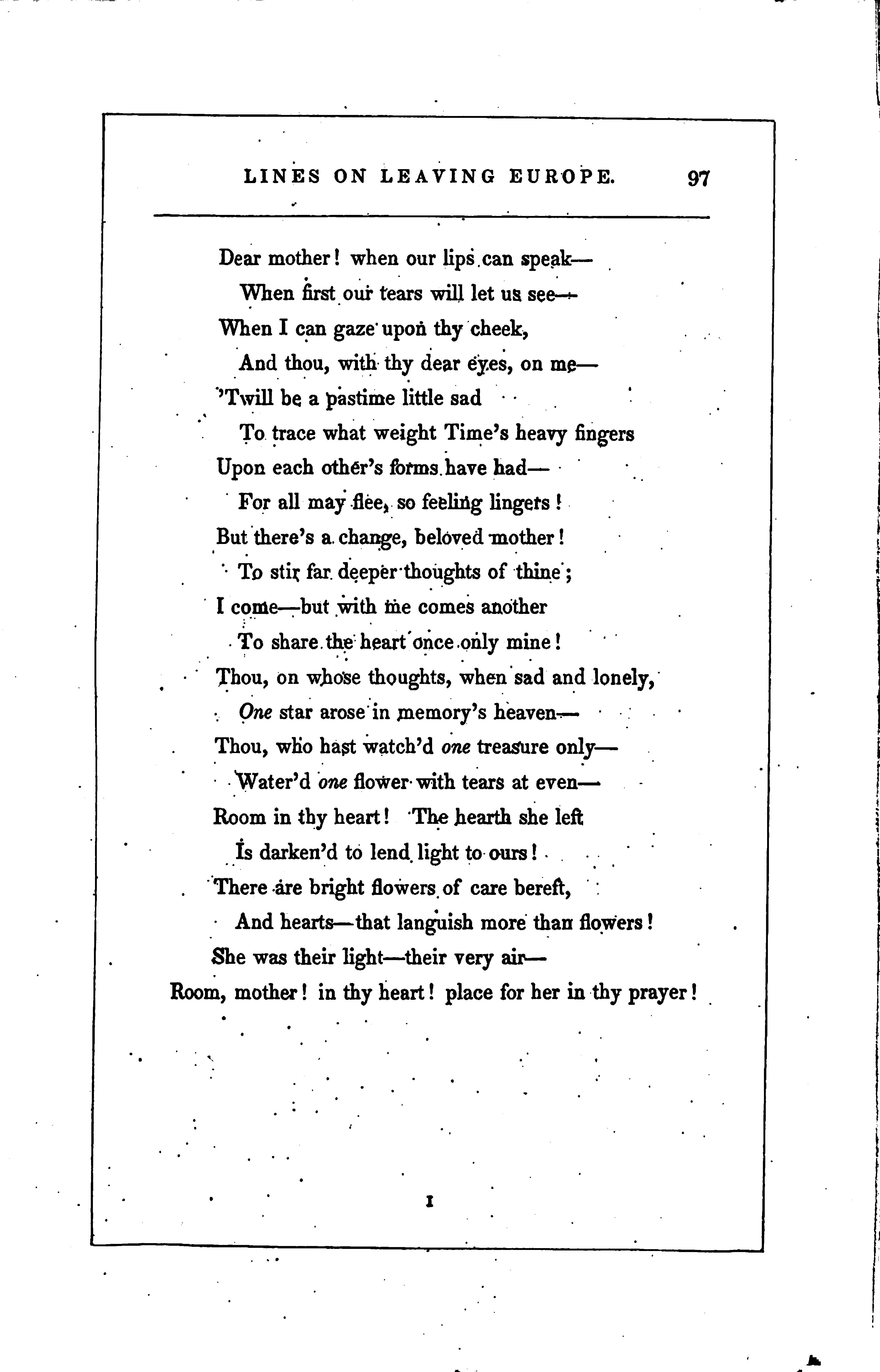

UPON a summer's morn, a southern mother
Sat atthe curtain'd window of an inn. She rested from long travel, and with hand
Upon her cheek in tranquil happiness, Look'd where the busy travellers went and came. And, like the shadows of the swallows flying Overthe bosom of unruffled water, Pass'd from her thoughts all objects, leaving there, As in the water's breast, a mirror'd heavenFor, in the porch beneath her, to andfro,
A nurse walk'd singing with her babe in arms. And many a passer-by look'd on the child And praised its wondrous beauty, but still on The old nurse troll'd her lullaby, and still, Blest through her depths of soul by light there shining, The mother in her revery mused on. But lo! another traveller alighted ! And now, no more indifferent or calm, The mother's breath comes quick, and with the blood
Warm in her cheek and brow, she murmurs low, "Now, God be praised! I am no more alone
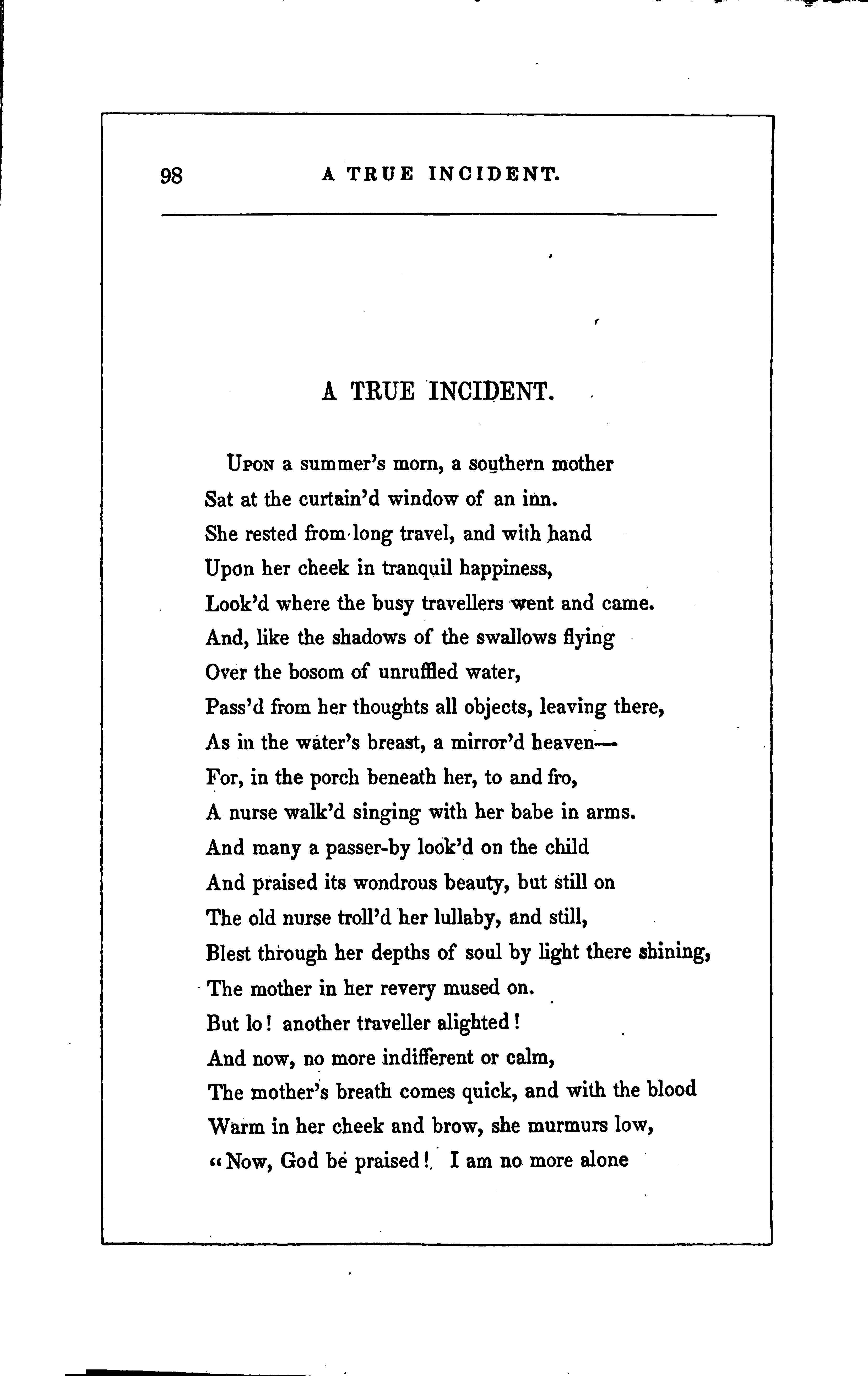

In knowing I've an angel for my child,
Chance he to look on't only!" With a smileThe tribute of a beauty-loving heart
To things from God new-moulded-would have pass'd
The poet, as the infant caught his eye; But suddenly he turn'd, and with his hand
Upon the nurse's arm, he stay'd her steps, And gazed upon her burthen. 'Twas a child
In whose large eyes of blue there shone, indeed,
Something to waken wonder. Never sky
In noontide depth, or softly-breaking dawn
Never the dew in new-born violet's cup,
Lay so entranced in purity! Not calm
With the mere hush of infancy at rest
The ample forehead, but serene with thought ; And,by the rapt expression of the lips, They seem'd scarce still from a cherubic hymn ; And over all its countenance there breathed
Benignity, majestic as we dream
Angels wear ever, before God. With gaze
Earnest and mournful, and his eyelids warm
With tears kept back, the poet kiss'd the child ; And chasten'd at his heart, as having pass'd
Close to an angel, went upon his way.
Soon after, to the broken choir in heaven
This cherub was recall'd, and now the mother
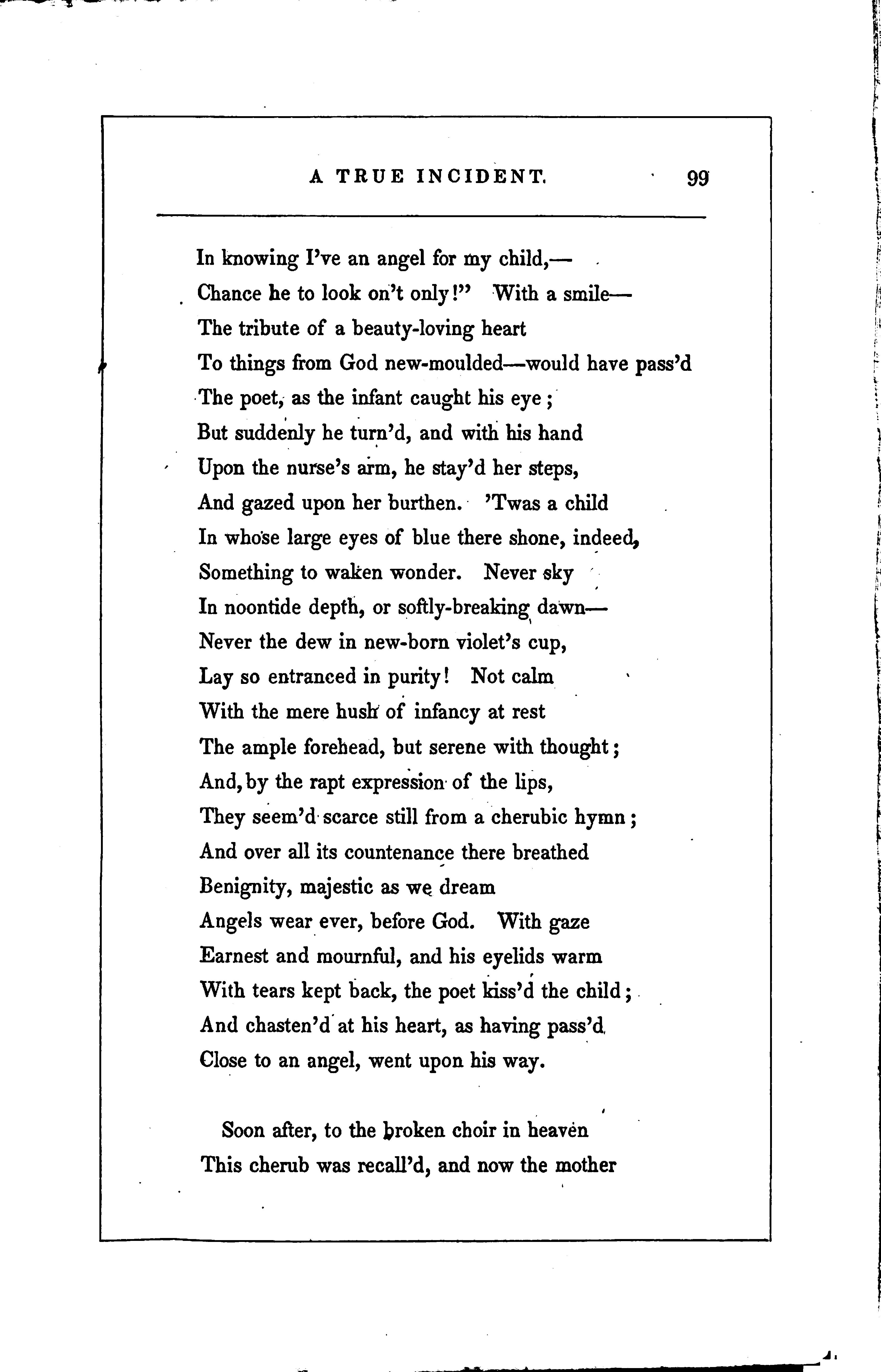

Bethought her, in her anguish, of the bard (Herself a far-off stranger, but his heart Familiar tothe world,)-and wrote to tell him,
The angel he had recognised that morn Had fled to bliss again. The poet well Remember'd that child's ministry to him ; And of the only fountain that he knew For healing, he sought comfort for the mother. And thus he wrote:-
Mourn notforthe childfrom thy tenderness riven, Ere stain on its purityfell!
To thy questioning heart, lö ! an answerfrom heaven: "IS IT WELL WITH THE CHILD?" " IT IS WELL!"


MOTHER TO HER CHILD.
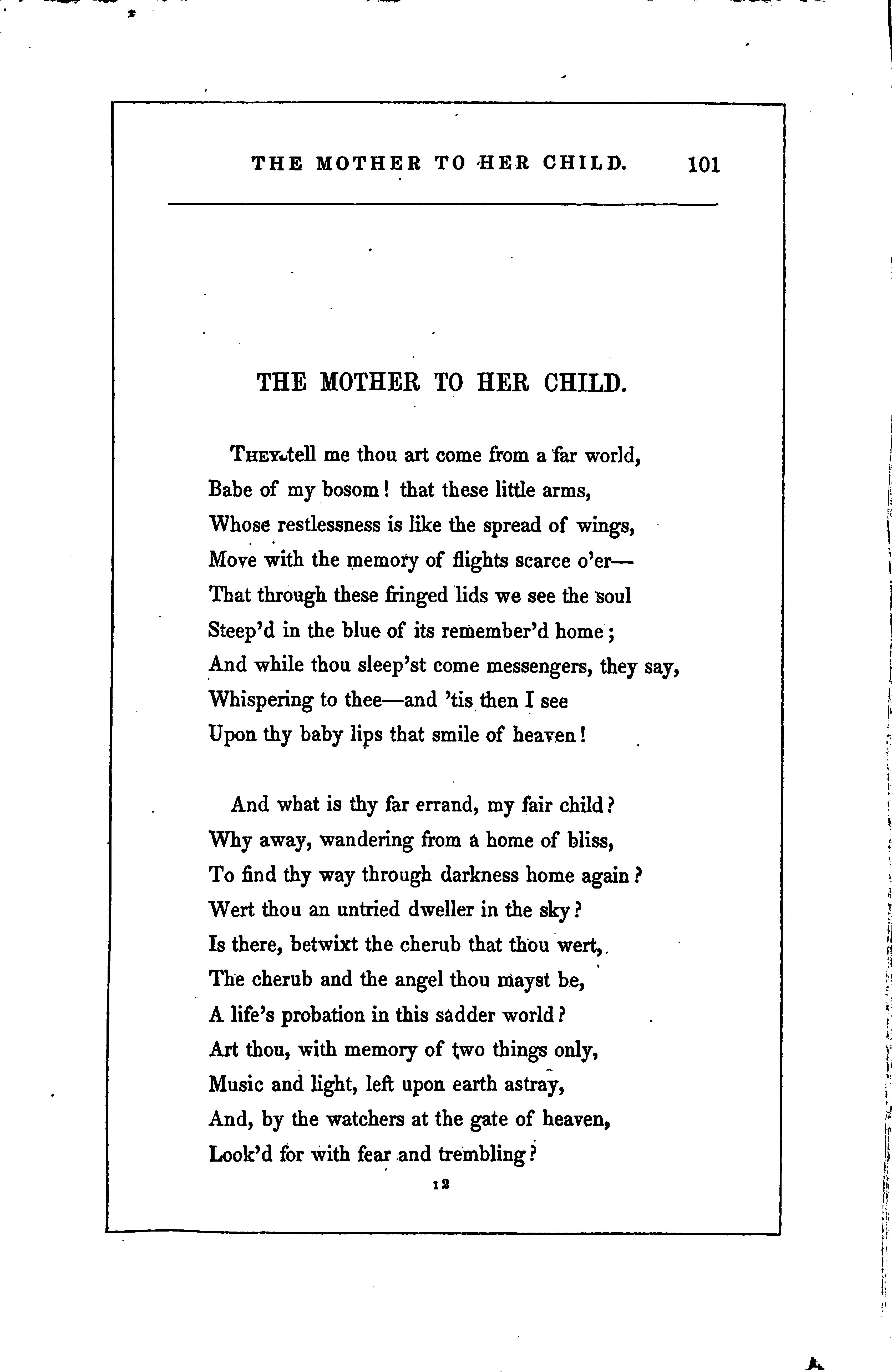
THEY tell me thou art come from a far world, Babe of my bosom ! that these little arms, Whose restlessness is like the spread of wings, Move with the memory of flights scarce o'erThat through these fringed lids we see the soul Steep'd inthe blue of its remember'd home ; And while thou sleep'st come messengers, they say, Whispering to thee-and 'tis then I see Upon thy baby lips that smile of heaven!
And what is thy far errand, my fair child? Why away, wandering from a home of bliss, To find thy way through darkness home again ? Wert thou an untried dweller in the sky? Is there, betwixt the cherub that thou wert,. The cherub and the angel thou mayst be, A life's probation in this sadder world? Art thou, with memory of two things only, Music and light, left upon earth astray, And, by the watchers at the gate of heaven, Look'd for with fear and trembling? 12

God! who gavest
Into my guiding hand this wanderer,
To lead her through a world whose darkling paths
I tread with steps so faltering-leave not me
To bring herto the gates of heaven, alone!
I feel my feebleness. Let these stay on-
The angels who now visit her in dreams!
Bid them be near her pillow till in death
The closed eyes look upon Thy face once more!
And letthe light and music, which the world
Borrows of heaven, and which her infant sense
Hails with sweet recognition, be to her
A voice to call her upward, and a lamp
To lead her steps unto Thee !
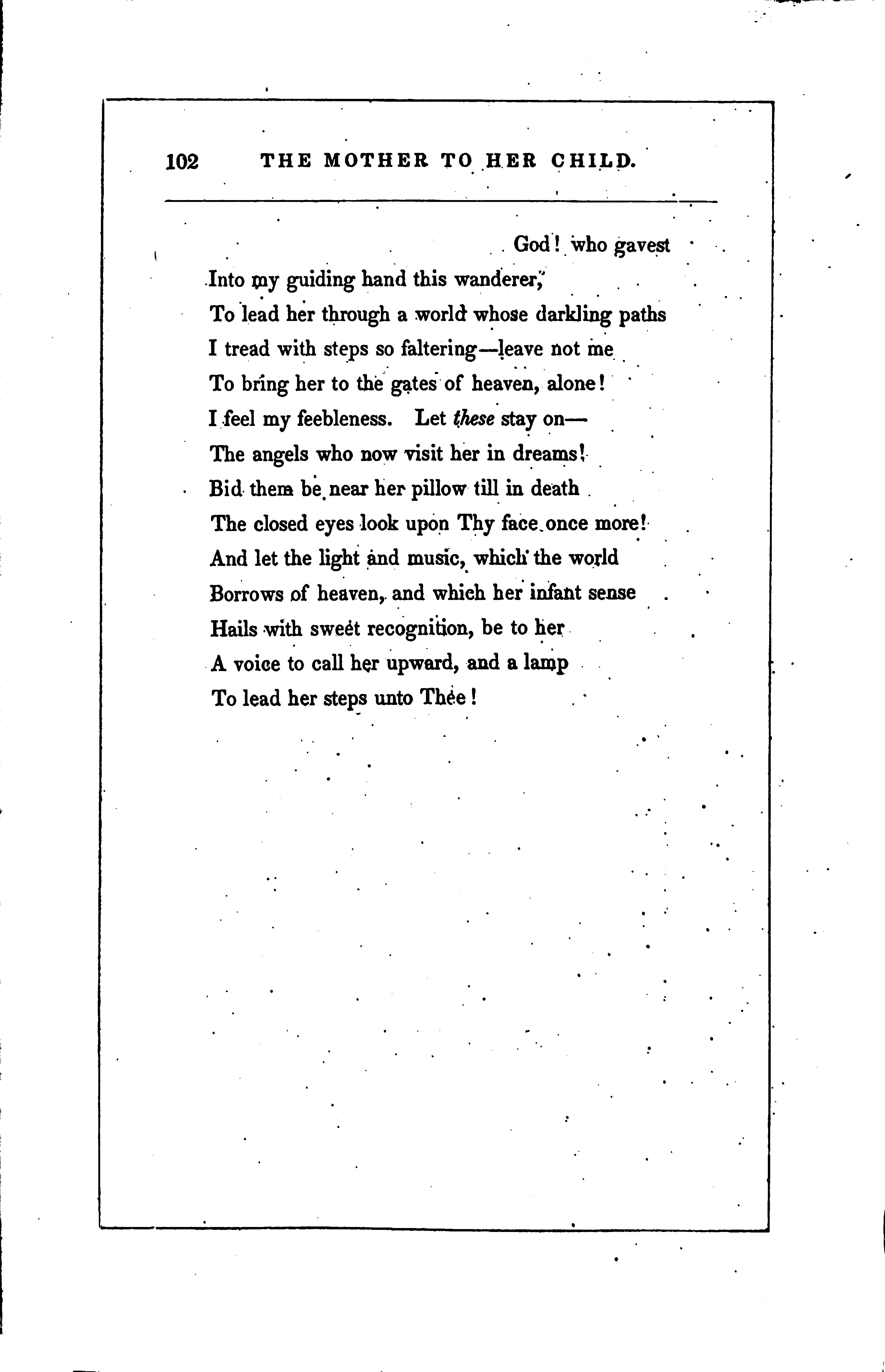

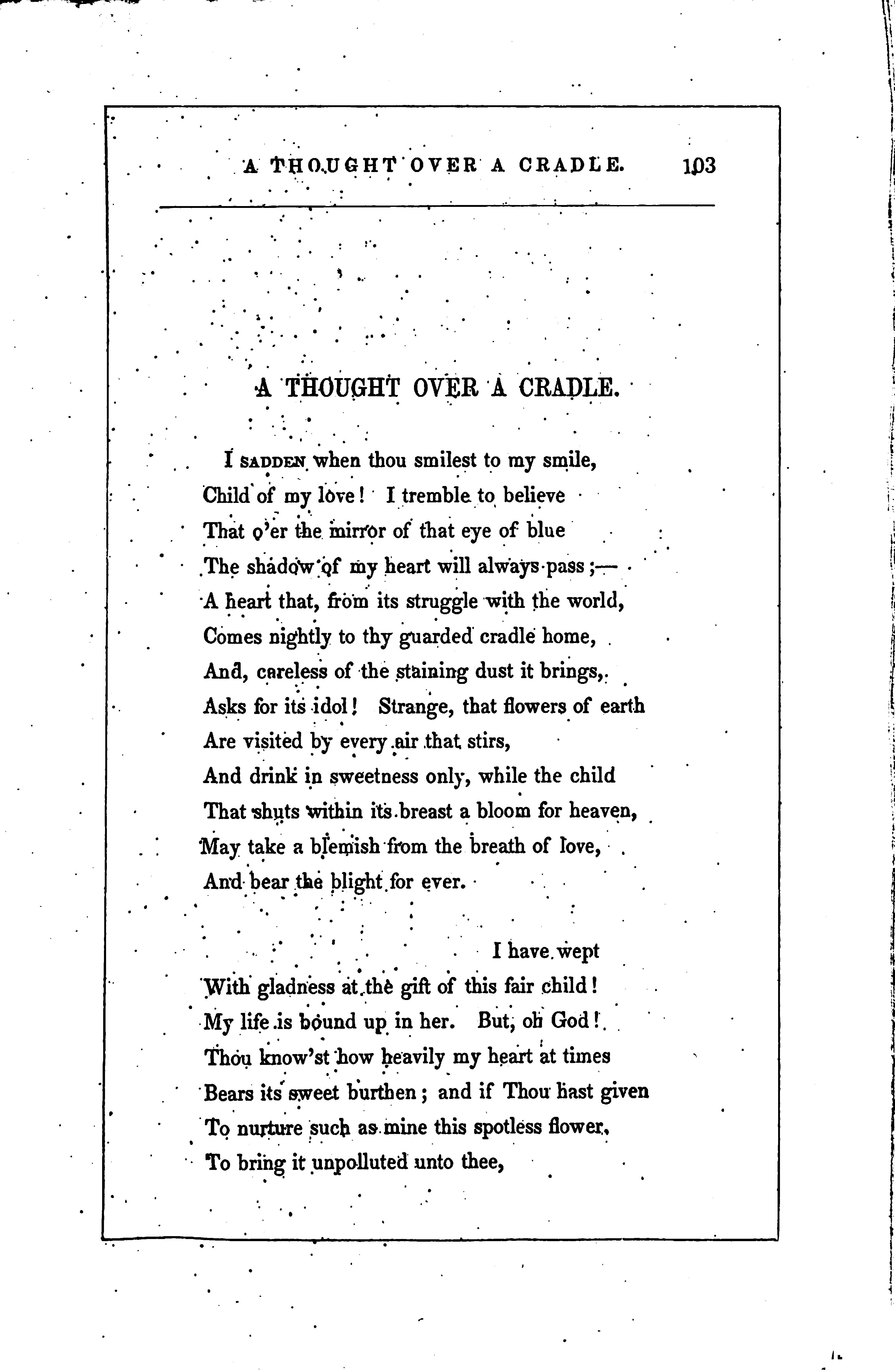
Í SADDEN,When thou smilest to my smile, Child of my love! I tremble to believe That o'er the mirror of that eye of blue The shadow of my heart will always pass ;A heart that, from its struggle with the world, Comes nightly to thy guarded cradle home, And, careless of the staining dust it brings,. Asks for its idol ! Strange, that flowers of earth Are visited by every air that stirs, And drink in sweetness only, while the child That shuts within its breast a bloom for heaven, May take a blemish from the breath of love, And bearthe blight for ever.
I have,wept With gladness at the gift of this fair child ! Mylife is bound up in her. But, oh God !. Thou know'st how heavily my heart at times . Bears its sweet burthen ; and if Thou hast given To nurture such as mine this spotless flower, To bring it unpolluted unto thee,

Take thou its love, I pray thee ! Give it lightThough, following the sun, it turn from me ! But, by the chord thus wrung, and by the light Shining about her, draw meto my child! And link us close, oh God, when near to heaven!
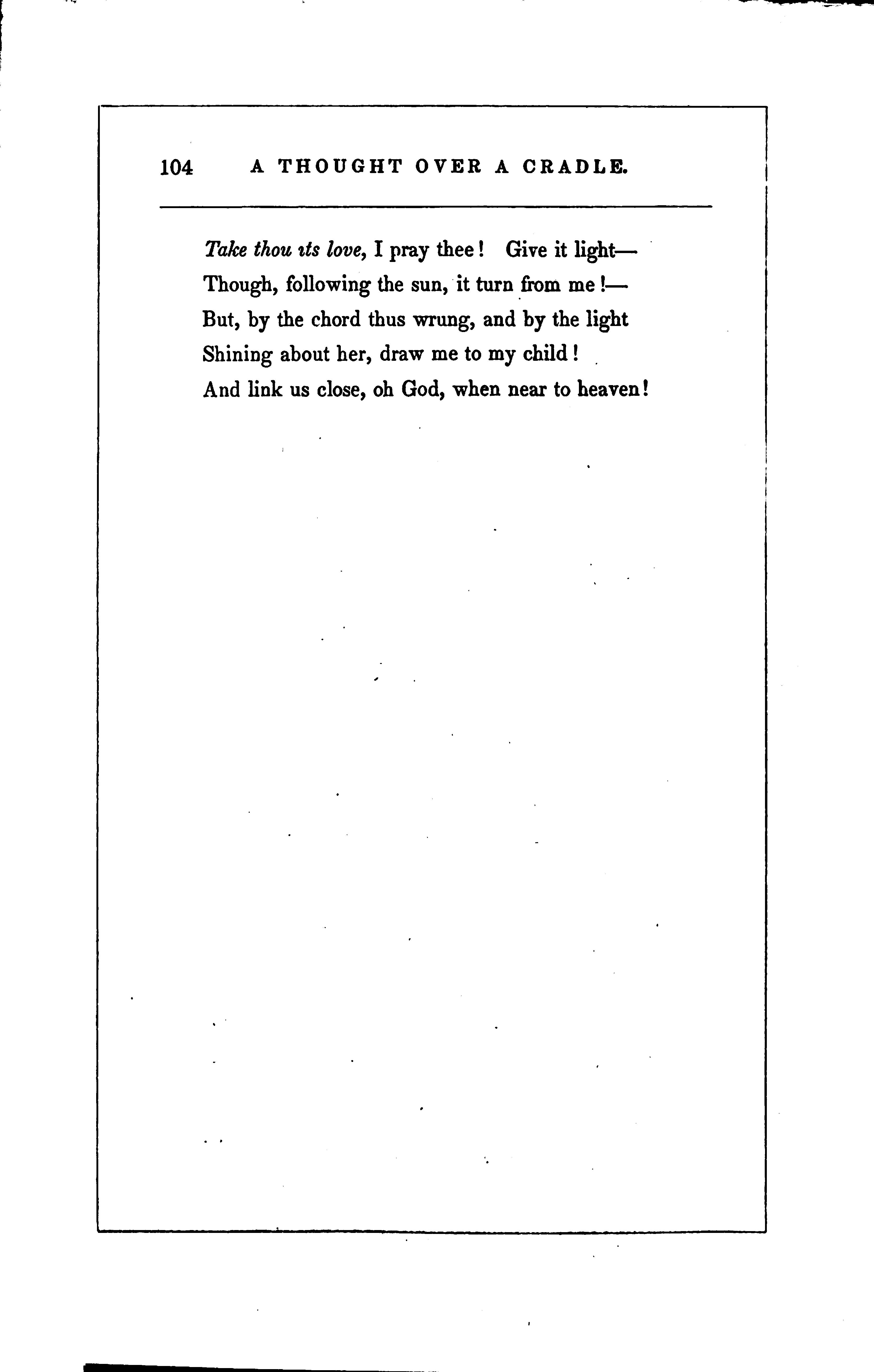


I HAVE enough, O God ! My heart to-night Runs over with its fulness of content; And as I look out.on the fragrant stars, And fromthe beauty of the night take in My priceless portion yet myself no more Than in the universe,a grain of sandI feel His glory who could make a world, Yet in the lost depths of the wilderness Leave not a flower unfinish'd!
Rich, though poor!
My low-roof'd cottage.is this hour a heaven. Music is in it and the song shesings, That sweet-voiced wife of mine, arrests the ear Of myyoung child awake upon her knee; And with his calm eye on his master's face, My noble hound lies couchant- and all here All in this little home, yet boundless heavenAre, in such love as I have power to give, Blessed to overflowing.

Thou, who look'st
Upon my brimming heart this tranquil eve, Knowest its fulness, as thou dost the dew Sent to the hidden violet by Thee; And, as that flower, from its unseen abode, Sends its sweet breath up, duly, to the sky, Changing its gift to incense, so, oh God!
May the sweet drops that to my humble cup Find their far way from heaven, send up, to Thee, Fragranceat Thythrone welcome!
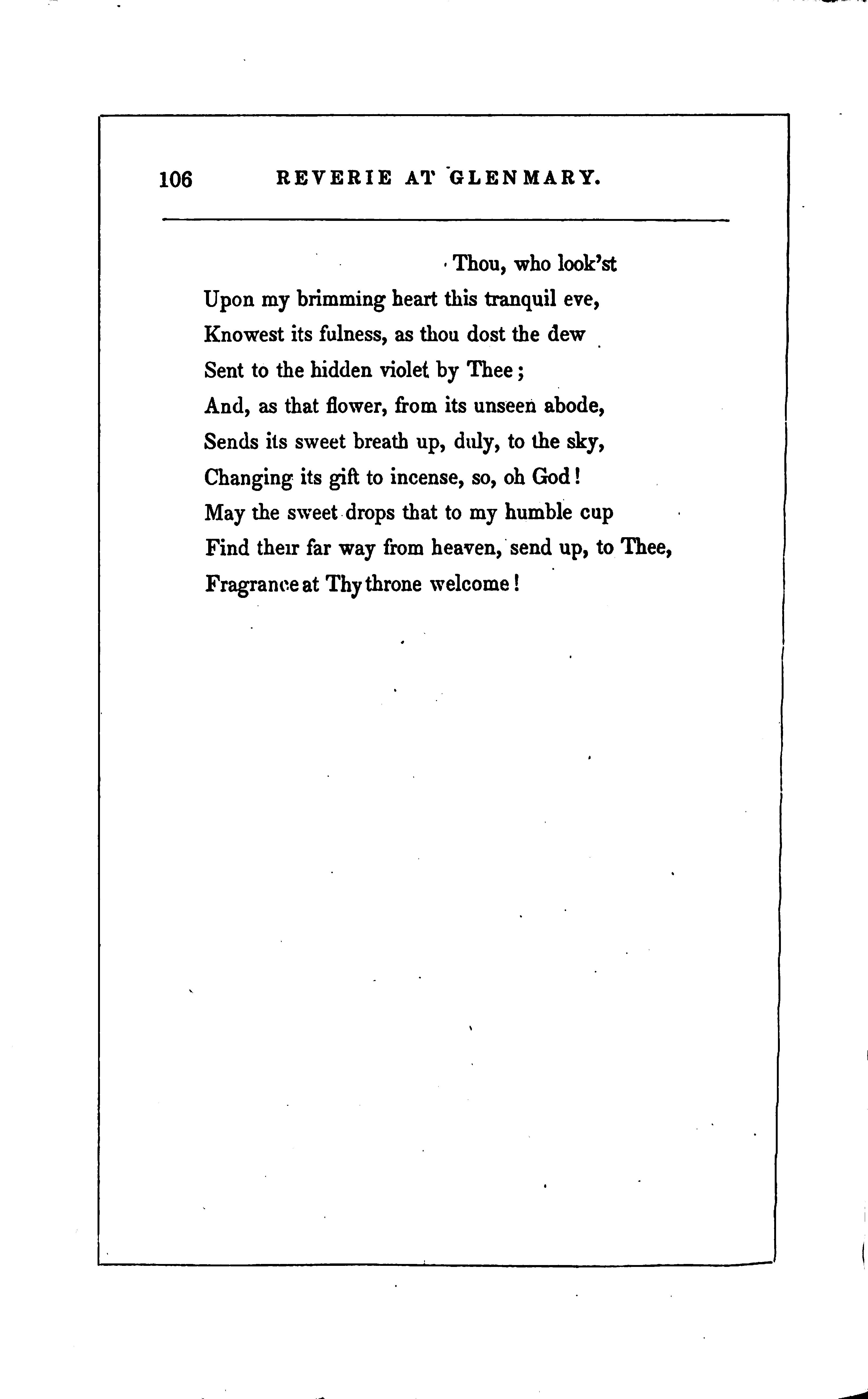

"Theyears of a man's life are threescore and ten."
, weary heart! thou'rt halfway home!
We stand on life's meridian heightAs far from childhood's morning come, As to the grave's forgetful night. Give Youth and Hope a parting tearLook onward with a placid browHope promised but to bring us here, And Reason takes the guidance now One backward look-the last-the last!
One silent tear-for Youth is past !
Who goes with Hope and Passion back?
Who comes with me and Memory on? Oh, lonely looks the downward track
Joy's music hush'd-Hope's roses gone !
To Pleasure and her giddy troop Farewell, without a sigh or tear!
But heart gives way, and spirits droop, To think that Love may leave us here! Have we no charm when Youth is flown-Midway to death left sad and lone!
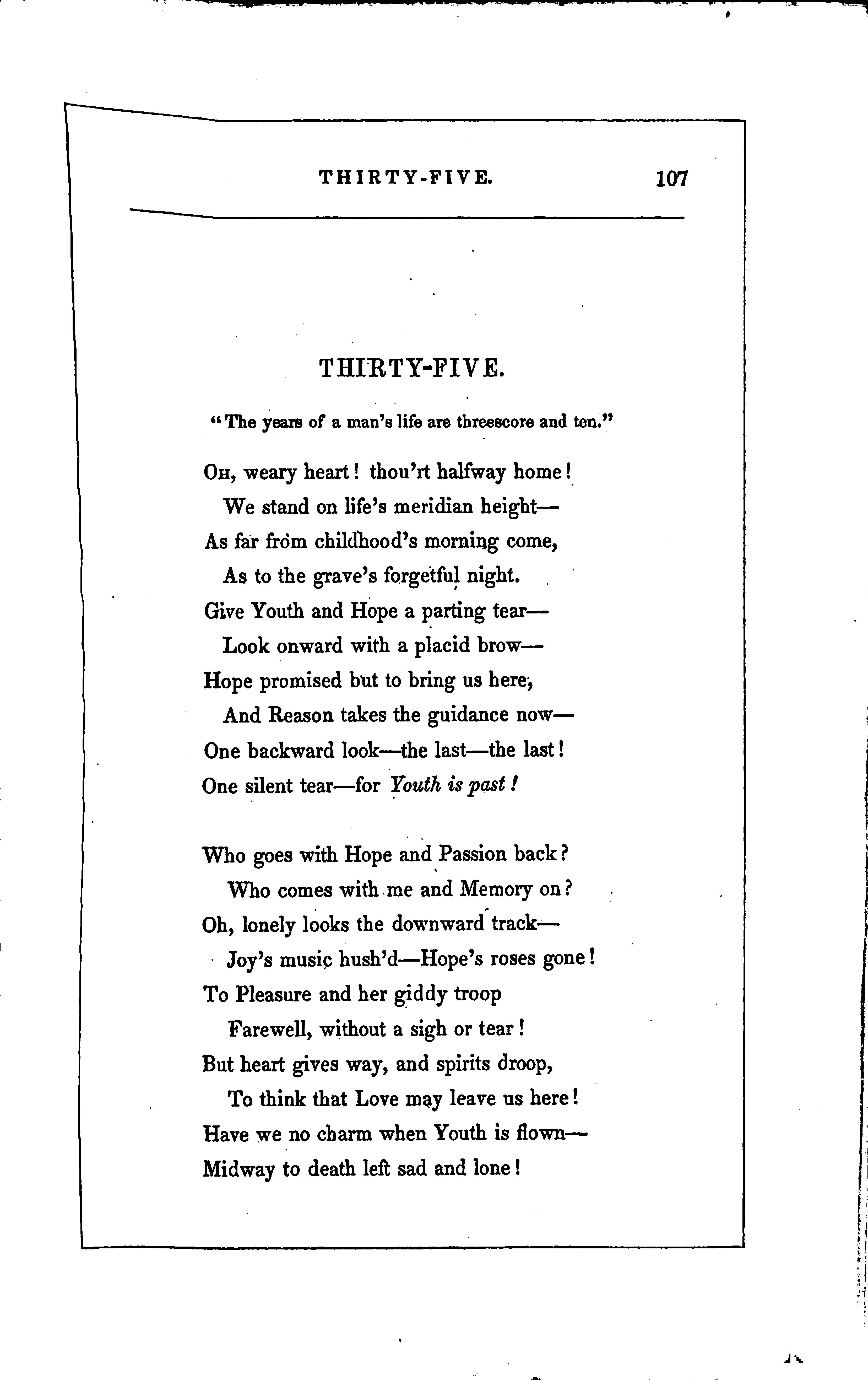

Yet stay!-as 'twere a twilight star That sends its thread across the wave, I see a brightening light, from far, Steal down a path beyond the grave! And now-bless God !-its golden line' Comes o'er-and lights my shadowy wayAnd shows the dear hand clasp'd in mine! But, list what those sweet voices say! The better land's in sight, ·And, by its chasteninglight, Alllovefrom life's midway is driven, Savehers whose clasped hand will bringthee on to heaven!
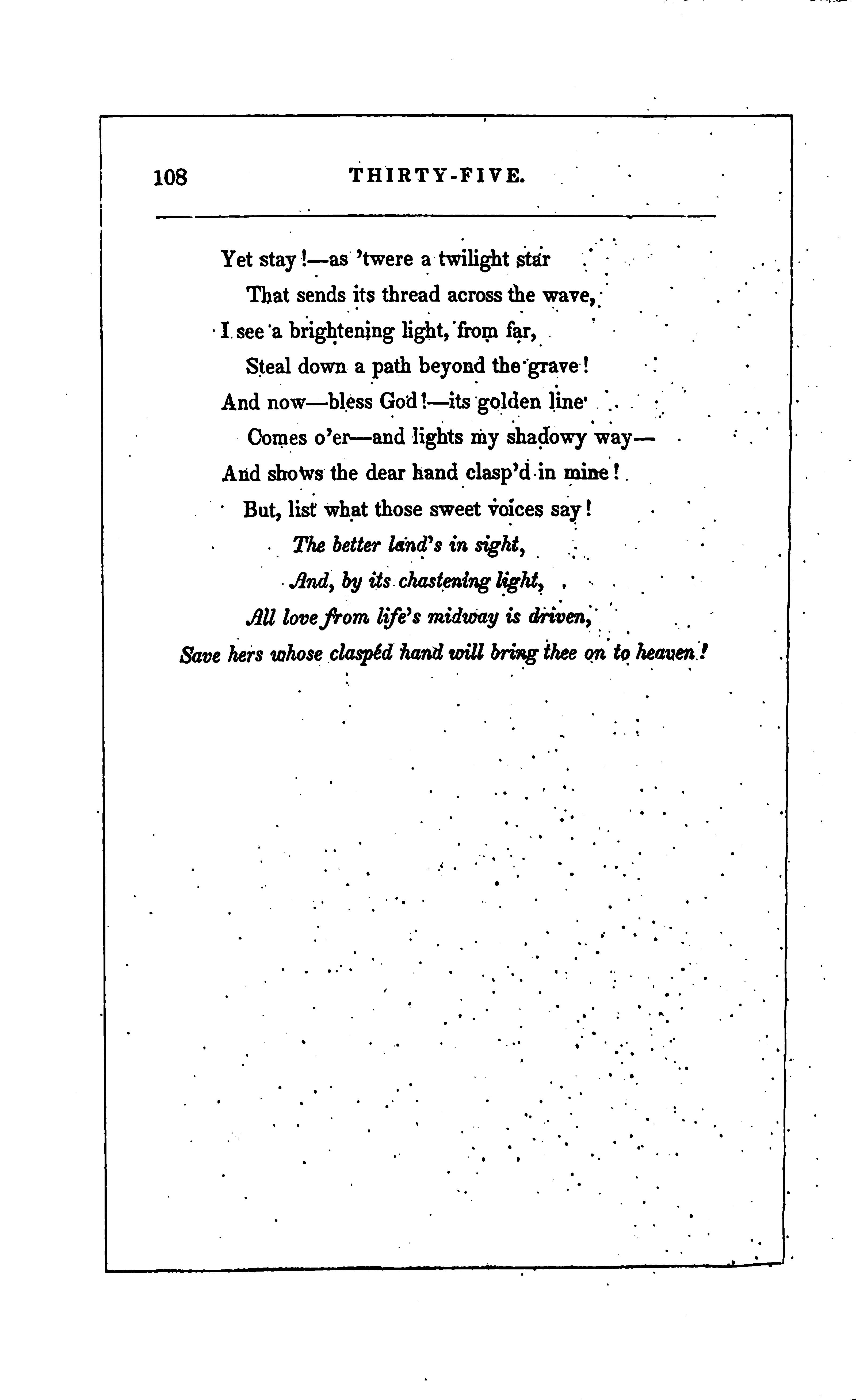

"THEY are all up-the innumerable starsAnd hold their place in heaven. My eyes have been Searching the pearly depths through which they spring Like beautiful creations, till I feel
As if it were a new and perfect world, Waiting in silence for the word of God To breathe it into motion. There they stand, Shining in order, like a living hymn Written in light, awaking at the breath Of the celestial dawn, and praising Him Who made them, with the harmony of spheres. I would I had an angel's ear to list That melody. I would that I might float Up in that boundless element, and feel Its ravishing vibrations, like the pulse Beating in heaven ! My spirit is athirst For music-rarer music ! I would bathe My soul in a serener atmosphere
Than this ; I long to mingle with the flock Led bythe living waters,' and to stray In the green pastures' of the better land! K
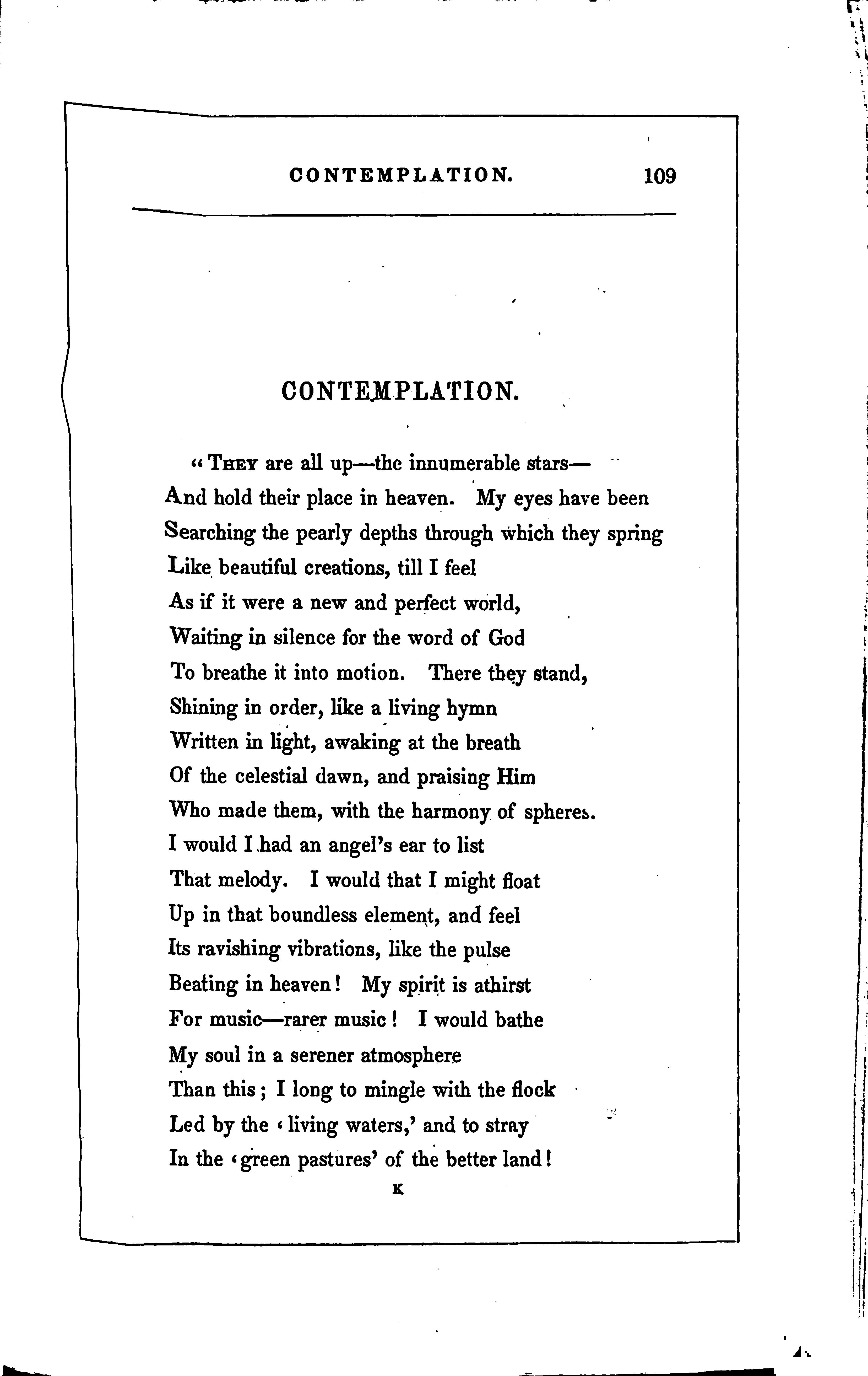

When wilt thou break, dull fetter! When shall I Gather my wings, and like a rushing thought Stretch onward, star by star, up into heaven!"
Thus mused Alethe. She was one to whom Life had been like the witching of a dream, Of an untroubled sweetness. She was born Of a high race, and lay upon the knee, With her soft eyes perusing listlessly
The fretted roof, or, on Mosaic floors, Grasp'd atthe tesselated squares inwrought With metals curiously. Her childhood pass'd Like faery-amid fountains and green haunts
Trying her little feet upon a lawn Of velvet evenness, and hiding flowers
In her sweet breast, as if it were a fair And pearly altar to crush incense on. Her youth-oh ! that was queenly ! She was like
A dream of poetry that may not be
Written or told exceeding beautiful ! And so came worshippers ; and rank bow'd down And breathed upon her heart-strings with the breath Of pride, and bound her forehead gorgeously With dazzling scorn, and gave unto her step
A majesty as if she trod the sea, And the proud waves, unbidden, lifted her! And so she grewto woman-her mere look Strong as a monarch's signet, and her hand
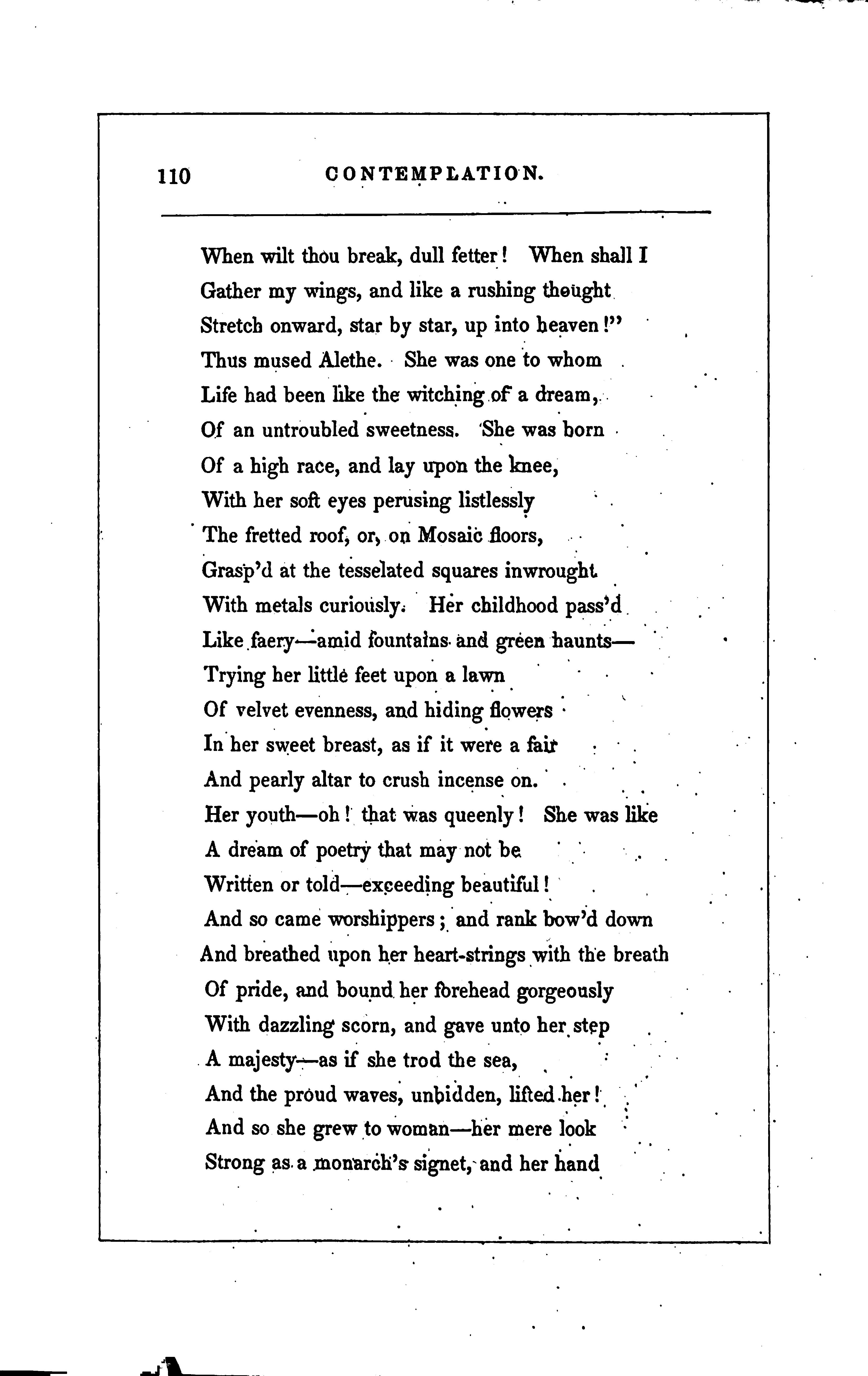

Th' ambition of a kingdom. Turn'd her high heart away! From all this She had a mind, Deep, and immortal, and it would not feed . On pageantry. She thirsted for a spring Of a serener element, and drank Philosophy, and for a little while She was allay'd,-till, presently, it turn'd Bitter within her, and her spirit grew Faint for undying waters. Then she came Tothe pure fount of God, and is athirst No more-save when the fever of the world Falleth upon her, she will go, sometimes, Out in the star-light quietness, and breathe A holy aspiration after Heaven.
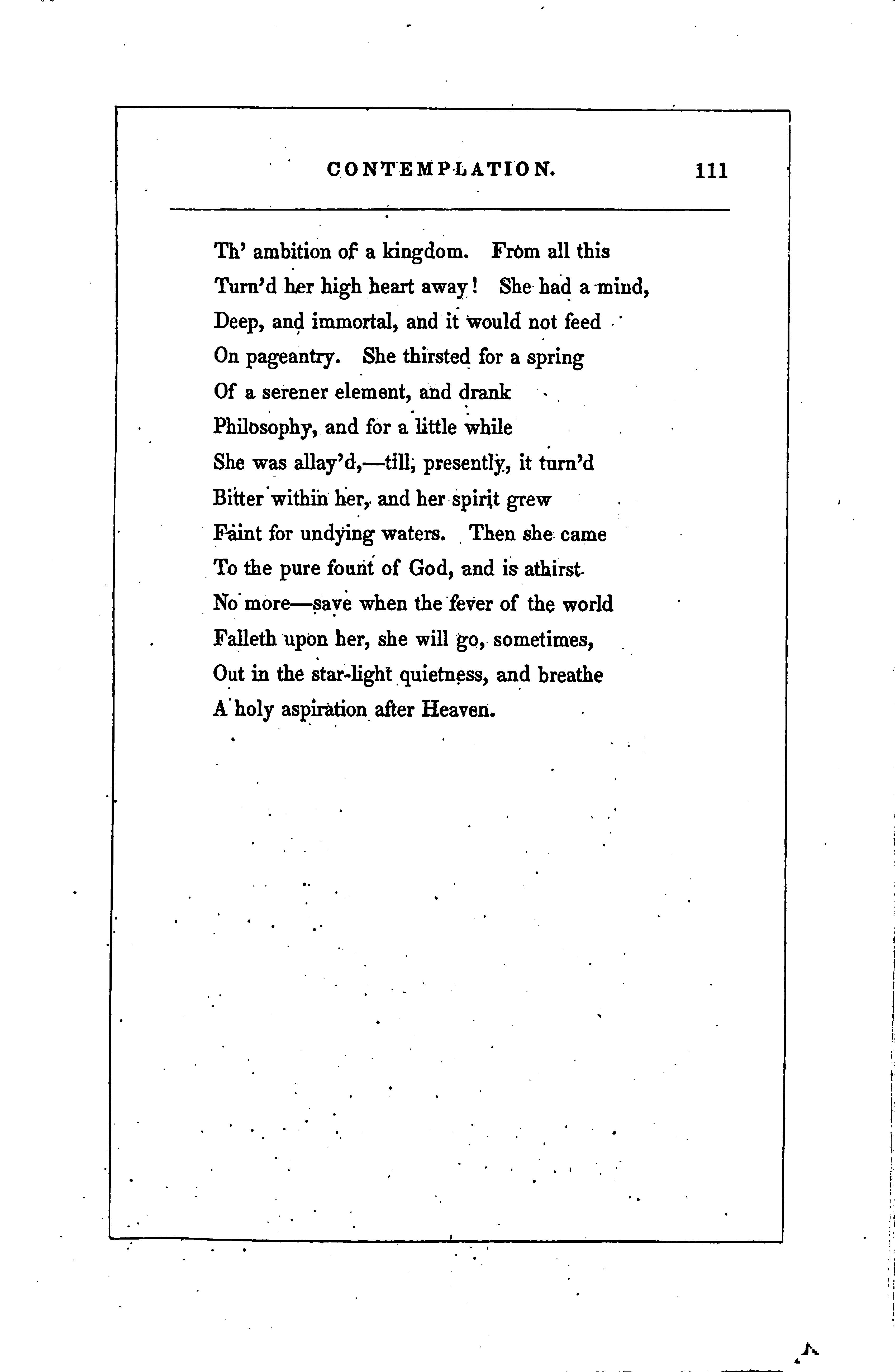

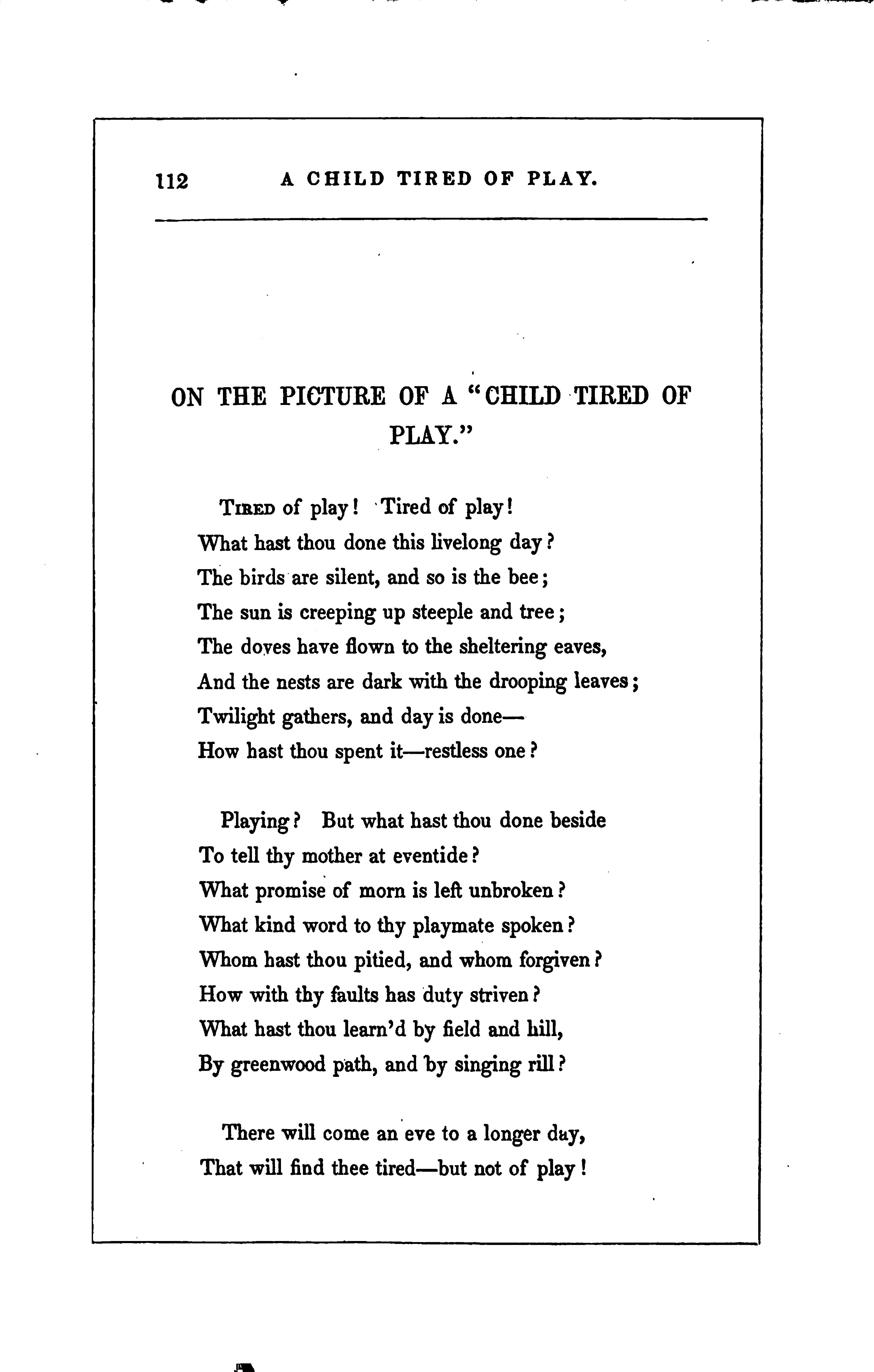
TIRED of play! Tired of play!
What hast thou done this livelong day?
The birds are silent, and so is the bee; The sun is creeping up steeple and tree ; The doves have flown to the sheltering eaves, And the nests are dark with the drooping leaves ; Twilight gathers, and day is doneHow hast thou spent it-restless one?
Playing? But what hast thou done beside To tell thy mother at eventide?
What promise of morn is left unbroken? What kind word to thy playmate spoken?
Whom hast thou pitied, and whom forgiven? How with thy faults has duty striven? What hast thou learn'd by field and hill, By greenwood path, and by singing rill?
There will come an eve to a longer day, That will find thee tired-but not of play!

And thou wilt lean, as thou leanest now, With drooping limbs and aching brow, And wish the shadows would faster creep, And long to go to thy quiet sleep. Well were it then if thine aching brow Were as free from sin and shame as now! Well for thee, if thy lip could tell
A tale like this, of a day spent well. If thine open hand hath relieved distressIf thy pity hath sprung to wretchednessIf thou hast forgiven the sore offence, And humbled thy heart with penitenceIf Nature's voices have spoken to thee With her holy meanings eloquentlyIf every creature hath won thy love, From the creeping worm to the brooding doveIf never a sad, low spoken word Hath plead with thy human heart unheardThen, when the night steals on, as now, It will bring relief to thine aching brow, And, with joy and peace at the thought of rest, Thou wilt sink to sleep on thy mother's breast.
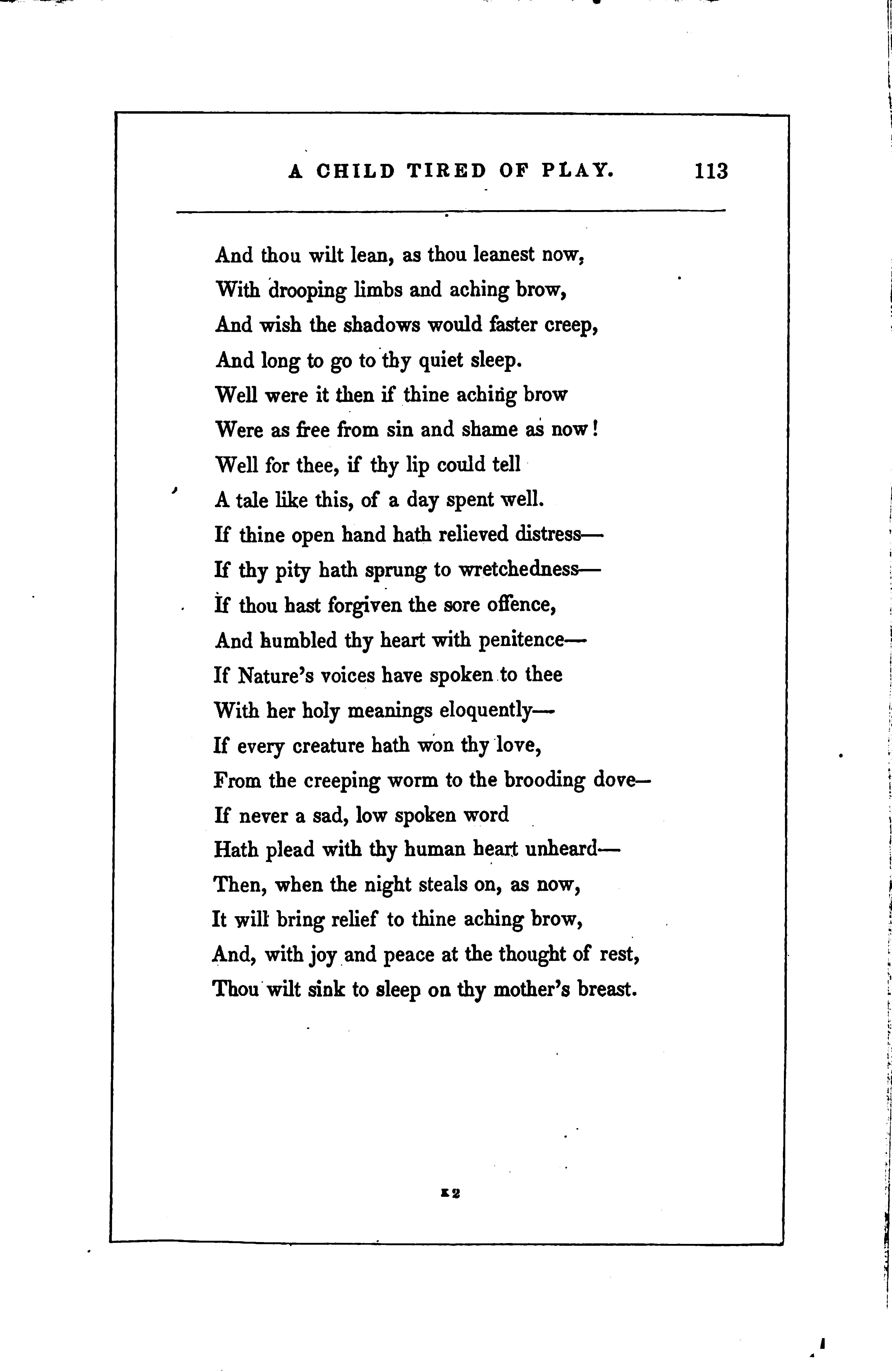

SHE had been told that God made all the stars
That twinkled up in heaven, and now she stood Watching the coming of the twilight on,
As if it were a new and perfect world, And this were its first eve. She stood alone
By the low window, with the silken lash
Of her soft eye upraised, and her sweet mouth
Half parted with the new and strange delight
Of beauty that she could not comprehend, And had not seen before. The purple folds
Of the low sunset clouds, and the blue sky.
That look'd so still and delicate above, Fill'd her young heart with gladness, and the eve
Stole on with its deep shadows, and she still Stood looking at the west with that half smile,
As if a pleasant thought were at her heart. Presently, in the edge of the last tint
Of sunset, where the blue was melted in
To the faint golden mellowness, a star
Stood suddenly. A laugh of wild delight
Burst from her lips, and putting up her hands, Her simple thought broke forth expressively"Father! dear father! God has made a star!"
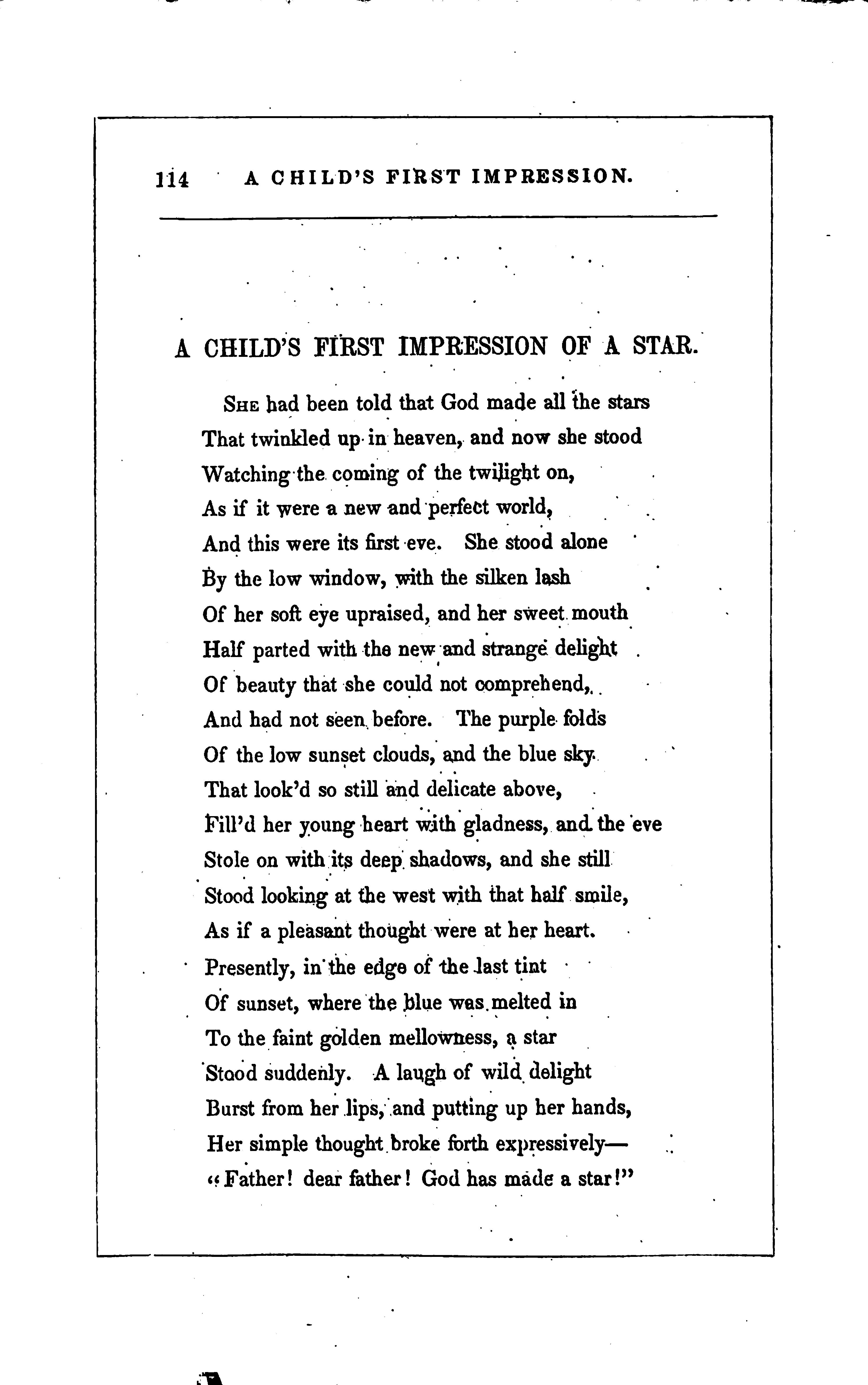

SHE stood up in the meekness of a heart
Resting on God, and held her fair young child. Upon her bosom, with its gentle eyes
Folded in sleep, as if its soul had gone
To whisper the baptismal vow in heaven. The prayer went up devoutly, and the lips
Of the good man glow'd fervently with faith That it would be, even as he had pray'd, And the sweet child be gather'd to the fold. Of Jesus. As the holy words went on Her lips moved silently, and tears, fast tears, Stole from beneath her lashes, and upon The forehead of the beautiful child lay soft
With the baptismal water. Then I thought That, to the eye of God, that mother's tears Would be a deeper covenant-which sin And the temptations ofthe world, and death, Would leave unbroken-and that she would know
In the clear light of heaven, how very strong The prayerwhichpress'dthemfrom herheart had been In leading its young spirit up to God.
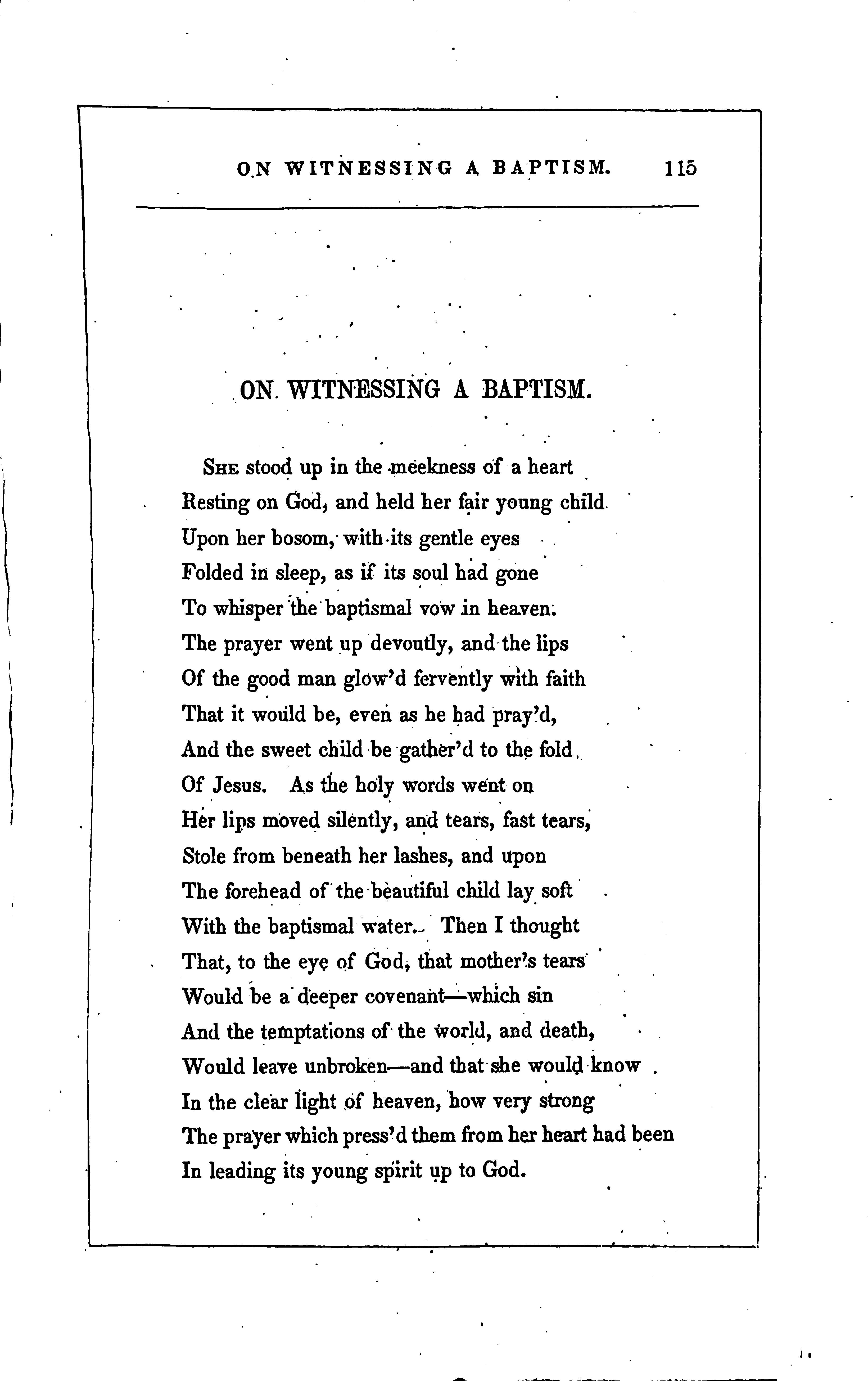

STOOP to my window, thou beautiful dove!
Thy daily visits have touch'd my love. I watch thy coming, and list the note That stirs so low in thy mellow throat, And myjoy is high
To catch the glance of thy gentle eye.
Whydost thou sit on the heated eaves, And forsake the wood with its freshen'd leaves ?
Why dost thou haunt the sultry street, Whenthe paths of the forest are cool and sweet ? How canst thou bear
This noise of people-this sultry air?
Thou alone of the feather'd race
Dost look unscared on the human face , Thou alone, with a wing to flee, Dost love with man in his haunts to be ; << Andthe gentle dove"
Has become a name for trust and love.


A holy gift is thine, sweet bird !
Thou'rt named with childhood's earliest word! Thou'rt link'd with all that is fresh and wild
In the prison'd thoughts of the city child ; And thy glossy wings Are its brightest image of moving things.
It is no light chance. Thou art set apart, Wisely by Him who has tamed thy heart, To stir the love for the bright and fair That else were seal'd in this crowded air; I sometimes dream
Angelic rays from thy pinions stream.
Come then, ever, when daylight leaves
The page I read, to my humble eaves, And wash thy breast in the hollow spout, And murmur thy low sweet music out !
I hear and see
Lessons of heaven, sweet bird, in thee!
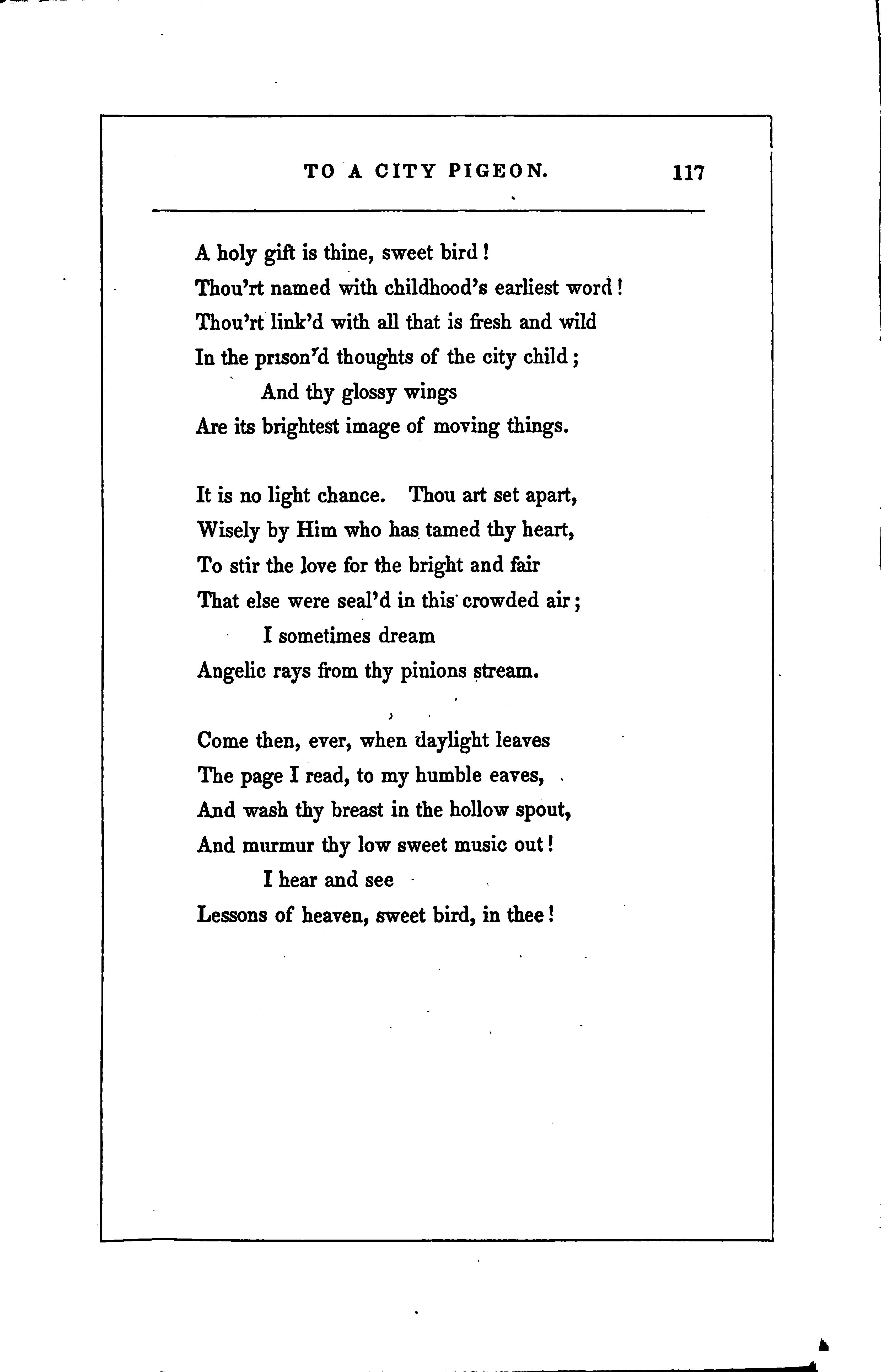

On the cross-beam under the Old South bell
The nest of a pigeon is builded well. In summer and winter that bird is there, Out and in with the morning air : I love to see.him track the street, With his wary eye and active feet ; And I often watch him as he springs, Circlingthe steeple with easy wings, Till across the dial his shade has pass'd, And the belfry edge is gain'd at last. . 'Tis a bird I love, with its brooding note, Andthe trembling throb in its mottled throat ; There's a human look in its swelling breast, And the gentle curve of its lowly crest; And I often stop with the fear I feelHe runs so close to the rapid wheel.
Whatever is rung on that noisy bell . Chime of the hour or funeral knellThe dove in the belfry must hear it well. When the tongue swings out to the midnight moonWhen the sexton cheerly rings for noon-
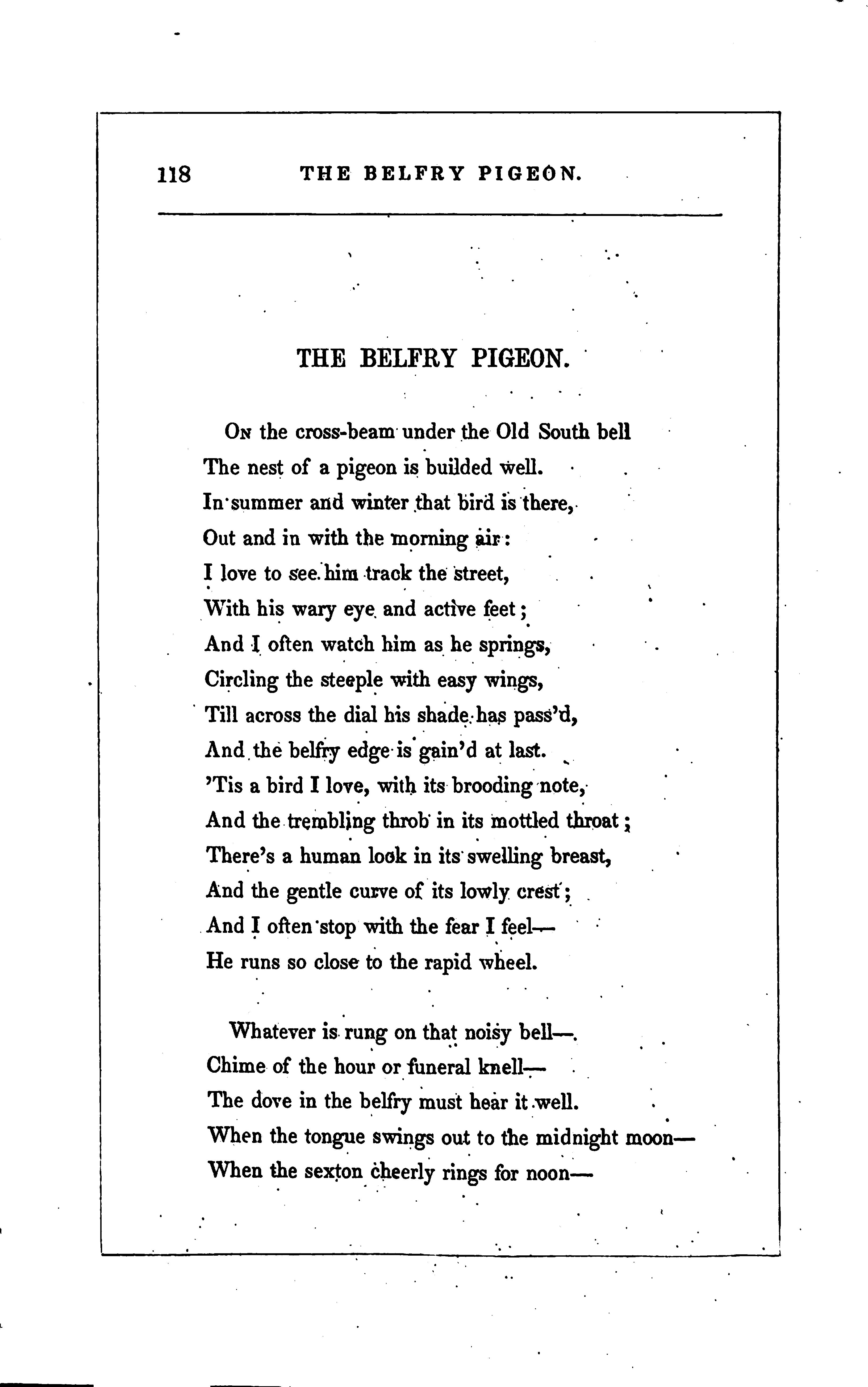

When the clock strikes clear at morning lightWhenthe child is waked with " nine at night . When the chimes play soft in the Sabbath air, Filling the spirit with tones of prayer Whatever tale in the bell is heard, He broods on his folded feet unstirr'd, Or, rising half in his rounded nest, He takes the time to smooth his breast, Then drops again with filmed eyes, And sleeps asthe last vibration dies.
Sweet bird !. I would that I could be. A hermit inthe crowd like thee! With wingsto fly to wood and glen, Thy lot, like mine, is cast with men ; And daily, with unwilling feet, I tread, like thee, the crowded street , But, unlike me, when day is o'er, Thou canst dismiss the world and soar, Or, at a half-felt wish for rest, Canst smooth the feathers onthy breast, And drop, forgetful, to thy nest.
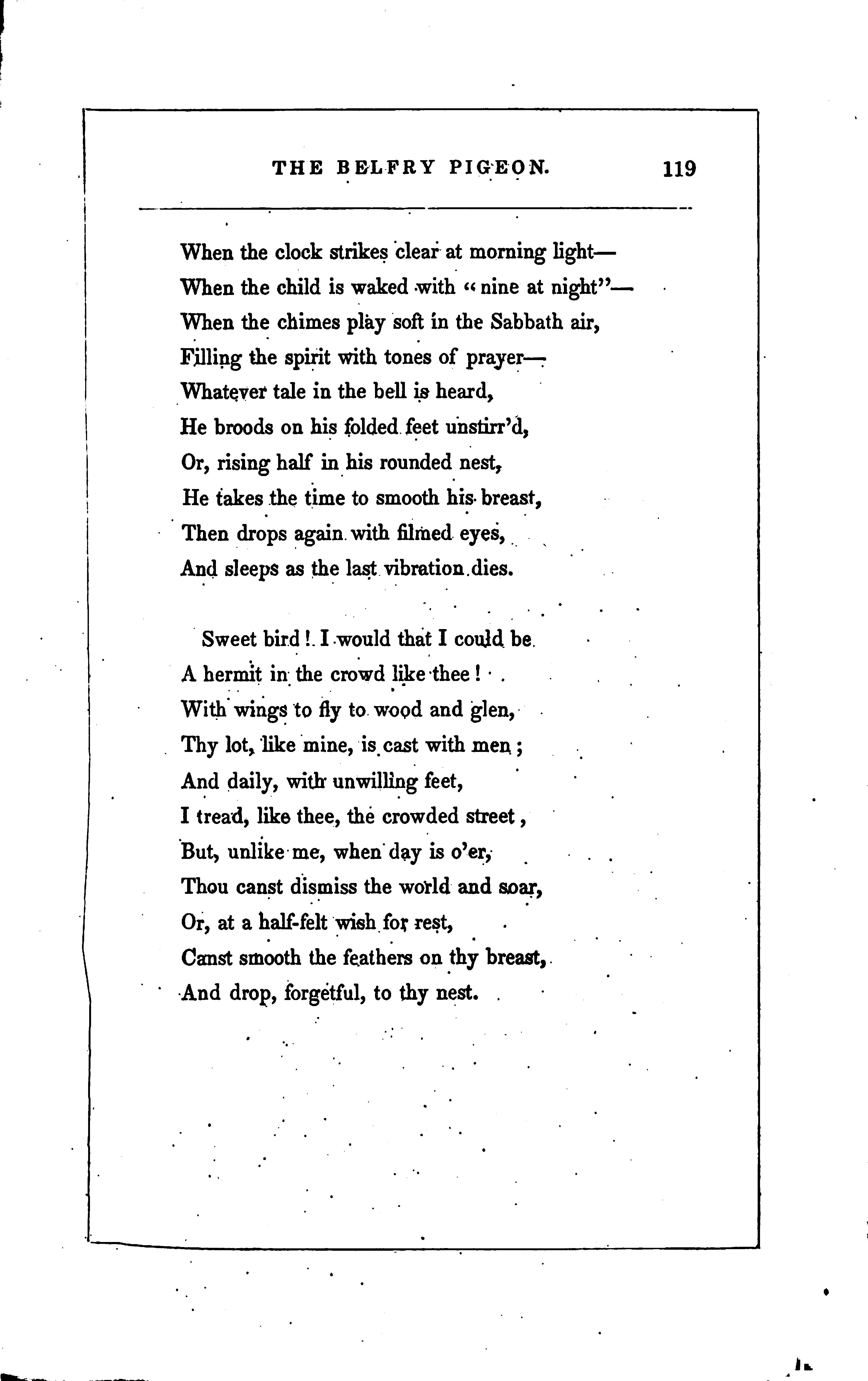

SATURDAY AFTERNOON.
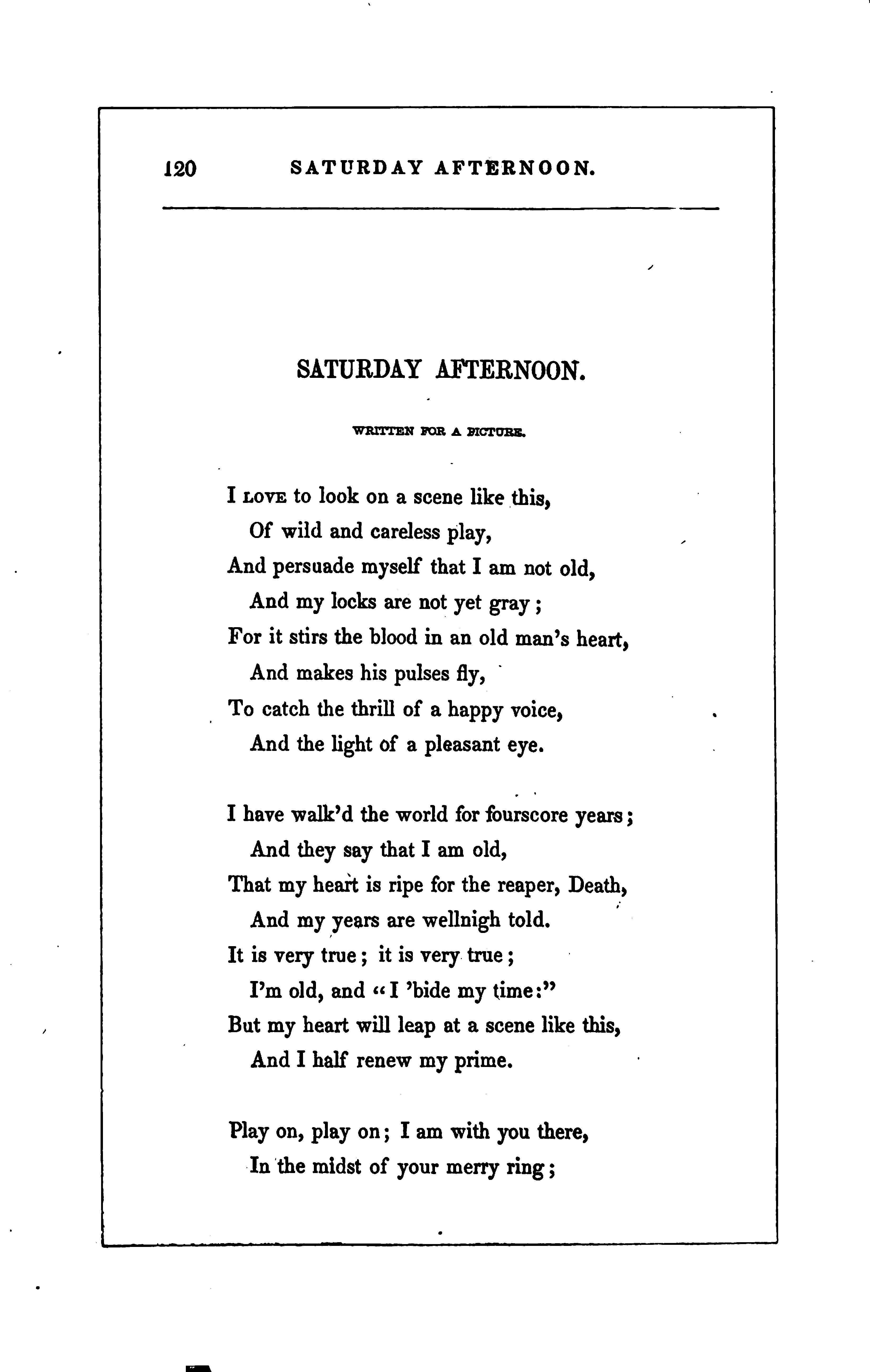
SATURDAY AFTERNOON.
WRITTEN FOR A PICTURE.
I LOVE to look on a scene like this, Of wild and careless play, And persuade myself that I am not old, And my locks are not yet gray; For it stirs the blood in an old man's heart, And makes his pulses fly, To catch the thrill of a happy voice, And the light of a pleasant eye.
I have walk'd the world forfourscore years; And they say that I am old, That myheart is ripe forthe reaper, Death, And my years are wellnigh told. It is very true; it is very true ; I'm old, and " I "bide my time:" But my heart will leap at a scene like this, And I half renew my prime.
Play on, play on; I am with you there, In the midst of your merry ring;

SATURDAY AFTERNOON. 121
I can feel the thrill of the daring jump, And the rush of the breathless swing. I hide with you in the fragrant hay, And I whoop the smother'd call, And my feet slip up onthe seedy floor, And I care not for the fall.
I am willing to die when my time shall come, And I shall be glad to go; For the world at best is a weary place, And my pulse is getting low ; But the grave is dark, and the heart willfail In treading its gloomy way; And it wiles my heart from its dreariness, To seethe young so gay.
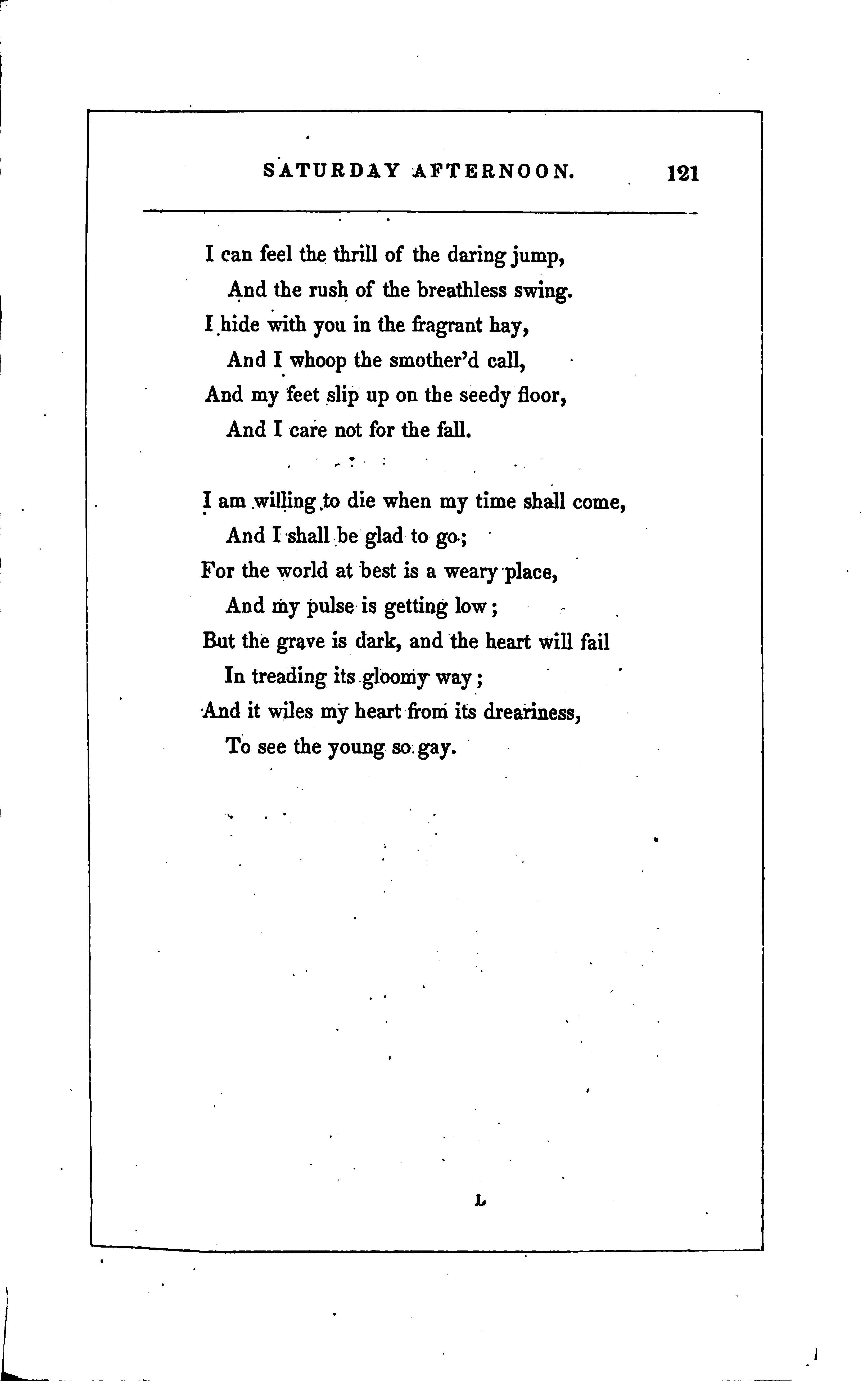

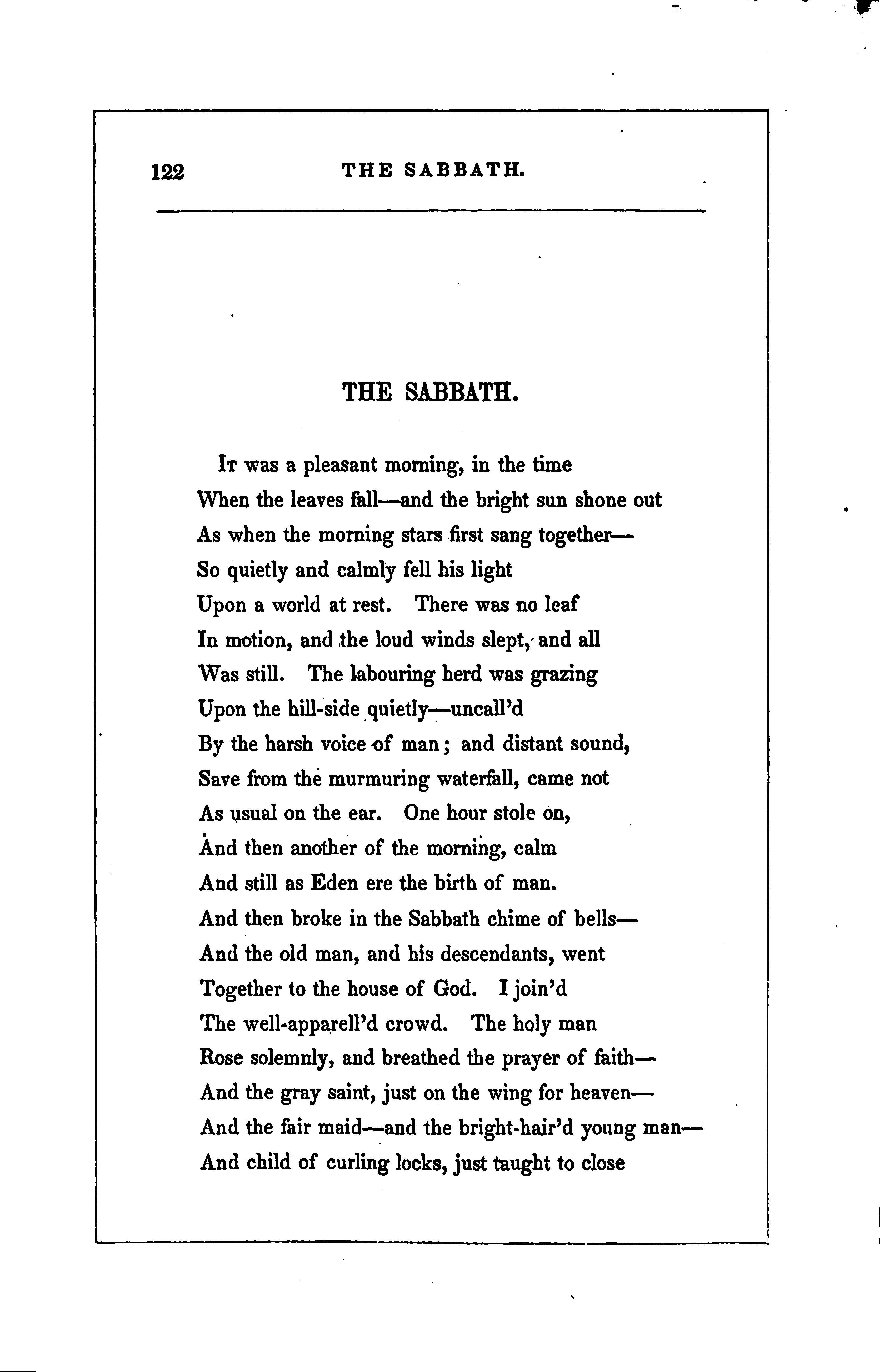
Itwas a pleasant morning, in the time
When the leaves fall-and the bright sun shone out
As when the morning stars first sang togetherSo quietly and calmly fell his light Upon a world at rest. There was no leaf In motion, and the loud winds slept, and all Was still. The labouring herd was grazing Upon the hill-side quietly- uncall'd
By the harsh voice of man ; and distant sound, Save from the murmuring waterfall, came not As usual on the ear. One hour stole on, And then another of the morning, calm And still as Eden ere the birth of man. And then broke in the Sabbath chime of bellsAnd the old man, and his descendants, went Togetherto the house of God. I join'd The well-apparell'd crowd. The holy man Rose solemnly, and breathed the prayer of faithAnd the gray saint, just on the wing for heaven
And the fair maid and the bright-hair'd young man
And child of curling locks, just taught to close

The lash of its blue eye the while, all knelt In attitude of prayer-and then the hymnn, Sincere in its low melody, went up To worship God.
The white-hair'd pastor rose And look'd upon his flock and with an eye That told his interest, and voice that spoke In tremulous accents eloquence like Paul's, He lent Isaiah's fire to the truths Of revelation, and persuasion came Like gushing waters from his lips, till hearts Unused to bend were soften'd, and the eye Unwont to weep sent forth the willing tear.
I went my way, but as I went I felt How well it was that the world-weary soul Should have its times to set its burthen down.
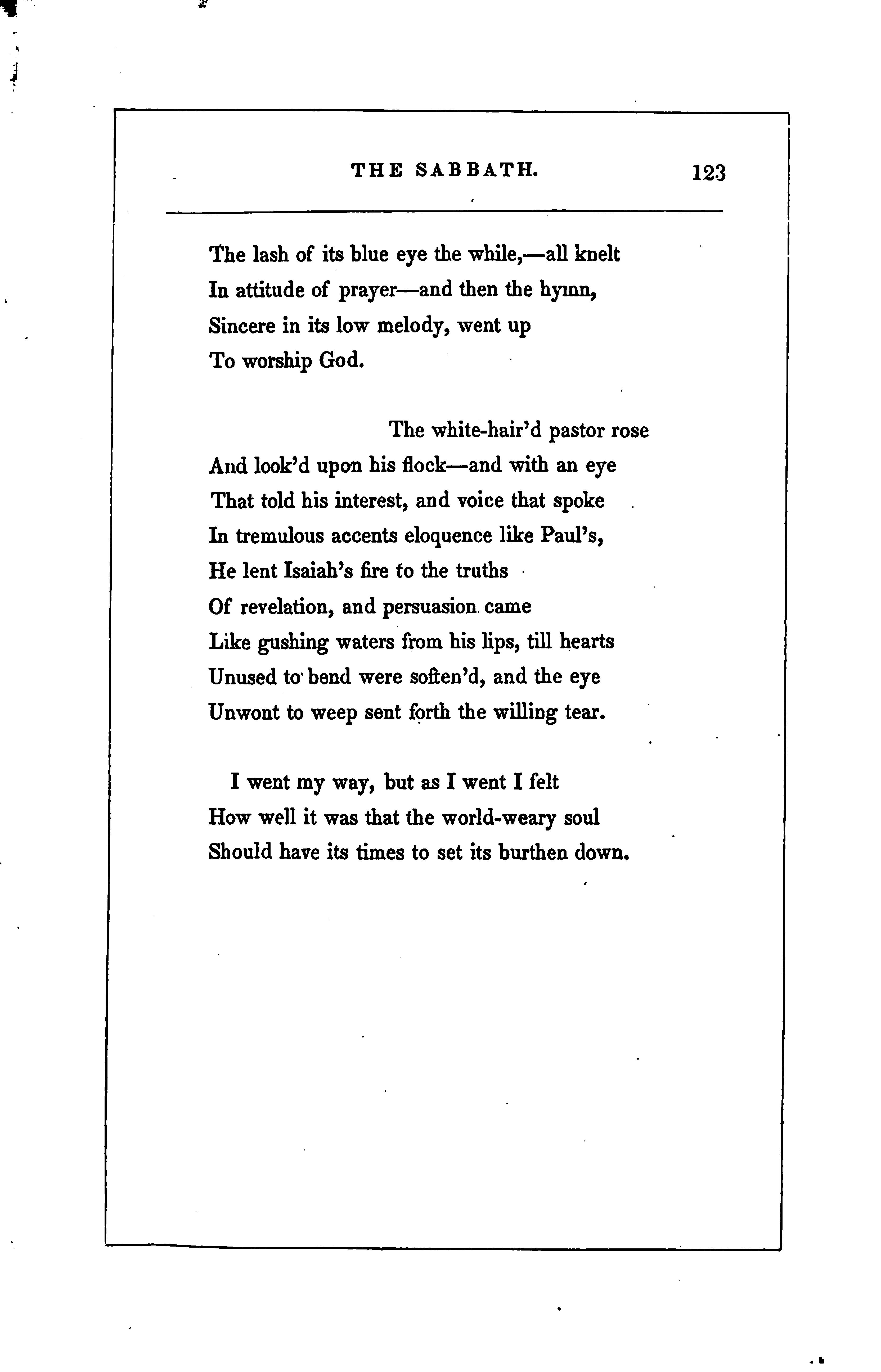

DEDICATION HYMN.
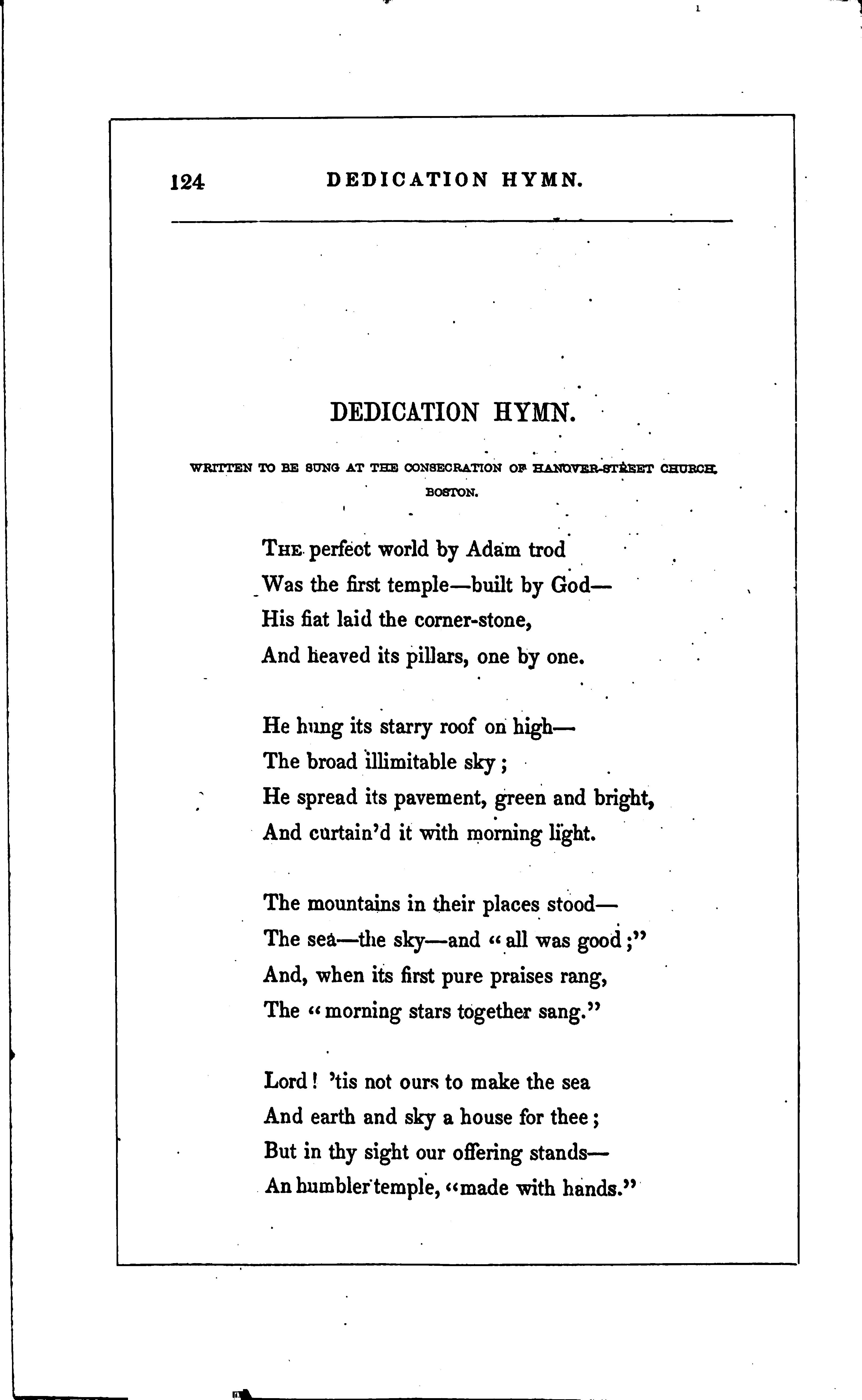
DEDICATION HYMN.
WRITTEN TO BE SUNG AT THE CONSECRATION OF HANOVER-STREET CHURCH. BOSTON.
THE perfect world by Adam trod
Was the first temple-built by GodHis fiat laid the corner-stone, And heaved its pillars, one by one.
He hung its starry roof on highThe broad illimitable sky ; He spread its pavement, green and bright, And curtain'd it with morning light.
The mountains in their places stoodThe sea-the sky-and " all was good;" And, when its first pure praises rang, The morning stars together sang."
Lord! 'tis not ours to make the sea
And earth and sky a house for thee ; But in thy sight our offering stands Anhumblertemple, "made with hands."

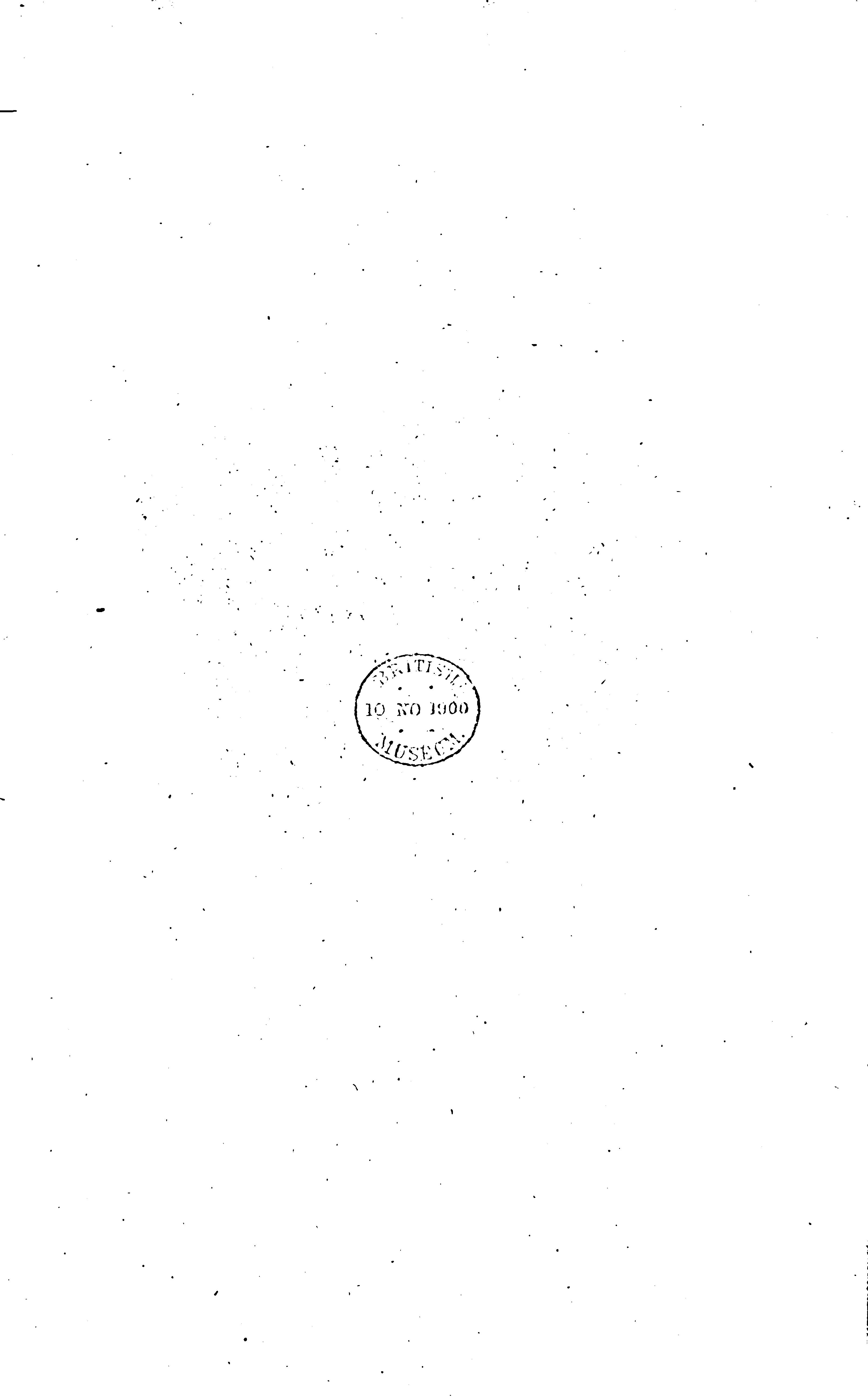

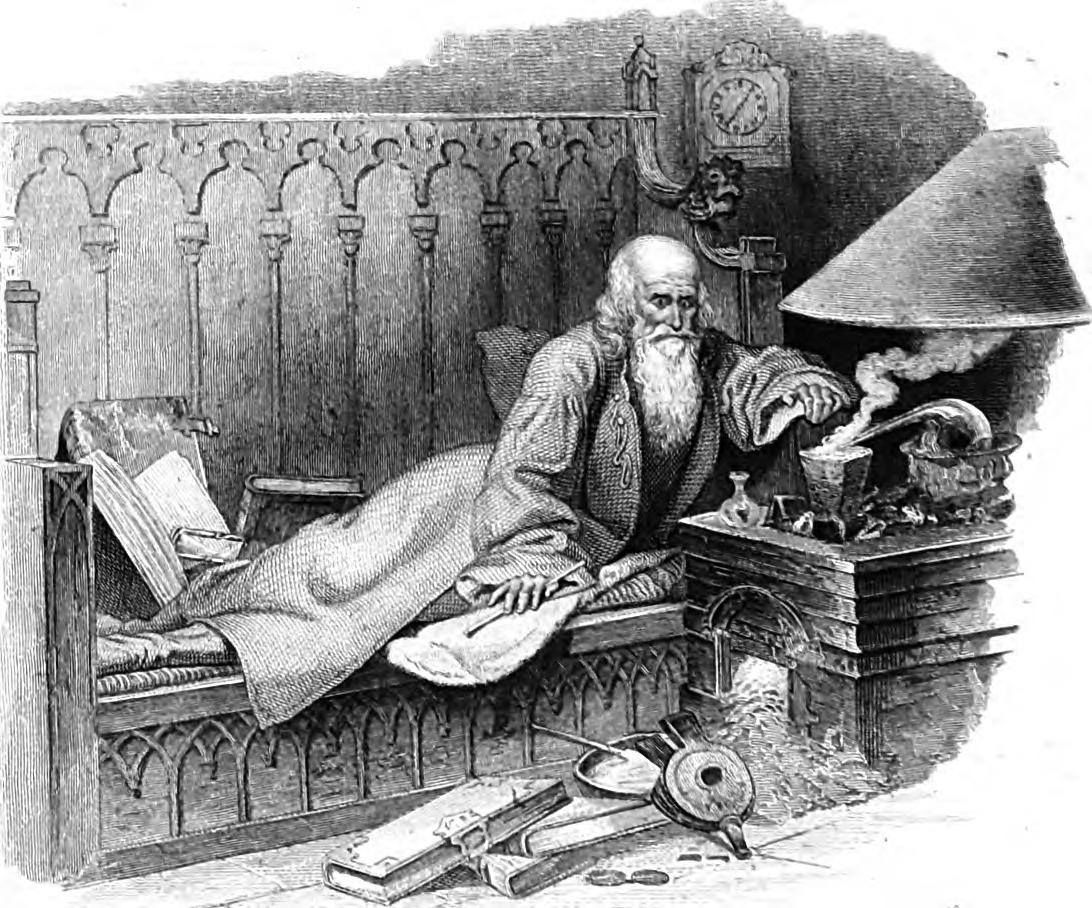
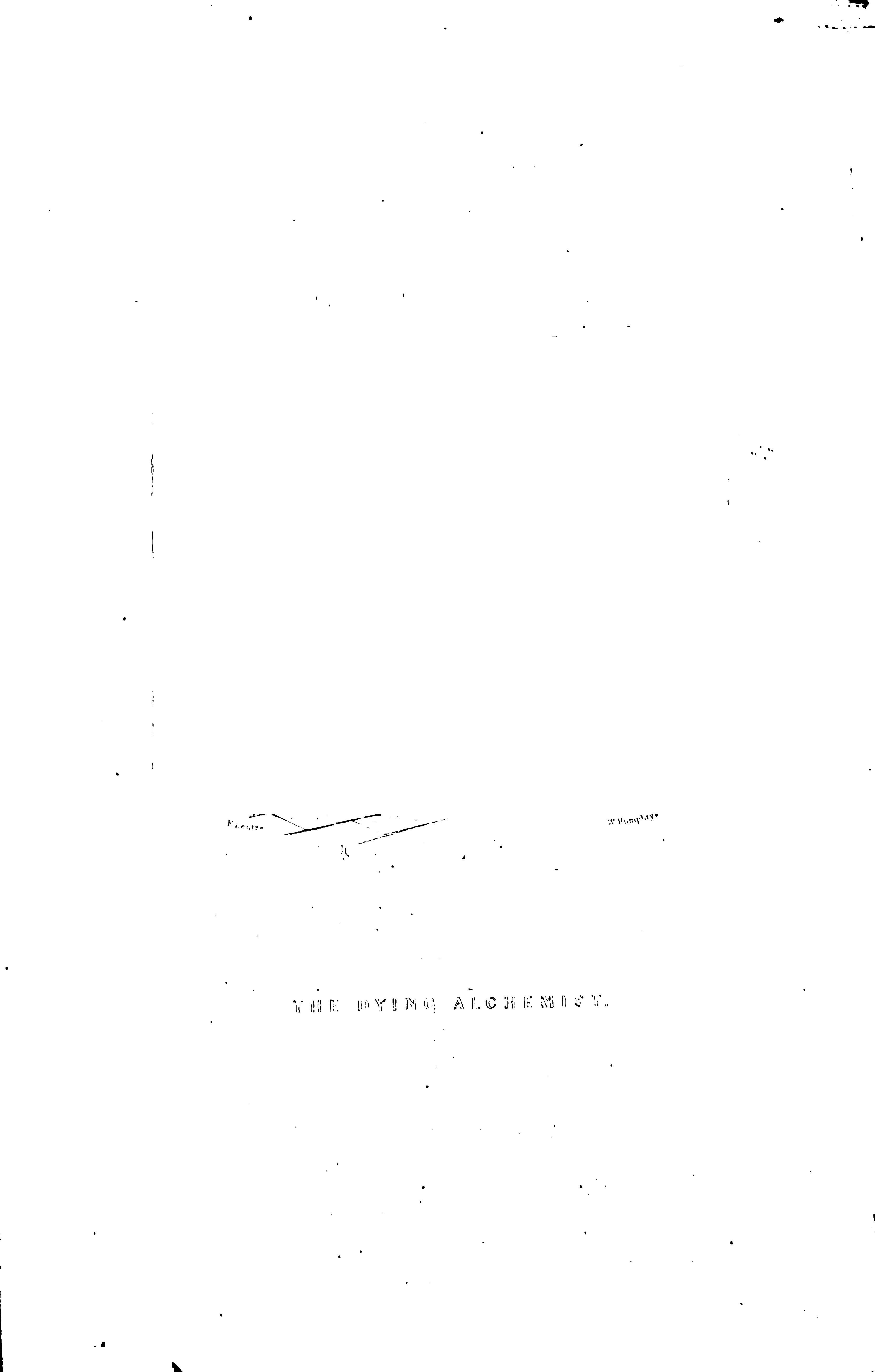
 ELeutre
WHumphrys
ELeutre
WHumphrys
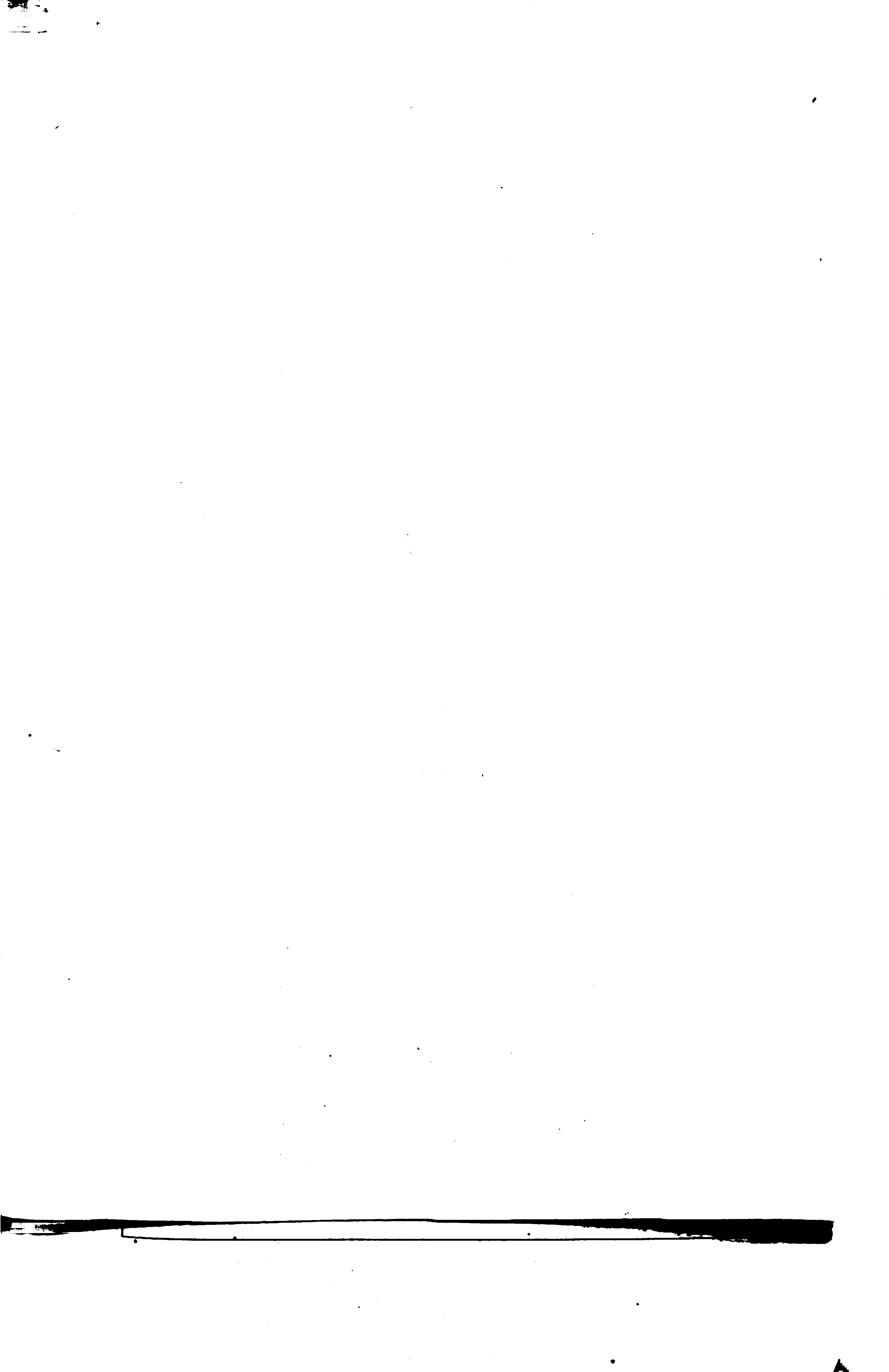



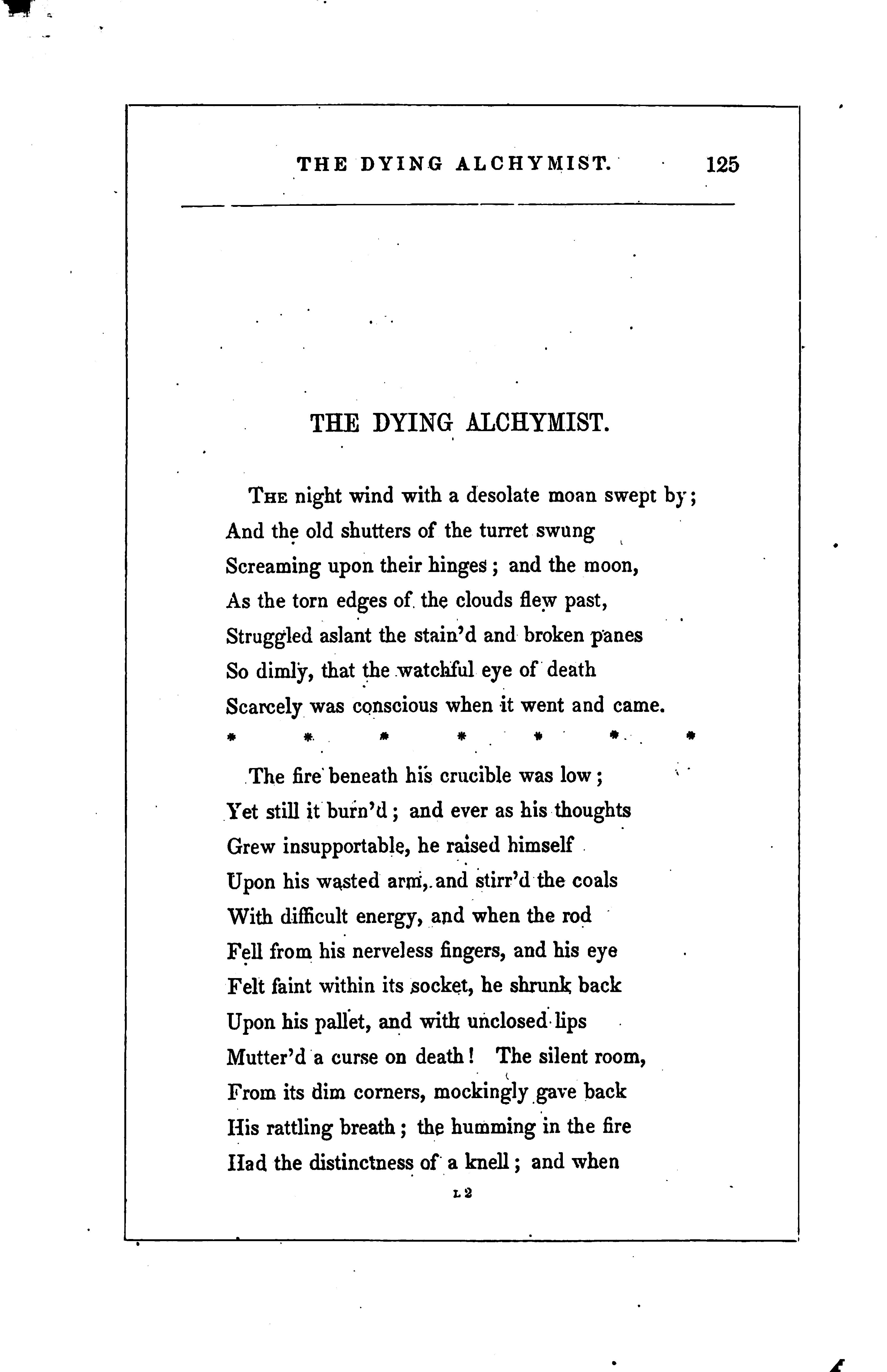
THE night wind with a desolate moan swept by; And the old shutters of the turret swung Screaming upon their hinges ; and the moon, As the torn edges of the clouds flew past, Struggled aslant the stain'd and broken panes So dimly, that the watchful eye of death Scarcely was conscious when it went and came.
The fire beneath his crucible was low; Yet still it burn'd ; and ever as his thoughts Grew insupportable, he raised himself
Upon his wasted arm, and stirr'd the coals With difficult energy, and when the rod Fell from his nerveless fingers, and his eye
Felt faint within its socket, he shrunk back
Upon his pallet, and with unclosed lips
Mutter'd a curse on death! The silent room, From its dim corners, mockingly gave back His rattling breath ; the humming in the fire
Had the distinctness of a knell ; and when L2

Duly the antique horologe beat one, He drew a phial from beneath his head, And drank. And instantly his lips compress'd, And, with a shudder in his skeleton frame, He rose with supernatural strength, and sat Upright, and communed with himself:-
I did not think to die Till I had finish'd what I had to do ; I thought to pierce th eternal secret through With this my mortal eye ; I felt-oh God ! it seemeth even now This cannot be the death-dew on my brow!
And yet it is-I feel, Of this dull sickness at my heart, afraid ! And in my eyes the death-sparks flash and fade ; And something seems to steal Over my bosom like a frozen handBinding its pulses with an icy band.
And this is death ! But why Feel I this wild recoil? It cannot be Th' immortal spirit shuddereth to be free! Would it not leap to fly, Like a chain'd eaglet at its parent's call? I fear I fear-that this poor life is all!
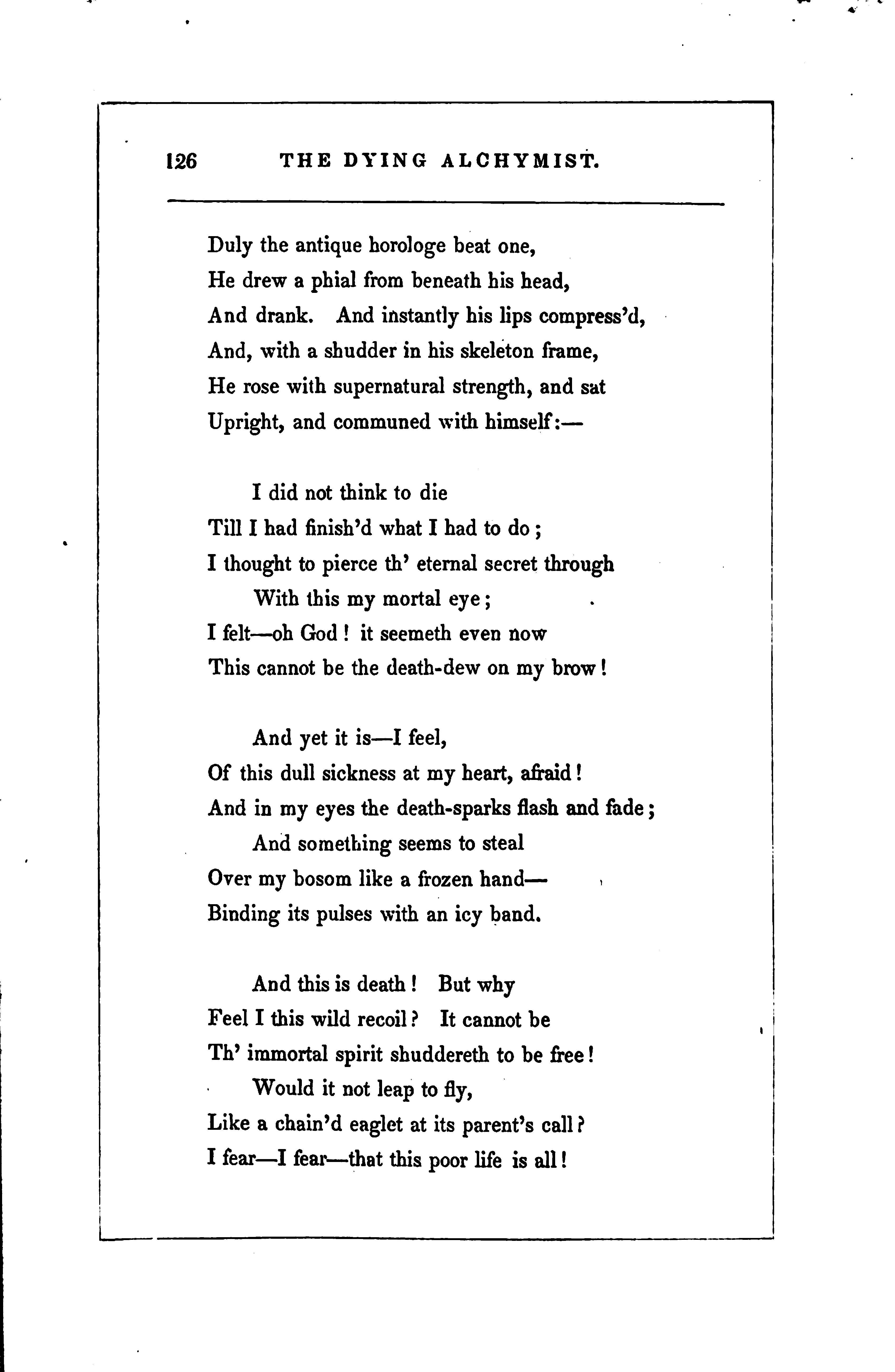

Yetthus to pass away!-
To live but for a hope that mocks at lastTo agonize, to strive, to watch, to fast, To waste the light of day, Night's better beauty, feeling, fancy, thought, All that we have and are-for this for naught!
Grant me another year, God of my spirit !-but a day-to win Something to satisfy this thirst within !
I would know something here ! Break for me but one seal that is unbroken ! Speak for me but one word that is unspoken!
Vain-vain!-my brain is turning
With a swift dizziness, and my heart grows sick, And these hot temple-throbs come fast and thick, And I am freezing burning Dying! Oh God ! If I might only live! My phial- -Ha! it thrills me-I revive!
Ay-were not man to die, He were too mighty for this narrow sphere! Had he but time to brood on knowledge here
Could he but train his eyeMight he but wait the mystic word and hourOnly his Maker would transcend his power!
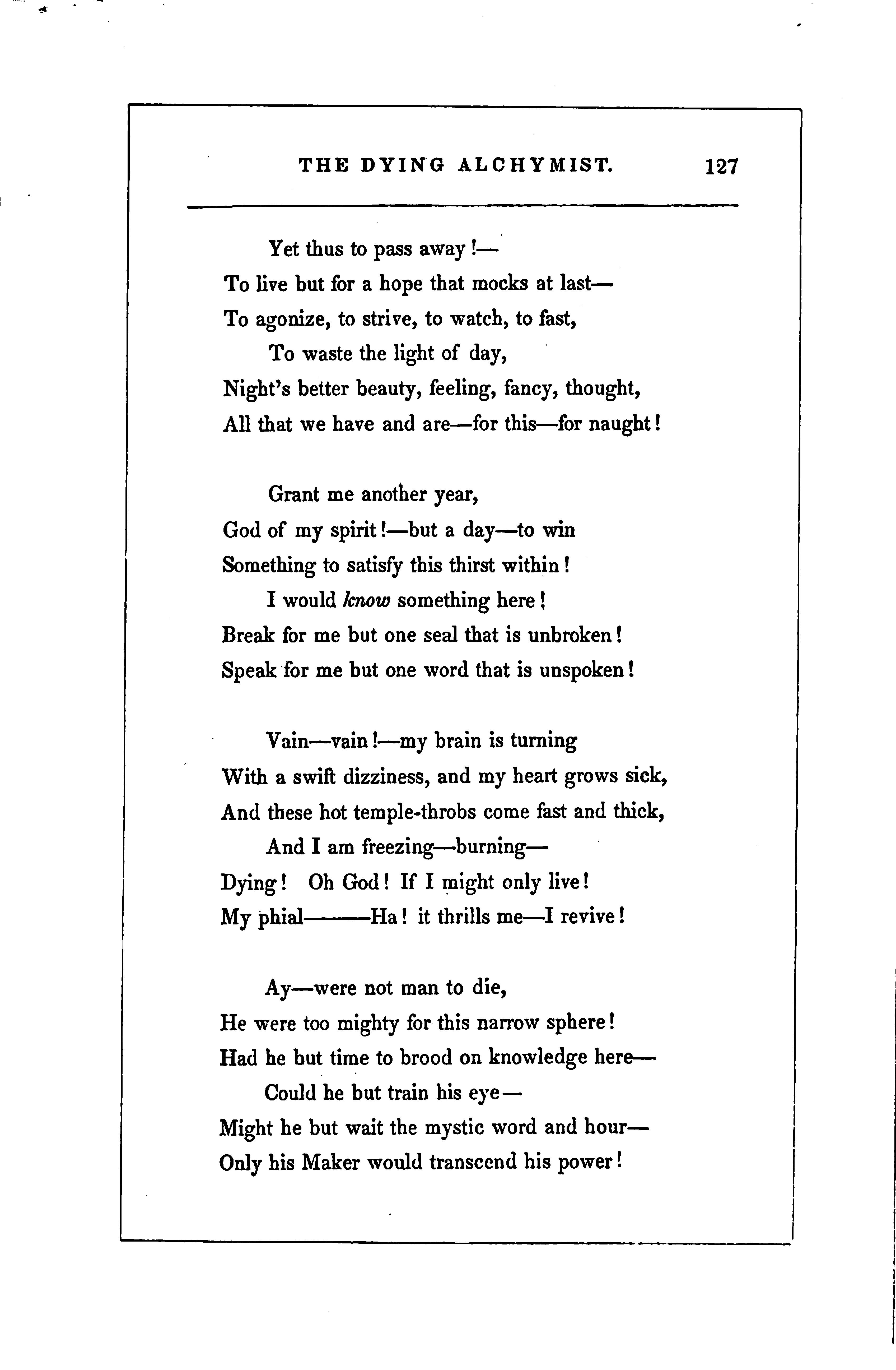

Earth has no mineral strange
Th' illimitable air no hidden wings-
Water no quality in covert springs, And fire no power to change-
Seasons no mystery, and stars no spell, Which the unwasting soul might not compel.
Oh, but for time to track
The upper stars into the pathless sky .
To see th' invisible spirits, eye to eye-
To hurl the lightning back
To tread unhurtthe sea's dim-lighted halls
To chase Day's chariot to the horizon-walls-
And more, much more-for now
The life-seal'd fountains of my nature move-
To nurse and purify this human love-
To clear the godlike brow
Of weakness and mistrust, and bow it down, Worthy and beautiful, to the much-loved one-
This were indeed to feel
The soul-thirst slaken at the living stream-
To live-oh God ! that life is but a dream !
And death- Aha! I reel-
Dim-dim-I faint-darkness comes o'er my eyeCover me! save me!. -God of heaven! I die!
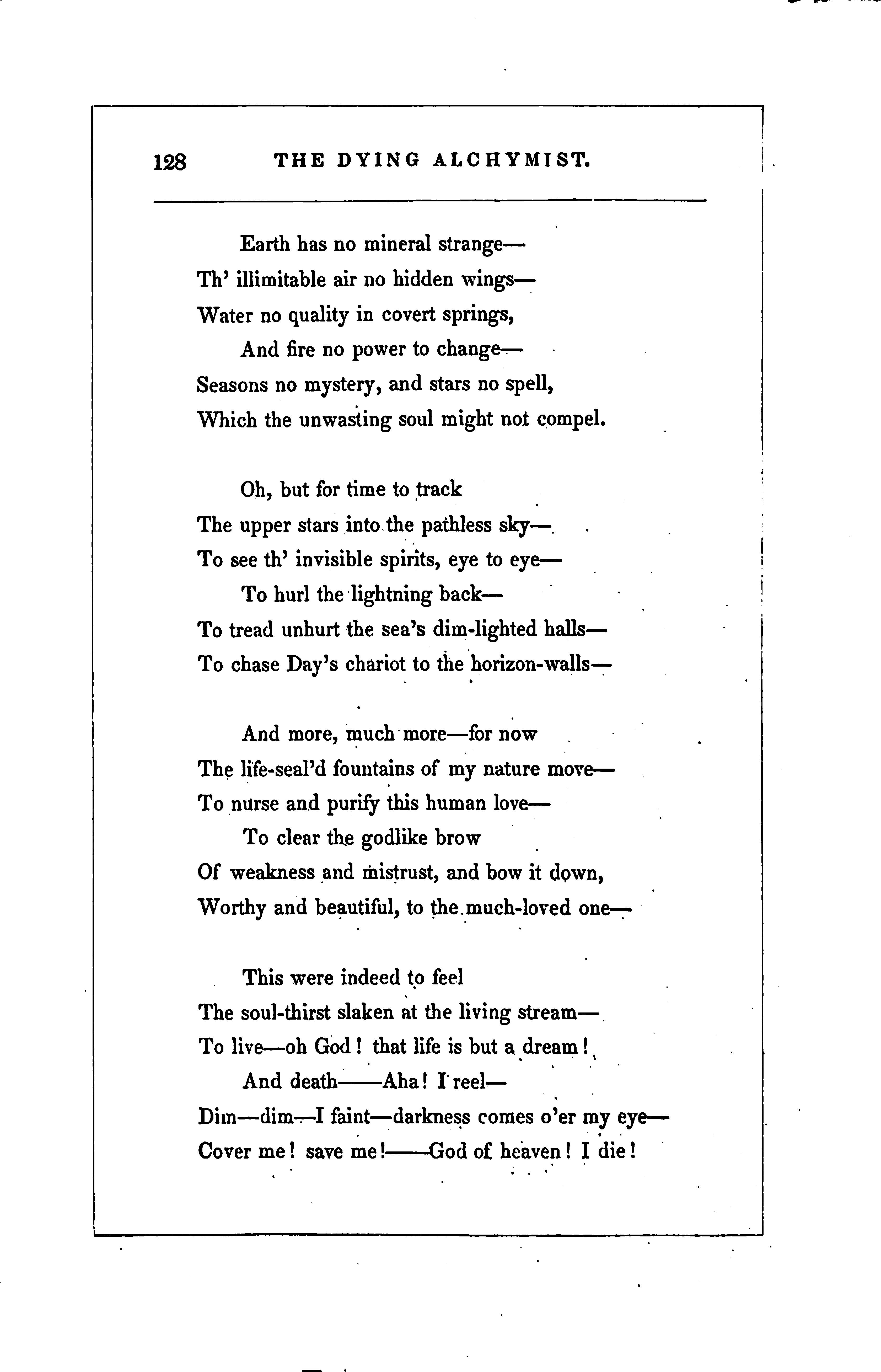

'Twas morning, and the old man lay alone. No friend had closed his eyelids, and his lips, Open and ashy pale, th' expression wore Of his death-struggle. His long silvery hair Lay on his hollow temples,thin and wild, His frame was wasted, and his features wan And haggard as with want, and in his palm His nails were driven deep, as if the throe Of the last agony had wrung him sore. The storm was raging still. The shutters swung Screaming as harshly in the fitful wind, And all without went on as aye it will, Sunshine or tempest, reckless that a heart Is breaking, or has broken, in its change.
The fire beneath the crucible was out ; The vessels of his mystic art lay round, Useless and cold as the ambitious hand That fashion'd them, and the small silver rod, Familiar to his touch for threescore years, Lay onth' alembic's rim, as if it still Might vex the elements at its master's will.
And thus had pass'd from its unequal frame
Asoul of fire-a sun-bent eagle stricken From his high soaring down-an instrument Broken with its own compass. Oh how poor
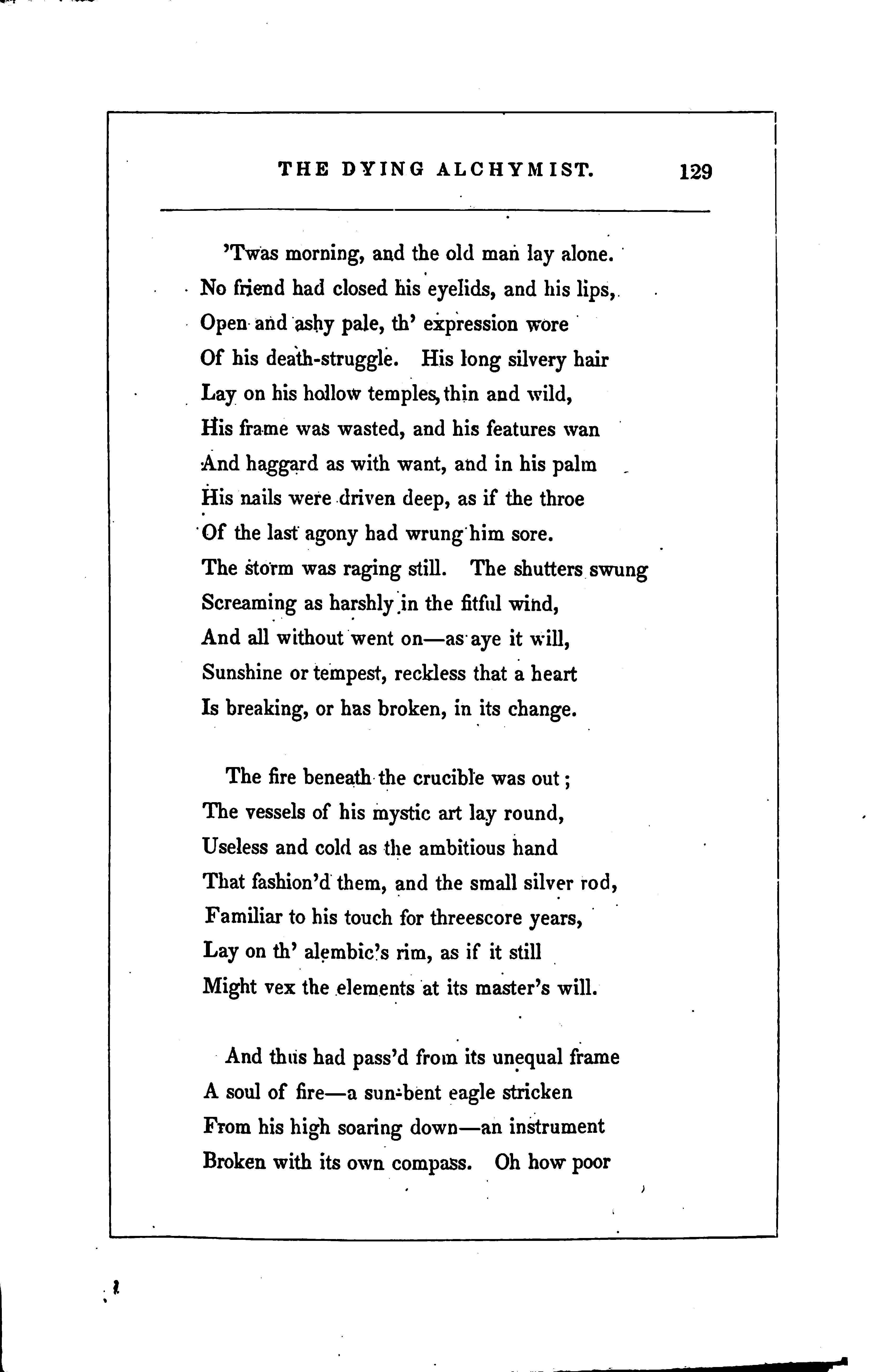

Seems the rich gift of genius, when it lies, Like th' adventurous bird that hath out-flown His strength upon the sea, ambition-wreck'd-
A thing the thrush might pity, as she sits Brooding in quiet on her lowly nest!


"Parrhasius, a painter of Athens, among those Olynthian captives Philip ofMacedonbrought home to sell, bought one very old man ; and when he had him at his house, put him to death with extreme torture and torment, thebetter,byhis example, toexpressthe pains andpassions ofhisPrometheus, whom hewas then about to paint."-Burton's Anat. ofMel.
THERE stood an unsold captive in the mart, A gray-hair'd and majestical old man, Chain'd to a pillar. It was almost night, And the last seller from his place had gone, And not a sound was heard but of a dog Crunching beneath the stall a refuse bone, Or the dull echo from the pavement rung, As the faint captive changed his weary feet. He had stood there since morning, and had borne From every eye in Athens the cold gaze Of curious scorn. The Jew had taunted him For an Olynthian slave. The buyer came And roughly struck his palm upon his breast, And touch'd his unheal'd wounds, and with a sneer Pass'd on ; and when, with weariness o'erspent, He bow'd his head in a forgetful sleep, Th' inhuman soldier smote him, and, with threats. Of torture to his children, summon'd back The ebbing blood into his pallid face.
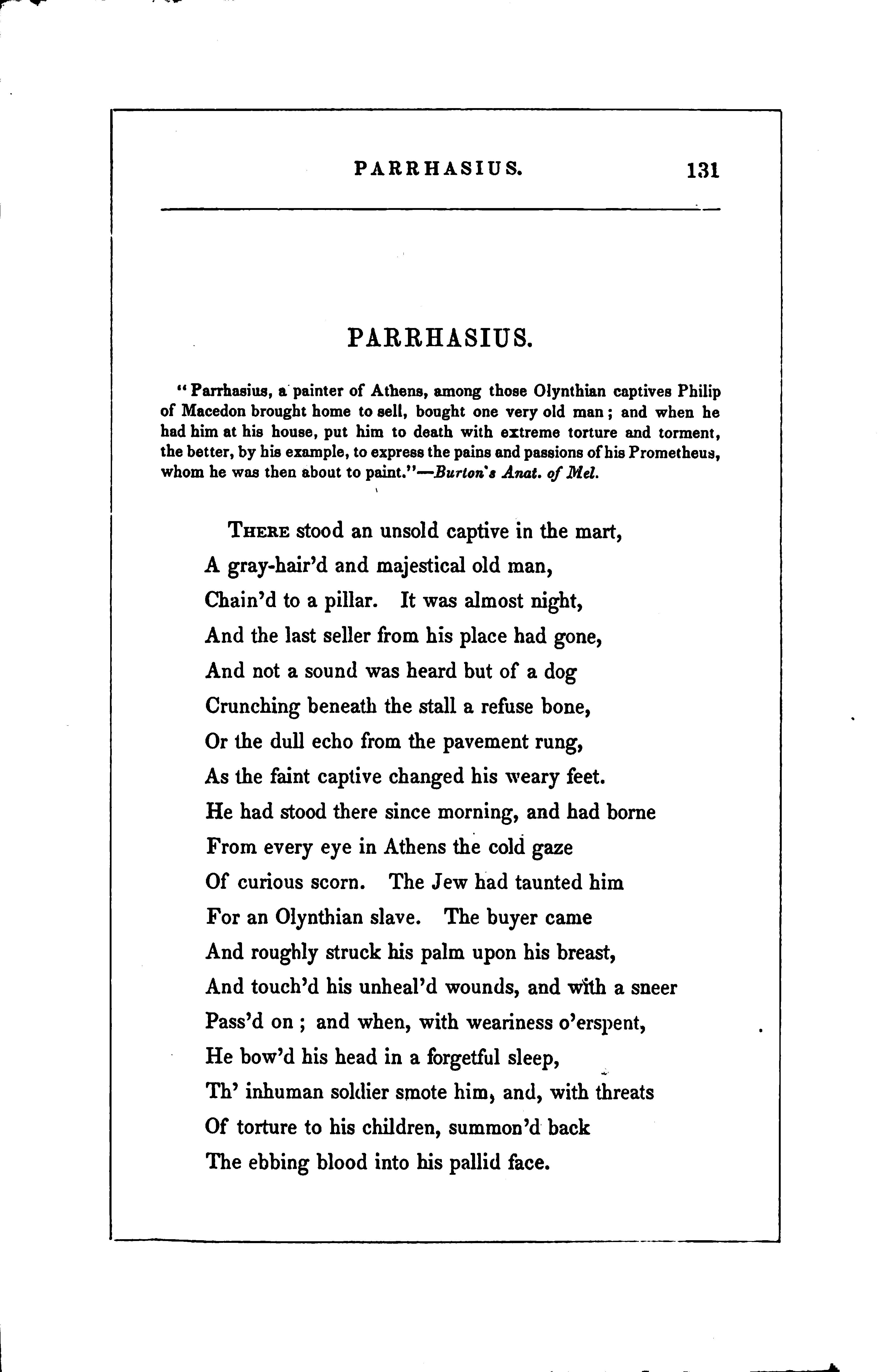

'Twas evening, and the half-descended sun
Tipp'd with a golden fire the many domes Of Athens, and a yellow atmosphere
Lay rich and dusky in the shaded street
Through which the captive gazed. He had borne up With a stout heart that long and weary day, Haughtily patient of his many wrongs; But now he was alone, and from his nerves
The needless strength departed, and he lean'd Prone on his massy chain, and let his thoughts
Throng on him as they would. Unmark'd of him, Parrhasius at the nearest pillar stood,
Gazing upon his grief. Th? Athenian's cheek
Flush'd as he measured with a painter's eye
The moving picture. The abandon'd limbs, Stain'd withthe oozing blood, were laced with veins
Swollen to purple fulness ; the gray hair, Thin and disorder'd, hung about his eyes ; And as a thought of wilder bitterness
Rose in his memory, his lips grew white, And the fast workings of his bloodless face
Told what a tooth of fire was at his heart.
The golden light into the painter's room
Stream'd'richly, and the hidden colours stole From the dark pictures radiantly forth, And in the soft and dewy atmosphere
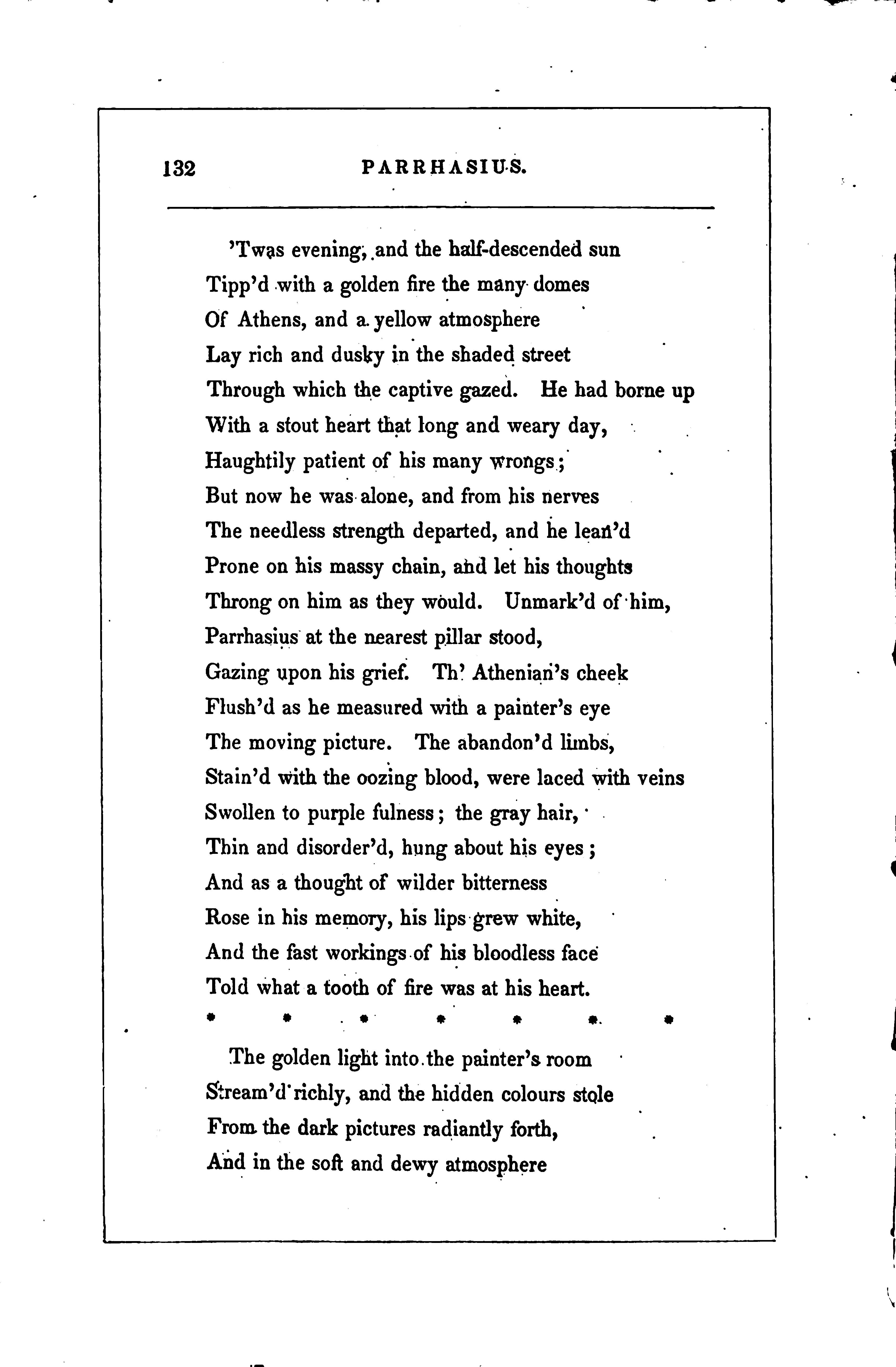

Like forms and landscapes magical they lay.. The walls were hung with armour, and about In the dim corners stood the sculptured forms Of Cytheris, and Dian, and stern Jove, And from the casement soberly away Fell the grotesque long shadows, full and true, And, like a veil of filmy mellowness, The lint-spects floated inthe twilight air. Parrhasius stood, gazing forgetfully Upon his canvass. There Prometheus lay, Chain'd to the cold rocks of Mount CaucasusThe vulture at his vitals, and the links Of the lame Lemnian festering in his flesh ; And, as the painter's mind felt through the dim, Rapt mystery, and pluck'd the shadows forth With its far-reaching fancy, and with form And colour clad them, his fine, earnest eye Flash'd with a passionate fire, and the quick curl Of histhin nostril, and his quivering lip Were like the wing'd God's, breathing from his flight.
"Bring methe captive now!
My hand feels skilful, and the shadows lift From my waked spirit airily and swift, And I could paint the bow
Upon the bended heavens-around me play Colours of such divinity to-day.
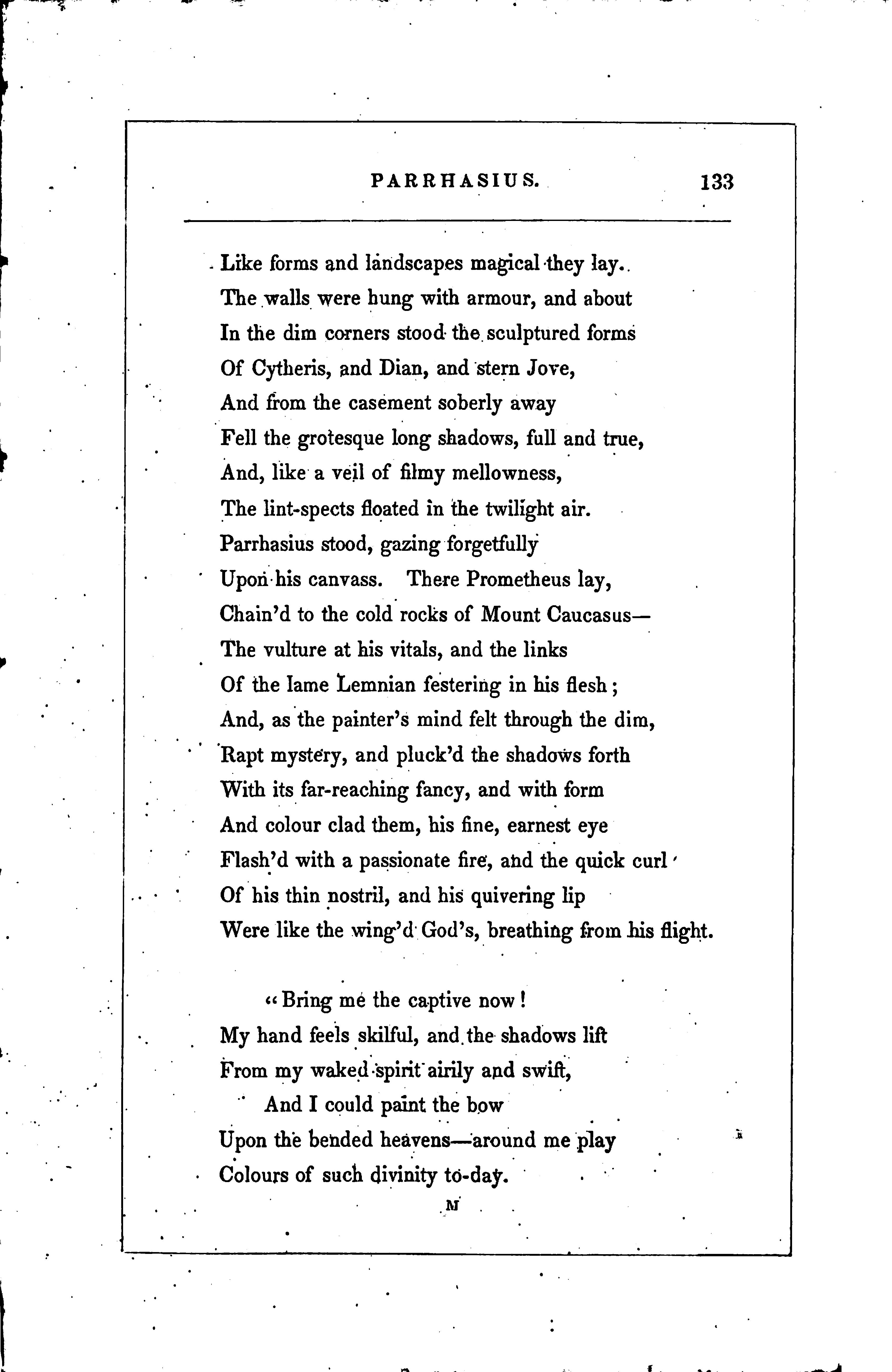

"Ha! bind him on his back!
Look !-as Prometheus in my picture here ! Quick or he faints !-stand with the cordial near!
Now-bend him to the rack!
Press down the poison'd links into his flesh! And tear agape that healing wound afresh !
"So-let him writhe ! How long Will he live thus? Quick, my good pencil, now
What a fine agony works upon his brow!
Ha! gray-hair'd, and so strong! Howfearfully he stifles that short moan!
Gods ! if I could but paint a dying groan !
" Pity' thee! So I do!
I pity the dumb victim at the altar-
But does the robed priest for his pity falter?
I'd rack thee though I knew
A thousand lives were perishing in thineWhat were ten thousand to a fame like mine ?
" Hereafter! Ay-hereafter!
A whip to keep a coward to his track! What gave Death everfrom his kingdom back
To check the skeptic's laughter?
Come from the grave to-morrow with that storyAnd I may take some softer path to glory.
1
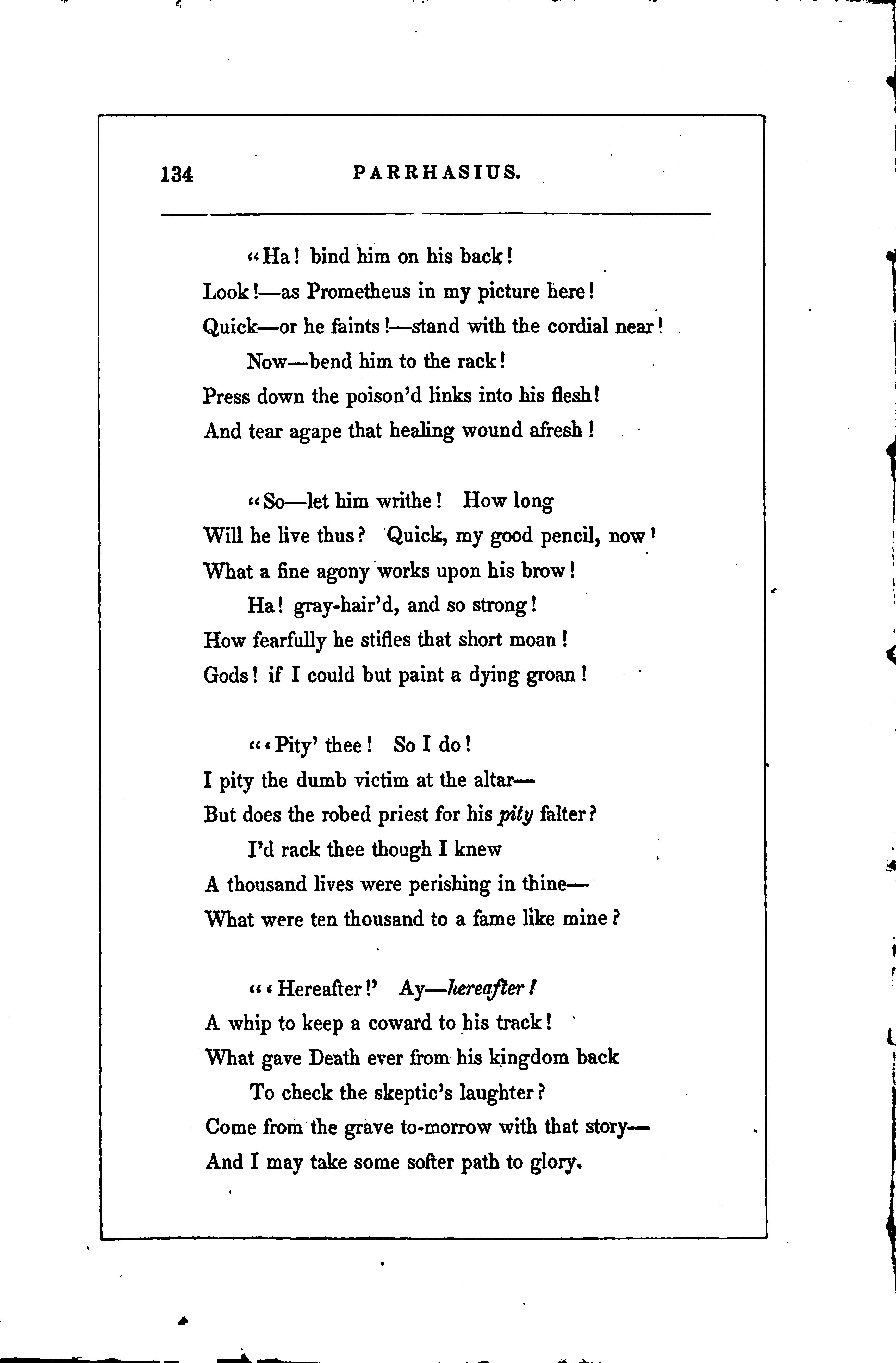

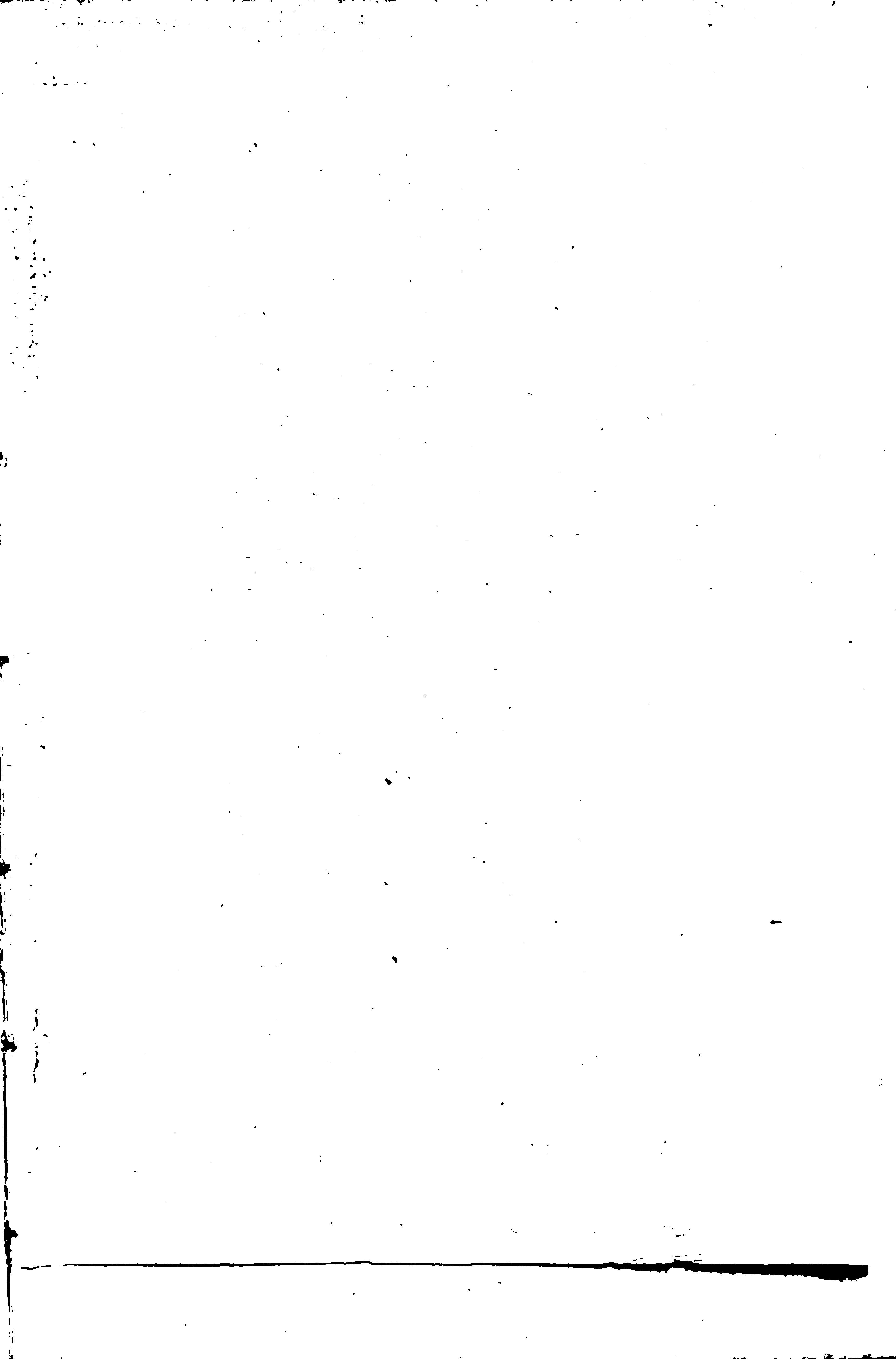

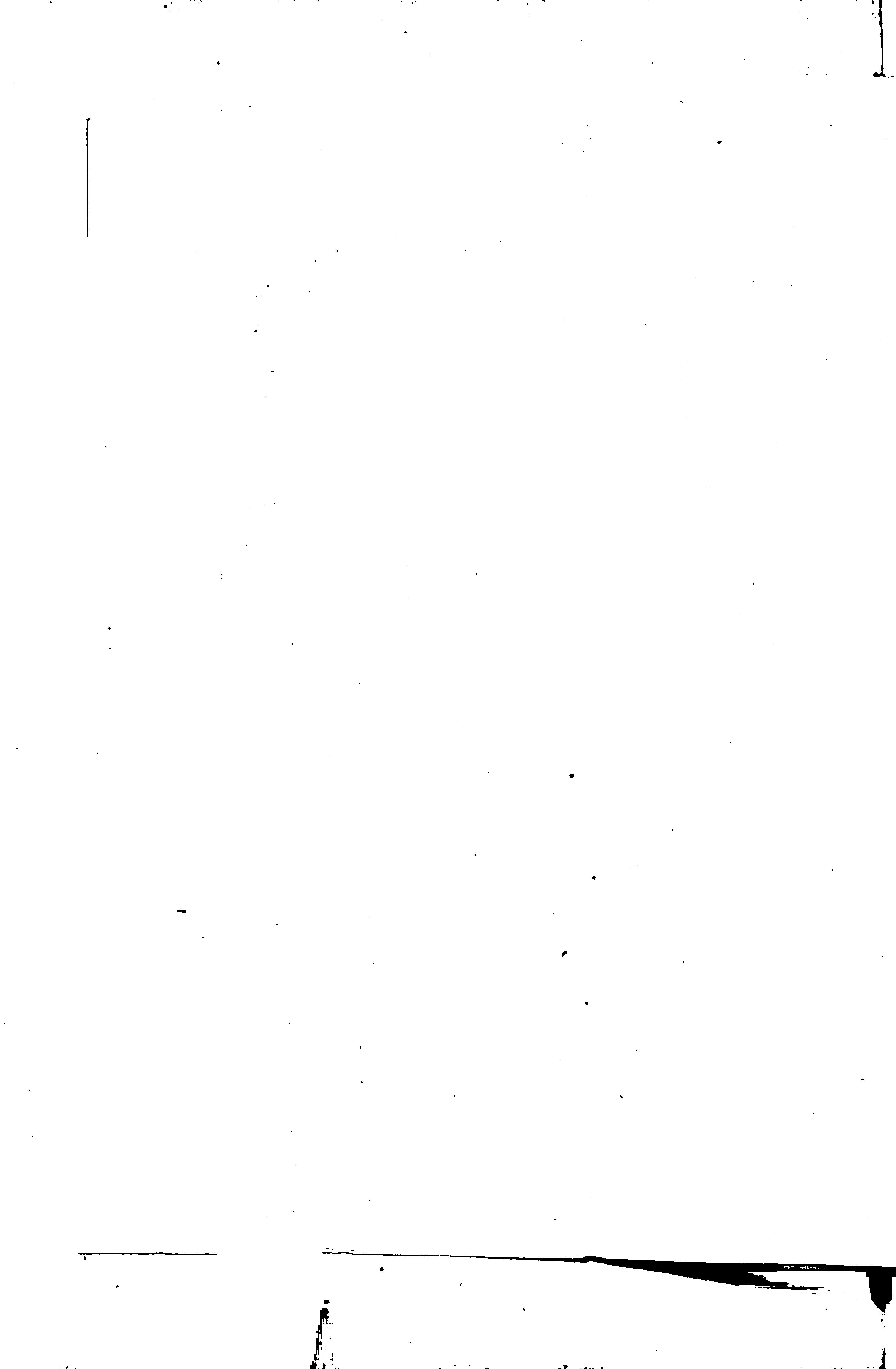

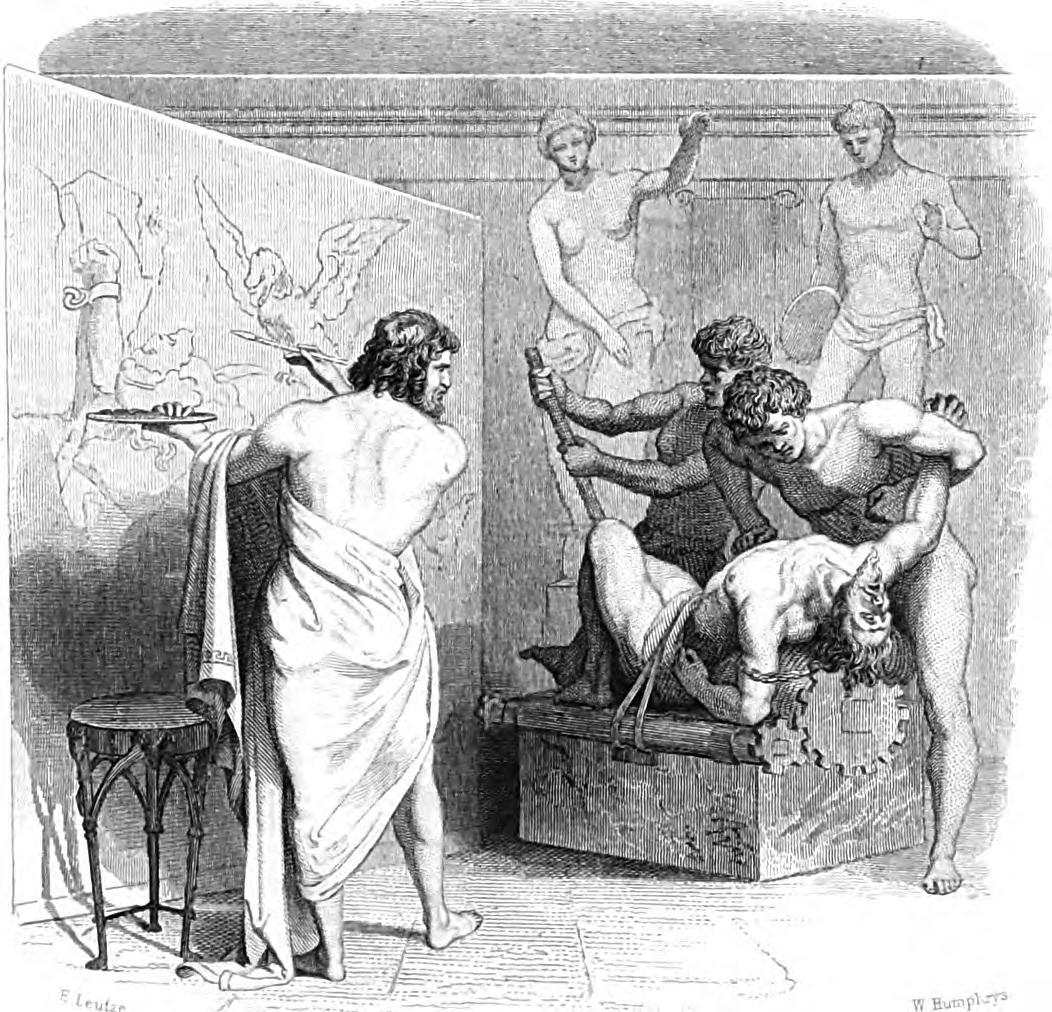
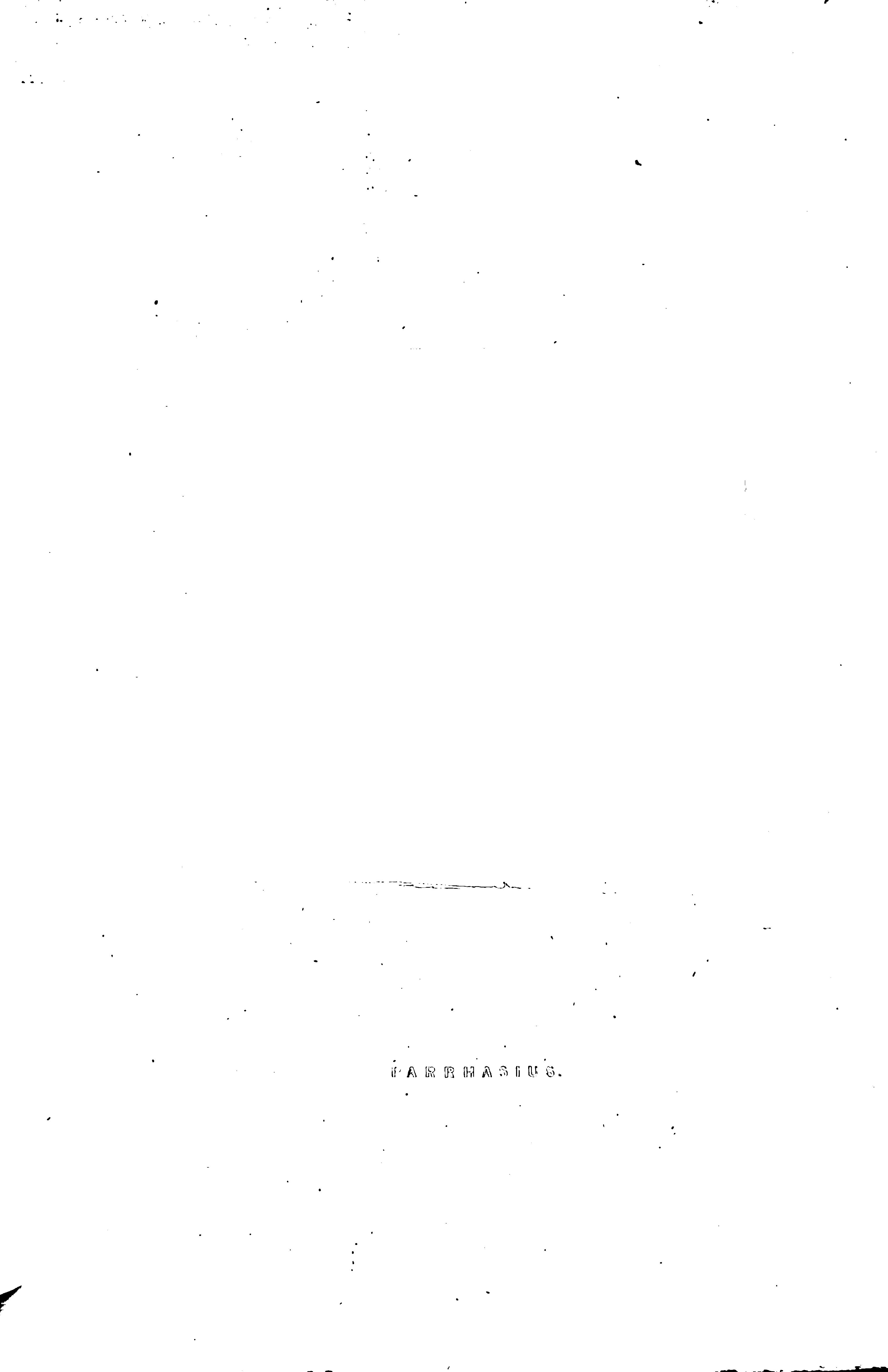
 ELeutze
PARRHASIUS. WHumphys
ELeutze
PARRHASIUS. WHumphys
10 NO 1900 ATUSEUN
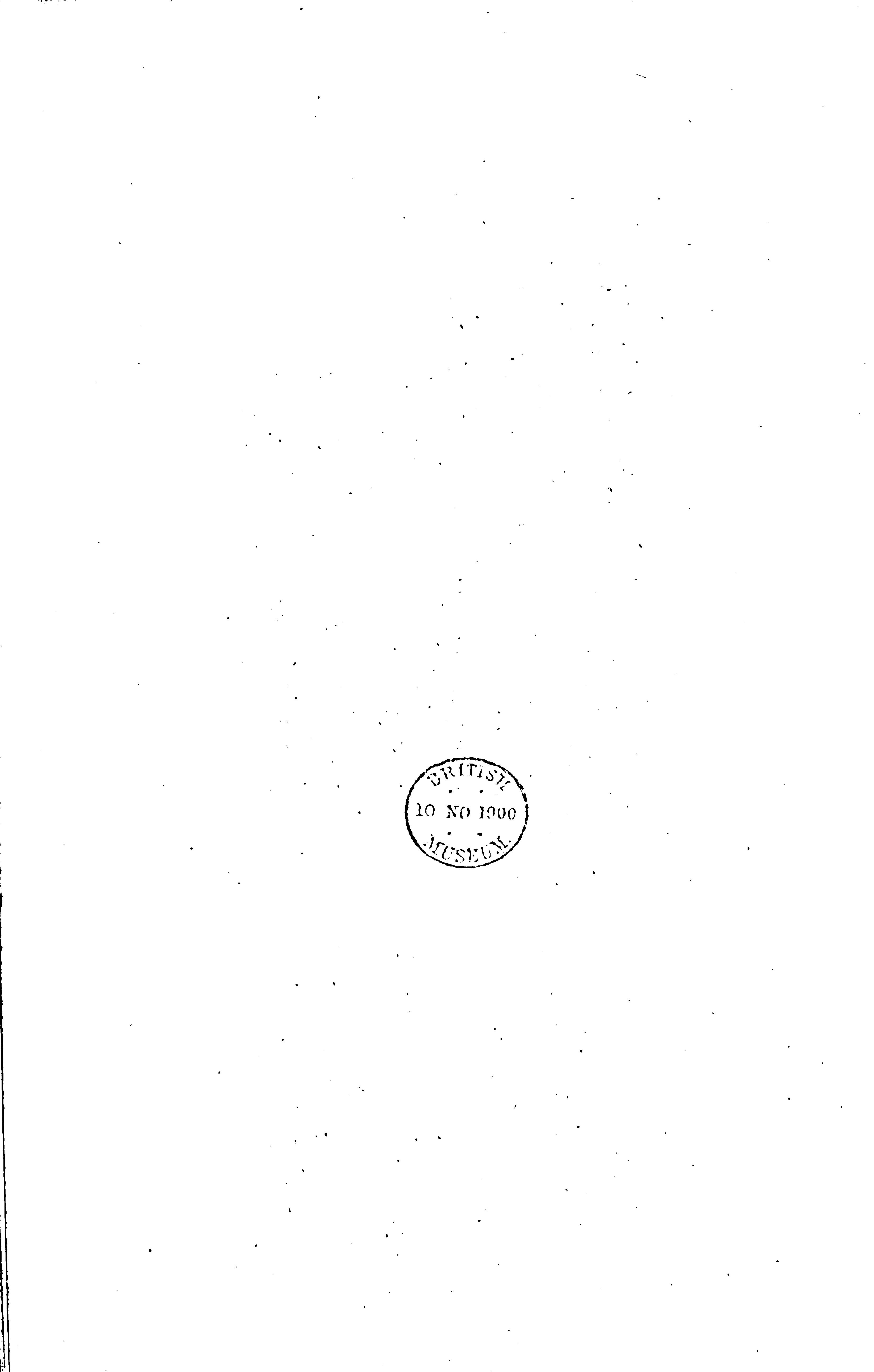

"No, no, old man! we die
Even as the flowers, and we shall breathe away Our life uponthe chance wind, even as they!
Strain well thy fainting eye-
For when that bloodshot quivering is o'er, The light of heaven will never reach thee more.
"Yet there's a deathless name!
A spirit that the smothering vault shall spurn, And like a steadfast planet mount and burnAnd though its crown of flame
Consumed my brain to ashes as it shone, By all the fiery stars! I'd bind it on!
(6Ay-though it bid me rifle
My heart's last fount for its insatiate thirstThough every life-strung nerve be madden'd first
Though it should bid me stifle
The yearning in my throat for my sweet child, And taunt its mother till my brain went wild-
"All-I would do it allSooner than die, like a dull worm, to rot
Thrust foully into earth to be forgot!
Oh heavens ! but I appal
Your heart, old man forgive-ha on your lives
Let him not faint !-rack him till he revives!
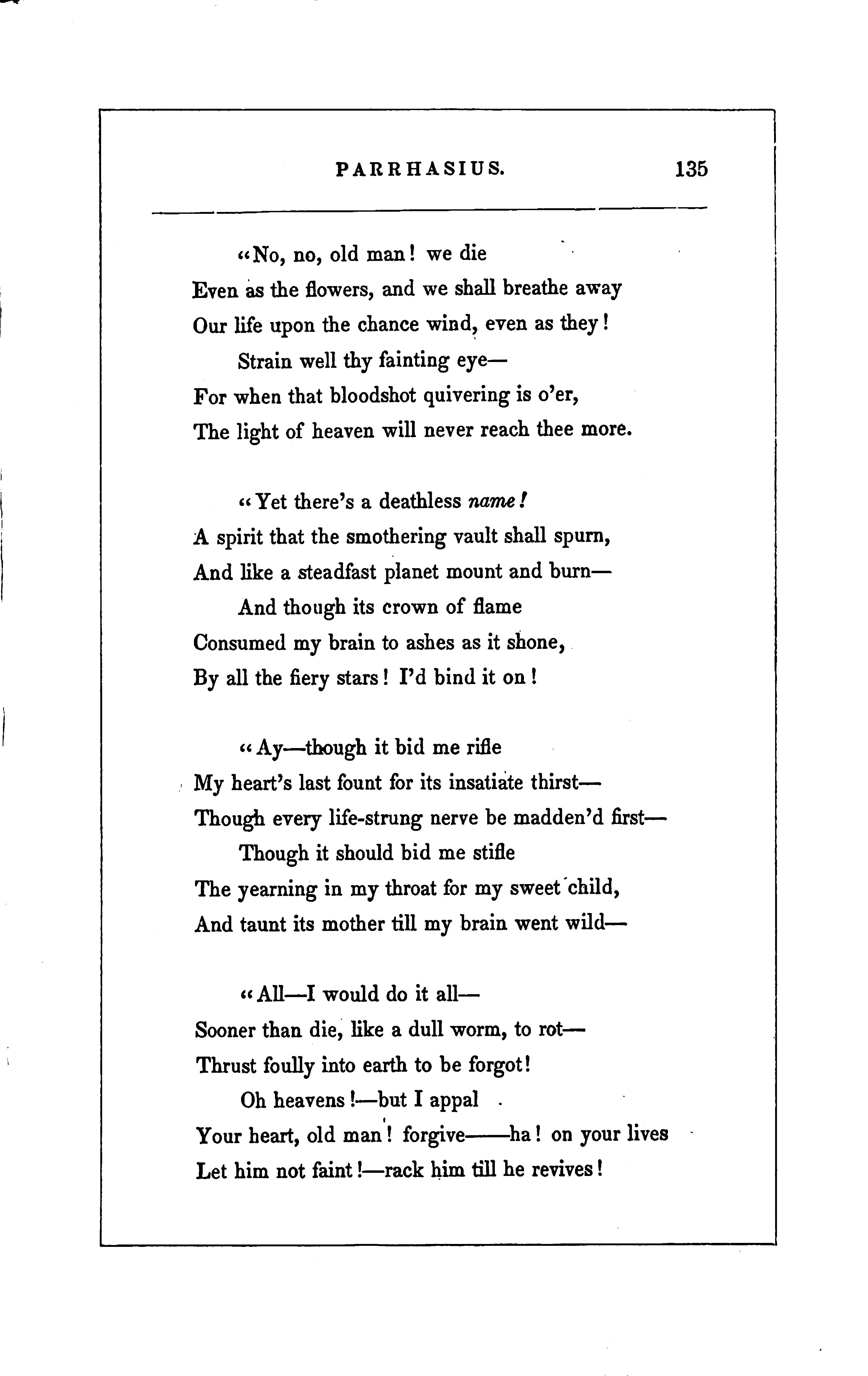

Vain-vain-give o'er! His eye Glazes apace. He does not feel you nowStand back ! I'll paint the death-dew on his brow! Gods ! if he do not die
But for one moment-one-till I eclipse
Conception with the scorn of those calm lips !
Shivering! Hark.! he mutters
Brokenly now that was a difficult breathAnother? Wilt thou never come, oh Death! Look ! howhis temple flutters ! Is his heart still? Aha! lift up his head! He shudders-gasps-Jove help him !-so-he's dead."
How like a mounting devil in the heart Rules th' unrein'd ambition! Let it once
But play the monarch, and its haughty brow Glows with a beauty that bewilders thought. And unthrones peace for ever. Putting on The verypomp of Lucifer, it turns The heart to ashes, and with not a spring
Left in the bosom for the spirit's lip, We look upon our splendour and forget on .
The thirst of which we perish ! Yet hath life
Many a falser.idol. There are hopes .
Promising well ; and love-touch'd dreams for some ; And passions, many a wild one ; and fair schemes
For gold and pleasure-yet will only this
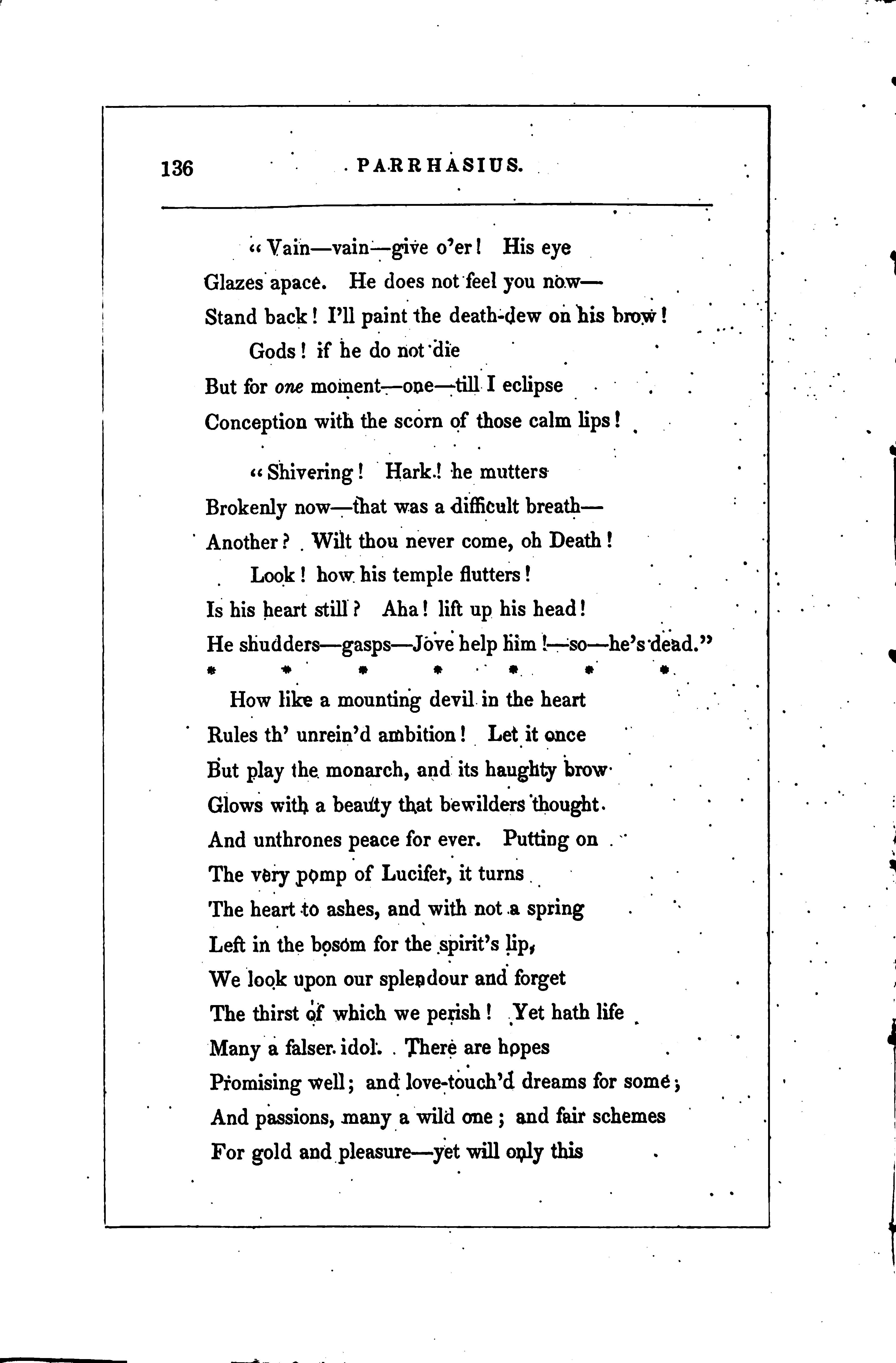

Balk not the soul-Ambition only, gives, Even of bitterness, a beakerfull! Friendship is but a slow-awaking dream, Troubled at best-Love is a lamp unseen, Burning to waste, or, if its light is found, Nursed for an idle hour, then idly brokenGain is a grovelling care, and Folly tires, And Quiet is a hunger never fedAnd from Love's very bosom, and from Gain, Or Folly, or a Friend, or from ReposeFrom all but keen Ambition-will the soul Snatch the first moment of forgetfulness To wander like a restless child away. Oh, if there were not better hopes than theseWere there no palm beyond a feverish fameIf the proud wealth flung back upon the heart Must canker in its coffers-if the links Falsehood hath broken will unite no moreIf the deep-yearning love, that hath not found Its like in the cold world, must waste in tearsIf truth, and fervour, and devotedness, Finding no worthy altar, must return And die of their own fulness-if beyond The grave there is no heaven in whose wide air
The spirit may find room, and in the love Of whose bright habitants the lavish heart. May spend itself what thrice-mock'dfools are we ! M2
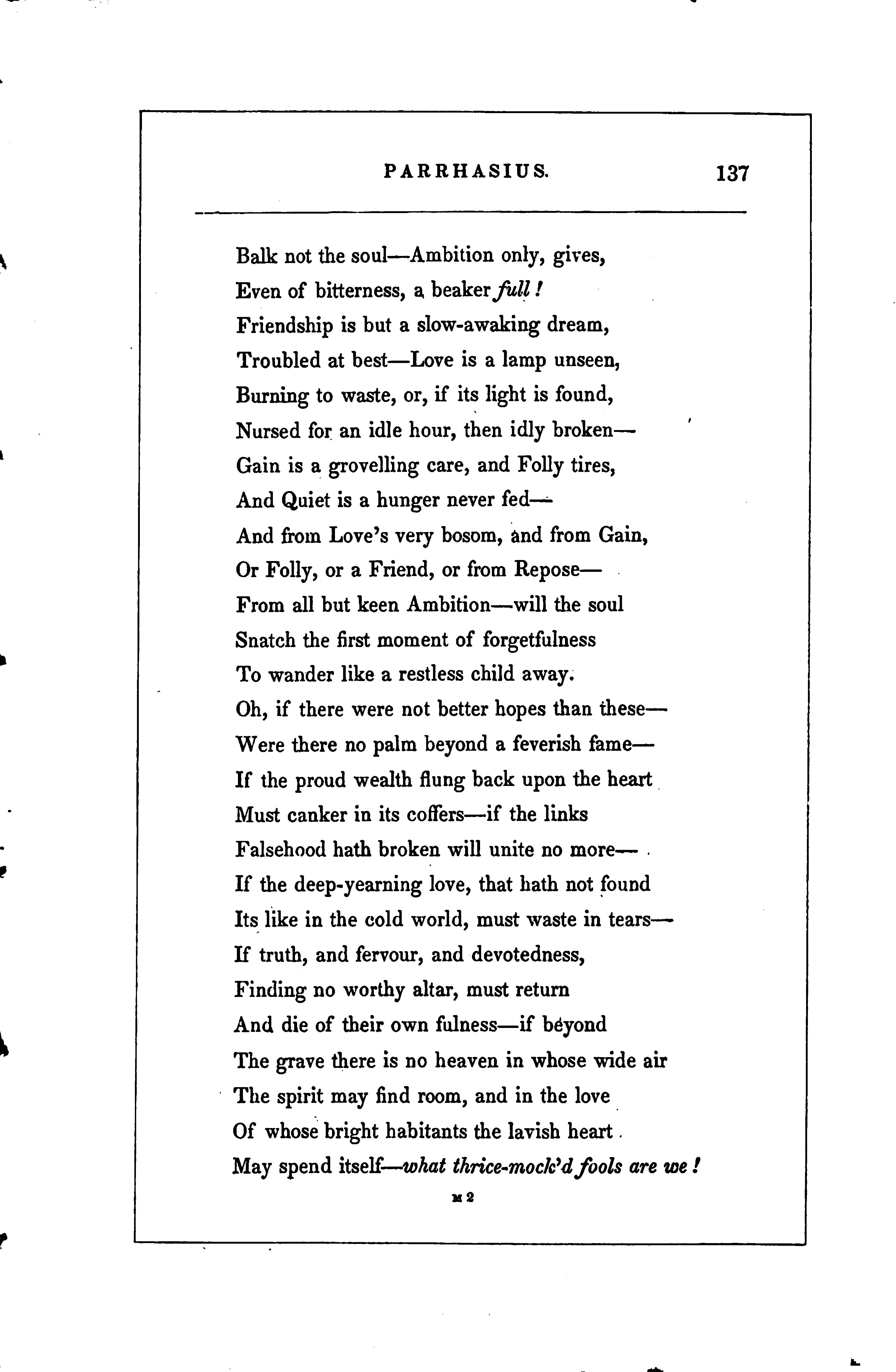

138 SCHOLAR OF THEBET BEN KHORAT.
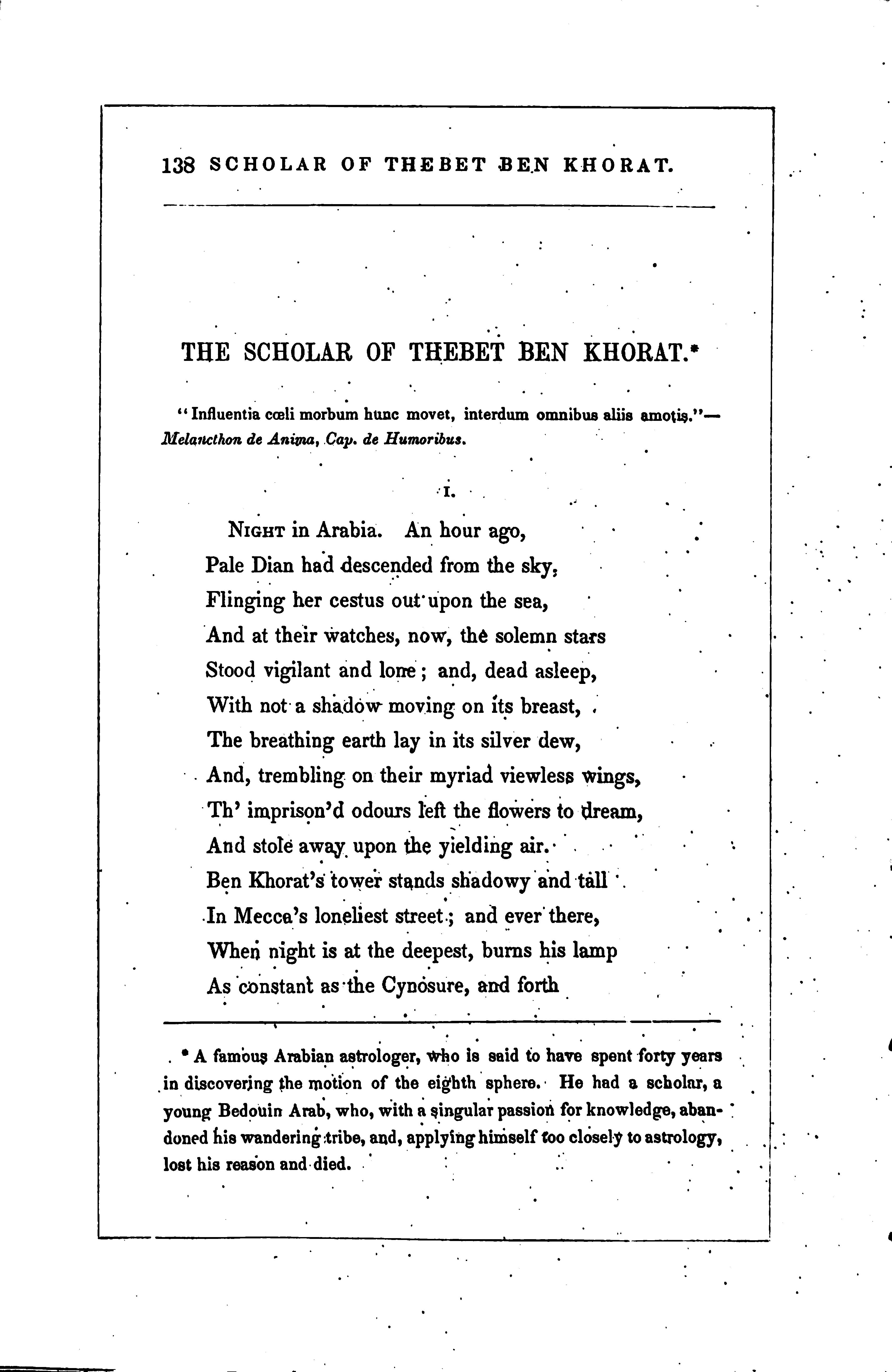
"Influentia c li morbum hunc movet, interdum omnibus aliis amotis." Melancthonde Anima, Cap. de Humoribus.
NIGHT in Arabia. An hour ago, Pale Dian had descended from the sky, Flinging her cestus out upon the sea, And attheir watches, now, the solemn stars. Stood vigilant and lore ; and, dead asleep, With not a shadow moving on its breast, The breathing earth lay in its silver dew, And, trembling on their myriad viewless wings, Th' imprison'd odours left the flowers to dream, And stole away upon the yielding air.
Ben Khorat's tower stands shadowy and tall . In Mecca's loneliest street; and ever there, When night is at the deepest, burns his lamp As constant as the Cynosure, and forth
* A famous Arabian astrologer, who is said to have spent forty years in discovering the motion of the eighth sphere. He had a scholar, a young Bedouin Arab, who, with a singularpassion forknowledge, abandonedhiswanderingtribe, and, applyinghimselftooclosely toastrology, lost his reasonand died.

From his loop'd window stretch the brazen tubes, Pointing:for ever at the central star
Of that dim nebula just lifting now
Over Mount Arafat. The sky to-night Is of a clearer blackness than is wont, And far within its depths the colour'd stars*
Sparkle like gems-capricious Antarest
Flushing and paling in the Southern arch ; And azure Lyra, like a woman's eye, Burning with soft blue lustre ; and away
Over the desertthe bright Polar star, White as a flashing icicle ; and here, Hung like a lamp above th' Arabian sea, Mars with his dusky glow ; and fairer yet, Mild Sirius, tinct with dewy violet,
"Even to the naked eye, the stars appear of palpably different colours; butwhenviewed with a prismatic glass, they may be very accuratelyclassed into the red, theyellow, the brilliantwhite, the dull white, and the anomalous. This is true also of the planets, which shine by reflected light, and of course the difference of colour must be supposed to arise from their different powers to absorb and reflect the rays ofthe sun. The original composition ofthe stars, and the different dispersive powers oftheir different atmospheres, may be supposed to account also forthis phenomenon." :
This star exhibits a peculiar quality a rapid and beautiful change inthe colour of its light; every alternate twinkling being ofan intense reddish crimsoncolour, andthe answering one of a brilliant white. . When seen with a prismatic glass, Sirius shows a large brush of exceedinglybeautiful rays.
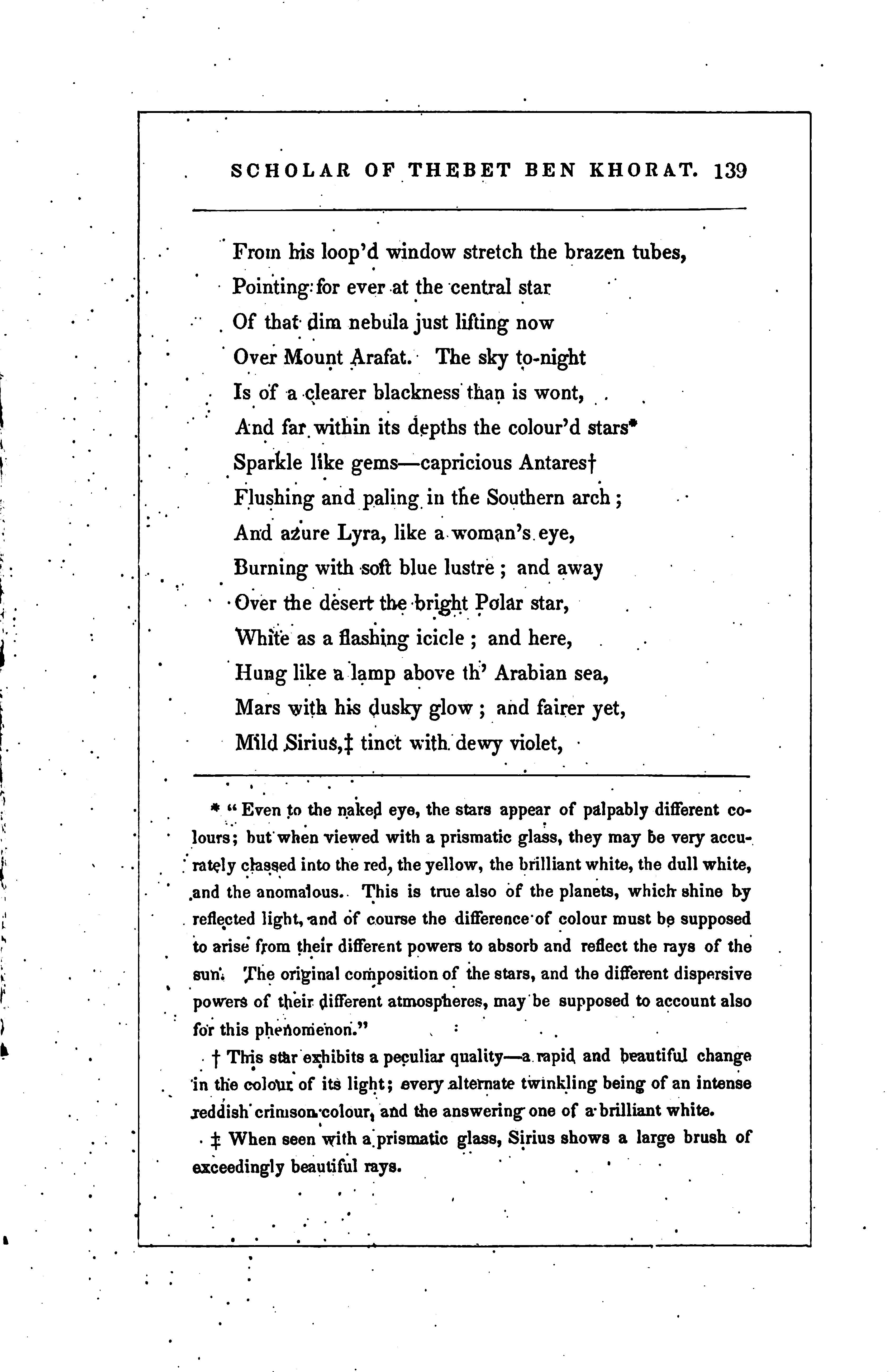

Set like a flower upon the breast of Eve;
And in the zenith the sweet Pleiades,*
(Alas that even a star may pass from heaven
And not be miss'd !)-the linkéd Pleiades
Undimm'd are there, though from the sister band
The fairest has gone down ; and, South away, Hirundof with its little company;
And white-brow'd Vesta, lamping on her path
Lonely and planet-calm, and, all through heaven, Articulate almost, they troop to-night,
Like unrobed angels in a prophet's trance.
Ben Khorat knelt before his telescope, Gazing with earnest stillness on the stars.
The gray hairs, struggling from his turban-folds, Play'd with the entering wind upon his cheeks, And on his breast his venerable beard
With supernatural whiteness loosely fell.
The black flesh swell'd about his sandal thongs, Tight with his painful posture, and his lean
* The Pleiades are vertical in Arabia.
An Arabic constellation placed instead of the Piscis Australis, be cause the swallow arrives in Arabia about the time of the heliacal rising of the Fishes.
An anachronism, the author is aware. The telescope was not invented fora century or two after the time of Ben Khorat.
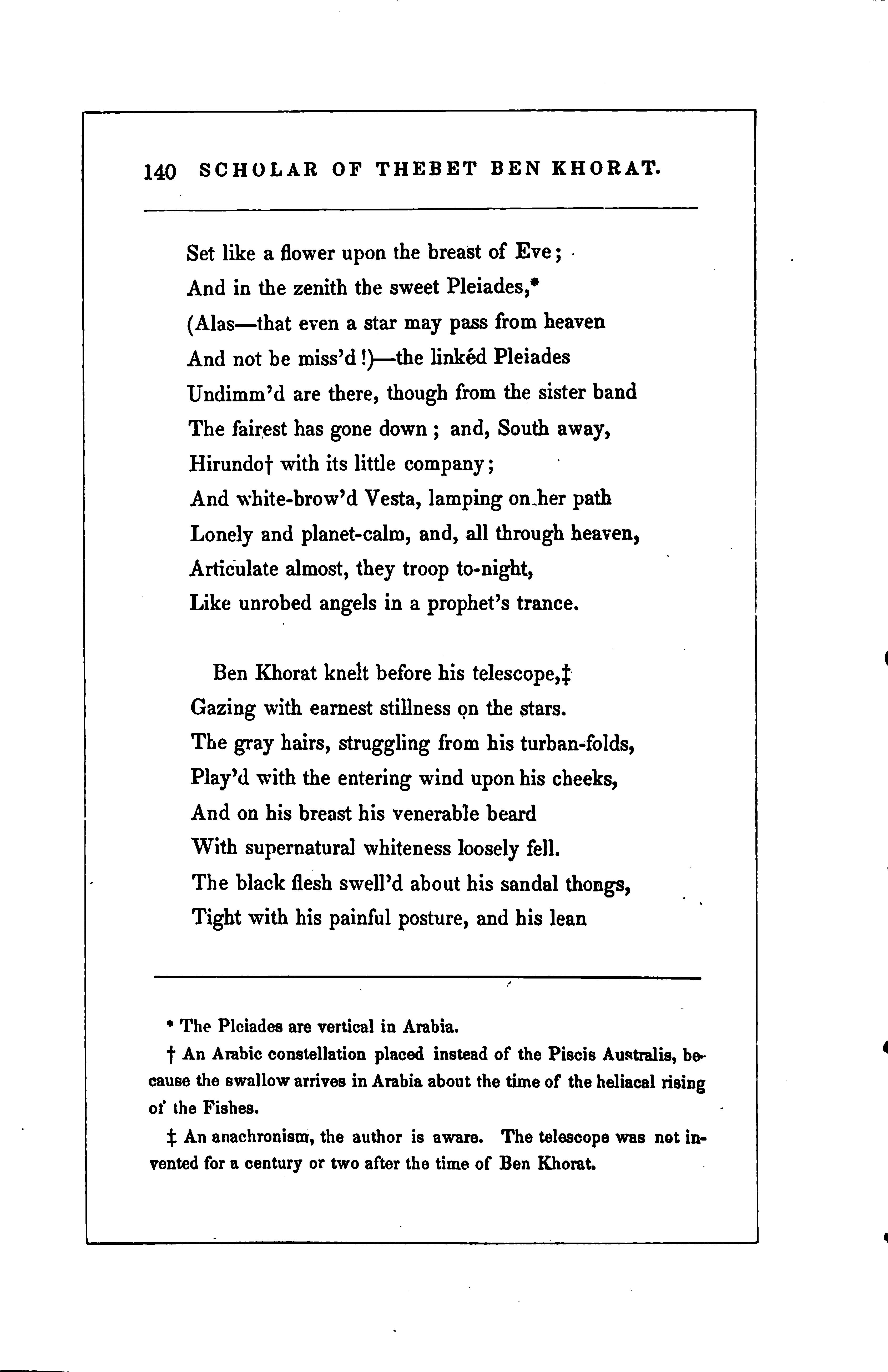

And wither'd fingers to his knees were clench'd, And the thin lashes of his straining eye Lay with unwinking closeness. to the lens, Stiffen'd with tense up-turning. Hour by hour, Tillthe stars melted in the flush of morn, The old astrologer knelt moveless there, Ravish'd past pain with the bewildering spheres, And, hour by hour, with the same patient thought, Pored his pale scholar on the characters Of Chaldee writ, or, as his gaze grew dim
With weariness, the dark-eyed Arab laid His head upon the window and look'd forth Upon the heavens awhile, until the dews
And the soft beauty of the silent night Cool'd his flush'd eyelids, and then patiently He turn'd unto his constant task again.
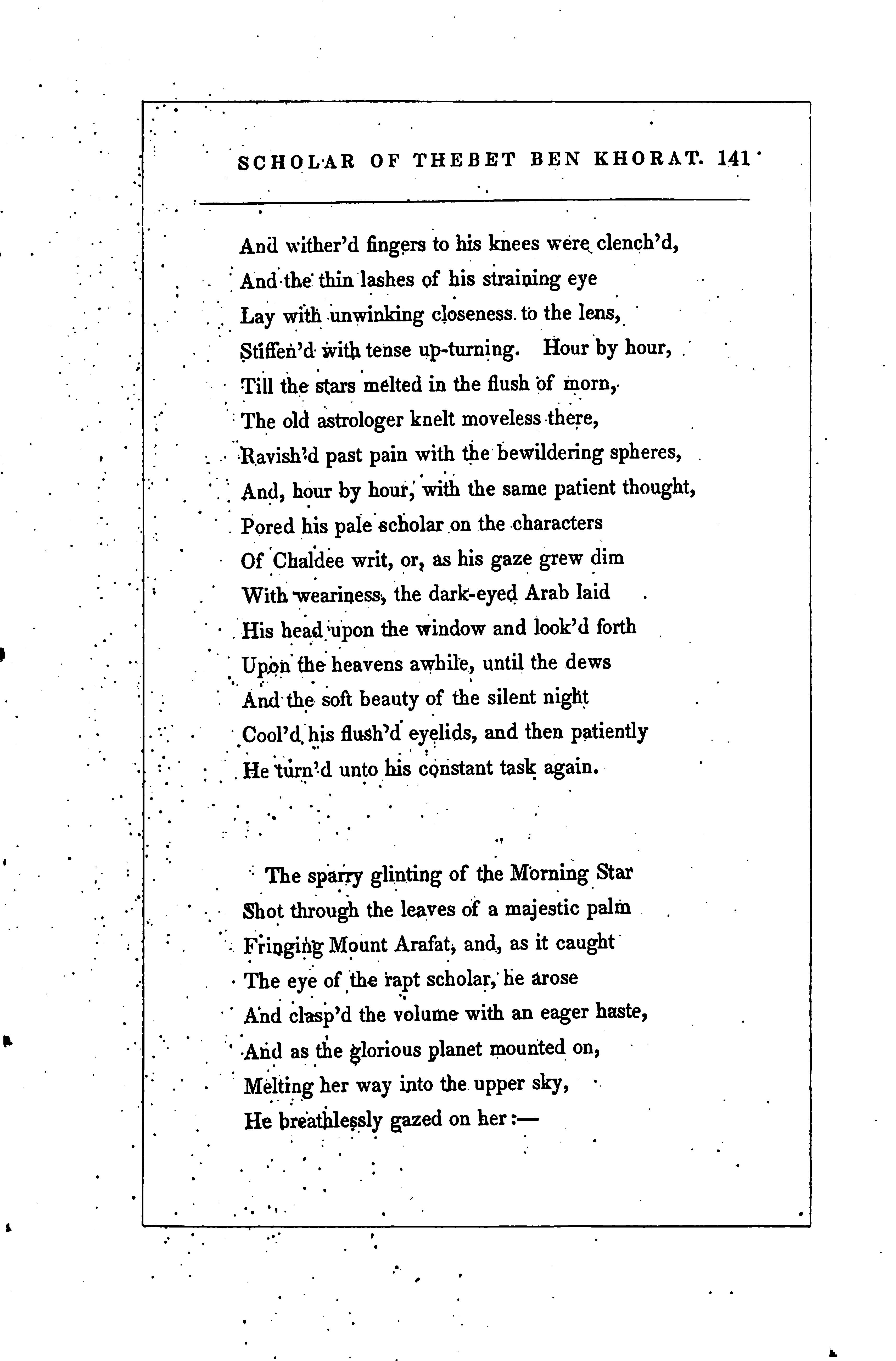
The sparry glinting of the Morning Star Shot throughthe leaves of a majestic palm FringingMount Arafat, and, as it caught
The eye of the rapt scholar, he arose And clasp'd the volume with an eager haste, And as the glorious planet mounted on, Melting her way into the upper sky, He breathlessly gazed on her:

"Star of the silver ray!
Bright as a god, but punctual as a slave
What spirit the eternal canon gave That bends thee to thy way?
What is the soul that, on thine arrowy light, Is walking earth and heaven in pride to-night ?
"We know when thou wilt soar
Over the mount-thy change, and place, and time 'Tis written in the Chaldee's mystic rhyme
As 'twere a priceless lore !
I knew as much, when, in my Bedouin garb, I cours'dthe desert on my flying barb!
"How oft amid the tents
Upon Sahara's sands, I've walk'd alone, Waiting all night for thee, resplendent one !
With what magnificence,
In the last watches, to my thirsting eye, Thy passionate beauty flush'd into the sky'
"Oh God! how flew my soul
Out to thy glory-upward on thy ray
Panting as thou ascendedst on thy way, As ifthine own control-
This searchless spirit that I cannot findHad set its radiant law upon my mind!
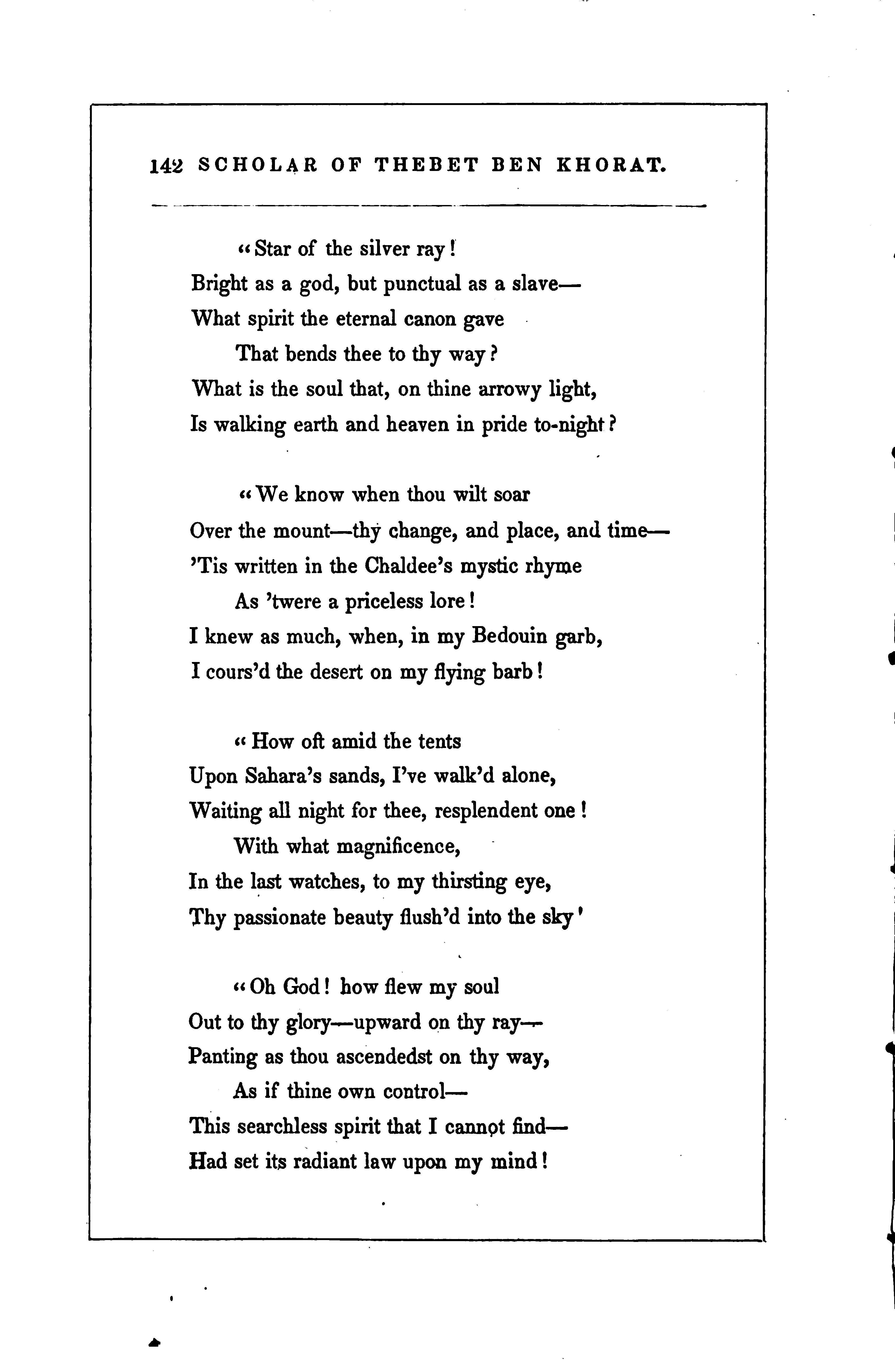

"More than all stars in heaven
I felt thee in my heart ! my love became A frenzy, and consumed me with its flame.
Ay, inthe desert even-
My dark-eyed Abra coursing at my sideThe star, not Abra, was my spirit's bride!
"My Abrais no more!
My desert-bird' is in a stranger's stall
My tribe, my tent-I sacrificed them all
For this heart-wasting lore !
Yet, than all these, the thought is sweeter farThou wert ascendant at my birth, bright star!
"The Chaldee calls me thineAnd in this breast, that I must rend to be A spirit upon wings of light like thee, I feel that thou art mine!
Oh God! that these dull fetters would give way And let me forth to track thy silver ray!" Ben Khorat rose
And silently look'd forth upon the East. The dawn was stealing up into the sky
On its gray feet, the stars grew dim apace, And faded, till the Morning Star alone,
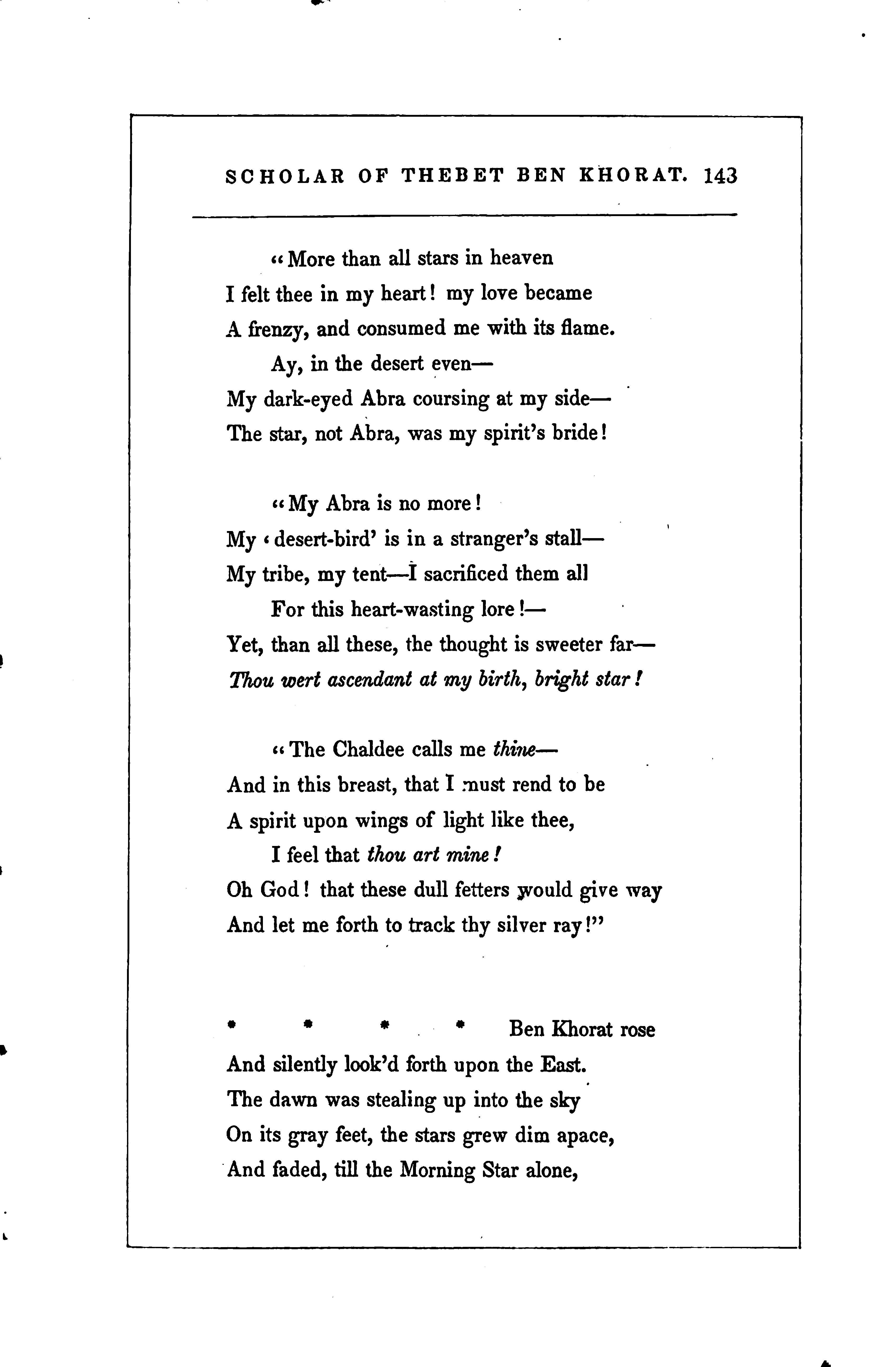

Soft as a molten diamond's liquid fire, Burn'd in the heavens. The morn grew freshlier-
The upper clouds were faintly touch'd with gold; The fan-palms rustled in the early air ;
Daylight spread cool and broadly to the hills ; And still the star was visible, and still
The young astronomer, with straining eye, Drank its departing light into his soul. It faded-melted-and the fiery rim
Of the clear sun came up, and painfully
The passionate scholar press'd upon his eyes
His dusky fingers, and, with limbs as weak
As a sick child's, turn'd fainting to his couch, And slept.
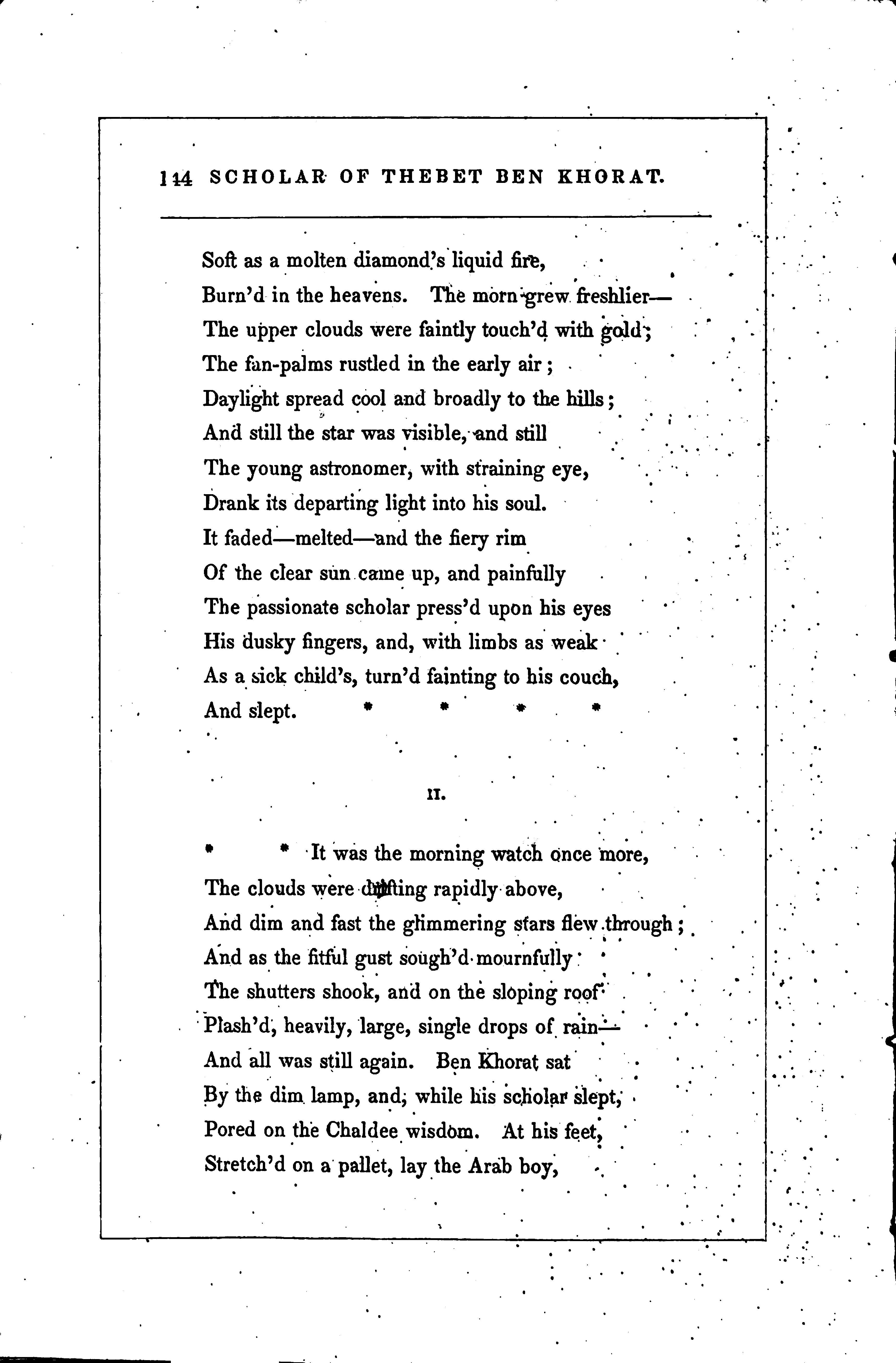
* It wasthe morning watch once more,
The clouds were drifting rapidly above, And dim and fast the glimmering stars flew through ; And as the fitful gust sough'd mournfully:
The shutters shook, and on the sloping roof
Plash'd, heavily, large, single drops of rainAnd all was still again. Ben Khorat sat Bythe dim lamp, and, while his scholar slept, Pored on the Chaldee wisdom. At his feet, Stretch'd on a pallet, lay the Arab boy,

Muttering fast in his unquiet sleep, And working his dark fingers in his palms Convulsively. His sallow lips were pale,
And, as they moved, his teeth show'd ghastly through, White as a charnel bone, and-closely drawn Upon his sunken eyes, as if to press
Some frightful image from the bloodshot balls
His lids a moment quiver'd, and again Relax'd, half open, in a calmer sleep.
Ben Khorat gazed upon the dropping sands Of the departing hour. The last white grain Fell through, and with the tremulous hand of age
The old astrologer reversed the glass ; And, asthe voiceless monitor went on, Wasting and wasting with the precious hour, He look'd upon it with a moving lip, And, starting, turn'd his gaze upon the heavens, Cursing the clouds impatiently.
" 'Tis time!"
Mutter'd the dying scholar, and he dash'd The tangled hair from his black eyes away, And, seizing on Ben Khorat's mantle-folds, He struggled to his feet, and falling prone Upon the window-ledge, gazed steadfastly Into the East:-
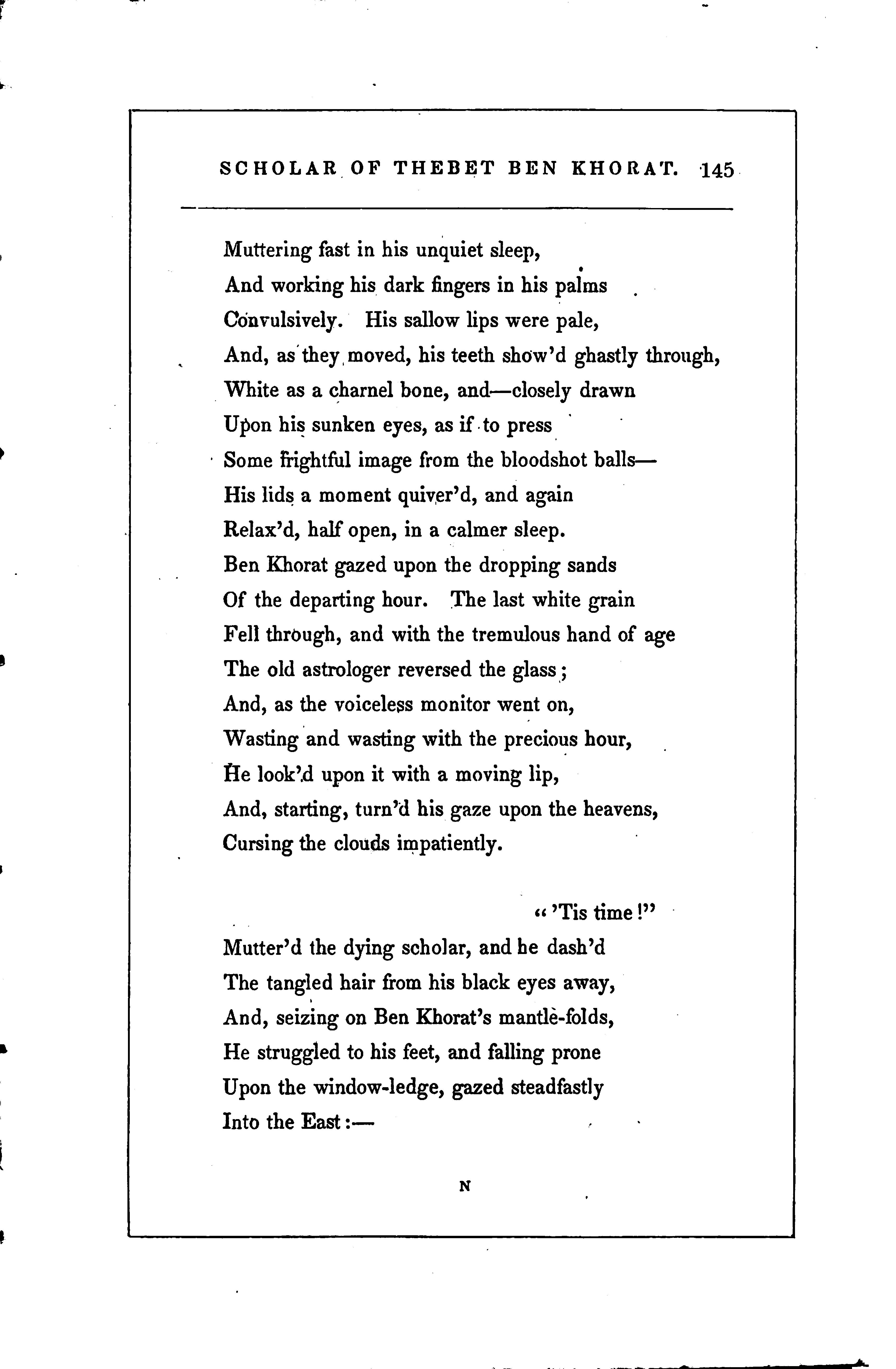

" There is a cloud between-
She sits this instant onthe mountain's brow, And that dusk veil hides all her glory nowYet floats she as serene.
Into the heavens ! -Oh God! that even so ·I could o'ermount my spirit-cloud, and go!
"The cloud begins to drift !
Aha! fling open ! 'tis the star- the sky!
Touch me, immortal mother ! and I fly!
Wider! thou cloudy rift!
Let through!-such glory should have radiant room!
Let through ! a star-child on its light goes home !
Speak to me, brethren bright!
Ye who are floating in these living beams!
Ye who have come to me in starry dreams!
Ye who have wing'd the light
Of our bright mother with its thoughts of flame(I knew it pass'd through spirits as it came)
Tell me what power have ye?
What are the heights ye reach upon your wings?
What knowye of the myriad wondrous things I perish but to see?
Are ye thought-rapid?-Can ye fly as far As instant as a thought, from star to star?
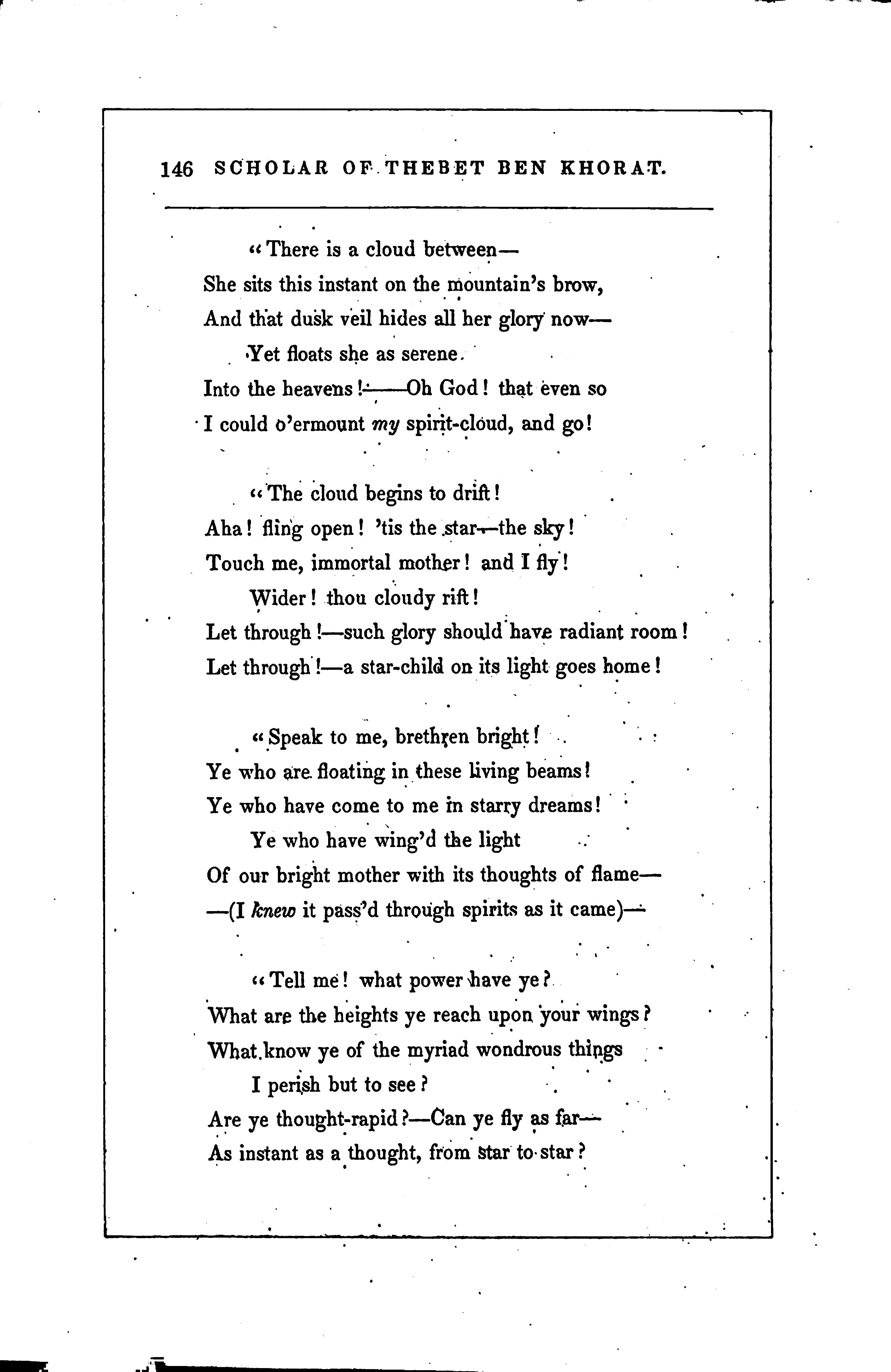

"Where has the Pleiad gone?
Where have all missing stars* found light and home? Who bids the Stella Mirat go and come?
Why sits the Pole-star lone?
And why, like banded sisters, through the air Go in bright troops the constellations fair?.
"Ben Khorat! dost thou mark?
The star! the star? By heaven ! the cloud drifts o'er!
Gone-and I live ! nay-will my heart beat more?
Look! master! 'tis all dark!
Not a clear speck in heaven?-my eyeballs smother!
Break through the clouds once more ! oh starry mother!
"I will lie down ! Yet stay, The rain beats out the odour from the gums,
# 66Missing stars" are often spoken ofin the old books ofastronomy. Hipparchus mentions one that appeared and vanished very suddenly; and inthe beginning ofthe sixteenth century Kepler discovered a new star near the heel of the right foot of Serpentarius, "so bright.and sparklingthatitexceeded any thinghehadever seenbefore." He "took notice thatit was every moment changing into some of the colours of the rainbow, except when it was near the horizon, when it was generally white." It disappeared in the following year, and has not been seen since.
A wonderful starin the neck ofthe Whale, discovered byFabricius in the fifteenth century. It appears and disappears seventimes in six years, and continues in the greatest lustre for fifteen days together. 1
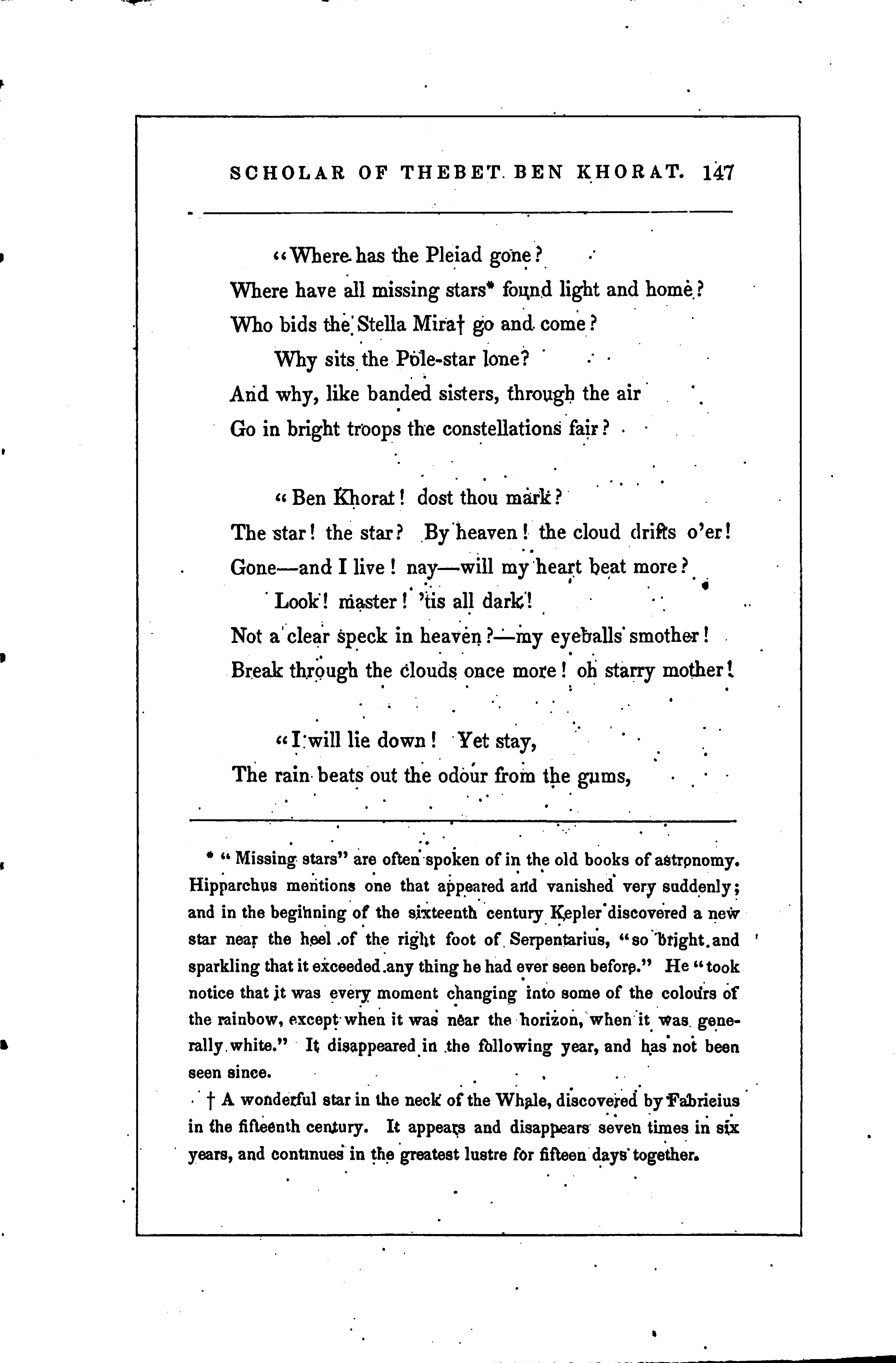

And strangely soft to-night the spice-wind comes ! I am a child alway
When it is on my forehead ! Abra sweet! Would I were in the desert at thy feet!
"My barb! my glorious steed! Methinks my soul would mount upon its track
More fleetly, could I die upon thy back! How would thy thrilling speed
Quicken my pulse !-Oh Allah ! I get wild!
Would that I were once more a desert-child !
"Nay-nay-I had forgot !
My mother! my star mother !-Ha! my breath Stifles !- -more air!- -Ben Khorat! this is-death!
Touch me- -I feel you not!
Dying !-Farewell ! good master !-room! more room! Abra! I loved thee ! star! bright star ! I come!"
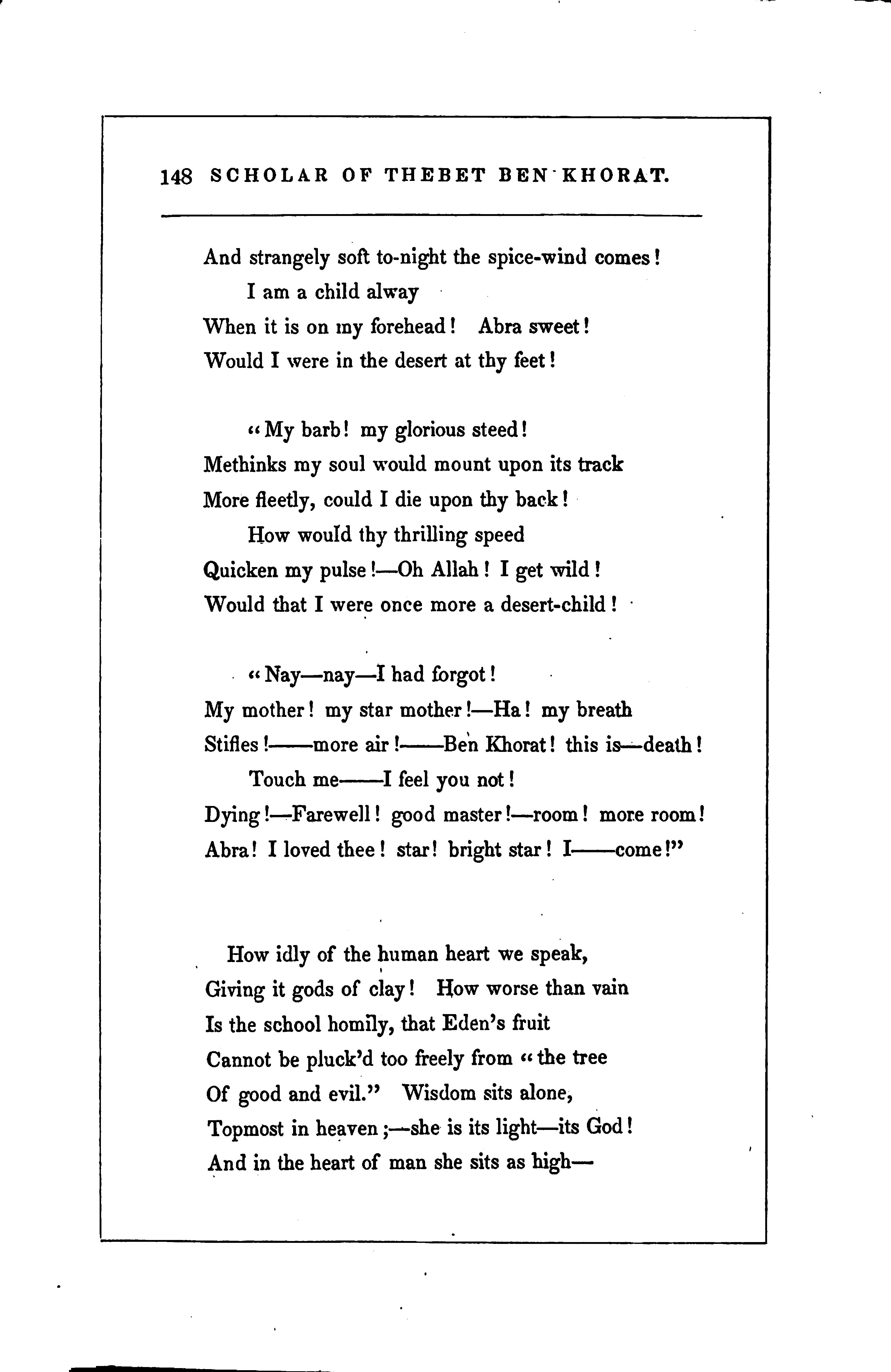
How idly of the human heart we speak, Giving it gods of clay! How worse than vain
Is the school homily, that Eden's fruit
Cannot be pluck'd too freely from "the tree
Of good and evil." Wisdom sits alone, Topmost in heaven ;-she is its light-its God ! And in the heart of man she sits as high-

Though grovelling eyes forget her oftentimes, Seeing butthis world's idols. The pure mind Sees her for ever : and in youth we come Fill'd with her sainted ravishment, and kneel, Worshipping God through her sweet altar-fires, And then is knowledge "good." We come too oftThe heart grows proud with fulness, and we soon Look with licentious freedom on the maid Throned in celestial beauty. There she sits, Robed in her soft and seraph loveliness, Instructing and forgiving, and we gaze Until desire grows wild, and, with our hands Upon her very garments, are struck down, Blasted with a consuming fire from heaven! Yet, oh! how full of music from her lips Breathe the calm tones of wisdom! Human praise Is sweet-till envy mars it; and the touch Of new-won gold stirs up the pulses well ; And woman's love, if in a beggar's lamp 'Twould burn, might light us clearly throughthe world ; But Knowledge hath a far more 'wildering tongue, And she will stoop and lead you to the stars, And witch you with her mysteries-till gold Is a forgotten dross, and power and fame Toys of an hour, and woman's careless love, Light as the breath that breaks it. He who binds His soul to knowledge steals the key of heavenN2
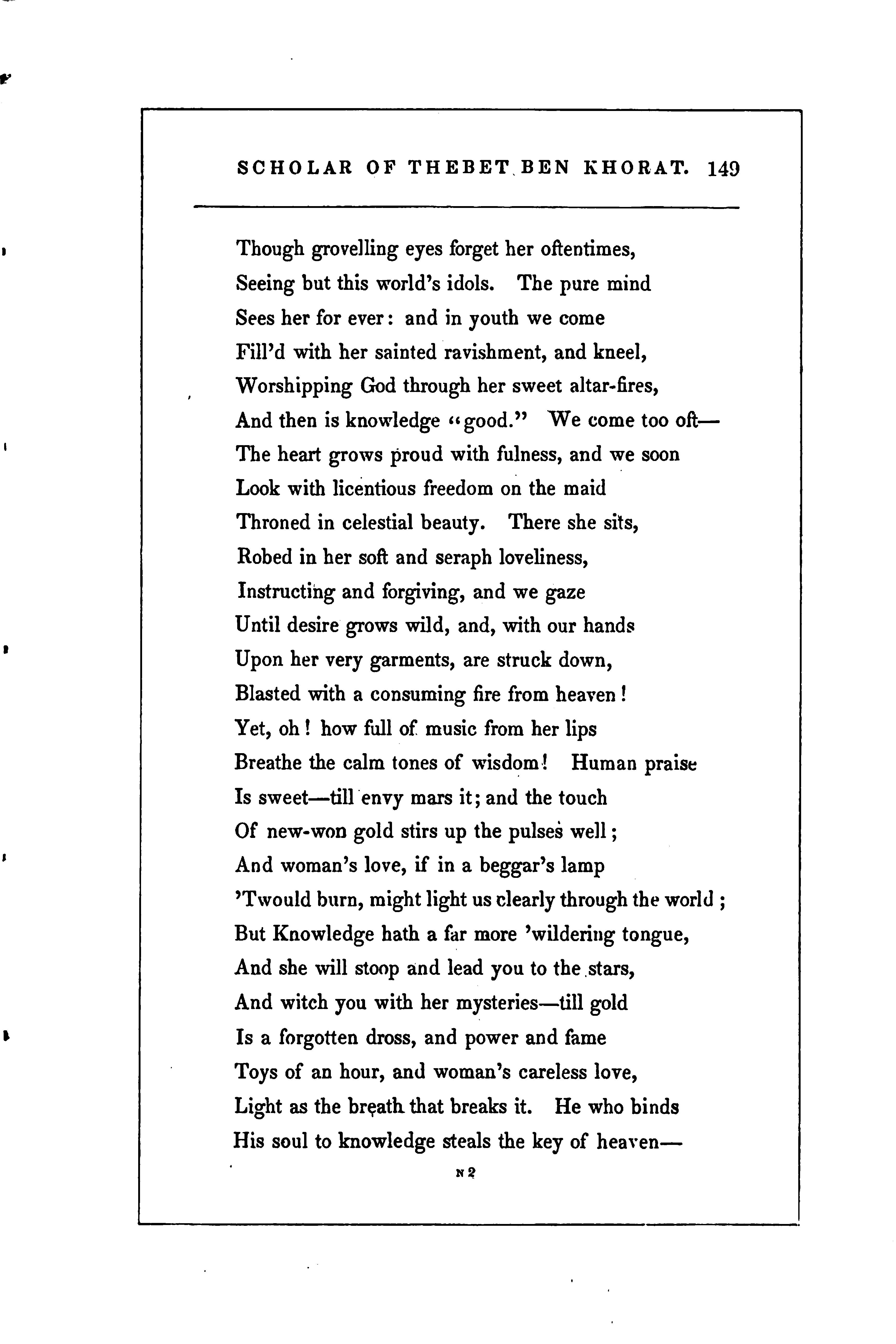

But 'tis a bitter mockery that the fruit May hang within his reach, and when, with thirst Wrought to a maddening frenzy, he would tasteIt burns his lips to ashes.
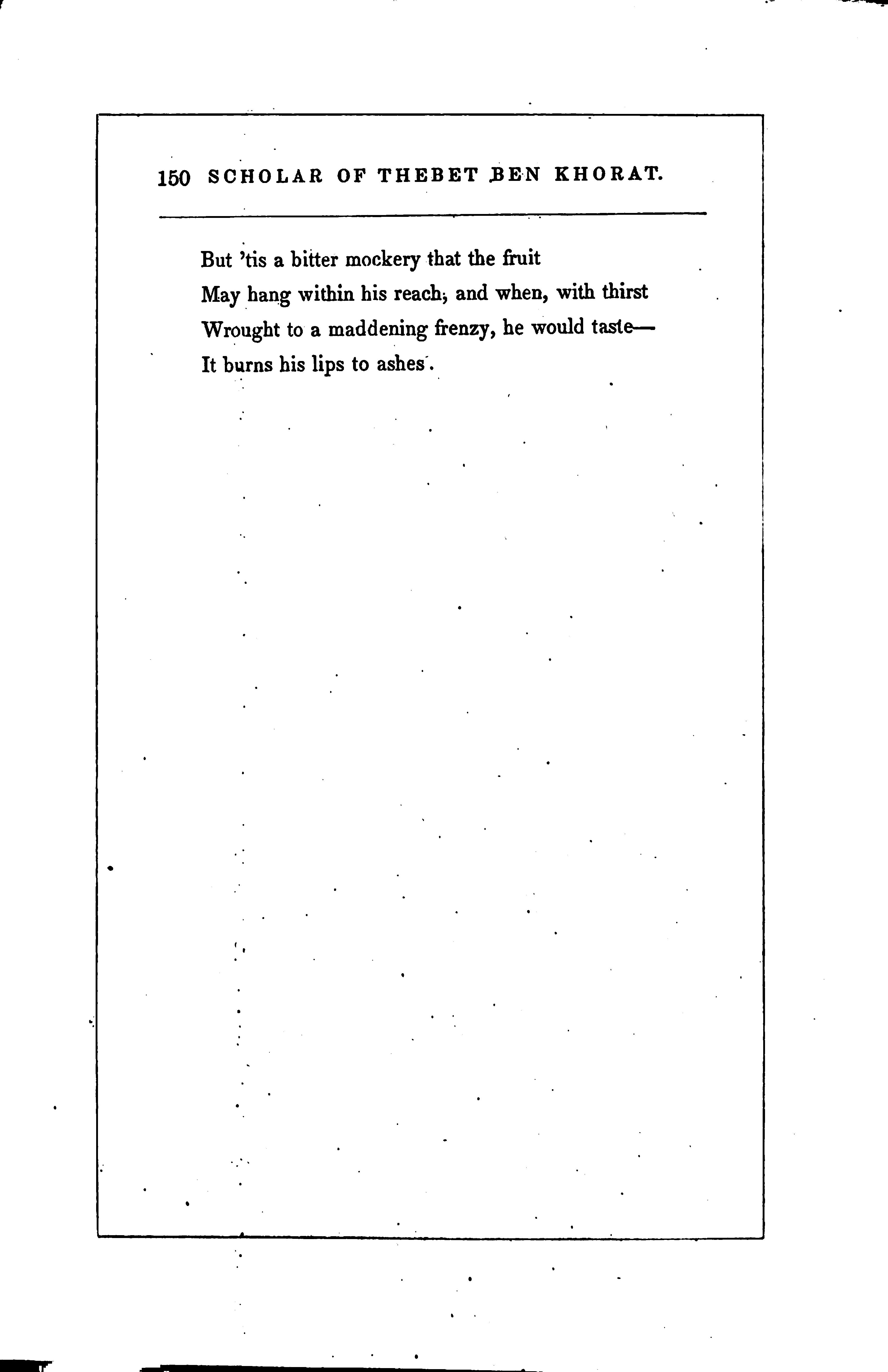

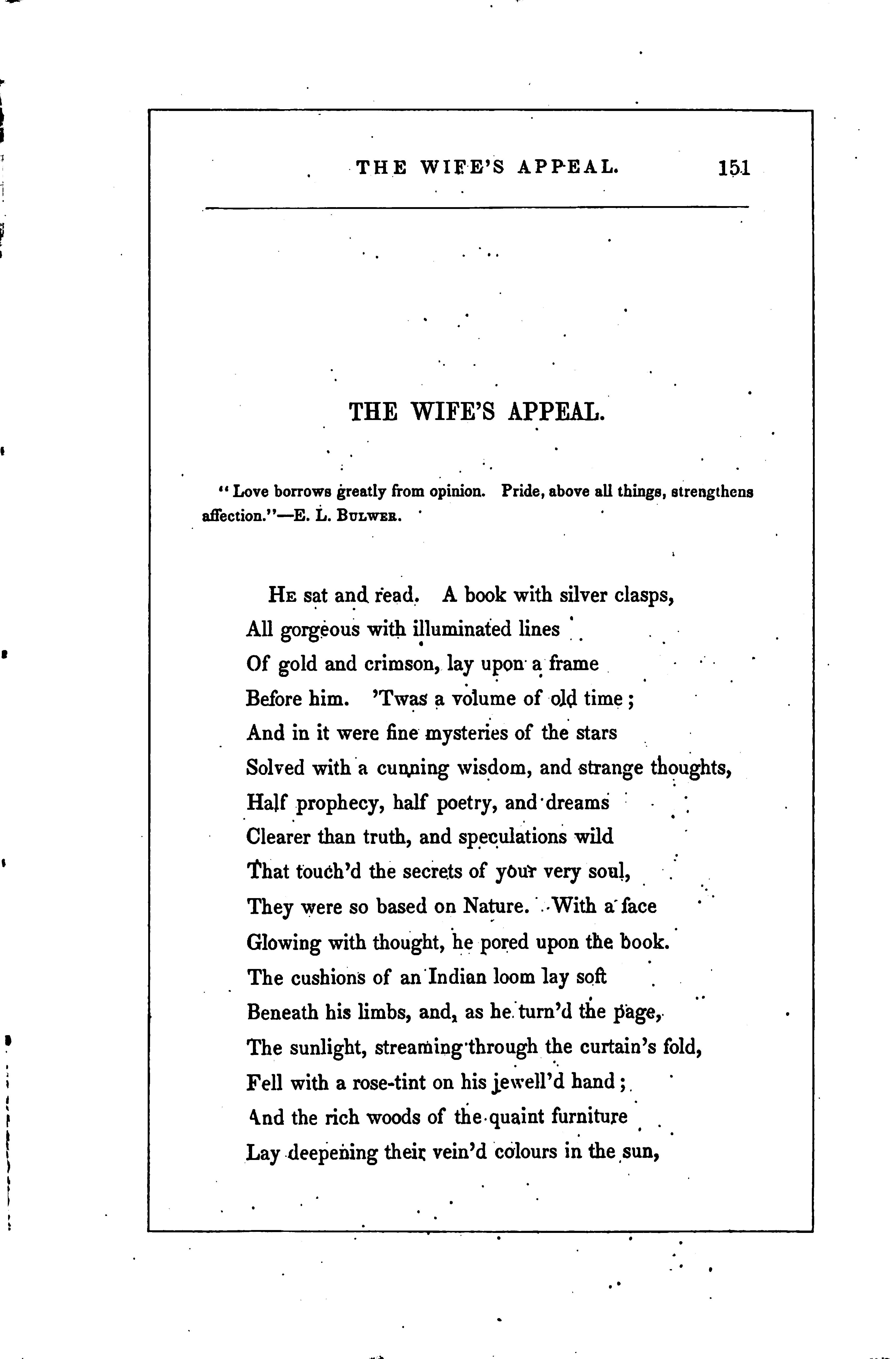
"Loveborrowsgreatly from opinion. Pride, above all things, strengthens affection."-E. L. BULWER.
He sat and read. A book with silver clasps, All gorgeous with illuminated lines Of gold and crimson, lay upon a frame Before him. 'Twas a volume of old time ; And in it were fine mysteries of the stars Solved with a cunning wisdom, and strange thoughts, Half prophecy, half poetry, and dreams Clearer than truth, and speculations wild That touch'd the secrets of your very soul, They were so based on Nature. With a face Glowing with thought, he pored upon the book. The cushions of an Indian loom lay soft Beneath his limbs, and, as he turn'd the page, The sunlight, streaming through the curtain's fold, Fell with a rose-tint on his jewell'd hand ; And the rich woods of the quaint furniture Lay deepening their vein'd colours in the sun,

And the stain'd marbles on the pedestals Stood like a silent company-Voltaire, With an infernal sneer upon his lips ; And Socrates, with godlike human love Stamp'd on his countenance ; and orators, Of times gone by that made them ; and old bards, And Medicean Venus, half divine. Around the room were shelves of dainty lore, And rich old pictures hung upon the walls. Where the slant light fell on them ; and wrought gems, Medallions, rare mosaics, and antiques From Herculaneum, the niches fill'd ; And on a table of enamel, wrought With a lost art in Italy, there lay Prints of fair women, and engravings rare, And a new poem, and a costly toy ; And in their midst a massive lamp of bronze Burning sweet spices constantly. Asleep Upon the carpet couch'd a graceful hound, Of a rare breed, and, as his master gave A murmur of delight at some sweet line, He raised his slender head, and kept his eye Upon him till the pleasant smile had pass'd From his mild lips, and then he slept again. The light beyond the crimson folds grew dusk, And the clear letters of the pleasant book Mingled and blurr'd, and the lithe hound rose up,
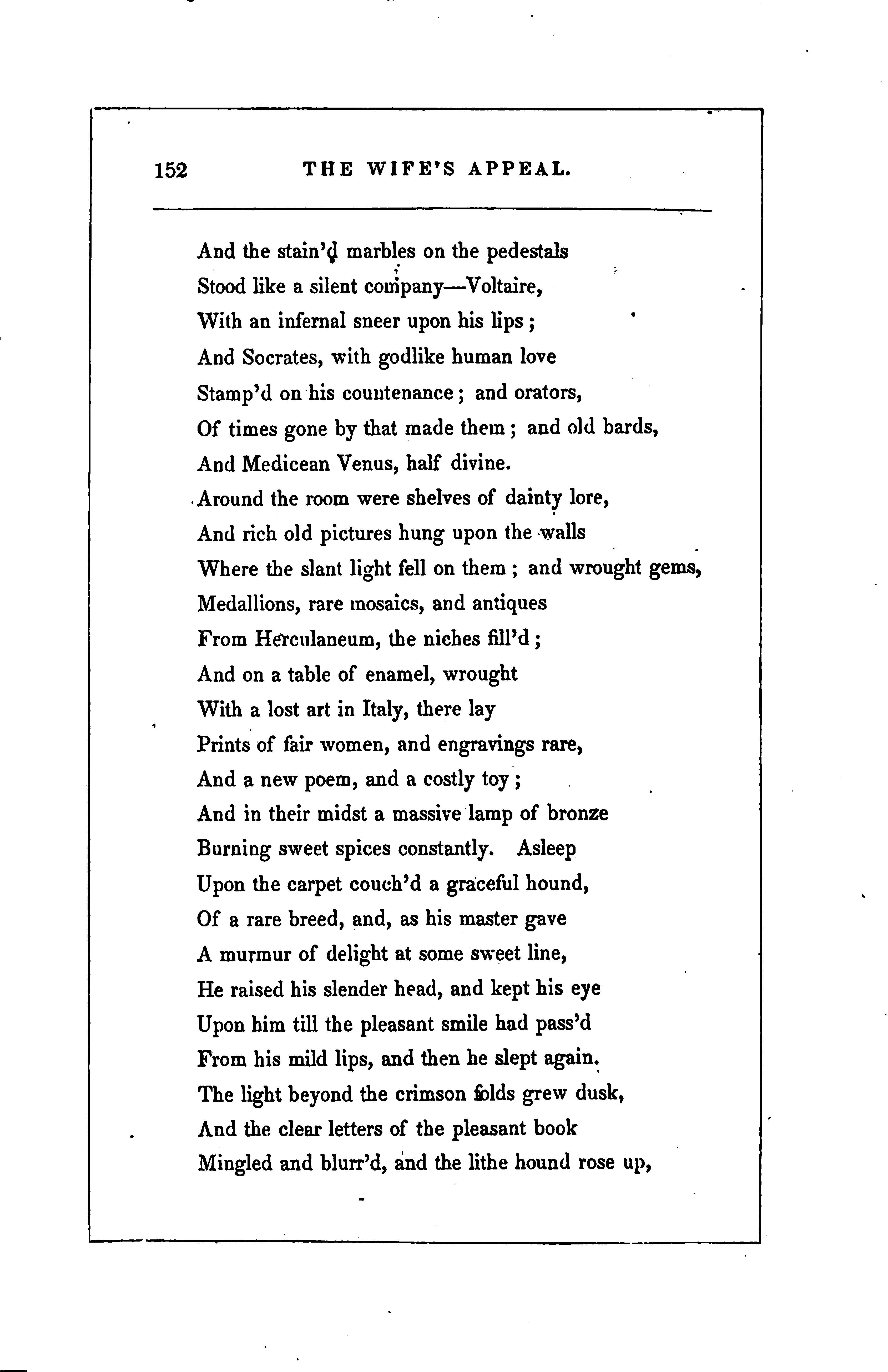

And, with his earnest eye upon the door, Listen'd attentively. It came as wontThe fall of alight foot upon the stairAnd the fond animal sprang out to meet His mistress, and caress the ungloved hand, He seem'd to know was beautiful. She stoop'd Gracefully down and touch'd his silken ears
As she pass'd in-then, with a tenderness, Half playful and half serious, she knelt Upon the ottoman and press'd her lips Upon her husband's forehead.
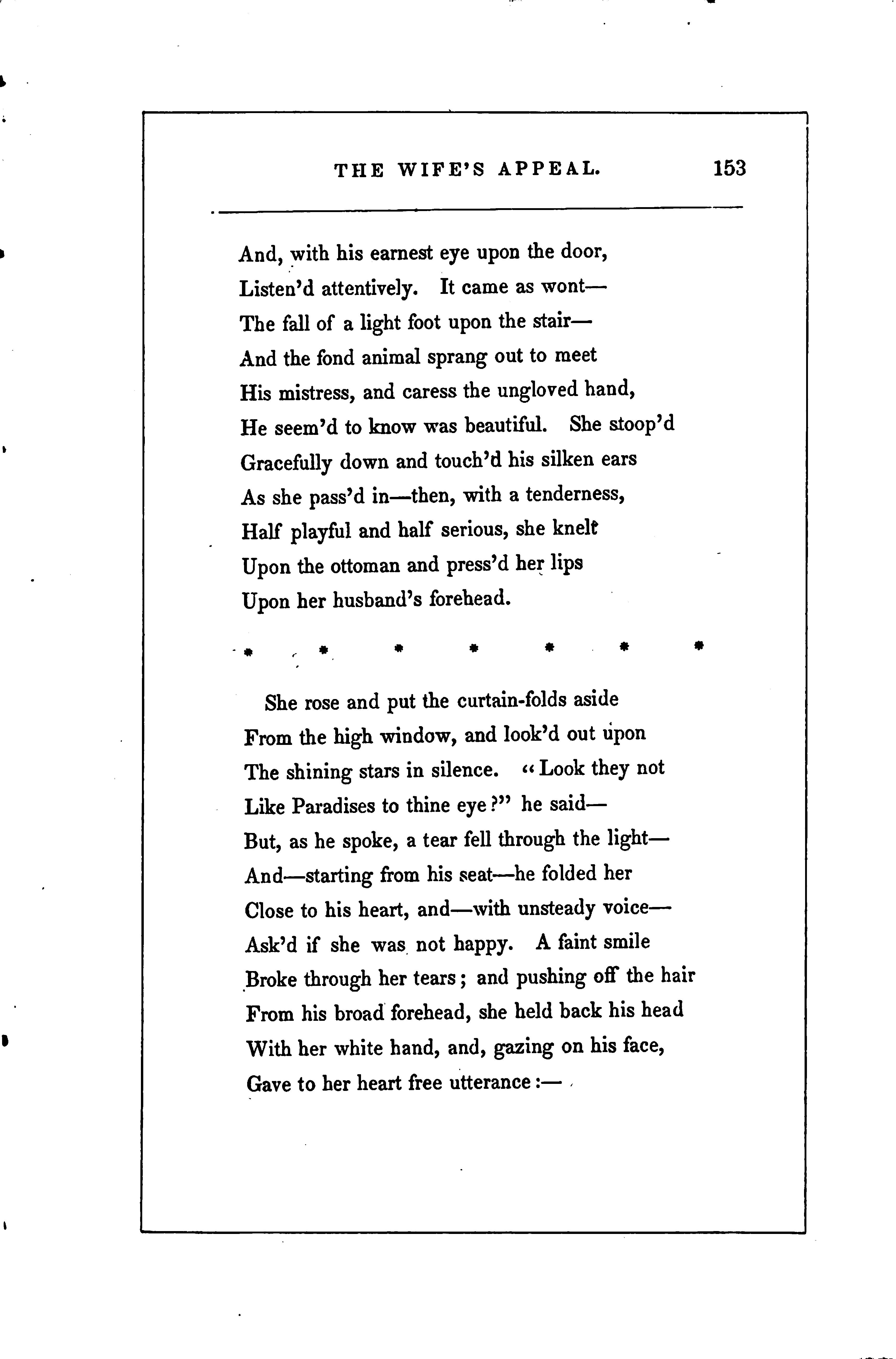
She rose and put the curtain-folds aside From the high window, and look'd out upon The shining stars in silence. "Look they not Like Paradises to thine eye?" he said-
But, as he spoke, a tear fell through the light And-starting from his seat-he folded her Close to his heart, and with unsteady voice-
Ask'd if she was not happy. A faint smile Broke through her tears ; and pushing off the hair From his broad forehead, she held back his head With her white hand, and, gazing on his face, Gave to her heart free utterance :-

"Happy? yes, dearest!-blest
Beyond the limit of my wildest dream
Too bright, indeed, my blessings ever seem ; There lives not in my breast
One of Hope's promises by Love unkept, And yet-forgive me, Ernest-I have wept.
"How shall I speak of sadness, And seem not thankless to my God and thee?
How canthe lightest wish but seem to be
The very whim of madness?
Yet, oh, there is a boon thy love beside And I will ask it of thee-in my pride!
"List, while my boldness lingers !
If thou hadst won yon twinkling star to hear thee Ifthou couldst bid the rainbow's curve bend nearthee-
If thou couldst charm thy fingers
To weave for thee the sunset's tent of goldWouldst in thine own heart treasure it untold?
"If thou hadst Ariel's gift, To coursethe veined metals of the earth-
If thou couldst wind a fountain to its birth
If thou couldst know the drift .. Of the lost cloud that sail'd into the skyWouldst keep it for thine own unanswer'd eye ?
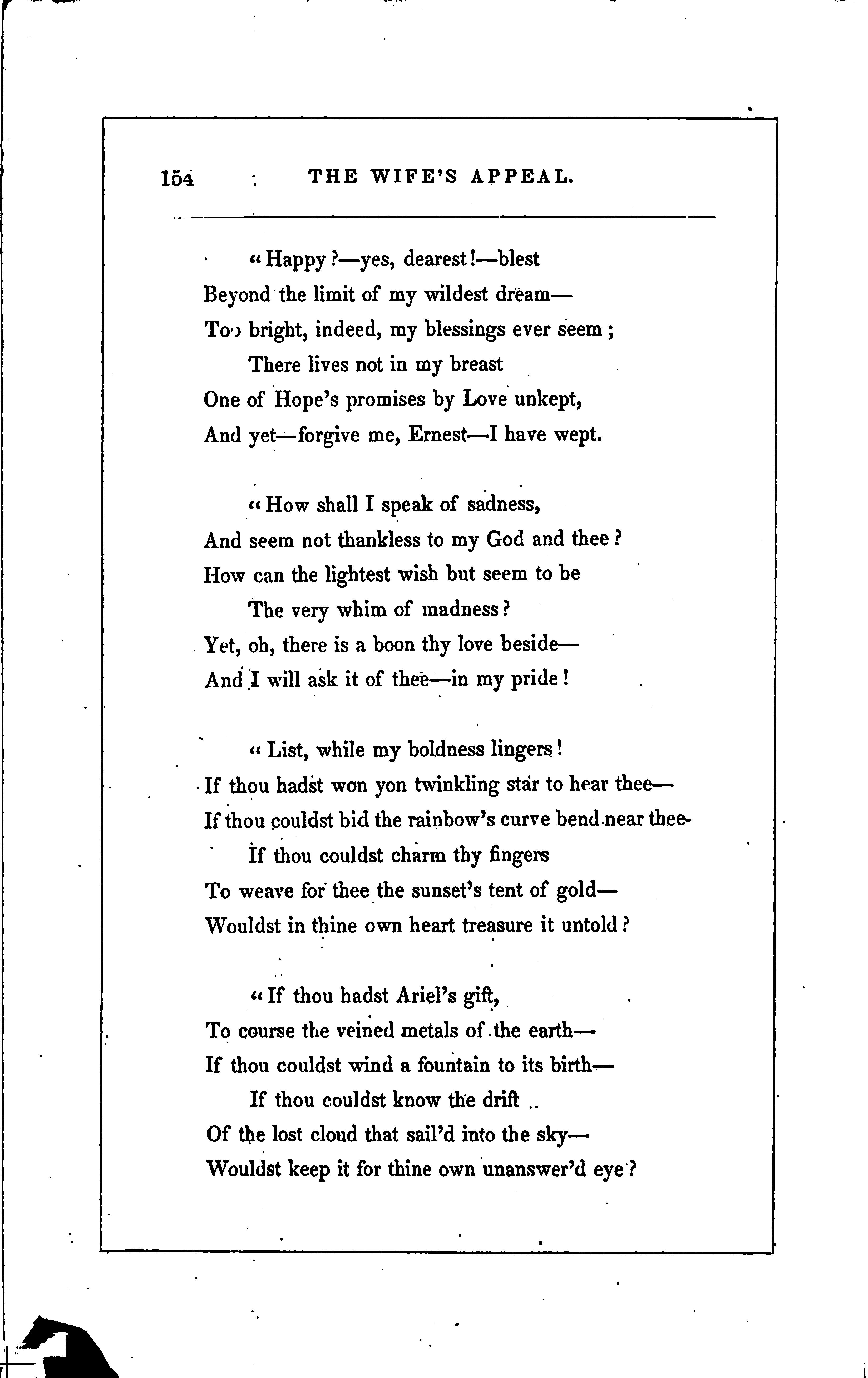

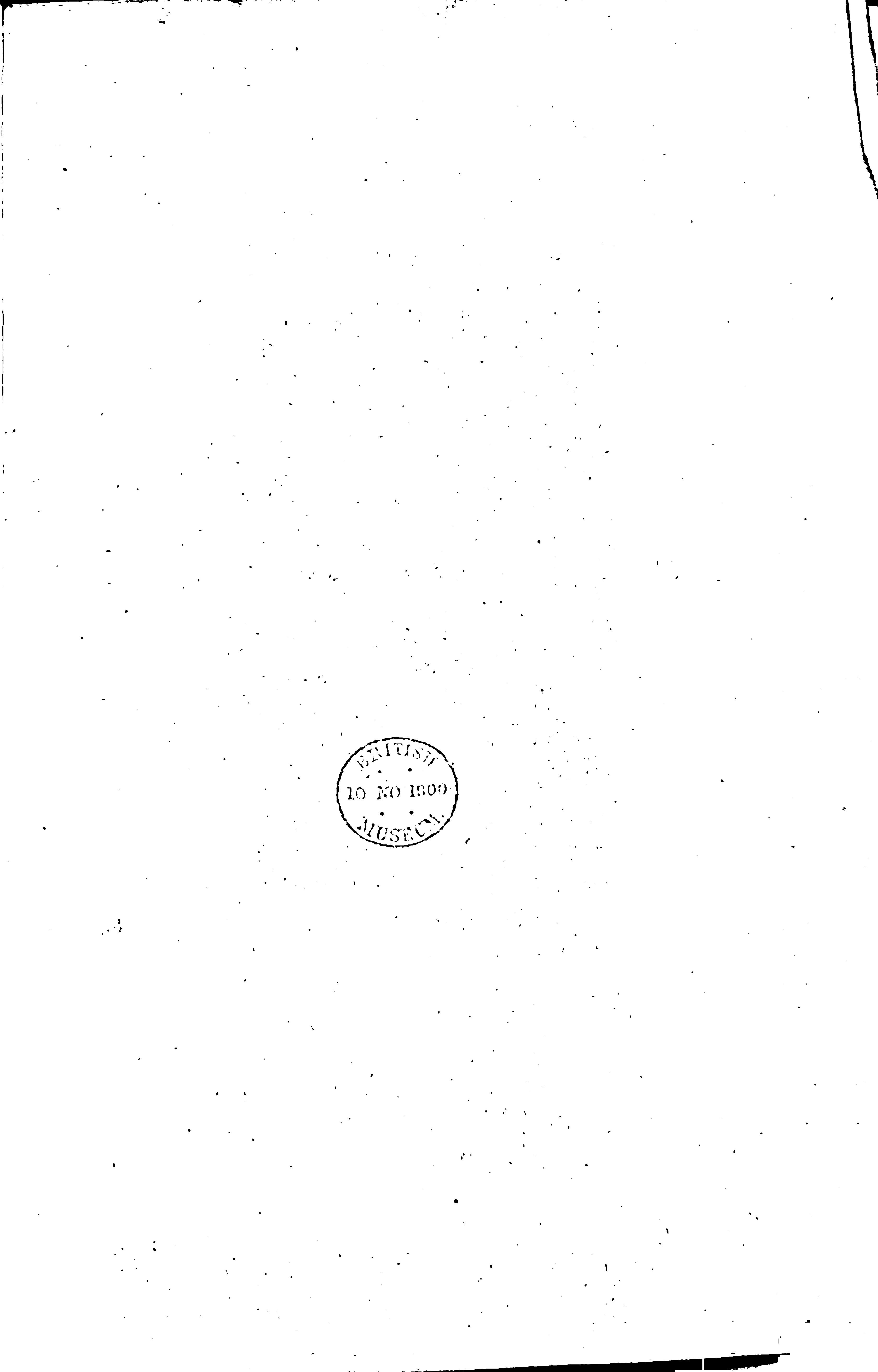

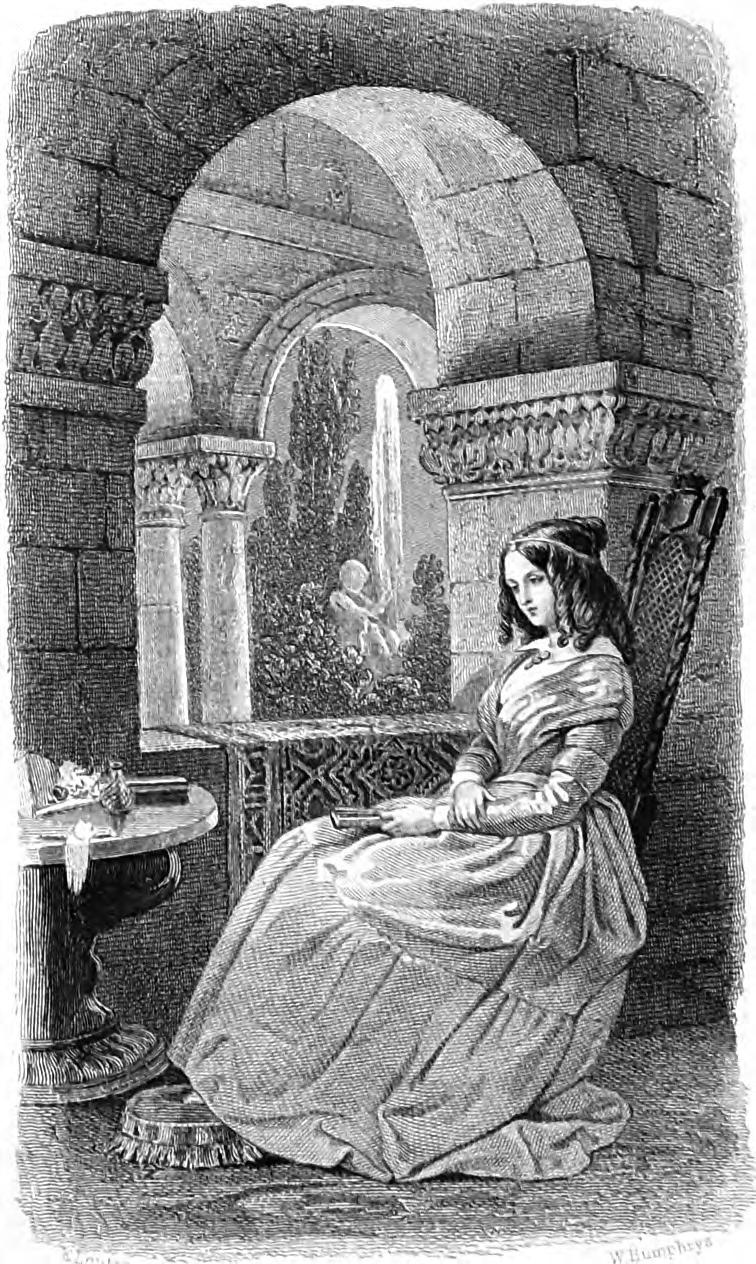

 Coutin
WBumphrya
Fruitedby julie
Coutin
WBumphrya
Fruitedby julie
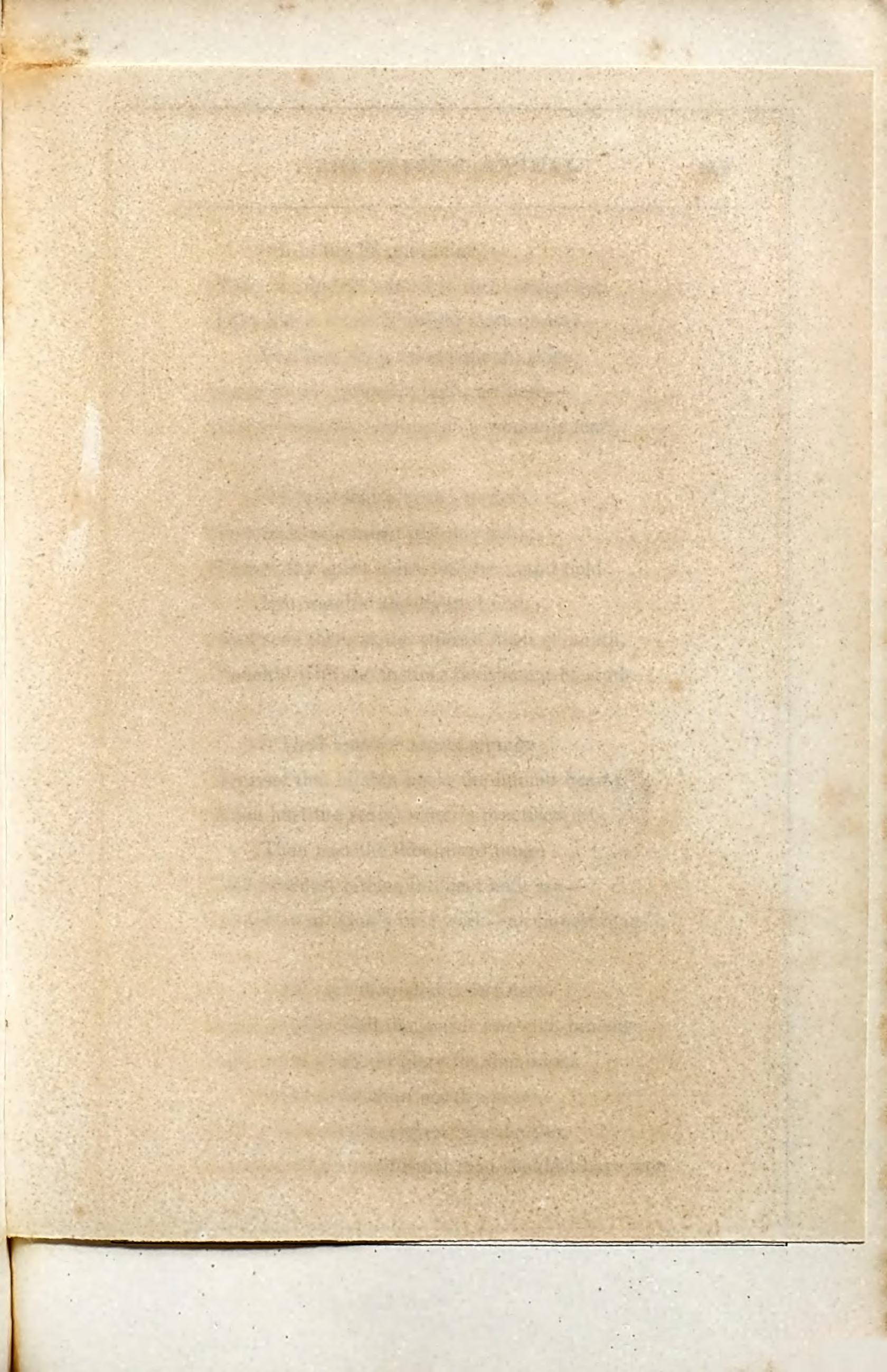

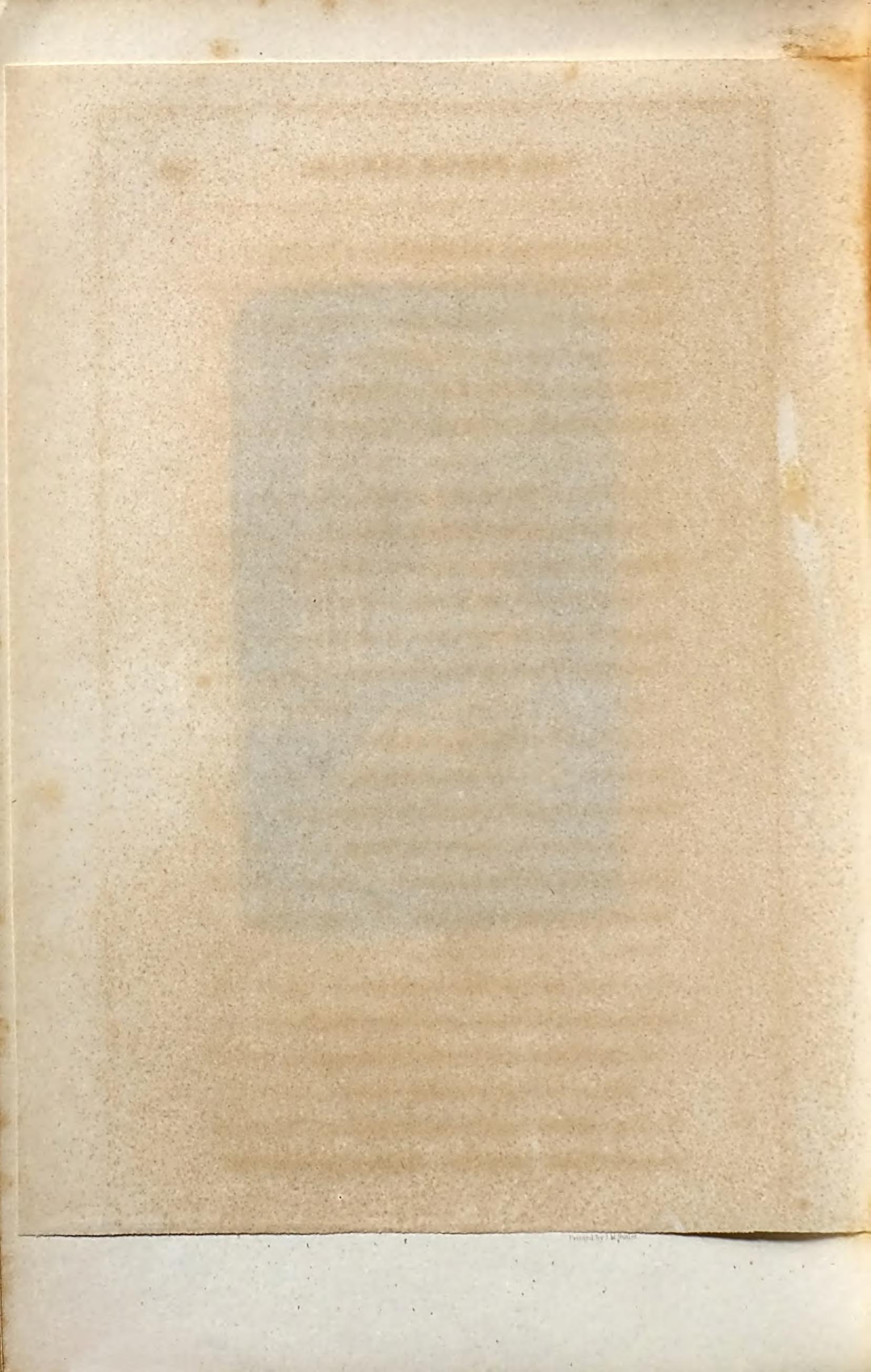
 Frinedby her
Frinedby her
"It isthy life and mine!-
Thou, in thyself and I in thee-misprison Gifts like a circle of bright stars unrisen For thou whose mind should shine,
Eminent as a planet's light, art here
Moved with the starting of a woman's tear!
"Ihave told o'er thy powers
In secret, as a miser tells his gold ; I know thy spirit calm, and true, and bold : I've watch'd thy lightest hours, And seen thee, in the wildest flush of youth, Touch'd with the instinct ravishment of truth.
"Thou hast the secret strange
To read that hidden book, the human heart ; Thou hast the ready writer's practised art; Thou hast the thought to range
The broadest circles Intellect hath ranAnd thou art God's best work-an honest man !.
"And yet thou slumberest here
Like a caged bird that never knew its pinions, And others track in glory the dominions
Where hast thou notthy peerSetting their weaker eyes unto the sun, And plucking honour that thou shouldst have won.
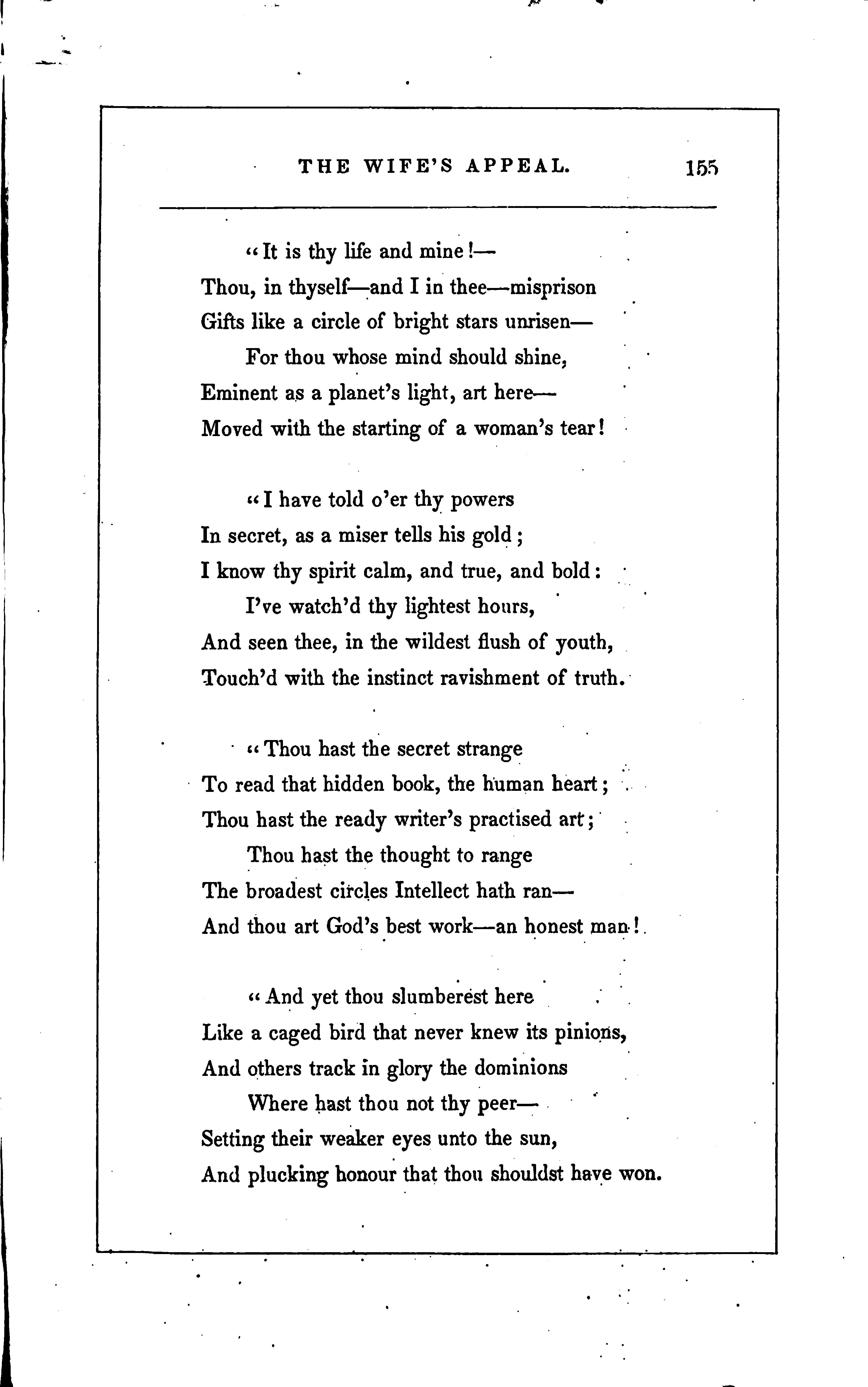

" Oh, if thou lov dst me ever,
Ernest, my husband !-if th' idolatry
That lets go heaven to fling its all ontheeIf to dismiss thee never
In dream or prayer, have given me aught to claim Heed me-oh, heed me! and awake to fame!"
Closed with an earnest sweetness, and she sat Gazing into his eyes as if her look
Search'd their dark orbs for answer. The warm blood
Into his temples mounted, and across His countenance the flush of passionate thoughts
Pass'd with irresolute quickness. He rose up And paced the dim room rapidly awhile, Calming his troubled mind; and then he came And laid his hand upon her orbéd brow, And in a voice of heavenly tenderness
Answer'd her:-
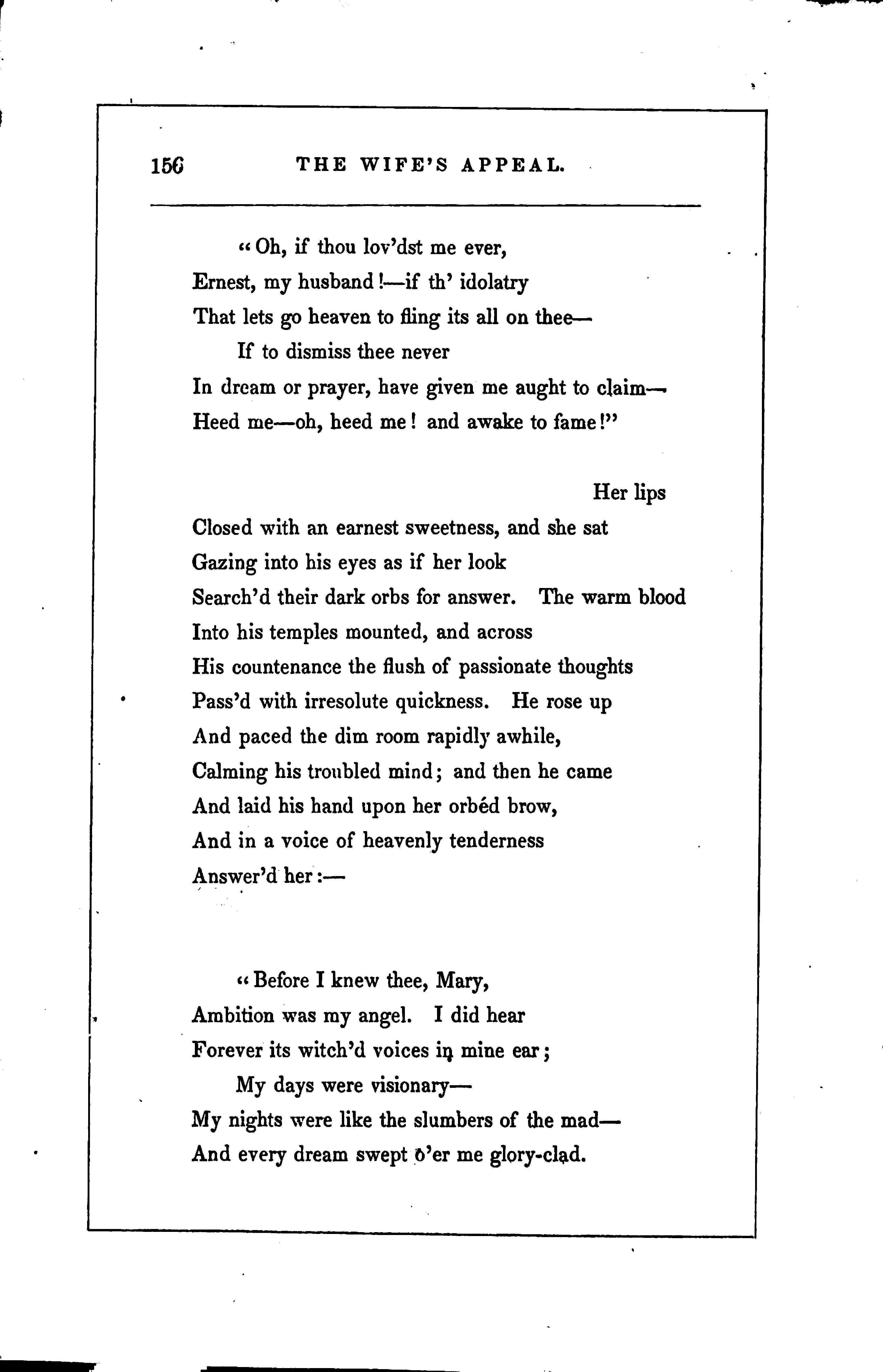
"Before I knew thee, Mary, Ambition was my angel. I did hear Forever its witch'd voices in mine ear; My days were visionary
My nights were like the slumbers of the madAnd every dream swept o'er me glory-clad.

"I read the burning letters Of warlike pomp, on History's page, alone; I counted nothing the struck widow's moan ; I heard no clank of fetters; I only felt the trumpet's stirring blast, And lean-eyed Famine stalk'd unchallenged past !
"I heard with veins of lightning The utterance of the Statesman's word of powerBinding and loosing nations.in an hourBut, while my eye was bright'ning, A mask'd detraction.breathed upon his fame, And a cursed serpent slimed his written name.
"The Poet rapt mine ears With the transporting music that he sung. With fibres from his life his lyre he strung, And bathed the world in tears And then he turn'd away to muse apart, And Scorn stole after him-and broke his heart!
"Yet here and there I saw One who did set the world at calm defiance, And press right onward with a bold reliance ; And he did seem to awe The very shadows pressing on his breast, And, with a strong heart, held himself at rest.
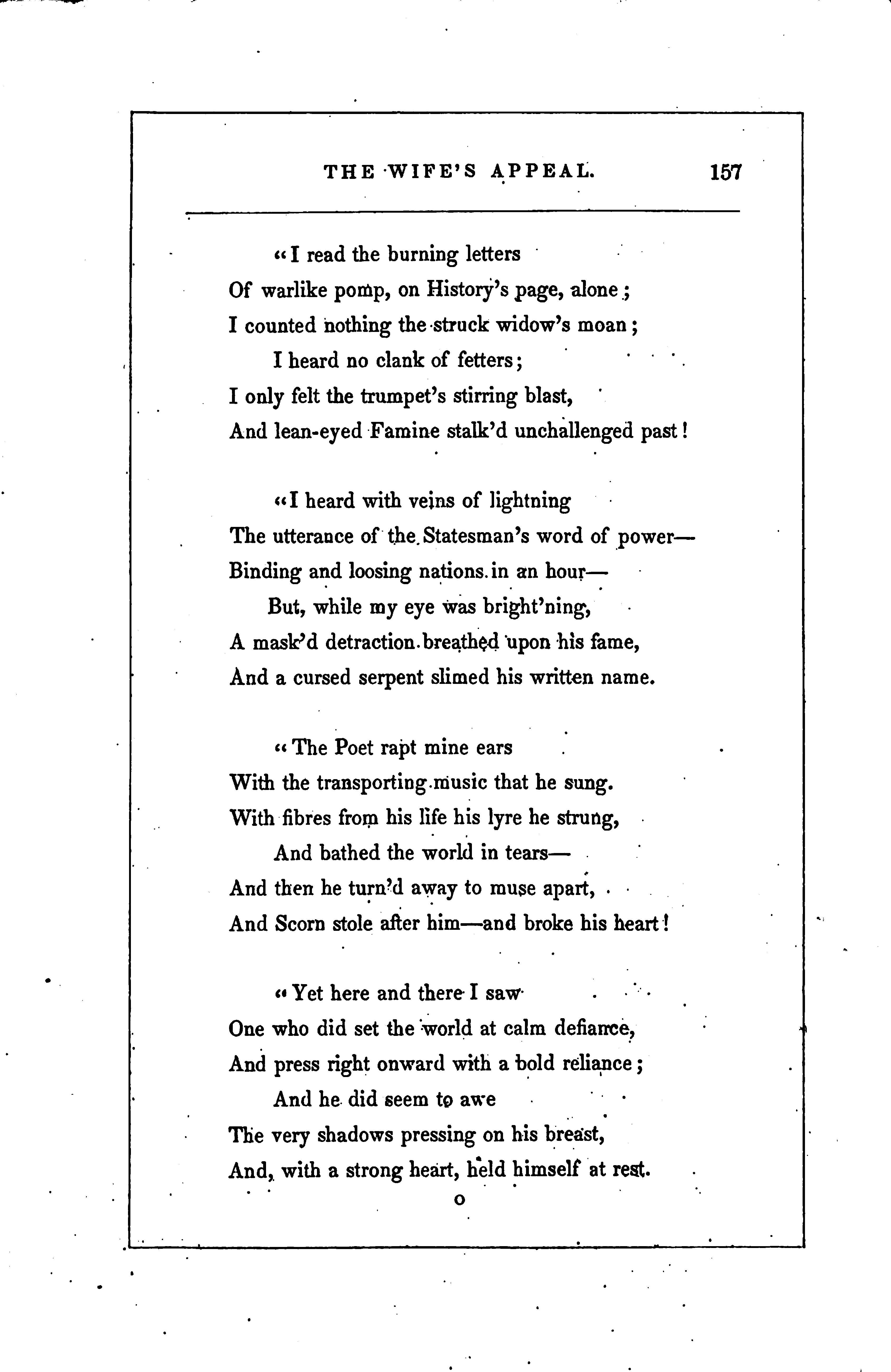

"And then I look'd againAnd he had shut the door upon the crowd, And on his face he lay and groan'd aloud Wrestling with hidden pain ; And in her chamber sat his wife in tears, And his sweet babes grew sad with whisper'd fears.
"And so I turn'd sick-hearted From the bright cup away, and, in my sadness, Search'd mine own bosomfor some spring of gladness ; And lo! a fountain started Whose waters even in death flow calm and fast, And my wild fever-thirst was slaked at last.
"And then I met thee, Mary, And felt how love may into fulness pour, Like light into a fountain running o'er : And I did hope to vary My life but with surprises sweet as thisA dream but for thy waking-fill'd with bliss.
"Yet now I feel my spirit Bitterly stirr'd, and-nay, lift up thy brow! It is thine own voice echoing to thee now, And thou didst pray to hear it I must unto my work and my stern hours! Take from my room thy harp, and books, and flowers !
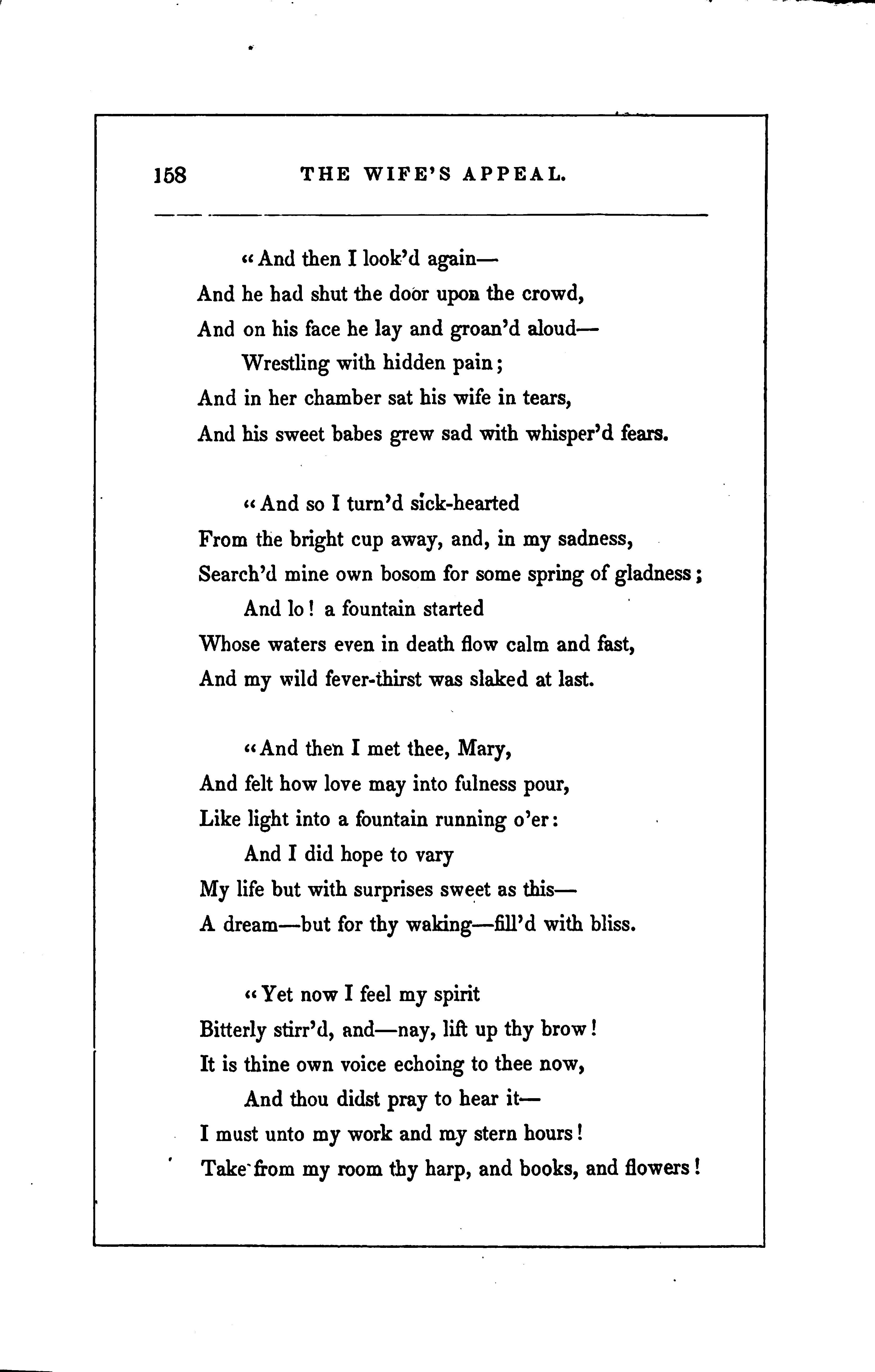

A year-
And in his room again he sat alone. His frame had lost its fulness in that time; His manly features had grown sharp and thin, And from his lips the constant smile had faded. Wild fires had burn'd the languor from his eye: The lids look'd fever'd, and the brow was bent With an habitual frown. He was much changed. His chin was resting on his clenchéd hand, And with his foot he beat upon the floor, Unconsciously, the time of a sad tune. Thoughts of the past prey'd on him bitterly. He had won power and held it. He had walk'd Steadily upward in the eye of Fame, And kept his truth unsullied-but his home Had been invaded by envenom'd tongues ; His wife-his spotless wife-had been assail'd By slander, and his child had grown afraid To come to him-his manner was so stern. He could not speak beside his own hearth freely. His friends were half estranged, and vulgar men Presumed upon their services and grew He'd small time to sleep, Familiar with him. And none to pray ; and, with his heart in fetters, He bore harsh insults silently, and bow'd Respectfully to men who knew he loathed them!
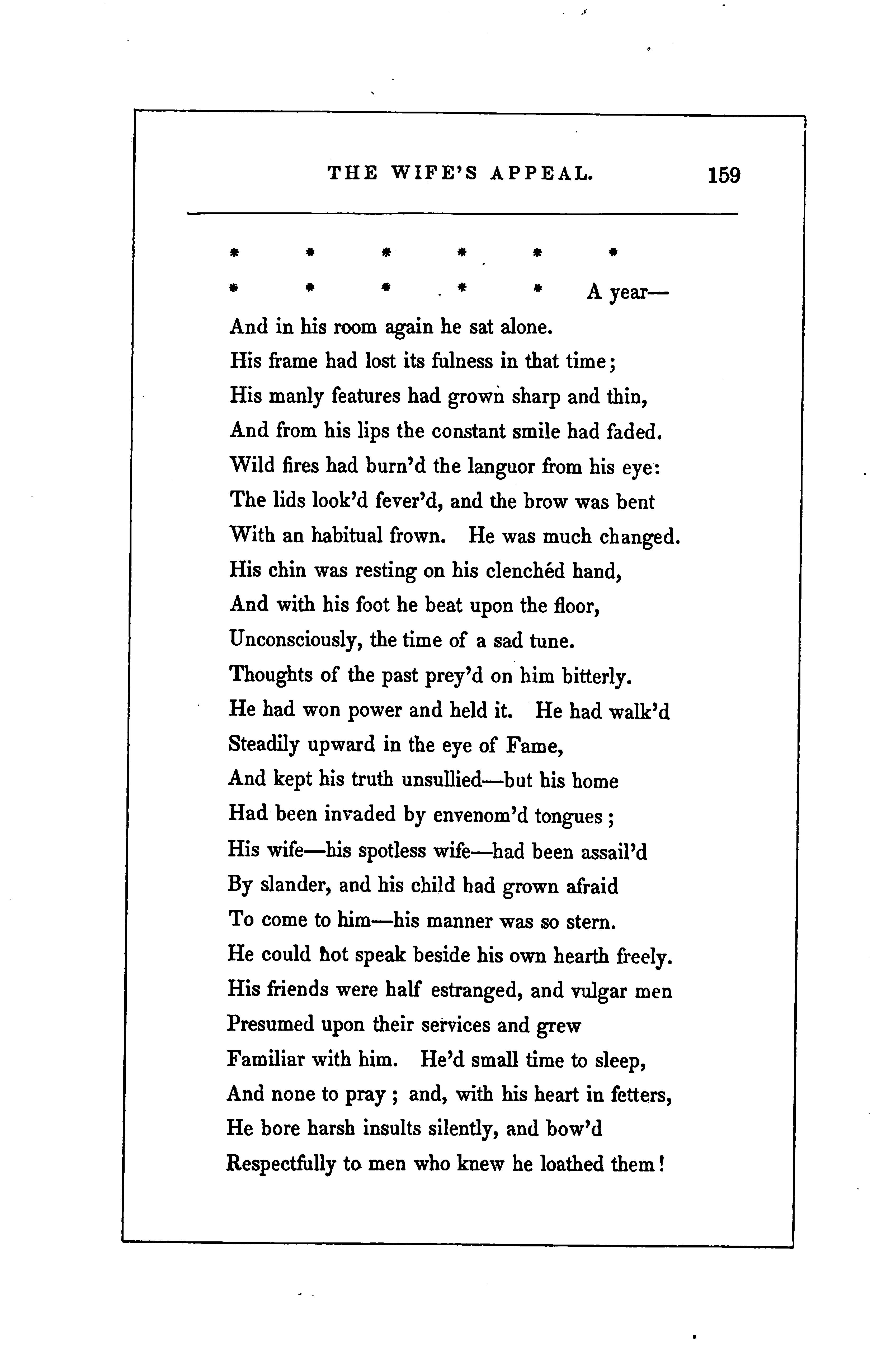

And, when his heart was eloquent with truth And love of country, and an honest zeal Burn'd for expression, he could find no words. They would not misinterpret with their lies. What were his many honours to him now?
The good half doubted, falsehood was so strongHis home was hateful with its cautious fearsHis wife lay trembling on his very breast Frighted with calumny !-And this is FAME !
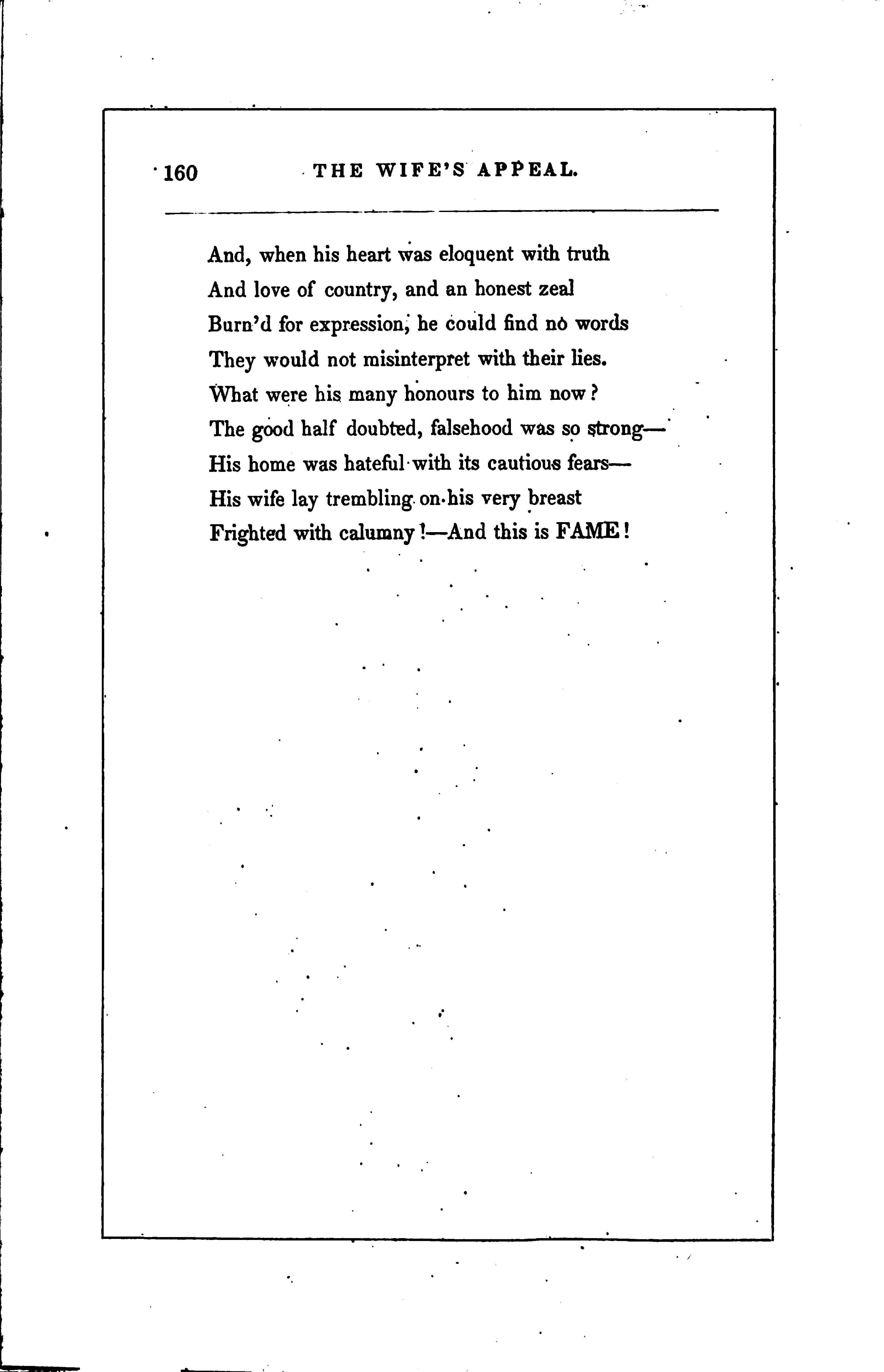

I STOOD on yonder rocky brow,* And marvell'd at the Sibyl's fane, When I was not what I am now.
My life was then untouch'd of pain ; And, as the breeze that stirr'd my hair, My spirit freshen'd in the sky, And all things that were true and fair Lay closely to my loving eye, With nothing shadowy betweenI was a boy of seventeen. Yon wondrous temple crests the rockAs light upon its giddy base, As stirless with the torrent's shock, As pure in its proportion'd grace, And seems a thing of air-as then, Afloat above this fairy glen ; But though mine eye will kindle still In looking on the shapes of art,
*The story is told during a walk around the Cascatelles of Tivoli.
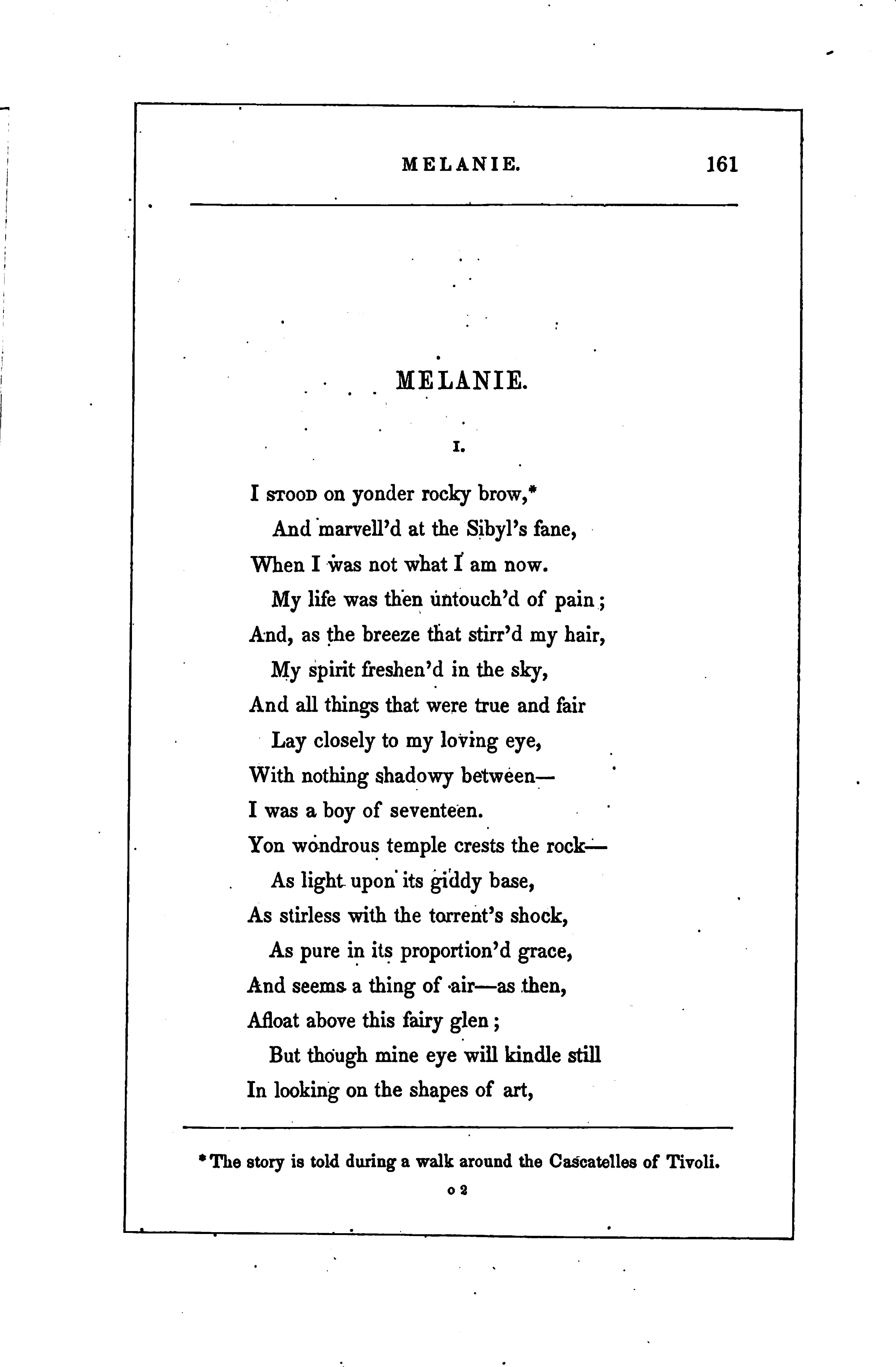

The link is lost that sent the thrill, Like lightning instant to my heart. And thus may break, before we die, Th' electric chain 'twixt soul and eye!
Ten years-like yon bright valley, sown Alternately with weeds and flowersHad swiftly, if not gayly, flown, And still I loved the rosy Hours ; And if there lurk'd within my breast Some nerve that had been overstrung And quiver'd in my hours of rest, Like bells by their own echo rung, I was with Hope a masquer yet, And well could hide the look of sadness , And if my heart would not forget, I knew, at least, the trick of gladness ; And when another sang the strain, I mingled in the old refrain.
'Twere idle to remember now, Had Ithe heart, my thwarted schemes. I bear beneath this alter'd brow The ashes of a thousand dreamsSome wrought of wild Ambition's fingers, Some colour'd of Love's pencil wellBut none of which a shadow lingers,
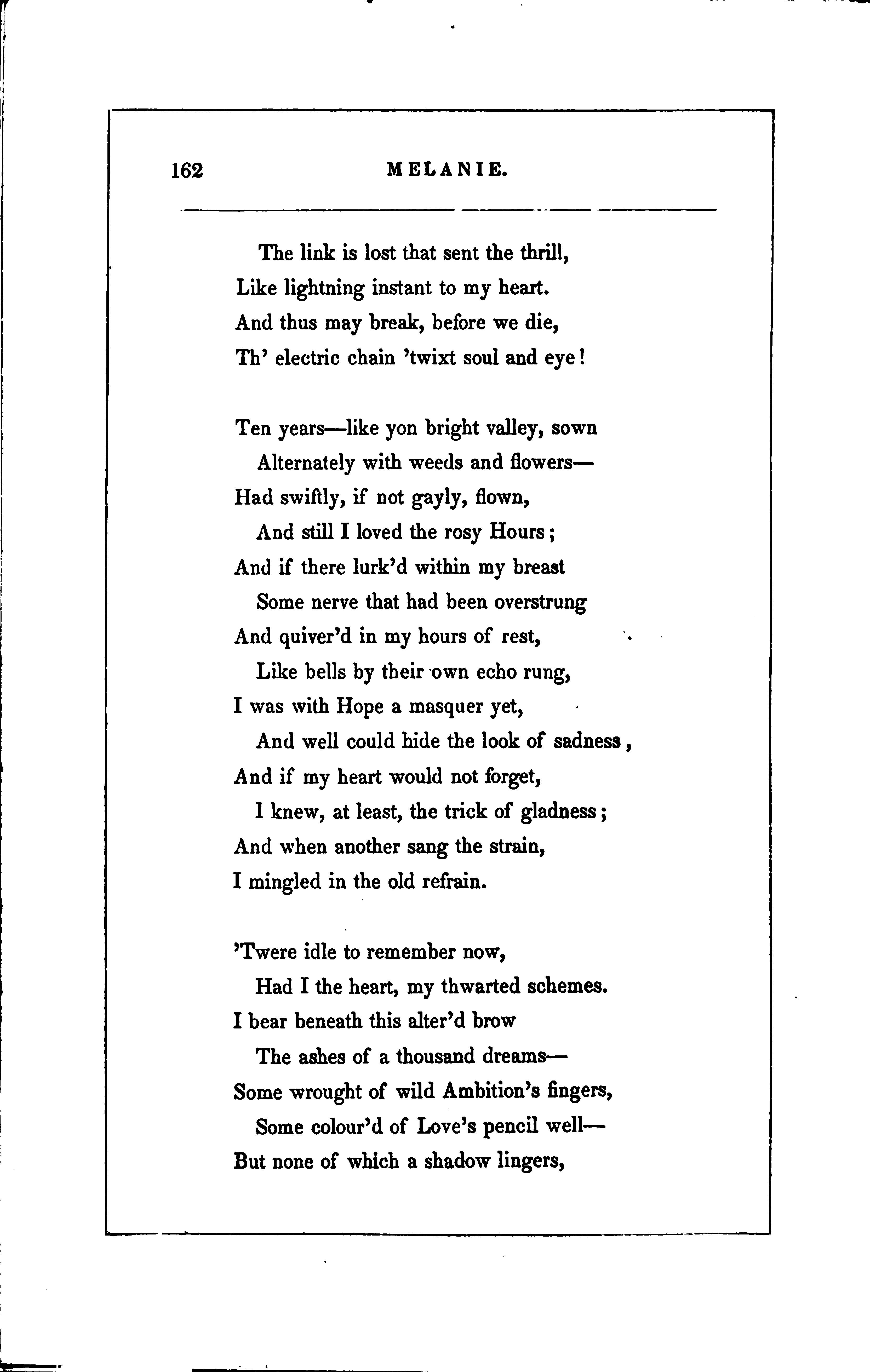

And none whose story I could tell. Enough, that when I climb'd again To Tivoli's romantic steep, Life had no joy, and scarce a pain, Whose wells I had not tasted deep ; And from my lips the thirst had pass'd For every fount save one-the sweetest-and the last.
The last the last! My friends were dead, Or false ; my mother in her grave ; Above my father's honour'd head The sea had lock'd its hiding wave ; Ambition had but foil'd my grasp, And love had perish'd in my clasp ; And still, I say, I did not slack My love of life and hope of pleasure, But gather'd my affections back ; And, as the miser hugs his treasure When plague and ruin bid him flee, I closer clung to mine-my loved, lost Melanie!
The last of the De Brevern race, My sister claim'd no kinsman's care ; And, looking from each other's face, The eye stole upward unaware For there was naught whereon to lean Each other's heart and heaven between-
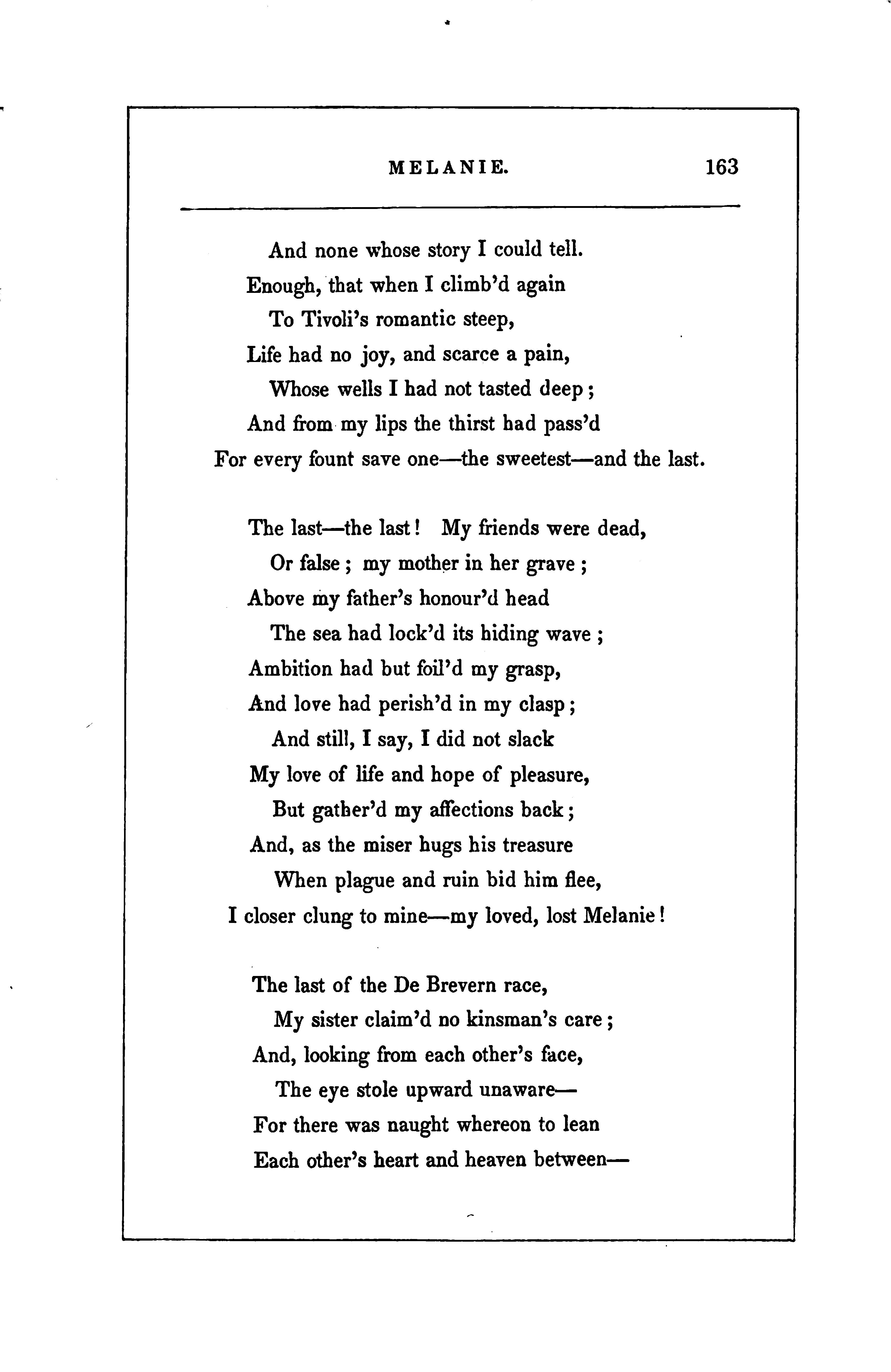

Yet that was world enough for me; And, for a brief but blessed while, There seem'd no care for Melanie If she could see her brother smile!
But life with her was at the flow, And every wave went.sparkling higher, While mine was ebbing, fast and law, From the same shore of vain desire ; And knew I, with prophetic heart, That we were wearing, aye, insensibly apar .
We came to Italy. I felt A yearning for its sunny sky; My very spirit seem'd to melt
As swept its first warm breezes by.. From lip and cheek a chilling mist, From life and soul a frozen rime, By every breath seem'd softly kiss'dGod's blessing on its radiant clime! It was an endless joy to me
To see my sister's new delight ; From Venice in its golden sea
To Pæstum in its purple light . By sweet Val d'Arno's tinted hillsIn Vallombrosa's convent gloom-
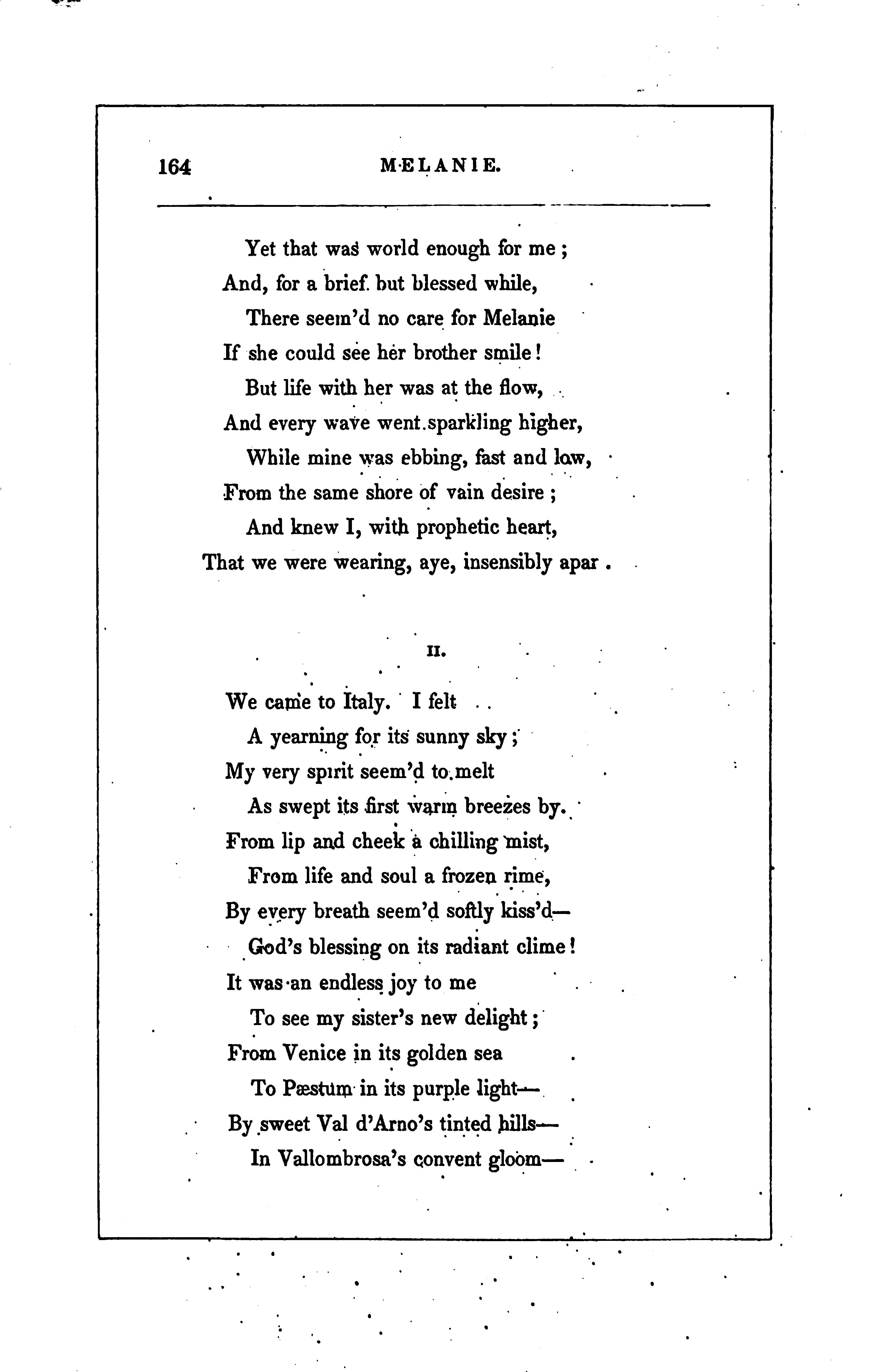

Mid Terni's vale of singing rills
In By deathless lairs in solemn Rome gay Palermo's " Golden Shell"
At Arethusa's hidden well-
We,loiter'd like th' impassion'd sun That slept so lovingly on all, And made a home of every oneRuin, and fane, and waterfall And crown'd the dying day with glory
If we had seen, since morn, but one old haunt of story.
We came with Spring to Tivoli. My sister loved its laughing air And merry waters, though, for me, My heart was in another key ; And sometimes I could scarcely bear The mirth of their eternal play, And, like a child that longs for home
When weary of its holiday, I sigh'd for melancholy Rome. Perhaps the fancy haunts me still'Twas but a boding sense of ill.
It was a morn of such a day As might have dawn'd on Eden first, Early in the Italian May. Vine-leaf and flower had newly burst,
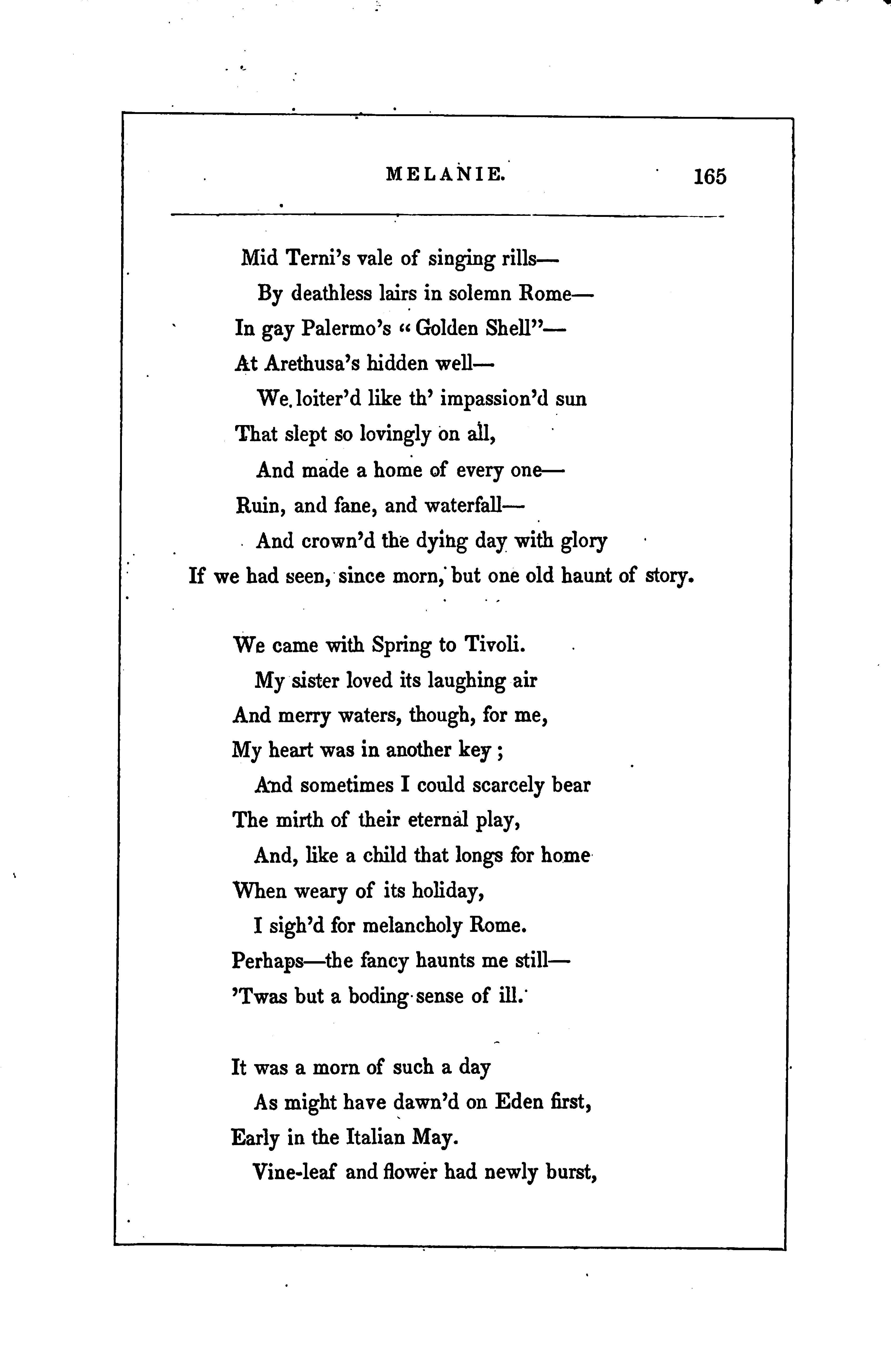

And on the burthen of the air
The breath of buds came faint and rare ; And far in the transparent sky
The small, earth-keeping birds were seen Soaring deliriously high ; And through the clefts of newer green Yon waters dash'd their living pearls ; And with a gayer smile and bow Troop'd on the merry village-girls ; And from the Contadino's brow
The low-slouch'd hat was backward thrown, With air that scarcely seem'd his own; And Melanie, with lips apart, And claspéd hands upon my arm, Flung open her impassion'd heart,
And bless'd life's mere and breathing charm ; And sang old songs, and gather'd flowers, And passionately bless'd once more life's thrilling hours.
In happiness and idleness
We wander'd down yon sunny valeOh mocking eyes !-a golden tress Floats back upon this summer gale ! A foot is tripping on the grass !
A laugh rings merry in mine ear!
I see a bounding shadow pass!
O God! my sister once was here!
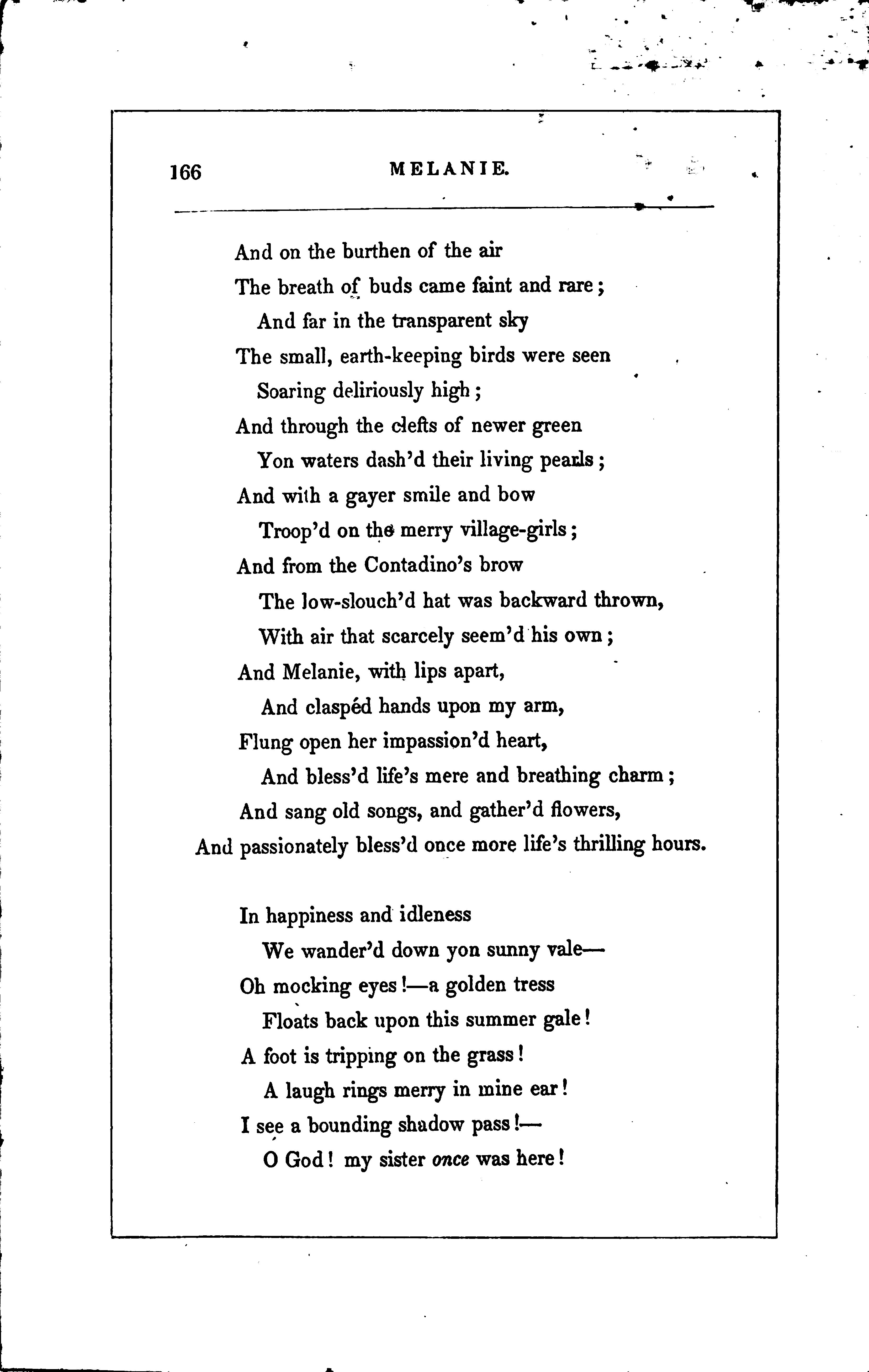

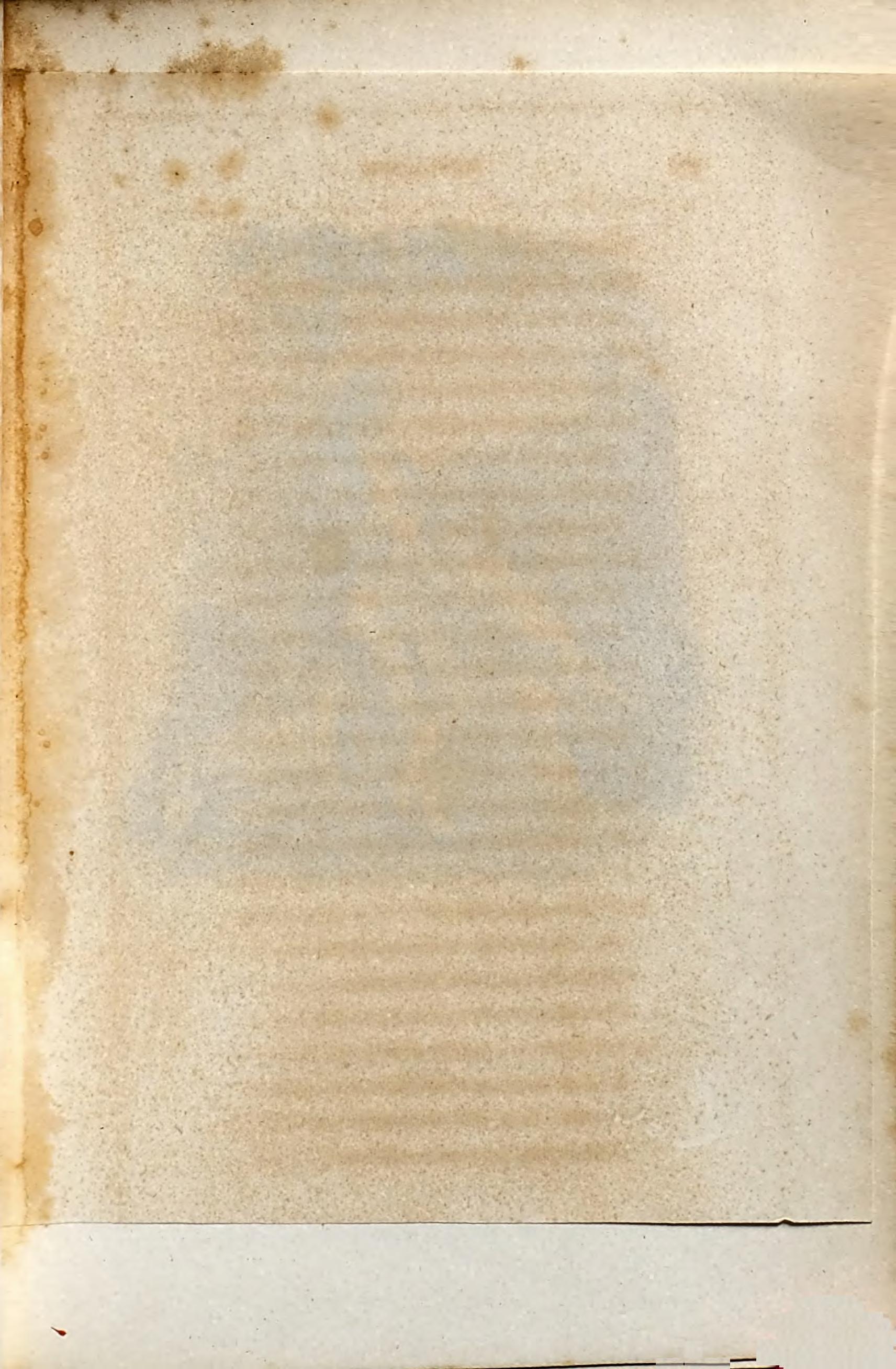

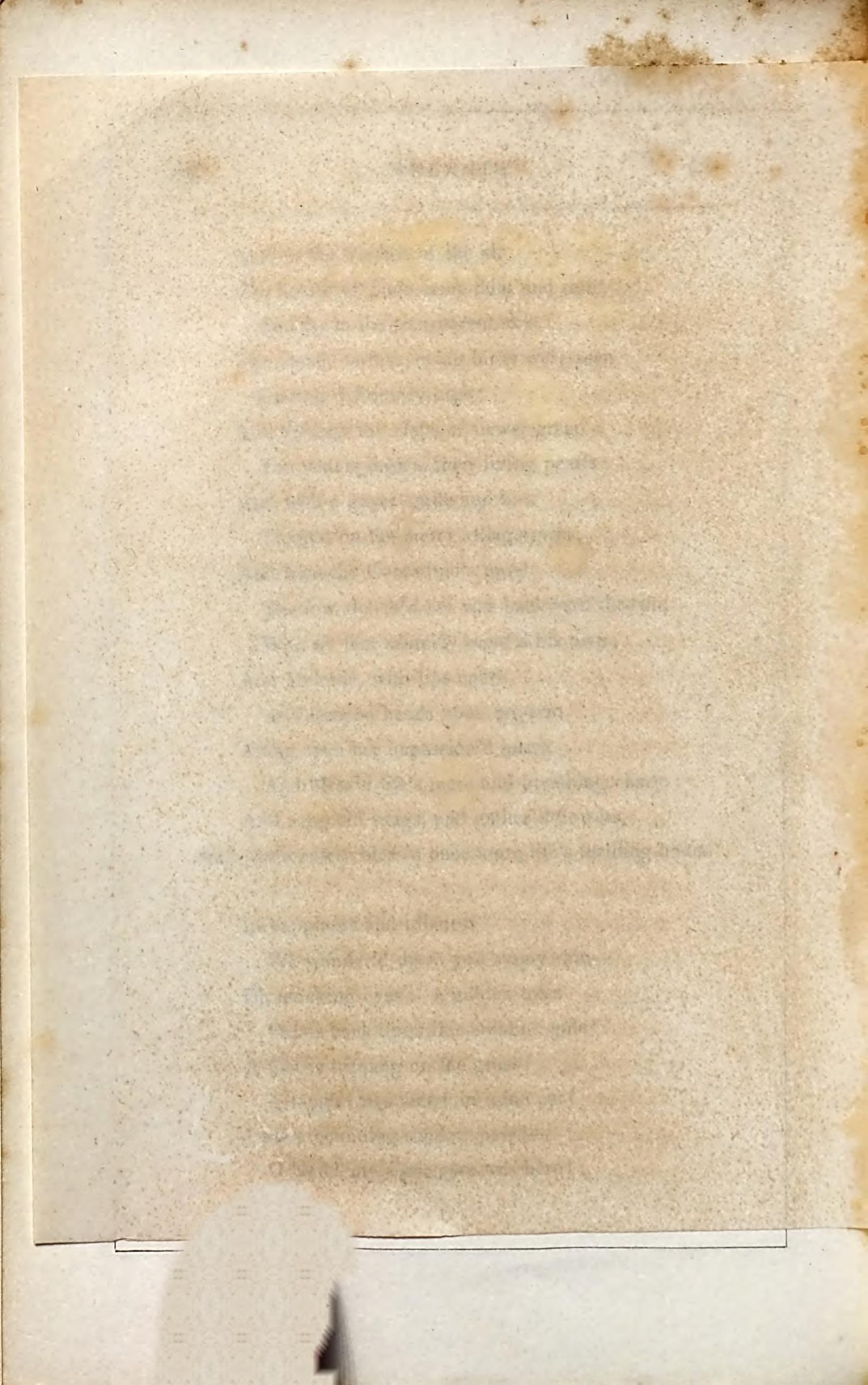

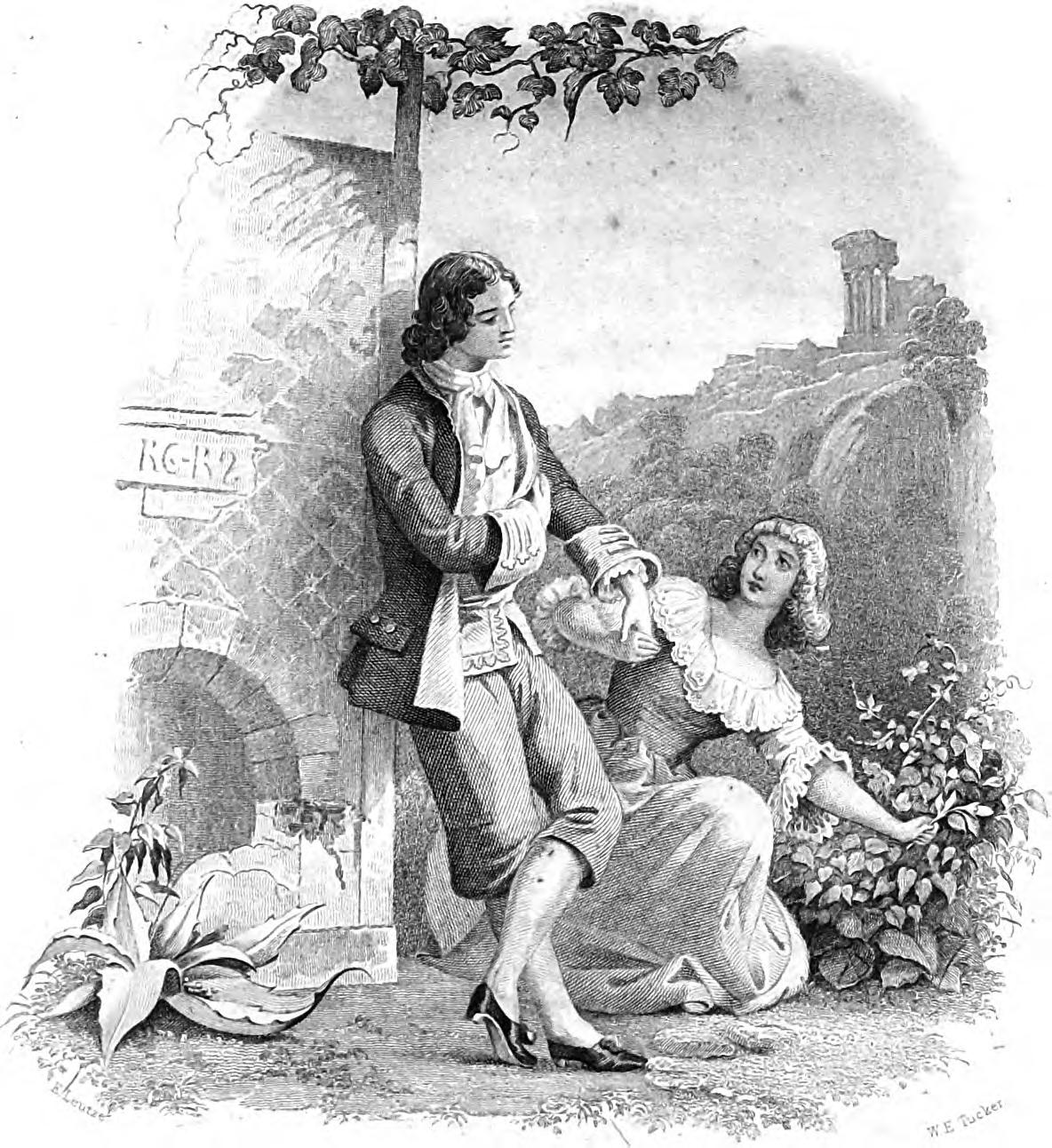
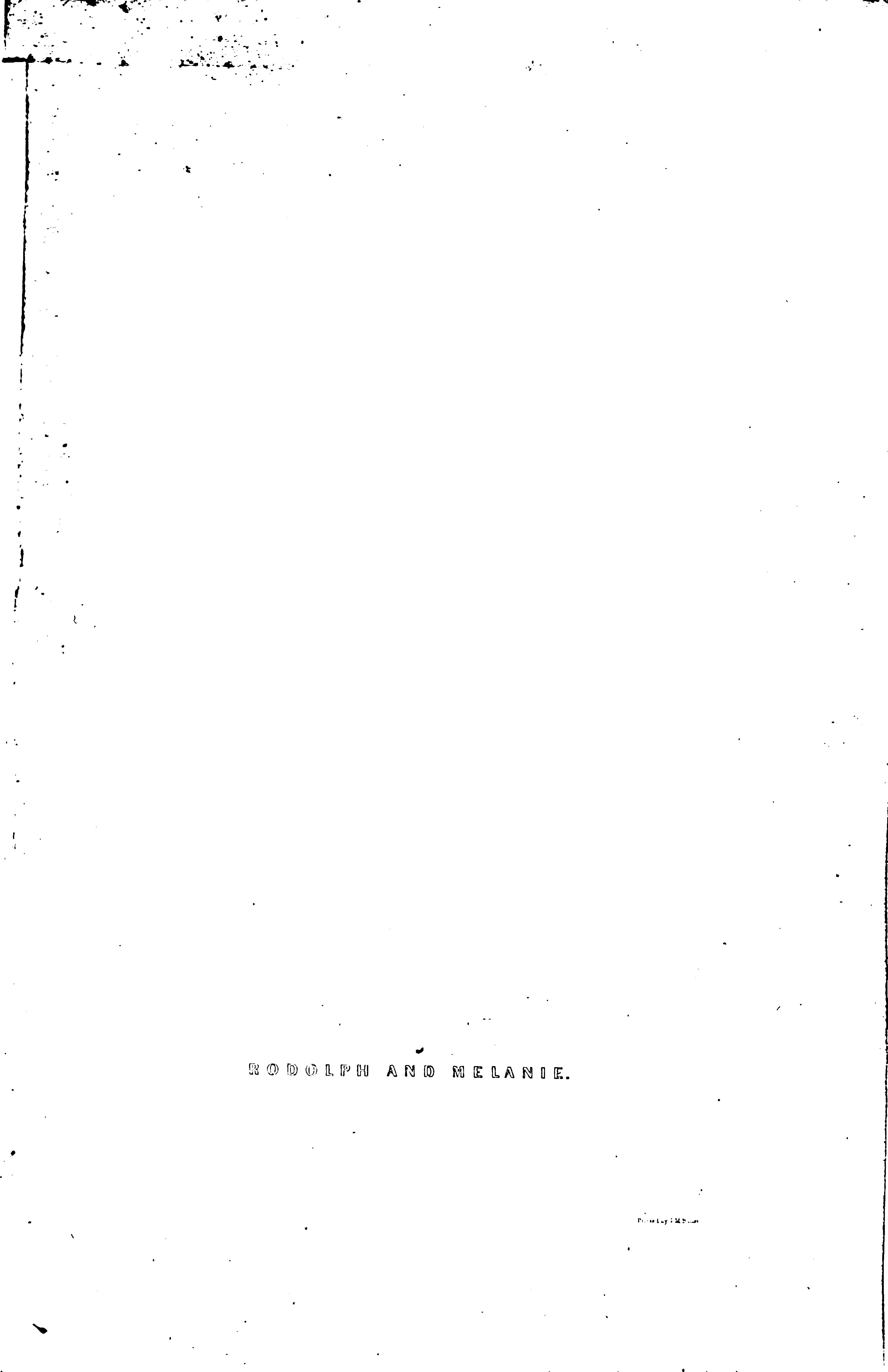
 RC-R2
R ODOLPH AND MELANIE.
WETucker
Pronaedy M
RC-R2
R ODOLPH AND MELANIE.
WETucker
Pronaedy M
BRITIST 10 NO1900 JUSTONLY
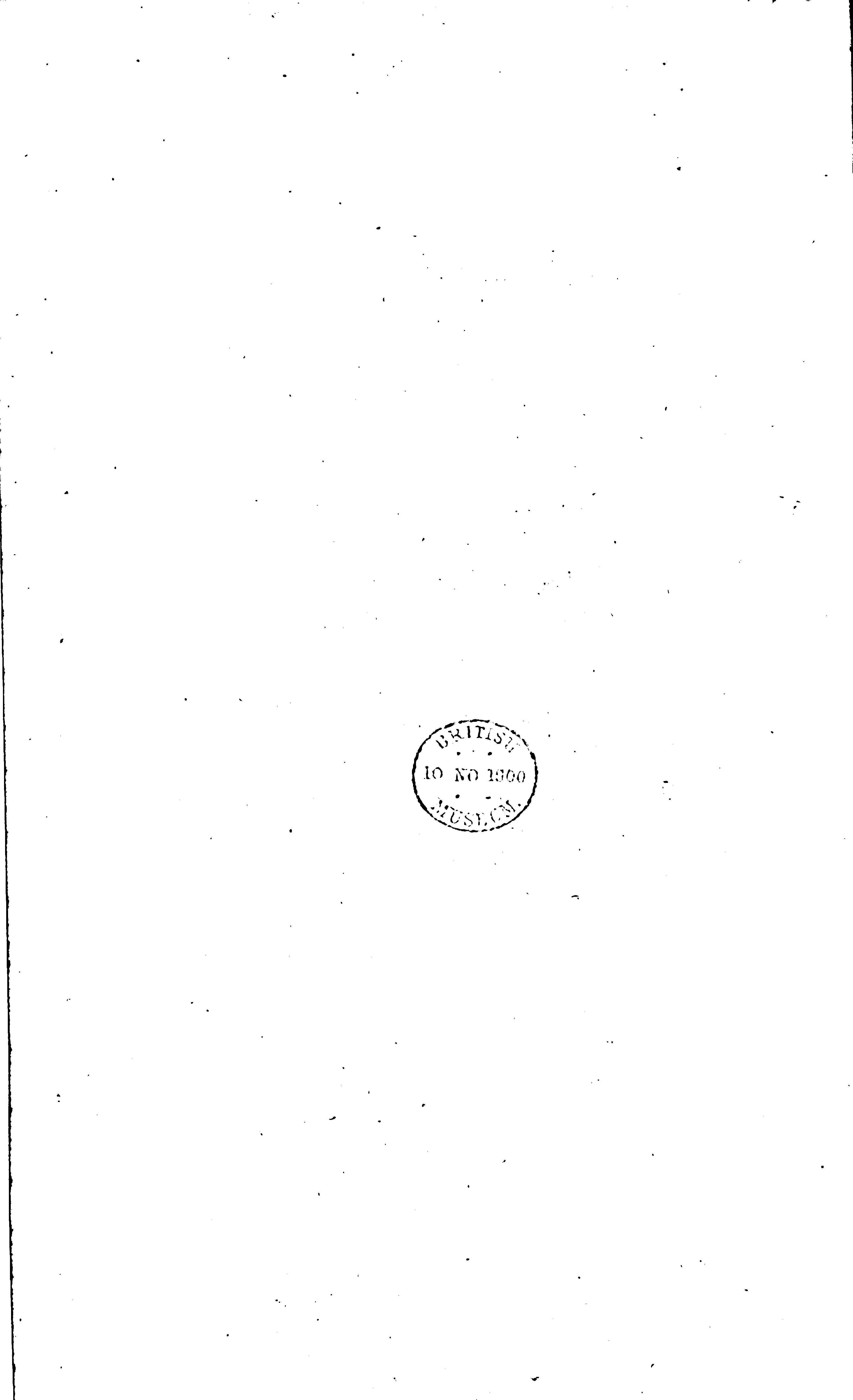

Come with me, friend !-We rested yon!
There grew a flower she pluck'd and wore ! She sat upon this mossy stoneThat broken fountain running o'er
With the same ring, like silver bells. She listen'd to its babbling flow, And said, " Perhaps the gossip tells Some fountain-nymph's love-story now!"
And as her laugh rang clear and wild, A youth a painter-pass'd and smiled
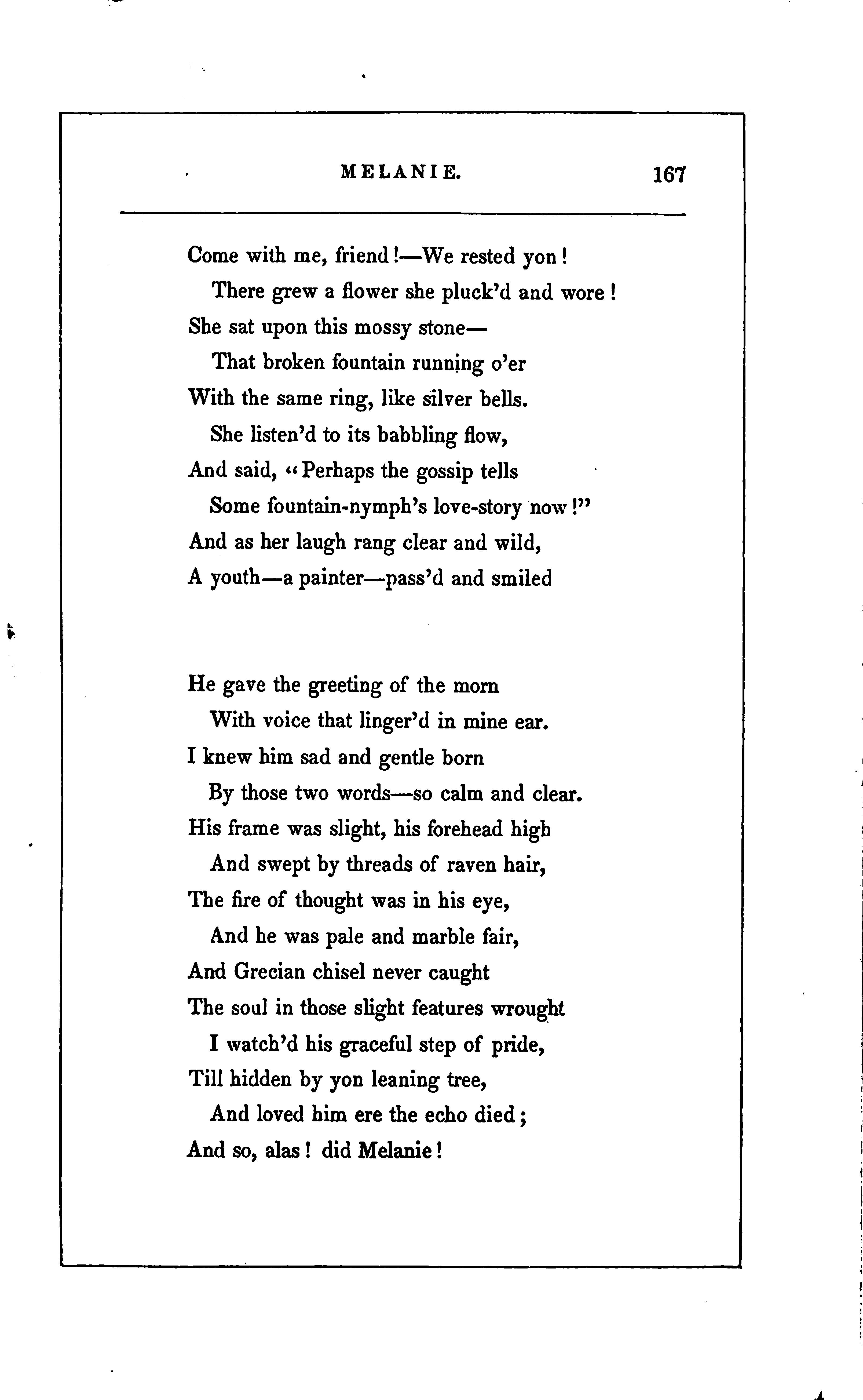
He gave the greeting of the morn With voice that linger'd in mine ear.
I knew him sad and gentle born
By those two words-so calm and clear. His frame was slight, his forehead high And swept by threads of raven hair, The fire of thought was in his eye, And he was pale and marble fair, And Grecian chisel never caught The soul in those slight features wrought I watch'd his graceful step of pride, Till hidden by yon leaning tree, And loved him ere the echo died ; And so, alas ! did Melanie!

We sat and watch'd the fount awhile
In silence, but our thoughts were one ; Andthen arose, and, with a smile
Of sympathy, we saunter'd on ; And she by sudden fits was gay, And then her laughter died away, And in this changefulness of mood,. (Forgotten now those May-day spells,)
We turn'd where Varro's villa stood, And gazing on the Cascatelles, (Whose hurrying waters wild and white Seem madden'd as they burst to light,)
I chanced to turn my eyes away, And lo ! upon a bank, alone,
The youthful painter, sleeping, lay !
His pencils on the grass were thrown, And by his side a sketch was flung, And near him as I lightly crept,
To see the picture as he slept, Upon his feet he lightly sprung; And, gazing with a wild surprise
Upon the face of Melanie, He said and dropp'd his earnest eyes-"Forgive me! but I dream'd of thee !"
His sketch, the while, was in my hand, And, forthe lines I look'd to trace-
A torrent by a palace spann'd,
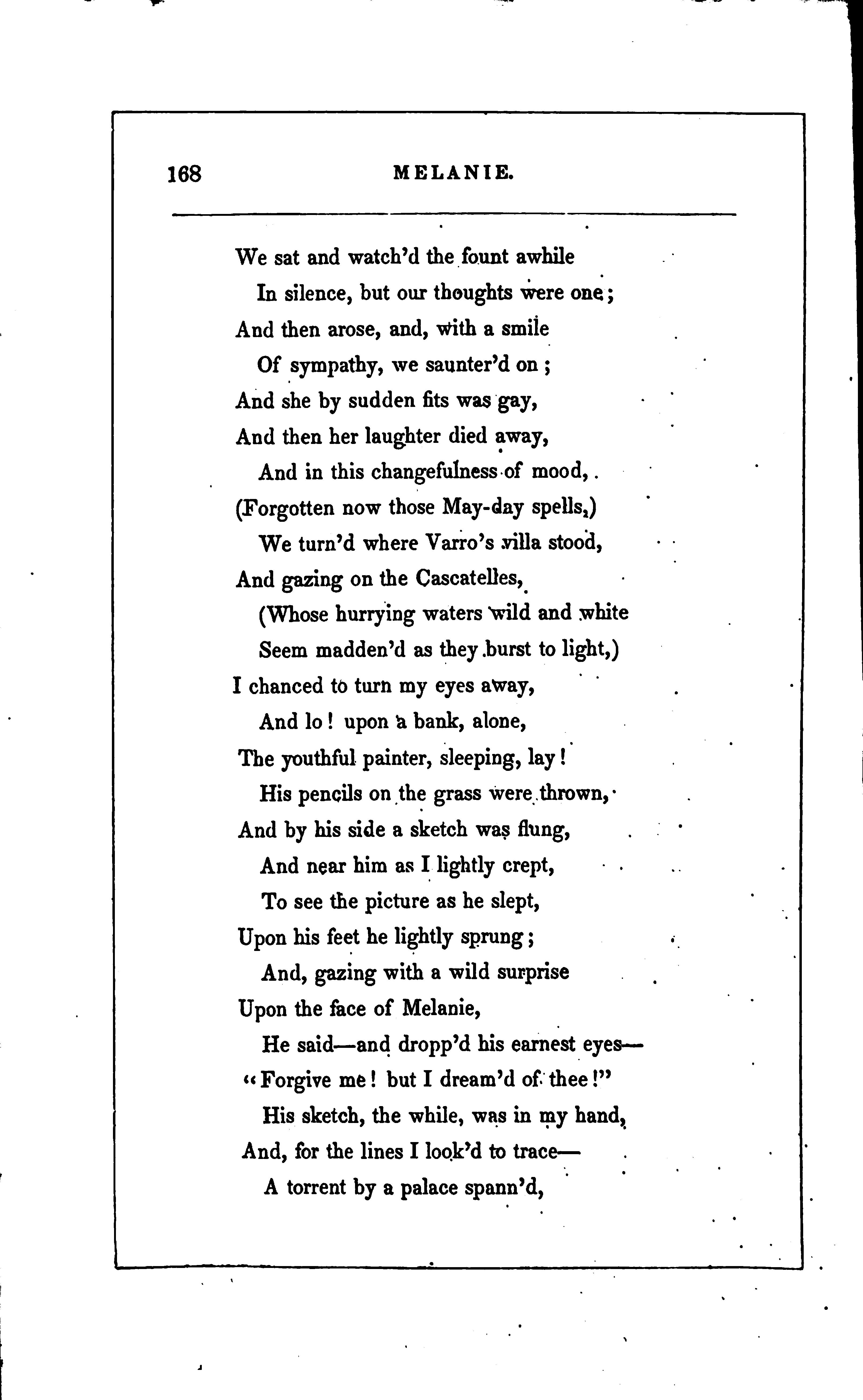

Half classic and half fairy-landI onlyfound my sister's face!
Our life was changed. Another love In its lone woof began to twine ; But ah ! the golden thread was wove· Between my sister'sheart and mine! She who had lived for me beforeShe who had smiled for me aloneWould live and smile for me no more! The echo to my heart was gone ! It seem'd to methevery skies Had shone through those averted eyes; The air had breathed of balm-the flower Of radiant beauty seem'd to be-
But as she loved them, hour by hour, And murmur'd of that love to me!
Oh, though it be so heavenly high The selfishness of earth above, That, ofthe watchers in the sky, He sleeps who guards a brother's loveThough to a sister's present weal
The deep devotion far transcends The utmost that the soul can feel
For even its own higher ends-
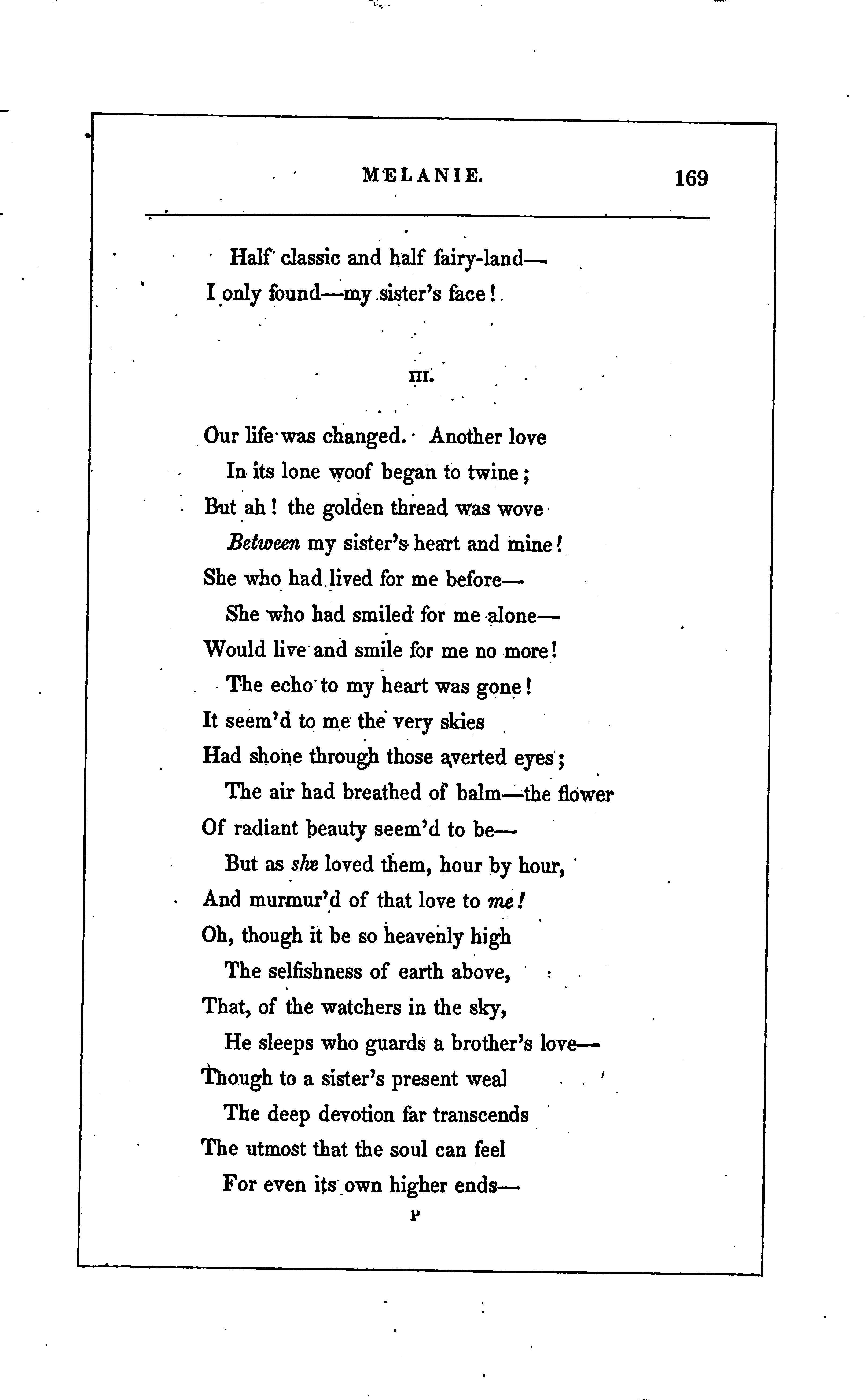

Though next to God, and more than heaven
Forhis own sake, he loves her, even "Tis difficult to see another, A passing stranger of a day, Who never hath been friend or brother, Pluck with a look her heart away
To see the fair, unsullied brow, Ne'er kiss'd before without a prayer, Upon a stranger's bosom now, Who forthe boon took little careWho is enrich'd, he knows not whyWho suddenly hath found a treasure Golconda were too poor to buy, And he, perhaps, too cold to measure (Albeit, in her forgetful dream, Th' unconscious idol happier seem,) 'Tis difficult at once to crush
The rebel mourner inthe breast, Topress the heart to earth, and hush Its bitterjealousy to rest And difficult-the eye gets dim, The lip wants power-to smile on him!
I thank sweet Mary Mother now, Who gave me strength those pangs to hideAnd touch'd mine eyes and lit my brow
With sunshine that my heart belied.
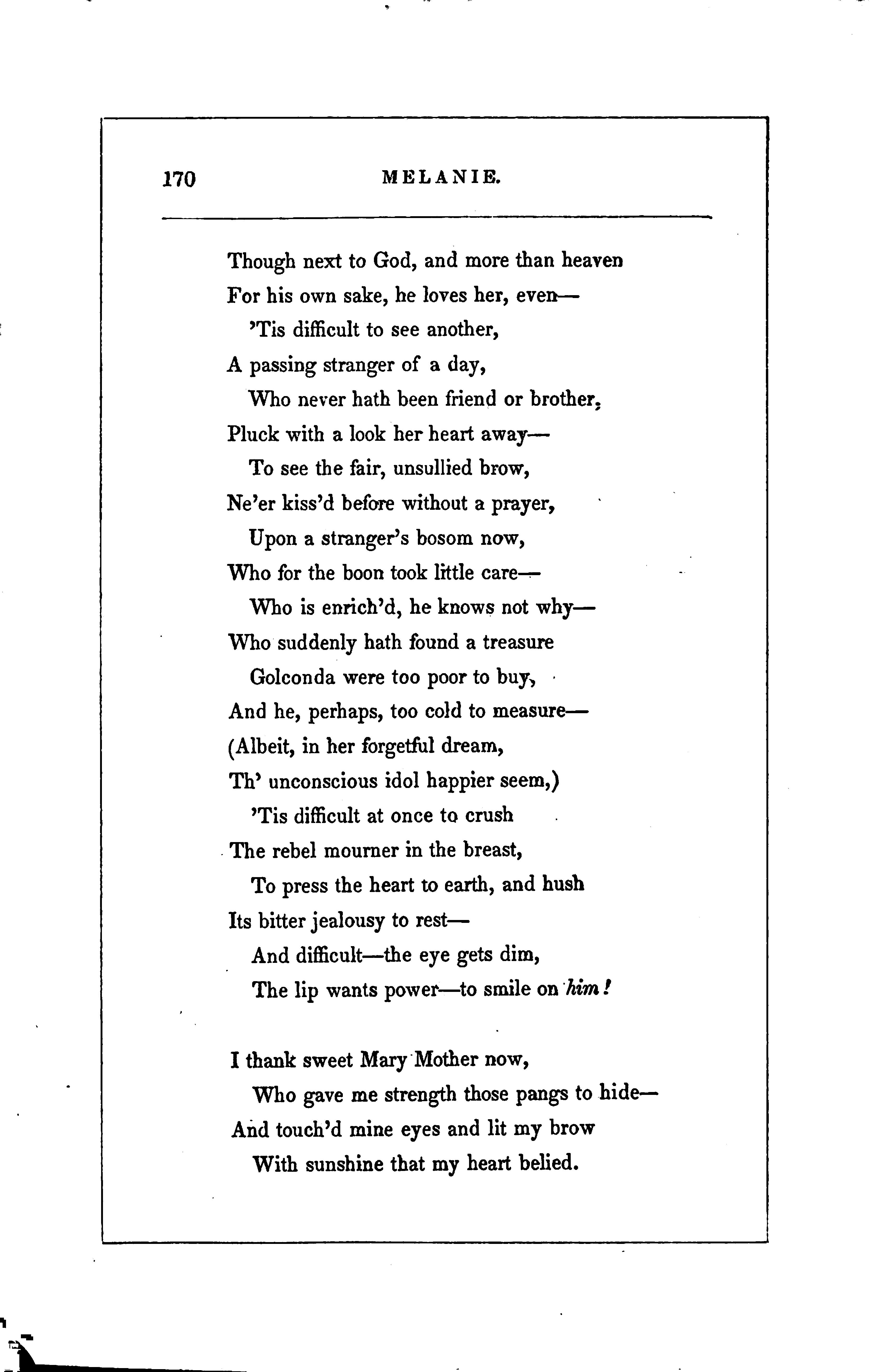

I never spoke of wealth or race
To one who ask'd so much from meI look'd but in my sister's face, And mused if she would happier be; And hour by hour, and day by day, I loved the gentle painter more, And, in the same soft measure, wore My selfish jealousy away; And I began to watch his mood, And feel, with her, love's trembling care, And bade God bless him as he woo'd That loving girl so fond and fair. And on my mind would sometimes press A fear that she might love him less.
But Melanie-I little dream'd
What spells the stirring heart may movePygmalion's statue never seem'd More changed with life, than she with love!
The pearl-tint of the early dawn
Flush'd into day-spring's rosy hueThe meek, moss-folded bud of morn
Flung open tothe light and dewThe first and half-seen star of even Wax'd clear amid the deepening heavenSimilitudes perchance may be! But these are changes oftener seen,
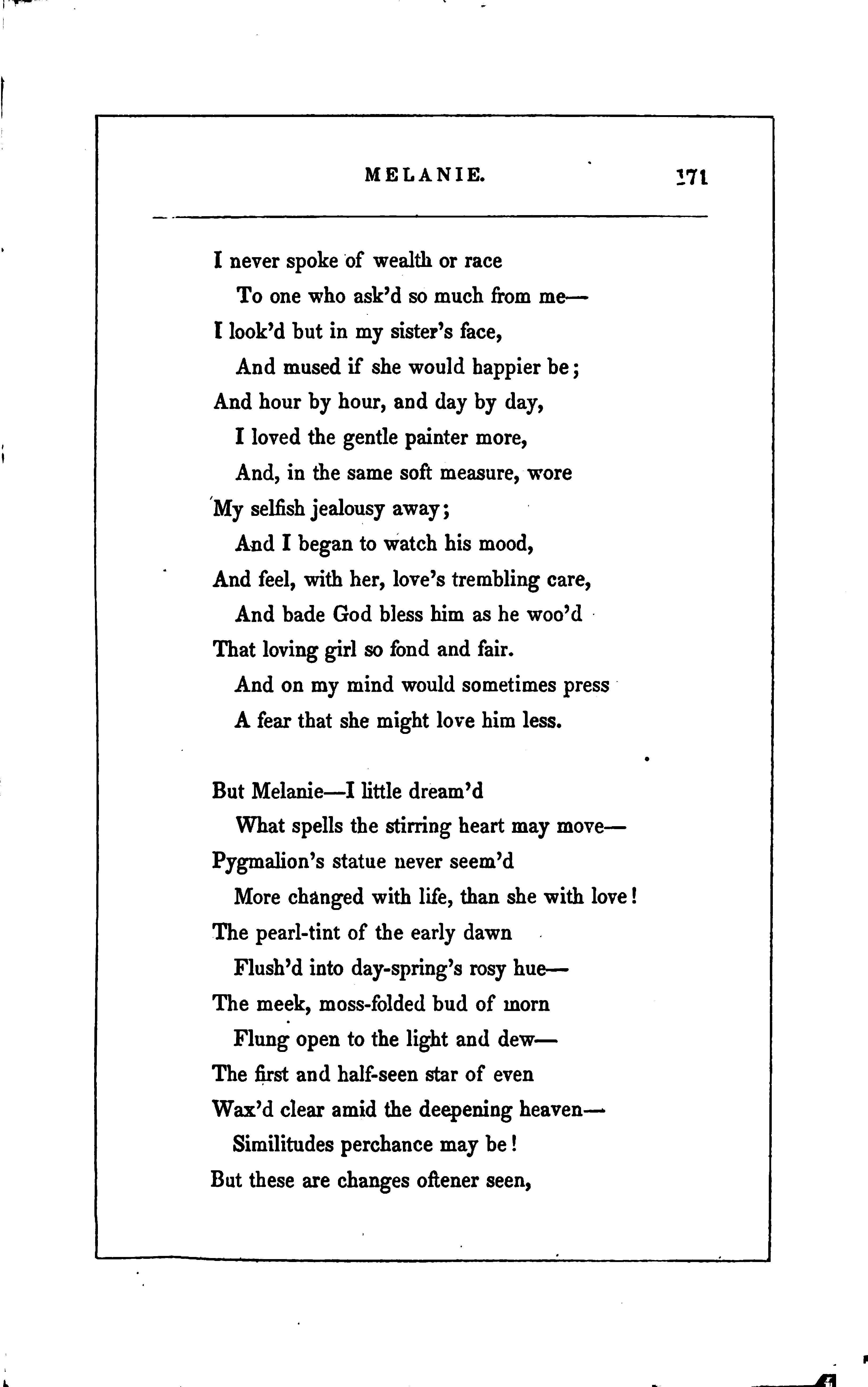

And do not image half to me
My sister's change of face and mien. 'Twas written in her very air
That Love had pass'd and enter'd there.
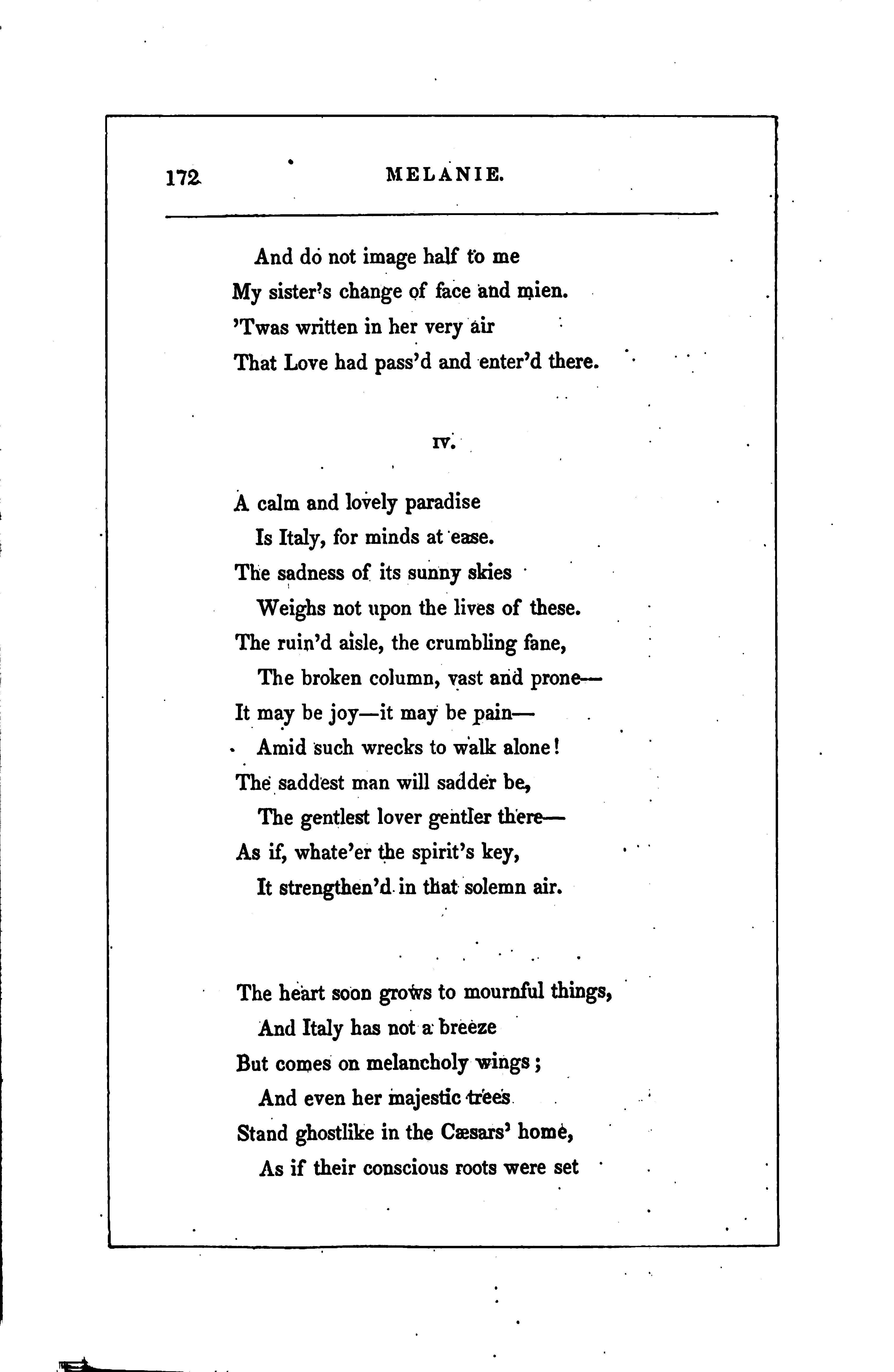
A calm and lovely paradise Is Italy, for minds at ease.
The sadness of its sunny skies Weighs not upon the lives of these.
The ruin'd aisle, the crumbling fane, The broken column, vast and prone--It may be joy-it may be pain Amid such wrecks to walk alone!
The saddest man will sadder be, The gentlest lover gentler there-
As if, whate'er the spirit's key, It strengthen'd in that solemn air.
The heart soon grows to mournful things, And Italy has not a breeze
But comes on melancholy wings ; And even her majestic trees
Stand ghostlike in the Cæsars' home, As if their conscious roots were set

In the old graves of giant Rome, And drewtheir sap all kingly yet! And every stone e your feet beneath Is broken from some mighty thought; And sculptures in the dust still breathe
The fire with which their lines were wrought ; And sunder'd arch and plunder'd tomb Still thunder back the echo, " Rome!"
Yet, gayly o'er Egeria's fount
The ivy flings its emerald veil, And flowers growfair on Numa's mount, : And light-sprung arches span the dale; And soft, from Caracalla's baths
The herdsman's song comes down the breeze, While climb his goats the giddy paths
To grass-grown architrave and frieze; And gracefully Albano's hill
Curves into the horizon's line; And sweetly sings that classic rill; And fairly stands that nameless shrine ; And here, oh, many a sultry noon. And starry eve, that happy June, Came Angelo and Melanie !
And earth for us was all in tune
For while Love talk'd with them , Hope walk'd apart with me!
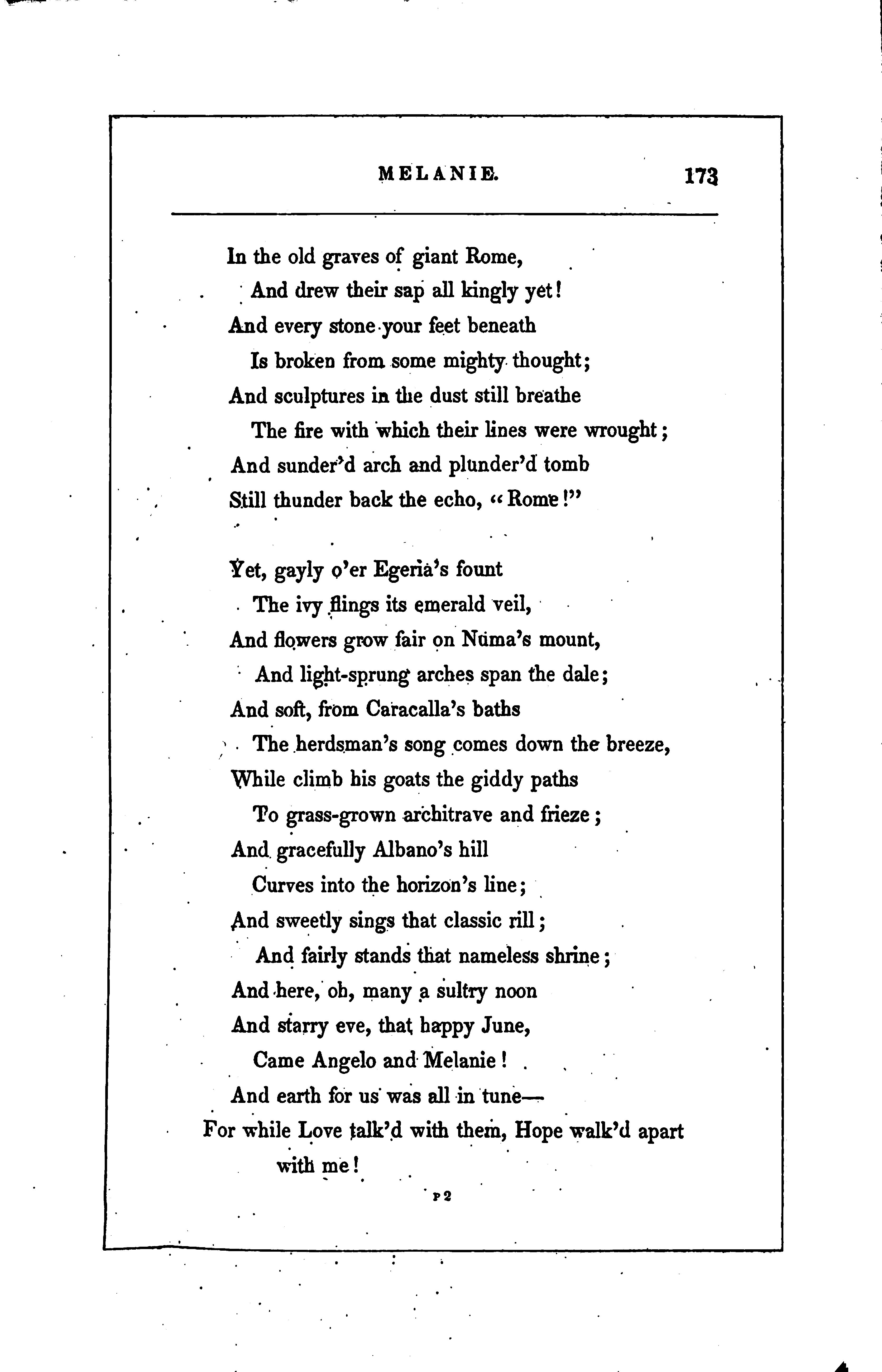

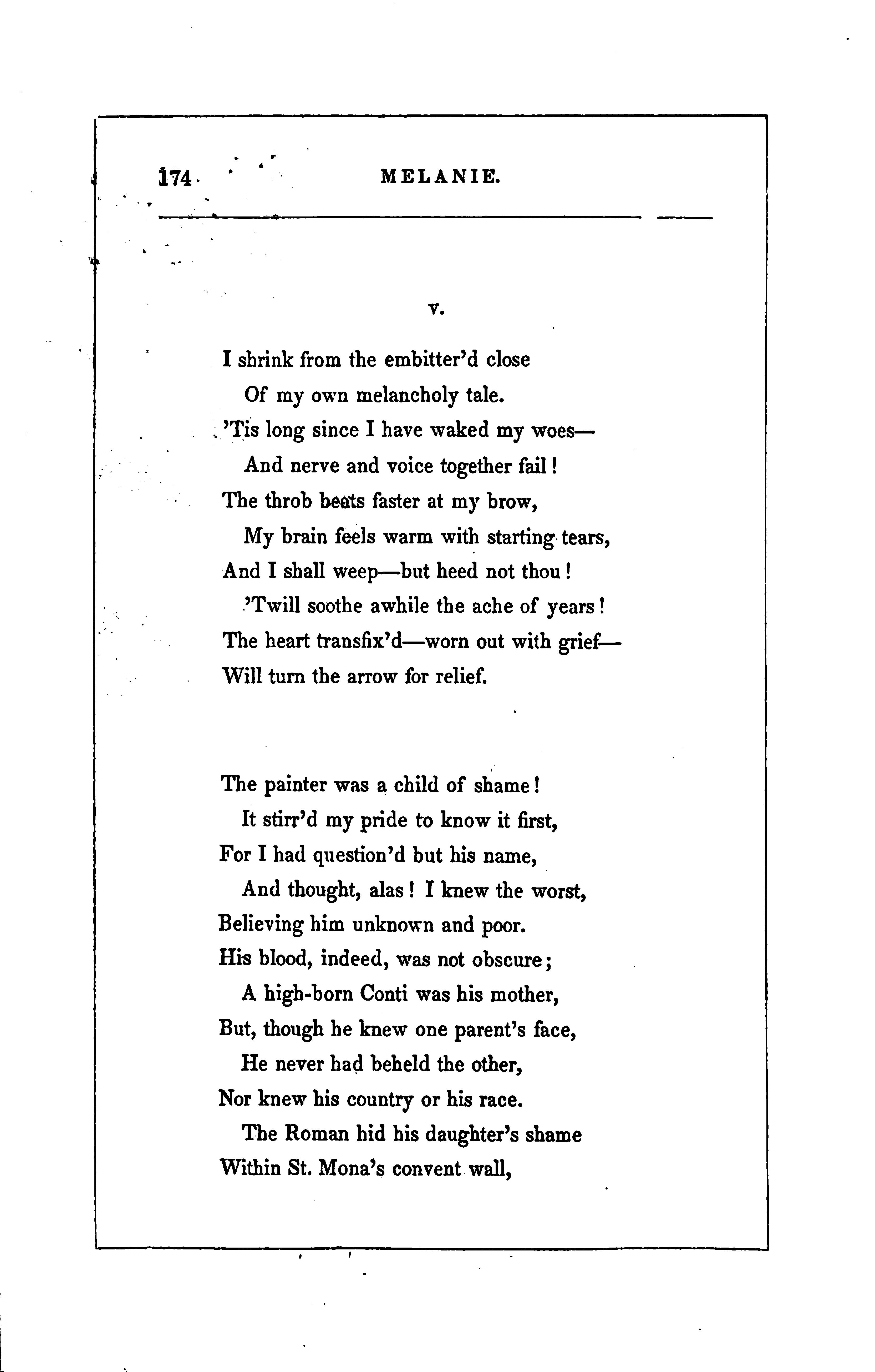
I shrink from the embitter'd close
Of my own melancholy tale. 'Tis long since I have waked my woesAnd nerve and voice together fail! The throb beats faster at my brow, My brain feels warm with starting tears, And I shall weep-but heed not thou! 'Twill soothe awhile the ache of years! The heart transfix'd-worn out with griefWill turn the arrow for relief.
The painter was a child of shame ! It stirr'd my pride to know it first, For I had question'd but his name, And thought, alas ! I knewthe worst, Believing him unknown and poor. His blood, indeed, was not obscure; A high-born Conti was his mother, But, though he knew one parent's face, He never had beheld the other, Nor knew his country or his race. The Roman hid his daughter's shame Within St. Mona's convent wall,

And gave the boy a painter's name And little else to live withal!
And, with a noble's high desires Forever mounting in his heart,
The boy consumed with hidden fires, But wrought in silence at his art ; And sometimes at St. Mona's shrine, Worn thin with penance harsh and long, He saw his mother's form divine, And loved her for their mutual wrong. I said my pride was stirr'd but no ! The voice that told its bitter tale Was touch'd so mournfully with wo,
And, as he ceased, all deathly pale, He loosed the hand of Melanie, And gazed so gaspingly on me-
The demon in my bosom died! "Not thine," I said, " another's guilt ; I break no hearts for silly pride ; So, kiss yon weeper if thou wilt!" VI.
St. Mona's morning mass was done,
The shrine-lamps struggled with the day ; And rising slowly, one by one, Stole the last worshippers away.
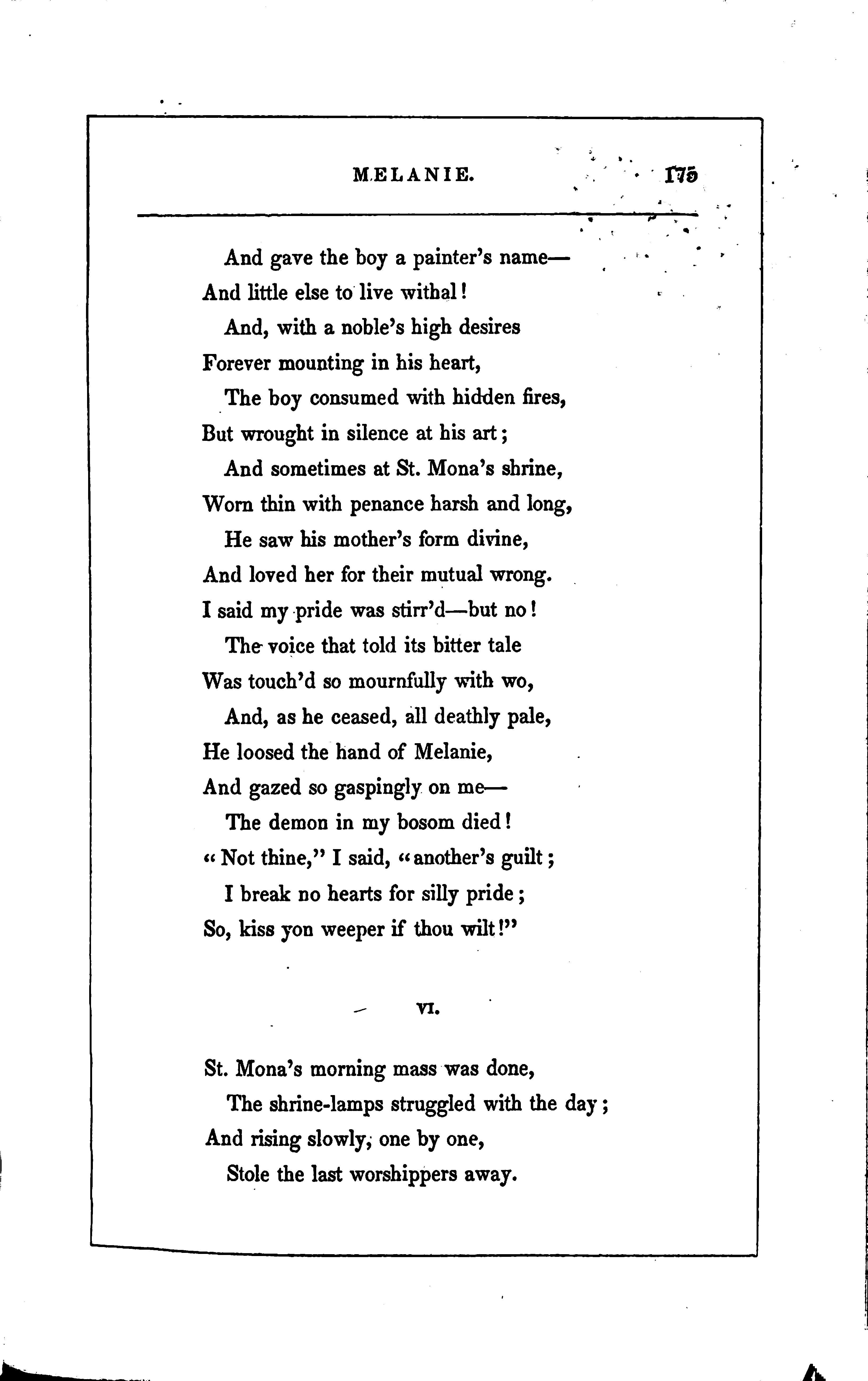

The.organist play'd out the hymn, The incense, to St. Mary swung, Had mounted to the cherubim,
Or to the pillars thinly clung; · And boyish chorister replaced The missal that was read no more, And closed, with half irreverent haste, Confessional and chancel door; And as, through aisle and oriel pane, The sun wore round his slanting beam, The dying martyr stirr'd again, And warriors battled in its gleam ; And costly tomb and sculptured knight Show'd warm and wondrous in the light, I have not said that Melanie. Was radiantly fair
This earth again may never see A loveliness so rare!
She glided-up St. Mona's aisle
That morning as a bride, And, full as was my heart the while, I bless'd her in my pride!
The fountain may not fail the less Whose sands are golden ore,
And a sister for her loveliness, May not be loved the more ;
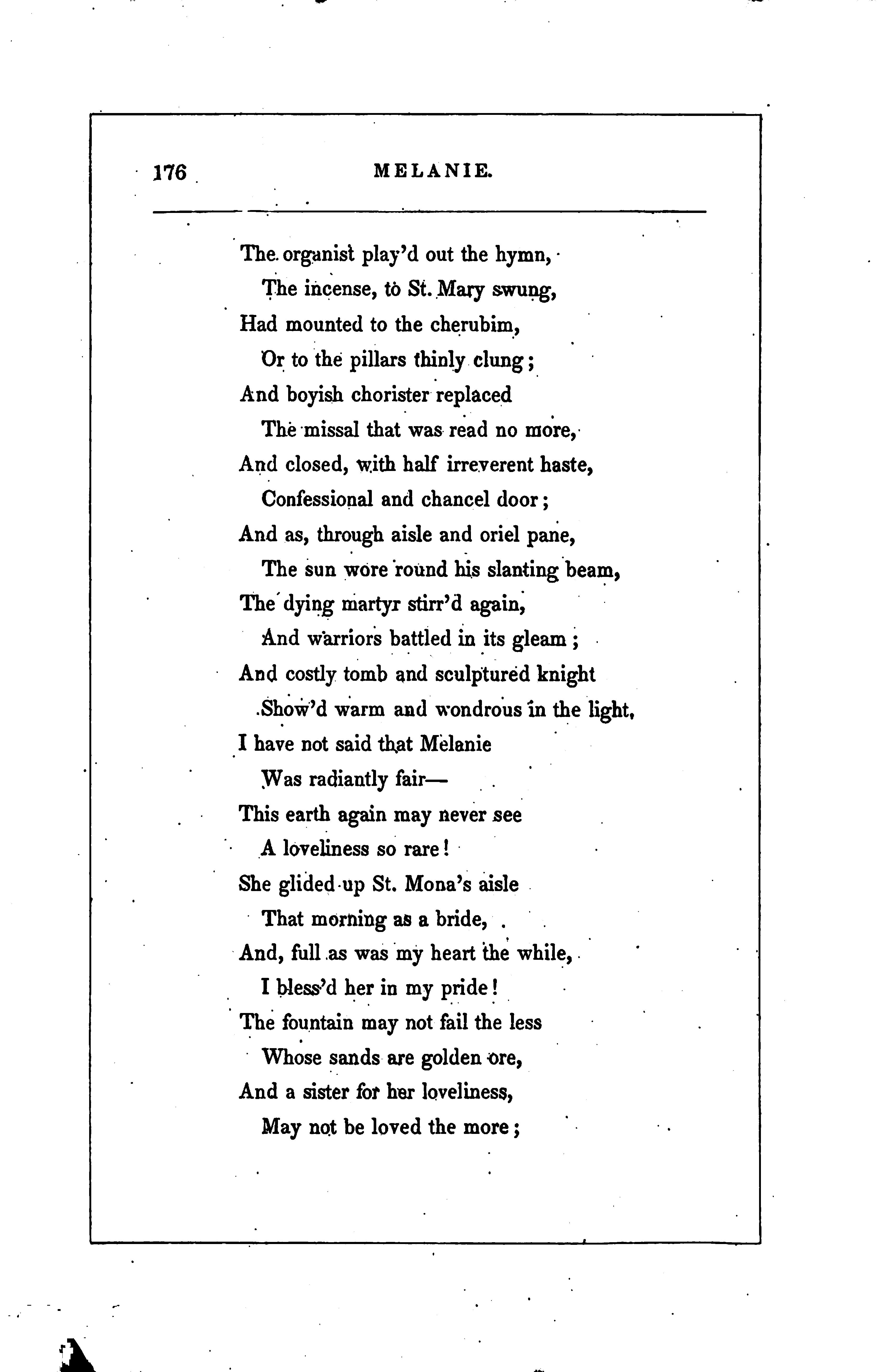

But as, the fount's full heart beneath, Those golden sparkles shine,. My sister's beauty seem'd to breathe Its brightness over mine !
St. Mona has a chapel dim Within the altar's fretted pale, Where faintly comes the swelling hymn, And dies, half lost, the anthem's wail. And here, in twilight meet for prayer, A single lamp hangs o'er the shrine, And Raphael's Mary, soft and fair, Looks down with sweetness half divine,. And here St. Mona's nuns alway Through latticed bars are seen to pray.
Avé and sacrament were o'er, And Angelo and Melanie
Still knelt the holy shrine before ; But prayer that morn was not for me !
My heart was lock'd ! The lip might stir, The frame might.agonize and yet, Oh God ! I could not pray for her!
A seal upon my brow was setMy brow was hot-my brain oppress'dAnd frends seem'd muttering round, « Your bridal is unblest!"
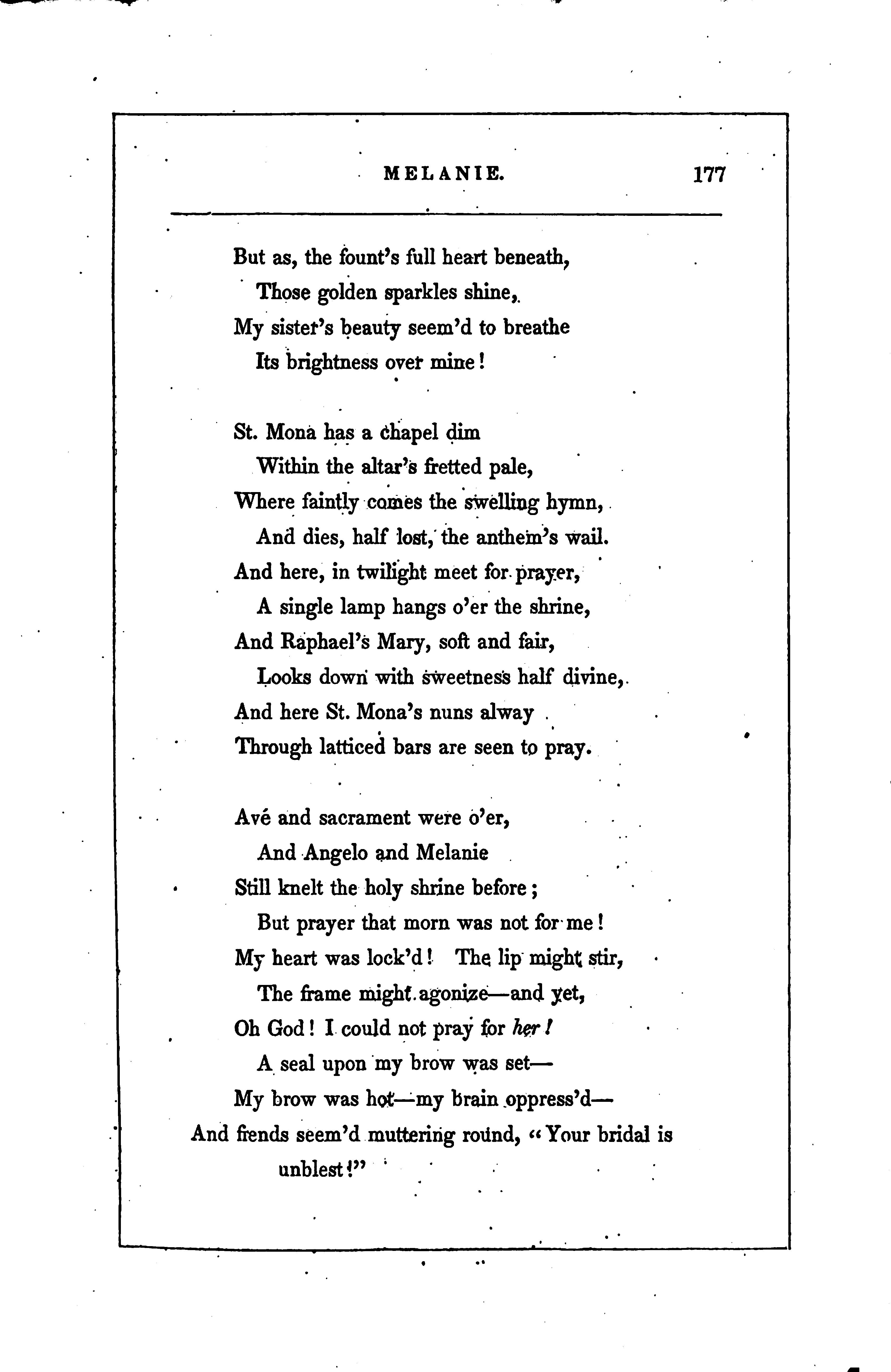

With forehead to the lattice laid, And thin, white fingers straining through, A nunthe while had softly pray'd. Oh, ev'n in prayer that voice I knew! Each faltering word-each mournful toneEach pleading cadence, half suppress'dSuch music had its like alone
On lips that stole it at her breast ! And ere the orison was done I loved the mother as the son!
And now, the marriage vows to hear, The nun unveil'd her browWhen, sudden, to my startled ear, There crept a whisper, hoarse like fear, " De Brevern ! is it thou !"
The priest let fall the golden ring, The bridegroom stood aghast, While, like some weird and frantic thing, The nun was muttering fast ; And as, in dread, I nearer drew, She thrust her arms the lattice through, And held me to her straining viewBut suddenly begun
To steal upon her brain a light That stagger'd soul, and sense, and sight, And, with a mouth all ashy white,
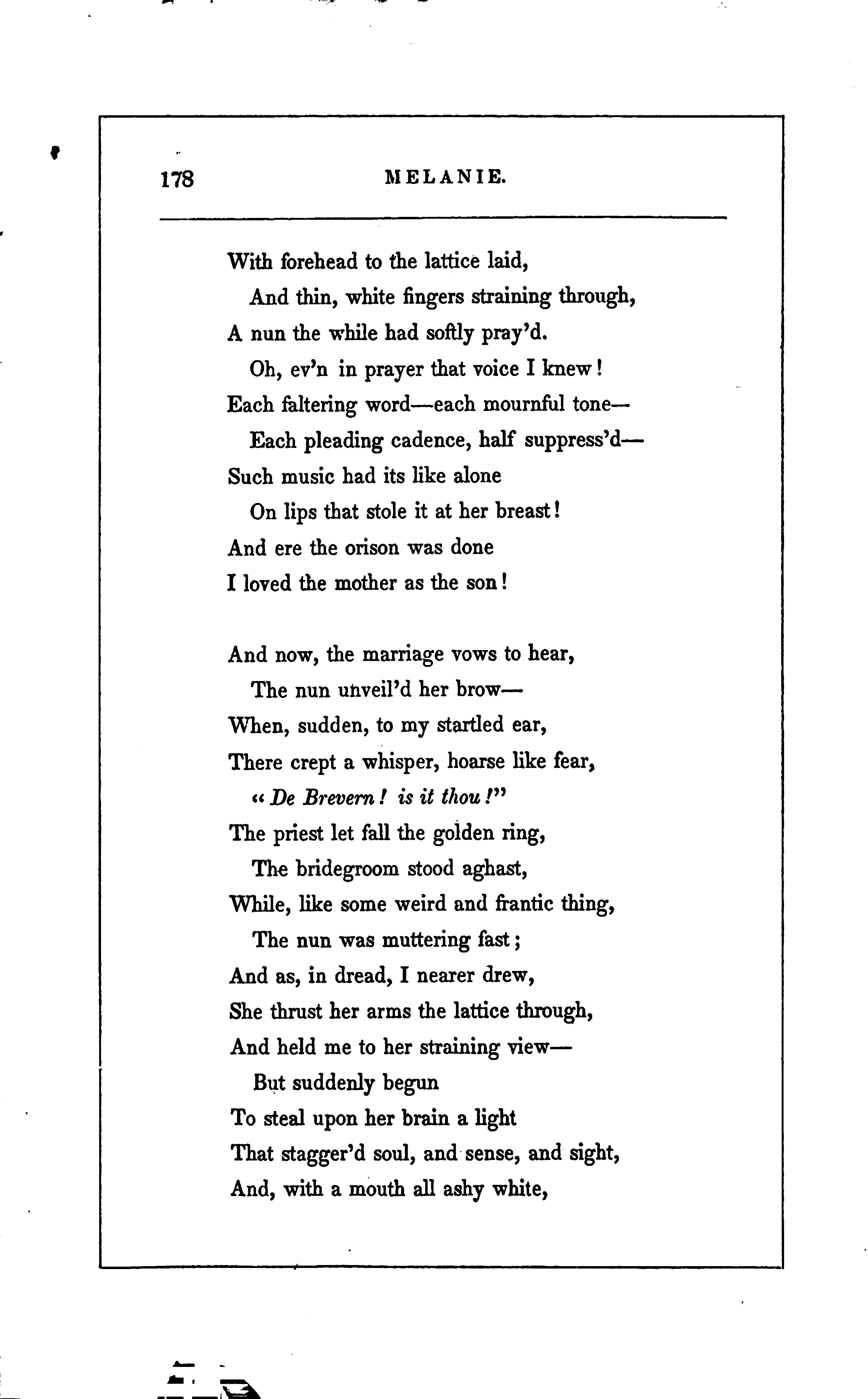

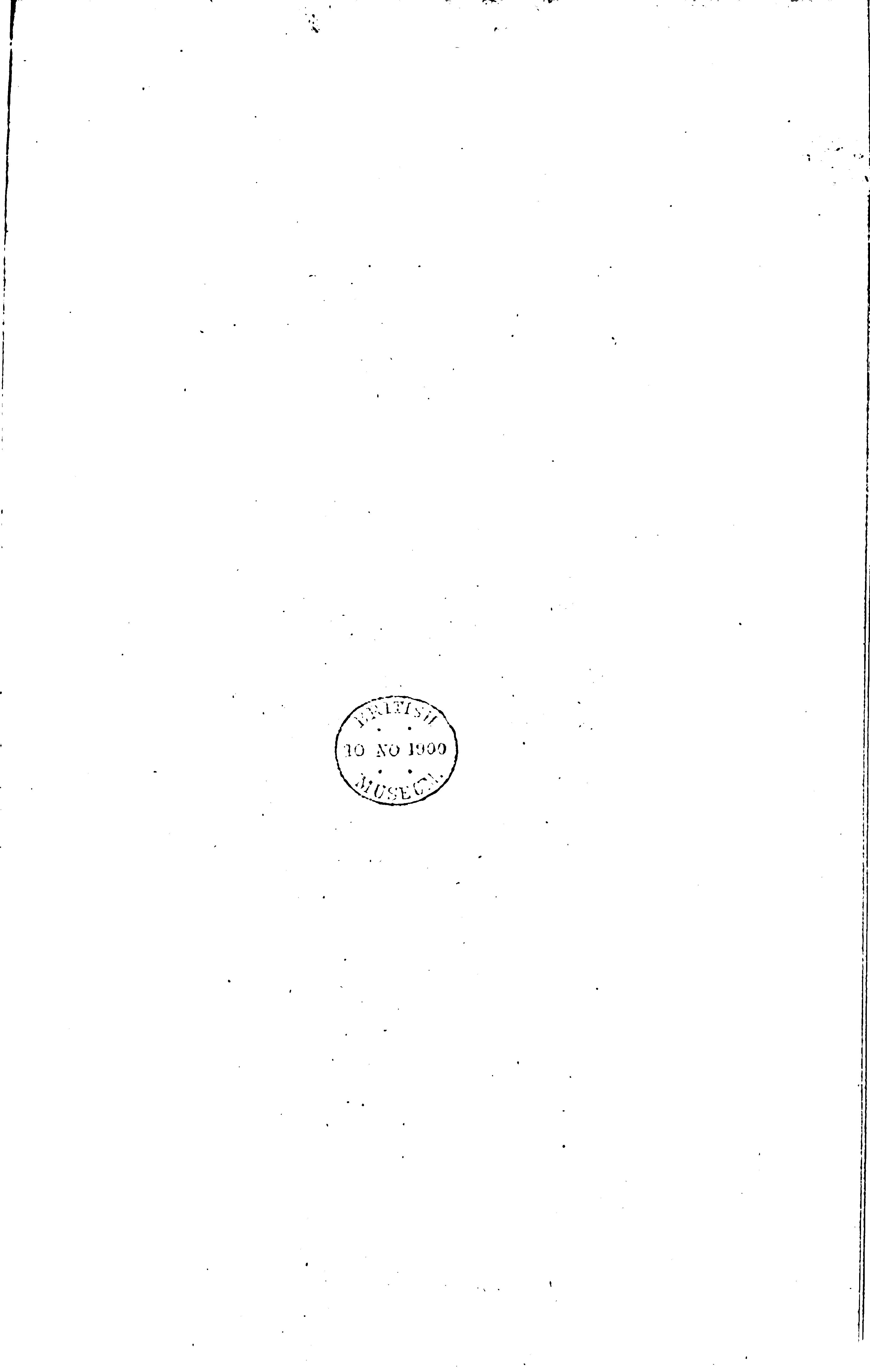


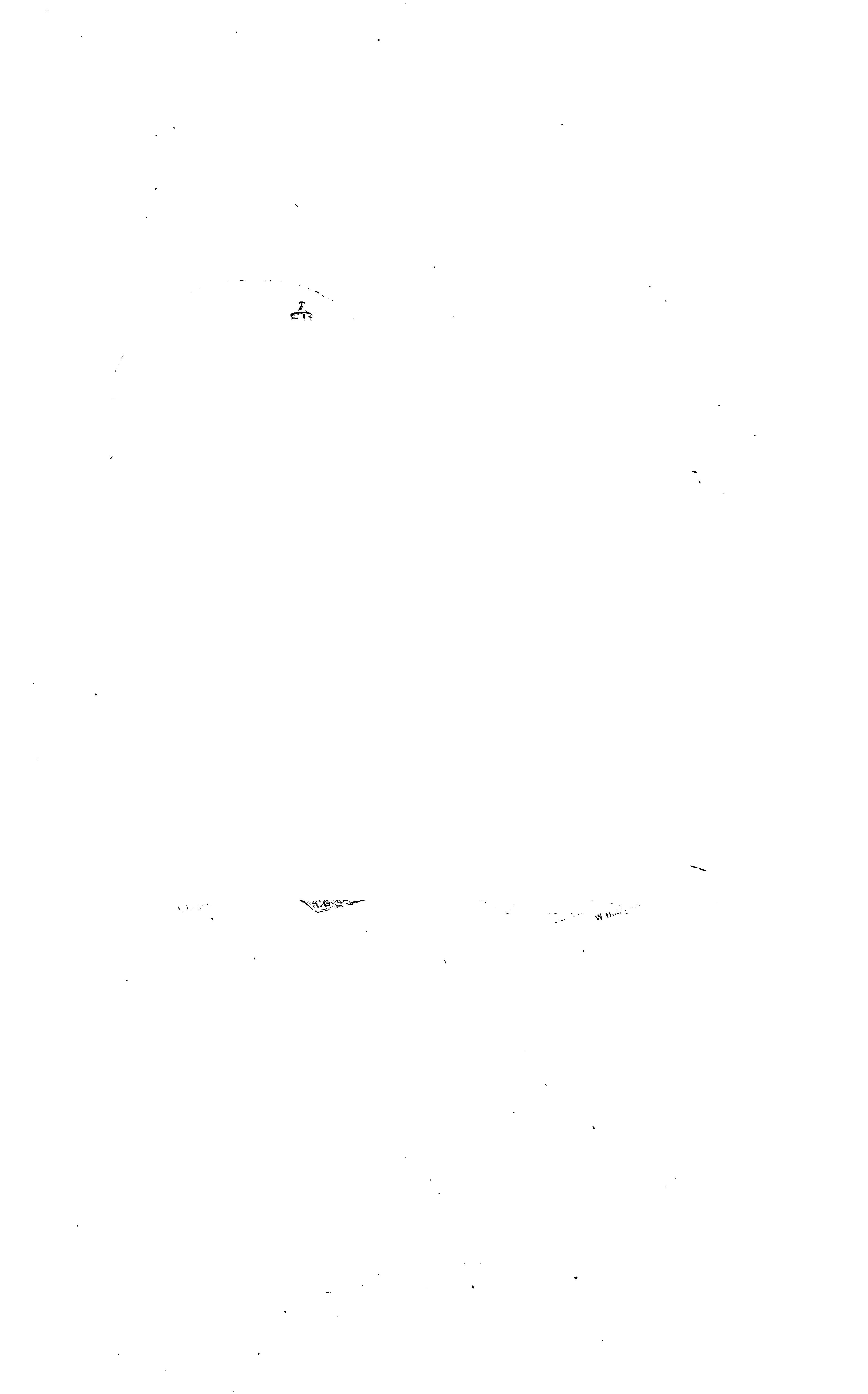
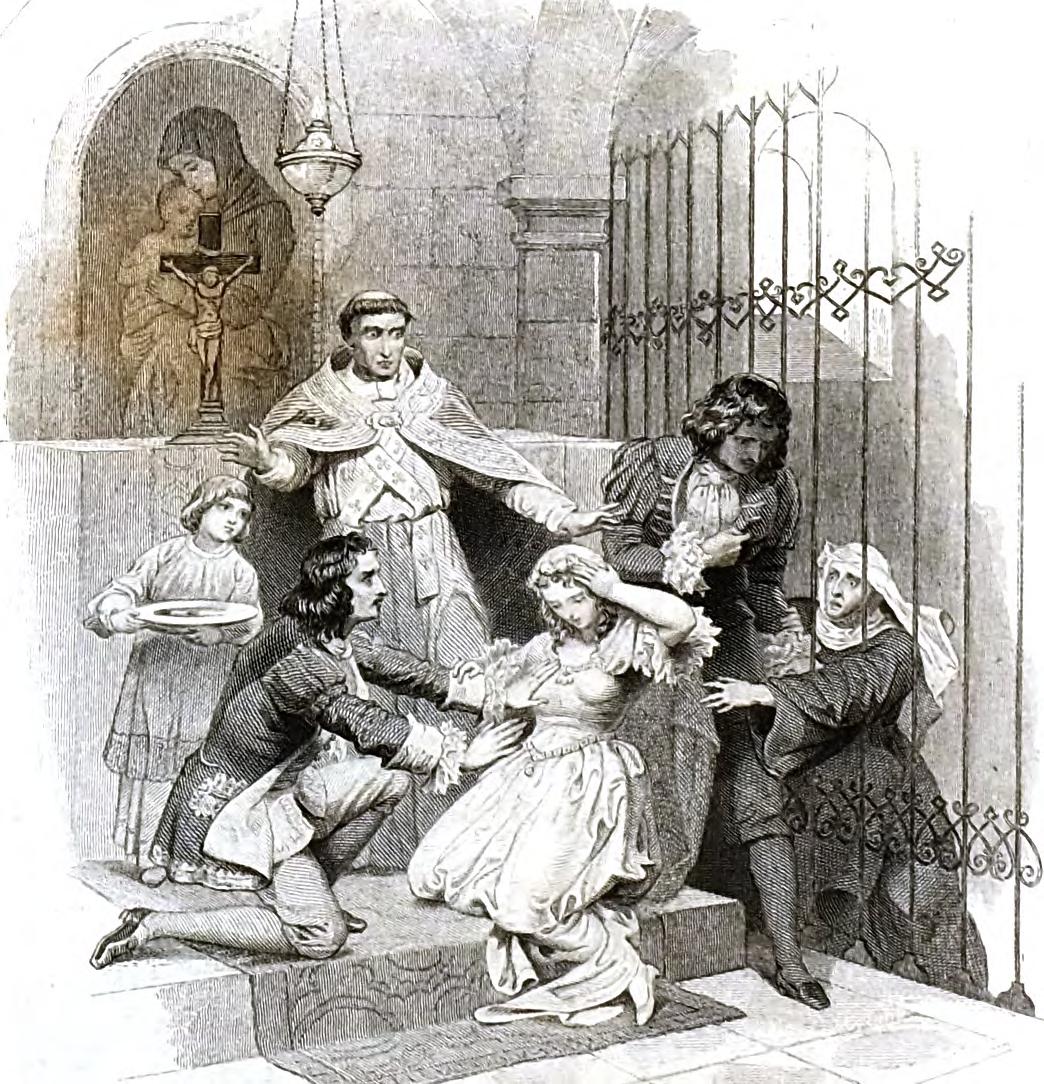
 ELeutze
MELANIE.
WHumphrys
ELeutze
MELANIE.
WHumphrys
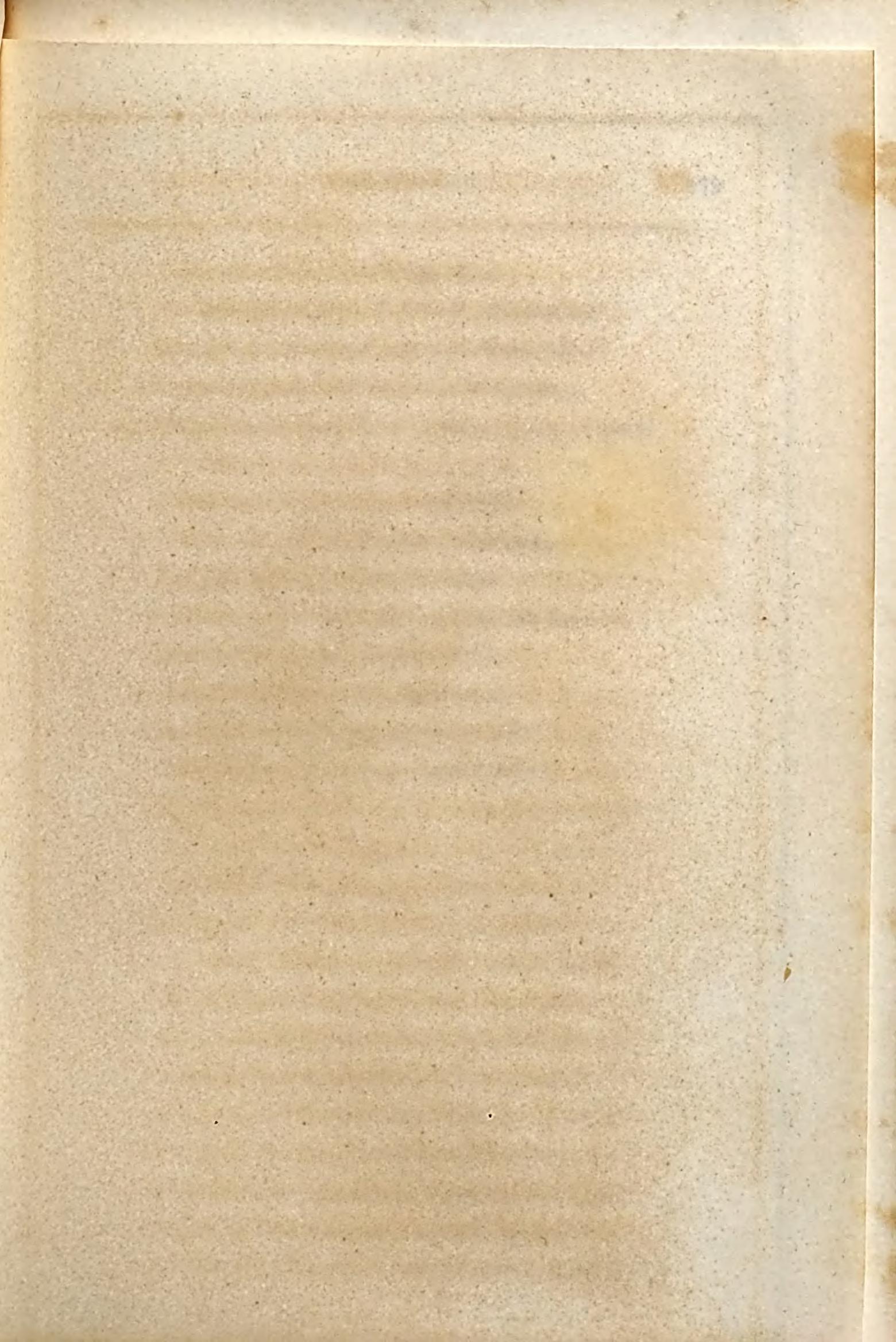

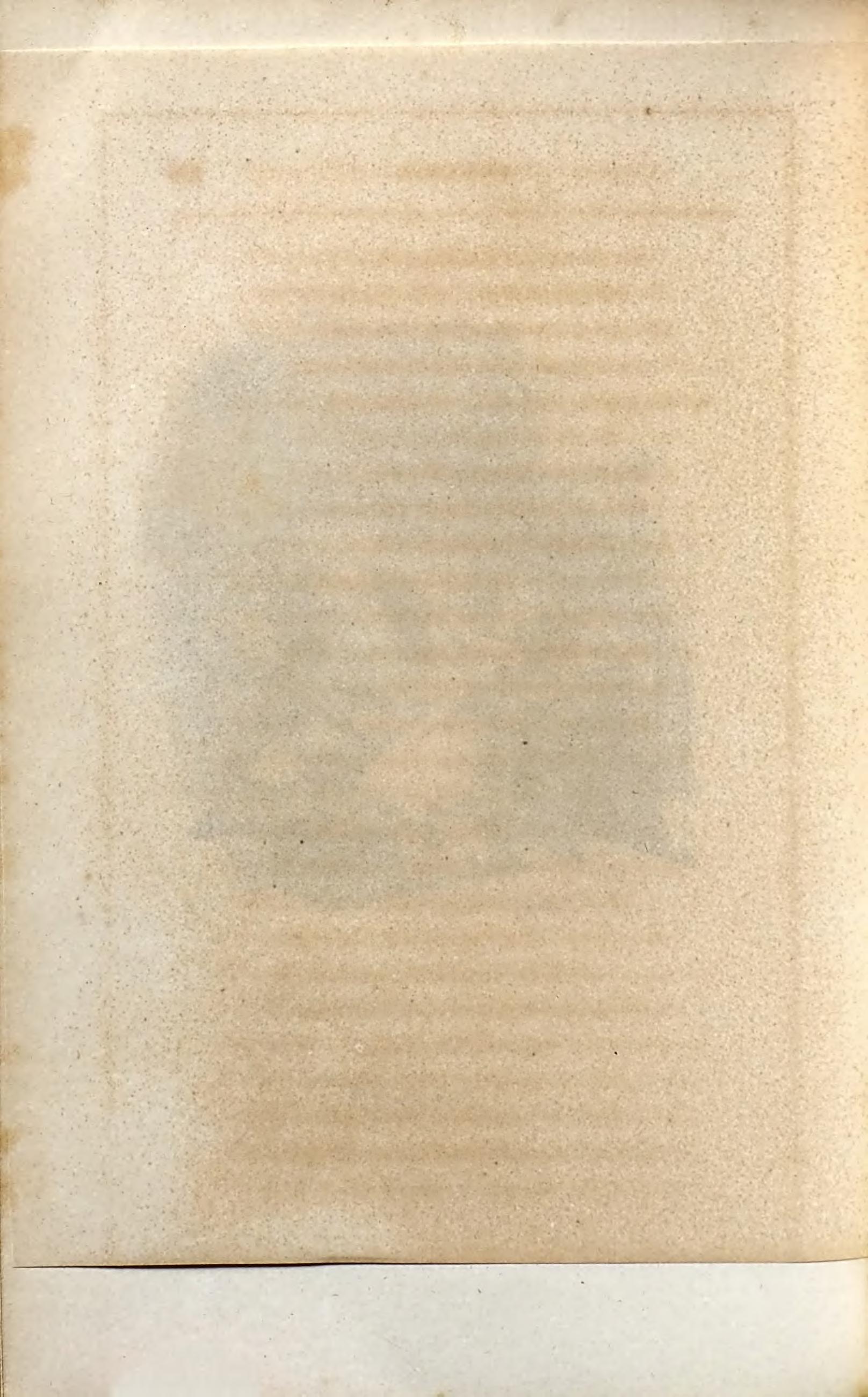

She shriek'd, " It is his son!
The bridegroom is thy blood-thybrother! Rodolph de Brevern wrong'd his mother! And, as that doom of love was heard, My sister sunk-and died-without a sign or word!
I shed no tear for her. She died With her last sunshine in her eyes. Earth held for her nojoy beside The hope just shatter'd and she lies In a green nook of yonder dell ; And near her, in a newer bed, Her lover-brother-sleeps as well ! Peace to the broken-hearted dead!
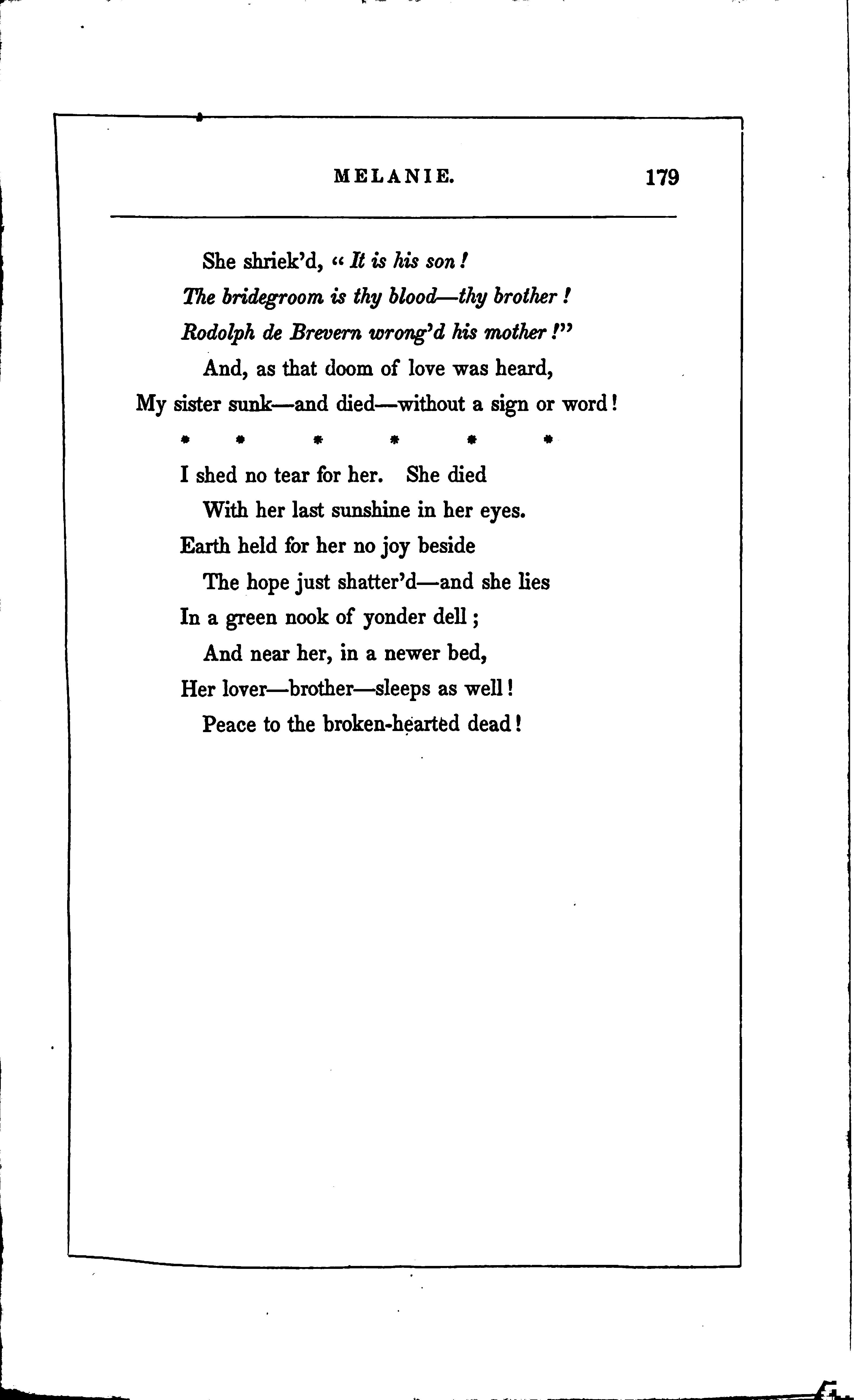

180 LORD IVON AND HIS DAUGHTER.
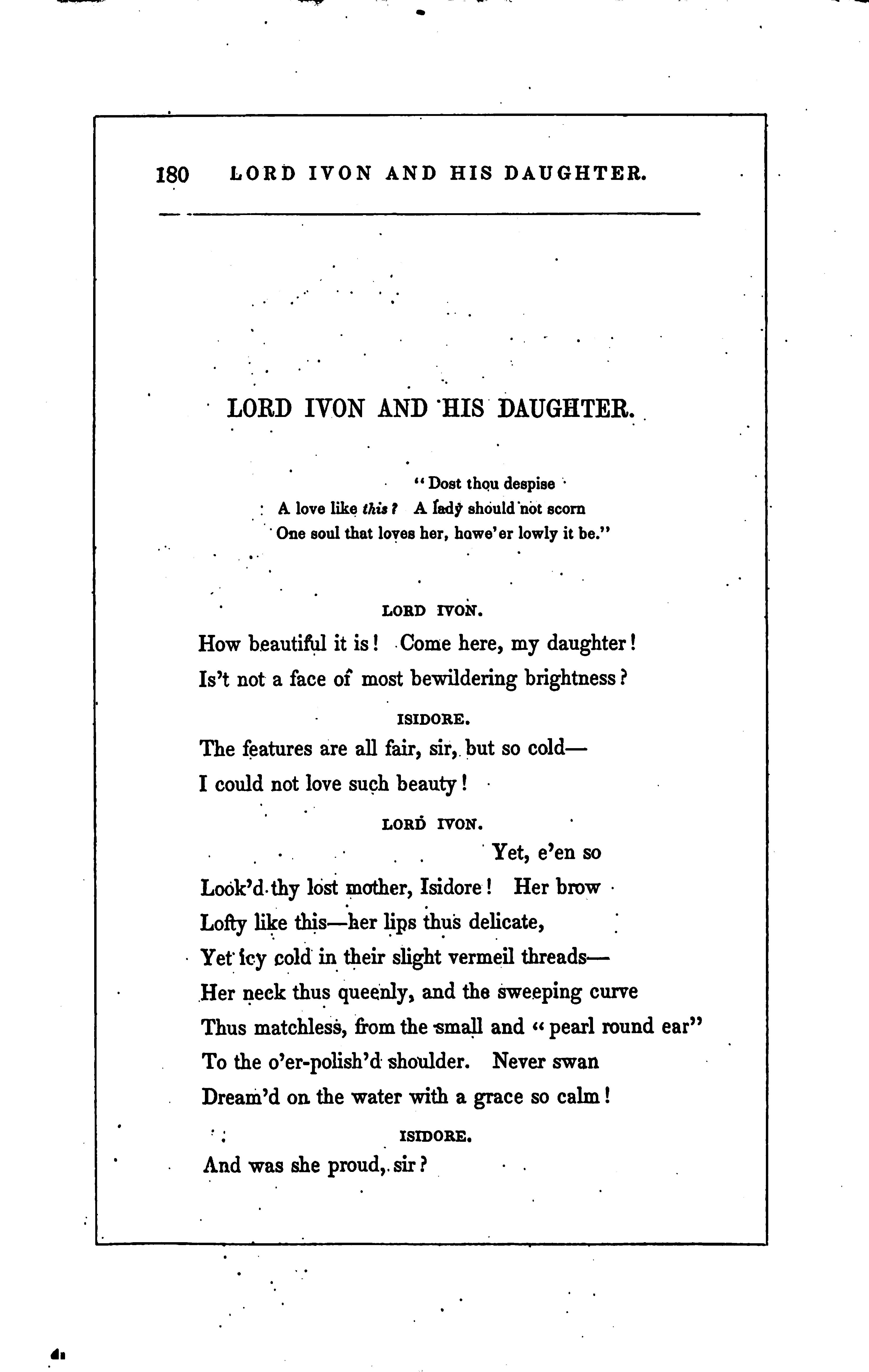
LORD IVON AND HIS DAUGHTER.
"Dostthoudespise · A love like this? A lady should not scorn One soul that loves her, howe'erlowlyitbe."
LORD IVON.
How beautiful it is ! Come here, my daughter! Is't not a face of most bewildering brightness ? ISIDORE.
The features are all fair, sir, but so coldI could not love such beauty!
LORD IVON.
Yet, e'en so
Look'd thy lost mother, Isidore ! Her brow Lofty like this-her lips thus delicate, Yeticy cold in their slight vermeil threadsHer neckthus queenly, and the sweeping curve Thus matchless, from the small and " pearl round ear"
To the o'er-polish'd shoulder. Never swan Dream'd onthe water with a grace so calm ! ISIDORE.
And was she proud,.sir?

LORD IVON.
IThen runs mylesson
Pride was unlovely.
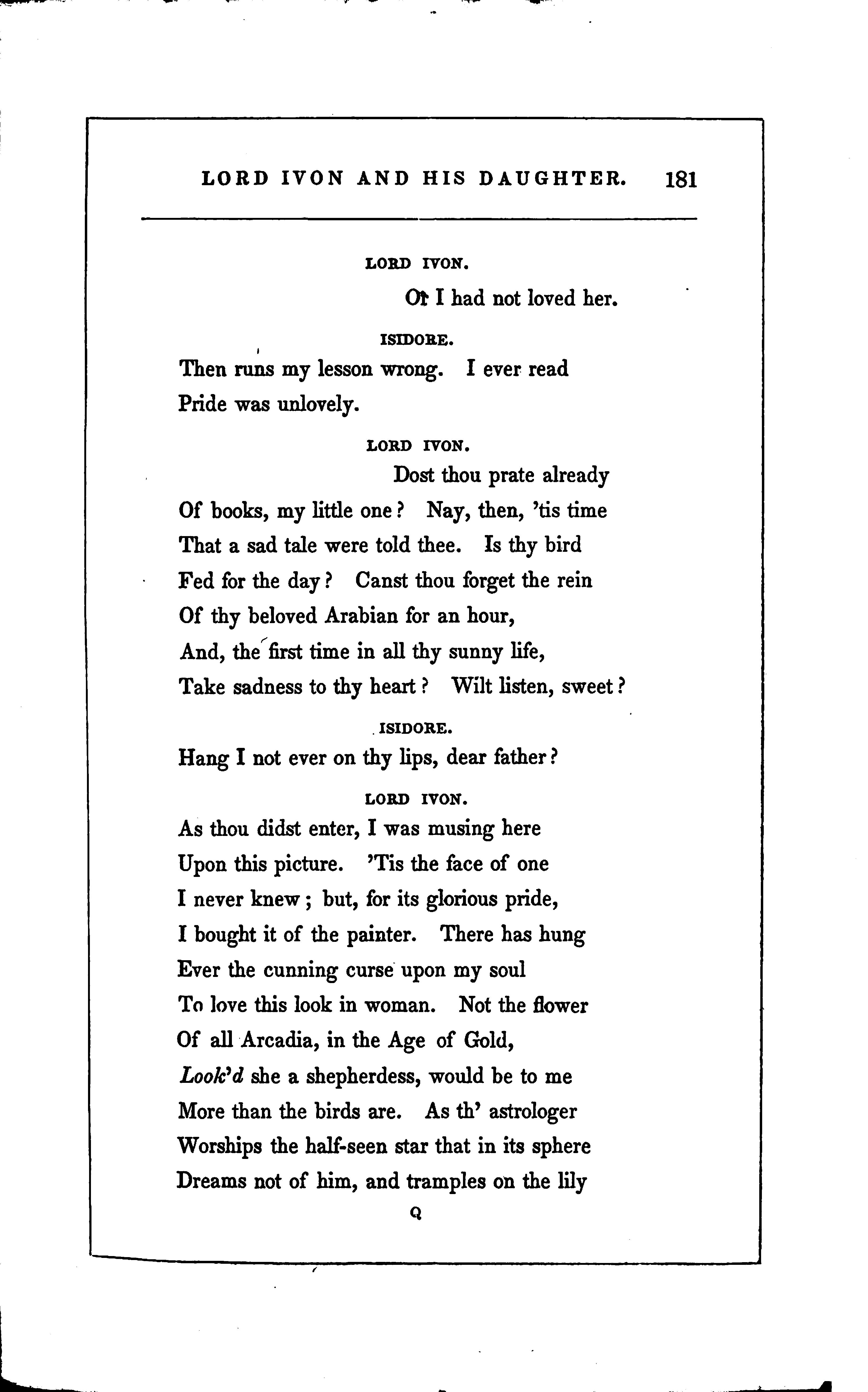
Or I had not loved her. ISIDORE. wrong. I ever read
LORD IVON.
Dost thou prate already
Of books, my little one? Nay, then, 'tis time That a sad tale were told thee. Is thy bird
Fed for the day? Canst thou forget the rein Of thy beloved Arabian for an hour, And, the first time in all thy sunny life, Take sadness to thy heart? Wilt listen, sweet ? ISIDORE.
Hang I not ever on thy lips, dear father?
LORD IVON.
As thou didst enter, I was musing here Upon this picture. 'Tis the face of one I never knew ; but, for its glorious pride, I bought it of the painter. There has hung Ever the cunning curse upon my soul
To love this look in woman. Not the flower
Of all Arcadia, in the Age of Gold, Look'd she a shepherdess, would be to me
More than the birds are. As th' astrologer Worships the half-seen star that in its sphere Dreams not of him, and tramples on the lily

That flings, unask'd, its fragrance in his way, Yet both (as are the high-born and the low) Wrought of the same fine Hand-so, daringly, Flew my boy-hopes beyond me. You are here In a brave palace, Isidore ! The gem That sparkles in your hair imprisons light Drunk in the flaming Orient ; and gold Waits on the bidding of those girlish lips In measure that Aladdin never knew. Yet was I-lowly born!
ISIDORE.
Lord Ivon!
LORD IVON. Ay,
You wonder; but I tell you that the lord Of this tall palace was a peasant's child ! And, looking sometimes on his fair domain, Thy sire bethinks him of a sickly, boy, Nursed by his mother on a mountain side, His only wealth a book of poetry, With which he daily crept into the sun, To cheat sharp pains with the bewildering dream Of beauty he had only read of there.
ISIDORE.
Have you the volume still, sir?
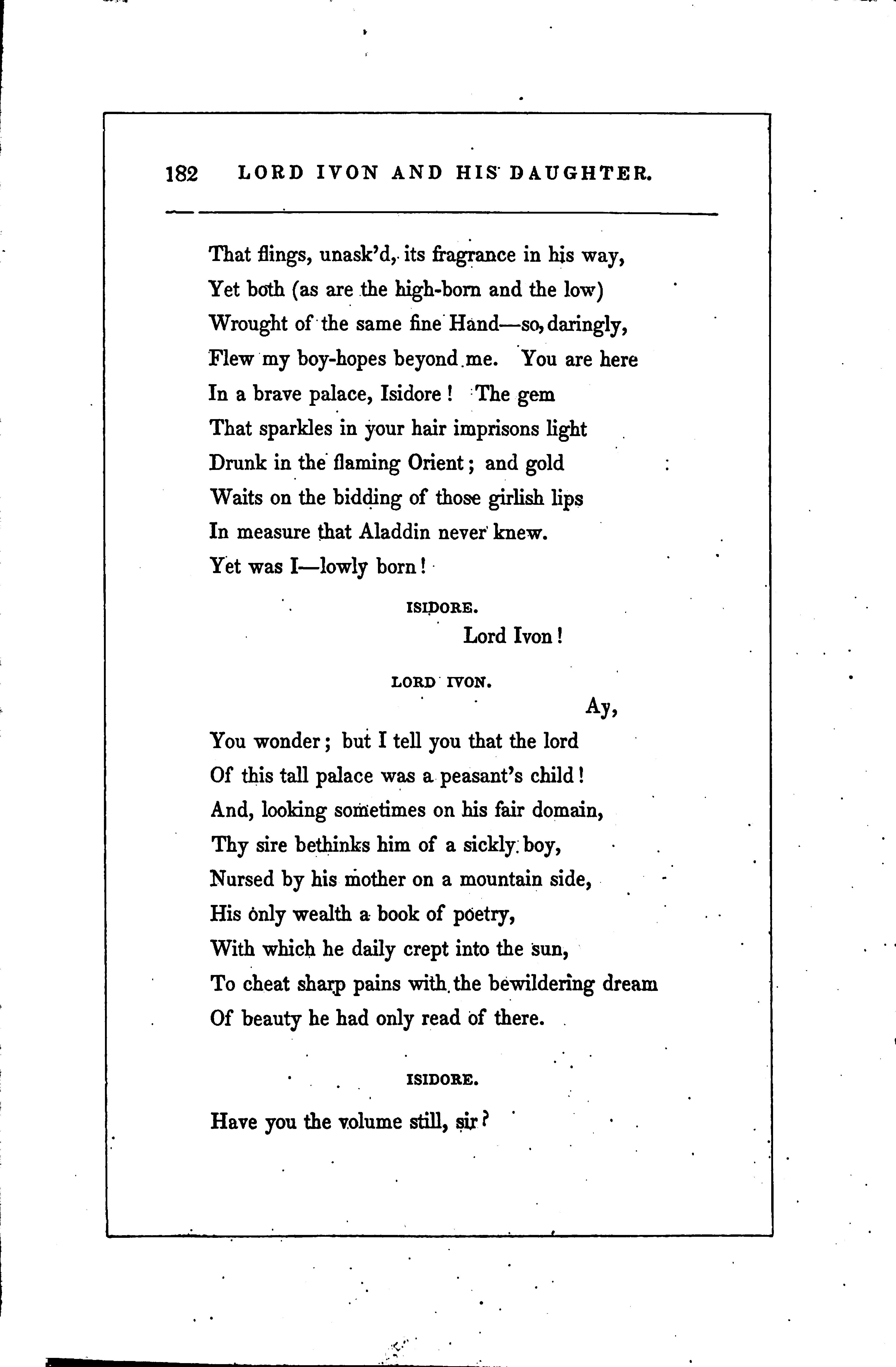

LORD IVON. 'Twas the gift. Of a poor scholar wandering in the hills, Who pitied my sick idleness. I fed
My inmost soul upon the witching rhyme A silly tale of a low minstrel boy, Who broke his heart in singing at a bridal. : ISIDORE.
Loved he the lady, sir?
LORD IVON. So ran the tale. How well I do remember it!
ISIDORE.
Pooryouth!
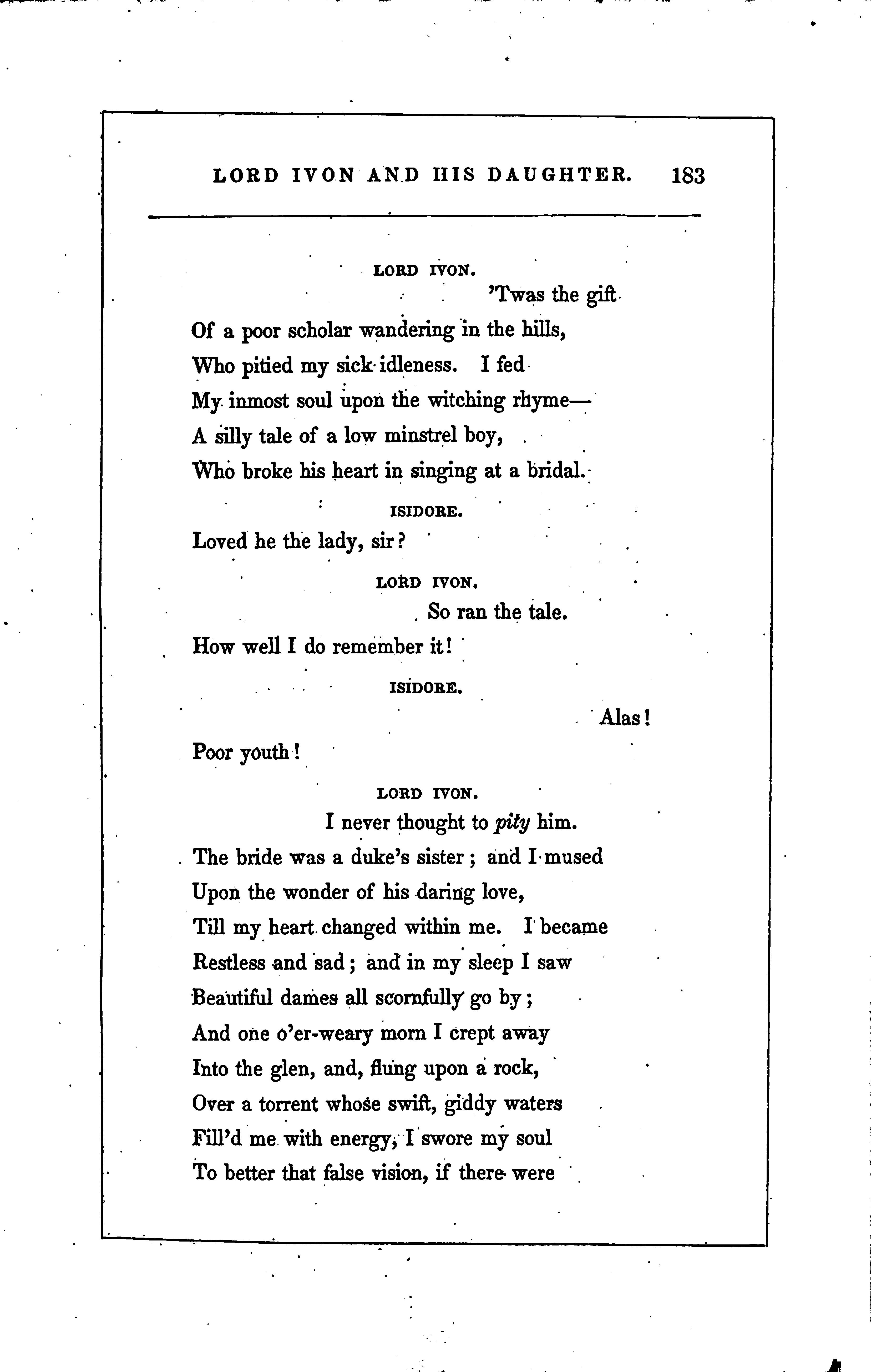
Alas!
LORD IVON. I never thought to pity him.
The bride was a duke's sister ; and I mused
Upon the wonder of his daring love, Tillmyheart changed within me. I became Restless and sad; and in my sleep I saw Beautiful dames all scornfully go by; And one o'er-weary morn I crept away Into the glen, and, flung upon a rock, Over a torrent whose swift, giddy waters
Fill'd me with energy, I swore my soul
To better that false vision, if there were

184 LORD IVON AND HIS DAUGHTER.
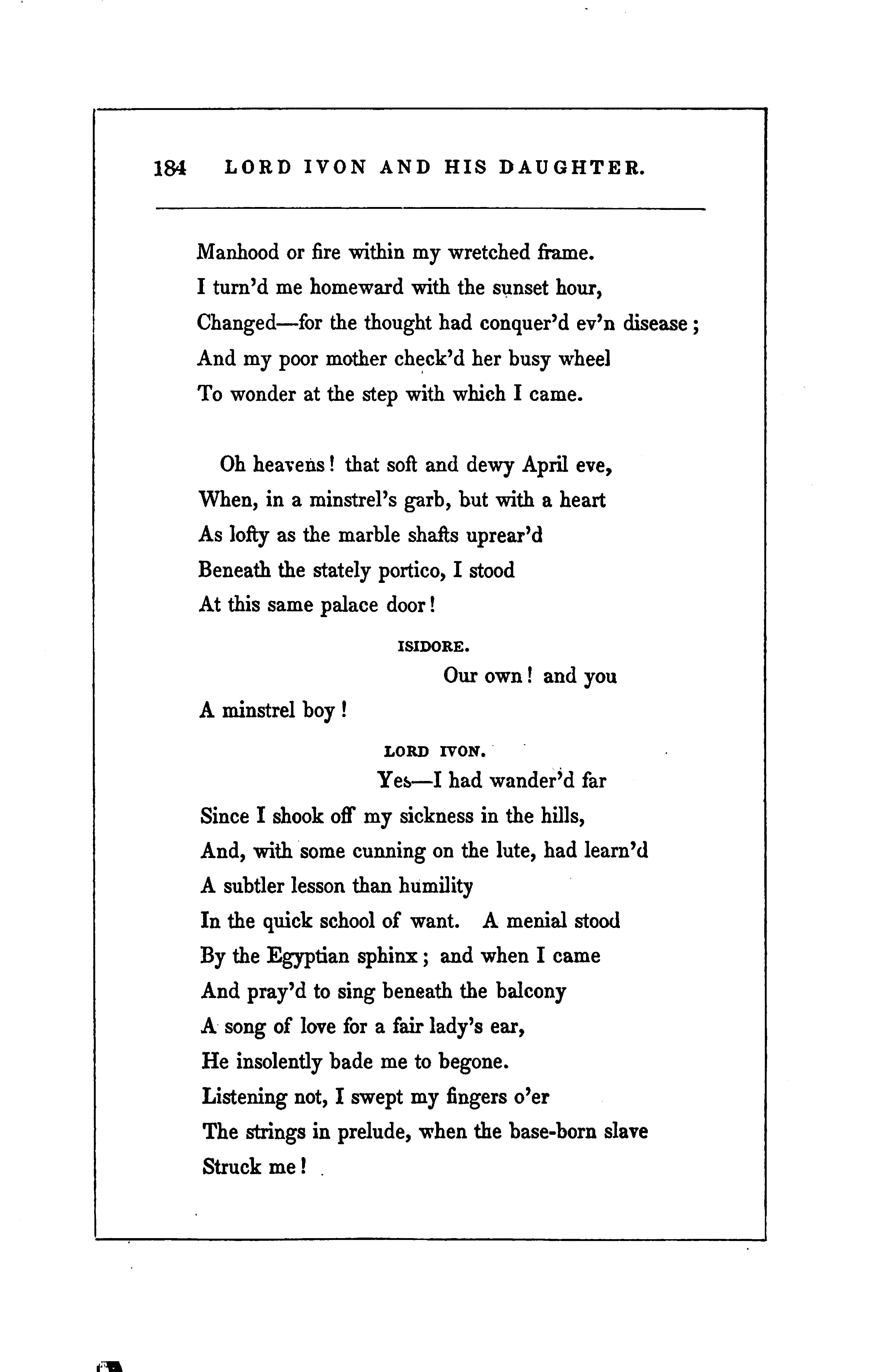
Manhood or fire within my wretched frame.
I turn'd me homeward with the sunset hour, Changed-for the thought had conquer'd ev'n disease ; And my poor mother check'd her busy wheel
To wonder at the step with which I came.
Oh heavens ! that soft and dewy April eve,
When, in a minstrel's garb, but with a heart
As lofty as the marble shafts uprear'd Beneaththe stately portico, I stood
At this same palace door ! ISIDORE.
Our own! and you
A minstrel boy!
LORD IVON.
Yes I had wander'd far
Since I shook off my sickness inthe hills, And, with some cunning on the lute, had learn'd A subtler lesson than humility
In the quick school of want. A menial stood By the Egyptian sphinx ; and when I came
And pray'd to sing beneath the balcony
A song of love for a fair lady's ear, He insolently bade me to begone.
Listening not, I swept my fingers o'er
The strings in prelude, when the base-born slave Struck me!

ISIDORE.
Impossible !
LORD IVON.
I dash'd my lute
Into his face, and o'er the threshold flew ; And threading rapidly the lofty rooms, Sought vainly for his master. Suddenly
A wing rush'd o'er me, and a radiant girl, Young as myself, but fairer than the dream
Of my most wild imagining, sprang forth, Chasing a dove, that, 'wilder'd with pursuit, Dropp'd breathless on my bosom.
ISIDORE.
Was't so indeed ?
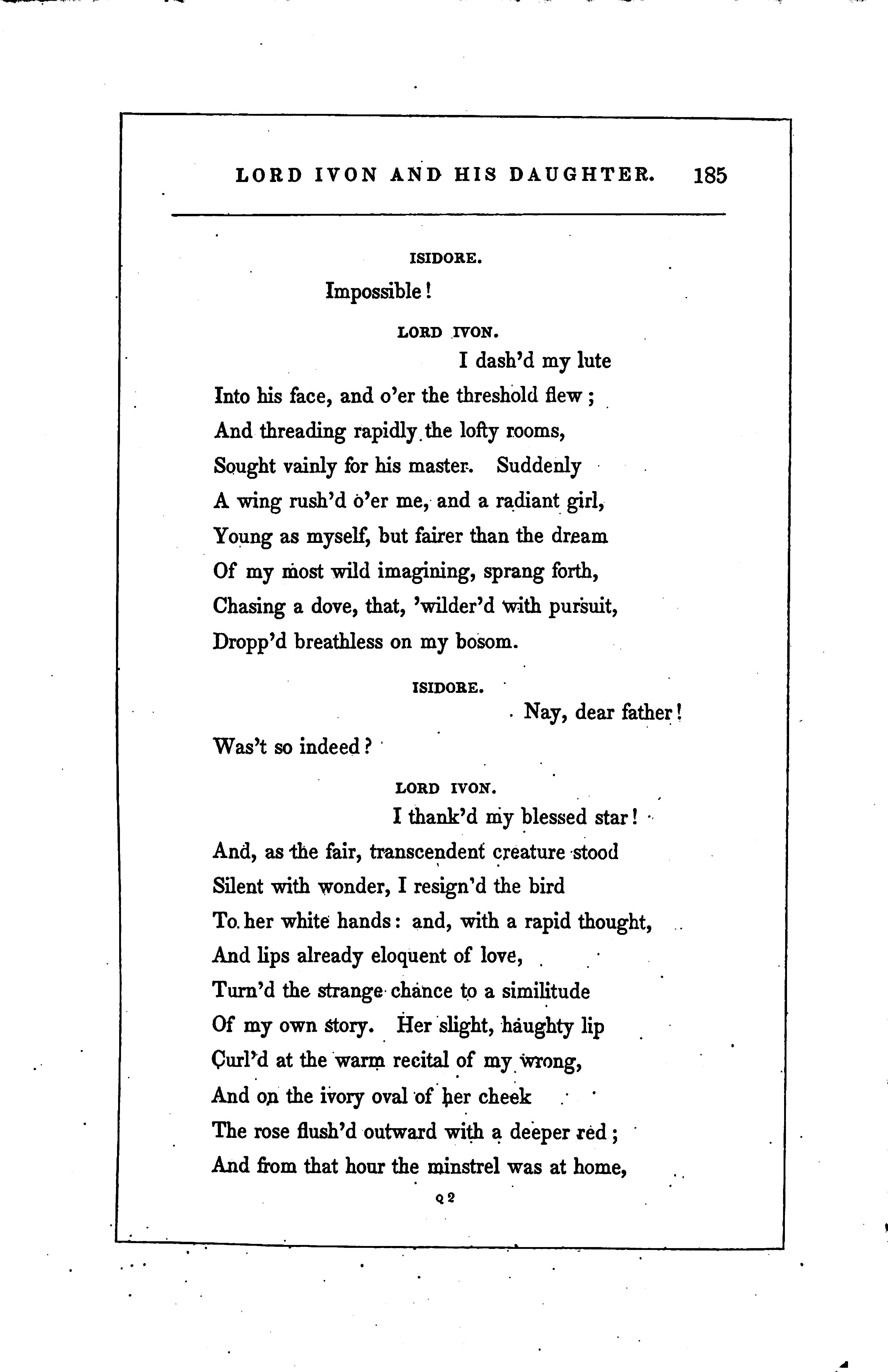
Nay, dear father!
LORD IVON.
I thank'd my blessed star!
And, as the fair, transcendent creature stood Silent with wonder, I resign'd the bird
To her white hands : and, with a rapid thought, And lips already eloquent of love,
Turn'd the strange chance to a similitude
Of my own story. Her slight, haughty lip
Curl'd at the warm recital of my wrong, And on the ivory oval of her cheek
The rose flush'd outward with a deeper red ; And from that hour the minstrel was at home, Q2

186 LORD IVON AND HIS DAUGHTER.
And horse and hound were his, and none might cross
The minion of the noble Lady Clare. Art weary of my tale?
ISIDORE. Dear father!
LORD IVON.
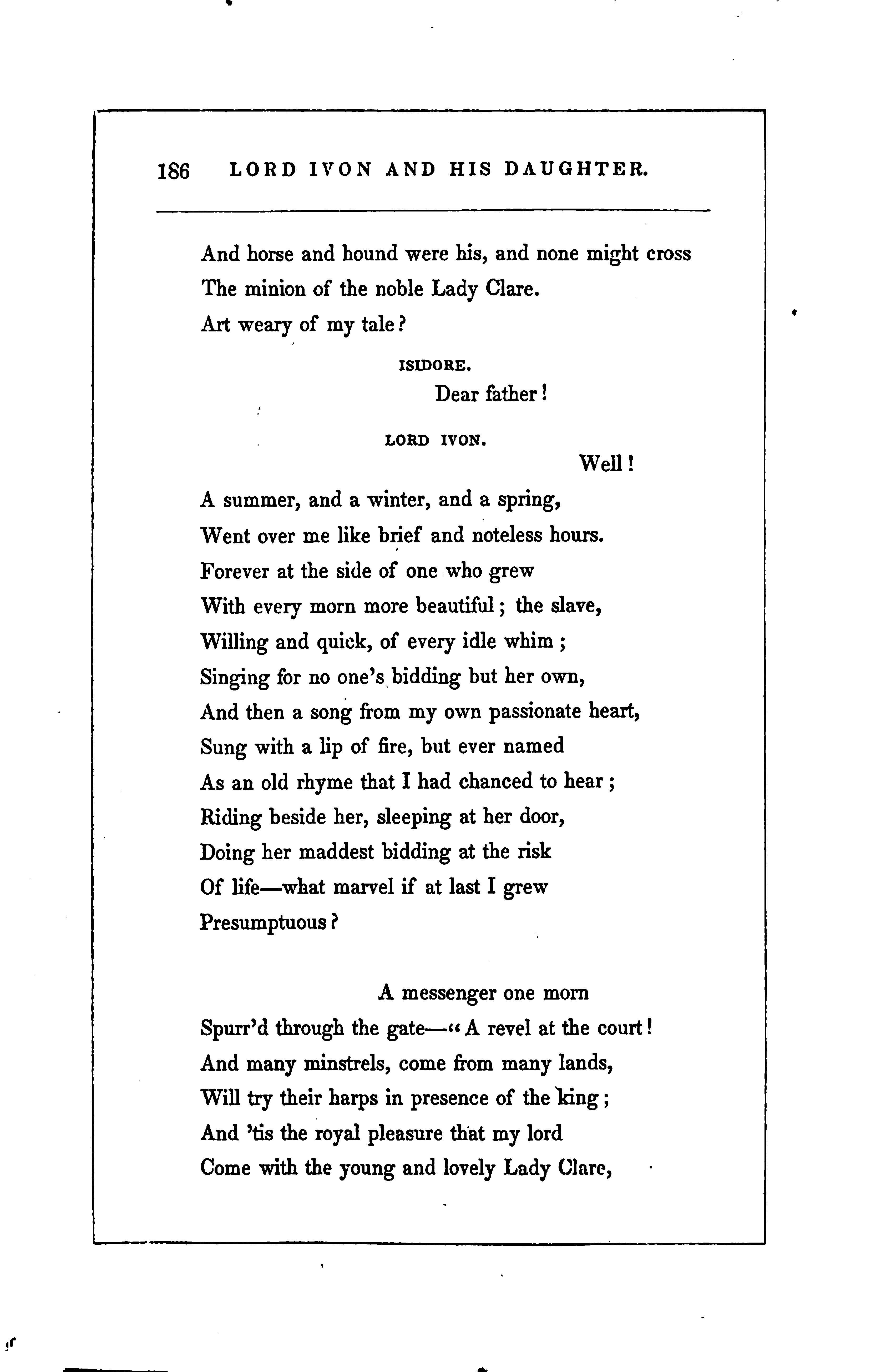
Well!
A summer, and a winter, and a spring, Went over me like brief and noteless hours.
Forever at the side of one who grew
With every morn more beautiful ; the slave, Willing and quick, of every idle whim ; Singing for no one's bidding but her own, And then a song from my own passionate heart, Sung with a lip of fire, but ever named
As an old rhyme that I had chanced to hear ; Riding beside her, sleeping at her door, Doing her maddest bidding at the risk Of life-what marvel if at last I grew Presumptuous?
A messenger one morn Spurr'd through the gate-"A revel at the court!
And many minstrels, come from many lands, Will try their harps in presence of the king; And 'tis the royal pleasure that my lord Come withthe young and lovely Lady Clare,

Robed as the queen of Faery, who shall crown
The victor with his bays."
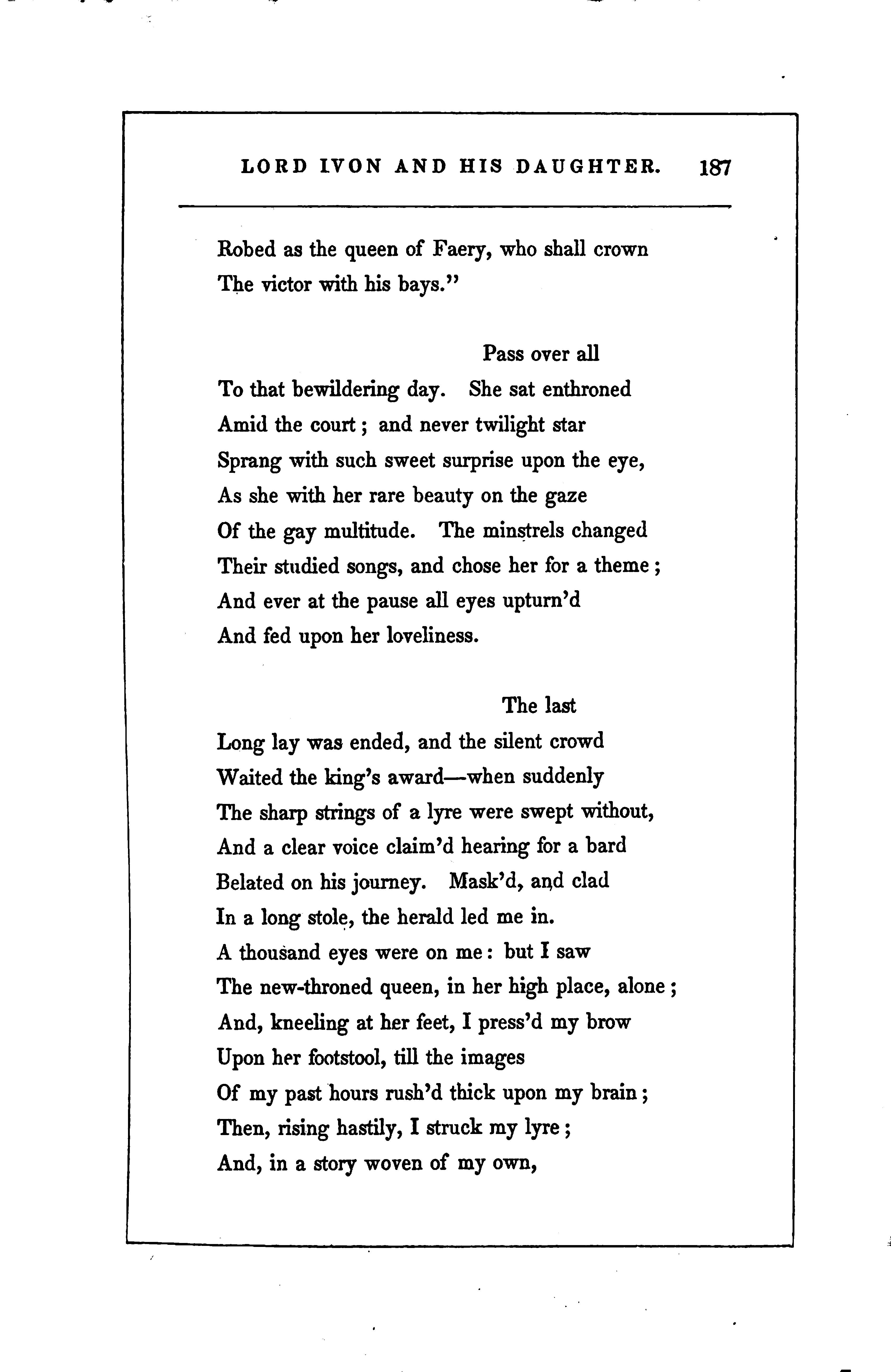
Pass over all
To that bewildering day. She sat enthroned Amid the court ; and never twilight star Sprang with such sweet surprise upon the eye, As she with her rare beauty on the gaze Of the gay multitude. The minstrels changed Their studied songs, and chose her for a theme ; And ever at the pause all eyes upturn'd And fed upon her loveliness.
The last
Long lay was ended, and the silent crowd Waited the king's award-when suddenly The sharp strings of a lyre were swept without, And a clear voice claim'd hearing for a bard Belated on his journey. Mask'd, and clad In a long stole, the herald led me in. A thousand eyes were on me: but I saw The new-throned queen, in her high place, alone ; And, kneeling at her feet, I press'd my brow
Upon her footstool, till the images
Of my past hours rush'd thick upon my brain ; Then, rising hastily, I struck my lyre ; And, in a story woven of my own,

I so did paint her in her loveliness
Pouring my heart all out upon the lines
I knew too faithfully, and lavishing
The hoarded fire of a whole age oflove
Upon each passionate word, that, as I sunk Exhausted at the close, the ravish'd crowd
Flung gold and flowers on my still quivering lyre ;
And the moved monarch in his gladness swore
There was no boon beneath his kingly crown
Too high for such a minstrel !
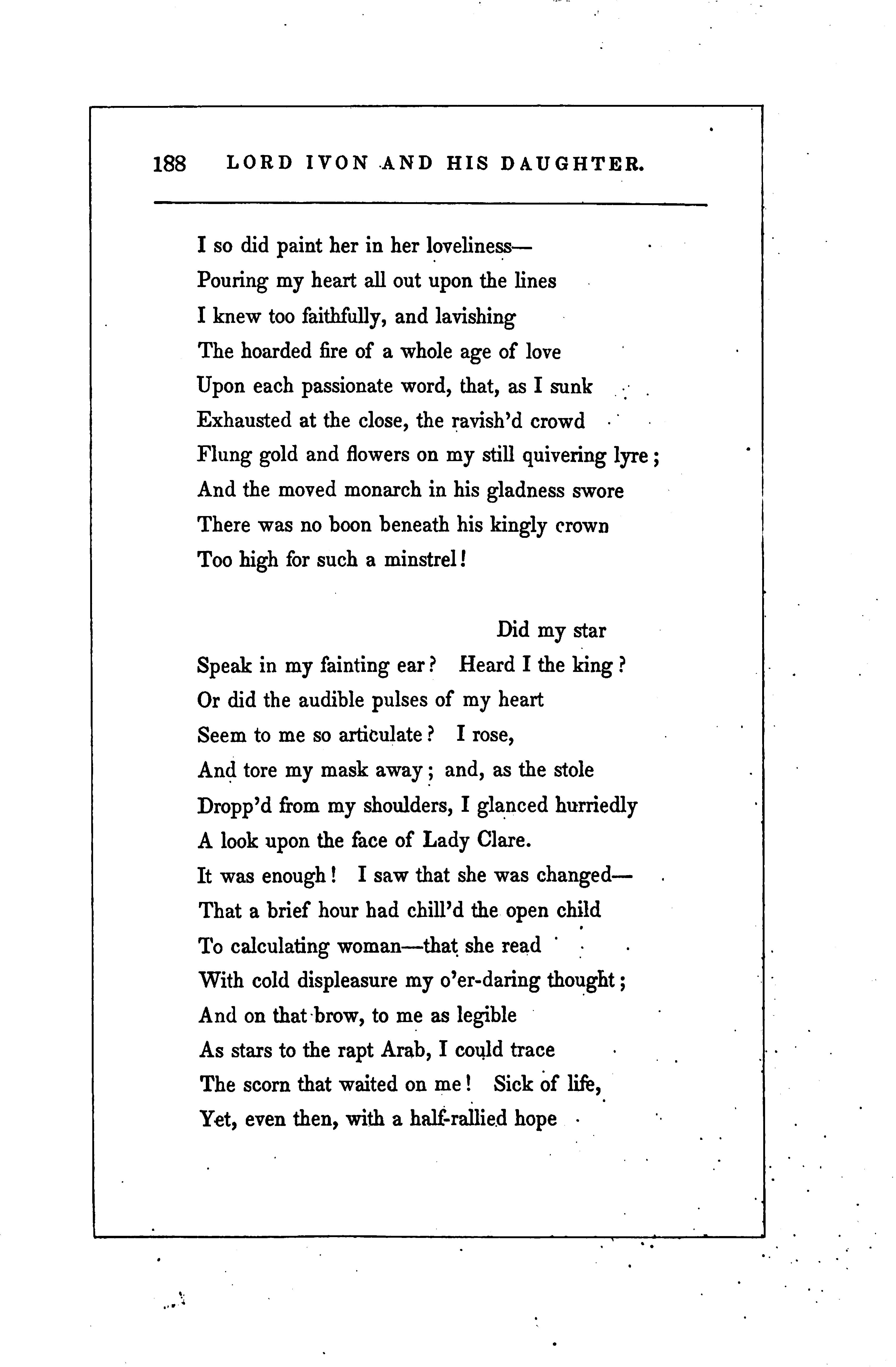
Did my star
Speak in my fainting ear? Heard I the king ?
Or did the audible pulses of my heart
Seem to me so articulate ? I rose,
And tore my mask away ; and, as the stole Dropp'd from my shoulders, I glanced hurriedly
A look upon the face of Lady Clare.
It was enough! I saw that she was changedThat a brief hour had chill'd the open child
To calculating woman-that she read
With cold displeasure my o'er-daring thought ; And on that brow, to me as legible
As stars to the rapt Arab, I could trace
The scorn that waited on me ! Sick of life, Yet, even then, with a half-rallied hope

Prompting my faltering tongue, I blindly knelt, And claim'd the king's fair promise
Of Lady Clare? ISIDORE.
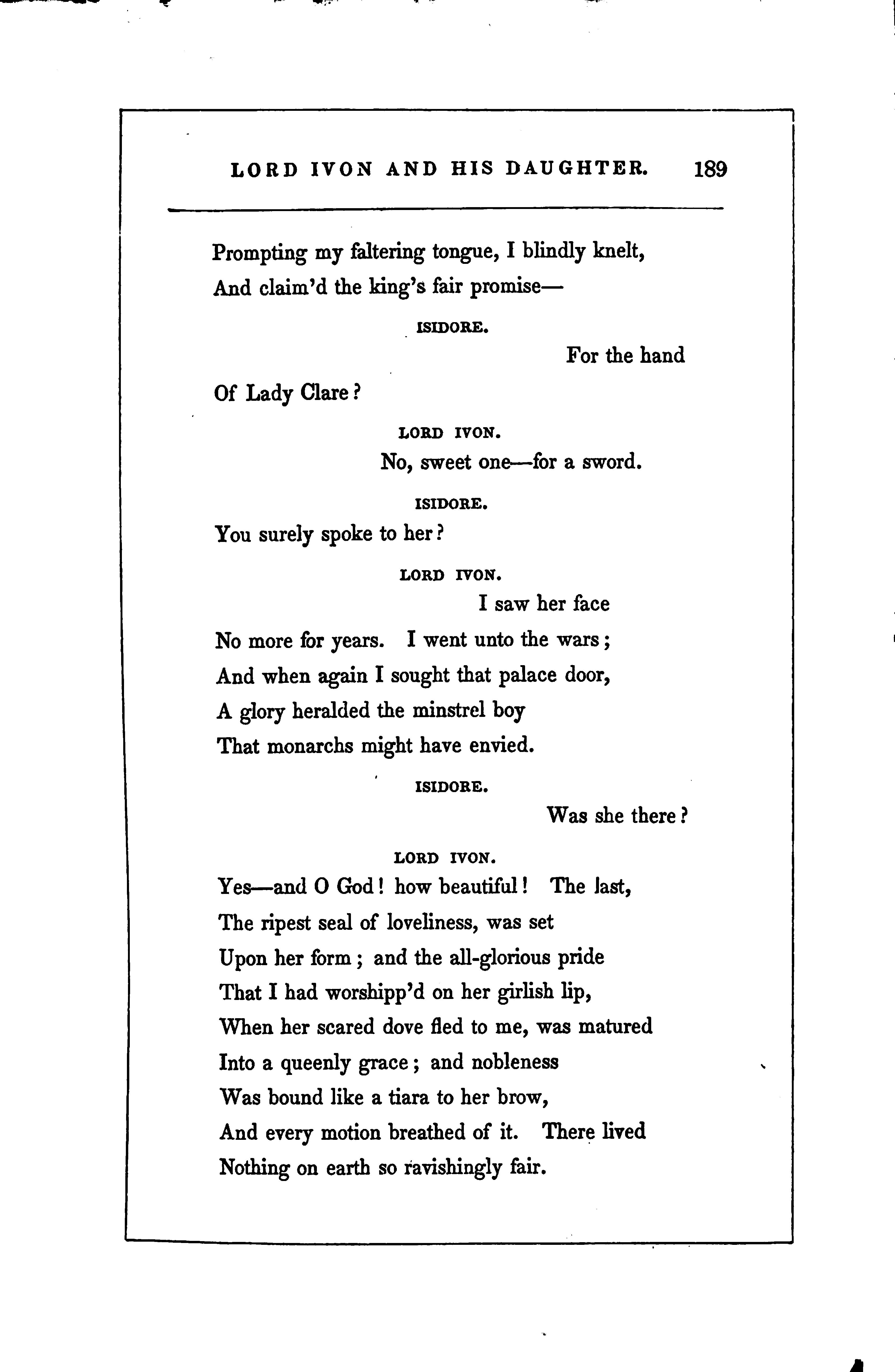
For the hand
LORD IVON. No, sweet one-for a sword.
ISIDORE. You surely spoke to her?
LORD IVON. I saw her face
No more for years. I went unto the wars ; And when again I sought that palace door, A glory heralded the minstrel boy That monarchs might have envied.
ISIDORE.
LORD IVON.
Was she there ?
Yes-and O God ! how beautiful! The last, The ripest seal of loveliness, was set Upon her form ; and the all-glorious pride
That I had worshipp'd on her girlish lip, When her scared dove fled to me, was matured Into a queenly grace ; and nobleness Was bound like a tiara to her brow, And every motion breathed of it. There lived Nothing on earth so ravishingly fair.

ISIDORE.
And you still loved her?
LORD IVON.
I had perill'd life
In every shape-had battled on the sea, And burnt upon the desert, and outgone Spirits most mad for glory, with this one O'ermastering hope upon me. Honour, fame, Gold, even, were as dust beneath my feet; And war was my disgust, though I had sought Its horrors like a bloodhound-for her praise. My life was drunk up with the love of her.
ISIDORE.
And now she scorn'd you not?
LORD IVON.
Worse, Isidore!
She pitied me! I did not need a voice
To tell my love. She knew her sometime minionAnd felt that she should never be adored With such idolatry as his, and sigh'd That hearts so true beat not in palacesBut I was poor, with all my bright renown, And lowly born ; and she--the Lady Clare !
ISIDORE.
She could not tell you this?
LORD IVON.
She broke my heart
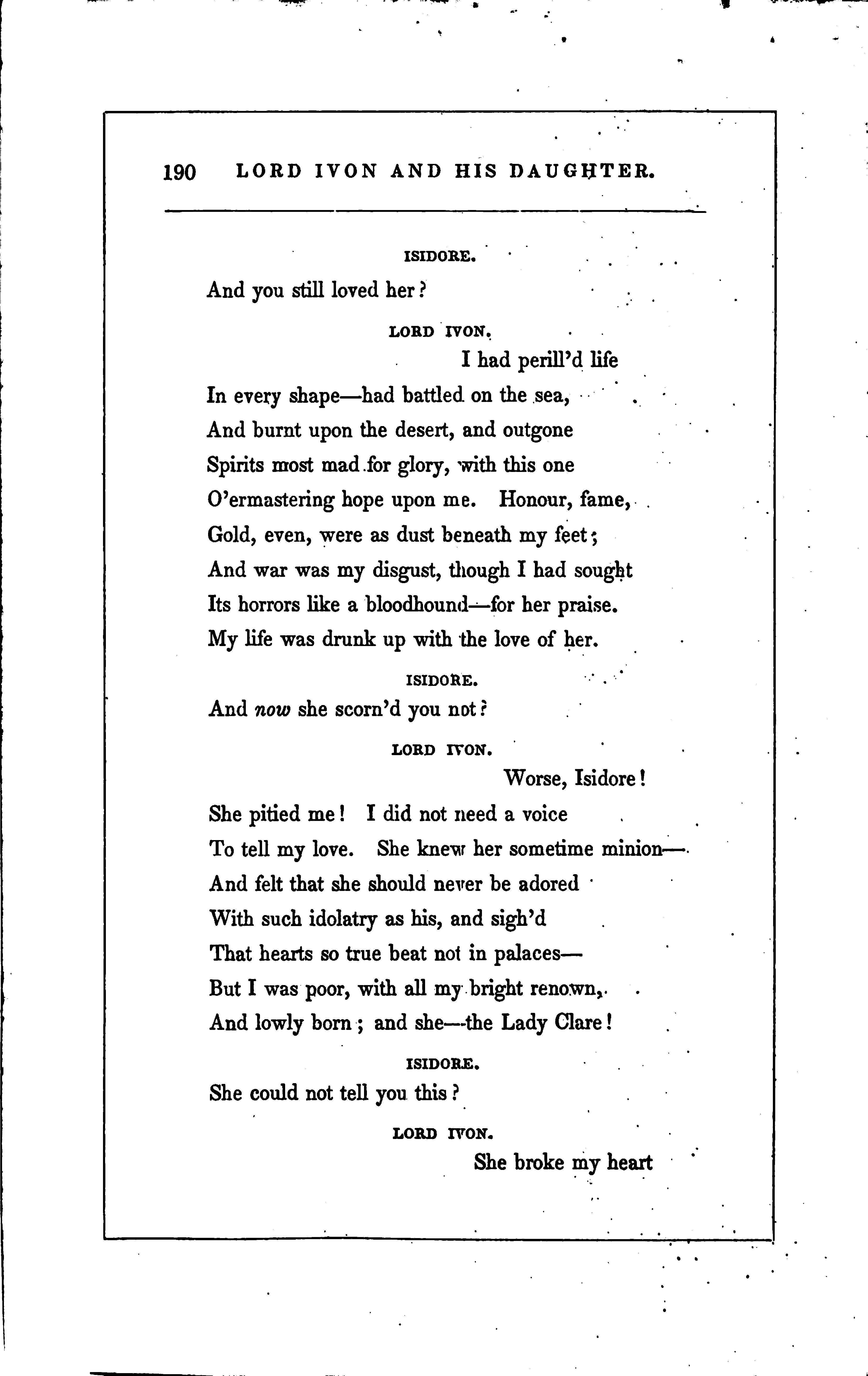

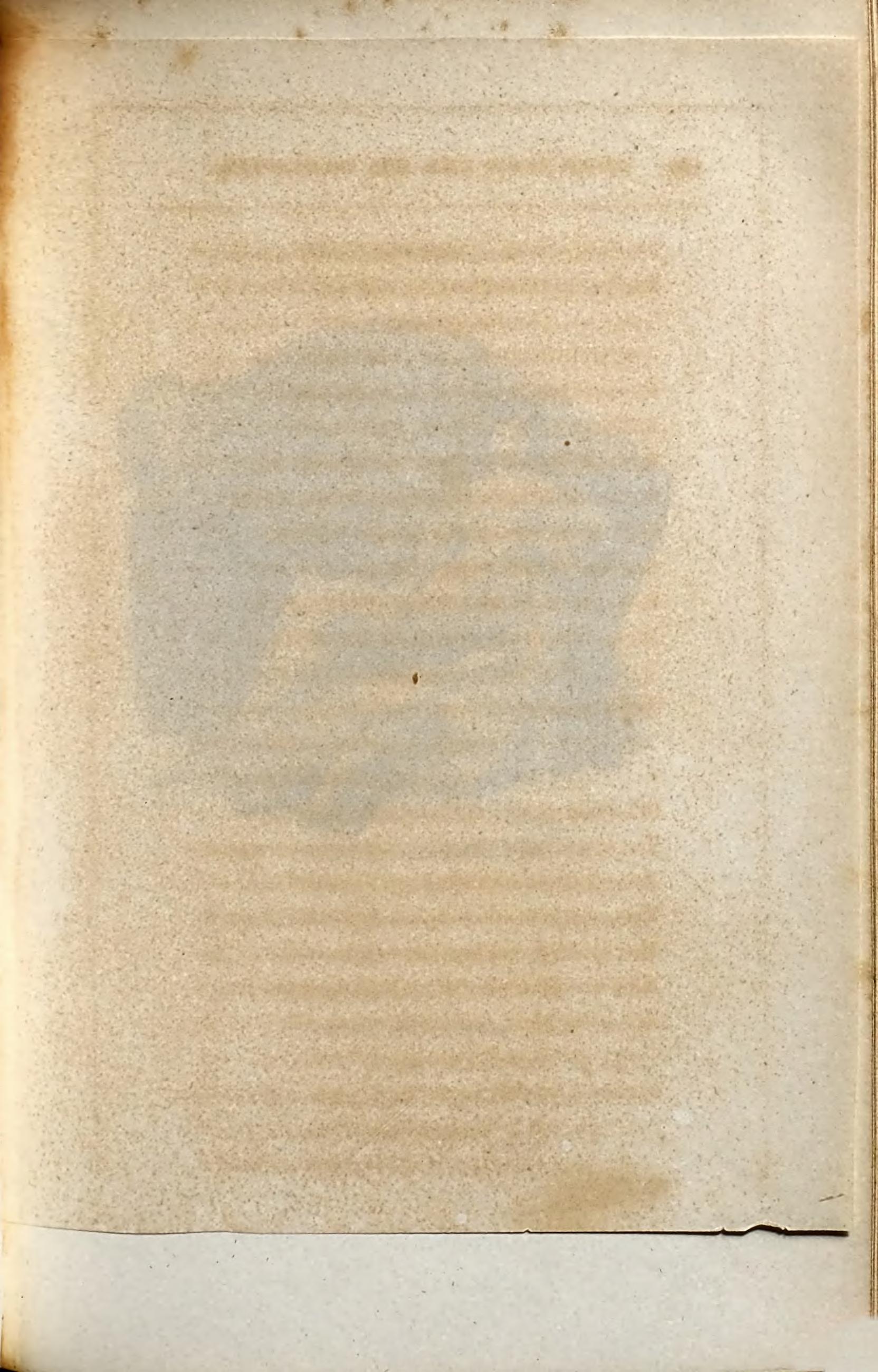



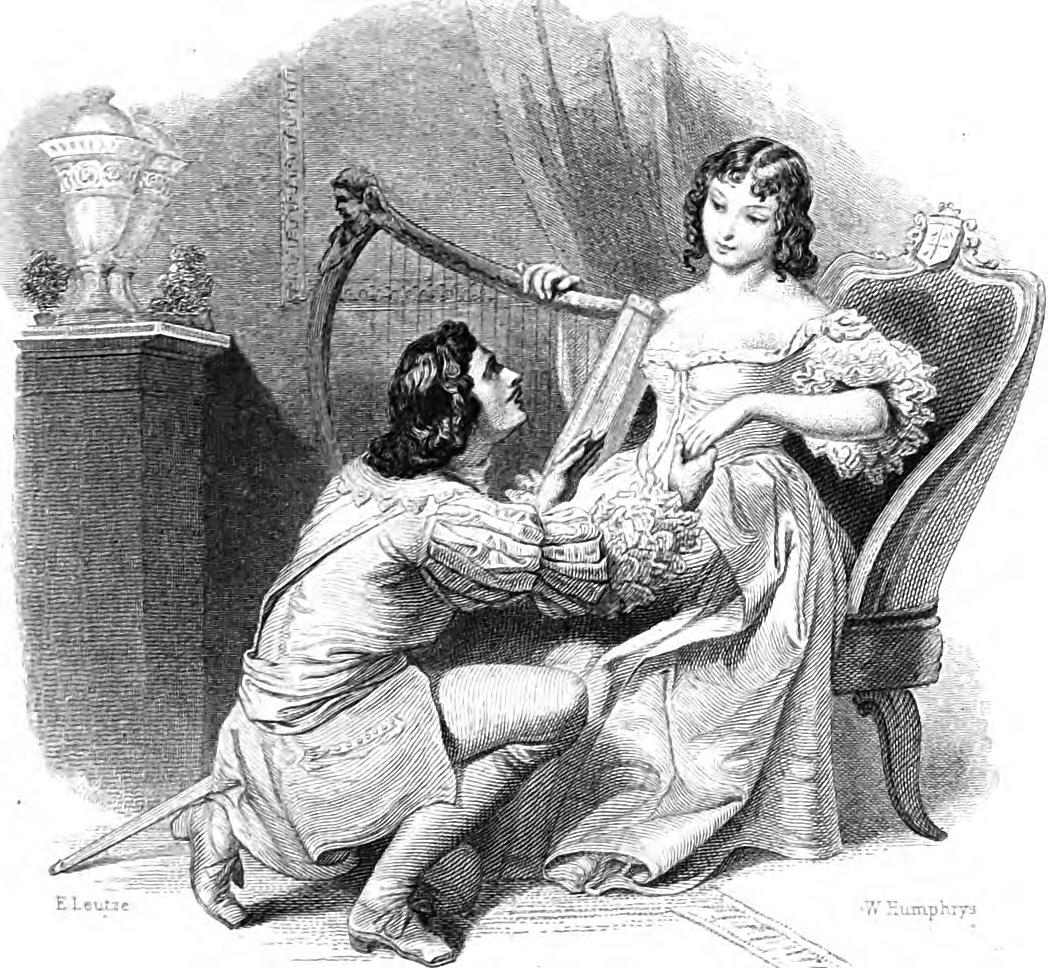
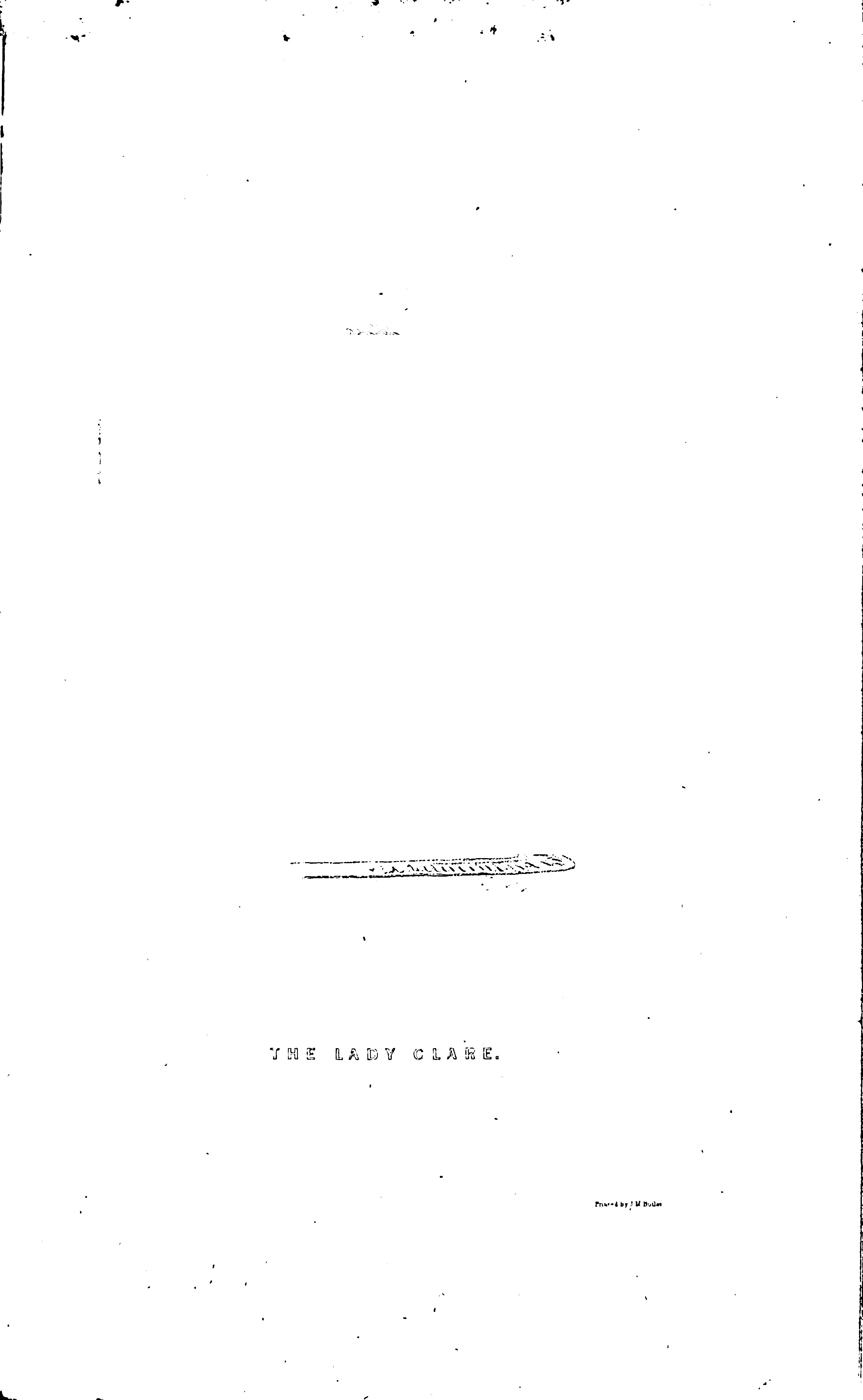
 WHumphrys
ELeutze
THE LADY CLARE.
Praredby Buller
WHumphrys
ELeutze
THE LADY CLARE.
Praredby Buller
10 NO1900
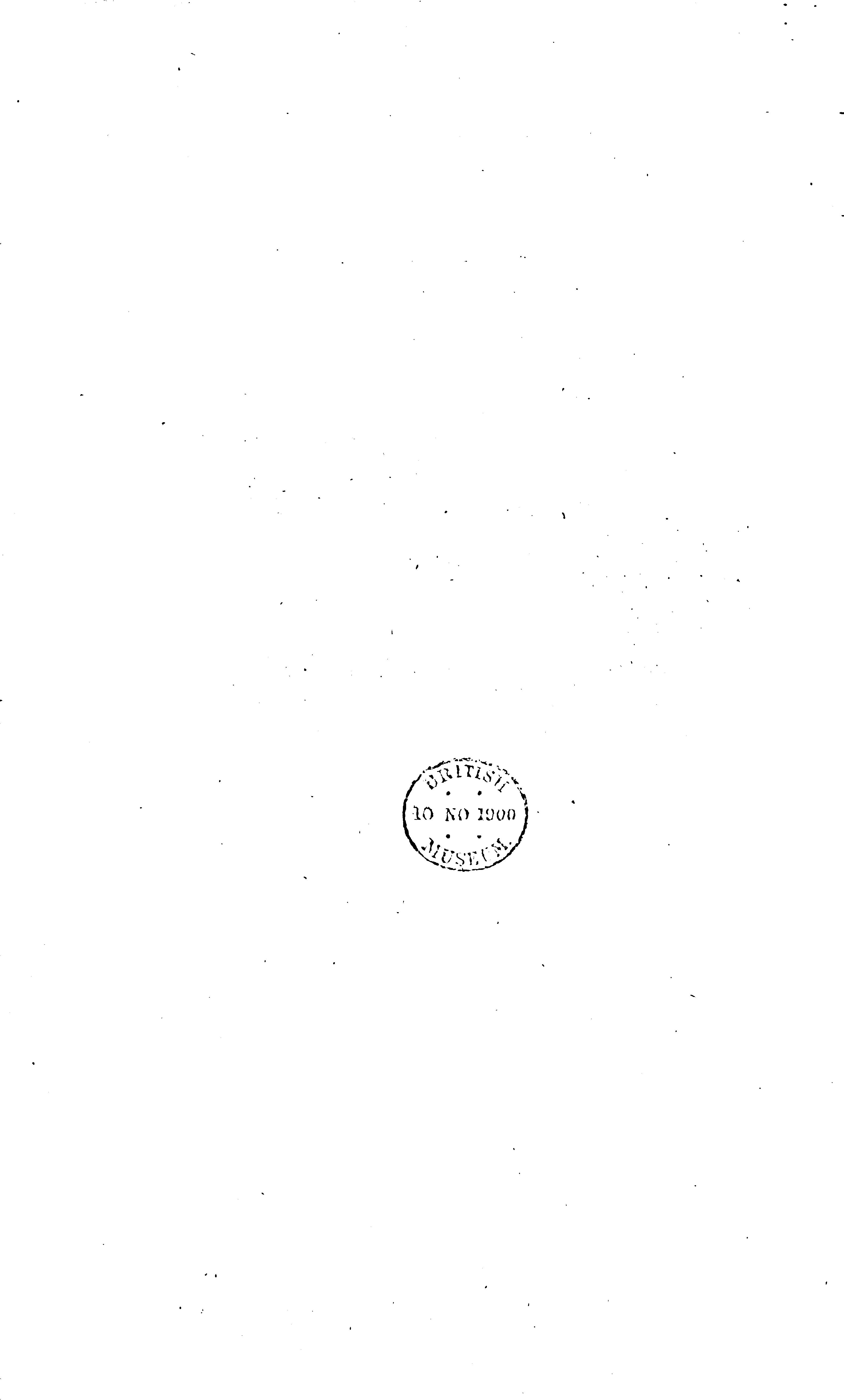

As kindly as the fisher hooks the wormPitying methe while!
ISIDORE. And youLORD IVON. Lived on!
But the remembrance irks me, and mythroat Chokes with the utterance!
ISIDORE. Dear father! LORD IVON. Nay-
Thanks to sweet Mary Mother, it is past ; And in this world I shall have no more need To speak of it.
ISIDORE.
But there were brighter days In store. My mother and this palaceLORD IVON.
You outrun
My tale, dear Isidore ! But 'tis as well. I would not linger on it.
Twenty years
From this heart-broken hour, I stood again, An old man and a stranger, at the door Of this same palace. I had been a slave
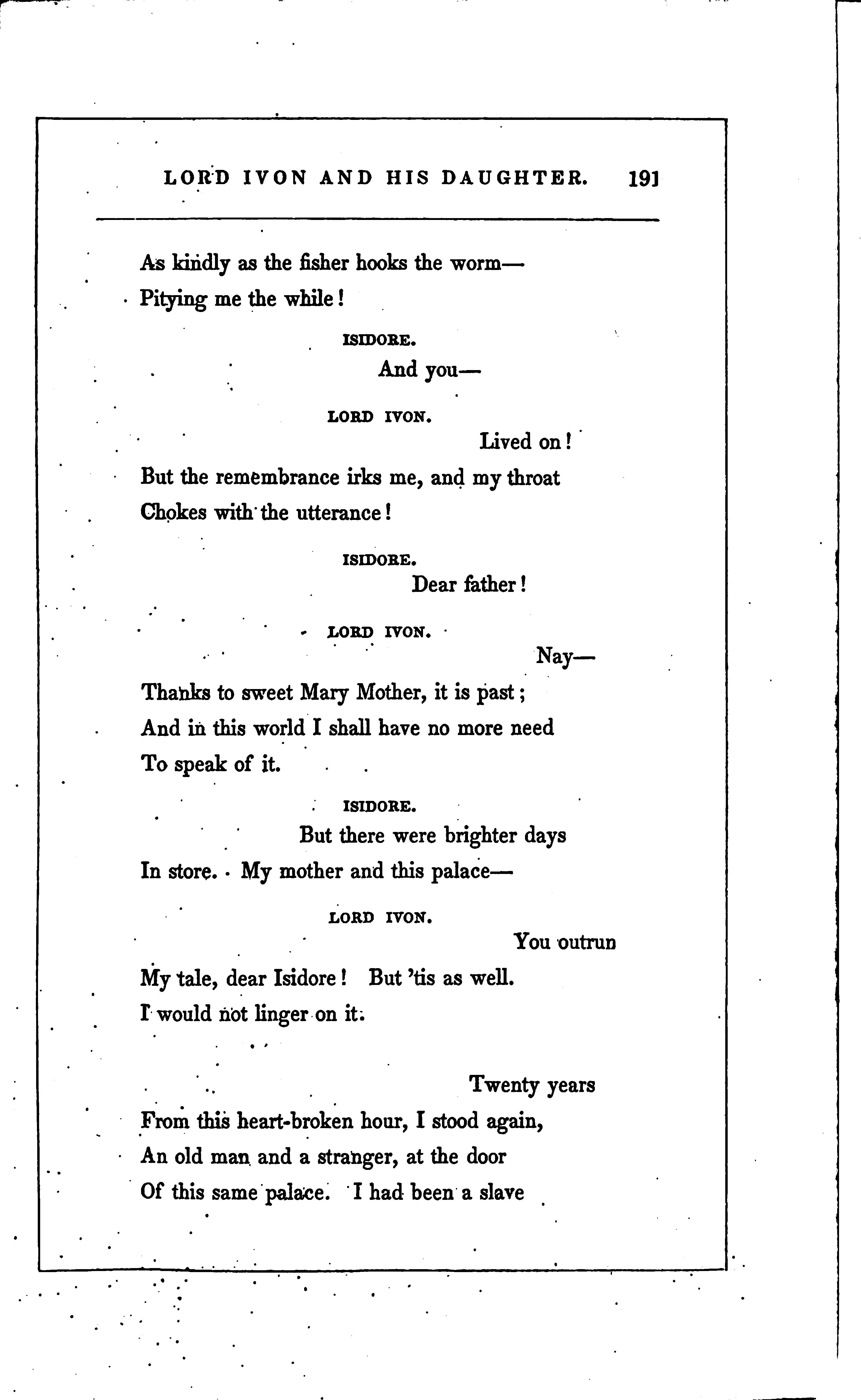

192 LORD IVON AND HIS DAUGHTER.
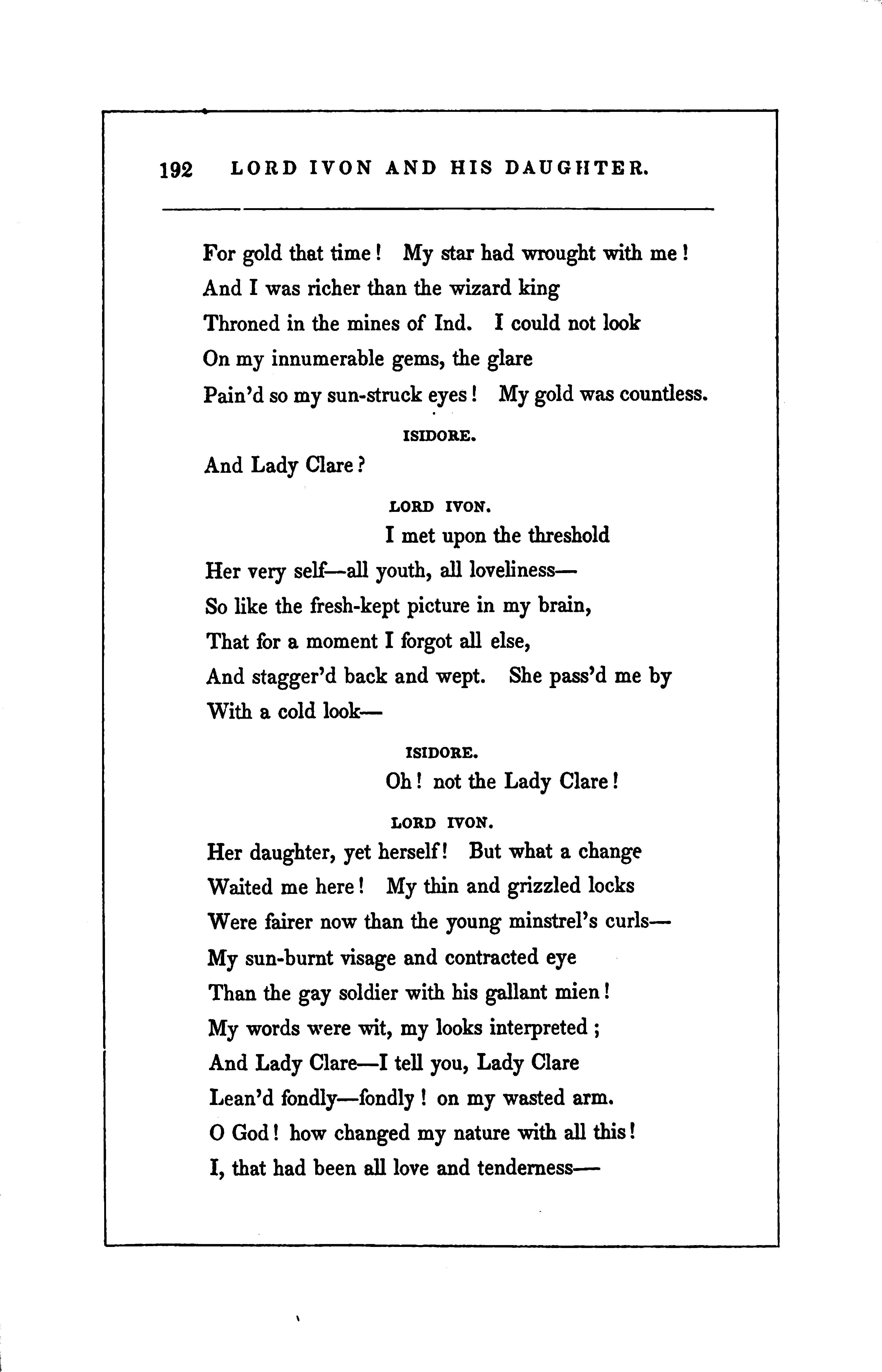
For gold that time ! My star had wrought with me ! And I was richer than the wizard king Throned in the mines of Ind. I could not look
On my innumerable gems, the glare
Pain'd so my sun-struck eyes ! My gold was countless.
ISIDORE.
And Lady Clare?
LORD IVON.
I met upon the threshold
Her very self-all youth, all loveliness-
So like the fresh-kept picture in my brain, That for a moment I forgot all else, And stagger'd back and wept. She pass'd me by With a cold look-~
ISIDORE.
Oh! not the Lady Clare ! LORD IVON.
Her daughter, yet herself! But what a change Waited me here! Mythin and grizzled locks Were fairer nowthan the young minstrel's curlsMy sun-burnt visage and contracted eye
Than the gay soldier with his gallant mien ! My words were wit, my looks interpreted ; And Lady Clare-I tell you, Lady Clare Lean'd fondly-fondly ! on my wasted arm.
O God! how changed my nature with all this! I, that had been all love and tenderness-

The truest and most gentle heart, till now, That ever beat-grew suddenly a devil! I bought me lands and titles, and received Men's homage with a smooth hypocrisy ; And you will scarce believe me, IsidoreI suffer'd them to wile their peerless daughter, The image and the pride of Lady Clare, To wed me!
ISIDORE.
Sir! you did not!
LORD IVON.
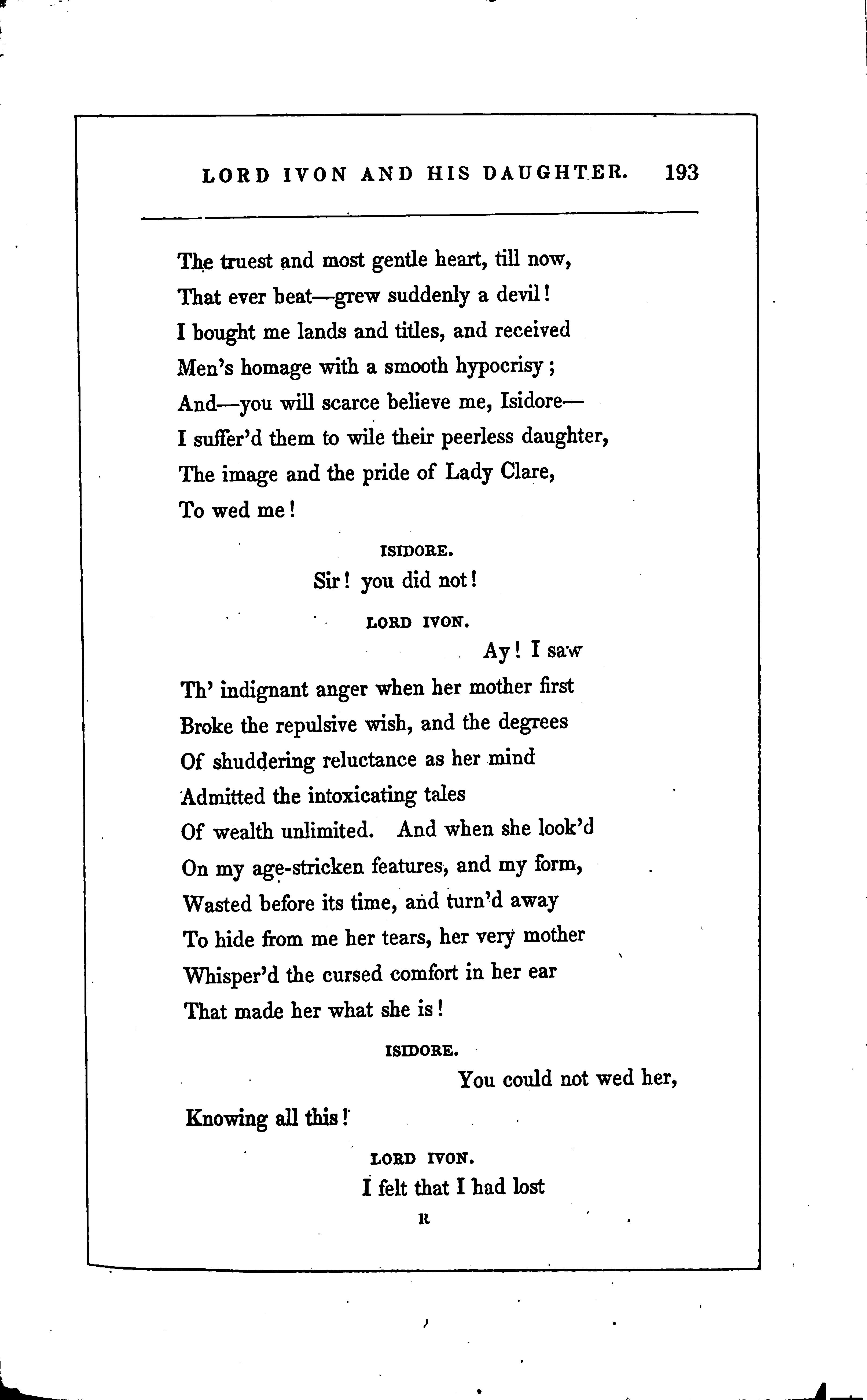
Ay! I saw
Th' indignant anger when her mother first Broke the repulsive wish, and the degrees Of shuddering reluctance as her mind
Admitted the intoxicating tales Of wealth unlimited. And when she look'd
On my age-stricken features, and my form, Wasted before its time, and turn'd away To hide from me her tears, her very mother Whisper'd the cursed comfort in her ear That made her what she is!
ISIDORE. You could not wed her, Knowing all this!
LORD IVON. I felt that I had lost R

My life else. I had wrung, for forty years, My frame to its last withers ; I had flung My boyhood's fire away-the energy Of a most sinless youth-the toil, and fret, And agony of manhood. I had dared, Fought, suffer'd, slaved and never for an hour Forgot or swerved from my resolve ; and nowWith the delirious draught upon my lipsDash down the cup!
ISIDORE.
Yet she had never wrong'd you!
LORD IVON.
Thou'rt pleading for thy mother, my sweet child! And angels hear thee. But, if she was wrong'd, The sin be onthe pride that sells its blood Coldly and only for this damning gold. Had I not offer'd youth first? Came I not, With my hands brimm'd with glory, to buy love And was I not denied?
ISIDORE.
Yet, dearest father, They forced her not to wed?
LORD IVON. I call'd her back
Myself from the church threshold, and, before Her mother and her kinsmen, bade her swear It was her own free choice to marry me.
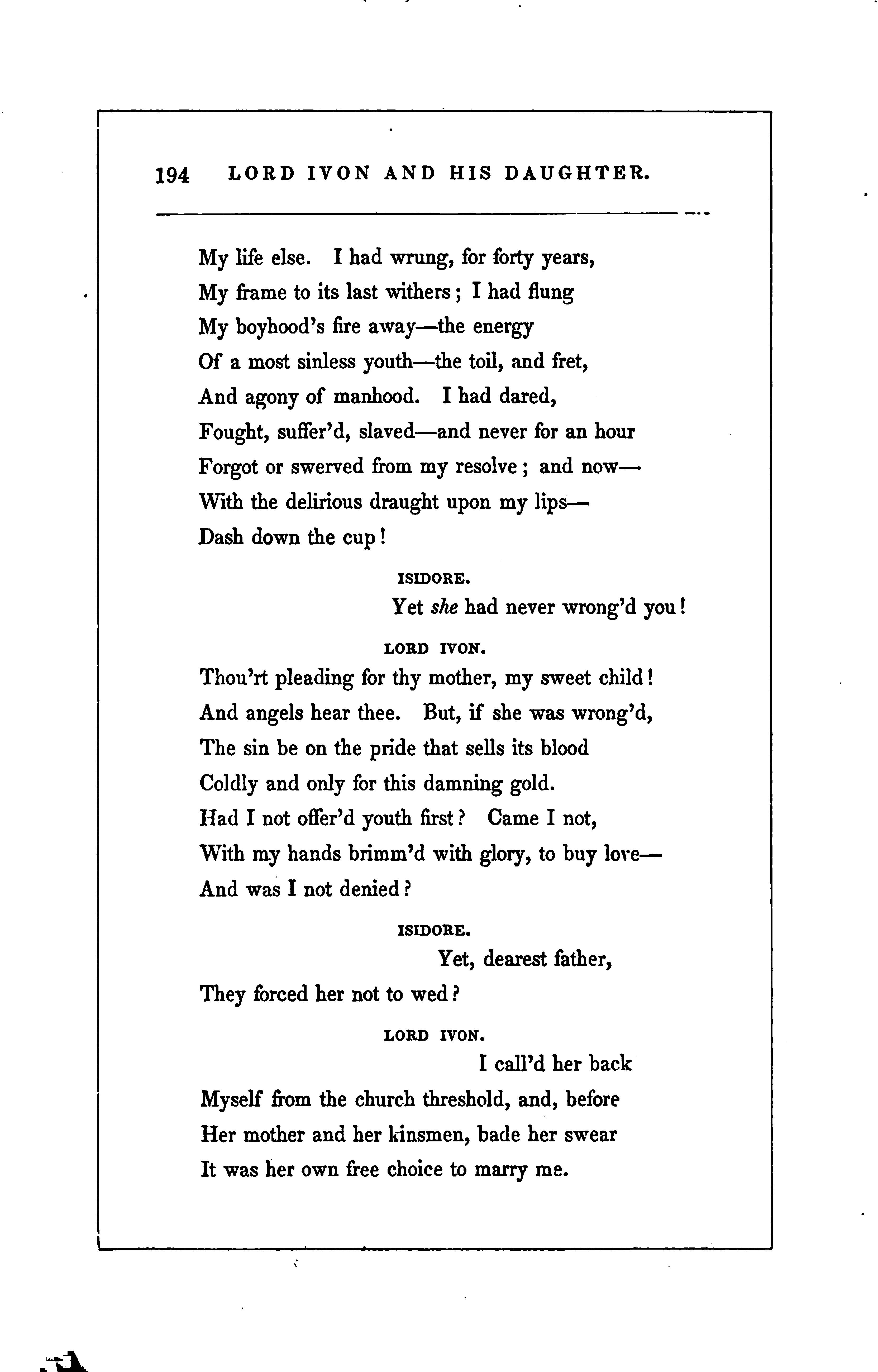

I show'd her my shrunk hand, and bade her think If that was like a bridegroom, and beware Of perjuring her chaste and spotless soul, If now she loved me not.
ISIDORE. What said she, sir?
LORD IVON.
Oh! they had made her even as themselves ; And her young heart was colder than the slab Unsunn'd beneath Pentelicus. She press'd My wither'd fingers in her dewy clasp, And smiled up in my face, and chid « my lord" For his wild fancies, and led on!
ISIDORE. And no
Misgiving at the altar?
LORD IVON. None! She swore To love and cherish me till death should part us, With a voice clear as mine. In mercy tell me so!
ISIDORE.
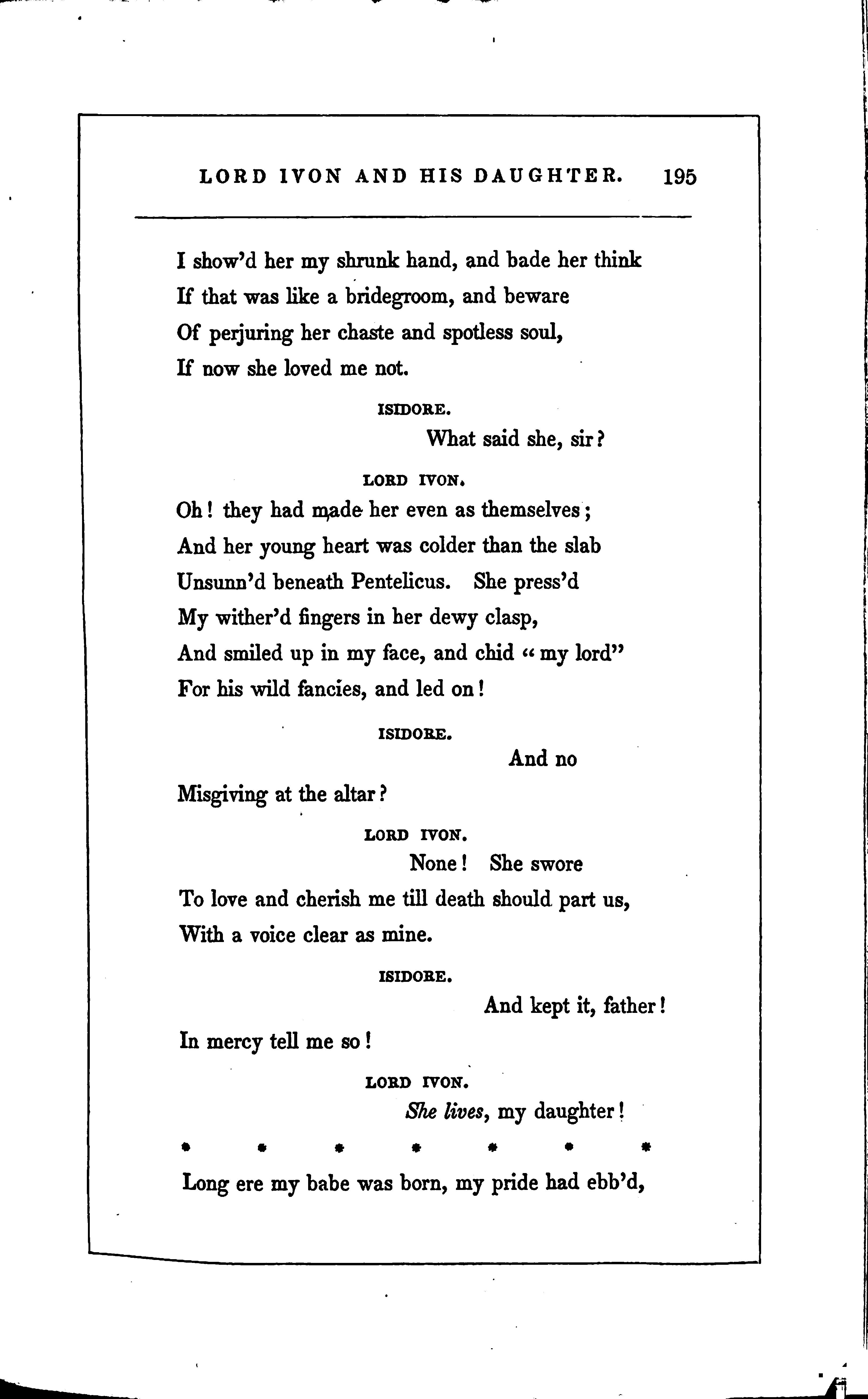
And kept it, father !
LORD IVON. She lives, my daughter!
Long ere my babe was born, my pride had ebb'd,

And let my heart down to its better founts Of tenderness. I had no friends-not one!
My love gush'd to my wife. I rack'd my brain
To find her a new pleasure every hourYet not with me-I fear'd to haunt her eye!
Only at night, when she was slumbering In all her beauty, I would put away
The curtains till the pale night-lamp shone on her, And watch her through my tears.
One night her lips
Parted as I gazed on them, and the name
Of a young noble, who had been my guest, Stole forth in broken murmurs. I let fall
The curtains silently, and left her there
To slumber and dream on ; and gliding forth
Upon the terrace, knelt to my pale star, And swore, that if it pleased the God of light
To let me look upon the unborn child
Lying beneath her heart, I would but press
One kiss upon its lips, and take away
My life that was a blight upon her years.
ISIDORE.
I was that child !

LORD IVON.
Yes-andI heard the cry Of thy small " piping mouth" as 'twere a call

10 NO4900 MIUSELY
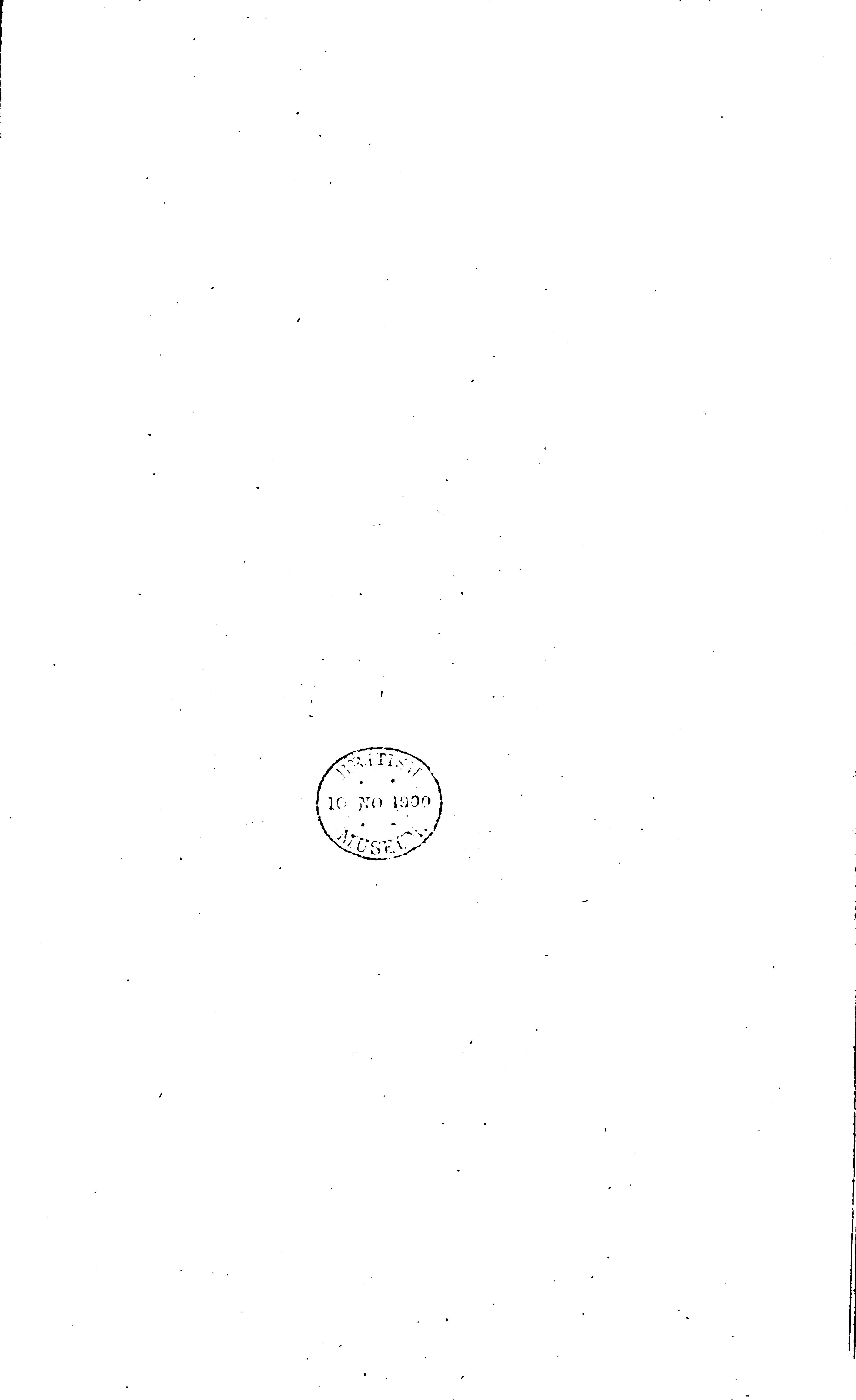

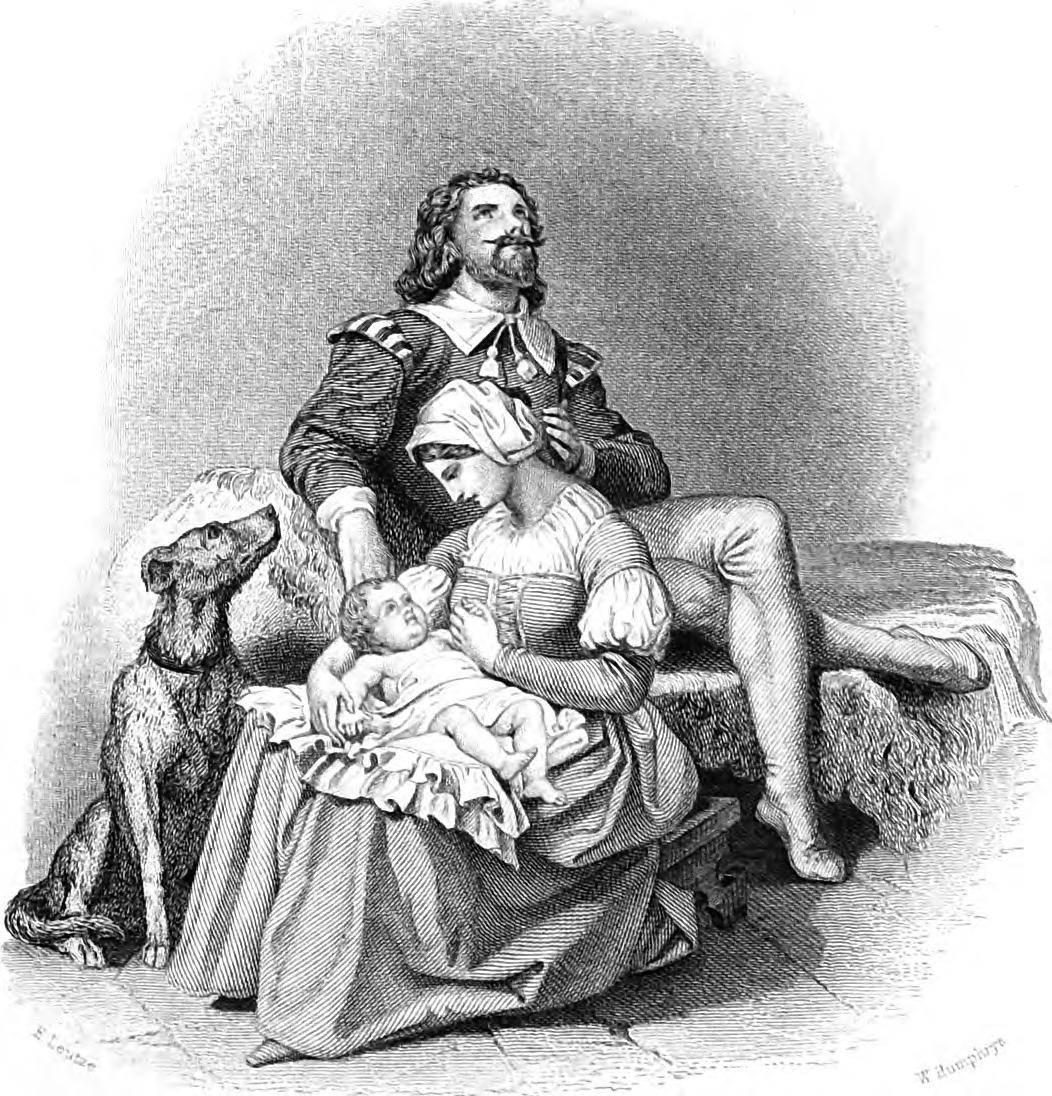
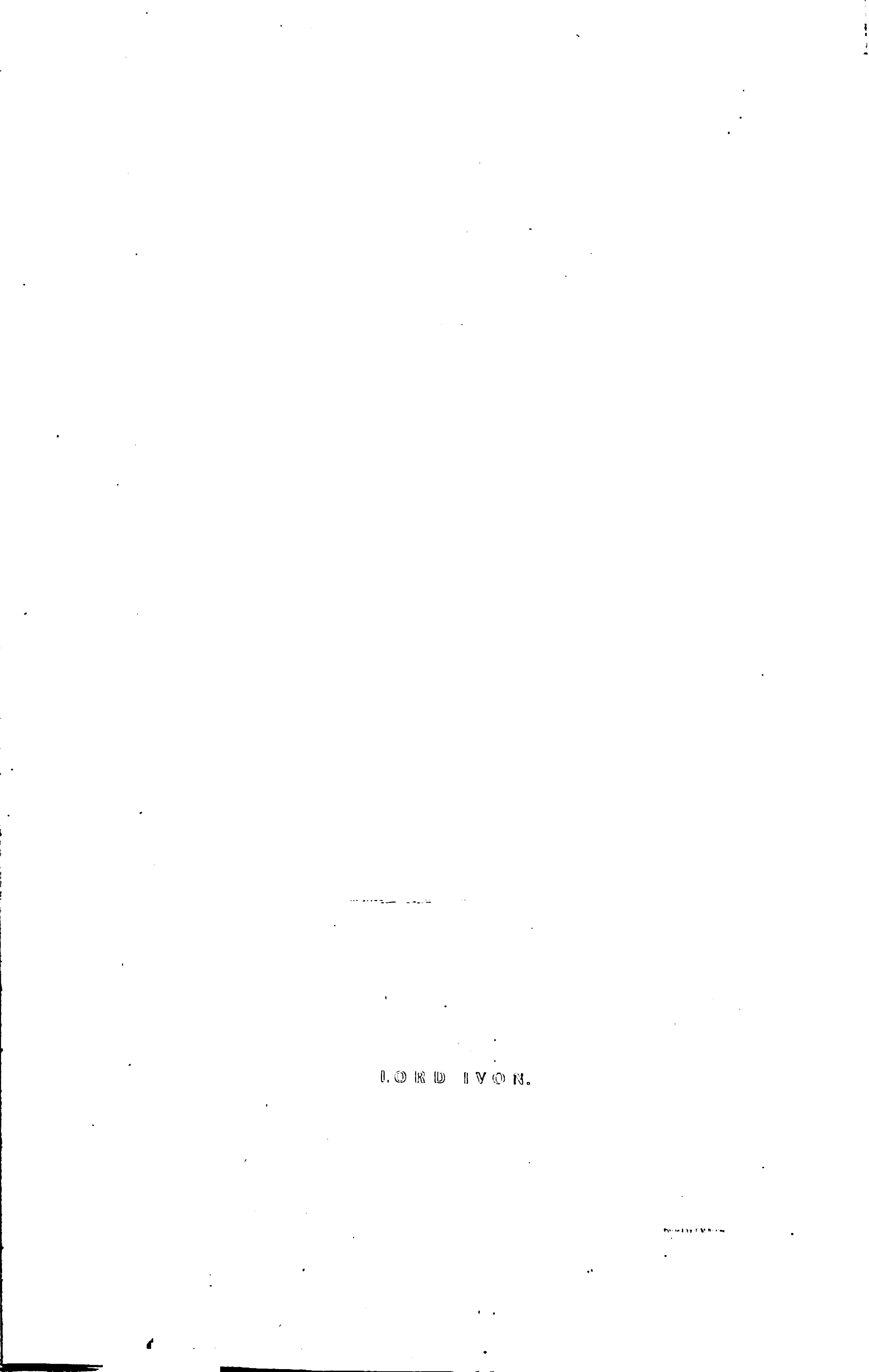
 ELeutze LORD IVON.
WHumphrys
Pedby M.Burime
ELeutze LORD IVON.
WHumphrys
Pedby M.Burime
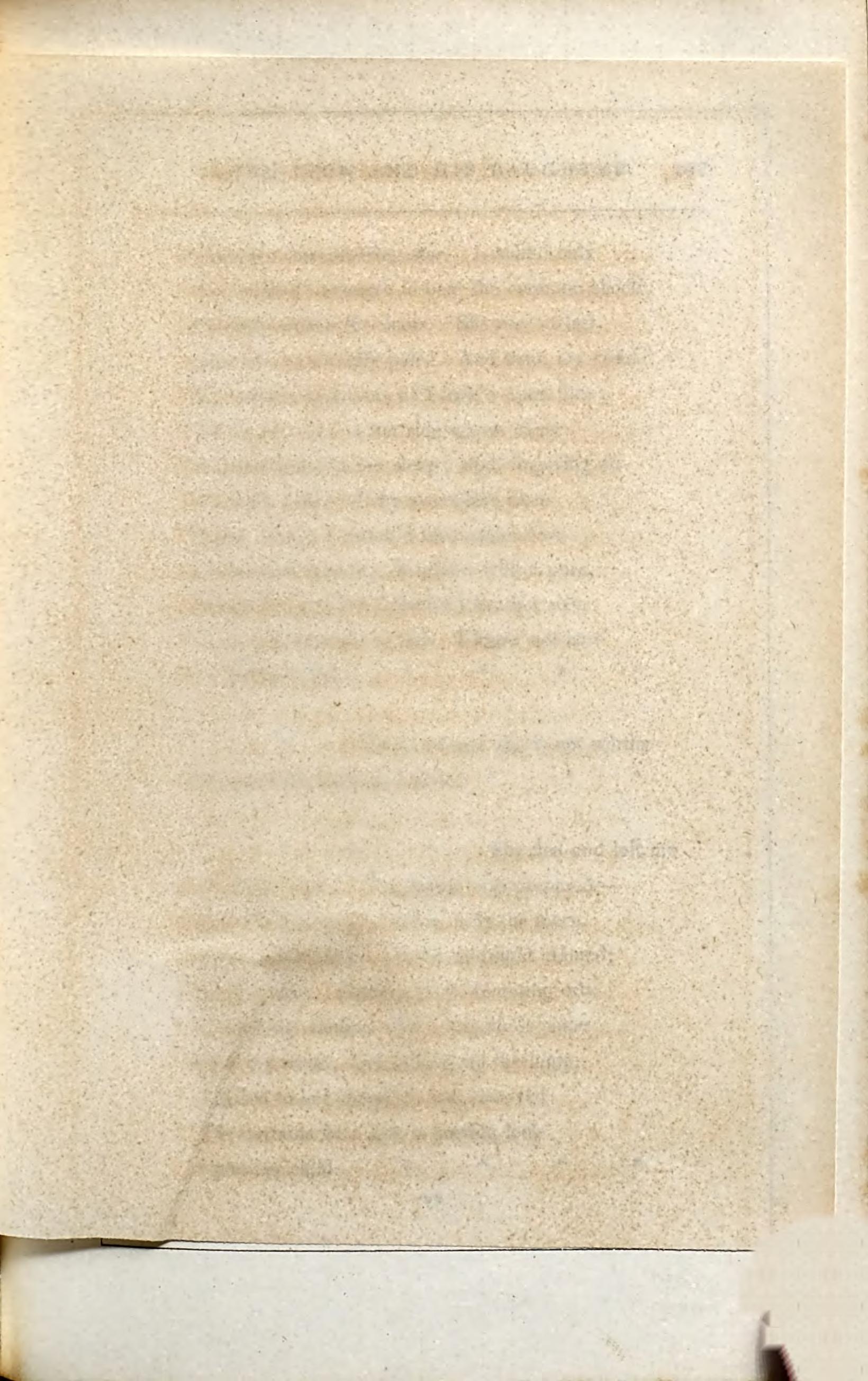

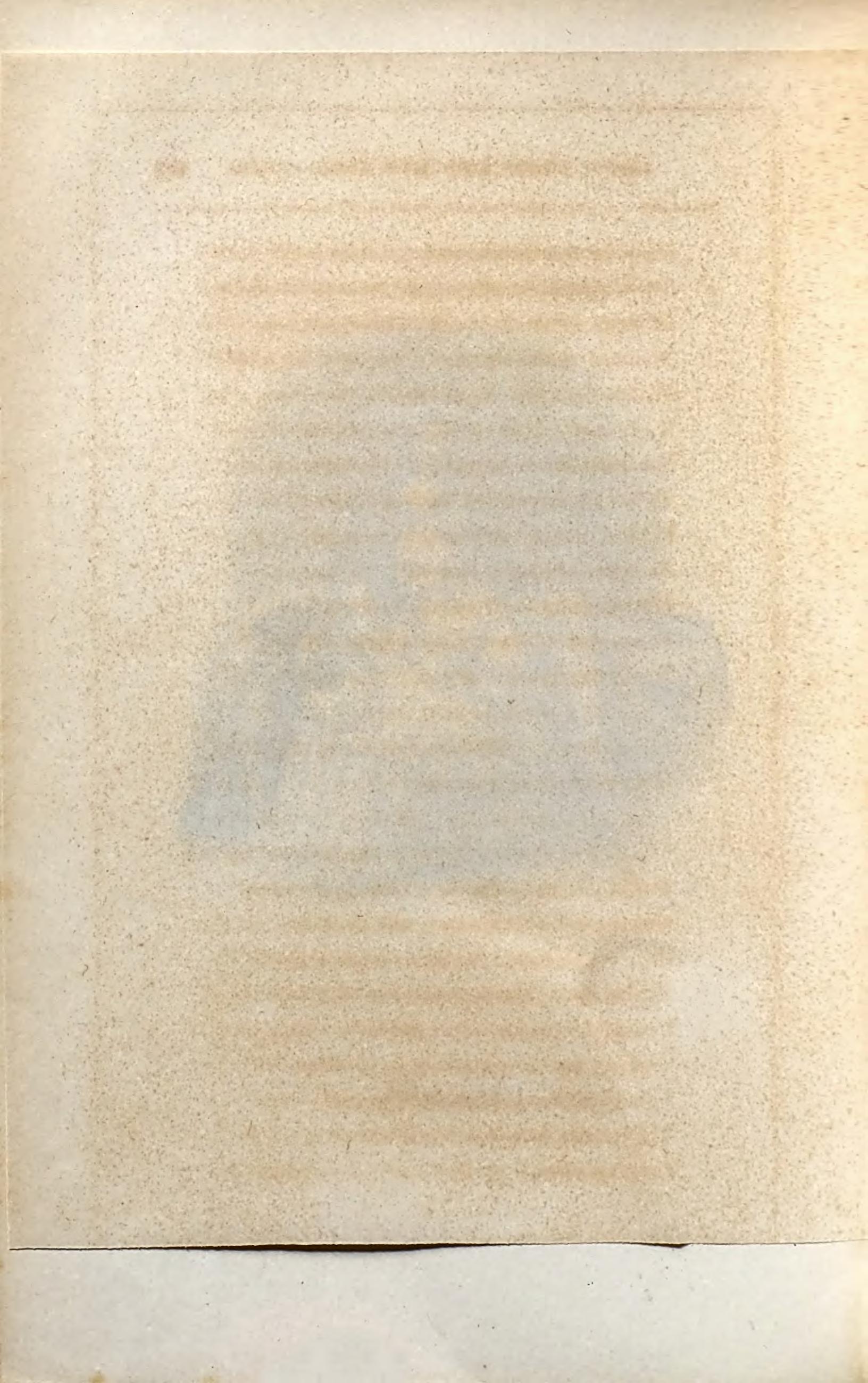

From my remembering star. I waited only Thy mother's strength to bear the common shock Of death within the doors. She rose at last, And, oh! so sweetly pale ! And thou, my child ! Myheart misgave me as I look'd upon But he was ever at her side whose name thee; She murmur'd in her sleep ; and, lingering on To drink a little of thy sweetness more Before I died, I watch'd their stolen love As she had been my daughter, with a pure, Passionless joy that I should leave her soon To love him as she would. I know not how To tellthee more. * *
Come, sweet! she is not worthy Of tears like thine and mine !
She fled and left me
The very night! The poison was preparedAnd she had been a widow with the morn Rich as Golconda. As the midnight chimed, My star rose. Gazing on its mounting orb, I raised the chalice-but a weakness came Over my heart; and, taking up the lamp, I glided to her chamber, and removed The curtains for a last, a parting look Upon my child.
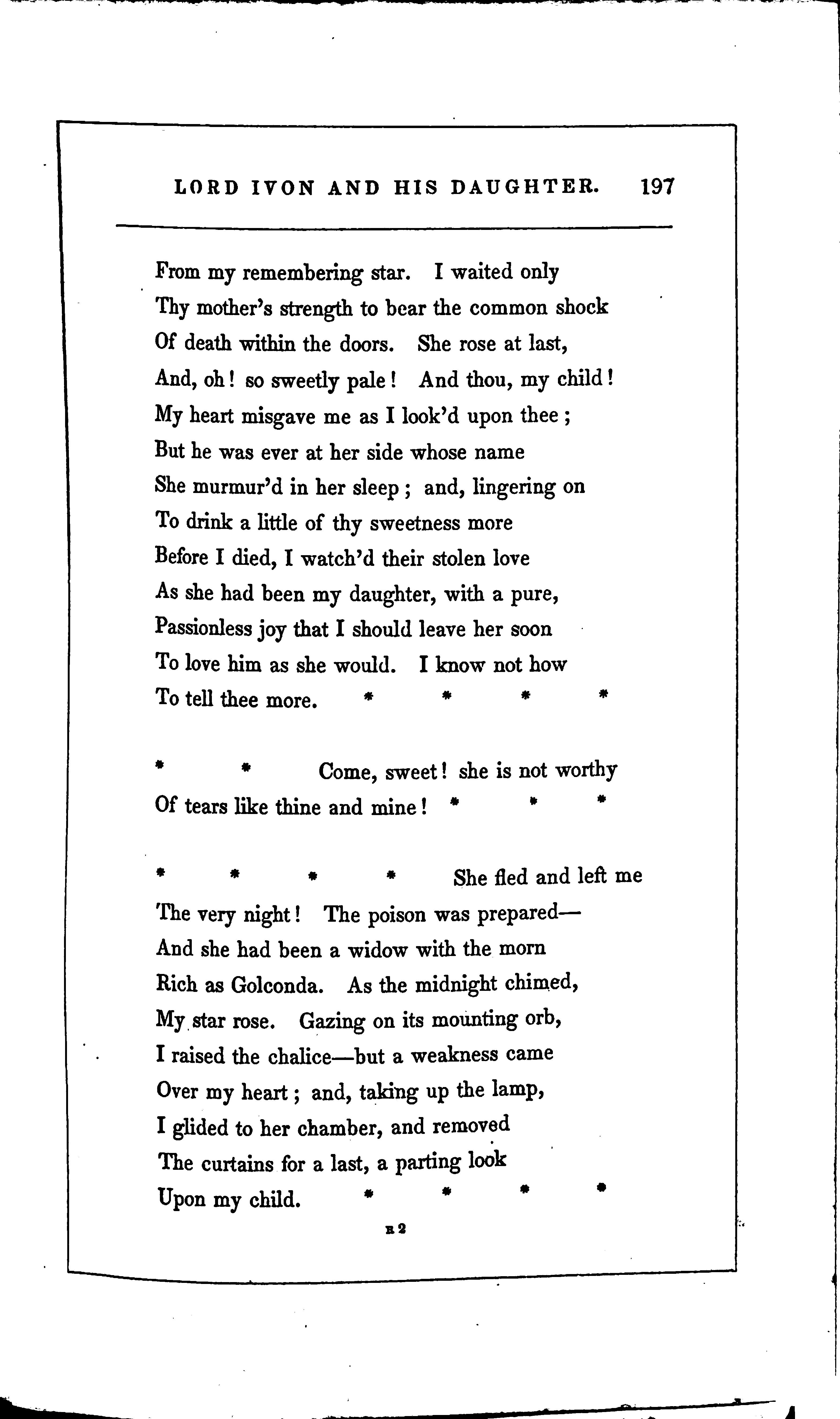

198 LORD IVON AND HIS DAUGHTER.
Had she but taken thee,
I could have felt she had a mother's heart, And drain'd the chalice still. I could not leave My babe alone in such a heartless world!
ISIDORE. Thank God! Thank God!
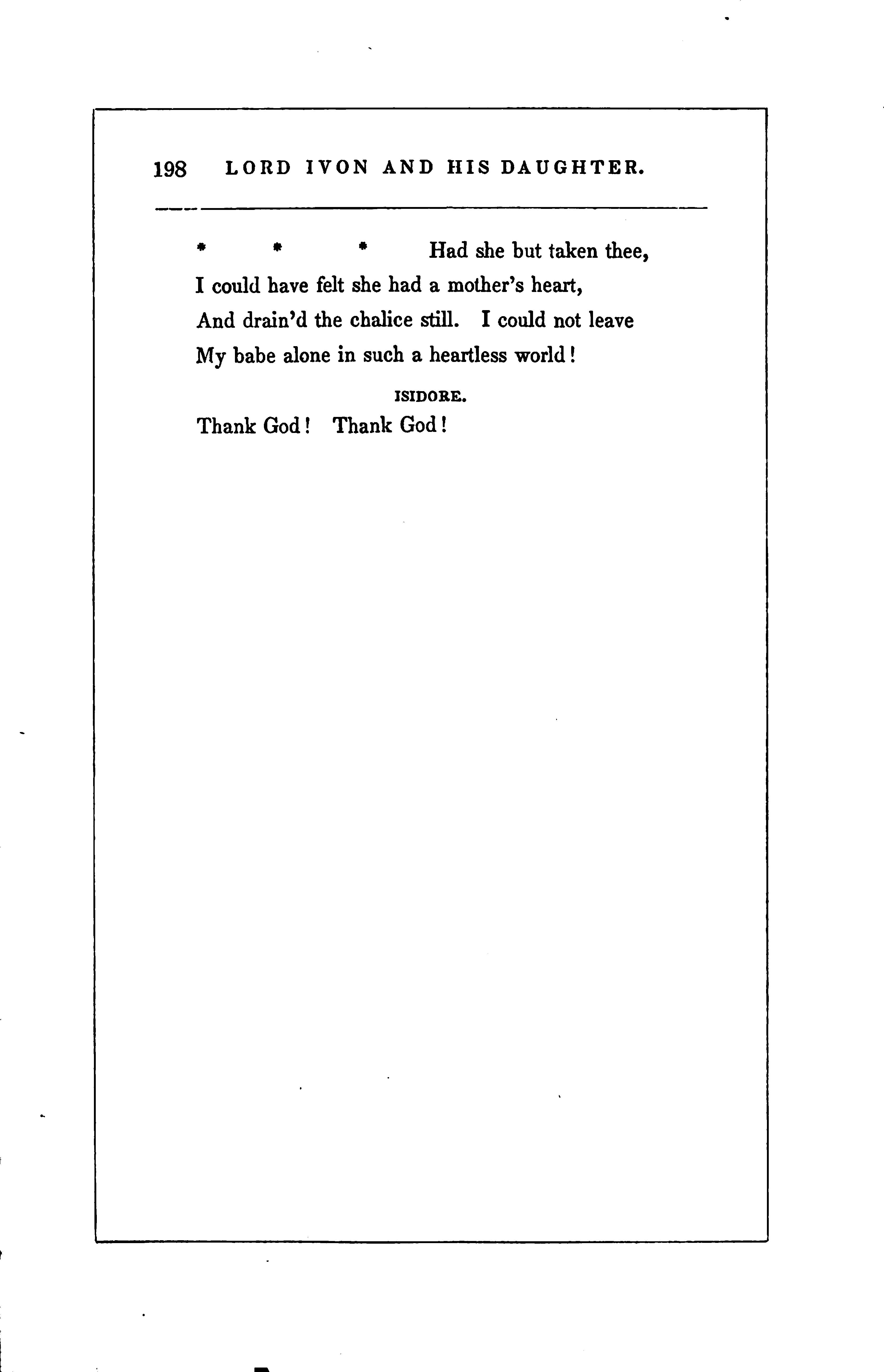

I KNOW not if the sunshine wasteThe world is dark since thou art gone! The hours are, oh ! so leaden-paced ! The birds sing, and the stars float on, But sing not well, and look not fairA weight is in the summer air, And sadness in the sight of flowers ; And if I go where others smile, Their love but makes me think of ours, And heavier gets my heart the while. Like one upon a desert isle, I languish of the weary hours ; I never thought a life could be So flung upon one hope, as mine, dear love, on thee!
I sit and watch the summer sky. There comes a cloud through heaven alone ; A thousand stars are shining nigh It feels no light, but darkles on! Yet now it nears the lovelier moon ; And, flushing through its fringe of snow,
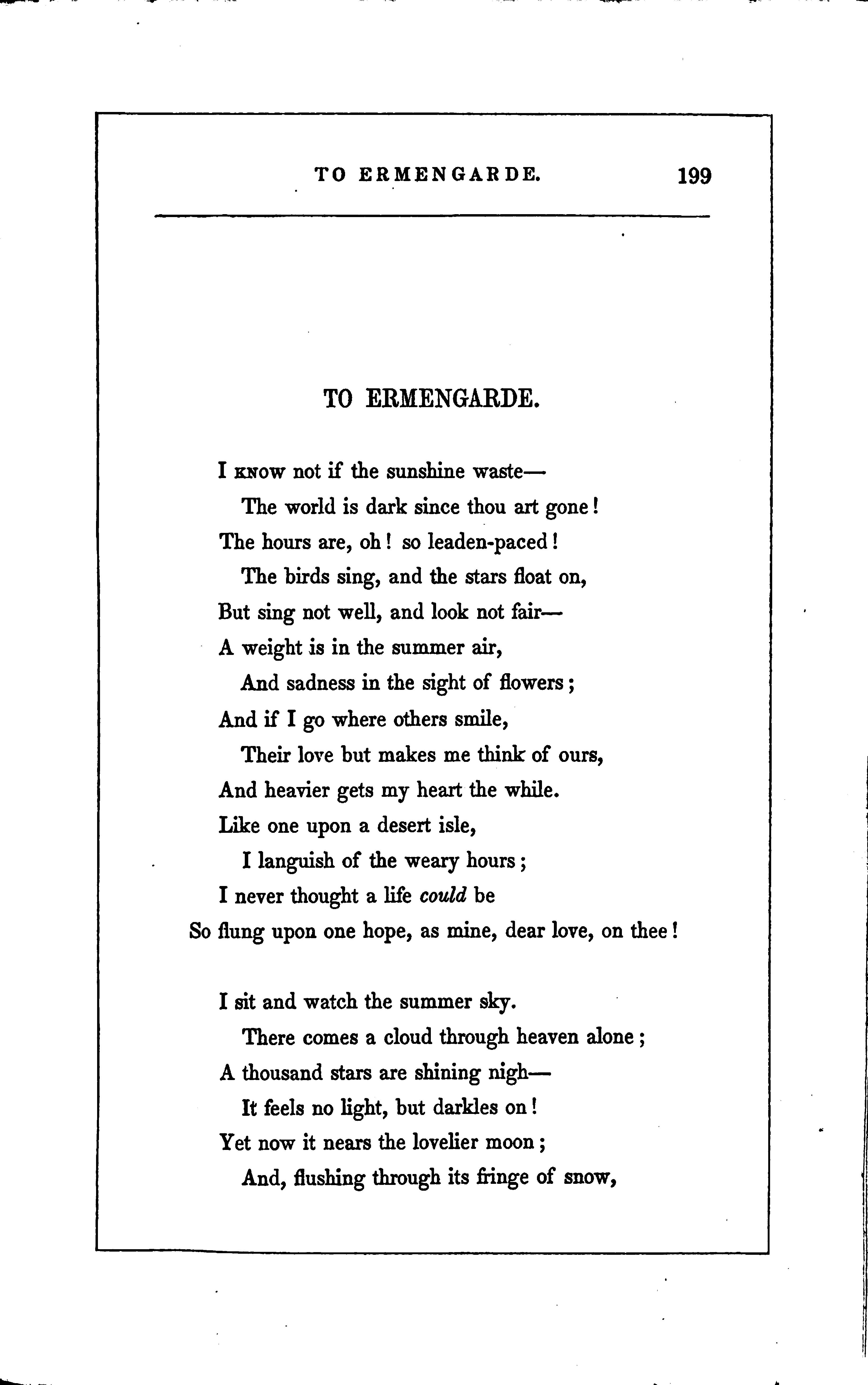

There steals a rosier dye, and soon Its bosom is one fiery glow!
The Queen of Light within it lies !
Yet mark how lovers meet to part!
The cloud already onward flies, And shadows sink into its heart, And (dost thou see them where thou art?)
Fade fast, fade all those glorious dyes ! Its light, like mine, is seen no more, And, like my own, its heart seems darker than before !
Where press this hour those fairy feet?
Where look this hour those eyes of blue ?
What music in thine ear is sweet?
What odour breathes thy lattice through?
What word is on thy lip ? what tone
What look-replying to thine own?
Thy steps along the Danube stray Alas! it seeks an orient sea!
Thou wouldst not seem so far away Flow'd but its waters back to me!
I bless the slowly coming moon Because its eye look'd late in thine !
I envy the west wind of June
Whose wings will bear it up the Rhine ; The flower I press upon my brow
Were sweeter if its like perfumed thy chamber now!
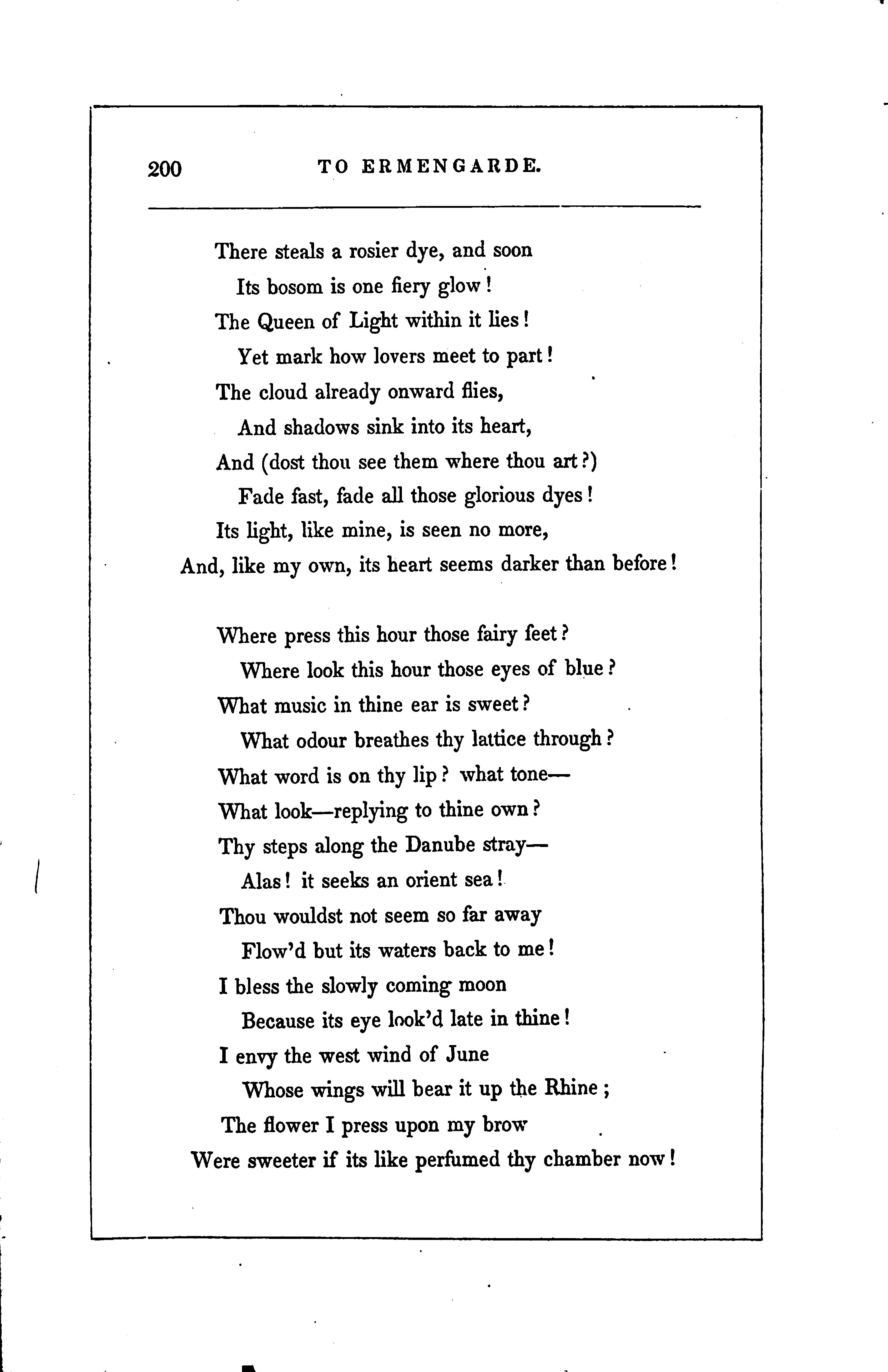

"Whenthouhast met with careless hearts and cold, Hearts that younglove may touch, but never holdNot changeless, asthe loved and left of old Remember me-remember meIpassionately pray ofthee!"
LADY E.S. WORTLEY.I THOUGHT of thee-I thought of thee, On ocean many a weary night When heaved the long and sullen sea, With only waves and stars in sight. We stole along by isles of balm, We furl'd before the coming gale, We slept amid the breathless calm, We flew beneath the straining sailBut thou wert lost for years to me, And, day and night, I thought of thee !
I thought of thee-I thought of thee, In France amid the gay saloon, Where eyes as dark as eyes may be Are many as the leaves in JuneWhere life is love, and even the air Is pregnant with impassion'd thought,
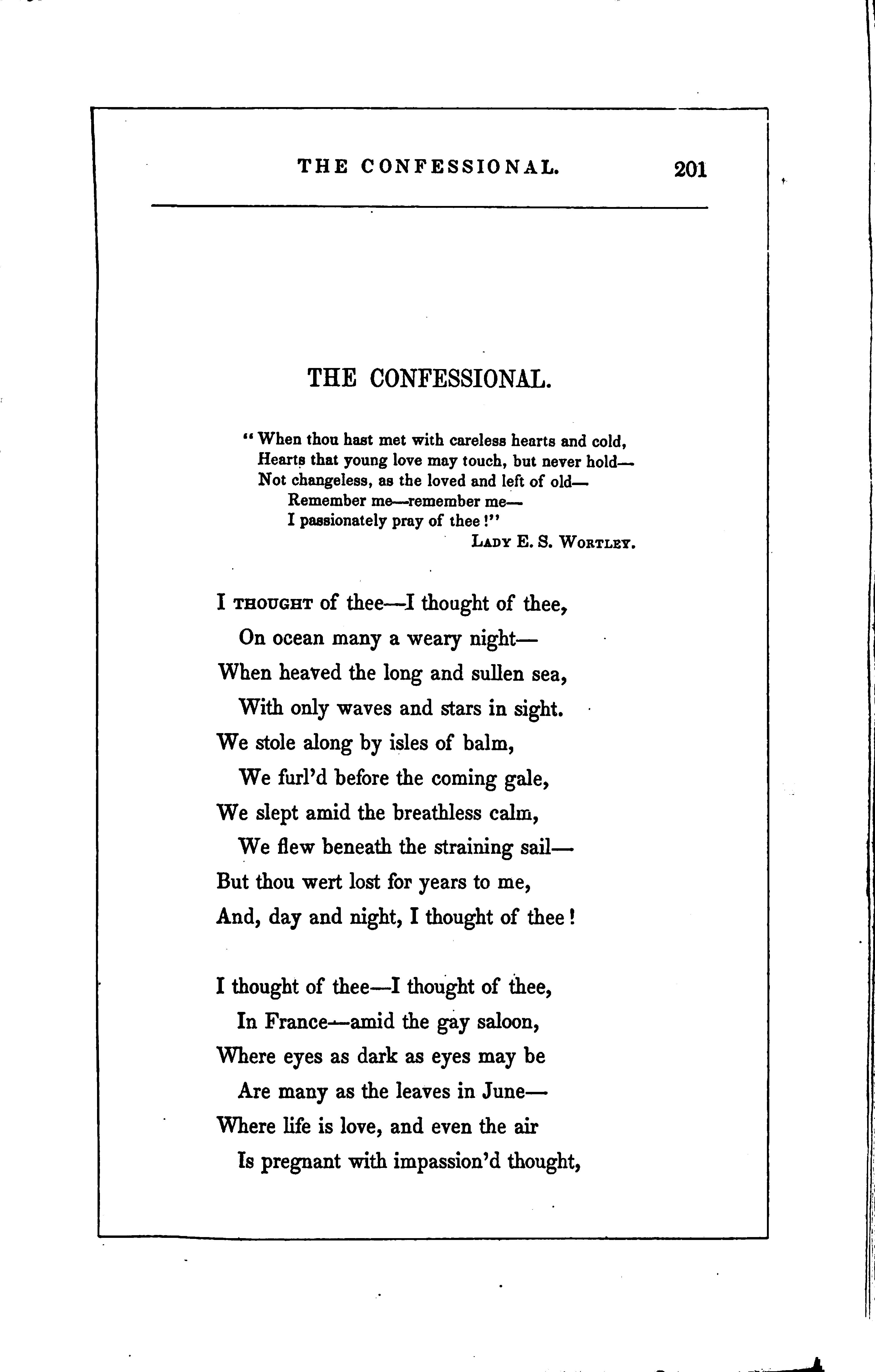

And song and dance and music are With one warm meaning only fraught My half-snared heart broke lightly free, And, with a blush, I thought of thee!
I thought of thee-I thought of thee, In Florence, where the fiery hearts Of Italy are breathed away In wonders of the deathless arts ; Where strays the Contadina down Val d'Arno with a song of old ; Where clime and woman seldom frown, And life runs over sands of gold ; I stray'd to lone Fiesolé On many an eve, and thought of thee.
I thought of thee-I thought of thee, In Rome, when on the Palatine Night left the Cæsars' palace free To Time's forgetful foot and mine ; Or, on the Coliseum's wall, When moonlight touch'd the ivied stone, Reclining, with a thought of all That o'er this scene has come and goneThe shades of Rome would start and flee Unconsciously-I thought of thee.
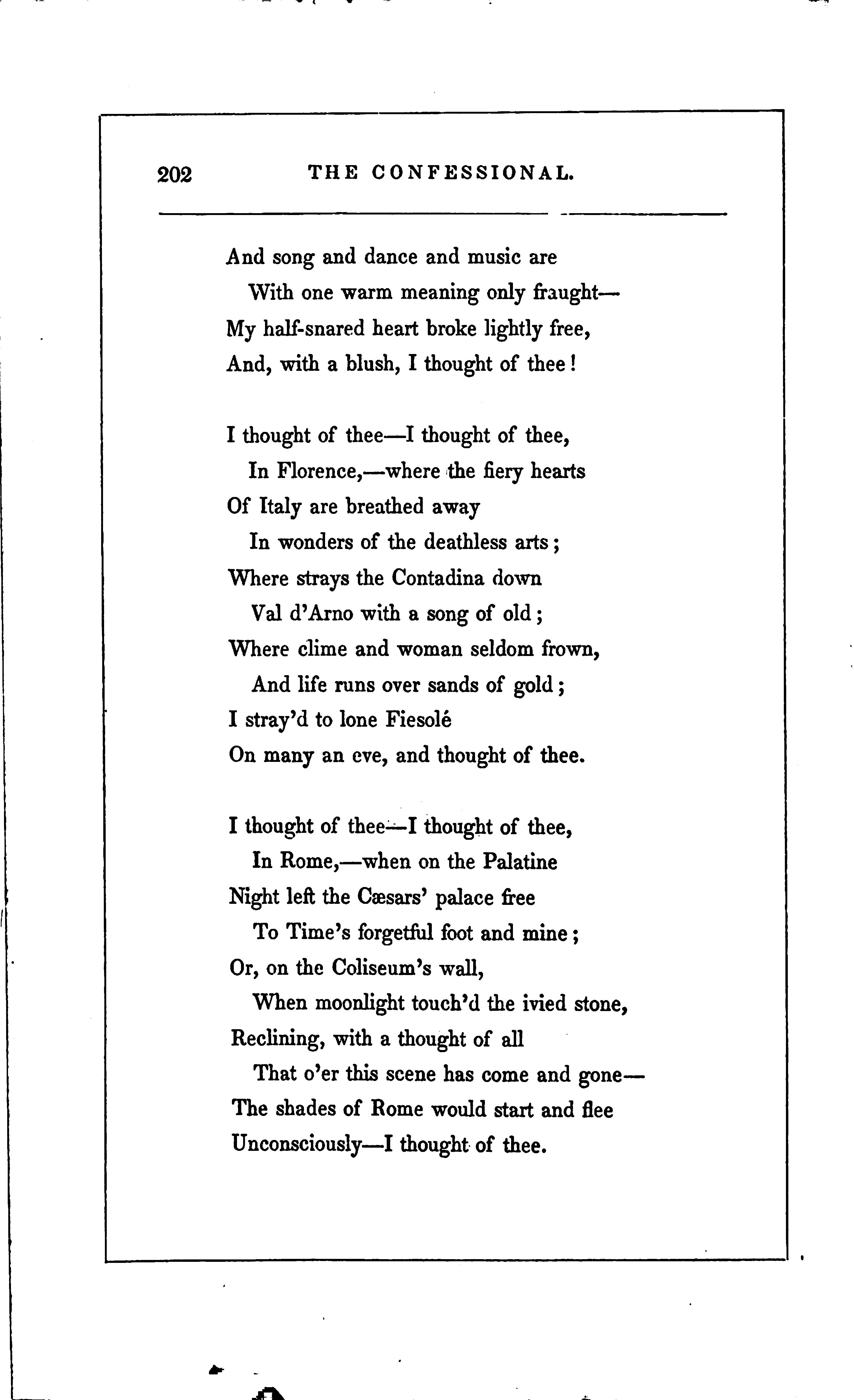

10 NO 1900 MUSEU
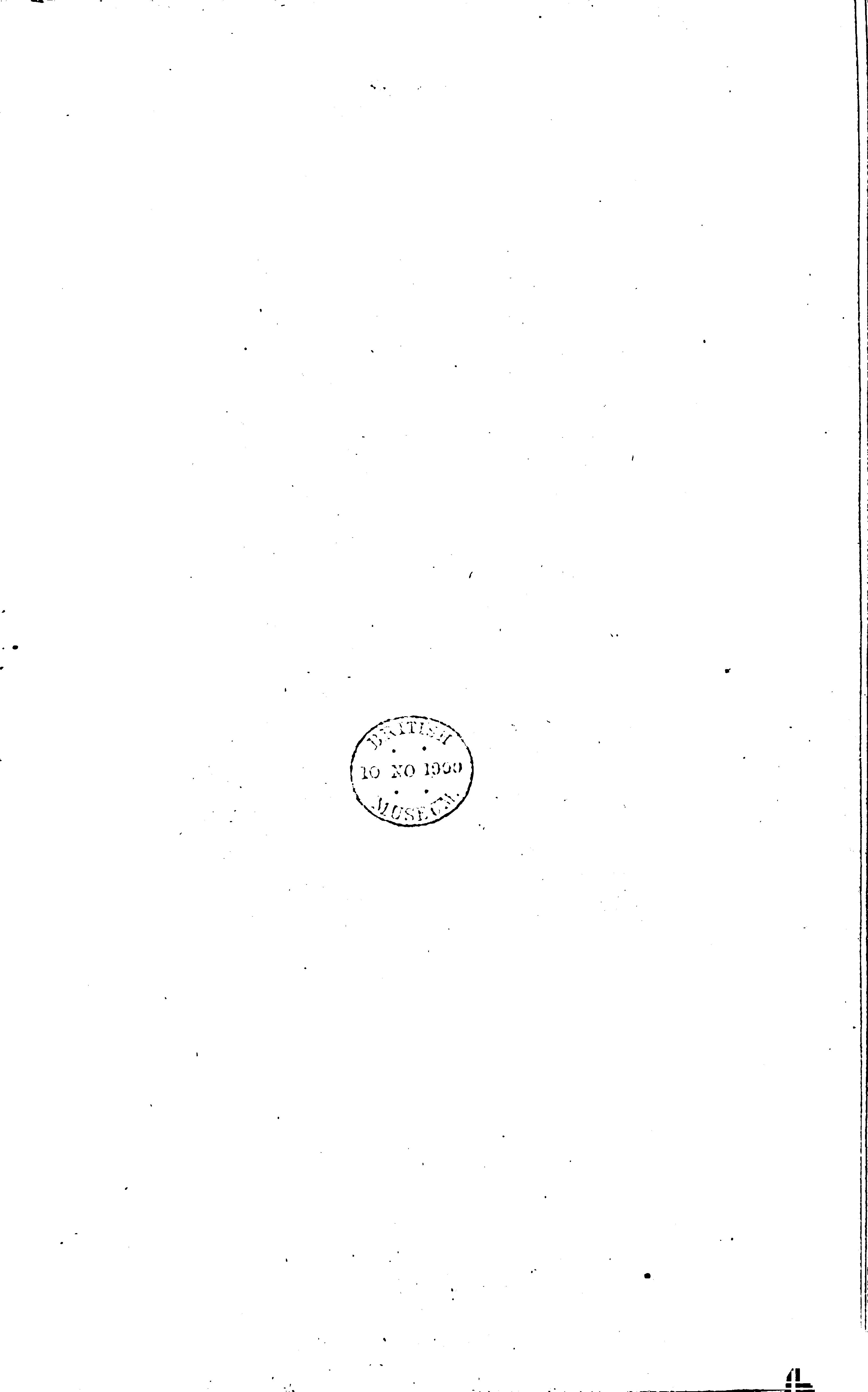

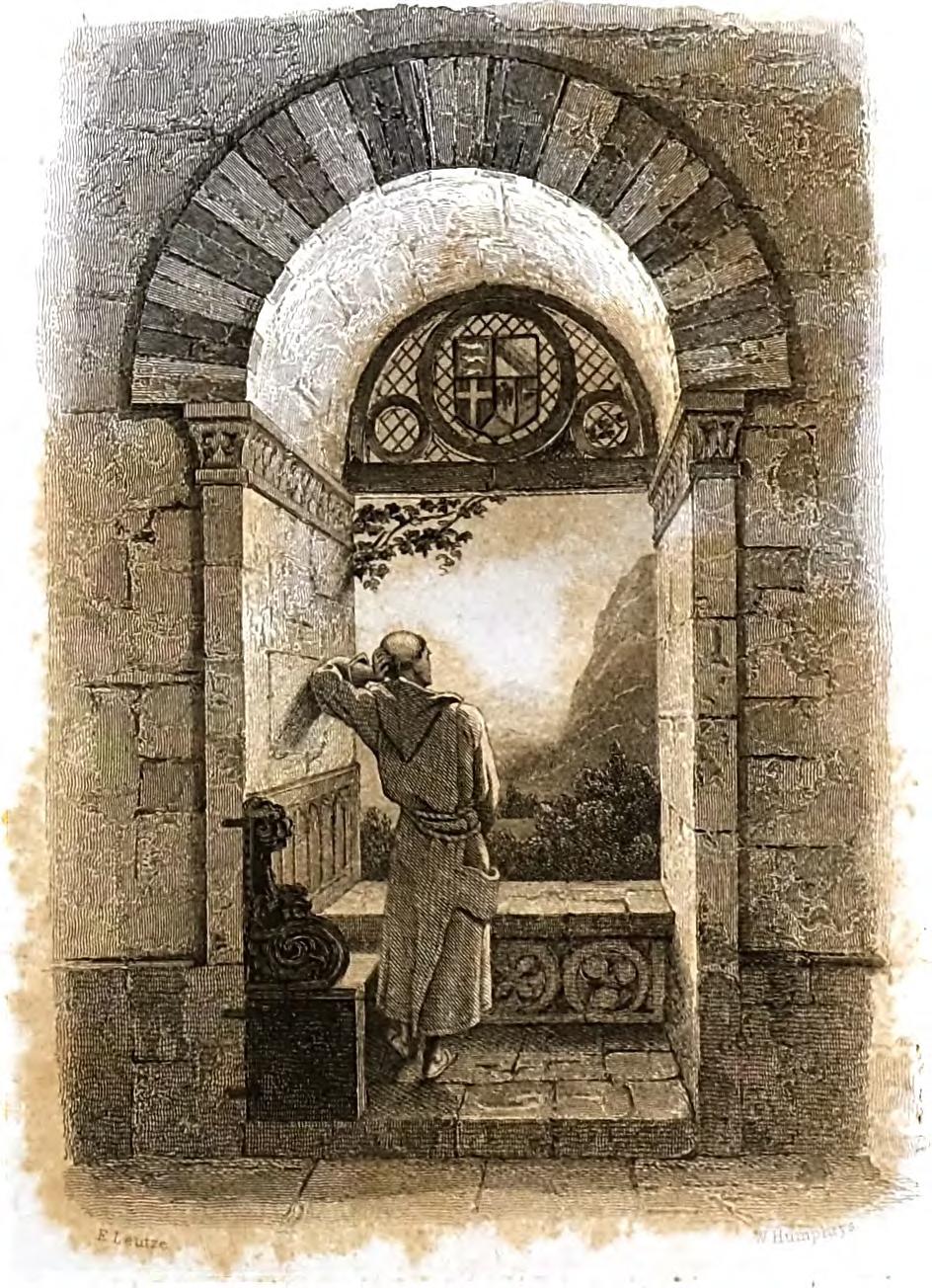

 ELeutze
WHumphrys
MONK OF VALLOMBROS A.
Fracted17MDelic
ELeutze
WHumphrys
MONK OF VALLOMBROS A.
Fracted17MDelic
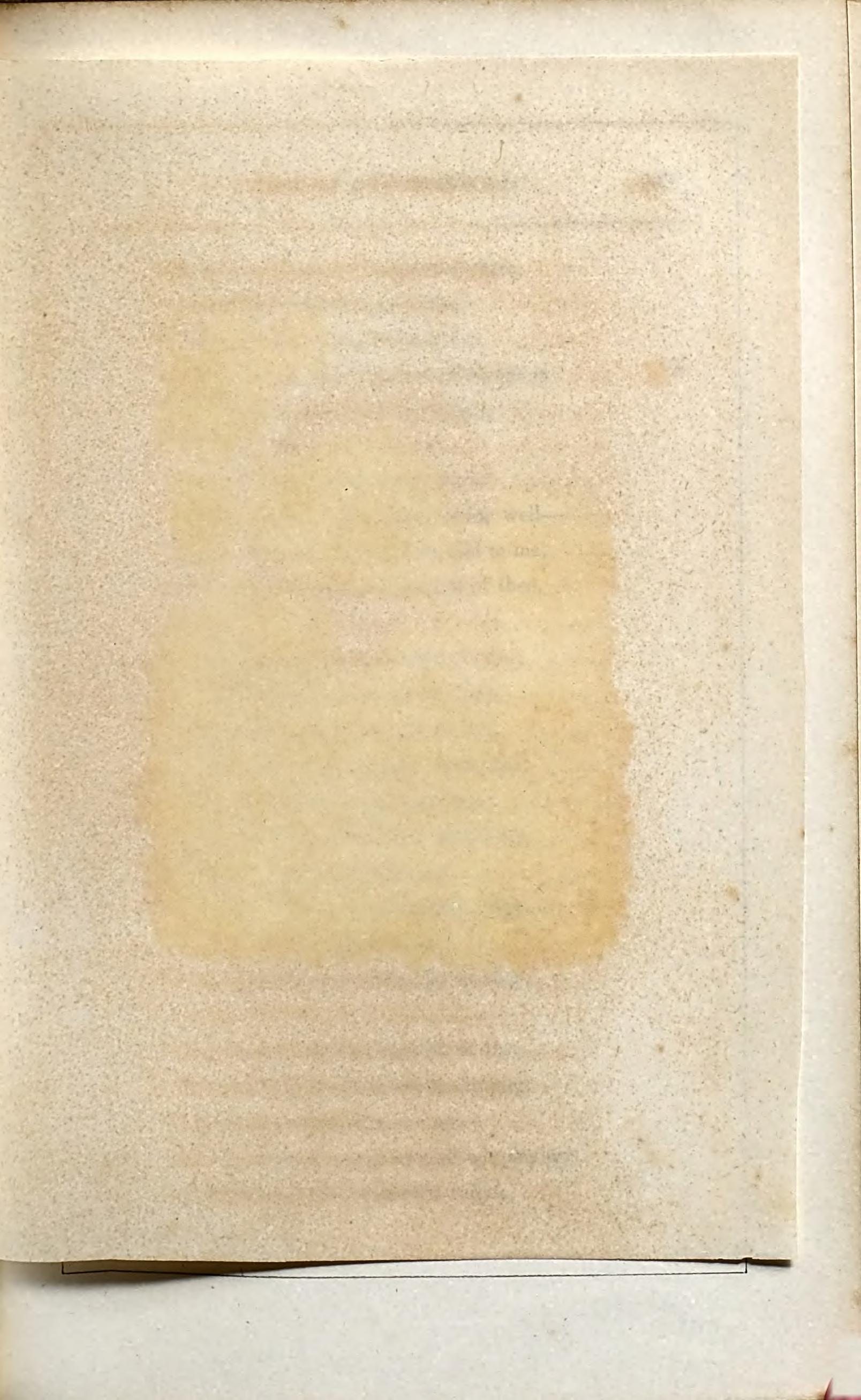

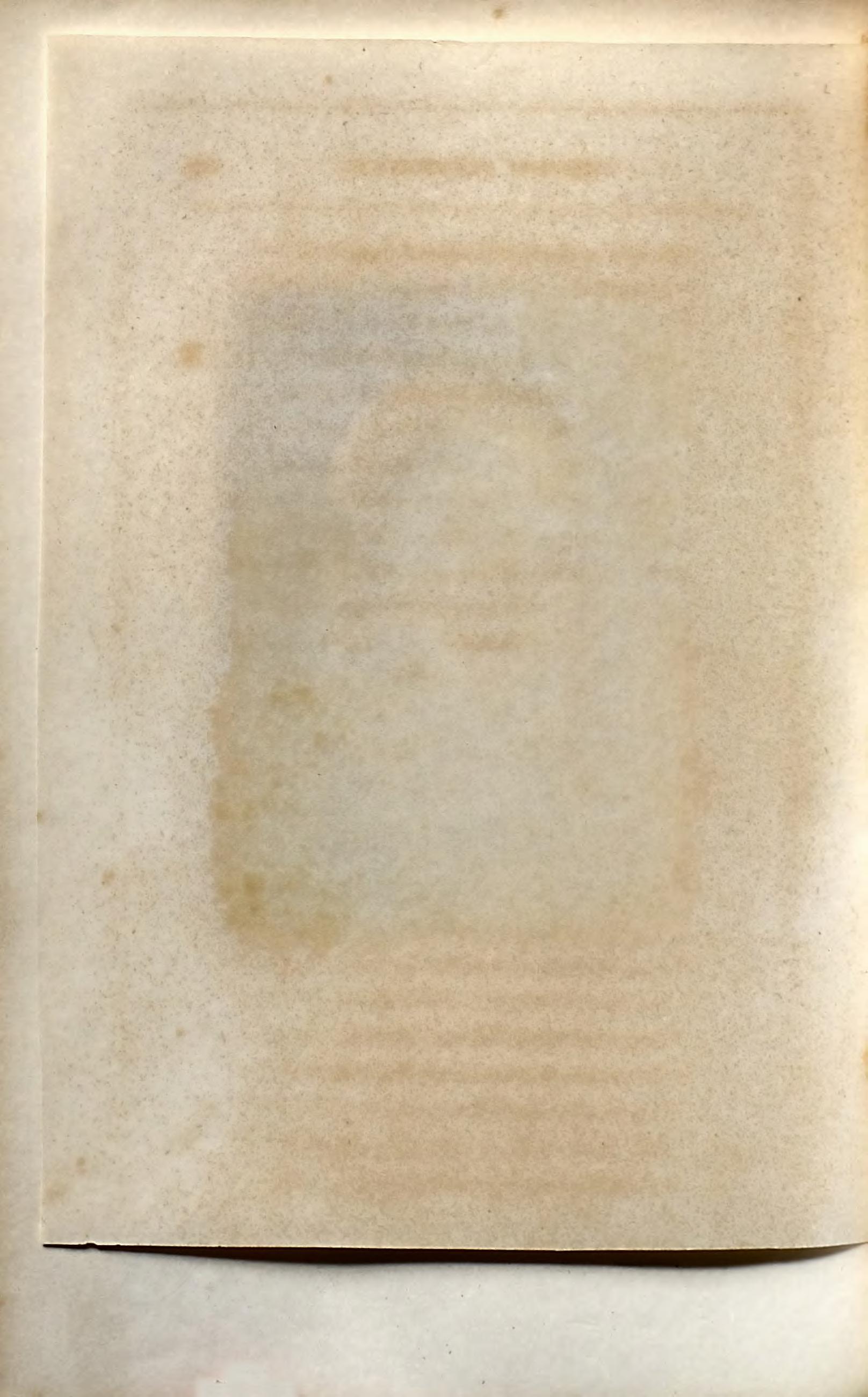

Ithought of thee-I thought of thee, In Vallombrosa's holy shade, Where nobles born the friars be, By life's rude changes humbler made. Here Milton framed his Paradise ; I slept within his very cell ; And, as I closed my weary eyes, I thought the cowl would fit me wellThe cloisters breathed, it seem'd to me, Of heart's-ease-but I thought of thee.
I thought of thee I thought of thee, In Venice, on a night in June ; When, through the city of the sea, Like dust of silver slept the moon. Slow turn'd his oar the gondolier, And, as the black barks glided by, The waterto my leaning ear Bore back the lover's passing sighIt was no place alone to beI thought of thee-I thought of thee.
I thought of thee I thought of thee, In the Ionian isles-when straying With wise Ulysses bythe seaOld Homer's songs around me playing ; Or, watching the bewitch'd caique,
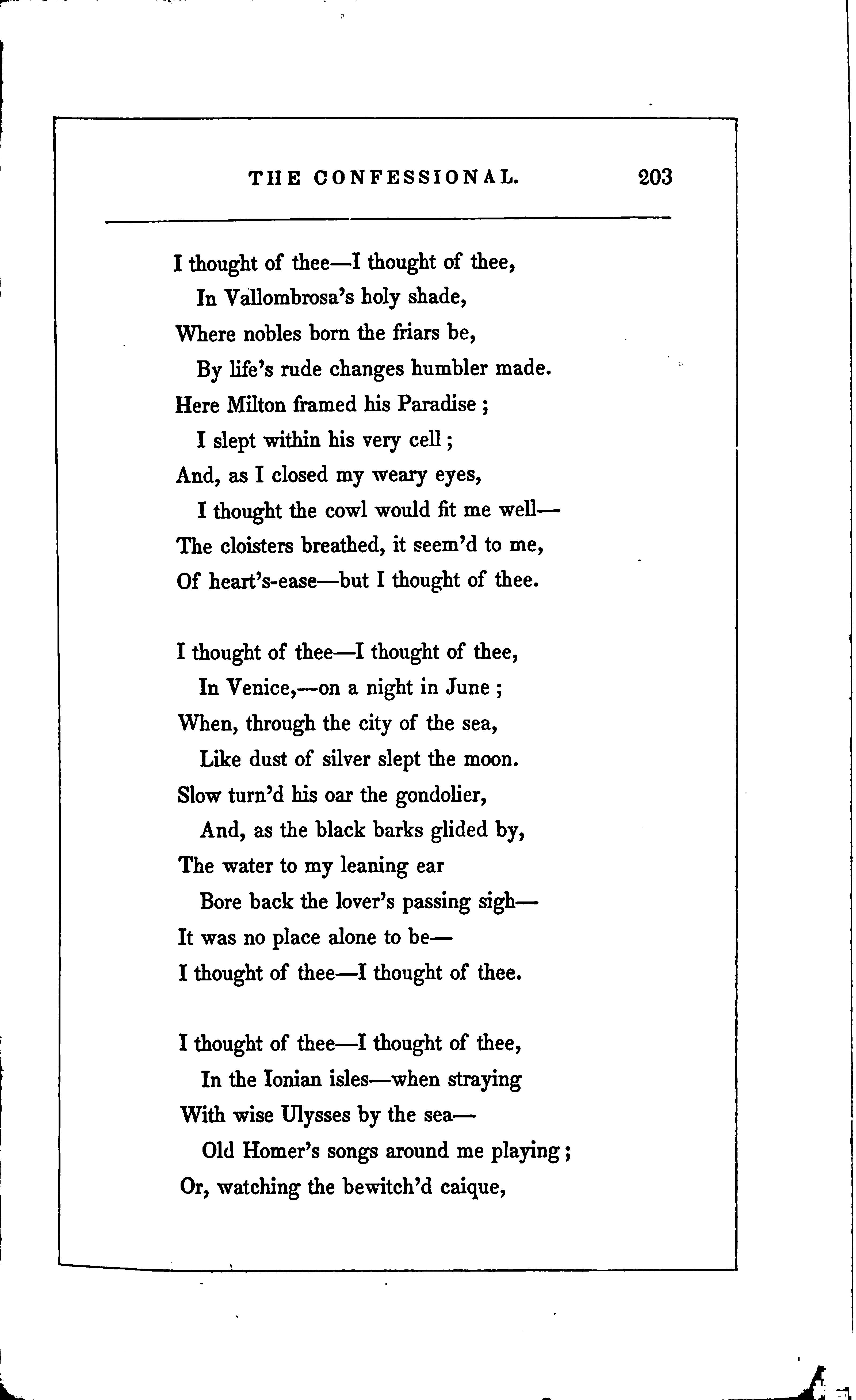

That o'er the star-lit waters flew, I listen'd to the helmsman Greek, Who sungthe song that Sappho knewThe poet's spell, the bark, the sea, All vanish'd-as I thought of thee.
I thought of thee-I thought of thee, In Greece when rose the Parthenon Majestic o'er the Egean sea, And heroes with it, one by one ; When, in the grove of Academe, Where Lais and Leontium stray'd Discussing Plato's mystic theme, I lay at noontide in the shadeThe Egean wind, the whispering tree, Had voices-and I thought of thee.
I thought of thee-I thought of thee, In Asia onthe Dardanelles ; Where swiftly as the waters flee, Each wave some sweet old story tells ; And, seated by the marble tank Which sleeps by Ilium's ruins old, (The fount where peerless Helen drank, And Venus laved her locks of gold,)*
* In the Scamander,-before contending for the prize of beauty on Mount Ida. Its head waters fill a beautiful tank near the walls of Troy.
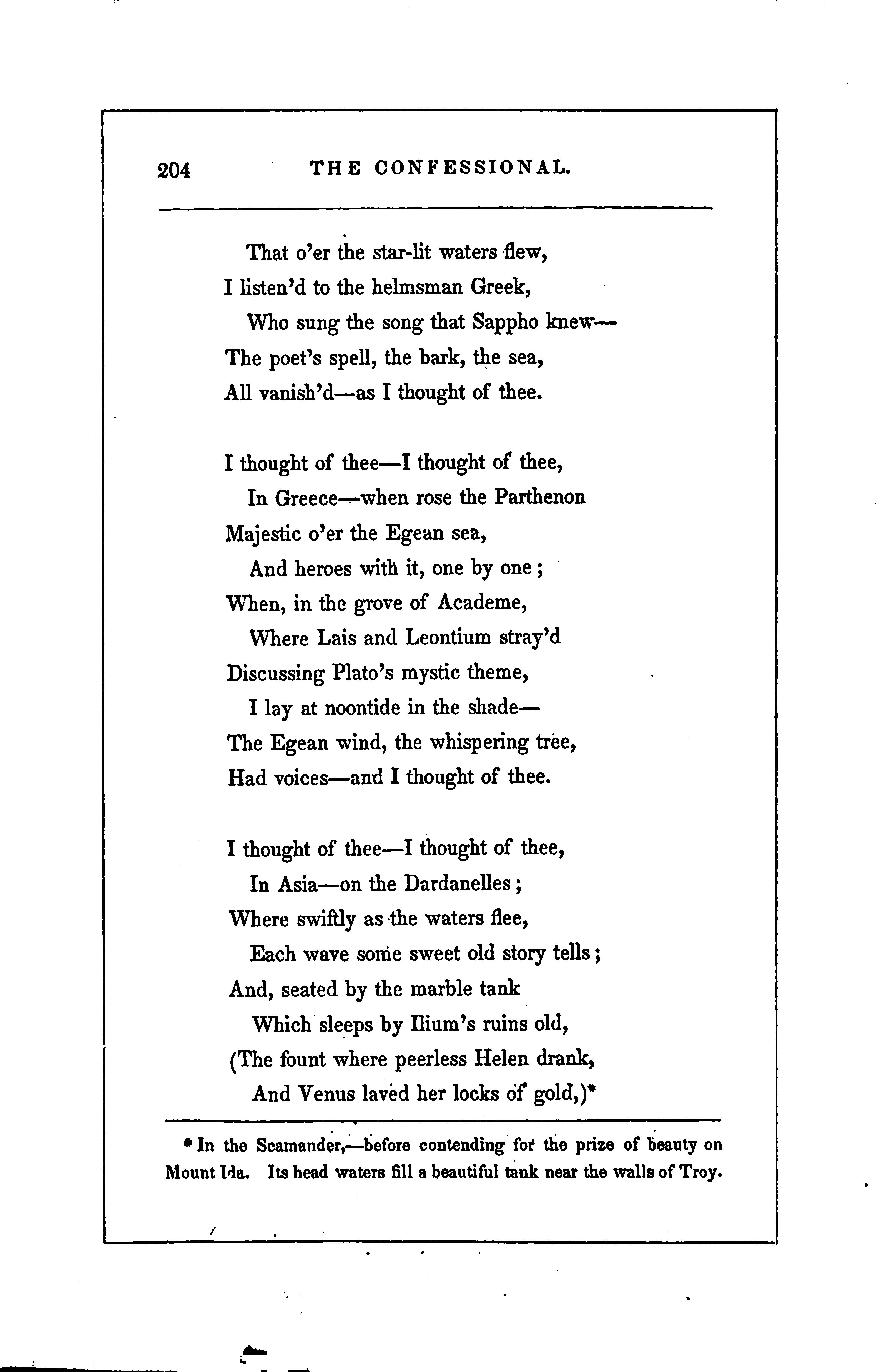

I thrill'd such classic haunts to see, Yet even here I thought of thee.
I thought of thee-I thought of thee, Where glide the Bosphor's lovely waters, All palace-lined from sea to sea; And ever on its shores the daughters Of the delicious East are seen, Printing the brink with slipper'd feet ; And oh, the snowy folds between, What eyes of heaven your glances meet ! Peris of light no fairer beYet-in Stamboul-I thought of thee.
I've thought of thee-I've thought of thee, Through change that teaches to forget ; Thy face looks up from every sea, In every star thine eyes are s t, Though roving beneath Orient skies,
I Whose golden beauty breathes of rest ; envy every bird that flies Into the far and clouded West: I think of thee-I think of thee! Oh, dearest ! hast thou thought of me?
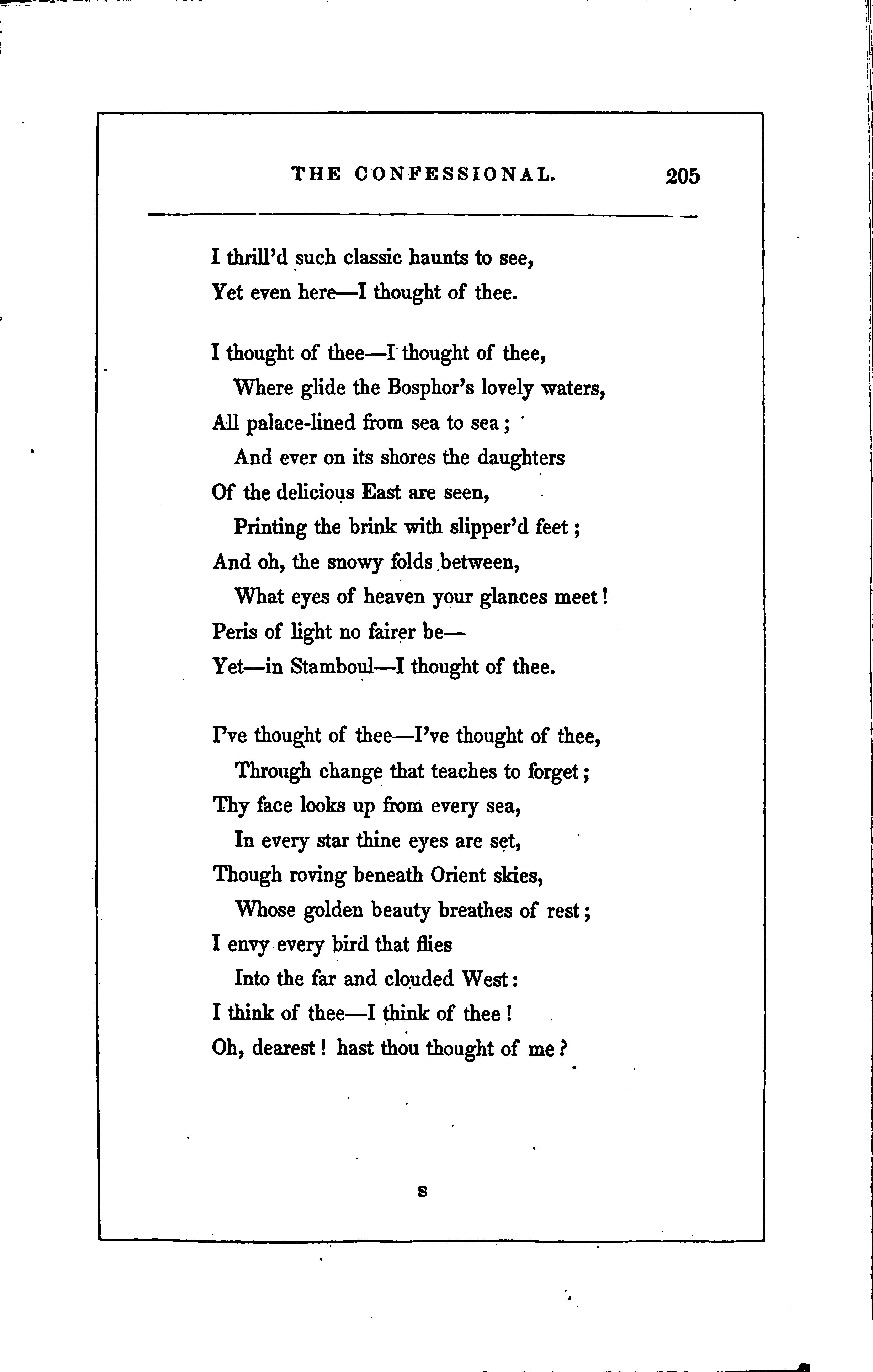

I WAS in Greece. It was the hour of noon, And the Egean wind had dropp'd asleep Upon Hymettus, and the thymy isles Of Salamis and Egina lay hung Like clouds upon the bright and breathless sea. I had climb'd up th' Acropolis at morn, And hours had fled, as time will in a dream, Amid its deathless ruins-for the air Is full of spirits in these mighty fanes, And they walk with you ! As it sultrier grew, I laid me down within a shadow deep Of a tall column of the Parthenon, And, in an absent idleness of thought, I scrawl'd upon the smooth and marble base. Tell me, O memory, what wrote I there ? The name of a sweet child I knew at Rome !
I was in Asia. 'Twas a peerless night Upon the plains of Sardis, and the moon, Touching my eyelids through the wind-stirr'd tent,
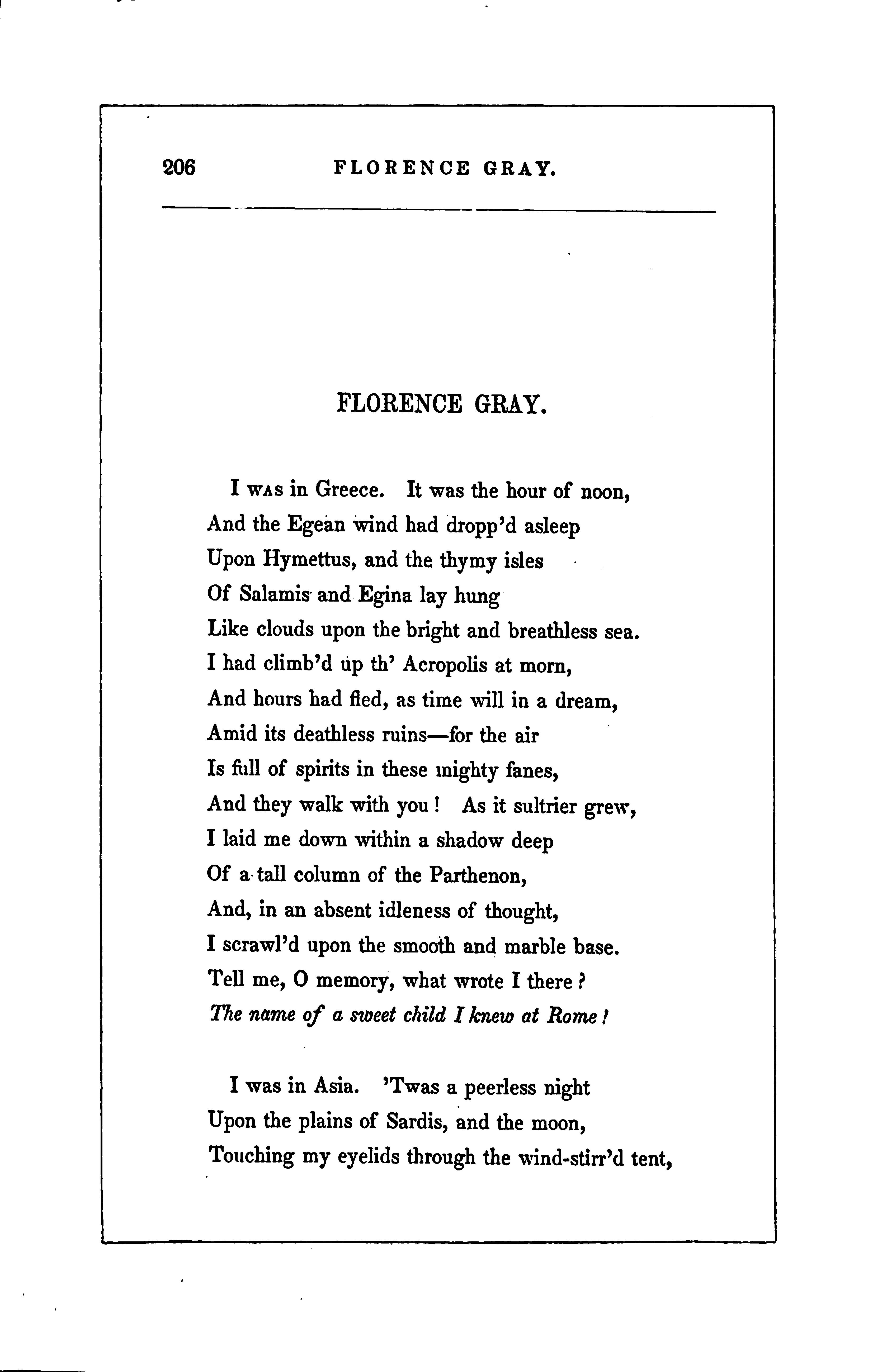

Had witch'd me from my slumber. I arose
And silently stole forth, and by the brink
Of "gold Pactolus," where his waters bathe
The bases of Cybele's columns fair, I paced away the hours. In wakeful mood
I mused upon the storied past awhile,
Watching the moon, that, with the same mild eye,
Had look'd upon the mighty Lydian kings
Sleeping around me-Croesus, who had heap'd
Within that mouldering portico his gold,
And Gyges, buried with his viewless ring
Beneath yon swelling tumulus-and then
I loiter'd up the valley to a small
And humbler ruin, where the undefiled*
Of the Apocalypse their garments kept
Spotless ; and crossing with a conscious awe
The broken threshold, to my spirit's eye
It seem'd as if, amid the moonlight, stood "The angel of the church of Sardis" still!
And I again pass'd onward, and as dawn
Paled the bright morning-star, I laid me down
Weary and sad beside the river's brink, And 'twixt the moonlight and the rosy morn, Wrote with my finger in the "golden sands."
"Thou hast a few names even in Sardis which have not defiled their garments; and they shall walk with me in white: for they are worthy."-Revelation iii. 4.
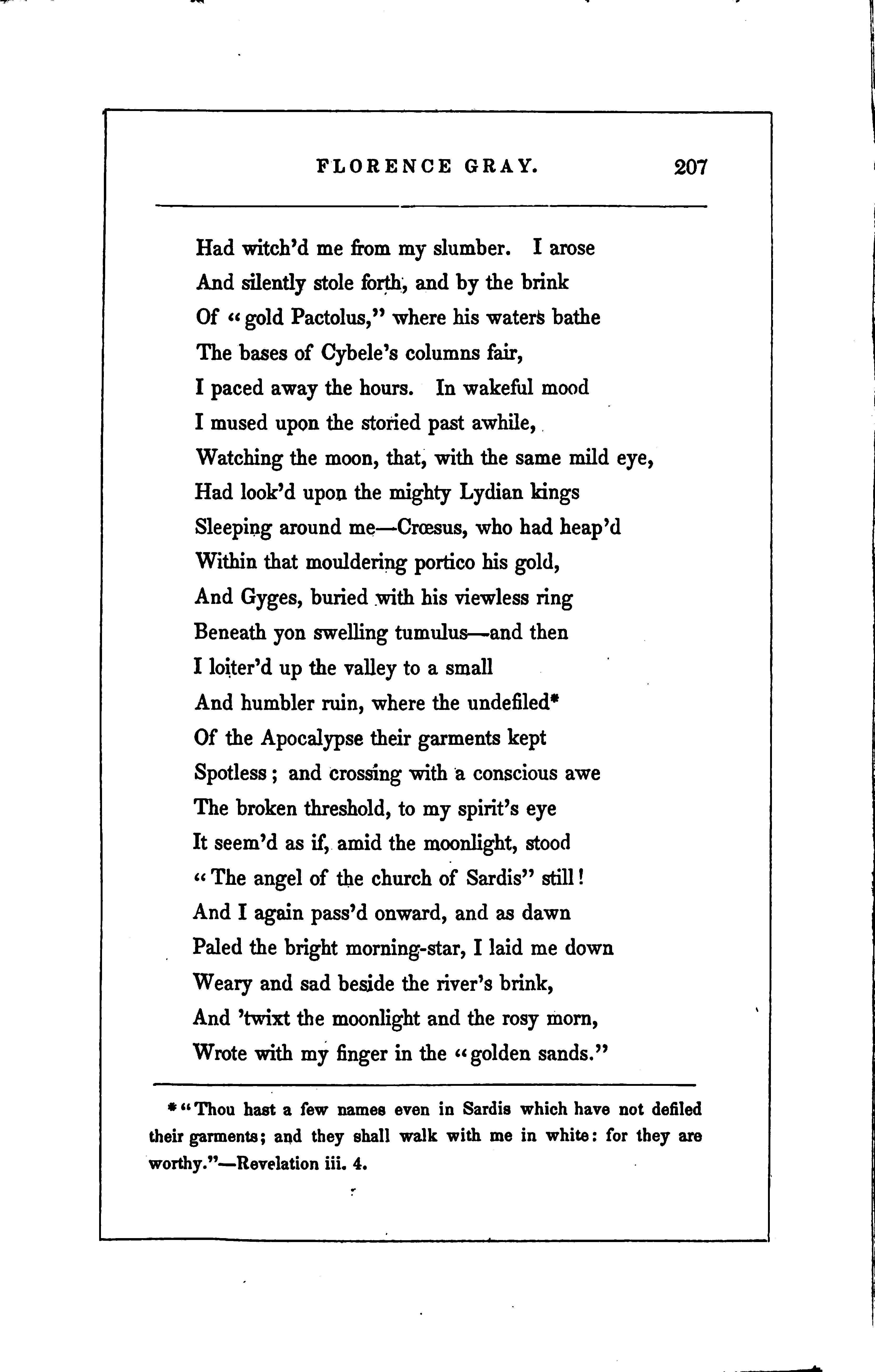

Tell me, 0 memory, what wrote Ithere?
The name ofthe sweet child 1 knew at Rome!
The dust is old upon my "sandal-shoon," And still I am a pilgrim ; I have roved From wild America to Bosphor's waters, And worshipp'd at innumerable shrines Of beauty ; and the painter's art, to me, And sculpture, speak as with a living tongue, And of dead kingdoms I recall the soul, Sitting amid their ruins. Ihave stored My memory with thoughts that can allay Fever and sadness, and when life gets dim, And I am overladen in my years, Minister to me. But when wearily The mind gives over toiling, and with eyes Open but seeing not, and senses all Lying awake within their chambers dim, Thought settles like a fountain, still and clear Far in its sleeping depths, as 'twere a gem, Tell me, O memory, what shines so fair?
Theface ofthe sweetchild Iknew at Rome!
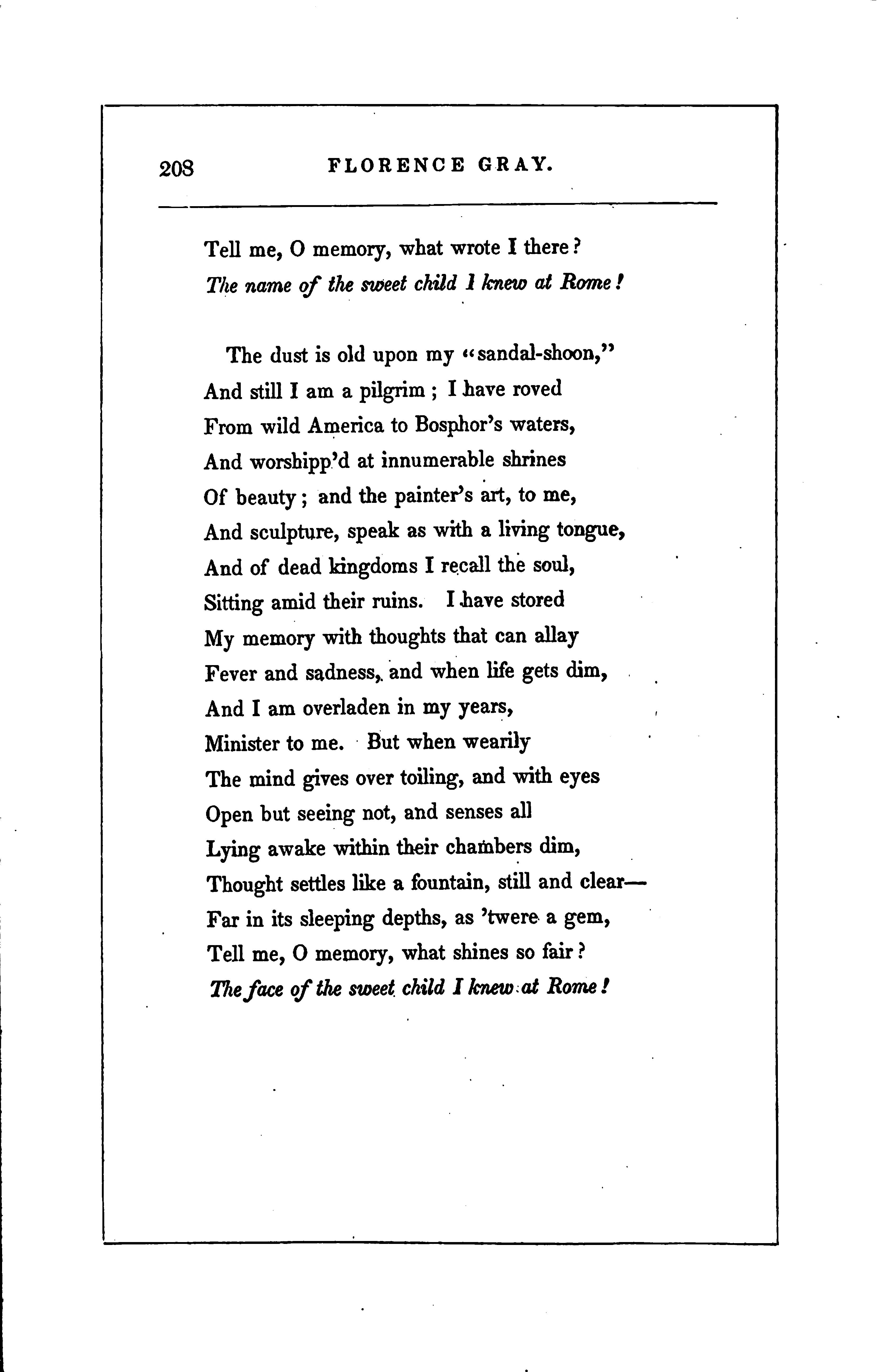

'Twas a summery day in the last of MayPleasant in sun or shade ; And the hours went by, as the poets say, Fragrant and fair on their flowery way ; And a hearse crept slowly through Broadway And the Fountain gayly play'd.
The Fountain play'd right merrily, And the world look'd bright and gay; And a youth went by, with a restless eye, Whose heart was sick and whose brain was dry; And he pray'd to God that he might die And the Fountain play'd away.
Uprose the spray like a diamond throne, And the drops like music rangAnd of those who marvell'd howit shone, Was a proud man, left, in his shame, alone ; And he shut his teeth with a smother'd groanAnd the Fountain sweetly sang.
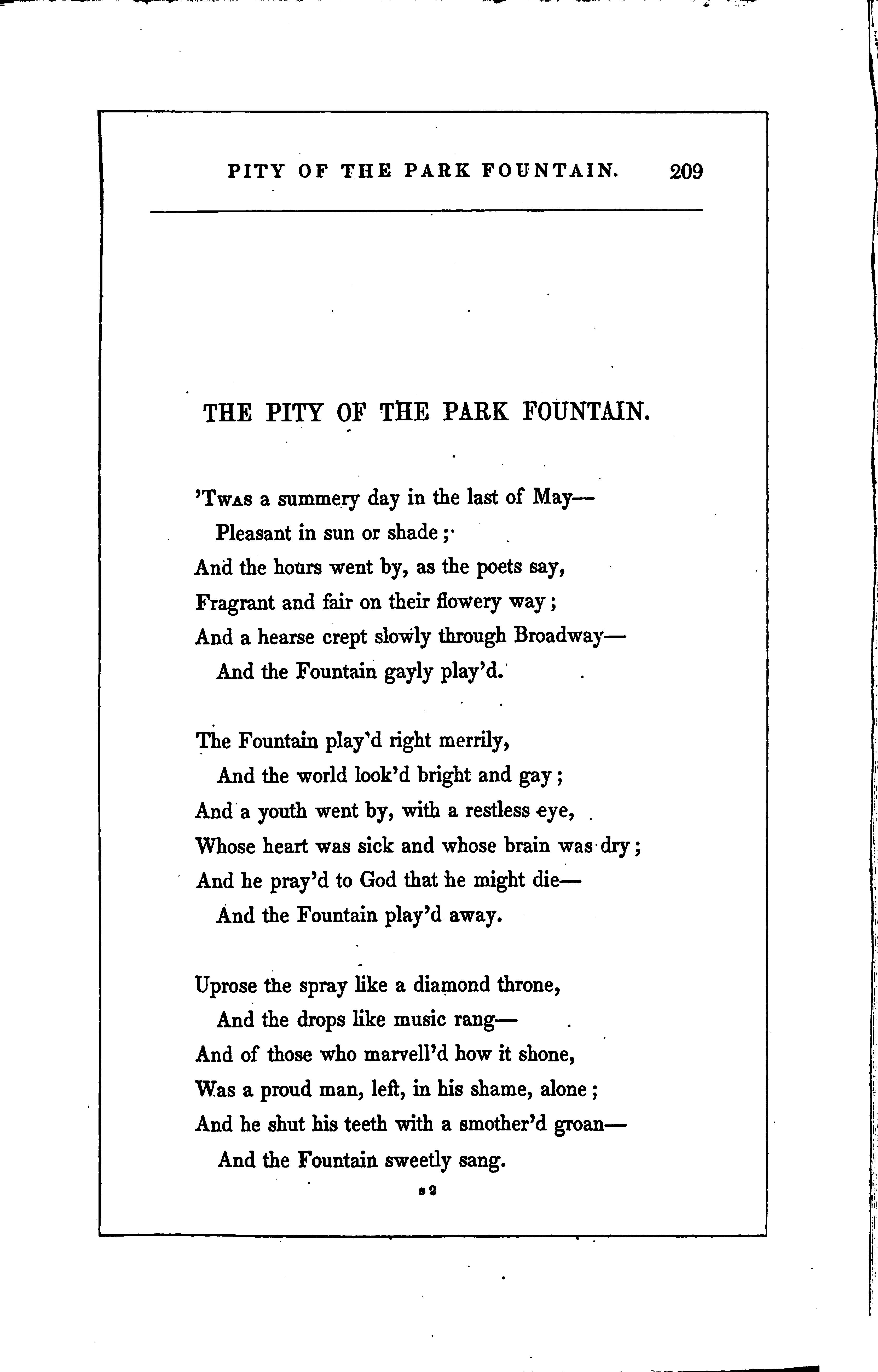

And a rainbow spann'd it changefully, Like a bright ring broke in twain ; And the pale, fair girl, who stopp'd to see, Was sick with the pangs of poverty And from hunger to guilt she chose to flee As the rainbow smiled again.
With as fair array, on another day, The morning will have shone ; And, as little mark'd, in bright Broadway, A hearse will glide amid busy and gay, And the bard who sings will have pass'd away And the Fountain will play on!
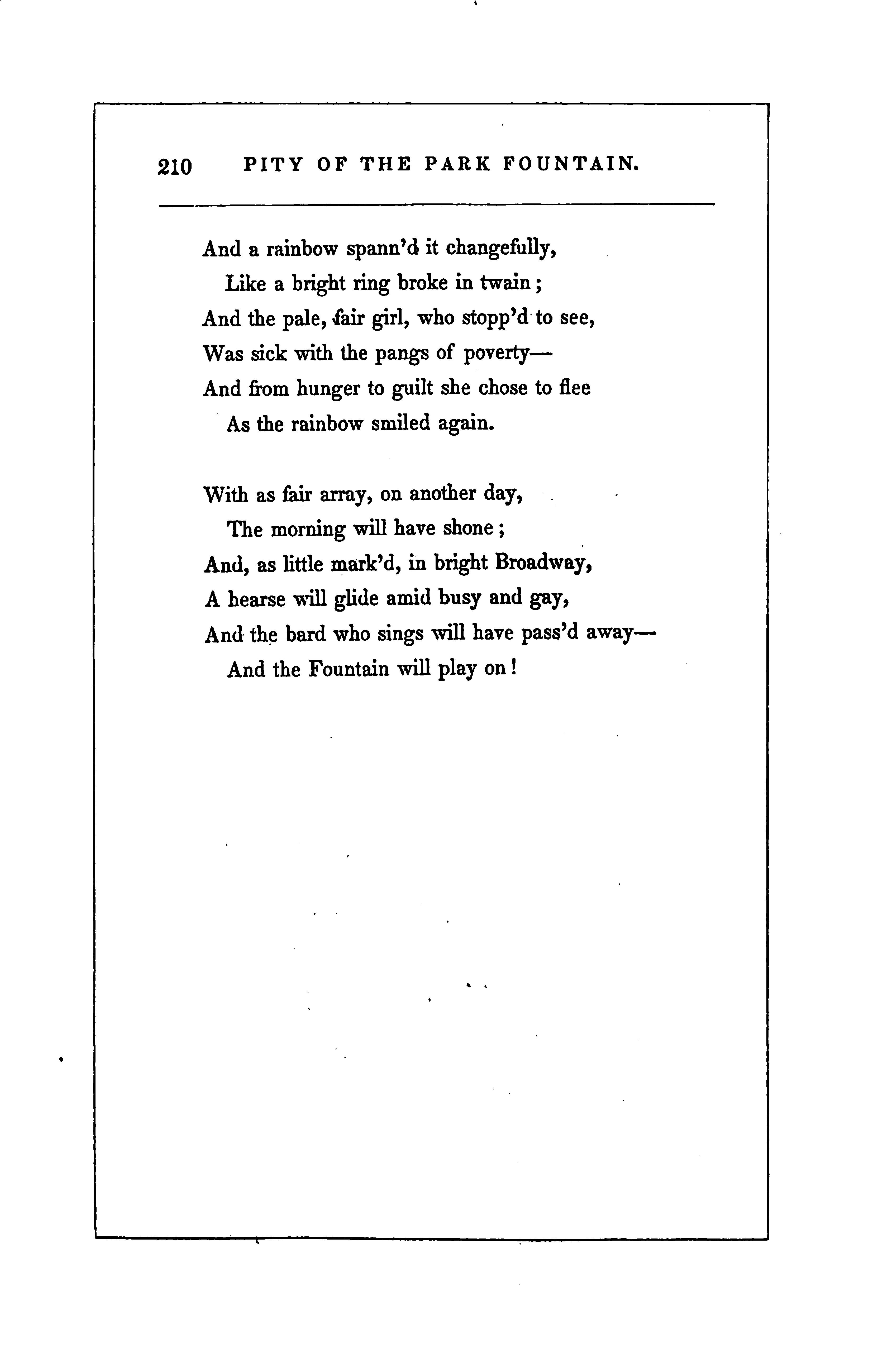

"CHAMBER
[AN EXQUISITE PICTURE IN THE STUDIO OF A YOUNG ARTIST AT ROME.]
SHE rose from her untroubled sleep, And put away her soft brown hair, And, in a tone as low and deep As love's first whisper, breathed a prayerHer snow-white hands together prest, Her blue eyes shelter'd in the lid, The folded linen on her breast Just swelling with the charms it hid ; And from her long and flowing dress Escaped a bare and slender foot, Whose shape upon the earth did press Like a new snow-flake, white and " mute ;"
And there, from slumber pure and warm, Like a young spirit fresh from heaven, " She bow'd her slight and graceful form, And humbly pray'd to be forgiven.
Oh God! if souls unsoil'd as these Need daily mercy from Thy throne-
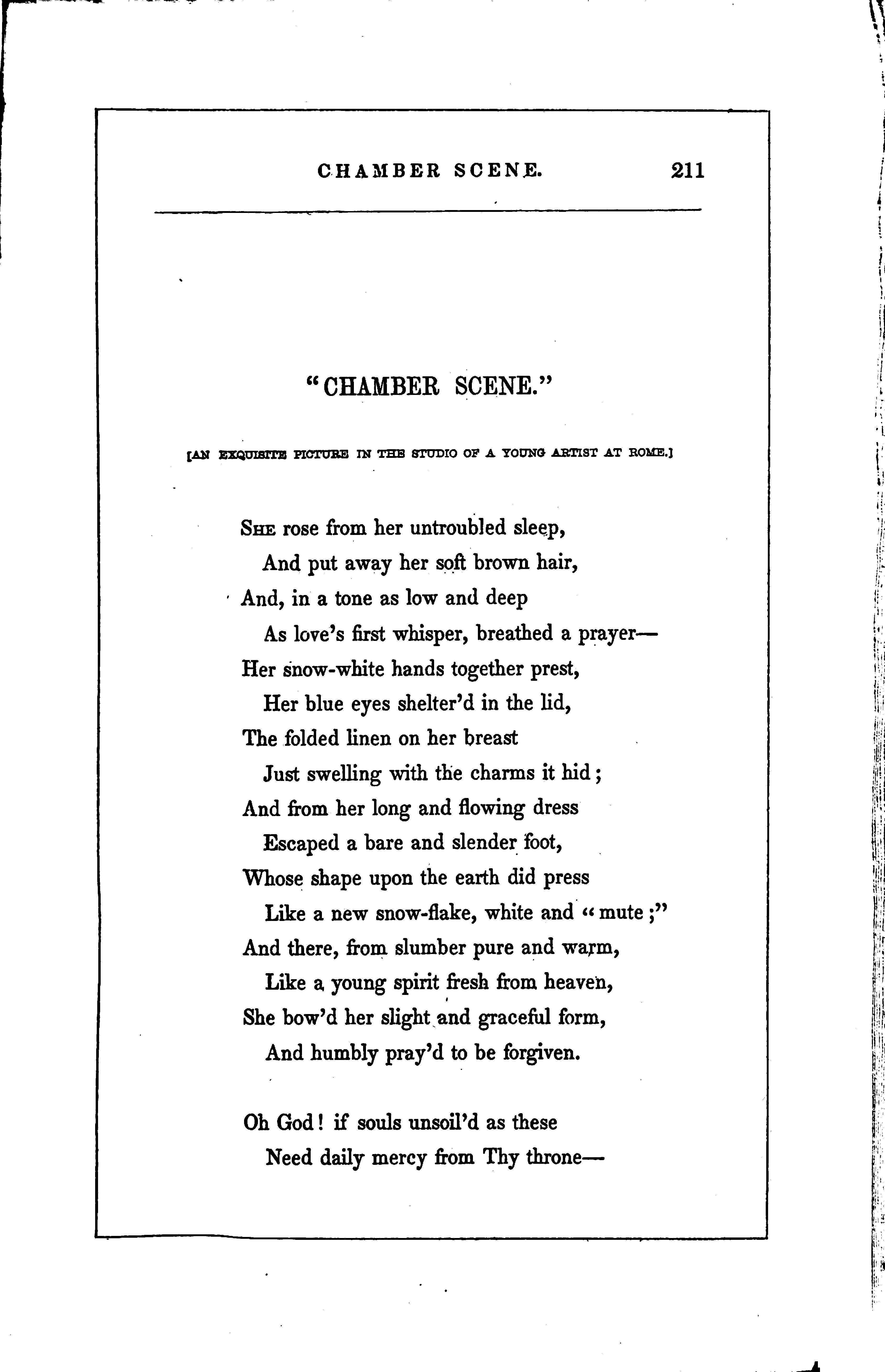

If she upon her bended kneesOur loveliest and our purest oneShe, with a face so clear and bright We deem her some stray child of light If she, with those soft eyes in tears, Day after day in her first years, Must kneel and pray for grace from Thee What far, far deeper need have we? How hardly, if she win not heaven, Will our wild errors be forgiven!
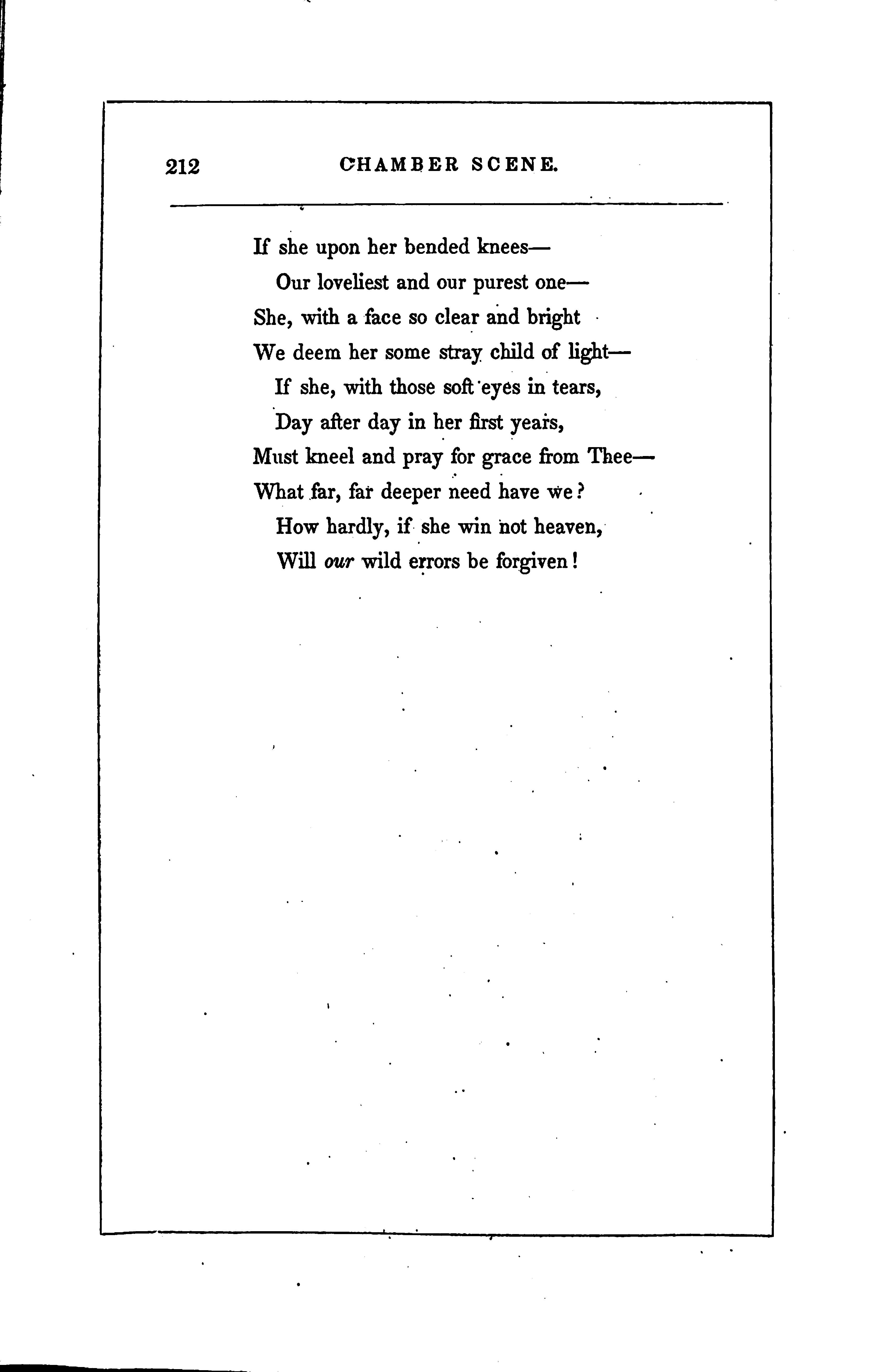

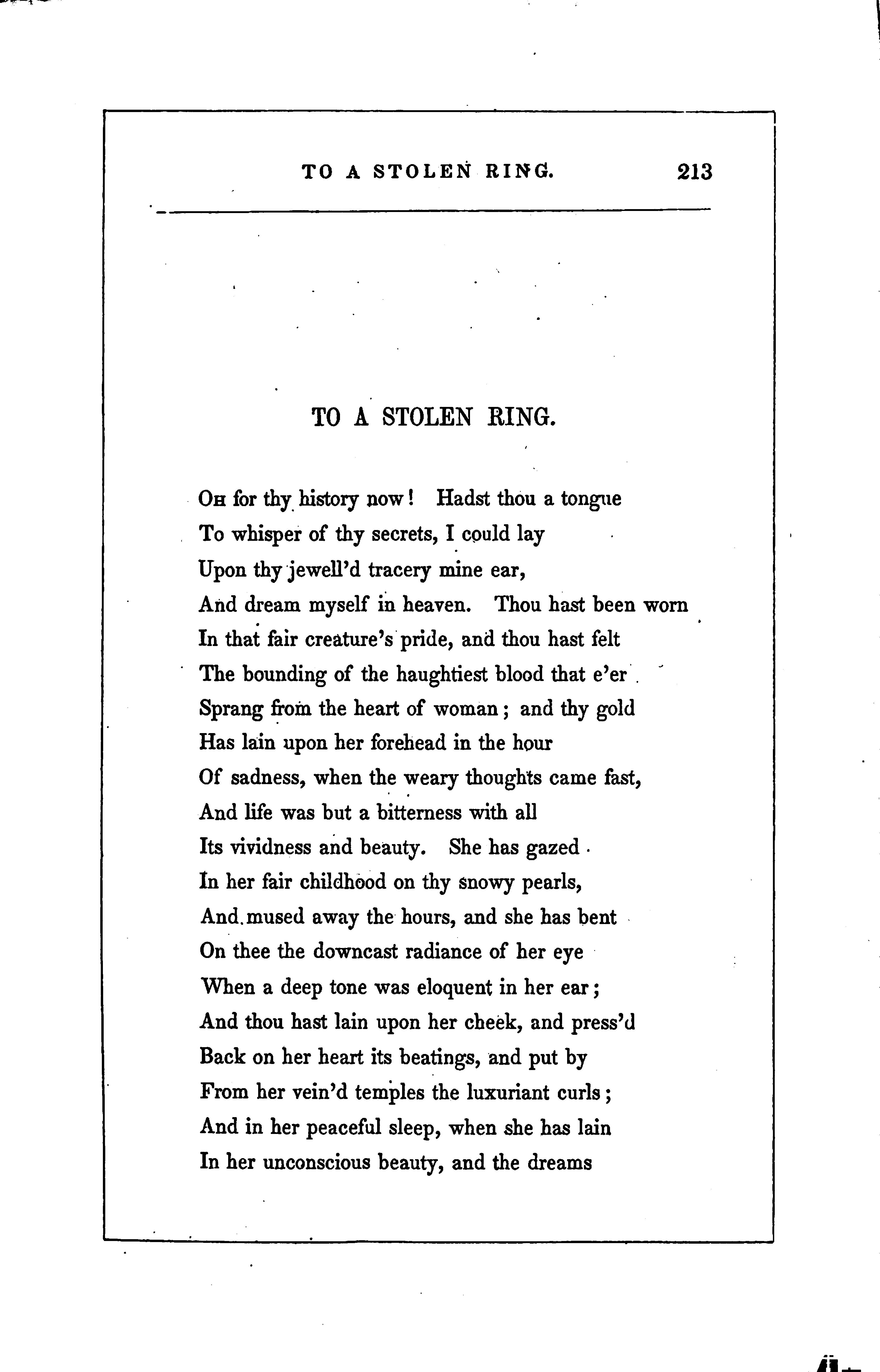
OHfor thy history now ! Hadst thou a tongue
To whisper of thy secrets, I could lay
Upon thyjewell'd tracery mine ear, And dream myself in heaven. Thou hast been worn In that fair creature's pride, and thou hast felt The bounding of the haughtiest blood that e'er`. Sprang from the heart of woman ; and thy gold Has lain upon her forehead in the hour Of sadness, when the weary thoughts came fast, And life was but a bitterness with all Its vividness and beauty. She has gazed. In her fair childhood on thy snowy pearls, And,mused away the hours, and she has bent On thee the downcast radiance of her eye
When a deep tone was eloquent in her ear; And thou hast lain upon her cheek, and press'd Back on her heart its beatings, and put by From her vein'd temples the luxuriant curls ; And in her peaceful sleep, when she has lain
In her unconscious beauty, and the dreams

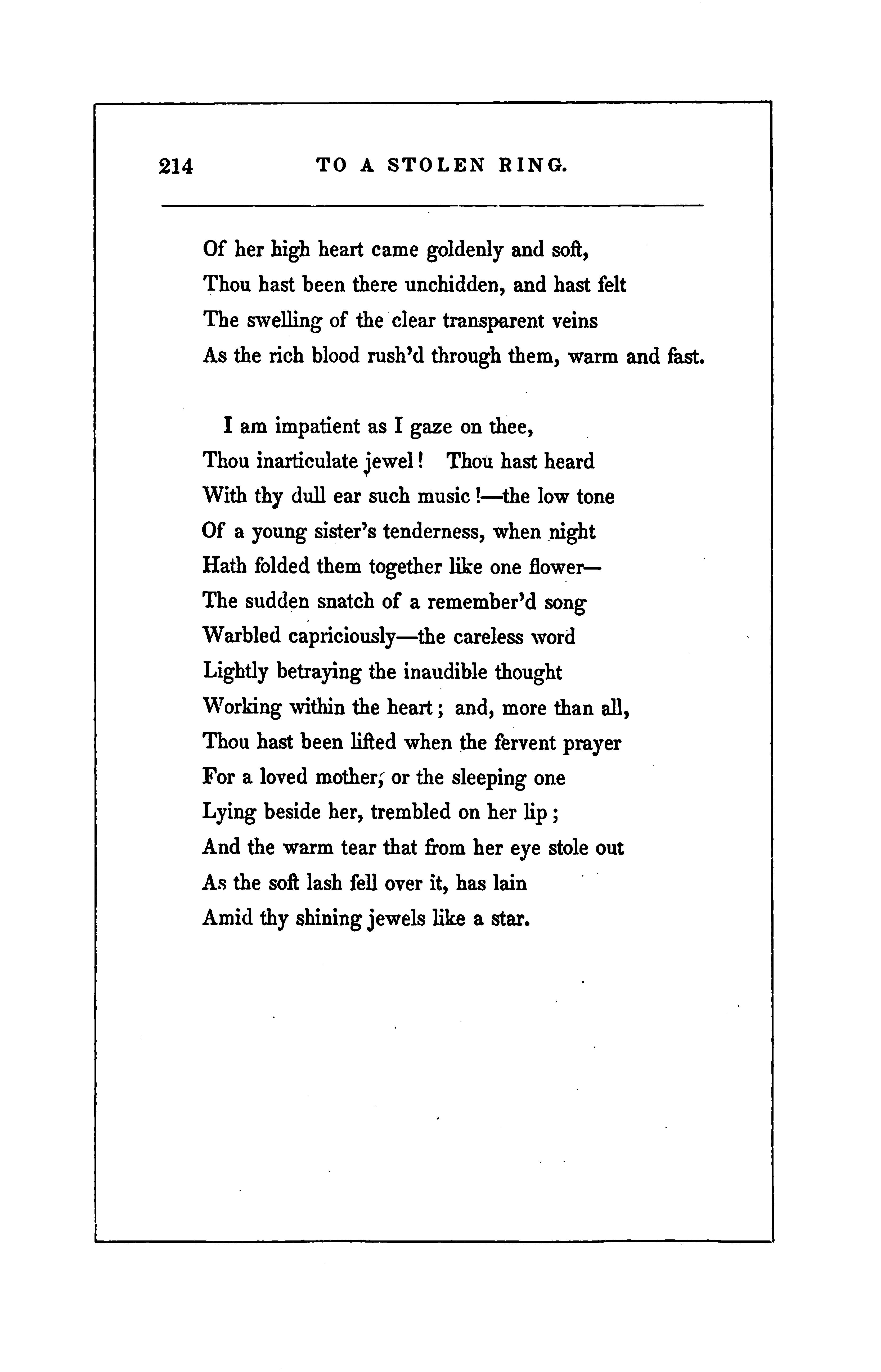
Of her high heart came goldenly and soft, Thou hast been there unchidden, and hast felt The swelling of the clear transparent veins As the rich blood rush'd through them, warm and fast.
I am impatient as I gaze onthee, Thou inarticulate jewel ! Thou hast heard With thy dull ear such music !-the low tone Of a young sister's tenderness, when night Hath folded them together like one flowerThe sudden snatch of a remember'd song Warbled capriciously-the careless word Lightly betraying the inaudible thought Working within the heart ; and, more than all, Thou hast been lifted when the fervent prayer For a loved mother, or the sleeping one Lying beside her, trembled on her lip ; And the warm tear that from hereye Asthe soft lash fell over it, has lain Amidthy shiningjewels like a star.
stole out

TO HER WHO HAS HOPES FOR ME. 215
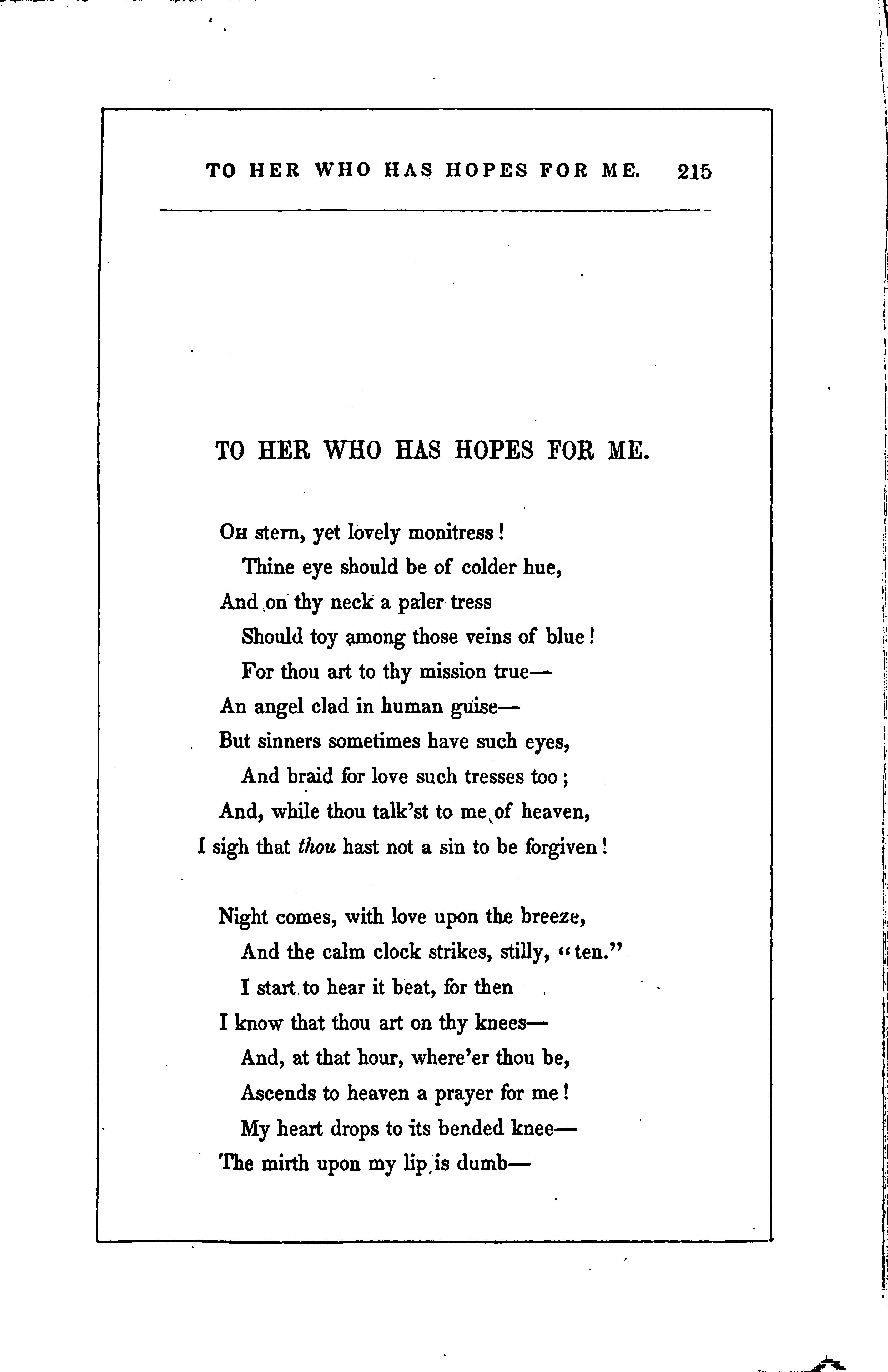
TO HER WHO HAS HOPES FOR ME.
O stern, yet lovely monitress ! Thine eye should be of colder hue, And on thy neck a paler tress Should toy among those veins of blue!
Forthou art to thy mission trueAn angel clad in human guise But sinners sometimes have such eyes, And braid for love such tresses too ; And, while thou talk'st to me of heaven, I sigh that thou hast not a sin to be forgiven!
Night comes, with love upon the breeze, And the calm clock strikes, stilly, "ten.'
I start to hear it beat, for then
I know that thou art on thy kneesAnd, at that hour, where'er thou be, Ascends to heaven a prayer for me! My heart drops to its bended kneeThe mirth upon my lip is dumb""

216 TO HER WHO HAS HOPES FOR ME.
Yet, as a thought of heaven would come, There glides, before it, one of thee Thou, inthy white dress, kneeling thereI fear I could leave heaven to see thee at thy prayer!
I follow up the sacred aisle
Thy light step on the Sabbath-day, And as perhaps thou pray'st the whileMy light thoughts pass away! As swells in air the holy hymn, My breath comes quick, my eyes are dim, And through my tears I pray! I do not think my heart is stoneBut, while for heaven it beats alone In heaven would willing stay-
One rustle of thy snow-white gown
Sends all my thoughts astray! The preaching dies upon my earWhat is the better world" when thy dark eyes are here!
Yet pray! my years have been but fewAnd many a wile the tempter weaves, And many a saint the sinner grieves.
Ere Mercy brings him through! But oh, when Mercy sits serene And strives to bend to me,
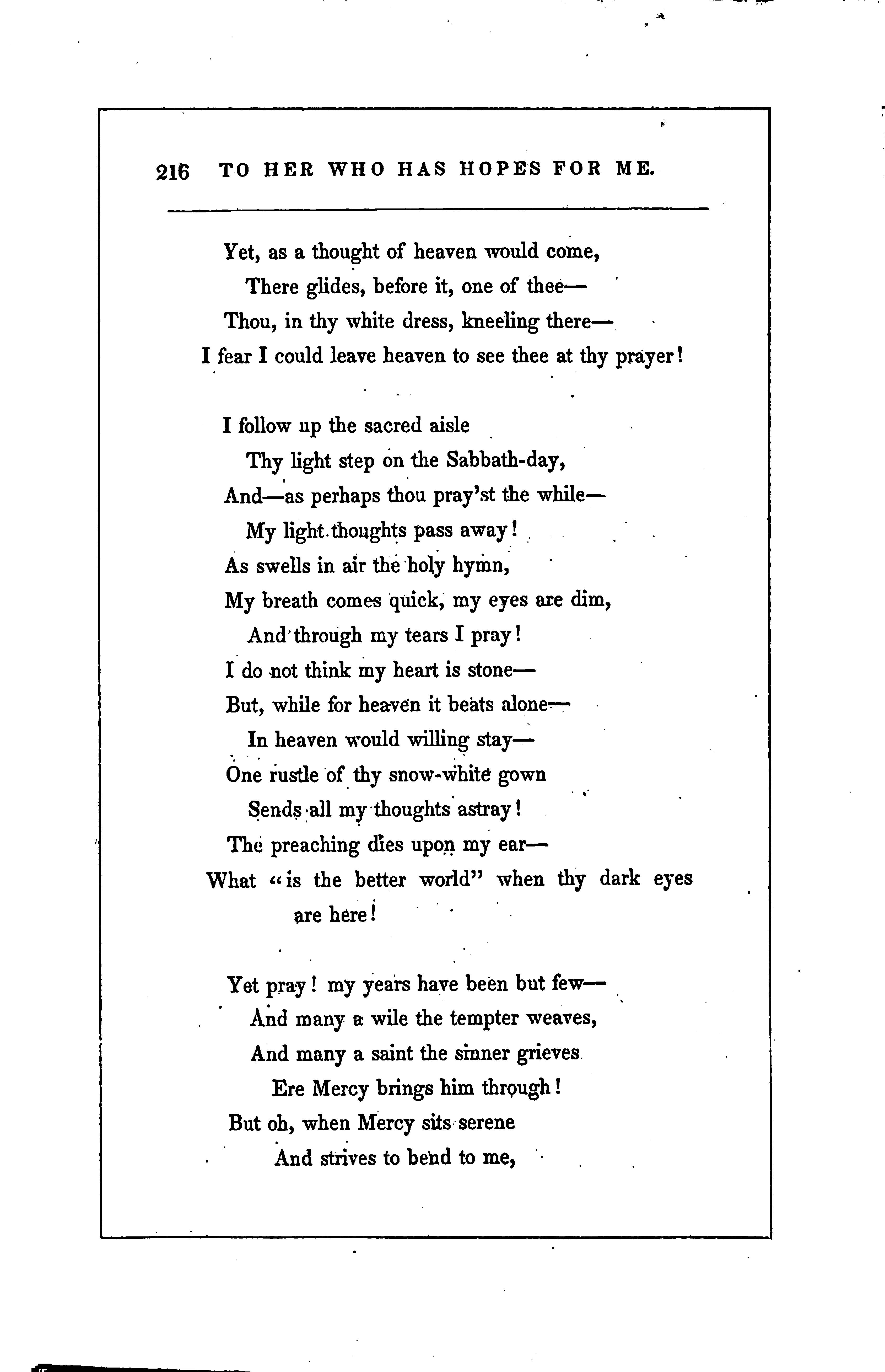

Pray, that the cloud which comes between May less resemble thee!
The worldthat would my soul beguile
Tints all its roses with thy smile! In heaven 'twere well to be!
But, to desire that blessed shoreOh, lady! thy dark eyes must first have gone before!
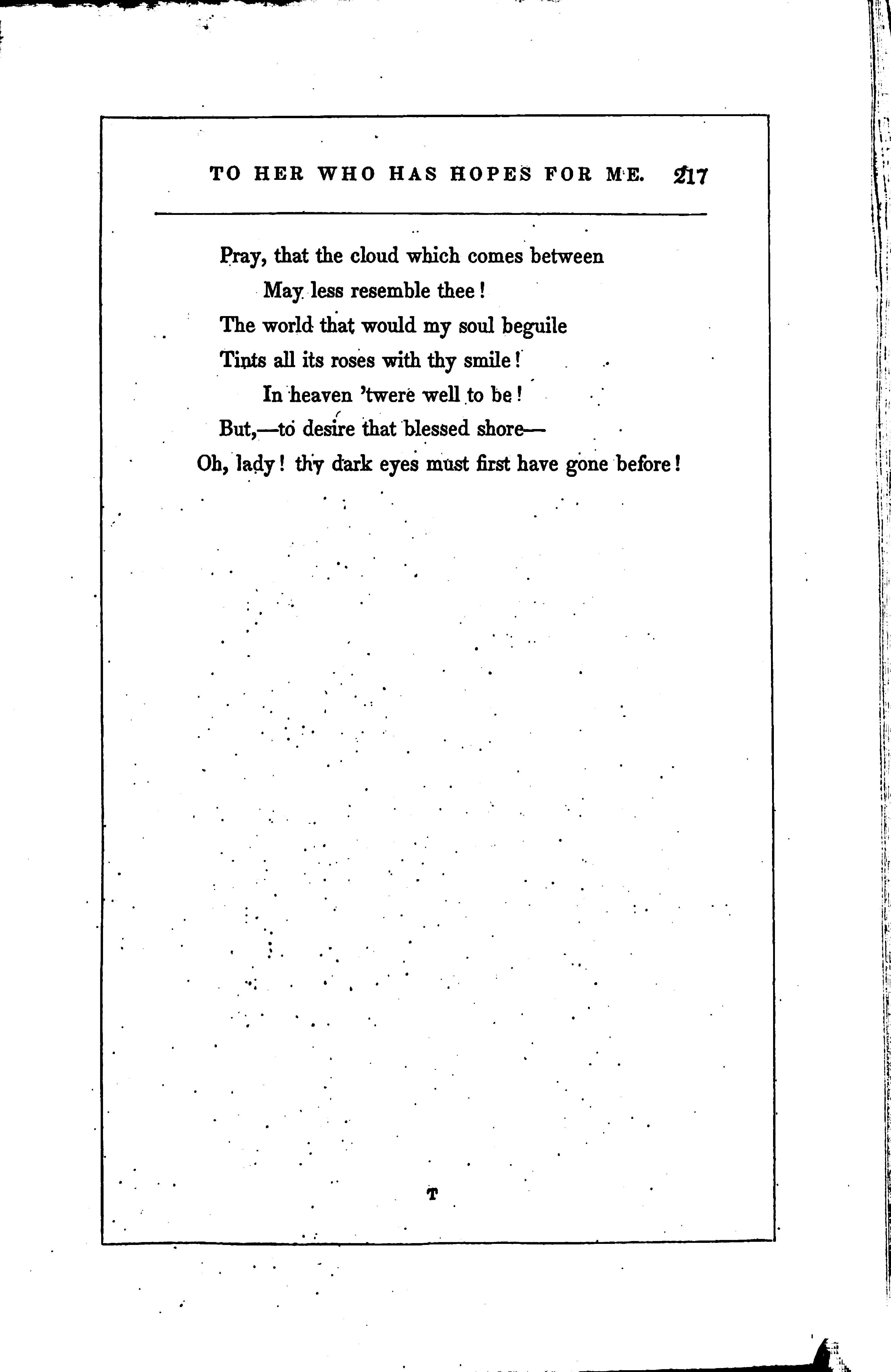

WHAT! Soar'd the old eagle to die at the sun!
Lies he stiff with spread wings at the goal he had won! Are there spirits more blest than the "planet of even," Who mountto their zenith, then melt into HeavenNo waning of fire, no quenching of ray, But rising, still rising, when passing away?
Farewell, gallant eagle ! thou'rt buried in light! God-speed into Heaven, lost star of our night!
Death! Death in the White House ! Ah, never before, Trod his skeleton foot on the President's floor!
He is look'd for in hovel, and dreaded in hallThe king in his closet keeps hatchment and pall-
The youth in his birth-place, the old man at home, Make clean from the door-stone the path to the tomb ; But the lord of this mansion was cradled not here-
In a churchyard far off stands his beckoning bier!
He is here as the wave-crest heaves flashing on highAs the arrow is stopp'd by its prize in the sky-
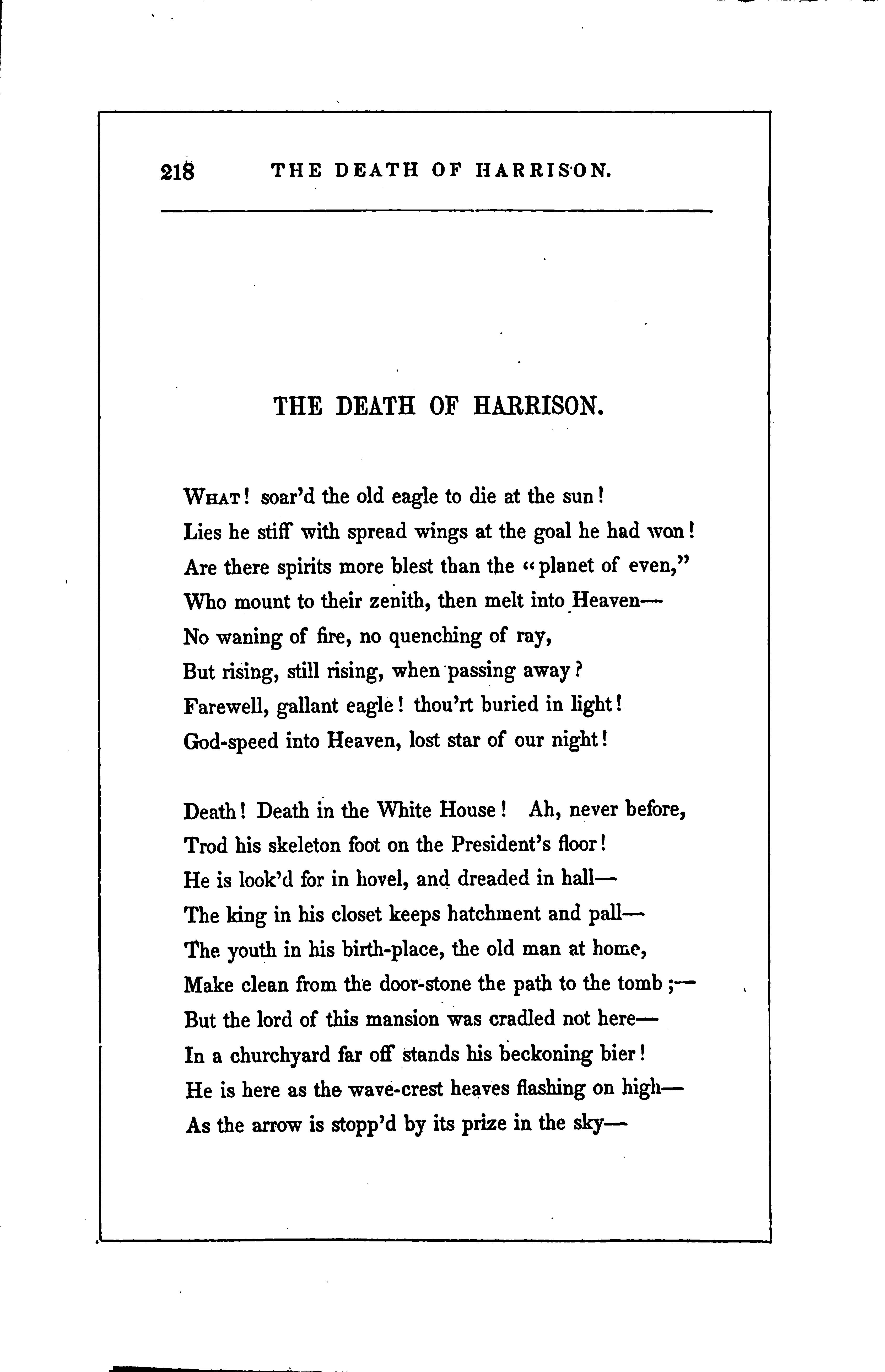

The arrow to earth, and the foam to the shore-
Death finds them when swiftness and sparkle are o'er
But Harrison's death fills the climax of story
He went with his old stride-from glory to glory!
Layhis sword onhis breast ! There's no spot on its blade
In whose cankering breath his bright laurels will fade !
'Twas the first to lead on at humanity's call
It was stay'd with sweet mercy when " glory" was all !
As calm inthe council as gallant in war,
He fought for his country, and not its " hurrah !
In the path of the hero with pity he trod
Let him pass with his sword-to the presence of God!
What more? Shall we on, with his ashes? Yet, stay!
He hath ruled the wide realm of a king in his day!
At his word, like a monarch's, went treasure and land-
Thebright gold ofthousands has pass'd through his hand ;
Is there nothing to show of his glittering hoard?
No jewel to deck the rude hilt of his sword-
No trappings-no horses ?-what had he, but now?
On!-on with his ashes!-HE LEFT BUT HIS PLOUGH!
Follow now, as ye list! The first mourner to-day
Is the nation-whose father is taken away!
Wife, children, and neighbour, may moan at his knellHe was lover and friend" to his country, as well !
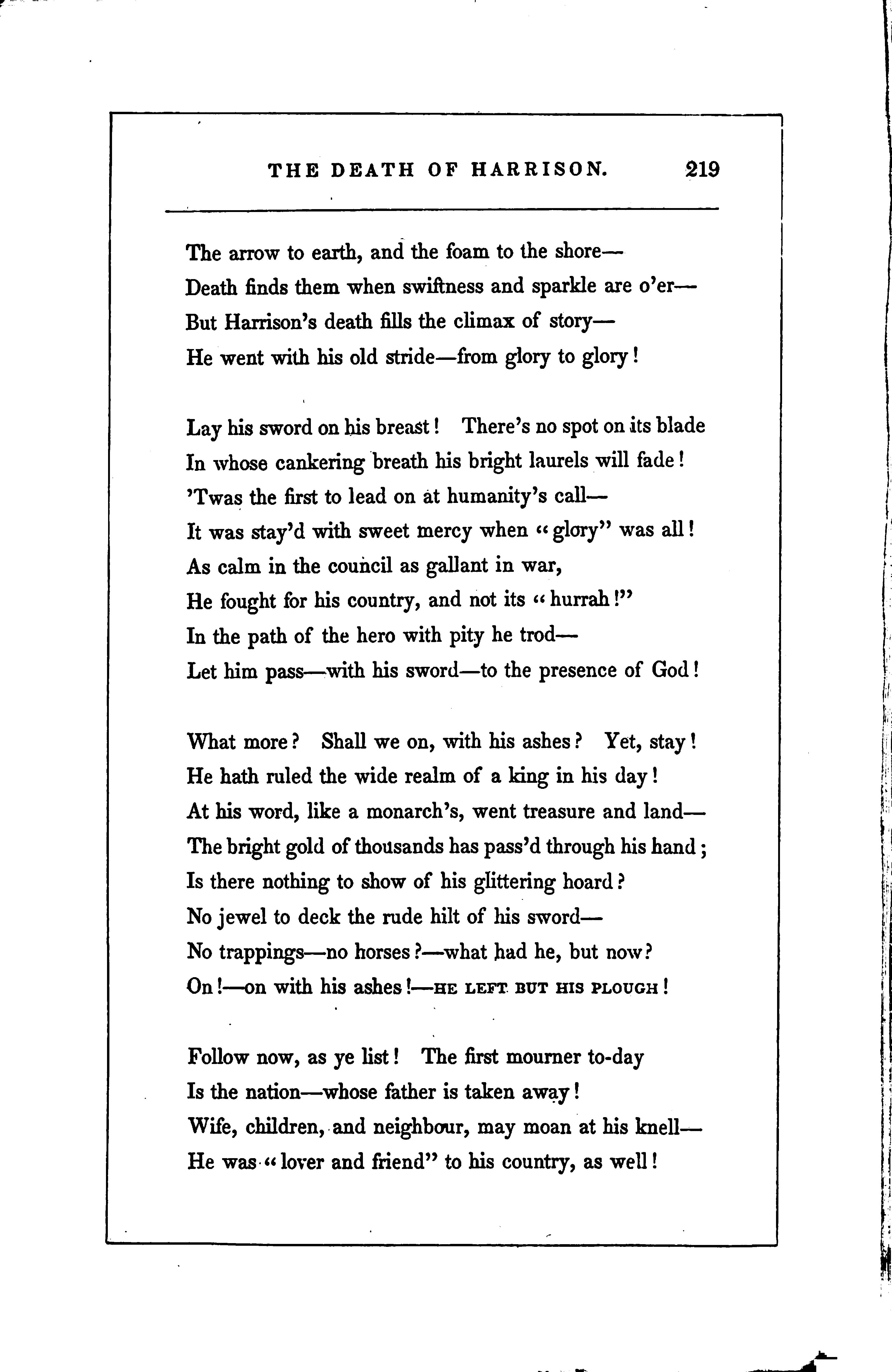

For the stars on our banner, grown suddenly dim,
Let us weep in our darkness- but weep not for him!
Not for him-who, departing, leaves millions in tears!
Not for him--who has died full of honour and years!
Not for him-who ascended Fame's ladder so high
From the round at the top he has stepp'd to the sky!
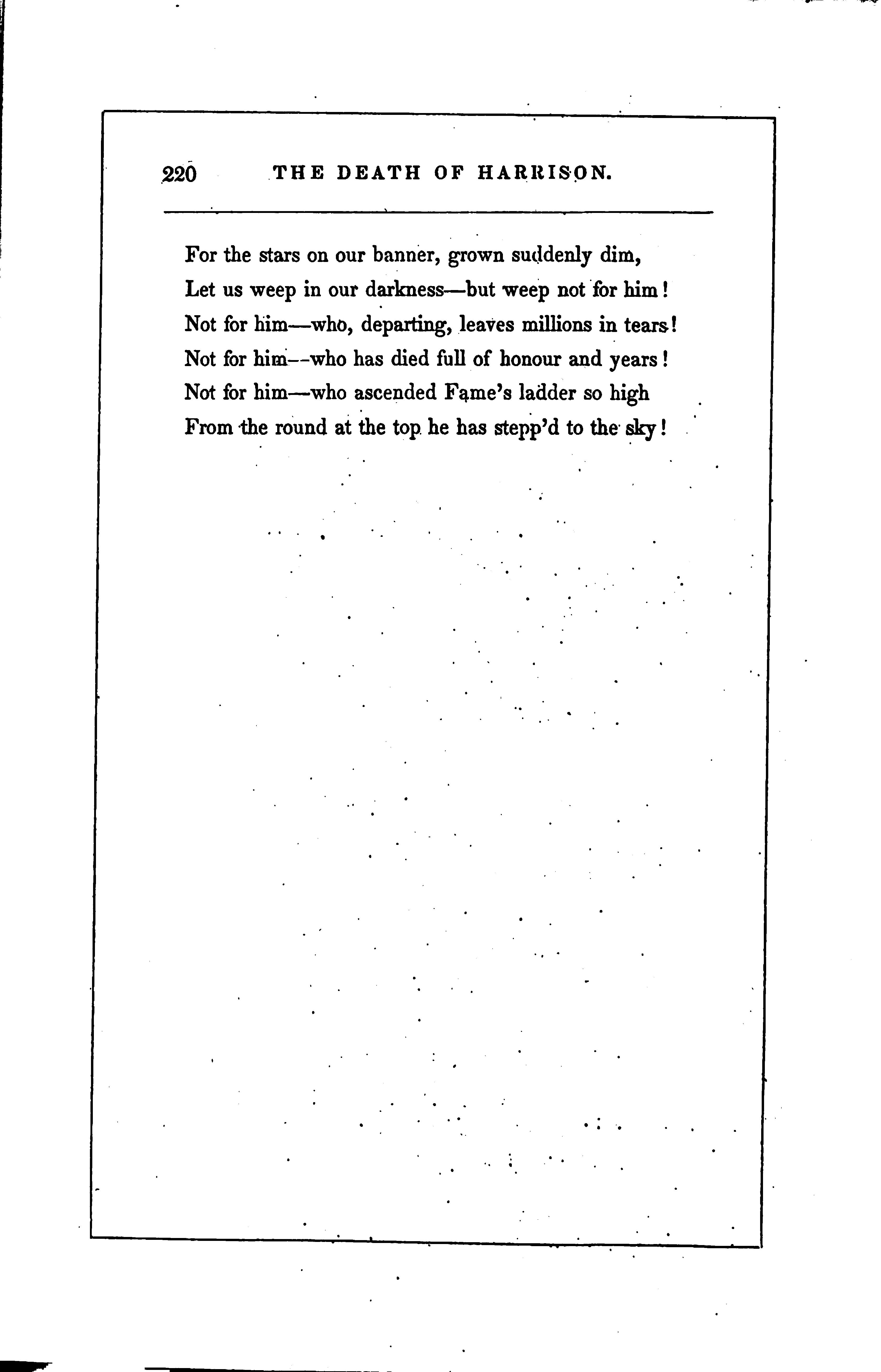

"SHE
"Thebird, Let loose, to his far nest will flee, Andlove, though breathed but onaword, Willfindthee, over land and sea."
'Tis midnight deep-I came but now From the close air of lighted halls ; And while I hold my aching brow I gaze upon my dim-lit walls; And, feeling here that I am free To wearthe look that suits my mood, And let mythoughts flow back to thee, I bless my tranquil solitude, · And bidding all thoughts else begone, I muse upon thy love alone.
Yet was the music sweet to-night, And fragrant odours fill'd the air, And flowers were drooping in the light, And lovely women wander'd there ; T2
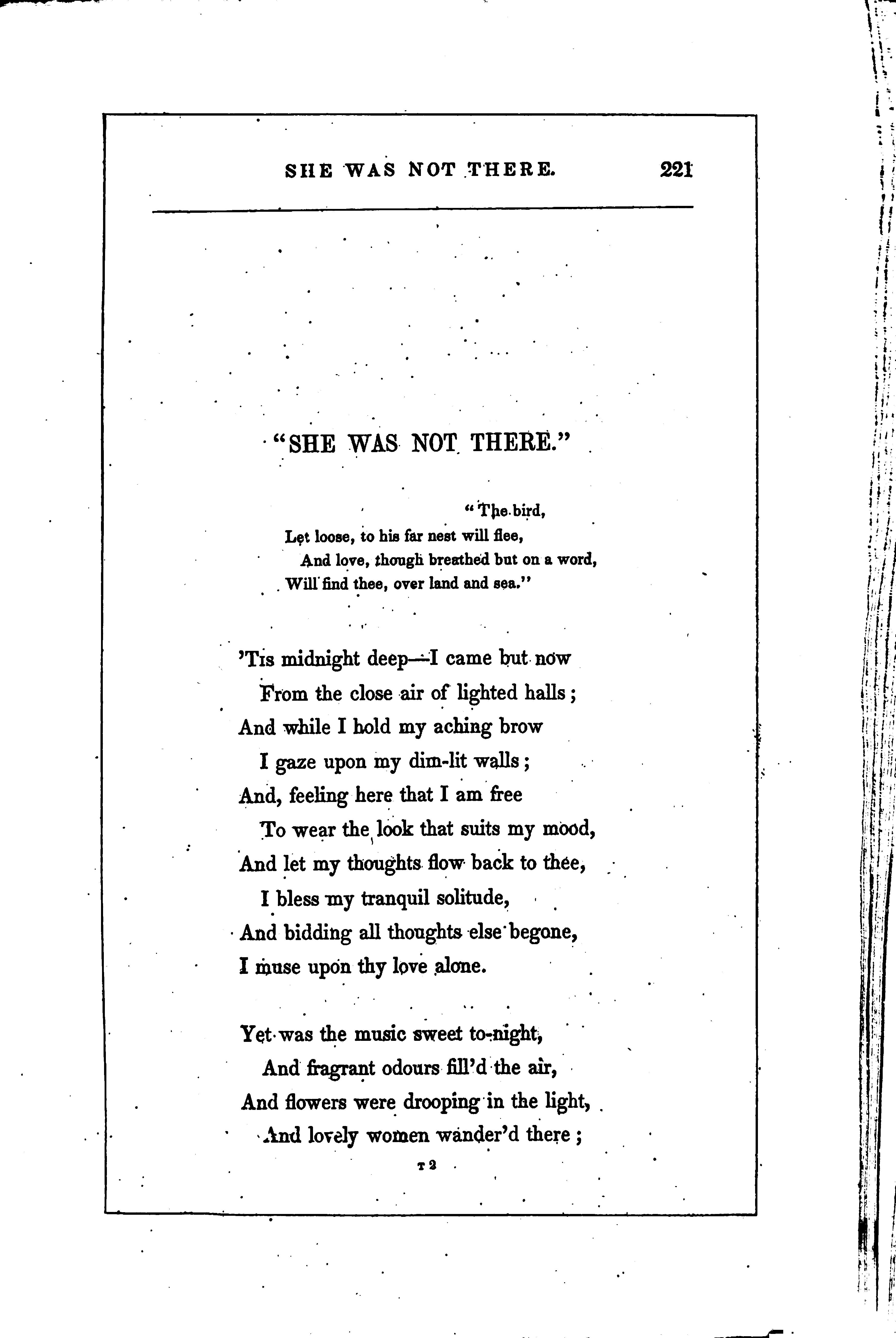

SHE WAS NOT THERE.
And fruits and wines with lavish waste Were on the marble tables piled, And all that tempts the eye and taste, And sets the haggard pulses wild, And wins from care, and deadens sadness, Were there-but yet I felt no gladness.
I thought of thee-I thought of theeEach cunning change the music play'd, Each fragrant breath that stole to me, My wandering thought more truant made. The lovely women pass'd me by, The wit fell pointless on mine ear, I look'd on all with vacant eye, I did not see-I did not hear!
The skill'd musician's master-tone Was sweet-thy voice were sweeter far! They were soft eyes the lamps shone on The eyes I worship gentler are! The halls were broad, the mirrors tall, With silver lamps and costly wine I only thought how poor was all To one lowtone from lips like thineI only felt how well forgot
Were all the stars look on-and thy sweet eyes do not!
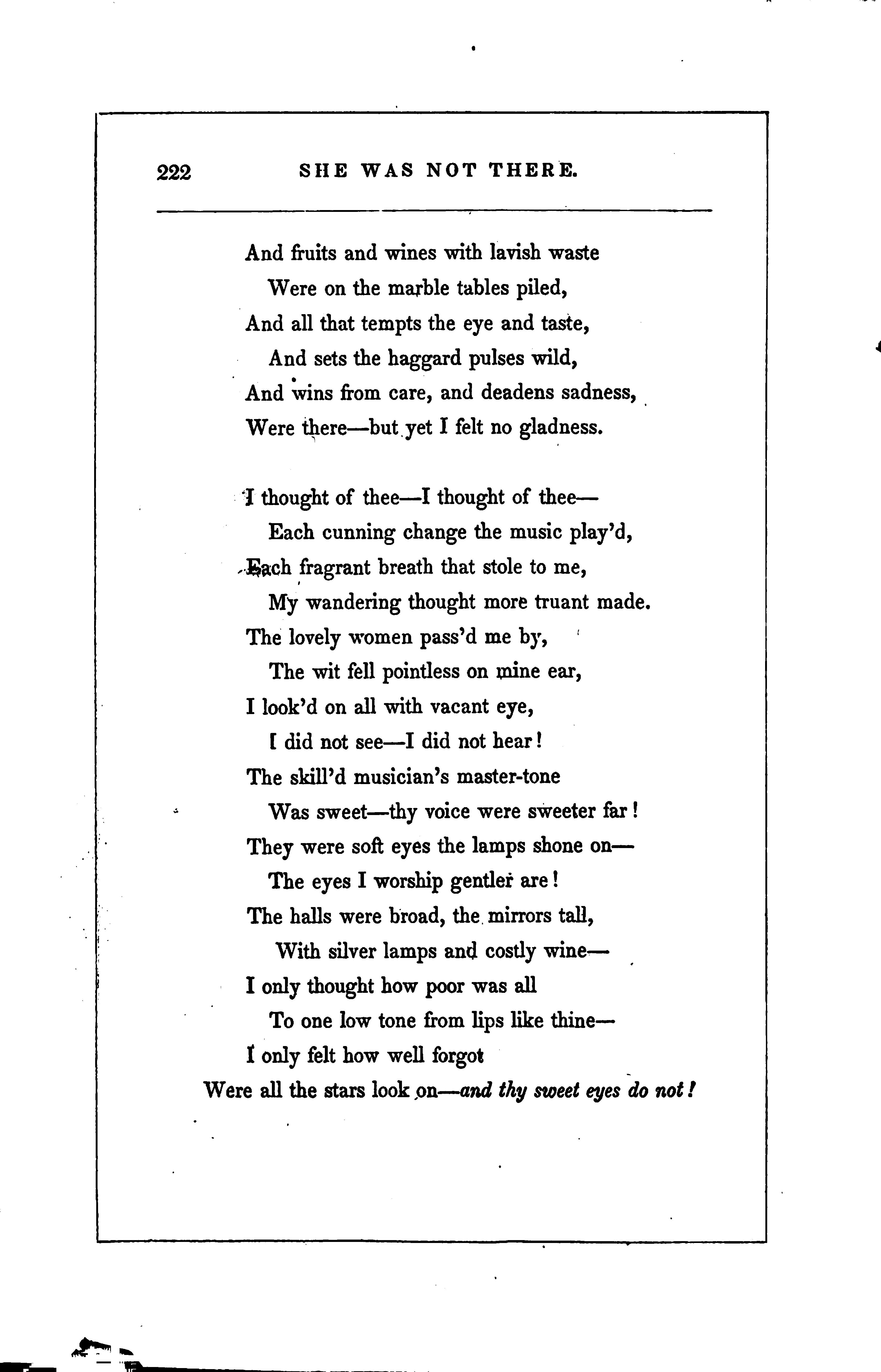

46 Oh, bythat little word Howmanythoughts are stirr'd !Thelast,the last, thelast !"
THE star may but a meteor be, That breaks upon the stormy night; And I may err, believing thee A spark of heaven's own changeless light! But if on earth beams aught so fair, It seems, of all the lights that shine, Serenest in its truth, 'tis there, Burning in those soft eyes of thine. Yet long-watch'd stars from heaven have rush'd, And long-loved friends have dropp'd away, And mine- my very heart have crush'd ! And I have hoped this many a day, It lived no more for love or pain!
But thou hast stirr'd its depths again, And, to its dull, out-wearied ear, Thy voice of melody has crept,
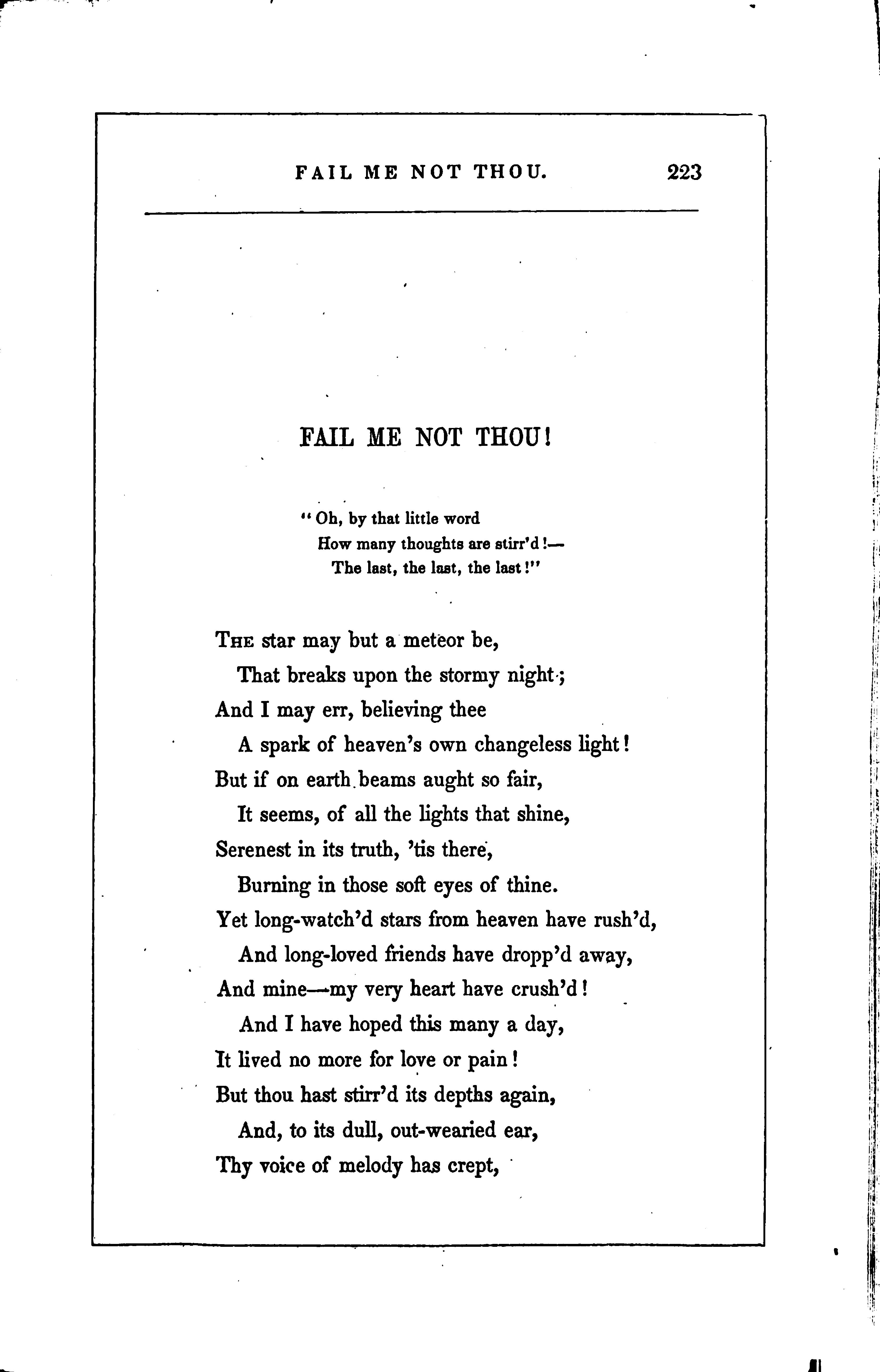

224 FAIL ME NOT THOU.
In tones it cannot choose but hear; And now I feel it only slept, And know, at even thy lightest smile, It gather'd fire and strength.the while.
Fail me not thou ! This feeling past, My heart would never rouse again. Thou art the brightest-but the last! And if this trust, this love be vainIf thou, all peerless as thou art, Be not less fair than true of heartMy loves are o'er! The sun will shine Upon no grave so hush'd as this dark breast of mine.
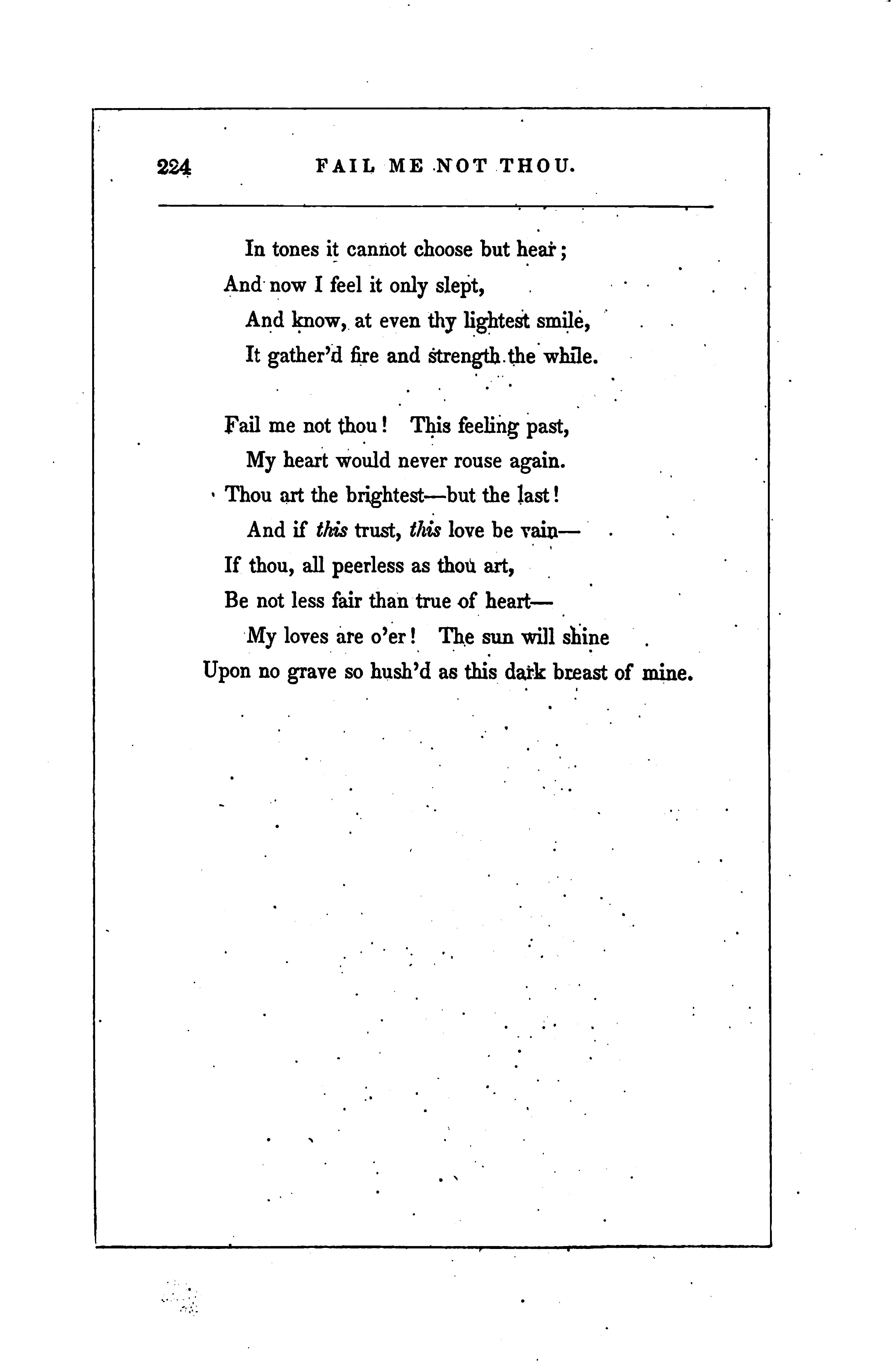

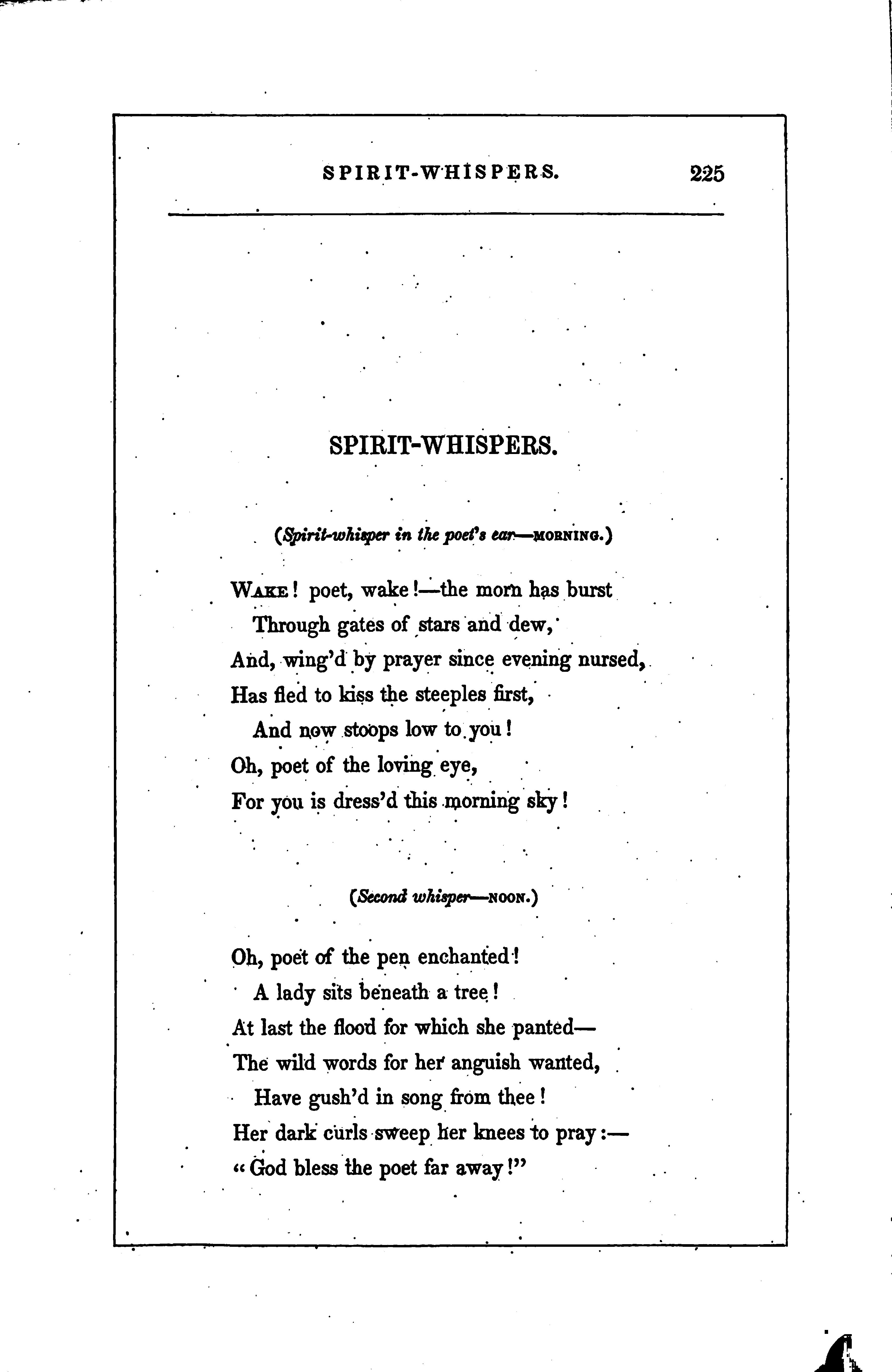
(Spirit-whisperin thepoet's ear-MORNING.)
WAKE ! poet, wake!-the morn has burst Through gates of stars and dew, And, wing'd by prayer since evening nursed, Has fled to kiss the steeples first, And now stoops low to you!
Oh, poet of the loving eye, For you is dress'd this morning sky!
(Second whisper-NOON.)
Oh, poet of the pen enchanted! A lady sits beneath a tree ! At last the flood for which she pantedThe wild words for her anguish wanted, Have gush'd in song fromthee! Her dark curls sweep her knees to pray:"God bless the poet far away!"

(Third whisper-MIDNIGHT.)
King of the heart's deep mysteries ! Your words have wings like lightning wove!
This hour, o'er hills and distant seas, They fly like flower-seeds on the breeze, And sowthe world with love!
King of a realm without a throne, Ruled by resistless tears alone !
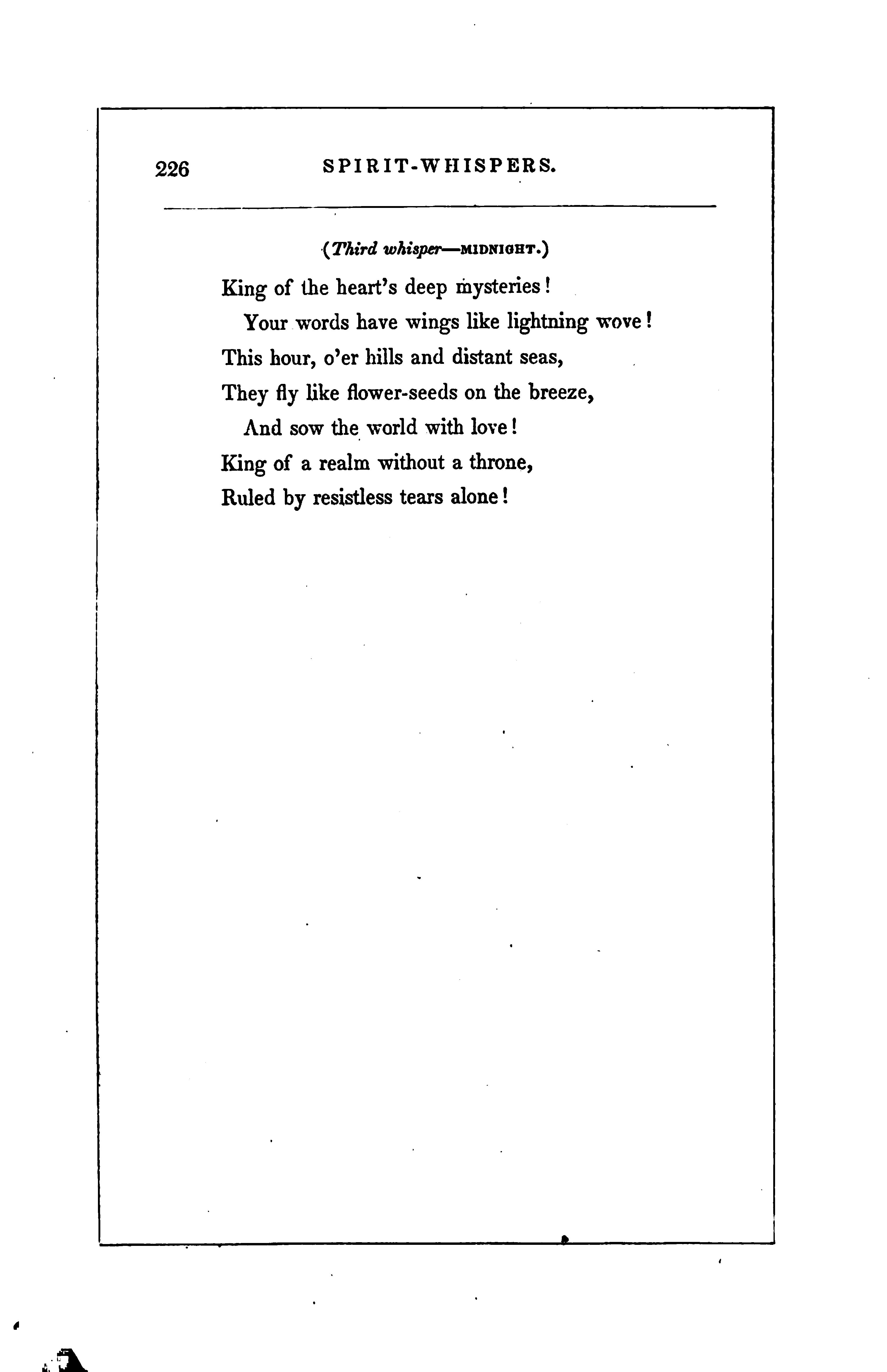

TO M- 227 FROM ABROAD.
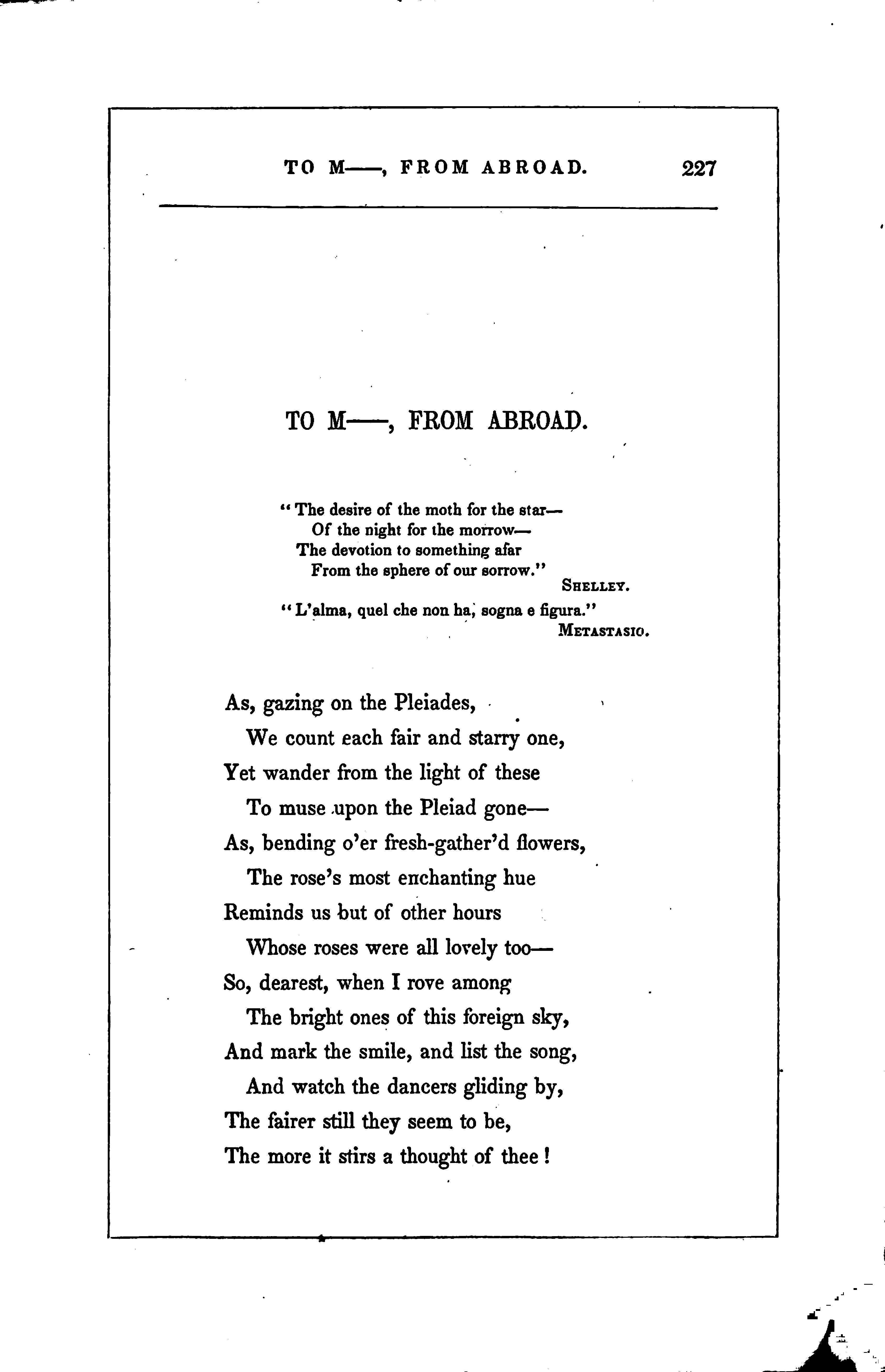
TO M , FROM ABROAD.
"L'alma, quel che non ha, sogna efigura."
" The desire ofthe moth forthe starOfthe night for the morrowThedevotion to something afar From thesphere ofour sorrow." SHELLEY. METASTASIO.
As, gazing on the Pleiades, We count each fair and starry one, Yet wander from the light of these To muse upon the Pleiad gone As, bending o'er fresh-gather'd flowers, The rose's most enchanting hue Reminds us but of other hours
Whose roses were all lovely tooSo, dearest, when I rove among The bright ones of this foreign sky, And mark the smile, and list the song, And watch the dancers gliding by, The fairer still they seem to be,
The more it stirs a thought of thee !

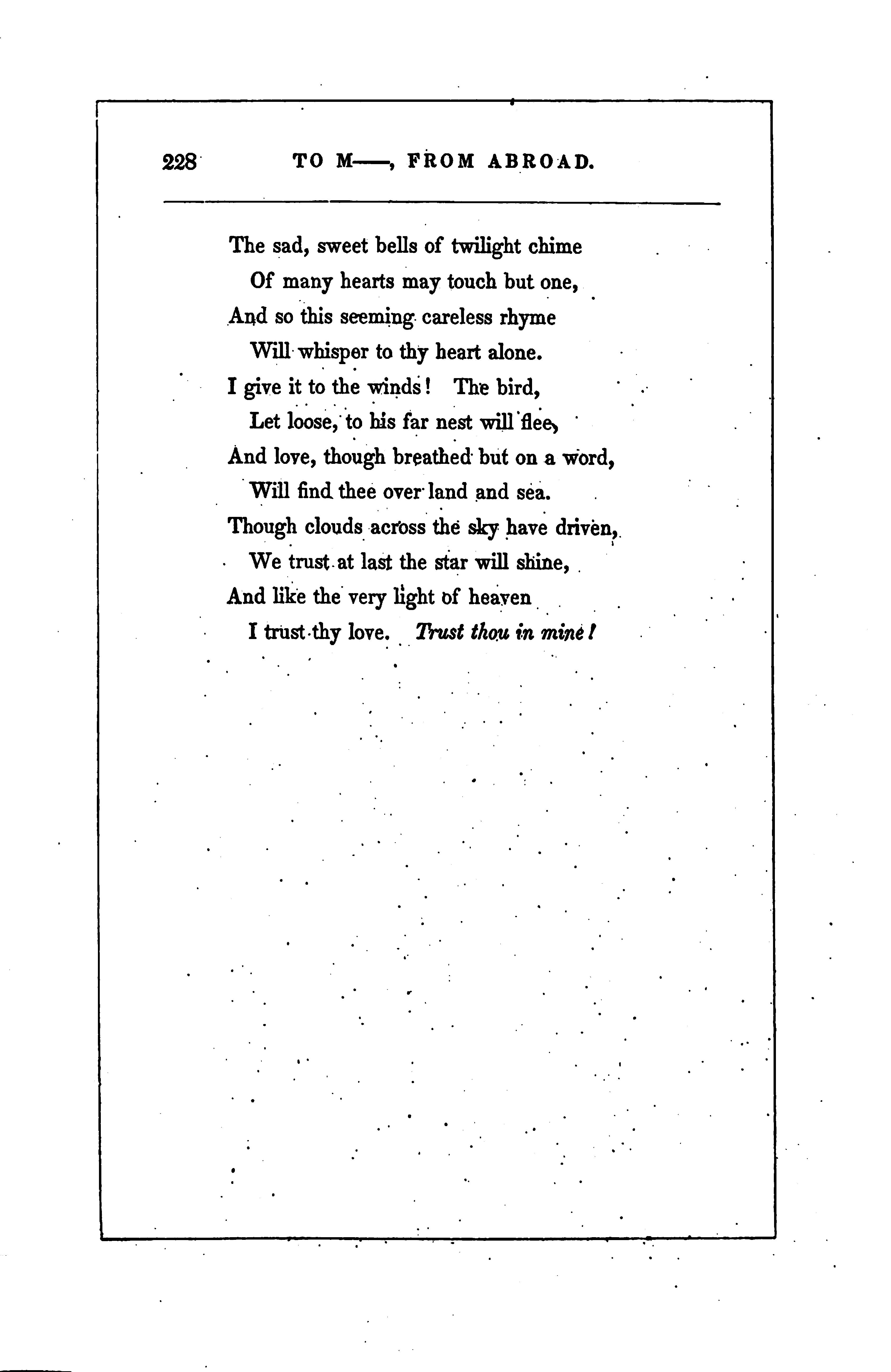
TO M- FROM ABROAD.
The sad, sweet bells of twilight chime Of many hearts may touch but one, And so this seeming careless rhyme Will whisper to thy heart alone. I give it to the winds ! The bird, Let loose, to his far nest will flee, And love, though breathed but on a word, Will find thee over land and sea. Though clouds across the sky have driven, We trust at last the star will shine, And like the very light of heaven I trust thy love. Trust thou in min !

MORN in the East ! How coldly fair It breaks upon my fever'd eye ! How chides the calm and dewy air! How chides the pure and pearly sky! The stars melt in a brighter fire: The dew, in sunshine, leaves the flowersThey, fromtheir watch, in light retire, While we, in sadness, pass from ours.
I turn from the rebuking morn,
The cold gray sky, and fading star, And listen to the harp and horn, And see the waltzers near and farThe lamps and flowers are bright as yet, And lips beneath more bright than they,How can a scene so fair beget
The mournful thoughts we bear away!
'Tis something that thou art not here Sweet lover of my.lightest word ! [1
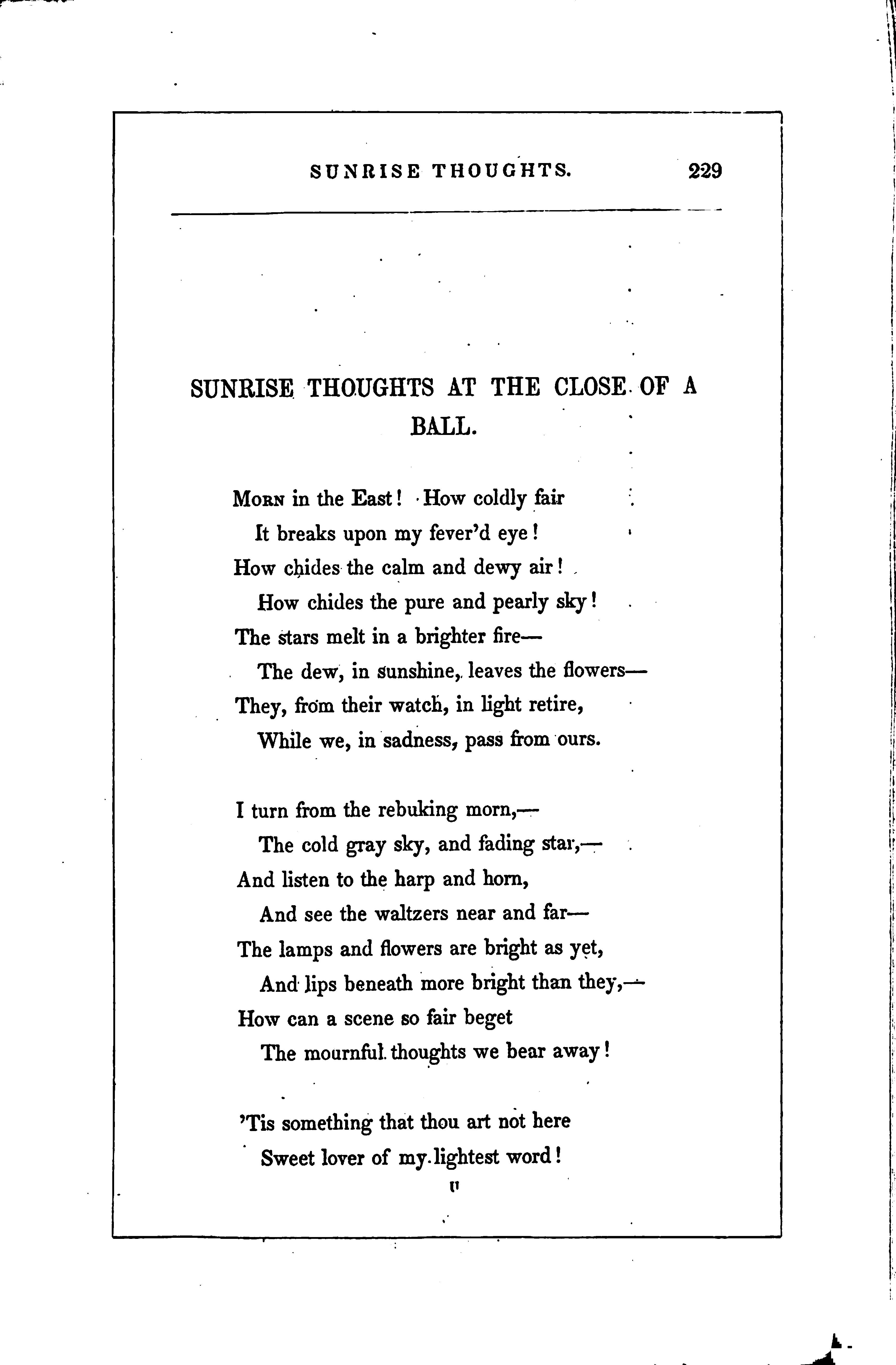

'Tis something that my mother's tear By these forgetful hours is stirr'd! But I have long a loiterer been In haunts where Joy is said to be, And though with Peace I enter in, The nymph comes neverforth with me!


TO A FACE BELOVED. 231
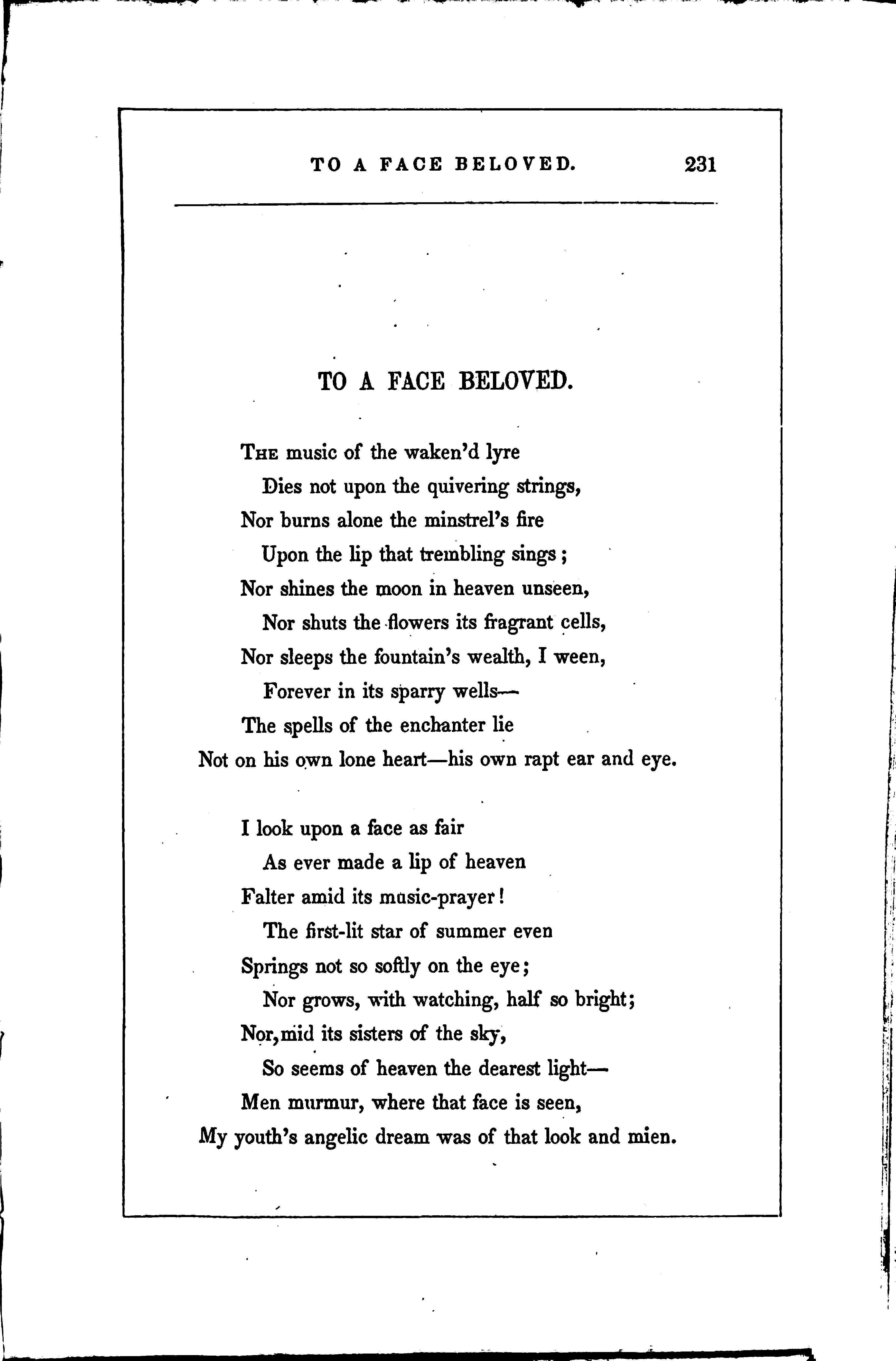
TO A FACE BELOVED.
THE music of the waken'd lyre
Dies not upon the quivering strings, Nor burns alone the minstrel's fire
Upon the lip that trembling sings ; Nor shines the moon in heaven unseen, Nor shuts the flowers its fragrant cells, Nor sleeps the fountain's wealth, I ween, Forever in its sparry wellsThe spells of the enchanter lie
Not on his own lone heart-his own rapt ear and
eye. Myyouth's angelic dream was of that look and mien.
I look upon a face as fair
As ever made a lip of heaven Falter amid its music-prayer!
The first-lit star of summer even Springs not so softly on the eye; Nor grows, with watching, half so bright; Nor,mid its sisters of the sky, So seems of heaven the dearest light Men murmur, where that face is seen,

232 TO A FACE BELOVED.
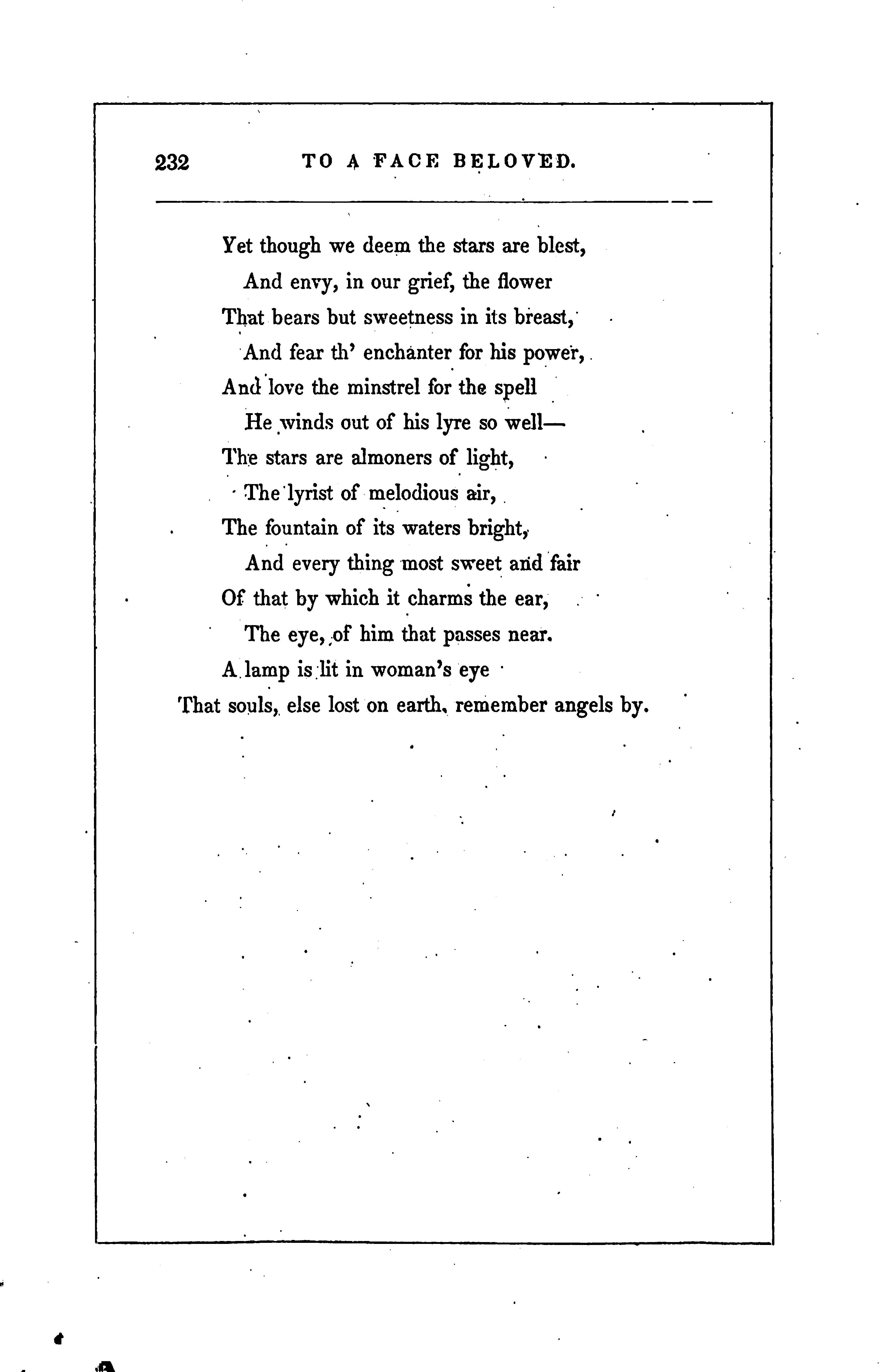
Yet though we deem the stars are blest, And envy, in our grief, the flower That bears but sweetness in its breast, And fear th' enchanter for his power, And love the minstrel for the spell He winds out of his lyre so wellThe stars are almoners of light, The lyrist of melodious air, The fountain of its waters bright, And every thing most sweet and fair Of that by which it charms the ear, The eye, of him that passes near.
A lamp is lit in woman's eye
That souls, else lost on earth, remember angels by.

THE shadows lay along Broadway, "Twas near the twilight-tideAnd slowly there a lady fair Was walking in her pride. Alone walk'd she ; but, viewlessly, Walk'd spirits at her side.
Peace charm'd the street beneath her feet, And Honour charm'd the air; And all astir look'd kind on her, And call'd her good as fairFor all God ever gave to her She kept with chary care.
She kept with care her beauties rare From lovers warm and trueFor her heart was cold to all but gold, And the rich came not to wooBut honour'd well are charms to sell If priests the selling do.
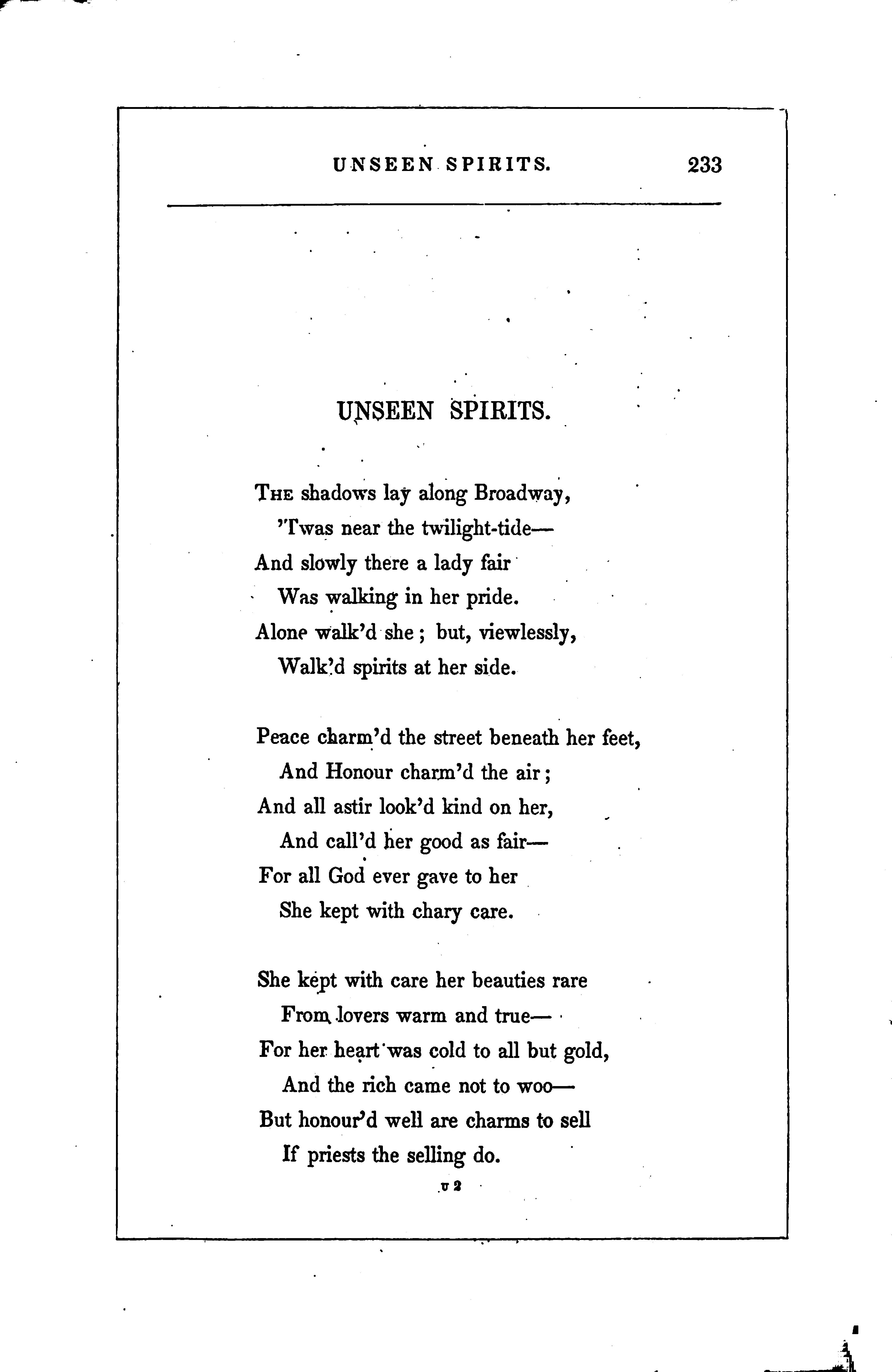

Now walking there was one more fair-
A slight girl, lily-pale ; And she had unseen company To make the spirit quail 'Twixt Want and Scorn she walk'd forlorn, And nothing could avail.
No mercy now can clear her brow Forthis world's peace to pray; For, as love's wild prayer dissolved in air, Her woman's heart gave way! But the sin forgiven by Christ in heaven By man is cursed alway!
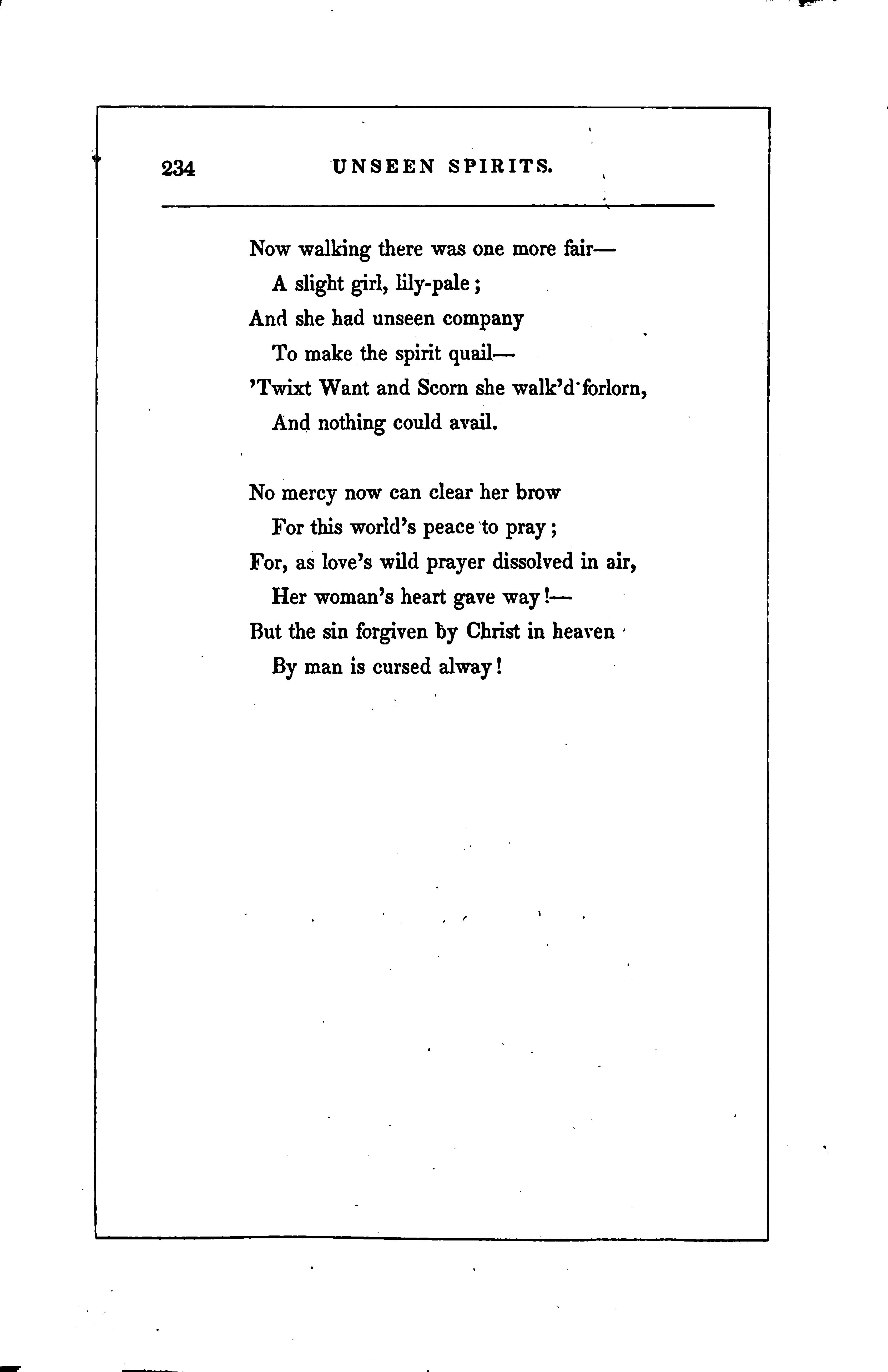

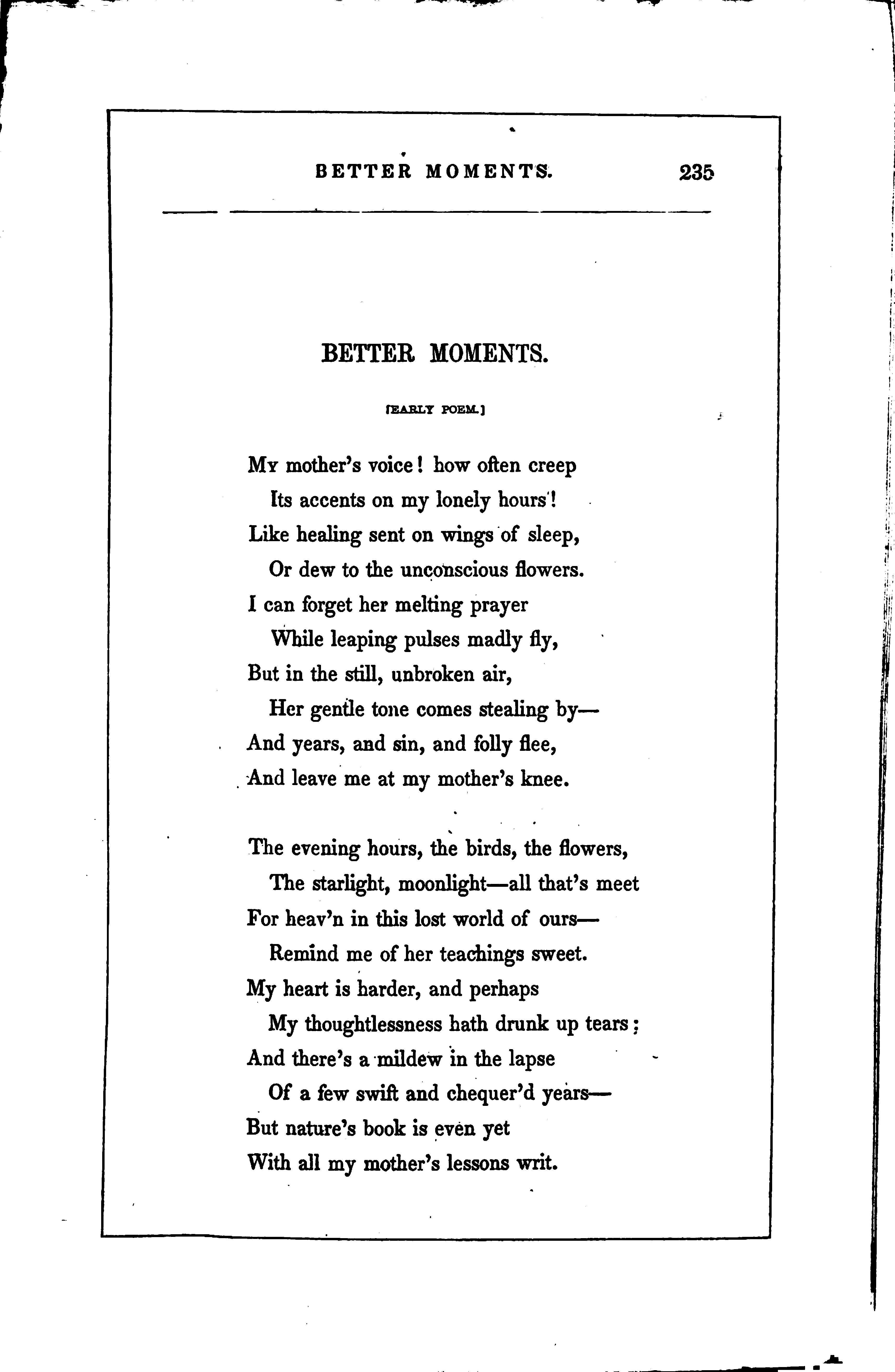
[EARLY POEM.]
My mother's voice ! how often creep
Its accents on my lonely hours! Like healing sent on wings of sleep, Or dew to the unconscious flowers. I can forget her melting prayer While leaping pulses madly fly, But in the still, unbroken air, Her gentle tone comes stealing byAnd years, and sin, and folly flee, And leave me at my mother's knee.
The evening hours, the birds, the flowers, The starlight, moonlight-all that's meet For heav'n in this lost world of oursRemind me ofher teachings sweet. My heart is harder, and perhaps My thoughtlessness hath drunk up tears ; And there's a mildewinthe lapse
Of a few swift and chequer'd yearsBut nature's book is even yet With all my mother's lessons writ.

I have been out at eventide
Beneath a moonlight sky of spring, When earth was garnish'd like a bride, And night had on her silver wingWhen bursting leaves, and diamond grass, And waters leaping to the light, And all that make the pulses pass With wilder fleetness, throng'd the nightWhen all was beauty-then have I With friends on whom my love is flung
Like myrrh on winds of Araby, Gazed up where evening's lamp is hung ; And whenthe beautiful spirit there Flung over me its golden chain, My mother's voice came onthe air
Like the light dropping of the rain And, resting on some silver star
The spirit of a bended knee, I've pour'd out low and fervent prayer
That our eternity might be To rise in heaven, like stars at night, And tread a living path of light.
I have been onthe dewy hills, When night was stealing fromthe dawn, And mist was on the waking rills, And tints were delicately drawn
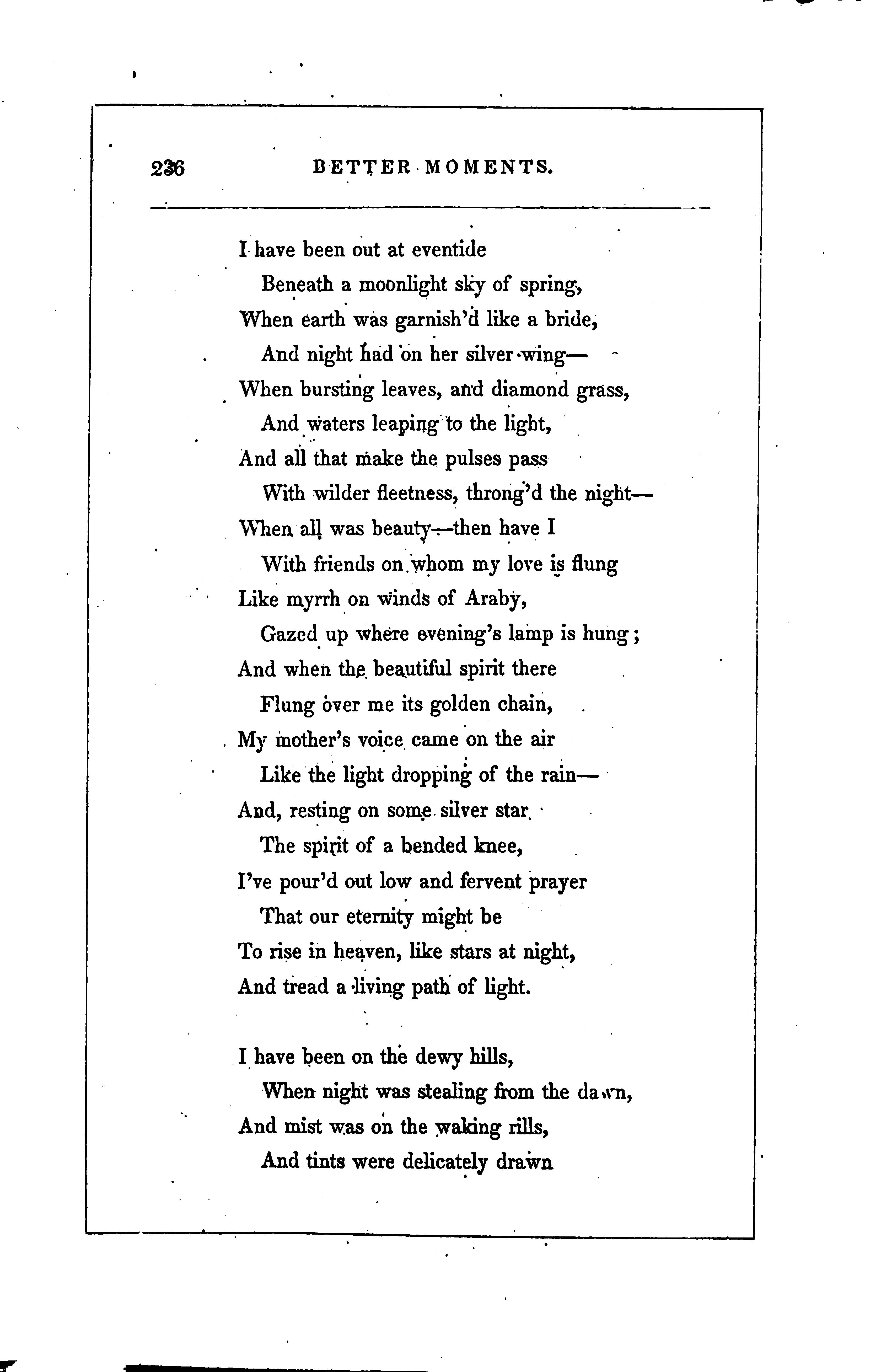

In the gray East when birds were waking, With a low murmur in the trees, And melody by fits was breaking Upon the whisper of the breezeAnd this when I was forth, perchance As a worn reveller from the danceAnd when the sun sprang gloriously And freely up, and hill and river. Were catching upon wave and tree The arrows from his subtle quiver I say a voice has thrill'd me then, Heard on the still and rushing light, Or, creeping from the silent glen, Like words from the departing night, Hath stricken me, and I have press'd Onthe wet grass.my fever'd brow, And pouring forth the earliest First prayer, with which I learn'd to bow, Have felt my mother's spirit rush Upon me as in by-past years, And, yielding to the blessed gush Of my ungovernable tears, Have risen up-the gay, the wildSubdued and humble as a child.
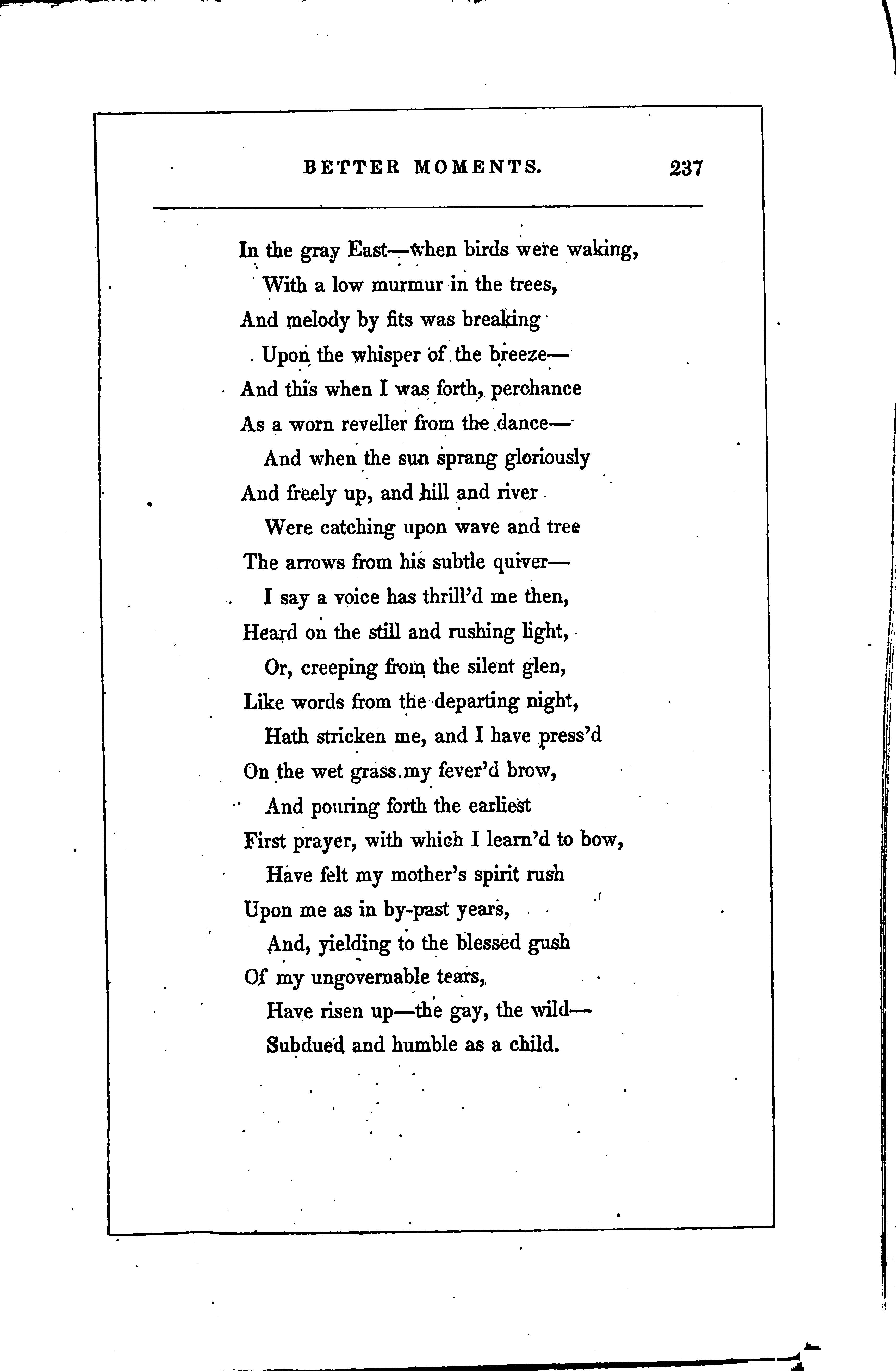

"Commonas light is love, Andits familiarvoice wearies not ever."-SHELLEY.
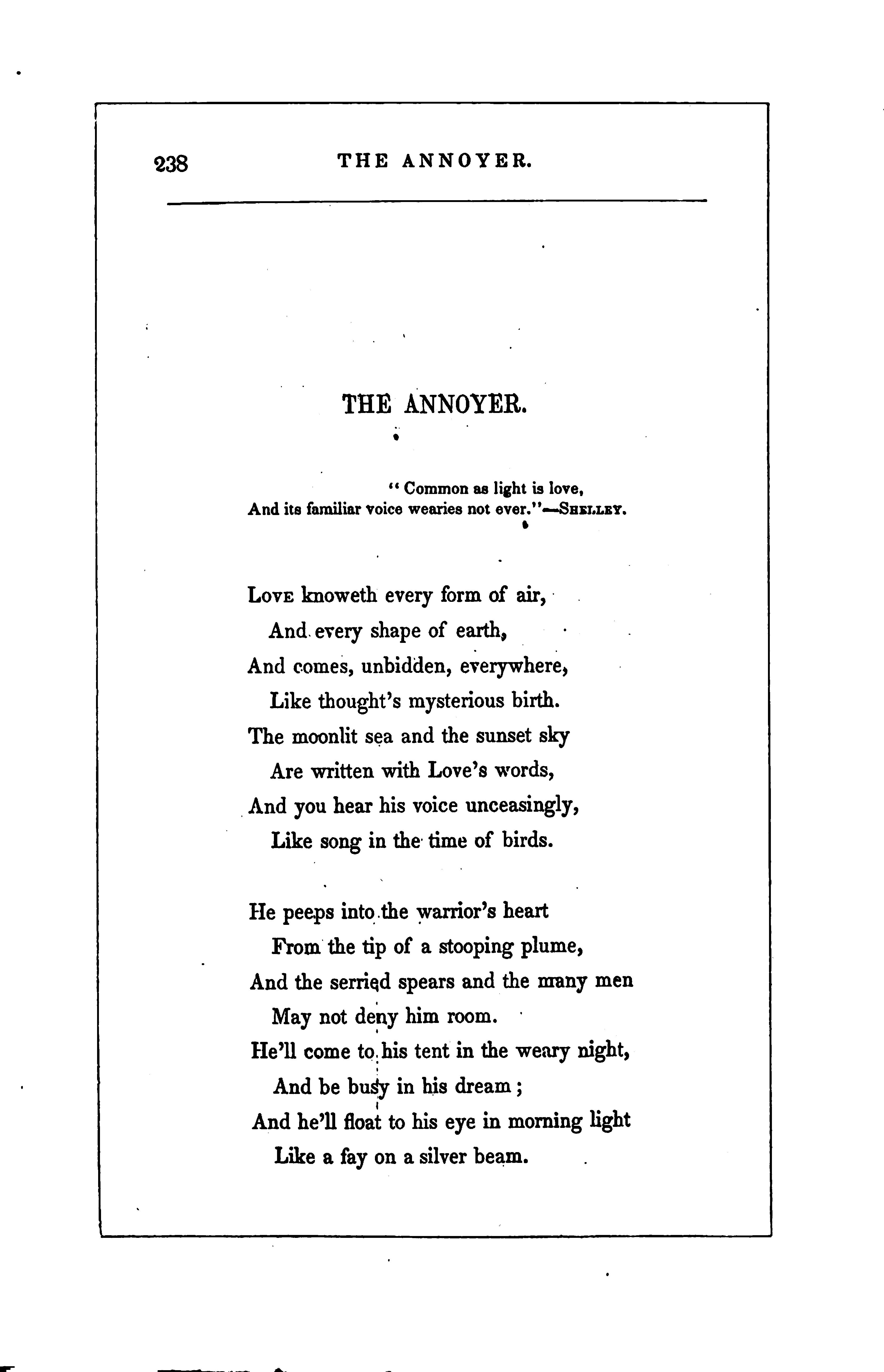
LOVE knoweth every form of air, And every shape of earth, And comes, unbidden, everywhere, Like thought's mysterious birth. The moonlit sea and the sunset sky Are written with Love's words, And you hear his voice unceasingly, Like song inthe time of birds.
He peeps into the warrior's heart
From the tip of a stooping plume, And the serried spears and the many men May not deny him room. He'll come to his tent inthe weary night, And be busy in his dream ; 1 And he'll float to his eye in morning light Like a fay on a silver beam.

He hears the sound of the hunter's gun, And rides on the echo back, And sighs in his ear, like a stirring leaf, And flits in his woodland track.
The shade ofthe wood, andthe sheen ofthe river, The cloud and the open skyHe will haunt them all with his subtle quiver, Like the light of your very eye.
The fisher hangs over the leaning boat, And ponders the silver sea, For Love is under the surface hid, And a spell of thought has he. He heaves the wave like a bosom sweet, And speaks inthe ripple low,
Till the bait is gone from the crafty line, And the hook hangs bare below.
He blurs the print of the scholar's book, And intrudes in the maiden's prayer, And profanes the cell of the holy man, In the shape of a lady fair. In the darkest night, and the bright daylight, In earth, and sea, and sky, In every home of human thought, Will Love be lurking nigh.
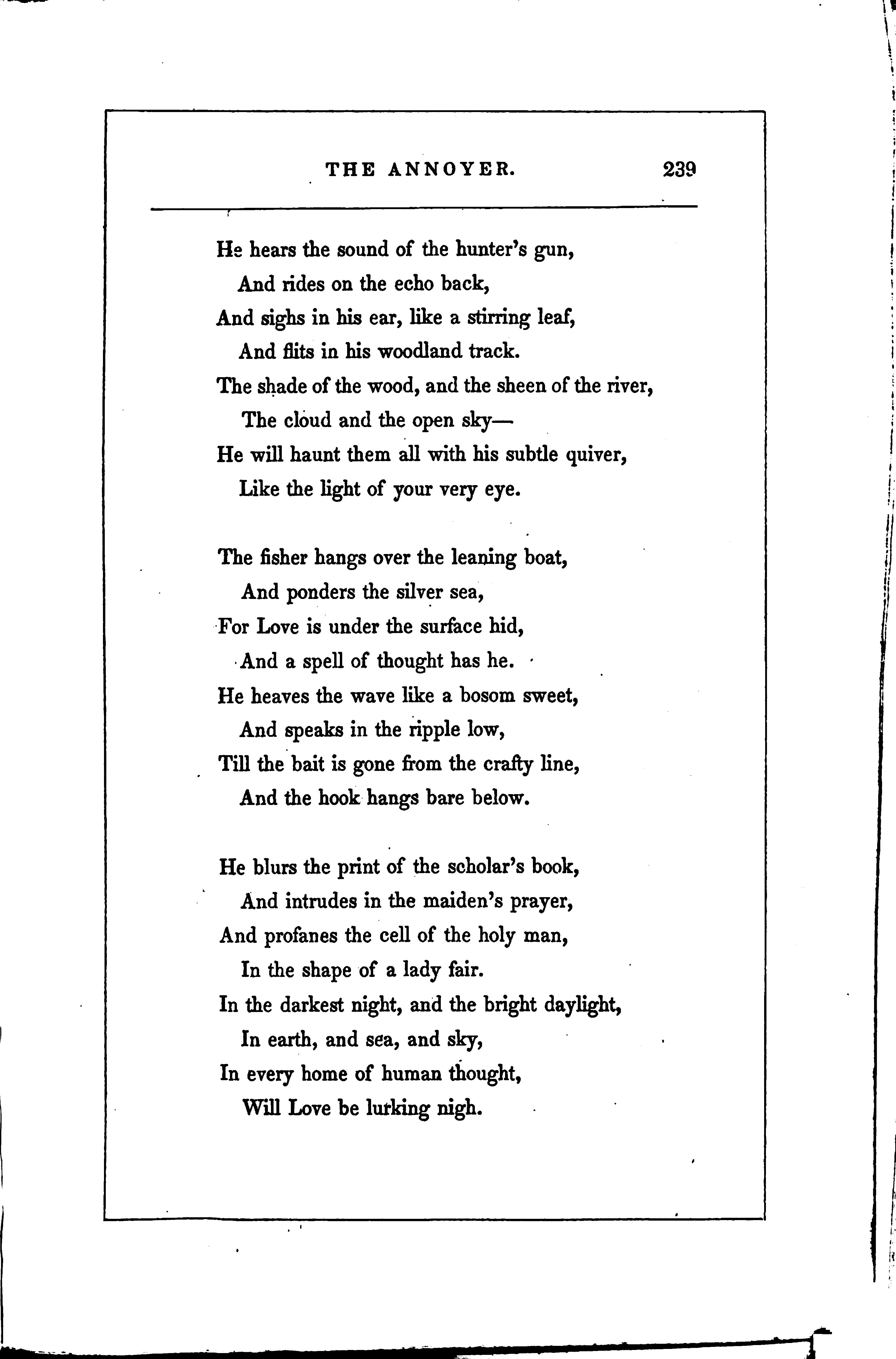

240 ANDRE'S REQUEST TO WASHINGTON
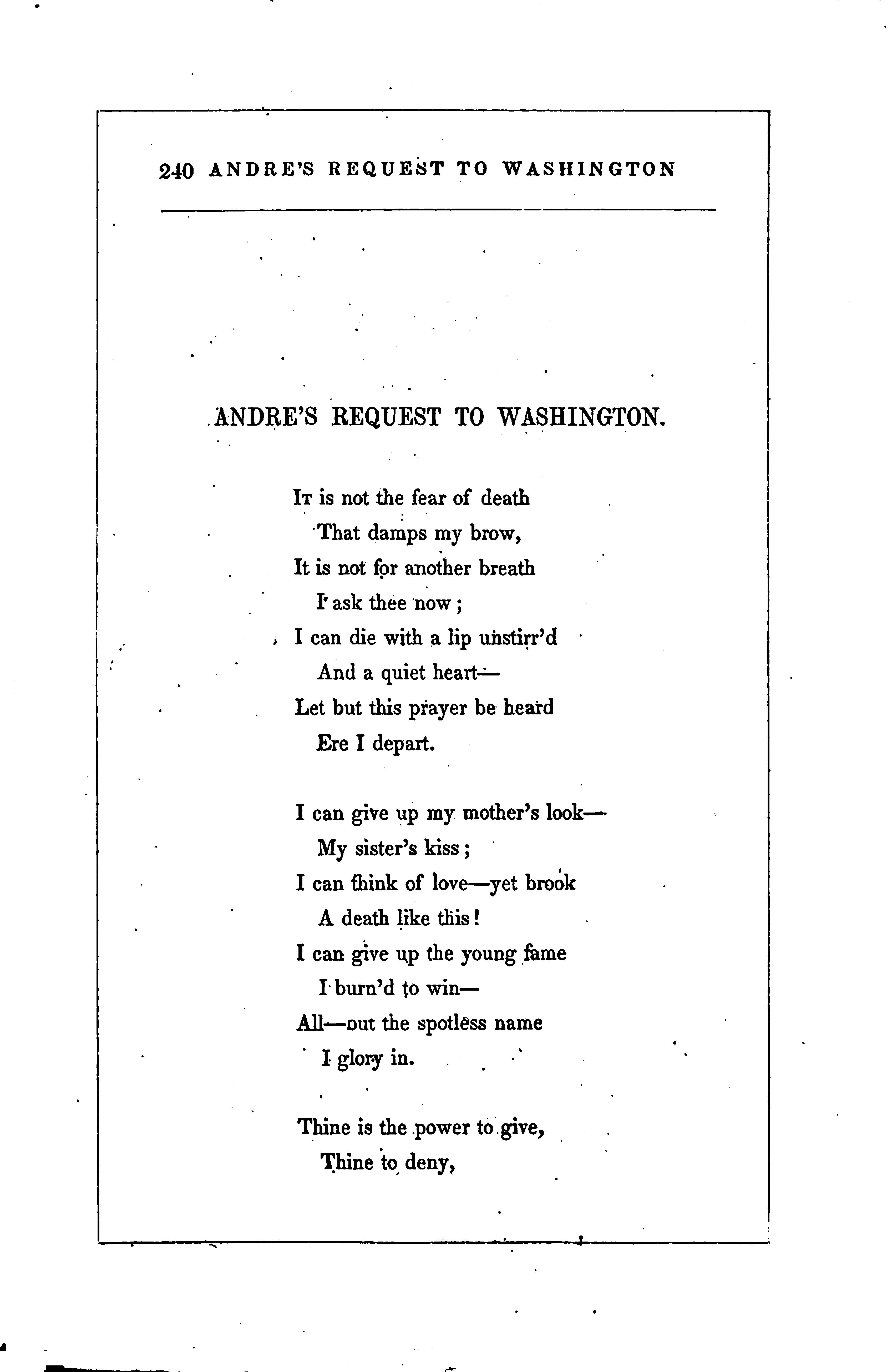
ANDRE'S REQUEST TO WASHINGTON.
It is not the fear of death
S
That damps my brow, It is not for another breath Iask thee now; I can die with a lip unstirr'd And a quiet heart
Let but this prayer be heard Ere I depart.
I can give up my mother's lookMy sister's kiss ; I can think of love-yet brook A death like this ! I can give up the young fame I burn'd to winAll-outthe spotless name I gloryin.
Thine is the power to give, Thine to deny,

ANDRE'S REQUEST TO WASHINGTON. 241
Joy forthe hour I live Calmness to die.
By all the brave should cherish, By my dying breath, I ask that I may perish By a soldier's death !
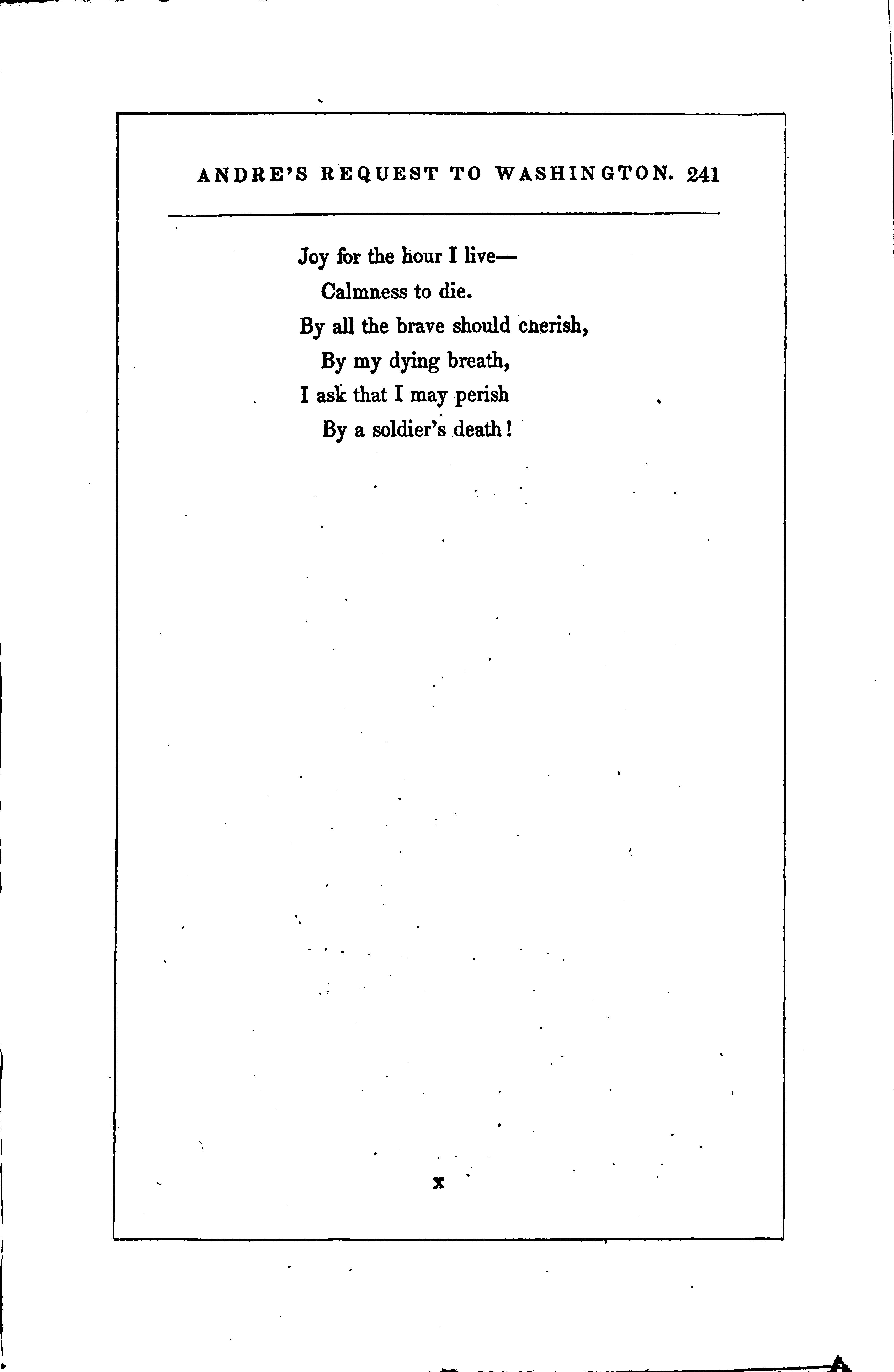

·
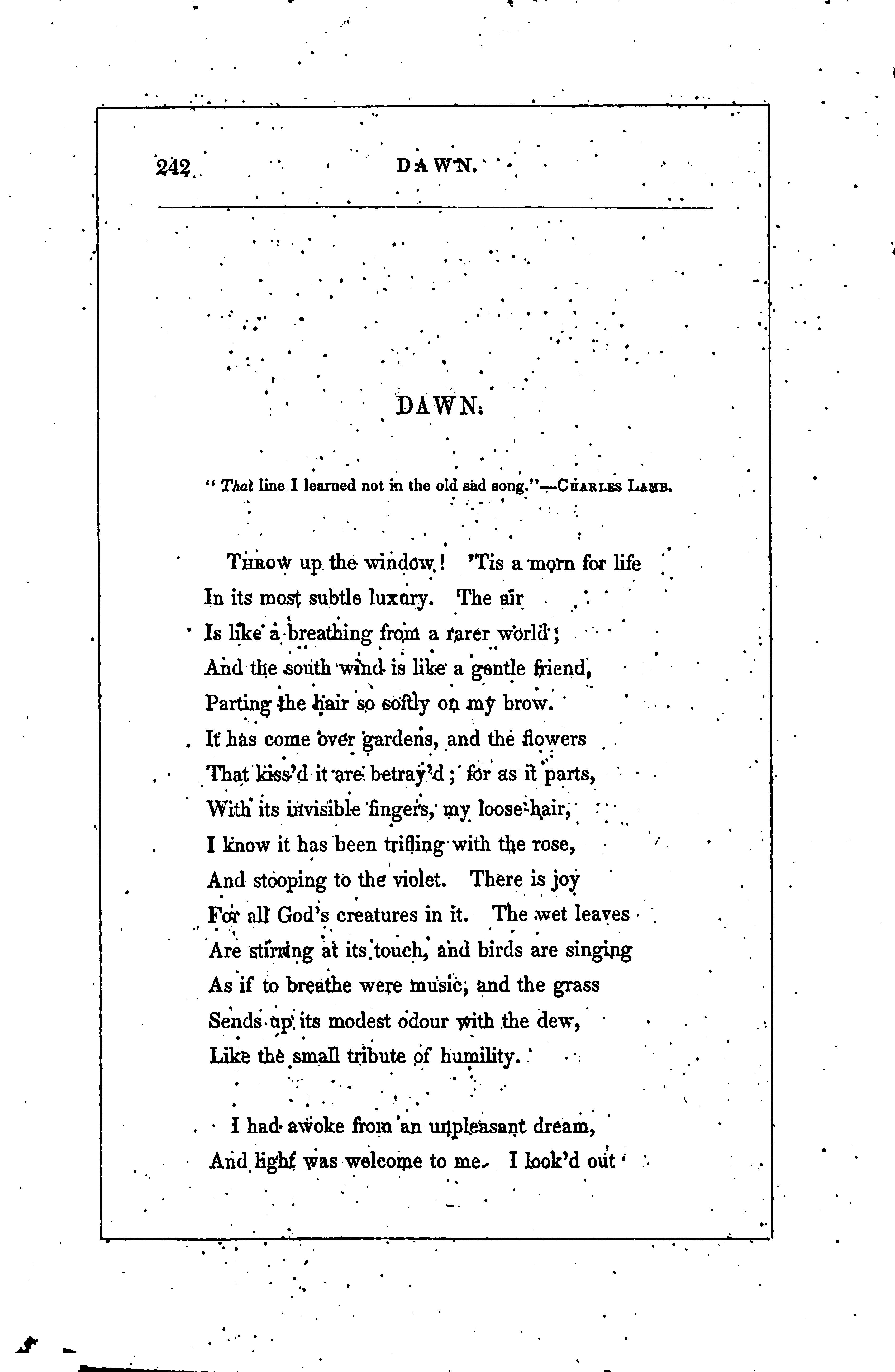
" That line.I learned not in the old sad song."-CHARLES
LAMB.
THROW up the window ! "Tis a morn for life
In its most subtle luxury. The air Is like a breathing from a rarer world ; And the south wind is like a gentle friend, Parting the hair so softly on my brow. It has come over gardens, and the flowers That kiss'd it are betray'd ; for as it parts, With its invisible fingers, my loose hair, I know it has been trifling with the rose, And stooping to the violet. For all God's creatures in it. There is joy The wet leaves · Are stirring at its touch, and birds are singing As ifto breathe were music; and the grass Sends up its modest odour with the dew, Like the small tribute of humility.
I had awoke from an unpleasant dream, And light was welcome to me. I look'd out

To feelthe common air, and when the breath Of the delicious morning met my brow, Cooling its fever, and the pleasant sun Shone on familiar objects, it was like The feeling of the captive who comes forth From darkness to the cheerful light of day.
Oh! could we wake from sorrow ; were it all A troubled dream like this, to cast aside
Like an untimely garment with the morn ; Could the long fever of the heart be cool'd. By a sweet breath from nature; or the gloom Of a bereaved affection pass away With looking onthe lively tint of flowersHow lightly were the spirit reconciled To make this beautiful, bright world its home ' .
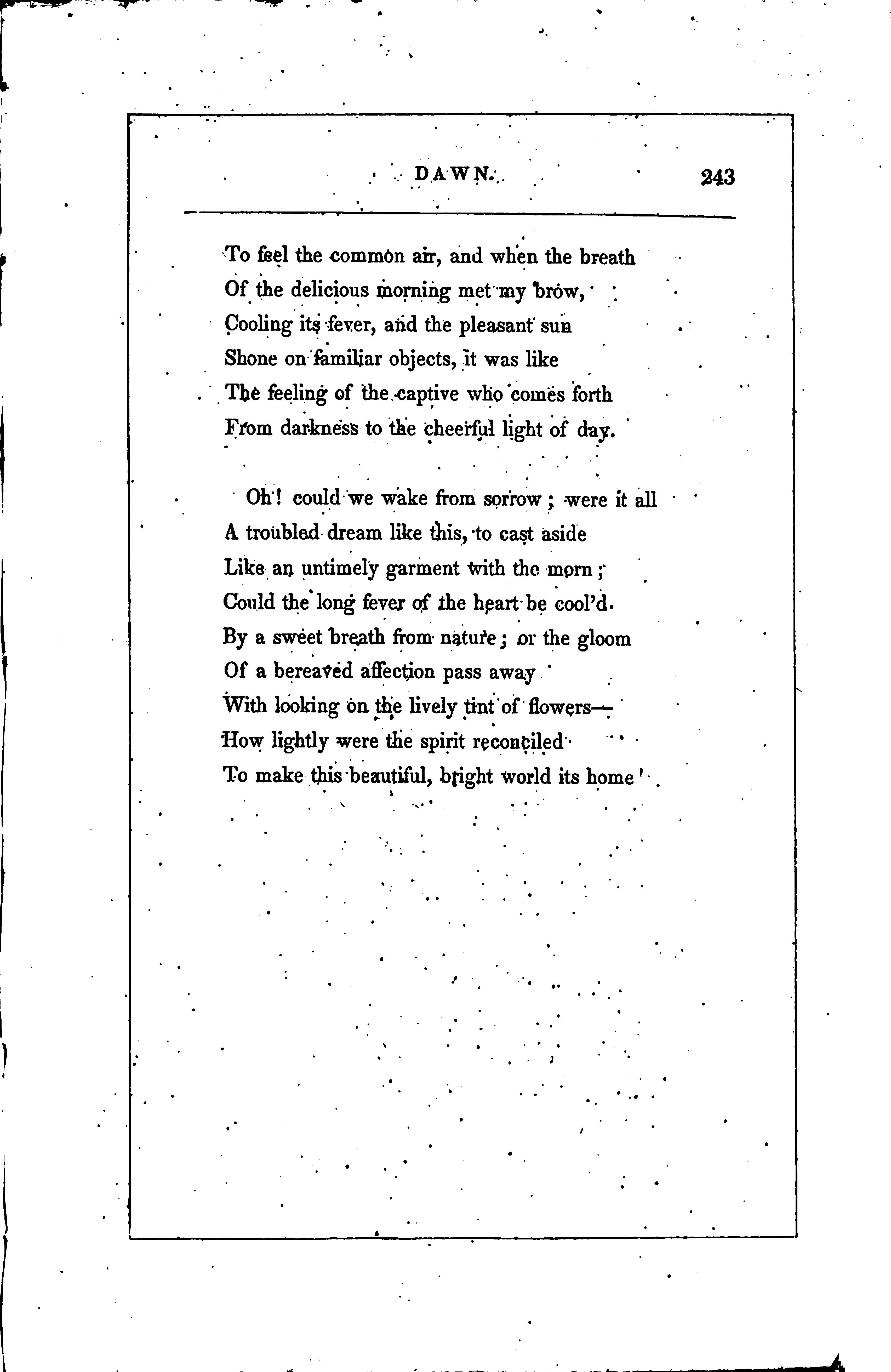

FROM A POEM DELIVERED AT THE DEPARTURE OF THE SENIOR CLASS OF YALE COLLEGE, IN 1927.
WE We shall go forth together. There will come Alike the day of trial unto all, And the rude world will buffet us alike. Temptation hath a music for all ears ; And mad ambition trumpeteth to all ; And the ungovernable thought within Will be in every bosom eloquent ; But when the silence and the calm come on, And the high seal of character is set, We shall not all be similar. The flow "
Of life-time is a graduated scale ; And deeper than the vanities of power, Or the vain pomp of glory, there is set A standard measuring our worth for Heaven. The pathway tothe grave may bethe same, And the proud man shall tread it, and the low, With his bow'd head, shall bear him company;
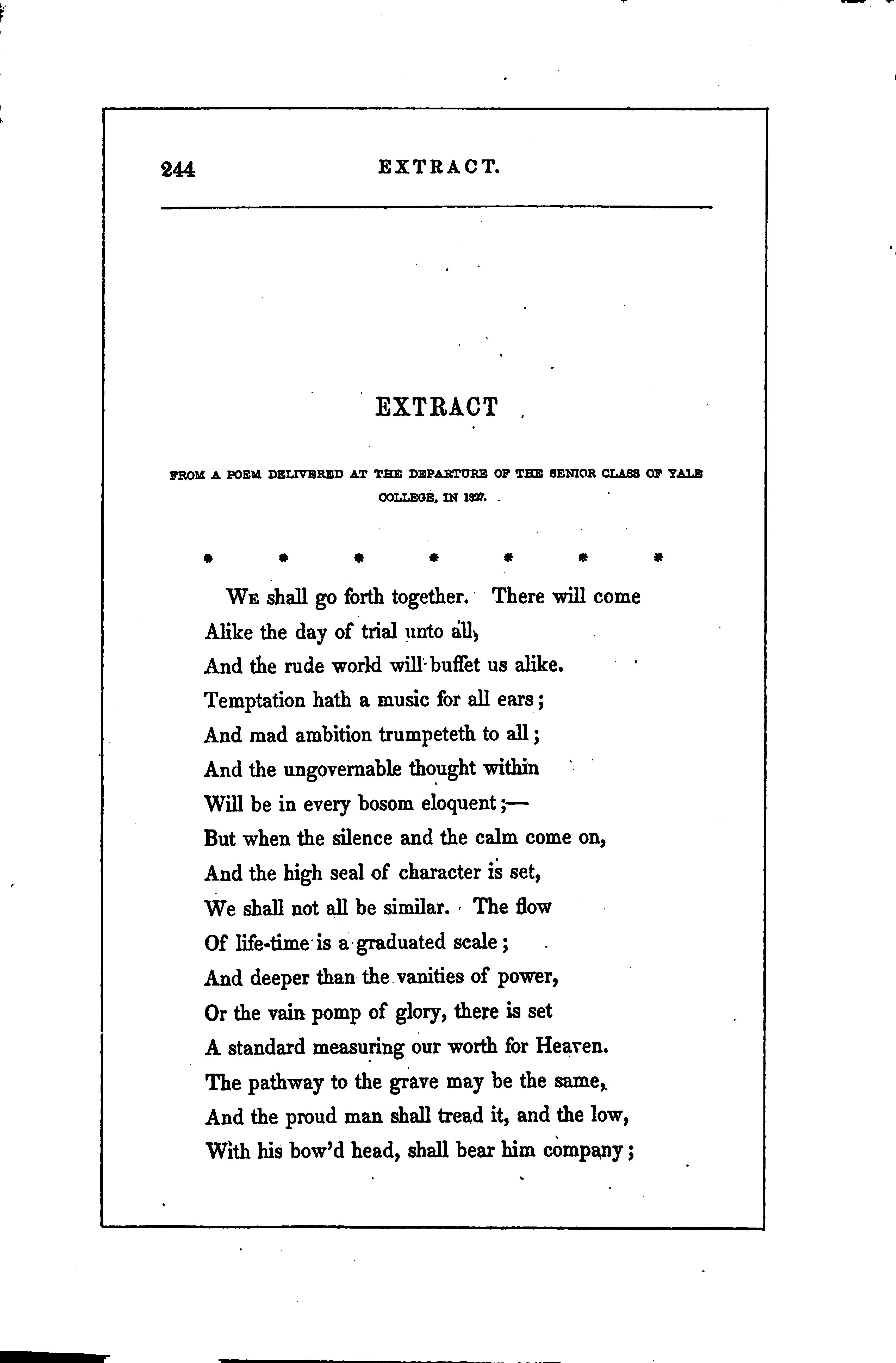

And there will be no precedence of power, In waking at the coming trump of God ; But in the temper of the invisible mind, The godlike and undying intellect, There are distinctions that will live in heaven, When time is a forgotten circumstance ! The elevated'brow of kings will lose The impress of regalia, and the slave Will wear his immortality as free, Beside the crystal waters ; but the depth Of glory in the attributes of God, Will measure the capacities of mind ; And as the angels differ, will the ken Of gifted spirits glorify him.more.
'Tis life's probation task. The soul of man Createth its own destiny of power; And, as the trial is intenser here, His being hath a nobler strength in heaven.
What is its earthly victory? Press on!
For it hath tempted angels. Yet press on! For it shall make you mighty among men ; And from the eyrie of your eagle thought, Ye shall look down on monarchs. O press on!
For the high ones and powerful shall come . To do you reverence: and the beautiful Will knowthe purer language of your brow, x2
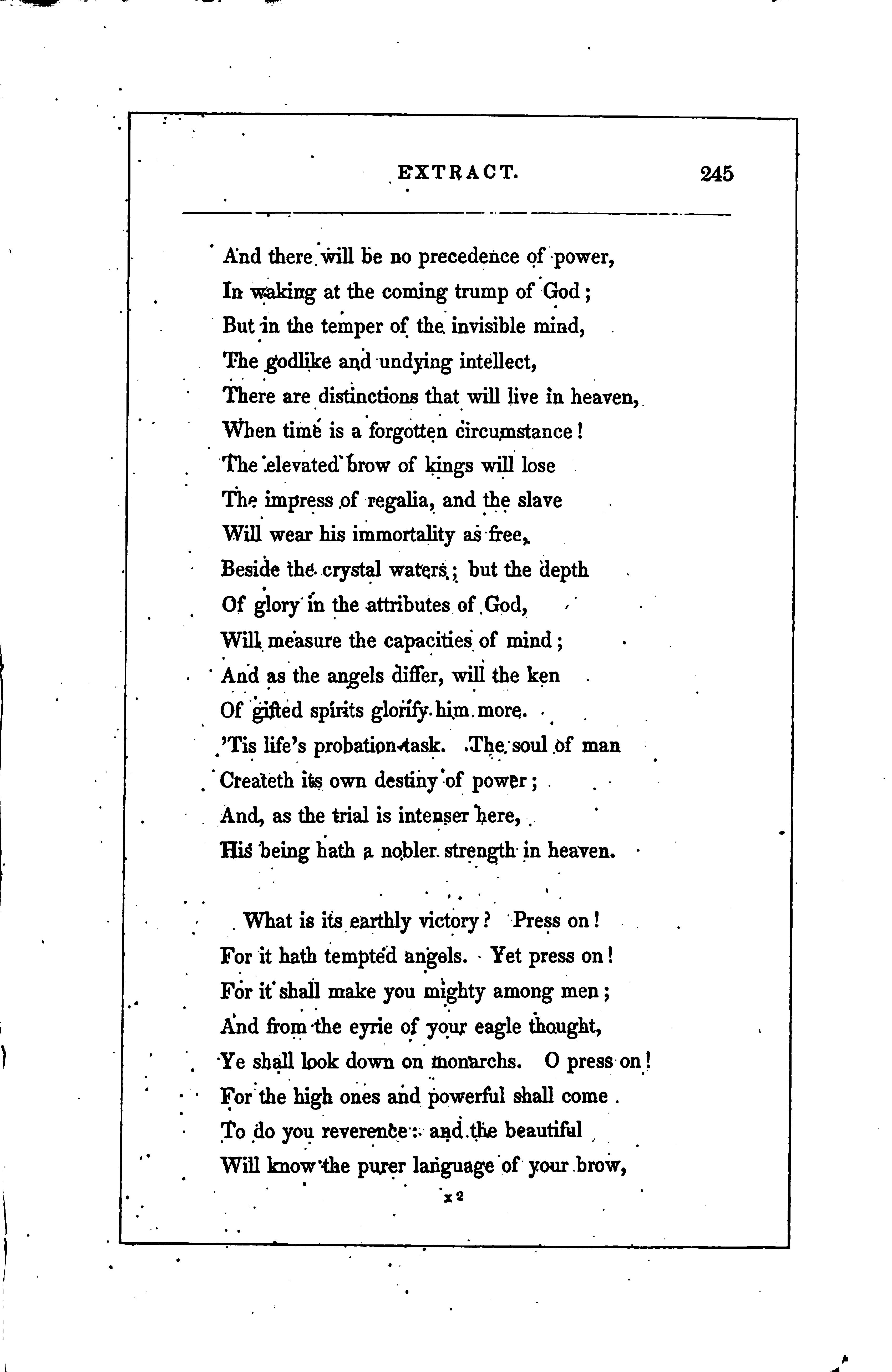

And read it like a talisman of love!
Press on! for it is godlike to unloose
The spirit, and forget yourself in thought
Bending a pinion for the deeper sky,
And, inthe very fetters of your flesh,
Mating with the pure essences of heaven!
Press on! "for in the grave there is no work, And no device:"-Press on ! while yet ye may!
So lives the soul of man. It isthe thirst
Of his immortal nature ; and he rends
The rock for secret fountains, and pursués
The path of the illimitable wind
For mysteries-and this is human pride !
There is a softer winding-path through life, And man may walk it with unruffled soul
And drink its wayside waters till his heart
Is still'd with its o'erflowing happiness.
The chart by which to traverse it is writ
In the broad book of nature. 'Tis to have
Attentive and believing faculties ;
To go abroad rejoicing inthe joy
Of beautiful and well-created things ;
To love the voice of waters, and the sheen
Of silver fountains leaping to the sea ;
To thrill with the rich melody of birds,
Living their life of music; to be glad
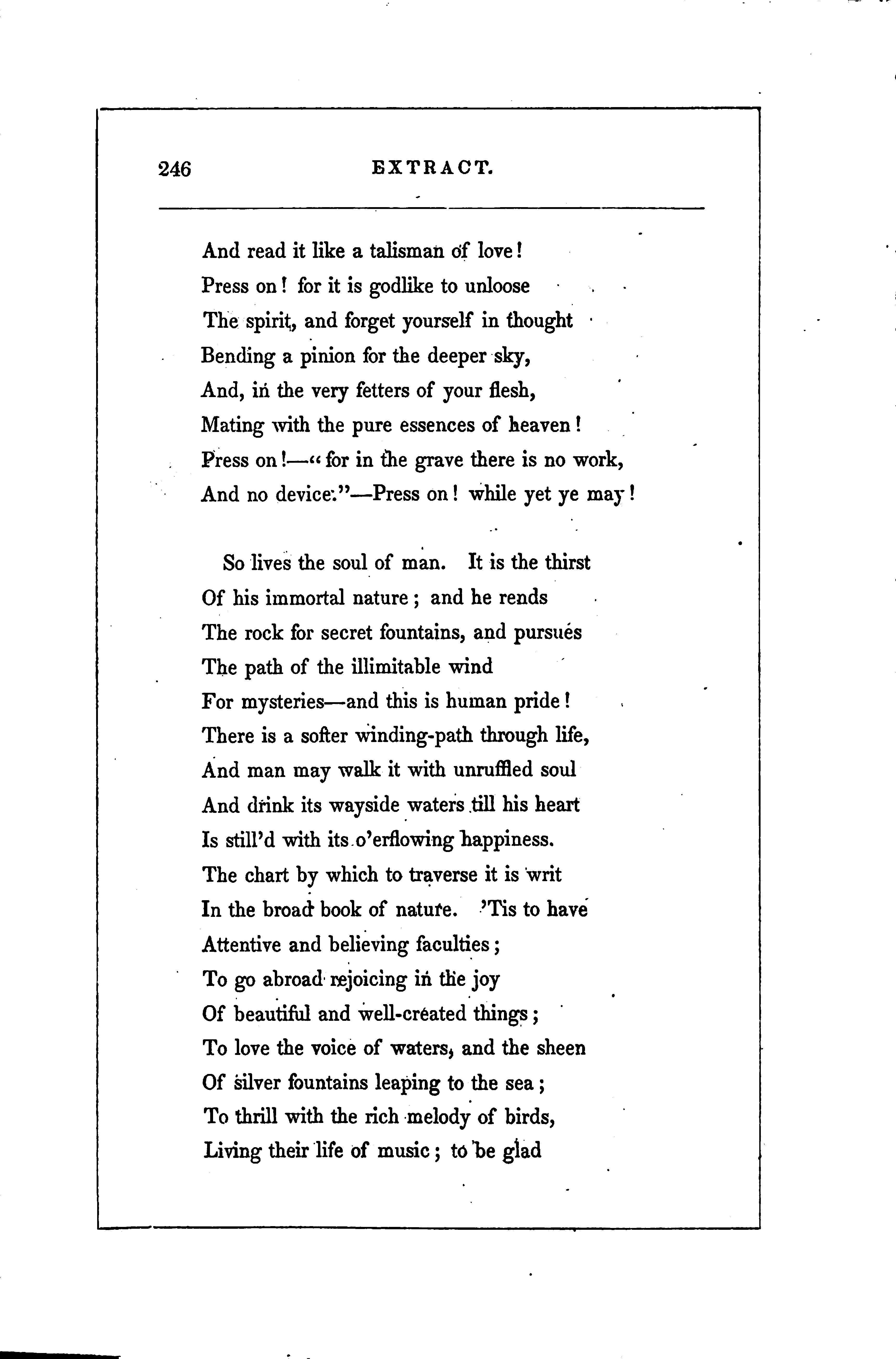

In the gay sunshine, reverent in the storm ; To see a beauty in the stirring leaf, And find calm thoughts beneath the whispering tree ; To see, and hear, and breathe the evidence. Of God's deep wisdom in the natural world! It is to linger on the magic face. Of human beauty," and from light and shade Alike to draw a lesson ; 'tis to know The cadences of voices that are tuned By majesty and purity of thought ; To gaze on woman's beauty, as a star Whose purity and distance make it fair ; And from the spell of music to awake, And feel that it has purified the heart ! It is to love all virtue, like the light, Dear tothe soul as sunshine to the eye; And when the senses and the mind are fill'd Like wells from these involuntary springs, It is to calm the trembling depths with prayer, That it may be but a reflected Heaven.
Thus would I, at this parting hour, be true To teachings which to me have priceless been. Thus would I like a just-departing child, Who lingers on the threshold of his home, Strive, with vague murmurings,and lingering looks, To store up what were sweetest to recall.
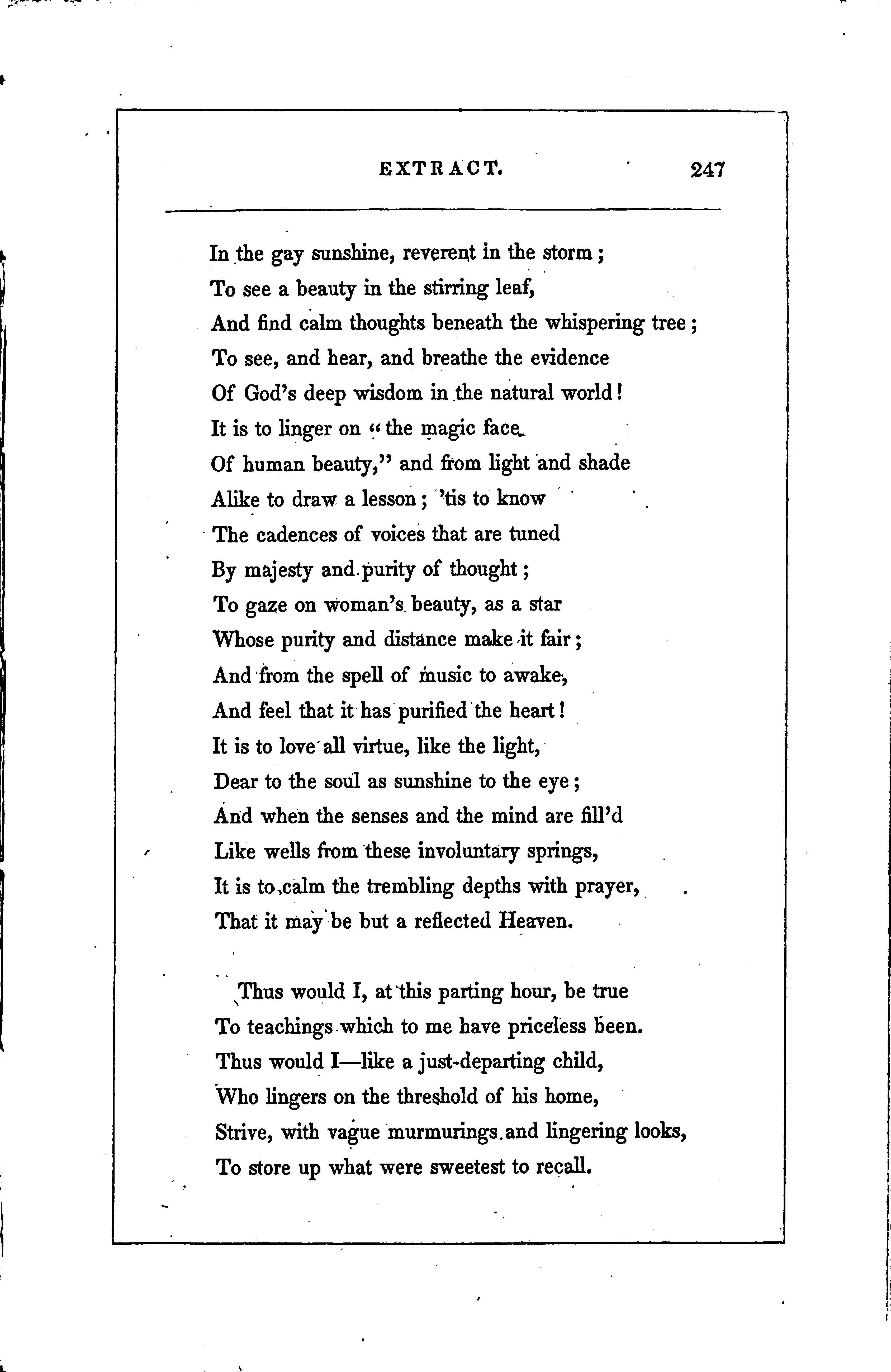

And oh be this remember'd !-that when life Shall have become a weariness, and hope, Thirsts for serener waters, we may go
Forth to God's wild-wood temples, and while all Its choirs breathe music and its leafy aisles, Are solemn with the beauty of the world, Kneel at its unwrought ar, andthe cup That holds the living waters" will be near.
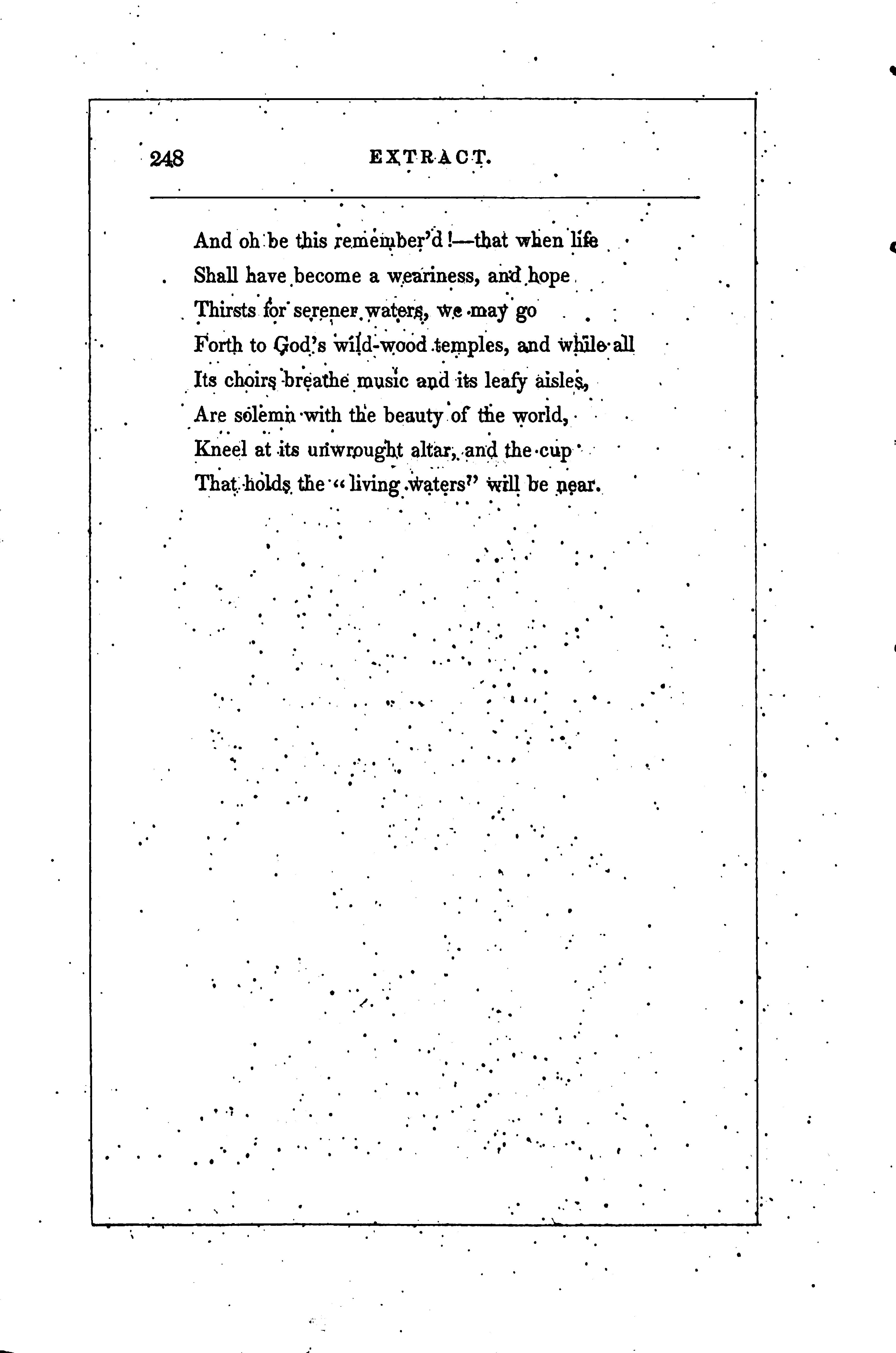

DELIVERED AT BROWN UNIVERSITY, SEPT. 6, 1831.
Ir, inthe eyes that rest upon me now, I see the light of an immortal fireIf, in the awe of concentrated thought, The solemn presence of a multitude Breathing together, the instinctive mind Acknowledges aright a type of GodThenis the ruling spirit of this hour Compell'd from Heaven ; and if the soaring minds Usher'd this day upon an untried flight Stoop not their courses, we are met to cheer Spirits of light sprung freshly on their way.
But, what a mystery-this erring mind ? It wakes within a frame of various powers, A stranger in a new and wondrous world. It brings an instinct from some other sphere, For its fine senses are familiar all, And, with th' unconscious habit of a dream,
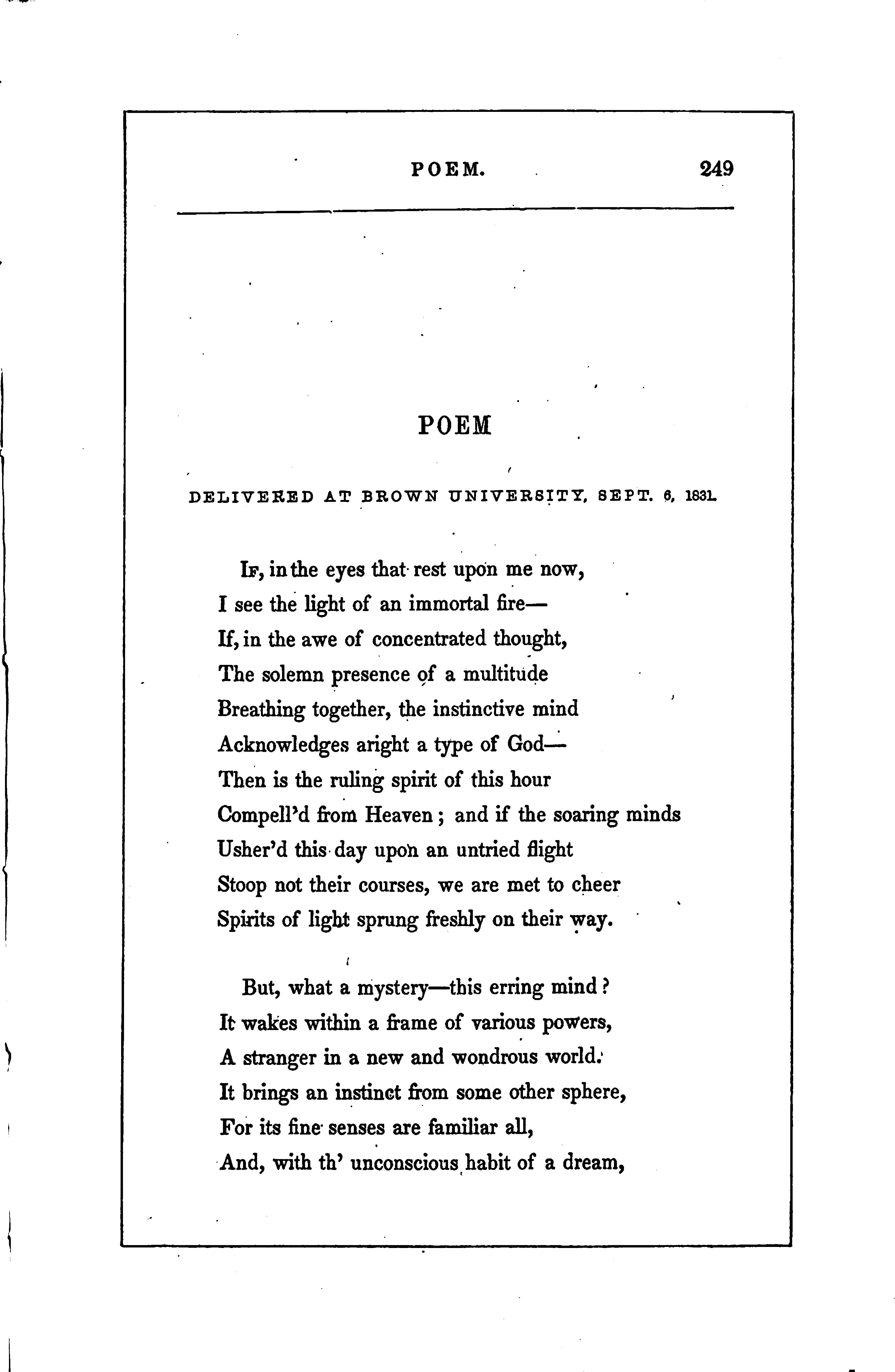

It calls, and they obey..The priceless sight Springs to its curious organ, and the ear Learns strangely to detect th' articulate air In its unseen divisions, and the tongue Gets its miraculous lesson with the rest,. And in the midst of an obedient throng Of well-trained ministers, the mind goes forth To search the secrets of a new-found home.
Its infancy is full of hope and joy. Knowledge is sweet, and Nature is a nurse Gentle and holy ; and the light and air, And all things common, warm it like the sun, And ripen the eternal seed within. And so its youth glides on; and still it seems
A heavenward spirit, straying oftentimes; But never widely; and if Death might come And ravish it from earth, as it is now, We could almost believe that it would mount, Spotless and radiant, fromthe very grave. But manhood comes, and in its bosom sits . Another spirit. Stranger as it seems, It is familiar there, for it has grown In the unsearch'd recesses all unseen, Or if its shadow darken'd the bright doors, 'Twas smiled upon and gently driven in ; And as the spider and the honey-bee
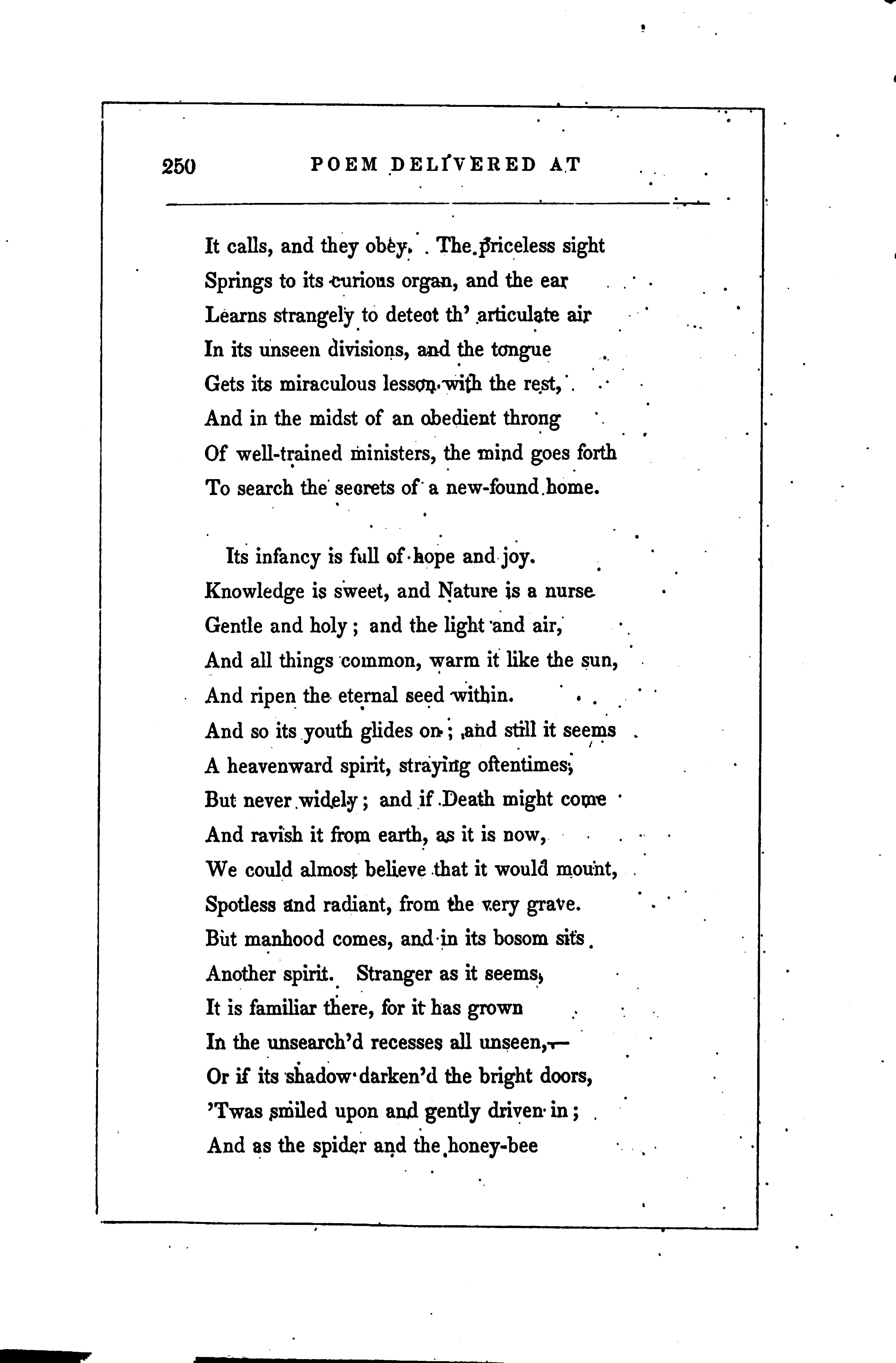

Feed on the same bright flowers, this mocking soul
Fed with its purer brother, and grew strong, Till now, in semblance of the soul itself,
With its own mien and sceptre, and a voice
Sweet as an angel's and as full of power, It sits, a bold usurper onthe throne.
What is its nature ? 'Tis a child of clay, And born of human 'passions. In its train
Follow all things unholy-Love of Gold, Ambition, Pleasure, Pride of place or name, All that we worship for itself alone, All that we may not carry through the grave. We have made idols of these perishing things Tillthey have grown time-honour'd on their shrines,
And all men bow to them. Yet what are they?
What is AMBITION? 'Tis a glorious cheat!
Angels of light walk not so dazzlingly
The sapphire walls of Heaven. The unsearch'd mine Hath not such gems. Earth's constellated thrones Have not such pomp of purple and of gold. It hath no features. In its face is set
A mirror, and the gazer sees his own. It looks a god, but it is like himself!
It hath a mien majestical, and smiles
Bewilderingly sweet-but how like him! It follows not with fortune. It is seen Rarely or never in the rich man's hall.
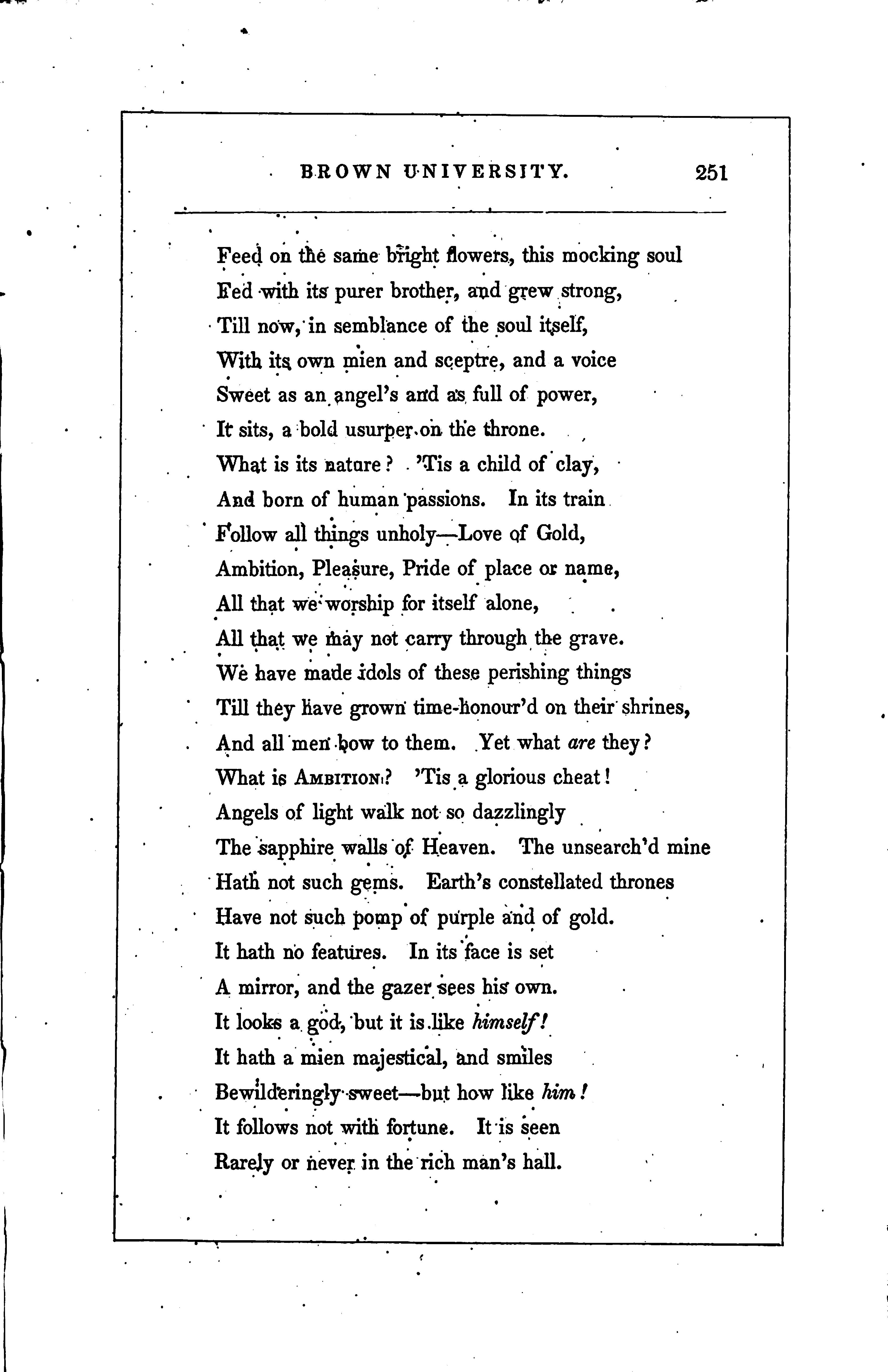

It seeks the chamber of the gifted boy, And lifts his humble window, and comes in. The narrow walls expand, and spread away Into a kingly palace, and the roof
Lifts to the sky, and unseen fingers work The ceilings with rich blazonry, and write His name in burning letters over all. And ever, as he shuts his wilder'd eyes, The phantom comes and lays upon his lids
A spell that murders sleep, and in his ear
Whispers a deathless word, and on his brain
Breathes a fierce thirst no water will allay.
He is its slave henceforth ! His days are spent
In chaining down his heart, and watching where To rise by human weaknesses. His nights Bring him no rest in all their blessed hours. His kindred are forgotten or estranged. Unhealthful fires burn constant in his eye. His lip grows restless, and its smile is curl'd Half into scorn-till the bright, fiery boy,
That was a daily blessing but to see, His spirit was so bird-like and so pure, Is frozen, in the very flush of youth, Into a cold, care-fretted, heartless man ! ·
And what is its reward? At best, a name!
Praise-whenthe ear has grown too dull to hear ;
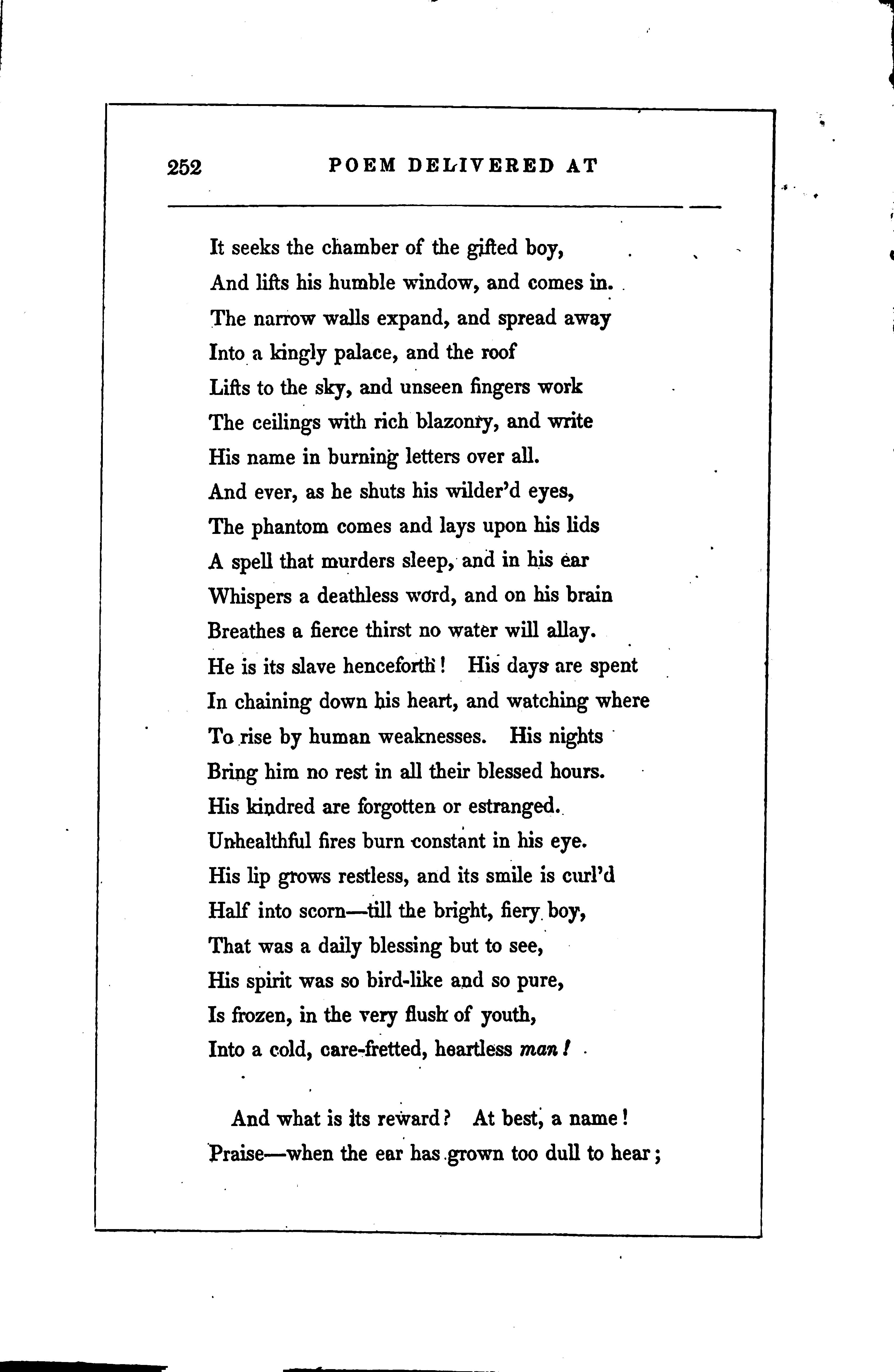

Gold-whenthe senses it should please are dead ; Wreaths-when the hair they cover has grown gray; Fame-when the heart it should have thrill'd is numb ; All things but love when love is all we want; And close behind comes Death, and ere we know That ev'n these unavailing gifts are ours, He sends us, stripp'd and naked, to the grave! :
Is it its own reward ! Reply to it, Every aspiring heart within these walls ! Summon the shadows of those bitter hours Wasted in brooding on neglect ! Recall The burning tears wrung from a throbbing brain By a proud effort foil'd ; and after all These agonies are number'd, rack your heart Back to its own self-nurtured wretchedness, And whenthe pangs are crowded into one Of all life's scorpion-stings, and Death itself Is sent or stay'd, as it would bless or curse, To tell me if self-misgiving torture not Unutterably more !
Yetthis is all!
The world has no such glorious phantom else. The spirit that could slave itself to Gold Hath never drunk of knowledge at the 'well. And Pleasure, ifthe senses would expand
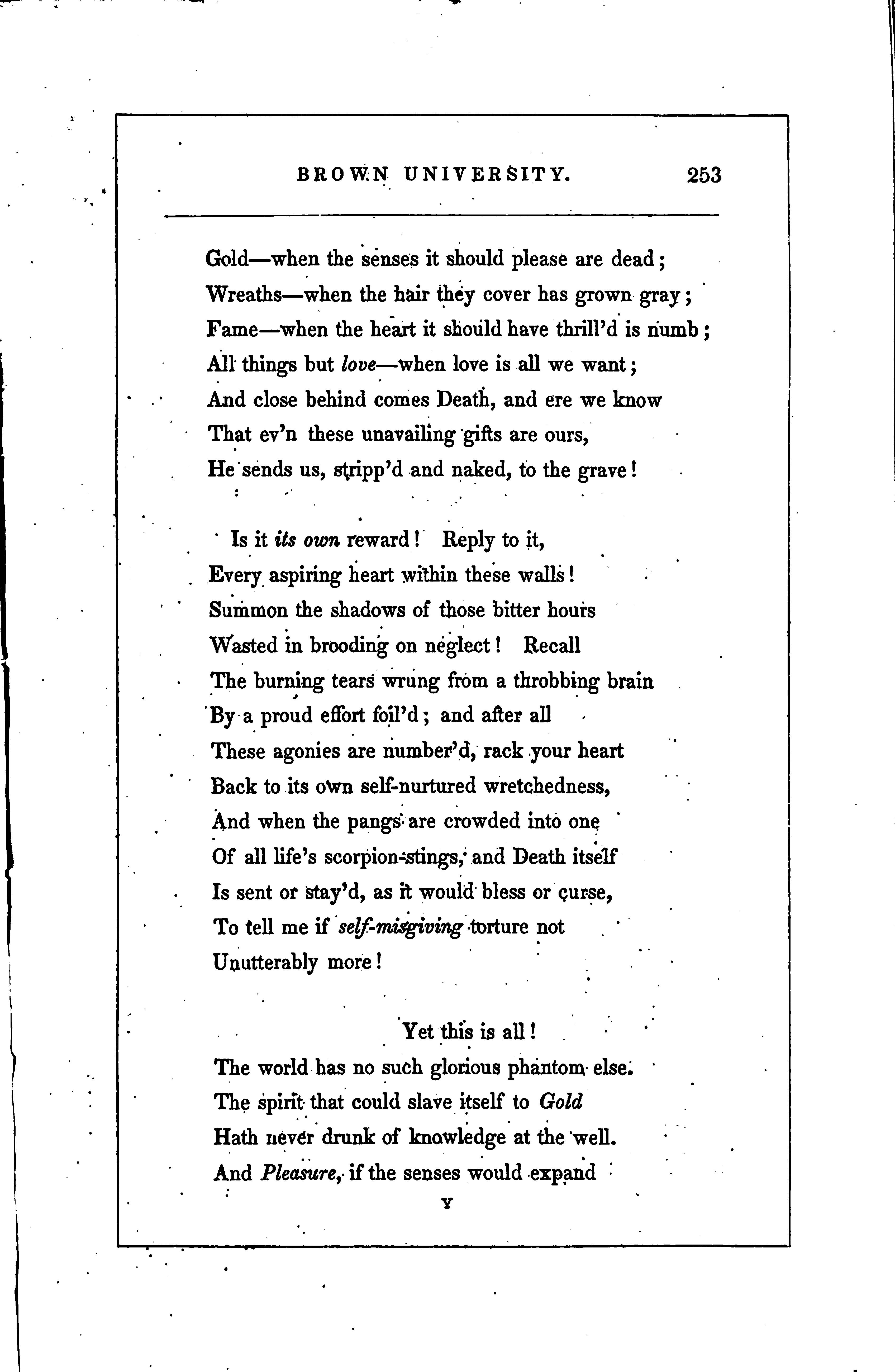

And multiply with using, might delude The flesh-imprison'd fancy but not long. And earthly Love-if measured, is too tameAnd if it drink, as in proud hearts it will, At the deep springs of life, is but a cloud Brooding with nameless sorrow on the soulA sadness-a sick-heartedness-a tear!
And these are the high idols of this world! Retreating shadows caught but at the grave Mocking delusions, changing at the touchOf one false spirit the false children all. And yet, what godlike gifts neglected lie Wasting and marr'd in the forgotten soul ! The finest workmanship of God is there. 'Tis fleeter than the wings of light and wind ; 'Tis subtler than the rarest shape of air; Fire and wind and water do its will ; Earth has no secret from its delicate eye ; The air no alchymy it solveth not ; The star-writ heavens are read and understood, And every sparry mineral hath a name, And truth is recognised, and beauty felt, And God's own image stamp'd upon its brow.
Howis it so forgotten? Will it live
When the great firmament is roll'd away?
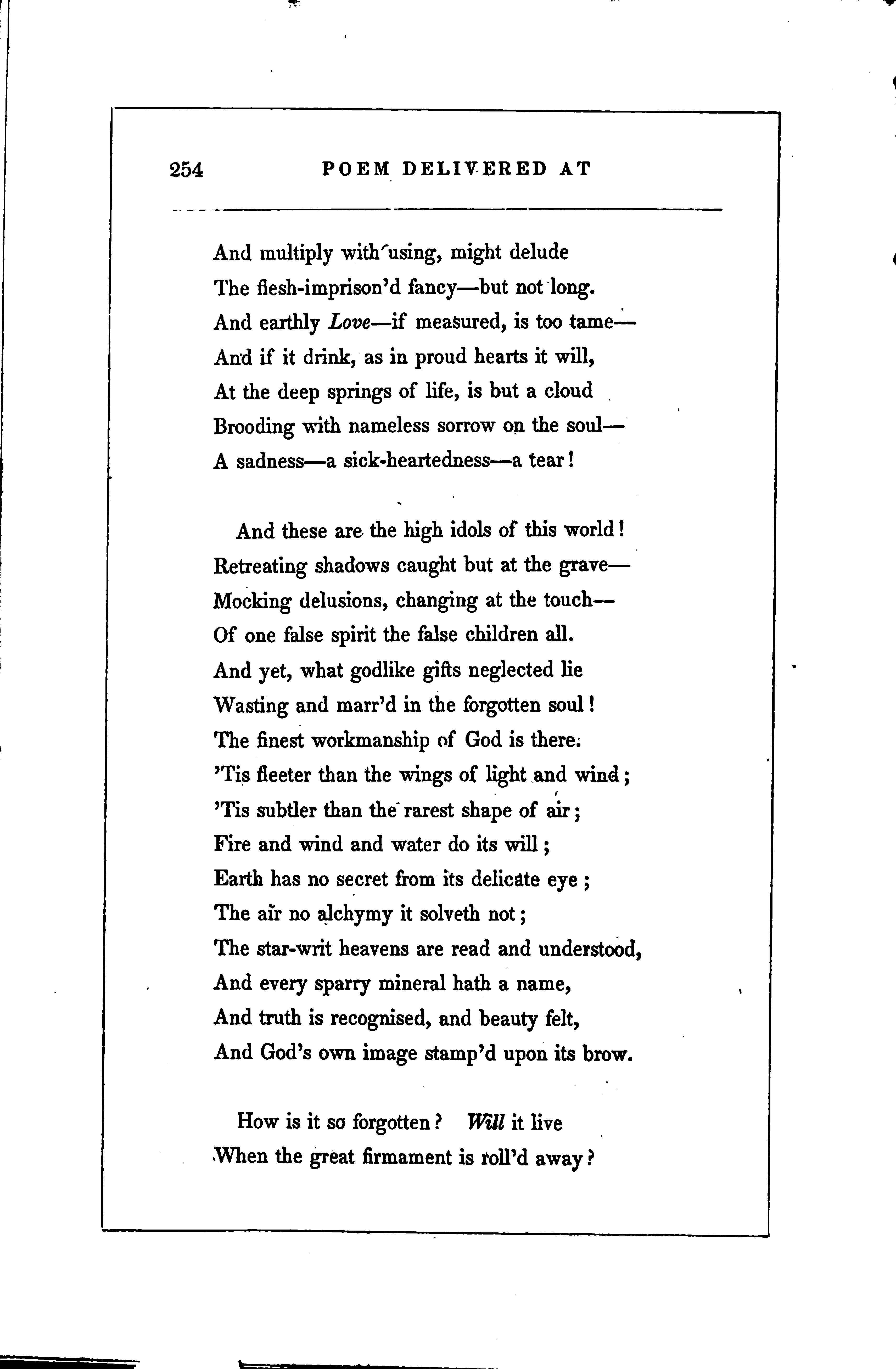

BROWN UNIVERSITY. 255
Hath it a voice forever audible, " I AM ETERNAI. ! Can it overcome This mocking passion-fiend, and even here Live like a seraph upon truth and light?
How can we ever be the slaves we are, With a sweet angel sitting in our breasts! How can we creep so lowly, when our wings Tremble and plead for freedom ! Look at him Who reads aright the image on his soul, And gives it nurture like a child of light. His life is calm and blessed, for his peace, Like a rich pearl beyond the diver's ken, Lies deep in his own bosom. He is pure, For the soul's errands are not done with men. His senses are subdued and serve the soul. He feels no void, for every faculty Is used, and the fine balance of desire Is perfect, and strains evenly, and on. Content dwells with him, for his mind is fed, And Temperance has driven out unrest. He heaps no gold. It cannot buy him more Of any thing he needs. The air of heaven Visits no freshlier the rich man's brow; He has his portion of each silver star Sent to his eye as freely, and the light Of the blest sun pours on his book as clear
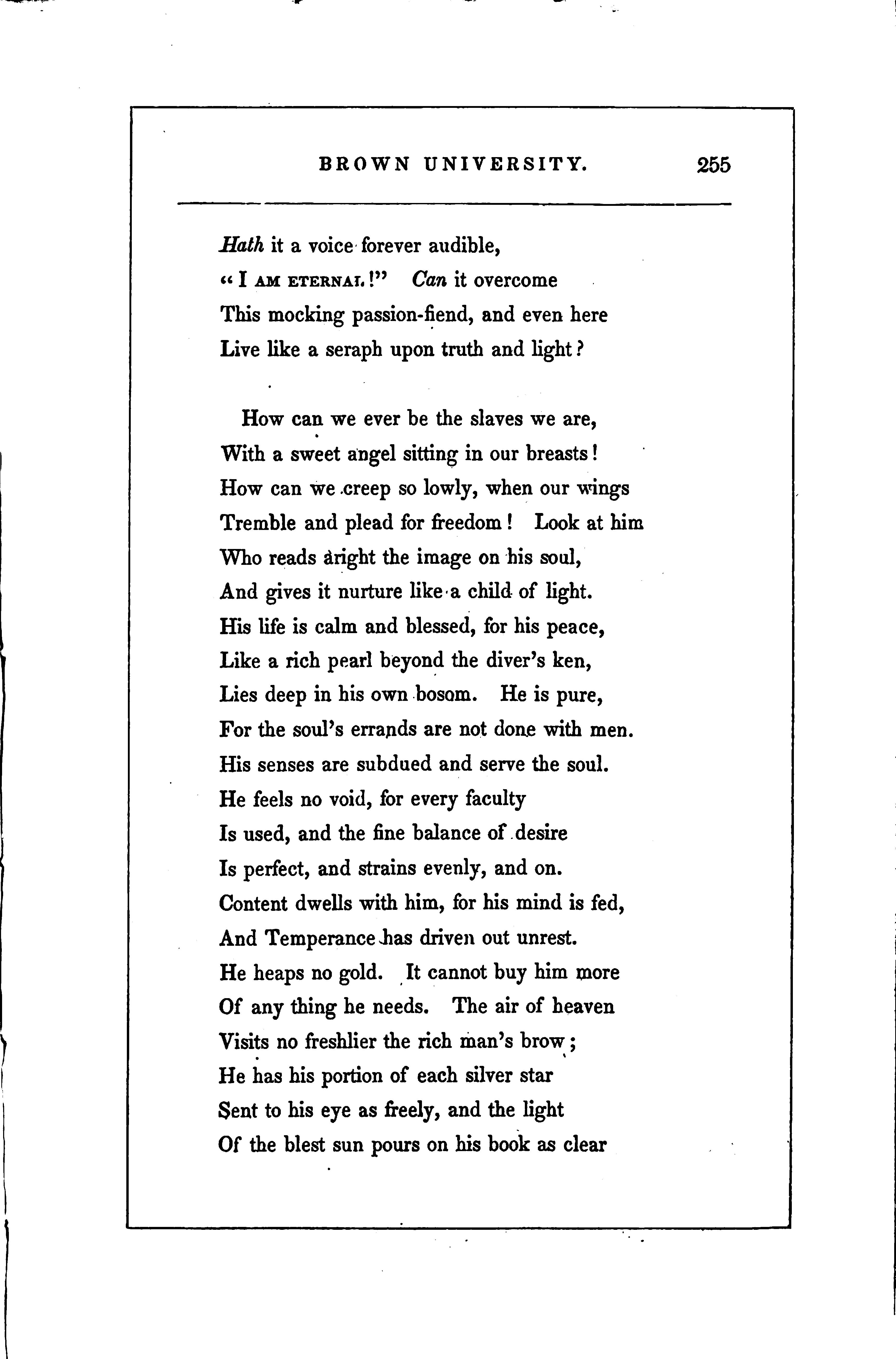

As on the golden missal of a king.
The spicy flowers are free to him ; the sward, And tender moss, and mattedforest leaves
Are as elastic to his weary feet; The pictures in the fountains, and beneath The spreading trees, fine pencillings of light, Stay while he gazes on them; the bright birds Know not that he is poor; and as he comes From his low roof at morn, up goes the lark
Mounting and singing to the gate of Heaven, And.merrily away the little brook : Trips with its feet of silver, and a voice, Almost articulate, of perfectjoy..
Air to his forehead, water to his lips, Heat to his blood, come just as faithfully, And his own faculties as freely play.
Love fills his voice with music, and the tear Springs at as light a bidding to his eye; And his free limbs obey him, and his sight Flies on its wondrous errands.every where.
What does he need ? Next to the works of God
His friends are the rapt sages of old time ; And they impart their wisdom to his soul
In lavish fulness, when and where he will. He sits in his mean dwelling and communes With Socrates and Plato, and the shades
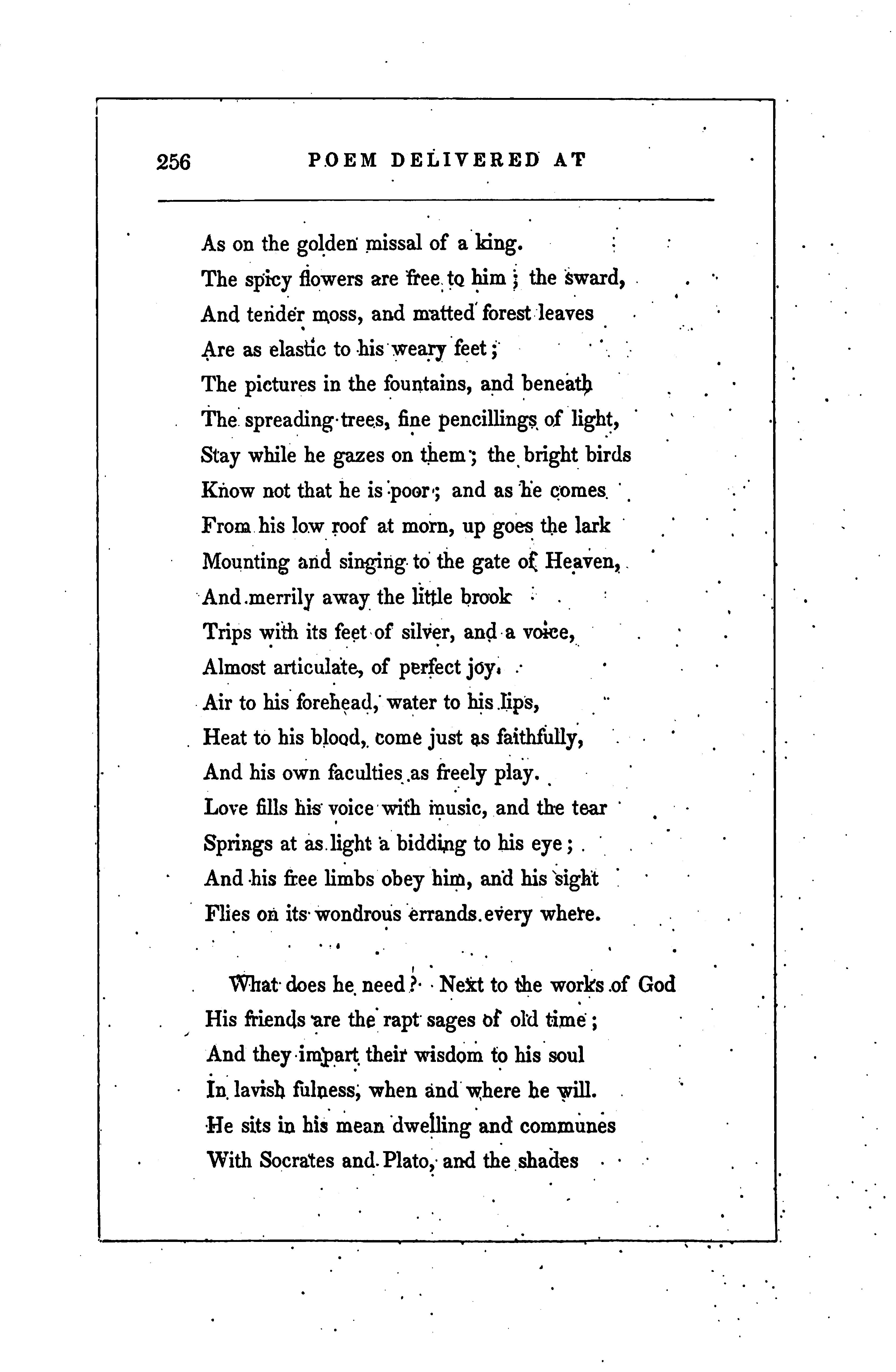

Of all great men and holy, and the words Written in fire by Milton, and the King Of Israel, and the troop of glorious bards, Ravish and steal his soul up to the skyAnd what is it to him, if these come in And visit him, that at his humble door There are no pillars with rich capitals And walls of curious workmanship within?
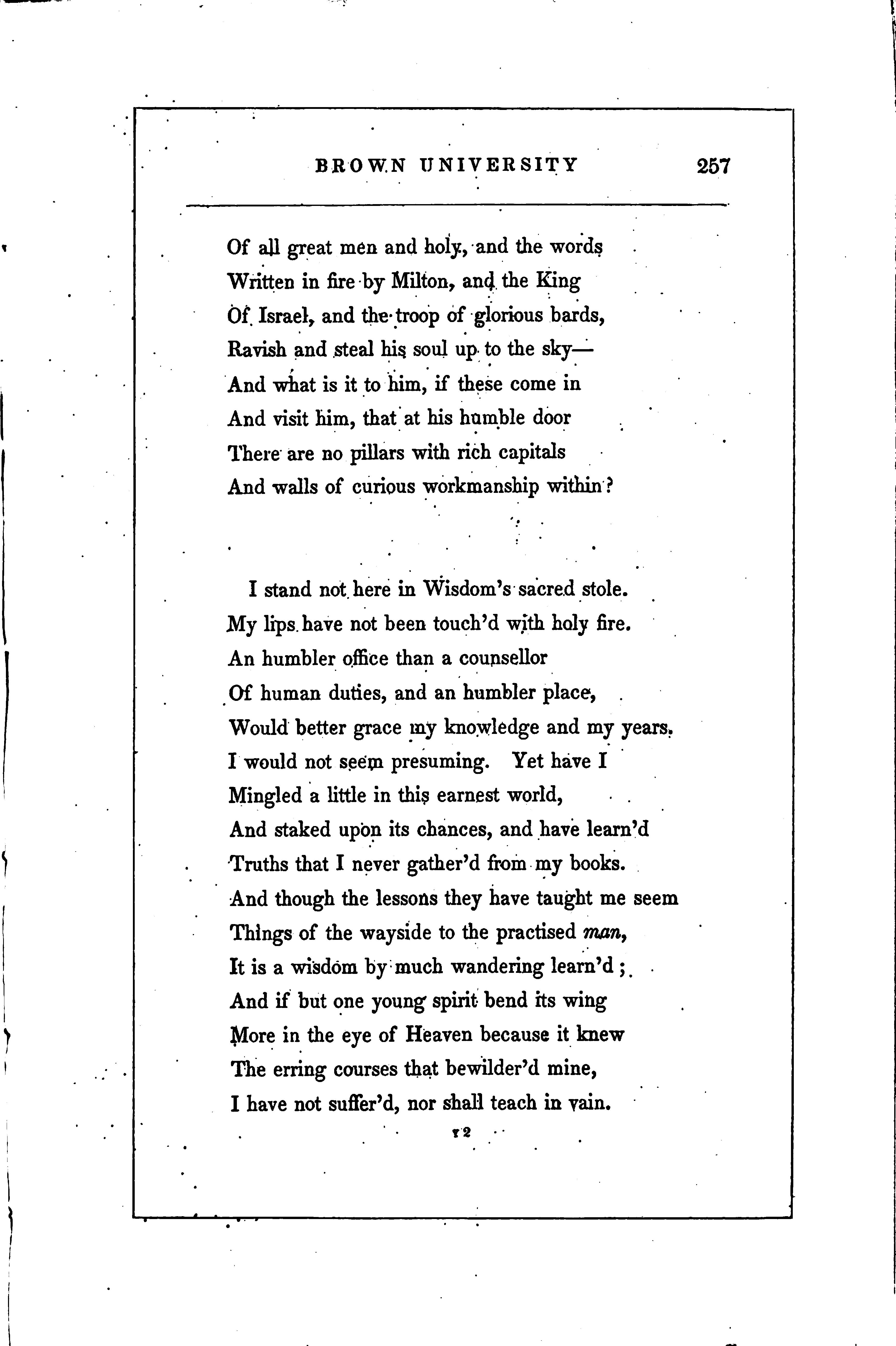
I stand not here in Wisdom's sacred stole. My lips have not been touch'd with holy fire. An humbler office than a counsellor Of human duties, and an humbler place, Would better grace my knowledge and my years. I would not seem presuming. Yet have I Mingled a little in this earnest world, And staked upon its chances, and have learn'd Truths that I never gather'd from my books. And though the lessons they have taught me seem Things of the wayside to the practised man, It is a wisdom by much wandering learn'd ;. And if but one young spirit bend its wing More in the eye of Heaven because it knew The erring courses that bewilder'd mine, I have not suffer'd, nor shall teach in vain.

It is a lesson oftener learn'd than loved-
All knowledge is not nourishment. The mindMay pine upon its food. In reckless thirst
The scholar sometimes kneels beside the stream Polluted by the lepers of the mind.
The sceptic, with his doubts of all things good And faith in all things evil, has been there ;
And, as the stream was mingled, he has strown
The shore with all bright flowers to tempt the eye, And sloped the banks down gently for the feet ; And Genius, like a fallen child of light, Has fill'd the place with magic, and compell'd Most beautiful creations into forms
And images of license, and they come And tempt you with bewildering grace to kneel And drink of the wild waters ; and behind Stand the strong Passions, pleading to go in ; And the approving world looks silent on ; Till the pleased mind conspires against itself, And finds a subtle reason why 'tis good.
We are deceived, though, even as we drink, We taste the evil. In his sweetest tone
The lying Tempter whispers in our ear, (6 Thoughit may stain, 'twill strengthen your proud wings;' And inthe wild ambition of the soul
We drink anew, and dream like Lucifer
To mount upon our daring draught to Heaven.
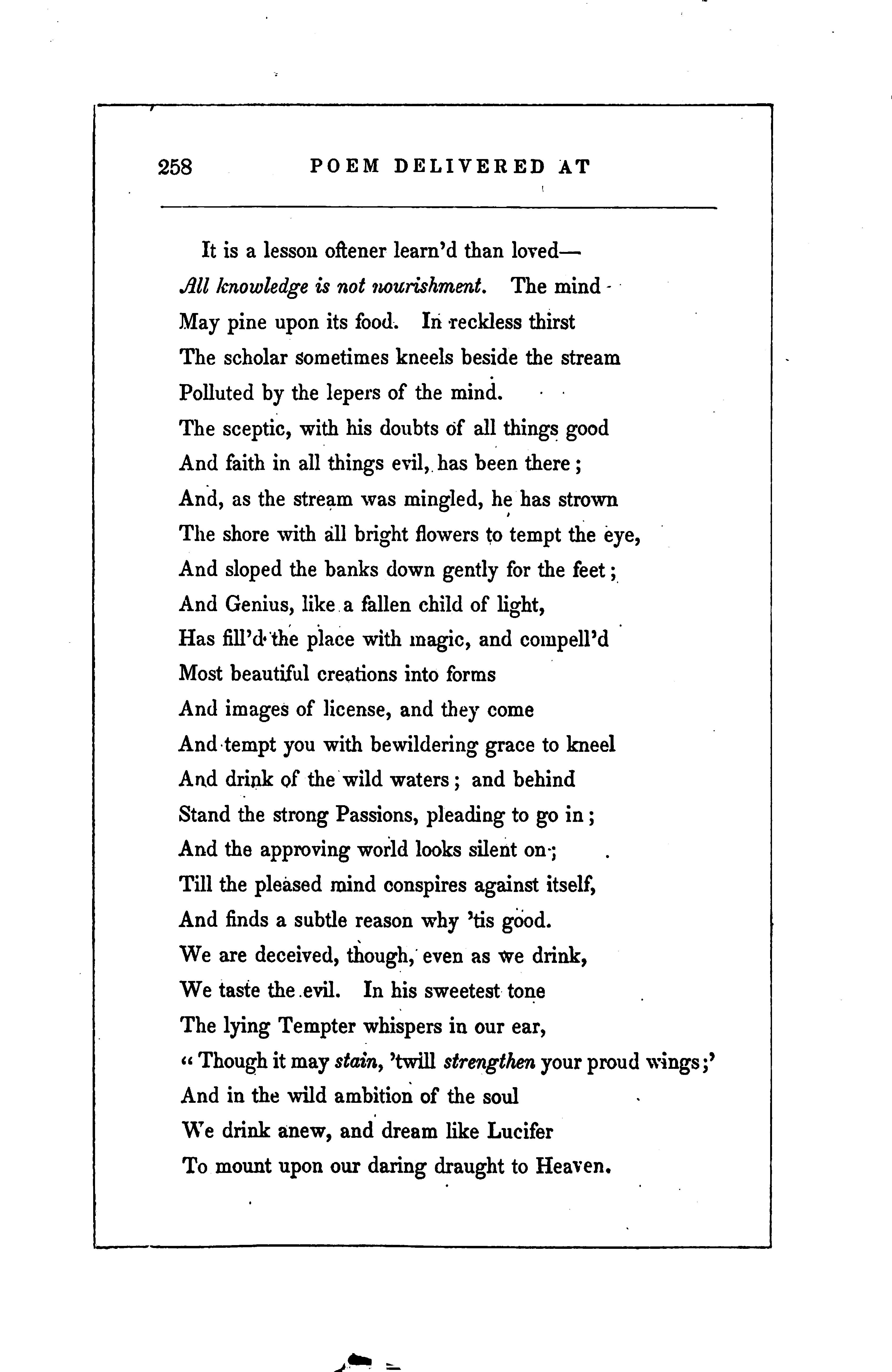

BROWN UNIVERSITY. 259 power.
I need not followthe similitude.. Truth is vitality, and if the mind Be fed on poison, it must lose its The vision that forever strains to err, Soon finds its task a habit ; and the taste That will own nothing true or beautiful Soon finds the world distorted as itself; And the loose mind, that feeds an appetite For the enticements of licentious thought, Contracts a leprosy that oversteals Its senses, like a palsy, chill, and fast.
Another lesson with my manhood came. I have unlearn'd contempt. It is the sin That is engender'd earliest in the soul, And doth beset it like a poison-worm, Feeding on all its beauty. As it steals Into the bosom, you may see the light Of the clear, heavenly eye grow cold and dim, And the fine, upright glory of the brow Cloud with mistrust, and the unfetter'd lip, That was as free and changeful as the windEven in sadness redolent of loveCurl'd with the iciness of a constant scorn. It eats into the mind till it pollutes All its pure fountains. Feeling, reason, taste Breathe of its chill corruption. Every sense
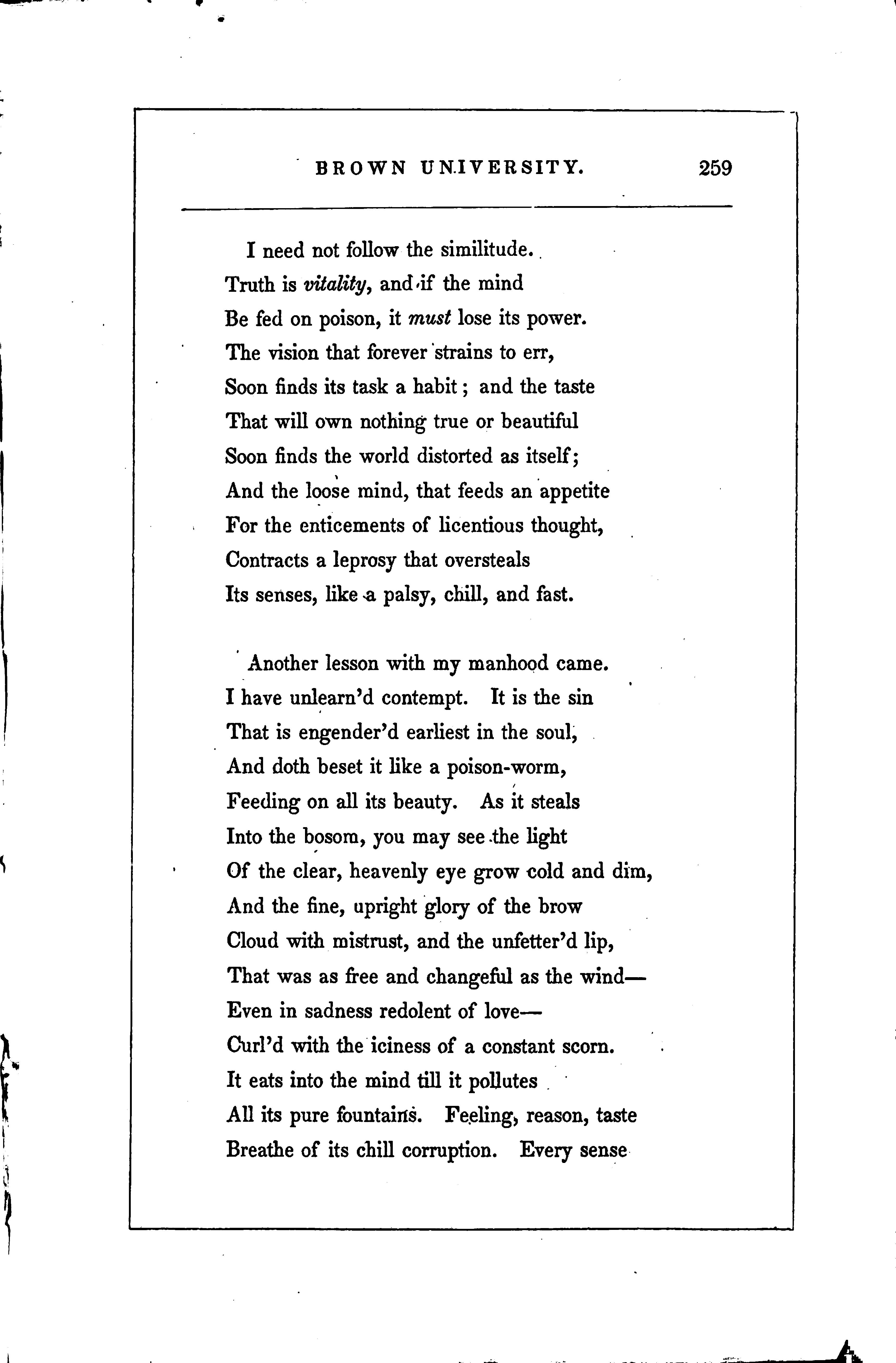

That could convey a pleasure is benumb'd, And the bright human being, that was made Full of all warm affections, and with power
To look through all things lovely up to God, Is changed into a cold and doubting fiend, With but one use for reason to despise !
Oh if there is one law above the rest Written in wisdom-if there is a word
That I would trace as with a pen of fire
Upon the unsunn'd temper of a childIf there is any thing that keeps the mind
Open to angel visits, and repels
The ministry of ill-'tis human love ! God has made nothing worthy of contempt.
The smallest pebble in the well of truth
Has its peculiar meaning, and will stand When man's best monuments have pass'd away.
The law of heaven is love ; and though its name Has been usurp'd by passion, and profaned
To its unholy uses through all time, Still, the eternal principle is pure ; And in these deep affections that we feel Omnipotent within us, we but see
The lavish measure in which love is given ; And in the yearning tenderness of a child
For every bird that sings above his head,
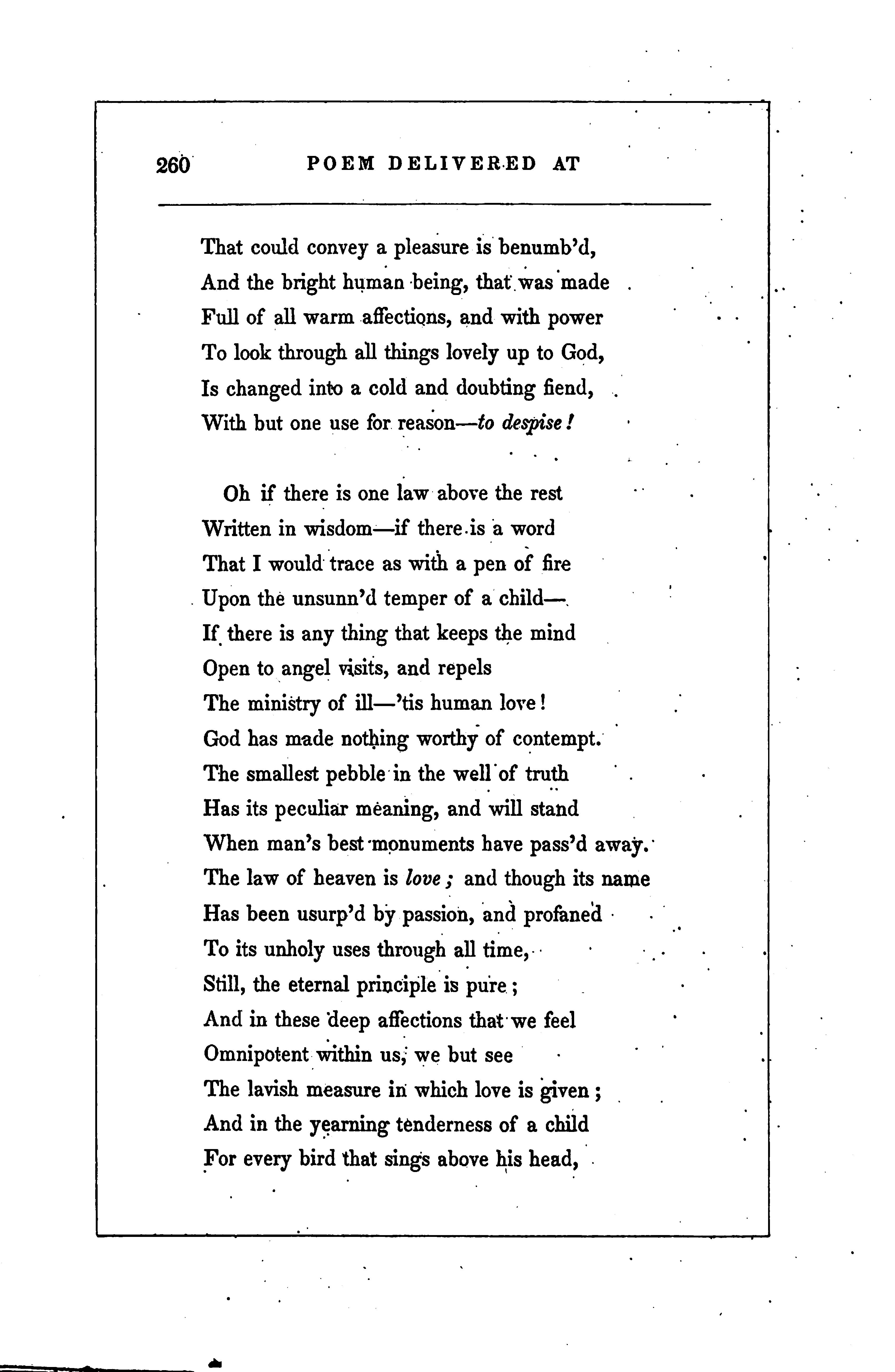

And every creature feeding on the hills, And every tree, and flower, and running brook, We see how every thing was made to love, And howthey err, who, in a world like this, Find any thing to hate but human pride !
Oh, if we are not bitterly deceived- ·
If this familiar spirit that communes With yours this hour-that has the power to search All things but its own compass is a spark
Struck from the burning essence of its God If, as we dream, in every radiant star
We see a shining gate through which the soul, In its degrees of being, will ascendIf, whenthese weary organs drop away, We shall forget their uses, and commune With angels and each other, as the stars
Mingle their light, in silence and in loveWhat is this fleshly fetter of a day That we should bind it with immortal flowers!
How do we ever gaze upon the sky, And watchthe lark soar up till he is lost, And turnto our poor perishing dreams away, Without one tear for our imprison'd. wings!
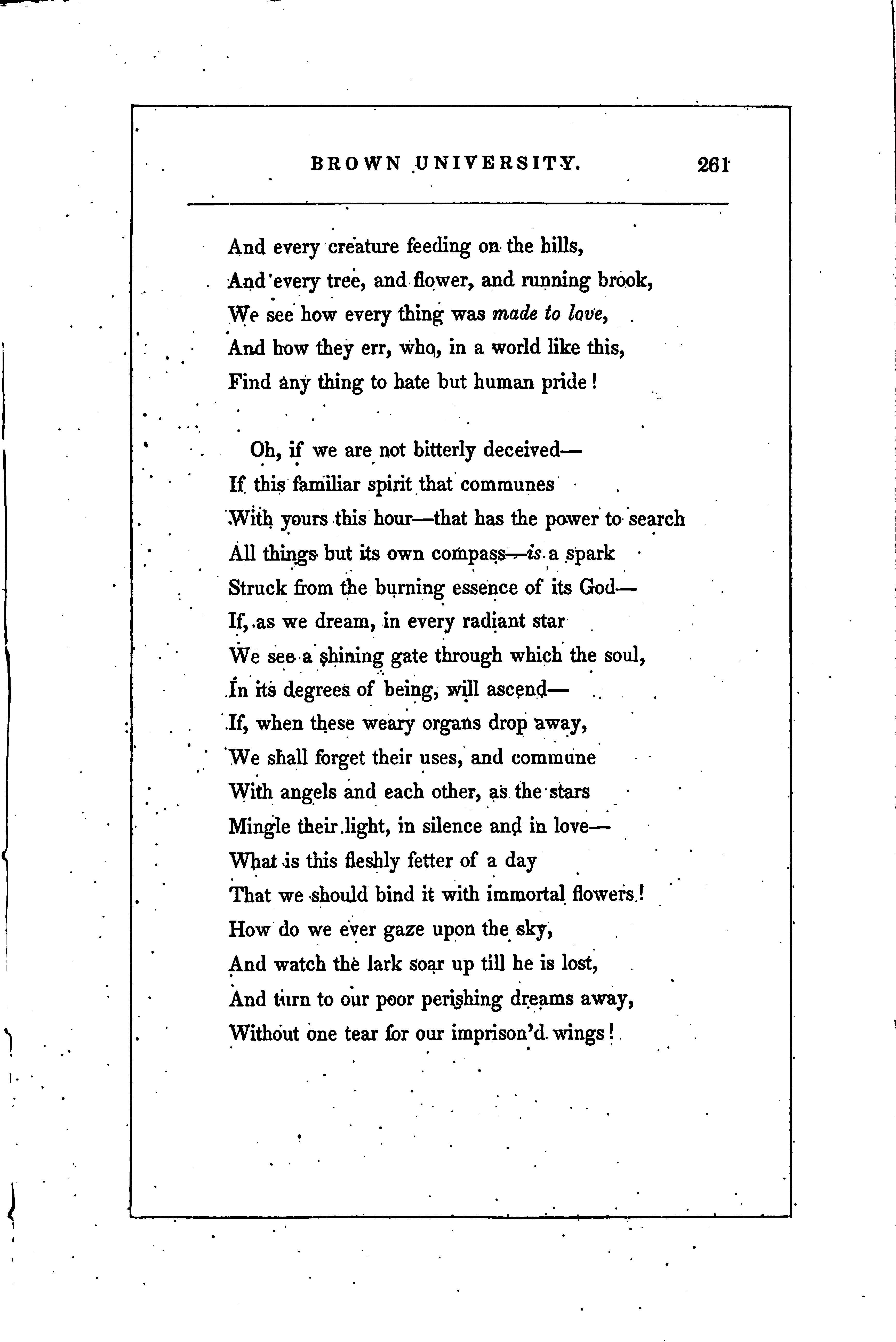

[A
THERE'S Something in a noble boy, A brave, free-hearted, careless one, With his uncheck'd, unbidden joy, His dread of books and love of fun, And in his clear and ready smile, Unshaded by a thought of guile, And unrepress'd by sadnessWhich brings me to my childhood back, As if I trod its very track, And felt its very gladness. And yet it is not in his play, When every trace of thought is lost, And not when you would call him gay, That his bright presence thrills me most. His shout may ring upon the hill, His voice be echoed inthe hall, His merry laugh like music trill, And I unheeding hear it all
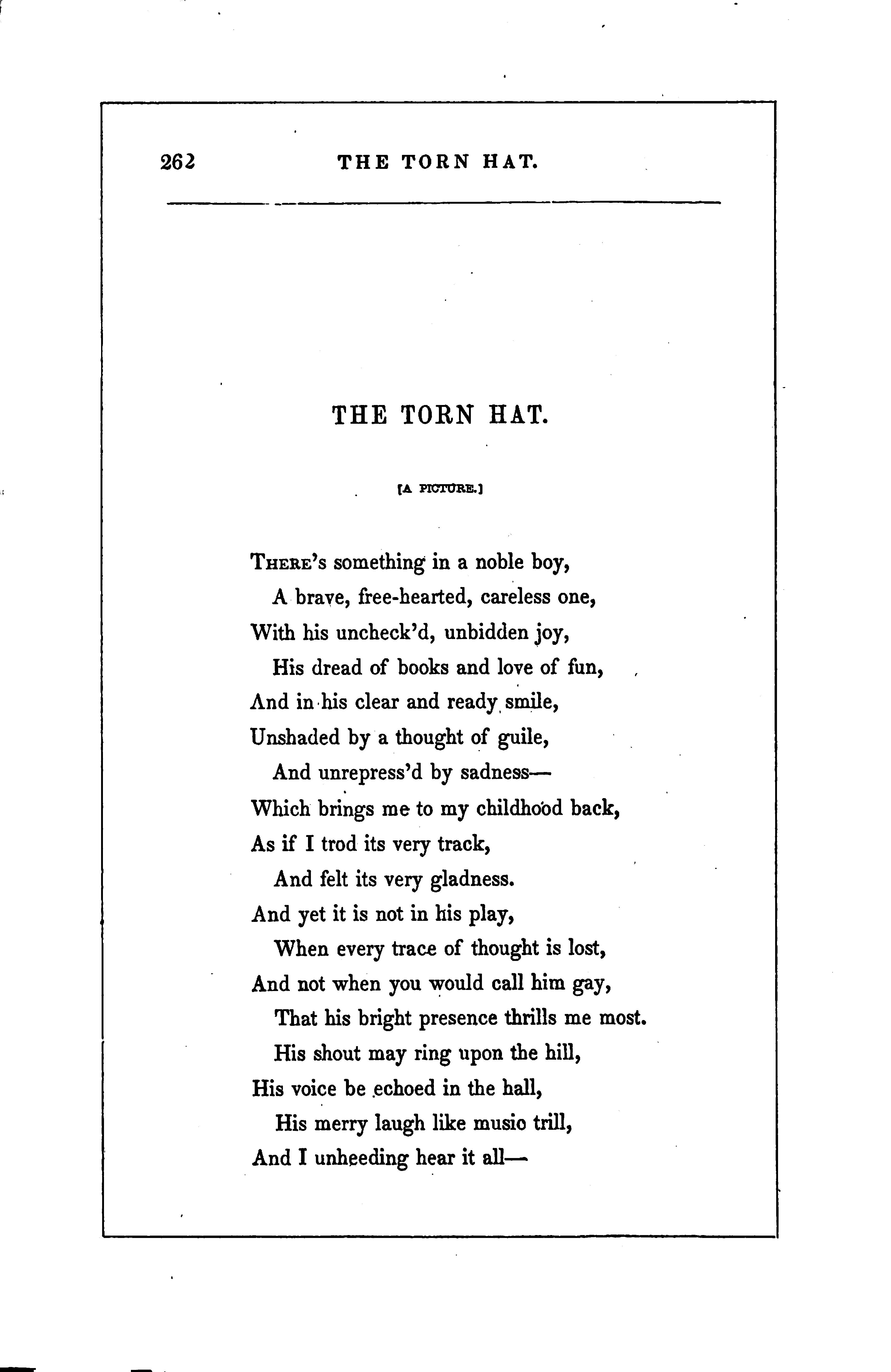

For, like the wrinkles on my brow, I scarcely notice such things nowBut when, amid the earnest game, He stops, as if he music heard, And, heedless of his shouted name As ofthe carol of a bird, Stands gazing on the empty air
As if some dream were passing there 'Tis then that on his face I look, His beautiful but thoughtful face, And, like a long-forgotten book, Its sweet, familiar meaning traceRemembering a thousand things Which pass'd me on those golden wings, Which time has fettered now Things that came o'er me with a thrill, And left me silent, sad, and still, And threw upon my brow
A holier and a gentler cast, That was too innocent to last.
'Tis strange how thought upon a child Will, like a presence, sometimes press And when his pulse is beating wild, And life itself is in excessWhen foot and hand, and ear and eye, Are all with ardour straining high-
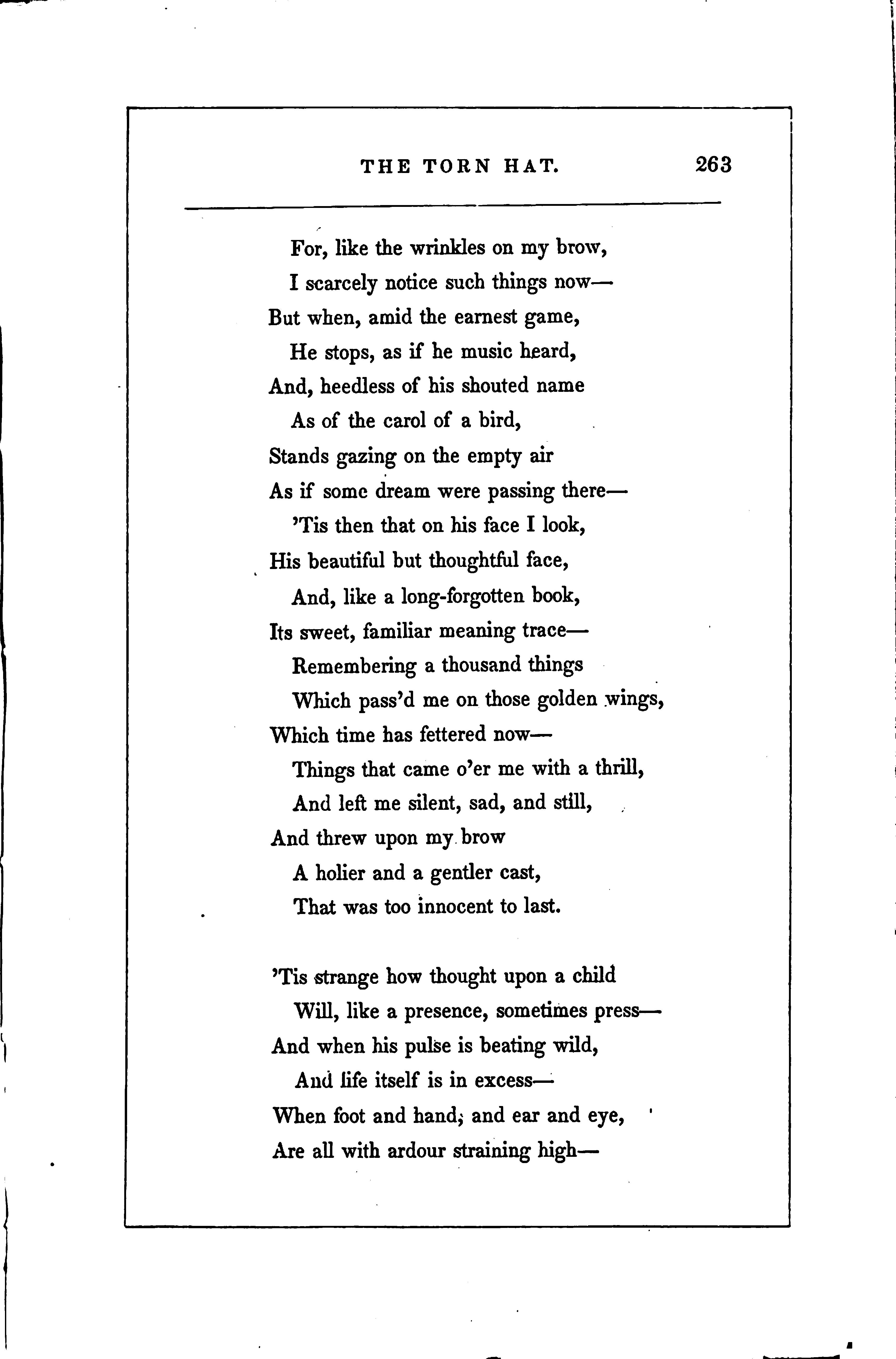

How in his heart will spring
A feeling, whose mysterious thrall Is stronger, sweeter far than all; And, on its silent wing, How with the clouds he'll float away, As wandering and as lost asthey!
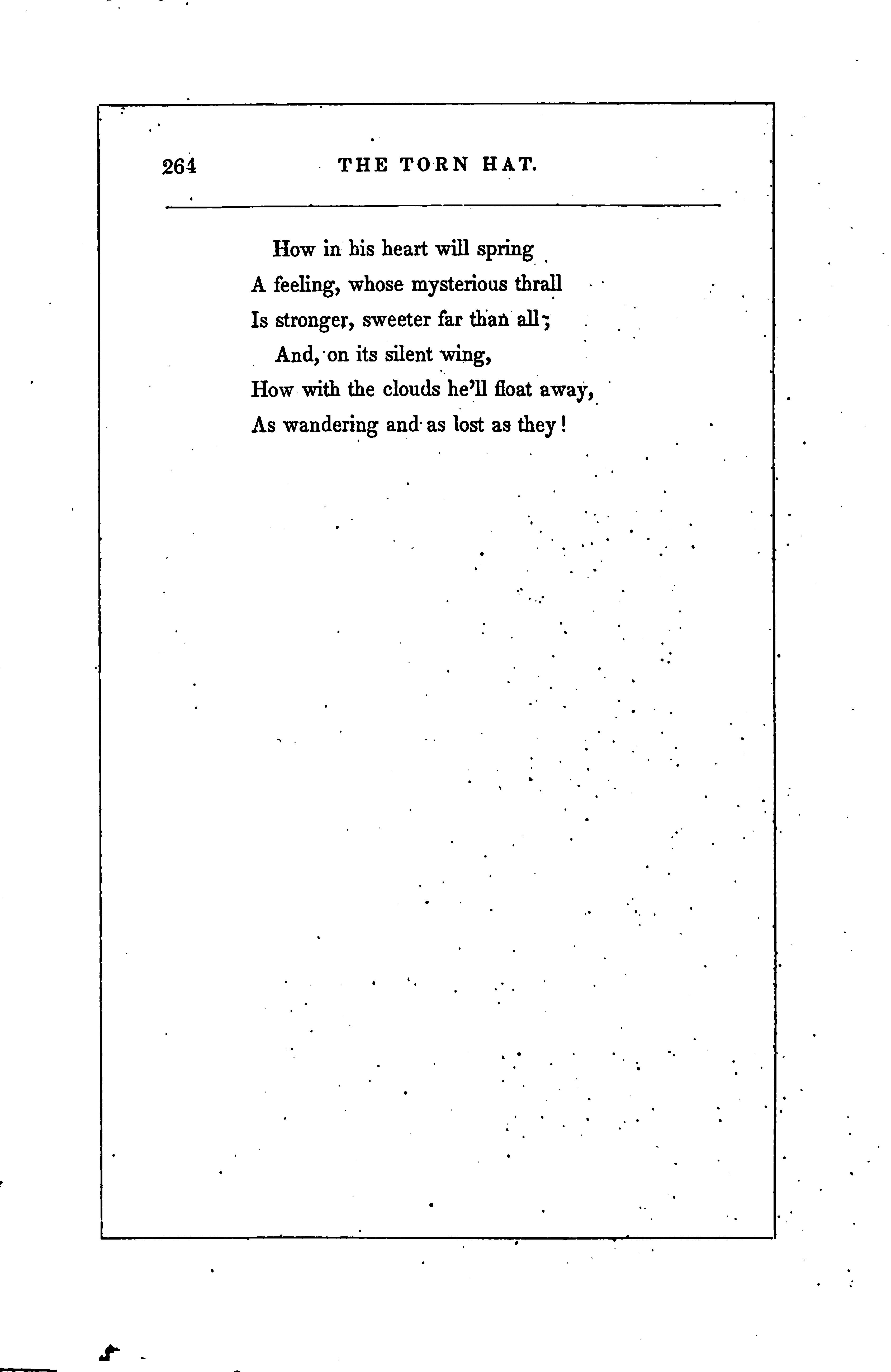

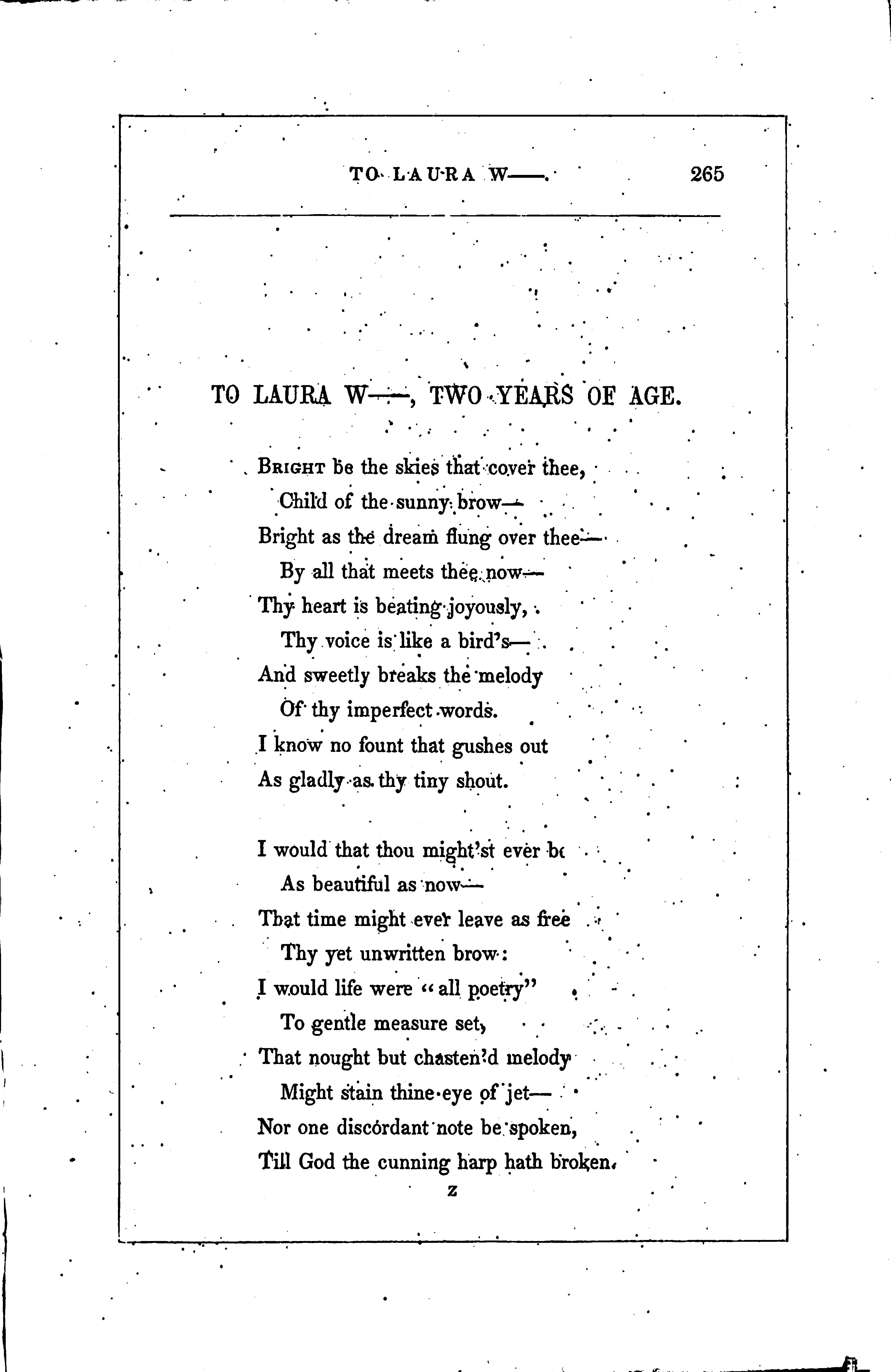
BRIGHT be the skies that cover thee, Child of the sunny brow- · Bright as the dream flung over thee . By all that meets thee nowThy heart is beatingjoyously,. Thy voice is like a bird'sAnd sweetly breaks the melody Of thy imperfect words.
I know no fount that gushes out As gladly as.thy tiny shout.
I would that thou might'st ever be As beautiful as now
That time might ever leave as free Thy yet unwritten brow: I would life were " all poetry" To gentle measure set, That nought but chasten'd melody Might stain thine eye of jetNor one discórdant note be spoken, Till God the cunning harp hath broken.

I would-but deeper things than these With woman's lot are wove : Wrought of intensest sympathies, And nerved by purest love
By the strong spirit's discipline, By the fierce wrong forgiven, By all that wrings the heart of sin, Is woman won to heaven.
"Her lot is on thee," lovely child God keep thy spirit undefiled!
I fear thy gentle loveliness, Thy witching tone and air, Thine eye's beseeching earnestness May be to thee a snare.
The silver stars may purely shine, The waters taintless flow-
But they who kneel at woman's shrine, Wreathe poisons as they bowShe may fling back the gift again, But the crush'd flower will oftenest stain.
What shall preserve thee, beautiful child ? Keep thee as thou art now?
Bringthee, a spirit undefiled, At God's pure throne to bow?.
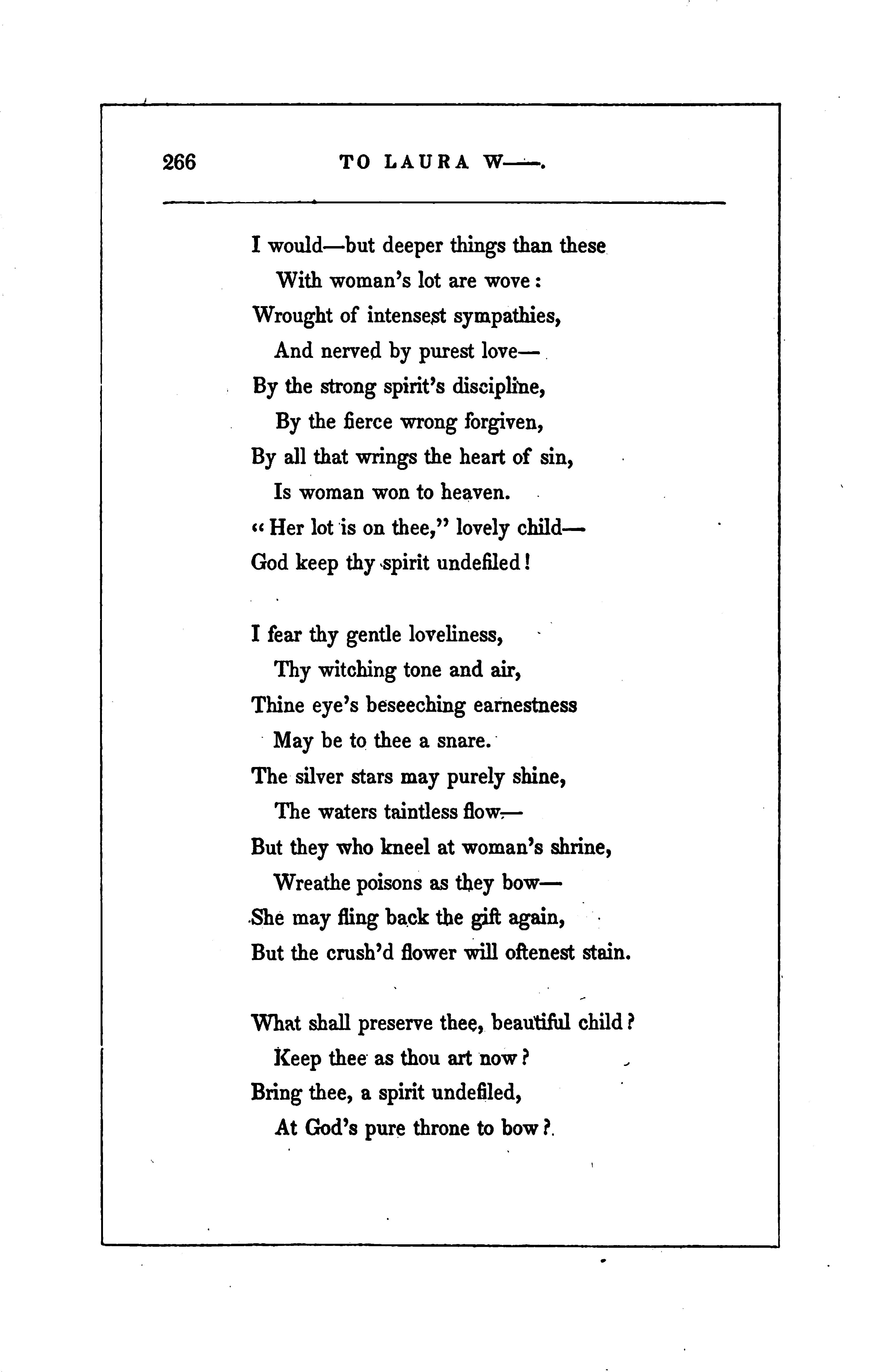

The world is but a broken reed, And life grows early dimWho shall be near thee in thy need, To lead thee up to Him? He, who himself was "undefiled ?" With Him we trust thee, beautiful child!
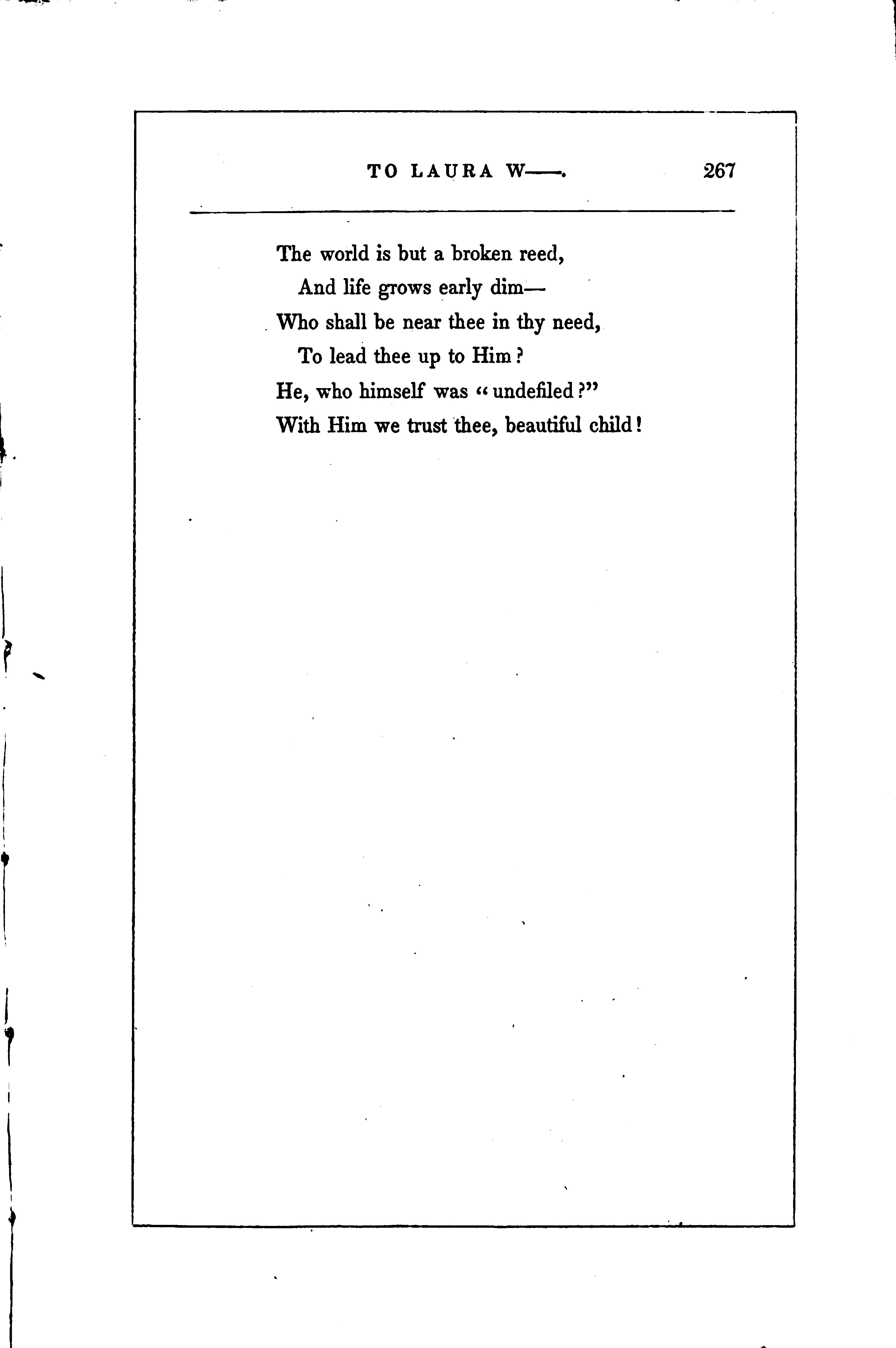

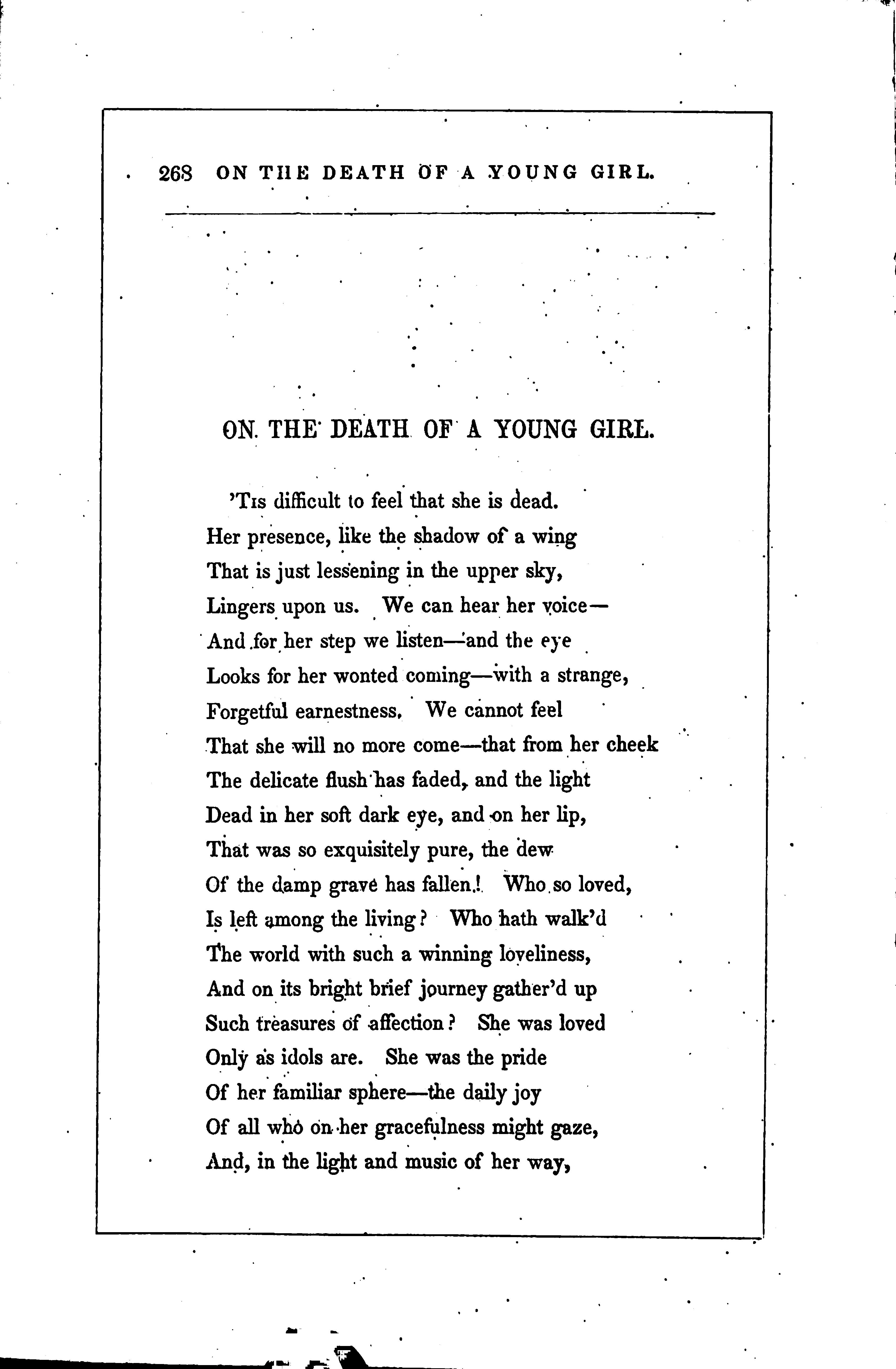
'Tis difficult to feel that she is dead. Her presence, like the shadow of a wing That is just lessening in the upper sky, Lingers upon us. We can hear her voiceAnd for her step we listen-and the eye Looks for her wonted coming-with a strange, Forgetful earnestness, We cannot feel That she will no more come-that from her cheek The delicate flush has faded, and the light Dead in her soft dark eye, and on her lip, That was so exquisitely pure, the dew Of the damp grave has fallen.! Who so loved, Is left among the living? Who hath walk'd The world with such a winning loveliness, And on its bright briefjourney gather'd up Such treasures of affection? She was loved Only as idols are. She was the pride Of her familiar sphere-the dailyjoy Of all who on her gracefulness might gaze, And, in the light and music of her way,

Have a companion's portion. Who could feel, While looking upon beauty such as hers, That it would ever perish ? It is like The melting of a star into the sky While you are gazing on it, or a dream In its most ravishing sweetness rudely broken.1
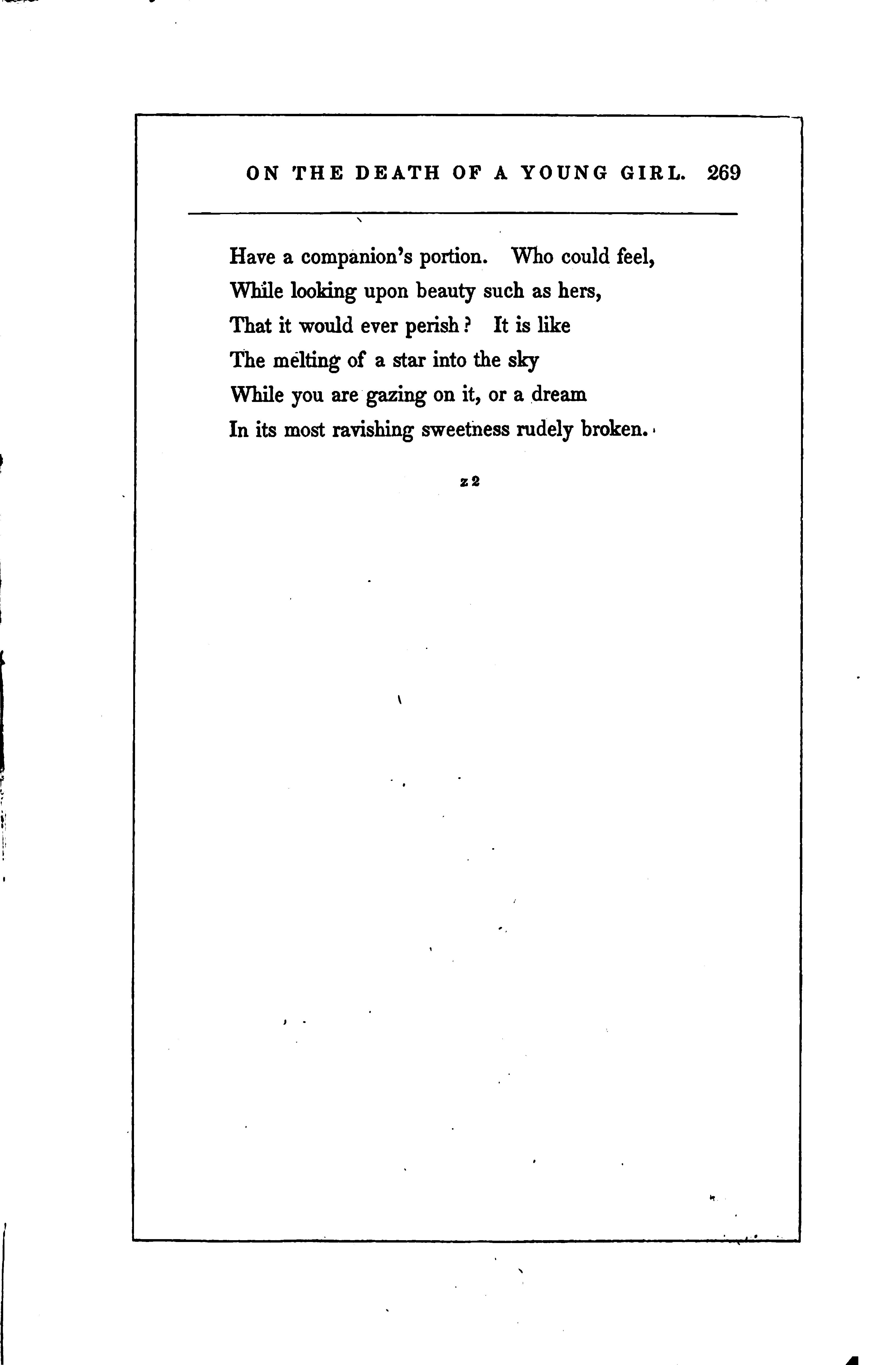

, the merry May has pleasant hours, And dreamily they glide, As if they floated like the leaves
Upon a silver tide; The trees are full of crimson buds, And the woods are full of birds, And the waters flow to music, . Like a tune with pleasant words.
The verdure of the meadow-land Is creeping tothe hills, The sweet, blue-bosom'd violets
Are blowing by the rills; The lilach has a load of balm
For every wind that stirs, And the larch stands green and beautiful Amid the sombre firs.
There's perfume upon every windMusic in every tree-
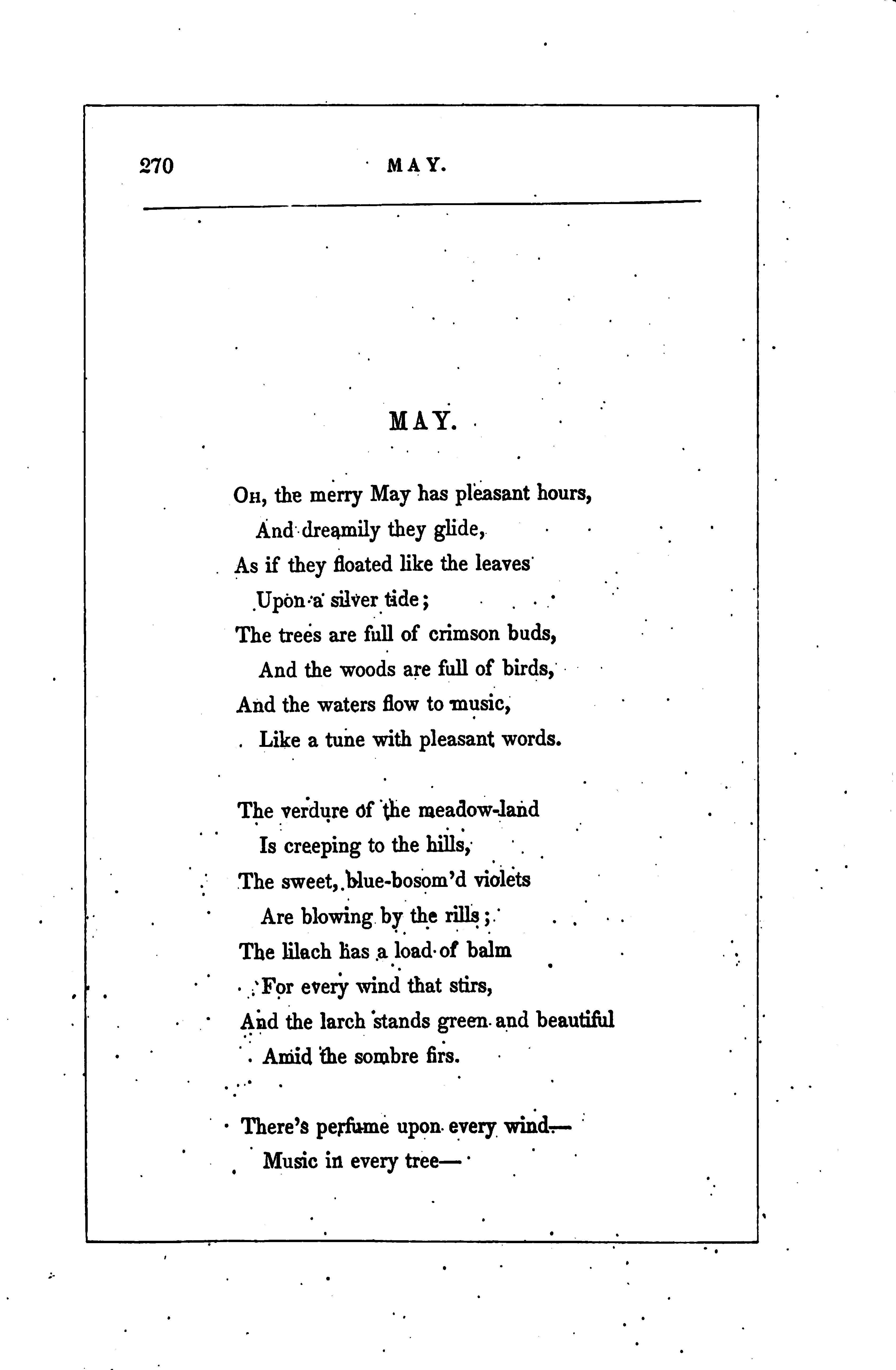

Dews for the moisture-loving flowersSweets for the sucking bee: The sick come forth for the healing South, The young are gathering flowers ; And life is a tale of poetry, That is told by golden hours.
It must be a true philosophy, That the spirit when set free Still lingers about its olden home, In the flower and the tree, For the pulse is stirr'd as with voices heard In the depth of the shady grove, And while lonely we stray through the fields away The heart seems answering love.
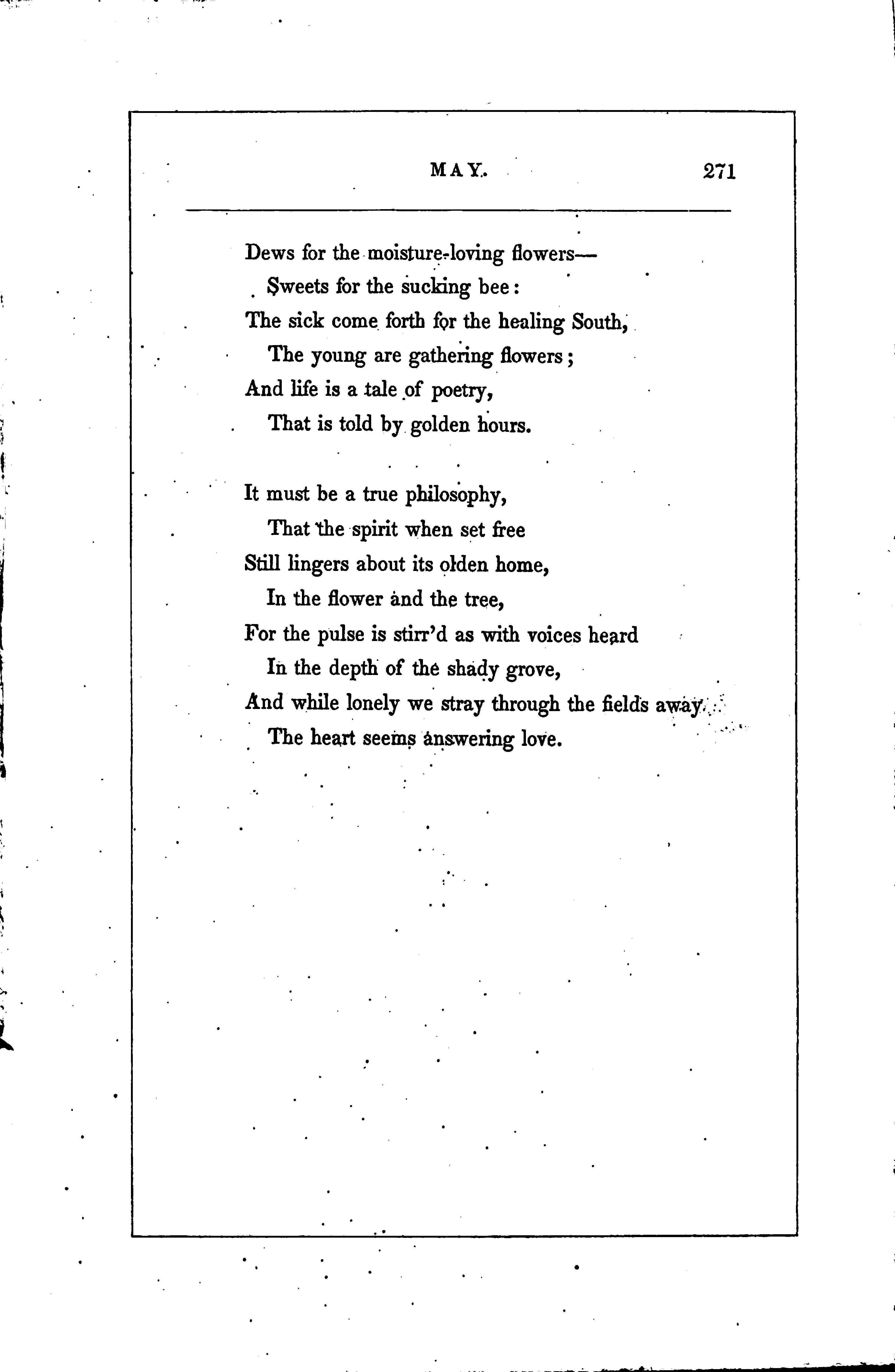

ALONE! alone ! How drear it is Always to be alone !
In such a depth of wilderness, The only thinking one ! The waters in their path rejoice, The trees together sleepBut I have not one silver voice Upon my ear to creep !
The sun uponthe silent hills His mesh of beauty weaves, There's music in the laughing rills And in the whispering leaves. The red deer like the breezes fly
To meet the bounding roe, But I have not a human sigh
To cheer me as I go.
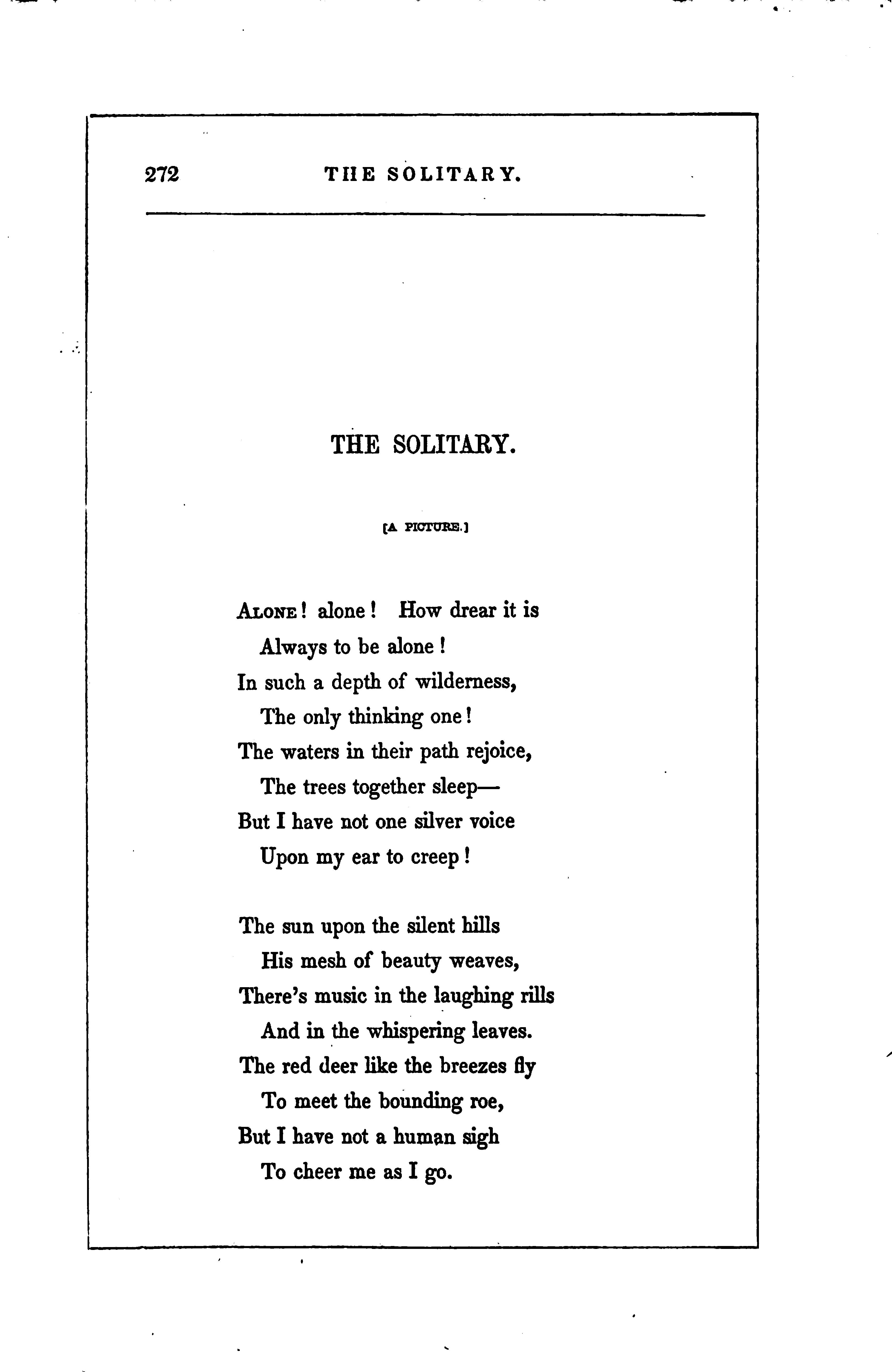

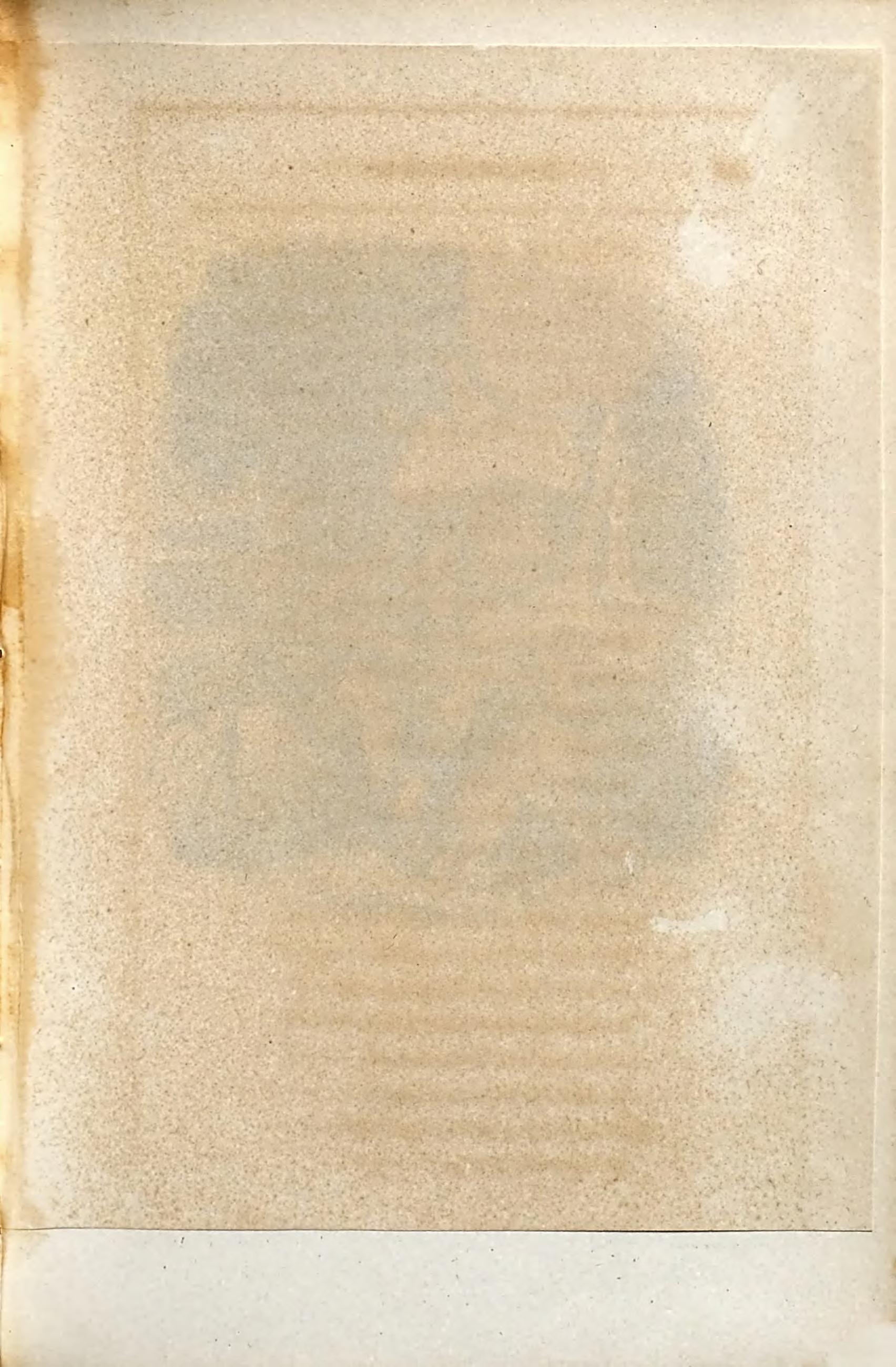

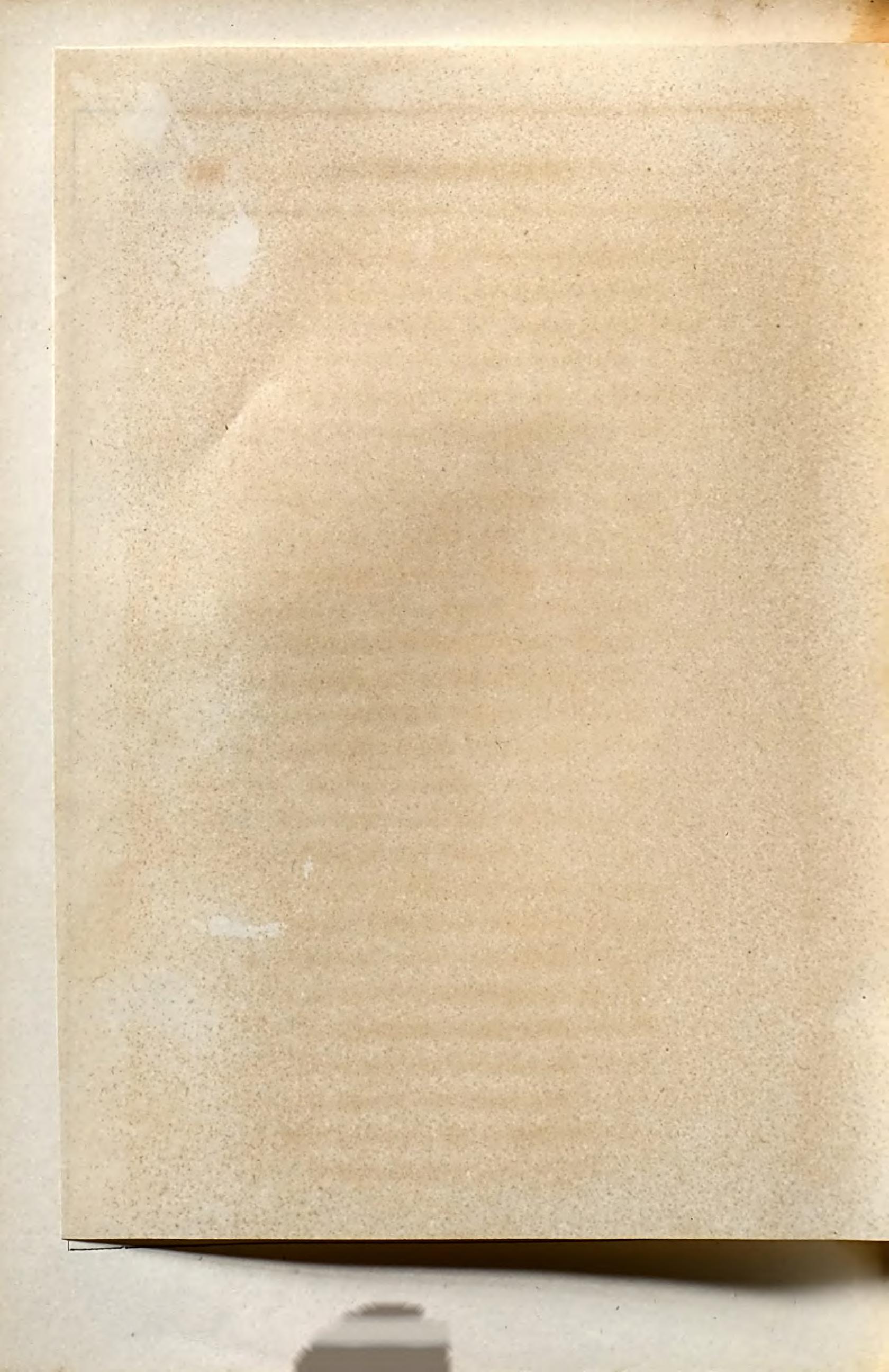

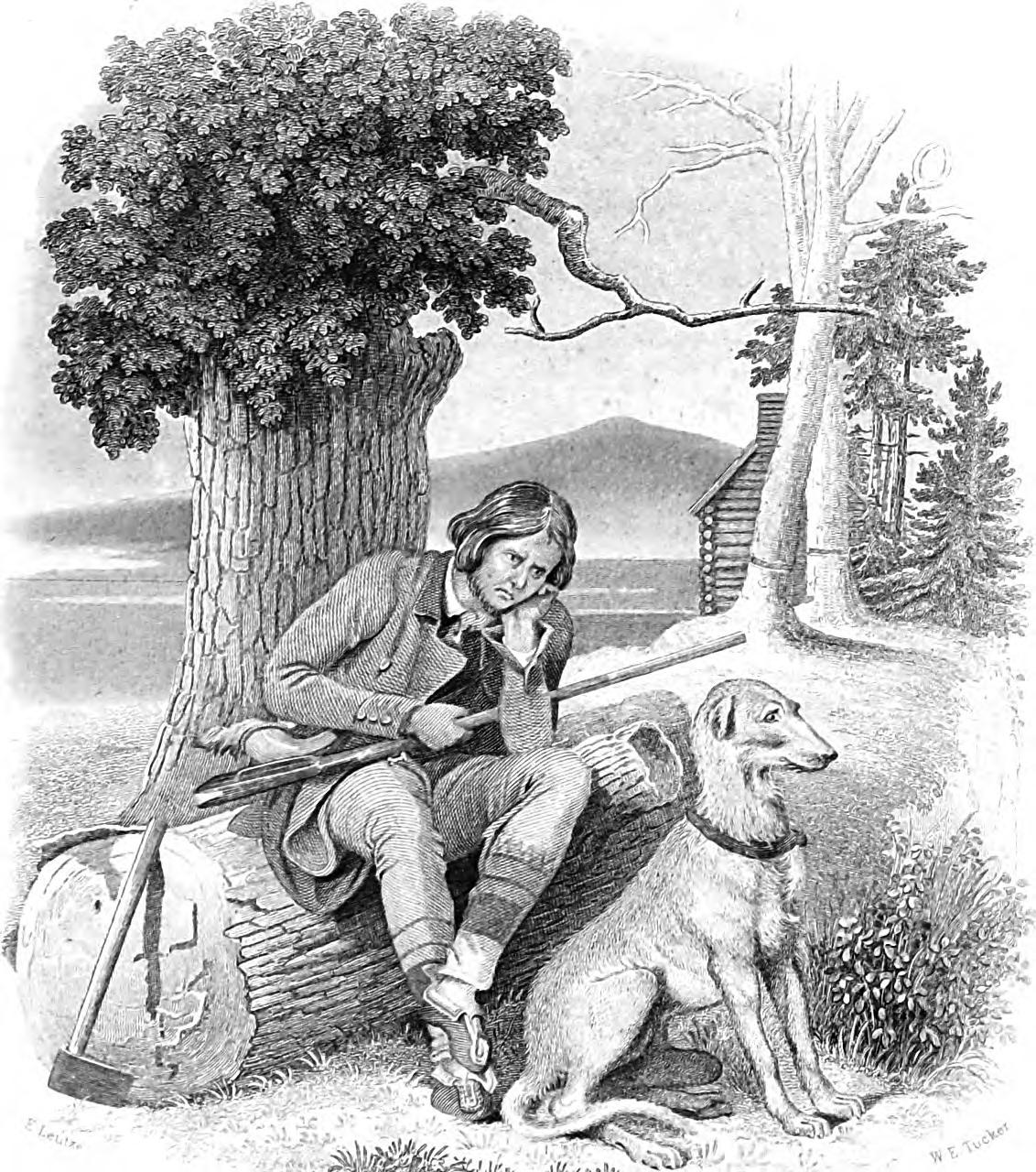
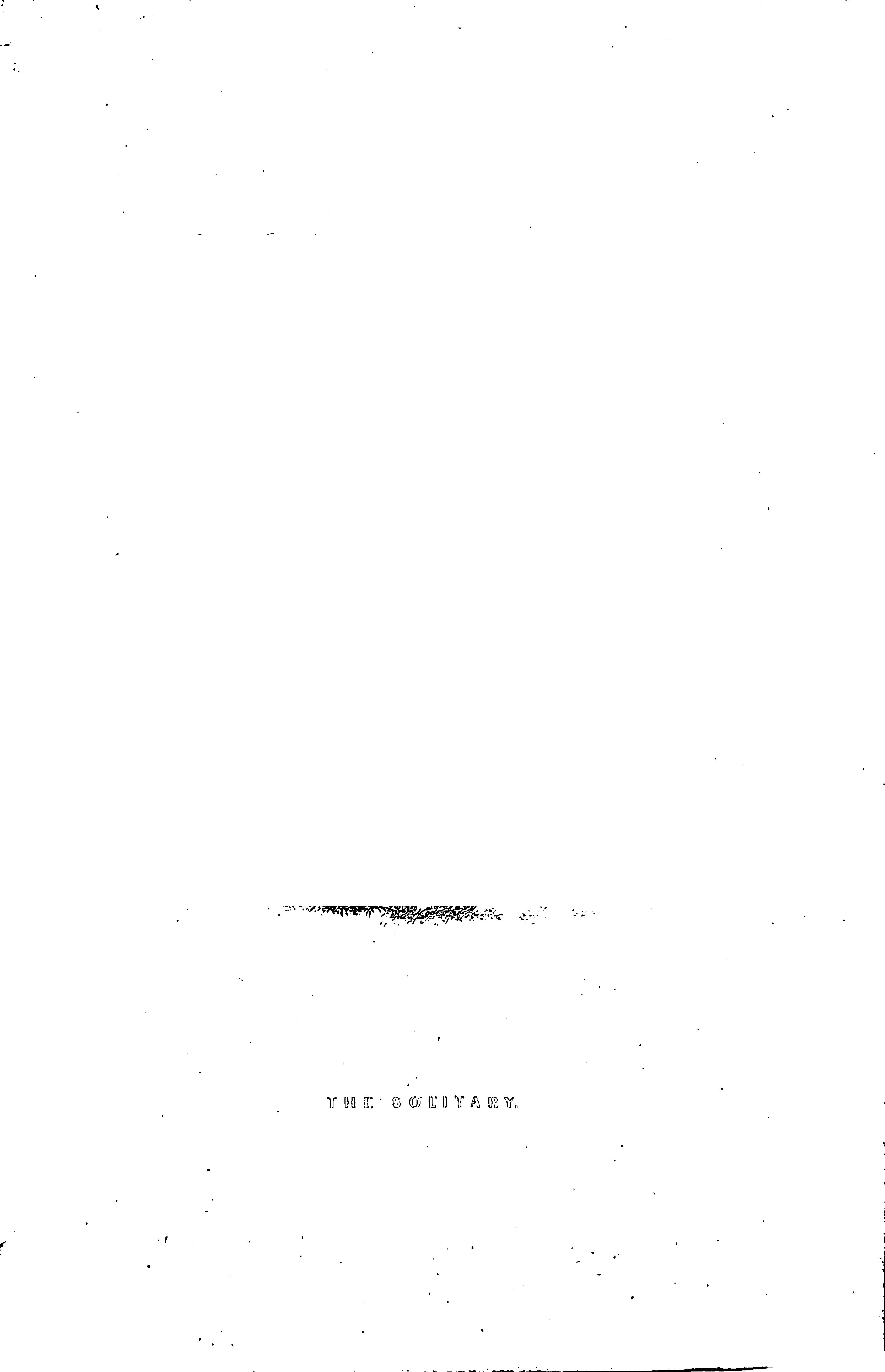
 ELeutze
ELeutze
10 NO 1900 MUSEUM
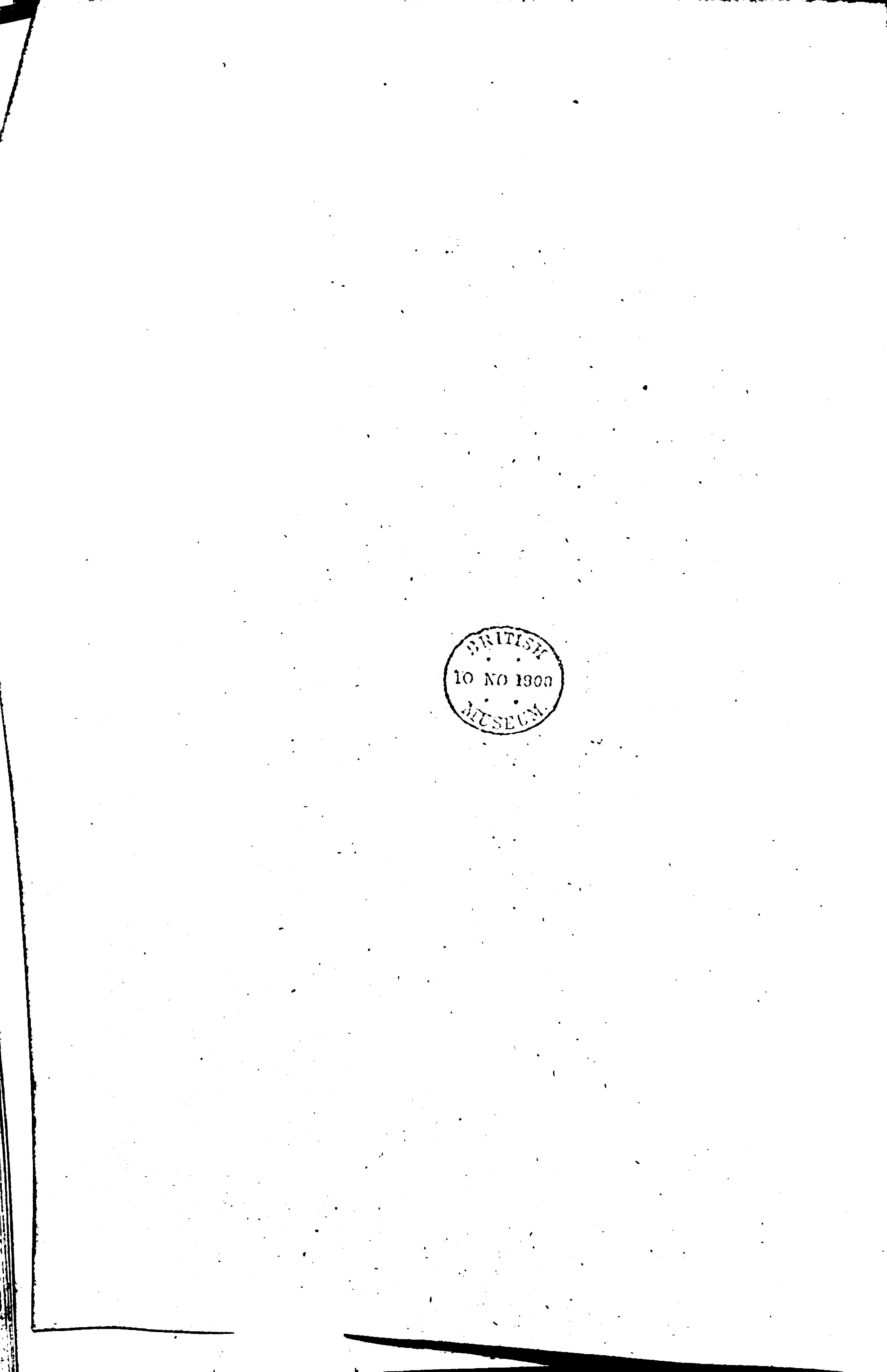

I've hated men-I hate them nowBut, since they are not here, Ithirst for the familiar brow Thirst for the stealing tear. And I should love to see the one, And feel the other creep, And then again I'd be alone Amid the forest deep.
I thought that I should love my houndHear my resounding gun, Till I forgot the thrilling sound Of voices-one by one. I thought that in the leafy hush Of nature they would die ; But as the hinder'd.waters rush, Resisted feelings fly.
I'm weary of my lonely hut And of its blasted tree, The very lake is like my lot, So silent constantly. I've lived amid the forest gloom Until I almost fear-When will the thrilling voices come My spirit thirsts to hear?
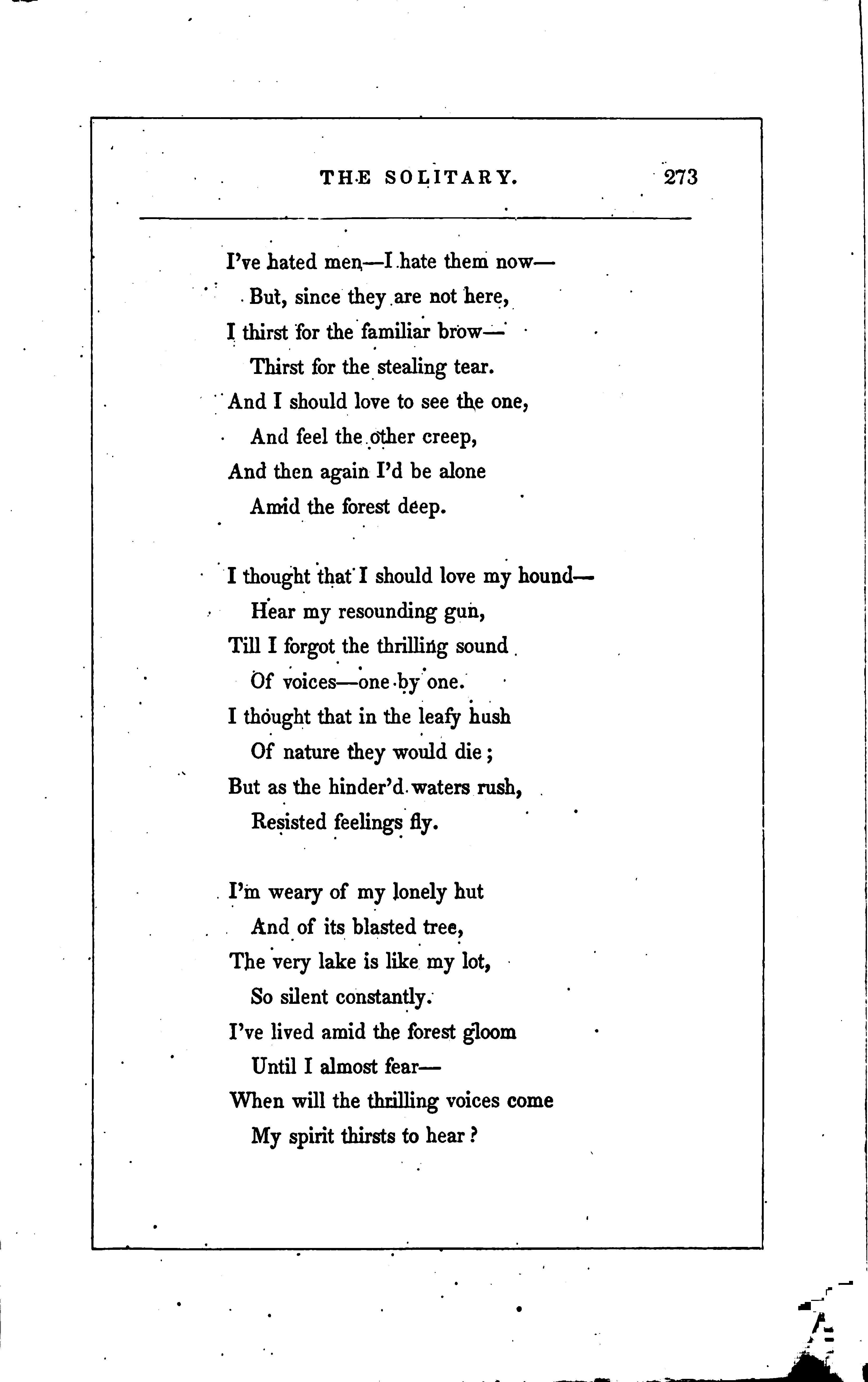

STORM had been on the hills. The day had worn
As if a sleep upon the hours had crept ; And the dark clouds that gather'd at the morn In dull, impenetrable masses slept ; And the wet leaves hung droopingly, and all Was like the mournful aspect of a pall. Suddenly, on the horizon's edge, a blue And delicate line, as of a pencil, lay, And, as it wider and intenser grew, The darkness removed silently away, And, with the splendour of a God, broke through
The perfect glory of departing day : So, when his stormy pilgrimage is o'er, Will light upon the dying Christian pour.
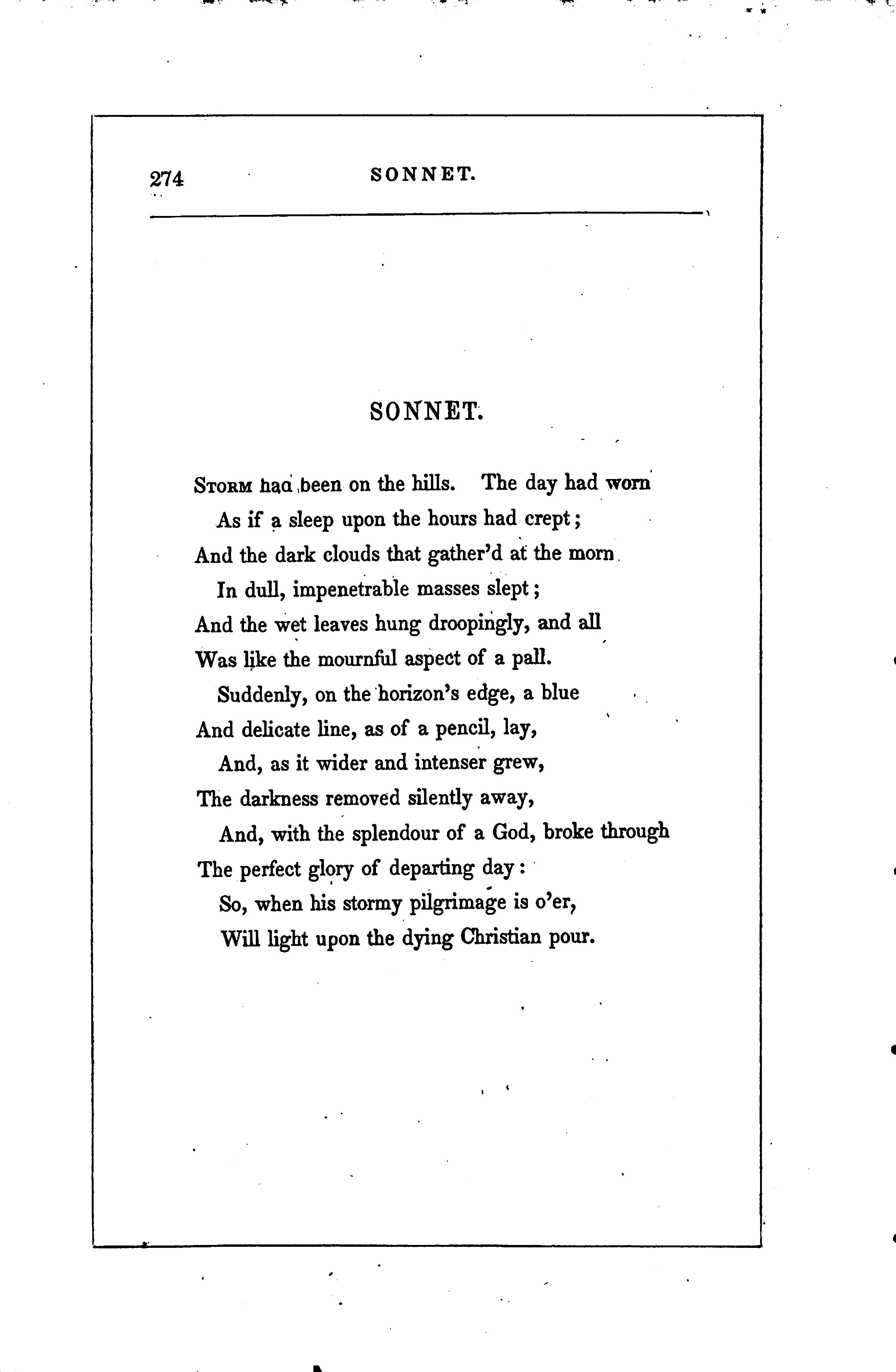

ACROSTIC-SONNET.
ELEGANCE floats about thee like a dress, Melting the airy motion of thy form Into one swaying grace ; and loveliness, Like a rich tint that makes a picture war n, Is lurking in the chestnut of thy tress, Enriching it, as moonlight after storm Mingles dark shadows into gentleness.
A beauty that bewilders like a spell Reigns in thine eye's clear hazel, and thy brow, So pure in vein'd transparency, doth tell How spiritually beautiful art thou
A temple where angelic love might dwell. Life in thy presence were a thing to keep, Like a gay dreamer clinging to his sleep.
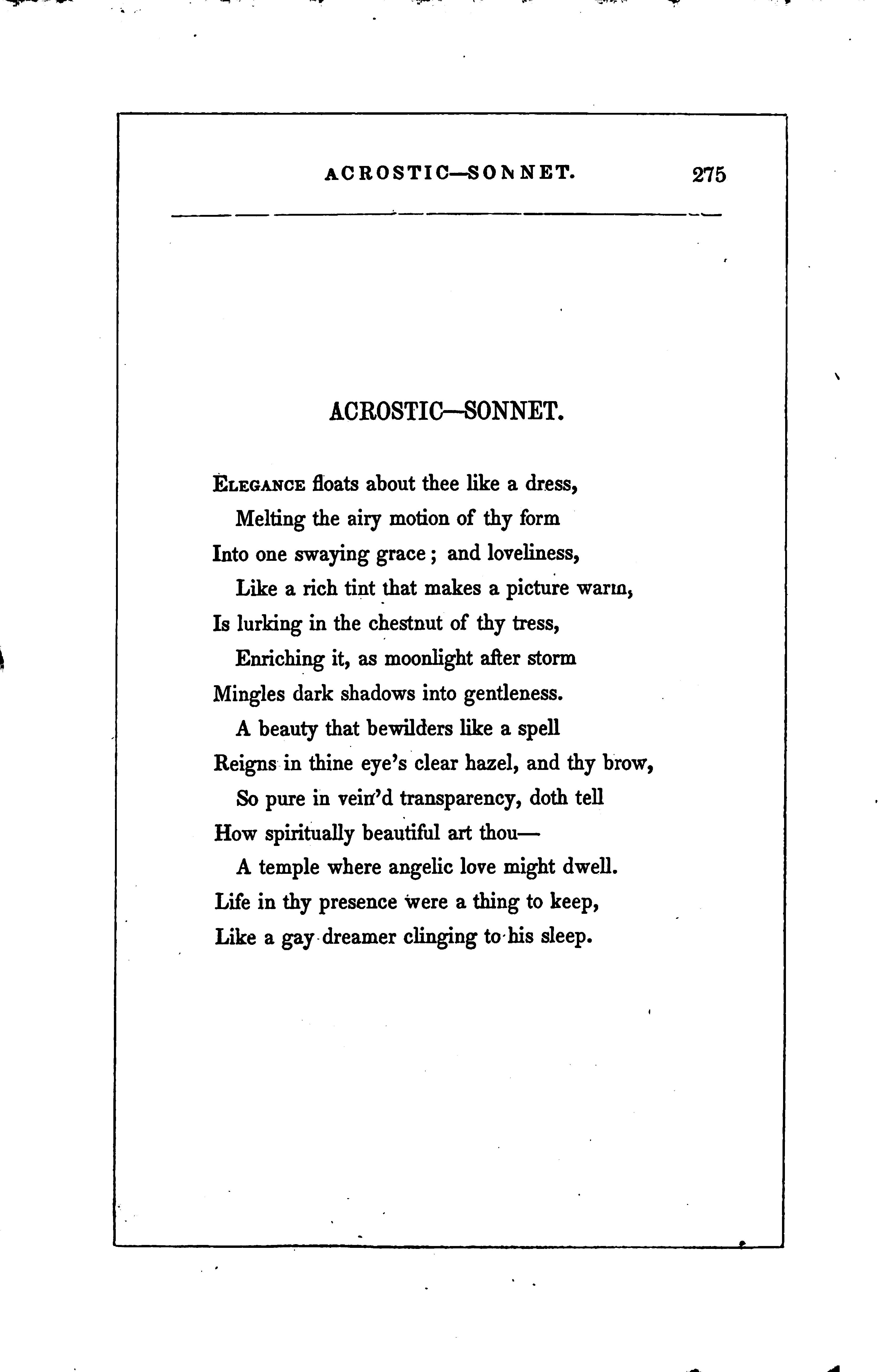

[A
Wofor my vine-clad home! That it should ever be so dark to me, With its bright threshold and its whispering tree! That I should ever come, Fearing the lonely echo of a tread Beneath the roof-tree of my glorious dead !
Lead on, my orphan boy!
Thy home is not so desolate to theeAnd the low shiver in the linden tree May bring to thee ajoy.; But oh, how dark is the bright home before thee, To her who with ajoyous spirit bore.thee !
Lead on! for thou art now
My sole remaining helper. God hath spoken, And the strong heart I lean'd upon is broken ; And I have seen his browThe forehead of my upright one, and just Trod bythe hoof of battle in the dust.
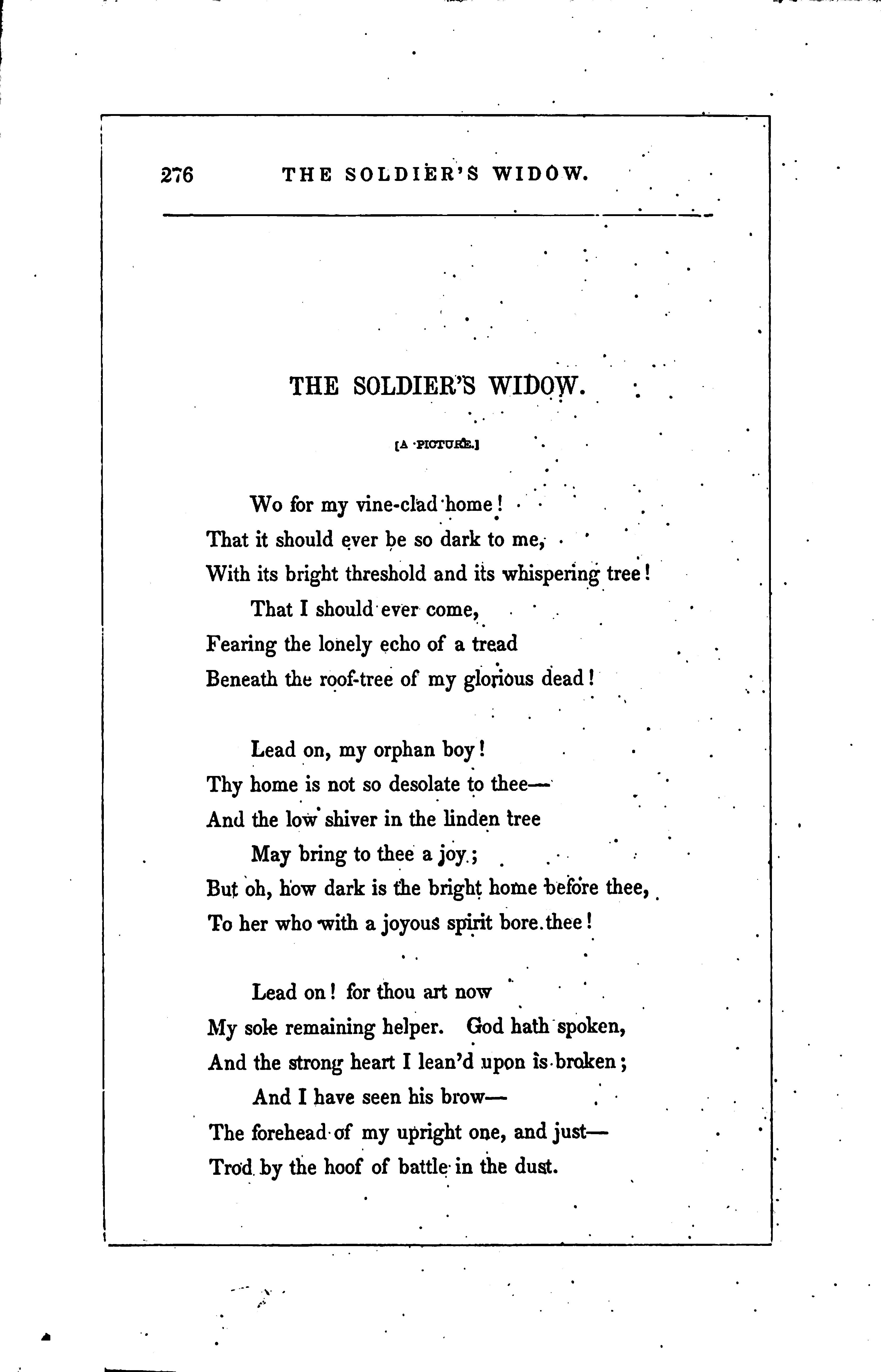

He will not meet thee there
Who blest thee at the eventide, my son! And when the shadows of the night steal on, He will not call to prayer.
The lips that melted, giving thee to God, Are in the icy keeping of the sod !
Ay, my own boy! thy sire
Is with the sleepers of the valley cast, And the proud glory of my life hath pass'd
With his high glance of fire. Wo that the linden and the vine should bloom, And a just man be, gather'd to the tomb!
Why-bear them proudly, boy!
It is the sword he girded to his thigh
It is the helm he wore in victory-
And shall we have no joy?
For thy green vales, oh Switzerland, he died !
I will forget my sorrow in my pride ! 2A
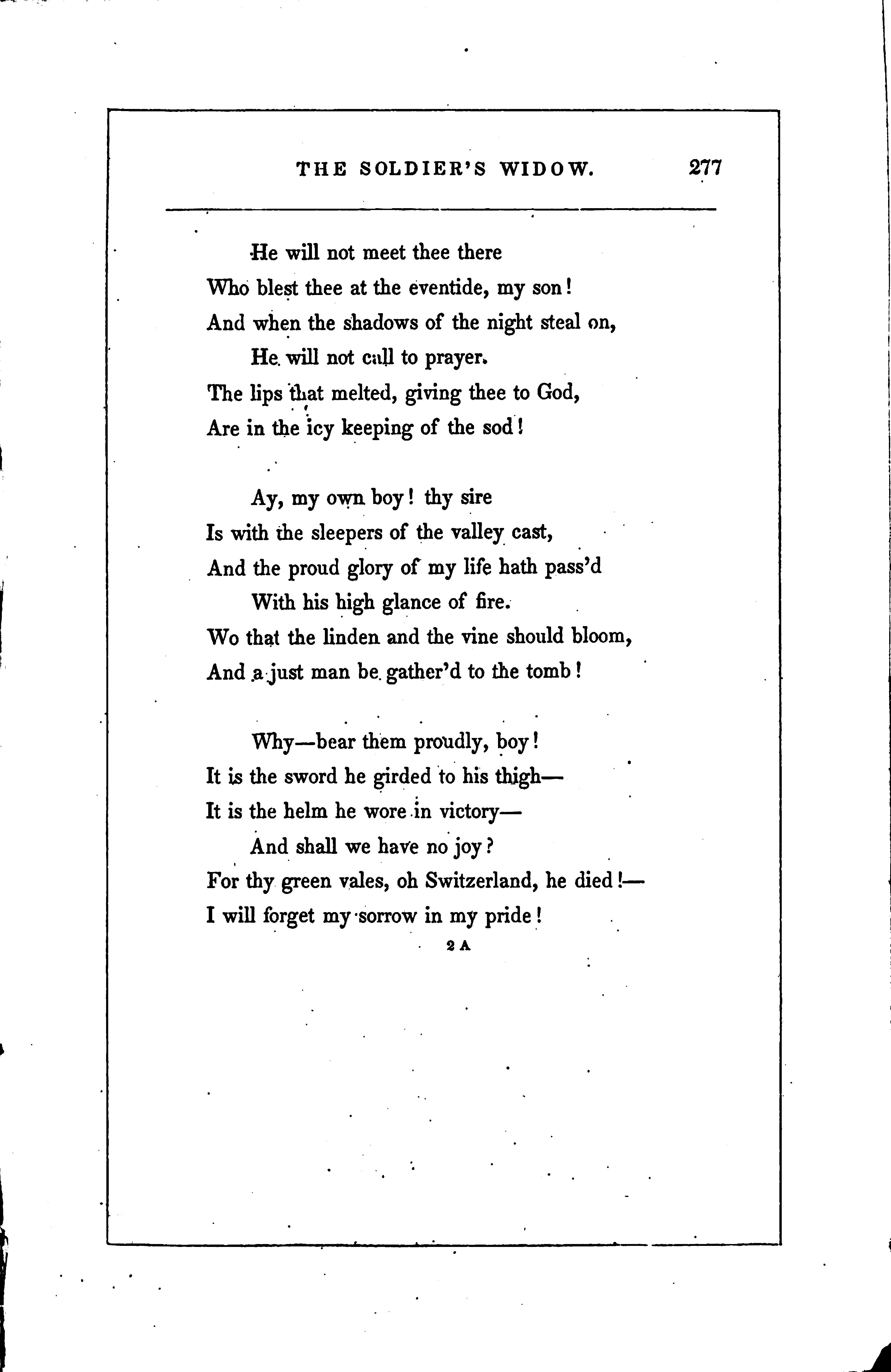

THE evening star will twinkle presently. The last small bird is silent, and the bee Has gone into his hive, and the shut flowers Are bending as if sleeping on the stem, And all sweet living things are slumbering In the deep hush of nature's resting time. The faded West looks deep, as if its blue Were searchable, and even as I look, The twilight hath stole over it, and made Its liquid eye apparent, and above To the far-stretching zenith, and around, As if they waited on her like a queen, Have stole out th' innumerable stars To twinkle like intelligence in heaven, Is it not beautiful, my fair Adel ? Fit for the young affections to come out And bathe in like an element! How well The night is made for tenderness-so still That the low whisper, scarcely audible, Is heard like music, and so deeply pure
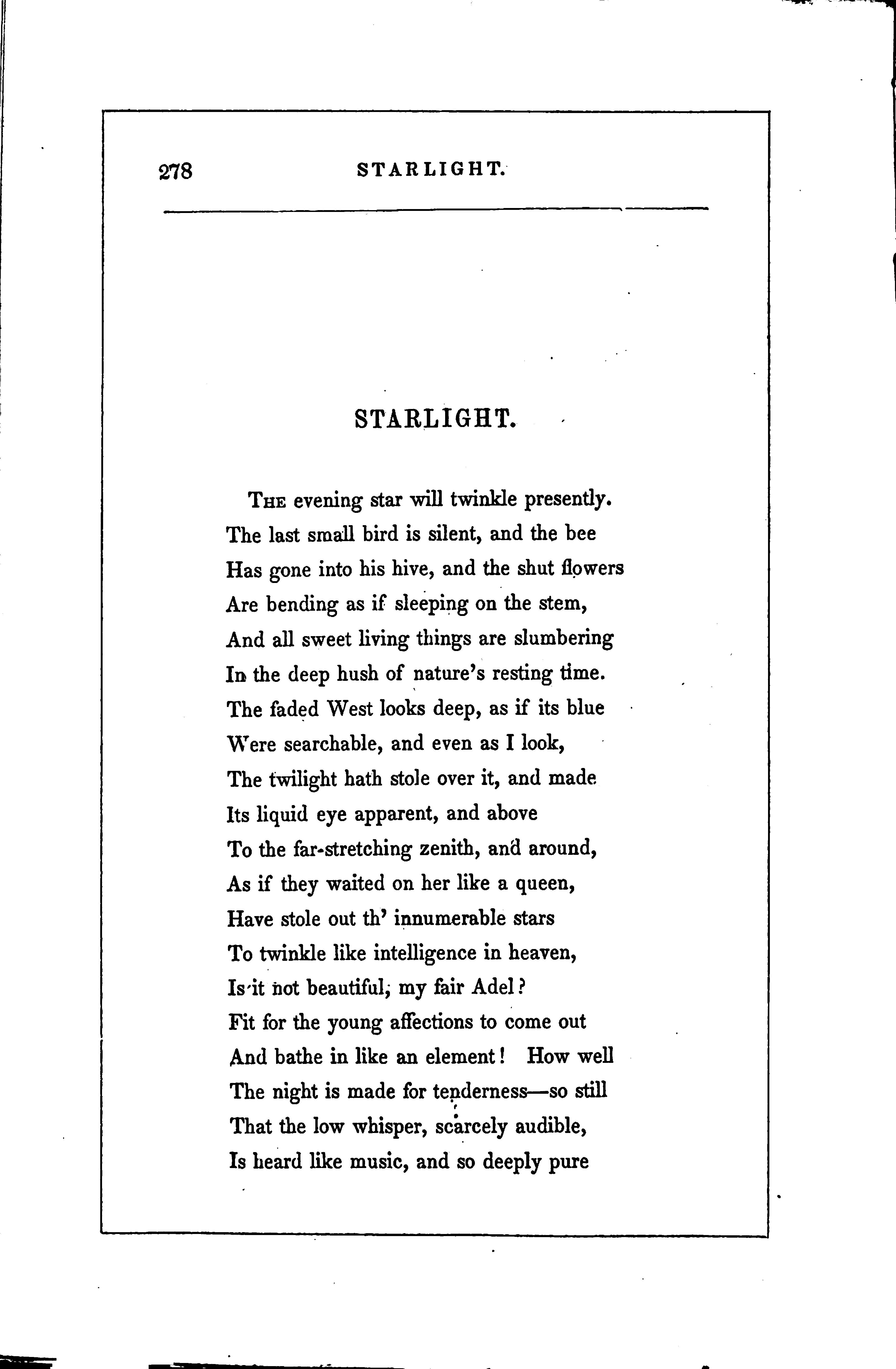

That the fond thought is chasten'd as its springs And onthe lip made holy. Thy heart, my gentle girl ! Ihave won but it hath been When that soft eye was on me, and the love I told beneath the evening influence Shall be as constant as its gentle star.
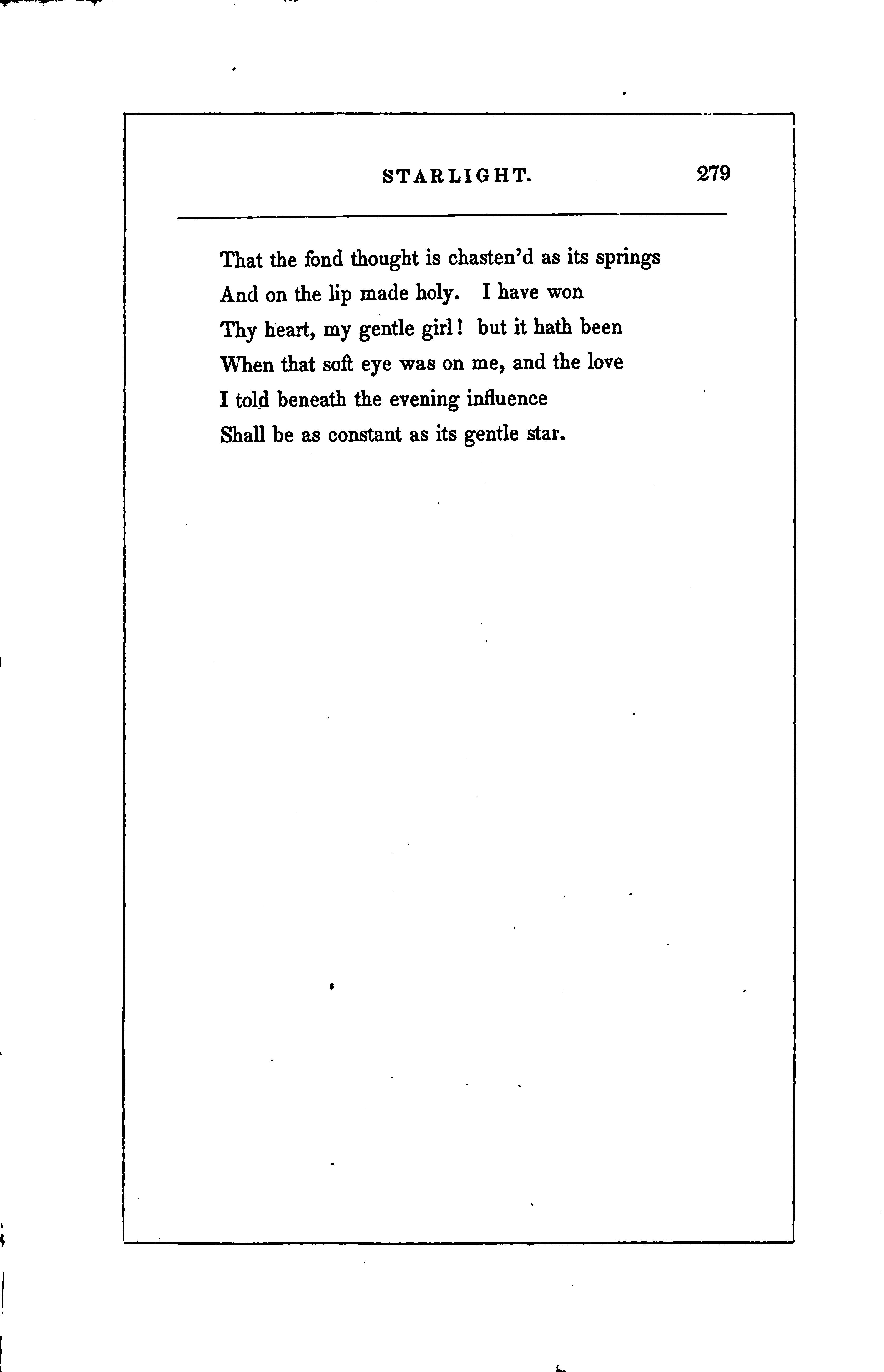

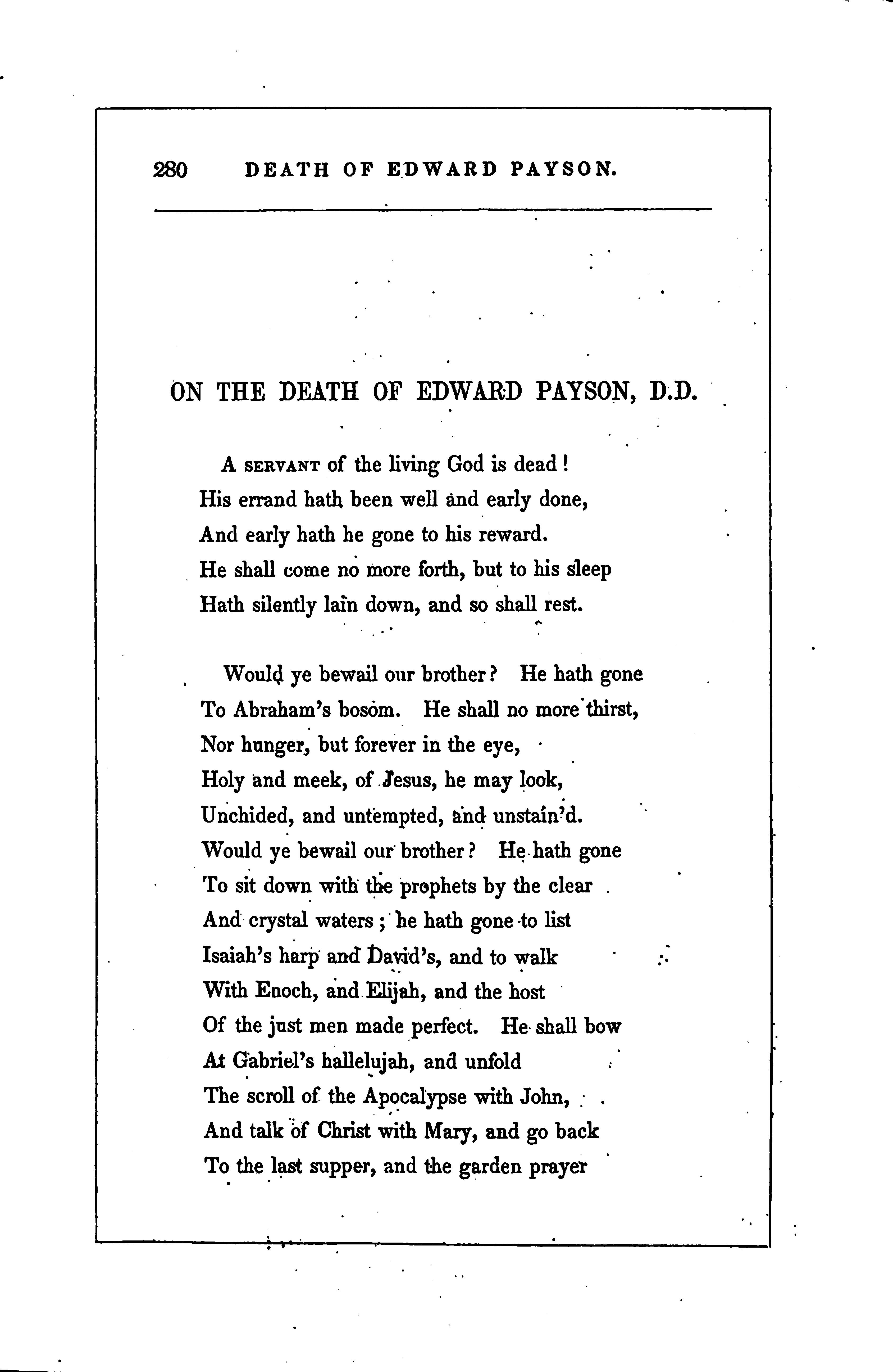
A SERVANT of the living God is dead !
His errand hath been well and early done, And early hath he gone to his reward. He shall come no more forth, but to his sleep Hath silently lain down, and so shall rest.
Would ye bewail our brother? He hath gone To Abraham's bosom. He shall no more thirst, Nor hunger, but forever inthe eye, Holy and meek, of Jesus, he may look, Unchided, and untempted, and unstain'd.
Would ye bewail our brother? He hath gone To sit down with the prophets by the clear And crystal waters ; he hath gone to list Isaiah's harp and David's, and to walk With Enoch, and Elijah, and the host Of the just men made perfect. He shall bow At Gabriel's hallelujah, and unfold
The scroll of the Apocalypse with John, And talk of Christ with Mary, and go back Tothe last supper, and the garden prayer

With the beloved disciple. He shall hear The story ofthe Incarnation told By Simeon, and the Triune mystery Burning uponthe fervent lips of Paul. He shall have wings of glory, and shall soar To the remoter firmaments, and read The order and the harmony of stars ; And, in the might of knowledge, he shall bow, In the deep pauses of archangel harps, And, humble as the Seraphim, shall cry Who, byhis searching,finds thee out, oh God!.
There shall he meet his children who have gone Before him; and as other years roll on, And his loved flock go up to him, his hand Again shall lead them gently tothe Lamb, And bring them to the living waters there.
Is it so good to die ! and shall we mourn That he is taken early to his rest.? Tell me! oh mourner for the man of God ! Shall we bewail our brother that he died? 2A2
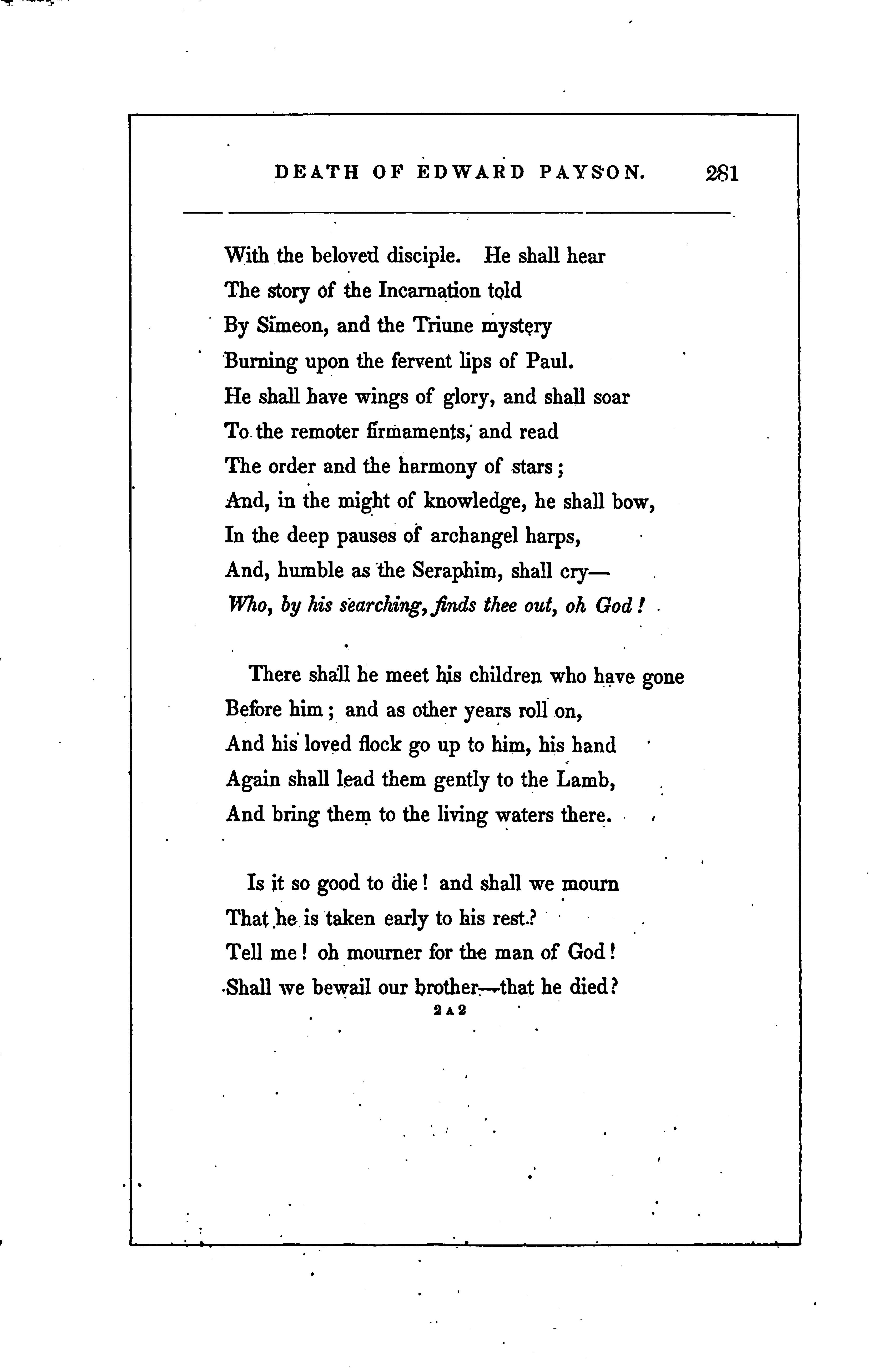

JANUARY 1, 1828.
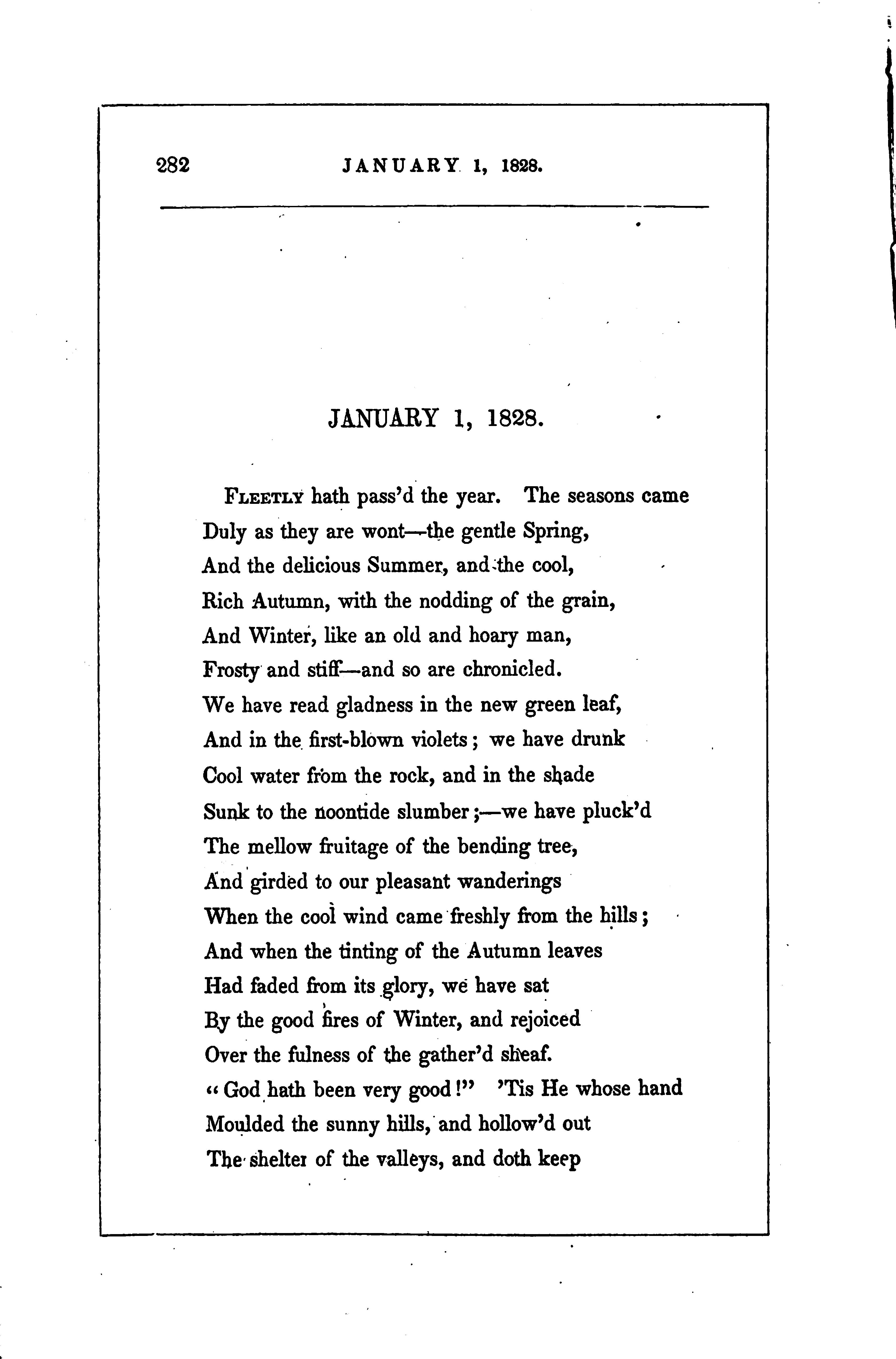
JANUARY 1 , 1828.
FLEETLY hath pass'd the year. The seasons came Duly as they are wont-the gentle Spring, And the delicious Summer, and the cool, Rich Autumn, with the nodding of the grain, And Winter, like an old and hoary man, Frosty and stiff-and so are chronicled.
We have read gladness in the new green leaf, And in the first-blown violets; we have drunk Cool water from the rock, and in the shade Sunk tothe noontide slumber ;-we have pluck'd
The mellow fruitage of the bending tree, And girded to our pleasant wanderings When the cool wind came freshly from the hills ; And whenthe tinting of the Autumn leaves Had faded from its glory, we have sat By the good fires of Winter, and rejoiced Overthe fulness of the gather'd sheaf.
"God hath been very good!" "Tis He whose hand Moulded the sunny hills, and hollow'd out The shelter of the valleys, and doth keep

JANUARY 1, 1828.
The fountains in their secret places cool ; And it is He who leadeth up the sun, And ordereth the starry influences, And tempereth the keenness of the frostAnd therefore, in the plenty of the feast, And in the lifting of the cup, let HIM Have praises for the well-completed year.
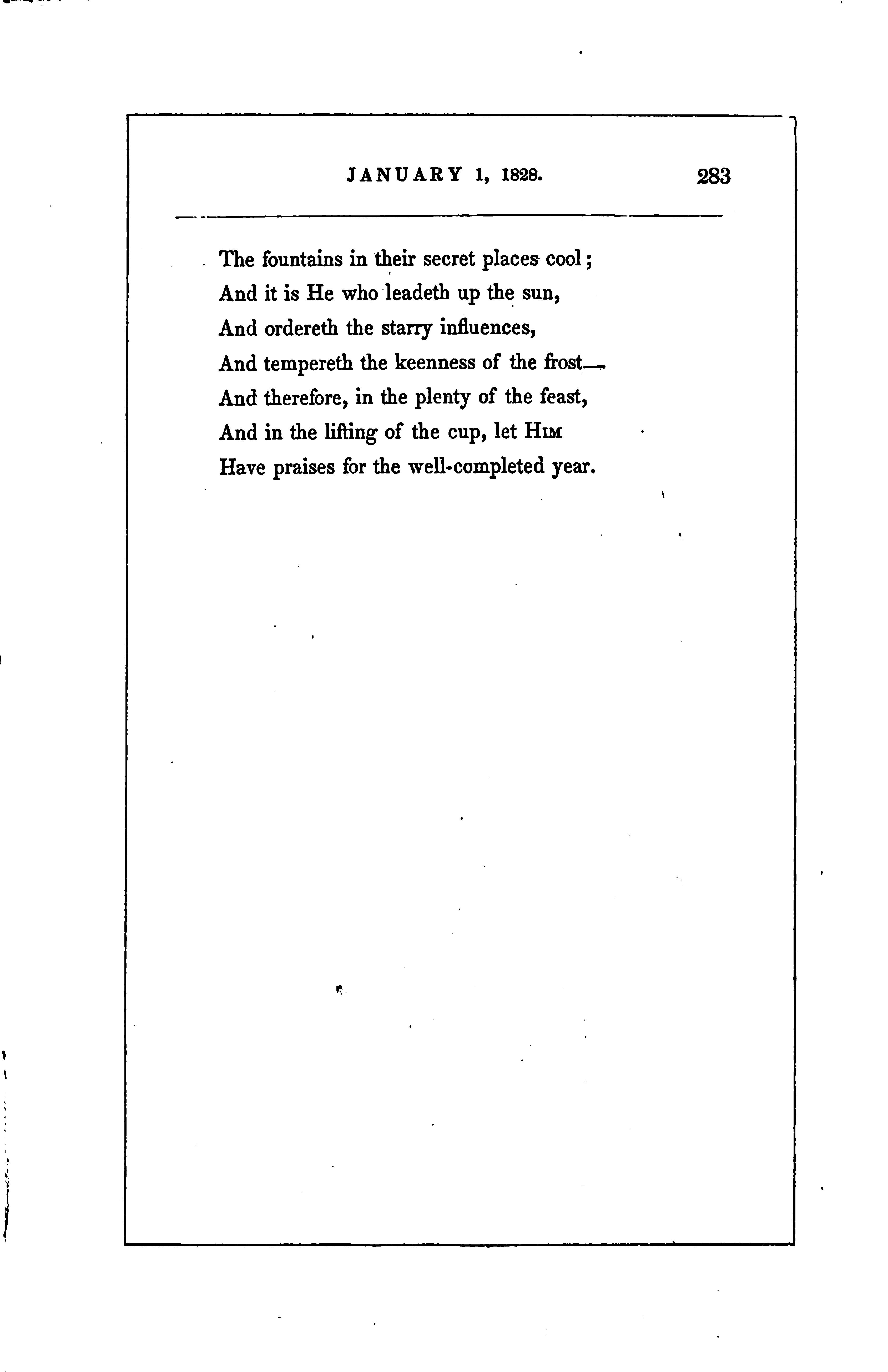

JANUARY 1, 1829.
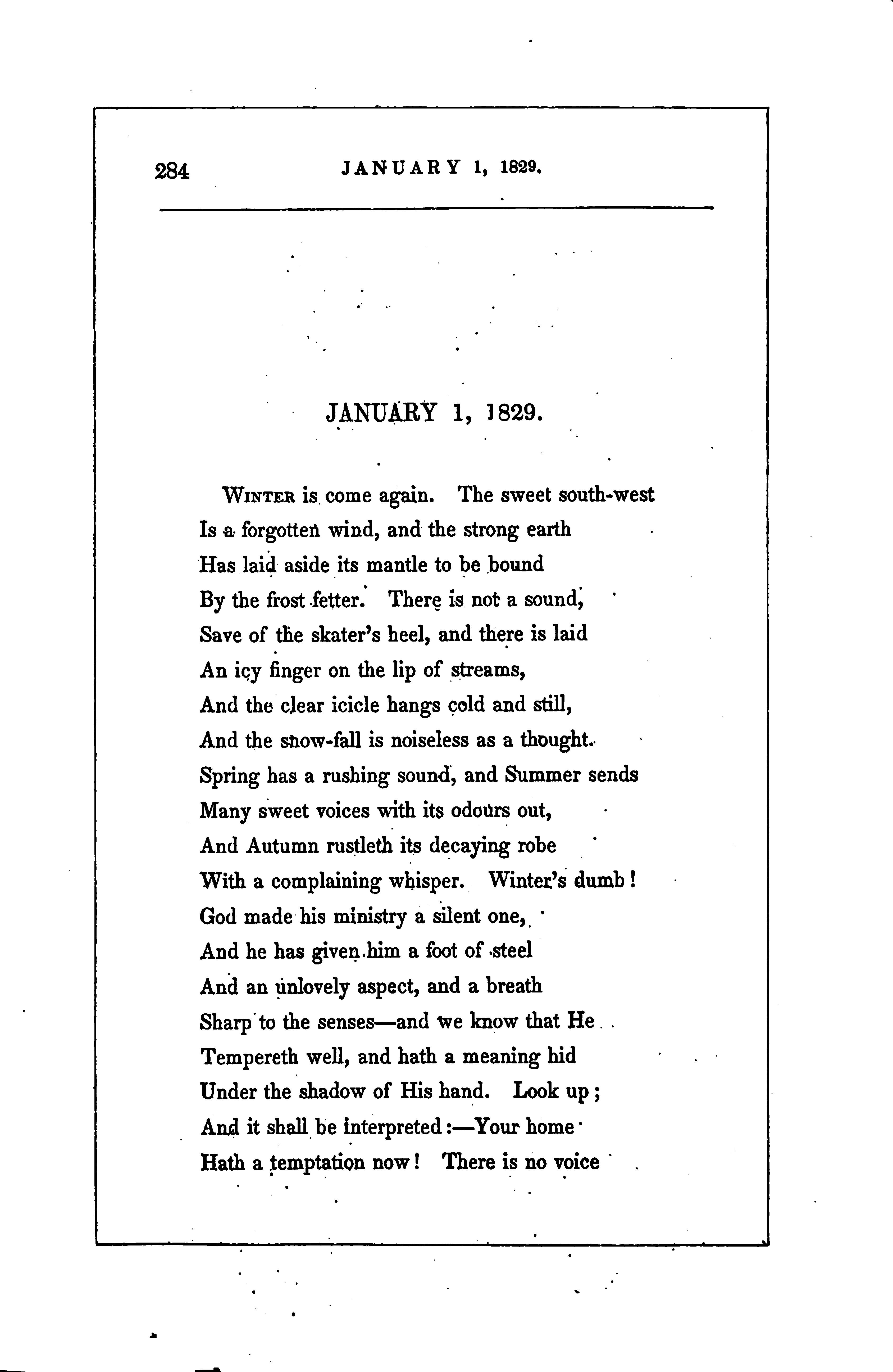
JANUARY 1, 1829.
WINTER is come again. The sweet south-west Is a forgotten wind, and the strong earth Has laid aside its mantle to be bound Bythe frost fetter. There is not a sound, Save ofthe skater's heel, and there is laid
An icy finger on the lip of streams, And the clear icicle hangs cold and still, And the show-fall is noiseless as a thought. Spring has a rushing sound, and Summer sends Many sweet voices with its odours out, And Autumn rustleth its decaying robe With a complaining whisper. Winter's dumb! God made his ministry a silent one,. * And he has given him a foot of steel And an unlovely aspect, and a breath Sharp tothe senses-and we know that He Tempereth well, and hath a meaning hid Under the shadow of His hand. Look up ; And it shall be interpreted :-Your home Hath a temptation now! There is no voice

JANUARY 1, 1829.
Of waters with beguiling for your ear, And the cool forest and the meadows green Witch not your feet away ; and inthe dells
There are no violets, and upon the hills There are no sunny places to lie down. You must go in, and by your cheerful fire Wait forthe offices of love, and hear Accents of human tenderness, and feast Your eye upon the beauty of the young. It is a season for the quiet thought, And the still reckoning with thyself. The year Gives back the spirits of its dead, and time Whispers the history of its vanish'd.hours ; And the heart, calling its affections up, Counteth its wasted ingots: Life stands still And settles like a fountain, and the eye Sees clearly through its depths, and noteth all That stirr'd its troubled waters. It is well That Winter with the dying year should come!
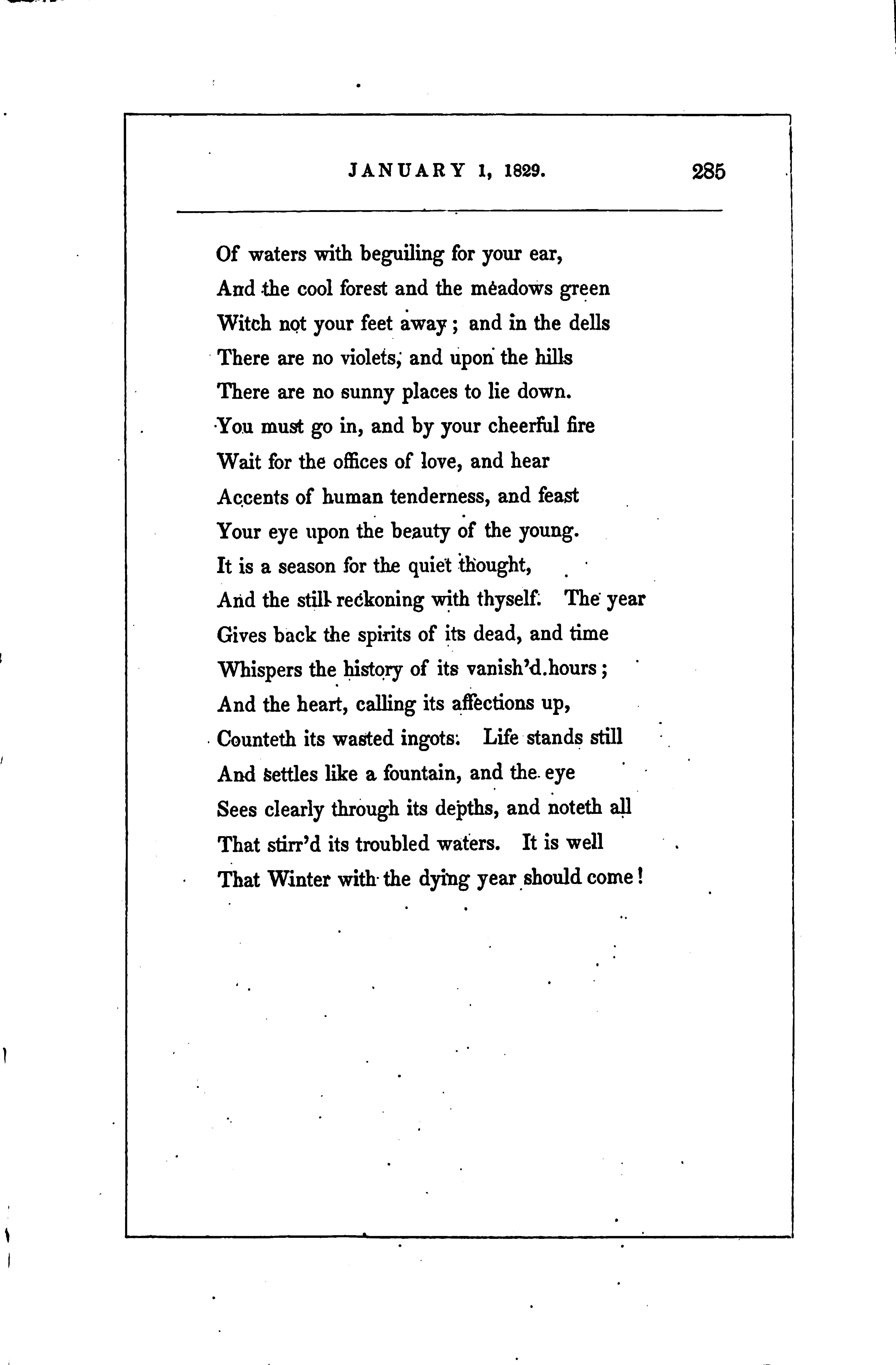

LIFT up thine eyes, sweet Psyche ! What is she, That those soft fringes timidly should fall Before her, and thy spiritual brow
Be dark, as if her presence were a cloud?
A loftier gift is thine than she can give That queen of beauty. She may mould the brow
To perfectness, and give unto the form
A beautiful proportion ; she may stain The eye with a celestial blue-the cheek
With carmine of the sunset ; she may breathe / Grace into every motion, like the play Of the least visible tissue of a cloud; She may give all that is within her own Bright cestus-and one silent look of thine, Like stronger magic, will outcharm it all.
Ay, forthe soul is better than its frame, ( The spirit than its temple. What's the brow,
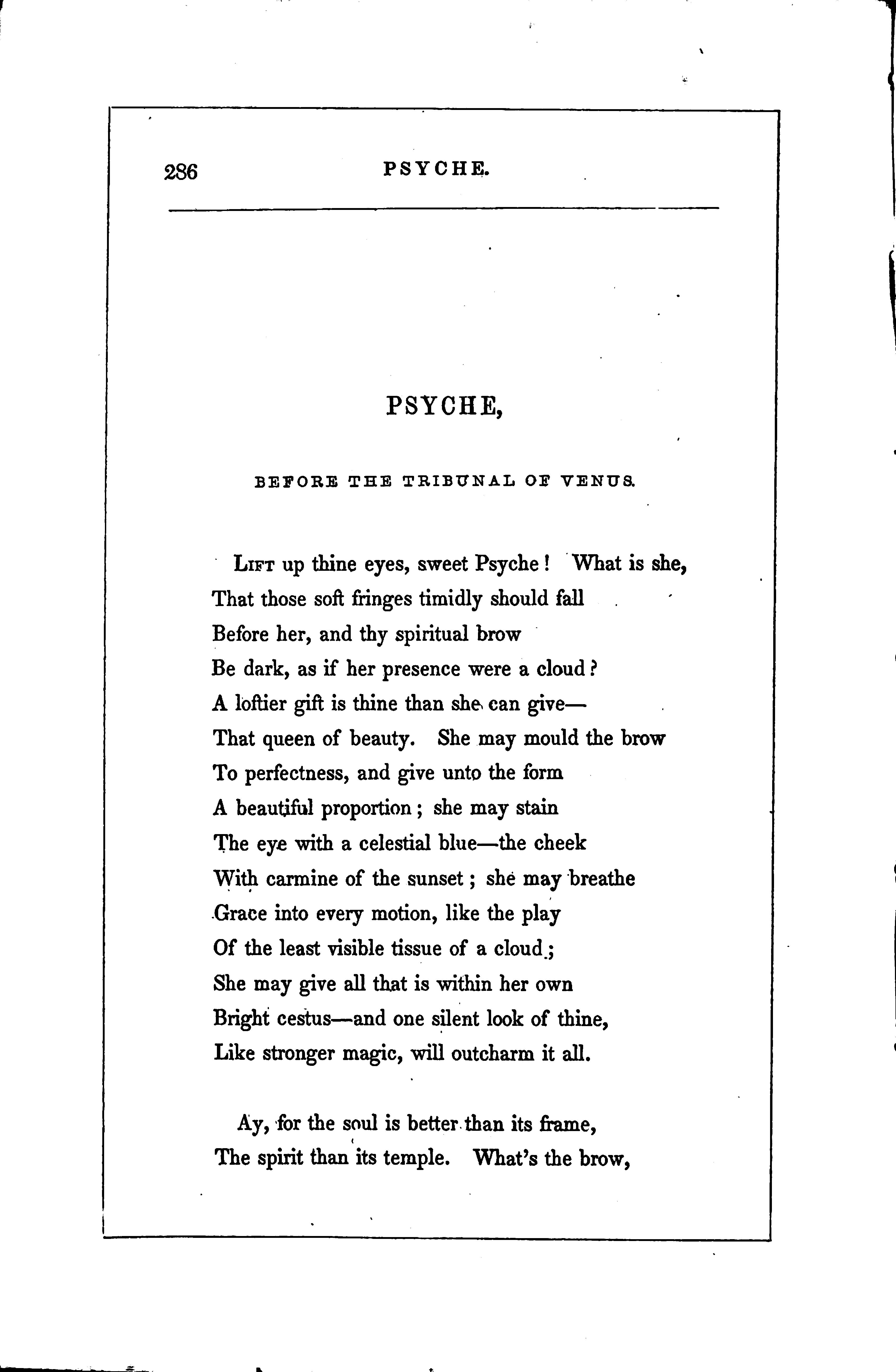

Or the eye's lustre, or the step of air, Or colour, but the beautiful links that chain The mind from its rare element ? There lies A talisman in intellect which yields Celestial music, when the master hand Touches it cunningly. It sleeps beneath The outward semblance, and to common sight Is an invisible and hidden thing; But when the lip is faded, and the cheek Robb'd of its daintiness, and,when the form
Witches the sense no more, and human love Falters in its idolatry, this spell Will hold its strength unbroken, and go on Stealing anew the affections.
Marvel not
ThatLoveleans sadly on his bended bow. He hath found out the loveliness of mind
And he is spoilt for beauty. So 'twill be Ever-the glory of the human form Is but a perishing thing, and love will droop When its brief grace hath faded ; but the mind Perisheth not, and when the outward charm Hath had its brief existence, it awakes, And is the lovelier that it slept so long Like wells, that, bythe wasting of their flow, Have had their deeper fountains broken up.
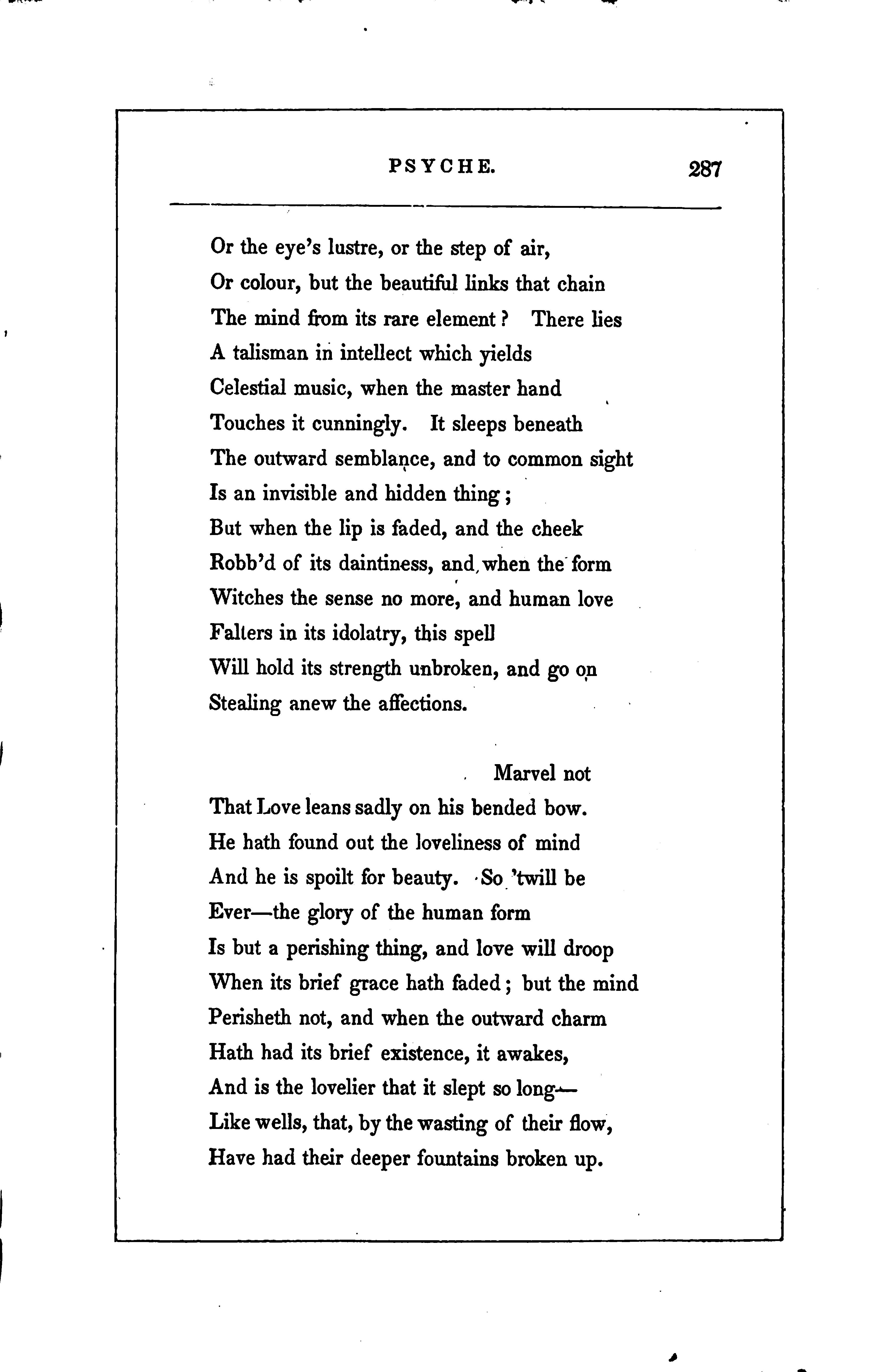

Down the green slope he bounded. Raven curls From his white shoulders by the winds were swept, And the clear colour of his sunny cheek Was bright with motion. Through his open lips Shone visibly a delicate line of pearl, Like a white vein within a rosy shell, And his dark eye's clear brilliance, as it lay Beneath his lashes, like a drop of dew Hid in the moss, stole out as covertly As starlight from the edging of a cloud. I never saw a boy so beautiful. His step was like the stooping of a bird, And his limbs melted into grace like things Shaped bythe wind of summer. He was like A painter's fine conception-such an one As he would have of Ganymede, and weep Upon his pallet that he could not win The vision to his easel. Who could paint The young and shadowless spirit? Who could chain
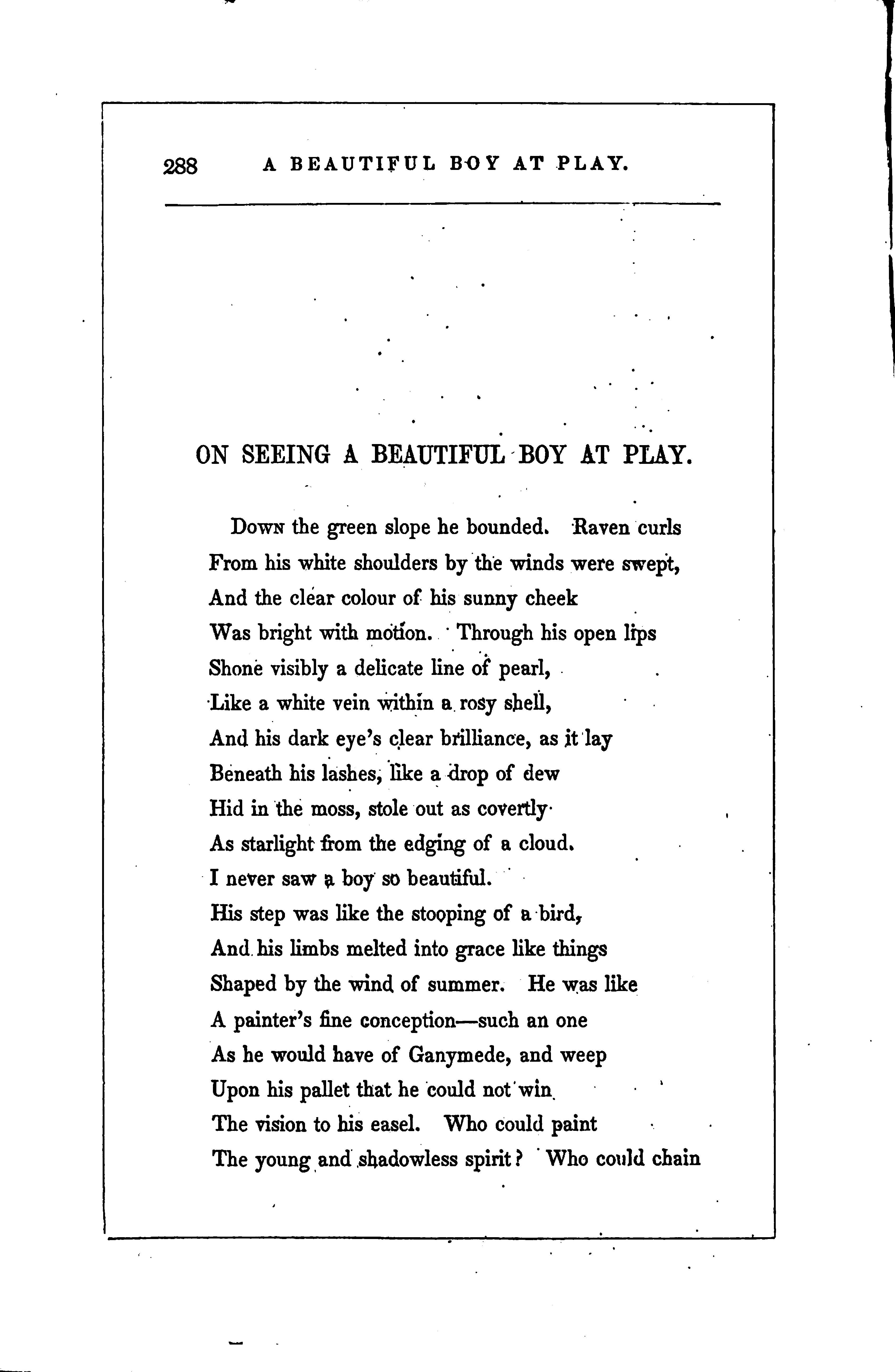

The sparkling gladness of a heart that lives, Like a glad fountain, in the eye of light, With an unbreathing pencil ? Nature's gift Has nothing that is like it. Sun and stream, And the new leaves of June, and the young lark That flees away into the depths of heaven, Lost in his own wild music, and the breath Of spring-time, and the summer eve, and noon In the cool autumn, are like fingers swept Over sweet-toned affections-but the joy That enters to the spirit of a child s deep as his young heart: his very breath, The simple sense of being, is enough To ravish him, and like a thrilling touch He feels each moment of his life go by.
Beautiful, beautiful childhood ! with ajoy That like a robe is palpable, and flung Out,by your every motion ! delicate bud Of the immortal flower that will unfold And come to its maturity in heaven ! I weep your earthly glory. 'Tis a light Lent to the new-born spirit, that goes out With the first idle wind. It is the leaf Fresh flung upon the river, that will dance Upon the wave that stealeth out its life, Then sink of its own heaviness. The face
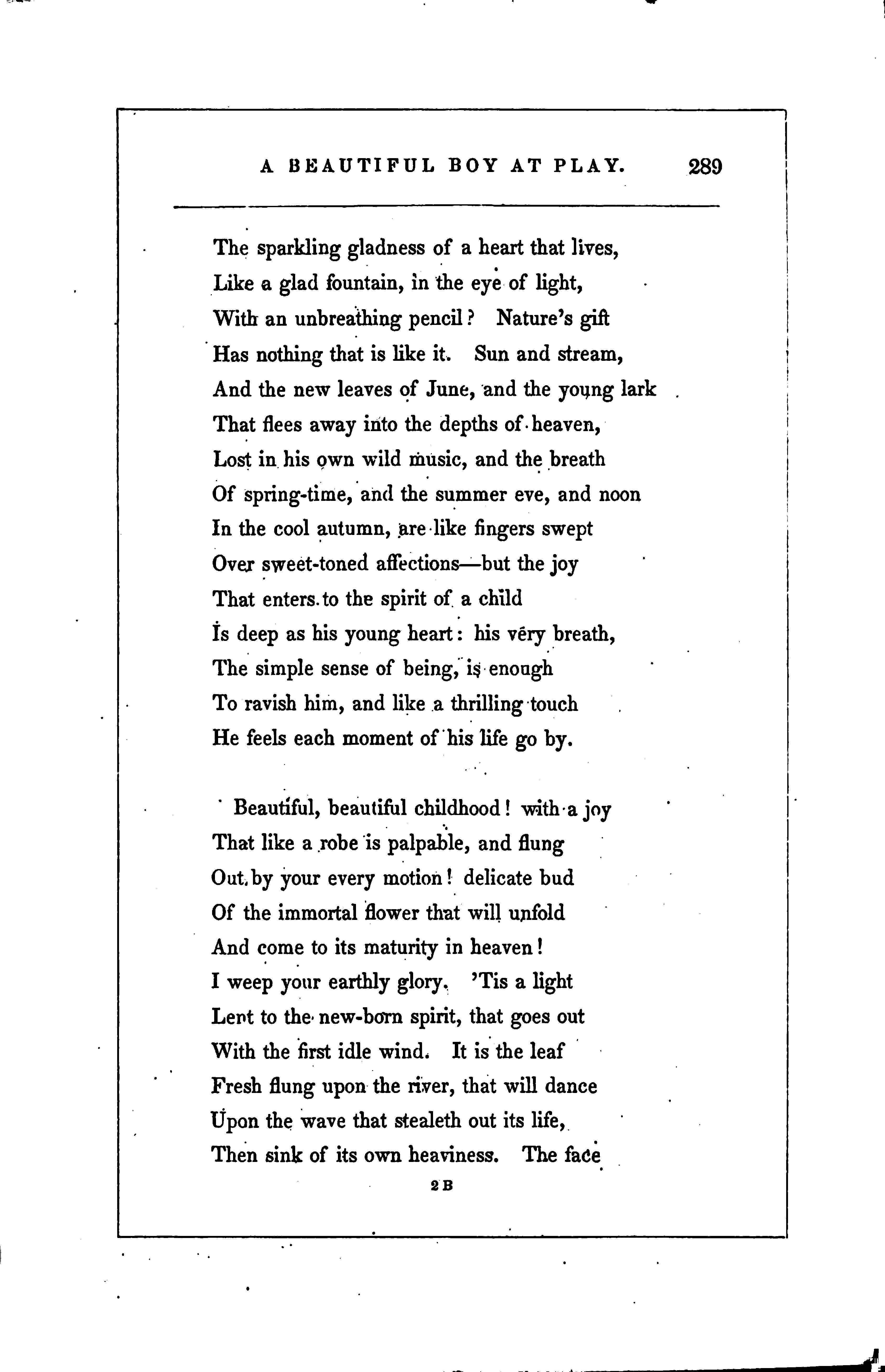

Of the delightful earth will to your eye
Grow dim ; the fragrance of the many flowers
Be noticed not, and the beguiling voice
Of nature in her gentleness will be
To manhood's senseless ear inaudible.
I sigh to look upon thy face, young boy'
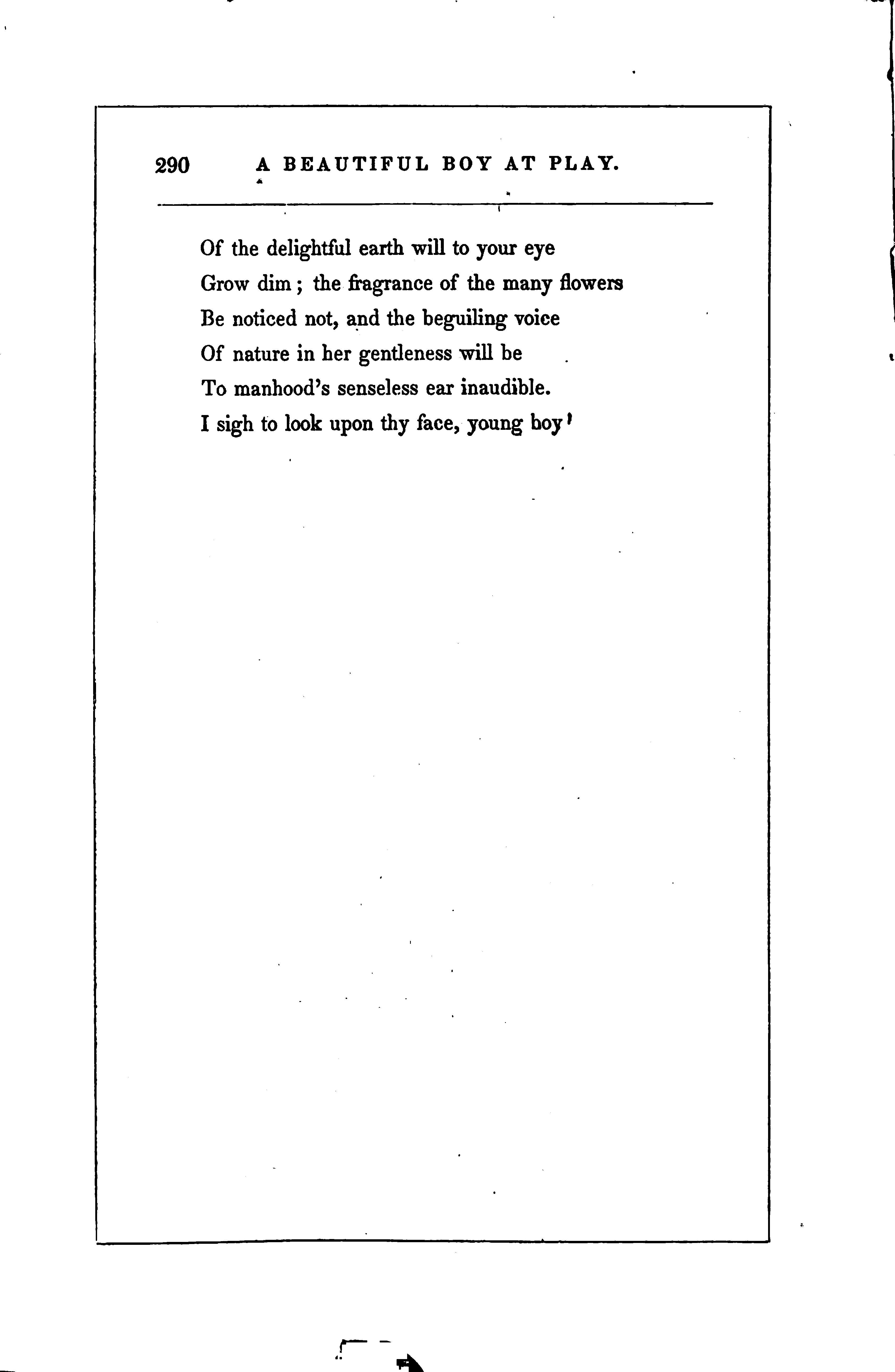

Claudio. Knowyouany, Hero? Hero. None, my lord! MUCH ADO ABOUT NOTHING.
GENTLE and modest Hero! I can see Her delicate figure, and her soft blue eye, Like a warm vision-lovely as she stood, Veil'd in the presence of young Claudio. Modesty bows her head, and that young heart That would endure all suffering for the love It hideth, is as tremulous as the leaf Forsaken of the Summer. She hath flung Her all upon the venture of her vow, And in her trust leans meekly, like a flower By the still river tempted from its stem, And on its bosom floating.
Once again
I see her, and she standeth in her pride, With her soft eye enkindled, and her lip Curl'd with its sweet resentment, like a line
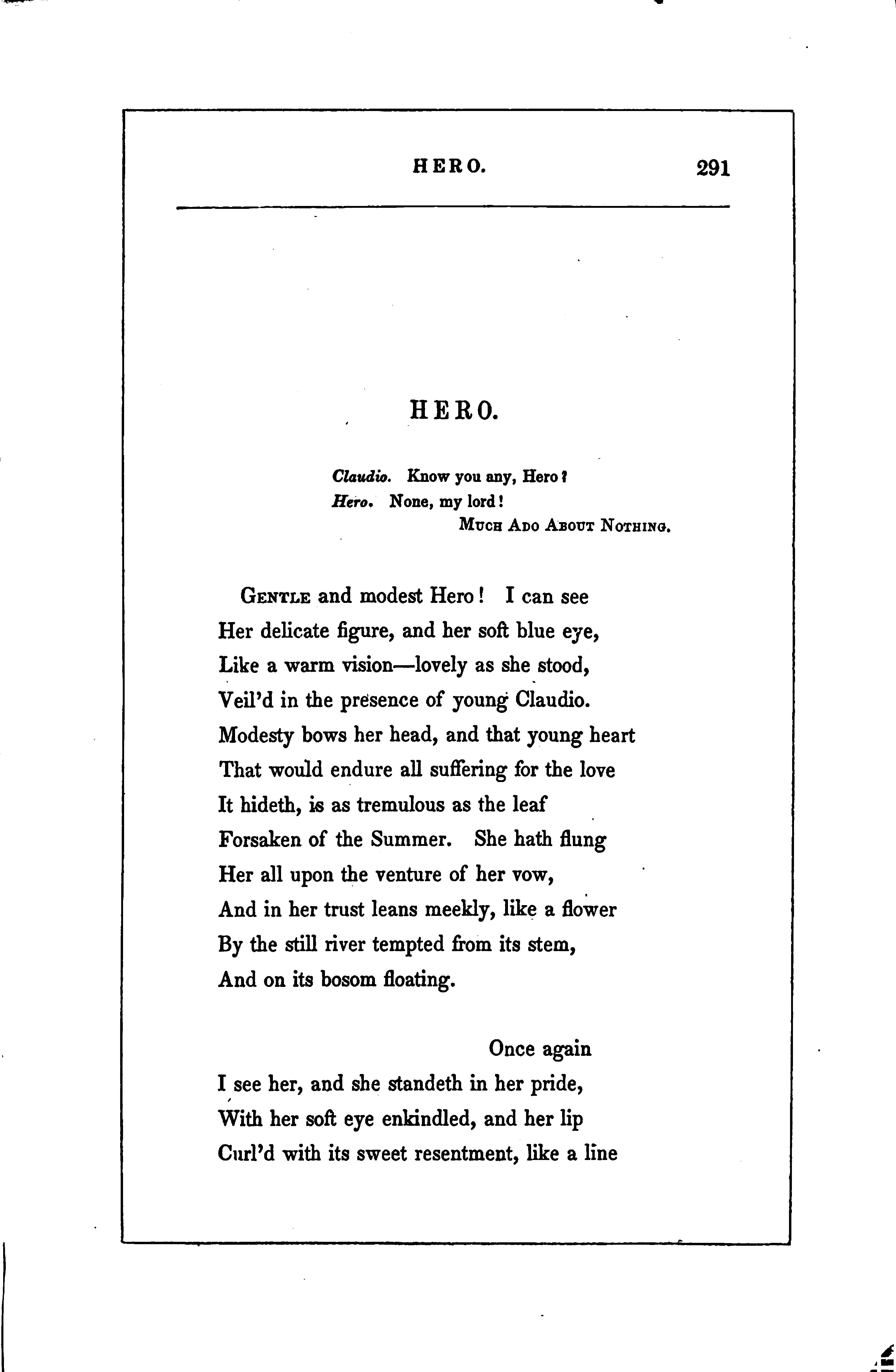

Of lifeless coral. She hath heard the voice That was her music utter it, and still To her affection faithful, she hath turn'd And question'd, in her innocent unbelief, "Is my lord well, that he should speak so wide ? How did they look upon that open brow, And not read purity? Alas for truth ! It hath so many counterfeits.. The words, That to a child were written legibly, Are bythe wise mistaken, and when light Hath made the brow transparent, and the face Is like an angel's-virtue is so fairThey read it like an over-blotted leaf, And break the heart that wrote it.
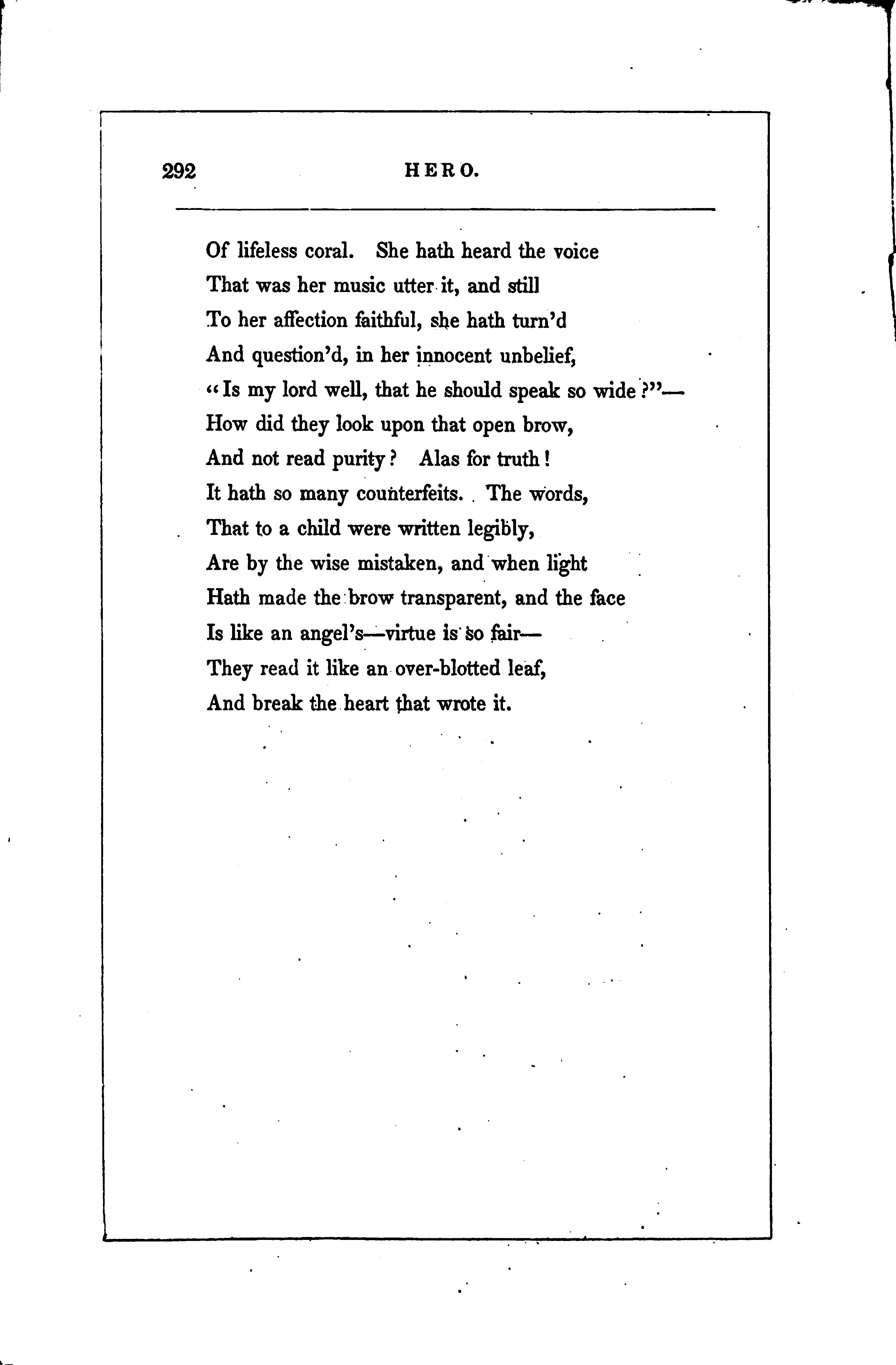

"Idleness is sweet and sacred." WALTER SAVAGE LANDOR.
"Whenyou have found a day to be idle, be idle for aday. Whenyouhave met with three cups to drink, drink your three cups." CHINESE POET.
THE rain is playing its soft pleasant tune Fitfully on the skylight, and the shade
Of the fast-flying clouds across my book Passes with gliding change. My merry fire Sings cheerfully to itself; my musing cat Purrs as she wakes from her unquiet sleep, And looks into my face as if she felt, Like me, the gentle influence of the rain. Here have.I sat since morn, reading sometimes, And sometimes listening to the faster fall Of the large drops, or rising with the stir Of an unbidden thought, have walk'd awhile, With the slow steps of indolence, my room, And then sat down composedly again
To my quaint book of olden poetry.
2B2
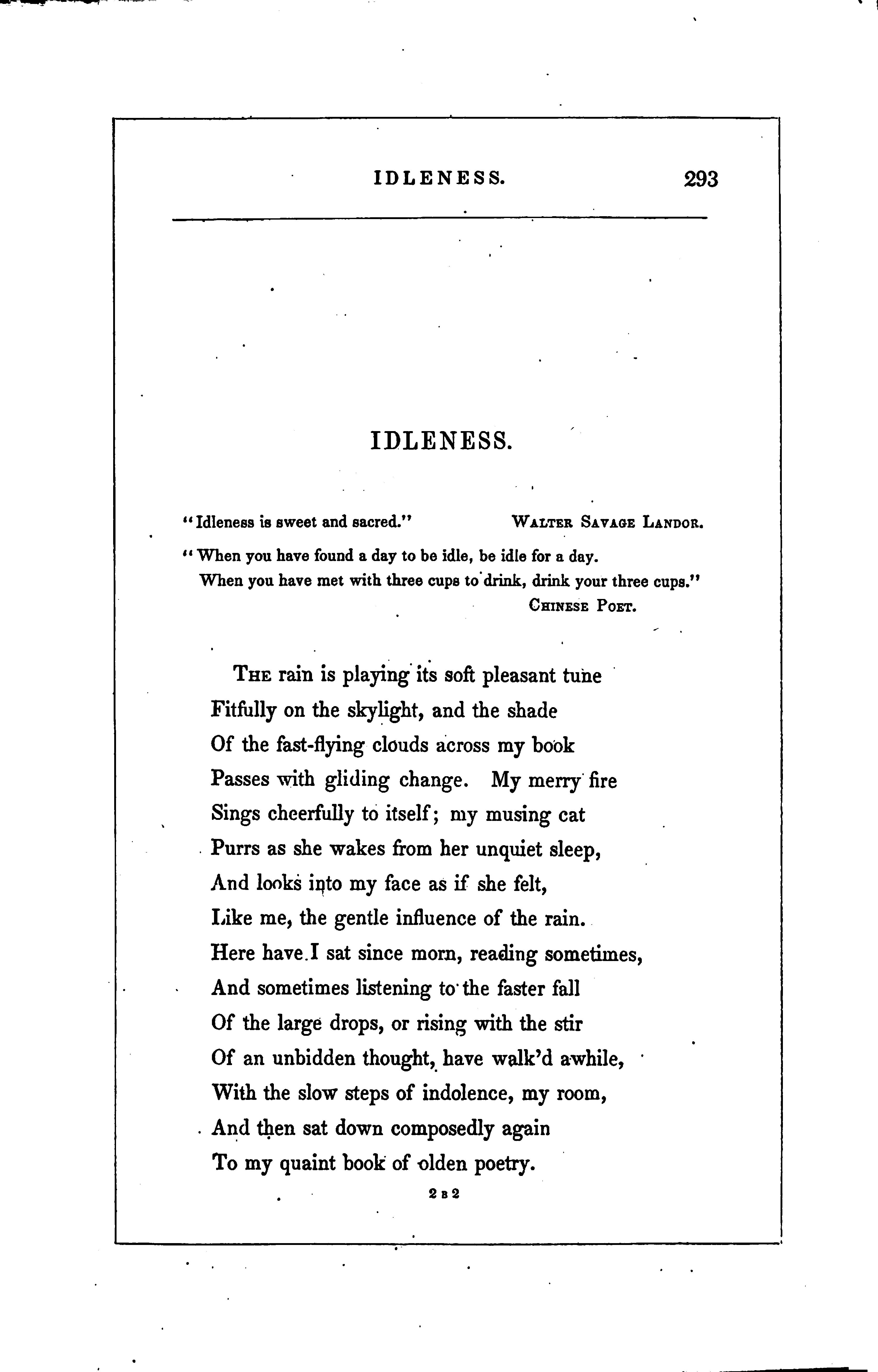

It is a kind of idleness, I know ; And I am said to be an idle manAnd it is very true. I love to go Out in the pleasant sun, and let my eye Rest on the human faces that pass by, Each with its gay or busy interest : And then I muse upon their lot, and read Many a lesson in their changeful cast, And so grow kind of heart, as if the sight Of human beings bred humanity. And I am better after it, and go More grateful to my rest, and feel a love Stirring my heart to every living thing ; And my low prayer has more humility, And I sink lightlier to my dreams- and this, 'Tis very true, is only idleness!
I love to go and mingle with the young In the gay festal room- when every heart Is beating faster than the merry tune, And their blue eyes are restless, and their lips
Parted with eager joy, and their round cheeks
Flush'd with the beautiful motion of the dance. And I can look upon such things, and go Back to my solitude, and dream bright dreams For their fast coming years, and speak of them Earnestly in my prayer, till I am glad
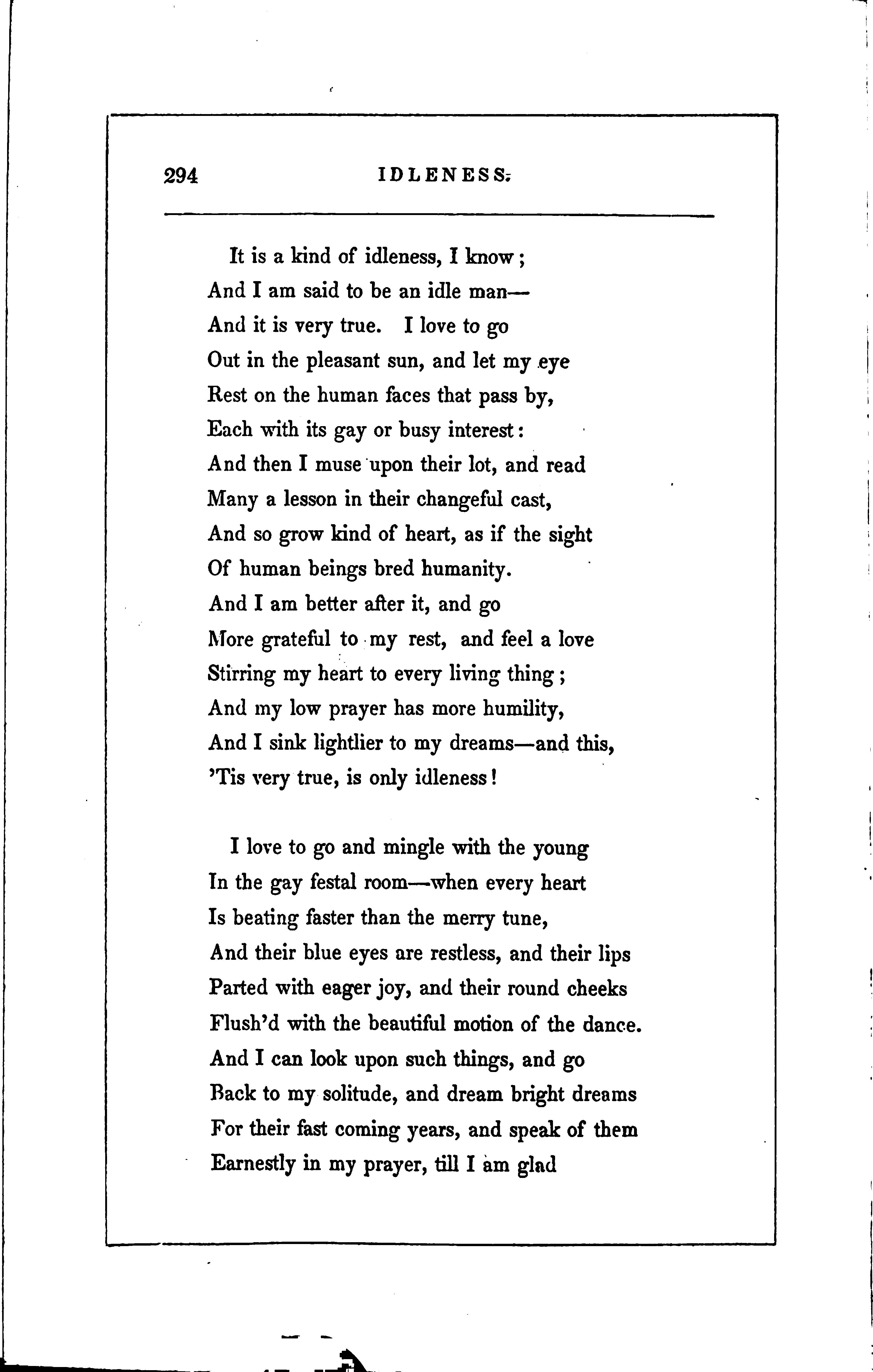

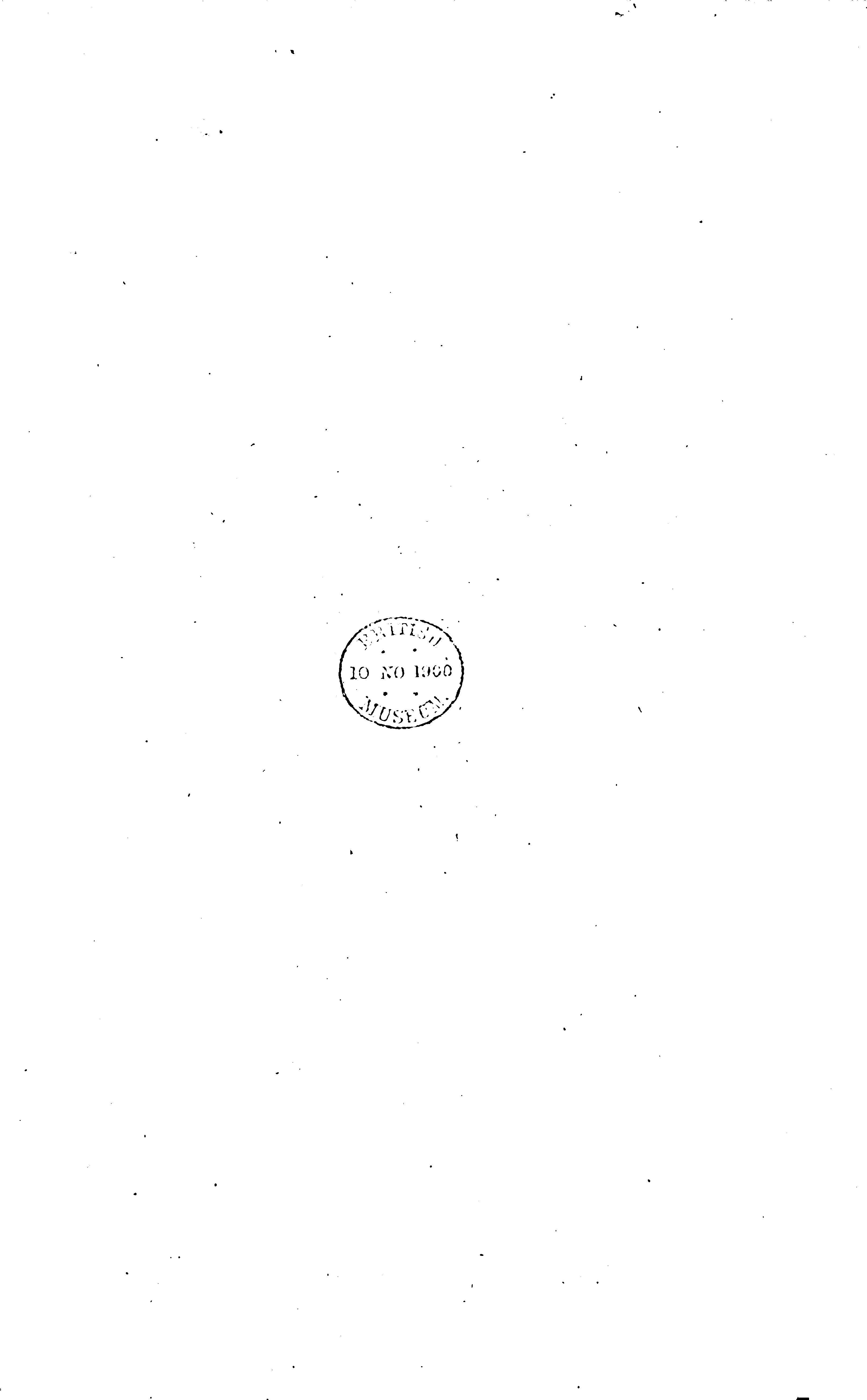

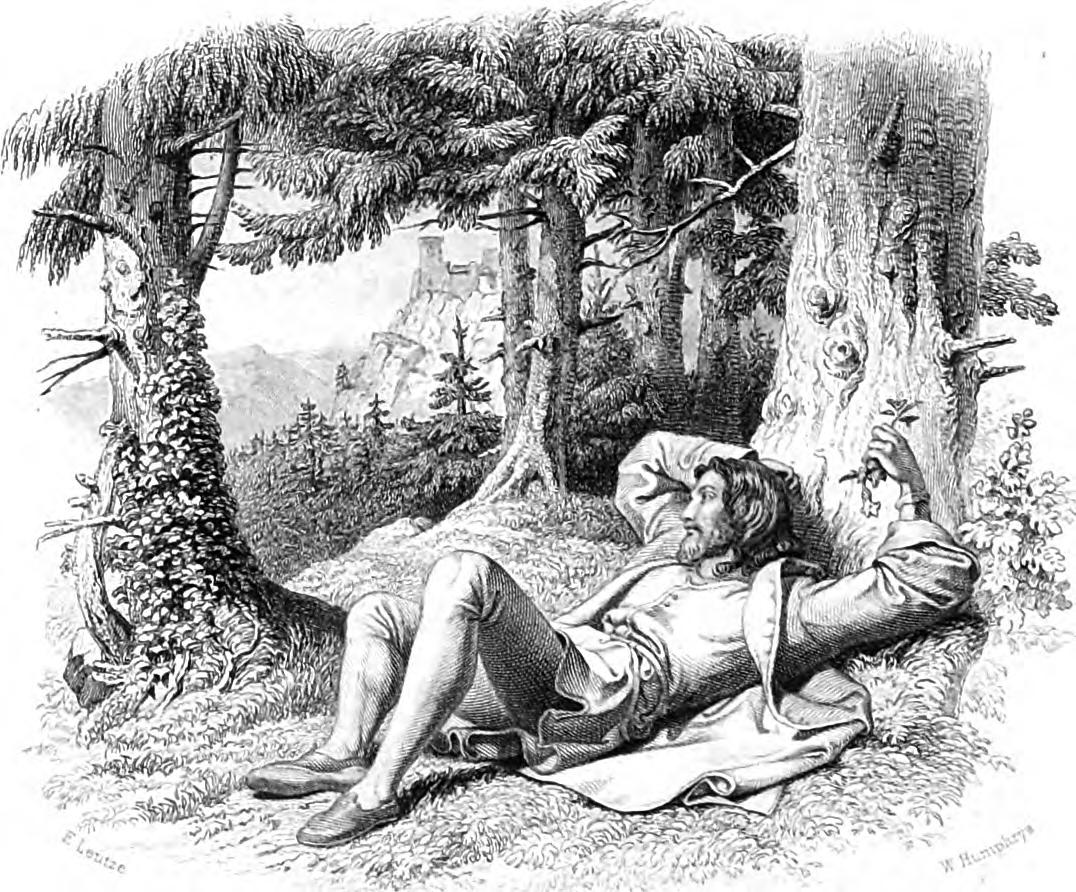
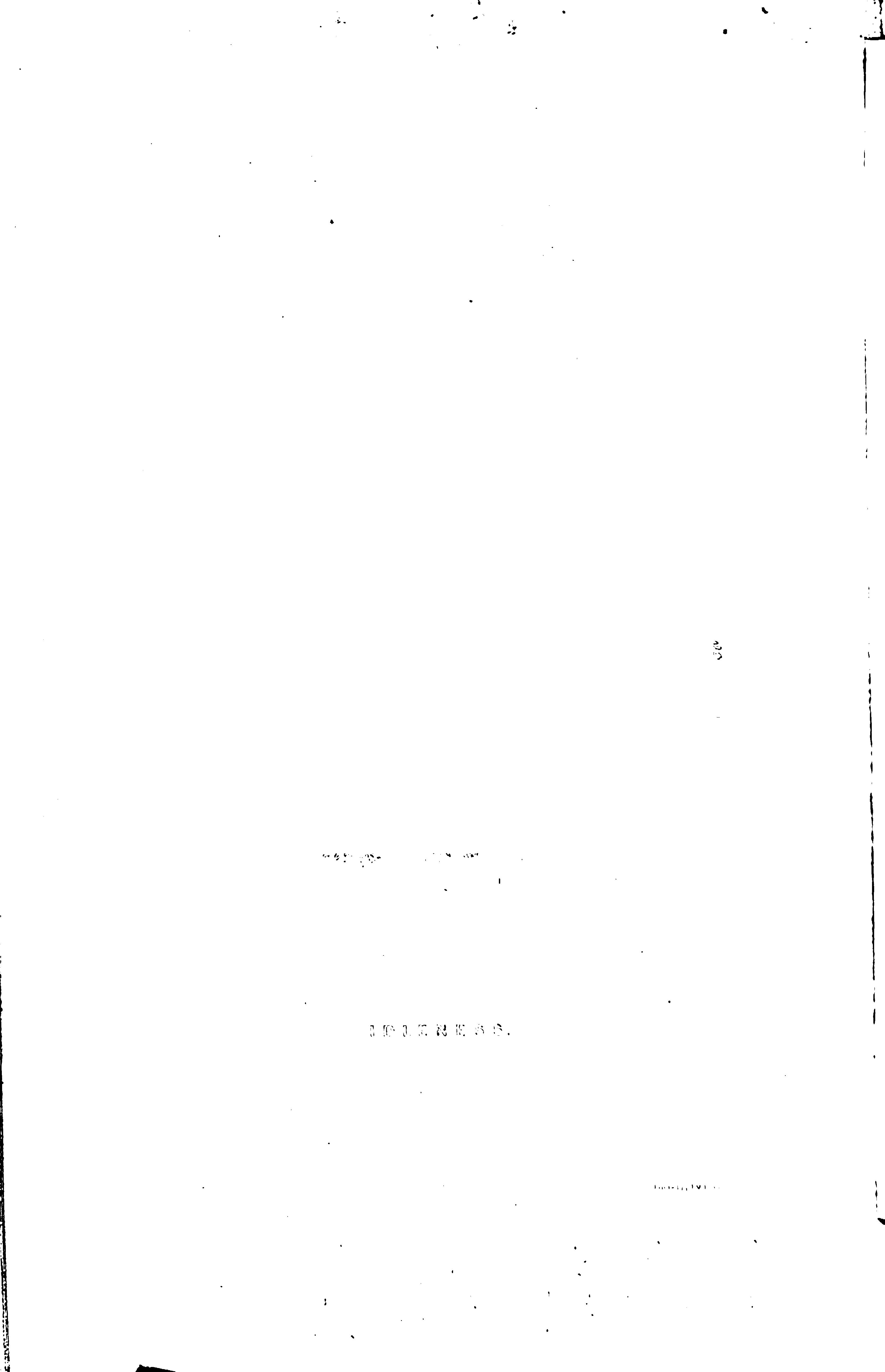

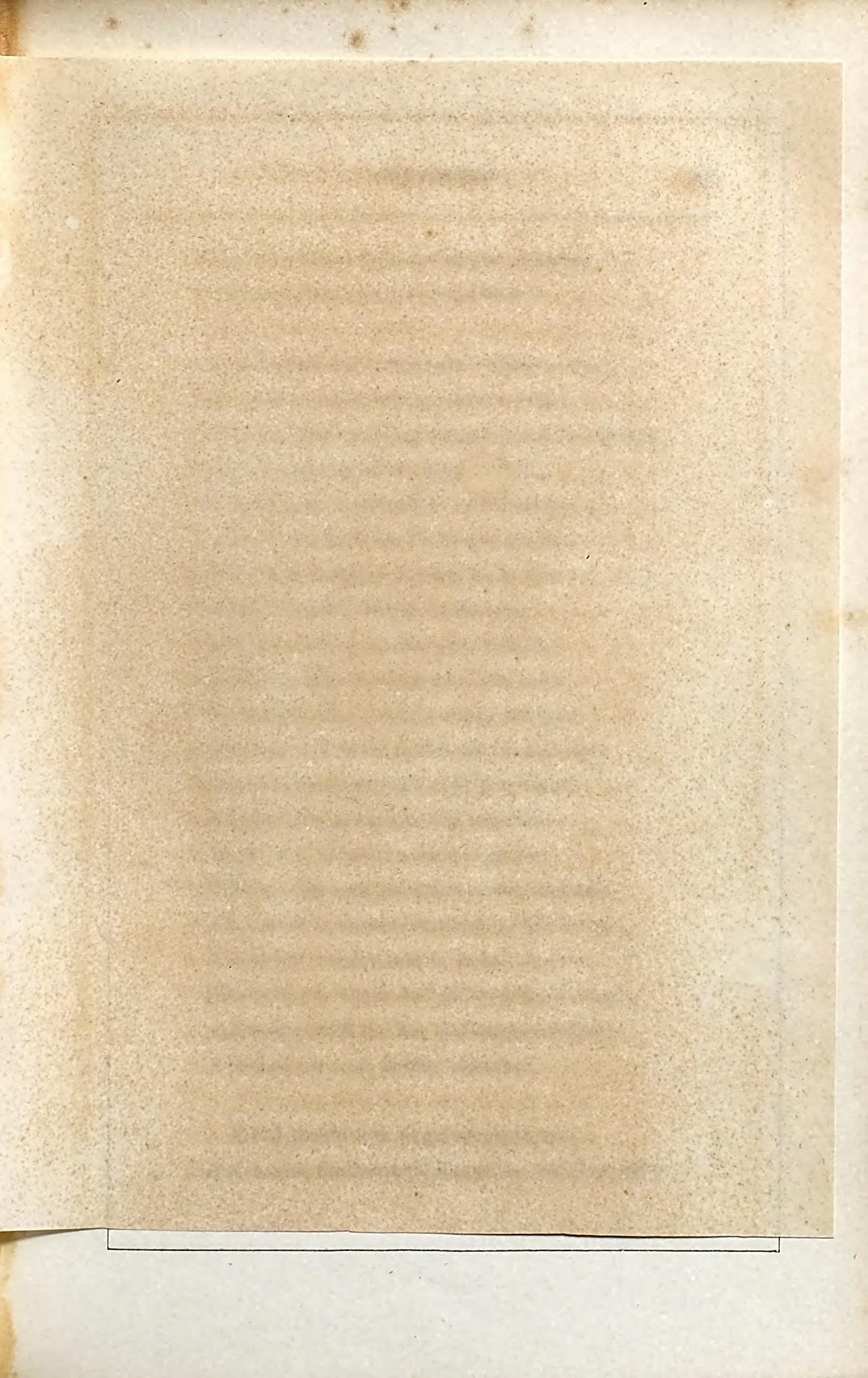

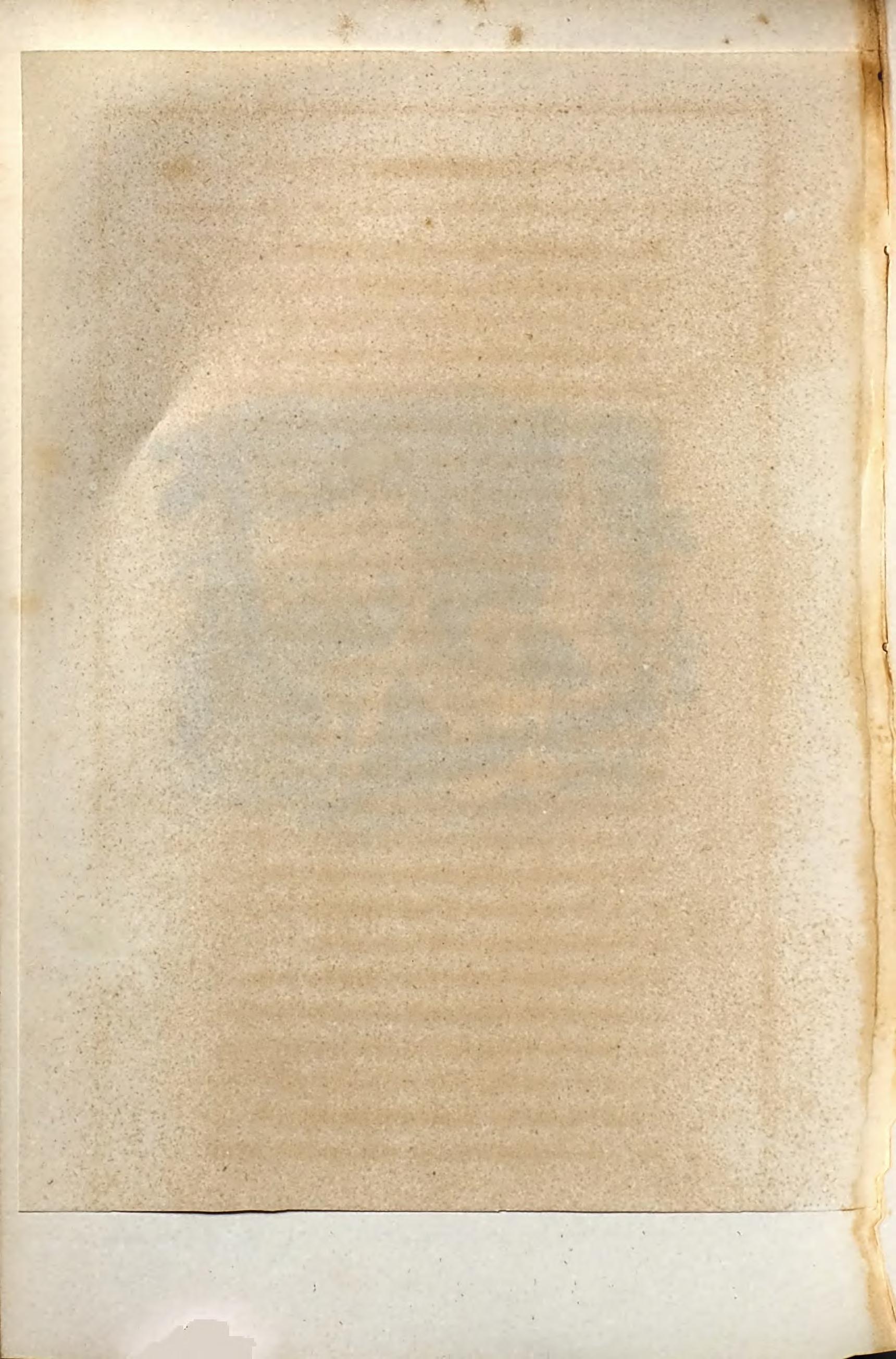

With a benevolent joy and this, I know, Tothe world's eye is only idleness !
And when the clouds pass suddenly away, And the blue sky is like a newer world, And the sweet-growing things-forest and flower, Humble and beautiful alike are all
Breathing up odours to the very heavenOr when the frost has yielded to the sun
In the rich autumn, and the filmy mist Lies like a silver lining on the sky, And the clear air exhilarates, and life Simply, is luxury-and when the hush Of twilight, like a gentle sleep, steals on And the birds settle to their nests, and stars Spring inthe upper sky, and there is not A sound that is not low and musical-
At all these pleasant seasons I go out
With my first impulse guiding me, and take Wood-path or stream, or slope by hill or vale, And in my recklessness of heart, stray on. Glad with the birds, and silent with the leaves, And happy with the fair and blessed world
And this, 'tis true, is only idleness !
And I should love to go up to the sky, And course the heavens, like stars, and float away
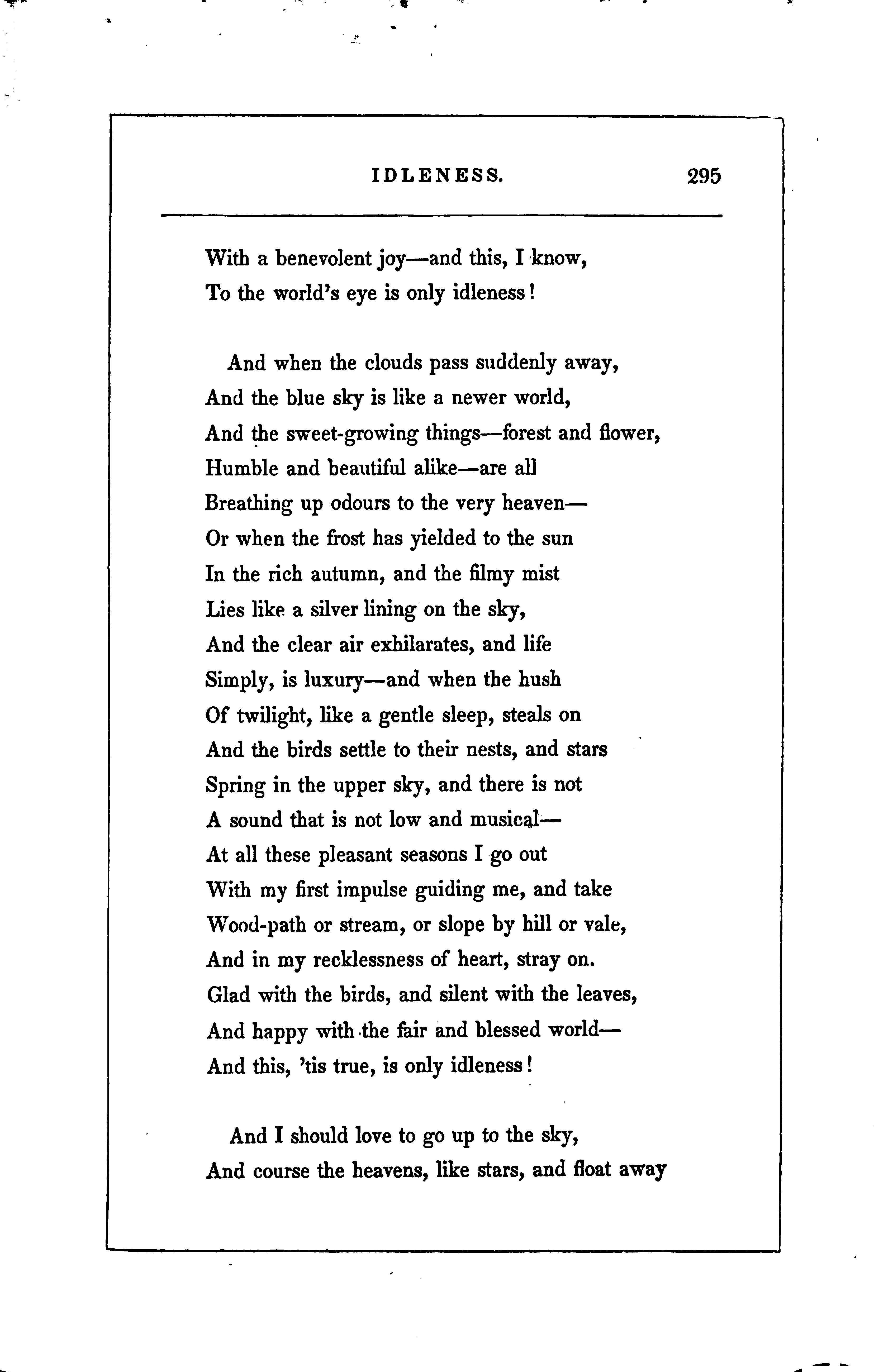

Upon the gliding clouds that have no stay
In their swift journey-and 'twould be a joy
To walk the chambers of the deep, and tread
The pearls of its untrodden floor, and know
The tribes of the unfathomable depths
Dwellers beneath the pressure of a sea!
And I should love to issue with the wind
On a strong errand, and o'ersweep the earth
With its broad continents and islands green,
Like to the passing of a spirit on!
And this, 'tis true, were only idleness !


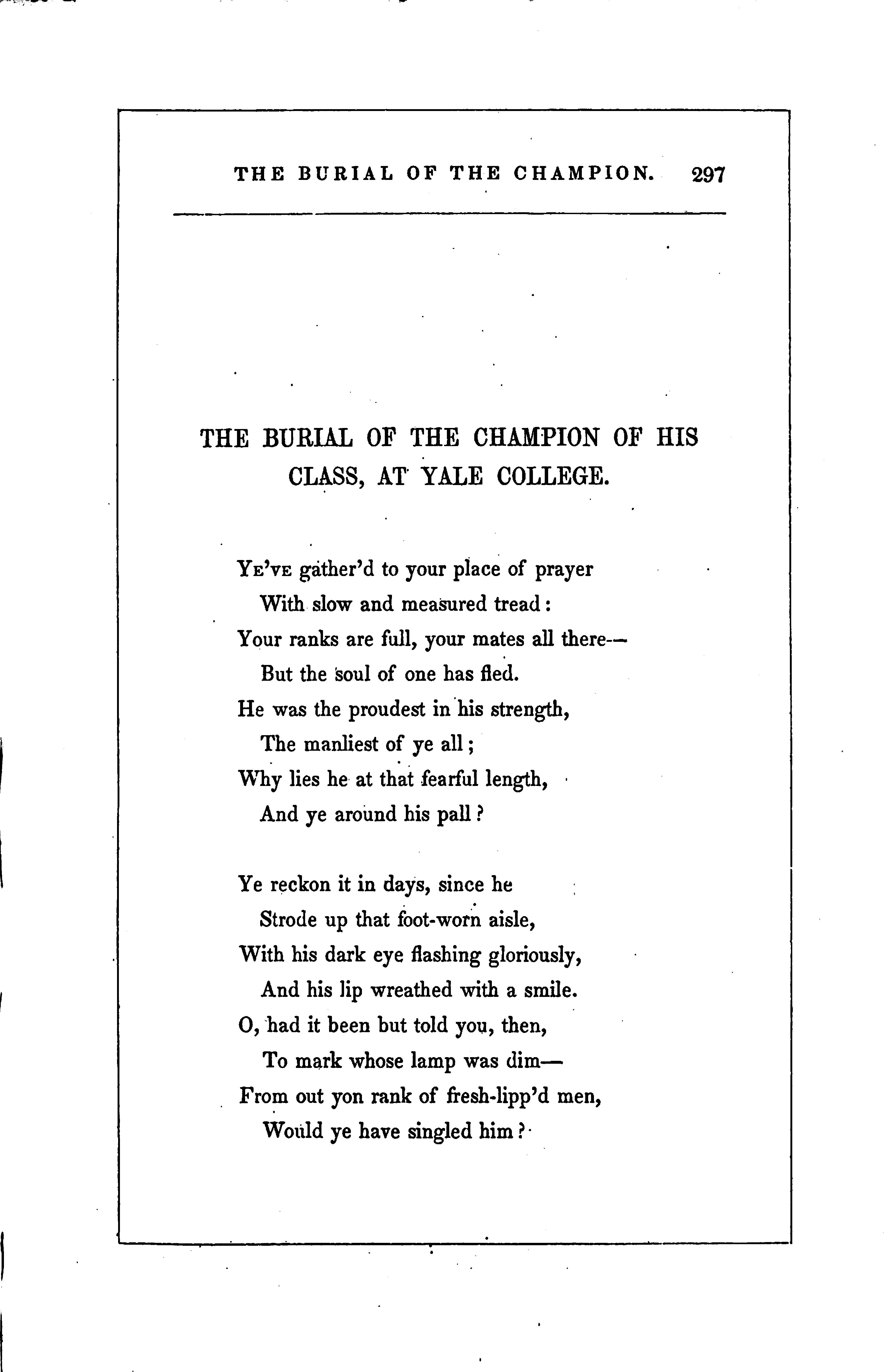
YE'VE gather'd to your place of prayer
With slow and measured tread: Your ranks are full, your mates all there-But the soul of one has fled. He was the proudest in his strength, The manliest of ye all ; Why lies he at that fearful length, And ye around his pall ?
Ye reckon it in days, since he Strode up that foot-worn aisle, With his dark eye flashing gloriously, And his lip wreathed with a smile. O, had it been but told you, then,
To mark whose lamp was dimFrom out yon rank of fresh-lipp'd men, Would ye have singled him?·

Whose was the sinewy arm, that flung Defiance to the ring?
Whose laugh of victory loudest rungYet not for glorying?
Whose heart, in generous deed and thought, No rivalry might brook, And yet distinction claiming not? There lies he-go and look!
On now-his requiem is done, The last deep prayer is said On to his burial, comrades-on, With a friend and brother dead!
Slow-for it presses heavily It is a man ye bear!
Slow, for our thoughts dwell wearily On the gallant sleeper there.
Tread lightly, comrades ! we have laid His dark locks on his browLike life-save deeper light and shade: We'll not disturb them now.
Tread lightly-for 'tis beautiful, That blue-vein'd eyelid's sleep, Hiding the eye death left so dullIts slumber we will keep.


Rest now! his journeying is done
Your feet are on his sodDeath's blow has fell'd your championHe waiteth here his God.
Ay-turn and weep-'tis manliness
To be heart-broken hereForthe grave of one, the best of us, Is water'd bythe tear.
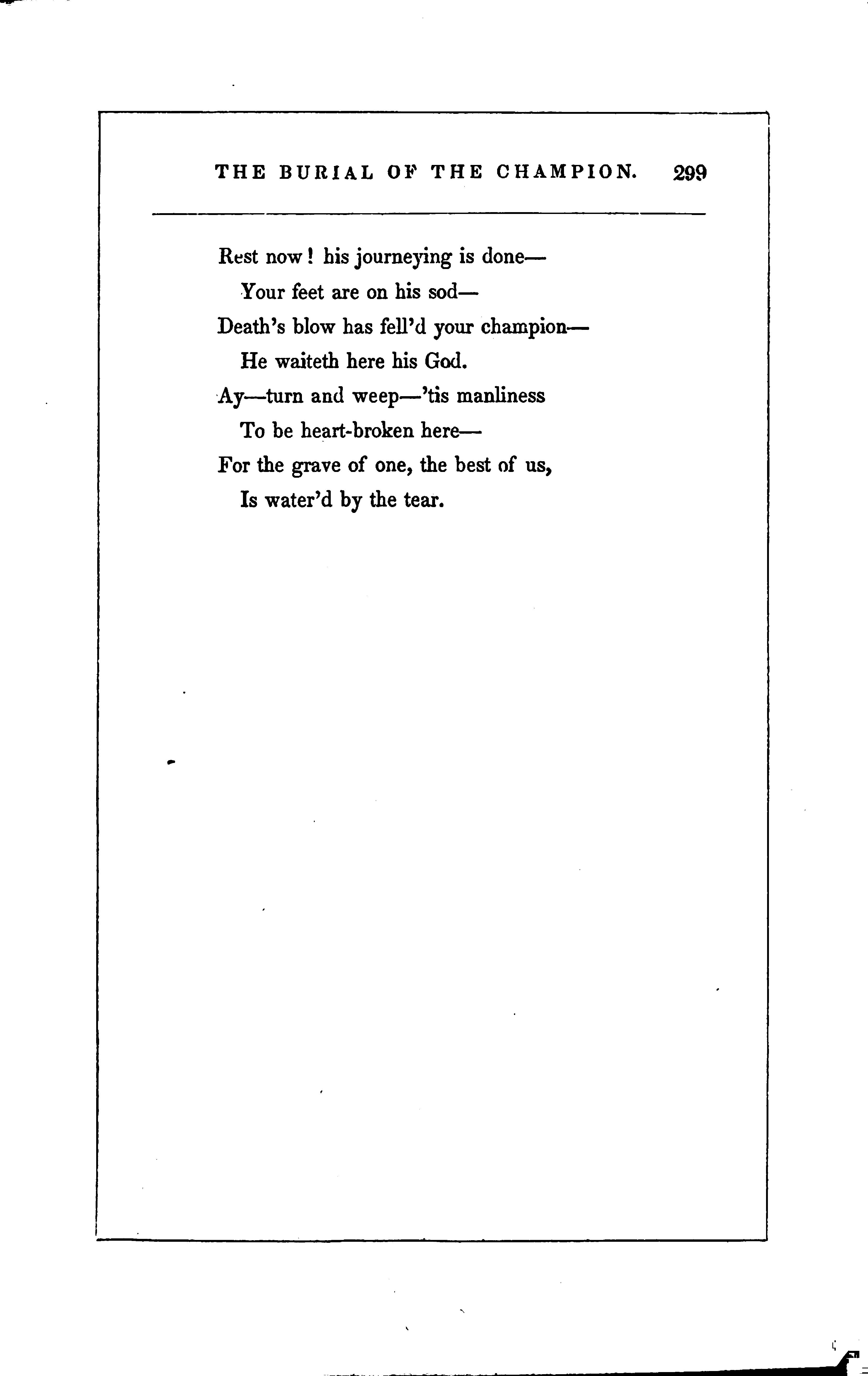

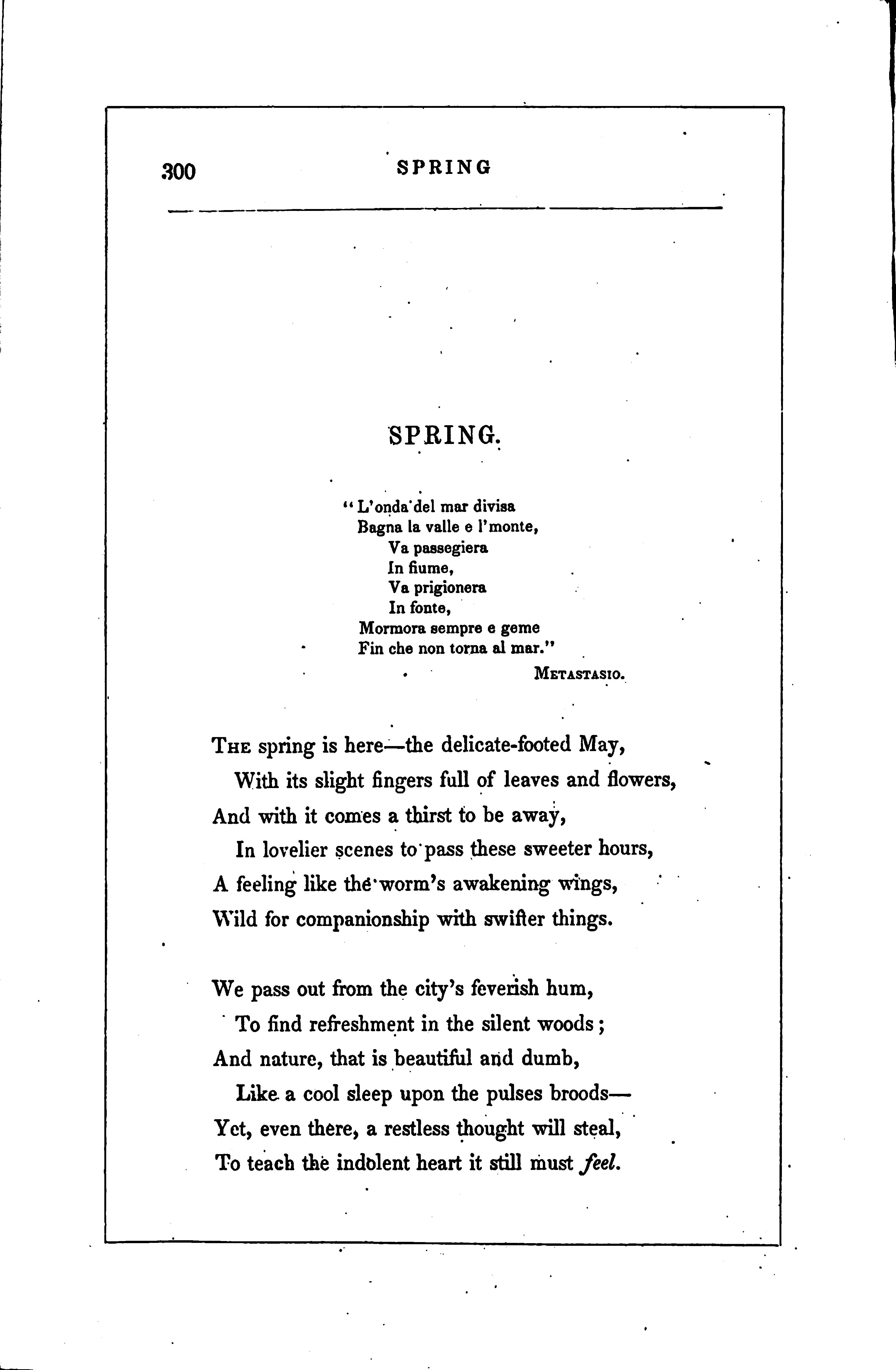
"L'onda del mar divisa Bagna lavalle e l'monte, Vapassegiera Infiume, Vaprigionera Infonte, Mormorasempre e geme Finche non torna al mar."
METASTASIO.
THE spring is here-the delicate-footed May, With its slight fingers full of leaves and flowers, And with it comes a thirst to be away, In lovelier scenes to pass these sweeter hours, A feeling like the worm's awakening wings, Wild for companionship with swifter things.
We pass out from the city's feverish hum, To find refreshment in the silent woods ; And nature, that is beautiful and dumb, Like a cool sleep upon the pulses broods Yet, even there, a restless thought will steal, To teach the indolent heart it still must feel.

Strange, that the audible stillness of the noon, The waters tripping with their silver feet, The turning to the light of leaves in June, And the light whisper as their edges meet
Strange that they fill not, with their tranquil tone, The spirit, walking in their midst alone.
There's no contentment in a world like this, Save in forgetting the immortal dream ; We may not gaze upon the stars of bliss, That through the cloud-rifts radiantly stream ; Bird-like, the prison'd soul will lift its eye And pine-till it is hooded from the sky.


"TWAS late, and the gay company was gone,. And light lay soft on the deserted room From alabaster vases, and a scent Of orange leaves and sweet verbena came Through the unshutter'd window on the air, And the rich pictures with their dark old tints Hung like a twilight landscape, and all things Seem'd hush'd into a slumber. Isabel, The 'dark-eyed, spiritual Isabel : Was leaning on her harp, and I had stay'd To whisper what I could not when the crowd Hung on her look like worshippers. I knelt, And with the fervour of a lip unused Tothe cool breath of reason, told my love. There was no answer, and I took the hand That rested on the strings, and press'd a kiss Upon it-unforbidden ! and again Besought her, that this silent evidence That I was not indifferent to her heart, Might have the seal of one sweet syllable.
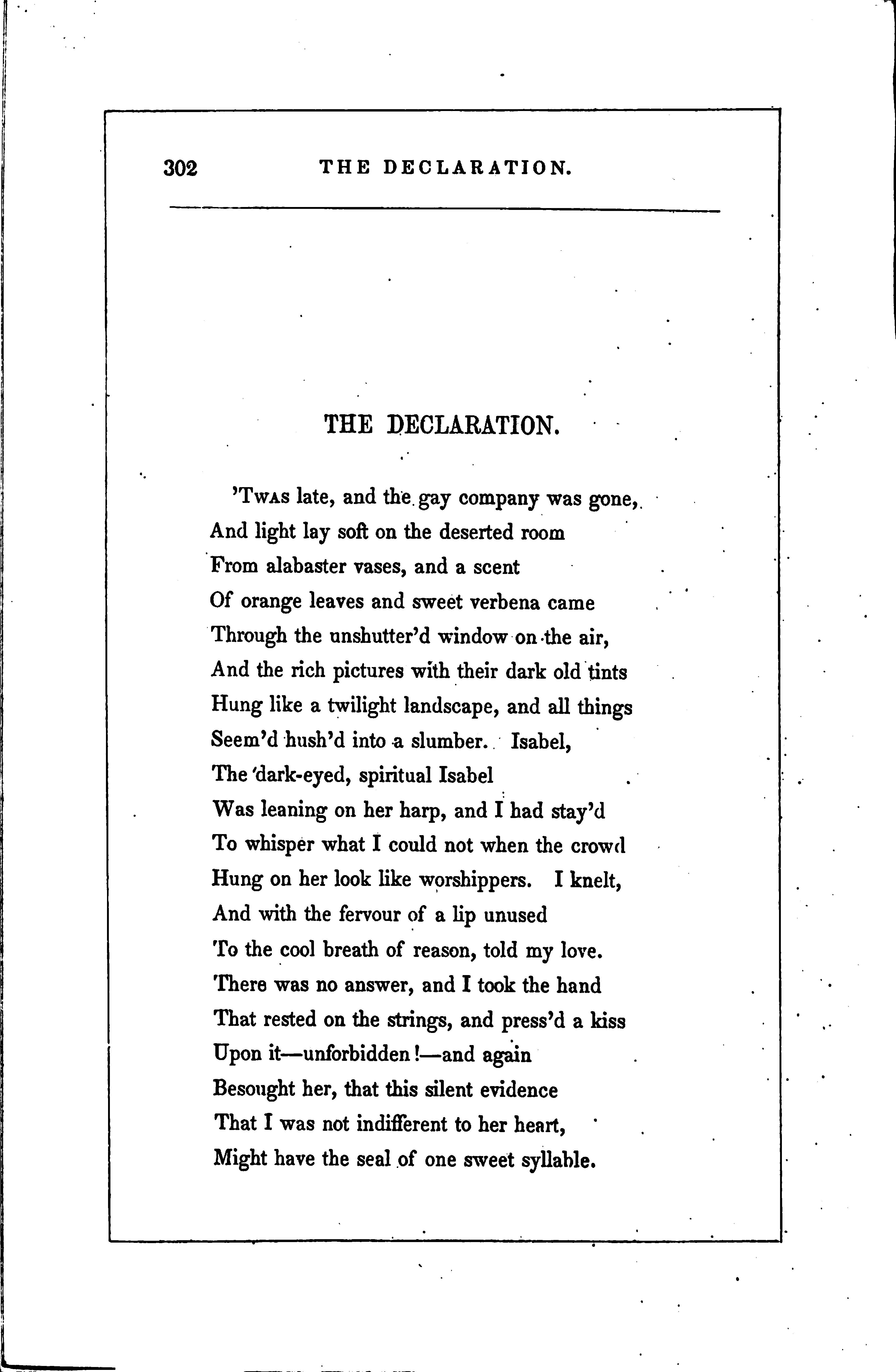

I kiss'd the small white fingers as I spoke, And she withdrew them gently, and upraised Her forehead from its resting-place, and look'd Earnestly on me. She had been asleep.
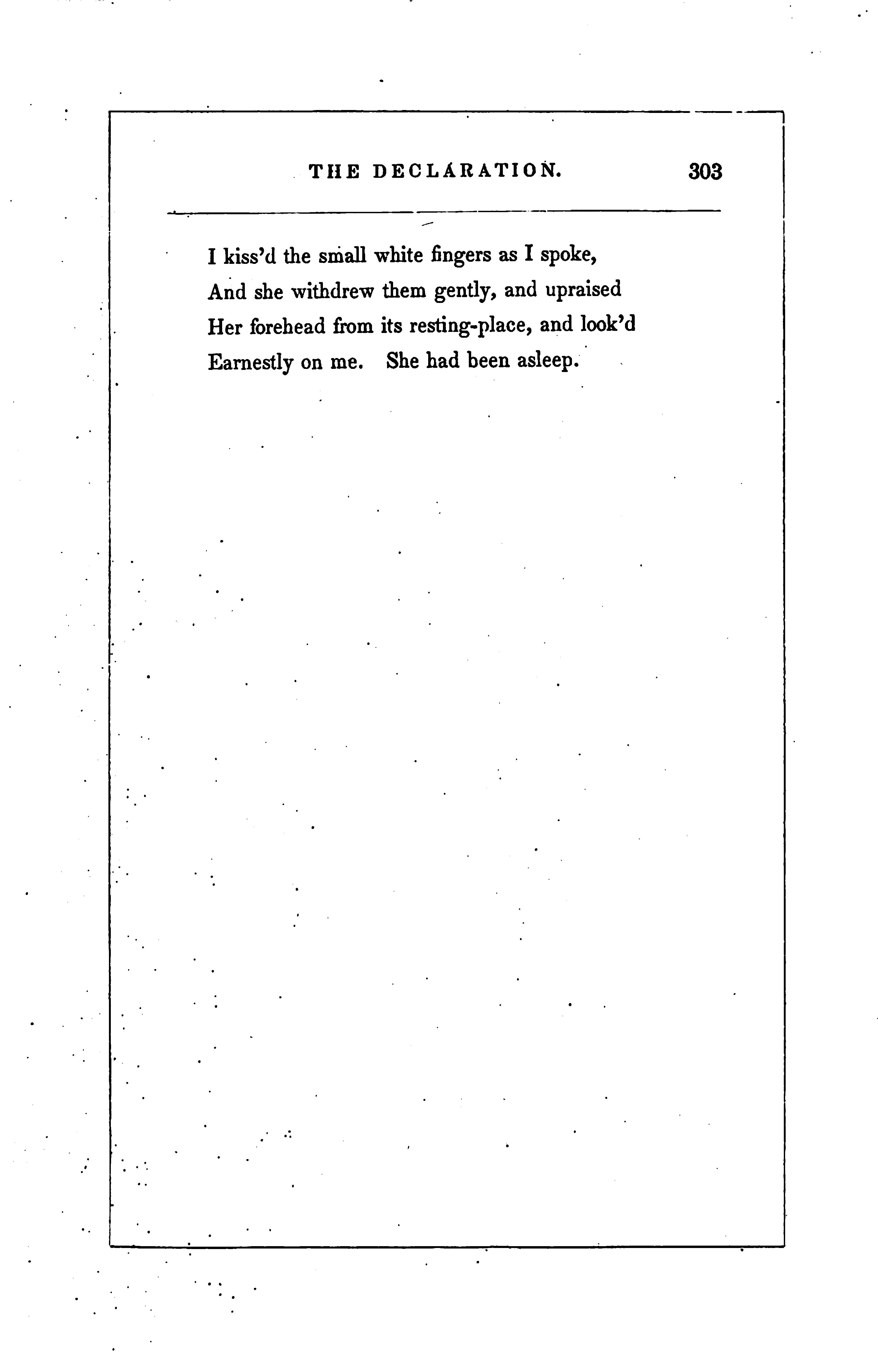

304 GIRL LEADING HER BLIND MOTHER.
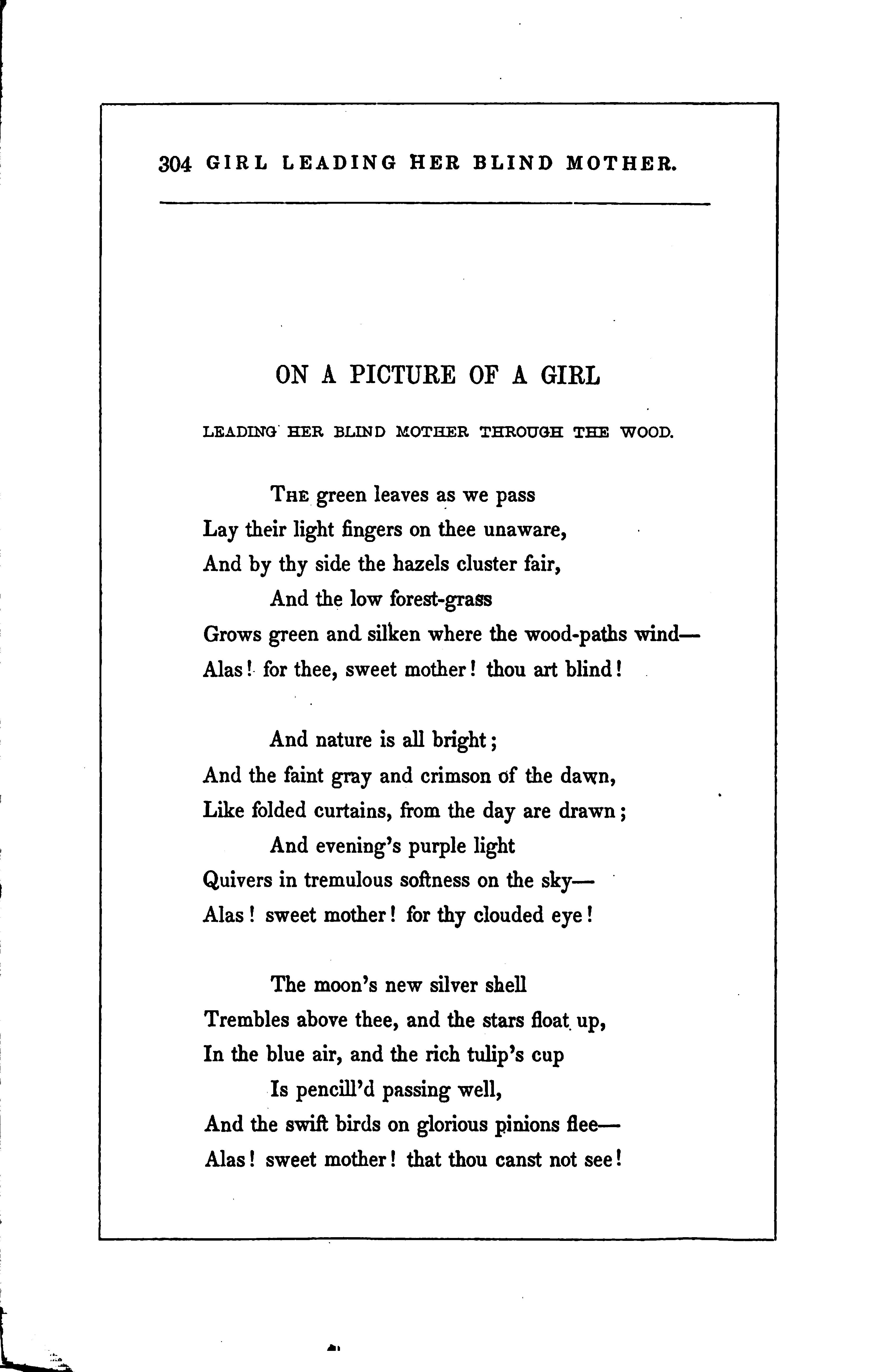
LEADING HER BLIND MOTHER THROUGH THE WOOD.
THE green leaves as we pass Lay their light fingers on thee unaware, And by thy side the hazels cluster fair, And the low forest-grass Grows green and silken where the wood-paths windAlas ! for thee, sweet mother! thou art blind!
And nature is all bright ; And the faint gray and crimson of the dawn, Like folded curtains, from the day are drawn; And evening's purple light Quivers in tremulous softness on the skyAlas ! sweet mother! for thy clouded eye !
The moon's new silver shell Trembles above thee, and the stars float up, In the blue air, and the rich tulip's cup Is pencill'd passing well, And the swift birds on glorious pinions fleeAlas! sweet mother! that thou canst not see!

And the kind looks of friends
Peruse the sad expression in thy face, And the child stops amid his bounding race,
And the tall stripling bends
Lowto thine ear with duty unforgotAlas! sweet mother! that thou seest them not!
But thou canst hear! and love
May richly on a human tone be pour'd, And the least cadence of a whisper'd word
A daughter's love may prove And while I speak thou knowest if I smile, Albeit thou canst not see my face the while !
Yes, thou canst hear! and He
Who on thy sightless eye its darkness hung, Tothe attentive ear, like harps, hath strung Heaven and earth and sea!
And 'tis a lesson in our hearts to knowWithbutone sense the soul may overflow.
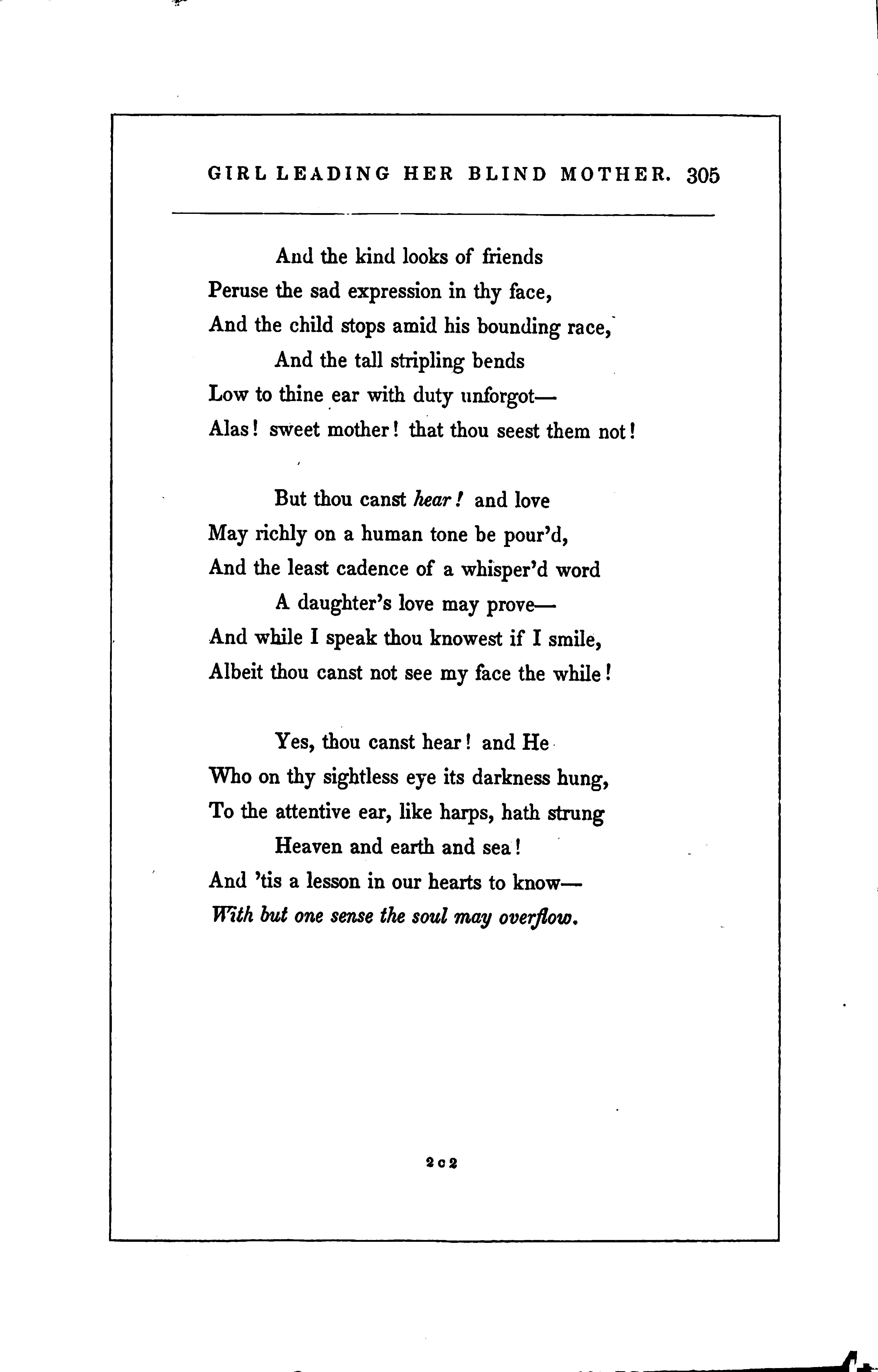

ON RECEIVING FROM HER A SPRAY OF LILIES OF THE VALLEY.
SMALL lily, that the careless overlook, Though, to the finder, sweeter than the rosePure, unobtrusive, fragrant-hearted flower-How truthful is its portraiture of thee!
I've known thee until now, as floats the mist Over the valley, silently aware
That sweetness known in heaven lay hid near by; But, as the same mist, heavy with the night, Falls in a dark tear to the lily's cup, And finds it sweetest at the darkest hour, So, thou pure girl, thy tender presence only Has an unconscious ministryto me, And near thee, in the night that shrouds me still, My darkness is forgotten.


:
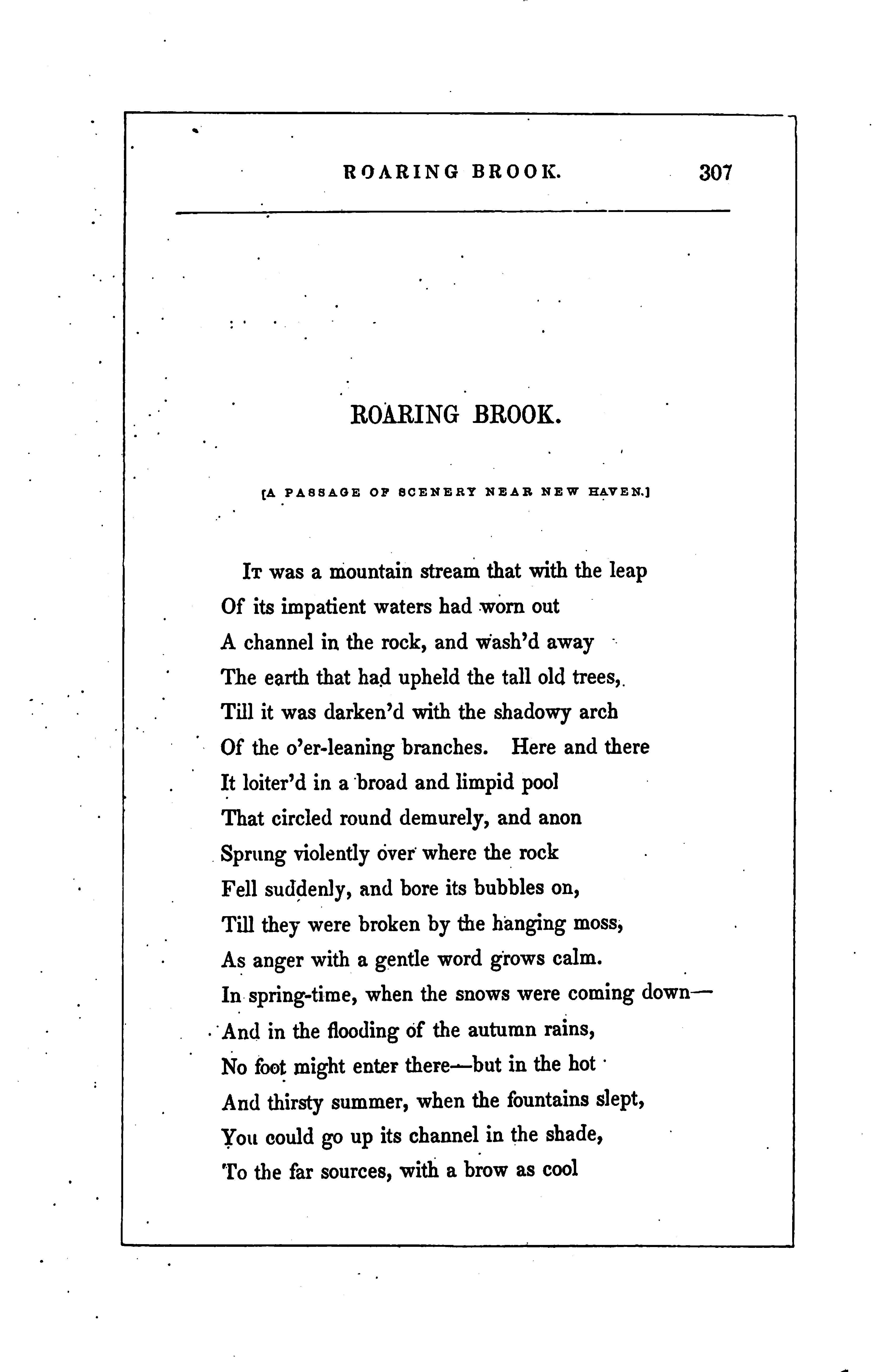
[A
It was a mountain stream that with the leap Of its impatient waters had worn out A channel in the rock, and wash'd away The earth that had upheld the tall old trees,. Till it was darken'd with the shadowy arch Of the o'er-leaning branches. Here and there It loiter'd in a broad and limpid pool That circled round demurely, and anon Sprung violently over where the rock Fell suddenly, and bore its bubbles on, Till they were broken bythe hanging moss, As anger with a gentle word grows calm. In spring-time, when the snows were coming downAnd in the flooding of the autumn rains, No foot might enter there-but in the hot· And thirsty summer, whenthe fountains slept, You could go up its channel in the shade, To the far sources, with a brow as cool

As inthe grotto of the anchorite. Here when an idle student have I come, And in a hollow of the rock lain down And mused until the eventide, or read
Some fine old poet till my nook became A haunt of faery, or the busy flow Of water to my spell-bewilder'd ear
Seem'd like the din of some gay tournament. Pleasant have been such hours, and though the wise Have said that I was indolent, and they Who taught me have reproved me that I play'd The truant inthe "leafy month of June, I deem it true philosophy in him Whose path leads to the rude and busy world, To loiter with these wayside comforters.
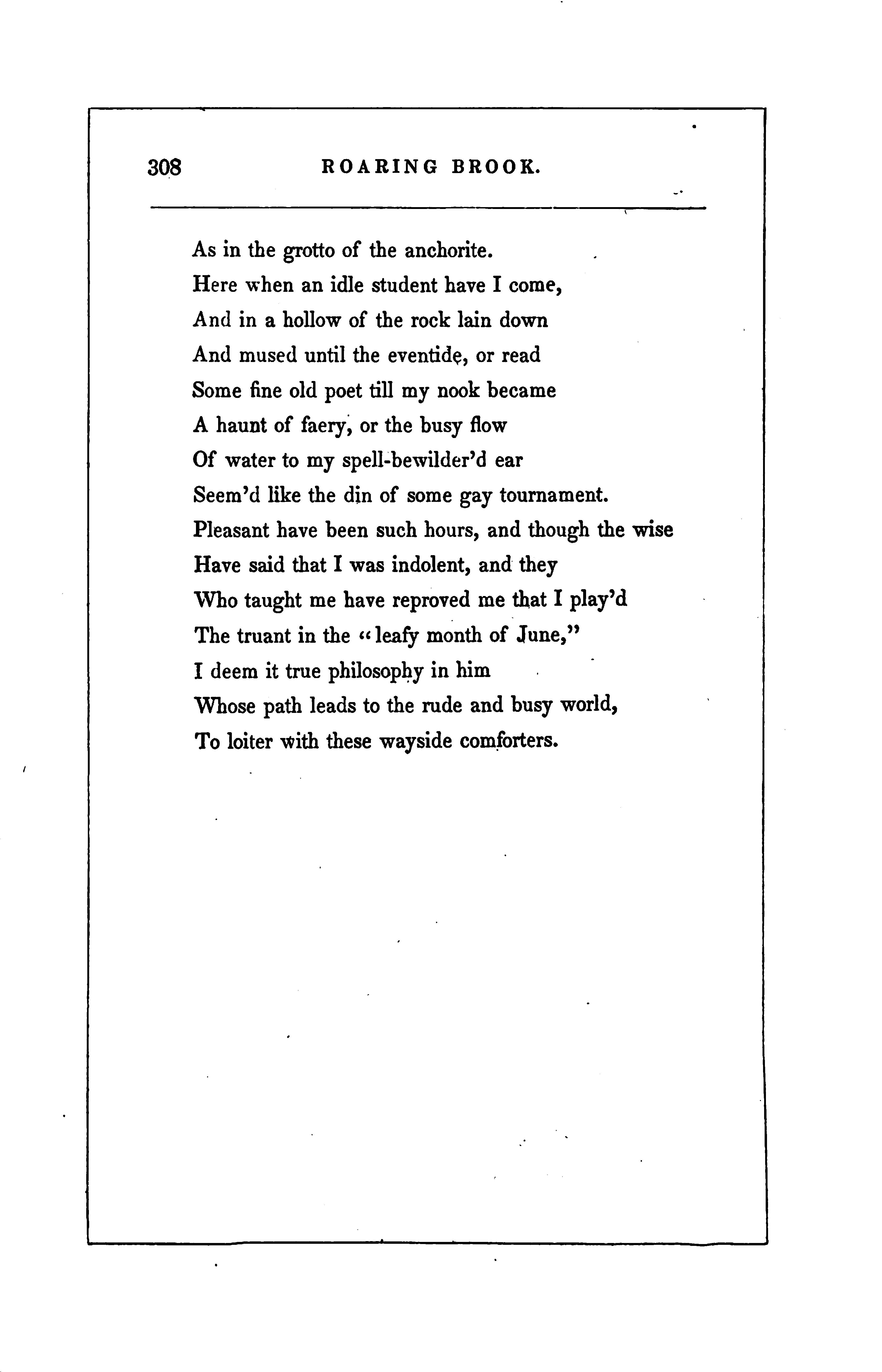

FOR AVOIDING, AFTER LONG SEPARATION, A WOMAN ONCE LOVED.
SEE me no more on earth, I pray ; Thy picture, in my memory now, Is fair as morn, and fresh as May! Few were as beautiful as thou!
And still I see that willowy form And still that cheek like roses dyedAnd still that dark eye, deep and warmThy look of love-thy step of pride ! Thy memory is a star to me, More bright as day-beams fade and flee.
But thou, indeed !-Ah! years have fled, And thou, like others, changed the whileForjoy upon the lip lies dead
If pain but cloud the sunny smile ! And care will make the roses pale, And tears will soil the lily's whiteness,
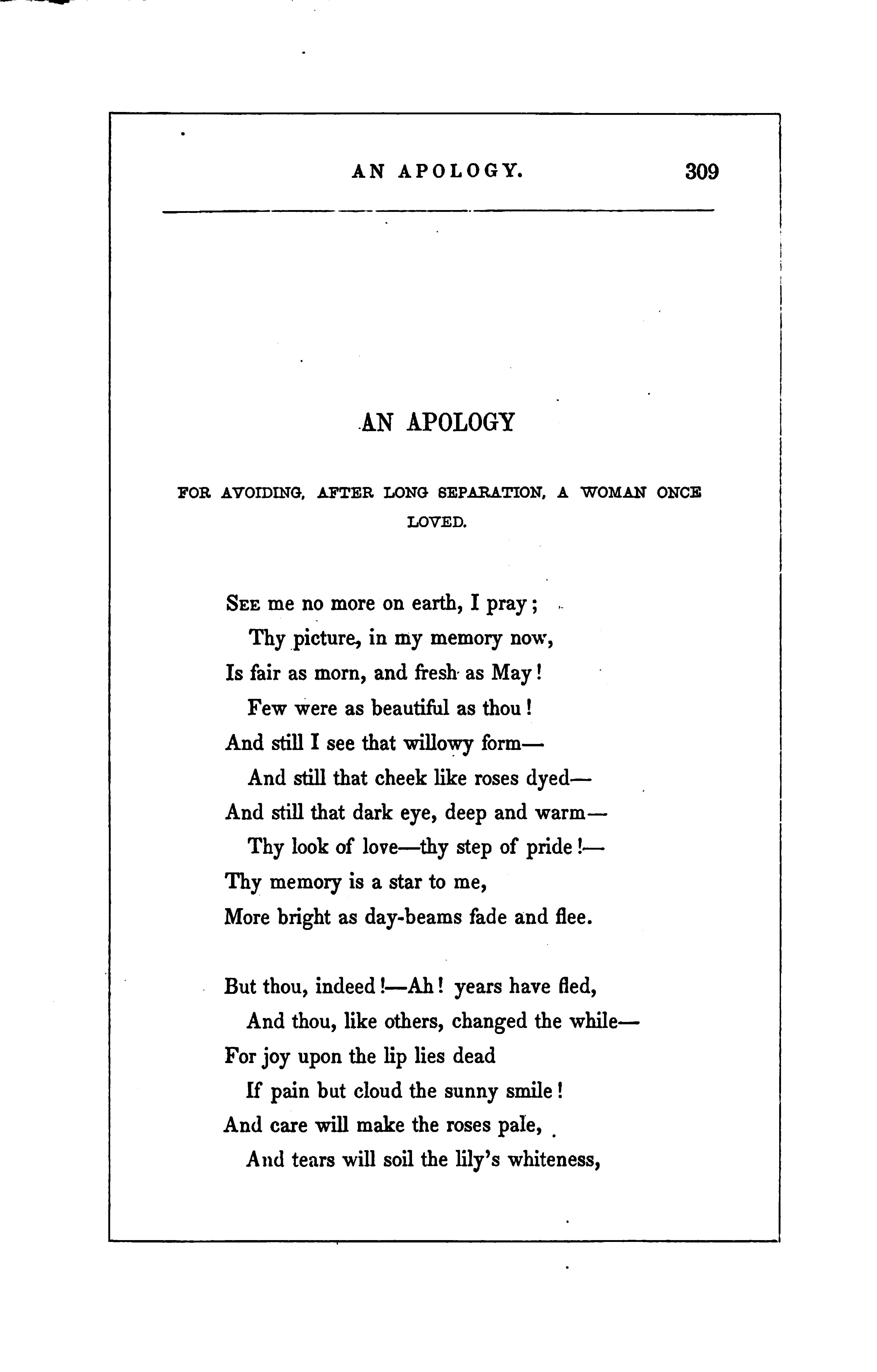

And, erelife's lamp begins to fail,
The eye forgets its trick of brightness ! Look forthe dew of morn at noon, And weep for beauty lost as soon!
Cold words that hide the envious thought!
I could not bear thy face to seeBut oh, 'tis not that time has wrought A change in features dear to me!
No! had it been my lot to share
The fragrance of the flower decay'd If I had borne but half the care
That on thy browits burden laidIf in my lovethou'dst burn'd away, The ashes still had warm'd the heart so cold to-day!
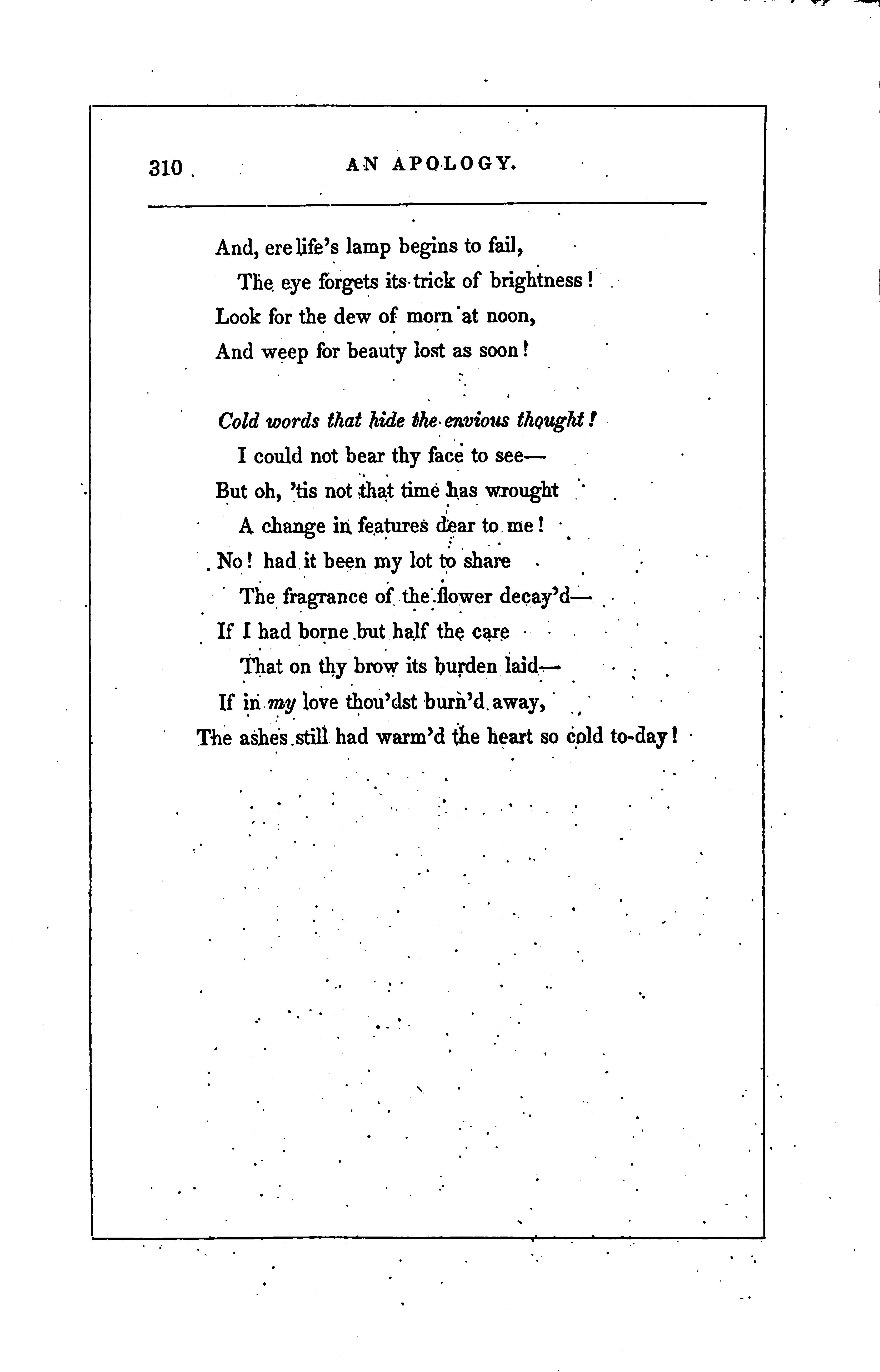

BIRTHDAY IN A FOREIGN ISLE. 311
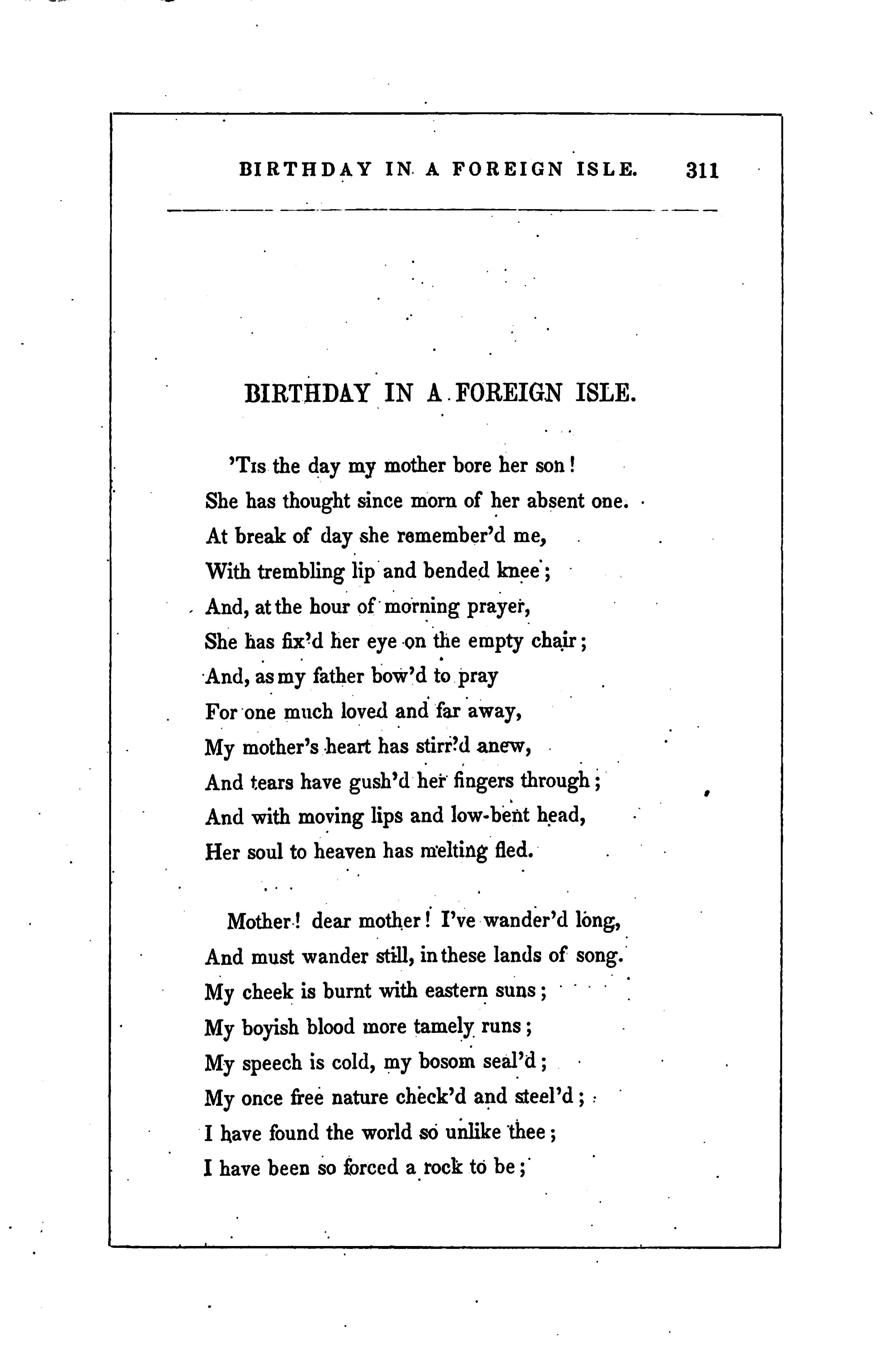
BIRTHDAY IN A FOREIGN ISLE.
'Tis the day my mother bore her son!
She has thought since morn of her absent one. At break of day she remember'd me, With trembling lip and bended knee' ; And, atthe hour of morning prayer, She has fix'd her eye onthe empty chair; And, asmy father bow'd to pray For one much loved and far away, My mother's heart has stirr d anew, And tears have gush'd her fingers through ; And with moving lips and low-bent head, Her soul to heaven has melting fled.
Mother ! dear mother! I've wander'd long, And must wander still, inthese lands of song.
My cheek is burnt with eastern suns ; My boyish blood more tamely runs ; My speech is cold, my bosom seal'd ; My once free nature check'd and steel'd ; I have found the world so unlike thee; I have been so forced a rock to be;

It has froze my heart ! of my mother only, When the hours are sad, in places lonely Only of thee-does a thought go by That leaves a tear in my weary eye : I see thy smile in the clouded air; I feel thy hand in my wind-stirr'd hair; I hear thy voice, with its pleading tone, When else I had felt in the world aloneSo alone, that there seemed to be Only my mother 'twixt heaven and me!
Mother ! dear mother ! the feeling nurst
As I hung at thy bosom, clung round thee first 'Twas the earliest link in love's warm chain ; 'Tis the only one that will long remain ; And as, year by year, and day by day, Some friend still trusted drops away,
Mother ! dear mother ! oh, dost thou see Howthe shorten'd chain brings me nearer thee! Malta, Jan. 20, 1834.
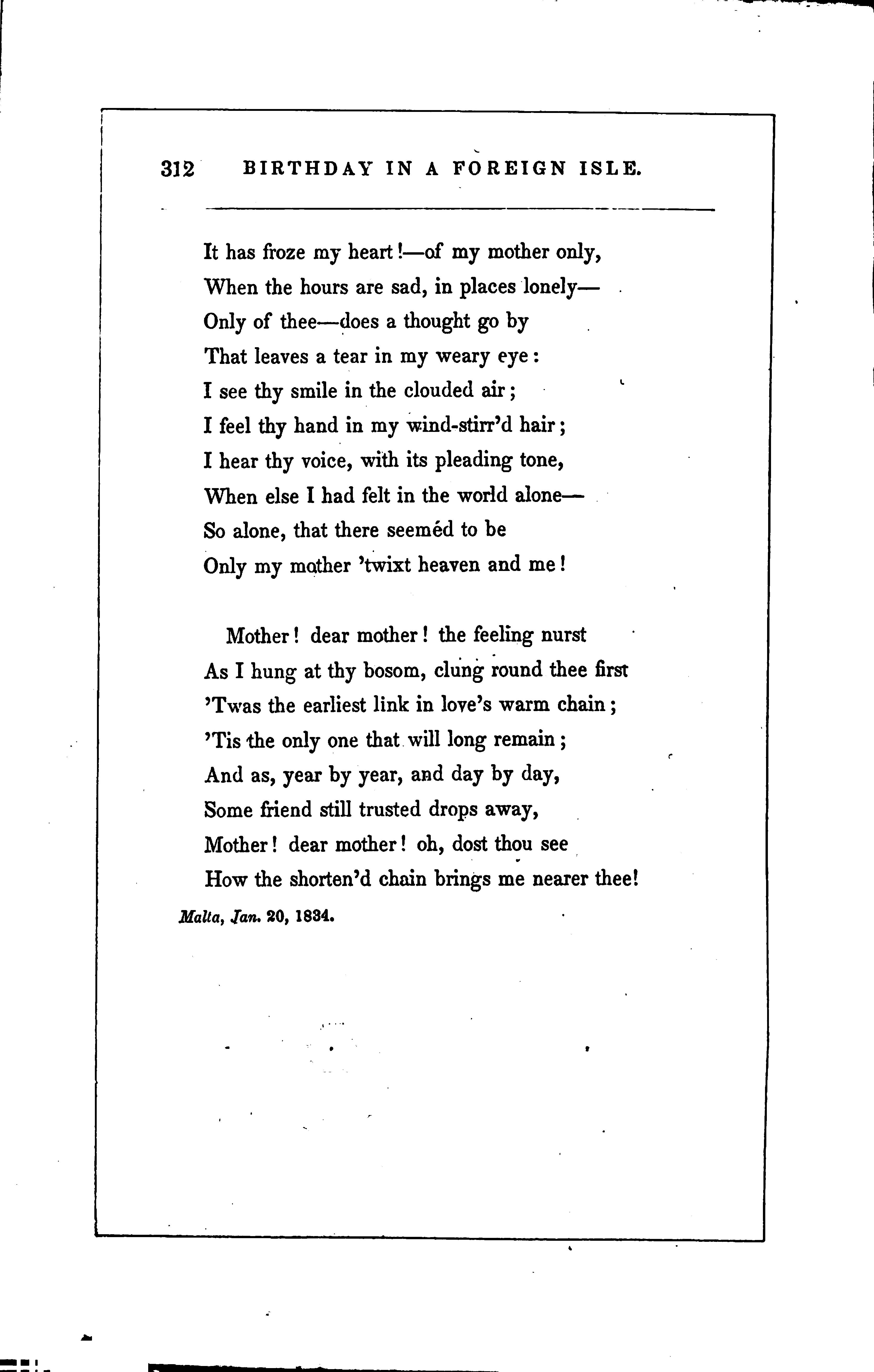

THY love is like the thread of a new moon
Drawn on the faint blue of a break in clouds : The thunder of a storm not surely o'er Murmurs beneath it, and the lightning gleams Brokenly still, in one mass dark and near, As if it would close turbulently o'er And make all black again. But, motionless, As 'twere an angel's shallop in a calm, The bent moon floats, and its round freight of hope Lies in its breast-to unbelieving eyes
A shadow that can never grow more fair, But, to the clearer-sighted stars, a promise Of brightness that will wax to fill a heaven.
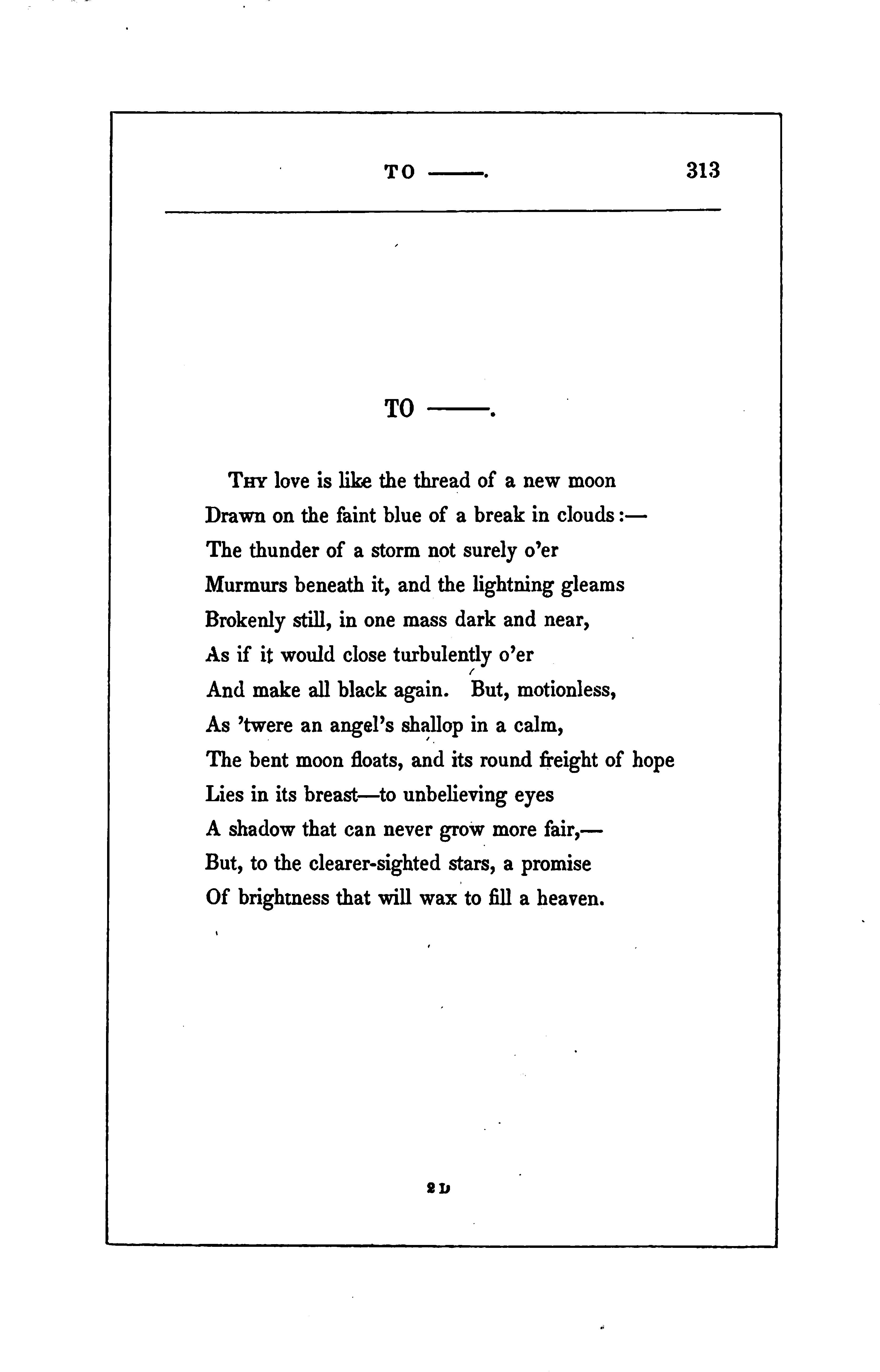

[MRS. WM. F. O- -J.
PASS thou on for the vowis said That may ne'er be broken; The trembling hand hath a blessing laid On snowy forehead and auburn braid, And the word is spoken By lips that never their word betray'd.
Pass thou on! for thy human all Is richly given, And the voice that claims its holy thrall Must be sweeter for life than musio's fall, And, this side heaven, Thy lip may never that trust recall.
Pass thou on! yet many an eye Will droop and glisten ; And the hushing heart in vain will try To still its pulse as thy step goes by,
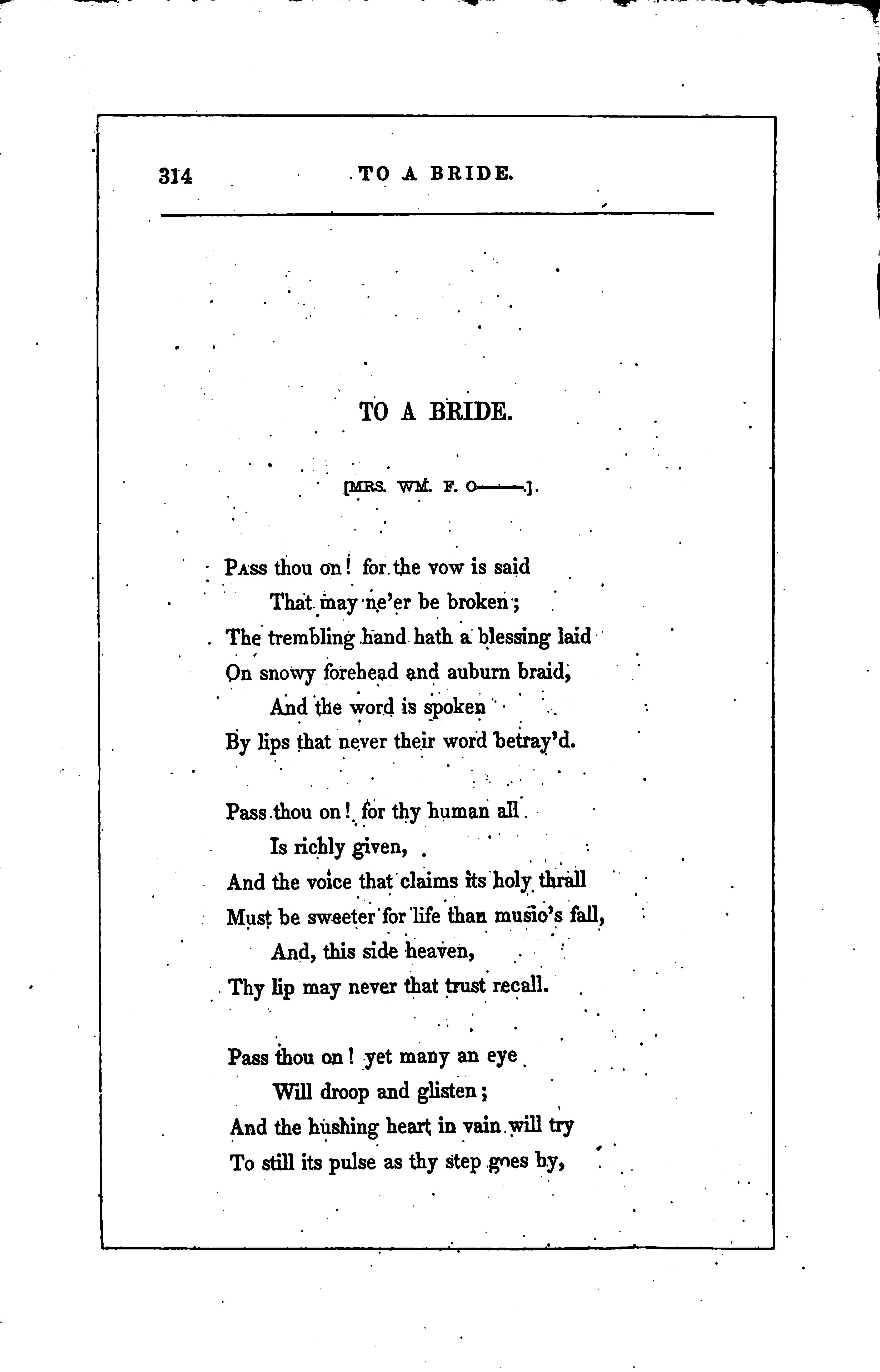

And we vainly listen
For thy voice of witching melody.
Pass thou on! yet a sister's tone
In its sweetness lingers, Like some twin echo sent back alone, Or the bird's soft note when its mate hath flown ; And a sister's fingers
Will again o'er the thrilling harp be thrown.
And our eyes will rest on their foreheads fair, And our hearts awaken Whenever we come where their voices areBut oh, we shall think how musical were, Ere of thee forsaken, The mingled voices we listed there.
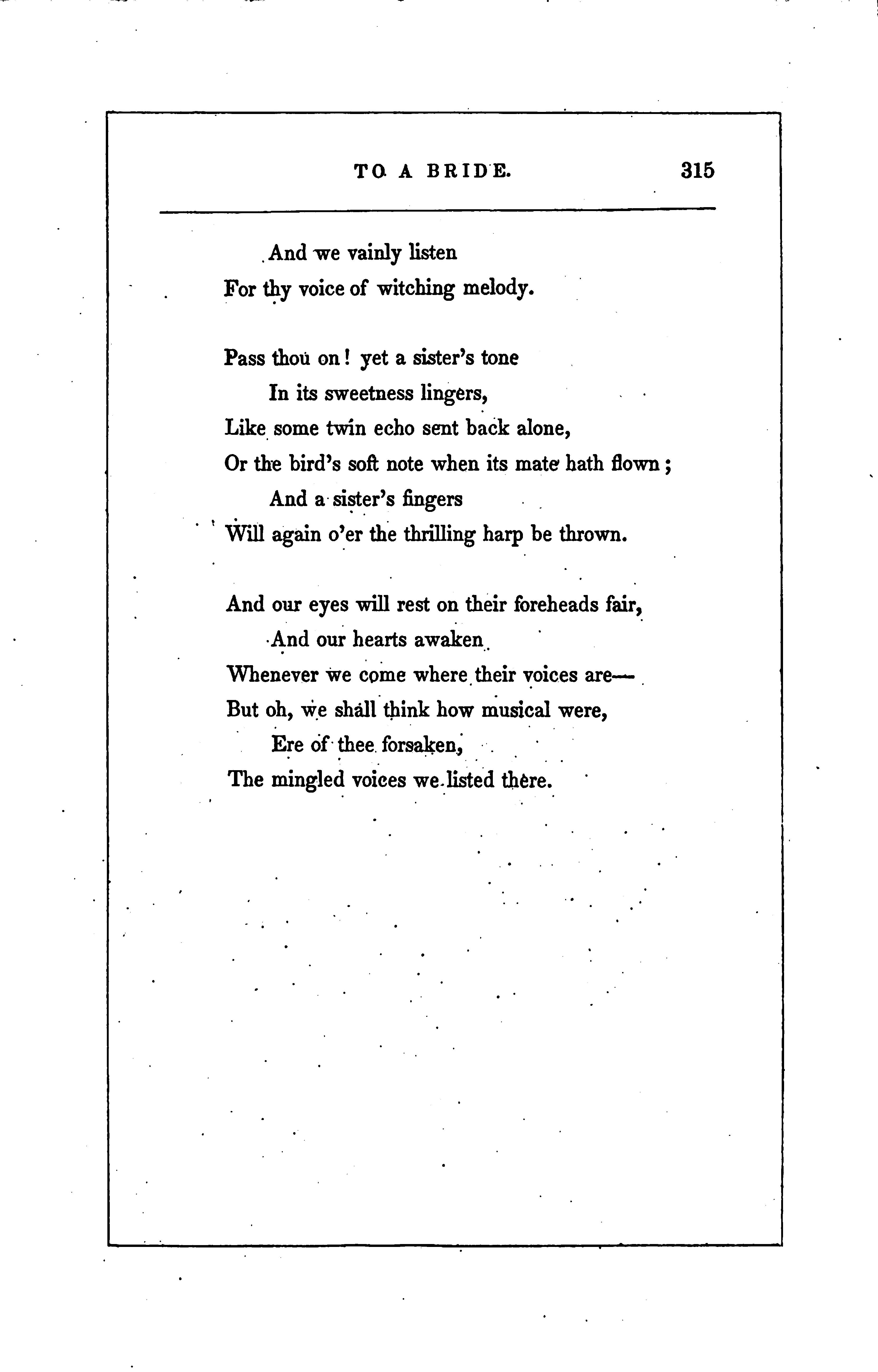

1 DESPONDENCY IN SPRING.
BEAUTIFUL robin ! with thy feathers red
Contrasting, flower-like, withthe soft green tree, Making thy little flights, as thou art led
By things that tempt a simple one like thee. I would that thou couldst warble me to tears
As lightly as the birds of other years !
Idly to lie beneath an April sun, Pressingthe perfume fromthe tender grass ;
To watch ajoyous rivulet leap on
With the clear tinkle of a music glass, And, as I sawthe early robin pass,
To hear him through his little compass runOnly with joys like these to overflow Is happiness my heart will no more know.
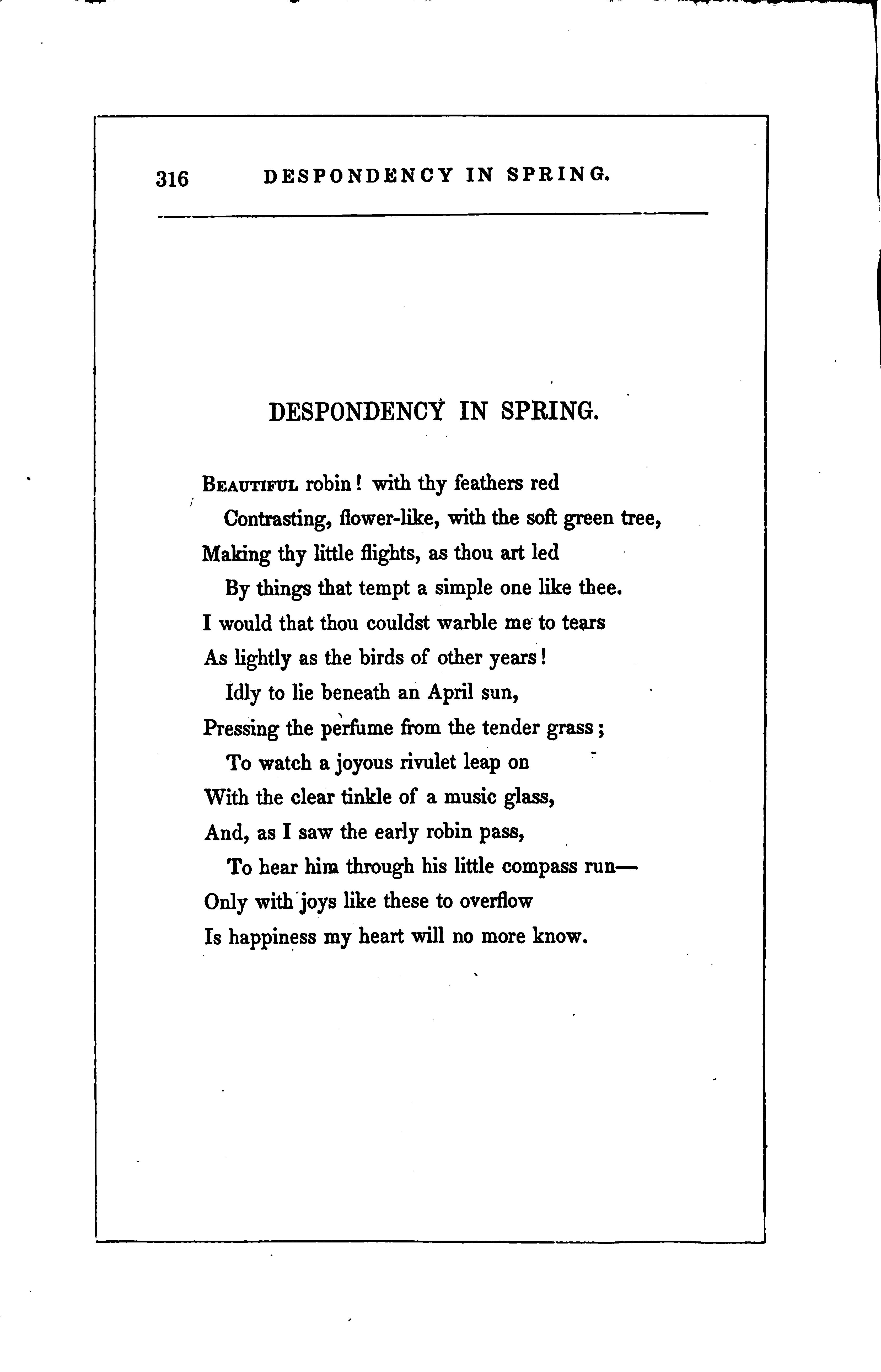

EXQUISITE Laura ! with thy pouting lip
And the arch smile that makes me constant so, Tempting me still, like a dull bee, to sip. ? The flower I should have left so long ago Beautiful Laura ! who art just so fair
That I can think thee loveliest when alone, And still art not so wonderfully rare
That I could never find a prettier one Fetterless Laura laughing, sighing, crying, In the same breath, and gravest with the gay, So wild that Cupid ever shoots thee flying, And knows his archery is thrown awayInconstant as I am, I cannot yet Break thy sweet chain, oh merciless coquette'
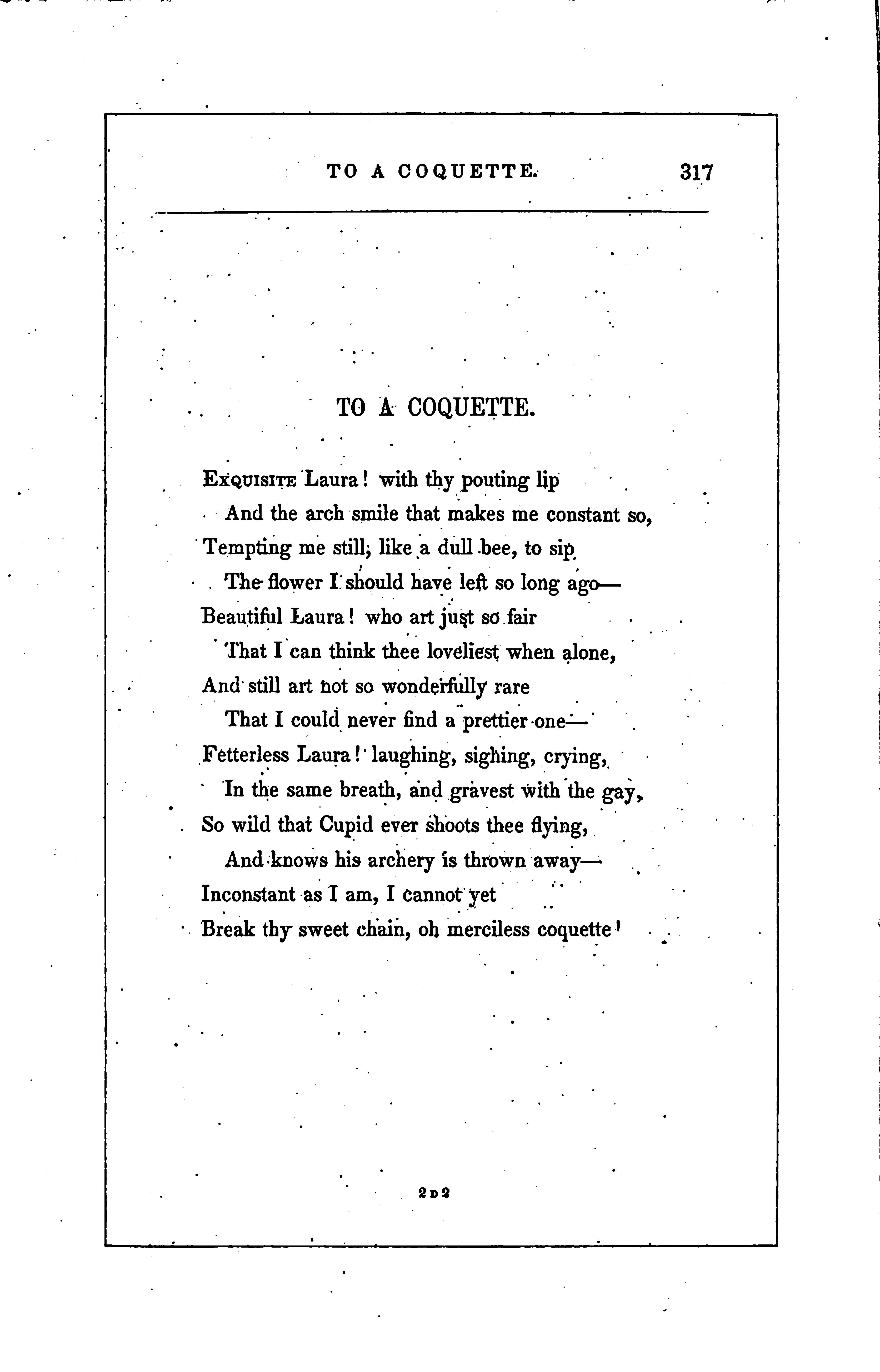

"Deep, it is said, under yonder pyramid, has for ages lain concealed the Table of Emerald, on which the thrice-great Hermes engraved, before the flood, thesecret of alchymy that gives gold at will."
Moore'sEpicurean.
THAT Emerald vast of the PyramidWere I where it is laid, I would ask no king for his heavy crown
As its mystic words were said. The pomp of wealth, the show of power In vain for me would shine, And nought that brings the mind a care Would win bright gold of mine.
Would I feast all day-revel all night
Laugh with a secret sadness ?
Would I sleep away the breezy morn
And wake to the goblet's madness ?
Would I spend no time and no golden ore
Forthe wisdom that sages knew?
Would I run to waste with a human mind,
Toits holy trust untrue ?
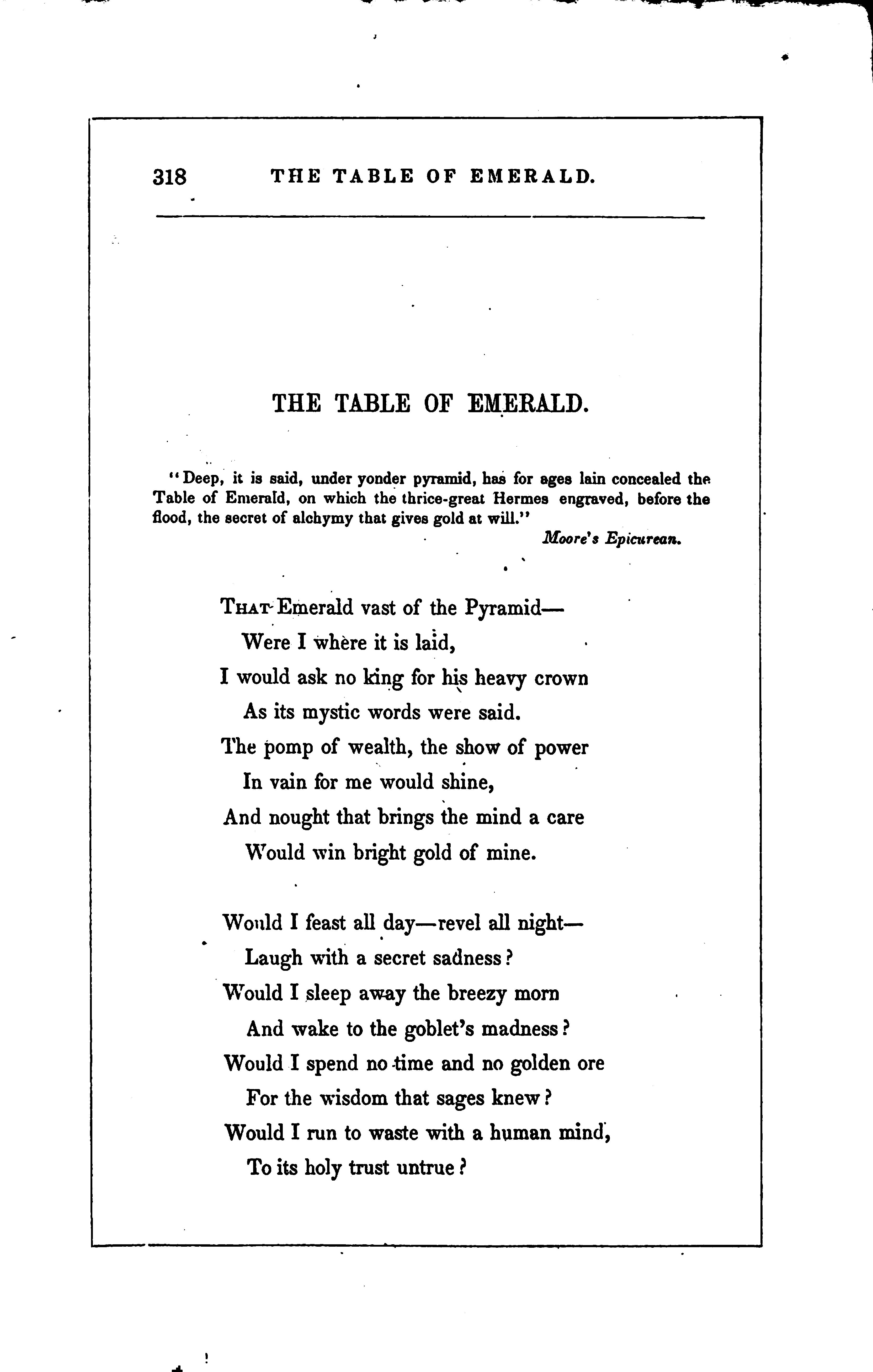

Oh knew I the depth of that Emerald spell, And had I the gold it brings, I would never load with a feaster's joy
My spirit's mounting wings.
I would bind no wreath to my brow to-day, That would leave a stain to-morrow, Nor drink a draught of joy to-night
That would change with morn to sorrow.
But, oh! I would burst this chain of forms, And be spirit and fancy-free ; For costly aid to my mind alone
Should my gold be scatter'd free. I would place my foot on my heaps of ore
To mountto Wisdom's throne, And buy, with the wealth of an Indian mine, To be left, of care, alone.
Ambition ! my lip would laugh to scorn Thy plume and thy gleaming sword ! I would follow sooner a woman's eye
Or a child's imperfect word; But come with the glory of human thought, And the light of the scholar's brow, And my heart shall be taught forgetfulness And alone at thy altar bow!
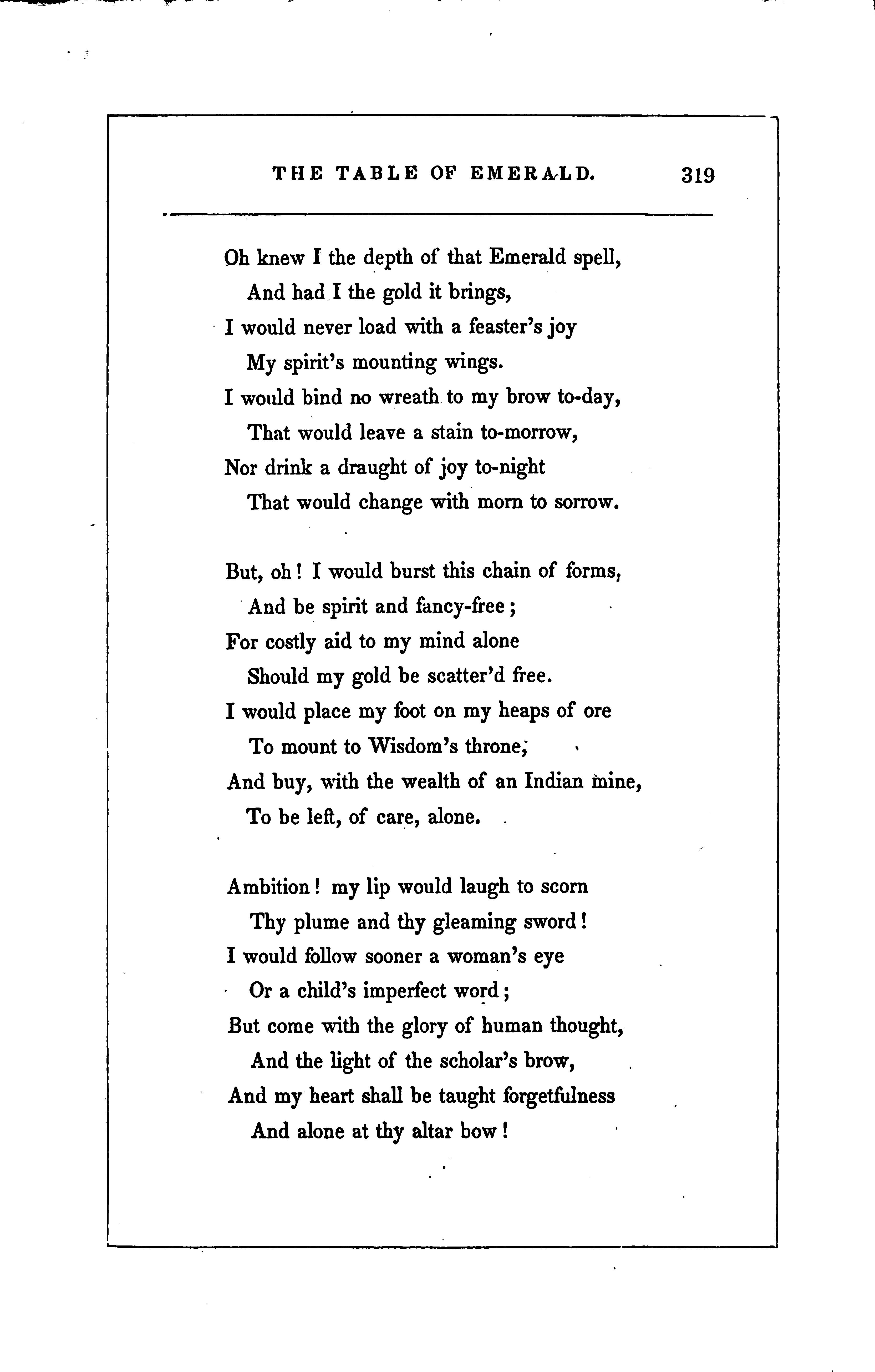

THE TABLE OF EMERALD.
There was one mild eye-there was one deep toneThey were dear to this heart of mine! Dearer to me was that mild blue eye Than the light on Wisdom's shrine. My soul brought up from its deepest cell The sum of its earthly love ; But it could not buy her wing from heaven, And she flew to her home above..
That first deep love I have taken back In my rayless breast to hide ; With the tear it brought for a burning seal, "Twill there forever bide.
I may stretch on now to another goalI may feed mythoughts of flameThe tie is broken that kept me back,.¨ And my mind speeds on-for fame.
But, alas ! I am dreaming as if I knew The spell of the tablet green! I forget how like to a broken reed Is the hope on which I lean. There is nothing true of my idle dream But the wreck of my early love, And my mind is coin'd for my daily bread, And how can it soar above?
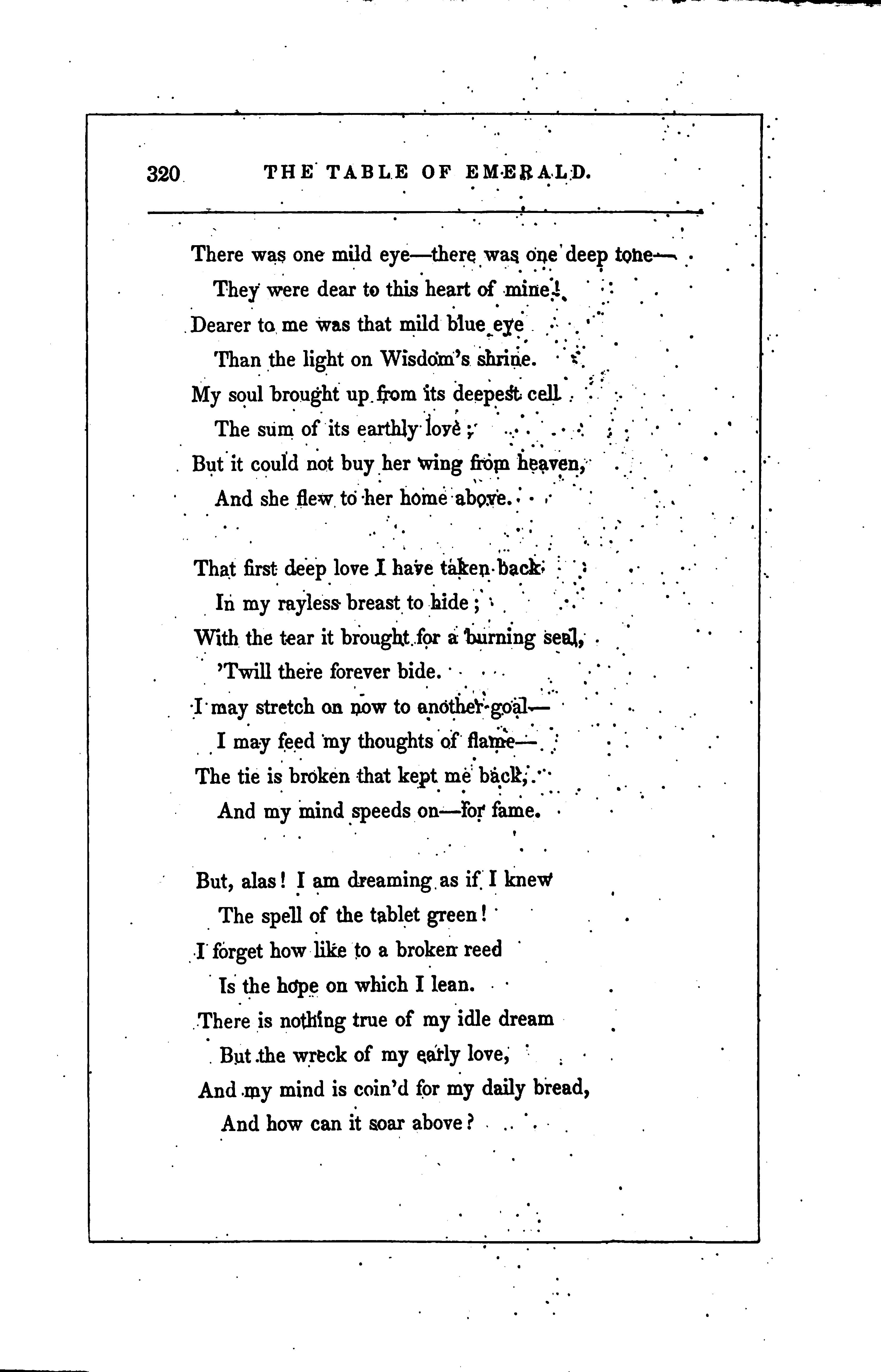

'Twas broken in the gliding dance, When thou wert in thy dream of power, When lip and motion, smile and glance Were lovely all-the belle's bright hour. The light lay soft upon thy brow, The music melted in thine ear, And one, perchance forgotten now, With 'wilder'd thoughts, stood musing near, Marvelling not that links of gold A pulse like thine had not controll'd.
'Tis midnight now-the dancers goneAnd thou in thy rich dreams asleep ; And I, awake, am gazing on The fragments given me to keep. I think of every glowing vein That ran beneath these links of gold, And wonder if a thrill of pain
Made those bright channels ever cold ! With gifts like thine, I cannot think Grief ever chill'd this broken link.
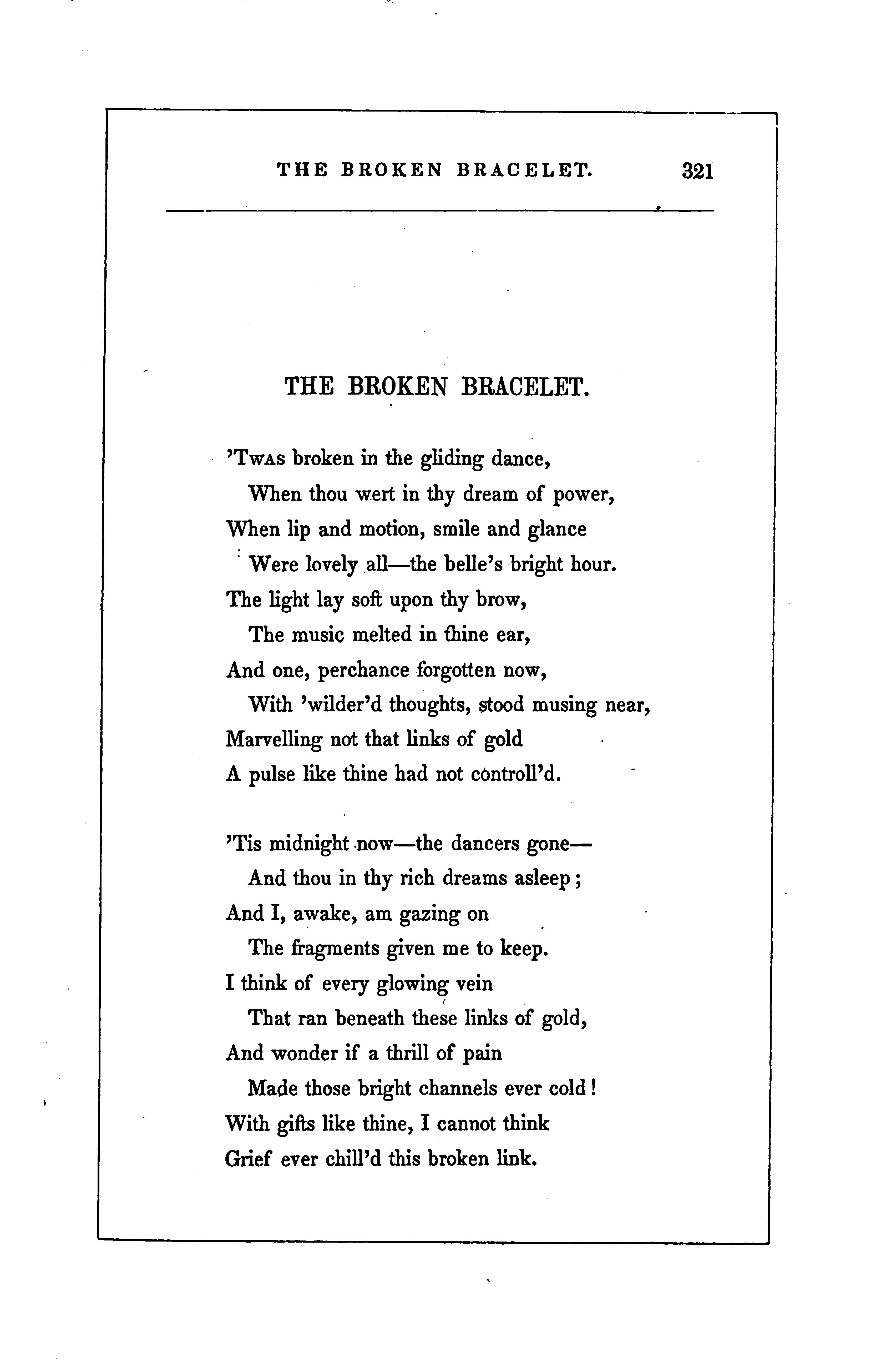

Good night! 'tis little now to thee
That in my earthy words were spoken, And thou wilt think of them, and me,
As long as of the bracelet broken.
And thus is riven many a chain
Thatthou hast fasten'd but to break,. And thus thou'lt sink to sleep again,
As careless if another wake;
The only thought thy heart can rend ·Is what thefellow ll charge to mend..
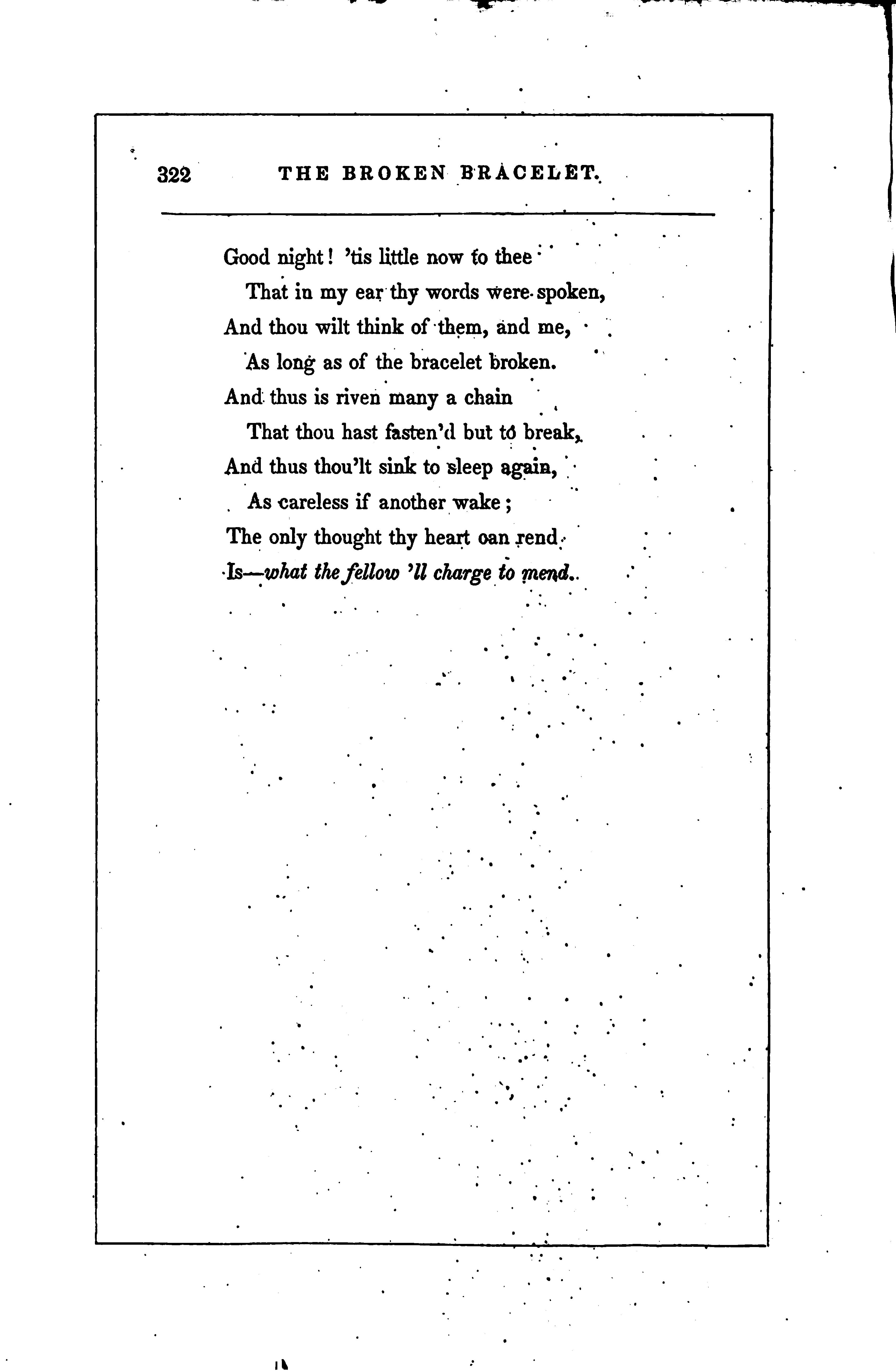

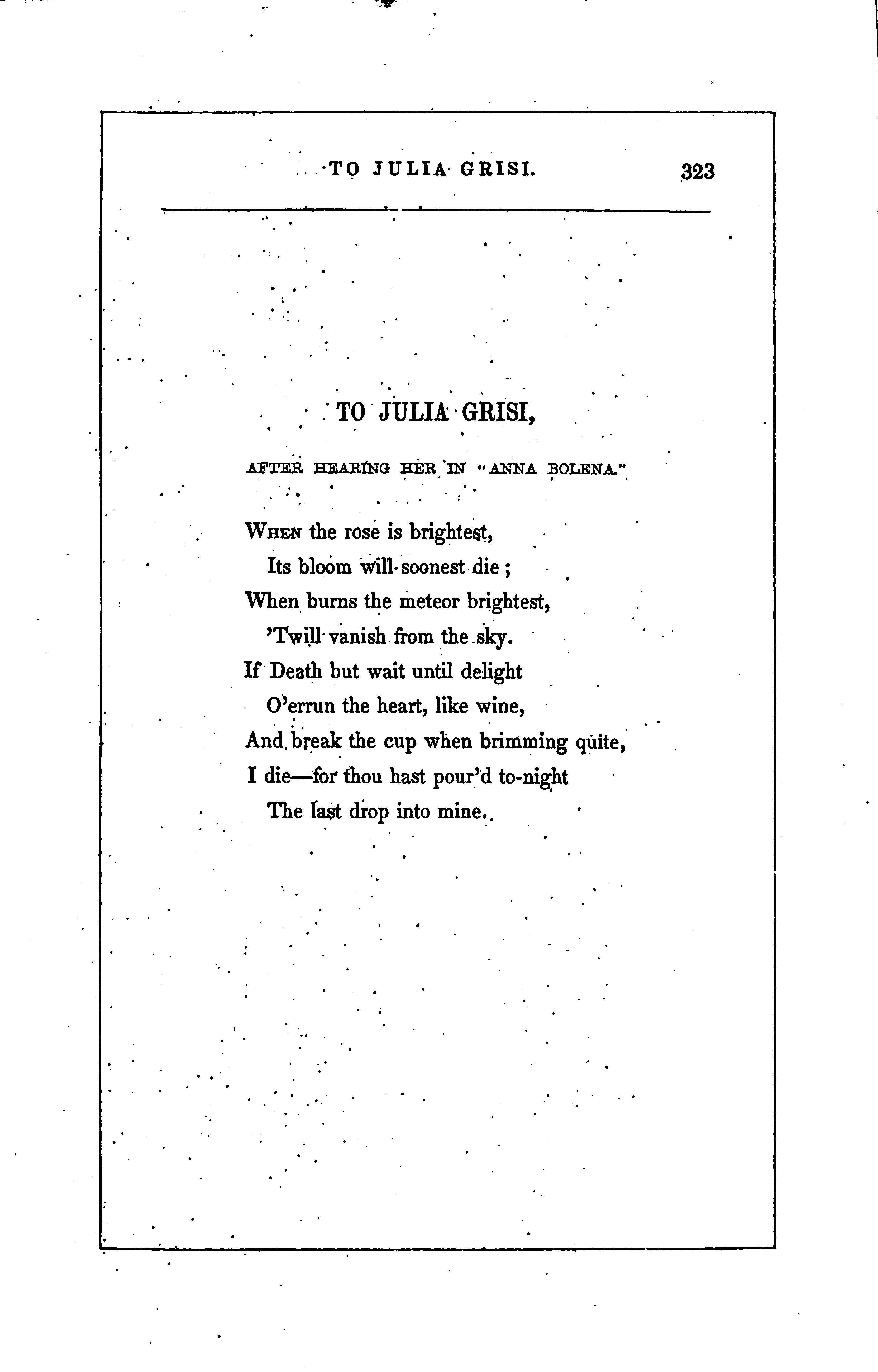
WHENthe rose is brightest, Its bloom will soonest die ; When burns the meteor brightest, "Twill vanish from the sky. If Death but wait until delight O'errun the heart, like wine, And breakthe cup when brimming quite, I die for thou hast pour'd to-night The last drop into mine..

[EXTRACTS FROM A POEM DELIVERED BEFORE THE LINONIAN SOCIETY OF YALE COLLEGE, NEW HAVEN.]
THE leaves we knew Are gone, these many summers, and the winds Have scatter'd them all roughly through the world ; But still, in calm and venerable strength, The old stems lift their burthens up to heaven, And the young leaves, to the same pleasant tun , Drink inthe light, and strengthen, and grow fair. The shadows have the same cool, emerald air ; And prodigal as ever is the breeze, Distributing the verdure's temperate balm. The trees are sweet to us. The outcry strong
Of the long-wandering and returning heart, Is forthe thing least changed. A stone unturn'd Is sweeter than a strange or alter'd face ; Atree, that flings its shadow as of yore, Will make the blood stir, sometimes, when the words Of a long-look'd-for lip fall icy cold.
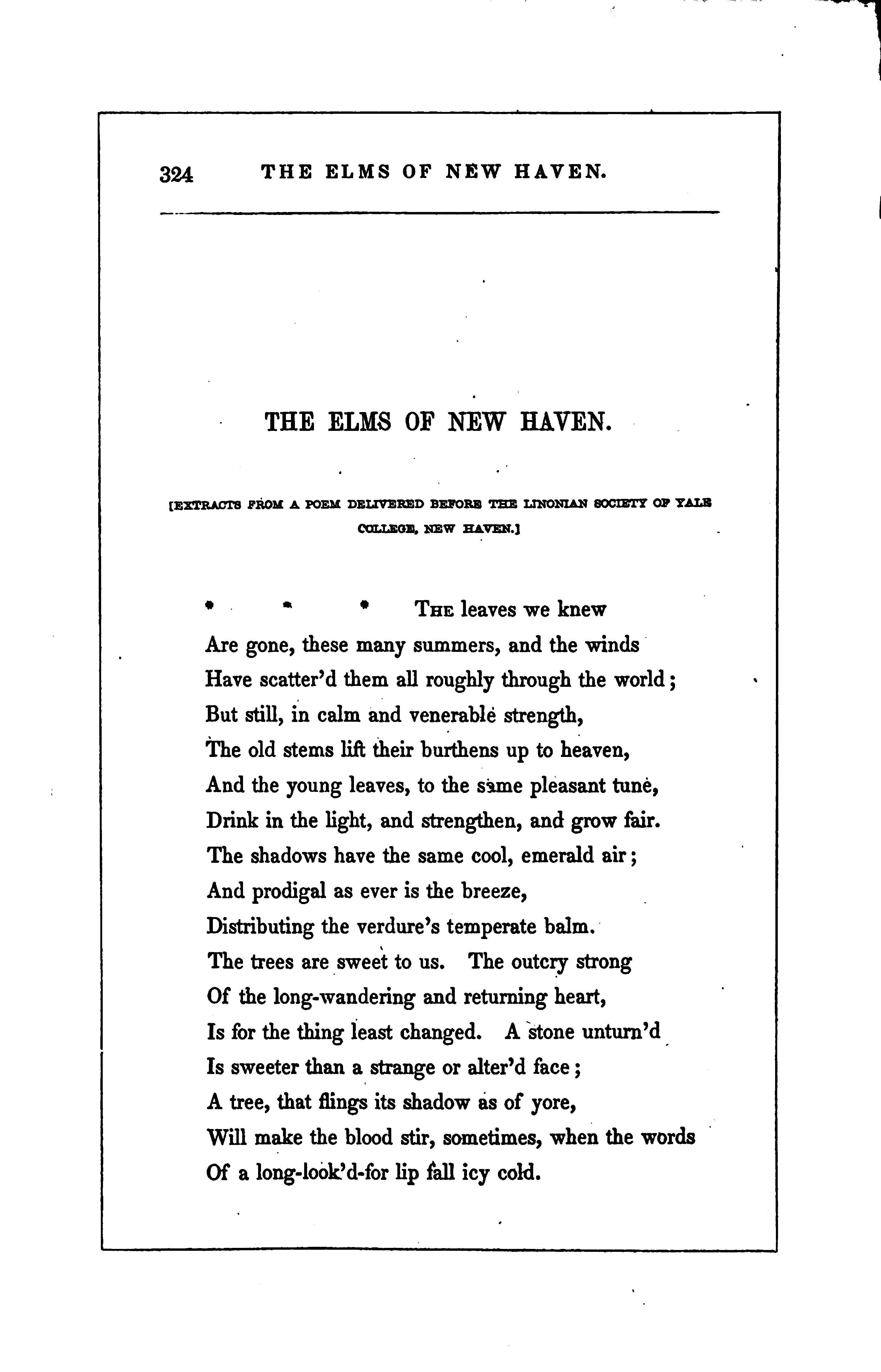

Ye, whoin this Academy of shade, Dreamt out the scholar's dream, and then away On troubled seas went voyaging with Care, But hail to-day the well-remember'd haven-
Ye, who at memory's trumpet-call, have stay'd
The struggling foot of life, the warring hand, And, weary of the strife, come back to see
The green tent where your harness was put on-
Say when you trod the shadowy street this morn, Leapt not your heart up to the glorious trees?
Say-was it only to my sleep they came-
The angels, who to these remember'd trees
Brought me back, ever ? I have cóme, in dream,
From many a far land, many a brighter sky, And trod these dappled shadows till the morn.
From every Gothic aisle my heart fled home, From every groinéd roof, and pointed arch,
To find its type in emerald beauty here.
The moon we worshipp'd through this trembling veil, In other heavens seem'd garish and unclad.
The stars that burn'd to us through whispering leaves, Stood cold and silently in other skies:
Stiller seem'd alway here the holy dawn
Hush'd by the breathless silence of the trees;
And who, that ever, on a Sabbath morn, Sent through this leafy roof a prayer to Heaven, fnd whenthe sweet bells burst upon the air,
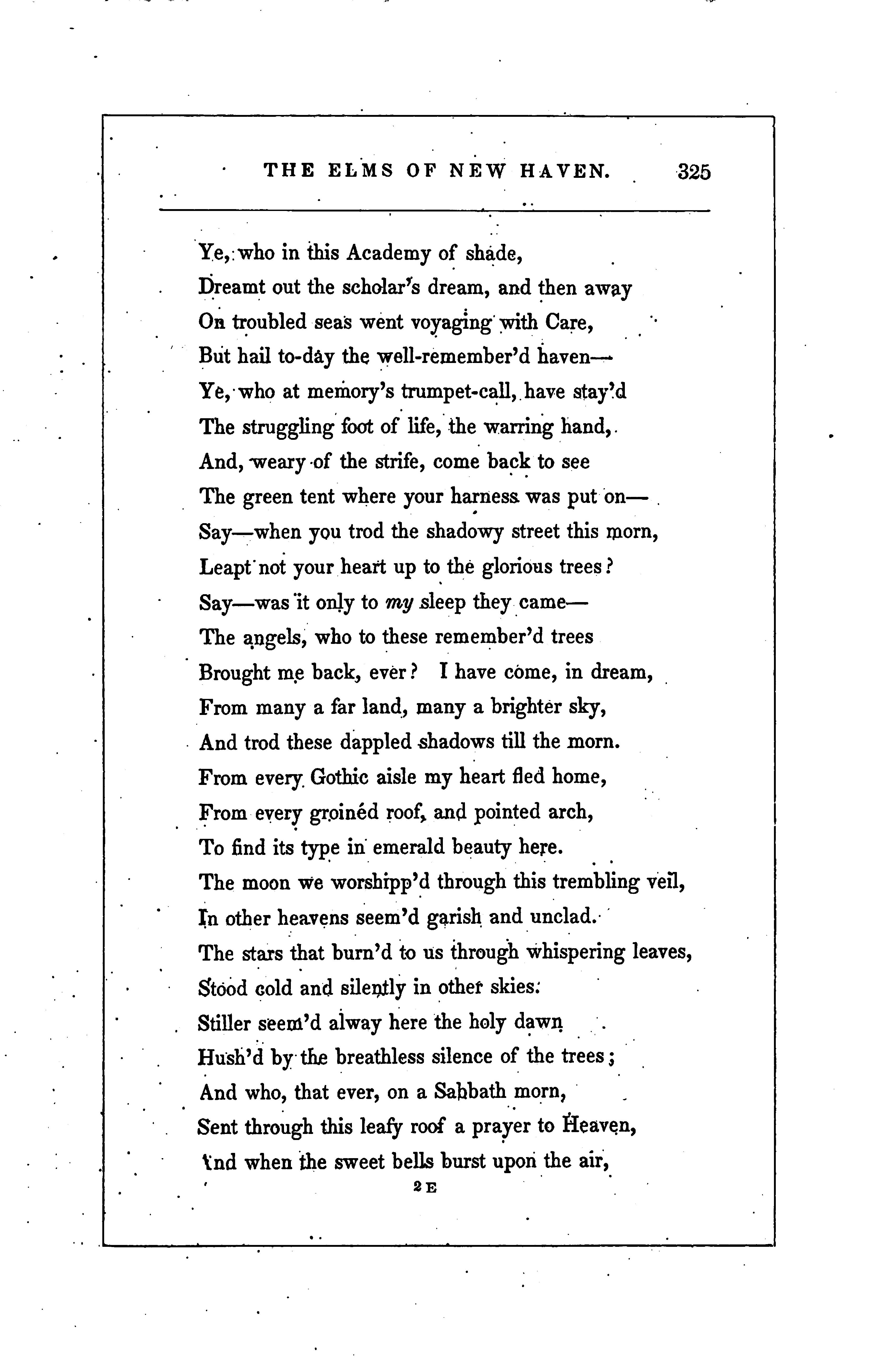

Saw the leaves quiver, and the flecks of light
Leap like caressing angels to the feet
Of the church-going multitude, but felt
That here, God's day was holier that the trees, Pierced by these shining spires, and echoing ever "To prayer!" " To prayer!" were but the lofty roof
Of an unhewn cathedral, in whose choirs
Breezes and storm-winds, and the many birds
Join'd in the varied anthem ; and that so, Resting their breasts upon these bending limbs, Closer, and readier to our need they layThe spirits who keep watch 'twixt us and Heaven.
Alas ! not spirits of bright wing alone " Dwell by the oracle of God." The tree
That with its bright spray fans the sacred spire, And trembles like a seraph's lyre to prayer,
Is peopled with the lying ministers
To new-born passions, who, with couchant ear, Follow the lone steps of the musing boy, And ere the wild wish struggles to the light,
Mask its dark features, and with silvery voice Promise it wings resistless. Back, to-day, Comes many a foot, all wearily and slow, That went into the world with wingéd heel ; And many a man, still young, though wisely sad, Paces the sweet old shadows with a sigh,
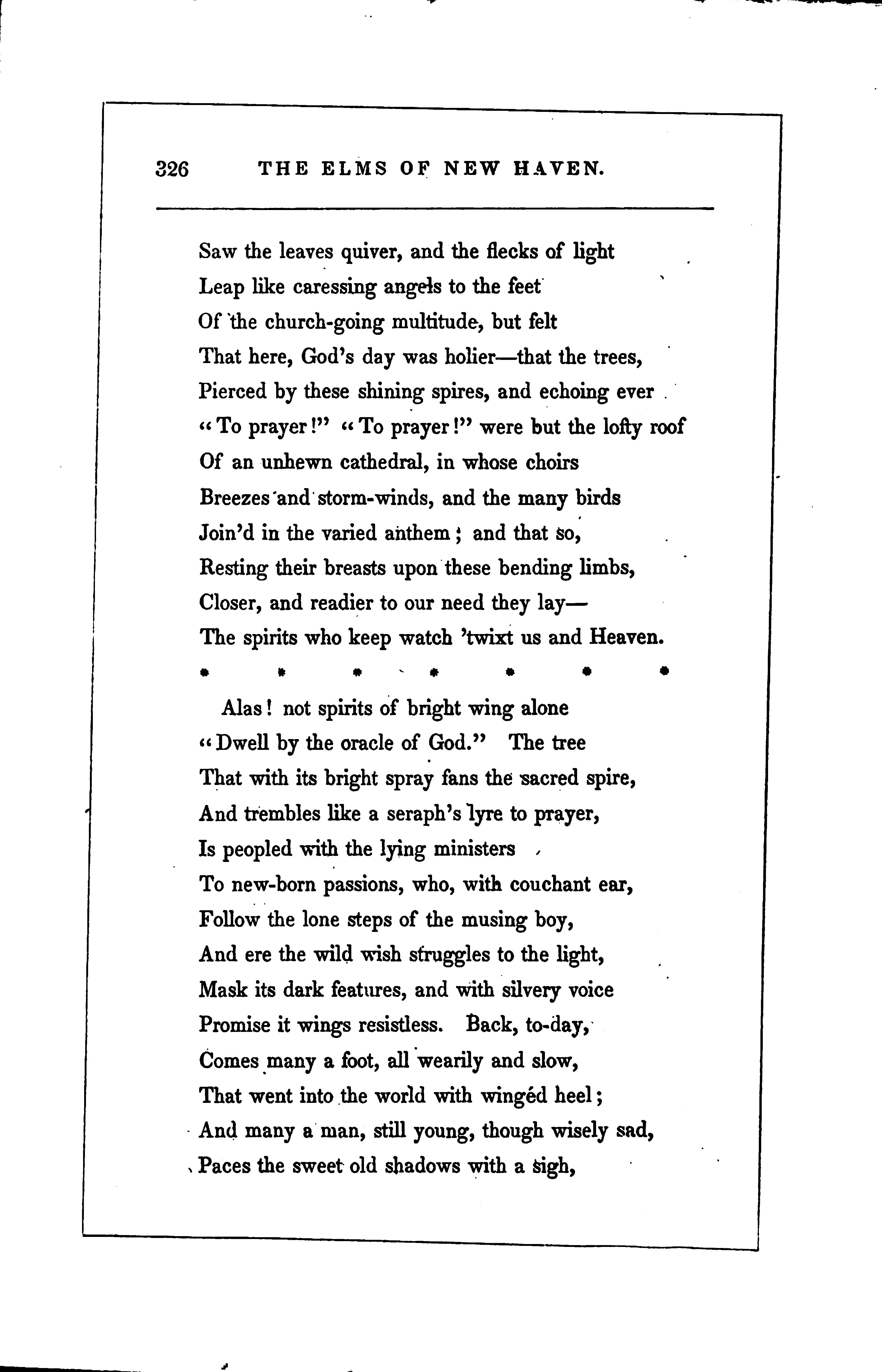

The spirits are so mute to manhood's ear
On a night,
That tranced the boy with music ! On a The fairest of a summer, years ago, ( There walk'd a youth beneath these arching trees. The moon was in mid-heaven, an orb of gold. The air was rock'd asleep, or mid the leaves Waked without whisper. On the pavement lay
The broken moonbeams, like a silver net, Massive and motionless, and, if a bird Sang a half carol as the moon wore on And look'd into his nest, or if the note Of a monotonous insect caught the ear, The silence was but challenged by the sound, And night seem'd stiller after. With his heart Robb'd of its sentinel, the youth, paced on.
His truant soul lay breathless on his lips, Drows'd with the spell of the voluptuous air ; And shut was memory's monitory book ; And mute, alas ! as they will sometimes be, Were Heaven's rebuking angels. Then uprose
In the unguarded chamber of his heart, A murmur, inarticulate and wild ; And ere it had a semblance, or a name, A soft voice from the trees said, "Wak'st thou there?
Wak'st thou, at last, O nature? Thou hast slept, Far through the morn, and glowing flowers of joy, Many and bright ones, hast thou lost forever ;
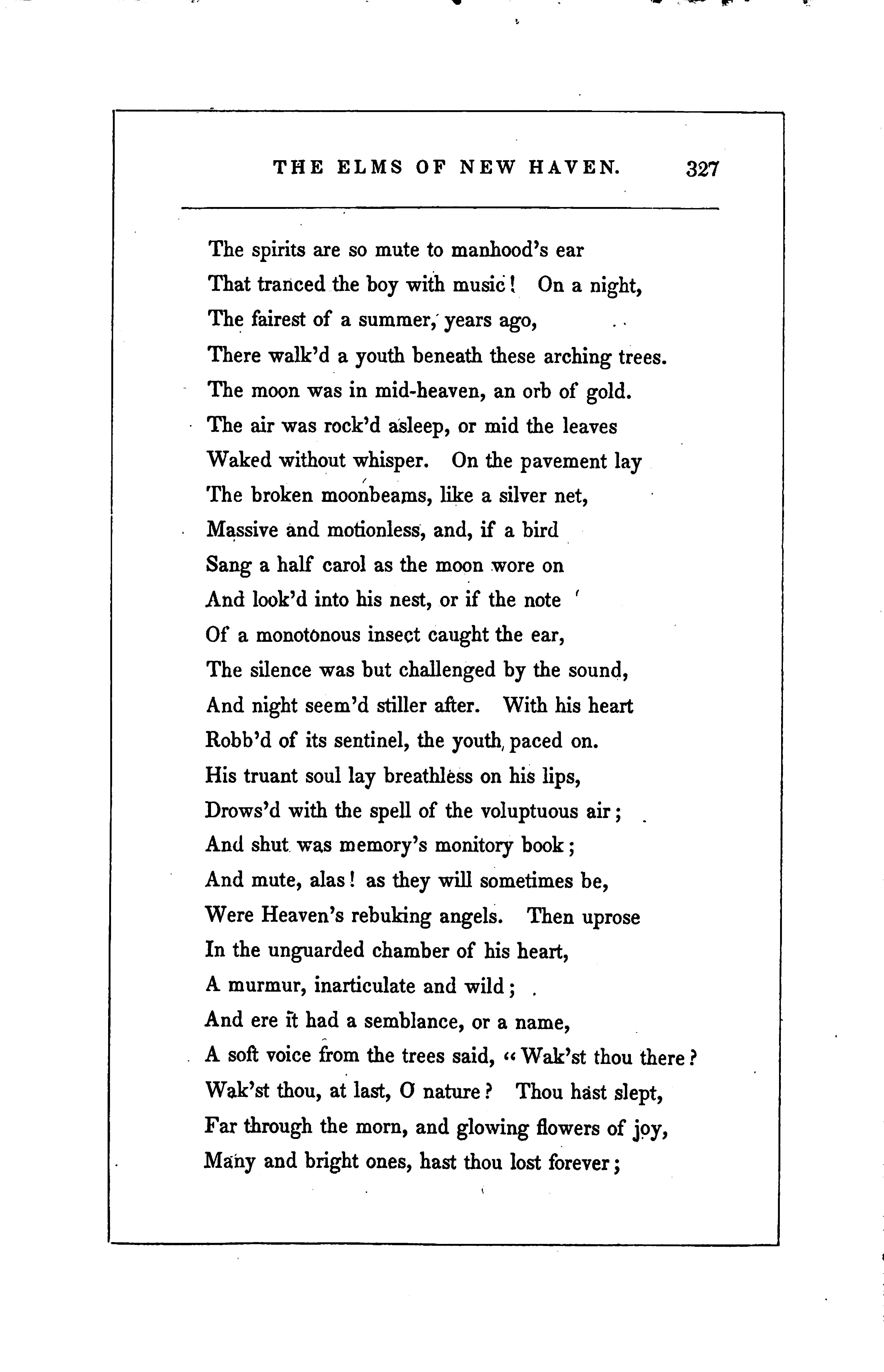

But life is full of roses--come away!
Shut up those dreary books, and come away! Why isthe night so passionately sweet, If made for study and a browof care?
Why are your lips pride, and your eyes soft fire ? Why beautiful in youth-if cold to joy?. List to the pleading senses, where they lie, Numb and forgotten in the cell of thought ; Yet are they God's gift-precious as the rest.
Use what thou hast-turn to the soft path ever,-
And, in the garden of this pleasant world, . Pluck what seems fairest to thee!"? A light wind .. Stole through the trees, and with its airy hand
Lifted the leafy veil from off the moon; And steadfastly Night's solemn eye look'd in Upon the flush'd face of the troubled boy And the mysterious voice was heard no more.
Again 'twas night. A storm was in the air;
And, by his pale and solitary lamp, A youth of sterner temper than the last, Kept the lone scholar's vigil. He had laid His book upon its face, and with his head
Turn'd to the rattling casement, sat erect, And listen'd tothe shrill, tempestuous wind. Gust after gust swept by, and asthe scream
Of the careering tempest fiercer came,
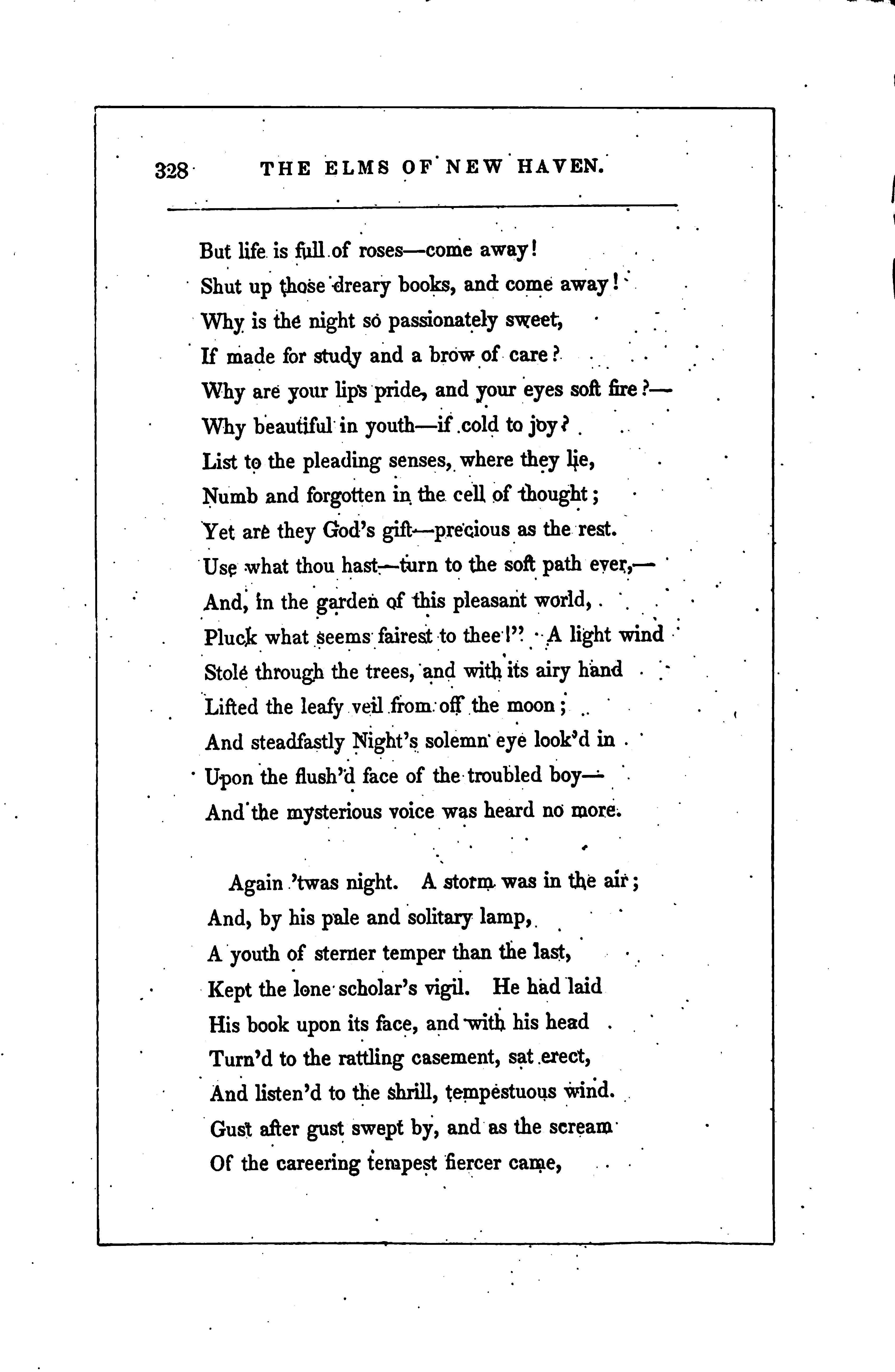

The youth's dark brow crouch'd lowering to his eye, And his thin lips press'd. bloodlessly together ; And with some muttering words, as if replying To voices that call'd to him from the storm, He rose, and hurriedly strode forth. The air Below the lashing tree-tops was all black. The lofty trunks creak'd staggering in the wind, But all invisibly; and in the sky
Was only so much light as must be there While hope is in the world. Small need had then The spirit who would wile that heart from Heaven To lend it mask or utterance. With step Reckless and fast the wanderer sped on, And as the tempest smote upon his breast, And howlingly fled past, he clench'd his hands, And struck his strong arms through the air, and rush'd Headlong with flying fury through the dark. Breathless and hoarse, at last, against the trunk Of a vast tree he stood ; and to an ear
Bending from out the branches as they swung, Unconsciously he mutter'd :-" I am weak, And this wild storm is mighty; but I feel Ajoy in its career, as if my soul
Breathed only thus. I am aroused unchain d
Something gives outcry in me that was dumbSomething that pined for weapons is in arms, And set on with a trumpet. Glorious blast ! 2E2
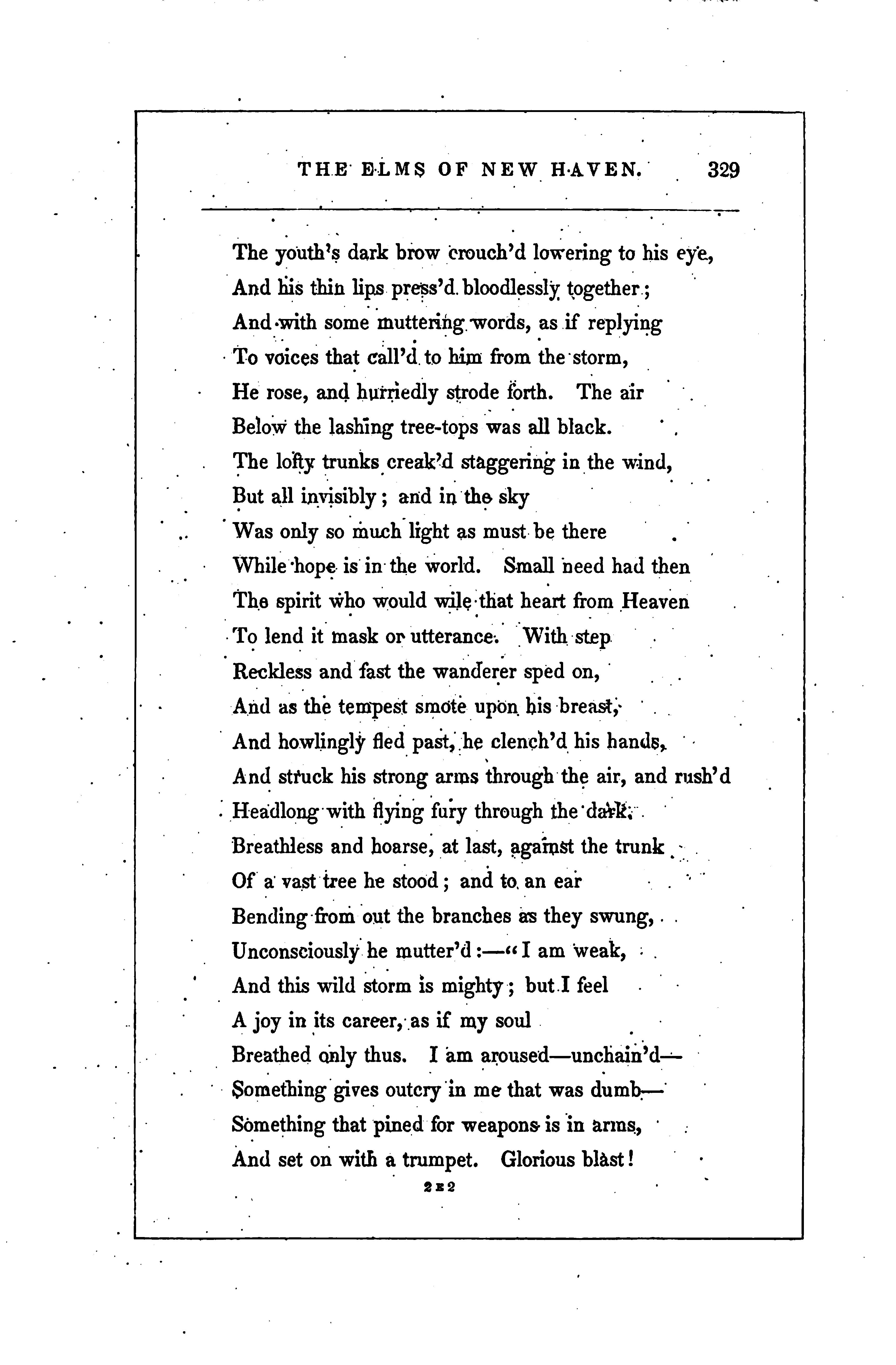

What is my poor tranquillity of life
My abject study-to thy stormy joy?
An intellect is mine-a passive soul
Antagonist to nothing-while for thee,
A senseless element, are wings and power-
Power to dash the stars out from the sky ·
Wings to keep pace with midnight round the world.
The lightning's fiery traverse is no bar,
The thunder's hush no check, the howling trees
Onlythy music. Demon, if thou art!
Prince of the powers of air, if such there be!
Darkness and conflict are my element,
As they are thine!" The storm lull'd suddenly,
The tortured trees stood silent in the gloom, And all was still-save that amid the leaves
Stirr'd a low murmur, which, like airy lips
Whispering close into the scholar's ear, Became articulate :-- Be calm! be calm!
Return to thy neglected books, and read!
Thou shalt have all thou wilt, but, in thy books, Lie weapons keener than the lightning's edge,
And in thy intellect a power of ill
To whichthe storm-wind is an infant's anger.
The blast blots out the stars that shine again.
The storm-wind and the darkness leave the trees
Brighter for morn to smile on ; but the mind
Forges from knowledge an archangel's spear,
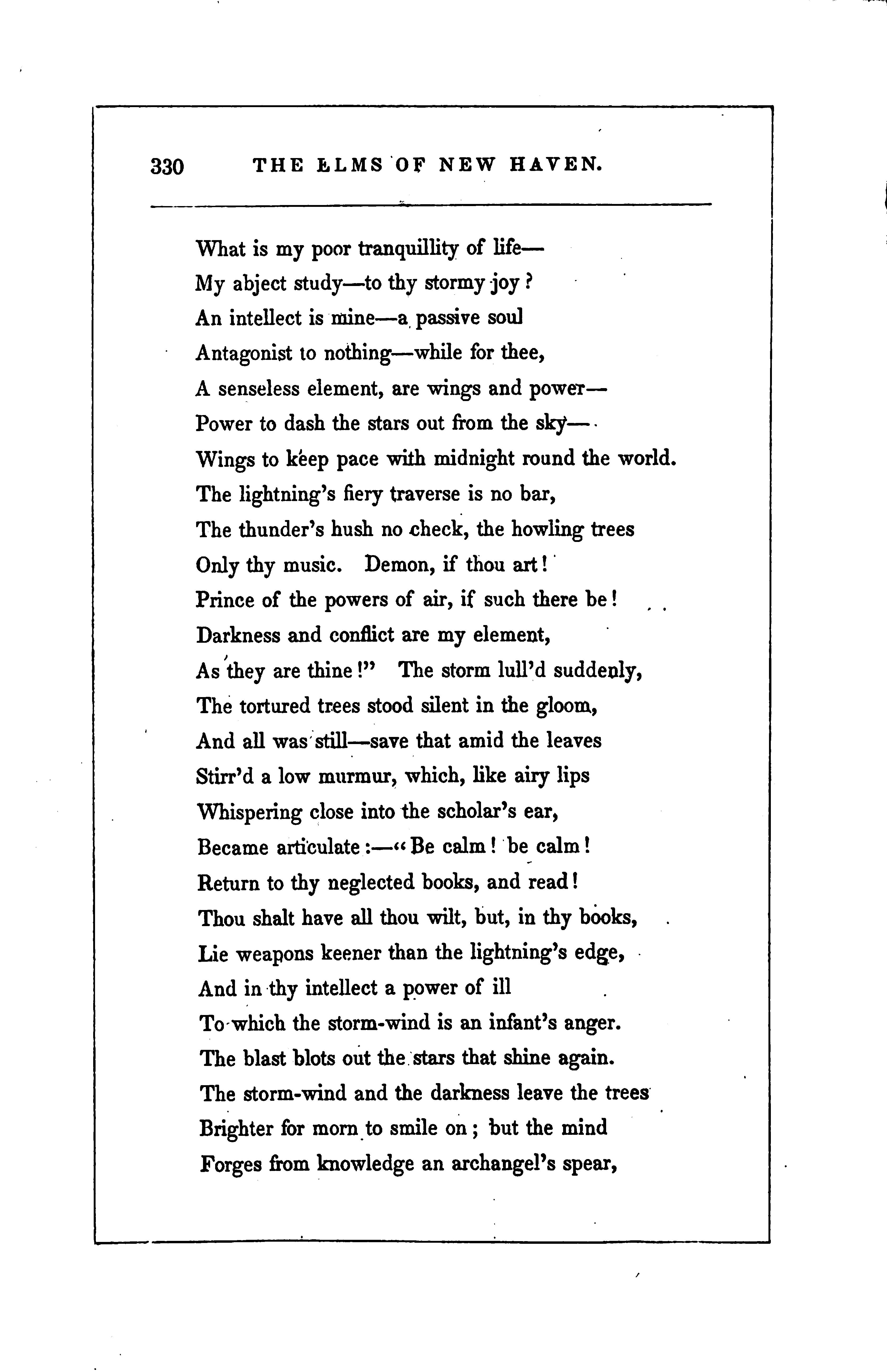

And, with the spirits that compel the world, Conflict for empire. Call thy hate of day, Thy scorn of men, ambition !-and, if moved
By something in thy heartto wrong and slay
Justice sits careless with a bloody sword ; Religion has remorseless whips ; and gold Brings to thy spurning foot the necks of men. Be thou the sword-the whip-get thou the goldAnd borne triumphant upon human praise, The lightning were too slow to do thy willThe stormy night not black enough." Again Toward the window glimmering through the dark
The scholar turn'd, and with a pallid brow, But lips of marble, fed his wasting lamp, And patiently read down the morning star. And he was changed thenceforward.
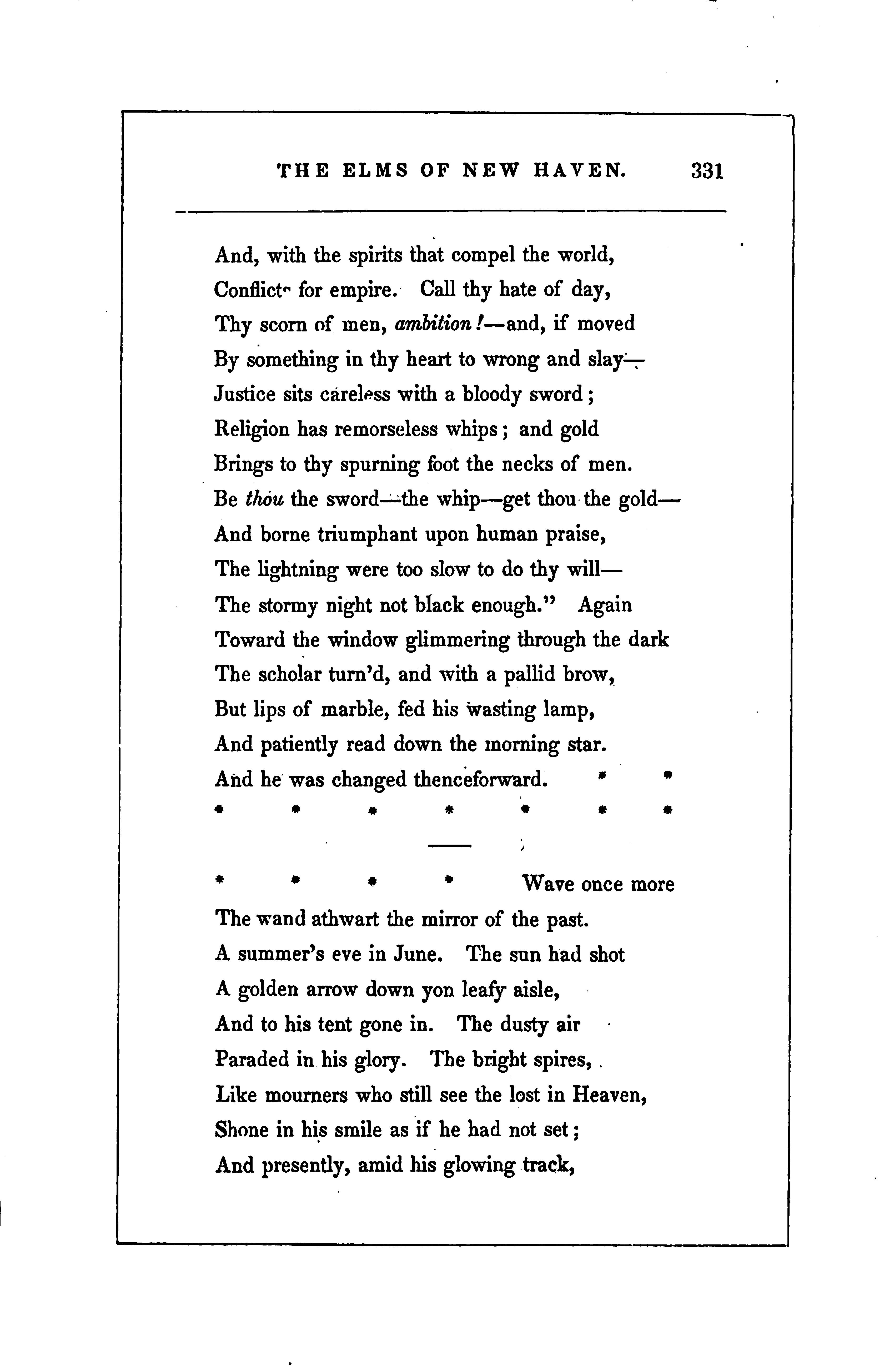
Wave once more
Thewand athwart the mirror of the past. A summer's eve in June. The sun had shot
A golden arrow down yon leafy aisle, And to his tent gone in. The dusty air
Paraded in his glory. The bright spires,. Like mourners who still see the lost in Heaven, Shone in his smile as if he had not set; And presently, amid his glowing track,

Like one who came reluctant to replace
The great light newly fled, the evening star Stood forth with timid and diminish'd ray-
But brighten'd as the sun was longer gone. Life was a feast at this delicious hour, And all came forth to it. The bent old man
Paced,musingly before his open door..
The tired child, with hands cross'd droopingly, .. Sat at the threshold. Slowly pass'd the dame; Slowly the listless scholar, sauntering back
To his shut books unwillingly; and low-
Soften'd and low-as if the chord of love
Were struck and harmonized throughout the world, The hum of voices rose upon the air:
Hush'd were the trees the while ; and voiceless lay
The wakeful spirits in the leaves, till, l !
A pale youth,* mingling in the throng! With light
And airy step, and mien of such a grace
As breathes through marble from the sculptor's dream, He pass'd, and after him the stranger's eye
Turn'd with inquiring wonder. Dumb no more Were the invisible dwellers in the trees ;
For, as he went, the feathery branches seem'd
To syllable his name.;" and tothe ears
Of them who met him, whispering music flew,.
JAMESHILLHOUSE, who had died at New Haven a few months before.
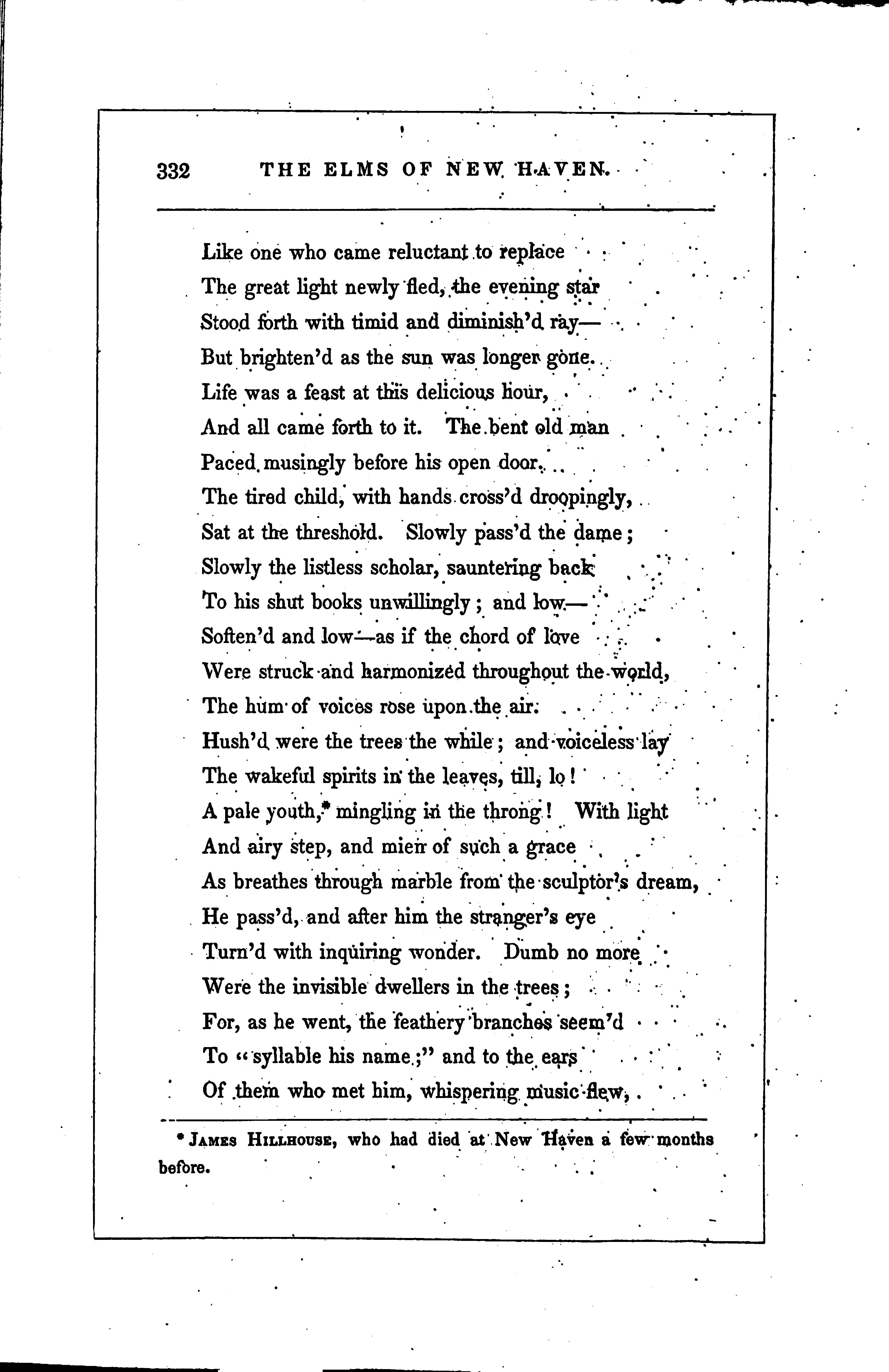

Stealing their hearts awayto link to his. "Love him!" the old man heard as if the leaves
Of his own roof-tree murmur'd it; " Love well
The poet who may sow your grave with flowers, The traveller to the far land of the Past, Lost to your feet forever!" Sadly lean'd The mourner at her window as he came,
And the far-drooping elm-leaf touch'd her brow, And whisper'd,." He has counted all thy tears!
The breaking chord was audible to him!
The agony for which thou, weeping, saidst There was no pity, for its throbs were dumbHe look'd but in thine eyes, and read it all!
Love him, for sorrowing with thee ! The sad child, Sitting alone with his unheeded grief, Look'd at him through his tears, and smiled to hear The same strange voice that talk'd to him in dreams
Speak from the low tree softly ; and it said " The stranger who looks on thee loves the child!
He has seen angels like thee ; and thy sorrow
Touches his own, as he goes silent by.
Love him, fair child!" The poor man, from his door, Look'd forth with cheerful face, and as the eye,
The soft eye of the poet, turn'd to his,
A whisper from the tree said, " This is he Who knows thy heart is human as his own Who, with inspired numbers, tells the world
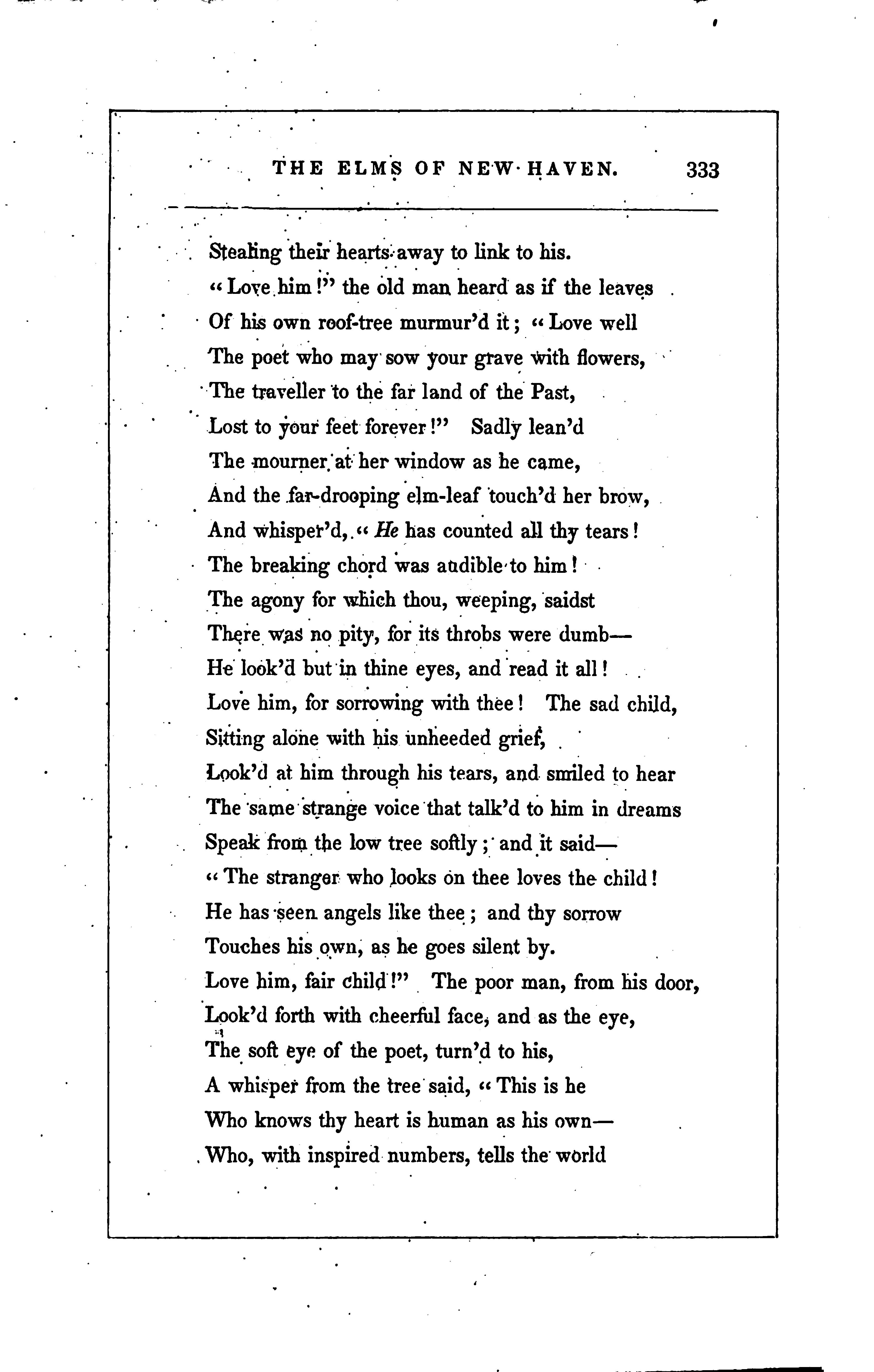

That love dwells with the lowly. He has made The humble roof a burthen in sweet song Interpreted thy heart to happier men!
Love him! oh, love him, therefore !" The stern man, Who, with the tender spirit of a child, Walks in some thorny path, unloved and lone ; The maiden with her secret ; the sad mother, Speaking no more of her dishonour'd boy, But bound to him with all her heart-strings yet,These heard the trees say, as the poet pass'd, "Yours isthe mournful poetry of life, And in the sad lines of your silent lips, Reads he with tenderest pity ! Knit to him The hearts he opens like a clasped book, And, in the honey'd music of his verse, Hear your dumb griefs made eloquent!" With eye Watchful and moist, the poet kept his way, Unconscious of the love around him springing ; And when from its bent path the evening star Stepp'd silently, and left the lesser fires
Lonely in heaven, the poet had gone in, Mute with the many sorrows he had seen; And, with the constancy of starry eyes, The hearts he touch'd drew to him.
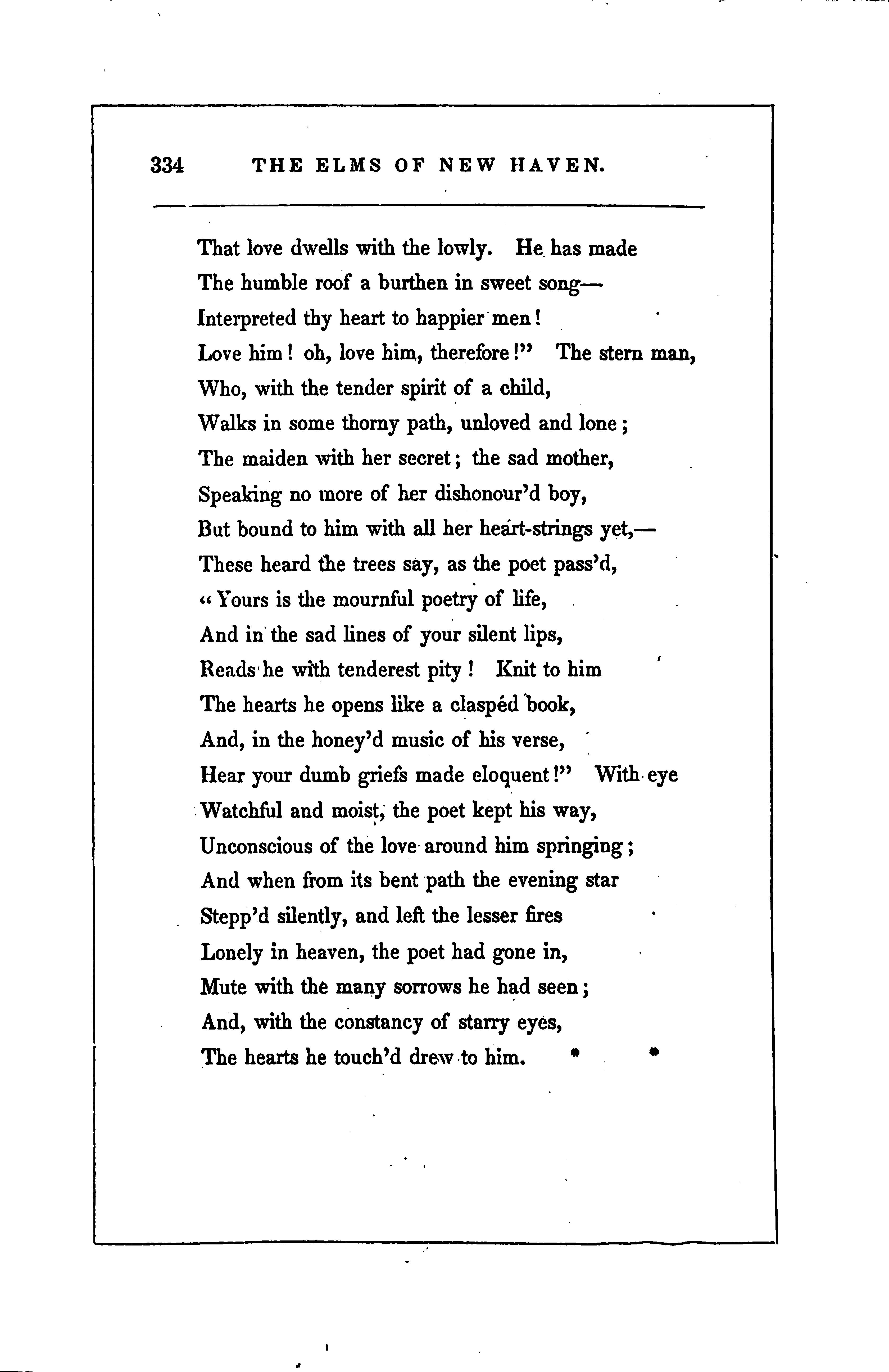

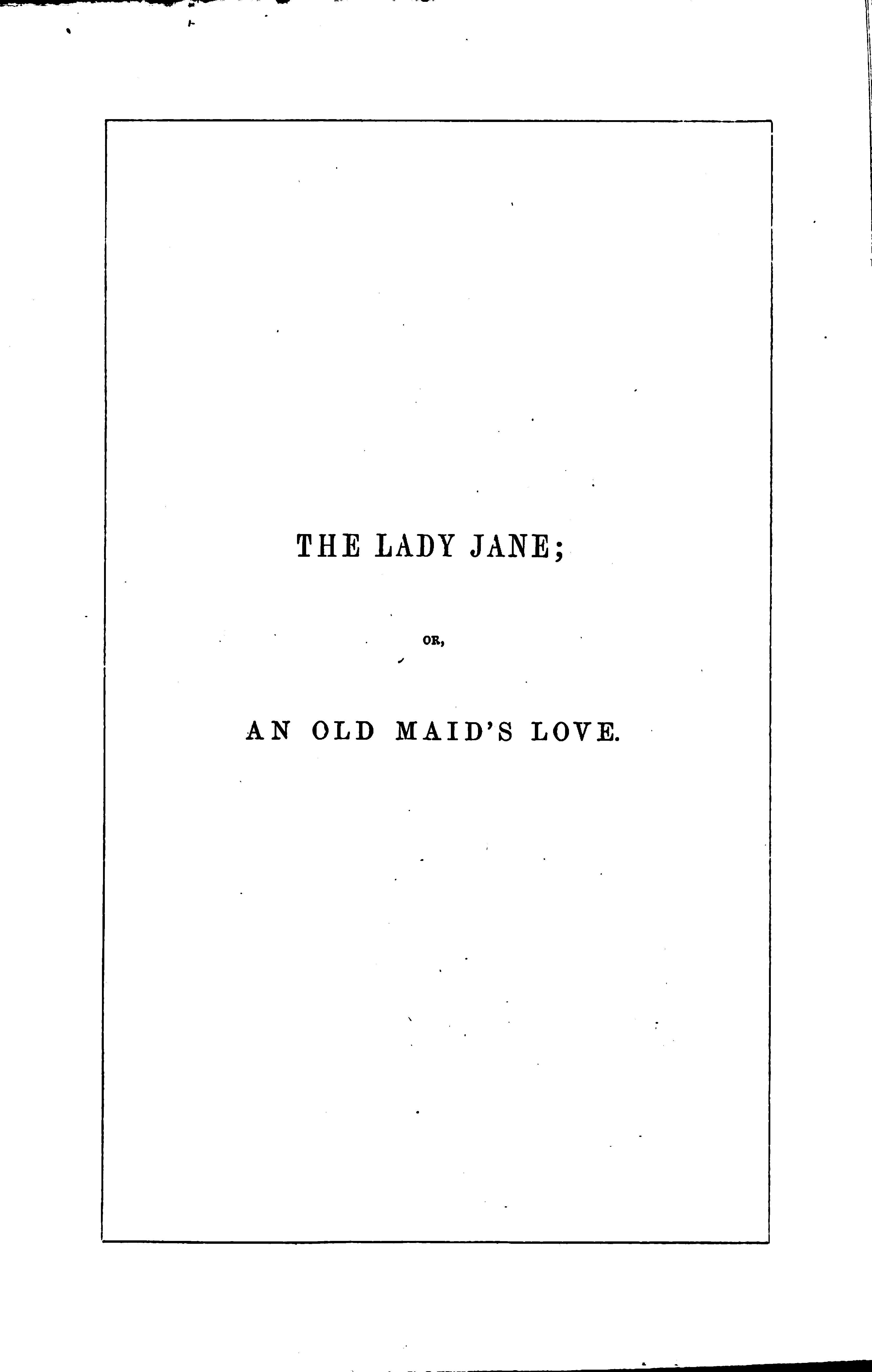

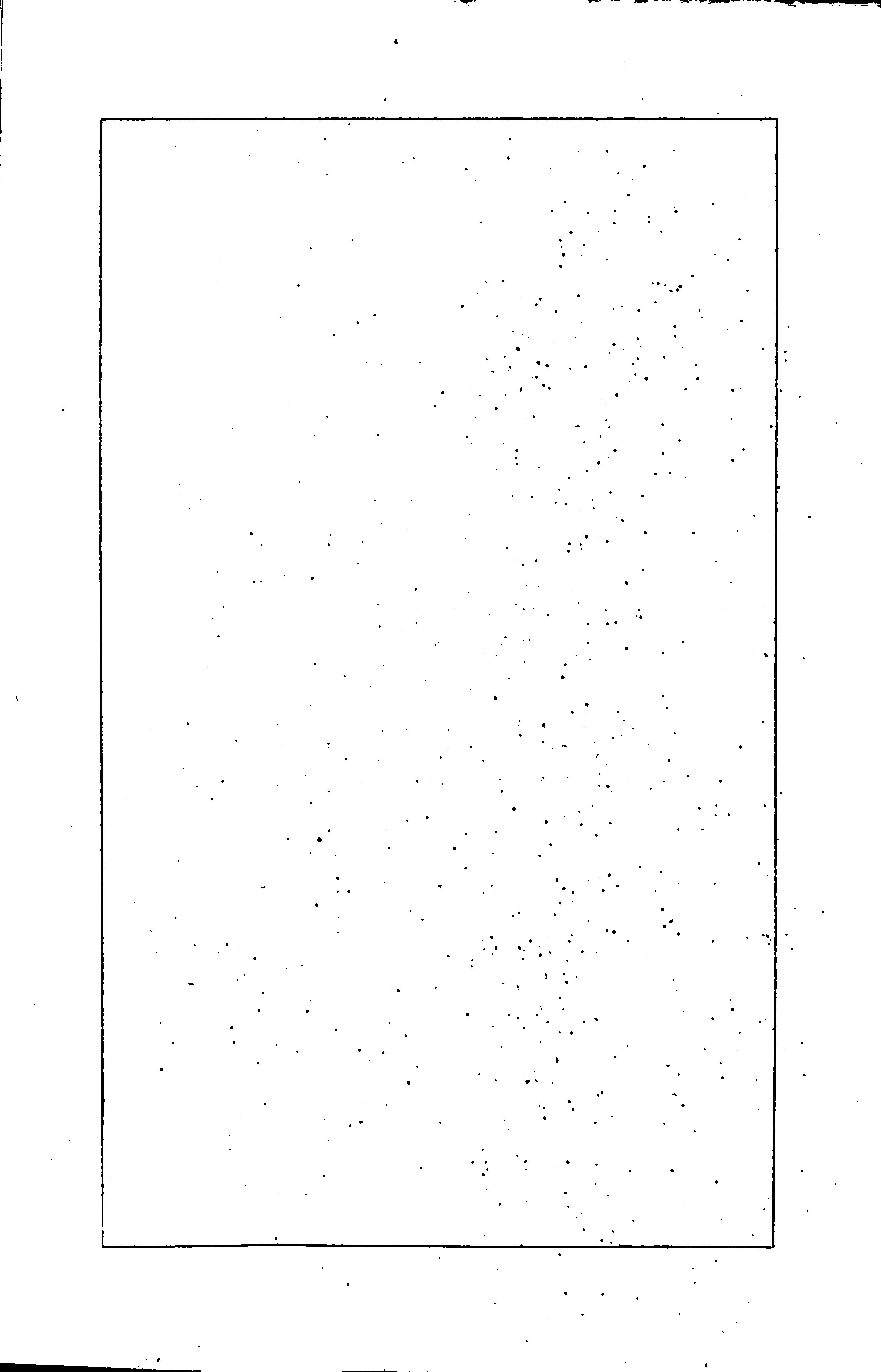

THERE was a lady-fair, and forty too. Loved by a youth of scarcely two-and-twenty.
The story of this love is strange, yet true. I'll tell it you ! Romances are so plenty In prose, that you'll be glad of something new. And so I'll versify what did and meant he. You think he was too young !-but tell me whether The moth and humming-bird grow old together!
II, Nature, that made the ivy-leaf and lily, Not of one warp and woof hath wove us all ! Bent goes the careful, and erectthe silly, And wear and tear make difference-not small ; And loveliness may drive through Piccadilly Changeless till fifty, ifno pangs befall. A day's grief, out of some, a year's life washes ; Some shed it like ducks' backs and " Mackintoshes." 2 F
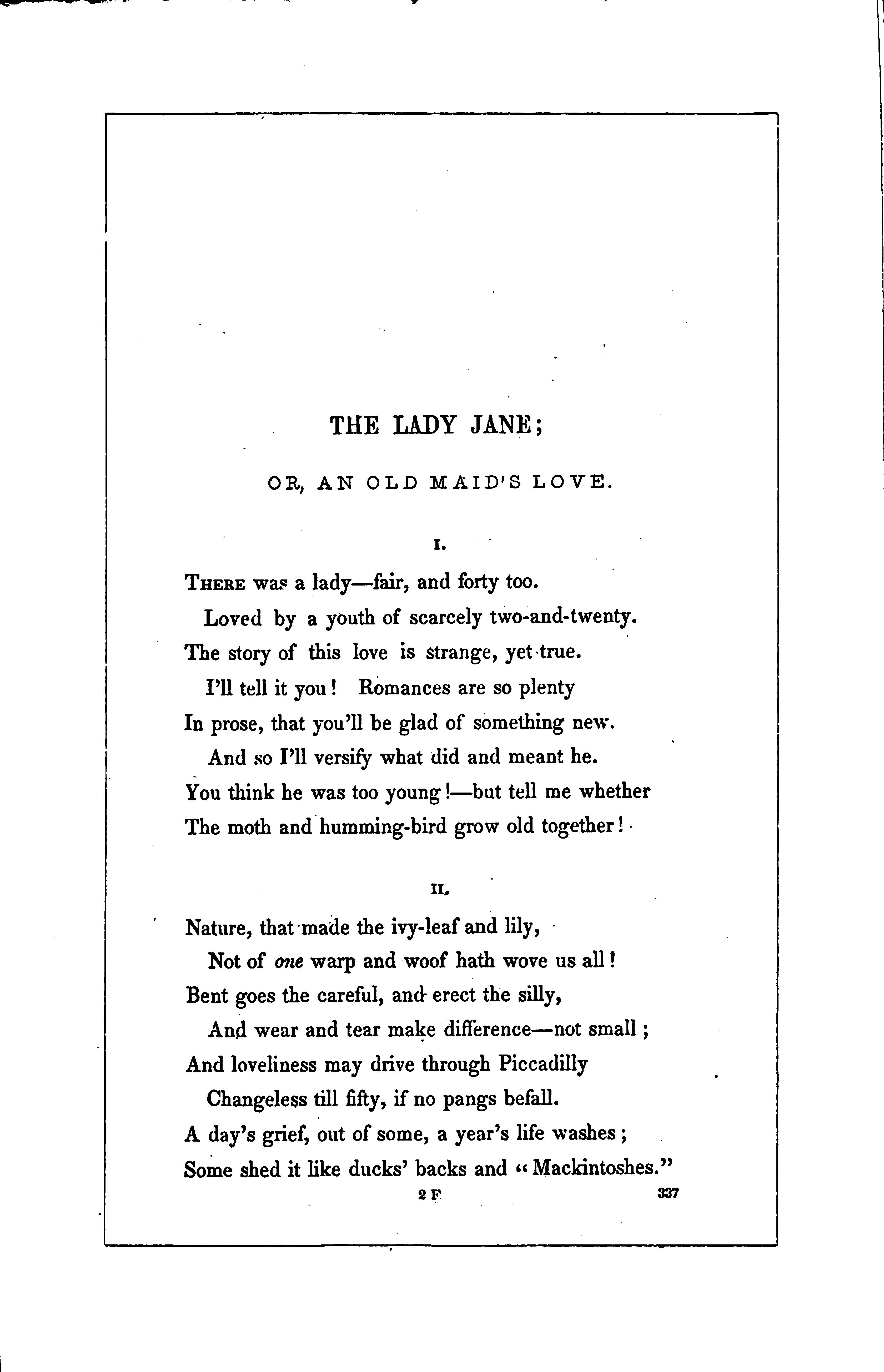

The Lady Jane was daughter of an EarlShut from approach like sea-nymph in her shell. Never a rude breath stirr'd the floating curl
Upon her marble temple, and nought fell Upon the ear of the patrician girl
But pride-cheok'd syllables, all measured well..
Her suitors were her father's,.and not hers
So were her debts at Storr-and-Mortimer's.'
Her health was lady-like. No blood, in riot,
Tangled the tracery of her veinéd cheek,
Nor seem'd her exquisite repose the quiet
Of one by suffering made sweet and meek.
She ate and drank, and probably lived by it, And liked her cup of tea by no means weak
Untroubled by debt; lovers, or affliction, Her pulse beat with extremely little friction.
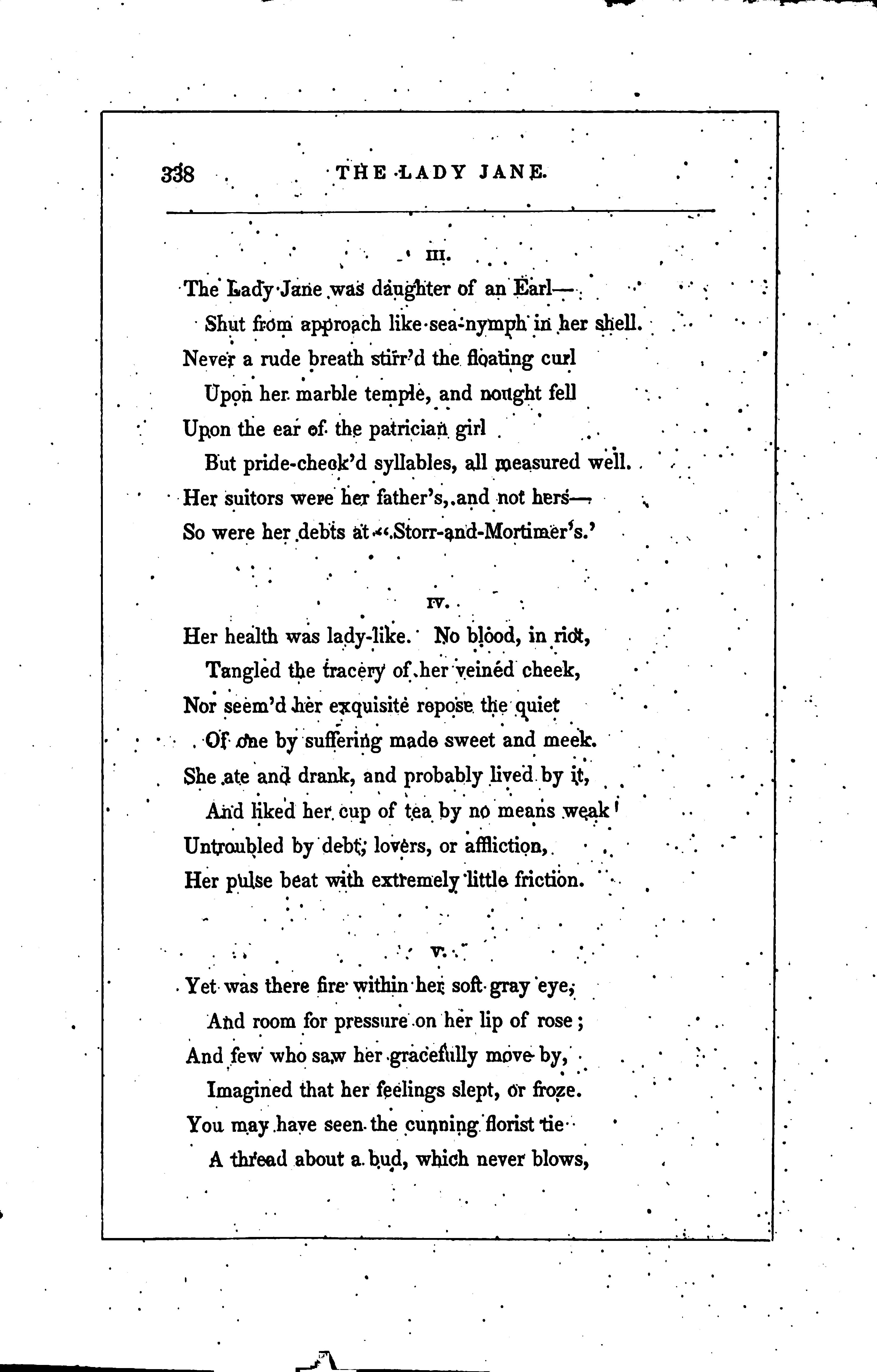
.Yet was there fire within her soft gray eye; And room for pressure on her lip of rose ; And few who saw her gracefully move by,
Imagined that her feelings slept, or froze.
You may have seen the cunning florist tie
A thread about a bud, which never blows,

But, with shut chalice from the sun and rain, Hoards up the morn-and such the Lady Jane.
VI.
The old lord had had offers for her hand, To which he answer'd-byhis secretary And, doubtless, some were. for the lady's land, The men being old and valetudinary; But there were others who were all unmann'd, And fell into a life of wild vagary, In their despair. To tell his daughter of it, The cold Earl thought would be but little profit.
VII.
And so she bloom'd-all fenced around with care ; And none could find a way to win or woo her.. When visible at home-the Earl was there !..
Abroad her chaperon stuck closely. to her!. She was a sort of nun in open air, Known ' to but few, and intimate with fewer: And, always used to conversation guarded, She thought all men talk'd just as her papa did..
VIII.
Pause while you read, oh, Broadway demoiselle ! And bless your stars that long before you marry,. You are ajudge of passion pleaded well !
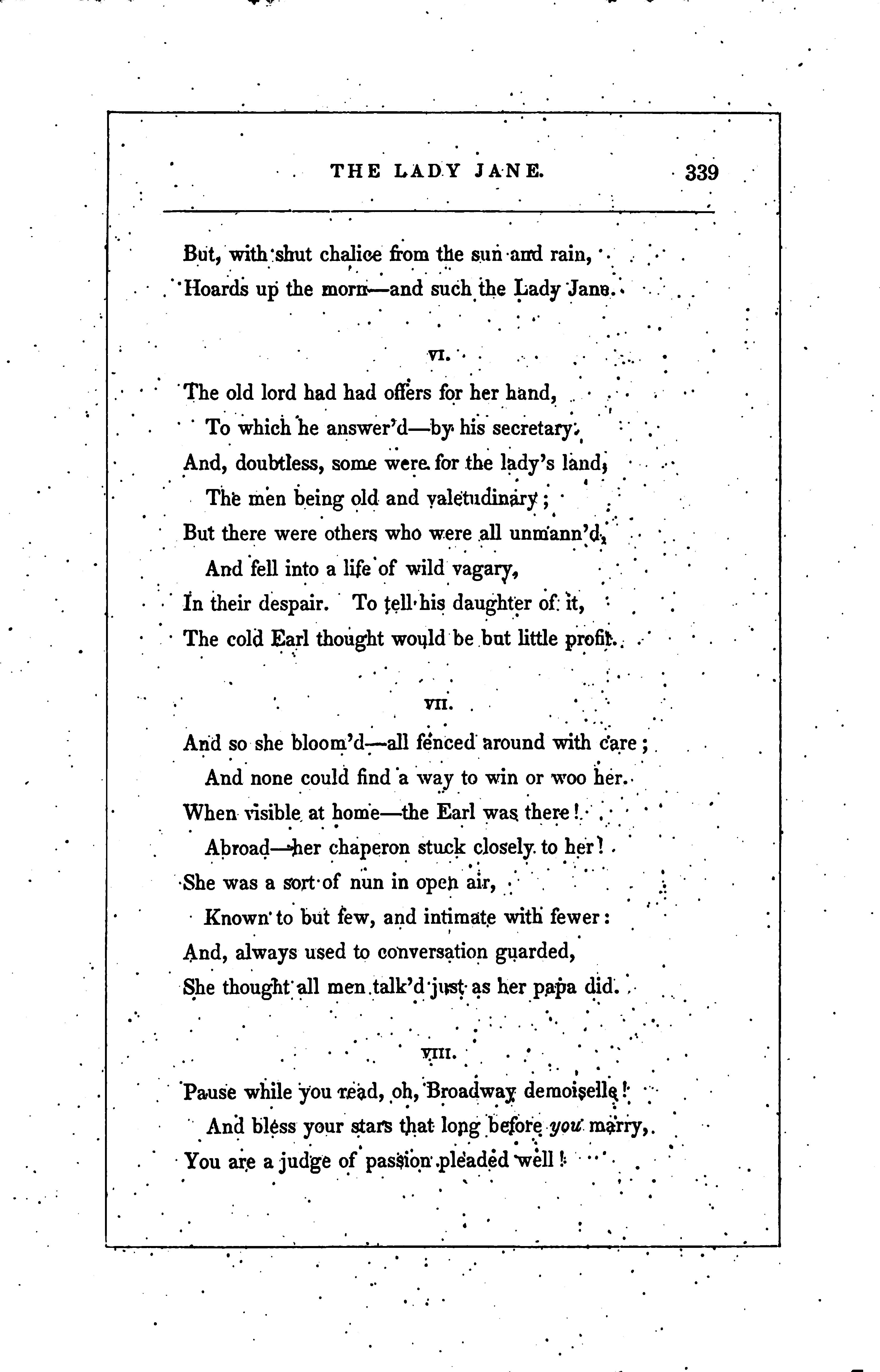

For you have listen'd to Tom, Dick, and Harry,
And, if kind Heaven endow'd you for a belle, At least your destiny did not miscarry! "You've had your fling"-and now, all wise and steady, For matrimony's cares you're cool and ready! IX.
And yet the bloom upon the fruit is fair! And "ignorance is bliss" in teaching love ! And guarding lips, when others have been there, Is apt uneasy reveries to move! I really think mammas should have a care!
And, though of nunneries I disapprove, "Tis easier to make blushes hear to reason Than to unteach a " Saratoga Season."
X.
In France, where, it is said, they wiser are, Miss may not walk out, even with her cousin ; And, when she is abroad from bolt and bar, A well-bred man should be to her quite frozen ; And so at last, like a high-priced attar Hermetically seal'd in silk and resin, She is deliver'd safe to him who loves her; And then-with whom she will she's hand and glove, sir!
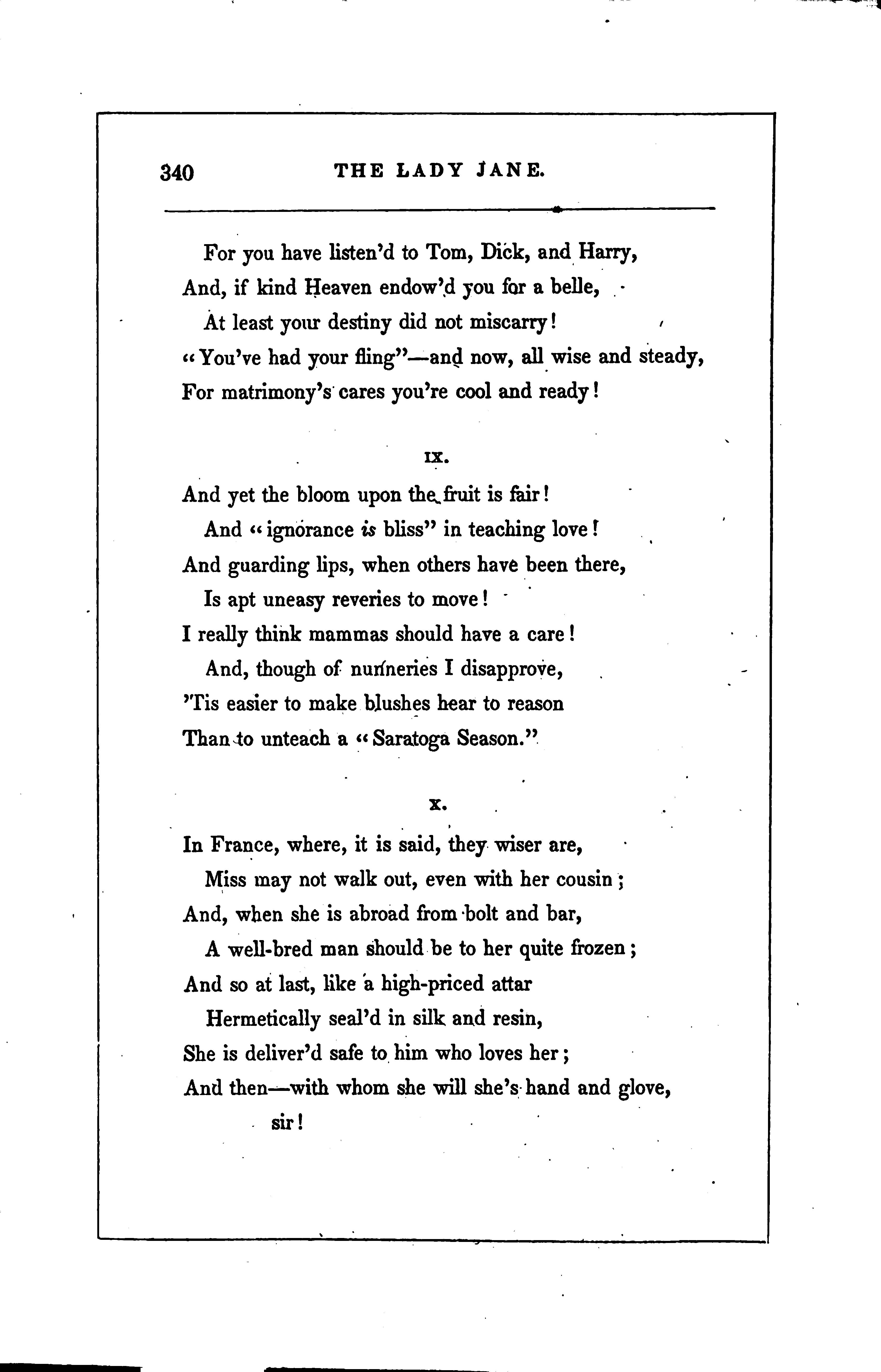

xi.
I know this does not work well, Are the best wives on earth. and that ours They love their spouses, Who prize them as you do centennial flowers, For having bloom'd, though not in your green-houses. 'Tis a bold wooer that dare talk of dowers. And where I live, the milking of the cows is Too rude a task for females ! Well. 'Twould hurt you, Where women are so prized, to sneer at virtue.
XII.
"Free-born Americans," they must have freedom! They'll stay-if they have leave to run away. They're ministering angels when you need 'em, . But 'specially want credit in Broadway. French wives are more particular how you feed 'em, The English drag you oftener tothe play. But ours we quite enslave (more true than funny) With heaven-born liberty," and trust-or money! "
XIII,
Upon her thirtieth birth-day, Lady Jane Thought,sadly onthe twenties ! Even the 'teens, That she had said farewell to, without painLeaves falling from a flower that nothing meansSeem'd worth regathering to live again; But not like Ruth, fares Memory, who gleans 2F2
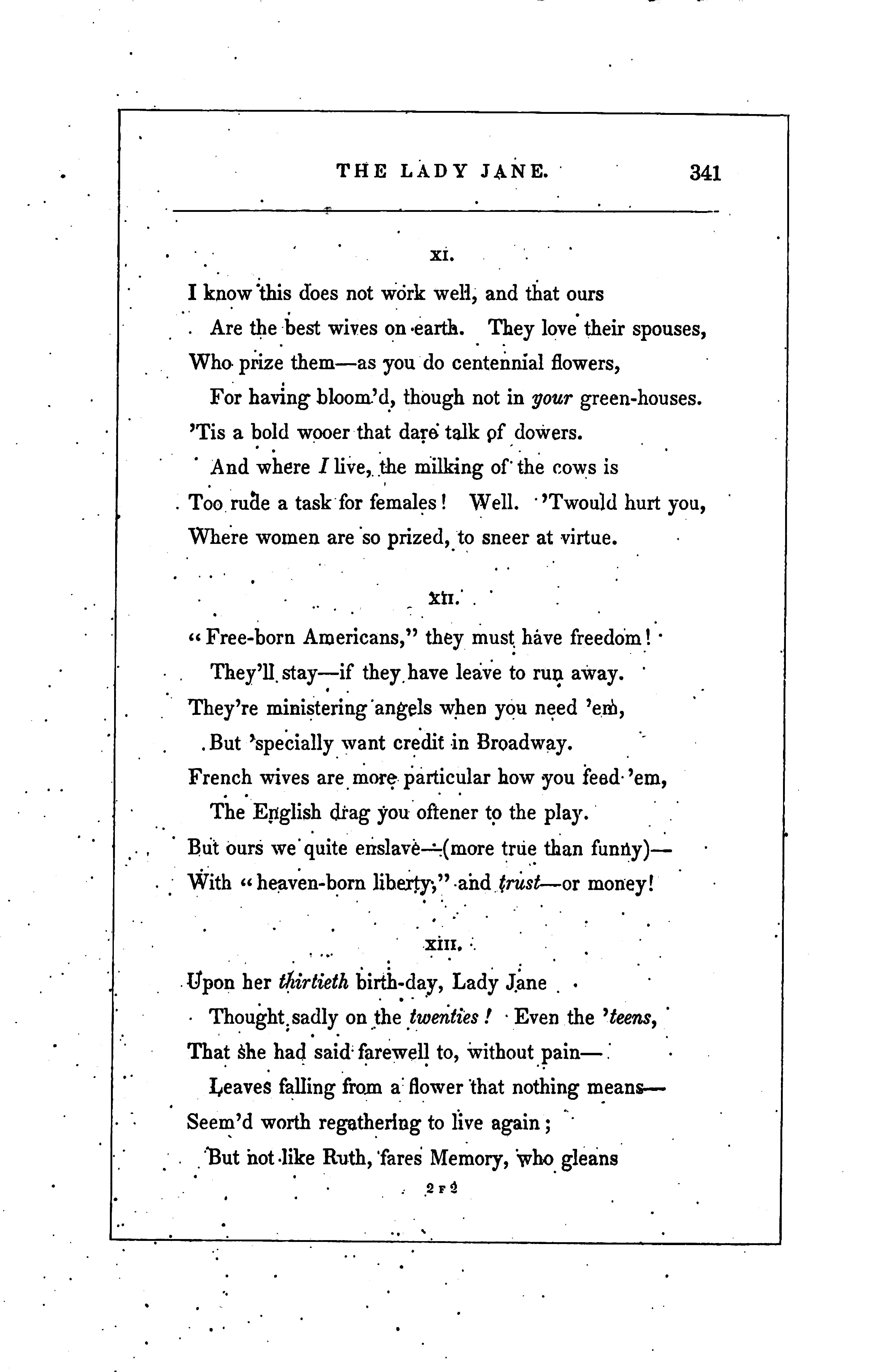

After the careful Harvester of years :-
The Lady Jane thought on't with bitter tears!
XIV.
She glided to her mirror. From the air
Glided to meet her, with its tearful eyes, A semblance sad, but beautifully fair ; And gradually there stole a sweet surprise Under her lids, and as she laid the hair
Back from her snowy brow, Madonna-wise, «Time, after all," she said, " a harmless flirt is!"
And from that hour took kindly to her thirties.
XV.
And, with his honours not at all unsteady, The Decimal.elect stepp'd coolly in;
And having all his nights and mornings ready, He'd very little trouble to begin.
And Twenty was quite popular, they said heWent out of office with so little din!
The old Earl did not celebrate (nor ought he)
Her birth-days more. And like a dream came Forty.
XVI.
And on the morn of it she stood to dress; Mock'd by that flattering semblance, as before, And lifted with a smile the raven tress, That, darkening her white shoulder, swept the floor.
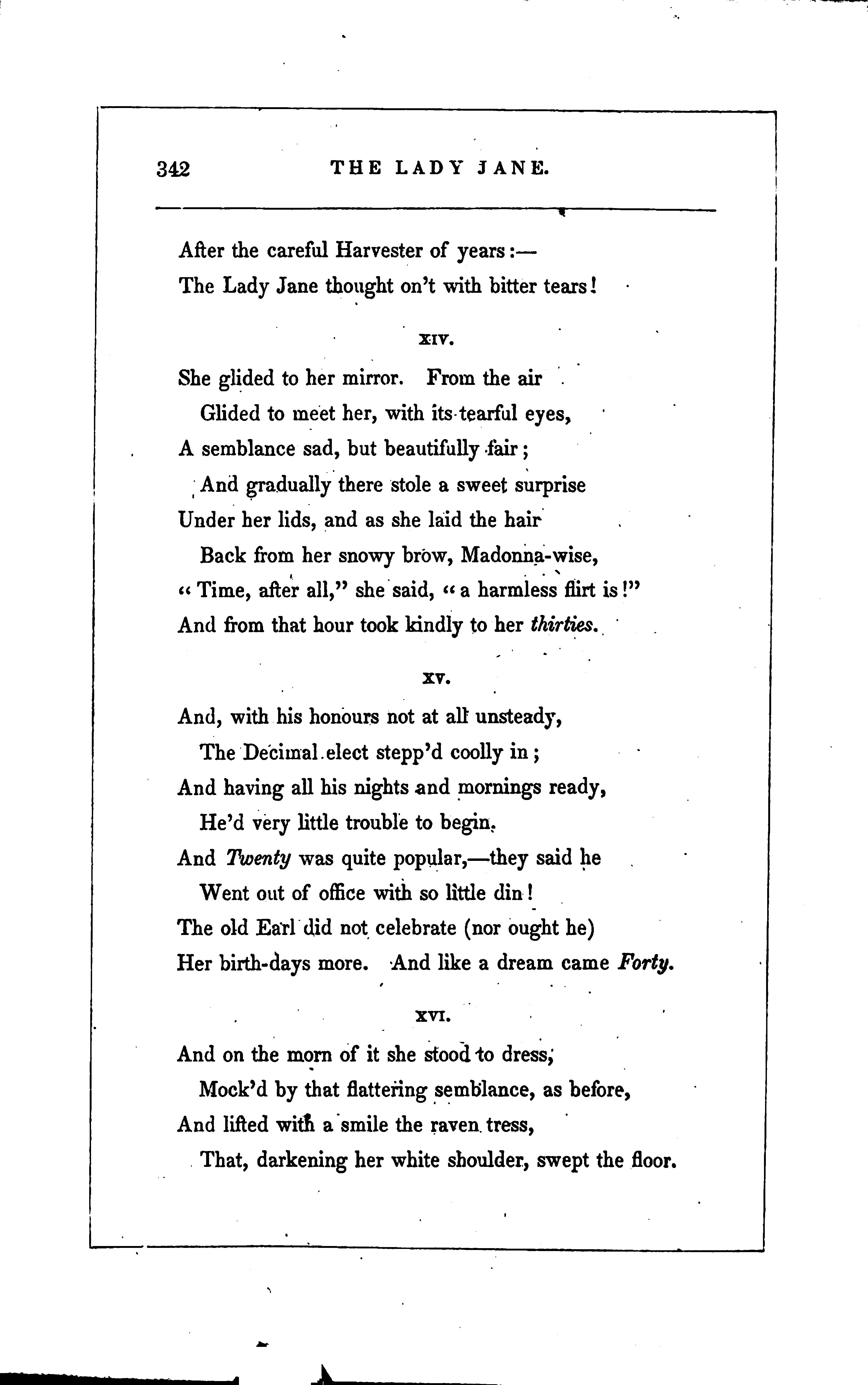

Time had not touch'd her dazzling loveliness ! "Yet is it time," she said, " that I give o'er I'm an old maid ! and though I suffer by it, I Must change my style and leave off gay society."
XVII.
And so she did. Her maid by her desire Comb'd her luxuriant locks behind her ears ; She had her dresses alter'd to come higher, Though it dissolved the dress-maker in tears ! And flung a new French hat into the fire, Which she had bought, « forgetful of her years."
This t'anticipate " the world's dread laugh !" Most persons think too much of it, by half.
XVIII.
I do not mean to say that generally The virtuous single" take too soon to tea; But now and then you find one who could rally At forty, and go back to twenty-three A handsome, plump, affectionate " Aunt Sally," With no taste for cats, flannel, and Bohea!
And I would have her, spite of he or she says,' Up heart, and pin her kerchief as she pleases. ""
XIX.
Some men, 'tis said, prefer a woman fatLord Byron did. Some like her very spare.
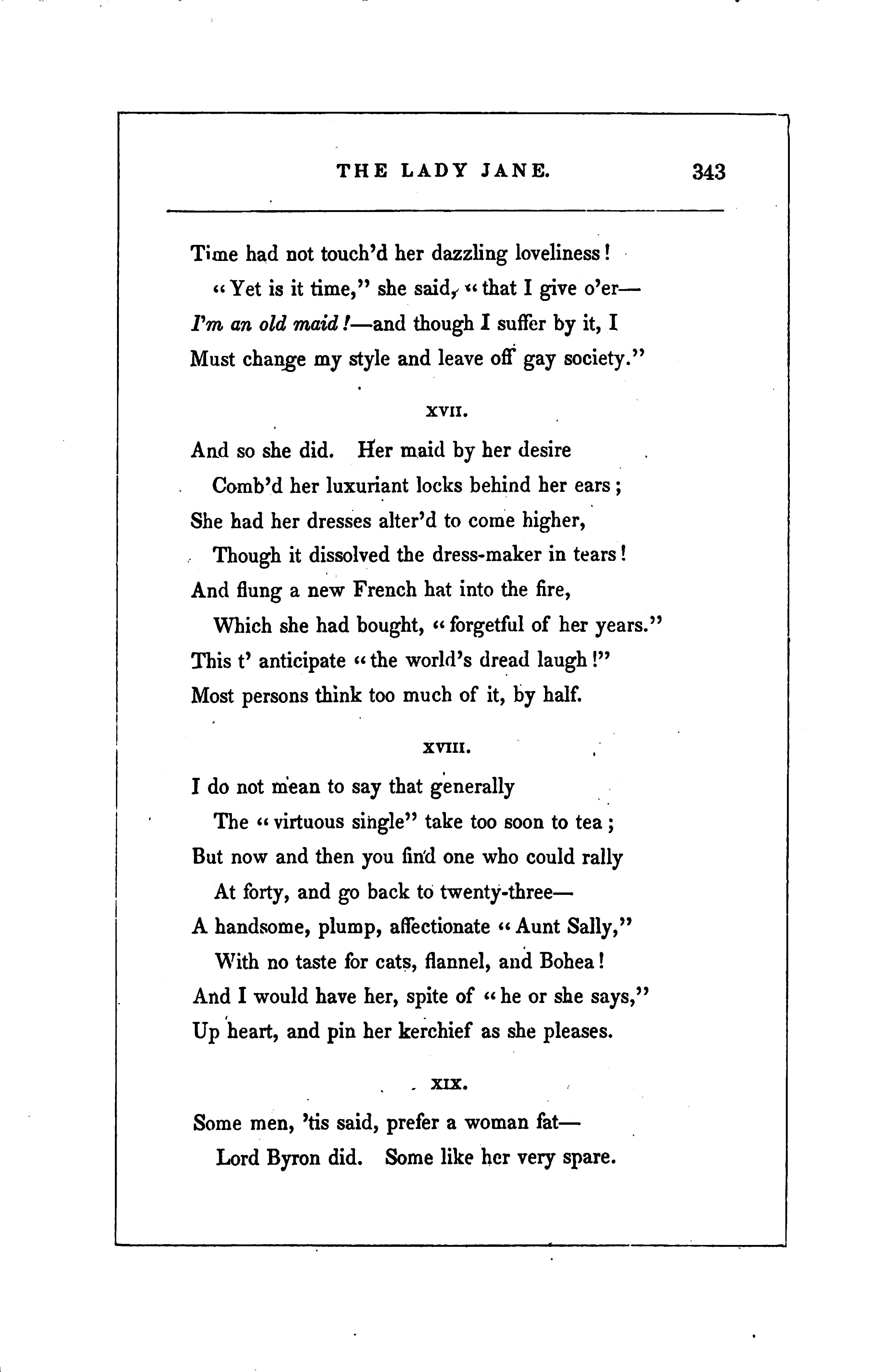

Some like a lameness. (I have known one that Would go quite far enough for your despair, And halt in time.) Some like them delicate. As lilies, and with some " the only wear? Is one whose sex has spoil'd a midshipman. Some only like what pleased another man.
XX.
Ilike one that likes me. But there's a kind Of women, very dangerous to poets, Whose hearts beat with a truth that seems like mind A nature that, though passionate, will show its Devotion by not being rash or blind ; But by sweet study grows to love. And so it's..
Not odd if they are counted cold, though handsome,.. And never meet a man who understands 'em.
XXI.
By never I mean late in life, But,ah! How exquisite their love and friendship then! Perennial of soul such women are, And readers of the hearts of gifted men ; And as the deep well mourns the hidden star, And mirrors the first ray that beams again, They be the loved light lost or dimly burning, Feel all its clouds, and trust its bright returning,
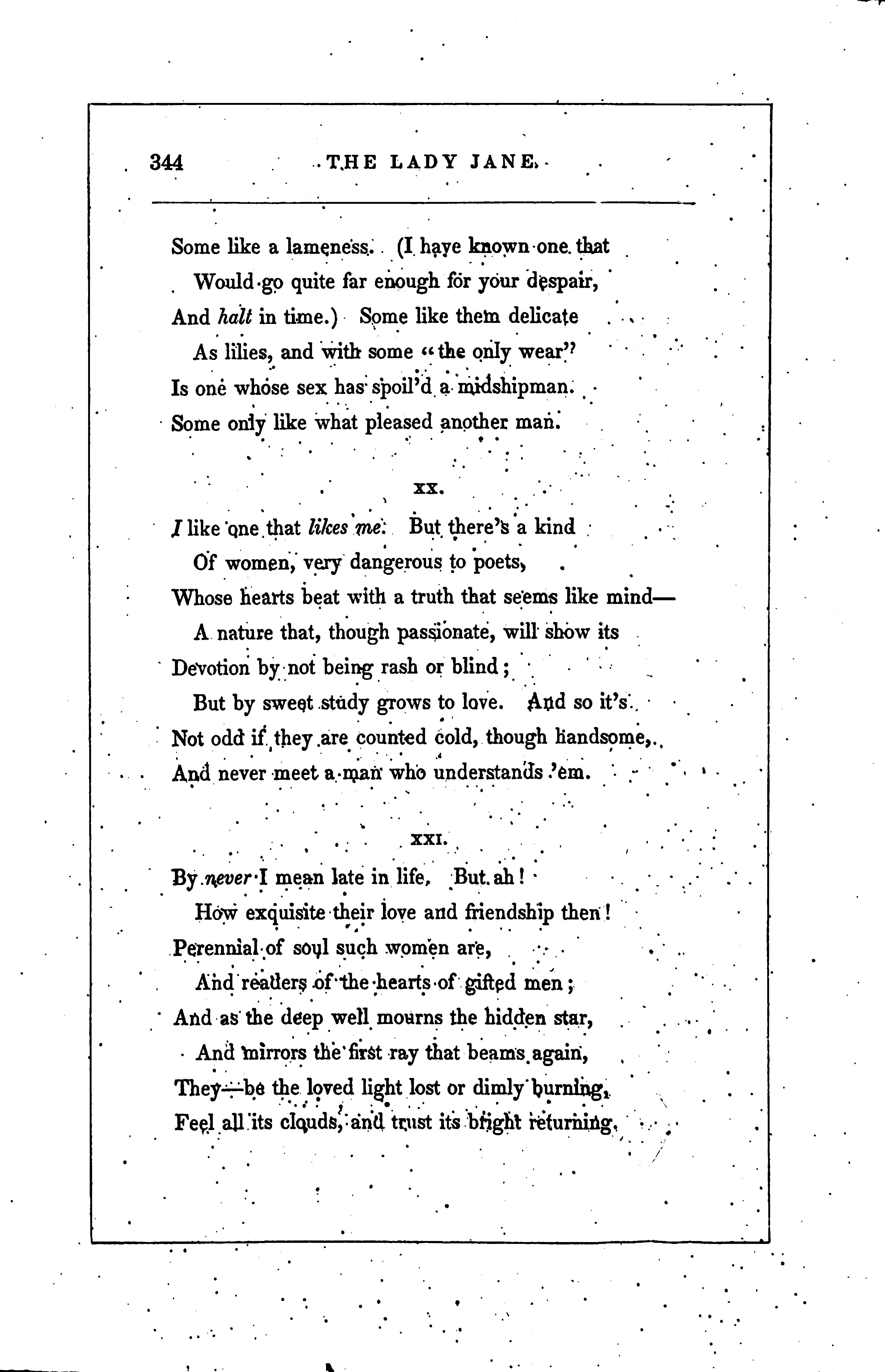

XXII.
In outward seeming tranquil and subdued, Their hearts beneath beat youthfully and fast. Time and imprison'd love make not a prude ; And warm the gift we know to be the last ; And pure is the devotion that must brood Upon your hopes alone-for hers are past! Trust me, " a rising man" rose seldom higher, But some dear, sweet old maid has pull'd the wire.
XXIII.
The Lady Jane, (pray do not think that hers Was quite the character I've drawn above. Old maids, like young, have various calibres, And hers was moderate, though she was " a love,") The Lady Jane call'd on the dowagers Mainly her slight acquaintance to improve, But partly with a docile wish to know What solaces of age were comme ilfaut.
XXIV.
They stared at her plain hat and air demure, But answer'd her with some particularity, And she was edified, you may be sure, And added vastly to her popularity. She found a dozen mad on furniture, Five on embroidery, and none on charity ;
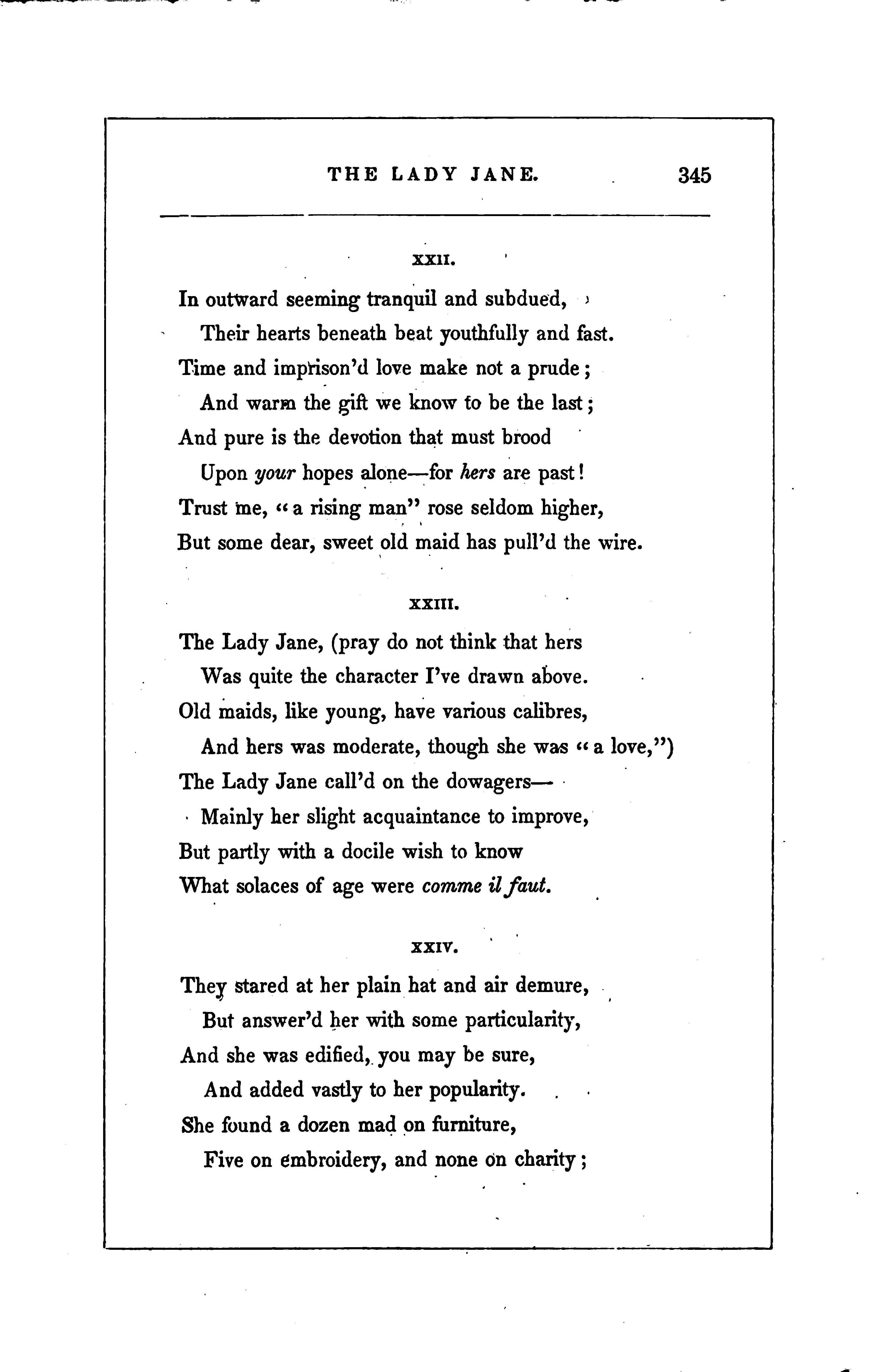

But her last call-the others were but short onesTurn'd outto Lady Jane of some importance..
XXV.
The door was open'd by a Spanish pageA handsome lad in green with bullet buttons, Who look'd out like a trulian from a cage, And deign'd to glance at the tall menial but once, Then bent, with earnestness beyond his age, His eyes, (you would have liked to see them shut once,. The fringes were so long) on Lady Jane The varlet clearly thought her not so plain.
And bounding up the flower-laden stair, He waited her ascent, then open flung A mirror, clear as 'twere a door of air, Which on its silver hinge with music swungContrived that never foot should enter there Unheralded by that melodious tongue. This delicate alarum is worth while · More 'specially with carpets of three-pile. XXVII.
Beyond a gallery extended, cool,
And softly lighted, and, from dome to floor, Hung pictures-mostly the Venetian school ; Each worth a Jew's eye"-very likely more ;-
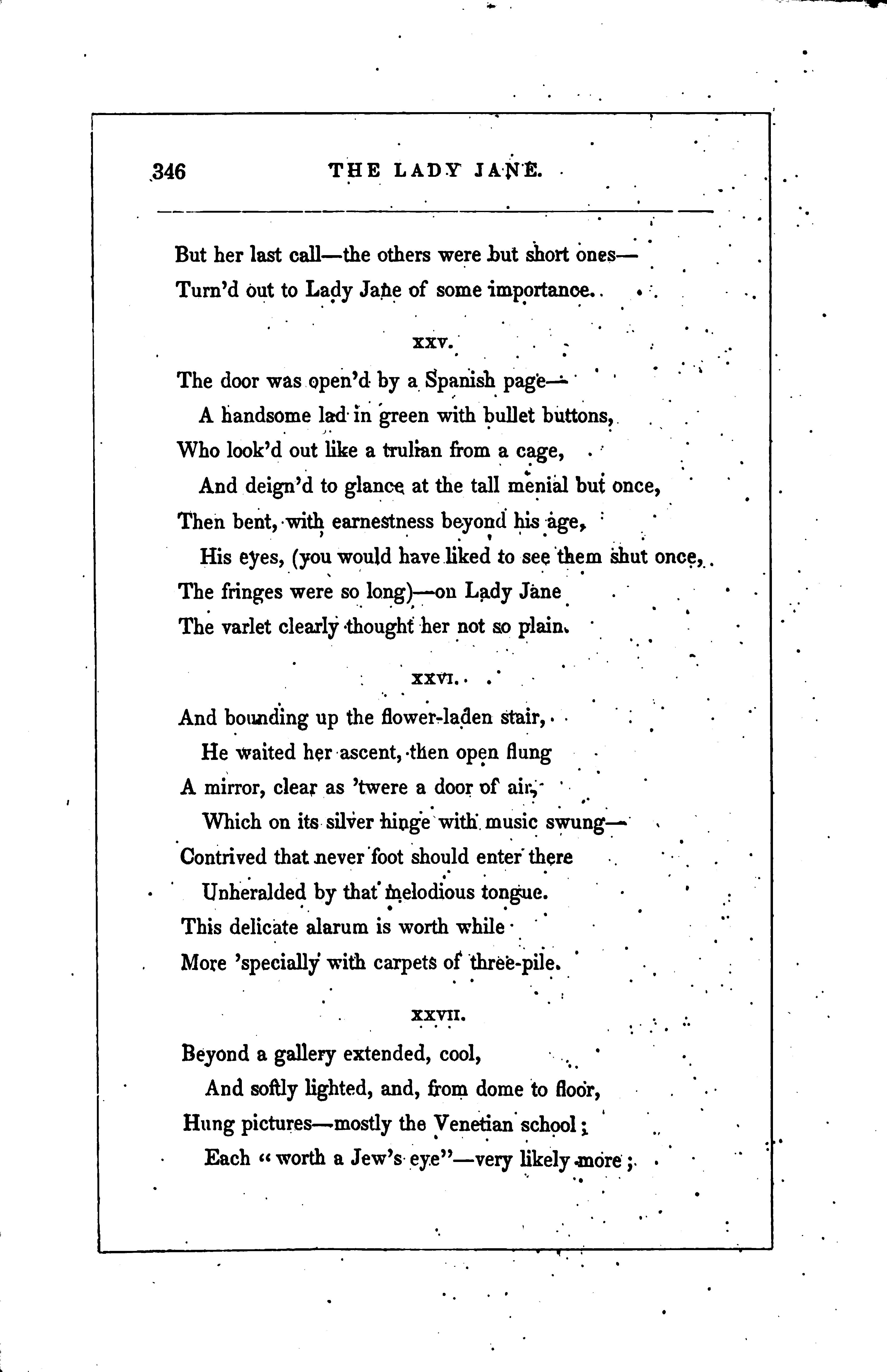

And drapery, gold-broider'd in Stamboul, Closed the extremity in lieu of door': This the page lifted, and disclosed to view The boudoir of the Countess Pasibleu.
XXVIII.
It was a small pavilion lined with pink,Mirrors and silk all, save the door and sky-light, The latter of stain'd glass. (You would not think Howjuvenescent is a rosy high light !) Upon the table were seen pen and ink, (Two things I cannot say have stood in my light,) Amid a host of trinkets, toys, and fans ; The table in the style of Louis Quinze.
XXIX.
A singular and fragile little creature Upon the cushions indolently lay, With waning life in each transparent feature, But youth in her bright lips' ethereal play ; In short, the kind of creature that would meet your Conception of a transmigrating fay-
The dark eyes, not at all worn out or weary, Kindling for transfer to some baby Peri !
XXX. :
The rest used up, past mending. Yet her tones Were wildly, deeply, exquisitely clear ;
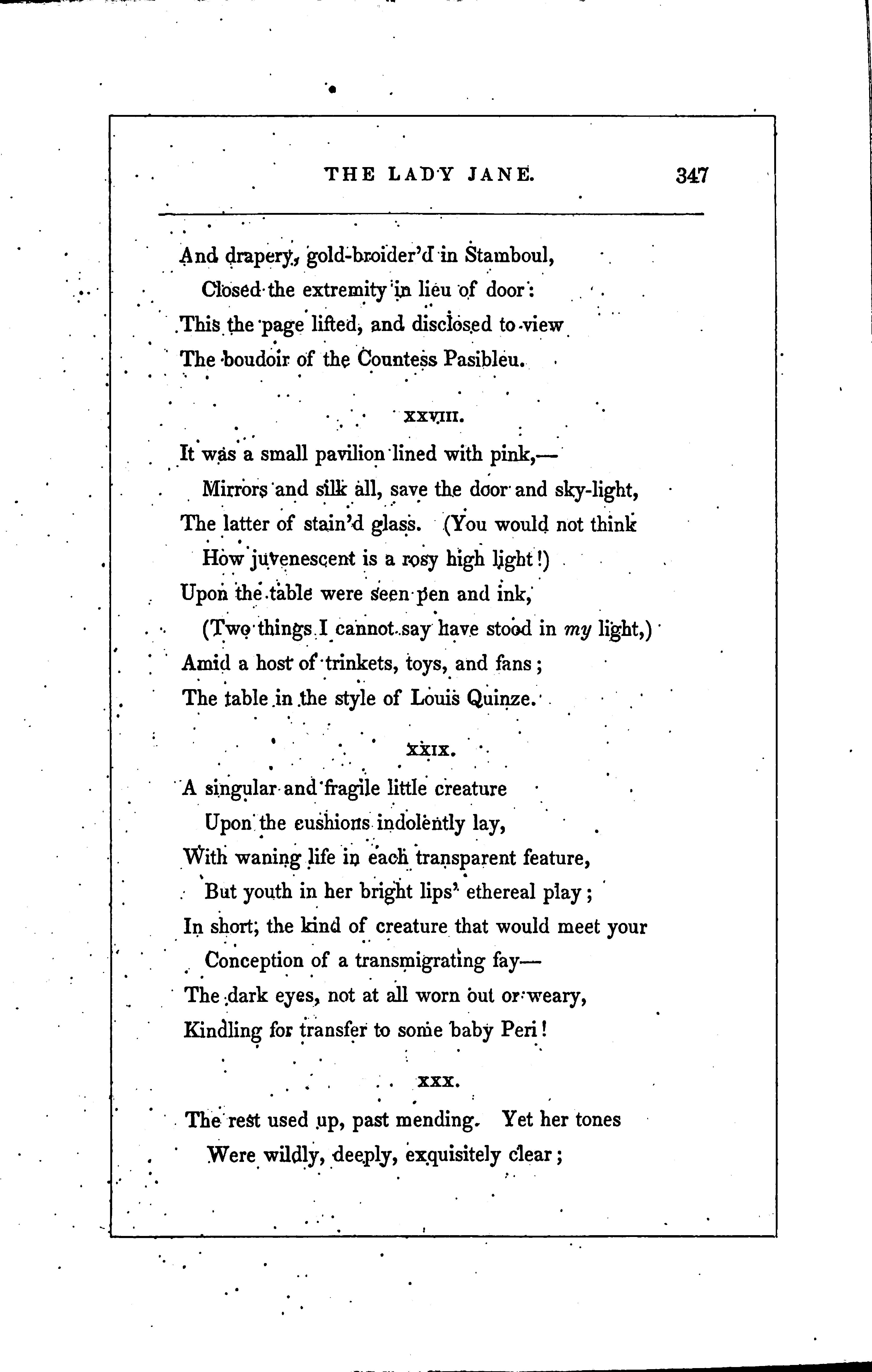

Though voice is not a thing of flesh and bones, And probably goes up while they stay here. Not to imply that nasal Smith and Jones Will twang as usual in "the better sphere," But tones there be which must (the Lord assoil 'em!) Bewitch as they do here, or Heaven will spoil 'em.
XXXI.
Her person was dress'd very like her soul In fine material most loosely worn. A cobweb cashmere struggled to control Ringlets that laugh'd the filmy folds to scorn, And, from the shawls in which she nestled, stole The smallest slipper ever soil'd or torn, You would not guess her age by looking at her, Norfrom my sketch, ofcourse. We'llleave that matter.
XXXII.
"My dear !" the Countess said, (by this time she Had ceased the Weather, poor old man, to hammerHe gets it, in these morning calls, pardie! And Lady Jane had hinted with a stammer Her errand-somewhat delicate, you see,) "My dear, how very odd! I fear I am a Poor judge of age-(who made that funny bonnet?) it! Indeed, I always turn'd my back upon
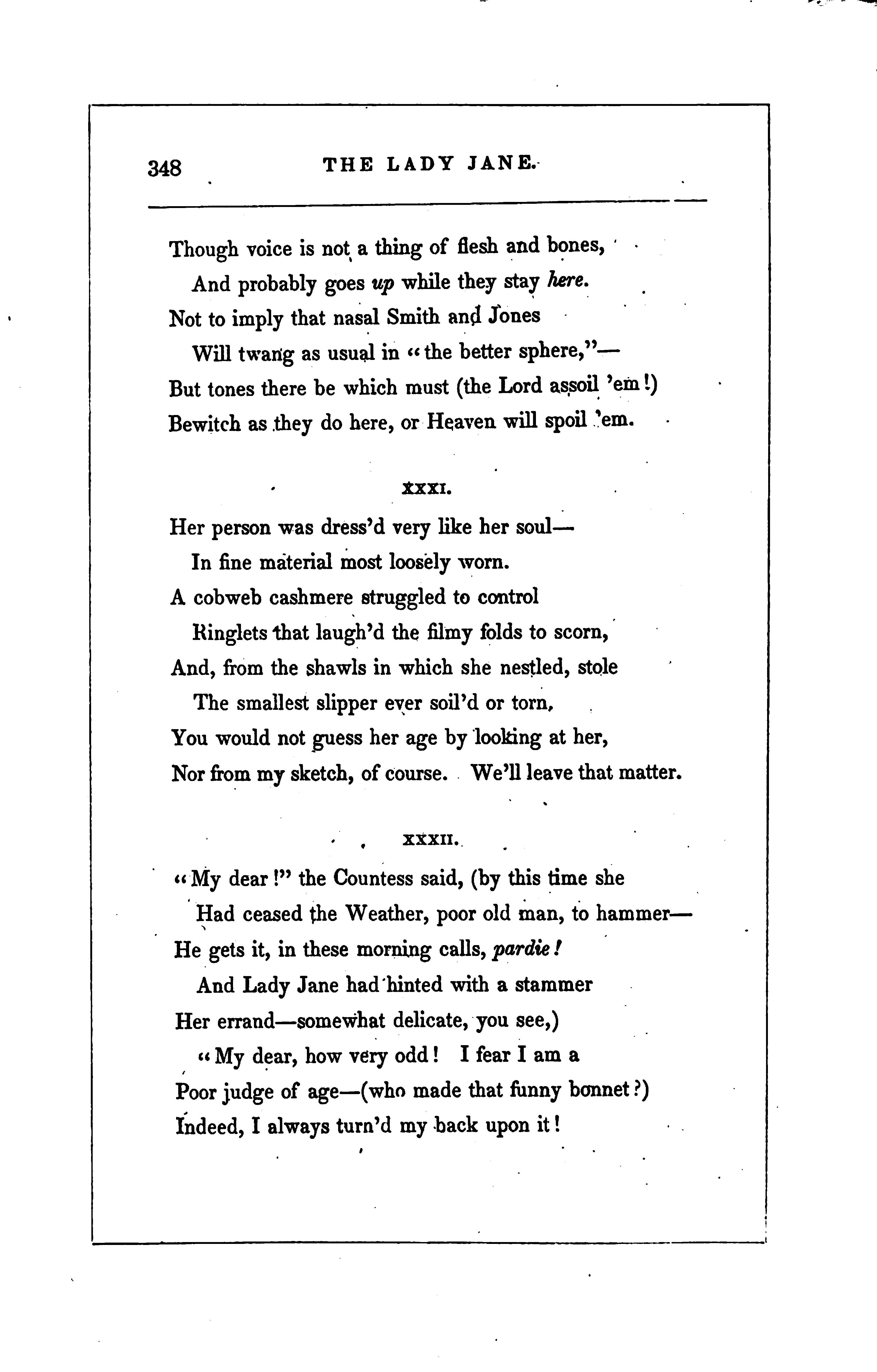

XXXIII.
Time has no business in one's house, my dear! I'm not at home to any of my creditors. They send their nasty bills in, once a year, And Time's are like Mortality's-mere dead letters.' Besides, what comfort is there living here, If every stupid hour's to throw Death's head at us?
(Lend me a pin, dear !) Time at last will stop us : But, come to that we're free by habeas corpus.
( Fie, what a naughty shawl ! No exposé, I trust, love, eh? Hold there,thou virtuous pin !) And so you really have come out to-day To look you up some suitable new sin!"
"Oh, Countess !" "Did you never write a play? Nor novel? Well, you really should begin ! For, (hark, my dear!) the publishers are biters, Not at the book's fine title-but the writer's.
XXXV.
"You're half an authoress ; for, as my maid says, 'Begun's half done,' and you've your title writ. I quote from Colburn, and as what the trade' says Is paid for, it is well-consider'd wit. Genius, undoubtedly, of many grades is, But as to us, we do not need a bit.
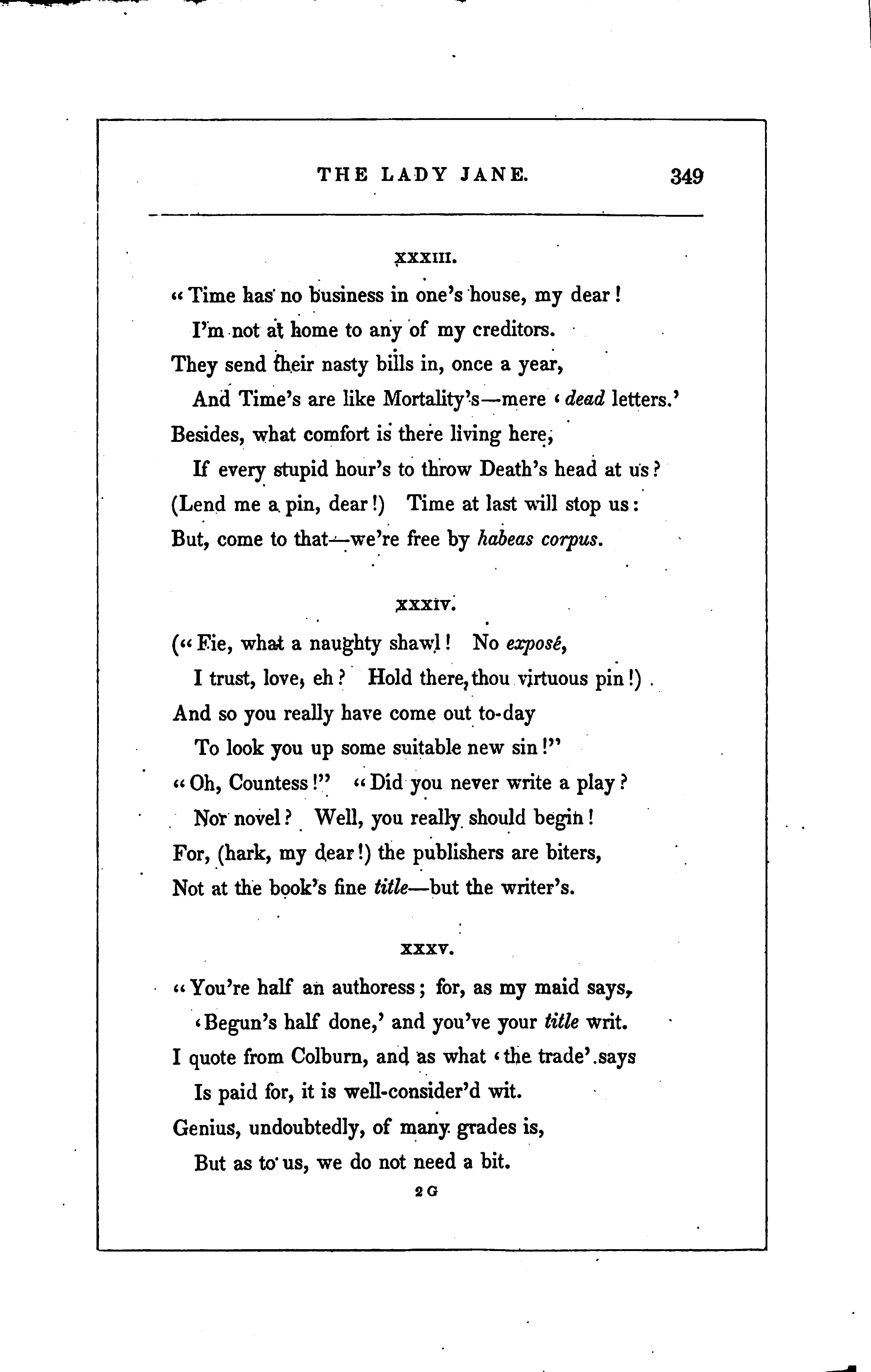

Three volumes,' says the bargain, not too thin.'
You don't suppose I'd throwhim genius in !"
XXXVI.
"But fame, dear Countess !" At the word there flush'd
A colour to her cheek like fever's glow, And in her hand unconsciously she crush'd The fringes of her shawl, and bending low To hide the tears that suddenly had gush'd Into her large, dark eyes, she murmur'd, " No!
Th' inglorious agony of conquering pain Has drunk that dream up. I have lived in vain!
XXXVII.
"Yet have I set my soul upon the string, Tense with the energy of high desire, And trembled with the arrow's quivering spring, To launch upon ambition's flight of fire! And never lark so hush'd his heart to sing, Or, as he sang, nerved wing to bear it higher, As I have striven my wild heart to tame, And melt its love, pride, passion-into fame!
XXXVIII.
"Oh, poor the flattery to call it mine
For trifles which beguiled an hour of pain, Or, on the echoing heels of mirth and wine, Crept through the chambers of a throbbing brain.
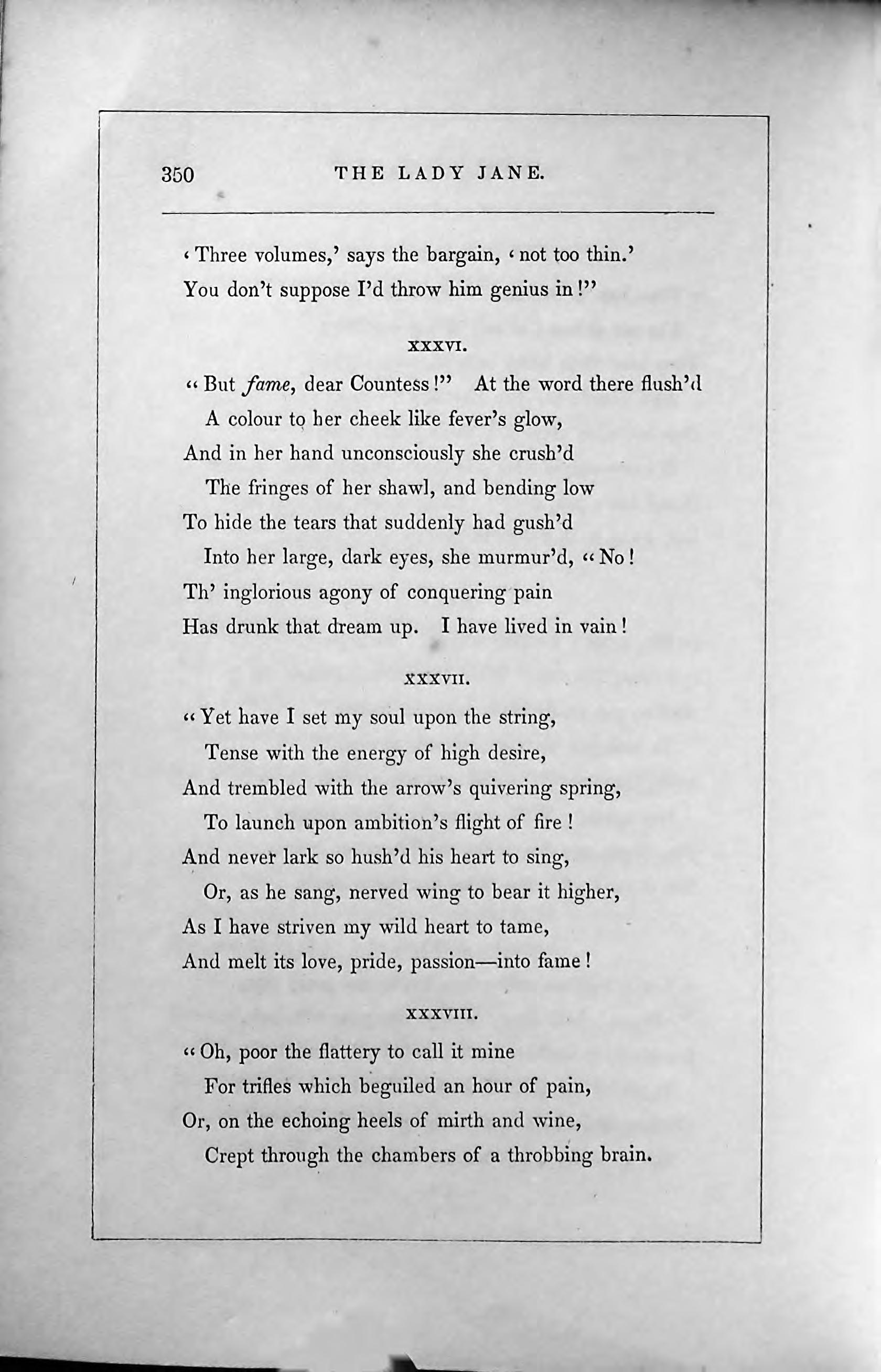

Worthily, have I never written line!
And when they talk to me offame I gain, In very bitterness of soul I mock it,And put the net proceeds into my pocket ! XXXIX.
"And so, my dear,-let not the market vary, I bid the critics, pro and con, defiance ; And then I'm fond of being literary, 6 And have a tenderness for sucking lions.'
My friend the Dutchess has a fancy dairy : Cheeses or poets, curds or men of scienceIt comes to the same thing. But, truce to mocking Suppose you try my colour in a stocking!" XL.
I need not state the ratiocination
By which the Lady Jane had so decidedNot quite upon the regular vocation
Of course you knew she was too rich (or I did) To care with Costard for " remuneration ;"
But feeling that her life like Lethe glided, She thought 'twould be advisable to bag her a Few brace of rapids from her friend's Niagara. XLI.
"Well, Countess ! what shall be my premier pas? Must I propitiate the penny-a-liners ?
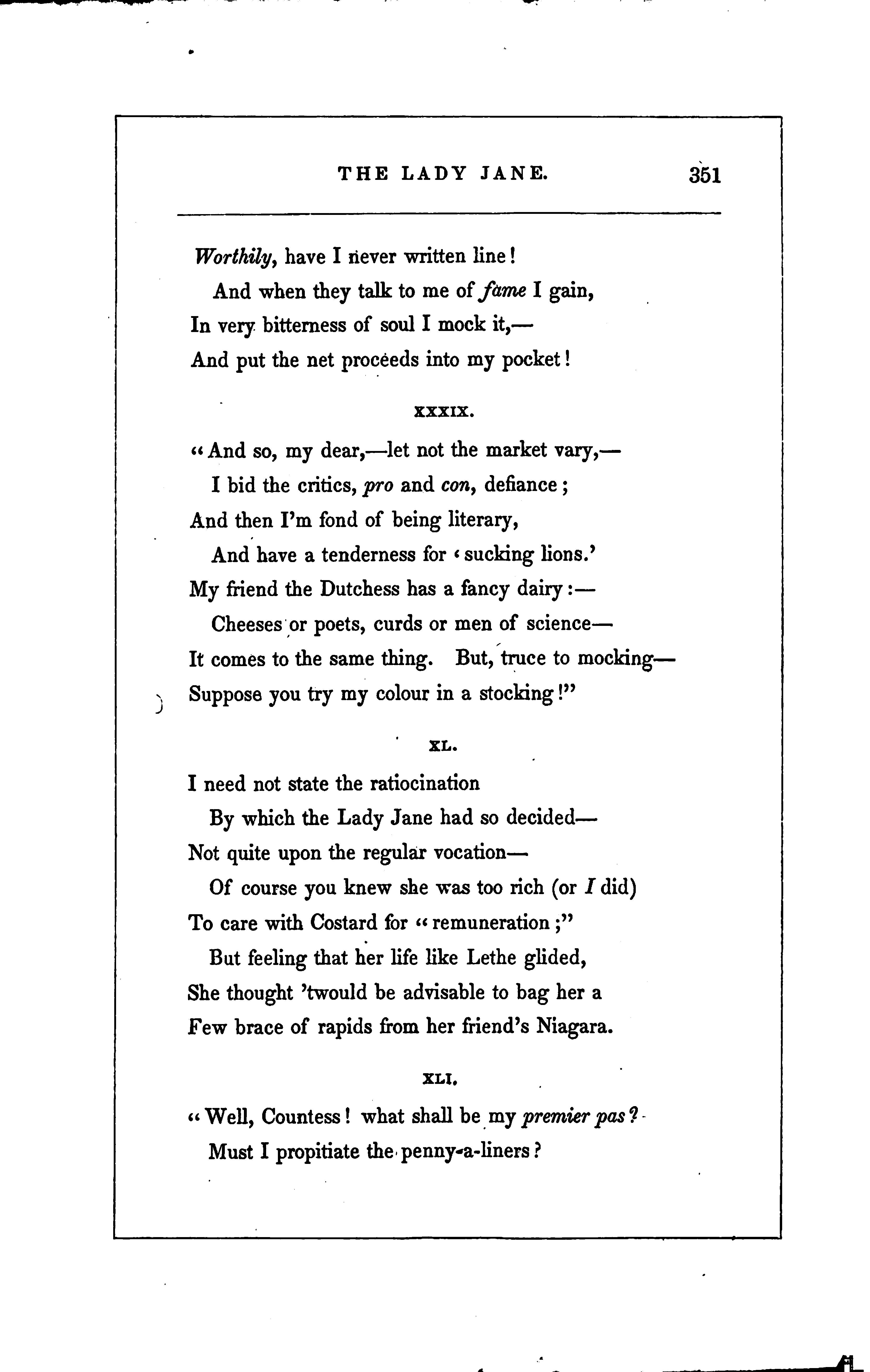

Or would a sucking lion' stoop so far
As to be fed and petted by a dry nurse I cannot shine but I can see a starAre there not worshippers as well as shiners? I will be ruled implicitly by you: My stocking's innocent-how dye it blue? ·
XLII.
The Countess number'd onher fingers, musing:I've several that I might make you over, And not be inconsolable at losing; : But, really, as you've neither spouse nor lover, 'Most any of my pets would be amusing, Particularly if you're not above a Discreet flirtation. Are you? How's the Earl? Does he still treat you like a little girl ?
XLIII.
"How do you see your visiters ? Alone ? Does the Earl sleep at table after dinner? Have you had many lovers? Dear me ! None? Was not your father something of a sinner? Who is the nicest man you've ever known ? Pray, does the butler bring your letters in, or First take them to the Earl? Is he not rather A surly dog?-the butler, not your father."
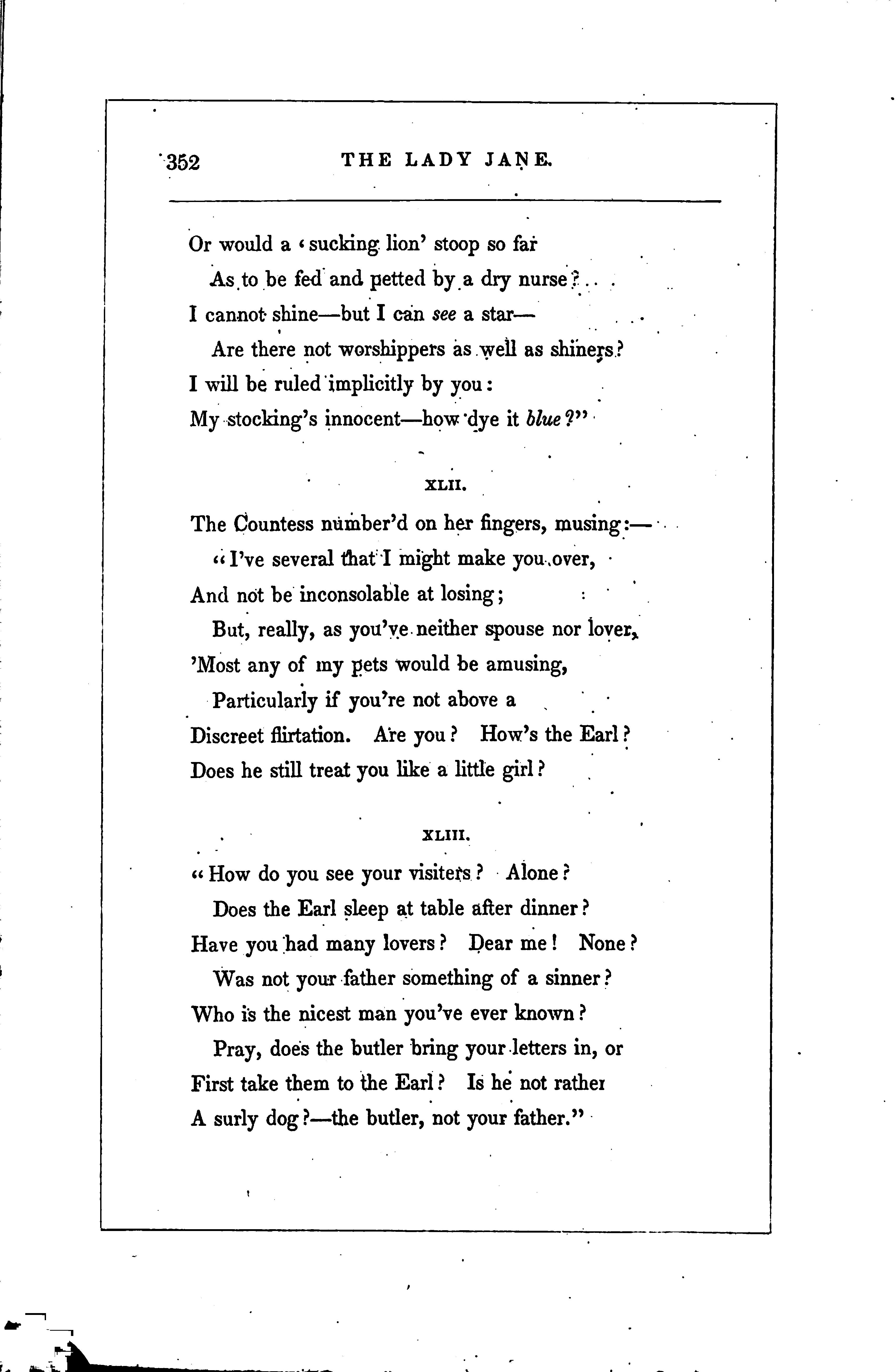

XLIV.
To these inquiries the Lady Jane
Replied with nods, or something as laconic, For on the Countess rattled, might and main,
With a rapidity Napoleonic ; Then mused and said, " "Twill never do, it's plainThe poet must be warranted Platonic! But, query-how to find you such an oddity?
My dear, they all make love ! it's their commodity!
XLV.
"The poet's on the look-out for a sceneThe painter for a ' novel situation ;' And either does much business between The little pauses of a declaration Noting the way in which you sob or lean, Or use your handkerchief in agitation.
I've known one-making love like Roderick RandomGet off his knees and make a memorandum !
XLVI.
"You see they're always ready for their trade, And have a speech as pat as a town-crier ; And so, my dear, I'm naturally afraid
To trust you with these gentlemen-on-fire. I knew a most respectable old maid
A dramatist made love to just to try her!
2G2
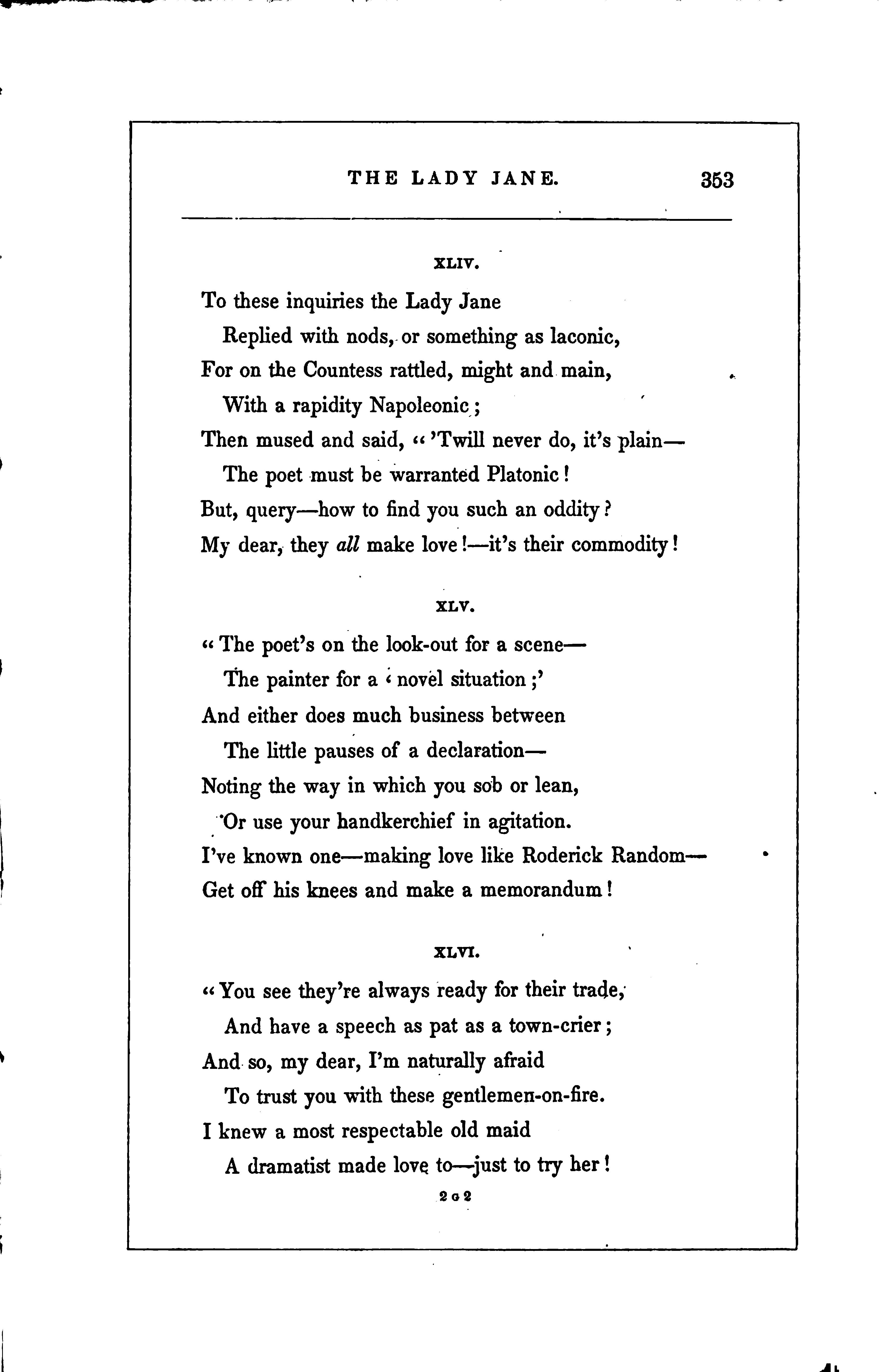

She hang'd herself, of course-but in that way He got some pretty touches for his play.
XLVII.
"How shall we manage it? I say, with tears, I've only two that are not rogues at bottom ; And one of these would soon be over ears' In love with you, but that he hasn't got 'em! They were cut off by the New Zealanders(As he invariably adds) 'od-rot-'em !' (Meaning the savages.) He's quite a poet, (He wears his hair so that you wouldn't know it,)
XLVIII.
"In his ideas, I mean. (I really am at a Stand-still about you.) Well-this man, one day, Took in his head to own the earth's diameter, From zenith through to nadir! (They do say . He kill'd his wife or threw a ham at herOr something so he had to go away That's neither here nor there.) His name is Wieland, And under him exactly lies New Zealand.
"I am not certain if his In the Low Countries. XLIX. seat' 's, or no, But the sky above it Of course is his ; and for some way below 1 He has a right to dig and to improve it;
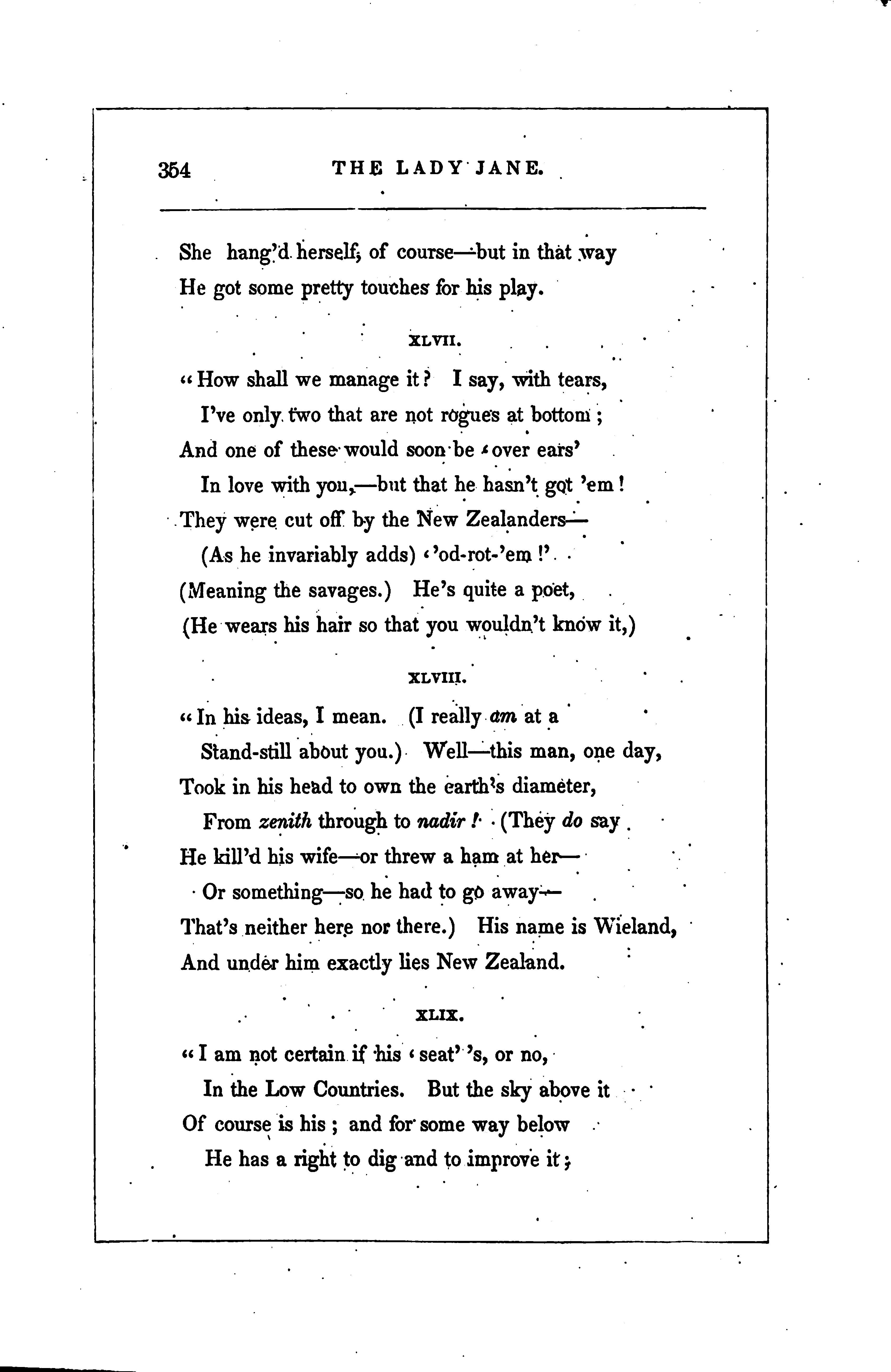

But under him, a million miles or so, Lies land that's not his,-and the law can't move it. It cut poor Wieland's nadir off, no doubtAnd so he sail'd to buythe owner out.
I neverquite made out the calculationBut plump against his cellar floor, bin 2, · He found a tribe had built their habitation, Whose food was foreigners and kangaroo. They would sell out-but, to his consternation, They charged him all the fattest of his crew!
At last they caught and roasted every oneBut he escaped by being under-done !"
That such a lion was well worth his feed, :
Confess'd with merry tears the Lady Jane ; But, that he answer'd to her present need, (A literary pet,) was not so plain. She thought she'd give the matter up, indeed, Or turn it over and so. call again. However, as her friend had mention'd two, Perhaps the other might be made to do.
LII.
"I'm looking," said the Countess, « for a letter
From my old playmate, Isabella Gray.
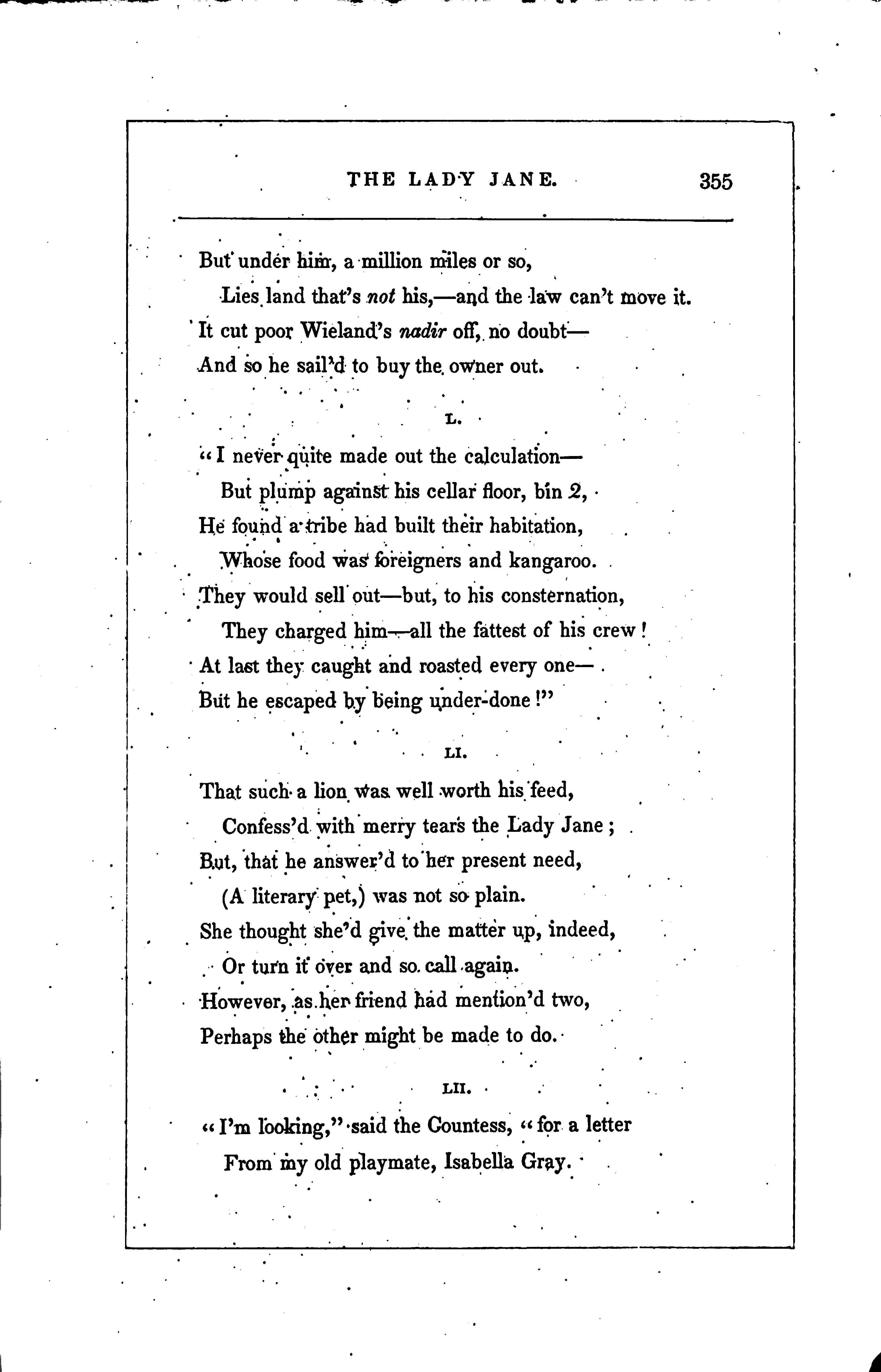

'Tis Heaven knows how long since I have met her ; She ran away and married one fine day Poor girl! She might have done a great deal better ! The boy that she has sent to me, they say, Is handsome, and has talents very striking: So young, too you can spoil him to your liking.
LIII.
" Her letter will amuse you. You must know That, from her marriage-day, her lord has shut her Securely up in an old French chateau ; Where, with her children and no woman but her, He plays the old school gentleman ; and so Her worldly knowledge stopp'd at bread and butter She thinks I may be changed by time-for, may be, I've lost a tooth or got another baby.
LIV.
"Heigh-ho !-'tis evident we're made of clay, And harden unless kept in tears and shade e ; This fashionable sunshine dries away Much that we err in losing, I'm afraid ! I wonder what my guardian angels say About the sort of woman I have made! I wish I could begin my life again! What think you of Pythagoras, LadyJane?"
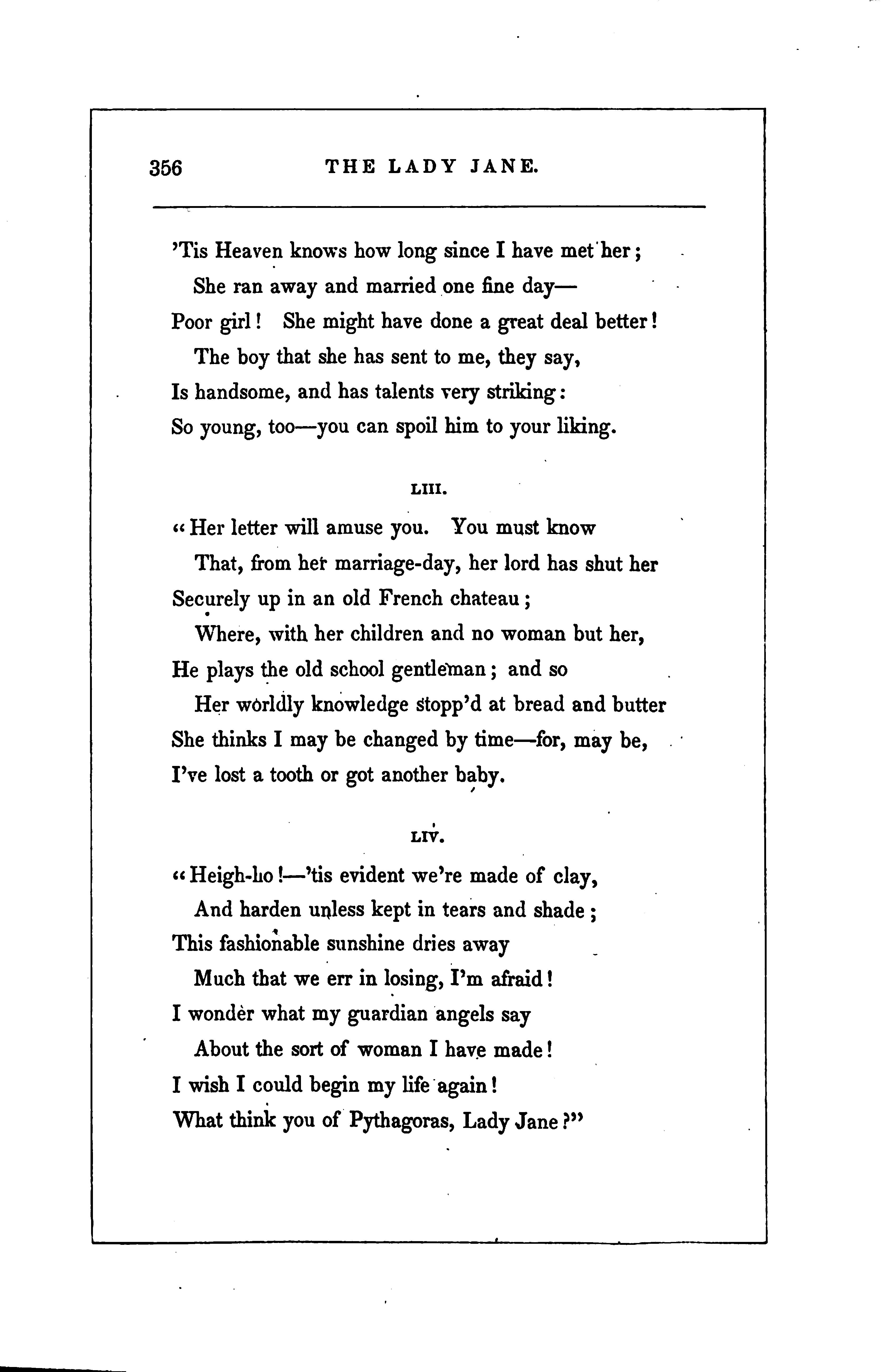

LV.
The Countess, all this while, was running over The pages of a letter, closely cross'd : "I wish," she said, " my most devoted lover Took half the trouble that this scrawl has cost! Though some of it is quite a flight above a Sane woman's comprehension. Tut! Where was't!
There is a passage here-the name's BeaulevresHis chateau's in the neighbourhood of Sevres.
LVI.
"The boy's call'd Jules. Ah, here it is! * *
Brings you this letter. P've not much to say Morethan you know of him, if he has smiled Whenyou have seen him. In his featuresplay
The light from which his soul has been beguiled The blessed Heaven Ilose with him to-day.
My child
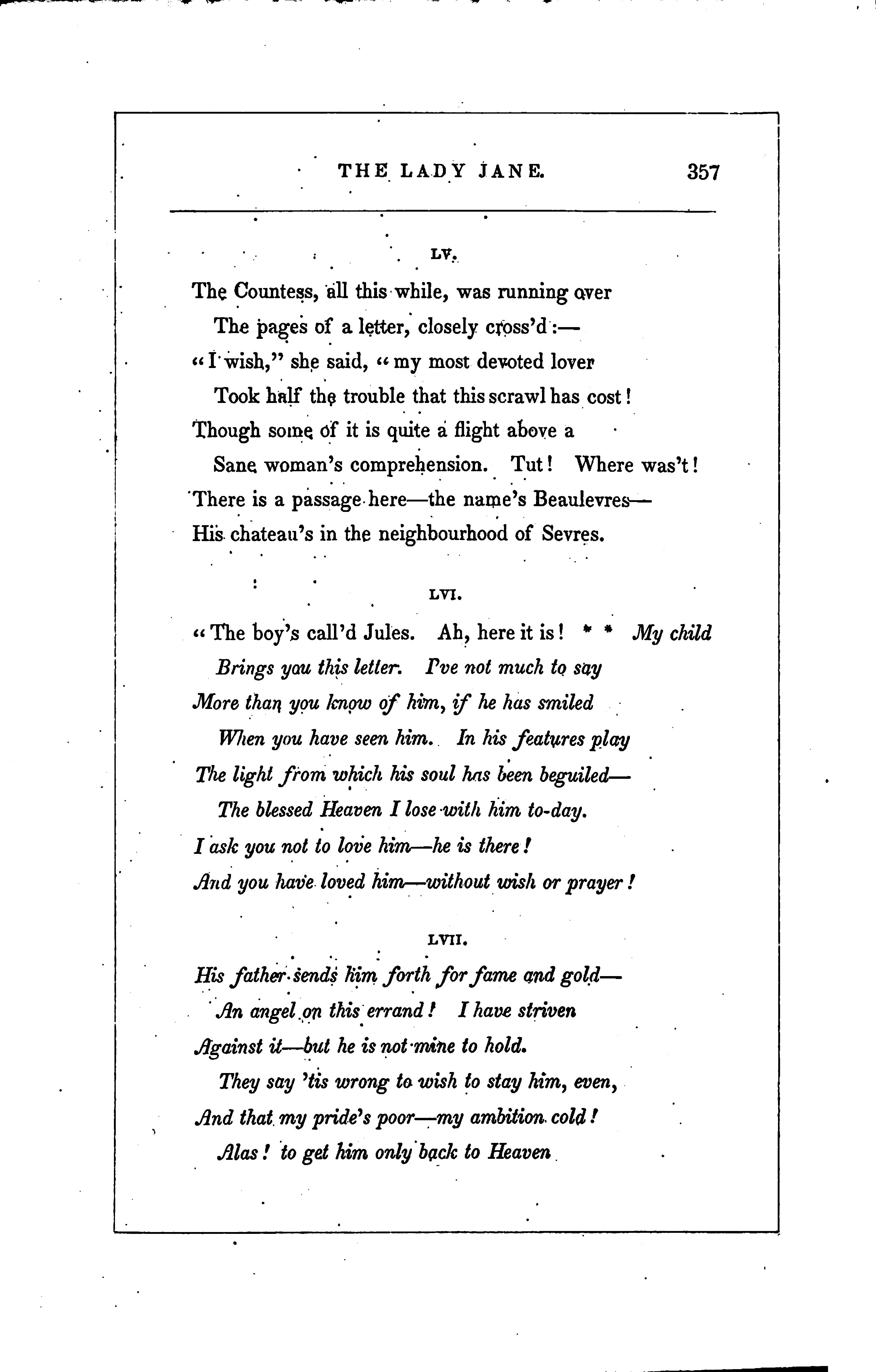
Iask you not to love him he is there! And youhave loved him- without wish orprayer! LVII.
His father sends him forth forfame andgold
An angel on this errand! Ihave striven Against it but he is not mine to hold. They say 'tis wrong to wish to stay him, even, And that my pride's poor my ambition cold! Alas! toget him only back to Heaven

Is myonepassionate prayer! Think me not wild 'Tis that Ihave an angelfor my child! LVIII.
They say that he has genius. I but see That hegets wisdom as theflowergets hue, While others hive it like the toiling bee; That, with him, all things beautiful keep new, And every morn thefirst morn seems to be
Sofreshly look abroad his eyes of blue! What he has written seems to me no more Than I have thought a thousand times before! LIX.
Yet not upon his gay career to Fame
Broods myforeboding tear. I wish it won Myprayer speeds on his spirit to his aim
But in his chamber wait Ifor my son!
When darken'd is ambition's star offameWhenthe night'sfever of unrest is on Withthe unbidden sadness, the sharp care, Ifly from his bright hours, to meet him there! LX.
Forgive me ifIprate! Is't much is't wild
Tohope topray-that you will sometimes creep To the dream-hauntedpillow of my child, Keeping sweet watch above his fitful sleep?
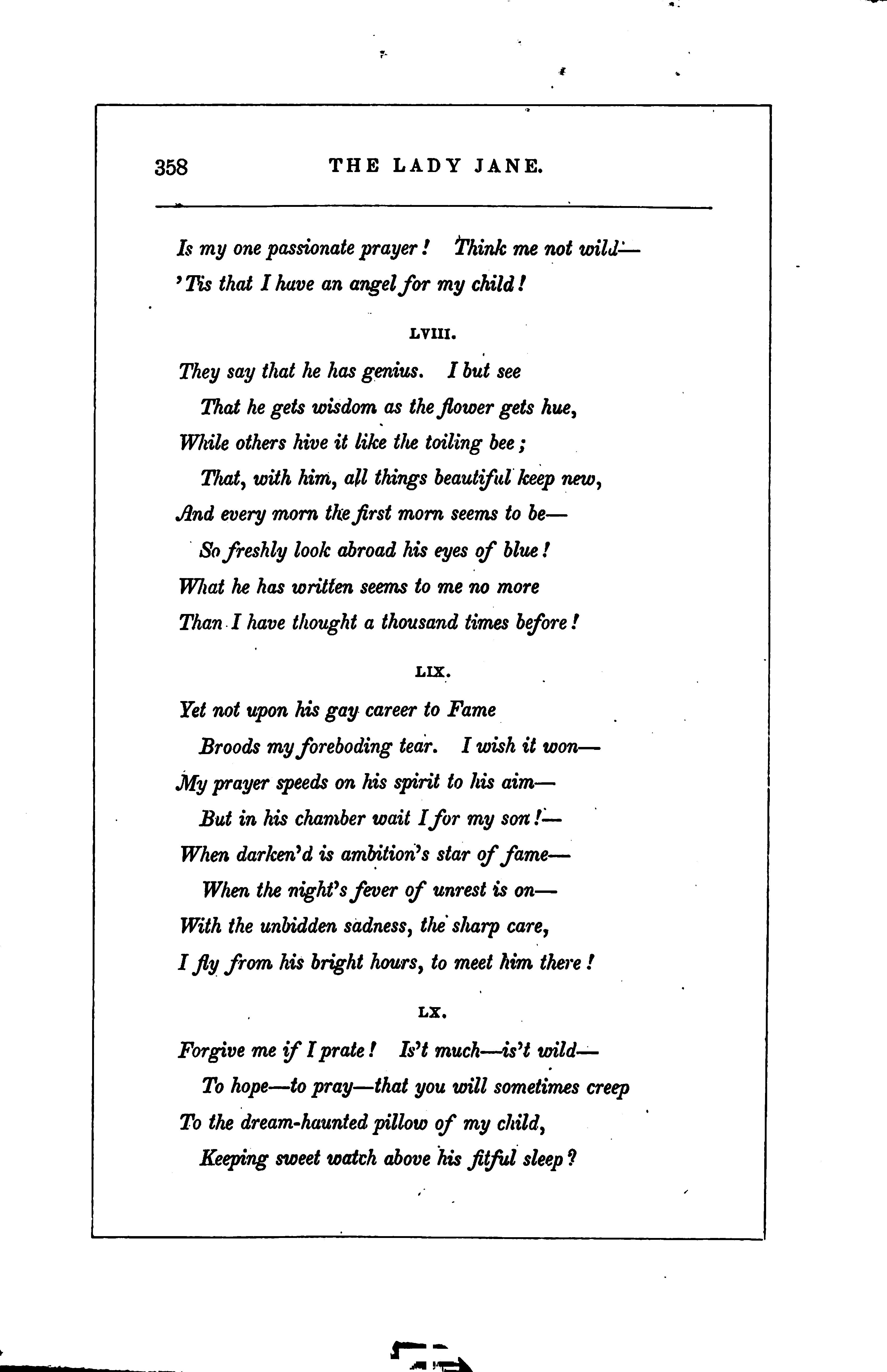

Blest like his mother, if in dream he smiled,
Or, if he wept, still blest with him to weep; Rewarded-oh, for how much more than this! Byhis awaking smile-his morning kiss!
LXI.
Iknow nothow to stop! He leaves me well; Life, spirit, health, in all hisfeatures speak ; His foot bounds with the spring of agazelle; Butwatchhim-stay! well thought on ! there's a streak
Which the first faltering of his tongue will tell, Long erethe bright blood wavers on his cheek
Alittle bursted vein, that, near his heart, Looks like a crimson thread half torn apart.
LXII.
So, trusting not his cheek by morning light, When hope sits mantling on it, seek his bed
In the more tranquil watches of the night, And ask this tell-tale how his heart has sped. If well its branching tracery shows bright; But, ifits sanguine hue look cold and dead, Ah, Gertrude! let your ministering be . As you would answer it, in heaven, to me!"
LXIII.
Enter the page:- Miladi's maid is waiting !"A hint, (that it was time to dress for dinner,)
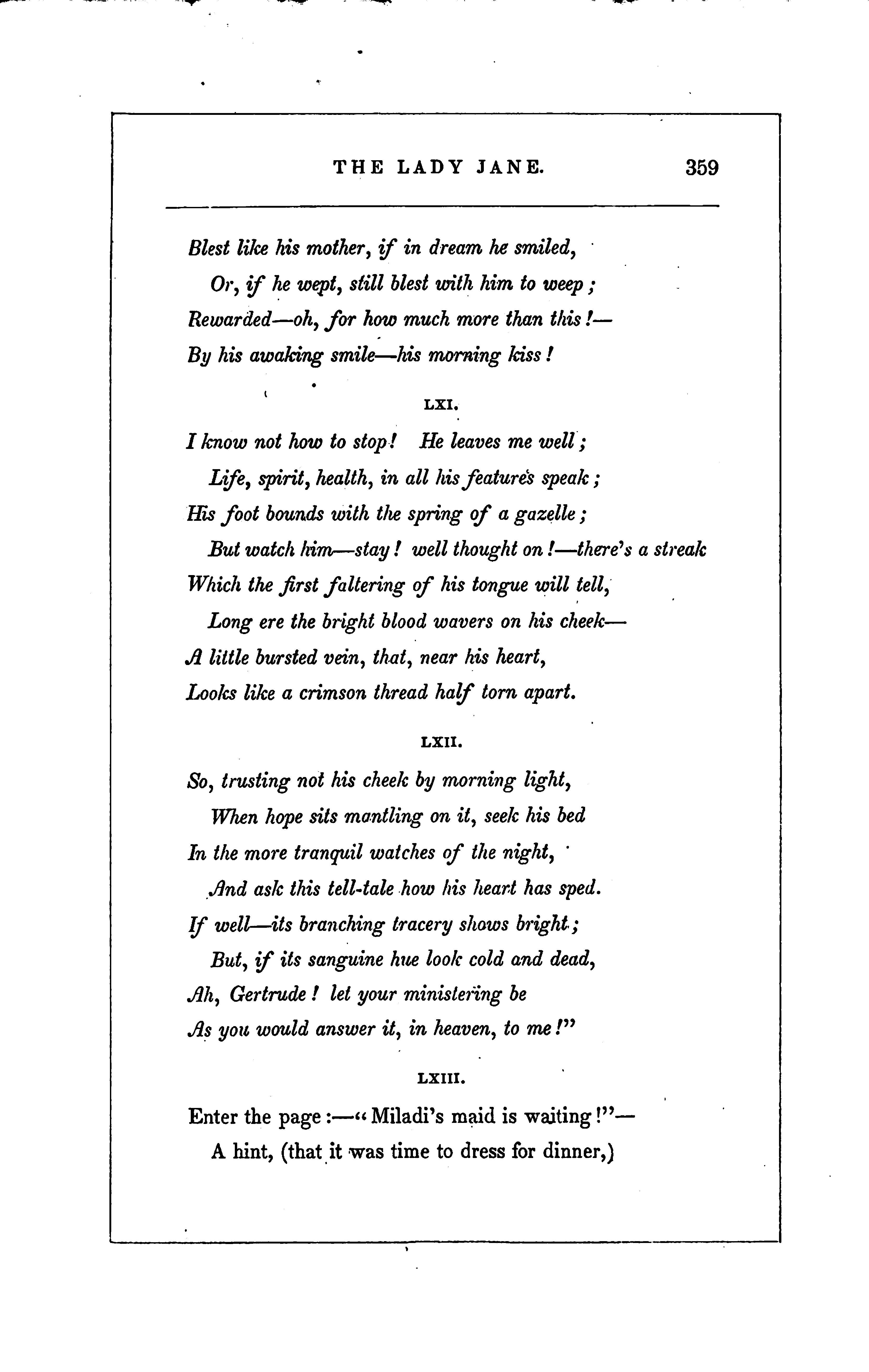

Which puts a stop in London to all prating. As far as goesthe letter you're a winner, · The rest of it to flannel shirts relatingWhen Jules should wear his thicker, when his thinner. The Countess laugh'd at Lady Jane's adieu : She thought the letter touching. Pray, don't you ?
LXIV.
I have observed that Heaven, in answering prayer, (This is not meant to be a pious stanza Only a fact that has a pious air.)
(We're very sure, I think, to have an answer ;) But I've observed, I would remark, that where Our plans are ill-contrived, as oft our plans are, Kind Providence goes quite another way To bring aboutthe end for which we pray.
LXV.
In this connection I would also add That a discreet young angel, (bonâfide,) Accompanied our amiable lad ; And that he walk'd not out, nor stepp'd aside he, Nor met with an adventure, good or bad; (Although he enter'd London on a Friday,) · Nor ate, nor drank,,nor closed his eye a minute,. Without this angel's guiding finger in it.
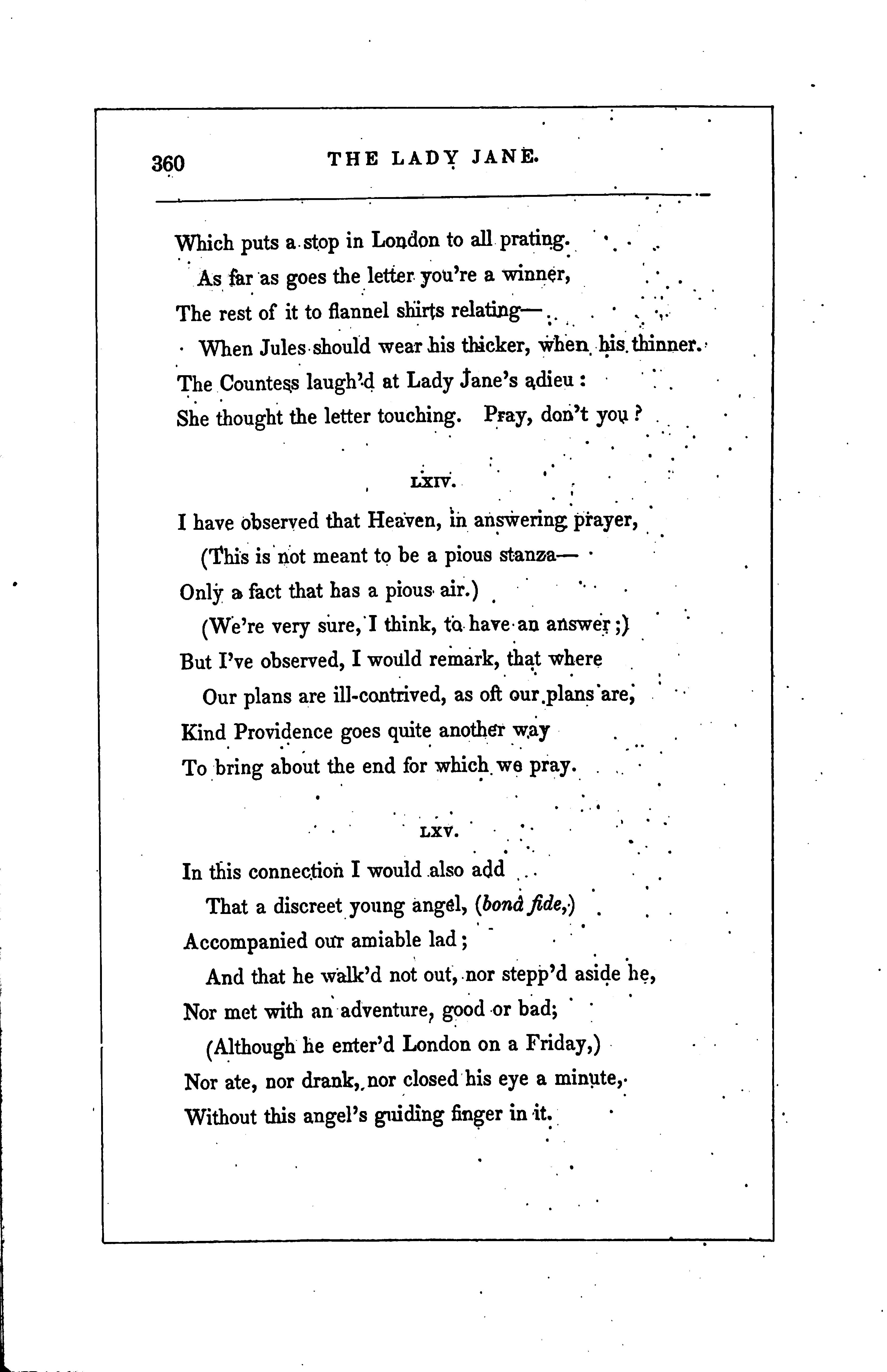

LXVI.
His mother, as her letter seems to show, Expected him, without delay or bother, Portmanteau, carpet-bag, and all to go "
Straighttoherold friend'shouse-(forsooth ! what other!)
The angel, who would seemthe world to know, Advised the boy to drive to Mivart's rather ; He did. The angel, (as I trust is plain,) Lodged in the vacant heart of Lady Jane.
LXVII.
A month in town these gentlemen had been At date of the commencement of my story. The angel's occupations you have seen
If you have read what I have laid before ye. Jules had seen Dan O'Connell and the Queen, And girded up his loins for fame and glory, And changed his old integuments for better; And then he call'd and left his mother's letter.
LXVIII.
That female hearts grow never old in towns-' That taste grows rather young with dissipation-That dowagers dress not in high-neck'd gownsNor are, at fifty; proof against flirtationThat hospitality is left to clowns, Or elbow'd from the world by ostentation 2H
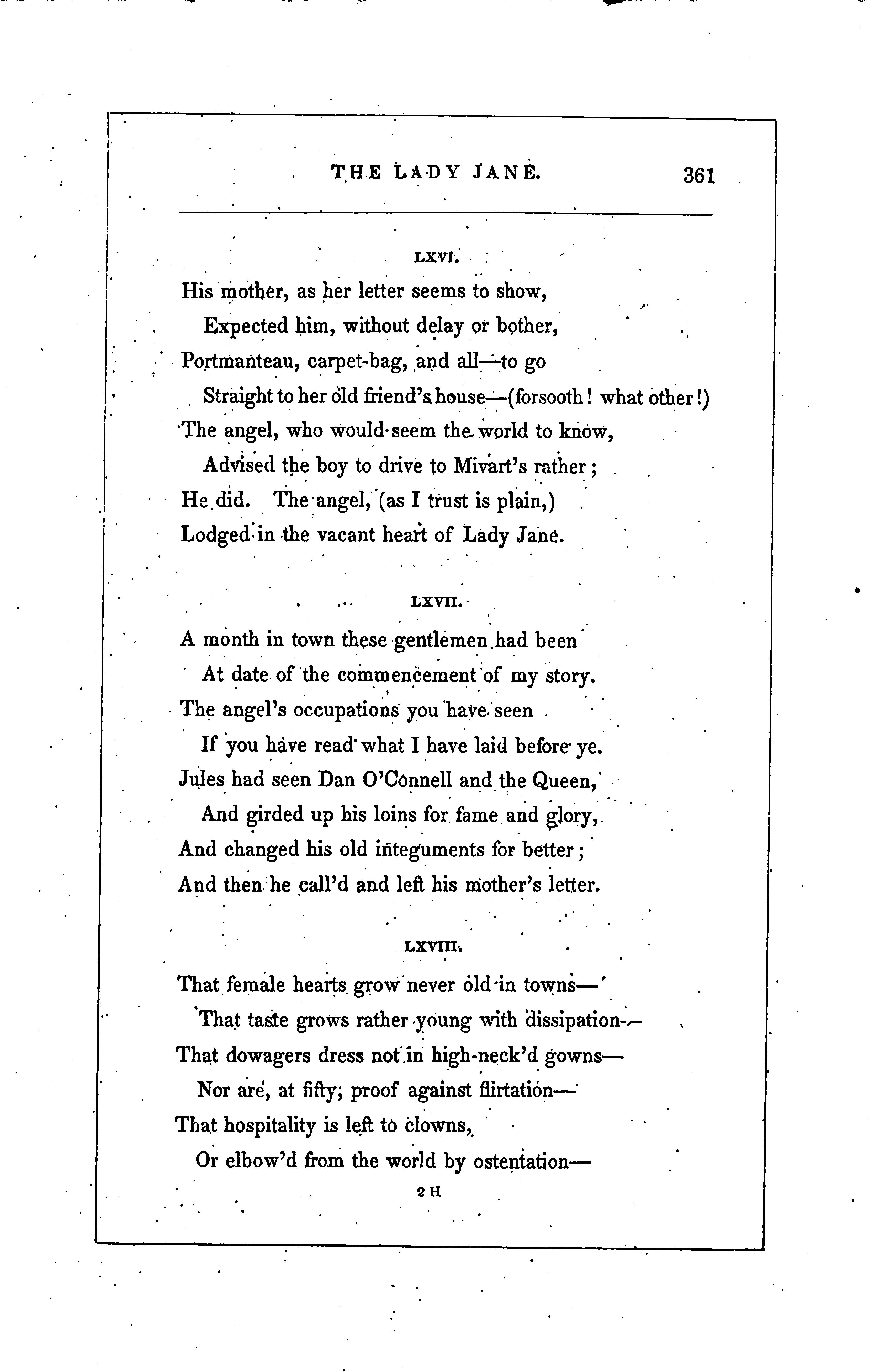

'That a " tried friend" should not be tried againThat boys at seventeen are partly menLXIX.
Are truths, as pat as paving-stones, in cities. The contrary is true of country air; (Where the mind rusts, which is a thousand pities, While still the cheek keeps fresh and debonnair.) But what I'm trying in this verse to hit is, That Heaven, in answering Jules's mother's prayer, Began by thwarting all her plans and suavities ; As needs must-vide the just-named depravities.
LXX.
Some stanzas back, we left the ladies going, At six, to dress for dinner. Time to dine I always give in poetry, well knowing That, to jump over it in half a line, Looks, (let us be sincere, dear muse !) like showing Contempt we do not feel, for meat and wine. Dinner! Ye gods ! What is there more respectable ! For eating, who, save Byron, ever check'd a belle ! LXXI.
'Tis ten- say half-past. Lady Jane has dined, And dress'd as simply as a lady may. A card lies on her table « To Remind""Tis odd she never thought of it to-day.
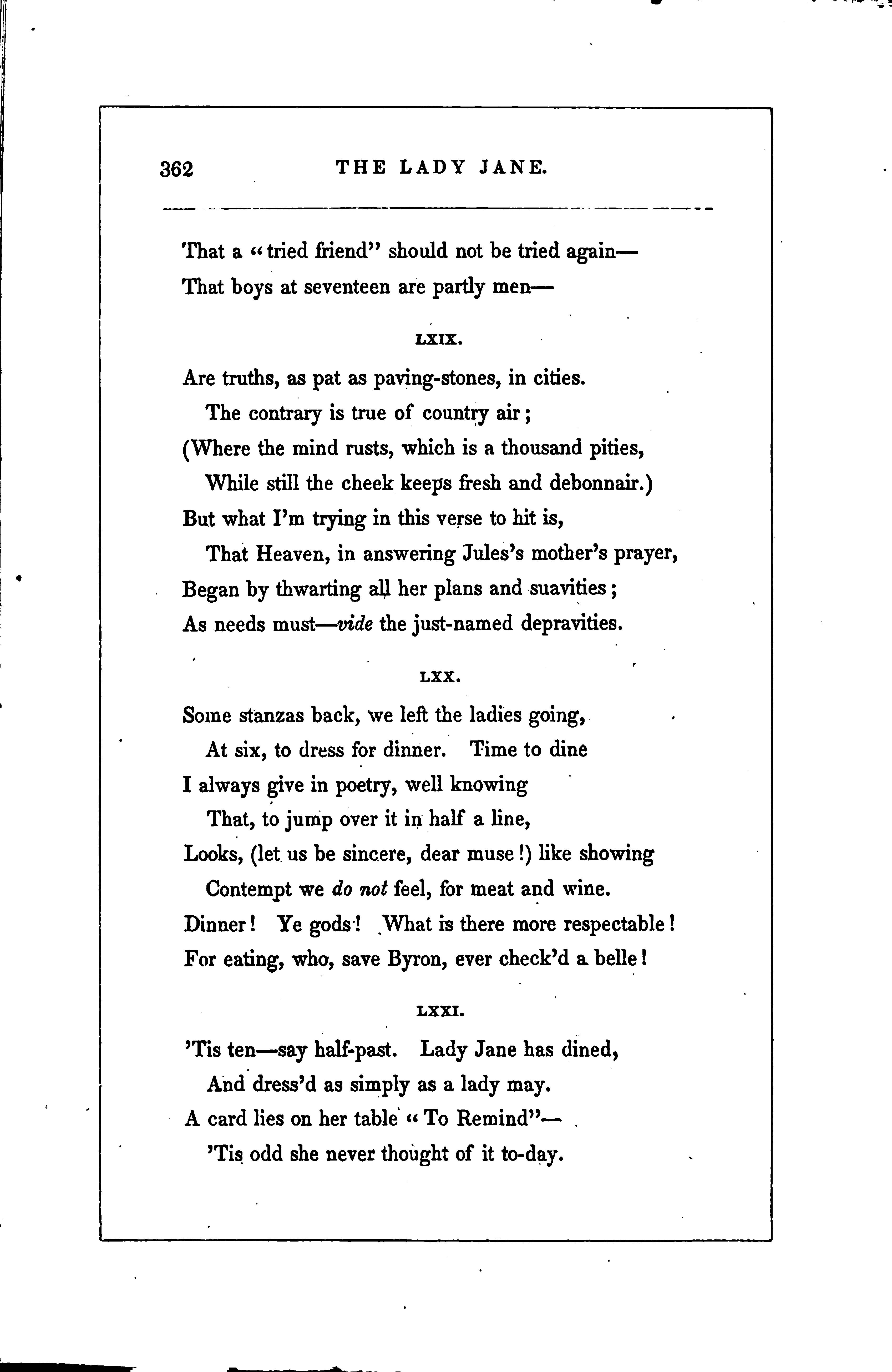

But she is pleasantly surprised to find
'Tis Friday night, the Countess's soirée. Back rolls the chariot to Berkely Square.
If you have dined, dear reader, let's go there!
LXXII.
We're early. In the cloak-room smokes the urn, The house-keeper behind it, fat and solemn ; Steady as stars the fresh-lit candles burn, And on the stairs the new-blown what d'ye-call 'em
Their nodding cups of perfume overturn ;
The page leans idly by a marble column, And stiffly a tall footman stands above, Looking between the fingers of his glove.
LXXIII.
All bright and silent, like a charméd palace-
The spells wound up, the fays to come at twelve ; The house-keeper a witch, (cum grano salis ;)
The handsome page, perhaps, a royal elve Condemn'd to servitude by fairy malice ; (I wish the varlet had these rhymes to delve !)
Some magic hall, it seems, for revel bright, And Lady Jane the spirit first alight.
LXXIV.
Alas! here vanishes the foot of Pleasure ! She-like an early guest-goes in before,
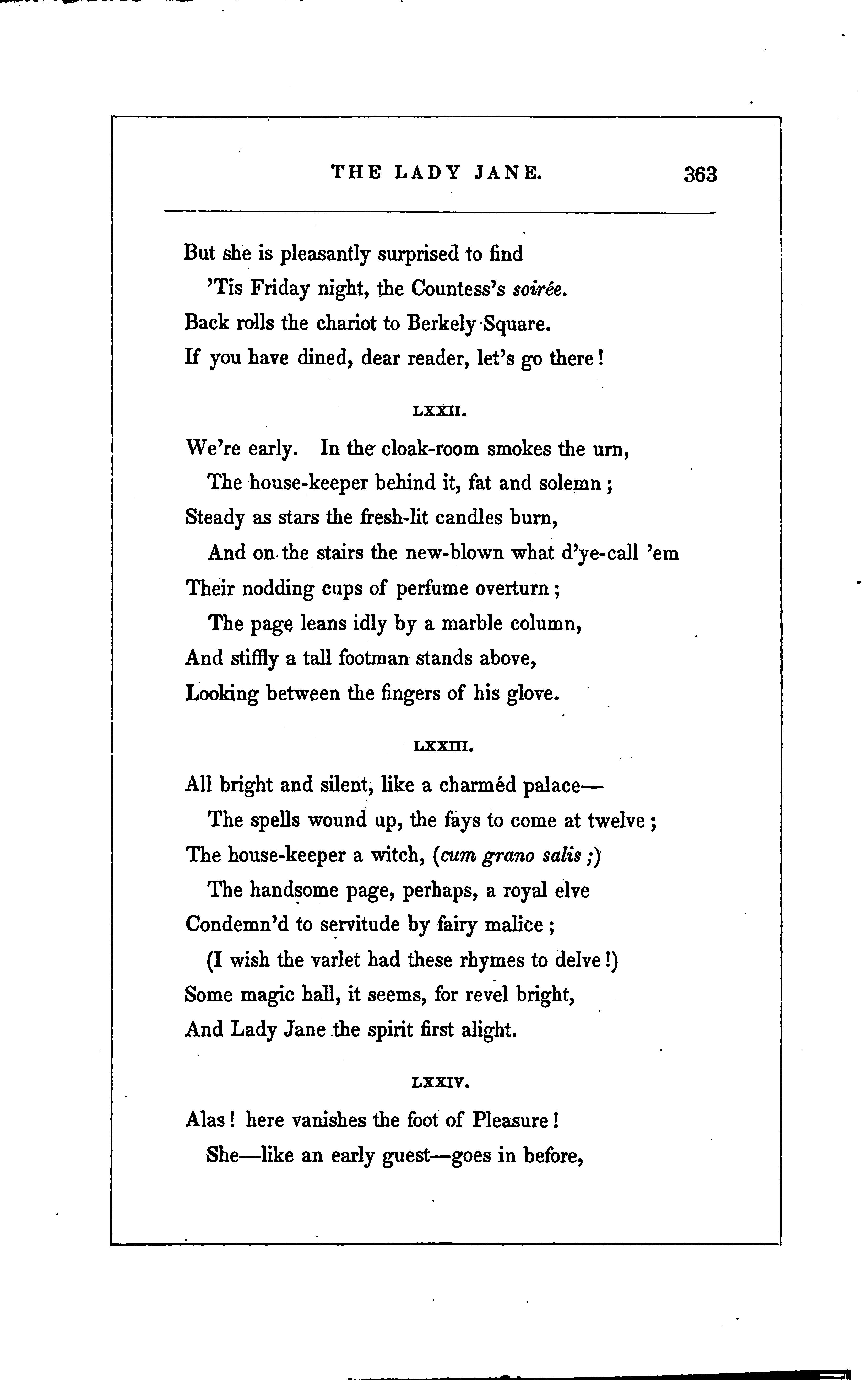

And comes, when all are.gone, for Memory's treasure; But is not found upon the crowded floor ; (Unless, indeed, some charming woman says you're A love, which makes close quarters less a bore.)
I've seen her, down Anticipation's vista, As large as life and walk'd straight on, and miss'd her
LXXV.
With a declining taste for making friends, One's taste for the fatigue of pleasure's past ; And then, one sometimes wonders which transcendsThe first hour of a gay night; or the last. (Beginners burn the candle at both ends," And find the middle brightest that is fast !) But a good rule at parties, (to keep up a Mercurial air,) is to come in at supper.
LXXVI.
I mean that you should go to bed at nine And sleep till twelve-take coffee or green tea, Dress and go out-(this was a way of mine When looking up the world in '33) Sup at the ball-(it's not a place for wine)Sleep, or not, after, as the case may be. You've the advantage, thus, when all are yawning, Of growing rather fresher toward morning.
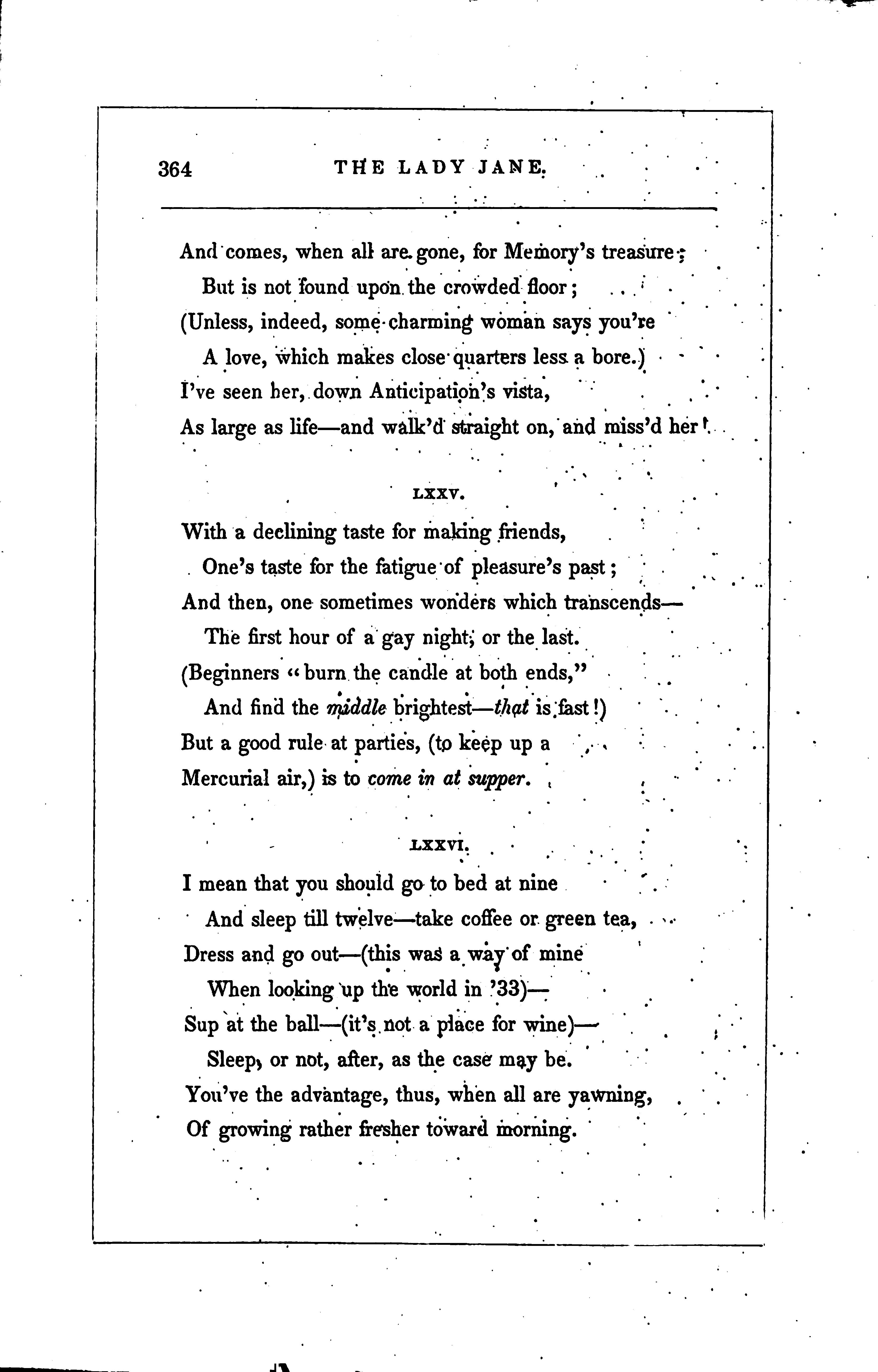

LXXVII.
But, after thirty, here's your best " Elixir :" Breakfast betimes. Do something worth your while By twelve or one-(this makes the blood run quick, sir!)
Dine with some man or woman who will smile. Have little cause to care how politics are, "Let not the sun go down upon your" bile ; And, if well-married, rich, and not too clever, I don't see why you shouldn't live forever.
LXXVIII.
Short-lived is your " sad dog and yet, we hear, "Whomthe gods love die young." Of course theladies Are safe in loving what the gods hold dear ; And the result, I'm very much afraid, is, That ifhe has his day," it's " neither here Nor there!" But it is time our hero made his Appearance on the carpet, Lady Jane(I'll mend this vile pen, and begin again.)
LXXIX.
The Lady Jane walk'd through the bright rooms, breaking The glittering silence with her flowing dress, Whose pure folds seem'd a coy resistance making Tothe fond air ; while, to her loveliness
The quick-eyed mirrors breathlessly awaking, Acknowledged not one radiant line the less 2 2
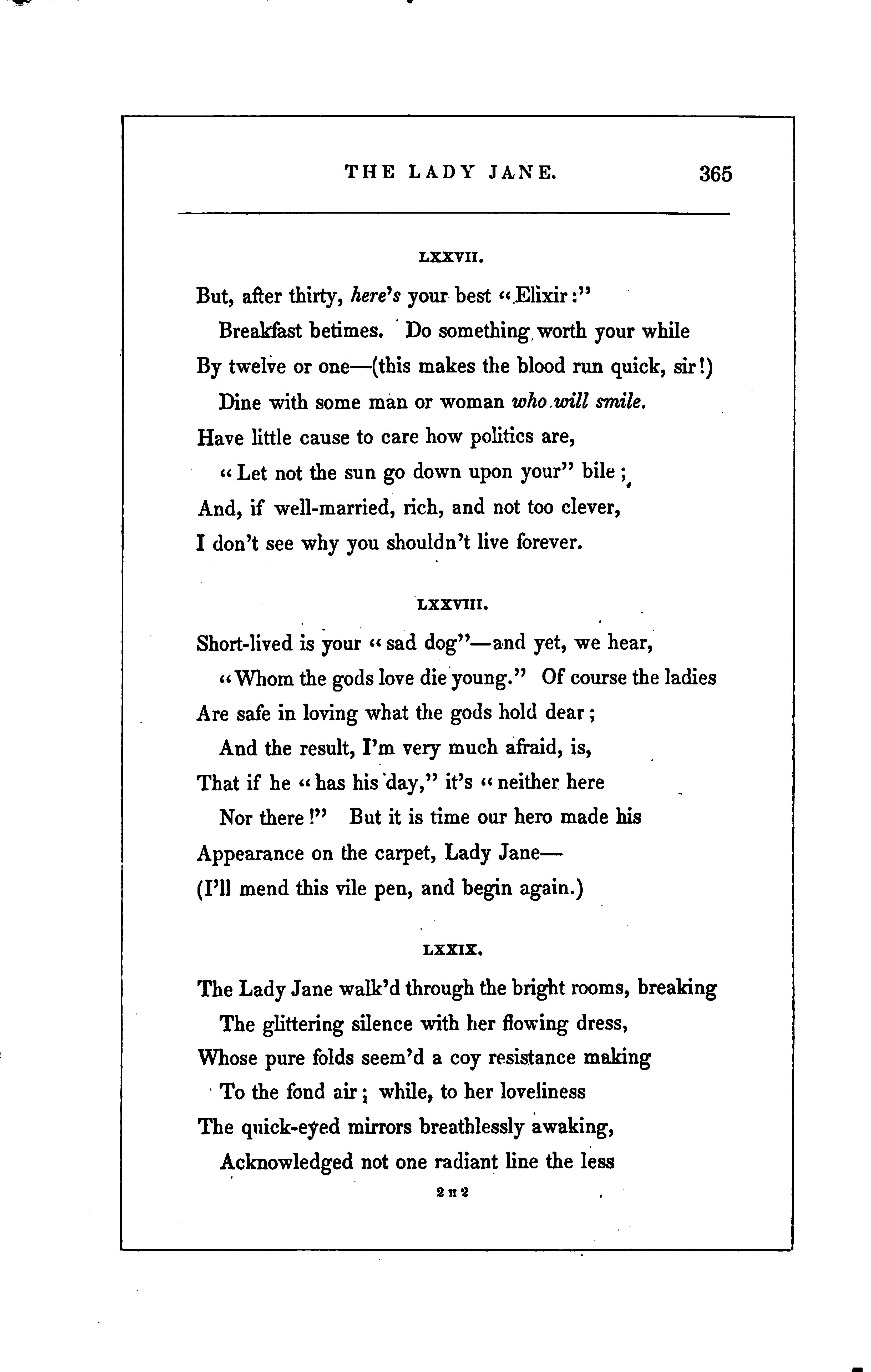

That not on them she look'd before she faded! Neglected gentlemen don't do as they did:LXXX.
No !-for, 'twixt our quicksilver and a woman, Nature has put no glass, for non-conductor, And, while she's imaged in their bosoms, few men. Can make a calm, cold mirror their instructor ; For, when beloved, we deify what's humanWhen piqued, we mock like devils ! But I've pluck'd a Digression here. It's no use, my contending Fancy will ramble while the pen is mending!
LXXXI.
A small room on the left, (I'll get on faster.
If you're impatient,) very softly lit By lamps conceal'd in bells of alabaster, Lipp'd like a lily, and as white as it," With a sweet statue by a famous master, Just in the centre, (but not dress'd a bit!) This dim room drew aside our early-comer, Who thought it like a moonlight night in summer.
LXXXII.
And so it was. For, through an opening door, Came the soft breath of a conservatory, And, bending its tall stem the threshold o'er, Swung in a crimson flower, the tropics glory
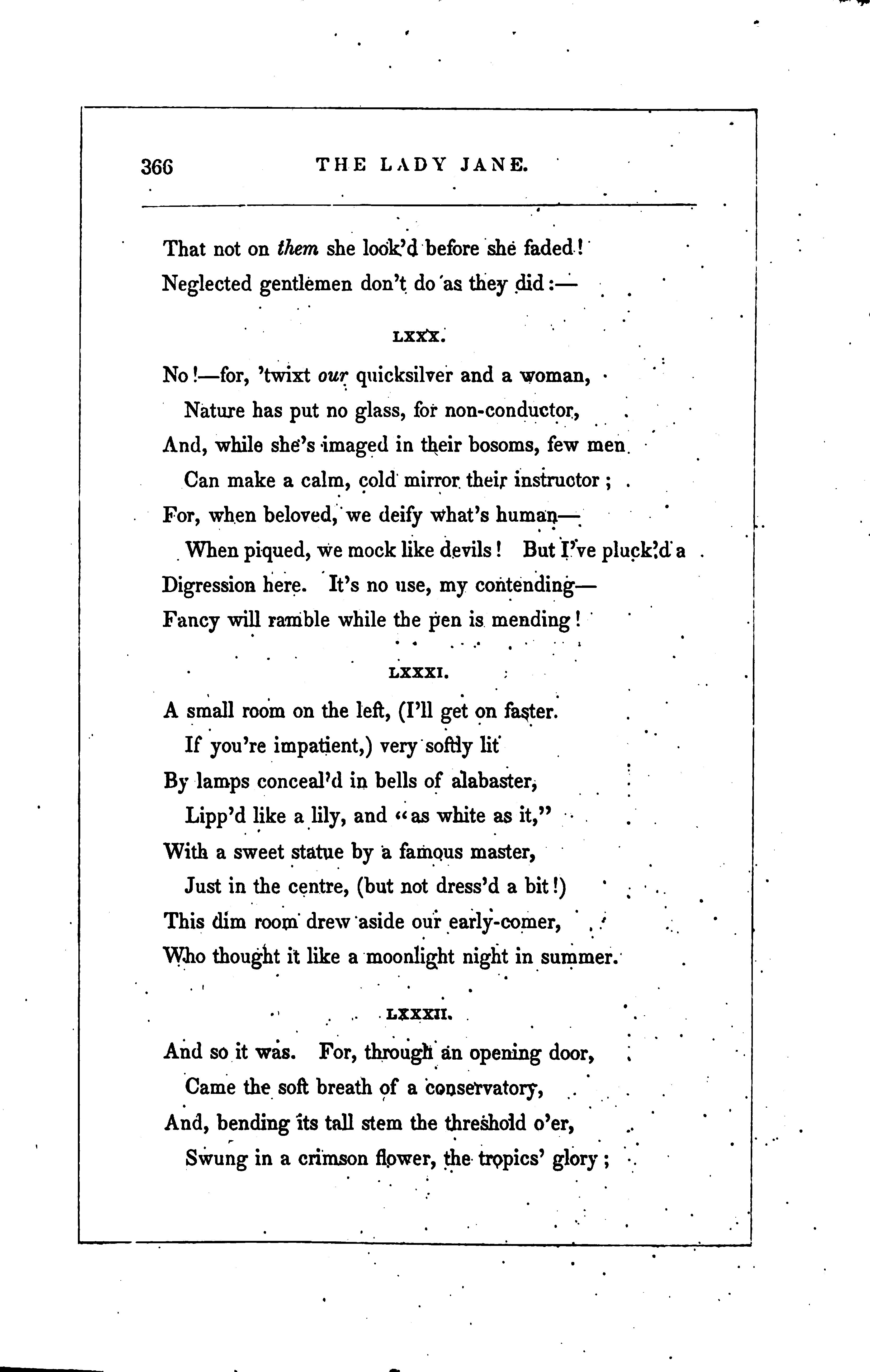

And, as you gazed, the vista lengthen d more, And statues, lamps, and flowers-but, to my story ! The room was cushion'd like a Bey's divan ; And in it (Heaven preserve us !) sat. a man!
LXXXIII.
At least, as far as boots and pantaloons Are symptoms of a man, there seem'd one thereWhatever was the number of his Junes: She look'd again, and started ! In a chair, Sleeping as if his eyelids had been moons, Reclined, with flakes of sunshine in his hair, (Or, what look'd like it,) a fair youth, quite real, But of a beauty like the Greek ideal.
LXXXIV..
He slept, like Love by slumber overtaken, His bow unbent, his quiver thrown aside The lip mightto a manlier arch awakenThe nostril, so serene, dilate with pride: But now he lay, of all his masks forsaken, ; And childhood's sleep was there, and naught beside And his bright lips lay smilingly apart, Like a torn crimson leaf with pearly heart.
LXXXV.
Now Jules Beaulevres, Esq.-(this was.he)Had never been put up" to London hours ;
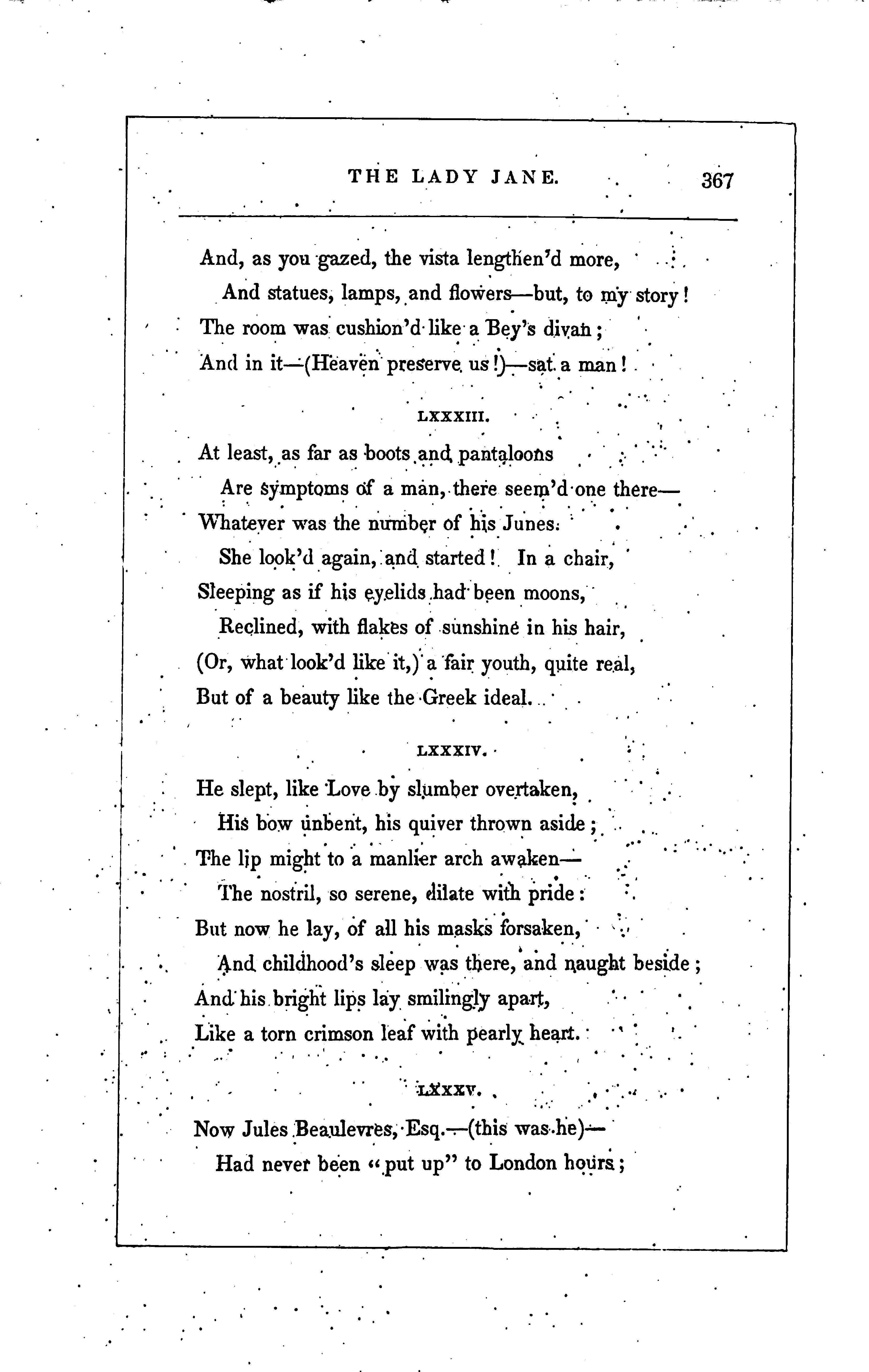

And thinking he was simply ask'd to tea, Had been, since seven, looking at the flowersNo doubt extremely pleasant,-but, you see,
A great deal of it rather overpowers ; And possibly, that very fine exotic He satjust under, was a slight narcotic.
LXXXVI.
At any rate, when it was all admired,-
As quite his notion of a heaven polite, (Minusthe angels,)-he felt very tired-
As one, who'd been all day sight-seeing, might!
And having bythe Countess.been desired
To make himself at home, he did so, quite.
He begg'd his early coming might not fetter her, And she went out to dine, the old- et cetera.
LXXXVII.
And thinking of his mother and his bill At Mivart's-and of all the sights amazing
Of which, the last few days, he'd had his fillAnd choking when he thought of fame-and gazing Upon his varnish'd boots, (as young men will,) And wondering how the shops could pay for glazing
And also, (here his thoughts were getting dim,)
Whether a certain smile was meant for him-
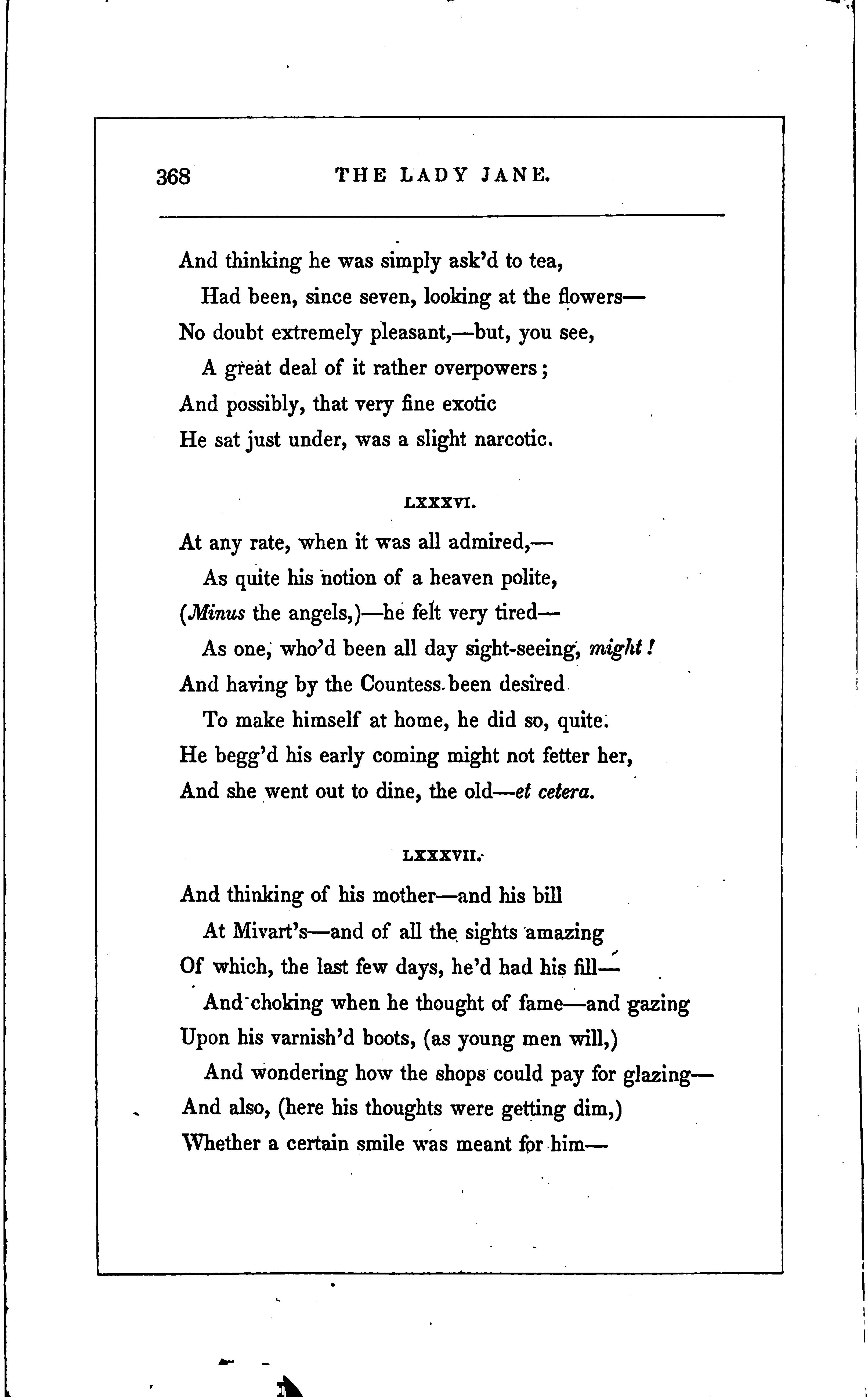

10 NO 1900 MUSE
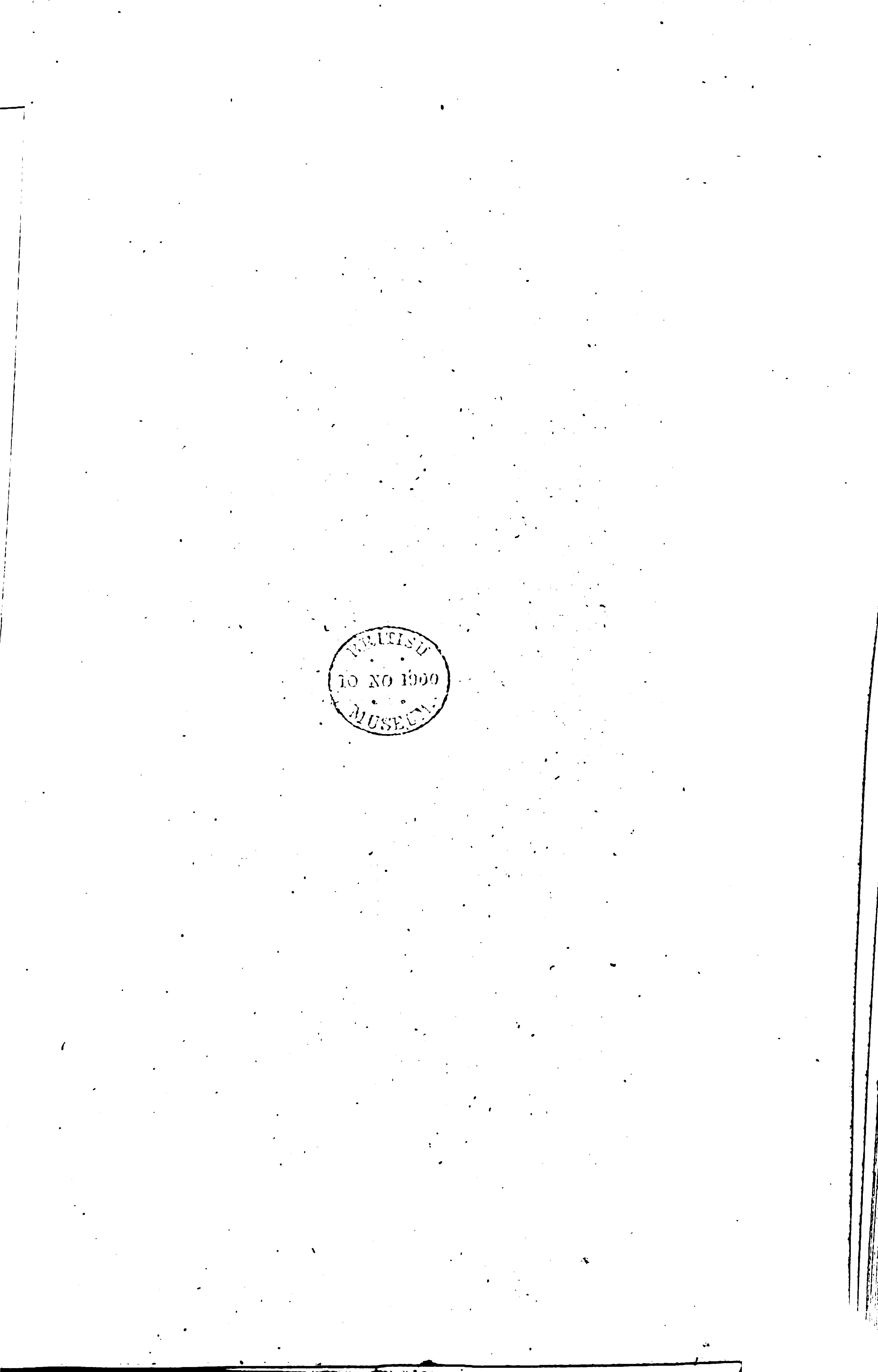

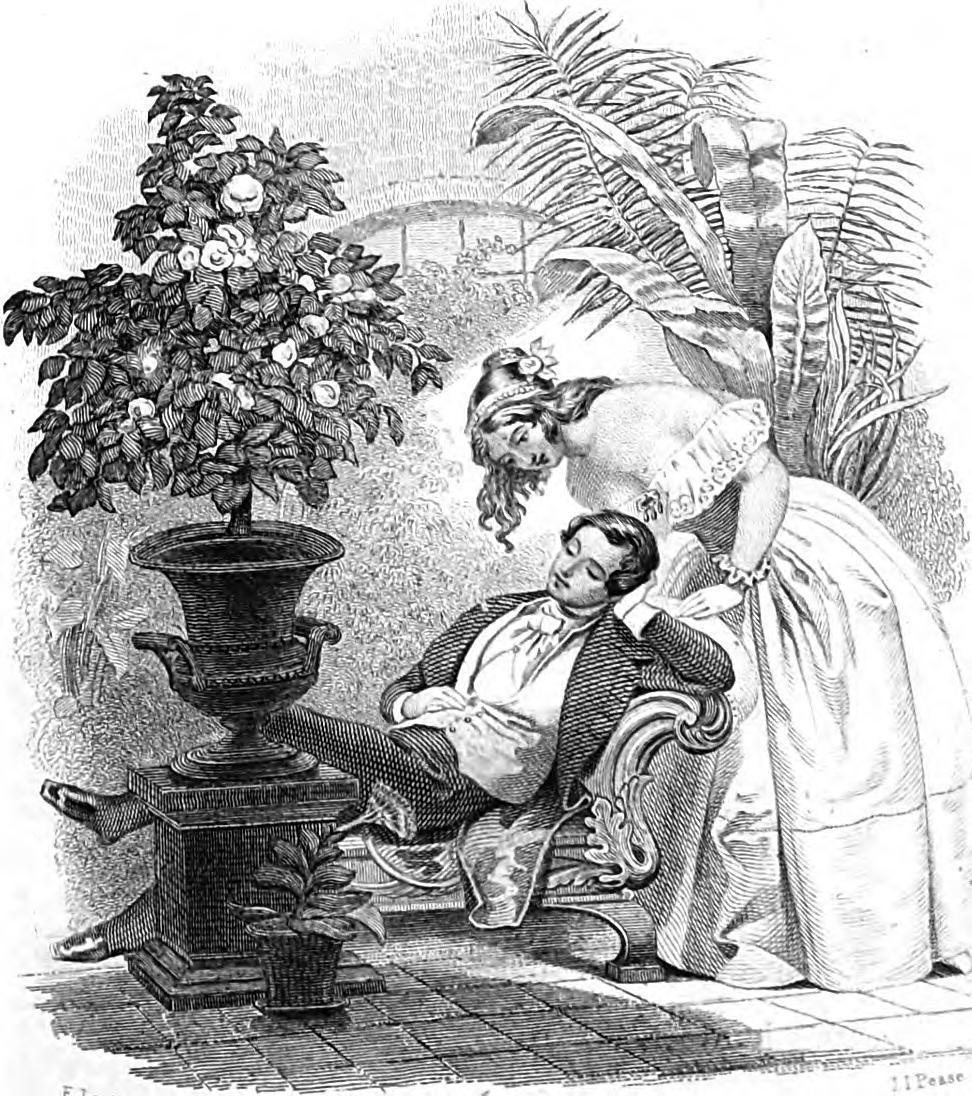
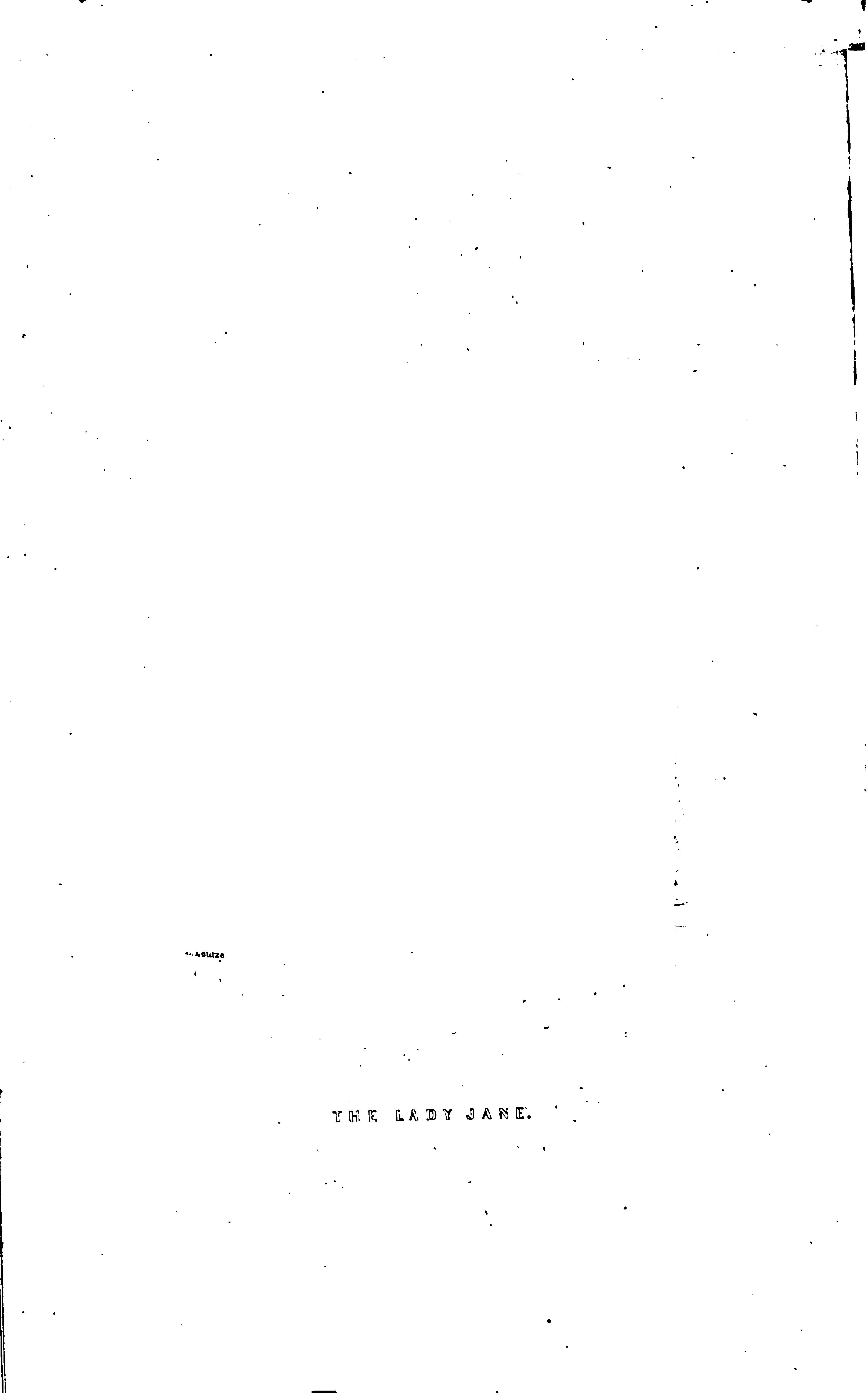
 F.Loutze
11Pease
F.Loutze
11Pease
The Ladyshet
mand inthelijed
And to his siden
Residless o
That, toR5
Andbeaking, op brightin
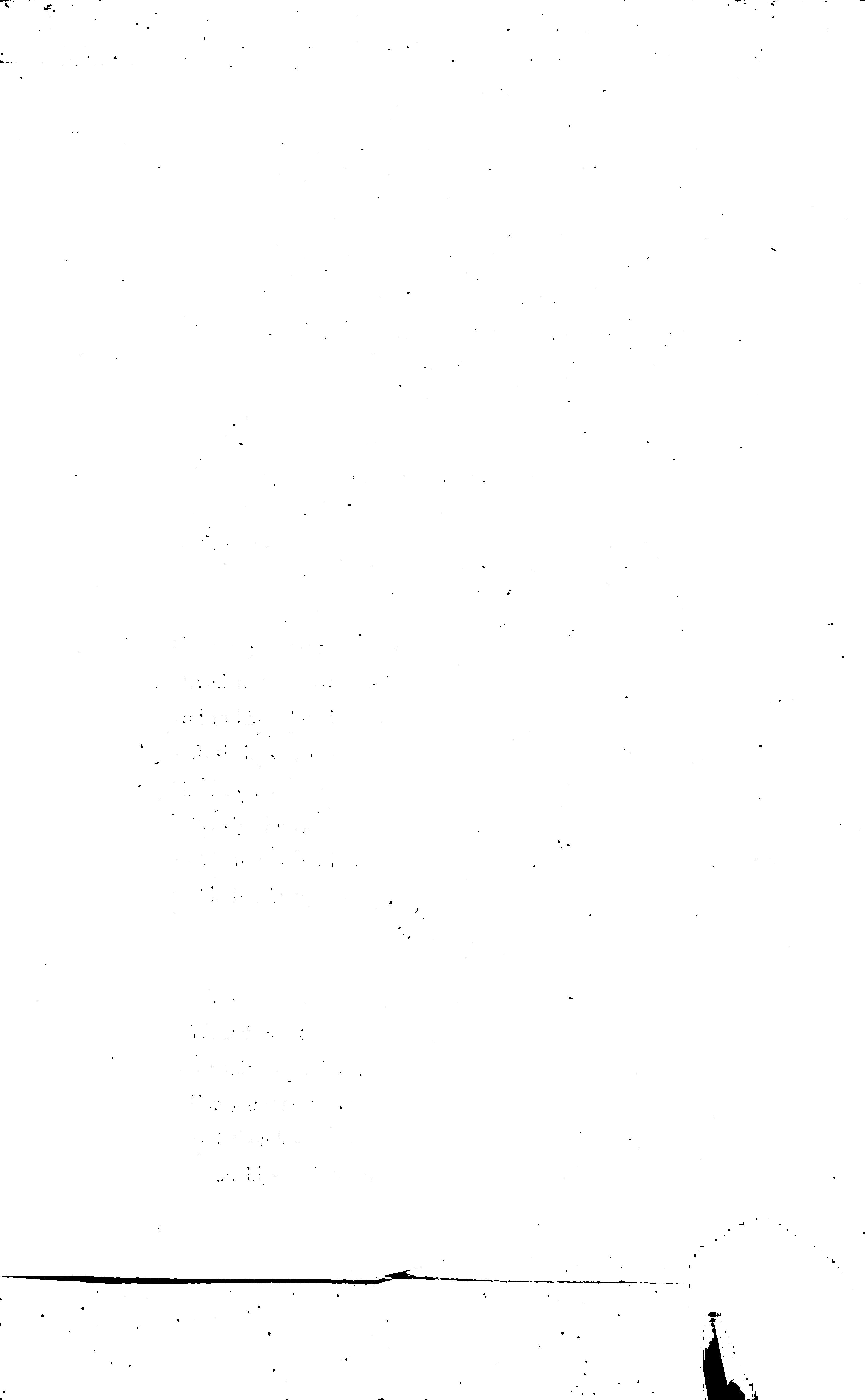
Whathustil t
What thirsting of For somethi low fathomlessall
Whatkiss th

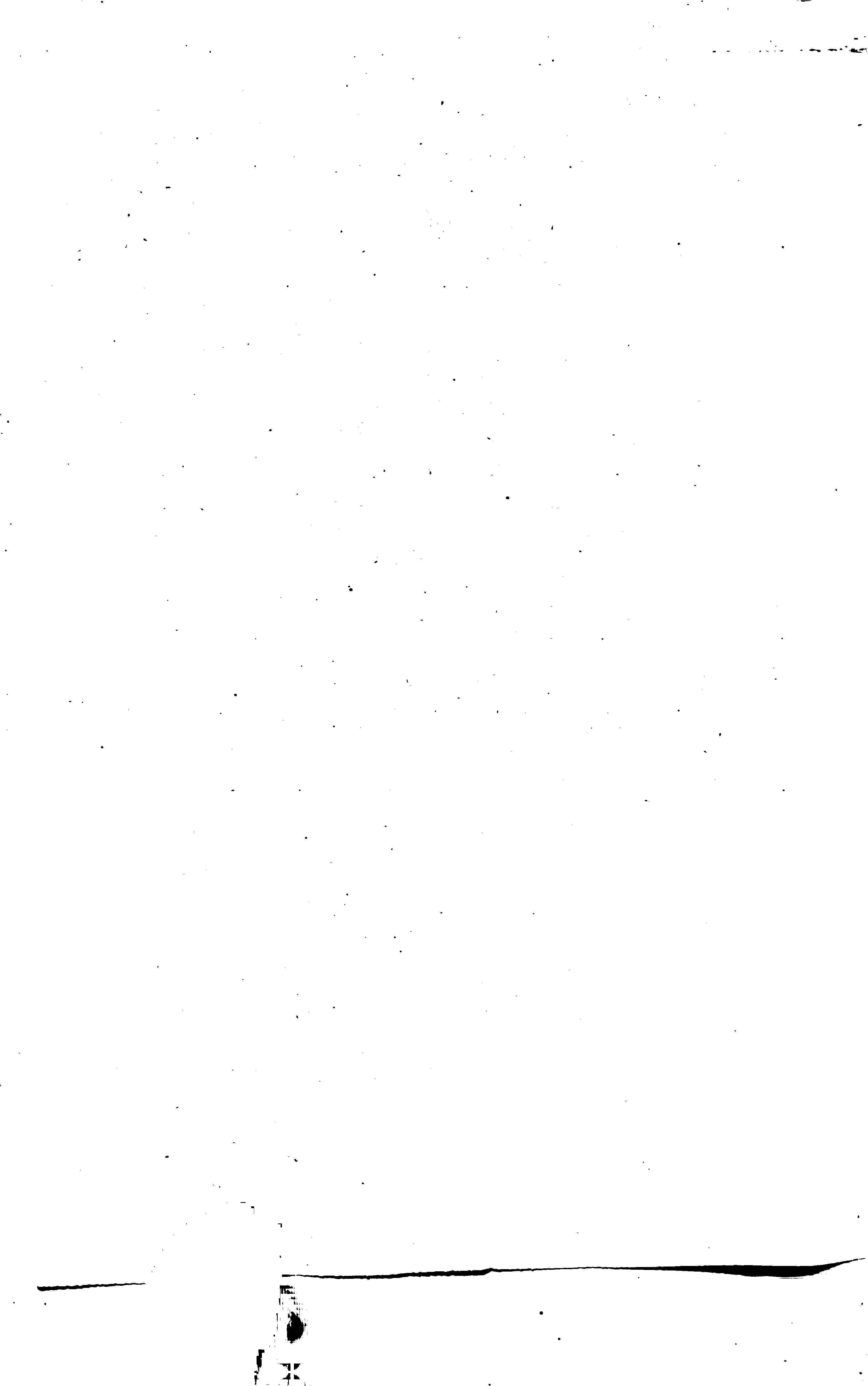

LXXXVIII.
And murmuring over, with a drowsy.bow, The speech he made the Countess, when he met her, And smiling, with closed eyelids, (thinking how He should describe her in the morrow's letter) And sighing " Good-night !" (he was dreaming now)-
:Jules dropp'd into a world he liked much better ; But left his earthly mansion unprotected : Well, sir 'twas robb'd-as might have been expected !
LXXXIX.
The Lady Jane gazed onthe fair boy sleeping, And in his lips' rare beauty read his name ; . And to his side with breathless wonder. creeping, Resistless to her heart the feeling came, That, to her yearning love's devoted keeping, Was given the gem within that fragile frame. And bending, with almost a mother's bliss, To his bright lips, she seal'd it with a kiss!
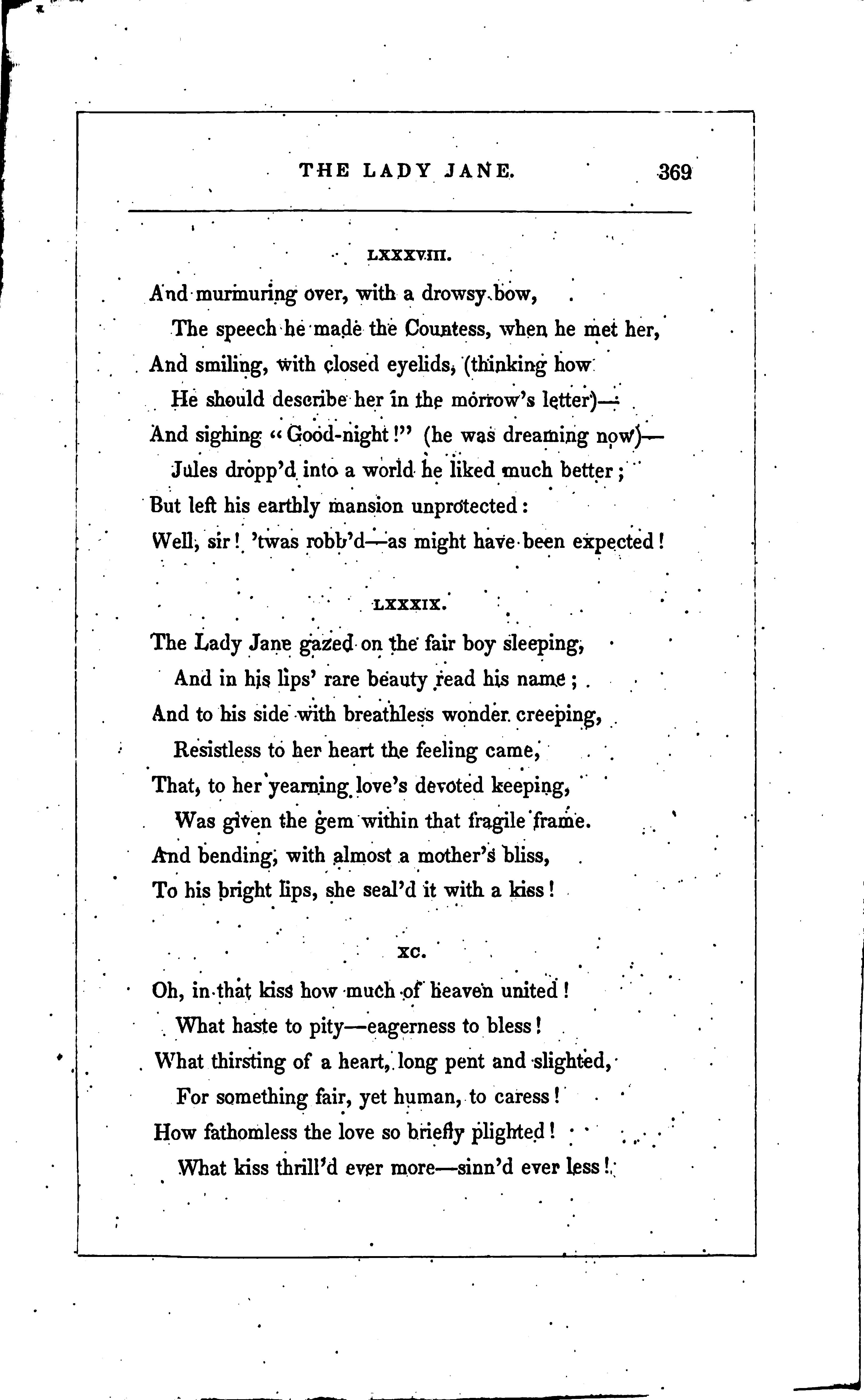
Oh, in that kiss how much of heaven united! What haste to pity-eagerness to bless!
What thirsting of a heart, long pent and slighted, For something fair, yet human, to caress ! How fathomless the love so briefly plighted ! · What kiss thrill'd ever more-sinn'd ever less!

So love the angels, sent with holy mercies! And so love poets in their early verses !
XCI.
If, in well-bred society, (" hear ! hear!")
If, inthis wrong and pleasant" world of ours, There beats a pulse that seraphs may revereIf Eden's birds, when frighted from its flowers, Clung to one deathless seed, still blooming here
If Time cut ever down, mid blighted hours, A bliss that will spring up in bliss again 'Tis woman's love. This I believe. Amen!
XCII.
To guard from ill, to help, watch over, warn
To learn, for his sake, sadness, patience, pain To seek him with most love when most forlornPromised the mute kiss of the Lady Jane. And thus, in sinless purity is born, Alway, the love of woman. So, again, I say, that up to kissing-later evenAwoman's love may take its fire from heaven.
XCIII.
Jules open'd (at the kiss) his large blue eyes, And calmly gazed upon the face above him, But never stirr'd, and utter'd no surpriseAlthough his situation well might move him.


He seem'd so cool, (my lyre shall tell no lies,)
That Lady Jane half thought she shouldn't love him; When suddenly the Countess Pasibleu Enter'd the room with " Dear me ; how d'ye do?"
XCIV.
Up sprang the boy-amazement on his brow!
But the next instant, through his lips there crept
Ajust awakening smile, and, with a bow, Calmly he said: 'Twas only while I slept The angels did not vanish-until now.
A speech, I think, quite worthy an adept. The Countess stared, and Lady Jane began To fear that she had kiss'd a nice young man.
XCV.
Jules had that precious quality call'd tact ; And having made a very warm beginning, He suddenly grew grave, and rather back'd, As if incapable of further sinning. 'Twas well he did so, for, it is a fact, The ladies like, themselves, to do the winning. In female Shakspeares, Desdemonas shine ; And the Othellos " seriously incline."
XCVI.
So, with a manner quite reserved and plain, Jules ask'd to be presented, and then made
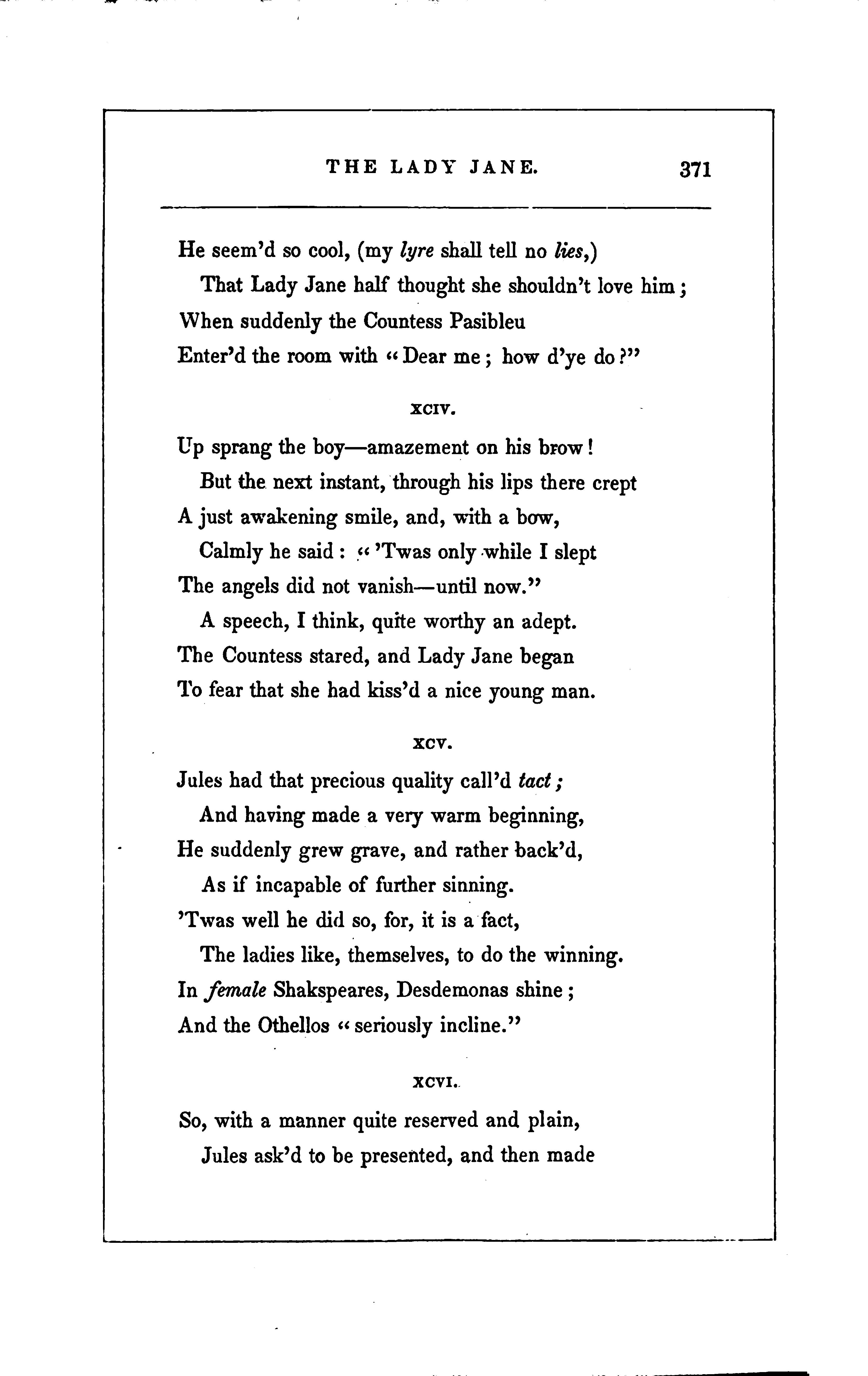

Many apologies to Lady Jane
Forthe eccentric part that he had play'd. Regretted he had slept-confess'd with pain He tookher for an angel-was afraid He had been rude-abrupt did he alarm Her much ? and might he offer her his arm ?
'XCVII.**
And as they ranged that sweet conservatory, He heeded not the flowers he walk'd among But such an air of earnest listening wore he, That a dumb statue must have found a tongue ; And like a child that hears a fairy story, His parted lips upon her utterance hung. He seem'd to know by instinct, (else how was it ?) That people love the bank where.they deposit.
XCVIII.
And closer, as the moments faster wore, The slender arm within her own she press'd ; And yielding to the magic spell he boreThe earnest truth upon his lips impress'd She lavishly told out the golden ore
Hoarded a life-time in her guarded breast.
And Jules, throughout, was beautifully tenderAlthough he did not always comprehend her.
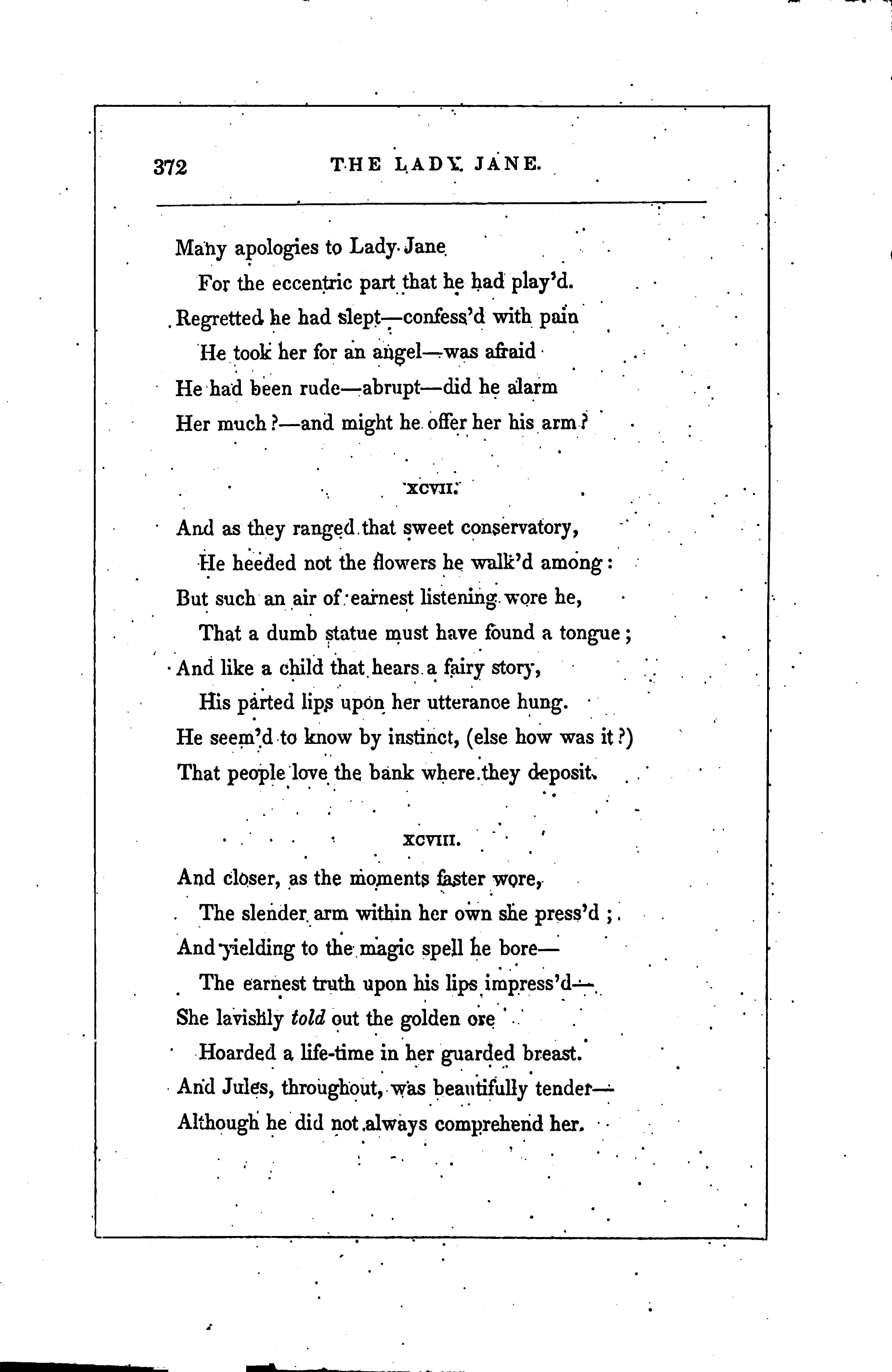

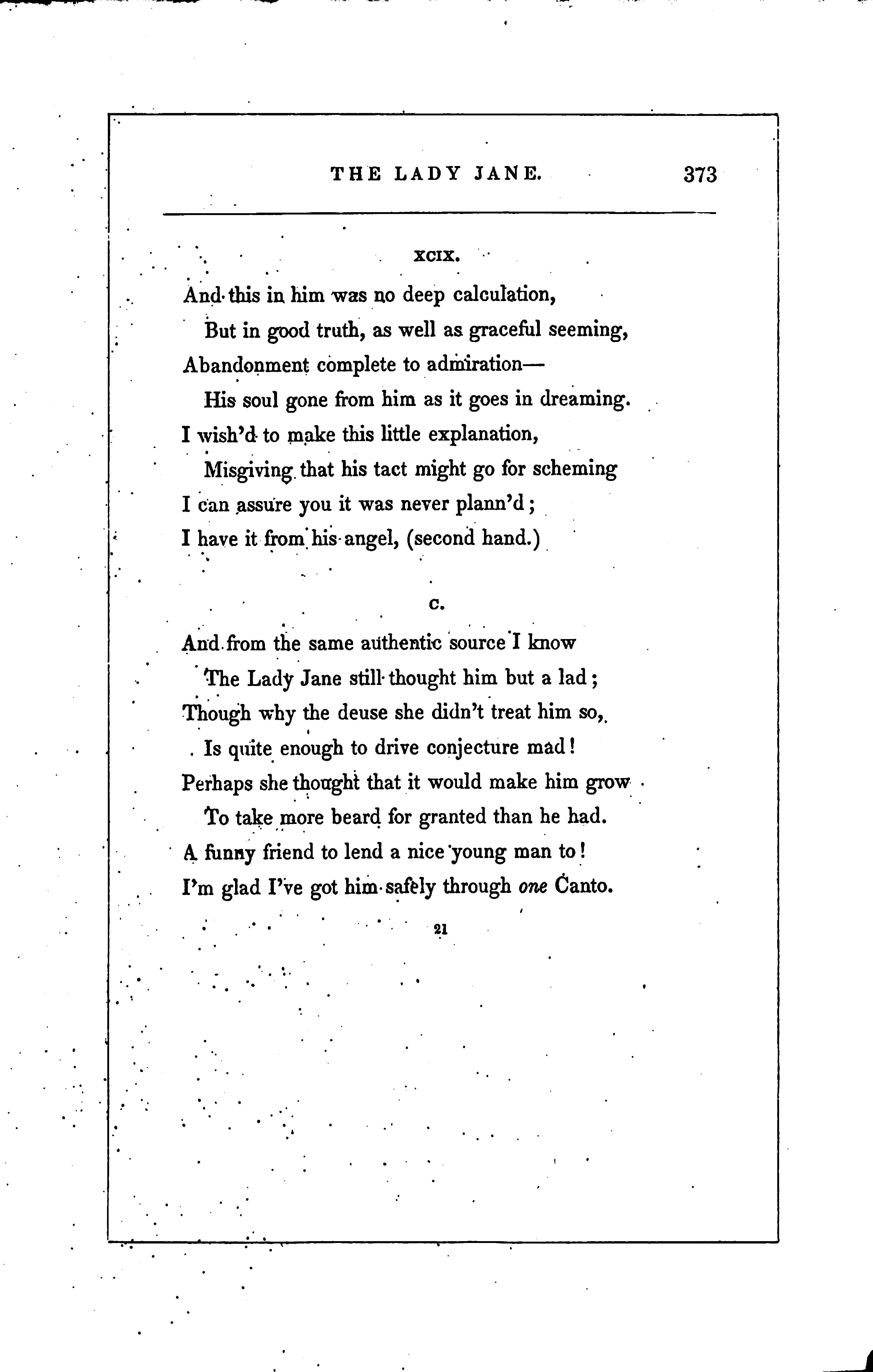
And this in him was no deep calculation, But in good truth, as well as graceful seeming, Abandonment complete to admirationHis soul gone from him as it goes in dreaming. I wish'd to make this little explanation, Misgiving that his tact might go for scheming I can assure you it was never plann d ; I have it from his angel, (second hand.)
And from the same authentic source I know
The Lady Jane still thought him but a lad ; Though why the deuse she didn't treat him so,. Is quite enough to drive conjecture mad ! Perhaps shethought that it would make him grow To take more beard for granted than he had.
A funny friend to lend a nice young man to!
I'm glad I've got him safely through one anto.

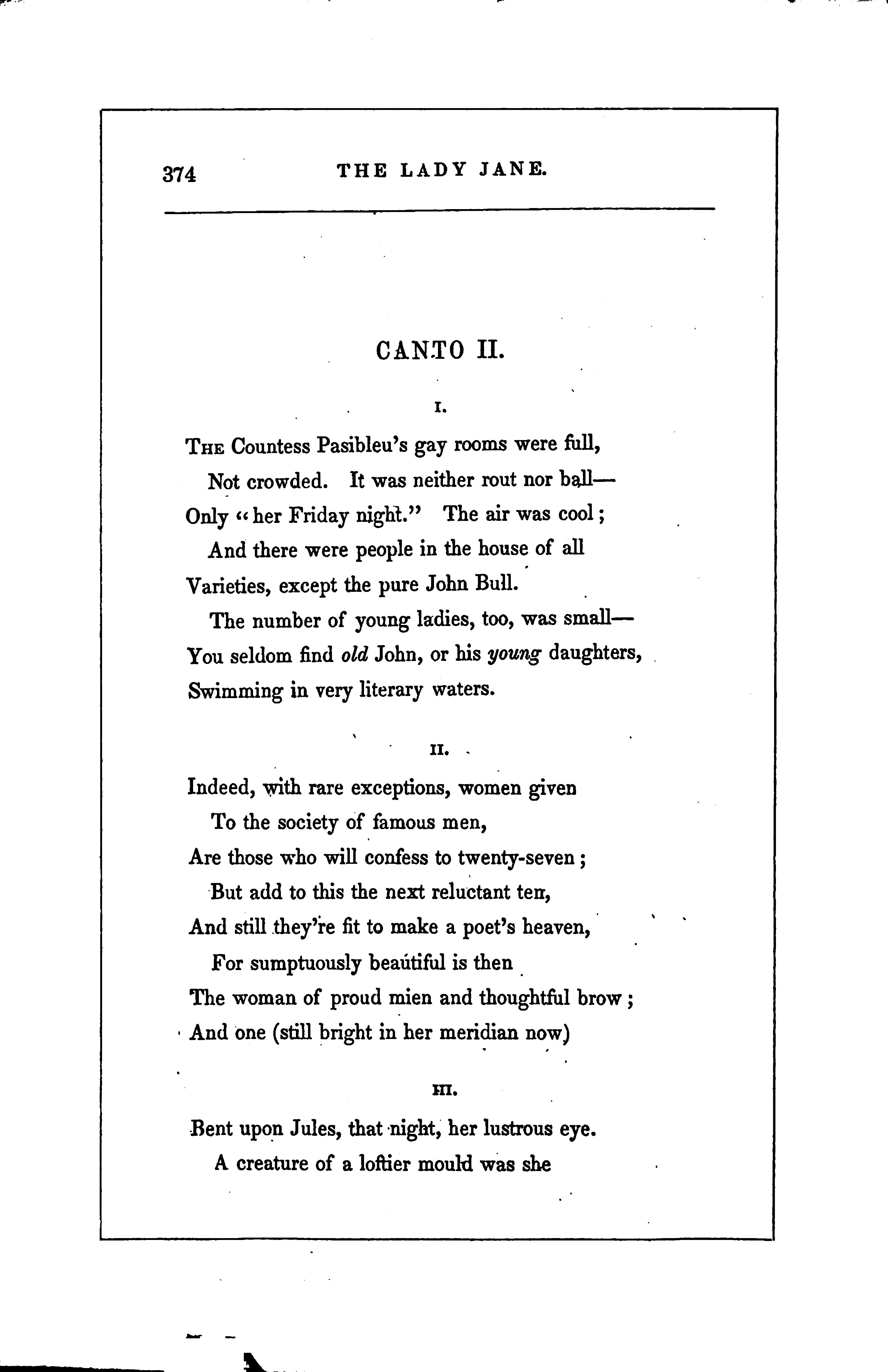
THE Countess Pasibleu's gay rooms were full, Not crowded. It was neither rout nor ballOnly " her Friday night." The air was cool ; And there were people in the house of all Varieties, except the pure John Bull. The number of young ladies, too, was smallYou seldom find old John, or his young daughters, Swimming in very literary waters.
Indeed, with rare exceptions, women given To the society of famous men, Are those who will confess to twenty-seven; But add to this the next reluctant ten, And still they're fit to make a poet's heaven, For sumptuously beautiful is then The woman of proud mien and thoughtful brow; And one (still bright in her meridian now)
Bent upon Jules, that night, her lustrous eye. A creature of a loftier mould was she

Than in his dreams had ever glided by;
And through his veins the blood flew startlingly, And he felt sick at heart-he knew not whyFor 'tis the sadness of the lost to see Angels look on us with a cold regard, (Not knowing those who never left their card.)
She had a low, sweet brow, with fringed lakes Of an unfathom'd darkness couch'd below; And parted on that brow in jetty flakes The raven hair swept back with wavy flow, Rounding a head of such a shape as makes The old Greek marble with the goddess glow. Her nostril's breathing arch might threaten storm But love lay in her lips, all hush'd and warm.
And small teeth, glittering white, and cheek whose red Seem'd Passion, there asleep, in rosy nest : And neck set on as if to bear a headMay be a lily, may be Juno's crest, So lightly sprang it from its snow-white bed ! So proudly rode above the swelling breast! And motion, effortless as stars awaking And melting out, at eve, and morning's breaking;.
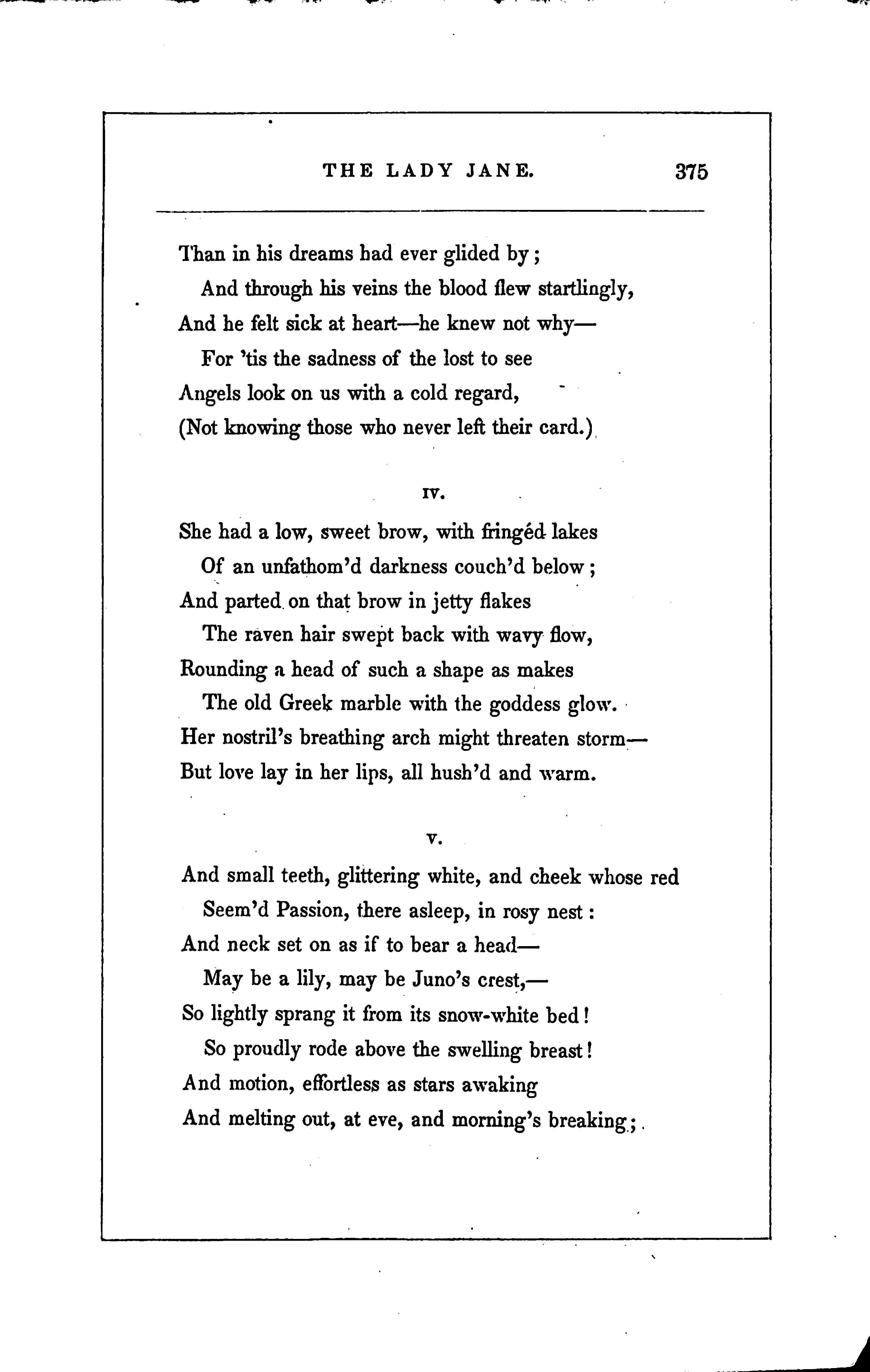

VI.
And voice delicious quite, and smile that came Slow to the lips, as 'twere the heart smiled through :These charms I've been particular to name, For they are, like an inventory, true, And of themselves were stuff enough for fame ; But she, so wondrous fair, has genius too, And brilliantly her thread of life is spunIn verse and beauty both, the « Undying One!"
VII.
And song-for in those kindling lips there lay Music to wing all utterance outward breaking, As if upon the ivory teeth did play Angels, who caught the words at their awaking, And sped them with sweet melodies away-The hearts of those who listen'd with themtaking.
Of proof to this last fact there's little lack ; And Jules, poor lad ! ne'er got his truant back!
VIII.
That heart stays with her still. "Tis one of two, (I should premise)all poets being double,' Living in two worlds as of course they do, Fancy and fact, and rarely taking trouble T' explain in which they're living, as to you! And this it is makes all the hubble-bubble,
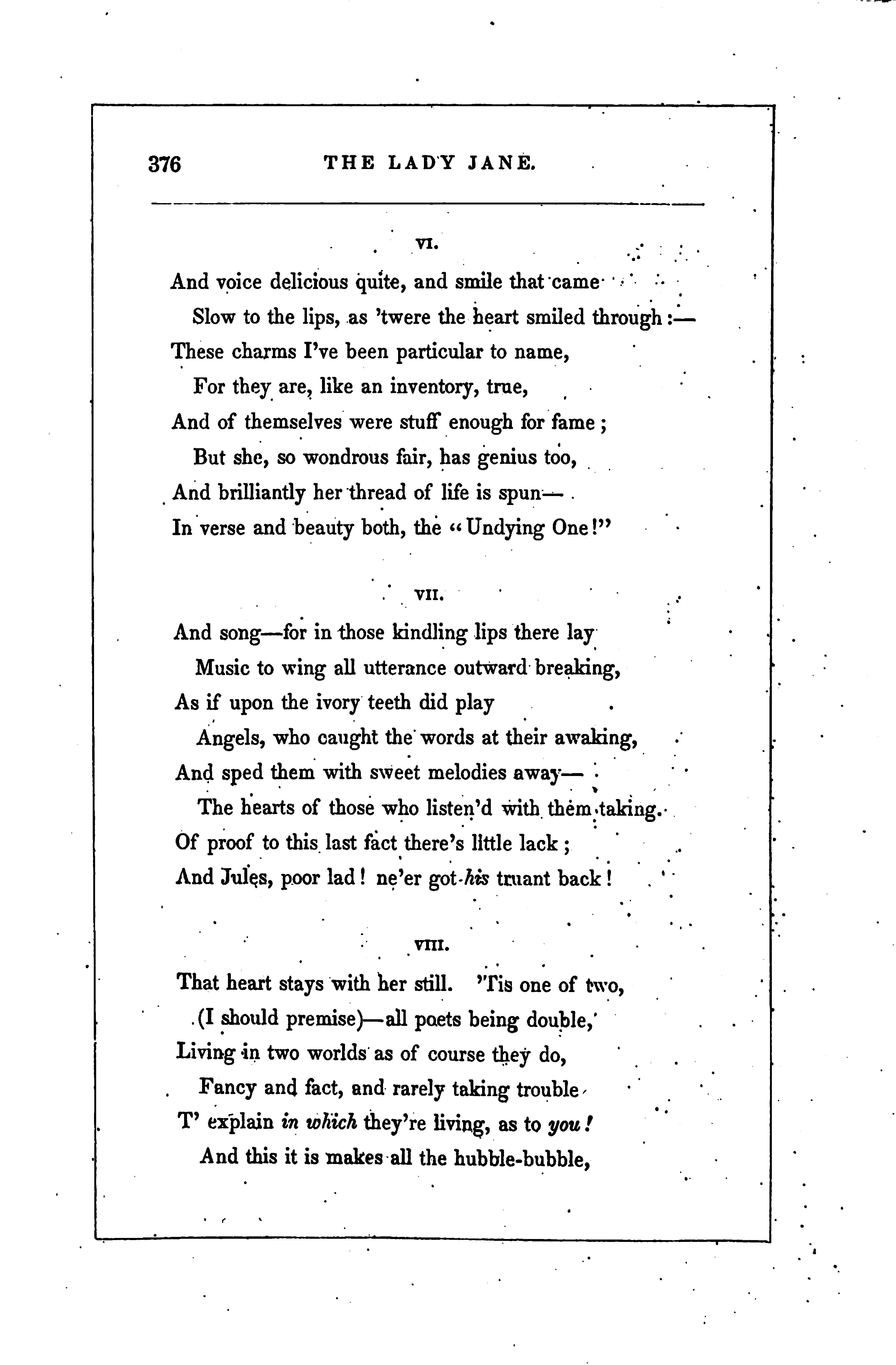

For who can fairly write a bard's biography, When, of hisfancy-world, there's no geography ! IX.
Jules was at perfect liberty infact
To love again, and still be true infancy; Else were this story at its closing act. Nay, he infact might wed, and in romance he Might find the qualities his sposa lack'd(A truth that I could easier make a man see,) And woman's great mistake, if I may tell it, is The calling such stray fancies "infidelities."
Byron was man and bard, and Lady B., In wishing to monopolize him wholly, Committed bigamy, you plainly see. She, being very single, Guiccioli
Took off the odd one of the wedded threeA change, 'twould seem, quite natural and holy. The after sin, which still his fame environs, Was giving Guiccioli both the Byrons.
The stern wife drove him from her. Had she loved With all the woman's tenderness the while, He had not been the wanderer he proved.
Like bird to sunshine fled he to a smile ; 212
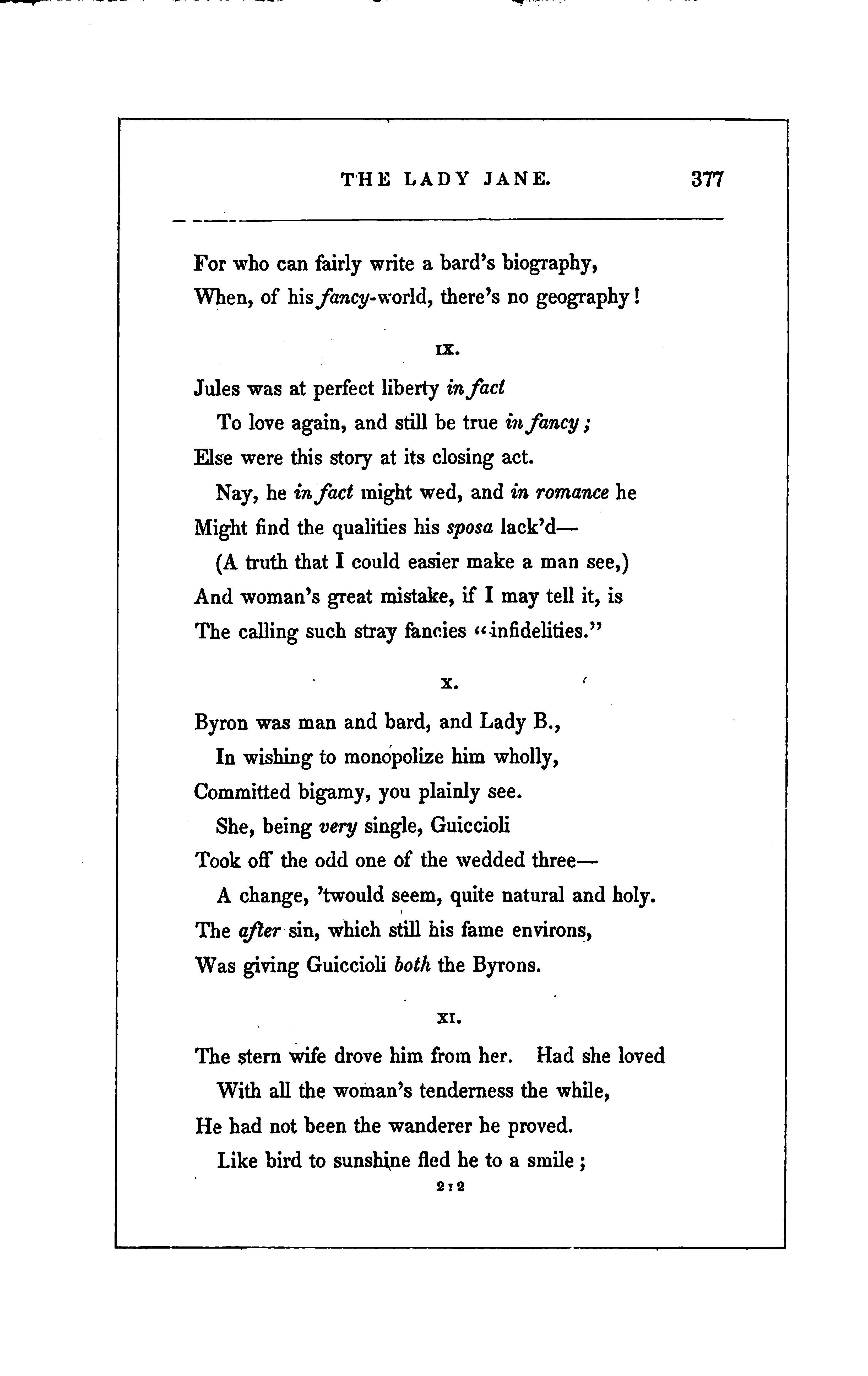

And, lightly though the changeful fancy roved, The heart speeds home with far more light a wile. The world well tried-the sweetest thing in life Is the unclouded welcome of a wife.
XII.
To poets more than all for truthful love
Has, to their finér sense, a deeper sweetness; Yet she who has the venturous wish to prove The poet's love when nearest to completeness, Must wed the man and let thefancy rove Loose to the air that wing of eager fleetness, And smile it home when wearied out-with air. But if you scold him, Madam ! have a care !
XIII.
"
All this time the « Undying One" was singing. She ceased, and Jules felt every sound a pain While that sweet cadence in his ear was ringing ; So gliding from the arm of Lady Jane, Which rather seem'd to have the whim of clinging, He made himself a literary lanePunching and shoving every kind of writer Till he got out. (He might have been politer.)
XIV.
Free of the press," he wander'd through the rooms, Longing for.solitude, but studying faces ;
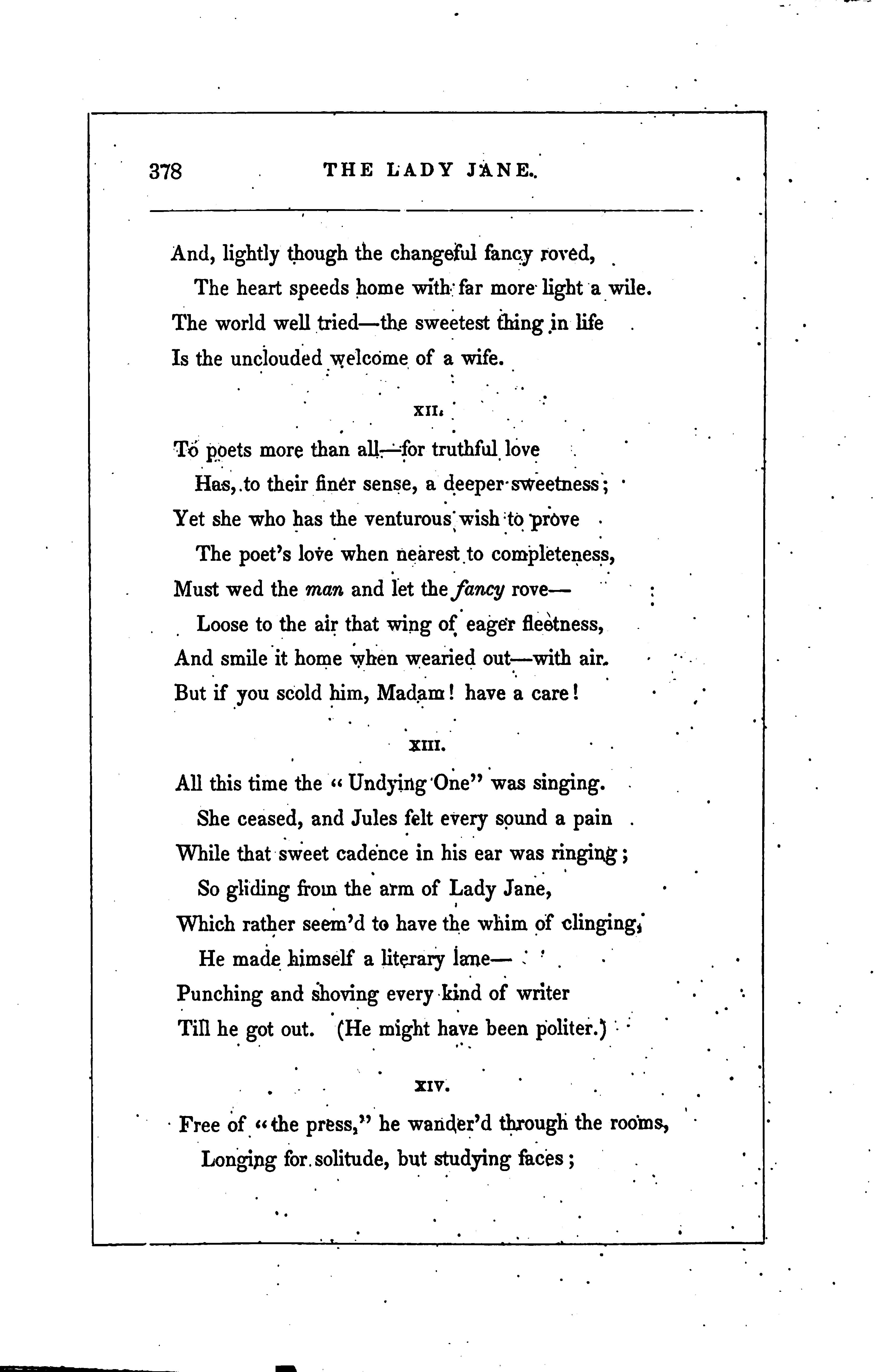

And, smitten with the ugliness of Brougham's, He mused upon the cross with monkey races(Hieroglyphick'd on th' Egyptian tombs
CC And shown in France with very striking traces.)
Rejected" Smith's he thought a head ' quite glorious ; And Hook, all button'd up, he took for « Boreas.
XV.
He noted Lady Stepney's pretty hand, And Barry Cornwall's sweet and serious eye ; And saw Moore get down from his chair to stand, While a most royal Duke went bowing bySaw Savage Landor, wanting soap and sand-
Saw Lady Chatterton take snuff and sigh-
Saw graceful Bulwer say " Good-night," and vanishHeard Crofton Croker's brogue, and thought it Spanish.
XVI.
He saw Smith whispering something very queer, And Hayward creep behind to overhear him ; Saw Lockhart whistling in a lady's ear, (Jules thought so, till, on getting very near him, The error-not the mouth-became quite clear ;) He saw the Duke" and had a mind to cheer him ; And fine Jane Porter with her cross and feather, And clever Babbage, with his face of leather,
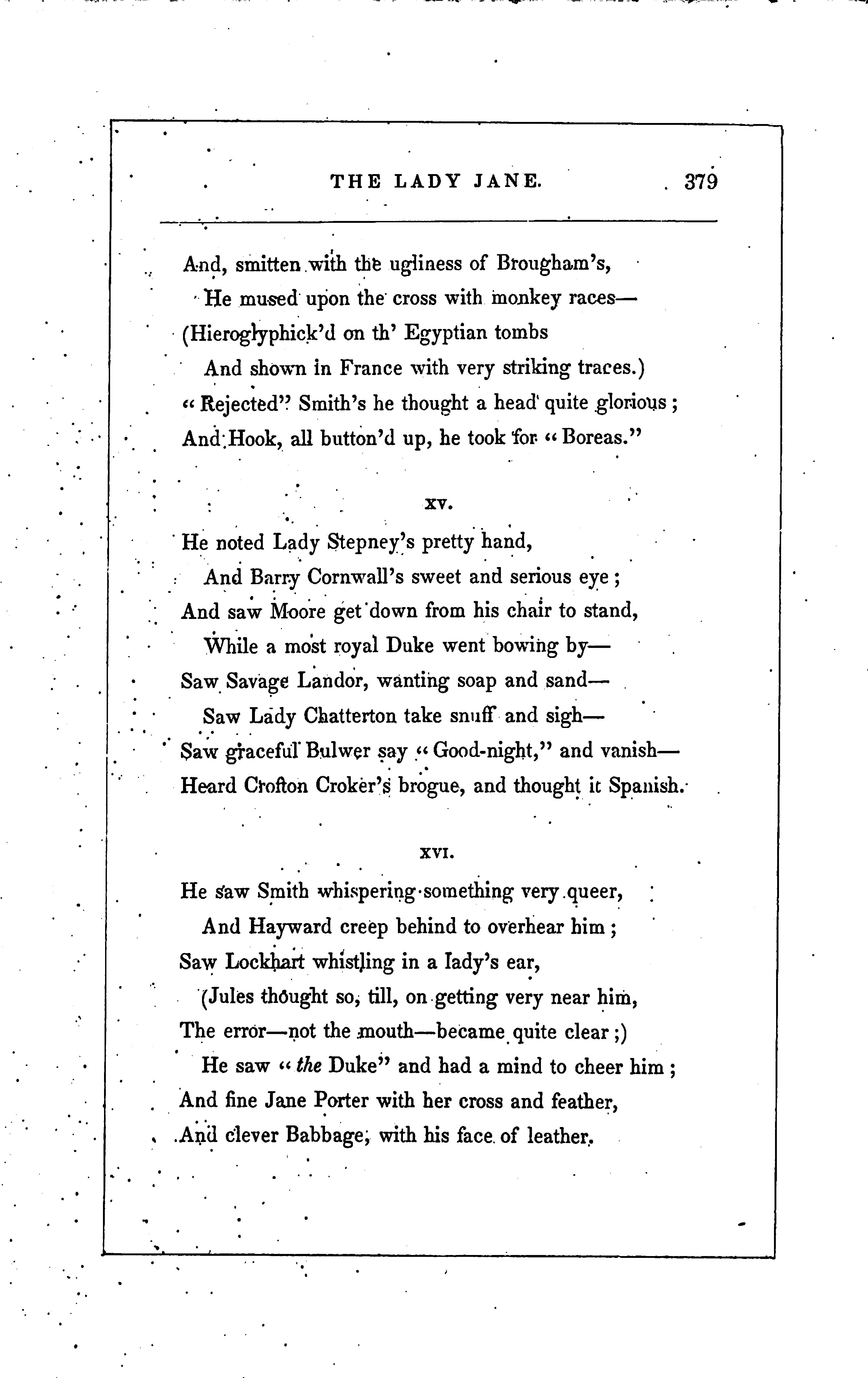

XVII.
And there was plump and saucy Mrs. Gore, And calm, old, lily-white Joanna Baillie, And frisky Bowring, London's wisest bore ; And there was " devilish handsome" D'Israeli ; And not a lion of all these did roar ; But laughing, flirting, gossiping so gayly,Poor Jules began to think 'twas only mockery To talk of porcelain" -'twas a world of crockery.
XVIII.
'Tis half a pity authors should be seen ! Jules thought so, and I think so too, with Jules. They'd better do the immortal with a screen, And show but mortal in a world of fools ; Men talk of taste" for thunder-but they mean Old Vulcan's apron and his dirty tools ; They flock all wonder to the Delphic shade, To know just how the oracle is made!
XIX.
What we should think of Bulwer's works without him, His wife, his coat, his curls, or other handle ; What of our Cooper, knowing naught about him, Save his enchanted quill and pilgrim's sandal ; What of old Lardner, (gracious ! how they flout him !)
Without this broad (and Heavy-) side of scandal ;
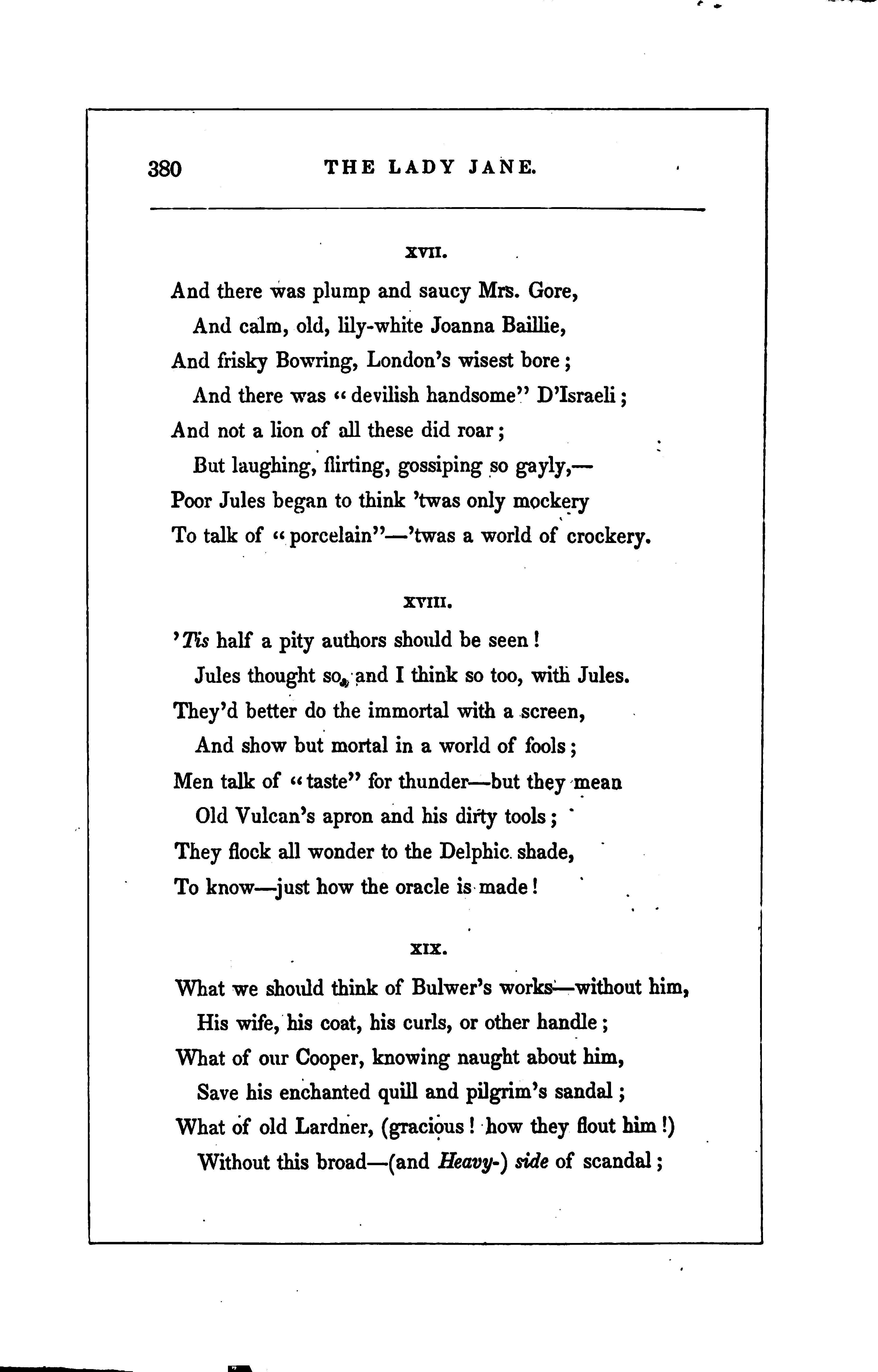

What of Will Shakspeare had he kept a Boz" Like Johnson-would be curious questions, coz! XX.
Jove is, no doubt, a gainer by his cloud, (Which ta'en away, might cause irreverent laughter,) But, out of sight, he thunders- ne'er so loud,And no one asks the god to dinner after ; And Fame's proud temple," build it ne'er so proud, Finds notoriety a useful rafter. And when you've been abused a while, you learn All blasts blow fair for you that blow astern ! XXI.
No "pro" without its " con " The pro is fame, Pure, cold, unslander'd, like a virgin's frill ; The con is beef and mutton, sometimes game, Madeira, Sherry, claret, what you will ; The ladies' (albums) striving for your name ; All, (save the woodcock,) yours without a bill ; And inthe gate," an unbelieving Jew, Your « Mordecai !"-Why, clearly con's your cue ! XXII.
I've reason'd" myself neatly "round the ring," While Jules came round to Lady Jane once more, .. And supper being but a heavy thing, (To lookers-on,) I'll show him to the door,
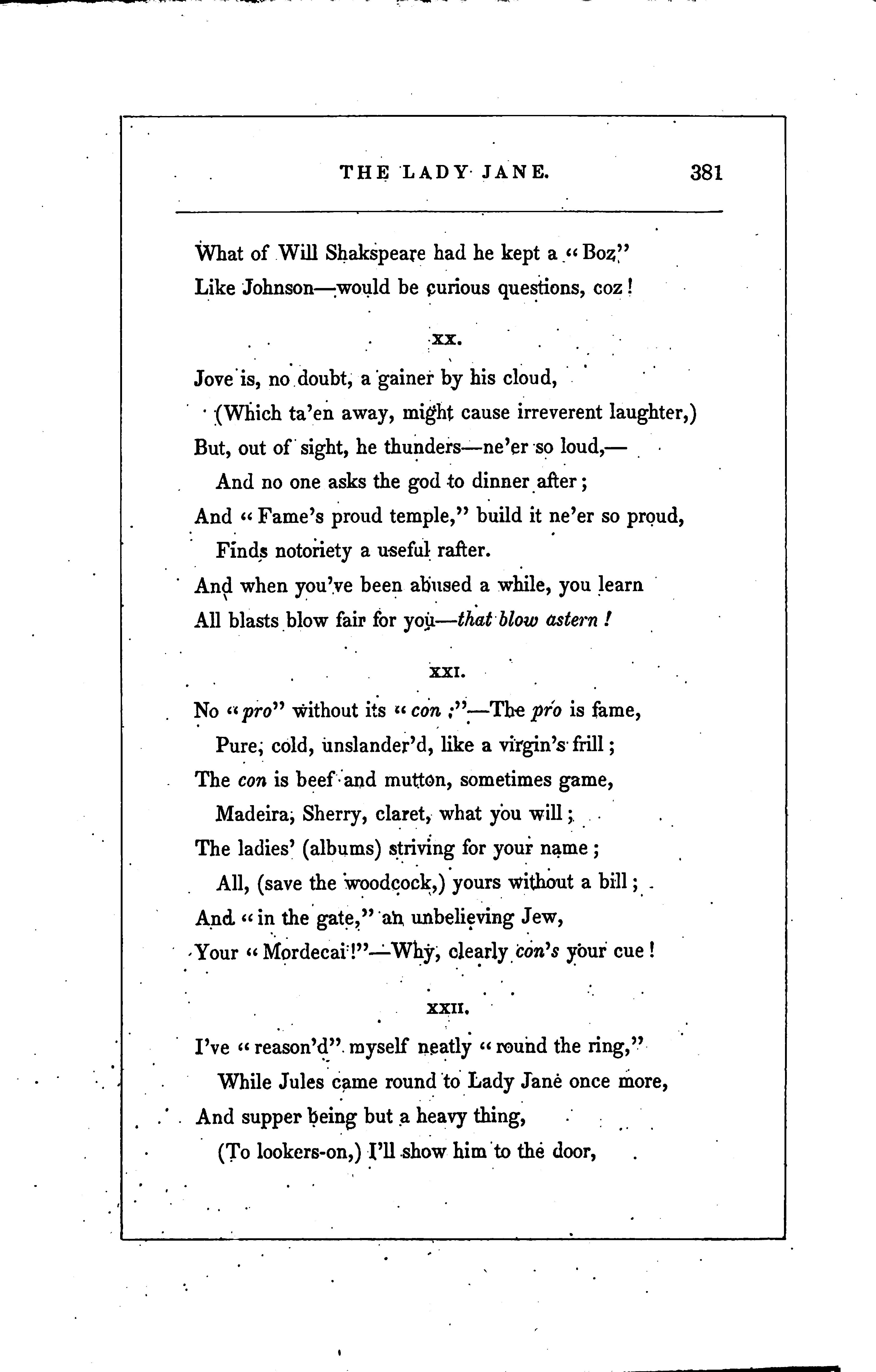

And his first night to a conclusion bring ; Not (with your kind permission, sir !) before I tell you what her Ladyship said to him As home to Brook-street her swift horses drew him.
XXIII.
"You're comfortably lodged, I trust," she said : " And Mrs. Mivart-is she like a mother? Have you mosquito curtains to your bed ? Do you sleep well without your little brother? What do you eat for breakfast-baker's bread? I'll send you some home-made, if you would rather. What do you do to-morrow ? say at five, Or four-say four-I call for you to drive?
XXIV.
There'sthe New Garden, and the ColiseumPerhaps you don't care much for Panoramas?
But there's an armadillo-you must see him! And those big-eyed giraffes and heavenly lamas! And are you fond of music?-the Te Deum Is beautifully play'd by Lascaramhas,
At the new Spanish chapel. This damp air! And you've no hat on !-let me feel your hair!
XXV.
"Poor boy!"-but Jules's head was on her breast, Rock'd like a nautilus in calm mid ocean ;
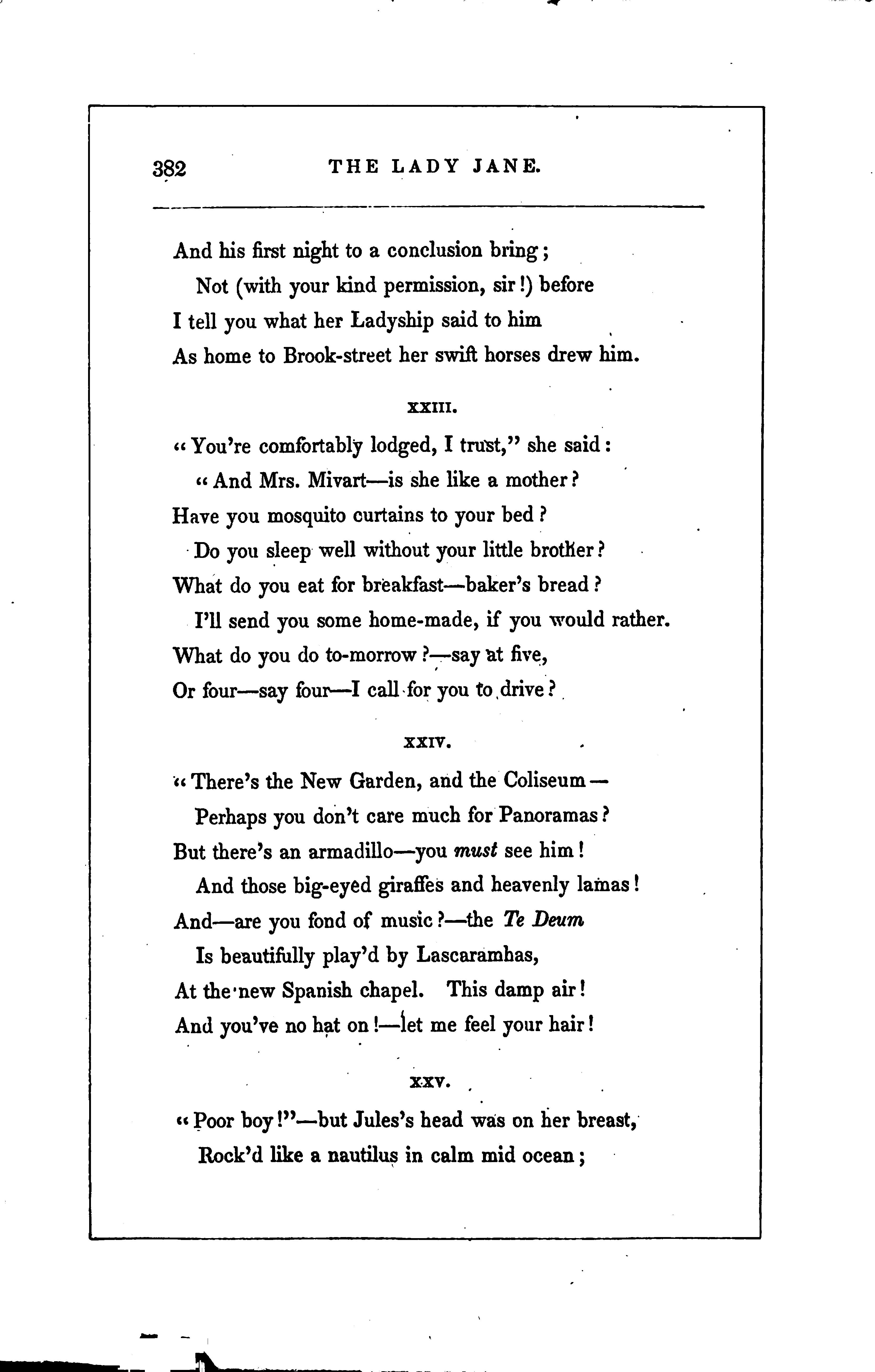

And while its curls within her hands she press'd, The Lady Jane experienced some emotion : For, did he sleep? or wish'd to be caress'd?
What meant the child ? she'd not the slightest notion ! Arrived at home, he rose, without a shakeTrembling and slightly flush'd-but wide awake.
XXVI.
Loose rein! put spur ! and follow, gentle reader! For I must take a flying leap in rhyme; And be to you both Jupiter and leader, Annihilating space, (we all kill time,) And overtaking Jules in Rome, where he'd a Delight or two, besides the pleasant clime. The Lady Jane and he, (I scorn your cavilsThe Earl was with them, sir ). were on their travels.
XXVII.
You know, perhaps, the winds are no narcotic, As swallow'd 'twixt the Thames and Frith of Forth
And Jules had proved a rather frail exoticToo delicate to winter so far north ; The Earl was breaking, and half idiotic, And Lady Jane's condition little worth ; So, through celestial Paris, (speaking victual-ly,) They sought the sunnier clime of ill-fed Italy.
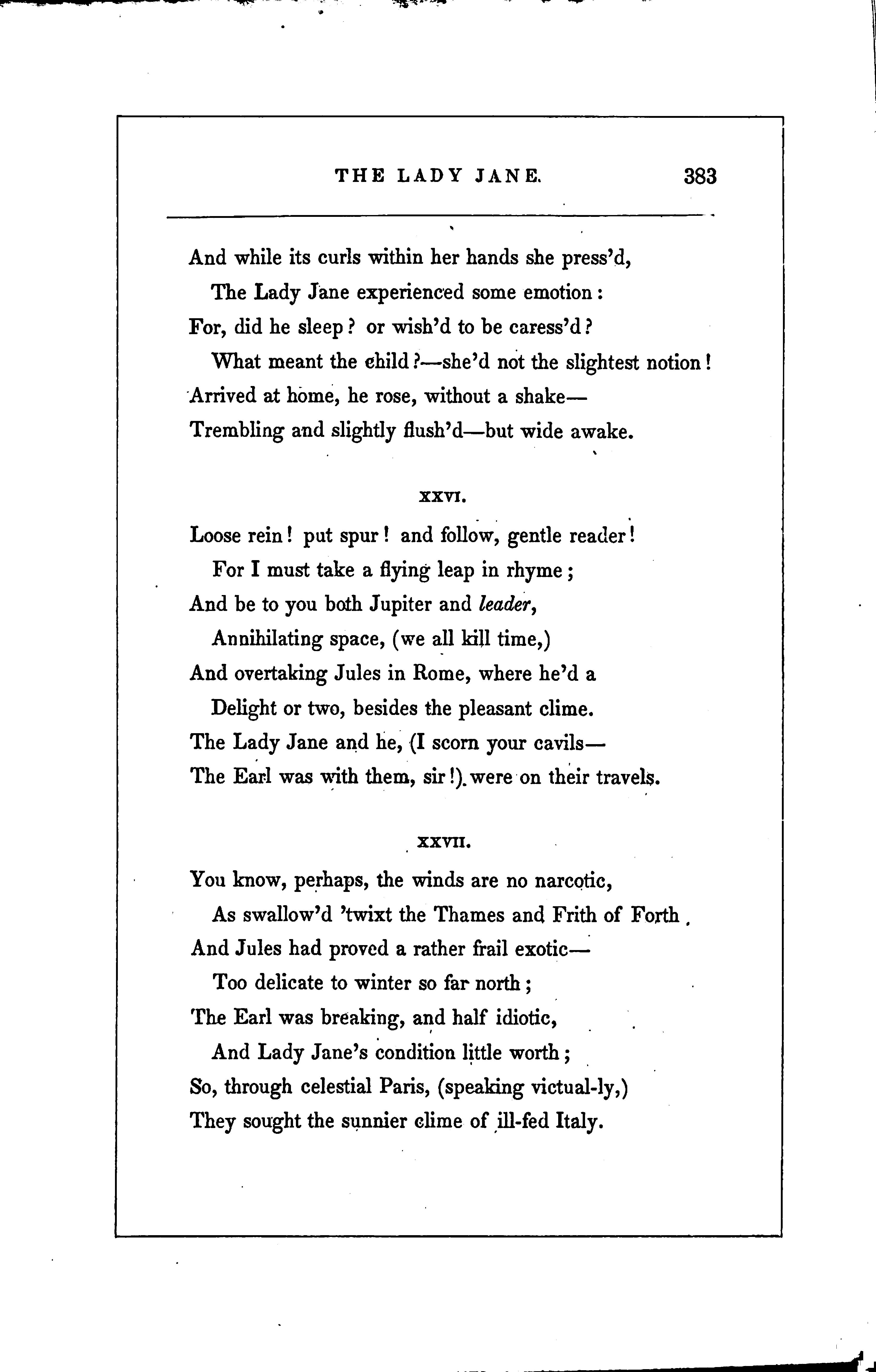

XXVIII.
Oh Italy!-but no-I'll tell its faults !
It has them, though the blood so «nimbly capers"
Beneath those morning heavens and starry vaults, That we forget big rooms and little tapersForget how drowsily the Romans waltz-
Forget they've neither shops nor morning papers-
Forget how dully sits, mid ancient glory, This rich man's heaven-this poor man's purgatory!
XXIX.
Fashionthe world as one bad man would have it, he
Would silence Harry's tongue, and Tom's, and Dick's; And doubtless it is pleasing to depravity
To know a land where people are but sticks-
Where you've no need of fair words, flattery, suavity, But spend your money, if you like, with kicksWhere they pass by their own proud, poor nobility,
To welcome golden " Snooks" with base servility.
XXX:
Jules was not in the poor man's categorySo Rome's condition never spoil'd his supper.
The deuse (for him) might take the Curtian glory
Of riding with a nation on his crupper. He lived upon a Marquis's first storyThe venerable Marquis in the upper-
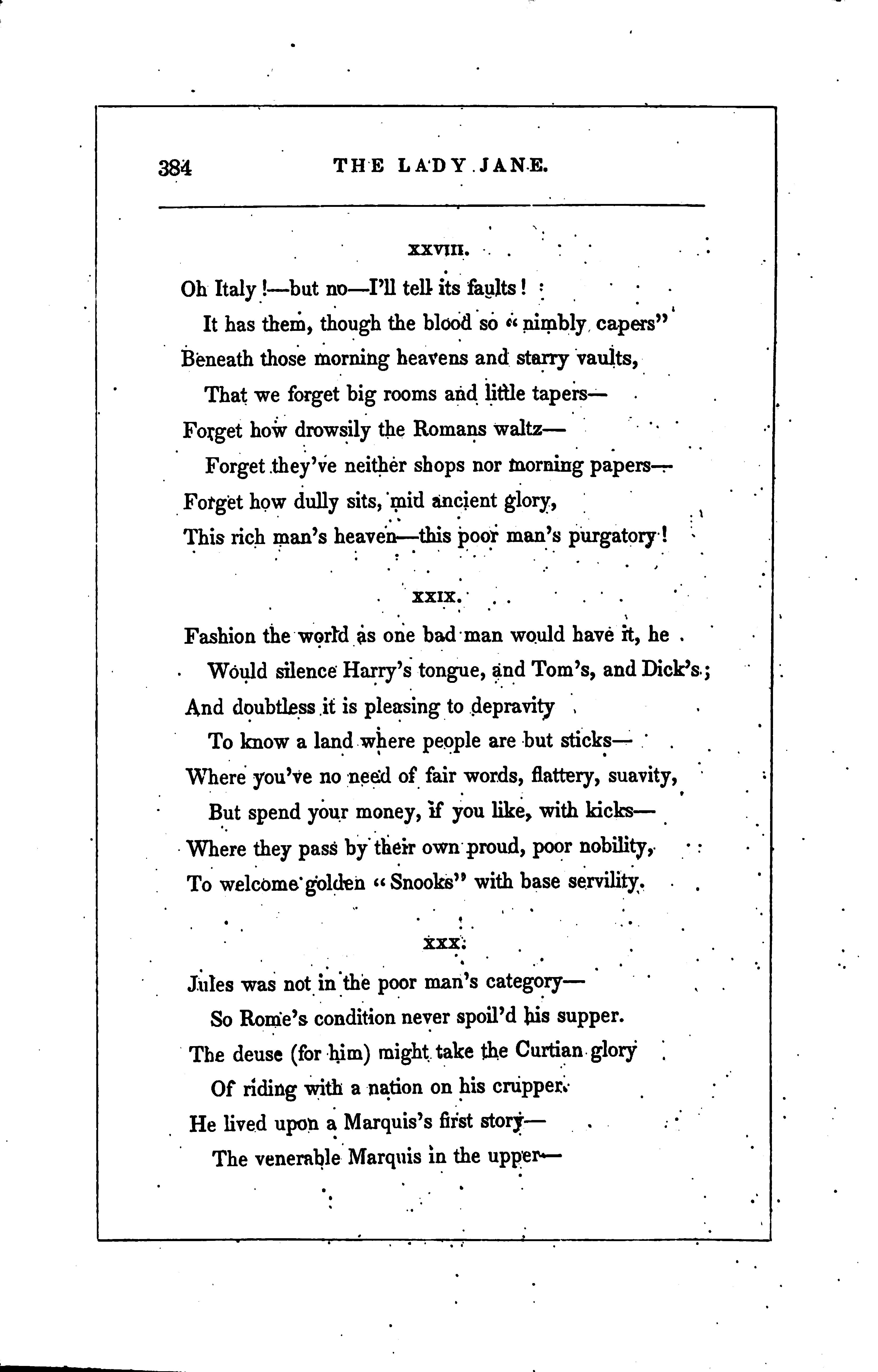

And found it pass'd the time, (and so would you,)
To do some things at Rome that Romans do.
XXXI.
The Marquis upon whom he chanced to quarter, (He took his lodgings separate from the Earl,)
The Marquis had a friend, who had a daughterThe friend a noble like himself, the girl
A diamond of the very purest water; (Or purest milk, if you prefer a pearl ;)
And these two friends, though poor, were hand and glove, And ofa pride their fortunes much above.
XXXII.
The Marquis had not much besides his palace, The Count, beyond his daughter, simply naught ; And, one day, died this very Count Pascalis, . Leaving his friend his daughter, as he ought ; And though the Fates had done the thing in malice, The old man took her, without second thought, And married her. " She's freer thus," he said, " And will be young to marry when I'm dead."
XXXIII.
Meantime, she had a title, house, and carriage, And, far from wearing chains, had newly burst 'em For, as of course you know, before their marriage
Girls are sad prisoners by Italian custom2K
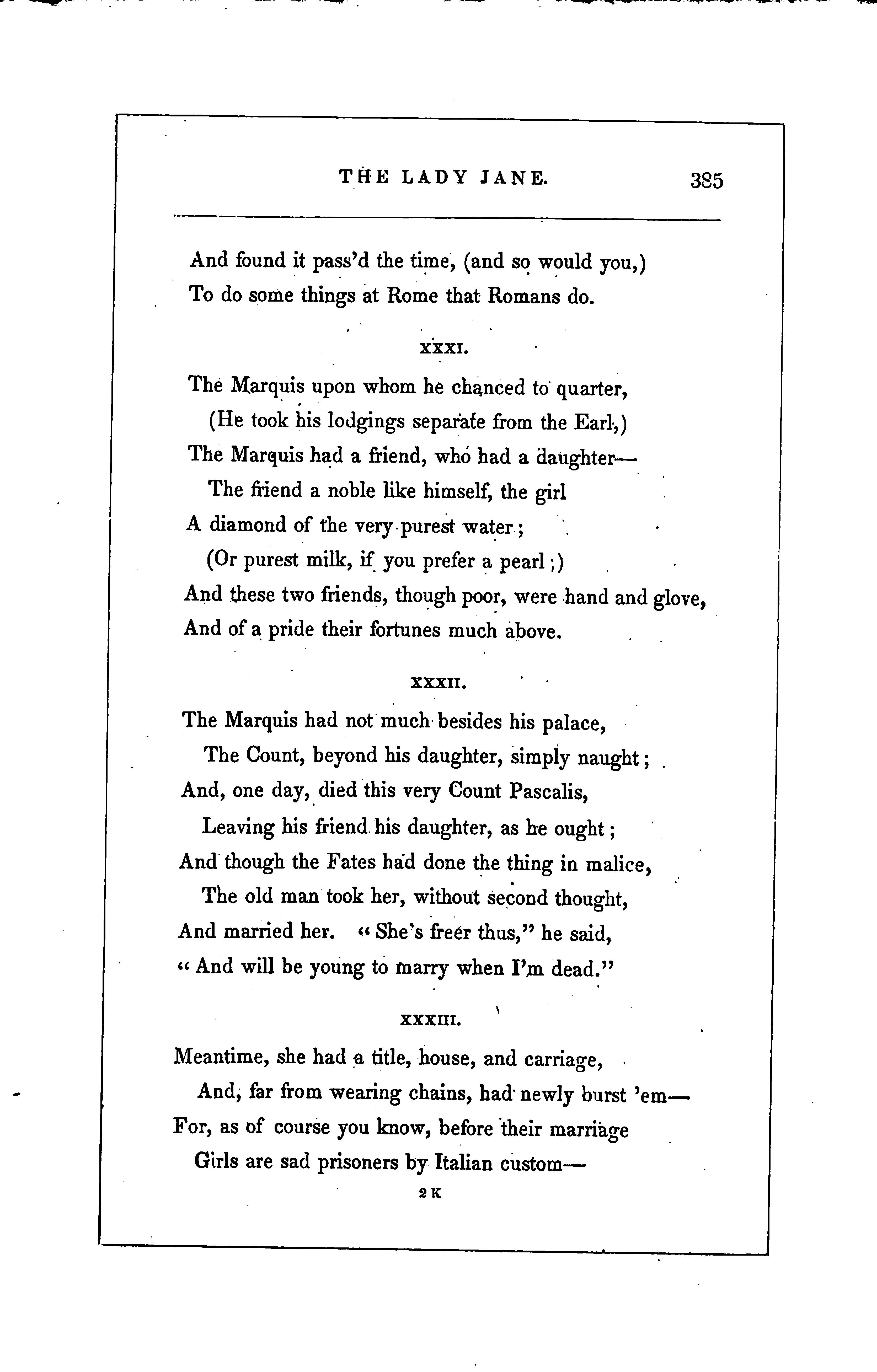

Not meaning their discretion to disparage, Butjust because they're sure they couldn't trust 'em. When wedded, they are free enough moreover, The marriage contract specifies one lover.
XXXIV.
Not that the Marchioness had one-no, no !Nor wanted one. It is not my intention To hint it in this tale. Jules lodged belowBut his vicinity's not my invention ; And, if it seem to you more apropos Than I have thought it worth my while to mention, Why, youthink as the world did-verbum satBut still it needn't be so-for all that.
XXXV.
'Most any female neighbour, up a stair, · Occasions thought in him who lodges under; And Jules, by accident, had walk'd in where (A «flight too high" 's a very common blunder) He saw a lady whom he thought as fair As from her shell rose" Mrs. Smith of Thunder.
Though Venus, I would say were Vulcan by, Was no more like the Marchioness than I.
XXXVI.
For this grave sin there needed much remission; And t' assure it, oft the offender went.
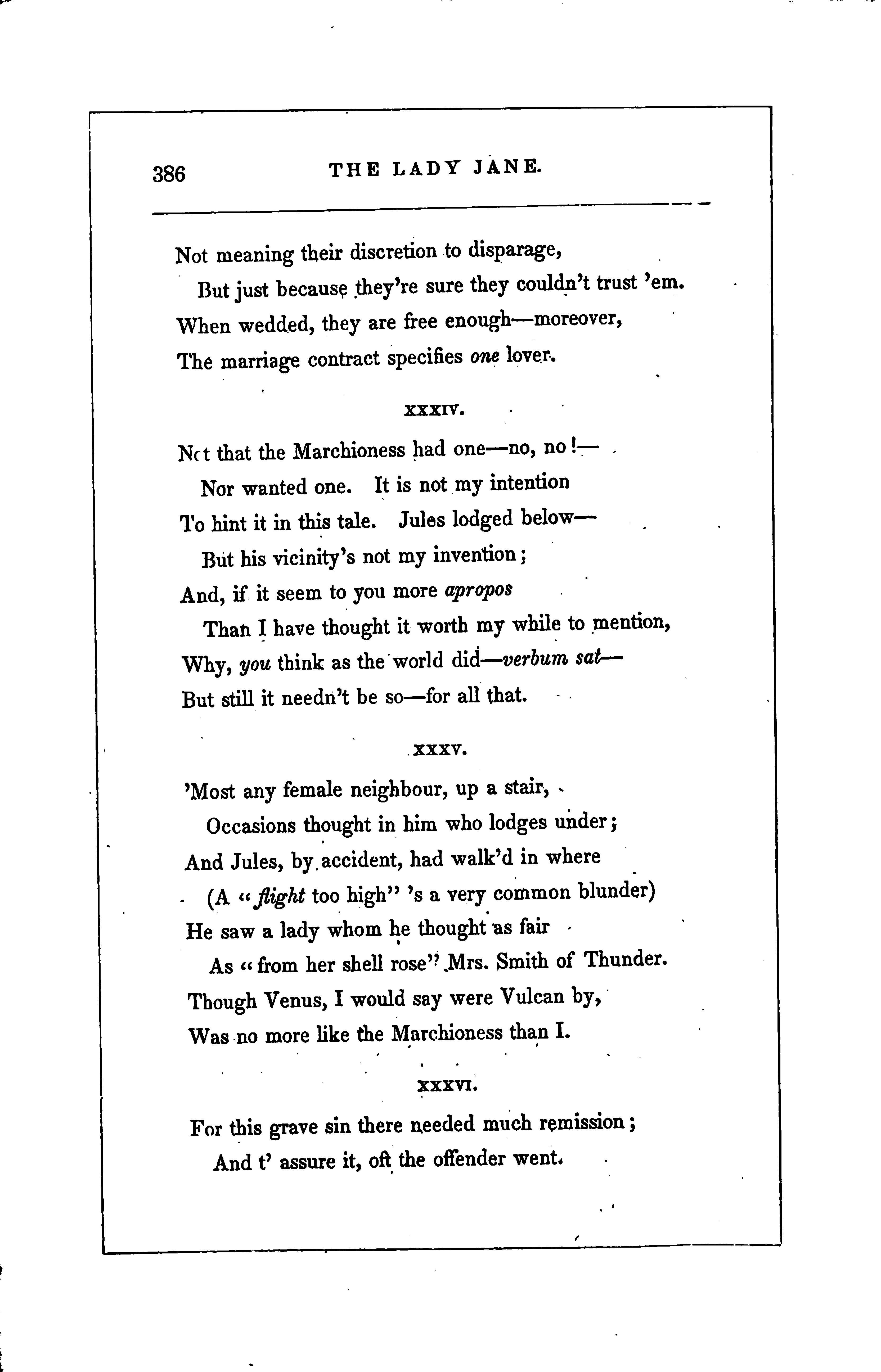

The Marquis had a very famous Titian, And Jules so often came to pay his rent, The old man recommended a physician, Thinking his intellects a little bent.
And, pitying, he thought and talk'd about him, Till, finally, he couldn't live without him.
XXXVII.
And, much to the neglect of Lady Jane, Jules paid him back his love ; and there, all day, The fair young Marchioness, with fickle brain, Tried him with changeful mood, now coy, now gay: And the old man lived o'er his youth again, Seeing those grown-up children at their playHis wife sixteen, Jules looking scarcely more, 'Twas frolic infancy to eighty-four.
XXXVIII.
There seems less mystery in matrimony, With people living nearer the equator ; And early, like the most familiar crony, Unheralded by butler, groom, or waiter, Jules join'd the Marquis at his macaroni,The Marchioness at toast and coffee later ; And if his heart throbb'd wild sometimes, he hid it ; And if her dress required doing did it.
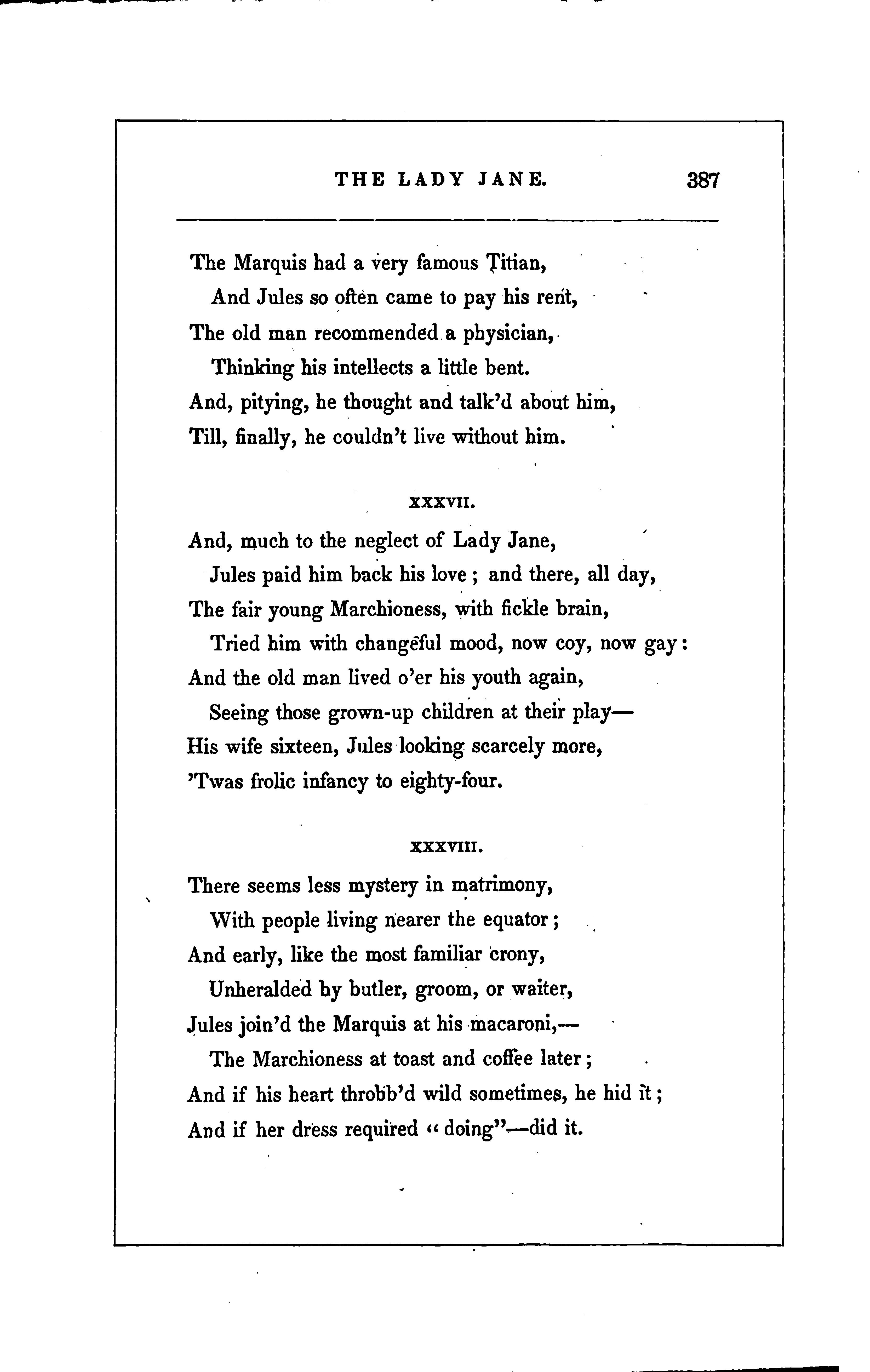

XXXIX.
Now though the Marchioness in church did faint once, And, as Jules bore her out, they didn't group ill;
And though the spouses (as a pair) were quaint ones
She scarce a woman, and his age octuple 'Twas odd, extremely odd, of their acquaintance,
To call Jules lover with so little scruple!
He'd a caressing way-but la ! you know it's
A sort of manner natural to poets '
XL.
God made them prodigal in their bestowing ; And, if their smiles were riches, few were poor!
They turn to all the sunshine that is going
Swoop merrily at all that shows a lureTheir love at heart and lips is overflowingTheir motto, Trust thefuture-now is sure !"
Their natural pulse is high intoxication(Sober'd by debt and mortal botheration.)
XLI.
Of such men's pain and pleasure, hope and passion, The symptoms are not read by "those who run!"
And 'tis a pity it were not the fashion
To count them but as children of the sunNot to be baited like the " bulls of Bashan," Nor liable, like clods, for "one pound one
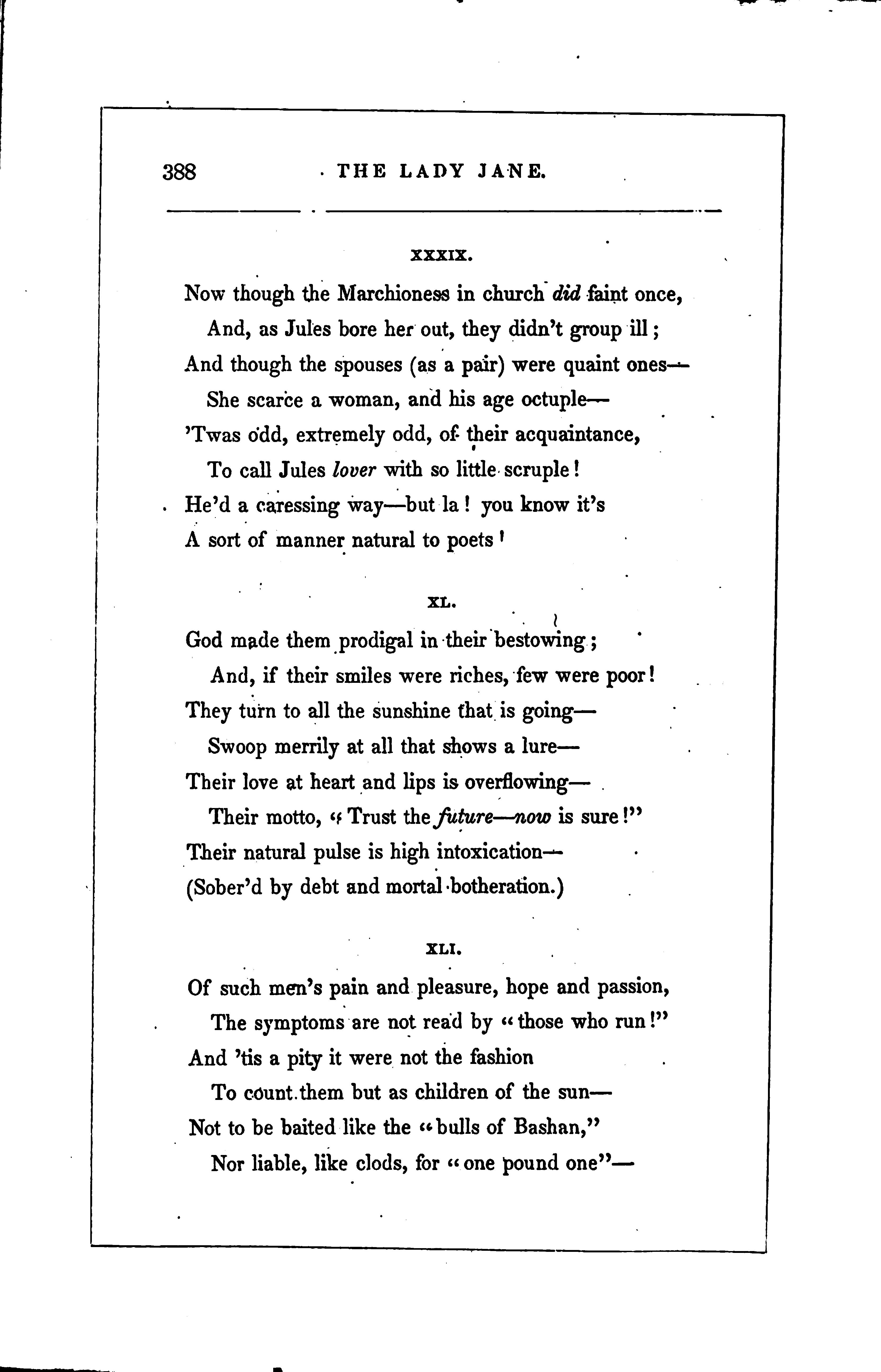

But reverenced-as Indians reverence foolsInspired, though God knows how. Well-such was Jules. XLII.
The Marquis thought him sunshine at the windowThe window of his heart-and let him in!
The Marchioness loved sunshine like a Hindoo, And she thought loving him could be no sin ; And as she loved not yet as those who sin do, 'Twas very well-was't not? Stick there a pin! It strikes me that so far-to this last stanza
The hero seems a well-disposed young man, sir! XLIII.
I have not bored you much with his abilities,"
Though I set out to treat you to a poet, The first course commonly is "puerilities" (A soup well pepper'd-all the critics know it!)
Brought in quite hot. (The simple way to chill it is, For " spoons" to stir, and puffy lips to blow it.)
Then, poet stuff'd, and by his kidney roasted, And last (with lagrima,") «the devil" toasted. " XLIV.
High-scream between the devil and the roast, But no Sham-pain ! Hold there ! the fit is o'er.
Obsta principiis-one pun breeds a host (Alarmingly prolific for a bore !) 2x2
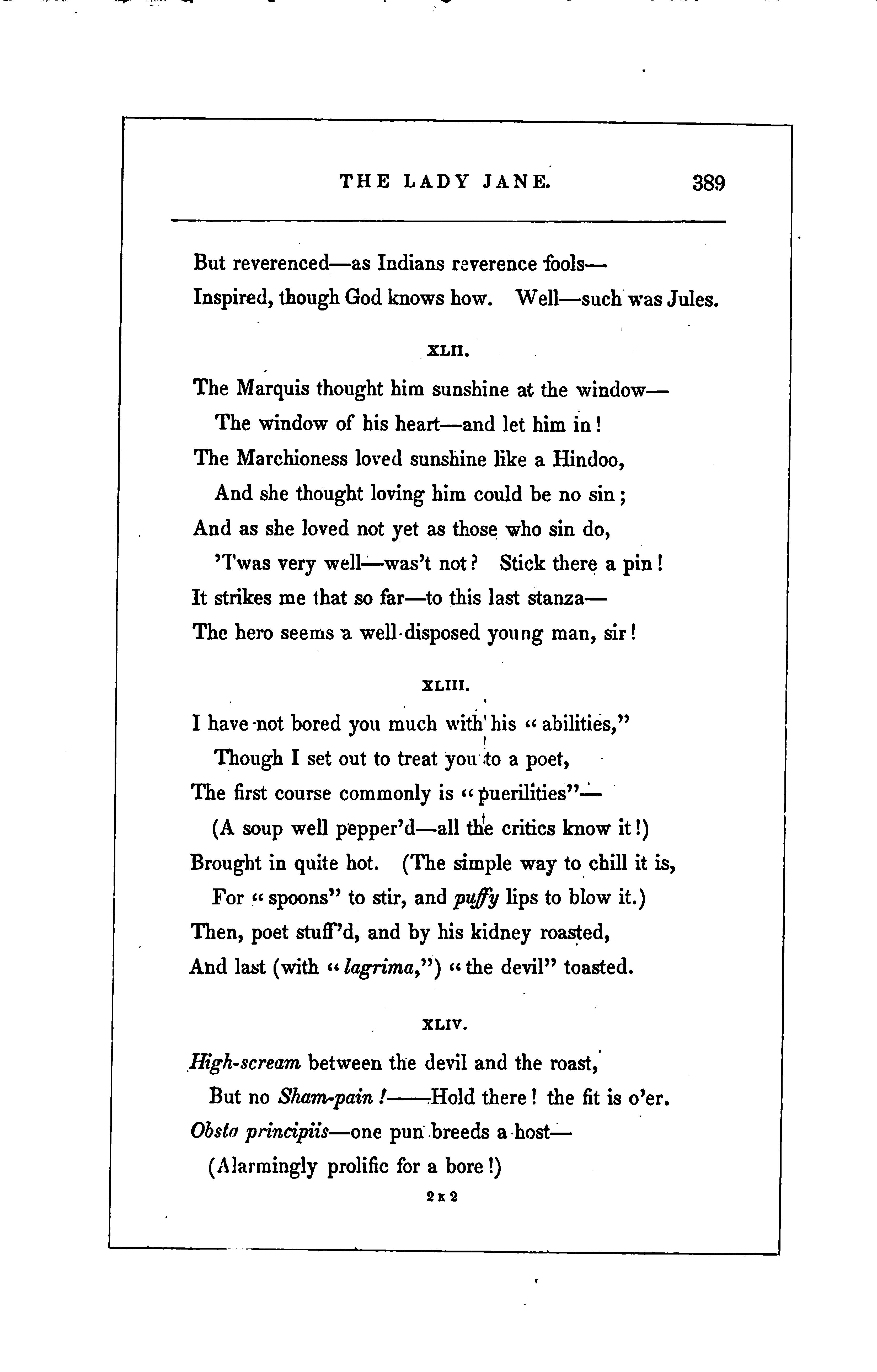

But he who never sins can little boast
Compared to him who goes and sins no more! The sinful Mary" walks more white in Heaven Than some who never « sinn'd and were forgiven !"
XLV.
Jules had objections very strong to playing His character of poet-therefore I Have rather dropp'd that thread, as I was saying. But though he'd neither frenzy in his eye, Nor much of outer mark the bard betraying(A thing he piqued himself on, by the by)--His conversation frequently arose
To what was thought a goodly flight for prose.
XLVI.
His beau ideal,was to sink the attic, (Though not by birth, nor taste, " the salt above )
To pitilessly cut the air erratic
Which ladies, fond of authors, so much love, And be, in style, calm, cold, aristocraticSerene in faultless boots and primrose glove. But th' exclusive's made of starch, not honey! And Jules was cordial, joyous, frank, and funny.
XLVII.
This was one secret of his popularity, Men hate a manner colder than their own,
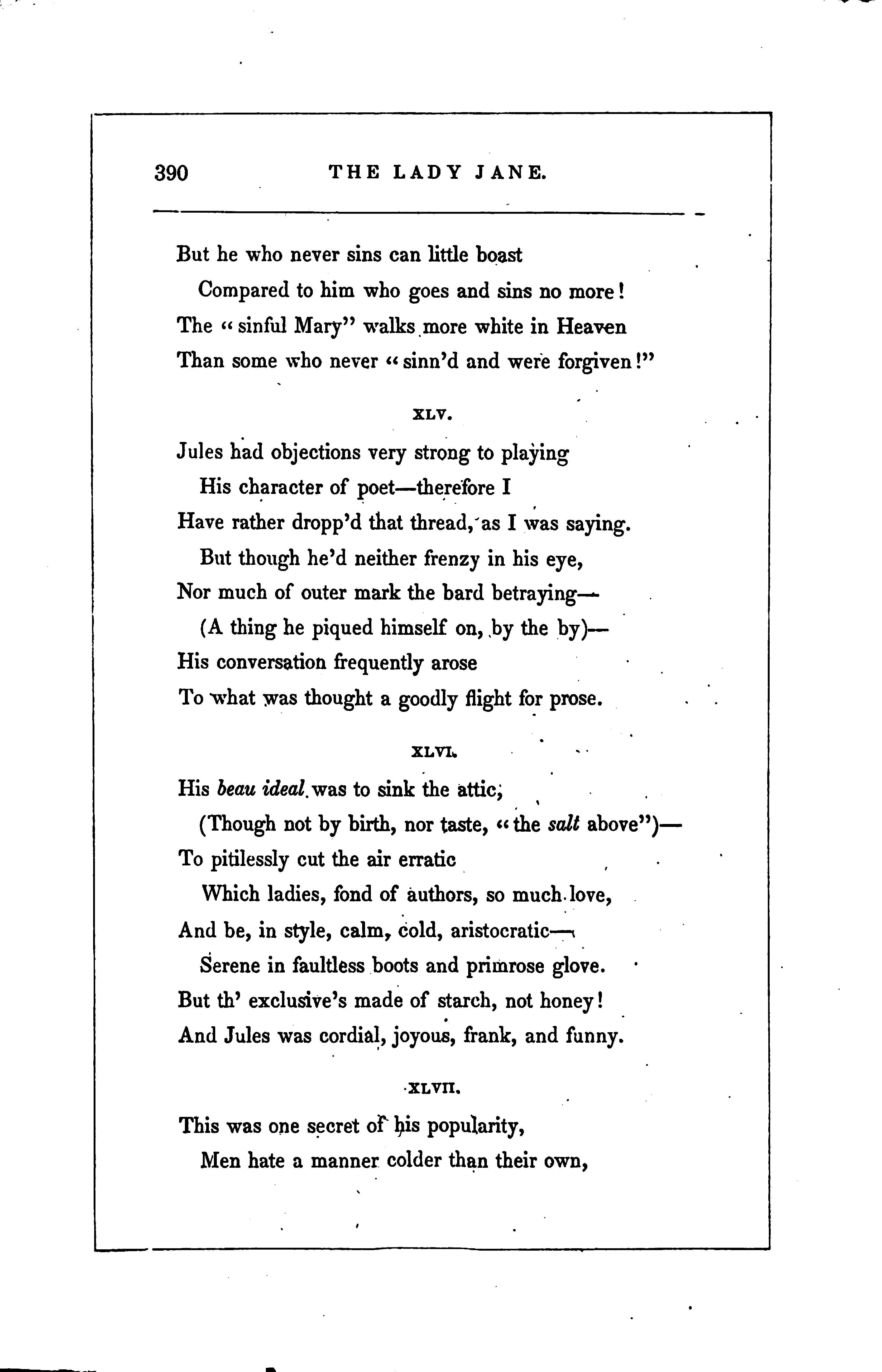

And ladies-bless their hearts! love chaste hilarity. Better than sentiment-if truth were known! And Jules had one more slight peculiarityHe'd little approbativeness"-or noneAnd what the critics said concern'd him littleProvided it touch'd not his drink and victual.
XLVIII.
Critics, I say-of course he was in print "Poems," of course-of course " anonymous"Of course he found a publisher by dint Of search most diligent, and far more fuss Than chemists make in melting you a flint. Since that experiment he reckons plus Better manure,than minus for his baysIn short, seeks immortality that pays.'""
XLIX.
He writes in prose-the public like it better. Well let the public ! You may take a poet, Well-let And he shall write his grandmother a letter, And, if he's any thing but rhyme-he'll show it. Prose may be poetry, without its fetter, And be it pun or pathos, high or low wit, The thread will show its gold, however twisted(I wish the public flatter'd me that this did !) ·
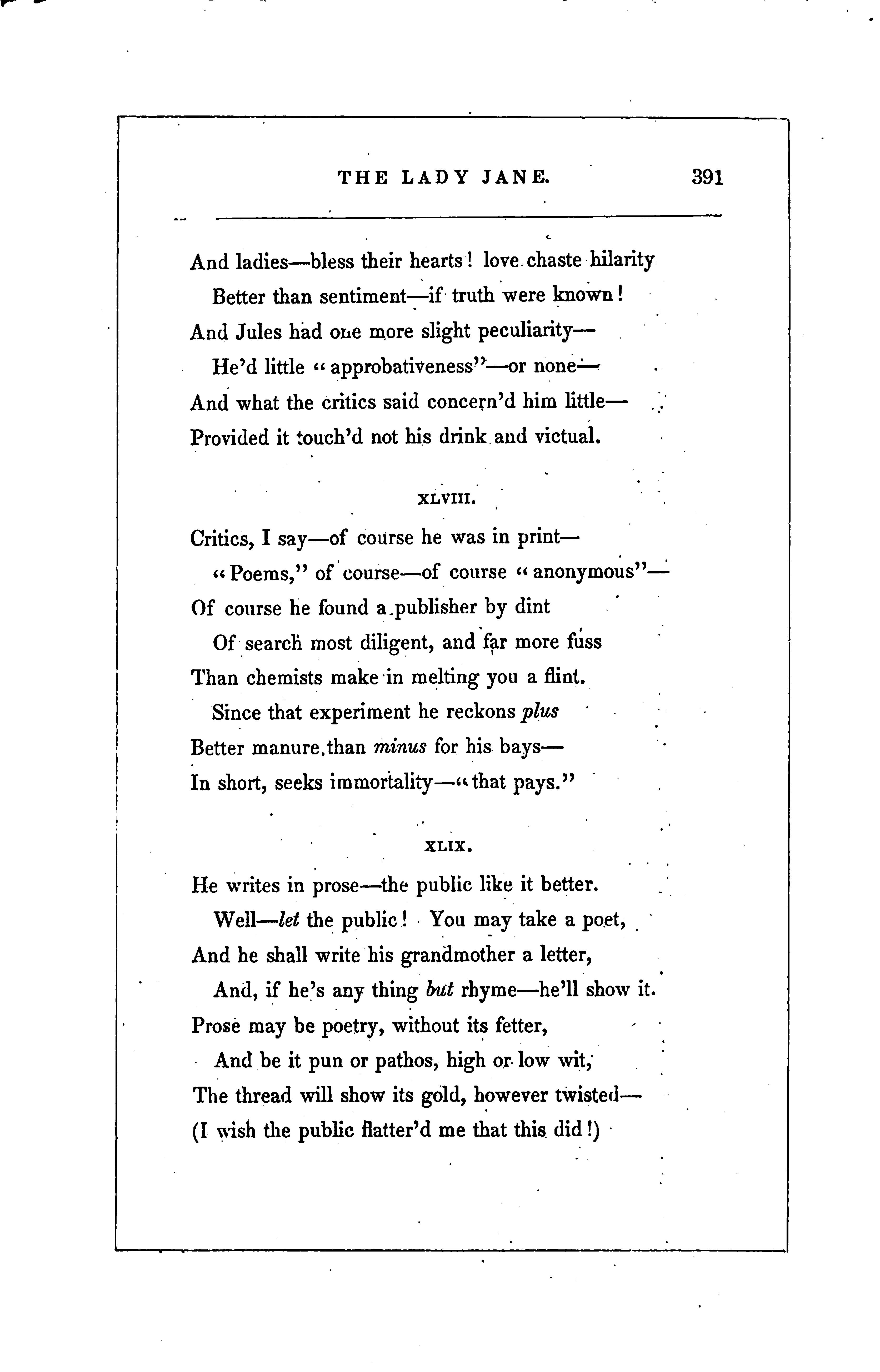

No doubt there's pleasant stuff that ill unravels. I fancy most of Moore's would read so-so, Done into prose of pious Mr. Flavel's(That is my Sunday reading-so I know,) Yet there's Childe Harold-excellent good travelsAnd what could spoil sweet Robinson Crusoe ! But though a clever verse-r makes a prose-r, About the vice-versa, I don't know, sir!
Verser's a better word than versifier, (Unless 'tis verse onfire, you mean to say,) And I've long thought there's something to desire
In poet's nomenclature, by the way. It sounds but queer to laud " the well-known lyreCall a dog " poet !" he will run away And "songster," « rhymester," " bard," and " poetaster," Are customers they're shy of atthe Astor.
A scribbler's" is a skittish reputation, And weighs a man down like a hod of mortar. Commend a suitor's wit, imaginationThe merchant may think of him for his daughter ; But saythat he writes poetry" Her " Pa" would rather throw herin the water!
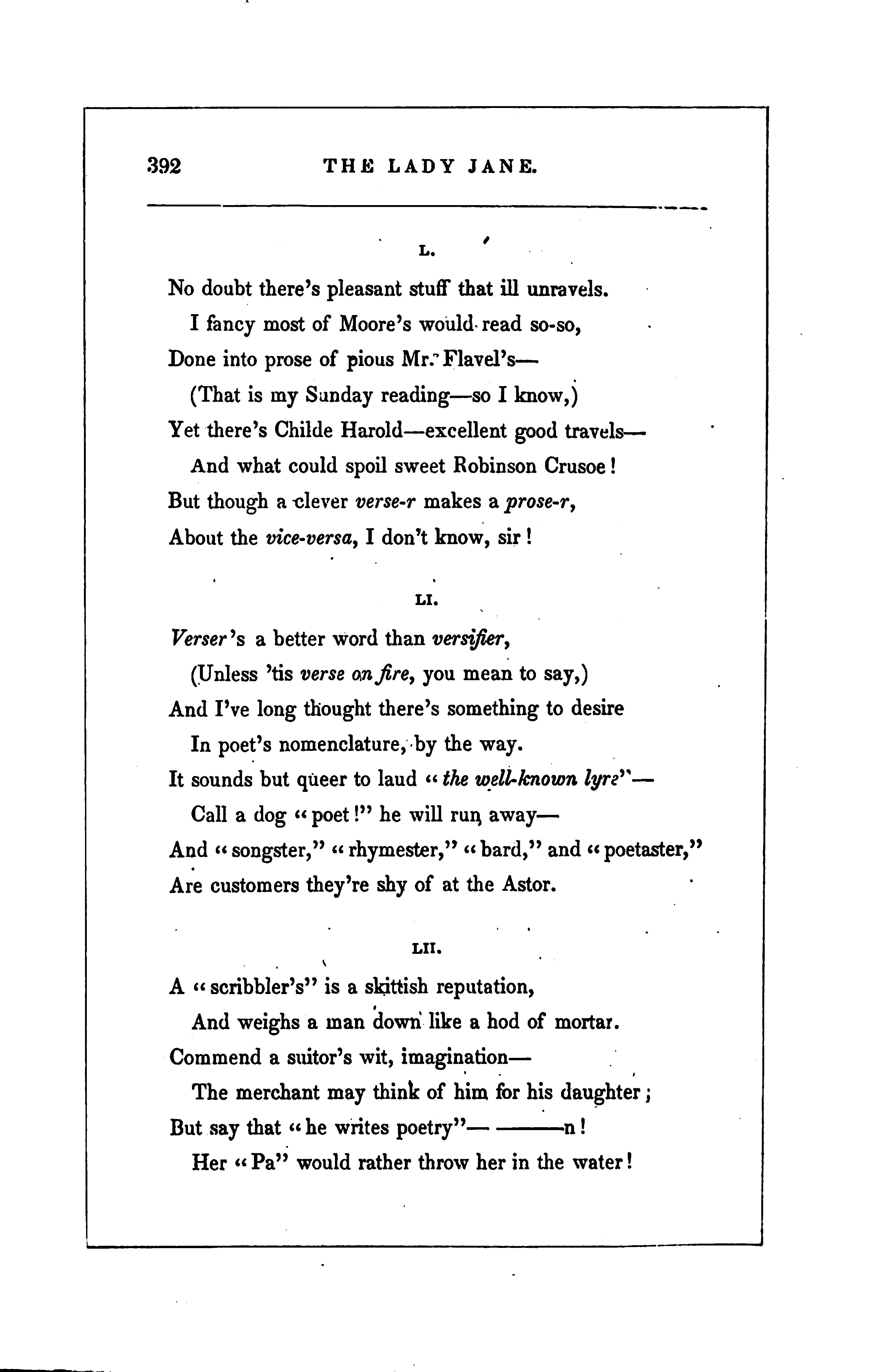

And yet when poets wed, as facts will prove, Their bills stand all at pa, they much above! LIII.
Jules had a hundred minds to cut the muses ; And sometimes did, "forever!"-(for a week !) other uses. He found for time so many His superfluity was his physique; And exercise, if violent, induces Blood to the head and flush upon the cheek ; And, (though details are neither here nor there,) Makes a man sit uneasy on his chair ; LIV.
Particularly that of breaking horses. The rate of circulation in the blood, Best suited to the meditative forces, Is quite as far from mercury as mud That of the starry, not the racing-courses.
No man can trim his style mid fire and flood, Nor in a passion, nor just after marriage ; And, as to Cæsar's writing in his carriage, LV.
Credat Judæus ! Thought is free and easy ; But language, unless wrought with labor limæ, Is notthe kind of thing, sir, that would please ye ! The bee makes honey, but his toil is thymy,
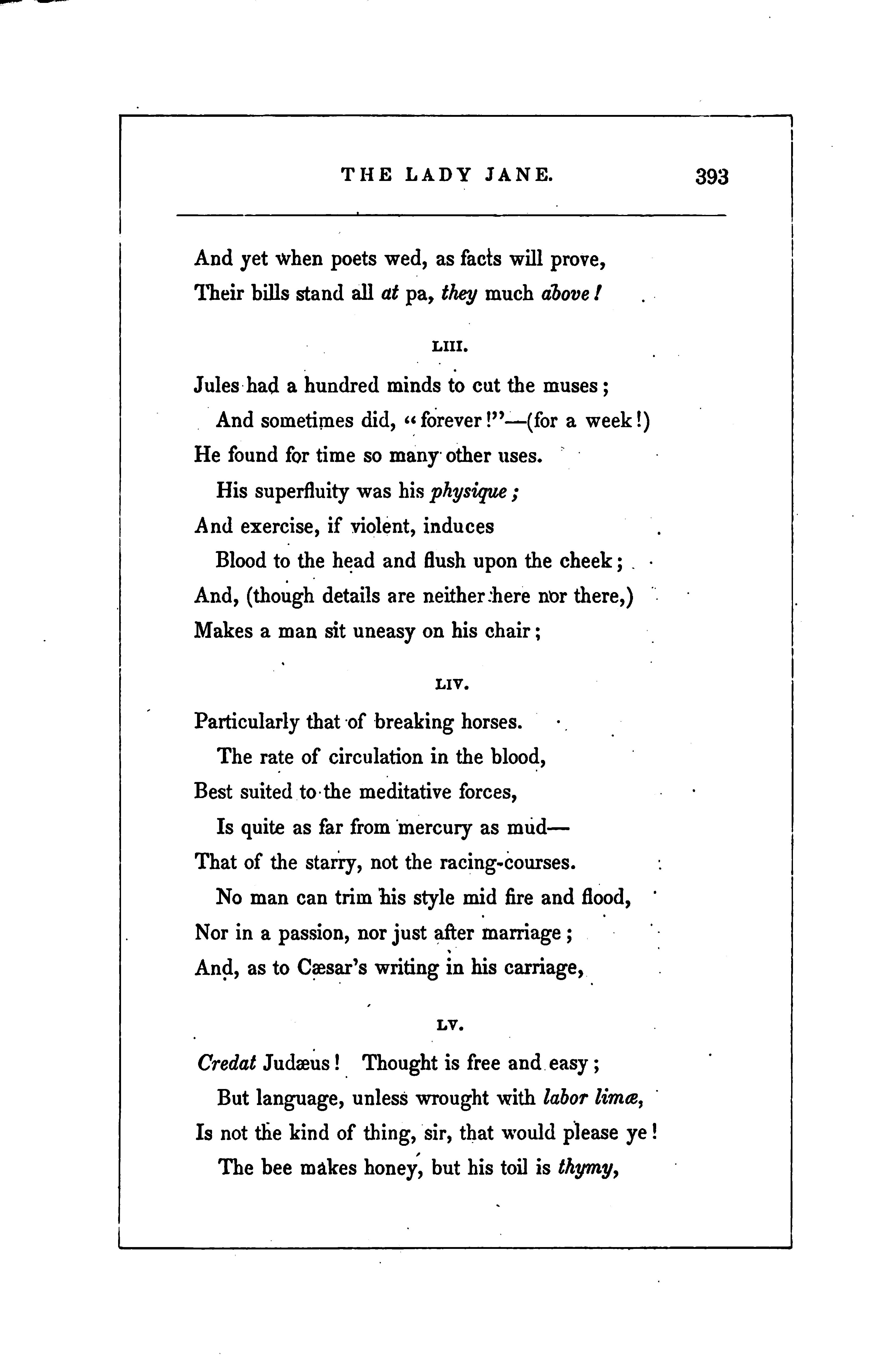

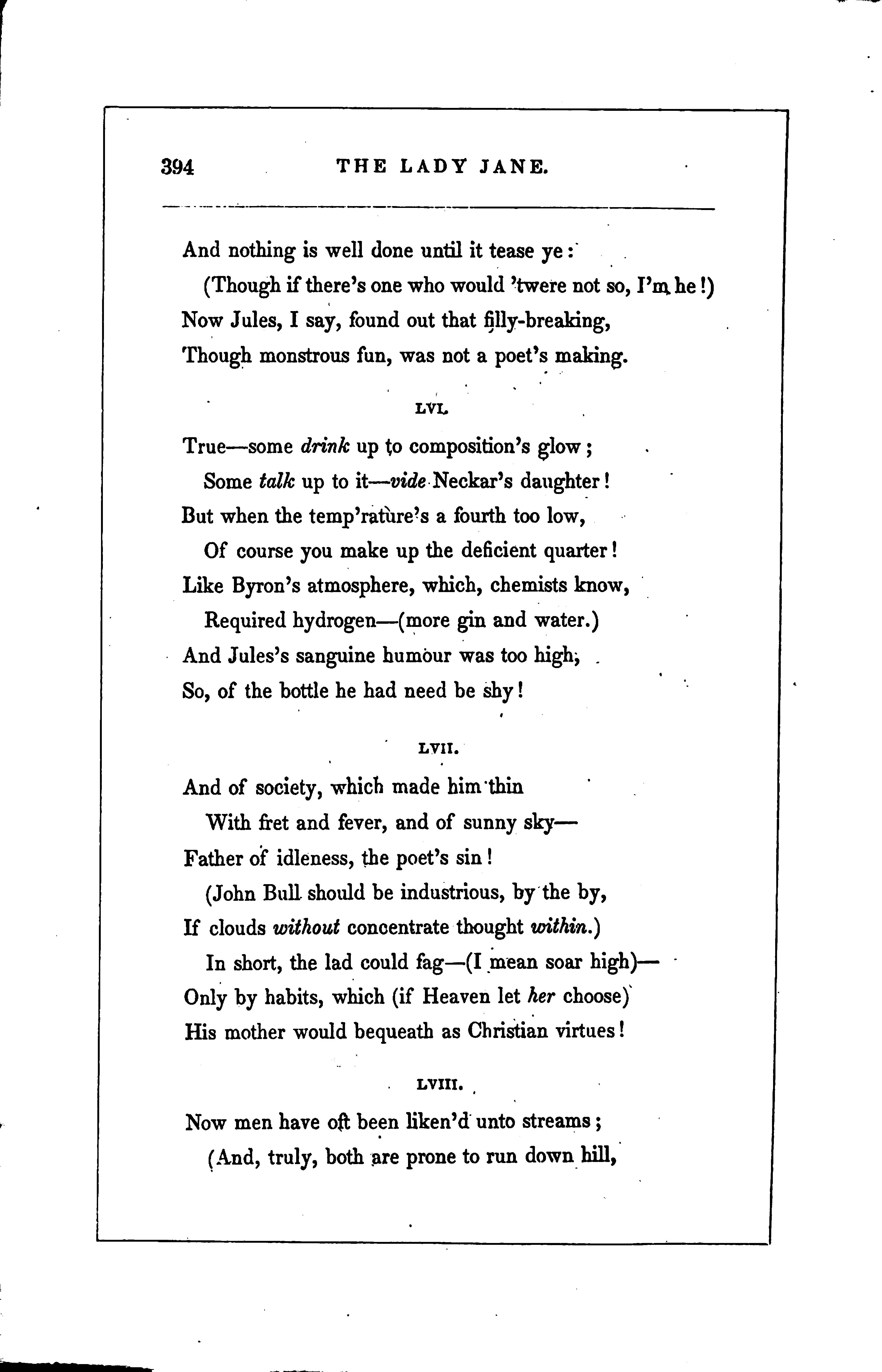
And nothing is well done until it tease ye:
(Thoughifthere's one who would 'twere not so, I'm he!)
Now Jules, I say, found out that filly-breaking, Though monstrous fun, was not a poet's making.
LVI.
True-some drink up to composition's glow; Some talk up to it-vide Neckar's daughter ! But when the temp'rature's a fourth too low, Of course you make up the deficient quarter! Like Byron's atmosphere, which, chemists know, Required hydrogen-(more gin and water.)
And Jules's sanguine humour was too high, So, ofthe bottle he had need be shy!
LVII.
And of society, which made him thin With fret and fever, and of sunny skyFather of idleness, the poet's sin!
(John Bull should be industrious, by the by, If clouds without concentrate thought within.)
In short, the lad could fag-(I mean soar high)
Only by habits, which (if Heaven let her choose) His mother would bequeath as Christian virtues!
LVIII.
Now men have oft been liken'd unto streams ; (And, truly, both are prone to run down hill,

And seldom brawl when dry, or so it seems !)
And Jules, when he had brooded, long and still, At the dim fountain of the poet's dreams, Felt suddenly his veins with frenzy fill ; And, urged, as by the torrent's headlong force, Ruthlessly rode-if he could find a horse.
Yes, sir-he had his freshets like a river, And horses were his passion-so he rode, When he his prison'd spirits would deliver, As if he filed from-some man whom he owed-
And glorious, to him, the bounding quiver Of the young steed in terror first bestrode ! Thrilling as inspiration the delayThe arrowy spring-the fiery flight away!
LX.
Such riding galls the Muses, (though we know Old Pegasus's build is short and stocky,)
But I'd a mind by these details to show What Jules might turn out, were the Muses baulky. This hint to his biographer I throw In Jules, the bard, was spoil'd a famous jockey !
Though not at all to imitate Apollo ! Horse him as well, he'd beat that dabster hollow!
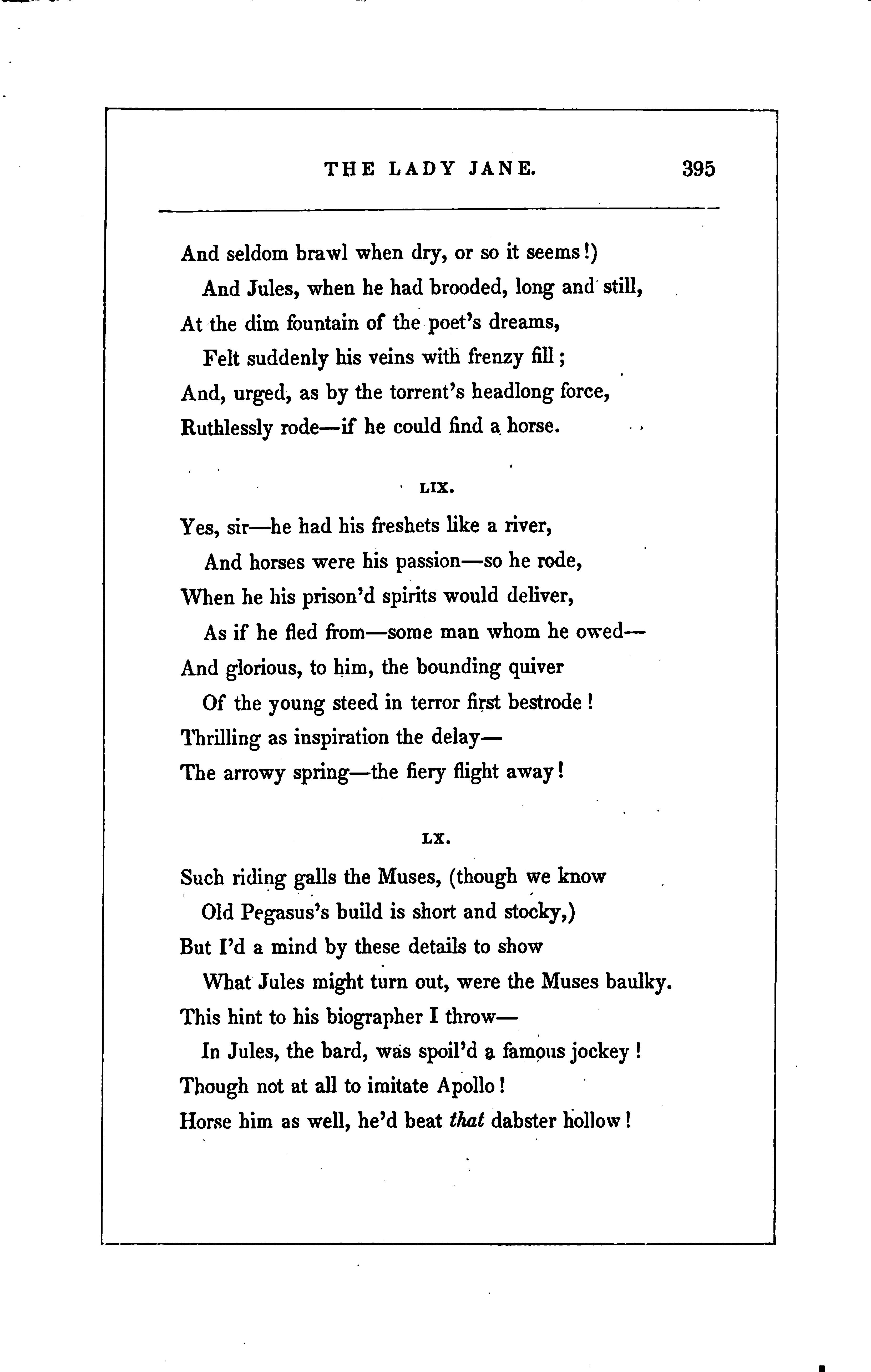

LXI.
'Tis one of the proprieties of story
To markthe change in heroes, stage by stage; And therefore I have tried to lay before ye
The qualities of Jules's second age. It should wind up with some memento mori But we'll defer that till we draw the sage. The moral's the last thing, (I say with pain,)
And now let's turn awhile to Lady Jane.
LXII.
The Earl, I've said, wasin his idiocy, And Lady Jane not well. They therefore hired
The summer palace of Rospigliosi,
To getthe sun as well as be retired.
You shouldn't fail, I think, this spot to go see-
That's if you care to have your fancy fired It's out of Rome-it strikes me on a steep hillA sort of place to go to with nice people.
LXIII.
It looks affectionate, with all its splendorAs loveable as ever look'd a nest; A palace I protest, that makes you tender, And long for fol de rol, and all the rest. Guido's Aurora's there-you couldn't mend her: And Samson, by Caracci-not his best;
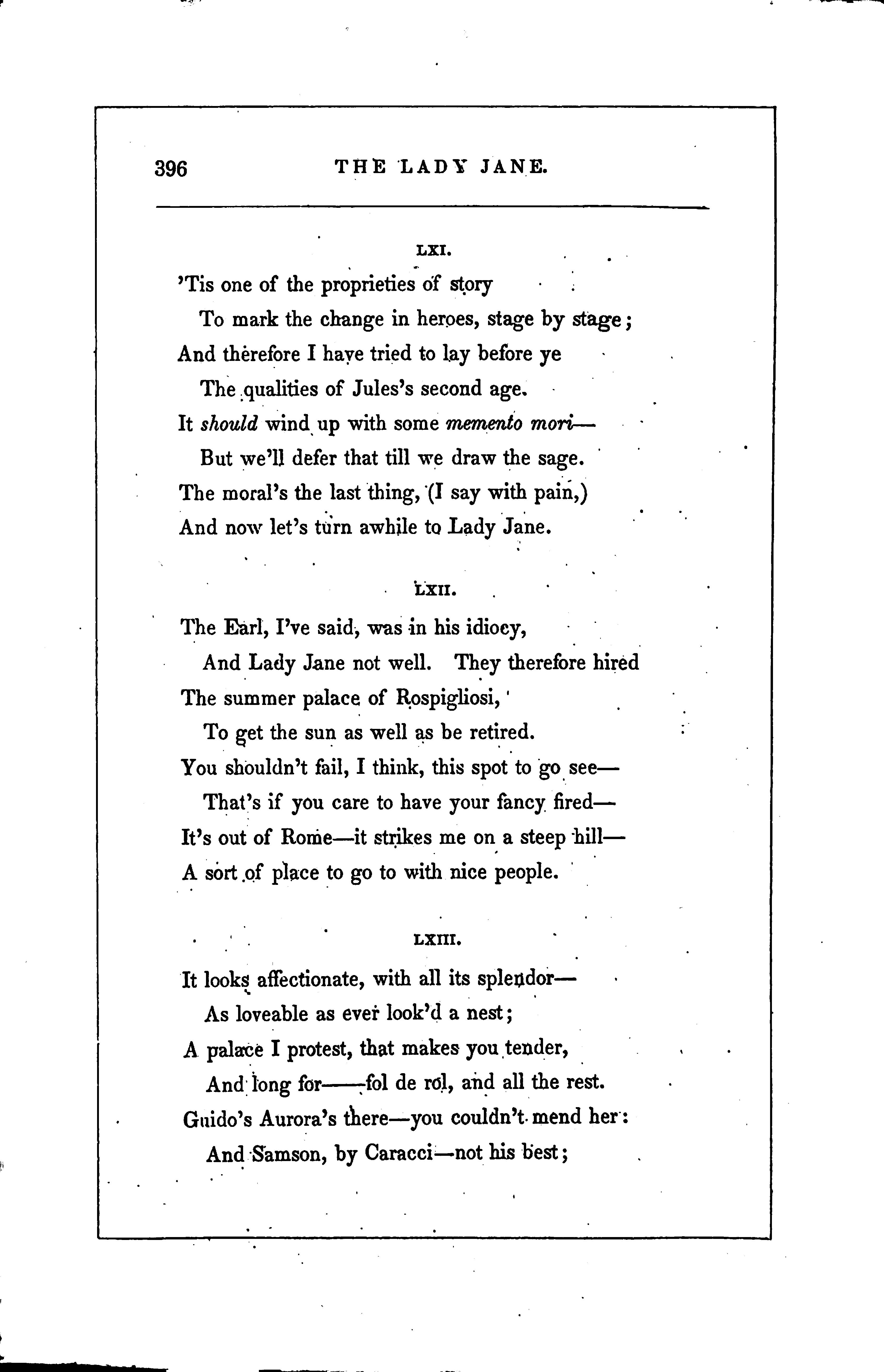

But pictures I can talk of to the millionTo you, I'll just describe one small pavilion.
LXIV.
It's in the garden just below the palace ; I think, upon the second terrace-noThe first-yes, 'tis the first-the orange alleys
Lead fromthe first flight down-precisely so!
Well-halfway is a fountain, where, with malice
In all his looks, a Cupid-'hem ! you know You needn't notice that-you hurry by, And lo! a fairy structure fills your eye.
LXV.
A crescent colonnade folds in the sun,
To keep it forthe wooing South wind onlyA thing I wonder is not oftener done, (The crescent, not the wooing-that's my own lie,) For there are months, and January's one, When winds are chill, and life in-doors gets lonely, And one quite longs, if wind would keep away, To sing i' the sunshine, like old King René.
LXVI.
The columns are of marble, white as light: The structure low, yet airy, and the floor
A tesselated pavement, curious quite,Of the same fashion in and out of door.
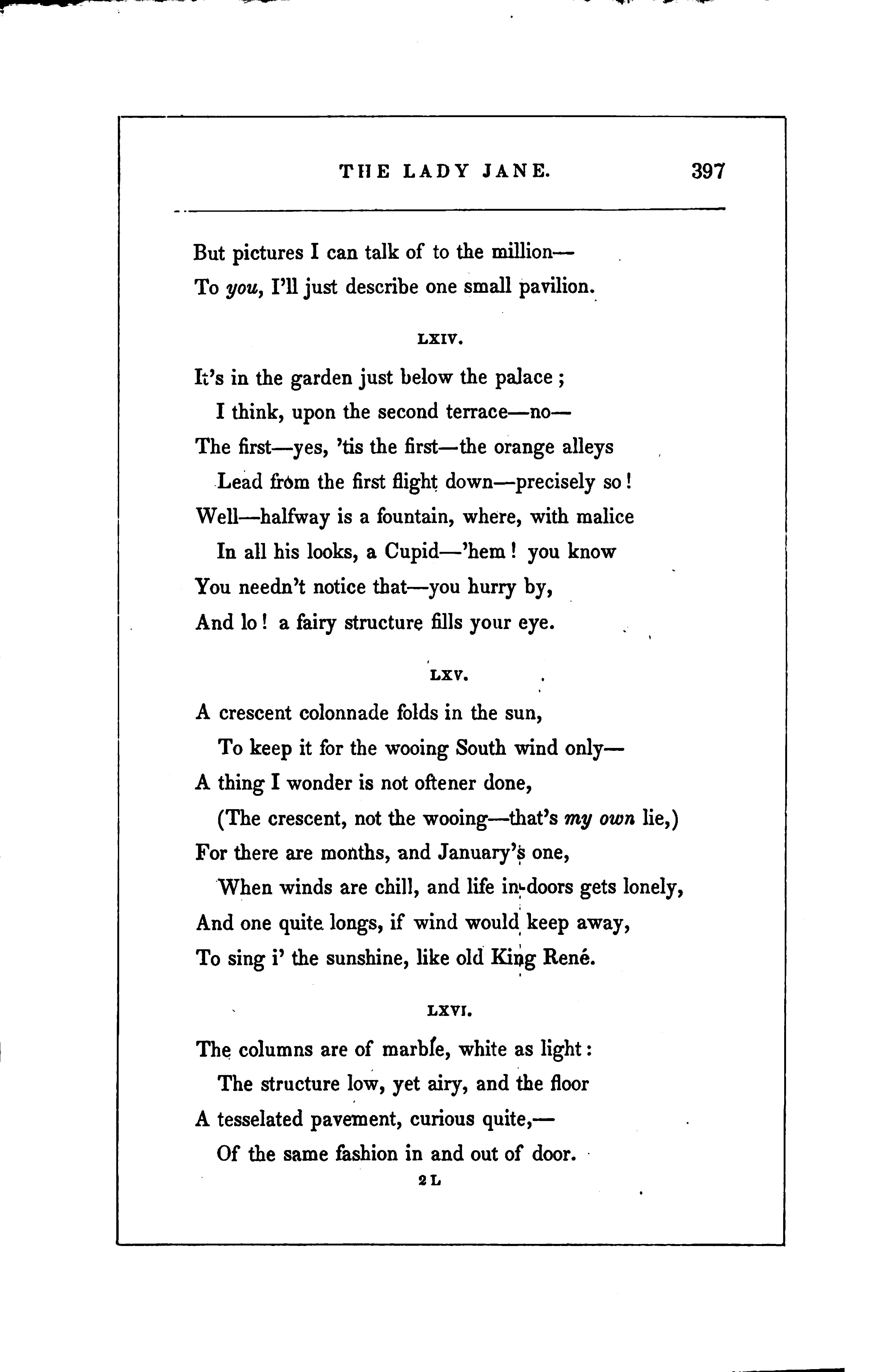

The Lady Jane, who kept not warm by sight, Had carpeted this pavement snugly o'er, And introduced a stove, (an open Rumford)-
So the pavilion had an air of comfort.
LXVII.
" The frescoes on the ceiling really breathe,"
The guide-books say. Of course they really see : And, as I tell you what went on beneath, Of course those naked goddesses told me.
They saw two rows of dazzling English teeth, Employ'd, each morn, on English " toast and tea ;"
And once, when Jules came in, they strain'd their eyes, But didn't see the teeth, to their surprise:
LXVIII.
The Lady Jane smiled not. Her lashes hung Low tothe soft eye, and, so still they lay, Jules knew a tear was hid their threads among, And that she fear'd 'twould gush and steal away. The kindly greeting trembled on her tongue, The hand's faint pressure chill'd his touch like clay,
And Jules with wonder felt the world all changing, With but the cloud of one fond heart's estranging..
LXIX.
Oh it is darkness to lose love !-howe'er
We little prized the fond heart-fond no more!
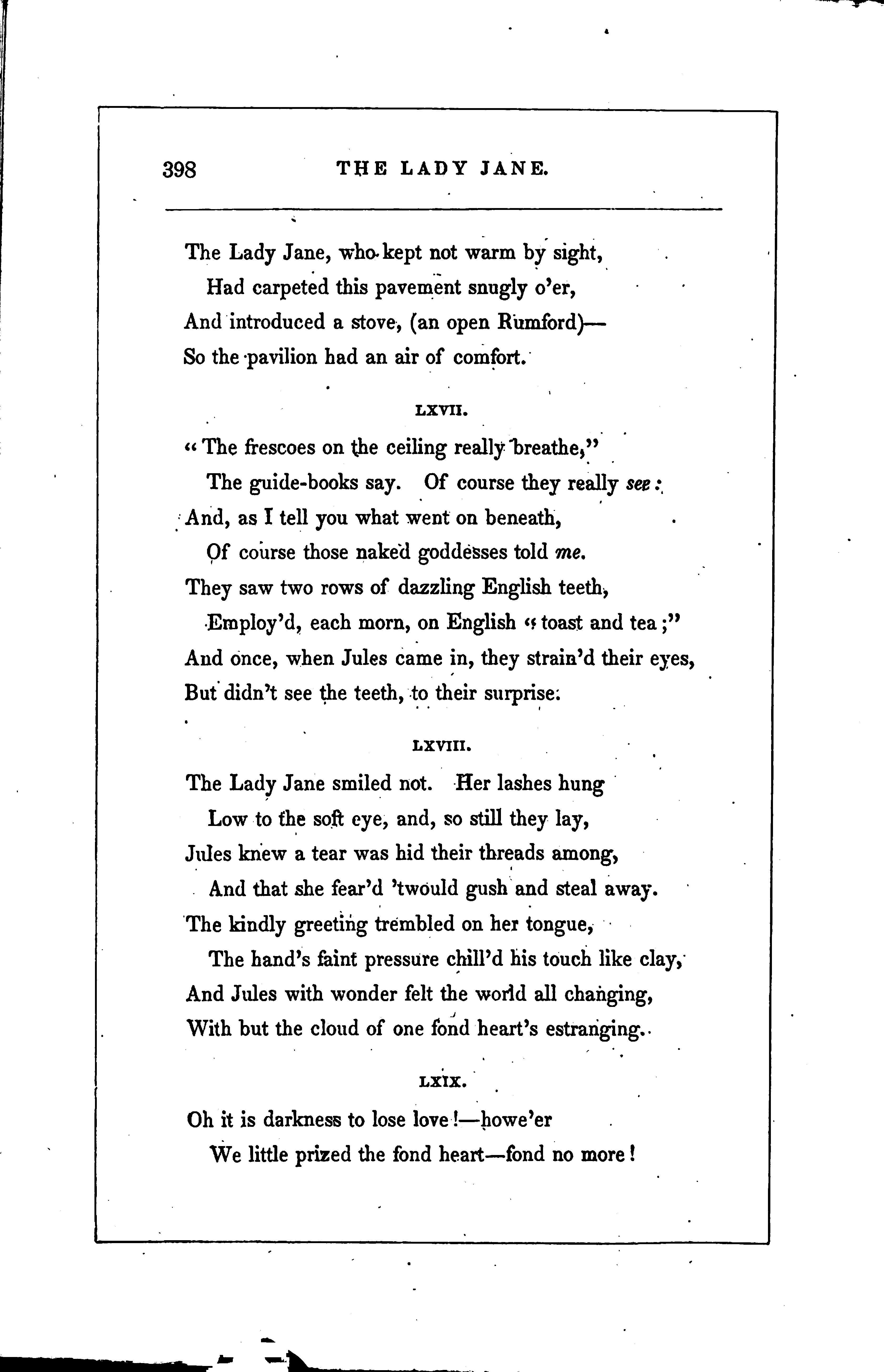

The bird, dark-wing'd on earth, looks white in air!
Unrecognised are angels, till they soar! And few so rich they may not well beware Of lightly losing the heart's golden ore ! Yet-hast thou love too poor for thy possessing?Loose it, like friends to death, with kiss and blessing!
LXX.
You're naturally surprised, that Lady Jane Loved Mr. Jules. (He's Mr. now-not Master !)
The fact's abruptly introduced, it's plain ; And possibly I should have made it last a Whole Canto, more or less--but I'll explain. Lumpingthe sentiment one gets on faster! Though it's in narrative an art quite subtle, To work all even, like a weaver's shuttle.
LXXI.
Good characters" in tales are well brought up (Though, by this rule, my Countess Pasibleu Is a bad character-yet, just to sup, I much prefer her house to a church pewBut, pouring verse for readers, cup by cup, So much a week,-what is a man to do?
' Tis wish'd that if a story you begin, you'd Make separate scenes of each to be continued.""
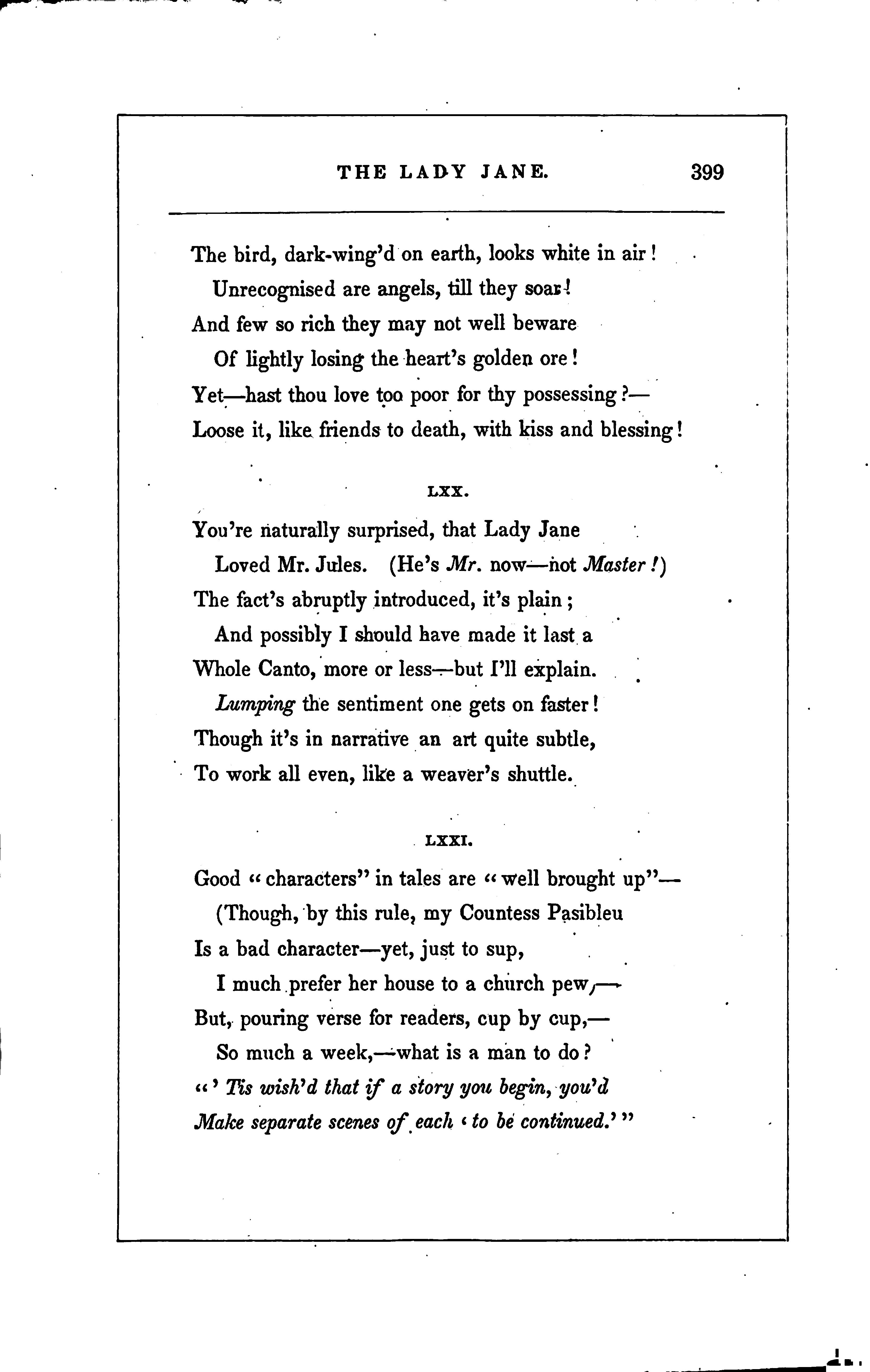

LXXII.
So writes plain « Jonathan," who tills my brains With view to crop-(the seed being ready money)
And ifthe small-lot system" bring him gains, He has a right to fence off grave from funnyWorking me up, as 'twere, in window-panes, And, I must own where one has room to run, he Is apt, as Cooper does, to spread it thin, So now I'll go to lumping it again !
LXXIII.
"Love grows, by what" it gives to feed another, And not by what it feeds on." "Tis divine, If anything's divine besides the mother Whose breast, self-blessing, is its holy sign. Much better than a sister loves a brother
The Lady Jane loved Jules, and "line by line, Precept by precept," furnish'd him advice ; Also much other stuff he thought more nice.
LXXIV.
She got him into sundry pleasant clubs, By pains that women can take, though but few will! She made most of him when he got most rubs ; And once, in an inevitable duel, She follow'd him alone to Wormwood ScrubsBut not to hinder! Faith ! she was ajewel!
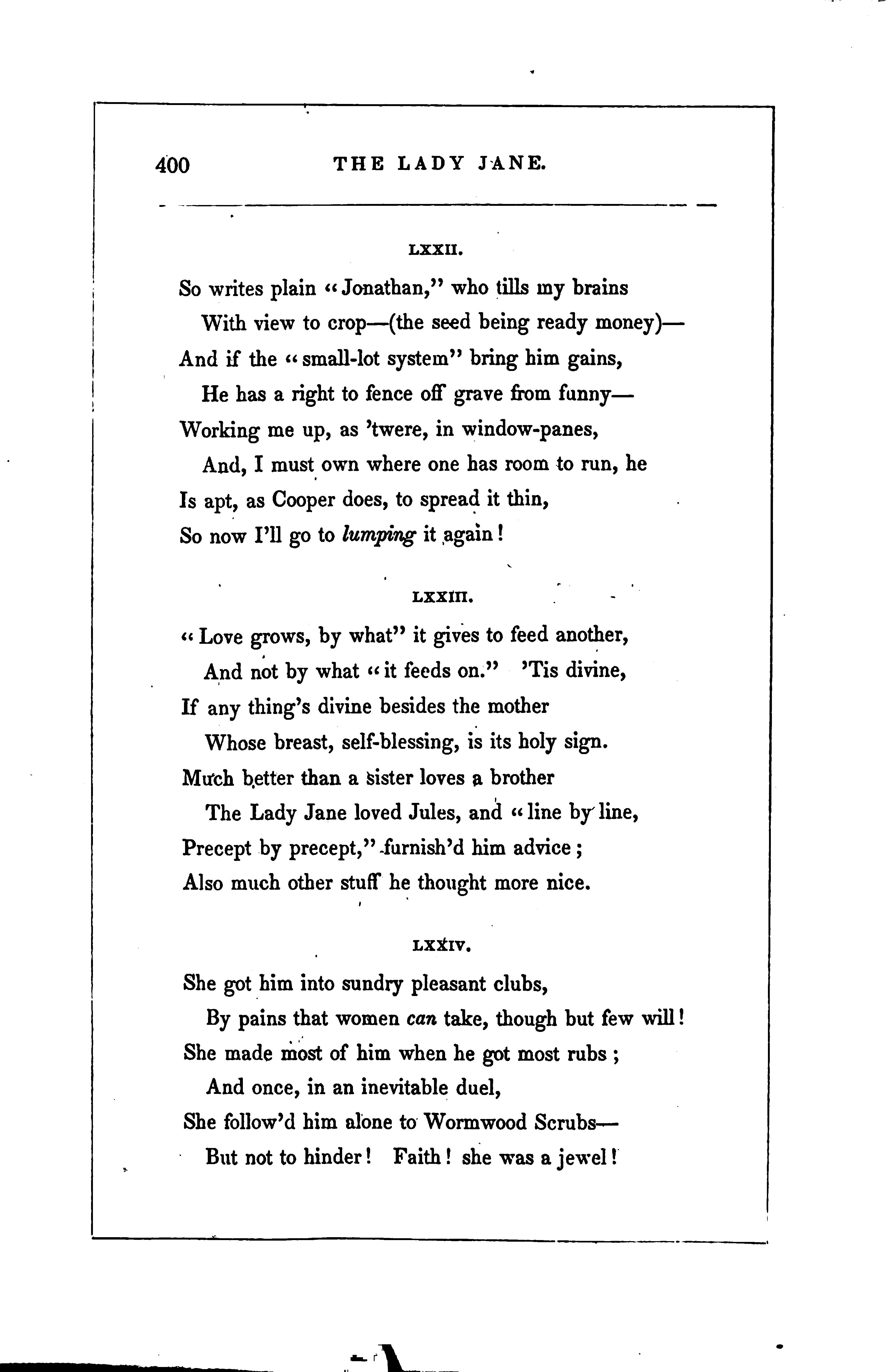

I wish the star all manner of festivity That shone upon her Ladyship's nativity!
LXXV.
All sorts of enviable invitations, Tickets, and privileges, got she him; Gave him much satin waistcoat, work'd with patience, (Becoming to a youth so jimp and slim)- -Cut for his sake some prejudiced relations, And found for him in church the psalm and hymn ; Sent to his " den" some things not found in Daniel's, And kept him in kid gloves, cologne, and flannels.
LXXVI.
To set him down, upon her way chez elle, She stay'd unreasonably late at parties ; To introduce him to a waltzing belle She sometimes made a cessio dignitatis ; . And one kind office more that I must tellShe sent her maid, (and very stern your heart is If charity like this you find a sin in,) In church-time, privately,to air his linen.
LXXVII.
Was Jules ungrateful ? No ! Was he obtuse ? Did he believe that women's hearts were flowing With tenderness, like water in a sluice,Like the sun's shining,-like the breeze's blowing,2L2
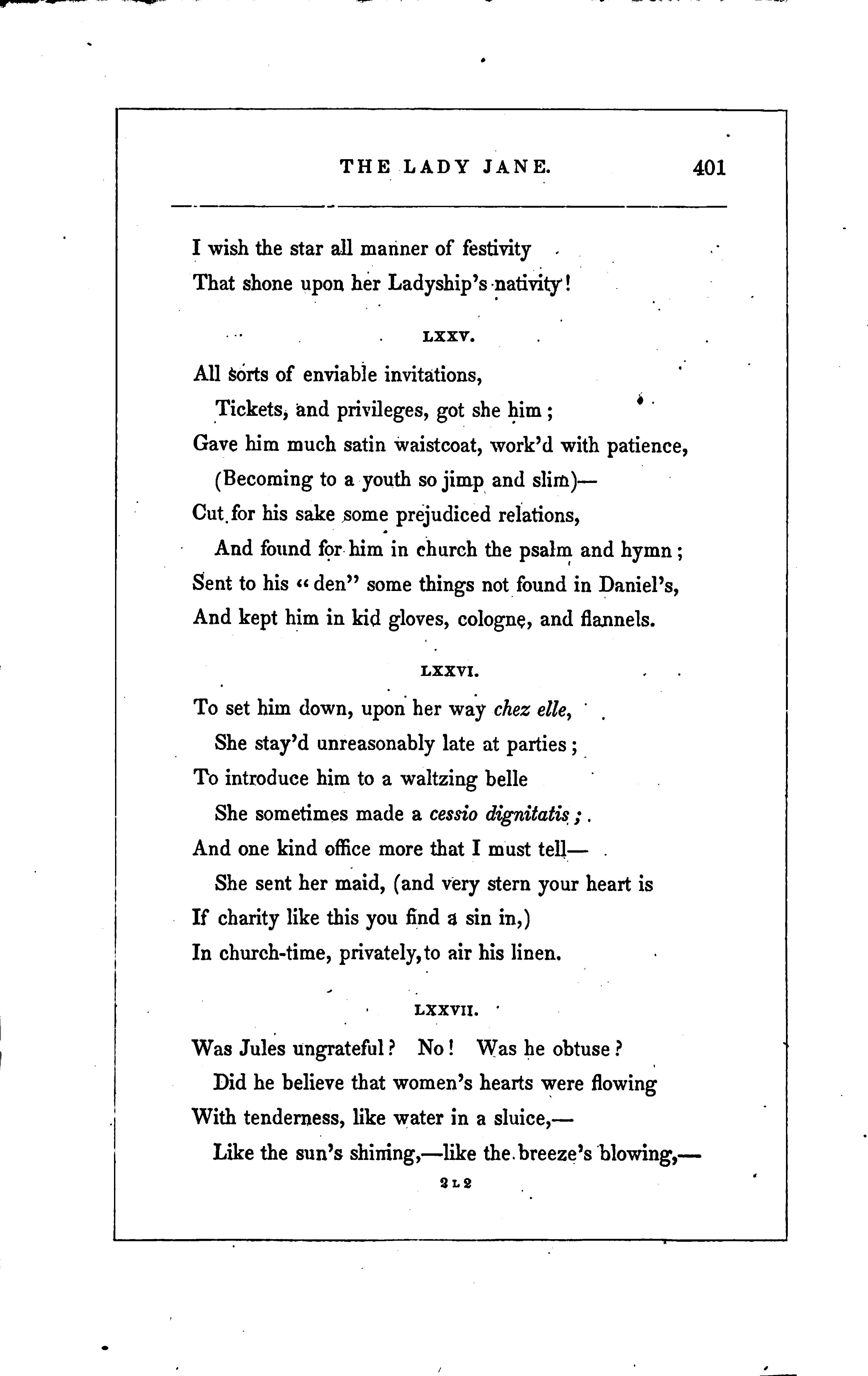

And fancy thanking them was not much use
Had he the luck of intimately knowing
Another woman, quite as kind, and nicer? ? Had he a "friend" sub rosa? No, sir! Fie, sir!
LXXVIII.
Then why neglect her? Having said he did, I will explain, as Brutus did his stab,-
(Though by my neighbors I'm already chid
For getting on so very like a crab)-
Jules didn't call, as oft as he was bid,
Because in Rome he didn't keep a cabA fact that quite explains why friendships, marriages, And other ties depend on keeping carriages.
LXXIX.
Without a carriage men should have no card, Nor "owe a call" at all-except for love.
And friends who need that you the " lean earth lard"
To give their memories a pasteboard shove, On gentlemen a-foot bear rather hard!
It's paying high for Broadway balls, by Jove!
To walk next day halfway to Massachusett And leave your name-on ladies that won't use it.
LXXX.
It really should be taught in infant schools
That the majority means men, not dollars ;
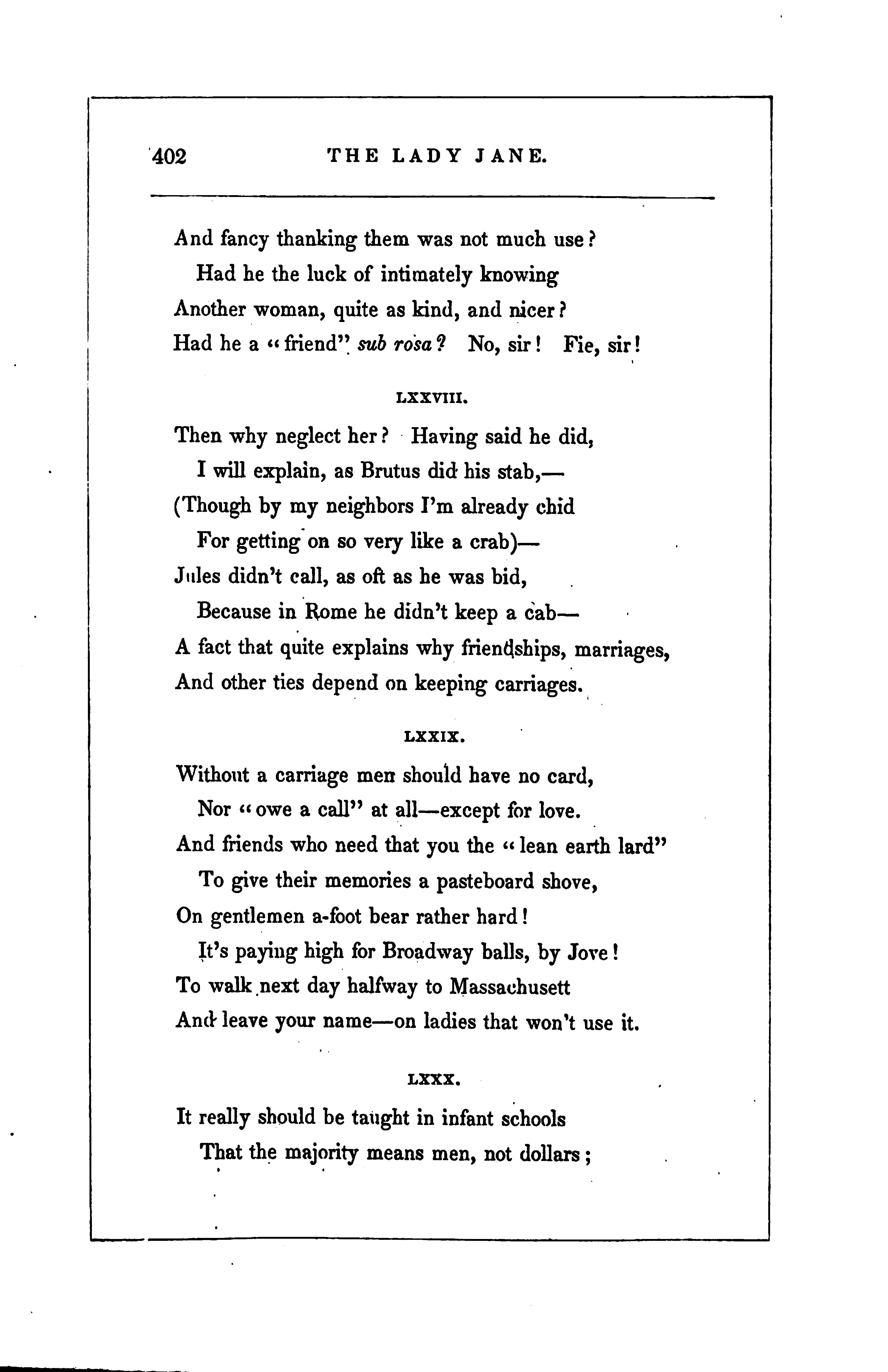

LADY JANE. 403
And, therefore, that, to let the rich make rules, Is silly in " poor pretty little scholars."
And this you see is apropos of Jules, Who call'd as frequently as richer callers
While he'd a cab ;-but courtesy's half horse
A secret those who ride keep snug, of course.
LXXXI.
I say while he was Centaur, (horse and man,) Jules never did neglect the Lady Jane ; And, at the start, it was my settled plan, (Though I've lost sight of it, I see with pain,)
To show how moderate attentions can, If once she love, a woman's heart retain. True love is weak and humble, though so brittle ; And asks, 'tis wonderful how very little !
LXXXII.
For instance-Jules's every-day routine Was breakfast at his lodgings, rather early ; A short walk in the nearest Park, the Green : 1 (Where, if address'd, he was extremely surly ) Five minutes at the club, perhaps fifteen ; Then giving his fine silk moustache a curl, he Stepp'd in his cab and drove to Belgrave Square, Where he walk'd in, with quite a household air.
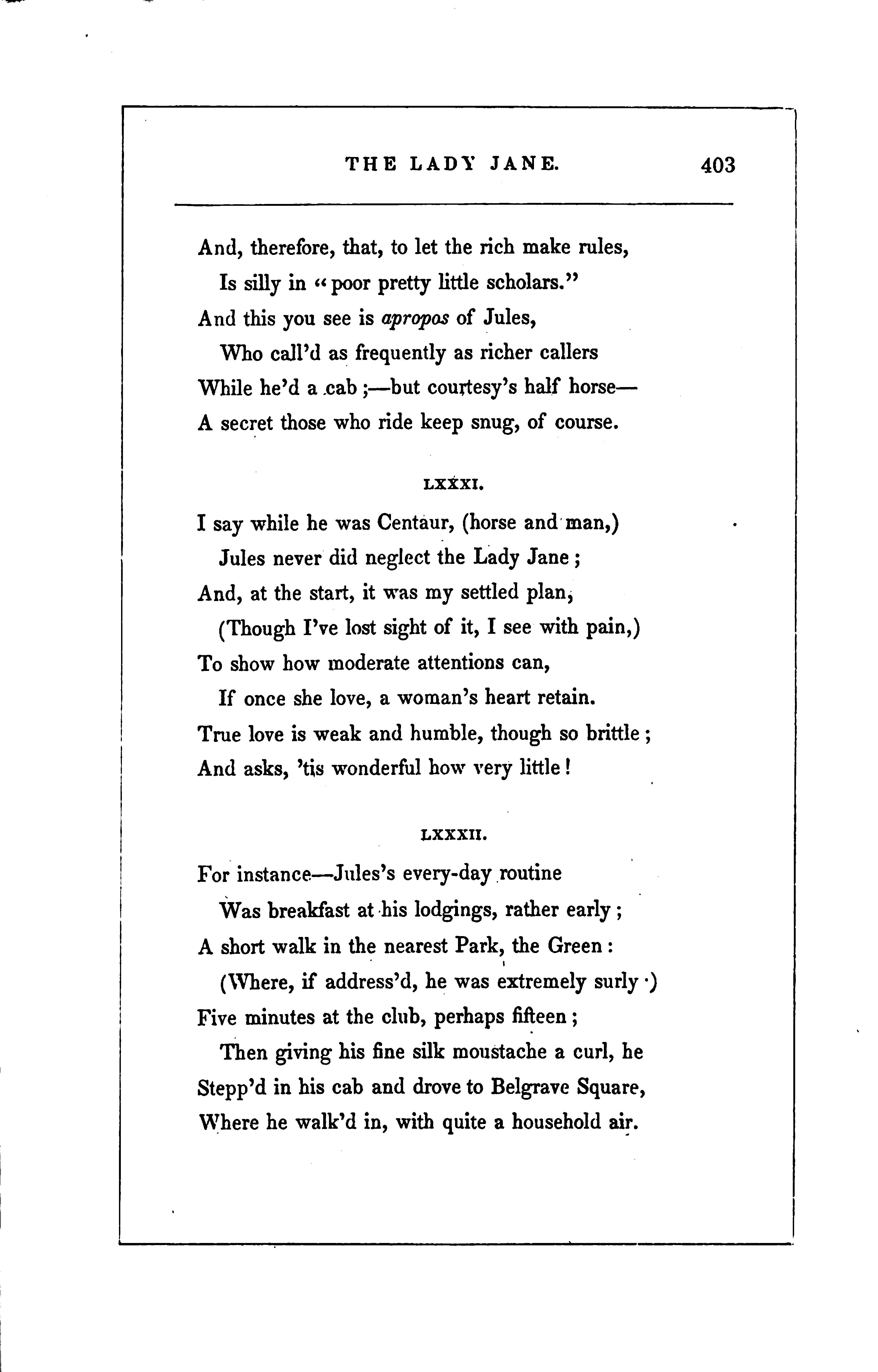

LXXXIII.
And here he pass'd an hour-or two, or threeJust as it served his purpose or his whim ; And sweeter haunt on earth could scarcely be , Than that still boudoir, rose-lit, scented, dimIts mistress, elsewhere all simplicity, Dress'd ever sumptuously there-for him! With all that taste could mould, or gold could buy, Pampering fondly his reluctant eye.
LXXXIV.
And on the silken cushions at her feet
He daily dream'd these morning hours away, Troubling himself but little to be sweet. Poets are fond of revery, they say, But not with ladies whom they rarely meet. And, if you love one, madam, (as you may !) And wish his wings to pin as with a skewer, Be careful of all manner of toujours !
LXXXV.
"Toujours perdrix," snipe, woodcock, trout, or rabbit Offends the simplest palate, it appears, And, (if a secret, I'm disposed to blab it,) It's much the same with smiles, sighs, quarrels, tears. The fancy mortally abhors a habit !
(Not that which Seraphina's bust inspheres !)
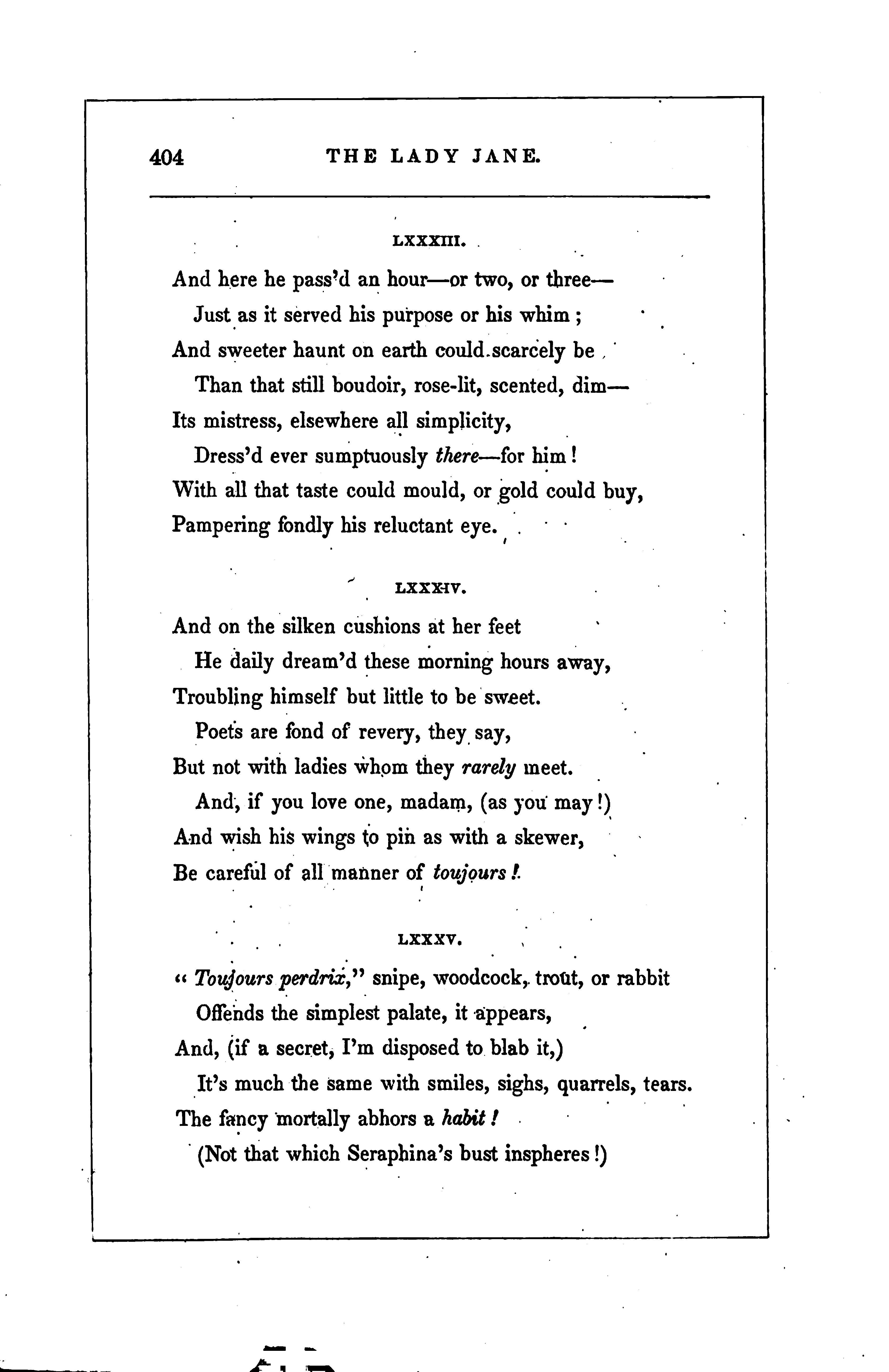

E'en one-tuned music-boxes breed satiety, Unless you keep of them a great variety.
LXXXVI.
Daily to Jules the sun rose in the East, And brought new milk and morning paper daily ; The yield," of both the Editor and beast, Great mysteries, unsolved by Brown or Paley; But Jules-not plagued about it in the leastRead his gazette, and drank his tea quite gayly ; And Lady Jane's fond love and cloudless brow Grew to be like the Editor and cow.
LXXXVII.
I see you understand it. One may dash on A colour here-stroke there-and lo ! the story!
And, speaking morally, this outline fashion Befits a world so cramm'd yet transitory.
I've sketch'd for you a deep and tranquil passion Kindled while nursing up a bard for glory ; And, having whisk'd you for that end to London, Let's back to Italy, and see it undone.
LXXXVIII.
Fair were the frescoes of Rospigliosi
Bright the Italian sunshine on the wallThe day delicious and the room quite cozyAnd yet there were two bosoms full of gall!
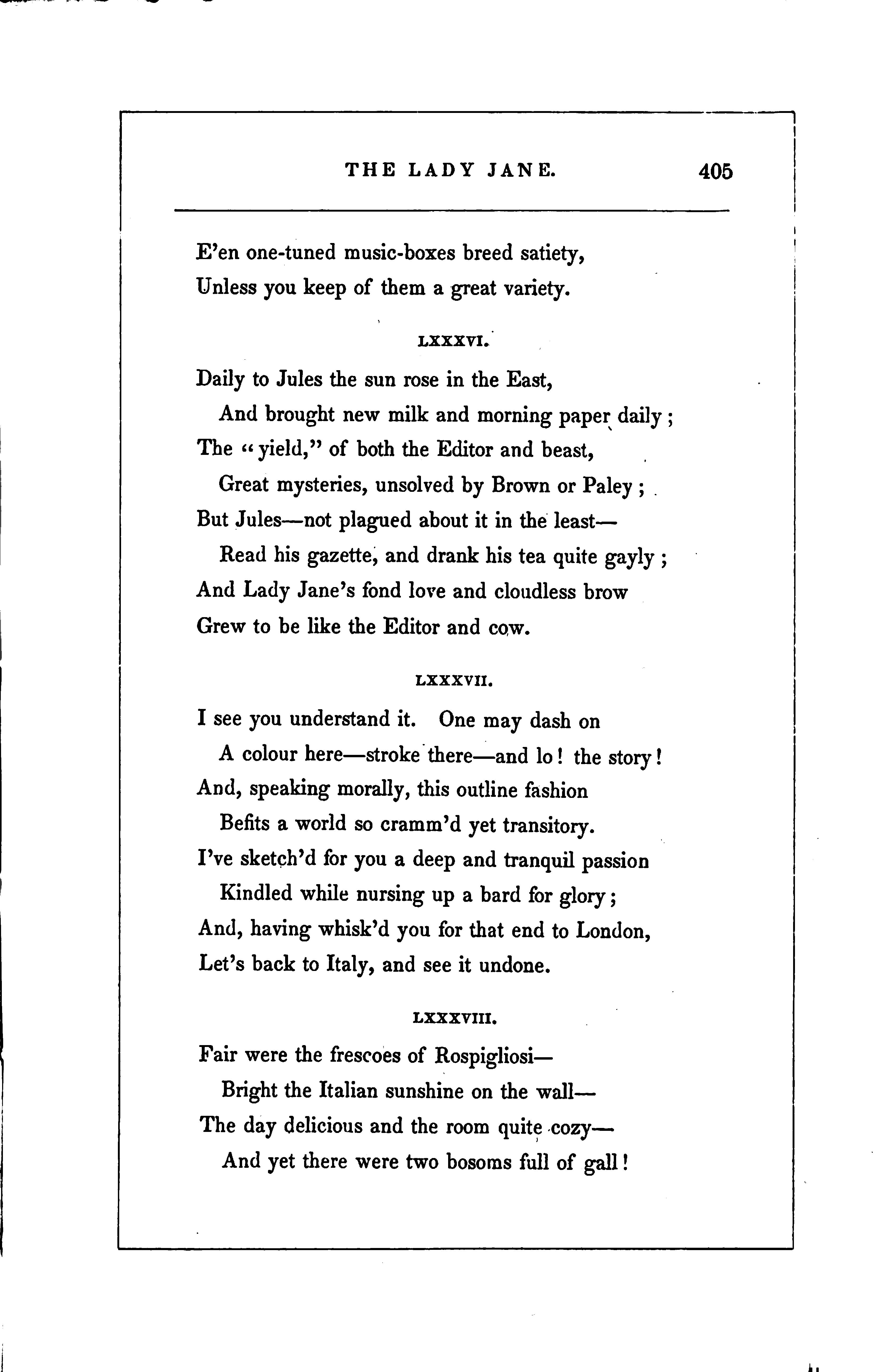

So lurks the thorn in paths long soft and rosy!
Jules was not one whom trifles could appal, But few things will make creep the lion's mane Like ladies in a miff who won't explain !
LXXXIX.
Now I have seen a hadji and a cadi-
Have sojourn'd among strangers, oft and longHave known most sorts of women, fair and shady, And mingled in most kinds of mortal throng · But, in my life, I never saw a lady Who had, theleast, the air of being wrong!
The fact is, there's a nameless grace in evil We never caught-'twas she who saw the devil !
XC.
In pedigree of sin we're mere beginners
For what was Adam to the " morning star?" She would take precedence-if sins were dinners, And hence that self-assured « de haut en bas So unattainable by men, as sinners.
Of course, she plays the devil in a fracas
Frowns better, looks more innocent, talks faster, And argues like her grandmother's old master!
XCI.
And in proportion as the angel fades-
As love departs-the crest of woman rises-
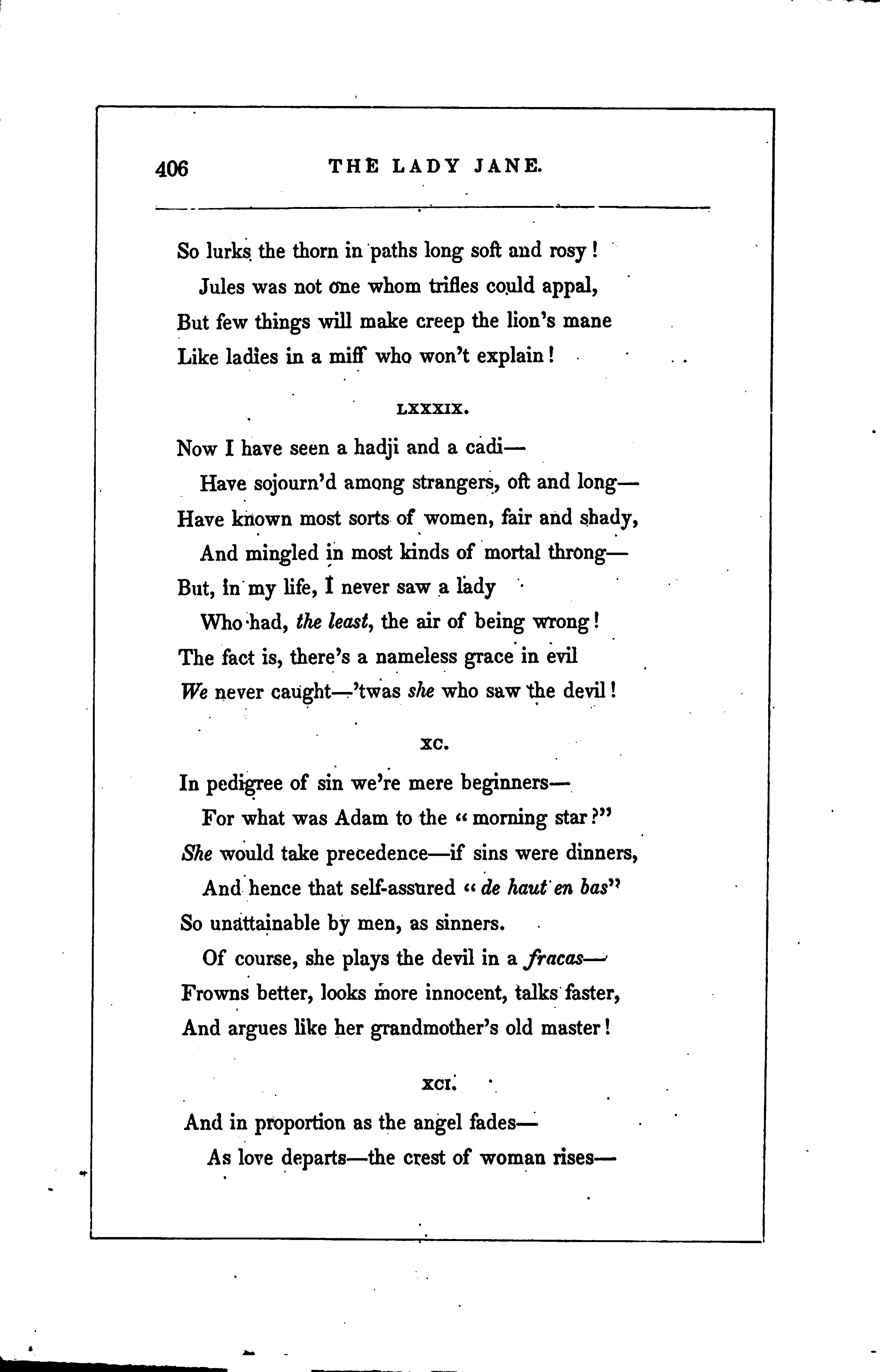

Even in passion's softer, lighter shades, With aristocracy's well-bred disguises ; For, with no tragic fury, no tirades, A lady looks a man into a crisis !
And, to 'most any animal carnivorous Before a belle aggrieved, the Lord deliver us !
XCII.
Jules had one thing particular to say,
The morn I speak of, but, in fact, was there, With twenty times the mind to be away. Uncomfortable seem'd the stuff'd arm-chair In which the Earl would sometimes pass the day ; And there was something Roman in the air ; For every effort to express his errand Ended in "um!"-as 'twere a Latin gerund.
XCIII.
He had received a little billet-doux
The night before as plain as A B C (I mean, it would appear as plain to you, Though very full of meaning you'll agree) Informing him that by advice quite new
The Earl was going now to try the sea ; And begging him to have his passport vised For Venice, by Bologna--if he pleased !
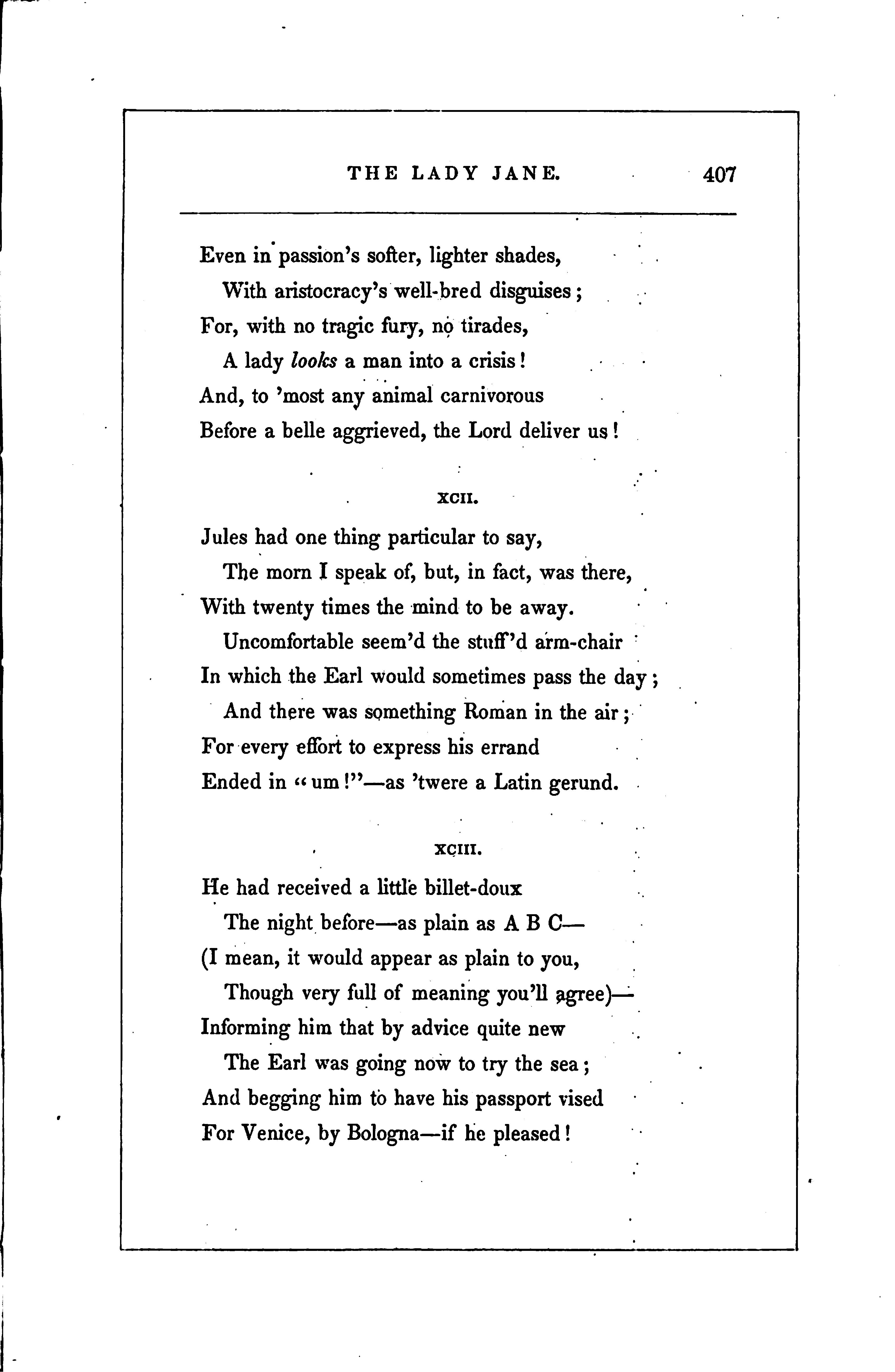

XCIV.
Smooth as a melody of Mother Goose's
The gentle missive elegantly ran- " A sort of note the writer don't care who sees,
For you may pick a flaw in't if you canBut yet a stern experimentum crucis, Quite inthe style of Metternich, or Van, And meant without more flummery or fussStay with your Marchioness or come with us !
XCV.
Here was to be " a parting such as wrings
Thebloodfromout younghearts"-forJules would stay! The bird she took unfledged had got its wings, And, though its cage be gold, it must away ! But this, and similar high-colour'd things, Refinement makes it difficult to say;
For, higher " high life" is, (this side an attic,) The more it shrinks from all that looks dramatic.
XCVI.
Hence, words grow cold as agony grows hot, 'Twixt those who see in ridicule a Hades ; And though the truth but coldly end the plot, (There really is no pathos for you, ladies !) Jules cast the die with, simply " I think not!"
And her few words were guarded as he made his ;
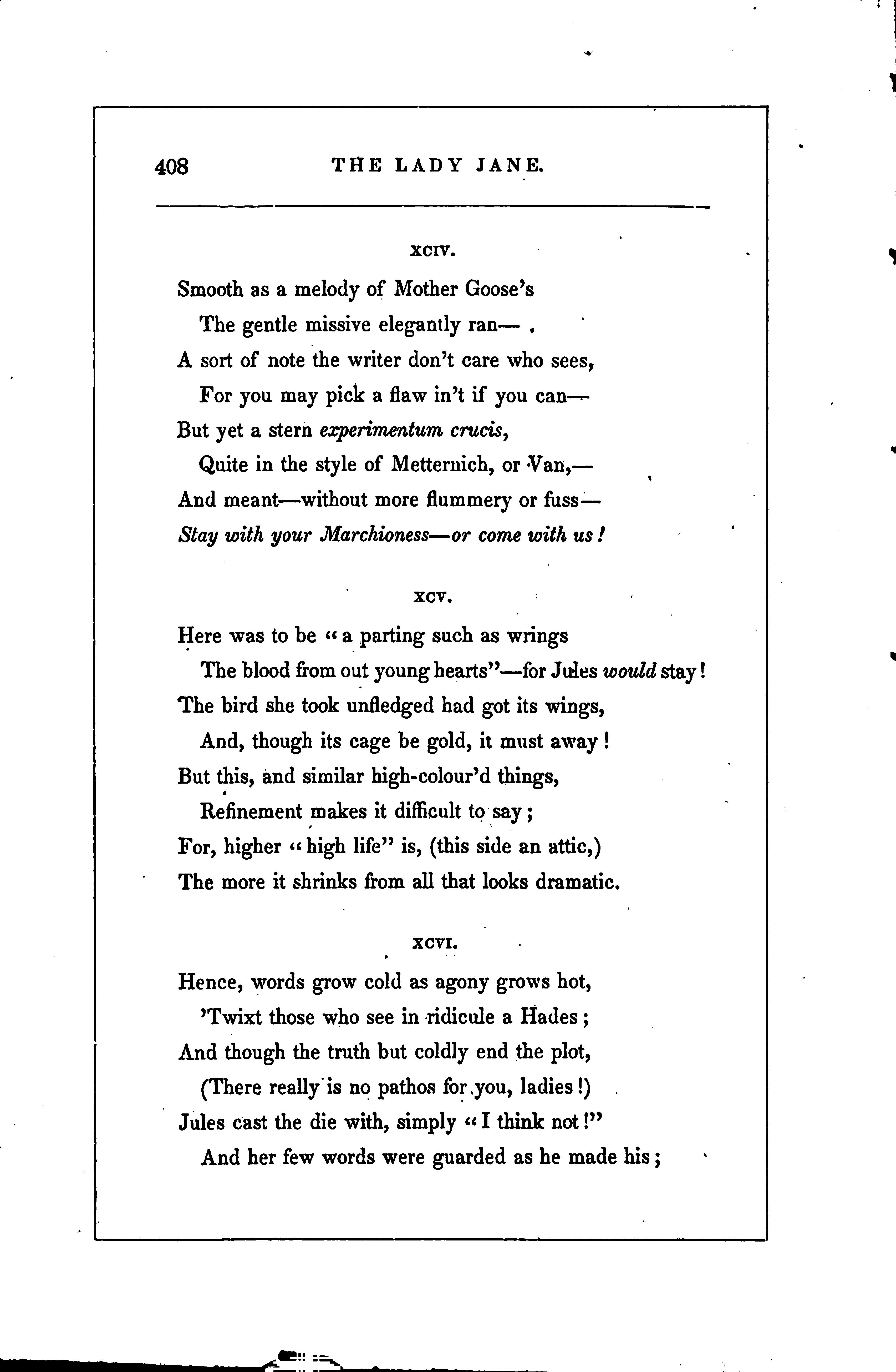

For rank has one cold law of Moloch's making Death, before outcry, while the heart is breaking!
XCVII.
She could not tell that boy how hot the tear
That seem'd within her eyeball to have died
She could not tell him her exalted sphere
Had not a hope his boyish love beside : The grave of anguish is a human earHers lay unburied in a pall of pride! And life, for her, thenceforth, was cold and lonely, With her heart lock'd on that dumb sorrow only!
XCVIII.
Calm, in her " pride of place," moves Lady Jane Paler, but beautifully pale, and cold
So cold, the gazer believes joy nor pain
Has o'er that pulse of marble ever roll'd. She loved too late to dream of love again, And rich, fair, noble, and alone, grows old!
A star, on which a spirit had alighted Once, in all time, were like alife so blighted ! XCIX.
So, from the poet's woof was broke athread
Which we have follow'd in its rosy weaving ; Yet merrily, still on, the shuttle sped.
Jules was not made of stuff to die of grieving ; 2M
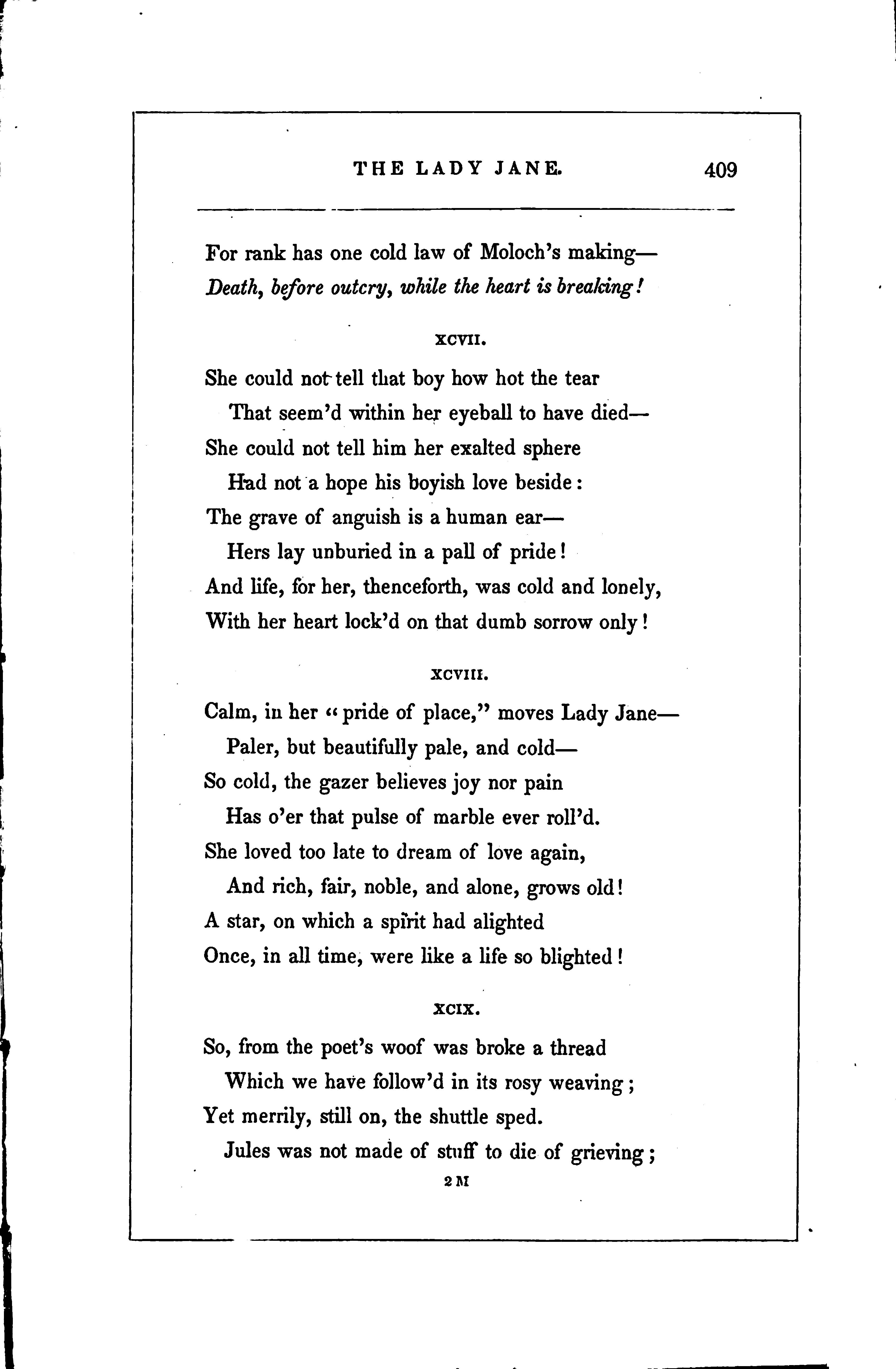

But, that an angel from his path had fled, He was not long in mournfully believing. And " angel watch and ward" had fled with herFor, virtuously loved, 'tis hard to err!
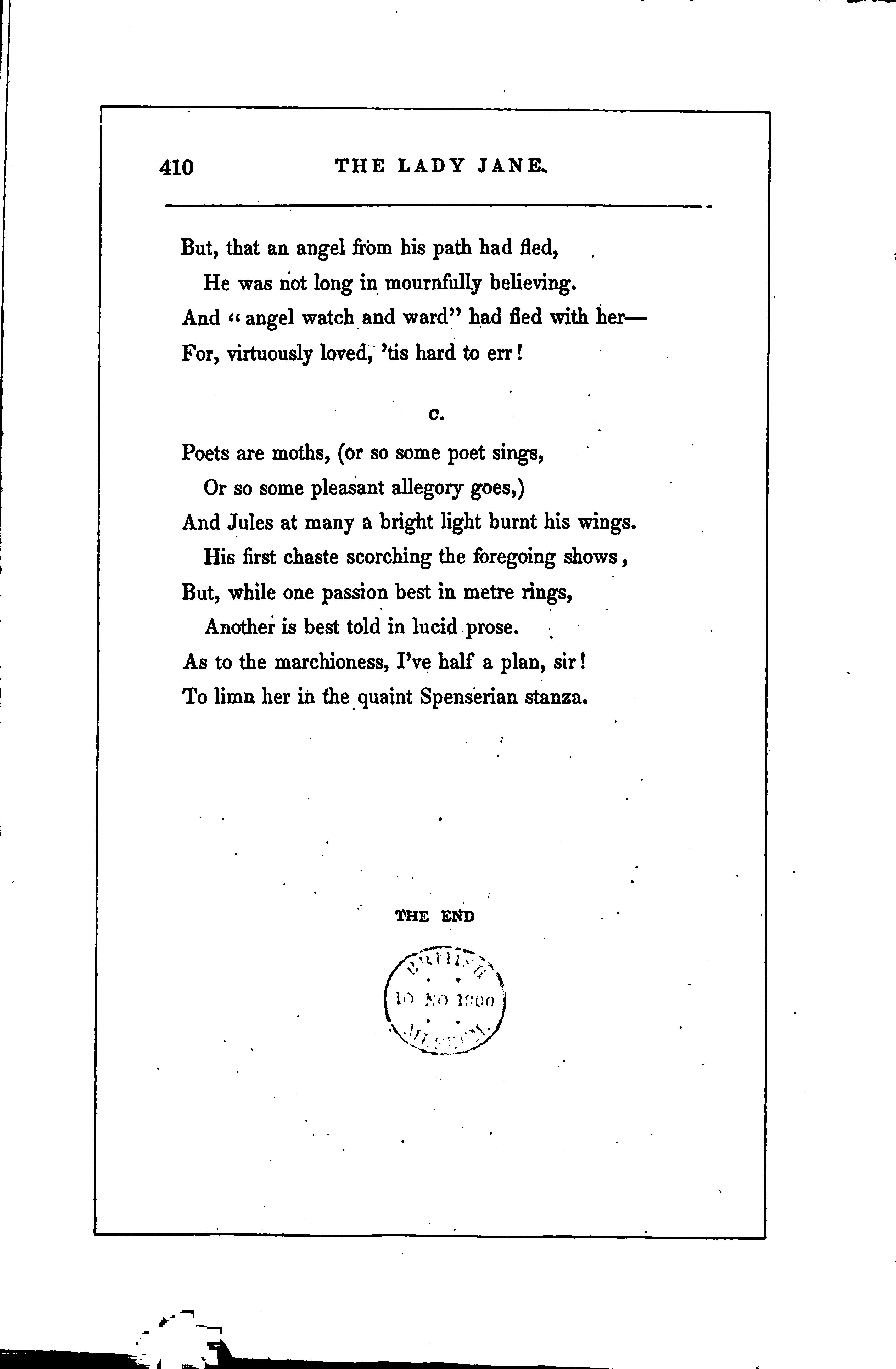
Poets are moths, (or so some poet sings, Or so some pleasant allegory goes,) And Jules at many a bright light burnt his wings. His first chaste scorching the foregoing shows, But, while one passion best in metre rings, Another is best told in lucid prose.
As tothe marchioness, I've half a plan, sir! To limn her in the quaint Spenserian stanza.
END BRITISH 10 NO 1900

Longfellow's Poetical Works. WITH ELEVEN SUPERB ENGRAVINGS, FROM ORIGINAL DESIGNS BY HUNTINGTON, By American Artists, And elegantly printed on fine vellum paper, EIGHTH EDITION, IN ONE VOLUME OCTAVO.
Price $5.00 bound in scarlet, gilt edges, or 66 $7.00 boundin Turkey morocco, by S. Moore.
Neal's"Thisistheveryluxuryofliterature-Longfellow'scharmingpoemspresentedinaformofunsurpassedbeauty. Gazelle.
Williss Poetical Works. ILLUSTRATED FROM ORIGINAL DESIGNS BY E. LEUTZE, And elegantly engraved by American Artists, TO WHICH ARE ADDED SEVERAL NEW POEMS, WRITTEN EXPRESSLY FOR THIS VOLUME.
Price $5.00 bound in scarlet, gilt edges; or in Turkey morocco, $7.00.
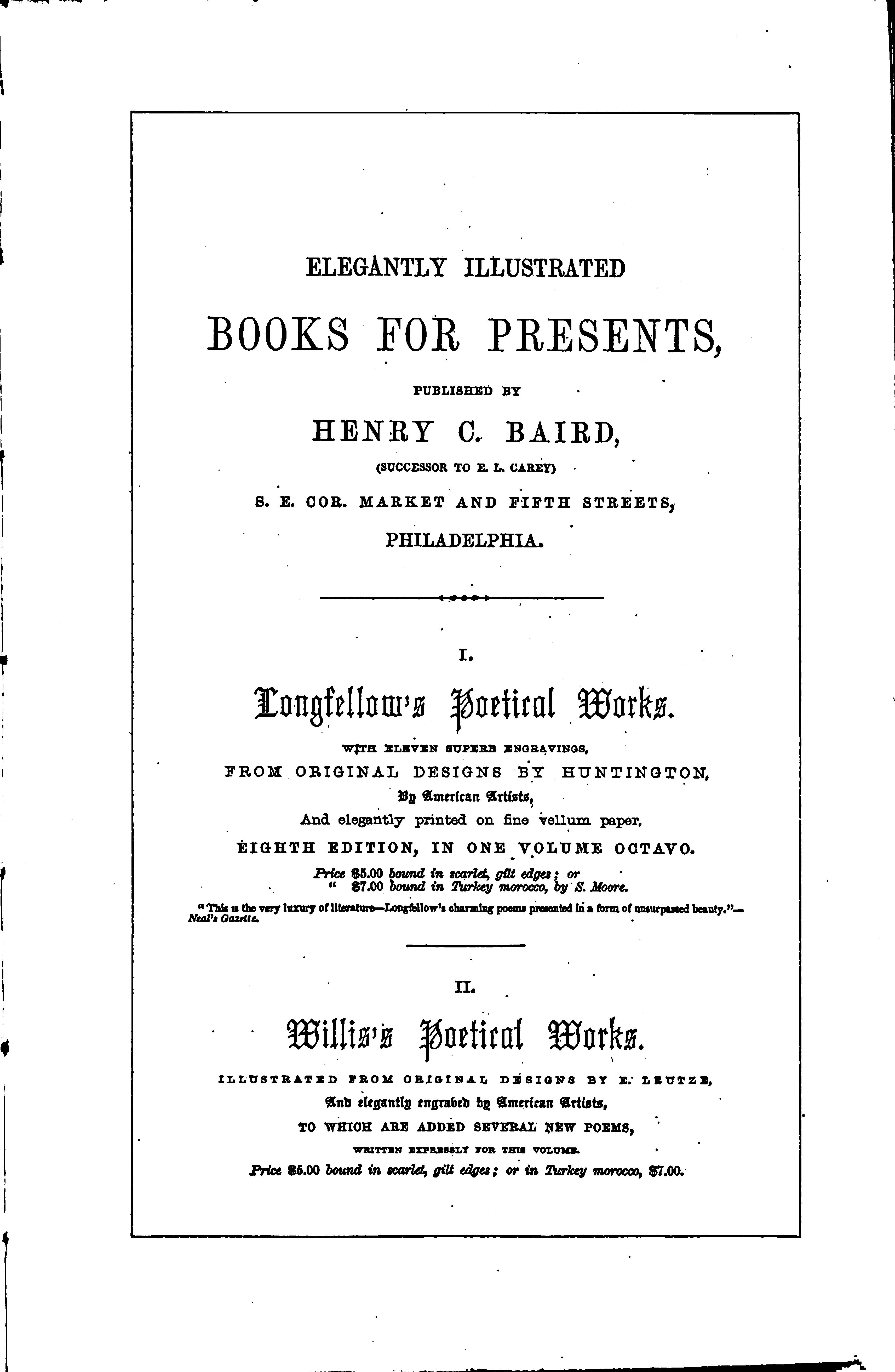

GOPERBLY ILLUSTRATED WITH TWELVE ELEGANT STEEL ENGRAVINGS, Executed by American Artists, FROM DESIGNS IN MURRAY'S MAGNIFICENT LONDON EDITION. Beautifullyprinted on finepaperwith largetype.
Price $5.00 bound in scarlet, gilt edges; or elegantly bound in Turkey morocco, $7.00.
Cales and Poems. By Lord Byron. WITH ILLUSTRATIVE ENGRAVINGS ON STEEL, FROM DESIGNS BY HENRY IN ONE VOLUME OCTAVO. WARREN.
Bound in scarlet cloth,gilt edges, price $5.00; or Turkey morocco, $7.00.
ILLUSTRATED BY THIRTEEN STEEL ENGRAVINGS.
Beautifully printed on fine white paper.
THIRD EDITION, COMPLETE IN ONE VOLUME OCTAVO.
Price $5 bound in scarlet, gilt edges; or elegantly bound by S. Moorein Turkeymorocco, $7 "How much more impressivemustbe its perusal fromthemagnificent volumejustissued, in Annual'style,its snowyleavesprinted in the perfectionofthe art, andthematter illustratedbymastersofthepencilandgraver."- SaturdayCourier.
Lady of the Lake. WITH TEN FINE STEEL ENGRAVINGS, FROM ORIGINAL DESIGNS, EXPRESSLY FOR THIS EDITION, By P. Corbould and Kenny Meadows, Elegantlyprinted on fine paper.
SECOND EDITION, COMPLETE IN ONE VOLUME OCTAVO.
Price $5 bound in scarlet,gilt edges; or elegantlyboundby S. Moorein Turkeymorocco, $7. "The 'gettingup ofthisedition iscreditableinthehighestdegreetothepublisherandthefineartsofthecountry.Thepaper,binding,andtheengravingsarealloftheverybestkind."-Inquirer andCourier.
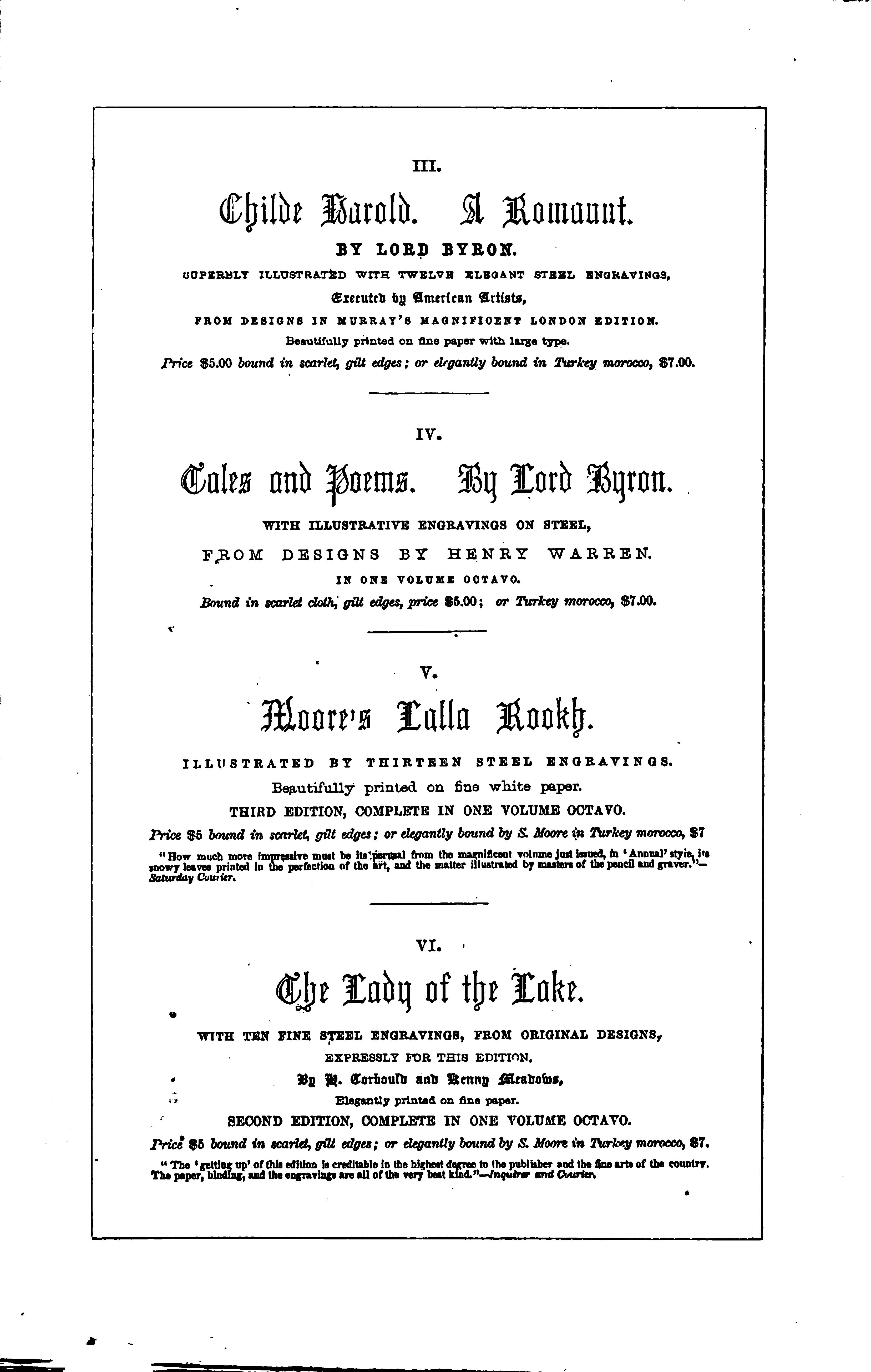

WITH TEN STEEL ENGRAVINGS BY CHENEY, CUSHMAN, ETC.
Inonevolumeoctavo. Scarlet,richlygilt, $2.00; or Turkeymoroccoextra, $3.00.
"Theillustrations areteninnumber,fine, spirited,andtasteful;andtheworkwouldformbothanelegantandintrinsicallyvaluablepresentforthecomingholidays."-SaturdayCourier.
Che Female Poets of Great Britain, CHRONOLOGICALLY ARRANGED. WITH COPIOUS SELECTIONS AND CRITICAL REMARKS. BY FREDERICK ROWTON. WITH ADDITIONS BY AN AMERICAN EDITOR, AND FINELY ENGRAVED ILLUSTRATIONS BY CELEBRATED ARTISTS.
Inonevolumeoctavo. Scarletcloth,giltedges. Price $5.00; Turkeymorocco, $7.00. female"Mr.Rowtonhasherepresenteduswithadmirablyselectedspecimensofnearlyonehundredofthemostcelebrated poetsofGreatBritain,fromthetimeofLadyJuliana Beruers,the first ofwhomthere isanyrecord,totheMitfords,theHowitts,theCooks,theBarretts,andothersofthepresentday."-Hunt'sMerchants'Magazine.
"Iamobnoxioustoeachcarpingtongue AThatsaysmyhandaneedlebetterfits; Forpoet'spenallscornIthusshouldwrong, Butsuchdespitetheycastonfemalewits.... ElsesuretheantiqueGreekswerefarmoremild, ofoursexwhyfeignedtheythosenine, AndpoesymadeCalliope'sownchild?So'mongsttheresttheyplacedtheartsdivine." TheFourElements. ByAnneBradstreet,Boston, 1840.
IN ONE VOLUME OCTAVO, WITH FINE STEEL ENGRAVINGS. Bound inplaincloth, cloth giltedges,ormoroccoextra. "Weagreewiththeauthorthatmanyofthepiecesquotedinthevolumebeforeus illustrateashighandsustainedarangeofpoeticartasthefemalegeniusofanyageorcountrycandisplay.'"-ProvidenceJournal "Who shallsaythatAmericanwomen arelacking in the elements ofpoetry,aftertheabundant evidencetothe contrary,which is afforded in this handsomevolumefromthehandsofthebestcompilerinthe country-one,too, whosetasteinliterarymattersisasunquestionableashisindustry."-SouthernLiteraryGazelle.
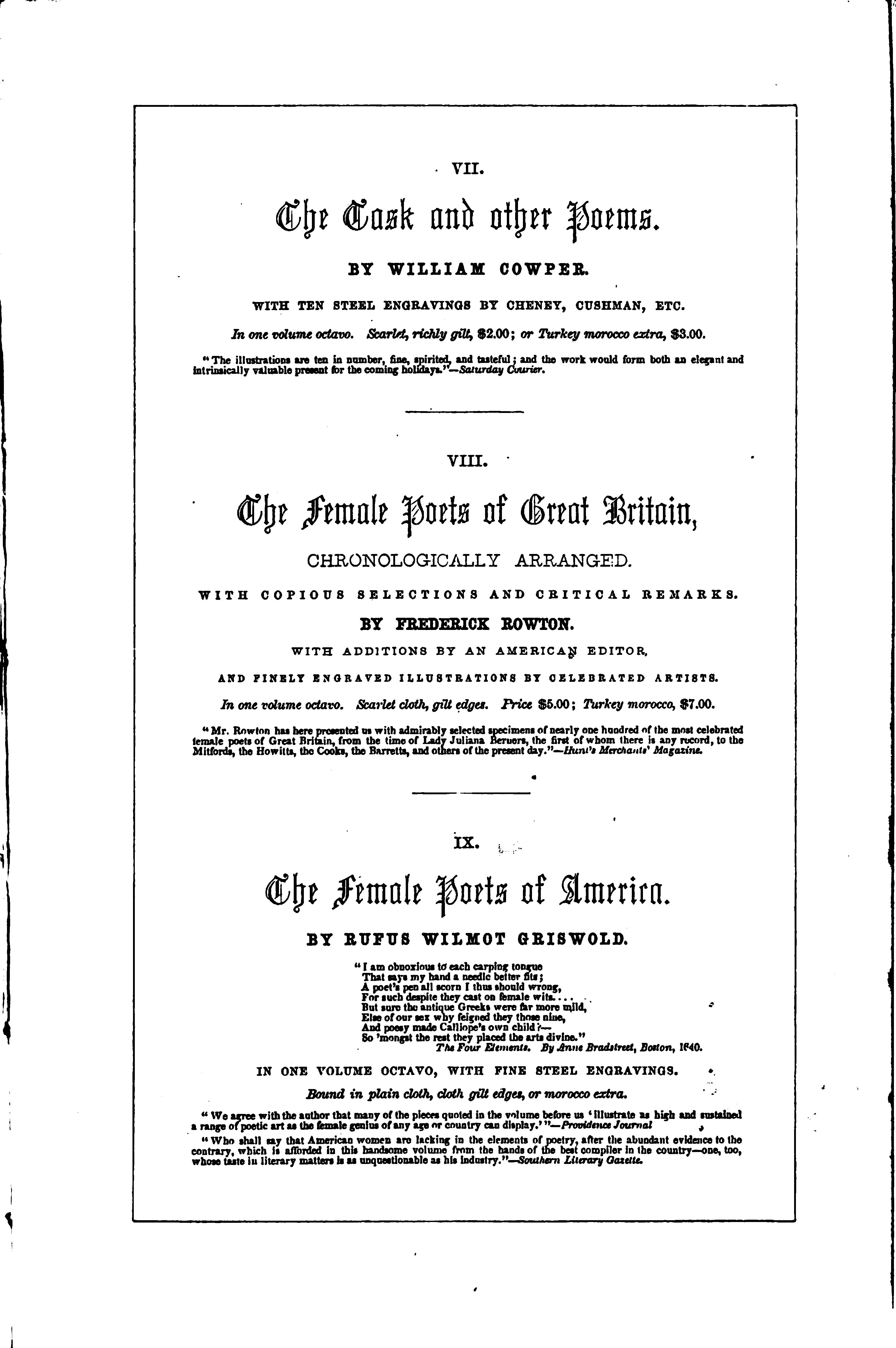

WITH A SPLENDID PORTRAIT OF BYRON IN THE ALBANIAN COSTUME, Third Edition. Clothextra. Price$3.00.
"Such isthecritical acumendiscovered in theseselections,thatscarcelyapageistobefoundbutis redolentwith beauties,andthe volumeitselfmayberegardedasagalaxyofliterarypearls."-DemocraticReview.
Che Ports and Poetry of the Ancients.
BY WILLIAM PETER, A.M.COMPRISING TRANSLATIONS AND SPECIMENS OF THE POETS OF GREECE AND ROME; WITH AN ELEGANT, ENGRAVED VIEW OF THE COLISEUM AT ROME.
Cloth extra,price $3.00; or elegantly bound by Samuel Moore in Turkey morocco, $5.00. "Itspeakswell forhisacquirements,industry,andassociations;andmustproveavaluableadditiontotheliteratureofthecountry,asastandardofclassictasteandpoeticexcellence."-SaturdayCourier.
XII.
Poets and Poetry of Great Britain, FROM THE TIME OF CHAUCER TO THE BEGINNING OF THE 19TH CENTURY. BY THOMAS CAMPBELL.
REVISED BY AN AMERICAN EDITOR. Inonevolumeroyal octavo. (Inpreparation.)
XIII.
Che Poetical Works of Chomas Gray. COMPLETE.
WITH FINELY ENGRAVED ILLUSTRATIONS. Inonevolume,smalloctavo. (Inpreparation.)
